




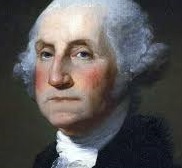
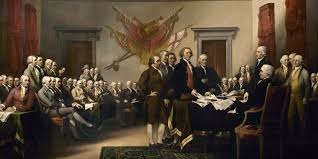


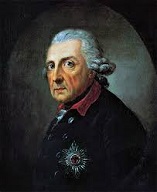




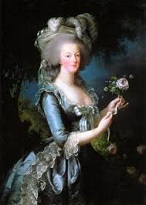
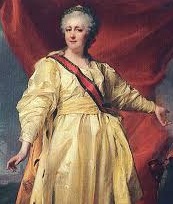
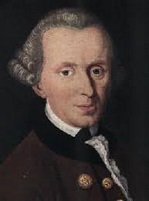




















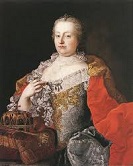

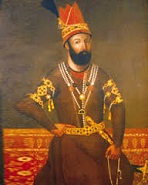

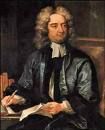








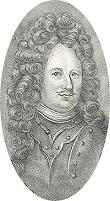



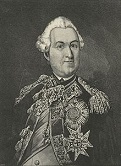









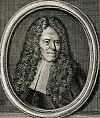


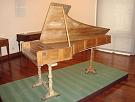

1700 Jan. 1, 1700 falls on Friday, so this is a Venus (Frigg) Century - yah right, they do a lot of frigging? Pop.: England-Scotland: 7.5M (8.5M in 1760), France: 19M (25M in 1789), Hapsburg dominions: 7.5M, Spain: 6M, India: 150M (up 50M in 2 cents.); Anglo pop. of the English colonies in America: 250K, with Boston (7K) the largest city, followed by New York City (5K); the ratio of the pop. in England to the pop. of the English colonies is 20 to 1; native Am. Indian pop.: 1M; pop. of Stockholm: 60K; well-fed Americans are the tallest people in the world from colonial times until the middle of the 20th cent. Muslim control of Turkey has grown from 0% in 1300 to over 50%, reaching 80% in 1900, and 99% by 2000. Early in this cent. the term "redcoat" is coined for a British soldier, whose coat is colored with madder red, with scarlet for oficers, expanding to all ranks in 1873; the Parliamentarian New Model Army of 1645 wrote coats of Venetian red. In this cent. the Industrial Rev. begins in Europe, starting slow and picking up steam about 1760; at the beginning of the cent. living conditions in Europe stink, with corpses piled into empty graves until full. In this cent. the open-field system in Britain along with communal mgt. of large tracts of farmland begins to be ended by enclosures by Parliament, with over 300K acres enclosed by 1760, and 3M more by 1801, allowing modern farming techniques to be used to increase output, causing the urban pop. to zoom from 20% to as much as 50% by 1770. In this cent. the Grand Tour flourishes for the British aristocracy, until the Napoleonic Wars make it too dangerous. On Jan. 26 a megathrust earthquake occurs in the Pacific Ocean. On Feb. 22 after Russia, Poland, and Denmark-Norway decide to take on the supremacy of the Swedish Empire in C, N, and E Europe, Augustus II the Strong of Poland invades Livonia (modern-day Estonia and Latvia) with his Saxon troops, starting the Great Northern War (ends Sept. 10, 1721), and sieges Riga (until Nov.), but is defeated by an army led by Swedish Wittelsbach king #4 (1697-1718) Karl (Charles) (Carolus Rex) XII (1682-1718); in July the Battle of Jungfernhof (Jumprava, Jumpravmuiza) near Riga is a V for field marshal (since Aug. 27, 1699) Count (since 1699) Adam Heinrich von Steinau (-1712), (who commanded imperial troops in Hungary against the Turks in 1695-6) over Swedish gen. (later count in 1706) Otto Ottoson Vellingk (1649-1708). On Mar. 1 in Denmark, Norway, and the Protestant states of Germany, Switzerland, and the Netherlands, the date switches from Feb. 18 as the 1582 Gregorian Calendar is finally adopted. On Mar. 25 (Mar. 13 Old Style) the Treaty of London (Second Treaty of Partition) (first in 1698) between France, Britain, and the Dutch Repub. revamps the Spanish succession, giving Spain and the Indies to Archduke Charles (later HRE Charles VI) (2nd son of HRE Leopold I), Naples, Sicily, and the Duchy of Lorraine to the French dauphin, and Milan to the duke of Lorraine, with the two branches of the House of Hapsburg stipulated to forever remain separate; Charles II of Spain signs a new will making Louis XIV's grandson Philip V, duke of Anjou his heir. On Mar. 19 Friedrich I approves the establishment of the Berlin Academy of Sciences, headed by big brain Gottfried Wilhelm von Leibniz. On Apr. 18 after being caught plotting with France to fight the Hapsburgs for Hungarian independence, Transylvanian prince (leader of the Kurucs) Francis II Rakoczy (1676-1735) is arrested and imprisoned in Wiener Neustadt fortress, but flees to Poland and plots to make a comeback. In June Mass. passes a law expelling all Roman Catholic priests; N.Y. follows suit. Nords 1, Slavs 0? On May 30-July 18 the new 40-ship Azov fleet of Russian tsar (since 1682) Peter I the Great (1672-1725) takes Azov from the Turks, followed by Kouban, ending the Second Russo-Turkish War (begun 1686); after Charles (Karl) XII of Sweden occupies Iceland, Peter I the Great begins a 21-year war with Sweden, but proves no match, as on Nov. 30 Charles XII uses a snowstorm as cover to defeat his 37K-man army under field marshal Charles Eugene de Croy (1651-1702) with only 12.3K troops at the Battle of Narva, with 10K-16K Russians KIA and 17K-30K captured vs. 667 Swedes KIA and 1.2K wounded, uniting Sweden and beginning Nordic settlement of the New World; the weakness of the Asiatic hordes against the N European Nordics is exposed, and Sweden becomes the leading power in N Europe; too bad, in Sept. Russia makes Courland a vassal, and after Russia declares war on Poland in 1702, Sweden wastes several years campaigning in Poland, giving Peter the great, er, the Great the opportunity to reorganize his army and construct a Baltic fleet. On July 10 the first advertisement is placed for Hockley-in-the-Hole in London, England, which stages prize fights, incl. with swords, and also has a lovely Bear Garden for bull and bear baiting; in 1774 the name is changed to Ray St. England is set to be ruled by Germans and nobody can stop it? On July 30 Prince Anne's popular son and heir apparent Duke William of Gloucester (b. 1689) dies of smallpox, and succession to the English throne passes through James VI's daughter Elizabeth to Electress Sophia of Hanover (1630-1714), mother of Elector Prince George (later George I); morbidly obese Princess Anne has by now had 18 pregnancies, of which only five ended in live births, and they all died, some incl. Lady Mary and Lady Anne of smallpox, and by now she is worn-out and a semi-invalid. On Aug. 3 the French ship Amphitrie returns to China with a cargo of silk, porcelain, and tea, causing a boom that increases ships to China 10x. On Sept. 6 the town of Mount Kisco, N.Y. on the Kisco River in modern-day Westchester County (Munsee "asiskuw" = mud") (modern-day pop. 10.8K) is first mentioned, becoming the home of New York Times pub. Arthur Ochs Sulzberger Jr., Walt Disney CEO Michael Eisner, TV personalities Bennett Cerf and Arlene Francis, and composer Samuel Barber. On Sept. 27 Pope (since July 12, 1691) Innocent XII (b. 1615) dies after advising retarded king Charles II of Spain to make his grandnephew (Louis XIV's blonde 2nd-eldest grandson) (great-grandson of Philip IV of Spain) Philip (Felipe) V, Duke of Anjou (1683-1746) his testamentary successor, and on Nov. 1 Charles II (b. 1661) dies childless, ending the line of the Spanish Hapsburgs, and Louis XIV of France accepts the Spanish throne for Philip V, founding the Spanish House of Bourbon, but the Austrians want Spain to remain Hapsburg to keep Louis XIV from getting too much power, and back Hapsburg Archduke Charles (later HRE Charles VI), which leads on May 15, 1702 to the 12-year War of the Spanish Succession (ends Sept. 7, 1714). On Nov. 23 Giovanni (Gian) Francesco Albani (from a noble family in Urbino that orginally came from N Albania) is elected Pope (#243) Clement XI (1649-1721), going on to commission the 5K-page 8-vol. Illyricum Sacrum in 1702 (pub. in Venice in 1751-1819), and refrain from nepotism, other than his nephew Annibale Albani (1682-1751), who is elected cardinal, but on his own merits; the new pope starts out by trying to remain neutral in the succession dispute, while the Austrians invade Italy and take Milan, and the HRE forms a coalition with England, Holland, and Prussia against France and Savoy; Duke Victor Amadeus II of Savoy is placed in command of the combined French-Spanish armies, while his cousin Prince Eugene of Savoy commands the opposing armies. On Dec. 9 moderate Tory Sidney Godolphin, 1st Earl of Godolphin (1645-1712) becomes head minister of the British cabinet (don't say prime minister, actually first lord of the treasury) (until Dec. 30, 1701). Sir Robert Walpole (b. 1676), heir to a rich Norfolk estate is elected to Parliament for Castle Rising, and is reelected next year for King's Lynn. The elective office (since 1516) of prince-bishop of Montenegro becomes hereditary, from uncle to nephew, starting with Danilo I Petrovic-Njegos (1670-1735), founder of the Petrovic-Njegos Dynasty, going on to cultivate friendly relations with Russia. Capt. Kidd goes to Boston to prove his innocence of piracy, is arrested along with several of his crew, and sent to London, where they are imprisoned on Newgate on three counts of piracy, plus murder of a crew member during the Madagascar mutiny. In this cent. the Kingdom of Chikulamayembe is founded in Malawi (ends in the 1870s). With financing by German-born Jewish banker ("the Judenkaiser") Samuel Oppenheimer (1630-1703), Judah the Pious (Judah he-Hasid Segal ha-Levi) (1600-1700) settles in Jerusalem with 1K Ashkenazi followers, joining 200 Ashkenazi and 1K Sephardic Jews already there, resulting in the Ashkenazi building a synagogue on credit and getting it taken back in 1720 by the Arab creditors, who set it on fire, after which the Turks decided to ban all Ashkenazis, causing most to move to other cities, while some pretended to be Sephardics; in 1864 the Ashkenazi Hurvat Yehudah he-Hasid (Destroyed Place of Judah the Pious) is rebuilt, then destroyed in 1948 by the Arab Legion. Sing Sing on the Hudson River 30 mi. N of New York City, named after the Sin Sincks Indians is settled on the Philipse Manor; the name is changed to Ossining in 1901 in a vain attempt to separate it from Sing Sing Prison. By this time the Dutch have overtaken the Portuguese as masters of the world sea trade. About this time Rococo (Roccoco) (Late Baroque) Architecture (Fr. "rocaille" + "coquilles" = stone + shell) (It. "barocco" + Fr. "rocaille" = imperfect pearl + interior decoration using shells and pebbles) arises in Roman Catholic S Germany, Bohemia, and Austria, reacting to the strict rules of Baroque Architecture with a jocular, florid, graceful approach, with asymmetrical ornate designs with light colors, curves, and gold, and playful-witty themes, reaching its height in 1730s France, esp. during the reign (Sept. 1, 1715-May 10, 1774) of Louis XV (1710-74); by the late 1700s it is replaced by the Neoclassical style. In this cent. the Muslim Arab Slave Trade in E Africa sees 500-1K slaves taken at a time from villages in E Africa, held in Zanzibar in the Shimoni Caves for up to three weeks, then shipped to Yemen and America; it continues until the 19th cent.; the port city of Bordeaux, France becomes a major player in the Trianglular Trade of slave ships trading weapons, cloth, and trinkets for African slaves, who are then shipped to the Indies and traded for sugar, coffee, chocolate, and cotton, creating wealthy families who plow their money into wine estates, making Bordeaux wine #1, with names like Mouton, Lafite and Margaux; in 1700-1800 500+ slave ships sail from Bordeaux; meanwhile in the still lily-white Va. Colony racial attitudes harden to the point that all blacks are considered slaves, and manumission requires them to leave so they don't have to deal with a mixed society; meanwhile the white elite fosters racism to keep the downtrodden white lower classes from uniting with the blacks against them and instead prefer racial solidarity, leading to the tragic Pickett's Charge for Ole Virginny in 1863?; in this decade Lagos, Nigeria becomes a major center of the African slave trade (until 1851), ruled by the Yoruba Oba kings. Between this year and 1850 more than 70% of the 12M total slave exports across the Atlantic occur, with a mortality rate of 25% (9.5M surviving). Between this year and 1810 ships bring nearly 1M African slaves to work in sugar planations in Jamaica and Barbados; British sugar consumption grows from 4 lbs. per capita in 1700, 18 in 1800, 36 in 1850, to 100+ by 1900. About this time the commode becomes a popular household appliance. Early in this cent. April Fools' Day migrates from France to England. In this cent. the phrase "o'clock" begins to be used instead of "of the clock" or "a clock". Berlin institutes a tax on unmarried women - the original play or pay? Britain prohibits the printing or weaving of calico, regulates vending of alcoholic spirits, and finally allows commoners to own greyhounds. In this decade many German towns become lit by oil. At the beginning of the cent. British industry is limited to the "domestic system" (cottage industry), mainly woolworking; the Norwich region, centered around the town of Worstead becomes famous for "worsted" woolens. The demise of Puritanism allows Christmas carols to become popular again in this cent. Early in this cent. the word "barbarian" comes to mean somebody who is wild or rude. In this decade Congregational minister (since 1680 John Wise (1652-1725) of Ipswich, Mass. successfully campaigns against a plan by Increase Mather and Cotton Mather to organize Mass. clergymen into associations, claiming that it would reduce local church autonomy. Early in this cent. the Established Church of Scotland is so concerned with the spread of Bourignianism, a belief in direct mystical supernatural revelation originated by Flemish nun Antoinette Bourignon (1616-80) and spread by Calvinist minister Pierre Poiret (1646-1719) that it requires entrants to the ministry to solemnly renounce it. By this year there are 50-60 regular newspapers in Germany reaching several hundred thousand readers. New York Province gov. #12 (1698-1701) Richard Coote, 1st Earl of Bellomont (1636-1701) establishes a reading room that in 1754 becomes the New York Society Library. The Academie des Sciences et Belles Lettres is founded in Lyon, followed by an Academie des Beaux-Arts in 1713. The Late Baroque Period of European Art begins (ends 1715), characterized by freedom of form, motion, and feeling along with ornamentation such as only absolute monarchs can love? About this time the Mdewakantonwan (pr. bde-wak-hath-ung-wang) subtribe of the Dakota nation moves into the area around Lake Minnetonka in Minn. W of modern-day Minneapolis-St. Paul. Early in this cent. Opera Buffa (comic opera) arises in Naples, and spreads N. The P'ansori (1-man opera) is developed in Korea in this cent., but doesn't flourish until the 19th cent., taking librettos from vernacular Korean novels. About this time the rules and vocabulary of Danse d'Ecole (Ballet) are codified in France. In the first half of this cent. European secular painting hits rock bottom because of all the religious pressure. In this cent. Santo religious icon art is developed by Am. Catholic Hispanics in Colo. and New Mexico. Sports: Francisco Romero of Andalusia becomes the first famous Spanish bullfighter. Architecture: The Palace of Forty Pillars in Isfahan, Persia is redesigned. Eddystone Lighthouse (begun 1698) off Plymouth, England is finished. The Isaac Winslow House in Marshfield, Mass. is built. The domed mansion Castle Howard near Malton, Yorkshire, England is built, featuring fine art collections open to the public. Rich English lawyer John Kyrle (1637-1724), who turns philanthropist and lives a frugal lifestyle so he can use his wealth for the community founds The Prospect in Ross-on-Wye, a hilltop park with a fountain and walkways. Inventions: In this cent. Cordials (Lat. "cor" = heart) AKA surfeit waters, used for medicinal purposes begin to incl. alcohol, spawning griottes, long-stalked sour griotte cherries in kirsch wrapped in chocolate, invented in Franche-Comte, which travel to the U.S., evolving into chocolate-covered cherry cordials, which become popular for Valentines Day gifts. The pianoforte (piano) is invented by Italian harpsichord maker Bartolommeo Cristofori (1655-1731) of Padua, who in 1709 makes four "gravicembali col piano e forte" (harpsichord with soft and loud) for Tuscan grand prince Ferdinando de' Medici; family friend Sebastian LeBlanc suggests black and white keys. In this half-cent. the Serinette (Fr. "serin" = canary) hand-cranked barrel organ appears in E France to teach songs to canaries, evolving into the organ-grinder profession. By this time the Four-Masted Galleon is being produced in Europe. Side arms for eyeglasses are developed in this cent. The modern spoon with the spatulate handle is invented in this cent. A Swiss inventor mounts a windmill on a wagon, using it to wind up a huge spring. Science: English mathematician John Machin (1686-1751) (prof. of astronomy at Gresham College, London) invents a convergent series for pi based on the series expansion of the arctangent function, and uses it to compute pi to 100 decimal places - well snaggle my fran? About this time Sir Isaac Newton predicts the deflection of light around the Sun by 0.875 arc sec.; Albert Einstein later plagiarizes him for his 1913 prediction, which isn't experimentally verified because of WWI, but changes his prediction to 1.75 arc sec. before an expedition to a solar eclipse measures it in 1919?; Newton claimed that the gravitational attraction of the Sun makes light travel faster close to it so that the deflected light arrives before the undeflected light, whereas Einstein claimed that light will be delayed when passing close to the Sun. Dutch botanist-anatomist Frederik Ruysch (1638-1731) describes the ocular circulatory system, proving the existence of the arteria centralis oculi (central artery of the eye); he goes on to prove the existence of valves in the lymphatic system, along with the vomeronasal organ in snakes, and invents the art of injection and embalming techniques, becoming the first to embalm by injecting a chemical solution into the blood vessels made of clotted pig's blood, Berlin blue, and mercury oxide, creating dioramas incorporating human parts esp. infant and fetal bodies, leaving 2K+ preserved specimens in his private museum, also preserved butterflies and lizards, selling a load of it in 1717 to Peter the Great. Joseph Sauveur begins writing on musical acoustics. French botanist Joseph Pitton de Tournefort (1656-1708) discovers ammonium chloride. Nonfiction: Mary Astell (1666-1731), Some Reflections Upon Marriage (London); "If all men are born free, how is it that all women are born slaves?" Guillaume Delisle (1675-1726), The Map of the World; The Map of the Continents; unsurpassed accuracy, making him a star in France. Johannes Andreas Eisenmenger (1654-1704), Entdecktes Judenthum (Judaism Unmasked) (2 vols.) (Frankfurt); cites 193 Jewish books and rabbinical tracts with extensive and accurate erudition to expose the Jewish religion as barbarous, superstitious, and promotious, er, promoting murder of non-Jews, recommending that they lose their "freedom in trade" that is threatening to make them "lords" over the Germans, and that synagogues, public worship, and rabbis be banned, claiming that the Germans descended from the Canaanites, whom the Jews were commanded by Jehovah to destroy in Deut. 7:16., causing Jewish banker Samuel Oppenheimer to pay big bucks to get his patron Hapsburg HRE Leopold I to ban the book, helped by the Jesuits, who claim it slanders Roman Catholicism, which only makes it more popular, becoming a sourcebook for all future anti-Talmudic lit.; Eisenmenger dies of grief? Raoul Anger Feuillet (1653-1709), Choregraphie, ou l'Art de D'Ecrire la Danse; describes the Beauchamp-Feuillet Notation. Thomas Hyde (16361-1703), Historia Religionis Veterum Persarum; first attempt to correct ancient Greek and Roman historians on Zoroaster and Zoroastrianism; coins the term "dualism". Bernardino Ramazzini (1633-1714), De Mortis Artificum Diatriba; first comprehensive work on occupational diseases, covering 52 occupations, even the overtaxed minds of scholars; recommends that Hippocrates' list of questions for patients be extended with "What is your occupation?"; rev. ed. pub. in 1713. Samuel Sewall (1652-1730), The Selling of Joseph; the first Am. polemic against slavery? James Thornhill (1675-1734), Portrait of Sir Isaac Newton as an Old Fart (1709-12). Music: Jeremiah Clarke (1674-1707), Prince of Denmark's March (Trumpet Voluntary); mistakenly attributed to Henry Purcell until the 1940s. William Croft (1678-1727), Incidental Music to "Courtship a la Mode". Reinhard Keiser (1674-1739), La Forza della Virtu oder Die Macht der Tugend (opera) (Hamburg). Art: Charles-Antoine Coysevox (1640-1720), Mercury (statue) (1700-2). Luca Giordano (1634-1705), The Massacre of the Innocents. Sir Godfrey Kneller (1646-1723), Portrait of Matthew Prior. Francesco Trevisani (1656-1746), The Massacre of the Innocents (1700-10). Plays: Susanna Centlivre (1667-1723), The Perjured Husband; or, The Adventures of Venice (tragedy) (first play) (Theatre Royal, Drury Lane, London); the prologue boasts that the author is a woman, and it becomes a hit. William Congreve (1670-1729), The Way of the World (comedy) (Lincoln's Inn Fields, London) (Mar.); lovers Mirabell (John Verbruggen) and Millamant (Anne Bracegirdle) can't marry until they get past her aunt Lady Wishfort, who hates him and wants her nephew Sir Wilfull to marry her instead; a flop, causing him to go into retirement, but is later considered his masterpiece; he really quits after writing only five plays after Jeremy_Collier pub. A Short View of the Immorality and Profaneness of the English Stage in Mar. 1698, ruining his market and scaring him off? George Farquhar (1677-1707), The Constant Couple, or A Trip to the Jubilee (comedy) (Drury Lane, London); stars Robert Wilks as Sir Henry Wildair; a big hit; followed by "Sir Harry Wildair" (1701). Nicholas Rowe (1674-1715), Tamerlane; Tamerlane is really William III, and Bajazet is really Louis XIV; performed for many years on the anniv. of William III's Nov. 5, 1688 landing in Torbay; provokes a riot in Dublin in 1712. Births: German writer-critic Johann Christoph Gottsched (d. 1766) on Feb. 2 in Juditten (near Konigsberg), Brandenburg-Prussia; Lutheran clergyman father; educated at the U. of Konigsberg. Swiss Bernoulli's Principle mathematician-physicist (hydrodynamics founder) Daniel Bernoulli (d. 1782) on Feb. 8 in Groningen, Netherlands; son of Jean (Johann) Bernoulli (1667-1748); nephew of Jacob Bernoulli (1655-1705); brother of Nicolaus II Bernoulli (1695-1726) and Jean (Johann) II Bernoulli (1710-90) educated at the U. of Basel, U. of Heidelberg, and U. of Strasbourg; friend of Leonhard Euler; "by far the ablest of the younger Bernoullis" (W.W. Rouse Ball). Italian architect-engineer Luigi Vanvitelli (Lodewijk van Witel) on May 12 in Naples; Dutch father Caspar van Wittel (1652-1736), Italian mother. German Moravian (Herrnhuter) leader Count Nikolaus Ludwig von Zinzendorf und Pottendorf (d. 1760) on May 26 in Dresden, Saxony; raised by a Pietist grandmother; educated at the U. of Wittenberg. German jurist-physicist and Lutheran cleric Ewald Georg von Kleist (d. 1748) on June 10. French-Canadian explorer Francois-Marie Bissot, Sieur de Vincennes (d. 1736) on June 17 in Montreal, Canada; son of Jean Baptist Bissot (1668-1719). Polish-Saxon statesman Count Heinrich von Bruhl (Brühl) (d. 1763) on Aug. 13 in Gangloffsommern; paternal grandfather of Marie von Bruhl (1779-1836). Scottish "The Seasons", "Rule, Britannia" poet-dramatist James Thomson (d. 1748) on Sept. 11 in Ednam, Roxburghshire; educated at Edinburgh U. French Baroque-Rococo sculptor Lambert-Sigisbert Adam the Elder (l'Aine) (d. 1759) on Oct. 10 in Nancy; eldest son of Jacob-Sigisbert Adam; brother of Nicolas-Sebastian Adam the Younger (le Jeune) (1705-78), Francois Gaspard Balthazar Adam (1710-61), and Anne Adam, who becomes the mother of sculptor Claude Michel AKA Clodion, who apprentices in his studio. Russian statesman and Seven Years' War gen. Count Pyotr Semyonovich Saltykov (d. 1772) (b. 1697-8?) on Dec. 11 in Saltykovo; son of Semyon Saltykov; sent by Peter I the Great to France to study naviation in 1714, staying there 20 years. French physicist Jean-Antoine Nollet (d. 1770) on Nov. 19 in Pimpre, Oise. German Prussian gen. Leopold II Maximilian, Prince of Anhalt-Dessau (d. 1751) on Dec. 25 in Dessau; 2nd son of Leopold I (1676-1747) and Anna Louise Fose. Italian organist-composer Giovanni Battista Sammartini (d. 1755) in Milan; teacher fof Christoph Willibald Gluck (1714-87). Italian Late Baroque Winter Palace architect (in Russia) Francesco Bartolomeo Rastrelli (d. 1771) in Paris, France; son of Carlo Bartolomeo Rastrelli (1654-1744). Italian Oceanus in the Trevi Fountain sculptor Pietro Bracci (d. 1773) in Rome. English librettist (for Handel) Charles Jennens (d. 1773) in Leicestershire; educated at Balliol College, Oxford U.; turns Handel onto Biblical themes for his oratorios. Deaths: French landscape architect Andre Le Notre (b. 1613) on Sept. 15. Indian saint Bahinabai (b. 1628) in Sirur, Maharashtra: "A woman's body is a body controlled by somebody else. Therefore the path of renunciation is not open to her." English poet laureate and Puritan-turned-Catholic John Dryden (b. 1631) on May 12 (May 1 Old Style); buried at Chaucer's side in Poet's Corner in Westminster Abbey; an elegiac poetry collection titled The Nine Muses; Or, Poems Written by Nine Severall Ladies is left on his grave, with contributors incl. Susanna Centlivre. Am. New York City mayor Stephanus van Cortlandt (b. 1643) on Nov. 25. French actress Armande Bejart (b. 1645). Canadian explorer Louis Jolliet (b. 1645) on May 22. Vietnamese gen. Nguyen Huu Canh (b. 1650) in Rach Gam, My Tho. Italian pope (1691-71) Innocent XII (b. 1652) on Sept. 27 in Rome. Spanish king Charles II (b. 1661) on Nov. 1 in Madrid; last Hapsburg king of Spain and perennial trivia question. English royal heir Duke William of Gloucester (b. 1689) on July 30 (smallpox).





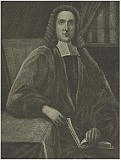
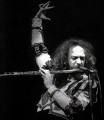



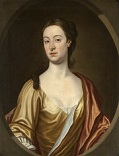

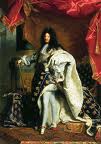
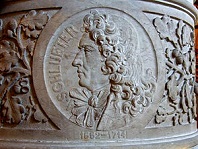

1701 On Jan. 18 Elector Frederick III of Brandenburg-Prussia, son of Frederick William the Great Elector crowns himself king Frederick (Friedrich) I (1657-1713) of Prussia after HRE Leopold I okays it, and proclaims the kingdom of Prussia, with Brandenburg as a province (until 1946), and now Prussia is on the fast track to power in Spain-is-yesterday's-news brand-spanking-new 18th cent. Europe; the Hohenzollerns control Prussia until 1918. In Feb. HMS Roebuck captained by William Dampier sinks in Clarence Bay on Ascension Island, and he and his 60 men survive 2 mo. until being rescued, returning to England in Aug., where he is court-martialed for cruelty, beging convicted on one of three charges. On June 16 English Anglican abolitionist clergyman Thomas Bray (1656-1730) founds the Society for the Propagation of the Gospel in Foreign Parts (SPG) in London, England; with the charter issued by William III calling it "an organisation able to send priests and schoolteachers to America to help provide the Church's ministry to the colonists", with the goals of ministering to British people overseas and evangelization of non-Christians around the world; in 1965 it is renamed the United Society for the Propagation of the Gospel (USPC); on Aug. 25, 2016 it is renamed to the United Society Partners in the Gospel (USPG). On July 8 after their big V at Narva last year, 7K Swedes under Charles II push into the Polish-Lithuanian Commonwealth and win the Battle of the Crossing of the Daugava (Duna) (Düna) River (Battle of Riga) against a 10K-man Polish and 9K-man Saxon army under Saxon field marshal Adam Heinrich von Steinau, with 2K Polish-Saxon casualties vs. only 100-400 Swedish casualties, after which they get in an endgame (ends 1703). Detroit really is the original home of Cadillac? On July 24 French king Louis XIV gives permission for the settlement of Detroit (Fr. "le Detroit" = the Straits) (modern-day pop. 3.7M/5.3MM), originally Fort Pontchartrain du Detroit (Détroit) to ever-broke Gascony, France-born explorer and scoundrel Antoine Laumet de La Mothe, Sieur de Cadillac (1658-1730) on a peninsula joining Lake Huron and Lake Erie to control Illinois trade; the settlement is begun in July; Cadillac arrived from France at Point Royal in 1683, added "de La Mothe Cadillac" to his name after Cadillac in SW France,, and spent four years exploring the New World down to the Carolinas, getting a promotion to cmdr. of Fort de Buade (Michilimackinac) (near modern-day St. Ignace, Mich.) in 1694, exploring the Great Lakes in 1695 until he got into trouble for selling alcohol to the Indians and returned to Montreal in 1696, traveling back to France in 1697 to talk them into building Fort Pontchartrait on the straits; too bad, it burns down in 1703, and he returns to Quebec, getting charged with trafficking in alcohol and furs, taking until 1708 to clear his name, after which in 1710 he is appointed gov. of Louisiana, founding Mine La Motte in modern-day Madison County, Mo., the first lead mine in Missouri, worked by the first African slaves in Mo.; in 1716 he is fired, and returns to France in 1717, gaining an undeserved rep as a hero until the 1950s; Detroit is incorporated on Sept. 13, 1806. On Sept. 16 (Sept. 5 Old Style) deposed English/Scottish king (1685-88) James II (b. 1633) dies of syphilis while in exile in France at Versailles; his son James Francis Edward Stuart (James III) (the Old Pretender) (1688-1766) is proclaimed King James III of England and Scotland by the French and Spanish courts and the Jacobites, causing the English Parliament on June 12 to pass the Act of Settlement establishing its own supremacy, settling the crown on Princess of Sophia of Hanover (granddaughter of James I), and declaring that only an Anglican can inherit the throne, cannot leave the kingdom without Parliament's consent, and cannot involve the country in war for the defense of his foreign possessions; in Dec. a new English Parliament is elected, and next May 4 it votes to declare war against the Frogs to the max, authorizing an army of 40K men, just in time to support William III, who on Sept. 7 forms and heads the Second Grand Alliance of England, the Netherlands, and Austria against France and Spain, with the goal of securing the Spanish possessions in the Netherlands and Italy for the Austrian house; Prussia and many German states later join the Grand Alliance, while Portugal, Savoy, Mantua, Bavaria and Cologne ally with France and Spain; Prince Eugene of Savoy heads the armies of the Grand Alliance against the French alliance, headed by Duke Victor Amadeus II of Savoy, scoring Vs at the Battle of Carpi on July 9, and the Battle of Chiara - savoy vs. savoy, you savvy? On Oct. 9 Yale College (the Collegiate School of Connecticut) is chartered in Saybrook, Conn. by a group of 10 Congregational ministers, nine of them Harvard grads, who met the previous year in Killingworth (Clinton); in 1716 Yale Collegiate School moves to New Haven, Conn., teaching only theology and sacred languages; in 1861 it awards the first Ph.D. in the U.S., becoming a univ. in 1887. In Oct. Penn. adopts its Fourth Frame of Government, AKA the Charter of Privileges, written by William Penn (1644-1718), who grants Delaware (Del.) a charter giving it the right to choose its own assembly, while the gov. of Penn. continues to preside over it; late in the year Penn returns to England, leaving an agent named Ford to run things, who is so crooked that he eventually almost ruins him. Charles Howard, 3rd Earl of Carlisle (1669-1738) succeeds Sidney Godolphin as head minister of the British cabinet (first lord of the treasury) (until 1702). The Ashanti (Assante) Empire in Ghana (ends 1957) is founded by king (since 1675) Osei Kofi Tutu I (1660-1717), who sits on the Golden Stool, becoming known for early adoption of firearms and going on to expand to modern-day Ivory Coast, becoming a favorite with historians for its military prowess, wealth, culture, architecture et al. Chettha IV becomes king of Cambodia for the 2nd time (until 1702). Charles XII of Sweden invades Poland and takes Courland. Britain obtains a questionable deed to W North Am. lands from the Iroquois. Rama Varma dies, and Rama Varma (-1721) becomes king of Dutch-controlled Cochin in S India. Philadelphia, Penn. at the junction of the Delaware and Schuylkill Rivers (modern-day pop. 2M/5M) is first chartered as a city (rechartered in 1789). Weavers in Axminster and Wilton, England are given royal charters to make carpets. William Whiston resigns as vicar of Lowestoft (since 1698) to become fellow Trinity-denying Arian Isaac Newton's asst., and in 1703 succeeds him as Lucasian prof. of math. (until 1710). The Inquisition in S France forbids dowsing as a means of tracking down criminals and heretics. The U. of Venice in Italy is founded. Henry Playford (1657-1709) establishes a series of weekly concerts at Oxford. Architecture: The Amber Room (Yantarnaya Komnata) is designed by Hamburg-born German Baroque sculptor-architect Andreas Schlueter (Schlüter) (1660-1714) and Danish amber craftsman Gottfried Wolfram (finished in 1709); in 1706 it is given by Prussian King Frederick William I to Russian Tsar Peter I the Great; too bad, in WWII Nazi Army Group Nord steals it and takes it to Konigsberg, and it disappears; in 1979-2003 it is reconstructed in the Catherine Palace near St. Petersburg. The Royal (Collins) Barracks in Dublin, Ireland is built, becoming its first public bldg. other than the Royal Hospital at Kilmainham; in 1994 it becomes the Nat. Museum of Ireland. Inventions: English farmer Jethro Tull (1674-1741) invents the horse-drawn machine seed drill, which neatly sows seeds in rows (see China in -85). Nonfiction: Dimitrie Cantemir (1673-1723), The Image of the Sacred, Unpredictable Science (Istanbul). Samuel Clarke (1675-1729), A Paraphrase upon the Gospel of St. Matthew; follows by Mark and Luke in 1702, and John in 1703. Jeremy Collier (1650-1726), The Great Historical, Geographical, Genealogical, and Political Dictionary (2 vols.). Charles Davenant (1656-1714), Essays upon the Balance of Power; Essays upon the Right of Making War, Peace, and Alliances; Essays upon Universal Monarchy; "a highly partisan attack on William III's foreign policy"; A Discourse on Grants and Resumptions and Essays on the Balance of Power; The True Picture of a Modern Whig (Aug.); defends the Tories against the Whigs; Tom Double Returned Out of the Country; claims that the pesky Whigs want to start another war with France to bankrupt landowners. John Dennis (1657-1734), The Advancement and Reformation of Modern Poetry; his best work? Rene Descartes (1596-1650), Regulae ad Directionem Ingenii (1619-28) (posth.); explains his basic methods. William Fleetwood (1656-1723), An Essay on Miracles. Arai Hakusetki (1675-1725), Hankampu; history of the Daimyo of Japan. Edmond Halley (1656-1742), A General Chart of the Compass; magnetic compass variations based on his 1698-1700 Atlantic Ocean voyage. Gottfried Wilhelm von Leibniz (1646-1716), Essay on a New Science of Numbers; his 1679 discovery of binary numbers, sent to the Paris Academy to celebrate his induction. Sir Richard Steele (1672-1729), The Christian Hero (first work); preaches a high moral code that he fails to follow personally, drawing ridicule. Benjamin Whichcote (1609-83), Several Discourses: Moral and Religious Aphorisms (posth.). Father Francisco Ximenes (Sp. var. of Simon) (tr.), Popul Vah (Book of the Mat or Community Council) (1701-21); sacred book of the Quiche Indians of Guatemala. Music: Reinhard Keiser (1674-1739), Stortebeker und Jodge Michels (opera) (Hamburg). Art: Giuseppe Maria Crespi (1665-1747), The Ecstasy of St. Margaret. Sir Godfrey Kneller (1646-1723), William III on Horseback. Andrea Pozzo (1642-1709), St. Francis Xavier. Hyacinthe Rigaud (1659-1743), Portrait of Louis XIV; his biggest and best of many. Plays: George Farquhar (1677-1707), Sir Harry Wildair (comedy). Peter Anthony Motteux (1663-1718), Acis and Galatea; music by John Eccles. Sir Richard Steele (1672-1729), The Funeral, or Grief a la Mode (comedy) (first play) (Drury Lane, London); big hit, making him a celeb with the king and the Whigs. Poetry: Mary Chudleigh (1656-1710), The Ladies' Defense; Or, The Bride Woman's Counsellor Answer'd: A Poem in a Dialogue Between Sir John Bute, Sir William Loveall, Melissa, and a Parson (London); a response to the wedding sermon "The Bride-Woman's Counselor" by John Spring (1700), urging women to avoid marriage so that man can't keep them down, and develop themselves through education. Peter Anthony Motteux (1663-1718), A Poem in Praise of Tea. Novels: Peter Anthony Motteux (1663-1718) (tr.), Miguel Cervantes' Don Quixote (4 vols.); becomes popular even though it turns Don Quixote and Sancho Panza into buffoons and changes the mock-serious style into a frivolous one. Daniel Defoe (1659-1731), The True-born Englishman (satire). Births: French scientist Charles Marie de La Condamine ("cultivable land") (d. 1774) on Jan. 28 in Paris; educated at the College Louis-le-Grand. Swedish merchant-philanthropist Niclas (Nicolaus) Sahlgren (d. 1776) on Mar. 18 in Gothenburg. Canadian Roman Catholic nun (founder of the Grey Nuns) (St.) Marguerite d'Youville (Marie-Marguerite Dufrost de Lajemmerais) (d. 1771) on Oct. 15 in Varennes (near Montreal), Quebec; first native-born Canadian saint; canonized in 1990; feast day: Oct. 16. Italian Venetian Rococo genre painter Pietro Longhi (d. 1785) on Nov. 5 in Venice; apprentice of Giuseppe Maria Crespi - what a gay life the aristocracy has, let me show you? Swedish Celsius Scale astronomer Anders Celsius (d. 1744) on Nov. 27 in Uppsala; grandson of astronomer Magnus Celsius (1621-79). Chinese novelist Wu Jingzi (d. 1754). English Bayes Law mathematician and Presbyterian minister Thomas Bayes (d. 1761) in London; educated at the U. of Edinburgh. French gen. Ludwig August von Dieskau (Jean Erdman or Jean-Armand Dieskau, Baron de Dieskau) (d. 1767) in Saxony. Italian composer Giovanni Battista Sammartini (d. 1775). Deaths: French novelist Madeleine de Scudery (b. 1607) on June 2. English ex-king James II (b. 1633) on Sept. 5 in Versailles, France (syphilis) - I really like your look, you got the look I like? Am. "to hell with 'em all" Salem Witchcraft Trials judge Willaim Stoughton (b. 1631) on July 7 in London, England. British colonial gov. Richar Coote, 1st earl of Bellomont (b. 1636) on Mar. 5 in N.Y. Italian composer Pietro Sammartini (b. 1636). Austrian gen. Count Ernst Rudger von Starhemberg (b. 1638) on Jan. 4 in Vosendorf (near Modling). English dramatist-politician (House of Commons Speaker) Sir Charles Sedley (b. 1639) on Aug. 20. French duke Philippe of Orleans (b. 1640) on June 9 in Saint Cloud. Arrgh? English pirate Captain Kidd (b. 1645) on May 23 in London; hanged for murder and piracy at London's Execution Dock after his sponsor Richard Coote, 1st Earl of Bellomont deems him to have turned pirate and gets him arrested and returned to England; the executioner is so drunk that the rope breaks and he has to hang the drunken bum a 2nd time; his body is tarred and placed in an iron cage chained to a stake on the Thames River to gross-out seafarers for years; after a small amount of treasure is recovered from Gardiner's Island off Long Island, the legend of Capt. Kidd's buried treasure is born. English clergyman Henry Maundrell (b. 1665) in Aleppo, Syria; leaves Journey from Aleppo to Jerusalem at Easter A.D. 1697, which becomes a minor travel classic. French war sec. Louis Francois Marie le Tellier (b. 1668) on Jan. 5.
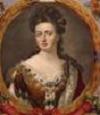

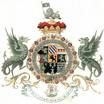


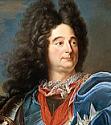


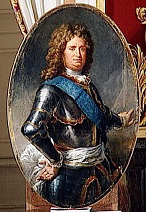
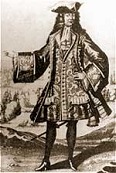

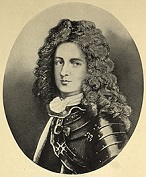
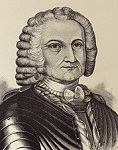

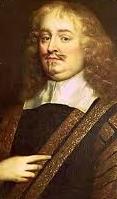


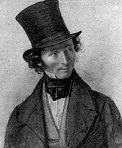

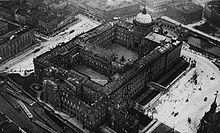
1702
On Jan. 9 (Dec. 29 Old Style) the
Battle of Erastfer (Errestfer) (Erastvere)
in modern-day Estnia is a V for 18K Russians under Boris Sheremetev over 2.5K Swedish troops under Wolmar Anton von Schlippenbachm,
becoming the first significant Russian V in the Great Northern War, after which Peter I the Great promises Augustus II of Poland
20K troops, 100K lbs. of gunpowder, and 100K rubles/year for three years to guarantee Poland's continued participation in the war as he invades Ingria.
On Mar. 7 William III attaints the 14-y.-o. prince of Wales James III (James Francis Edward Stuart) (1688-1766)
of high treason under the new "King Ralph" Treason Act of 1702 (preventing interference with the royal succession), causing him
to grow into the Old Pretender; too bad, on Mar. 8 king (since 1689) William III (b. 1650) dies at Kensington Palace after being thrown from his horse, and is succeeded by his lace-loving
sister-in-law and cousin (2nd daughter of James II and his 1st wife Anne Hyde) (devout Anglican)
Anne Stuart (Stewart) (1665-1714) (the 49th British monarch), becoming the last Stuart (Stewart) monarch
(until Aug. 1, 1714), as well as the last English sovereign to veto an act of Parliament (in 1708) (after that the remedy for failed legislation is to seat a new cabinet); she takes the throne
childless and without a direct heir; William III's untimely death nullifies the Settlement Act, but she abides by it; she has the family disease of porphyria; she rules through ministers,
and Sidney Godolphin returns as chief minister of the British cabinet (until 1710); she never visits Scotland during her reign; like James Stuart, she begins her reign a few years after the
beginning of a cent. when the MF alert goes from red to yellow or green (1603, 1702)?; the Scottish parliament refuses to recognize her, claiming the right to pick their own successor to the
Scottish crown as long as he is Protestant, and answers English calls for parliamentary union with rejection of English interference in their internal affairs, pissing-off the English and
causing them to pass punitive laws against Scottish goods; meanwhile on May 4 Queen Anne's War
(Am. side of the War of the Spanish Succession) (ends 1713), the 2nd of the French and Indian wars (first 1690) begins as England declares war on France; early Vs in the
Second War of the Grand Alliance cause Queen Anne to create up-and-coming John Churchill (1650-1722)
as the 1st Duke of Marlborough in Dec., and place him at the head of the English army as capt.-gen. with a free hand (along with
Eugene of Savoy in the service of Austria); the French are out-generaled, and Marlborough takes Venlo, Ruremonde, and Liege, and capture and burn Spanish-held St. Augustine in Fla.;
the Tories gain power in England, and seek to get revenge against the Whigs, while Godolphin and Marlborough attempt to stifle them;
Churchill's wife Lady Sarah Churchill (nee Jennings) (1660-1744),
a lady of the queen's bedchamber who has been her best friend since her 1683 marriage begins to exert enough control over her to make English politicians uncomfortable,
and she ends up dumping her for a new favorite, her cousin Lady Abigail Masham (1670-1734).
On Mar. 11 England's first successful daily newspaper The Daily Courant
begins pub. in London, run by Elizabeth Mallet of King's Arms Tavern in
Fleet Bridge, London, who prints editorial-fee foreign news only on one side of the page, and advertisements on the other; it is soon acquired by
Samuel Buckley at the Sign of the Dolphin in Little Britain, London; in 1735 it merges with the "Daily Gazetteer".
On June 11 Queen Anne appoints Joseph Dudley (1647-1720)
as British gov. of Mass. (until Nov. 9, 1715), who becomes unpopular but foils attempts to have him removed.
On July 19 (July 8 Old Style) the Battle of Kliszow (Klissow) (Klezow)
is a V for Charles II of Sweden against Saxon field marshal Adam Heinrich von Steinau (-1712),
sparking the popular romantic Camisard Rebellion (ends 1704)
against Louis XIV by anti-papal Huguenot peasants in Languedoc pissed-off by the 1685 revocation of the Edict of Nantes, led by able military leader
Jean Cavalier (1681-1740)
in the mountainous Cevennes (Cévennes) region of S France (home of the descendants of the Visigoths), wearing black
camisards (Fr. "chemise") smocks over their armor that give them their name, engaging in guerrilla (mainly night)
warfare against royal troops, burning Roman Catholic churches and killing priests, causing the Catholics to fight back a little too eagerly, razing over 450 villages
and exterminating the pop., while Pope Clement XI eggs them on with a papal bull,
calling them the "execrable race of the ancient Albigenses", and promising remission of sins to the newly-formed Roman Catholic
Cadets of the Cross (White Camisards) (Florentines).
On Aug. 15 the Battle of Luzzara
on the right bank of the Po River in Italy between the Austrians under Prince Eugene of Savoy and the French under the duc de Vendome is a push,
but gives France the advantage in Italy (until 1706).
On Oct. 14 after receiving orders from Louis XIV to attack Swabia, the French under
Claude Louis Hector, Duc de Villars (1653-1734)
cross the Rhine River at Weil am Rhein (N of Basle), then fight the imperial forces under
Louis William, Margrave of Baden-Baden at the
Battle of Friedlingen;
France wins, but loses 1,703 KIA and 2,601 wounded vs. 355 KIA and 742 wounded on the imperal side, and are unable to join the Bavarians;
Villars begins his rise to immortality in France, being promoted to marshal and becoming Louis XIV's military go-to man, later capping his career with
a promotion to marshal-gen. of France in 1734 (one of only six to make it).
On Oct. 23 after unsuccessfully attempting to capture the Spanish port of Cadiz in the hopes of securing a naval base for operations against the French
at Toulon, the Battle of Vigo Bay (Rande) in N Spain
sees the richest fleet in history, the 3-galleon Spanish Silver Squad quartered in Vigo Bay in San Simon's inlet under Spanish adm.
Manuel de Velasco y Tejada and
French adm. Francois Louis de Rousselet, Marquis de Chateaurenault (1637-1716)
defeated by the Grand Alliance of the English under Adm. Sir George Rooke (1650-1709)
and the Dutch under Adm. Philips van Almonde (1644-1711),
losing all its ships along with 2K sailors, only to find that most of the silver treasure had been unloaded before the attack.
On Nov. 27 anti-Hapsburg pro-Bourbon
Francisco Fernandez de la Cueva (Cuervo) Enriquez, Marques de Cuellar, 10th Duke of Alburquerque (1666-1724)
becomes Spanish viceroy of New Spain (until Jan. 14, 1711) (the first r is later dropped for the benefit of los estupidos Anglos?);
his first act is to okay a 10-year French concession for a trading post dealing in black slaves; on Jan. 6, 1703 his palace guards appear in
French uniforms, incl. 3-cornered hats, and he becomes known for the luxury and magnificence of his court, then extorts all the money he can to
send to support the Bourbons in the Spanish War of Succession, causing govt. employees to go without pay, leading to the streets being infested
with brigands; meanwhile he rebuilds the coast guard to fight pirates and works to kick the English and Dutch out.
On Dec. 16 after an edict by Peter I the Great, the Moscow Gazette (Moskovskaya Vedomosti)
newspaper begins pub. in Moscow, Russia, becoming Russia's first newspaper, pub. whenever he wants to blow his horn, moving to St. Petersburg in 1711 and reaching 4K circ.,
changing to the name "Sankt-Petersburgskie Vedomosti" in 1727 by the Russian Academy of Sciences after Big Peter's 1725 death, going biweekly; in 1914 it is renamed
"Petrogradskie Vedomosti"; it ceases pub. in 1917.
On Dec. 25 the first missionary of the Society for the Propagation of the Gospel (SPG)
arrives in S.C., and is followed by hundreds more, who work to make Anglican converts in the mainly dissenter English colonies, even though no Anglican bishop is ever assigned to them?
Prussia gains control of Krefeld on the Rhine River 19 mi. WSW of Essen.
Charles XII of Sweden takes Warsaw, Lublin (100 mi. SE of Warsaw), and Krakow (Cracow).
Srei Thoamareachea (Thommo Reachea) II (-1747) becomes king of Cambodia (until 1703).
Serfdom is abolished in Denmark.
East and West New Jersey are united as the Royal Colony of New Jersey (N.J.).
The Inquisition begins persecuting Marranos (converted Jews) in
Rio de Janeiro.
Dr. Thomas Bray gets a revised provincial Church Act passed by the Provincial Assembly.
Alabama (Ala.) (Muskogee "town") (named after the Alabama or Alibamon tribe of the Creek confederacy) is
founded at Ft. Louis de la Louisiane on the Mobile River by French Canadian brothers
Pierre Le Moyne d'Iberville (1661-1706)

 and Jean-Baptiste Le Moyne, Sieur de Bienville (1680-1767),
becoming the site of the city of Mobile, Ala. (modern-day pop. 195K/619K), which is incorporated as a
town on Jan. 20, 1814 and as a city on Dec. 17, 1819.
The Asiento Guinea Co.
is founded for the America-Africa slave trade.
The Anglican Church is officially established in Md., supported by taxes.
Abbot Mekhitar of Sebaste (1676-1749)
founds the Order of the Mekhitarists
of Roman Catholic Armenian monks in Constantinople.
Alessandro Scarlatti moves to Florence under the patronage of Prince Ferdinand III of Tuscany (until 1703).
Jesuit College in Breslau is founded.
Artist Jean Antoine Watteau arrives in Paris.
Japanese painter Ogota Korin (1661-1716) unites the Kano and Yamato imperial schools of painting.
The first English pantomime is given at Drury Lane in London.
Sports:
Queen Anne gives royal approval to horseracing in England, and originates the sweepstakes idea (racing for cash awards).
Architecture:
Buckingham House (Palace)
is built by the Duke of Buckingham on the site of a notorious brothel in London (finished 1703); it is remodeled in 1825, a ballroom added
in 1856, and a new front built in 1913.
Prussian king Frederick I rebuilds the City Palace (Berliner Stadtschloss)
in Berlin in Protestant Baroque Style, designed in the shape of a cube enclosing a magnificently ornamented courtyard by
architect Andreas Schlueter (Schlüter) (1660-1714),
who is replaced in 1706-13 by Johann Friedrich Eosander von Goethe (Göthe); in 1845 Frederick William IV has a dome built by
Friedrich August Stueler (Stüler) (1800-65)
based on a design by Karl Friedrich Schinkel (1781-1841);
further interior work is done by Georg Wenzeslaus von Knobelsdorff, Carl von Gontard et al.; too bad, the Communist regime of East Berlin
demolishes it in late 1950.
Fischer von Erlach finishes the
Church of the Holy Trinity
in Salzburg (begun 1694).
The Palladian Octagon Orleans House
near the Thames River in Twickenham, London, England, designed by architect
John James (1673-1746)
is begun (finished 1737); the Octagon Room
is designed by James Gibbs (1682-1754),
and is preserved when the property is demolished in 1926.
Inventions:
George Sorocold
(1668-1739) of Derby, England invents the
Tidal Pump - the
Oral B Pulsar, changing the way you brush forever is only 3 centuries away?
Science:
Dutch natural philosopher
Guillaume (Wilhelm) Homberg
(1652-1715) discovers
Boron and
Borax - no mule team needed?
Leipzig, Germany-born philosopher
Gottfried Wilhelm von Leibniz
(1646-1716) pub. the
Law of Continuity,
which he applies to human psychology, becoming the first to postulate
an unconscious mind; he also introduces the concept of
threshold.
Nonfiction:
Cornelius van Bynkershoek (1673-1743), De Dominio Maris Dissertatio;
sets a 3-mi. territorial limit on coasts based on the range of cannon.
Edward Bysshe, The Art of English Poetry.
Daniel Defoe (1659-1731), The Shortest Way with the Dissenters.
George Farquhar (1677-1707), Love and Business; incl. "A Discourse Upon Comedy".
Edward Hyde, 1st Earl of Clarendon (1609-74),
The History of the Rebellion and Civil Wars in England: Begun in the Year 1641
(posth.) (3 vols.) (1702-4); ed. by his son Laurence Hyde, Earl of Rochester (1641-1711);
the first complete detailed history of the English Civil War, written by a key player,
pushing his royalist views, which David Hume assesses in his 1756 "The History of Great Britain":
"This age affords great materials for history; but did not produce any accomplished historian.
Clarendon, however, will always be esteemed an entertaining writer, even independent of our
curiosity to know the facts, which he relates. His style is prolix and redundant, and
suffocates us by the length of its periods: But it discovers imagination and sentiment, and
pleases us at the same time that we disapprove of it. He is more partial in appearance than
in reality: For he seems perpetually anxious to apologize for the king; but his apologies
are often well grounded. He is less partial in his relation of facts, than in his account
of characters: He was too honest a man to falsify the former; his affections were easily
capable, unknown to himself, of disguising the latter. An air of probity and goodness runs
through the whole work; as these qualities did in reality embellish the whole life of the author."
Cotton Mather (1663-1728),
Magnalia Christi Americana: The Ecclesiastical History of New England
(2 vols.) (London); the Puritan wicca experience in Am. 1620-98?
William Penn (1644-1718), Primitive Christianity Revived.
Georg Ernst Stahl (1659-1734), Specimen Becherianum.
Music:
Reinhard Keiser (1674-1739), Stortebeker und Jodge Michels
(opera) (Hamburg).
Plays:
Susanna Centlivre (1667-1723), The Beau Duel; or, A Soldier for the Ladies;
The Stolen Heiress.
Colley Cibber (1671-1757), The Schoolboy;
She Wou'd and She Wou'd Not.
George Farquhar (1677-1707), The Inconstant; or, The Way to Win Him (comedy);
The Twin Rivals (comedy).
Nicholas Rowe (1674-1718), The Fair Penitent;
adaptation of Philip Massinger's and Nathan Field's "Fatal Dowry"; big hit; set in Genoa; Sciolto, Altamont, Horatio, young rake Lothario, Rossano,
infidelity queen Calista, Lucilla; causes the term Lothario for young rake to become popular; makes a fan of Samuel Johnson.
Sir Charles Sedley (1639-1701),
Beauty the Conqueror; or, The Death of Marc Antony
(posth.);
The Miscellaneous Works of Sir Charles Sedley (posth.).
Births:
French gen.
Thomas Arthur, Comete de Lally, Baron de Tollendal
(d. 1766) on Jan. 13; of Irish Jacobite descent.
Japanese emperor #114 (1709-35)
Nakamikado (Yasuhito)
(d. 1737) on Jan. 14; 5th son of Higashiyama (1675-1710).
English highwayman
John "Jack" Sheppard
(d. 1724) on Mar. 4 in Stepney (near London).
English Noncomformist divine
Philip Doddridge
(d. 1751) on June 26.
Swiss-French painter
Jean-Etienne Liotard
(d. 1789) on Dec. 22 in Geneva.
Portuguese composer
Francisco Antonio de Almeida
(d. 1755).
French Rococo sculptor (in England)
Louis Francois Roubiliac
(d. 1762); settles in Britain in 1732.
Am. Quaker writer
Sophia Wigington Hume
(d. 1774) in S.C.
Japanese poet
Yokai Yagu
(d. 1783).
Am. Rev. War leader
William Peters
(d. 1786) in Liverpool, England; brother of Richard Peters (1704-76); emigrates to the U.S. in 1739; father of Richard Peters Jr. (1744-1828).
Deaths:
English Quaker leader Margaret Askew (Fell) (Fox) (b. 1614) in Swarthmoor Hall, Ulverston, Cumbria;
her grandson John Abraham sells the hall in 1759.
Swedish scientist Olof Rudbeck the Elder (b. 1630).
French organist-composer Nicolas Antoine Le Begue (b. 1631) on July 6 in Paris.
English/Scottish king (1689-1702) William III/I (b. 1650) on Mar. 8 in Kensington Palace, London.
and Jean-Baptiste Le Moyne, Sieur de Bienville (1680-1767),
becoming the site of the city of Mobile, Ala. (modern-day pop. 195K/619K), which is incorporated as a
town on Jan. 20, 1814 and as a city on Dec. 17, 1819.
The Asiento Guinea Co.
is founded for the America-Africa slave trade.
The Anglican Church is officially established in Md., supported by taxes.
Abbot Mekhitar of Sebaste (1676-1749)
founds the Order of the Mekhitarists
of Roman Catholic Armenian monks in Constantinople.
Alessandro Scarlatti moves to Florence under the patronage of Prince Ferdinand III of Tuscany (until 1703).
Jesuit College in Breslau is founded.
Artist Jean Antoine Watteau arrives in Paris.
Japanese painter Ogota Korin (1661-1716) unites the Kano and Yamato imperial schools of painting.
The first English pantomime is given at Drury Lane in London.
Sports:
Queen Anne gives royal approval to horseracing in England, and originates the sweepstakes idea (racing for cash awards).
Architecture:
Buckingham House (Palace)
is built by the Duke of Buckingham on the site of a notorious brothel in London (finished 1703); it is remodeled in 1825, a ballroom added
in 1856, and a new front built in 1913.
Prussian king Frederick I rebuilds the City Palace (Berliner Stadtschloss)
in Berlin in Protestant Baroque Style, designed in the shape of a cube enclosing a magnificently ornamented courtyard by
architect Andreas Schlueter (Schlüter) (1660-1714),
who is replaced in 1706-13 by Johann Friedrich Eosander von Goethe (Göthe); in 1845 Frederick William IV has a dome built by
Friedrich August Stueler (Stüler) (1800-65)
based on a design by Karl Friedrich Schinkel (1781-1841);
further interior work is done by Georg Wenzeslaus von Knobelsdorff, Carl von Gontard et al.; too bad, the Communist regime of East Berlin
demolishes it in late 1950.
Fischer von Erlach finishes the
Church of the Holy Trinity
in Salzburg (begun 1694).
The Palladian Octagon Orleans House
near the Thames River in Twickenham, London, England, designed by architect
John James (1673-1746)
is begun (finished 1737); the Octagon Room
is designed by James Gibbs (1682-1754),
and is preserved when the property is demolished in 1926.
Inventions:
George Sorocold
(1668-1739) of Derby, England invents the
Tidal Pump - the
Oral B Pulsar, changing the way you brush forever is only 3 centuries away?
Science:
Dutch natural philosopher
Guillaume (Wilhelm) Homberg
(1652-1715) discovers
Boron and
Borax - no mule team needed?
Leipzig, Germany-born philosopher
Gottfried Wilhelm von Leibniz
(1646-1716) pub. the
Law of Continuity,
which he applies to human psychology, becoming the first to postulate
an unconscious mind; he also introduces the concept of
threshold.
Nonfiction:
Cornelius van Bynkershoek (1673-1743), De Dominio Maris Dissertatio;
sets a 3-mi. territorial limit on coasts based on the range of cannon.
Edward Bysshe, The Art of English Poetry.
Daniel Defoe (1659-1731), The Shortest Way with the Dissenters.
George Farquhar (1677-1707), Love and Business; incl. "A Discourse Upon Comedy".
Edward Hyde, 1st Earl of Clarendon (1609-74),
The History of the Rebellion and Civil Wars in England: Begun in the Year 1641
(posth.) (3 vols.) (1702-4); ed. by his son Laurence Hyde, Earl of Rochester (1641-1711);
the first complete detailed history of the English Civil War, written by a key player,
pushing his royalist views, which David Hume assesses in his 1756 "The History of Great Britain":
"This age affords great materials for history; but did not produce any accomplished historian.
Clarendon, however, will always be esteemed an entertaining writer, even independent of our
curiosity to know the facts, which he relates. His style is prolix and redundant, and
suffocates us by the length of its periods: But it discovers imagination and sentiment, and
pleases us at the same time that we disapprove of it. He is more partial in appearance than
in reality: For he seems perpetually anxious to apologize for the king; but his apologies
are often well grounded. He is less partial in his relation of facts, than in his account
of characters: He was too honest a man to falsify the former; his affections were easily
capable, unknown to himself, of disguising the latter. An air of probity and goodness runs
through the whole work; as these qualities did in reality embellish the whole life of the author."
Cotton Mather (1663-1728),
Magnalia Christi Americana: The Ecclesiastical History of New England
(2 vols.) (London); the Puritan wicca experience in Am. 1620-98?
William Penn (1644-1718), Primitive Christianity Revived.
Georg Ernst Stahl (1659-1734), Specimen Becherianum.
Music:
Reinhard Keiser (1674-1739), Stortebeker und Jodge Michels
(opera) (Hamburg).
Plays:
Susanna Centlivre (1667-1723), The Beau Duel; or, A Soldier for the Ladies;
The Stolen Heiress.
Colley Cibber (1671-1757), The Schoolboy;
She Wou'd and She Wou'd Not.
George Farquhar (1677-1707), The Inconstant; or, The Way to Win Him (comedy);
The Twin Rivals (comedy).
Nicholas Rowe (1674-1718), The Fair Penitent;
adaptation of Philip Massinger's and Nathan Field's "Fatal Dowry"; big hit; set in Genoa; Sciolto, Altamont, Horatio, young rake Lothario, Rossano,
infidelity queen Calista, Lucilla; causes the term Lothario for young rake to become popular; makes a fan of Samuel Johnson.
Sir Charles Sedley (1639-1701),
Beauty the Conqueror; or, The Death of Marc Antony
(posth.);
The Miscellaneous Works of Sir Charles Sedley (posth.).
Births:
French gen.
Thomas Arthur, Comete de Lally, Baron de Tollendal
(d. 1766) on Jan. 13; of Irish Jacobite descent.
Japanese emperor #114 (1709-35)
Nakamikado (Yasuhito)
(d. 1737) on Jan. 14; 5th son of Higashiyama (1675-1710).
English highwayman
John "Jack" Sheppard
(d. 1724) on Mar. 4 in Stepney (near London).
English Noncomformist divine
Philip Doddridge
(d. 1751) on June 26.
Swiss-French painter
Jean-Etienne Liotard
(d. 1789) on Dec. 22 in Geneva.
Portuguese composer
Francisco Antonio de Almeida
(d. 1755).
French Rococo sculptor (in England)
Louis Francois Roubiliac
(d. 1762); settles in Britain in 1732.
Am. Quaker writer
Sophia Wigington Hume
(d. 1774) in S.C.
Japanese poet
Yokai Yagu
(d. 1783).
Am. Rev. War leader
William Peters
(d. 1786) in Liverpool, England; brother of Richard Peters (1704-76); emigrates to the U.S. in 1739; father of Richard Peters Jr. (1744-1828).
Deaths:
English Quaker leader Margaret Askew (Fell) (Fox) (b. 1614) in Swarthmoor Hall, Ulverston, Cumbria;
her grandson John Abraham sells the hall in 1759.
Swedish scientist Olof Rudbeck the Elder (b. 1630).
French organist-composer Nicolas Antoine Le Begue (b. 1631) on July 6 in Paris.
English/Scottish king (1689-1702) William III/I (b. 1650) on Mar. 8 in Kensington Palace, London.




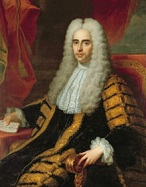
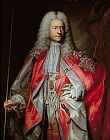
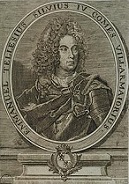



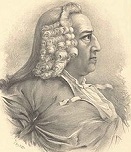
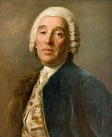

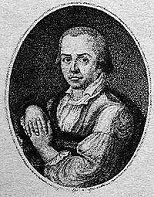

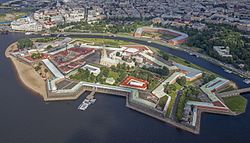
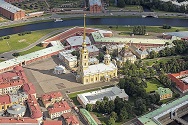
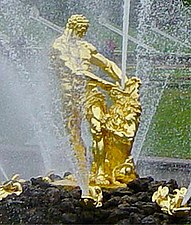
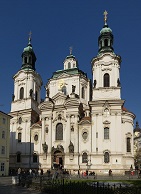
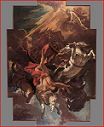
1703 On Feb. 4 the Revenge of the 47 Ronin sees 47 Japanese ronin condemned for avenging their executed master Asano Naganori forced to commit seppuku. On Feb. 10 800 Camisards under Jean (Joan) Cavalier (1681-1740) rout French royal troops at the Battle of Vagnas, then get defeated and flee, and return on Apr. 30, where they are defeated at the Battle of Tour de Billot, which only causes more Huguenot volunteers to sign up and get their shirts? On Apr. 21 3K Swedes under Charles XII defeat 3.5K Saxons under Count Adam Heinrich von Steinau at the decisive Battle of Pultusk, losing only 18 KIA vs. 200 KIA and 800 captured for the Saxons; Steinau leaves Saxony to service Venice as "part of his old person". On May 1 the Russians take Nienshanz Fortress at the mouth of the Neva River, and drive the Swedes from the Neva Delta, then seize Noteburg and rename it Schlusselburg; on May 16 Tsar (1682-1721) Peter I the Great (1672-1725) pissed-off at his Moscow nobles failing to become kulturny and adopt Western culture, officially founds St. Petersburg (modern-day pop. 5.3M) on the banks of the Neva River on territory he just took from Sweden as Russia's "Window on the West" (modern pop. 4.7M), using serfs as expendable slaves; "A giant built it; lacking stones/ "He paved the swamps with human bones" (Mikhail Dmitriev); Peter I builds the Fortress of St. Peter and St. Paul on a small island in the river on May 27, 1703-1740, designed by Swiss Italian architect Domenico Trezzini (1670-1734), who goes on to design Kronstadt (1704) on Kotlin Island 19 mi. W of St. Petersburg, St. Peter and St. Paul Cathedral (1712-33) (world's tallest Orthodox Catholic bell tower), Peter the Great's Summer House (1710-14), the Alexander Nevsky Monastery (1710-13), the Winter Palace (1711-53), and the Twelve Collegia (Colleges) Bldg. Complex (1722-44) (main bldg. of St. Petersburg U.), founding Petrine Baroque, which departs from the Naryshin Baroque of Moscow and follows the Dutch, Danish, and Swedish (Flemish Renassance) styles; in 1709 Peter I begins the Peterhof Palace (Dutch "Piterhof" = Peter's Court), an attempt to ape Louis XIV's Versailles Palace, causing it to become known as "the Russian Versailles", with Domenico Trezzini as the main architect in 1714, succeeded in 1716 by Paris-born Jean-Baptiste Alexandre Le Blond (1679-1719) (Blond, James-Baptiste Blond)?, with his teacher, Versailles landscaper Andre (André) Le Notre (Nostre) (1613-1700) hired to design the gardens; the Grand Cascade of 64 fountains, modelled on Louis XIV's Chateau de Marly features the Samson Fountain (1736), with a 66-ft.-high water jet, which is upgraded in 1800-2 by local Russian Neoclassical sculptor Mikhail Ivanovich Kozlovsky (1753-1802), a gilt bronze statue of Greek god Samson tearing open the jaws of a lion to represent Russia's big V over Sweden in the Great Northern War (1700-21), with the lion representing Sweden's coat of arms, and Samson representing Russia's big V on St. Sampson's Day; in 1747-56 Italian architect Francesco Bartolomeo Rastrelli (1700-71) is hired by Tsarina Elisabeth to design an expansion along with the Winter Palace; Trezzini's architect son Pietro has Peter I the Great as a godfather; this year 8-y.-o. black African slave Abraham (Ibrahim) Petrovich Gannibal (Hannibal) (1696-1781), who claims he was kidnapped from a royal tribal family in Africa is presented by a Russian diplomat as a gift to Peter I the Great, becoming his adopted son, and rising quickly to a 5-language linguist, civil engineer, diplomat, and gen. (Europe's first black intellectual?) - so cute everybody should own one? In May after invading the Spanish Netherlands, the duke of Marlborough takes Bonn, followed in Aug. by Huy; meanwhile Prince Eugene of Savoy is driven out of N Italy and almost trapped in the Alps until the Duchy of Savoy defects to the Grand Alliance, forcing the French army in his rear to turn back; Eugene then campaigns throughout S Germany along the Rhine. In May after English naval Vs against Spain permit England to detach Portugal from its French alliance, English ambassador John Methuen (1650-1706) negotiates the two Methuen Treaties, the first a 4-sided treaty, negotiated by Methuen with the help of his son Sir Paul Methuen (1672-1757) for England, Karl Ernst, Graf von Waldstein for HRE Joseph I, Franciscus van Shonenberg (AKA Jacob Abraham Belmonte) (a Marrano) for the United Provinces, and King Pedro II for Portugal, establishing an offensive-defensive alliance between Britain and Portugal, and promising to send the emperor's son Archduke Charles (later HRE Charles VI) to Portugal with land forces to win the crown of Spain, along with naval protection of the Portuguese coast against French and Spanish attack, followed by the 2nd on Dec. 27 with John Methuen signing for England, and Manuel Teles da Silva, 3rd Marquis de Alegrete (1682-1736) signing for Portugal, giving Portuguese (port) wines (grown in the Douro (Duero) River Valley in N Portugal and shipped in rabelo boats the Atlantic port of Porto) a one-third break on English duties in return for Portugal agreeing to import all its woolens from England duty-free, which, combined with the war with France depriving English drinkers of French wine causes the popularity of Portuguese port wine in England to zoom (not just for Whigs anymore?); meanwhile the Portuguese renounce manufacturing (except porcelain) in order to guarantee the security of Brazil, losing the Industrial Rev.?; too bad, while returning from Lisbon, Waldstein is captured at sea by the French, and exchanged a year later for Villeroi, who was captured in Italy by Prince Eugene. On June 15 Francis II Rakoczy and Tamas (Tamás) Esze (1666-1708) lead a Kuruc uprising against the Hapsburgs in Munkacs (located in Subcarpathian Ruthenia in the corner between Poland, Ukraine, Slovakia, Hungary and Romania, known for its large Jewish pop.), hooking up in Lawoczne, Poland and obtaining French money and 600 Polish mercenaries; too bad, after the Hungarian nobles snub his call, he has to rely on a peasant army, but takes most of Hungary E and N of the Danube River by late Sept., then raids S of the Danube River. On Aug. 8 the Weiner Zeitung (originally "Wiennerisches Diarium" until 1805) newspaper is founded in Vienna, Austria by the stonemasons building Stephans Dom; in 1810 it becomes the official newspaper of the govt., which acquires it in 1857 and sells it to a private co. in 1998, continuing to use it for official govt. announcements, with a circ. of 24K; becoming one of Austria's four main newspapers along with the right-liberal "Die Presse", the left-liberal "Die Standard", and the Roman Catholic "Salzburger Nachrichten". In Aug. broke 18-y.-o. Baroque musician Johann Sebastian Bach (1685-1730) gets his first serious job as organist of the Neue Kirche in Arnstadt. On Sept. 11 after the War of the Spanish Succession makes the English govt. about-face on his case, William Dampier, new cmdr. of the 26-gun 120-man English navy ship St. George sails from Kinsale, Ireland to fight the Spanish and French along with 96-ton 16-gun 63-man galleon Cinque Ports; they go on to capture three Spanish ships returning from Buenos Aires, and fight to a push with a French ship; he returns to England in Dec. 1707 (his 2nd circumnavigation of the Earth) after giving Daniel Defoe a subject for a new novel? On Sept. 20 the First Battle of Hochstadt (Höchstädt) (2nd in 1704/1800) in Bavaria sees a French-Bavarian army of 24K under French marshal Claude de Villars defeat 16K Austrians under Gen. Hermann Otto II of Limburg-Stirum (1646-1704). On Nov. 15 after the Bavarians invade Tyrol and are repulsed, the French link up with them and throw the Austrians out of the Bavarian Palatinate at the Battle of Spira. In Nov. Queen Anne's Bounty is established, granting the first fruits and tithes (originally intended for the pope) that Henry VIII had confiscated for the crown in trust for increasing the incomes of small benefices for the poorer clergy. On Dec. 7 (Nov. 26 Old Style) the Great Storm of 1703 rages in C-S England, an extratropical cyclone (Category 2?) that collapses 2K chimneys in London, destroys 4K oaks in the New Forest, kills 1K seamen on the Goodwin Sands in Kent, killing a total of 8K and destroying the new Eddystone Lighthouse; Daniel Defoe calls it God's punishment for poor English performance against the Roman Catholic armies in the War of the Spanish Succession, while the Church of England calls it God's punishment for the nation's sins. On Dec. 28 sultan (since 1695) Mustafa II (b. 1664) dies after being forced to abdicate by a coup triggered by the Edirne Event, an attempt by the Jannisaries to restore power to the sultanate by making the position of cavalryman (timar) hereditary, and his brother Ahmed III (1673-1736) becomes Ottoman sultan #23 (until Sept. 20, 1730), starting a Muslim cultural revival while engaging in the Muslim pastime of constant warfare; too bad, the revolt backfires, decreasing the power of the sultanate and increasing the power of the Janissaries and kadis (Sharia judges); the real power is in the hands of his daughter Hatice Sultan and her grand vizier hubby Nevsehirli Damat Ibrahim Pasha (1666-1730), who rule during the Tulip Era (Period) (ends Sept. 28, 1730), a relative period of peace in which the Dutch tulip craze infects the Ottoman court. Archduke Charles lands in Spain, invades Catalonia, and is proclaimed King Charles III of Spain in Madrid. Irish soldier James Butler, 2nd Duke of Ormonde (1665-1745), who served under William III since 1688 is made lord lt. of Ireland like his grandfather the 1st duke in the 1640s, serving from 1703-5 and 1710-11. Chettha IV becomes king of Cambodia for the 3rd time (until 1706). Philippe de Rigaud, Marquis de Vaudreuil (1643-1725), Montreal gov. (since 1702) is appointed gov.-gen. of New France (until 1725). Delaware breaks away from Penn. The Popery (Gavelkind) Act is passed by the British Parliament, modifying the Irish practice of Gavelkind (equal division of land among a dead landholder's sons, also used by the Jutes in Kent), giving all the land to the eldest son if he converts to Protestantism; land holdings by Irish Catholics shrink from 25% in 1688 to 14% in 1704 to 5% in 1776. The Scottish parliament passes an act making the succession to the crown of Scotland different from that to the English crown, causing the English to retaliate with new trade restrictions, causing a committee to be created to avert war (ends 1707). The pop. of Jerusalem led by Muhammad ibn Mustafa al-Husaini revolts against the excessive taxation of gov. Jurji Muhammad Pasha, taking his citadel and causing him to flee; al-Husaini becomes the new gov. until Nov. 1705 when new provincial gov. of Damascus Jurji Muhammad attacks Jerusalem with 2K Janissaries and regains control. The body of St. Francis Xavier in Goa is placed in a marble mausoleum donated by Grand Duke Cosimo III of Tuscany; the 32 panels around the casket include the "world's most famous crab", which allegedly returned Xavier's crucifix after he had lost it at sea. Isaac Newton is elected pres. of the Royal Society; shortly afterward the instruments, papers, and only authentic portrait of his bitter rival Robert Hooke vanish, causing the latter's fame to sink into oblivion for over two cents.; meanwhile Newton befriends French Protestant refugee Jean Desaguliers, one of two Royal Society curators of experiments, who becomes a leader in the spread of Freemasonry in Europe, and in 1731 as master of the Masonic lodge in The Hague presides over the initiation of Duke Francois of Lorraine, who becomes the first Euro prince to join, and after he marries Maria Theresa of Austria becomes HRE Francis I, fathering Marie Antoinette. Alessandro Scarlatti becomes asst. choirmaster at the church of Santa Maria Maggiore in Rome. The original Dumb and Dummer? Harvard grad Jeremiah Dummer (1681-1739) becomes the first colonial-born Am. to receive a Ph.D. from a Euro univ. (U. of Utrecht); he returns to Boston and becomes a preacher, then leaves for England in 1708, where he goofs up his political career and ends up as agent for the Mass. Bay Province in 1710-21. Architecture: The iron chain Luding Suspension Bridge over the Dadu River in Luding County, Sichuan, China is built, using 11 iron chains to span 100m. Bavarian architect Christoph (Krystof) Dientzenhofer (1655-1722) begins the Baroque St. Nicholas (Nikolas) Church (Malá Strana) in Prague on the site of a 13th cent. Gothic church (finished 1711), with a copper cupola built in 1737-52 based on plans by his son Kilian Ignaz Dientzenhofer (1689-1751), becoming Dientzenhof's magnum opus, and the #1 most beautiful Baroque church in Prague; too bad, during the 20th cent. Cold War the Commies use it as an observatory for watching the access route to the West German, U.S., and Yugoslav embassies. Nonfiction: John Adair, Description of the Sea Coasts and Islands Off Scotland. Louis-Armande de Lom d'Arce, Baron de Lahontan (1666-1715), Nouveaux Voyages; Memoires de l'Amerique Septentrionale. Universal, Historical, Geographical, Chronological and Classical Dictionary. William Dampier (1651-1715), A Voyage to New Holland; his 1699-1701 expedition. Charles Davenant (1656-1714), Essays upon Peace at Home and War Abroad (Nov.); pisses-off his Tory Party for promoting the nonpartisan attitude favored by the queen. Lawrence Echard (1670-1730), The Gazetteer's or Newsman's Interpreter; the first popular geographical dictionary, errors and all? Seraphim (1670-1735), Vernacular Greek New Testament; pisses-off the Greek Orthodox clergy that the Bible can be read by the common people, and the work is banned by Patriarch Gabriel III. Art: Sebastiano Ricci (1659-1734), Fall of Phaeton (1703-4). Music: J.S. Bach (1685-1750), Toccata and Fugue in D minor (1703-7) (for organ); big hit - take it brother, hallelujah? Giuseppe Torelli (1658-1709), Sinfonia for Four Trumpets. Plays: Charles Boyle, 4th Earl of Orrery (1674-1731), As You Find It (comedy). Susanna Centlivre (1667-1723), Love's Contrivance. Sir Richard Steele (1672-1729), The Lying Lover; or The Ladies' Friendship (sentimental comedy); a flop. Poetry: Mary Chudleigh (1656-1710), Poems on Several Occasions; the joys of friendship between women based on shared morals and intellectual pursuits; dedicated to Queen Anne to protect her from male chauvinists? Daniel Defoe (1659-1731), Hymn to the Pillory; written in jail, where he was put for his political writings, driving him into bankruptcy. John Oldmixon (1673-1742), Amores Britannici; Epistles Historical and Gallant. Births: Indian Muslim Sufi scholar-reformer Shah Waliullah Dehlawi (Syed Qutb ad-Din Ahmad Wali Allah ibn Abd ar-Rahim al-Umari ad-Dihlawi) (d. 1762) on Feb. 21 in Moza Phalat, Delhi; son of Sufi scholar Shah Abdur Rahm. English clergyman-evangelist (founder of Methodism) John Wesley (d. 1791) on June 28 in Epworth Rectory, Lincolnshire; son of Samuel Wesley the Elder (1662-1735); brother of Charles Wesley (1707-88). Am. maj.-gen. John Winslow (d. 1774) on May 10 in Marshfield, Mass.; son of Isaac and Sarah Winslow; grandson of Josiah Winslow (1628-80); great-grandson of Edward Winslow (1595-1655); husband (1725-) of Mary Little, descendant of Pilgrim Richard Warren (1578-1628); father of Josiah Winslow, Pelham Winslow, and Isaac Winslow; owner of slave Briton Hammon. French duke Louis of Bourbon, Duke of Orleans (d. 1752) on Aug. 4 in Versailles; only son of Duke Philippe II of Orleans (1674-1723). English "Treatise on Madness" psychiatrist-physician William Battie (Batty) (d. 1776) on Sept. 1 in Modbury, Devon; son of Rev. Edward Battie; educated at Eton College, and King's College, Cambridge U. French "Diana Leaving the Bath", "Toilet of Venus" Rococo painter Francois Boucher (d. 1770) on Sept. 29 in Paris; studies painting with Lemoine, and engraving with Cars, but ends up adopting Watteau's style. Am. "Sinners in the Hands of an Angry God" Puritan Congregational revivalist preacher (pres. of Princeton U.) Jonathan Edwards (d. 1758) on Oct. 5 in East Windsor, Conn.; educated at Yale U. Am. atty.-inventor (achromatic lens) Chester Moore (Moor) (More) Hall (d. 1771) on Dec. 9 in Leigh, Essex. English schoolmaster-writer John Entick (d. 1773) in St. Dunstan's, Stepney. Japanese Buddhist artist-poet Fukuda Chiyo-ni (Kaga no Chiyo) (d. 1775) in Matto, Kaga Province (modern-day Hakusan, Ishikawa Prefecture). Arab Sunni Muslim leader (Wahhabism founder) Muhammad (Mohammed) ibn Abd al-Wahhab (d. 1792) in Ayane, Arid District, Neyjd (C Arabia); rejects bidah (religious innovation) and shirk (polytheism). Deaths: English mathematician John Wallis (b. 1616) on Oct. 28. Italian scientist Vincenzo Viviani (b. 1622) on Sept. 22; later buried in Galileo's grave in the Church of Santa Croce. French writer Charles Perrault (b. 1628) on May 16 in Paris. French financier marquis Louis de Bechamel (b. 1630). German-Austrian Jewish banker Samuel Oppenheimer (b. 1630) on May 3 in Vienna. British colonial official in North Am. #1 (1676-) Edward Randolph (b. 1632) in Apr. in Va. English diarist Samuel Pepys (b. 1633) on May 26; leaves Pepys's Diary, covering the years 1660-9, written in a private shorthand not deciphered until 1825; first pub. in 1893-9; unexpurgated ed. pub. in 1970-83. English writer Thomas Tryon (b. 1634) on Aug. 21. English super physician-scientist Robert Hooke (b. 1635) on Mar. 3. English Orientalist Thomas Hyde (b. 1636) on Feb. 18 in Oxford. Ottoman sultan (1695-1703) Mustafa II (b. 1664) on Dec. 28. English actress Susanna Verbruggen (b. 1667). French composer Nicolas de Grigny (b. 1672) on Nov. 30 in Reims.





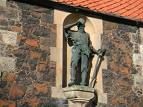
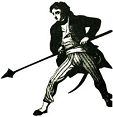
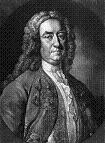
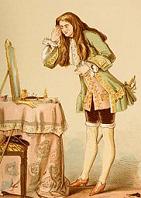







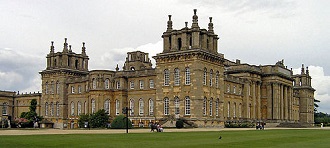
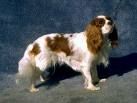

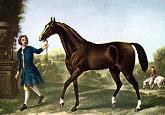
1704 On Jan. 25-26 the Apalachee Massacre (Battle of Ayubale) near modern-day Tallahassee, Fla. sees English colonists from N.C. led by Gov. James Moore along with their Creek allies raid and decimate the mainly peaceful pop. of the Big Bend area of N Spanish Fla., destroying Spanish missions and getting Apalachees to join up and resettle near the Savannah and Ocmulgee Rivers, by 1709 Spanish Fla. is depopulated outside Saint Augustine and Pensacola. On Feb. 29 Deerfield, Mass. is captured, burned, and depopulated of English colonists in a massacre by the French and their Indian allies. On Apr. 16 1K Huguenot Camisards under Jean Cavalier are defeated by 5K French troops under Marshal Montrevel at the Battle of Nages Bridge, after which a peace conference is held on May 11-16 at Pont d'Avne near Alais, and the Camisards surrender under honorable terms, with Louis XIV agreeing to give them amnesty and restore their property and partially restore their civil rights (right of assembly outside walled towns) in return for swearing allegiance to the French crown; too bad he will not let them build their own churches or restore the Edict of Nantes, causing most of them to continue the struggle another year, although leader Jean Cavalier caves in and is made a French col. with a pension, with his Camisards organized into a regiment under his command for service in Spain; too bad, the Huguenots think he sold them out and turn on him, causing him to flee from Nimes to Neu-Brisach, Alsace with his last 100 followers, then to Paris, where he tries in vain to get Louis XIV to budge, then flees to Lausanne, Switzerland, where he forms a Camisard refugee regiment, fighting for any enemy of the Frogs that will have them. On Apr. 24 Scottish-born Boston, Mass. postmaster (since 1702) James Campbell (1653-1728) (not to be confused with U.S. postmaster-gen. James Campbell, 1812-93) begins pub. the weekly Boston News-Letter, the first regularly pub. newspaper in America, expanding his regular "news letters" he had been sending to Gov. Winthrop and other colonial govs., and editing it until 1722. On July 2 22K troops of the Grand Alliance (British, Dutch, and Austrians) under the Duke of Marlborough and the Margrave of Baden schell 13K French and Bavarian troopss under the Comte d'Arco and the Marquis de Maffi at the Battle of Schellenberg (Donauworth) (Battle of Donauwörth) in Donauworth, Bavaria, winning a decisive V, with 1,342 Grand Alliance troops KIA and 3,699 wounded vs. 13K French-Bavarians KIA and 3K taken POW; Bavaria is placed under Austrian admin. On July 24 a combined British-Dutch force under British rear adm. Sir George Rooke (1650-1709) captures Spanish-held (since 1462) Gibraltar, which becomes the major British naval base in the "British pond" (the Mediterranean); on Aug. 13 Rooke attacks the French fleet off Malaga, and after a push he is criticized and resigns from the navy next Feb. - rooked out of it? On Aug. 12-13 after British forces under John Churchill, 1st Duke of Marlborough (1650-1722) march toward the Danube River, meet up with Austrian forces under Prince Eugene of Savoy near Mandelsheim, and together march ulm in ulm to Ulm, they defeat the French under marshals Camille d'Hostun de la Baume, Duc de Tallard (1652-1728) and Ferdinand, Count of Marsin (1656-1706), and the Bavarians under elector Maximilian II Emanuel at the Battle of Blenheim (Second Battle of Hochstadt) (pr. BLEN-im) (corruption of Blindheim) N of Nuremberg on the Danube River in W Bavaria 23 mi. NW of Augsburg, with 4.5K British and Austrians KIA and 7.9K wounded vs. 20K French and Bavarians KIA or wounded and 14K taken POW; the French and Bavarians are beaten so badly that the French attack on Austria is broken, and French prestige suffers from the first pitched battle lost by French troops since who knows when; the giant Allied V ensures the safety of Vienna, preventing the collapse of the Grand Alliance, becoming a turning point in the War of the Spanish Succession; from now on French military domination of Europe begins to tank; Marlborough becomes a big hero back home, and Queen Anne promises to build him his own pretty little palace in Woodstock, Oxfordshire, called Blenheim Palace (1705-22), designed by Sir John Vanbrugh (1664-1726) and Nicholas Hawksmoor (1661-1736), becoming the only non-royal non-episcopal country house in England with the title of palace; too bad, political infighting leads to the duke of Marlborough's exile, damaging Vanbrugh's rep.; meanwhile Duke Victor Amadeus I of Savoy flip-flops, ditches France and joins Austria, pissing-off the French and causing them to send troops under Gen. Vendome to trash the Piedmont; the Rakoczy uprising in Hungary is robbed of its promised help by the French and Bavarians, causing him to mint new copper coins to replace silver coins as the economy collapses. On Oct. 4 Augustus II of Poland is deposed, and once-buff Stanislaus Leszczynski (1677-1766) is elected pudgy King Stanislaus I of Poland (until Aug. 8, 1709). The original Capt. Kirk? In Oct. Scottish sailing master Alexander Selkirk (1676-1721) of the Cinque Ports (part of the William Dampier expedition), which tried to round Cape Horn only to fall prey to a scurvy outbreak which killed 48, incl. Capt. Pickering, who was replaced by 21-y.-o. Lt. Thomas Stradling, then sailed to Mexico, capturing several Spanish ships along the way, then stopped at the Juan Fernandez archipelago off the coast of Chile to resupply, is put ashore at his own request on Mas a Tierra (renamed to Robinson Crusoe by Chile in 1966) after an argument with Stradling about the seaworthiness of the old bucket, going on to live alone for 52 mo. (4 years 4 mo.) until he is rescued on Feb. 2, 1709 by Capt. Woodes Rogers (1679-1732) of the English privateer Duke, run by sailing master William Dampier (1651-1715) (engaged in 1708), whose expedition makes a £200K profit from all the booty, although Dampier dies in 1715 before receiving his share; the old barge Cinque Ports does indeed sink off the coast of Colombia and lose most of its crew, so there? On Dec. 6 the Battle of Chamkaur Sahib sees 40 Sikhs led by Guru Gobind Singh defeat 100K Muslims, with 44 Sikhs and 90K Muslims KIA. Peter the Great takes Dorpat (Tartu) and Narva, and Ivangorod is returned to Russian control; after a great fire in 1708, by 1721 the pop. of Tartu sinks to 21. Henry St. John, 1st Viscount Bolingbroke (1678-1751) (Tory MP since 1701) becomes secy. of war under English PM Sidney Godolphin (until 1710). The Spanish bloodily suppress a Pima Indian rebellion in Nueva Vizcaya, Mexico, causing permanent bitterness. The press gang is authorized by British law. The Popery (Gavelkind) Act is passed by the British Parliament, modifying the Irish practice of Gavelkind (equal division of land among a dead landholder's sons, also used by the Jutes in Kent), giving all the land to the eldest son if he converts to Protestantism; land holdings by Irish Catholics shrink from 25% in 1688 to 14% in 1704 to 5% in 1776. Former British North Am. colonial administrator Sir Edmund Andros (1637-1714)/a> is apppointed lt. gov. of Guernsey Island (until 1708) by Queen Anne, riding out his career, marrying 3rd wife Elizabeth Fitzhebert (-1717) in 1707. Welsh-born British dandy Richard "Beau" Nash (1674-1761) becomes master of ceremonies at Bath, turning it into the most fashionable resort in England, known for gambling and balls and a breakdown of class distinctions; in 1735 he appoints himself MC in Royal Tunbridge Wells (40 mi. SE of London near the East Sussex border), turning it into a famous resort patronized by the upper classes. Jeremiah Clarke (1674-1707) becomes organist at Chapel Royal. Voltaire enters a Jesuit college (until 1710). Jonathan Belcher (1682-1757) becomes the first Am.-born Mason during a visit to London, and later founds Princeton U. Baptists from R.I. petition Conn. for the right to hold religious meetings. The first subscription library opens in Berlin. The Vossische Zeitung begins pub. in Berlin (until 1933). Daniel Defoe (still in jail) begins pub. the weekly The Review (until 1713). Sports: The Darley Arabian, the greatest racehorse of its day is brought to England from Aleppo, Syria by Thomas Darley (1664-), and is bred with English mares to found the line of modern Thoroughbreds. Architecture: Germain Boffrand (1667-1754) redesigns the Hotel de Soubise in Paris (finished 1707); he returns in 1735-40 to design a suite of high Rococo interiors. Inventions: Non-toxic Prussian Blue pigment is discovered accidentally in Berlin, and used to dye Prussian army uniforms. Nonfiction: Anon., Dictionnaire de Trevoux; pub. by the Jesuits at Trevoux. Mary Astell (1666-1731), A Fair Way with the Dissenters and Their Patrons (London); An Impartial Enquiry into the Causes of Rebellion and Civil War in This Kingdom (London). Louis Bourdaloue (1632-1704), Sermons (16 vols.) (1704-37) (ed. by Bretonneau). Samuel Clarke (1675-1729), The Being and Attributes of God; attempts to prove the existence of God by a posteriori arguments based on the evidence of intelligent design; a non-starter with atheistic scientists until ? Charles Davenant (1656-1714), Memorial Concerning the Free Trade Now Tolerated Between France and Holland; promotes continuation of the policy of permitting trade; never pub. John Dennis (1657-1734), The Grounds of Criticism in Poetry; the ancients are superior to moderns because of their religious pagan attitude? Antoine Galland (1646-1715), The Thousand and One Nights: Arab Stories Translated into French (12 vols.) (1704-17); big hit; first European version tr. from Arabic, plus some stories he probably invented, incl. "Aladdin's Lamp" and "Ali Baba and the Forty Thieves"; King Shahryar and his wife Scheherezade, who tells him a new story each night to keep from being beheaded instead of bedded, incl. "The Seven Voyages of Sinbad the Sailor"; in 1706 the anon. "Grub St. Version" English trans. appears, followed in 1714 by "The Thousand and One Days: Persian Tales" by Ambrose Philips. Francis Gascoyne, Brief and True Relation of a Pilgrimage to Jerusalem, with a Description of Stony Arabia. John Harris (1666-1719), Lexicon Technicum; Or, An Universal English Dictionary of Arts and Sciences, Explaining Not Only the Terms of Art, but the Arts Themselves; first alphabetical encyclopedia in English. Pierre Jurieu (1637-1713), Histoire Critique des Dogmes et des Cultes. Raimondo Montecuccoli (1609-80), Memorie del Generale Principe di Montecuccoli (posth.). Jonathan Swift (1667-1745), The Battle of the Books; "Satire is a sort of glass, wherein beholders do generally discover everybody's face but their own"; "Instead of dirt and poison we have rather chosen to fill our hives with honey and wax; thus furnishing mankind with the two noblest of things, which are sweetness and light." Music: J.S. Bach (1685-1750), Denn Du Wirst Meine Seele; his first cantata; marks a plan to compose music according to Pythagorean principles. G.F. Handel (1685-1759), St. John's Passion. Reinhard Keiser (1674-1739), Der Gesturzte und Wieder Erhohte Nebukadnezar, Konig zu Babylon (opera) (Hamburg). Domenico Scarlatti (1685-1757), Revision of Carlo Francesco Pollarolo's Opera "Irene". Art: Guillaume Coustou the Elder (1677-1746), Hercules on the Pyre (Hercule sur le Bucher) (sculpture). Plays: Colley Cibber (1671-1757), The Careless Husband; every-inch-a-lady Ann Oldfield (1683-1730) plays Lady Modish after Susanna Vergruggen turns ill, and becomes a star. John Dennis (1657-1734), Liberty Asserted (Lincoln's Inn Fields); anti-French; big hit. George Farquhar (1677-1707), The Stage Coach (comedy). Peter Anthony Motteux (1663-1718), Britain's Happiness. John Oldmixon (1673-1742), The Governor of Cyprus (drama). Jean-Francois Regnard (1655-1709), Les Folies Amoureuses (comedy of manners); "We love without reason, and without reason we hate." Poetry: William Wycherley (1640-1715), Miscellany Poems. Novels: Jonathan Swift (1667-1745), A Tale of a Tub; his first major work, pub. anon.; satire about three brothers, each representing a major branch of Christianity; despite getting his cousin Thomas to claim authorship, it damages his prospects in the Church of England; "Seamen have a custom, when they meet a whale, to fling him out an empty tub by way of amusement, to divert him from laying violent hands upon the ship"; "There are certain common privileges of a writer, the benefit whereof, I hope, there will be no reason to doubt; particularly, that where I am not understood, it shall be concluded, that something very useful and profound is couched underneath; and again, that whatever word or sentence is printed in a different character, shall be judged to contain something extraordinary either or wit of sublime"; "Bread is the staff of life"; "Books, the children of the brain"; "As boys do sparrows, with flinging salt upon their tails"; "He made it a part of his religion never to say grace to his meat"; "It is a maxim, that those to whom everybody allows the second place have an undoubted title to the first." Births: German composer Carl (Karl) Heinrich Graun (d. 1759) on May 7 in Wahrenbruck, Brandenburg. English steel processing inventor (Quaker) Benjamin Huntsman (d. 1776) on June 4 in Epworth, Lincolnshire; German Quaker parents. English flying shuttle inventor John Kay (d. 1780) on June 17 in Walmersly, Bury, Lancashire; not to be confused with spinning frame inventor (17170 John Kay. German theologian (Moravian Brethren) Bishop August Gottlieb Spangenberg (d. 1792) on July 15 in Klettenberg, Thuringia. Swiss Cramer's Rule mathematician Gabriel Cramer (d. 1752) on July 31. French Rococo portraitist Maurice Quentin de Latour (de La Tour) (d. 1788) on Sept. 5 in Saint-Quentin, Aisne; known for his portraits of Louis XV, Madame de Pompadour, and Voltaire. English Palladian architect (Freemason) John Wood the Elder (d. 1754) in Yorkshire; father of John Wood the Younger (1728-82). Am. ANGLICAN clergyman Richard Peters (d. 1776) in Liverpool, England; brother of William Peters (1702-86); educated at Wadham College, Oxford U.; emigrates to Penn. in 1735. Deaths: Hungarian poet Istvan Gyongyosi (b. 1620) on July 24. English Christian mystic Jane Warde Leade (b. 1624); leaves a diary A Fountain of Gardens (2 vols.). French clergyman Jacques Bossuet (b. 1627) on Apr. 12 in Paris (kidney stones?). German duke of Brunswick-Luneburg (1666-85) Rudolph Augustus (b. 1627) on Jan. 26 in Hedwigsburg. French Jesuit orator Louis Bourdaloue (b. 1632) on May 13 in Paris. English the-thrill-is-gone "tabula rasa" empiricist philosopher John Locke (b. 1632) on Oct. 28 in Essex: "No man's knowledge here can go beyond his experience"; "New opinions are always suspected, and usually opposed, without any other reason but because they are not already common." English Penn. gov. William Markham (b. 1635) on June 12. German-born Norwegian gen. Ulrik Frederik Gyldenlove (b. 1638) on Apr. 17 in Hamburg, Germany. French physician Jean Baptiste Denis (Denys) (b. 1640). French composer Marc-Antoine Charpentier (b. 1643). German physician-botanist Georg Franck von Franckenau (b. 1643) on June 17 in Copenhagen, Denmark. German (Bohemian) composer-violinist Heinrich Ignaz Franz von Biber (b. 1644) on May 3. French botanist Charles Plumier (b. 1646) on Nov. 20 in Puerto de Santa Maria (near Cadiz) (pleurisy). Virginia planter William Byrd I (b. 1652). German Orientalist Johann Andreas Eisenmenger (b. 1654) on Dec. 20 in Heidelberg; dies of grief after his great work is banned. French mathematician Guillaume l'Hospital (b. 1661) on Feb. 2 in Paris - try to take it to the limit, you end up in l'Hospital?



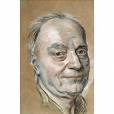
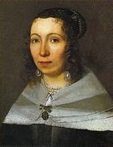

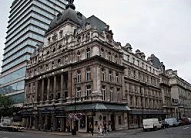


1705 On May 5 HRE (since 1658) Leopold I (b. 1640) dies in Vienna, and is succeeded by his well-educated liberal anti-Jesuit son Joseph I (1678-1711), who grants privileges to the Protestants in his dominions, esp. in Silesia; a Bavarian revolt against Austrian admin. is suppressed; meanwhile the allies attack Spain from the E and W, capturing Barcelona and reaching Madrid, where they proclaim Leopold I's 2nd son Archduke Charles as king of Spain; too bad, the Spanish people want non-Hapsburg Philip V instead, and rise against the allies, driving them out with French help. In Sept. the Hungarian Diet elects Francis II Rakoczy as ruler of the kingdom of Hungary, assisted by a 24-member Senate, and on Oct. 27 after encouragement by Britain and Netherlands, they begin peace talks with the Austrian emperor, but hang up on sovereignty for Transylvania. The Astrakhan Revolt of archers against Peter the Great's Westernization program begins (ends 1706). On Nov. 18 John Churchill, 1st Duke of Marlborough is appointed prince of Mindelheim in Uterallgau, Bavaria by HRE Joseph I (until 1713). The Whigs score big Vs in the election (the Whig Junto), and both Godolphin and Marlborough ally with them, but the queen is reluctant to replace Tory ministers, keeping the cabinet from going Whig until 1708. Scotland proposes a treaty with England. Nice is captured by the French. If you're black you'll have that feeling in the air this year, Or, Do surround yourself with yourself? Va. outlaws mixed-race marriages, defining a "mulatto" as "the child of an Indian and the child, grand child, or great grand child, of a negro"; New York City declares the death penalty for runaway slaves. The Dutch abandon Mauritius - the monkeys are upset with that? The Husaynid Dynasty in Tunisia (ends 1957) is founded by Al-Husayn I ibn Ali al-Turki (1669-1740), who overthrows the Ottoman dey of the Muradid Dynasty. Queen Anne knights Isaac Newton (1643-1727), who becomes the first Brit knighted for scientific achievement - if his wife were Gwyneth Paltrow they could name their kid Sir Apple? J.S. Bach walks 200 mi. to Lubeck to hear the Abendmusiken, dir. by Dietrich Buxtehude, but doesn't want his job since he requires him to marry his daughter. John Toland coins the term "pantheism" for the doctrine that all manifestations of the self-existing Universe are God. Architecture: Blenheim Palace in Woodstock, Oxfordshire, England, designed by Kit-Cat-loving playwright-turned-architect Sir John Vanbrugh (1664-1726) and architect Nicholas Hawksmoor (1661-1736) for John Churchill, 1st Duke of Marlborough is begun (finished in 1722), later becoming the birthplace of Winston Churchill and the reddish-brown spotted white toy Blenheim spaniel. The Queen's Theatre in Haymarket, Westminster, West End, London (cap. 1,216) opens as an opera house, designed by Sir John Vanbrugh, who produces 25+ operas by George Frideric Handel by 1739; in 1714 on the accession of George I it becomes the King's Theatre, followed in 1837 by Her Majesty's Theatre, His Majesty's Theatre in 1901, and Her Majesty's Theate in 1952. The Royal Observatory in Berlin, Germany is founded by Gottfried Wilhelm von Leibniz; it gets its first actual observatory in 1711. Science: English astronomer Edmond (Edmund) Halley (1656-1742) predicts the arrival in 1758 of the comet last seen in 1682, becoming one of the biggest coups of scientists over theologians of all time?; why couldn't superbrain Isaac Newton do it first? Robert Hooke discovers the 1/2-min. limit of human visual acuity. Nonfiction: Mary Astell (1666-1731), The Christian Religion as Profess'd by a Daughter of the Church of England. Pierre Le Pesant, Sieur de Boisguillebert, Factum de la France (1705-6); proposes the stimulation of consumption and production of commodities, a uniform tax on all revenue from property, and the abolition of imposts and internal duties. Samuel Clarke (1675-1729), Evidences of Natural and Revealed Religion. Robert Hooke (1635-1703), Posthumous Works; incl. General Scheme, explaining his use of Francis Bacon's scientific methods (empiricism over rationalism). John Law (1671-1729), Money and Trade Considered, with a Proposal for Supplying the Nation with Money; proposes the Real Bills Doctrine, that a bank should issue notes only in the discount of "good bills" at not more than 60-day due dates to prevent collapse, which is "thoroughly discredited" in 1945. Maria Sibylla Merian (1647-1717), Metamorphosis Insectorum Surinamensium; her 1699-1701 trip to Surinam to study Nature, making her the first person "to plan a journey rooted in science"; uses indigenous names for plants, and produces a classification of butterflies and moths that survives to modern times, becoming the first Euro to describe army ants and leaf cutter ants; contains a famous pictorial description of the metamorphosis of the butterfly, making her a star and making a fan of Peter I the Great. Adriaan Reland (Hadriani Relandi (1676-1718), De Religione Mohammedica Libri Duo; first Euro work that attempts to describe Islam objectively, by a Dutch scholar who toured Palestine in 1695. Christian Thomasius (1655-1728), Fundamenta Juris Naturalis et Gentium. Art: Sebastiano Ricci, Venus and Adonis (1705-6). Music: Prosper Jolyot de Crebillon (1674-1762), Idomnee. Francesco Gasparini (1661-1727), Ambleto (opera) (Venice); first opera about Hamlet; Missa Canonica; performed by J.S. Bach in 1740 in St. Thomas Church and St. Nicholas Church in Leipzig. Georg Friedrich Handel (1685-1759), Almira, Konigin von Castilien (HWV 1) (first opera) (Hamburg) (Jan. 8) (20 perf.); libretto by Giulio Pancieri; big hit, launching his 4-decade opera career of Italian Baroque-inspired music. Reinhard Keiser (1674-1739), Der Romische Unruhe oder Die Edelmutige Octavia (opera) (Hamburg). Die Kleinmutige Selbst-Morderin Lucretia oder Die Staats-Torheit des Brutus (opera) (Hamburg). Plays: Susanna Centlivre (1667-1723), The Gamester (comedy); big hit; The Basset Table (4 perf.); gains her access to the highest lit. circles, incl. Colley Cibber (1671-1757), Richard Steele, George Farquhar (1677-1707), and Nicholas Rowe (1674-1718). Peter Anthony Motteux (1663-1718), The Amorous Miser; or, the Younger the Wiser; Arsinoe, Queen of Cyprus. Ned Ward, Hudibras Redivivus. Sir Richard Steele (1672-1729), The Tender Husband (comedy). Sir John Vanbrugh (1664-1726), The Confederacy (comedy). Poetry: Joseph Addison (1672-1719), The Campaign. Bernard de Mandeville (1670-1733), The Grumbling Hive, or Knaves Turn'd Honest. Novels: Dimitrie Cantemir (1673-1723), Historia Hieroglyphica; first Romanian language novel; represents the Wallachian ruling houses of Brancoveanu and Cantacuzino by mythological beasts. Births: French explorer Jean-Baptiste Charles Bouvet de Lozier (d. 1786) on Jan. 14. French architect Jacques-Francois "le Petit" Blondel (d. 1774) on Jan. 17 in Rouen; grandson of Francois "le Grand" Blondel (1617-86). Italian castrato singer Farinelli (Carlo Maria Michelangelo Nicola Broschi) (d. 1782) on Jan. 24 in Andria (Apulia); brother of opera composer Riccardo Broschi. Swedish naturalist ("Father of Ichtyology") Peter Artedi (d. 1735) on Feb. 22 in Angermanland. Scottish jurist William Murray, 1st Earl of Mansfield (d. 1793) on Mar. 2 in Scone, Perthshire; educated at Westminster School, and Christ Church, Oxford U.; abolishes slavery in England in 1772. Portuguese dramatist (Jewish) Antonio Jose "the Jew" da Silva (d. 1739) on May 8 in Rio de Janeiro; emigrates to Portugal at age 8. English philosopher-physiologist David Hartley (d. 1757) on June 21 in Armley (Halifax), Yorkshire; educated at Jesus College, Cambridge; father of David Hartley Jr. (1732-1813); father of the Associationist School of Philosophy. Austrian Seven Years' War field marshal Count Leopold Josef (Joseph) von Daun, Prince of Thiano (d. 1766) on Sept. 24 in Vienna; son of Count Wirich Philipp von Daun (1669-1741). English statesman Henry Fox, 1st Baron Holland of Foxley (d. 1774) on Sept. 28 in Chiswick; son of Sir Stephen Fox (1627-1716) and 2nd wife Christiana Hope; husband of Lady Caroline Georgiana Lennox; father of Stephen Fox, 2nd Baron Holland (d. 1774), Charles James Fox (1749-1806), and Henry Edward Fox (1755-1811); grandfather of Henry Richard Vassall, 3rd Baron Holland (1773-1840); educated at Christ Church, Oxford U.; squanders his inheritance then gains the backing of a woman of fortune and returns to society as a MP - a fox smells his own den first? Italian pope (1769-74) Clement XIV (Giovanni Vincenzo Antonio Ganganelli) (d. 1774) on Oct. 31 in Santarcangelo di Romagna; educated by the Jesuits, but ends up suppressing them due to political pressure. English historian Thomas "Tom" Birch (d. 1766) on Nov. 23 in Clerkenwell; of Quaker parents, which doesn't stop him from being ordained in the Church of England in 1730; known for going fishing dressed up as a tree to fool them? English poet David Mallet (d. 1765). English military commander Earl Loudoun (d. 1782). Deaths: French courtesan-writer Ninon de L'Enclos (b. 1620) on Oct. 17 in Paris; leaves money for 9-y.-o. Francois Marie Arouet (son of her accountant) (later Voltaire) to buy books: "Much more genius is needed to make love than to command armies." German duke Georg Wilhelm of Brunswick-Luneburg-Hanover (b. 1624). English naturalist John Ray (b. 1627). French Jesuit missionary Louis Hennepin (b. 1626) in Rome, Italy. Am. Puritan minister Michael Wigglesworth (b. 1631). Italian painter Luca Giordano (b. 1634) on Jan. 3 in Naples. German pietist theologian Philipp Jakob Spener (b. 1635) on Feb. 5. French ballet choreographer Pierre Beauchamp (b. 1636). English queen Catherine of Braganza (b. 1638) on Dec. 31 in Portugal. Austrian HRE (1658-1705) Leopold I (b. 1640) on May 5. English Popish Plot conspirator Titus Oates (b. 1649) on July 12/13. French fairy tale writer Madame d'Aulnoy (b. 1650) on Jan. 4. German Bible translator Ernst Gluck (b. 1654) in Moscow; deported there from Latvia by the Russians in 1702, losing the mss. of his new Russian trans. of the Bible. Swiss mathematician Jacob Bernoulli (b. 1655) on Aug. 16 in Basel ; his tombstone bears the inscription of his beloved logarithmic spiral - the good spiral young? Hungarian anti-Hapsburg leader Count Imre Thokoly (b. 1657) on Sept. 13 in Nicomedia. French physicist Guillaume Amontons (b. 1663) on Oct. 11 in Paris. Prussian queen Sophie Charlotte (b. 1668) on Feb. 1.

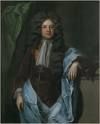
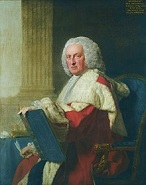

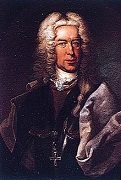





1706 On Feb. 3 Charles XII of Sweden defeats the Russians and Saxons at the Battle of Franstadt in Saxony. On Feb. 7 new viceroy of New Spain (since Nov. 27, 1702) Francisco Fernandez de la Cueva (Cuervo) Enriquez, Marques de Cuellar, 10th Duke of Alburquerque (1666-1724) Albuquerque (Villa of San Francisco de Alburquerque) (modern-day pop. 560K/1.7M), and stocks it with 12 families, writing the viceroy about it after the fact, breaking Spanish law requiring permission, and lying that there are the required min. of 35 families; he is called to Mexico City for punishment, and loses his planned appointment as permanent gov., having to leave in 1711; the villa later becomes known as "Duke City"; in 1988 the city council declares "Founder's Day" in Albuquerque's honor, complete with a statue; since the Spanish have less than 60 soldiers to guard all the settlers and their farms, they relocate their homes into a single square, creating the Old Town Plaza for mutual defense, Mexico's first?; Albuquerque is incorporated in 1891. In Feb. after having had enough of the pesky Scots, Queen Anne appoints commissioners to effect a union between England and Scotland, and they meet at Westminster for several mo., then present the Treaty of Union to the parliaments of both countries for ratification, proposed by Charles Montagu, 1st Earl of Halifax (1661-1715), and backed by Archibald Campbell, 3rd Duke of Argyll, 1st Earl of Ilay (1682-1761); compensation for Darien is incl.; on June 28 the Scottish parliament meets in Edinburgh and agrees to it on July 22, then waffles until Queen Anne bribes them in Nov. to go with it, with new peerages granted, plus trading privileges to the burgesses, plus rights of the kirk to mollify the clergy; the pop. knows they're being sold out and shows it, causing the queen to send an English army to the Scottish border. On May 23 British, Dutch and Danish forces under the Duke of Marlborough defeat the French under Gen. Villeroy at the Battle of Ramillies in Brabant, Belgium (13 mi. N of Namur), followed by the submission of Brussels, Antwerp, Ghent, Ostend et al., giving the Spanish Netherlands to the allies and driving the French back to their border defenses. On July 10 Grace Sherwood (1660-1740) of Pungo, Va., a midwife who sometimes wears men's clothes and is known as the "Witch of Pungo" and is accused of causing a miscarriage through her witchy woman powers is dropped into the Lynnhaven River, and floats, proving that she is guilty because the pure water cast out her evil spirit; she is then jailed until 1714, when she pays back taxes and with the help of Gov. Alexander Spotswood reclaims her property, living quietly until her death; on July 11, 2006 Gov. Timothy M. Kaine of Va. pardons her before a reenactment of her river drop in Virginia Beach, Va. On Sept. 7 after Gen. Vendome is recalled, 20K French troops are routed by troops of Savoy led by Duke Amadeus II and Prince Eugene under the walls of Turin, and they go on to occupy Milan and force the French out of Lombardy and Italy; Charles III is proclaimed at Milan; Austrian field marshal Count Wirich Philipp von Daun (1669-1741) becomes a hero for his defense of Turin. On Sept. 24 the Treaty of Altranstadt (Altranstädt) (in Prussian Saxony near Mereburg) with Sweden forces Augustus II to renounce the Polish crown in favor of Stanislaus I. On Oct. 3 the 227-member 1-chamber Scottish Parliament convenes, and the main item on the agenda is ratifying the Acts of Union with Britain; in Nov. James Hamilton, 2nd Baron Belhaven and Stenton (1656-1708) gives a big speech against union; too bad, after plenty of baksheesh is handed out, enough of the 117 dissenting members flip-flop - I can't go on but the Scottish nobles do it again and sell out their own people to go Norman? In Nov. S.C. adopts Anglicanism as its official religion. On Dec. 9 king (since Sept. 12, 1683) Pedro II (b. 1648) dies, and his son Joao (John) V "the Magnificent" (1689-1750) becomes Braganza king of Portugal (until July 31, 1750), beginning a 44-year reign as the gold flows in from Brazil, allying with England in the War of the Spanish Succession and raising Portugal's prestige, aggressively expanding in the Americas and India, becoming known as the Portuguese Sun King. Guido Wald Rudiger (Rüdiger), Count of Starhemberg (1657-1737) cousin of Gen. Ernst Rudiger von Starhemberg (b. 1701) is appointed CIC of the Hapsburg imperial army in Hungary, fighting the pesky insurgents led by Francis II Rakoczi; in 1708 he becomes CIC of the Austrian army in Spain. Archduke Charles conquers Madrid, but loses it after a short time. Thommo Reachea II becomes king of Cambodia for the 2nd time (until 1710). Charleston, S.C. successfully beats off a French-Spanish attack. Sophia Dorothea, princess of Brunswick marries Friedrich Wilhelm. Irish-born missionary Francis Makemie (1658-1708) (who arrived in Md. in 1683) founds the first presbytery in North Am., becoming the founder of U.S. Presbyterianism - I won't join, so make me? G.F. Handel travels from Hamburg to Italy at the invitation of Gian Gastone de' Medici, and meets his musician brother Ferdinando de' Medici, then finds that the pope has temporarily banned opera, causing him to compose sacred music and cantatas until next year. The first life insurance office in England is opened. White Horse Tavern in Newport, R.I. (built 1652) becomes the first to host a businessman's lunch after city councilors begin dining there and charging expenses to the city. Coffee trees are sent from Sri Lanka to Amsterdam, breaking the ancient Arab monopoly. The word "ain't" is invented as a contraction of "am not". The remains of the buried city of Herculaneum (destroyed in 79 C.E.) are discovered 40-100 ft. below the surface in Portici and Resina villages in the suburbs of Naples during the digging of a well; systematic excavations begin in 1738, uncovering a papyrus library and art relics, incl. statues of Aeschines, Agrippina, the Sleeping Faun, the Six Actresses, Mercury, the Satyr group, and busts of Plato, Scipio Africanus, Augustus, Seneca, and Demosthenes, which are put on display at the Nat. Museum in Naples. The Evening Post, the first evening newspaper begins pub. in London. Architecture: The Berliner Stadtschloss royal palace in Berlin (begun 1698) is completed; demolished in 1950 by the East German govt. as a symbol of "Prussian militarism". Filippo Juvara designs the Church of La Superba (Church of the Proud) in Turin. Governor's Place in Williamsburg, Va. is begun (finished 1720), based on the newly-built Nether Lypiatt Manor in Gloucester, England; after the Va. capital is relocated to Richmond in 1780, it burns down on Dec. 22, 1781 while being used as a hospital for Am. Rev. soldiers from the Siege of Yorktown. The Second Eddystone Lighthouse is built off Plymouth, England. Inventions: English inventor Henry Mill invents carriage springs. Music: Reinhard Keiser (1674-1739), Die Neapolitanische Fischer-Emporung oder Masianello Furioso (opera) (Hamburg). Isaac Watts (1674-1748), Horae Lyricae. Nonfiction: John Kersey the Younger, The New World of English Words (rev. ed); incl. the definition "Anthropology, a Discourse or Description of Man, or of a Man's Body." John Locke (1632-1704), Of the Conduct of the Understanding. Cotton Mather (1663-1728), The Negro Christianized; The Good Old Way (Puritanism?). Giovanni Battista Morgagni (1682-1771), Adversaria Anatomica. John Philips (1676-1709), Cerealia. Olous Romer, Catalog of Astronomical Observations. Matthew Tindal (1657-1733), Rights of the Christian Church. Plays: Susanna Centlivre (1667-1723), Love at a Venture; Colley Cibber disses the play as too bawdy, then plagiarizes it for his "The Double Gallant". George Farquhar (1677-1707), The Recruiting Officer (comedy) (Drury Lane, London); English officers Plume and Brazen (Colley Cibber) recruit soldiers for the War of the Spanish Succession in Shrewbury; big hit; first play to be staged in New York City (Dec. 6, 1732). Nicholas Rowe (1674-1715), Jane Shore. Sir John Vanbrugh (1664-1726), The Mistake (comedy). Novels: Daniel Defoe (1659-1731), A Relation of the Apparition of Mrs. Veal. Births: Am. diplomat-scientist-inventor-postmaster-printer-icon, Founding Father, and U.S. postmaster gen. #1 (1775-6) ("America's Renaissance Man") ("America's First Internat. Celebrity") (Freemason) (lefty) (nudist) (face on the U.S. $100 bill) Benjamin Franklin (d. 1790) on Jan. 17 (Jan. 6 Old Style) in Boston, Mass.; 10th child of an English immigrant soap and candlemaker (youngest of 10 sons); his parents have 17 children; inventor of crop insurance; a couple of decades older than the other Founding Fathers; brother of Jane Franklin Mecom (1712-94); husband (1730-) of Deborah Read (1708-74); father of William Franklin (1731-1813), Francis Folger Franklin (1732-6), and Sarah Franklin "Sally" Bache (1743-1808); first to suggest Daylight Savings Time. English publisher and type designer John Baskerville of Birmingham (d. 1775) on Jan. 28 in Wolverley (near Kidderminster). British adm. Sir George Pocock (d. 1792) on Mar. 6 in Chieveley, Berkshire. French playwright-librettist (Freemason) Louis de Cahusac (d. 1759) on Apr. 6 in Mauntauban; collaborator of Jean-Philippe Rameau (1683-1764). English optician (inventor of the achromatic lens) John Dollond (d. 1761) on June 10 in Spitalfields, London; Huguenot refugee father. Viennese composer Baldassare Galuppi ("Il Buranello") (d. 1785) on Oct. 18. French mathematician-physicist Gabrielle Emilie Le Tonnelier de Breteuil, Marquise du Chatelet (Châtelet) (Chastellet) (d. 1749) on Dec. 17. English highwayman Dick Turpin (d. 1739). Indian sage ("the silent sage") Thayumanavar (d. 1744). German sculptor and porcelain designer Johann Joachim Kandler (d. 1775). Portuguese architect Mateus Vicente de Oliveira (d 1786); pupil of Joao Frederico Ludovice and Jean Baptiste Robillon. Deaths: English gardening writer John Evelyn (b. 1620) on Feb. 27 in Dover St., London. German painter Michael Willmann (b. 1630) on Aug. 26 in Leubus, Poland. French Huguenot scholar Pierre Bayle (b. 1647) on Dec. 28. Portuguese king (1683-1706) Pedro II (b. 1648) on Dec. 9 in Alcantara. English Methuen Treaty diplomat-judge John Methuen (b. 1650) on July 2 in Lisbon, Portugal; buried in Westminster Abbey. German Baroque organist-composer Johann Pachelbel (b. 1653) on Mar. 3 in Nuremberg; leaves Canon in D, which is not rediscovered until 1919. French explorer Pierre Le Moyne d'Iberville (b. 1661) on July 9 in Havana, Cuba (yellow fever). Moravian Jesuit missionary Georg Joseph Kamel (b. 1661) on May 2 in Philippines; namesake of the camellia.









1707 On Mar. 1 after English Tory MP Charles Davenant (1656-1754) is appointed secy. of a commission to negotiate a union of Scotland and England in Sept. 1702, under pressure and bribes the Scottish Parliament votes itself out of existence; on Mar. 25 it adjourns for the last time until ?, 1998. On Mar. 3 Muslim Mughal emperor (since 1658) Aurangzeb (b. 1618) dies after reigning 48 years and 215 days (2nd longest after Akbar the Great) and his eldest son Muhammad Azam Shah (Abu'l Faaiz Qutb-ud-Din Muhammad Azam) (1653-1707) becomes Mughal emperor #7; too bad, he and his two sons Sultan Muhammad Bidar Bakht and Shahzada Wala Jah Bahadur are defeated by Azam Shah's elder step brother Prince Shah Alam (Qutb ud-Din Muhammad Mu-azzam), and Azam Shah is executed on June 8, and on June 19 Shah Alam is crowned Bahadur (Pers. "brave hero") Shah I (1643-1712), Mughal emperor #8 of Hindustan (N India) (until Feb. 27, 1712); the empire is at its zenith, covering 1.25M sq. mi. and 150M subjects, 25% of world pop.; it now begins its decline. On May 1 under Queen Anne (1665-1714) (now queen of Great Britain and Ireland instead of queen of England, Scotland, and Ireland), with the backing of lord high treasurer (1702-10) Sidney Godolphin, the Act of Union (Union with England Act) is passed, fixing the problem of Scotland being omitted from the Act of Succession, and joining Scotland, England, and Wales to create the United Kingdom of Great Britain (U.K.); the word "Celt" first appears in English in connection with the Act of Union, with Welsh (Gaelic) (Celtic) speakers prohibited from holding govt. offices; Scotland is given 16 peers and 45 members of the House of Commons in the British Parliament, free trade with England, and allowed to keep its local legal, political and ecclesiastical institutions, but cannot create any more Scottish peers; many Scots consider it a sell-out, but it gives backwater Scotland access to England's global marketplace, causing an economic and cultural boom, so that by the middle of the cent. the new prosperity it engenders reconciles many, esp. in Glasgow in W Scotland (50 mi. W of Edinburgh on the Clyde River), which is given equal freedom of trade with English ports and soon obtains a large share of the Am. trade, becoming the main center of the tobacco trade until the Am. Rev., then going into cotton manufacture and the sugar trade, shipbuilding and iron, and growing into Scotland's largest city; the economic boom triggers the Scottish Enlightenment, which becomes the basis of classical liberalism, and produces thinkers Francis Hutcheson, Adam Smith, and David Hume, plus steam engine inventor James Watt, along with a dem. education system that is later exported to the U.S. On Apr. 25 the French under James II's son the duke of Berwick (who became a French subject in 1702 and was created a marshal of France) allied with the Spanish crush the Portuguese and British at the Battle of Almansa (Almanza) in Spain, securing the throne for Philip V and getting Berwick created a French peer by Louis XIV and duke of Liria and Xerica by Philip V; Jean Cavalier and his Camisards fight on the British side, and when they find themselves facing a Roman Catholic French regiment, they throw down their guns and rush at them to attack them with blades street-style, after which Cavalier writes "I fought as long as a man stood beside me and until numbers overpowered me, losing an immense quantity of blood from a dozen wounds"; driven out of the Languedoc, the remaining Camisards flee to Geneva and London, where Sir Isaac Newton takes a shine to them, probably for their gnostic beliefs; Cavalier takes refuge in Dublin, then ends up as lt. gov. of N.J. in 1735-8, getting promoted to maj.-gen. in the British army before croaking in 1740. On May 1 the Union Jack becomes the new flag of the U.K.; it consists of the English flag of St. George, the Scottish flag of St. Andrew, and the Irish flag of St. Patrick all superimposed - is it there in your heartache, waiting for some beautiful body, I don't seem to recognize ya? On June 13 the Hungarian Diet in Onod declares the Hapsburgs deposed from the Hungarian throne; too bad, Louis XIV of France refuses to ally with them, leaving them no options except alliance with Russia, which also snubs them. On Sept. 30 the Austrians under field marshal Count Wirich Philipp von Daun conquer Gaeta in C Italy. The Man in the Iron Mask is really the Man in the Velvet Mask? On Nov. 19 Eutache Dauger (1640-1703) AKA the Man in the Iron Mask (L'Homme au Masque de Fer), who had been a prisoner in the Bastile since 1679 (arrested in Dunkirk in 1669, perhaps after returning from exile in Canada) while forced to wear a velvet mask and remain silent on any subject other than his day-to-day needs dies; later novelist Alexandre Dumas changes the mask to iron and claims he is either Louis XIV himself or his twin brother; others believe he is Louis XIV's true father, who resembles him too much (Louis XIII didn't resemble his supposed son); he is buried under the name of Eustache Dauger, valet. On Dec. 16 after Osaka suffers a violent earthquake on Nov. 11, Mt. Fuji (Fujiyama) erupts, pouring lava and ashes into Edo 60 mi. away, but there are no fatalities, becoming its last eruption until ?. Prussia and Sweden sign a Perpetual Alliance. Charles XII and Stanislas I come to an understanding with Cossack hetman Ivan Stepanovich Mazepa (1639-1709) concerning the Ukraine. The Scottish Darien Colony in Panama (founded 1695) collapses, with 2K Scots killed and all moneys invested lost, ruining many thousands of families, which increases anti-English feeling in Scotland and results in riots; the collapse of the Scottish economy leads to more discussions of full parliamentary union with England. The British colonize Acadia in E Canada. The Society of Antiquaries of London, forced underground during the reign of James I begins meeting publicly again, receiving a royal charter in 1751. G.F. Handel meets with Domenico Scarlatti in Venice. Presbyterian preacher Francis Makemie (1658-1708) is imprisoned for preaching in New York City by Gov. Cornbury, tried, and acquitted - can't makemie stop? Gottfried Silbermann (1683-1753) builds his first organ at Frauenstein, Saxony. Billiards begins to be played in Berlin coffeehouses. Fortnum & Mason is founded in Piccadilly, London by William Fortnum and Hugh Mason as a grocery store to make and sell jams, teas and sauces, going on to become a favorite of Queen Victoria, whom they supply annually with Christmas puddings, causing them to adopt the motto "Food Fit for a Queen" before evolving into a dept. store that stocks exotic items. Architecture: Fischer von Erlach finishes the Kollegien-Kirche in Salzburg (begun 1696). Inventions: The West finally catches up to the East where it hurts? German alchemist Johann Friedrich Bottger (Böttger) (1682-1719) of Dresden, Germany, with royal patronage and aided by Count Ehrenfried Walther von Tschirnhaus (1651-1708) discovers the secret of "hard" porcelain similar to Chinese, developing a hard, reddish porcelain which becomes known as Dresden or Meissen China; in 1708 Bottiger is appointed dir. of new factories in Dresden, which he moves to Meissen in 1710, where he invents white porcelain in 1715; too bad that disloyal workers soon spread his secrets all over Europe? French engineer Denis Papin invents the high-pressure boiler. Science: English physician Sir John Floyer (1649-1734) introduces pulse rate as a medical diagnostic measure - flow rate of his johnson jokes here? German chemist-physician Georg Ernst Stahl (1659-1734) pub. the alchemy-influenced Phlogiston Theory of Combustion, which it takes Antoine-Laurent Lavoisier until 1783 to phlog out of fashion. Nonfiction: Anon., The Principles and Duties of Christianity; the first book printed in Manx, which was a purely spoken language until 1610. Bernardino Baldi (1533-1617), Cronica dei Matematici. ? Chamberlayne, State of England; mentions cricket. Anthony Collins (1676-1729), An Essay Concerning the Use of Reason. William Fleetwood (1656-1723), Chronicum Preciosum: Or, An Account of English Money, the Price of Corn and Other Commodities, for the Last 600 Years (London); first calculation of a cost-of-living index, finding that £5 in 1440 would buy the same as £28-£30 then; cited by Adam Smith in "The Wealth of Nations" (1776). Samuel Fritz (1654-1728), Map of South America; by a Bohemian-born Jesuit who explored the interior. Edward Lhuyd (1660-1709), Archaeologica Britannica. John Mill (1645-1707), Novum testamentum græcum, cum lectionibus variantibus MSS. exemplarium, versionum, editionum SS. patrum et scriptorum ecclesiasticorum, et in easdem nolis (Ocford); pub. after 30 years of work, documenting over 30K discrepancies between 100 extant New Testament mss., shocking the Christian world that had relied on Erasmus' 1516 Textus Receptus; dies of a stroke 2 weeks after pub. Georg Ernst Stahl (1659-1734), The True Theory of Medicine (Theoria Medica Vera); advances the Phlogiston Theory of Combustion. Jonathan Swift (1667-1745), A Tritical Essay upon the Faculties of the Mind; "The Mind of Man is at first (if you will pardon the Expression) like a Tabula rasa, or like Wax, which while it is Soft is capable of any Impression, 'till time has hardened it"; "Laws are like Cobwebs which may catch small Flies, but let Wasps and Hornets break through. But in Oratory the greatest Art is to hide Art"; "There is nothing in this World contant but inconstancy"; "For Men nowadays Worship the Rising Sun, and not the Setting." James Woodward, The Sea-Man's Vade Mecum (London). Music: Joseph Addison (1672-1719), Rosamond (opera). G.F. Handel (1685-1759), Dixit Dominus; Rodrigo (opera) (Florence); original title "To overcome onself is the greater victory"; libretto based on Francesco Silvani's "Il Duello d'Amore e di Vendetta". Reinhard Keiser (1674-1739), Der Angenehme Betrug oder Der Carneval von Venedig (opera) (Hamburg). Agostino Steffani (1653-1728), Arminio (opera) (Dusseldorf). Isaac Watts (1674-1748), Hymns and Spiritual Songs (2 vols.) (1707-9); incl. Alas! And Did My Savior Bleed?, Marching to Zion, Come, Holy Spirit, Heavenly Dove, and When I Survey the Wondrous Cross. Art: Claude Gillot (1673-1722), Les Deux Carrosses. Plays: Susanna Centlivre (1667-1723), The Platonick Lady; the printed vers. has a preface dissing sexism. Prosper Jolyot de Crebillon (1707-77), Atree el Thyeste. George Farquhar (1677-1707), The Beaux' Stratagem (comedy) (Theatre Royal, Haymarket, London) (Mar. 8); Archer and Aimwell hatch a scheme to visit small towns and entrap young heiresses; too bad, in the first town, Lichfield, Aimwell is entrapped by Dorinda; landlord Boniface causes the term "boniface" to be coined for an innkeeper or tavernkeeper; Farquhar dies on Apr. 29. Alain-Rene Lesage (1668-1747), Le Diable Boiteux. Peter Anthony Motteux (1663-1718), Thomyris, Queen of Scythia. Poetry: Anon., Complete Tang Poetry; a Qing dynasty production. Elijah Fenton (1683-1730), Oxford and Cambridge Miscellany Poems. Births: French novelist Claude Prosper Jolyot de Crebillon (Crébillon) (d. 1777) on Feb. 13 in Paris; son of Prosper Jolyot de Crebillon (1674-1762). Italian "Amalasunta" dramatist-librettist ("Founder of Modern Italian Comedy") Carlo Osvaldo Goldoni (AKA Polisseno Fegeio, Pastor Arcade) (d. 1793) on Feb. 25 in Venice. Am. Rev. leader (DOI signer) Stephen Hopkins (d. 1785) on Mar. 7 in Scituate, Providence, R.I.; brother of Esek Hopkins (1718-1802). Prussian gen. Hans Karl von Winterfeldt (d. 1757) on Apr. 4 in Vanselow Castle, Swedish Pomerania. English "Tom Jones" novelist Henry Fielding (d. 1754) on Apr. 22 near Glastonbury, Somersetshire. Swiss #1 mathematician (greatest of the 18th cent.?) Leonhard Paul Euler (d. 1783) on Apr. 15 in Basel; known for being a memory whiz. Swedish botanist ("Father of Taxonomy") Carl Linnaeus (Carl von Linne) (Carl von Linné) (Carolus Linnaeus) (d. 1778) on May 23 in Rashult, Smaland. British gen. John Forbes (d. 1759) on Sept. 5 in Dunfermline, Fife, Scotland. French "Histoire Naturelle" scientist ("Father of Natural History") Georges-Louis Leclerc, Comte de Buffon (d. 1788) on Sept. 7 in Montbard, Burgundy. English Methodist "Hark, the Herald Angels Sing" hymn writer Charles Wesley (d. 1788) on Dec. 18 in Epworth, Lincolnshire; son of Samuel Wesley the Elder (1662-1735); brother of John Wesley (1703-91). Am. historian Rev. William Stith (d. 1755). French dancer Marie Salle (d. 1756). Hessian gen. Leopold Philip de Heister 9d. 1777). French gen. Claude Louis, Comte de Saint-Germain (d. 1778); not to be confused with the Count of St. Germain (1712-84). Deaths: Italian mathematician Paolo Casati (b. 1617). Indian Mughal emperor #6 (1658-1707) Aurangzeb (b. 1618) on Mar. 3 in Ahmednagar. French painter Noel Coypel (b. 1628) on Dec. 24. English mathematician-astronomer Richard Towneley (b. 1629) on Jan. 22 in York. French Benedictine scholar Jean Mabillon (b. 1632) on Dec. 27 in Paris. Dutch painter Willem van de Velde the Younger (b. 1633). French fortifications engineer Sebastien Vauban (b. 1633) on Mar. 30. Danish composer Dietrich Buxtehude (b. 1637) on May 9. French mistress (of Louis XIV) Francoise Athenais, Marquise de Montespan (b. 1641) on May 27 in Bourbon-l'Archambault; leaves Memoirs. English theologian John Mill (b. 1645) on June 23 in Oxford; dies 2 weeks after pub. of his masterpiece on the Greek New Testament. German musical instrument maker Johann Christoph Denner (b. 1655) on Apr. 26 in Nuremberg. German gen. Louis William, Margrave of Baden-Baden (AKA Turkenlouis) (b. 1655) on Jan. 4 in Rastatt. French opera singer Julie d'Aubigny (b. 1670) in Provence. Italian composer Giuseppe Aldrovandini (b. 1671) on Feb. 9 in Bologna. English composer Jeremiah Clarke (b. 1674) on Dec. 1 in London (suicide); shoots himself over an unattainable woman. English playwright George Farquhar (b. 1678). English dean of St. Paul's (1691-1707) William Sherlock (b. 1641) in June in Hampstead.


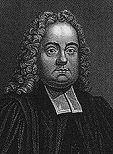

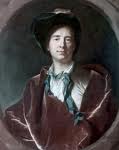
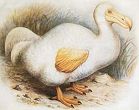
1708 By this year blacks outnumber whites in Carolina, a first for a British Am. colony. In Feb. after the 1708 ed. of "Merlinus Almanac" by famous astrologer John Partridge (1644-1714) sarcastically refers to the Church of England as "the infallible Church", pissed-off Jonathan Swift pub. Predictions for the Year 1708, by Isaac Bickerstaff as an elaborate April Fool's joke to discredit him by predicting his death on Mar. 29, following on that date with a letter containing the soundbyte: "Here five foot deep lyes on his back/ A cobbler, starmonger, and quack.../ Who to the stars in pure good-will,/ Does to his best look upward still./ Weep all you customers that use/ His pill, his almanacks or shoes", after which Partridge pub. a pear, er, letter proclaiming that he's still alive, causing Swift to call it a fake as "they were sure no man alive ever to writ such damned stuff as this", causing a host of his enemies to keep the rumor alive for the rest of his life. I knew Jack Kennedy, pretender, and you're no Jack Kennedy, er, William Wallace? In Mar. "Old Pretender" James Francis Edward Stuart, Prince of Wales (1688-1766), son of James II/VII lands in Edinburgh, fails to mount a rebellion, and returns to France four days later after the French fleet assisting him is defeated - who wants to support a Scot king who uses the French spelling for his Scottish name Stewart? On July 11 British, Dutch, and Austrian forces under the Duke of Marlborough and Prince Eugene of Savoy defeat the French under Gen. Vendome and the Duke of Burgundy at the Battle of Oudenarde (Oudenaarde) in Belgium S of Dunkirk, breaking the French defense of the Spanish Netherlands; Lille surrenders after a siege; peace negotiations break down after the Allies demand that Louis XIV drive his pesky grandson from Spain with French troops. On Aug. 3 the Battle of Trencin (Trencsen) (Trentschin) in Slovakia is a V for the Hapsburg Austrians over the Hungarian Kuruc rebels after the horse of leader Francis II Frakoczy stumbles and knocks him unconscious, causing his forces to believe him dead and flee; the defeated Kuruc leaders transfer their allegience to the Austrian emperor in exchange for clemency, and Rakoczy's forces contract to Munkacs and Szabolcs. On Sept. 7 Persia signs a treaty with France, giving the French trading privileges and protecting French religious missions; trade remains a trickle. On Oct. 1 John Blow (b. 1649) dies, and his student William Croft (1678-1727) becomes organist of Westminster Abbey (until 1727), going on to compose works for the funeral of Queen Anne in 1714 and the coronation of George I in 1715. On Oct. 29 English Prince George (b. 1653) dies from asthma, leaving Queen Anne in "an unspeakable grief", and she lives on as a widow (until 1714), creating the Queen Anne Period in Britain, with unique arts, culture, and architecture, while keeping the Jacobites and Hanoverians from taking her throne; meanwhile many Scots can't get over that union thang. The British capture Minorca and Sardinia. Charles XII of Sweden invades Ukraine. The Austrians seize Mantua (until 1859), ending its independence. Robert Walpole becomes British secy. of war. Peter I the Great divides Russia into eight govt. districts. Britain passes the Naturalization Act, permitting Palatine Germans et al. to become British citizens. The British East India Co. and the New East India Co. are merged. The first German theater opens in Vienna. G.F. Handel goes to Rome and Naples. Tea consumption rises in England from £40K in 1699 to £240K this year. A professorship of poetry is established at Oxford U. Architecture: On Oct. 26 the new rebuilt St. Paul's Cathedral in London is topped-out by Christopher Wren's son Christopher Wren Jr; the figures of Gog and Magon on London's Guildhall destroyed in the Great Fire of 1666 are replaced. The Chapel des Invalides in Paris (begun 1680) is finished. Nonfiction: Jesuit missionaries produce the first accurate Western Map of China. Hermann Boerhaave (1668-1738), Institutiones Medicae; theory of inflammation. Jeremy Collier (1650-1726), The Ecclesiastical History of Britain (1708-14). Thomas Corneille (1625-1709), Dictionnaire Universel Geographique et Historique (3 vols.). Bernard de Fontenelle (1657-1757), Histoire du Renouvellement de l'Academie des Sciences (3 vols.) (1708, 1717, 1722); "Nothing proves more clearly that the mind seeks truth, and nothing reflects more glory upon it, than the delight it takes, sometimes in spite of itself, in the driest and thorniest researches of algebra." Matthew Henry (1662-1714), Exposition of the Old and New Testaments (6 vols.) (1708-10); makes fans of George Whitefield, Charles Spurgeon, and John Wesley. ? Leguat, Voyages et Aventures; a Huguenot refugee from Rodriguez Island describes the Solitaire (Didine Bird), a large bird, taller than a turkey (45 lb.), which flaps its wings as a weapon or to call its mate, and later goes extinct - what a Thanksgiving dinner that woulda made? Bernard de Montfaucon, Paleographia Graeca. John Oldmixon (1673-1742), The British Empire in America. Art: Sir James Thornhill (1675-1734), The Painted Hall at Greenwich Hospital (1708-27); depicts the succession of the Protestant monarchs from William III and Mary II to George I. Music: G.F. Handel (1685-1759), Der Begluckte Florindo (HWV 3) (opera) (Theater am Gansemarkt, Hamburg); libretto by Heinrich Hinsch; debuts after Handel leaves for Italy. Nicola Porpora (1686-1768), Agrippina (first opera) (Naples). Plays: Peter Anthony Motteux (1663-1718), Love's Triumph. Jean-Francois Regnard (1655-1709), Le Legataire Universal (comedy). Poetry: Ebenezer Cooke (1667-1732), The Sot-Weed Factor: Or, a Voyage to Maryland, a Satyr in which is describ'd the Laws, Governments, Courts and Constitutions of the Country; and also the Buildings, Feasts, Frolocks, Entertainments and Drunken Humours of the Inhabitants of that Part of America in Burlesque Verse; rev. 1731; the first Am. satire?; basis of John Barth's 1960 novel "The Sot-Weed Factor". John Gay (1685-1732), Wine. John Philips (1676-1709), Cyder (2 vols.); imitation of Virgil's "Georgics"; his masterpiece? Births: Italian Rococo painter Pompeo Girolamo Batoni (d. 1787) on Jan. 25 in Lucca; moves to Rome in 1727, where he becomes a favorite of Brits on the Grand Tour. Am. celeb Deborah Read (d. 1774) on Feb. 14; wife (1730-) of Benjamin Franklin (1706-90); mother of Francis Folger Franklin (1732-6) and Sarah Franklin "Sally" Bache (1743-1808). Swedish poet-satirist-historian Olof von Dalin (d. 1763) on Aug. 29 in Vinberg Parish, Halland Province; relative of Bishop Andreas Rydelius of Lund. Swiss scientist-theologian-poet Albrecht von Haller (d. 1777) on Oct. 16 in Berne. English statesman and PM (1766-8) ("the Great Commoner") (#1 British statesman of the 18th cent.) William Pitt the Elder, 1st Earl of Chatham (d. 1778) on Nov. 15 in Westmindson; grandson of Diamond Pitt, gov. of Madras, who founded the family fortune by selling a large diamond to Philippe II, duke of Orleans for £135K; father of William Pitt the Younger (1759-1806); educated at Eton School, and Trinity College, Oxford U.; created earl in 1766; known for the family ailment of gout. English actress Lavinia Fenton (Lavinia Paulet, Duchess of Bolton) (d. 1760). Austrian HRE (1745-65) (founder of the House of Hapsburg-Lorraine) Francis I (Francis Stephen, Duke of Lorraine) (d. 1765); husband of Maria Theresa; father of Marie Antoinette, Maria Louise (wife of Napoleon I), and Maximilian I of Mexico. English painter-illustrator Francis Hayman (d. 1776) in Exeter, Devon. French adm. Louis Guillouet, Comte d'Orvilliers (d. 1791) in Moulins, Allier; grows up in Cayenne, French Guina. Deaths: French Roman Catholic bishop Francois Xavier de Laval-Montmorency (b. 1623). German dramatist-poet Christian Weise (b. 1642) in Zittau. French architect Jules Hardouin-Mansart (b. 1646) on May 11. Norwegian #1 poet Peter Dass (b. 1648). English composer John Blow (b. 1649) on Oct. 1 in London; buried in Westminster Abbey. Swedish gen. Count Otto Vellingk (b. 1649). Danish-born English prince George of Denmark, duke of Cumberland (b. 1653) on Oct. 28 in Kensington Palace, London (asthma). Scottish nobleman John Hamilton, 2nd Lord Belhaven and Stenton (b. 1656) on June 21 in London; dies in prison after being accused of favoring a phantom French invasion. French botanist Joseph Pitton de Tournefort (b. 1656) on Dec. 28 in Paris; killed by a carriage on a road in the 5th Arrondissement that is later named Rue de Tournefort. Irish-born Am. Presbyterian leader Francis Makemie (b. 1658). Scottish mathematician David Gregory (b. 1659) on Oct. 10. Hungarian Kuruc leader Tamas Esze (b. 1666) on May 27 in Nyitra. Indian Sikh Guru Gobind Singh (b. 1666) on Oct. 7 in Nanded.


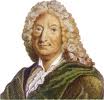
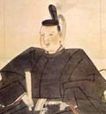
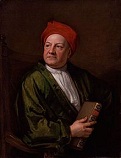

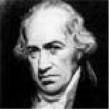


1709 Famine strikes Europe, esp. Prussia; the first mass emigration of 14K Germans from the Palatinate to North Am. begins; by 1800 100K Germans emigrate, followed by 5M more by 1900. On Jan. 5/6 after volcanic eruptions by Teide in the Canary Islands, Santorini in the E Mediterranean, and Vesuvius near Naples, combined with the Maunder Minimum of 1645-1715 leads to the perfect storm, the European Deep Freeze (Le Grand Hiver) of 1709 begins, freezing the entire continent from Italy to Scandinavia and England to Russia for three months, becoming the worst Euro winter in 500 years, seeing the canals of Venice freeze over, allowing people to ice skate, and the Baltic Sea freeze, allowing people to cross on horseback; the pop. of Paris cut off from supplies for 3 mo.; points on the Rhone and Garonne Rivers have 11 in.-thick ice; the hot springs of Aaachen, Germany ice over, along with the Thames River, Ebro River, and the canals and port of Amsterdam; ships get trapped in ice in the Adriatic Sea, and their crews perish from hunger and cold; in Switzerland starving wolves venture into villages; the freeze weakens Sweden's army, leading to the epic Russian V at the Battle of Poltava in June 1709; France and England postpone hostilities in the War of the Spanish Succession, leading to the British V over the French at the Battle of Malplaquet in Sept. 1709; in mid-Apr. the thaw begins, leading to floods and a Euro-wide flu pandemic in 1709-10, compounded by plague from the Ottoman Empire via Hungary; in 1709 a Euro-wide food shortage leads to grain prices rising 6x; the French govt. appoints a commission headed by Henri-Francois D'Aguesseau to preside over food distribution and ban grain hoarding; in 1709-10 deaths increase 600K over the avg., along with 200K fewer births; "I believe the Frost was greater... than any other within the Memory of Man." (William Derham) In Jan. after the imperial army that has conquered Italy threatens Rome, Pope Clement XI ends his neutrality and names archduke Charles of Austria (later HRE Charles VI) as king Charles III of Spain. On June 27 Marlborough ("the Butcher") and Prince Eugene of Savoy siege Tournai (Doornik), Belgium, taking it on Sept. 3 after 3.8K casualties on the French side and 5.4K on the allied side; on Sept. 11 the allies defeat the French in the bloodiest battle of the war at the Battle of Malplaquet, followed on Sept. 6-Oct. 20 by the Battle of Mons, but at least the French check the allies' advance on Paris long enough for Marlborough's political opponents at home to stop it; the song Malbrouk s'en Va-t-en Guerre (For He's A Jolly Good Fellow) becomes popular after Malplaquet, with Malbrouk = Marlborough. On July 8 (June 27 Old Style) (June 28 Swedish) Peter the Great defeats Karl XII of Sweden at the Battle of Poltava (Pultowa) in the Ukraine, and he escapes to protection in Bender in Turkey along with Cossack leader Ivan Mazeppa, who dies, becoming the turning point in the Great Northern War (1700-21). On July 27 Japanese emperor (since 1687) Higashiyama (b. 1675) abdicates in favor of his 7-y.-o. 5th son Nakamikado (1702-37) (personal name Yasuhito), who becomes Japanese emperor #114 (until Apr. 13, 1735), with daddy keeping the real power until he reaches maturity; meanwhile shogun Tsunayoshi (b. 1646) dies without a male heir, and after his widow selects him, Tokugawa Iyenobu (Ienobu) (1662-1712), eldest son of Tokugawa Tsunashige of Kofu becomes shogun #6 of Japan (until Nov. 12, 1712), going on to transform then undo his predecessors' laws and edicts, take away power from the chamberlains, and transform the bakufu (original a military govt. HQ'd in tents) from a military to civilian institution. On Oct. 12 Chihuahua (San Francisco de Cuellar) (modern pop. 750K) is founded in NW Mexico. In Nov. English privateer Woodes Rogers, who rescued Alexander Selkirk in Feb. sails around Cabo San Lucas in Baja California Sur and captures a rich Manila galleon. After Louis XIV's grandson Philip V, aided by Gen. Vendome gets the advantage over Archduke Charles, peace negotiations are renewed at the Congress of Gertruydenburg (near Breda), with Louis XIV offering to pay subsidized troops to oust Philip V from Spain, while the allies again demand he send his own armies to do the job right, but he balks and the war goes on. Afghan Ghilzay leader Mir Vays Khan (-1715) seizes Kandahar (Qandahar) in Afghanistan from the Persians, who have held it since 1648, and builds it into a power base from which his son Mahmud overthrows the Safavids in Persia in 1722. Russia sends its first prisoners to Siberia. Taipei (modern pop. 2.7M/8.5M) on the Danshui River on N Taiwan Island, home of the Ketagalan tribes is settled by mainland Han Chinese immigrants. The first English Copyright Act of 1709 (Statute of Anne) grants owners 14 years of protection on their works, effective Apr. 10, 1710, causing English publisher Jacob Tonson the Elder (1655-1736) (founder of the Kit-Cat Club) to purchase the copyright to Shakespeare's Fourth Folio. English postage rates begin to be based on mileage. The Clyde Trust is created to convert the River Clyde in Scotland into a major thoroughfare. Wiltshire-born Joseph Addison (1672-1719) and Dublin-born Sir Richard Steele (1672-1729), who met while attending Charterhouse School in Surrey begin pub. the tri-weekly lit.-society journal The Tatler (until 1711); Steele writes under the alias Isaac Bickerstaff, "to expose the false arts of life, to pull off the disguises of cunning, vanity, and affectation, and to recommend a general simplicity in our dress, our discourse, and our behavior", with contributions by his Wiltshire-born friend it features the gossip column "Jennifer's Diary", becoming known for discretion and accuracy. Trinity School in New York City at Broadway and Wall St. is founded by the Trinity Church, becoming the #1 college prep school in the U.S. in 2010. Japanese magnolias are introduced to England. In the Brazilian state of Maranhao a colony of termites are put on trial for eating the food and gnawing the furniture of Franciscan monks; their lawyer makes an eloquent speech on their behalf, pointing to their industry vis a vis the monks, and pointing out that they are the original owners of the land; the judge compromises, ordering both parties to be bound by good behavior? Slovakian portraitist Johann Kupetzky (1667-1740) moves to Vienna (until 1723), where he wows the court crowd. Architecture: The Theater am Kartnertor (Kärntnertortheater) in Vienna is built as the imperial royal theater. The Church of Santa Maria de Guadalupe in Manzanillo, Mexico is founded. The Magdalene Church in Seville, Spain (begun 1691) is finished. Inventions: Father Batholomew of Brazil claims to invent a flying ship. Abraham Darby Sr. (1678-1717) invents coke smelting in Coalbrookdale, Shropshire, England, replacing expensive charcoal (which requires trees) with coal to make mass production of brass and iron goods possible, and making Shropshire into the iron center of England. Abraham Derby (1678-1717) develops coke smelting of iron. Johann (Giovanni) Maria Farina (1685-1766) of Italy invents Eau-de-cologne in Cologne, Germany using oil of bergamot; meanwhile barber Gian Paolo Feminis (Italian emigrant to Germany) begins producing Aqua admirabilis, a toilet water based on bergamot, an evergreen citrus that never grows in the wild and cannot be grown from seed, which first appears in Calabria, Italy about this time. German physicist Daniel Gabriel Fahrenheit (1686-1736) invents the alcohol, followed in 1718 by the mercury thermometer. Francis Hawksbee makes the first observations of capillary action in glass tubes. Christian Wolff (Wolfius) invents the anemometer. Nonfiction: George Berkeley (1685-1753), New Theory of Vision. Herman Boerhaave (1668-1738), Aphorismi de Cognoscendis et Curandis Morbis. William Dampier (1651-1715), A Continuation of a Voyage to New Holland. Charles Davenant (1656-1714), Reflections upon the Constitution and Management of Trade to Africa; pub. anon.; advocates renewal of the Royal African Co. monopoly on the slave trade to compete with the hated Dutch. Jeremiah Dummer (1681-1739), A Letter to a Noble Lord Concerning the Late Expedition to Canada; argues for British expansion into Canada. August Hermann Francke (1663-1727), The Footsteps of Divine Providence; or, The Bountiful Hand of Heaven Defraying the Expenses of Faith; his orphanage the Franckesche Stiftungen. Franciscus Halma (1653-1722), Map of the World in Mercator View; shows Calif. as an island - one more good earthquake and he'll be right? John Lawson (1674-1711), A New Voyage to Carolina. John Strype (1643-1737), Annals of the Reformation and Other Various Occurrences in the Church of England During Queen Elizabeth's Happy Reign (2 vols.) (1709, 1725). Jonathan Swift (1667-1745), Hints Towards an Essay on Conversation; "And surely one of the best rules in conversation is, never to say a thing which any of the company can reasonably wish had been left unsaid." John Toland (1670-1722) (tr.), Gospel of Barnabas (Amsterdam); supports the Muslim story that Judas dies in Jesus' place on the cross. Music: G.F. Handel (1685-1759), La Resurrezione (oratorio) (Rome); Agrippina (opera) (Teatro San Giovanni Grisostomo, Venice) (Dec. 29); Handel's last opera written in Italy, showing that he's learned all there is and can move on; libretto by Cardinal Vincenzo Grimani; Nero's mother Agrippina plots to do in emperor Claudius to make him emperor; stars Margherita Durastanti, Antonio Carli, and Diamante Scarabelli; big hit, with 27 successive perf.; Apollo and Daphne (HWV 122) (cantata) (1709-10); finished in Hanover. Reinhard Keiser (1674-1739), La Forza dell'Amore oder Die von Paris Entfuhrte Helena (opera) (Hamburg); Desiderius, Konig der Langobarden (opera) (Hamburg). Agostino Steffani (1653-1728), Enea (opera) (Hanover); Tassilone (opera) (Dusseldorf); hides behind his secy. Gregorio Piva because he's officially no longer a composer but privy councillor of the elector palatine Johann Wilhelm in Dusseldorf. Giuseppe Torelli (1658-1709), 12 Concerti Grossi con una Pastrole per il Santissimo Natale, Op. 8. Isaac Watts (1674-1748), Psalms and Hymns. Plays: Susanna Centlivre (1667-1723), The Busie Body (Busybody); Marplot; her biggest hit, a favorite role of David Garrick, and later a favorite of George I and George II; The Man's Bewitched; disses the Tory squirearchy, causing them to get even by pub. a fake interview in The Female Tatler framing her on insulting her actors. Alain-Rene Lesage (1668-1747), Turcaret, ou Le Financier (comedy of manners) (Comedie-Francaise) (Feb. 14). Nicholas Rowe (1674-1718), Stage Edition of Shakespeare (6 vols.); first to divide the plays into scenes and acts, with entrances/exits noted, to normalize the spelling of names, and to prefix a list of dramatis pesonae; first ed. of Shakespeare to be illustrated; incl. a bio. by Rowe; too bad, he uses the corrupt Fourth Folio. Poetry: Anne Finch, Countess of Winchilsea (1661-1720), The Spleen; pub. anon.; "What art hou, Spleen, which ev'ry thing dost ape?/ Thou Proteus to abused mankind,/ Who never yet thy real cause could find." Ambrose Philips (1675-1749), Winter; written in Copenhagen; his biggest hit. Alexander Pope (1688-1744), Pastorals. Novels: Mary Astell (1666-1731), Bart'lemy Fair, or An Enquiry after Wit (London). Mary Manley (1663-1724), The New Atalantis; satire of almost all the prominent Whigs, which gets her sued. Births: English "Essay on Musical Expression" composer Charles Avison (d. 1770) on Feb. 16 in Tyne. French robot inventor Jacques de Vaucanson (d. 1782) on Feb. 24 in Grenoble. German chemist Andreas Sigismund Marggraf (d. 1782) on Mar. 3 in Berlin; teacher of Franz Karl Achard (1753-1821). French philosopher-historian-diplomat Abbe Gabriel Bonnot de Mably (d. 1785) on Mar. 14 in Grenoble; brother of Etienne Bonnot de Condillac (1714-80); friend of Jean-Jacques Rousseau. Spanish Capt. Tomas Sanchez (Tomás Sánchez) de la Barrera (d. 1796) on June 4 in Cienega de Flores, Nuevo Leon, New Spain; founder of Laredo, Tex. and Nuevo Lauredo, Tamaulipas, Mexico. French gen. (Freemason) Louis de Bourbon-Conde (Bourbon-Condé) (d. 1771) on June 15; 3rd son of Louis III de Bourbon-Conde, prince of Conde (1668-1710) and Louise-Francoise de Bourbon (1673-1743) (illegitimate daughter of Louis XIV and Madame de Montespan); great-grandson of the Great Conde (1621-86); brother of Louis Henri I, duc de Bourbon (1692-1740); uncle of Philippe II d'Orleans (1674-1723). French minister of finance and amateur (inept?) portraitist Etienne de Silhouette (d. 1767) on July 5 in Limoges. English essayist-poet-critic-aphorist-biographer and dictionary king Dr. Samuel Johnson (d. 1784) on Sept. 18 (Sept. 7 Old Style) in Lichfield, Staffordshire; most famous English lit. figure of the latter half of the 18th cent.; "a writer of dictionaries, a harmless drudge, that busies himself in tracing the original, and detailing the signification of words" (himself); not to be confused with Am. educator Samuel Johnson (1696-1772). English "Fanny Hill" novelist (sodomite?) John Cleland (d. 1789) on Sept. 24 in Kingston upon Thames, Surrey. French Acadian leader Jean-Louis Le Loutre (d. 1772) on Sept. 26. Czech composer Frantisek (Franz) Xaver Richter (d. 1789) on Dec. 1 in Holleschau, Moravia. French atheist materialist philosopher-physician Julien Offray de la Mettrie (d. 1751) on Dec. 25 in Saint Malo. Russian Romanov tsar #10 (1741-61) Elizabeth Petrovna (d. 1761); daughter of Peter I the Great (1672-1725) and Catherine I (1684-1727). German Baroque sculptor Johann Michael Feuchtmayr (Fuchtmayer) the Younger (d. 1772); son of Michael Feuchtmayer (1667-); nephew of Franz Joseph Feuchtmayer (1660-1718) and Johann Michael Feuchtmayer the Elder (1666-1713); brother of Franz Xaver Feuchtmayer the Elder (1705-64); cousin of Joseph Anton Feuchtmayer (1696-1770); uncle of Franz Xaver Feuchtmayer the Younger (1735-); known for his stucco. English poet George Lyttleton (d. 1773). Am. "The History of the American Indians" historian James Adair (d. 1783) in County Antrim, Ireland; emigrates to North Am. in 1735, becoming an Indian trader among the Chickawaw. Deaths: French physician Francois Bayle (b. 1622). French playwright Thomas Corneille (b. 1625). Dutch painter Meindert Hobbema (b. 1638) on Dec. 7 in Amsterdam. French politician Ralph Montagu (b. 1638). Ukrainian Cossack hetman Ivan Mazeppa (b. 1640). Austrian Viennese preacher-satirist Abraham a Sancta Clara (b. 1644) on Dec. 1 in Vienna. British adm. Sir George Rooke (b. 1650) on Jan. 24 in St. Lawrence, Canterbury, Kent. French choreographer Raoul Anger Feuillet (b. 1653). Italian composer Giuseppe Torelli (b. 1658) on Feb. 8 in Bologna. English poet John Philips (b. 1675) on Feb. 15.




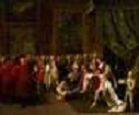


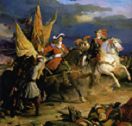


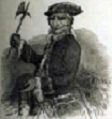

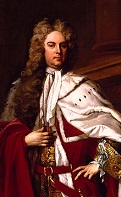
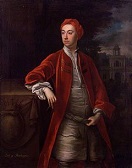






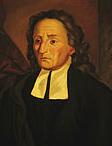

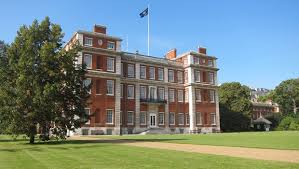

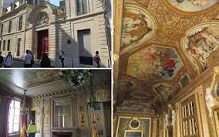
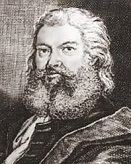
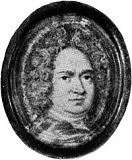
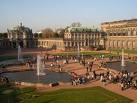

1710 Pop. of the Am. colonies: 300K. In this decade French Canadian voyageurs began exploring the rivers of W Canada by canoe, establishing the fur trading business (until 1870); too bad, they carry TB, which they spread go the Indians, where it lies dormant until the late 1800s, causing a delayed epidemic. On Feb. 27-Mar. 21 British Tory House MP and Anglican clergyman Henry Sacheverell (1674-1724) is impeached for his sermons condemning the principles of the 1688 Rev. and slamming Sidney Godolphin under the alias "Volpone", causing the Tories to proclaim him a martyr, and his light sentence of three years' suspension to be hailed as a Tory V, allowing the queen (influenced by Lady Abigail Masham) on Aug. 7 to dismiss Sidney Godolphin (who had been proppping the Whigs up) from her cabinet and pack it with Tories; John Poulett, 1st Earl Poulett (1663-1743) succeeds Sidney Godolphin as chief minister of the British cabinet (until 1711); an election gives the Tories a majority; Henry St. John becomes British foreign secy., sharing the leadership of the Tory Party with chancellor of the exchequer Robert Hartley; Marlborough's Tory enemies work to secure his dismissal and begin negotiations to end the war with France, while thinking up laws making life difficult for Whigs (Property Qualification Act, Occasional Conformity Act, Schism Act). On Mar. 13 the Buke Shohatto Laws for the Japanese nobility are promulgated by Shogun Iyenobu, starting with the soundbyte: "The Way of Literature and Arms must be constantly pursued, human relations be clearly distinguished, and manners be correct". On July 27 the Battle of Almenar in the Almenar Hills near Balaguer, Catalonia is a V for the 23K-26K-man allied (pro-Archduke Charles) army, consisting of 18K men under Austrian Gen. Guido Wald Rudiger, Count of Starhemberg (1657-1737) (cousin of Ernst Rudiger von Starhemberg), and 5K men under British Gen. James Stanhope, 1st Earl Stanhope (1673-1721) over a 22K-man Spanish-French army under Spanish gen. Francisco Castillo Fajardo, 2nd Marquis de Villadarias (1642-1716), who is fired and replaced by Alexandre Maitre, Marquis de Bay (1650-1715); on Aug. 15-20 the allies score another V over the regrouped 20K-man Spanish-French force at the Battle of Saragossa between the Ebro River and the Torrero Heights, scattering them, killing or wounding 7K-10K, and and taking 5K POWs, with only 1.5K casualties on the allied side; Philip V barely escapes disguised as an enlisted soldier with the help of a miller; on Aug. 21 the allies capture Saragossa, and Archduke Charles triumphantly enters it; after deciding not to pursue the 18K Spanish suvivors to Tudela and recapture Valencia to secure the Spanish-French border against French invasion, the allies head for Madrid, and on Sept. 9 Philip V abandons it for Valladolid; on Sept. 28 Archduke Charles triumphantly enters it (2nd occupation), commenting "This city is a desert"; too bad, after losing 2K in action and many more through disease and skirmishes with guerrillas, the allied army is incapable of occupying the country, and after a Portuguese army advancing to their aid is scared off by a French force, they evacuate Madrid on Dec. 6, and begin a retreat to Catalonia, split into two forces, the main body of 12K men under Starhemberg and a rearguard of 5K men under Lord Stanhope; meanwhile French gen. Louis Joseph de Bourbon, 3rd Duc de Vendome (1654-1712) and an Irish brigade join Philip V's cause, forming a 24K-man army, and they race at record speed to intercept them, and on Dec. 8-9 they ambush and defeat the British rearguard under Lord Stanhope at the Battle of Brihuega, the game Brits fighting until they run out of gunpowder then continuing with bayonets until Stanhope calls it quits, and is taken POW along with almost the entire army, while a remnant of Brits make it to Barcelona; meanwhile Starhemberg races to their aid, and meets Vendome on Dec. 10 at the vicious Battle of Villa Viciosa (Villaviciosa de Tajuña) near Madrid, which is a V for Vendome, who takes 2K POWs and 22 guns, followed by Starhemberg's retreat to Barcelona, which he reaches on Jan. 6 after his army is reduced to 6K-7K, during which a French army under Gen. Noailles occupies Gerona on Dec. 15, securing Philip V's grip on Spain and causing the Hapsburg alliance in Spain to collapse. On Oct. 2 after petitioning Queen Anne for a military expedition to recapture the last colony of Nova Scotia, former Va. gov. (1699-1705) Francis Nicholson (1655-1728) attacks and captures Port Royal, capital of Acadia (founded 1605), followed by all of Acadia, turning it back into the British province of Novia Scotia and renaming the town Annapolis Royal; the pesky French Acadian pop. is dealt with in 1755; next year Nicholson triumphantly returns to England, taking five Irotoys, er, Iroquois chiefs, and petitions Queen Anne for another expedition to capture New France, which embarks next year, but doesn't turn out so well. After Charles XII of Sweden puts the sultan up to it, the Fourth Russo-Turkish War begins (ends 1711); Sweden declares war on Russia (ends 1711). Charles Talbot, 1st Duke of Shrewsbury (1660-1718), who goes way back to the days of being on the committee of seven who invited William III and Mary II to come over, then went Jacobite but covered it up and retired to private life in 1700, telling Lord Somers he "would sooner bind him to a cobbler than a courtier, a hangman than a statesman", switches from Whig to Tory and is appointed by the queen as lord chamberlain, with his wife appointed lady of the bedchamber, going on to jiggle himself into a position to shrewsburily determine the succession on the queen's death in 1714. The Post Office Act begins an Am. postal service under the control of London effective June 1, 1711, whose postmaster is authorized to name a deputy in charge of the colonies; Benjamin Franklin is deputy from 1753-1774. The Irish Parliament sets up the Linen Board to encourage the linen industry. The French assume control of Mauritius (formerly part of the Dutch East Indies) (until 1810), and rename it Ile de France. Ang Em becomes king of Cambodia for the 2nd time (until 1722). Four Mohawks agree to accompany English agents to London, where they meet with Queen Anne and have their portraits painted (the first celebrity Indians in Europe since Pocahontas and her party); one of them is Chief Hendrick (d. 1755), uncle of Chief Joseph Brant (1742-1807), a staunch British ally until his death. Robert Walpole (1676-1745) becomes treasurer of the British Navy - you sunk my battleship? The English Parliament passes the New Churches in London and Westminster Act of 1710, creating the Commission for Building Fifty New Churches to build up to 50 "Queen Anne Churches" in the London area, funded by a duty on coal coming into London like with St. Paul's Cathedral, most designed by architects Nicholas Hawksmoor, Thomas Archer, James Gibbs, and John James, ending with 12 by 1733. An outbreak of rinderpest (cattle plague) begins in the Venetian Repub. (ends 1711), and chief physician Bernardino Ramazzini shocks the crowd by denouncing astrological or astral explanations in favor of scientific ones. Palatines and Swiss colonists settle New Bern, N.C. The British settle Beaufort, S.C., replacing prior flags from Spain, France and Scotland. The Christian-run city council of the Alsatian Jewish haven of Hagenau issues an edict prohibiting foreign Jews from being sheltered, and prohibiting them from transacting business on Sunday and Christian holy days. Berlin Charite (Hospital) in Germany is founded. The Meissen porcelain works in Saxony, famous for Dresden china are founded by Johann Friedrich Bottiger, who moved from Dresden. Magdeburg, Germany-born George Frideric (Georg Friedrich) Handel (1685-1759) returns from Italy after visiting Anna Maria Luisa de' Medici, and is appointed kappelmeister to the elector prince George of Hanover (later George I of Britain); he makes a visit to London, where in 14 days he completes the opera Rinaldo, which debuts at the Queen's Theatre causing him to settle there permanently in 1712 with Queen Anne giving him £200 a year, after which rich Richard Boyle, 3rd Earl of Burlington (1694-1753), and James Brydges, 1st Duke of Chandos (1673-1744) become patrons, both becoming known as "Apollo of the Arts". The Academy of Ancient Music (Academy of Vocal Music until 1726) is founded in London, with German-born composer Johann Christoph Pepusch (1667-1752) as dir. #1 (until 1752). Isaac Newton's successor as Lucasian prof. of mathematics (since 1703) William Whiston (1667-1752) is expelled from Cambridge U. for heresy for pub. his anti-Trinitarian (Arian) views, and moves to London, becoming a kind of English Enlightenment hippie; Newton gets pissed off because he's an Arian too but keeps it secret, and prevents him from being invited to become a member of the Royal Society. Madame de Lambert (1647-1733) sets up a bureau d'esprit (salon) in the Hotel de Nevers in Paris, which becomes the first one to be used for serious philosophical discussions. After becoming an actor for Thomas Betterton's United Co. at Drury Lane Theatre in 1690, Bloomsbury, London-born Colley (OE "dark-haired") Cibber (1671-1757) rises to mgr. (first British actor-mgr.), going on to write 25+ crummy plays for his co., which are criticized as a "miserable mutilation... of crucified Moliere and hapless Shakespeare". The Sun Fire Office is founded in London to insure sugar refiners. The lit. periodical The Examiner begins pub. in England. Scipione Maffei, Apostolo Zeno, his brother Pier Caterino Zeno, and Antonio Vallisneri found Giornale de'letterati d'Italia (Journal of Italian Lit.). The version of the lewd comedy character Hans Wurst by Joseph Anton Stranitzky (1676-1726) first appears in the suburban theaters of Vienna. Architecture: Sir Christopher Wren begins Marlborough House in Westminster, London for Sarah Churchill, Duchess of Marlborough, favorite of Queen Anne (finished in 1711); in the 1980s it becomes the HQ of the Commonwealth of Nations and the Commonwealth Secretariat. French architect Germain Boffrand (1667-1754) begins the Hotel Amelot in Paris (finished 1713), which features an oval forecourt - a lot of what goes on there? As part of the rebuilding of Dresden after the 1685 fire, German Baroque sculptor Balthasar Permoser (1651-1732) and German architect Matthaus Daniel Poppelmann (Pöppelmann) (1662-1736) design the Zwinger Palace in Dresden for Augustus II the Strong of Saxony (finished 1728), featuring the Nymphenbad Fountain and the Wallpavilion, with sculptures by Permoser. Inventions: Jacob Christoph Le Blon (1667-1741) of Germany invents 3-color printing. Science: Per (Pehr) Elvius the Elder of Sweden becomes the first to assign the values 0 degrees and 100 degrees to the boiling and melting points of water. English astronomer Edmund Halley (1656-1742) discovers that the position of the "fixed" night stars change over time, hence the Earth must move around the Sun. Francois Xavier Bon de Saint Hilaire of France produces the first commercial saffron-colored silk from golden orb spiders in Madagascar, making an entire suit of clothes for Louis XIV. Nonfiction: Henri Arnaud (1641-1721), Histoire de la Glorieuse Rentree des Vaudois dans Leurs Vallees. Pierre Bayle, Dictionary (English tr.). George Berkeley (1685-1753), A Treatise Concerning the Principles of Human Knowledge; attempts to prove Immaterialism AKA Subjective Idealism, which holds that the outside world is composed solely of ideas; "Ideas can only resemble ideas"; "To be is to be perceived." Richard Bradley (1688-1732), Treatise of Succulent Plants. Cornelius van Bynkershoek (1673-1743), Observationes Juris Romani. Mary Chudleigh (1656-1710), Essays Upon Several Subjects; urges women to not be concerned with wealth, status, interest, or ambition. William King (1663-1712), An Historical Account of the Heathen Gods and Heroes. Theodor Krump, Travels in Abyssinia, 1700-2; by a German cleric-explorer. Gottfried Wilhelm von Leibnitz (1646-1716), Theodicy (Theodicee); coins the term "theodicy" for a system of natural theology that seeks to vindicate divine justice yet allow evil to exist, with the soundbyte "God created the best of all possible worlds", later satirized by oltaire in Candide. Cotton Mather (1663-1728), Essays to Do Good. Rev. John Wise (Mass.), The Churches' Quarrel Espoused; colonials "hate an Arbitrary Power... as they hate the Devil". Giambattista Vico (1668-1744), De Antiquissima Italorum Sapientia, ex Linguae Latinae Originibus Eruenda (On the Most Ancient Wisdom of the Italians, Unearthed from the Origins of the Latin Language); known for the soundbyte "verum esse ipsum factum" (the true itself is fact), meaning that truth is verified through creation or invention and not through observation a la Descartes; "The criterion and rule of the true is to have made it. Accordingly, our clear and distinct idea of the mind cannot be a criterion of the mind itself, still less of other truths. For while the mind perceives itself, it does not make itself." Music: G.F. Handel (1685-1759), Il Trionfo del Tempo (oratorio) (Rome). Reinhard Keiser (1674-1739), Der Durch den Fall des Grossen Pompejus Erhohete Julius Caesar (opera) (Hamburg); Der Hochmutige, Gesturzte und Wieder Erhabene Croesus (opera) (Hamburg). Plays: William Congreve (1670-1729), Collected Works (3 vols.). Alexander Pope (1688-1744), The Pastorals (debut); pub. in "Poetical Miscellanies" by Jacob Tonson, causing Pope to become a lit. celeb. Novels: Henry Carey (1687-1743), Records of Love; serialized romance for female readers. Births: Italian "Stabat Mater" composer-violinist-organist Giovanni Battista Pergolesi (Draghi) (d. 1736) on Jan. 4 in Jesi, Ancona, Marche; parents are from Pergola, Marche. French king (1715-74) Louis XV (the Well-Beloved) (d. 1774) on Feb. 15 in Versailles; son of Duke Louis de Bourgogne (1682-1712) and Marie-Adelaide of Savoy (1685-1712); great-grandson of Louis XIV. Am. Rev. War. gen. David Wooster (d. 1777) on Mar. 2 in Stratford, Conn. English "Rule, Britannia", "God Save the King", "A-Hunting We Will Go" composer (Roman Catholic) (Freemason) Thomas Augustine Arne (d. 1778) on Mar. 12 in Covent Garden, London; Anglican father, Roman Catholic mother; educated at Eton College. Italian castrato opera singer Caffarelli (Gaetano Majorano) (d. 1783) on Apr. 12 in Bitonto; pupil of Nicola Porpora; likes singing so much that he asks to be castrated? Am. explorer Jonathan Carver (d. 1780) on Apr. 13 in Weymouth, Mass.; grows up in Canterbury, Conn. French-Belgian-Spanish ballet dancer Marie Anne de Cupis de Camargo (AKA La Camargo) (d. 1770) on Apr. 15 in Brussels; of Spanish descent. Scottish astronomer James Ferguson (d. 1776) on Apr. 25 near Rothiemay, Banffshire; self-educated; emigrates to England in 1743. Scottish "An Inquiry into the Human Mind on Principles of Common Sense" philosopher ("Hume's earliest and fiercest critic") Thomas Reid (d. 1796) on Apr. 26 in Aberdeen, Scotland; educated at the U. of Aberdeen. Am. Rev. patriot Richard Bland II (d. 1776) on May 6 in Williamsburg, Va.; cousin of Thomas Jefferson. Swedish king (1751-71) Adolf Fredrik (Adolph Frederick) (Adolphus Frederick) I (d. 1771) on May 14 in Gottorp; son of Duke Christian Augustus (1673-1726) of Schleswig-Holstein and Albertina Frederica of Baden-Durlach (1682-1755); father of Gustav III (1746-92). Am. Rev. patriot and Conn. gov. (1769-84) French Rococo sculptor Francois Gaspard Adam (d. 1761) on May 23 in Nancy; son of Jacob-Sigisbert Adam; brother of Lambert-Sigisberg Adam the Elder (1700-59), Nicolas-Sebastian Adam the Younger (le Jeune) (1705-78), and Anne Adam. German Goethe's father Johann Caspar Goethe (d. 1782) on July 29 in Frankfurt am Main; husband (1748-) of Catharina Elisabeth Goethe (1731-82); father of Johann Wolfgang von Goethe (1749-1832). English Simpson's Rule mathematician Thomas Simpson (d. 1761) on Aug. 20 in Market Bosworth, Leicestershire. Am. Conn. gov. (1769-84) Jonathan Trumbull Sr. (d. 1785) on Oct. 12 in Lebanon, Conn.; only colonial gov. to support the Am. Rev. cause; George Washington calls him "Brother Jonathan", causing the term to refer to the entire U.S. English "Butler's Lives" Roman Catholic priest and hagiographer Father Alban Butler (d. 1773) on Oct. 13 in Appletree, Northamptonshire; educated in Douai, France. French dramatist (creator of the comic opera) Charles Simon Favart (d. 1792) on Nov. 13 in Paris; educated at Louis-le-Grand College; stage mgr. of the Opera-Comique; husband of Marie Justine Benoite Duronceray (1727-72). German "Twelve Polonaises" Rococo organist-composer Wilhelm Friedemann Bach (d. 1784) on Nov. 22 in Weimar; eldest son of Johann Sebastian Bach (1685-1750). English writer bishop Robert Lowth (d. 1787) on Nov. 27 in Hampshire; educated at New College, Oxford U. English poet John Hammond (d. 1742). Am. Rev. War gen. Josiah Quincy Sr. (d. 1784); father of atty. Josiah Quincy Jr. (1744-75); descendant of Edmund Quincy, who emigrated to Mass. in 1633; educated at Harvard U.; friend of Benjamin Franklin. English military physician Sir Clifton Wintringham, 1st Baronet (d. 1794); educated at Trinity College, Cambridge U.; knighted in 1762; created baronet in 1774. Deaths: English actor-dramatist Thomas Betterton (b. 1635) on Apr. 28 in London. French explorer Daniel Greysolon, Sieur Duluth (b. 1636). French explorer Pierre-Esprit Radisson (b. 1636) in London, England. Italian composer Bernardo Pasquini (b. 1637) on Nov. 21. English-born Am. writer Mary Rowlandson (b. 1637) in Mass. French writer-historian Jean Donneau de Vise (b. 1638) on July 8. German astronomer Gottfried Kirch (b. 1639) on July 25. French archbishop Charles-Maurice le Tellier (b. 1642) in Reims. Danish astronomer Olaf Roemer (b. 1644). French mistress of Louis XIV (1661-7) Louise de La Valliere (b. 1644) on June 7 in Paris. Dutch dramatist Lucas Rotgans (b. 1654). English writer Mary Lee (b. 1656), Lady Chudleigh. Austrian noblewoman (sister of the wife of HRE Joseph I) Charlotte Felicitas (b. 1671). Japanese emperor #113 (1687-1709) Higashiyama (b. 1675) on Jan. 16 (smallpox).
1711- The Take Tattler Addison Steele Pope Year?









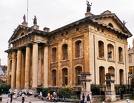
1711 Between this year and 1894 Istanbul (Constantinople) suffers 66 earthquakes. On Jan. 14 (Tevet 24) the Jewish ghetto in Frankfurt, Germany burns down; next fire 1721. On Feb. 21 after systematically getting contracted by the Austrians, Hungarian leader Francis II Rakoczy flees to Poland, and on Apr. 30 new Hungarian CIC Sandor Karolyi quickly signs the Peace (Treaty) of Szatmar (Szatmár), ending the Kuruc Rebellion (begun 1671), with the 12K rebels laying down arms and taking an oath of allegiance on May 1 in the fields of Majteny, Szatmar; meanwhile Francis II Rakoczy is offered the crown of Poland by Peter I of Russia twice, but turns it down, living in Danzig under the alias Count of Saros, then travels to England, is snubbed by Queen Anne, then tries France, is snubbed by Louis XIV, and ends up moving to the Ottoman Empire after Louis XIV's death in 1715. Feel like making love to whom? On Mar. 1 Wiltshire-born Joseph Addison (1672-1719) and Dublin-born Sir Richard Steele (1672-1729), who met while attending Charterhouse School in Surrey begin pub. the journal The Spectator which lasts for 555 daily issues (until Dec. 6, 1712); through its fictional char. Sir Roger de Coverly it becomes the moral conscience of England. On Apr. 14 Louis XIV's eldest son Grand Dauphin Louis (b. 1661) dies of smallpox, losing his chance to become a king, leaving a son who becomes Philip V of Spain, fulfilling the prophecy that he would be "son of a king, father of a king, but never a king". On Apr. 17 young whippersnapper HRE (since 1705) Joseph I (b. 1678) dies in Vienna of smallpox, and on Oct. 20 is succeeded as king of Bohemia and Hungary and HRE by his brother Charles VI (1685-1740) (until Oct. 20, 1740), husband of Elisabeth Christine of Brunswick-Wolfenbuttel (1691-1750) (future mother of Maria Theresa in 1717), becoming the last HRE of the direct Hapsburg line; Charles leaves Spain for the time being, while continuing to claim the throne of Spain, inheriting all of the Austrian possessions, freaking out the other powers with the realization that if he gains the Spanish inheritance too the Hapsburgs would be back in their full hog-jawed power; all this puts Louis XIV and his grandson Philip V in the driver's seat. Sarah Churchill (1660-1744) falls from favor with Queen Anne, and her husband John Churchill, 1st duke of Marlborough is charged with embezzlement and dismissed as CIC of the British armies, living in Holland until 1714; James Butler, 2nd duke of Ormonde replaces him as CIC (until 1714); a Tory backer replaces her in the queen's bedchamber, whispering sweet nothings in her ear scripted by a Tory leader. On May 1 the Peace of Szathmar is signed by HRE Charles VI, guaranteeing the Hungarian constitution in return for recognizing him. On July 18 after Peter I the Great leads the ill-advised Pruth (Prut) River Campaign, invading Moldavia with the aid of brainy Moldavian prince (since 1710) Dimitrie (Demetrius) Cantemir (1673-1723), and ends up surrounded by the Turks on the Pruth River and receiving a butt-kicking, it's curtain time until his mistress Catherine I gathers her jewels plus every other woman's she can find and uses them to bribe grand vizier Baltaji Mehmet Pasha into allowing a retreat, saving his butt bigime; if the Turks had captured Peter I they might have kept Russia down permanently, becoming a great historical what-if; on July 21 the Treaty of Pruth ends the Third Russo-Turkish War (begun 1710), and returns the Black Sea port of Azov to Turkey; Cantemir flees to exile in Russia, becoming prince of Russia and later prince of the HRE, going on to become one of Europe's big brains, (11 languages), doing researches on everything and writing volumes of ambrosia, etc. etc.; the Ottoman govt. of Ahmed III establishes the Phanariot System, ruling Moldavia and Walachia through hospodars ("lords"), who are usually Greeks from Constantinople; Romanian boyars (nobles) begin selling out and allying themselves with the Greeks, and Greek becomes the official language; the big D causes Russia to pass its first budget, tempting Peter I to go after Sweden's province (since 1157) of Finland. On July 30 a large British force of 7.5K troops and marines in nine ships under Adm. Sir Hovenden Walker (1666-1728), together with British colonists under mediocre Maj.-Gen. Sir John "Jack" Hill (-1735) leave Boston to attack Quebec City, capital of New France; too bad, on Aug. 18 as they enter the St. Lawrence River a storm hits, and after sheltering in Gaspe Bay they make the mistake of leaving during a lull on Aug. 22 and ending up in a bigger storm, which sinks seven transport ships, killing 740 of 1,390 troops plus 150 sailors, after which the expedition is abandoned. The French capture Rio de Janeiro from the Portuguese. The Jesuits are banned from entering the Minas Gerais highland region of SE Brazil. The Tuscarora War breaks out in N.C. between settlers and Iroquoian Tuscarora Indians after the latter massacre 200 settlers (ends 1713). Earl Robert Harley of Oxford succeeds Earl Poulett as chief minister of the British cabinet (until 1714). The French dauphin dies, and within a year the duke of Burgundy (his heir), the duchess, and their eldest son also die. To make the majority in the British House of Lords the same party as in the House of Commons, 11 new Tory peers are created, establishing the primacy of the Commons. The Occasional Conformity Bill (Toleration Act) is passed in England (until 1719), stopping Dissenters from technically satisfying the Test Act by taking Anglican communion once and otherwise attending their own nonconformist "chapel". To get the Treaty of Utrecht through Parliament, Queen Anne I gets the Qualification Act passed, establishing a landed property qualification for all MPs in a reactionary attempt to exclude upwardly-mobile merchants, financiers and industrialists, which are coming on strong with the new economy after the Glorious Rev., improved banking, and the lessening nat. debt; it is repealed in 1866 after lax enforcement. Whig Navy treasurer Robert Walpole is tried by the Tory House of Commons on trumped-up charges of "breach of trust and notorious corruption", and sent to the Tower next Jan. 17. Turkish Janissary Ahmed Karamanli (1686-1745) kills the Ottoman gov. of Tripoli in Libya, and establishes himself as pasha, ending Ottoman control (since 1551) and establishing the Karamanli Dynasty (ends 1835), which pays tribute to the Ottoman sultan while engaging in piracy. The South Sea Co. is organized in England to trade with South Am., and is given a royal monopoly; it is given the asiento obtained from Spain at the close of the Spanish War of Succession, and attracts way too much public capital, causing a stock market crash in 1720, although the co. doesn't fold until the 1850s. The first commercial shipment of coffee beans from the Dutch East India plantations in Java arrives in Amsterdam; it is less than 1K lbs. - like with any drug, start them out with free samples? Britain passes the Newspaper Stamp Act, a stamp duty. A slave market is set up at the foot of Wall St. in New York. Peter the Great stops in Hanover and meets German brain man Gottfried Wilhelm von Leibniz, who founds the Berlin Academy as pres. #1. The Muslim Kong (Wattara) (Ouattara) Empire in NE Ivory Coast (ends 1898) is founded by Dyula immigrants from the decling Mali Empire, becoming a commercial center and center of Islamic studies. The Royal Academy of Arts in London is founded under English #1 portrait painter Sir Geoffrey Kneller. Sports: Queen Anne I establishes the Royal Ascot Horserace (pr. like "ask it") at Ascot Heath, Berkshire, becoming the #1 annual event for the British aristocracy, at which royal attire is cool, esp. ascot ties. Architecture: On Dec. 25 Parliament officially declares St. Paul's Cathedral in London (begun in 1669 by Sir Christopher Wren) completed, becoming the hub of the rebuilt London after the 1666 Great Fire; he accentuates the size by leaving the interior walls undecorated, but later they cover them with Baroque stuff, except for the W end. Matthaus Daniel Poppelmann (1662-1737) begins the Dresden Zwinger (finished 1722). The Clarendon Bldg. in Oxford, England is begun (finished in 1715). Inventions: The tuning fork is invented by English trumpeter John Shore (1662-1752). Nonfiction: Francis Atterbury (1662-1732), Representation of the State of Religion. Richard Bentley (ed.), The Works of Horace. Ferdinando Bibiena, Architettura Civile. Jean Chardin (Sir John Chardin) (1643-1713), Travels in Persia et al. (10 vols.); one of the finest works of early Western scholarship on Persia and the Middle East Anthony Ashley Cooper, 3rd earl of Shaftesbury, Characteristics of Men, Manners, Opinions, and Times (3 vols.). John Dennis (1657-1734), Essay Upon Publick Spirit; against luxury and servile imitations of foreign fashions. Filippo Juvarra (1678-1736), Raccolta di Varie Targhe Fatte da Professori Primarii di Roma; engravings of sculpted coats of arms. Thomas Maddox, The History and Antiquities of the Exchequer. Francis Nicholson (1655-1728), Journal of an Expedition for the Reduction of Port Royal. Alexander Pope (1688-1744), An Essay on Criticism; pisses off prominent critic John Dennis (1657-1734), who becomes a lifelong enemy, the first of many; "To err is human, to forgive divine" (line 525); "Fools dare to go where angels fear to tread". Jonathan Swift (1667-1745), The Conduct of the Allies. William Whiston (1667-1752), Primitive Christianity Revived (5 vols.) (1711-2); claims that Arianism is the doctrine of the primitive Christian church. Music: G.F. Handel (1685-1759), Rinaldo (HWV 7) (opera) (Queen's Theatre, London) (Feb. 24); libretto by Giacomo Rossi, based on Torquato Tasso's "Jerusalem Delivered", set during the First Crusade (1096-9); Handel's first opera produced in London, and the first Italian language opera written specifically for the London stage; stars castrati Nicolo Grimaldi and Valentino Urbani; too bad, impresario Aaron Hill overextends himself to finance the grand production, causing it to be shut down after 9 perf. Johann Adolph Hasse (1699-1783), Croesus (opera); first use of the clarinet in an orchestra. Plays: Prosper Jolyot de Crebillon (1674-1762), Rhadamiste et Zenobie (tragedy); his masterpiece? Poetry: Peter Dass (1648-1708), Spiritual Pastime. Births: Am. Congregational minister (founder of Dartmouth College) Eleazar Wheelock (d. 1779) on Apr. 22 in Windham, Conn.; educated at Yale U. Scottish "A Treatise of Human Nature", "The History of England" empiricist philosopher-historian David Hume (d. 1776) on May 7 (Apr. 26 Old Style) in Edinburgh; educated at the U. of Edinburgh; experiences "a new Scene of Thought" at age 18 that causes him "to throw up every other Pleasure or Business to apply entirely to it", causing him to nearly have a nervous breakdown within 10 years; friend of Adam Smith and Benjamin Franklin - writes about hume-an nature? German Prussian Hohenzollern margrave of Brandenburg-Bayreuth Frederick "the Beloved" (d. 1763) on May 10 in Weferlingen; son of margrave Georg Frederick Charles (1688-1735) and Dorothea of Schleswig-Holstein-Sondenburg-Beck (1685-1761); husband (1731-) of princess Wilhelmine of Prussia (1709-58), daughter of Frederick William I of Prussia and Sophia Dorothea of Hanover, and granddaughter of George I of Britain, and (1759-) duchess Sophie Caroline Marie of Brunswick-Wolfenbuttel (1737-1817). Croatian Jesuit scientist (in Italy and France) Roger Joseph (Ruggero Giuseppe) Boscovich (d. 1787) on May 18 in Dubrovnik. British Cornish adm. Lord Edward Boscawen (d. 1761) on Aug. 19; 3rd son of Hugh Boscawen, 1st Viscount Falmouth (1680-1734). Dutch prince of Orange-Nassau (1711-51) (first hereditary Stadtholder of the Dutch Repub. in 1747-51) William IV (d. 1751) on Sept. 1 in Leeuwarden; son of Prince John William Friso of Orange and Marie Louise of Hesse-Cassel; father of William V (1748-1806). Am. Lutheran clergyman ("Founder of Am. Lutheranism") Henry Melchior Muhlenberg (d. 1787) on Sept. 6 in Einbeck, Hanover, Germany; emigrates to the U.S. in 1742. Am. gov. of colonial Mass. (1769-74) Thomas Hutchinson (d. 1780) on Sept. 9 in North End, Boston, Mass.; educated at Harvard U. English "By the Waters of Babylon", "O Where Shall Wisdom Be Found" composer (deaf) William Boyce (d. 1779) on Sept. 11 in London. English astronomer-mathematician-architect Thomas Wright (d. 1786) on Sept. 22 in Byers Green, County Durham. Chinese Qing emperor #4 (1735-96) Qian Long (Qianlong) (Ch'ien Lung) (Gao Zong) (Kao-tsung) (Hongli) (d. 1799) on Sept. 25 in Beijing; son of Yongzheng (1678-1735); father of Jiaqing (1760-1820). Am. poet (black) (first pub. African-Am. writer in America) Jupiter Hammon (d. 1805) on Oct. 17 in Lloyd Harbor, N.Y. Russian polymath natural philosopher (founder of Russian science) Mikhail Vasilyevich Lomonosov (Lemonossov) (d. 1765) on Nov. 8 (Nov. 19 Old style) in Denisovka (modern-day Lomonosovo), Archangelgorod. Am. Rev. leader (DOI signer) John Hart (d. 1779) in Hopewell, N.J. Kazakh khan Ablai (Abulmansur) (d. 1781). English actress Cathering "Kitty" Clive (nee Raftor) (d. 1785). Deaths: French critic-poet Nicholas Boileau-Despreaux (b. 1636). English bishop (of Bath) Thomas Ken (b. 1637) on Mar. 19; refused to swear allegiance to William III and was deprived of his see, after writing the hymn Praise God From Whom All Blessings Flow. Dutch adm. Philips van Almonde (b. 1644) on Jan. 6 in Oegstgeest (near Leyden). English-born Va. colonist William Randolph (b. 1650) on Apr. 11 in Turkey Island, Henrico County, Va. Russian explorer Vladimir Atlasov (b. 1661) in Jen. (murdered in his sleep); namesake of Atlasov Island. French Grand Dauphin Louis of France (b. 1661) on Apr. 14 in Chateau de Meudon (smallpox). Austrian HRE (1705-11) Joseph I (b. 1678) on Apr. 17 in Vienna (smallpox).







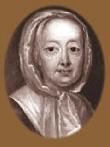


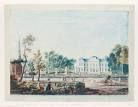

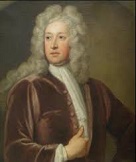
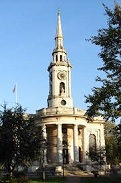

1712 On Jan 29 the Peace Congress of Utrecht in Holland opens in Utrecht, Holland on the Rhine River 23 mi. from Amsterdam (ends 1713); powerful Tory orator Henry St. John (1678-1751), philosopher of the London Court Party-hating Country Party (Old Whigs) is called to the House of Lords under the title 1st Viscount Bolingbroke, and begins his rise to the top of English govt. by negotiating the Peace of Utrecht. On Feb. 27 Mughal emperor (since 1707) Bahadur Shah I (b. 1643) dies, and his son Jahandar Shah (1661-1713) becomes Mughal emperor #8 of India (until Feb. 11, 1713). In Feb. to reward her for her jewel trick on the Pruth, Peter I the Great finally officially marries his Swedish-Lithuanian-who-knows-what mistress (since 1703) Catherine I, and decides to move the Russian capital from Moscow to his new digs at St. Petersburg (until 1922), ordering the nobles to move there and erect elaborate palaces, forbidding stone building anywhere else in Russia until the town is completed to his satisfaction; he also establishes the Russian Academy of Engineering in 1715; the center of Russian trade moves W from Vologda to St. Petersburg, causing the latter to shrink in importance after two cents. On Apr. 6 there is a slave rebellion in New York. In May Carolina is divided into North and South. In June Penn. bans the importation of slaves; after William Penn suffers the first of a series of stroke, his 2nd wife (since 1696) Hannah Callowhill Penn (1671-1726) becomes acting proprietor until her death in 1726. On July 24 120K French under Marshal Claude de Villars defeat 105K invading imperial forces under Prince Eugene of Savoy at the Battle of Denain in France after the English under the duke of Ormonde suddenly withdraw, allowing a bayonet charge to push them into the Denain River, with 18K imperial troops dead or drowned vs. 5K French troops; the French then recapture Douai, Le Quesnoy and Bouchain. On Aug. 11 after a Roman Catholic defeat, the Treaty of Aargau (Aarau) signed by the Roman Catholics and Protestants ends the Swiss War, granting Protestant superiority over Catholic cantons. On Sept. 14 Scottish gambling head-calculating economist John Law (1671-1729), who fled to Amsterdam in 1694 after killing a man in a duel in London, studied banking, and tried unsuccessfully in 1700 to interest the Scottish Parliament in a nat. bank founds the Compagnie de la Louisiane ou d'Occident in France, which obtains exclusive rights to trade in French territory around the Mississippi River for 25 years, with large land grants. On Oct. 12 big man Francis Nicholson becomes British gov. of Nova Scotia and Placentia (until Aug. 1717). On Nov. 12 Tokugawa Iyenobu (b. 1662) dies, and infant Iyetsugu becomes shogun #7 of Japan. On Nov. 15 (a.m.) Scottish nobleman Sir James Douglas-Hamilton, 4th Duke of Hamilton (b. 1658), after being created a peer of Britain (1st duke of Branded With the Mark of Shame, er, Brandon in Suffolk) for selling out his Scottish people and getting a "toothache" during the final vote on the Acts of Union, allowing them to be passed in the Scottish House of Lords (still, the very thought of a wild-eyed Celt sitting in the British House of Lords with the descendants of Edward I Longshanks?), and maybe worse, being created Knight of the Garter in Oct. (the only non-royal in Britain to be a knight of both Thistle and Garter), fights a famous sword duel in Hyde Park, London with this-bird-you-cannot-change longtime Whig opponent Charles Mohun, 4th Baron Mohun of Okehampton (1675-1712) (actually, Hamilton had been trying to steal his inheritance, and Mohun was a longtime dueling fool, and the Scot prick was made special envoy to Paris, and it was about time for him to fly?), who kills the pesky uppity Scot, after which he dies from his horrific wounds also, all of which is later covered in William Makepeace Thackeray's blockbuster 1852 novel The History of Henry Esmond, and causes Parliament to ban seconds in duels, causing the quicker and less gruesome pistols to become the weapon of choice - erin go bragh? In Nov. the Dutch Berbice plantations in Guyana are attacked by French buccaneers. On Dec. 20 a Swedish force of 12K defeats 24K Danes and Saxons at the Battle of Gadebesk. British West Indies slave owner William "Willie" Lynch makes a speech on the banks of the James River in Va., explaining to American slaveowners how to control (keep down) African slaves by exploiting skin color, age, and gender; duh, it's a 1990s Internet hoax - just lynch them when they get uppity? A war of succession begins between Bahadur Shah I's four sons in India. After borrowing money from the duke of Montrose and losing it in cattle speculation, the lands of Rob Roy McGregor (1671-1734) are seized, and he goes Celtic, gathers his clansmen and makes open war on the duke, stealing all the cattle of the district and kidnapping the factor with rents of more than 3K Scottish pounds; after becoming the Scottish Robin Hood, he ends his days peacefully under the protection of the duke of Argyll - see the movie? The last execution for witchcraft in England takes place. The first sperm whale is captured at sea by a Yankee from Nantucket - there's a dirty joke in there somewhere? Button's Coffee House is founded in London by Daniel Button, attracting brainy Whigs incl. Joseph Addison, fostering free journalism. Queene Anne touches 3-y.-o. Samuel Johnson to cure him of scrofula (TB). The long-standing Newton-Leibniz Priority Dispute over the invention of calculus between Isaac Newton and Gottfried Wilhelm von Leibniz is finally decided by a commission appointed by the Royal Society of London for er, Newton. A wharf is built on the River Trent in Burton upon Trent, England, allowing navigation to Nottingham and causing the town to become a major site for exporting beer to Hull and London, after which several breweries open by the end of the cent., ramping up after Burton brewer Samuel Allsopp learns to replicate the pale ale produced in London in 1822 and best them with their better water, going on to produce India pale ale (invented in the late 18th cent.) that is hopped-up to stay fresh during the long trip to India, and becomes popular in England by 1840; later railways are built allowing beer to be exported throughout Britain, and by 1880 Burton has 30+ breweries, producing 25% of all beer in Britain; too bad, after the Liberal govt. turns prude, the number shrinks from 20 in 1900 to eight in 1928, and three in 1928, incl. Bass (founded 1777), Marston's (founded 1834), and Ind Coope (founded in 1845). Architecture: Philip V of Spain creates the Biblioteca Real royal public library in Madrid. English Baroque architect Thomas Archer (1668-1743) begins St. Paul's Cathedral, Deptford in Deptford, Kent (near London), with sweeping semi-circular porticos (finished 1730). Gabriel Boffrand designs the Hotel de Montmorency in Paris. Inventions: Thomas Newcomen (1664-1729) invents the Newcomen Steam Engine, becoming the first practical device to harness steam power to produce mechanical work, and the first great invention of an Englishman; unfortunately it uses only one chamber and is only about 1% efficient - hi, I love your purse? Nonfiction: John Arbuthnot, The Art of Political Lying: The History of John Bull; popularizes John Bull as a personification of England or an Englishman; "an honest plain-dealing fellow, choleric, bold, and of a very inconstant temper... very apt to quarrel with his best friends, especially if they pretend to govern him". Sir Thomas Browne (1605-82), Concerning Some Urnes Found in Brampton Field in Norfolk (posth.); written in 1667. Samuel Clarke, The Scripture Doctrine of the Trinity, in Three Parts, Wherein All the Texts in the New Testament Relating to the Doctrine... Are Collected, Compared, and Explained; shows that Arius was right all along and the Trinity is not in the scriptures, but all the pretty people are clapping that they got it made; Sidney Godolphin begs him not to pub. it, and after he does it causes a firestorm of controversy, causing him to issue specious apologies to keep from being defrocked. Charles Davenant (1656-1714), Reports to the Commissioners for Public Accounts; argues for British trade with France to keep up with the Netherlands. John Dennis (1657-1734), Essay on the Genius and Writings of Shakespeare in Three Letters; Reflections, Critical and Satirical; a backatchya against Alexander Pope (1688-1744), comparing him to a hunchbacked toad. John Flamsteed (1646-1719) Historiae Coelestis; 400 incomplete observations of fixed stars, begun in 1676, pub. by order of Prince George of Denmark over Flamsteed's objections, after which he later burns 300 copies in Greenwick Park, with the soundbyte "I make a sacrifice to Heavenly Truth"; the final vers. is not pub. until 1725. Francois Massialot (1660-1733), Le Cuisinier Royal et Bourgeois (3 vols.) (1712-34). Cotton Mather (1663-1728), Curiosa Americana (1712-24). John Oldmixon (1673-1742), The Secret History of Europe (1712-5). Jonathan Swift (1667-1745), A Proposal for Correcting the English Language. Art: Giuseppe Crespi (1665-1747), The Seven Sacraments. Music: Arcangelo Corelli (1653-1713), 12 Concerti Grossi. G.F. Handel (1685-1759), Il Pastor Fido (opera) (London) (Nov. 22); libretto by Giacomo Rossi, based on the poem by Giovanni Battista Guarini; a flop. Plays: Pieter Langendijk (1683-1756), Het Wederzijds Huwelijks Bedrog (1712-4). Ambrose Philips, The Distrest Mother; adaptation of Racine's "Andromaque". Poetry: Alexander Pope (1688-1744), The Rape of the Lock (mock-heroic epic) (May) (2 cantos, 334 lines); rev. Mar. 2, 1714 into 5 cantos, 794 lines; his most popular poem, selling 3K copies in four days; mocks a high society quarrel between Belinda (Arabella Fermor) and Lord Petre, who had snipped a lock of her hair to use as a sex toy, while she is guarded by sylphs (guardian spirits of virgins); Uranus' moons Belinda, Umbriel and Ariel are named from chars.; "Forever cursed be this detested day, Which snatched my best, my favorite curl away! - love hurts? Births: English composer John Stanley (d. 1786) on Jan. 17 (old Style); student of Maurice Greene. Prussian Hohenzollern king #3 (1740-86) (Freemason) Frederick (Friedrich) II (the Great) (d. 1786) on Jan. 24 in Berlin; son of Frederick William I (1688-1740) and Sophia Dorothea. English portraitist Arthur Devis (d. 1787) on Feb. 19 in Preston, Lancashire. French Gen. Louis Joseph de Montcalm-Gozon, Marquis de Sain-Veran (d. 1759) on Feb. 28 in Chateau de Candiac (near Nimes). English dipththeria physician (Quaker) John Fothergill (d. 1780) on Mar. 8 in Carr End (near Bainbridge), Wensleydale, Yorkshire. French adm. Luc Urbain de Bouexic (Bouëxic), Comte de Guichen (d. 1790) on June 21 in Fougeres, Ille-et-Vilaine. Swiss-French deistic philosopher-writer-composer Jean-Jacques Rousseau (d. 1778) on June 28 in Geneva; mother dies from birth complications, father abandons him at age 10 after fighting a duel; at age 16 he becomes a vagrant, engraver's apprentice, servant, secy., and musical copyist - such sweet eyes and face? English composer John Hebden (d. 1765) on July 21 in Spofforth (near Harrogate), Yorkshire. German mathematician Johann Samuel Konig (König) (d. 1757) on July 31 in Budigen. French diplomat-statesman-gen. Cesar (César) Gabriel de Choiseul, Duc de Praslin (d. 1785) on Aug. 15; cousin of Etienne Francois, duc de Choiseul (1719-85). French printer-engraver Pierre Simon Fournier (le Jeune) (d. 1768) on Sept 15. Italian (Venetian) "Doge's Feasts" painter Francesco Lazzaro Guardi (d. 1793) on Oct. 5 in Venice; brother of Giovanni Antonio Guardi (1699-1760); last of the Venetian School. Scottish poet Alison (Alicia) Cockburn (Rutherford) (d. 1794) on Oct. 8 in Selkirkshire. British Whig PM (1763-5) George Grenville (d. 1770) on Oct. 14 in Wotton Underwood, Buckinghamshire; maternal uncle of William Pitt the Elder; educated at Eton College, and Christ Church, Oxford U. Austrian field marshal prince Charles Alexander Emanuel of Lorraine (d. 1780) on Dec. 12 in Luneville, Lorraine, France. Moravian bishop Peter Boehler (d. 1775) in Frankfurt am Main, Prussia; educated at the U. of Jena. Euro courtier, composer, and mystery man ("The Wonderman" - Voltaire) Comte de Saint Germain (Count of St. Germain) (d. 1784); son of Prince Francis II Rakoczi (1671-1735) of Transylvania and Duchess Violante Beatrice of Bavaria (1673-1731); Gian Gastone, last of the Medicis is his mother's brother-in-law; educated at the U. of Siena; claims to be 500 years old. English "Paradise Lost" composer John Christopher Smith (Johann Christoph Schmidt) (d. 1795) in Ansbach, Germany; Handel's secy. Deaths: Italian-born French astronomer Giovanni Domenico Cassini (b. 1625) on Sept. 14 in Paris. English vapor action Richard Cromwell (b. 1626) on July 12 in Cheshunt, Hertfordshire. French marshal Nicolas Catinat (b. 1637) on Feb. 22 in Saint-Gratien; Memoirs of Nicolas Catinat are pub. in 1819. Dutch painter Jan van der Heyden (b. 1637) on Mar. 28 in Amsterdam. French Bible critic Richard Simon (b. 1638) on Apr. 11 in Dieppe. English actor Edward Kynaston (b. 1640) in Jn. English plant anatomist Nehemiah Grew (b. 1641) on Mar. 25 in London. Indian Mughal emperor (1707-12) Bahadur Shah I (b. 1643) on Feb. 27 in Lahore. English politician Sidney Godolphin, 1st earl Godolphin (b. 1645) on Sept. 15 in St. Albans, Hertfordshire. French physicist Denis Papin (b. 1647). French marshal Louis Joseph de Bourbon, 3rd duc de Vendome (b. 1654) on June 11 in Vinaros, Spain; dies suddenly, and is buried in the Escorial. Scottish nobleman Sir James Hamilton, 4th duke of Hamilton (b. 1658) on Nov. 15 in Hyde Park, London (killed in a duel). Japanese shogun #6 (1709-12) Iyenobu (b. 1662) on Nov. 12. English satirist William King (b. 1663) on Dec. 25. German writer Christian Reuter (b. 1665). English politician Charles Mohun, 4th baron Mohun (b. 1675) on Nov. 15 in Hyde Park, London (killed in a duel). German Saxon field marshal Adam Heinrich Graf von Steinau (b. ?).
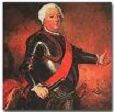




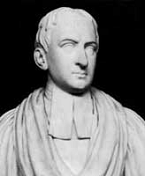
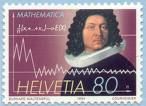


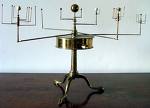



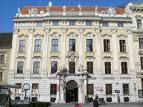
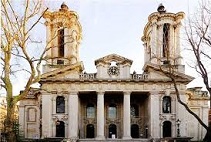



1713 There is a measles epidemic in Boston. On Feb. 11 Jahandar Shah (b. 1661) dies, and Baradar Shah I's grandson Mohammed (Muhammad) Shah (1685-1719) becomes Mughal emperor #9 of India (Great Mughal) (until Feb. 28, 1719), presiding over its breakup into loosely-knit states under the ascendancy of the Syed Brothers, Mughal gens. Syed Hassan Ali Khan Barha (1668-1722) and Syed Hussain Ali Khan Barha (1666-1722). On Feb. 25 Hohenzollern Prussian king #1 (since 1701) Frederick I of Prussia (b. 1657) dies after having drained the country of resources, and his son Frederick William (Friedrich Wilhelm) I (1688-1740) becomes king #2 of Prussia and elector of Brandenburg (until May 31, 1740), soon showing himself a heaven-spelled-backwards royal tightwad who likes tall soldiers for his military parades as he builds up the size of the army from 38K to 83.5K, making Prussia the 3rd biggest military power after Russia and France, introducing pigtails to the army. On Mar. 12-Oct. 1 English writer Joseph Addison (1672-1719) and Irish writer Sir Richard Steele (Isaac Bickerstaff) (1672-1729) pub. the daily The Guardian (175 issues). You get this, I get that, now who wants lemonade? On Apr. 13 the Treaty (Peace) of Utrecht, signed by France on the one hand, and England, Holland, Prussia, Savoy, and Portugal on the other, followed by more treaties signed on July 13 between Spain and England, and more on Aug. 13 between Spain and Savoy (and more in 1714 and 1715), all concluded by Viscount Bolingbroke against the wishes of nearly the entire English nation ends Louis XIV's wars, Queen Anne's War (Second War of the Grand Alliance) (begun 1701), and the War of the Spanish Succession (begun 1700), with the uniting of France and Spain under one king permanently forbidden, and the whole idea being to check France's ambitions by pumping up Ahnuld, er, Austria and Holland on its N, Prussia on its E, and Savoy on its SE, launching the inevitable process of unification of Germany and Italy in the 19th cent., while freeing England for fast commercial expansion; it recognizes the Protestant succession in England, the title of Philip V as king of Spain and the Spanish colonies, and cedes from Spain the Spanish Netherlands (that part which had belonged to the Hapsburgs), and cedes Minorca and Gibraltar to England, along with Hudson Bay, Nova Scotia (Acadia), and Newfoundland in Canada, and St. Christopher (Kitts) and Nevis, allowing France to retain Quebec; Port Royal is renamed Annapolis Royal in honor of Queen Anne, and remains capital of Nova Scotia until 1750; Prussia receives recognition of the royal title and possession of Neuchatel and the upper quarter of Gueldres, while its claim to the principality of Orange on the Rhone River (which gives its name to the Dutch royal line) is ceded to France; Portugal receives expanded boundaries in South Am.; Sicily is separated from Naples and given to Savoy (until 1720), along with territory in upper Italy in return for renouncing its claims on Spain, reserving the right of inheritance in case the House of Bourbon should become extinct; Count Wirich Philipp von Daun becomes the first Austrian viceroy of Naples; the Iroquois are recognized as British subjects; Britain obtains the asiento (monopoly of slave trade) with Spanish possessions for 30 years; France gains the college town of Douai; England emerges ascendant on the sea over France and the Netherlands, and Euro politics becomes all about Anglo-French and Austrian-Prussian rivalry, with Russia, Spain, Holland, Sweden, and the smaller German states playing both sides; French-speaking English poet-diplomat Matthew Prior (1664-1721), who helped England negotiate the 1697 Peace of Ryswick and was called back to negotiate the Peace of Utrecht gets saddled with the blame as "Matt's Peace" even though he personally disapproves of it, and after Queen Anne dies next year Robert Walpole gets him impeached and placed under house arrest in 1715-7, causing him to turn back to poetry; John Churchill, 1st Duke of Marlborough talks them into an exchange for a swap of his Principality of Mindelheim in Unterallgau, Bavaria with the county of Nellenburg (Mellenburg) in Austria, promoting it into a principality for him; too bad, Austrian law forbids it, and the plan is dropped in 1717. On Apr. 19 HRE Charles VI, living under the shadow of having no male offspring issues the Pragmatic Sanction, declaring that Hapsburg control of Austria, Bohemia, and Hungary are indivisible, and that in case he dies without male heirs his future daughter Maria Theresa (1717-80) will succeed him, with the daughters of HRE Joseph I and their descendants as backups; too bad, the male chauvinist nobility of Hungary doesn't want to go with this program and causes trouble, and the whole thing becomes the hot potato of the 18th cent.? On June 24 the Peace (Treaty) of Adrianople (Edirne) is signed in Edirne by Turkey and Russia, confirming the 1711 Treaty of the Pruth, with Russia agreeing to abandon its gains in the Azov region and eliminate its new Black Sea fleet; exiled Charles XII of Sweden turns public opinion against signer Baltaci Mehmet Pasha and gets him removed, but can't convince Sultan Ahmed III to resume his war with Russia, and instead he sends Charles XII back to Sweden, after which the peace lasts 25 years. On July 13 the Treaty of Portsmouth ends the war between the Mass. Bay Colony and the Eastern Abenakis, renewing the 1693 treaty made with gov. William Phipps. On July 13 the Anglo-Spanish Treaty of Utrecht confirms the Anglo-French treaties related to the English and French successions. On July 25 the Siege of Barcelona sees the 40K-man Bourbon army of Philip V of Spain siege Barcelona for 13 mo. (until Sept. 11, 1714), capturing it from 24.7K Catalonians and building the 5-cornered Citadel of Barcelona to prevent another rebellion by the Catalans, becoming the largest fortress in Europe. On Aug. 13 the Spanish-Savoyard Treaty cedes Naples and Sicily to Victor Amadeus II of the House of Hapsburg, along with the title of king in return for renouncing claims to the Spanish throne, and assures Savoy of an independent position in N Italy free from French control; Amadeus' alliance with Austria gives him the remainder of Monteferrat. On Aug. 20 after the HRE continues the war, it loses the Battle of Landau to the French under the duc de Villars, who then sieges Freiburg, which surrenders without a battle after Ferdinand Mayer negotiates a deal. The Swedes capitulate at Oldenburg. The Tuscarora War (begun 1711) ends with the Tuscaroras being driven out of N.C., eventually (1722) joining the Iroquois Five Nations, making it Six Nations. Can I have just one more dance with you my love in the moonlight? Father Perrault founds the ageless paradise of Shangri-La in the Valley of the Blue Moon in Tibet, and becomes the High Lama, who doesn't age in the next 200 years (1937 film Lost Horizon). Pope Clement XI pub. the papal bull Unigenitus, marking the end of toleration of Jansenist doctrine - welcome to the popular table, or not? Captain Frezier introduces the Chilean strawberry to France. Francois Didot (1689-1757) goes into the publishing biz in France, going on to found a dynasty. Pretty-boy Alessandro Scarlatti becomes musical dir. of the viceroy of Austria in Naples, and dir. of the Conservatory di Sant' Onofrio (until 1719). The Scriblerus Club is founded in London by Jonathan Swift (1667-1745), John Gay (1685-1732), Alexander Pope (1688-1744), John Arbuthnot (1667-1735), William Congreve (1670-1719) et al. to satirize pedantry in the form of fictional scholar Martinus Scriblerus; meanwhile Alexander Pope makes an unprecedented deal with publisher Barnaby Bernard Lintot (Lintott) (1675-1736) to translate Homer's "Iliad", with one vol. appearing every year by subscription for six years, for which he gets a 200 guinea per vol. advance, making him the first English poet who can support himself with poetry, "indebted to no prince or peer alive". French Bourbon Sun King (1643-1715) Louis XIV (the Great) (1638-1715) is presented with a coffee tree, and uses sugar as an additive in coffee for the first time. The Old State House at Washington and State Sts. in Boston, Mass. is built, becoming the seat of the Mass. Gen. Court until 1798, later becoming a landmark on the Boston Freedom Trail, and the oldest surviving public bldg. in Boston; in 1960 it is designated a nat. historic landmark. The Spanish Royal Academy (Real Academia Espanola) in Madrid is founded. The School of Dance is established at the Paris Opera. Architecture: Thomas Archer begins the Baroque St. John's Church in Smith Square, London (finished 1728), complete with four corner towers, becoming known as Queen Anne's Footstool after she allegedly kicked over her footstool and told Archer that she wanted it to look like that. Germain Boffrand designs the Hotel de Seignelay in Paris at 80 Rue de Lille. Prince Eugene's Palais Belvedere in Vienna is begun by Johann Lukas von Hildebrandt (1668-1745), who also begins the Palais Kinsky in Vienna, commissioned by Count Wirich Philipp von Daun. British MP (1707-14) James Brydges, 1st Duke of Chandos (1673-1744) begins the palatial £200K Cannons House in Little Stanmore (near Edgware), Middlesex (finished 1724), where he hosts G.F. Handel in 1718-19; the crowds get so big that he introduces 1-way roads; he starts with architect William Talman, switching in 1714 to John James, in 1715 to James Gibbs, in 1719 to John Price, and in 1723 to Edward Shepherd; it is demolished in 1747 to pay his debts. Inventions: English clockmaker George Graham (1674-1751) creates the first Orrery, a mechanical model of the Solar System, named for his patron Charles Boyle, 4th Earl of Orrery (1674-1731), and built by instrument maker John Rowley of London; Orrery gets the 2nd copy after the first goes to Austrian prince Eugene of Savoy (1663-1736). Science: Swiss mathematician Jacob Bernoulli (1654-1705) pub. the primitive form of the Law of Large Numbers, that the average of a large number of trials converges to the expected value. English (Cambridge) mathematician Roger Cotes (1682-1716) revises Newton's Principia Mathematica (begun 1709), contributing a preface touting Newton's Law of Gravitation as superior to Rene Descarte's Theory of Vortexes; 750 copies are printed. Japanese scientist Ekiken Kabara (-1714) first describes the concept of dietary control as a method for achieving good health and longevity. Nonfiction: Arthur Collier, Clavis Universalis, or A New Inquiry After Truth. Anthony Collins (1676-1729), A Discourse of Free-Thinking. Francois Fenelon (1651-1715), Traite de l'Existence et des Attributs de Dieu. Thomas Parnell (1679-1718), Essay on the Different Stiles of Poetry. Abbe Saint Pierre, Projet pour la Paix Perpetuelle. Music: G.F. Handel (1685-1759), Utrecht Te Deum; Teseo (Theseus) (opera) (Queen's Theatre, London) (Jan. 10); libretto by Nicola Francesco Haym, based on Philippe Qinault's "Thesee"; stars castrati Valeriano Pellegrini and Valentino Urbani. Giuseppe Tartini (1692-1770), Violin Sonata in G minor, B.g5 AKA the Devil's Trill Sonata, a difficult work that becomes his most popular work, and his favorite, allegedly composed by a devil that appeared at the foot of his bed; "One night, in the year 1713 I dreamed I had made a pact with the devil for my soul. Everything went as I wished: my new servant anticipated my every desire. Among other things, I gave him my violin to see if he could play. H ow great was my astonishment on hearing a sonata so wonderful and so beautiful, played with such great art and intelligence, as I had never even conceived in my boldest flights of fantasy. I felt enraptured, transported, enchanted: my breath failed me, and I awoke. I immediately grasped my violin in order to retain, in part at least, the impression of my dream. In vain! The music which I at this time composed is indeed the best that I ever wrote, and I still call it the 'Devil's Trill', but the difference between it and that which so moved me is so great that I would have destroyed my instrument and have said farewell to music forever if it had been possible for me to live without the enjoyment it affords me"; it is not pub. unti 1799; Art: Alexandre Francois Desportes, Spaniels with Dead Game. Jean-Antoine Watteau (1684-1721), L'Indifferent. Plays: Joseph Addison (1672-1719), Cato. John Gay (1685-1732), The Wife of Bath. Poetry: Henry Carey (1687-1743), Poems on Several Occasions. Alexander Pope (1688-1744), Windsor Forest; based on his life in Berkshire, home of Windsor Castle, celebrating the "Tory Peace" after the War of the Spanish Succession (1701-14). Jonathan Swift (1667-1745), Cadenus and Vanessa; written for his babe Esther Vanhomright, with his title Dean and her name in code; "'Tis an old maxim in the schools,/ That flattery's the food of fools;/ Yet now and then your men of wit/ Will condescend to take a bit." Edward Young (1683-1765), Poem on the Last Day; dedicated to Queen Anne. Births: Spanish mathematician and naval officer Jorge Juan y Santacilia (d. 1773) on Jan. 5 in Novelda, Alicante. French "Coelum Australe Stelliferum" astronomer Abbe Nicolas Louis de Lacaille (La Caille) (d. 1762) on Mar. 15 in Rumigny; educated at the College de Lisieux, and College de Navarre. Am. DOI signer Francis Lewis (d. 1803) on Mar. 21 in Llandaff, Cardiff, Wales; emigrates to the U.S. in 1734; great-great-great grandfather of film dir. William A. Wellman (1896-1975). French Clairaut's Theorem mathematician-astronomer Alexis Claude Clairaut (d. 1765) on May 13 in Paris. British PM (1762-3) and Scottish PM #1 (1707-) John Stuart, 3rd Earl of Bute (d. 1792) on May 25 in Edinburgh, Scotland. English writer-bookseller ("Father of English Children's Literature") John Newbery (d. 1767) on July 9 in Waltham St. Lawrence, Berkshire. French Neoclassical Pantheon architect Jacques-Germain Soufflot (d. 1780) on July 22 in Irancy (near Auxerre). Dutch prince (1735-80) Charles I of Brunswick-Wolfenbuttel (Brunswick-Wolfenbüttel) (d. 1780) on Aug. 1 in Braunschweig; eldest sun of Duke Ferdinand Albert II (1680-1735); brother of Duke Louis Earnest of Brunswick-Luneburg (1718-88). Spanish Bourbon king #2 (1746-59) (Roman Catholic) Ferdinand VI (the Learned) (d. 1759) on Sept. 23 in Madrid; 4th son of Philip V (1683-1746) and 1st wife Maria Luisa of Savoy. French Encyclopedist philosopher (atheist) Denis Diderot (d. 1784) on Oct. 5 in Langres, Champagne; educated in Jesuit schools. Polish Jewish scholar rabbi Yechezkel ben Yehuda Landau (d. 1793) on Oct. 8 in Opatow. Scottish mercantilist economist Sir James Denham Steuart, 3rd Baronet of Goodtrees and 7th Baronet of Coltness (d. 1780) on Oct. 21 in Edinburgh; educated at the U. of Edinburgh. French "The Story of Ernestine" novelist Marie-Jeanne Riccoboni (Laboras de Mezieres) (d. 1792) on Oct. 25 in Paris. Spanish missionary founder Father (St.) Miguel Josep "Junipero" Serra y Ferrer (d. 1784) on Nov. 24 in Petra, Mallorca; canonized by Pope John Paul II on Sept. 25, 1988; sainted by Pope Francis on Sept. 23, 2015; feast day: July 1. English "Tristram Shandy" novelist and Anglican clergyman Laurence Sterne (d. 1768) on Nov. 24 in Clonmel, County Tipperary, Ireland; British soldier father; grows up in Yorkshire; educated at Jesus College, Cambridge U. English travel writer Edward Wortley Montagu (d. 1776); son of Edward Wortley Montagu (1678-1761) and Lady Mary Wortley Montagu (1689-1762). John Tuberville Needham (d. 1781); British naturalist and proponent of abiogenesis. Scottish painter Allan Ramsay (d. 1784) in Edinburgh; son of poet Allan Ramsay (1681-1758). Jean Paul de Gua de Malves (d. 1785). Deaths: Am. minister Rev. Samuel Whiting Jr. (b. 1633) on Feb. 28. Hungarian Palatine prince (1681-1713) field marshal Pal Esterhazy (b. 1635) on Mar. 26 in Kismarton. French Huguenot pastor Pierre Jurieu (b. 1637) on Jan. 11 in Rotterdam, Netherlands. English clockmaker Thomas Tompion (b 1639) in London. English campanologist Fabian Stedman (b. 1640). English banker Francis Child (b. 1642). French travel writer Jean Chardin (b. 1643) on Jan. 5 in Chiswick, London. Italian composer Arcangelo Corelli (b. 1653) on Jan. 8 in Rome. Prussian king #1 (1701-13) Frederick I (b. 1657) on Feb. 25 in Berlin. English actress Elizabeth Barry (b. 1658) on Nov. 7. English physicist Francis Hauksbee (b. 1666); first to study capillary action - proof that the year 1666 sucks?
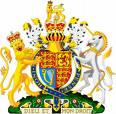


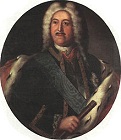
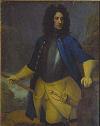
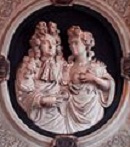

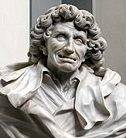



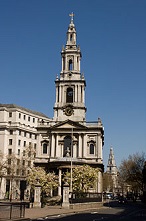
1714 On Mar. 2 (Feb. 19 Old Style) the Finnish army under Swedish gen. Carl Gustaf Armfelt (1666-1736) is crushed by the Russian army at the Battle of Napue (Storkyro) (Isokryo) near the Storkyro River in Finland, ending Swedish control and starting the Greater Wrath (Russian occupation of Finland) (ends 1721); Russian field marshal Mikhail Mikhailovich Golitsyn (Galitzine) (1675-1730) becomes Russian gov. of Finland (until 1721). On Mar. 7 France signs the Treaty (Peace) of Rastatt with HRE Charles VI of Austria in his own name, returning Freiburg and Breisach to the HRE, followed on Sept. 7 by the Treaty of Baden (Switzerland) in the name of the empire, ending hostilities with France; Austria takes possession of the Spanish Netherlands with a barrier agreed on for Holland, and is restored to Naples, Sardinia and Milan; the electors of Bavaria and Cologne have their bans of the empire removed and are reinstated; France keeps Strasbourg, Alsace and Landau; the HRE still refuses to recognize the Bourbons in Spain, and their war continues until 1720. On June 26 Spain and the Netherlands formalize their peace. In July the English Parliament passes the Longitude Act, creating a Board of Longitude (Commissioners for the Discovery of the Longitude at Sea) to create an Apollo Project to make an accurate chronometer so that the British Navy can create the empire where the Sun never sets, with a 20K pound reward offered. On July 20 the Bridge of San Luis Rey falls, killing Esteban, Uncle Pio, Marquesa de Montemayor, Pepita, and Jami; Franciscan Brother Juniper investigates - 1927 Thornton Wilder novel. In July Viscount Bolingbroke gives up trying to ditch Robert Hartley for the time being, and begins a plot to form a ministry favoring a Jacobite succession; too bad that Queen Anne's sudden death foils him? On Aug. 1 after a 1-mo. crisis occasioned by her impending death, Queen (since Mar. 8, 1702) Anne (b. 1665), last of the Stuart dynasty dies childless, and after some shenanigans where the earl of Oxford is fired as lord treasurer on July 29 and Lord Shrewsbury (who became lord lt. of Ireland last year and hurries back) is appointed in his place on July 30, going on to throw his weight in favor of the elector of Hanover and against James II and the Jacobites, she is succeeded by the eldest son of Electress Sophia of Hanover, granddaughter of James I through his daughter Elizabeth Stuart (1596-1662) (Queen Elizabeth of Bohemia) and Palatine Elector Frederick V (1596-1632), 54-y.-o. genuine Kraut George Louis, elector of Hanover, who becomes George (Georg) I Ludwig of Hanover (1660-1727) (the 50th British monarch) (until June 22, 1727), landing in England on Sept. 18; the Stuart Dynasty (founded 1371) ends, and the Hanover, Saxe-Coburg, and Windsor Dynasty begins (ends ?); George I never learns to speak or read English, and comes to England without his wife but with three German mistresses and a retinue of Germans; his cousin-wife Sophia Dorothea of Celle (1666-1726) was imprisoned for an affair in 1794, and remains in captivity in the Castle of Ahlden until her 1726 death; his friend Gottfried Wilhelm Leibniz, who helped angle him into power is snubbed because of the big Calculus dispute with Isaac Newton, and he is forbidden to come to London until he finishes a history of the Brunswick family commissioned by his father 30 years earlier; the Whigs regain control of Parliament, and George I appoints a mostly Whig cabinet led by Lord Townshend; Robert Walpole, a strong Hanoverian is restored to his fortune; on Aug. 28 George deposes Viscount Bolingbroke and reinstates the duke of Marlborough; Robert Harley is succeeded by as PM (until 1715); by now the cabinet is assuming its modern form as a committee of leaders of the majority in Parliament that takes the blame for the king's policy mistakes, as his royal personage is sacred and inviolable and somebody's head must always roll? On Nov. 11 King Karl (Charles) XII returns from captivity in Turkey to Stralsund, Sweden and ends attempts to replace him. On Dec. 9 the Seventh Ottoman-Venetian War (ends 1718) begins when the Ottoman Empire declares war on Venice after they seize an Ottoman ship belonging to grand vizier Damad Hasan Pasha and grant sanctuary to Montenegro Prince-Bishop Danilo I, assembling an army of 70K in Macedonia along with 80 ships under Adm. Canum Hoca to take on Venice's 80K men and 42 ships under Capt. Daniel Delfin. James Butler, 2nd duke of Ormonde is dismissed as CIC of the British armies, and is impeached for his Jacobite sentiments, causing him to flee to France then Spain. The Schism Act is passed in England (until 1719), stopping Dissenters from running schools or doing private tutoring. Witch trials are abolished in Prussia. Kev Fa III (Ang Im) (d. 1722) becomes king of Cambodia. The British Board of Trade enters a long period of lethargy (until 1748), its eight parliamentary members regarding it as a sinecure. George Augustus (George II) and his wife Caroline of Anspach come to London with George I, and her home becomes a trendy place for Alexander Pope, Lord Chesterfield, John Gay, Lord Hervey, and other deep thinkers and cool cats. Natchitoches (pr. NAK-uh-tush) in French La., named after the Natchitoches Indian tribe is founded by French capt. Louis Antoine Juchereau de St. Denis (1674-1744), becoming the oldest permanent settlement in the La. Purchase; the sister city of Nacogdoches, Tex. (pr. naka-DOE-shis), named after the Caddo family of Indians is founded in 1716 as a church. French Baroque organist-composer Michel Richard de Lalande (1657-1726), tutor of the daughters of Louis XIV becomes dir. of the French chapel royal (until 1726), going on to please his royal boss by composing almost 80 grand motets, sacred music written for choir, soloist, and large orchestra. Young Benjamin Franklin (b. 1706) attends Boston Latin public school. William Northmore loses his entire $850K fortune playing cards, and the townspeople of Okehampton, England feel so sorry for him that they elect him to Parliament every year from this year until his death. Worcester College at Oxford U., named after benefactor Sir Thomas Cookes, 2nd Baronet (1648-1701) of Worcestershire is founded by refurbishing Gloucester Hall (founded in 1283 for Benedictine monks, and dissolved in 1539), becoming known for its quaint medieval cottages. The Mercury is founded in Norwich, becoming the oldest English newspaper to survive to modern times (until 1872). The Princess of Palatine remarks that Chinese tea is as fashionable in Paris as chocolate is in Spain; meanwhile tea is introduced to the Am. colonies; French tea lovers incl. Louis XIV, Cardinal Mazarin, royal minister Pierre Seguier, playwright Racine, and writer Madame de Genlis; later the salonist Marguerite de la Sabliere (Sablière) (Hessein) (1640-93) introduces the fashion of adding milk (to prevent her eggshell teacups from cracking?), which is quickly adopted by the English. Architecture: In Feb. after returning to London from Rome in Nov. 1708, where he studied under Carlo Fontana, Aberdeen, Scotland-born architect James Gibbs (1682-1754) begins the £16K St. Mary le Strand Church in Westminster, London (finished Sept. 1717, consecrated Jan. 1, 1723), becoming the first completed for the Commission for Building Fifty New Churches; the Italianate interior is inspired by Luigi Fontana and Michelangelo, and the steeple is influenced by Sir Christopher Wren; too bad, after a great quantity of stone purchased for a statue of Queen Anne is ordered to be reused after her 1714 death, he ends up extend the ground plan N-S, making it oblong, and add extravagant Baroque ornamentation, pissing-off critics esp. after a decorative urn falls on a passerby during a procession in 1802; either way, the bldg. makes Gibbs a star. Gabriel Boffrand designs the Hotel de Torcy in Paris; in 1803 it is acquired by Eugene de Beauharnais, who rebuilds it in the Empire style, becoming the Hotel Beauharnais, later becoming the official residence of the German ambassador. After he croaks on July 4, the Magliabechiana Library in Florence is founded by bibliophile scholar-librarian Antonio di Marco Magliabechi (Magliabecchi) (1633-1714) (librarian to Grand Duke Cosimo III de' Medici of Tuscany since 1673), who bequeaths his 40K-vol. library; in 1743 a law requires every work pub. in Tuscany to have a copy submitted; in 1747 it is opened to the public; in 1861 its holdings are merged by Victor Emmanuel II with the Biblioteca Palatina grand ducal private lirary; in 1870 it collects copies of all Italian pubs.; in 1885 it is renamed the Nat. Central Library of Florence (BNCF). Inventions: French surgeon Dominique Anel (1679-1730) invents the fine-point Anel Syringe. Daniel Gabriel Fahrenheit (1686-1736) of Danzig invents the 32-212 temperature scale for his new mercury thermometer; mercury solidifies at -39 C. The first crude typewriter is patented by Henry Mill (1683-1711) in England. Nonfiction: Gottfried Arnold, Unpartheyische Kirchen und Ketzer-Historie (3 vols.). Justus Bohmer (1674-1749), Jus Ecclesiasticum Protestantium. Dimitrie Cantemir (1673-1723), Description of Moldavia. Francois Fenelon (1651-1715), Letter to the French Academy; the relationship between lit., politics and religion. Alexander Helladius, The Current Status of the Greek Church (Status Proesens Ecclesiae Graecae); lambastes those who translate the Bible into vernacular Greek - like the apostles spoke? Gottfried Wilhelm von Leibniz (1646-1716), La Monadologie; pub. posth.; 90-paragraph philosophical magnum opus that proposes that the Universe is composed of eternal, indecomposable, irreducible elementary particles ("substantial forms of being") with blurred perceptions of each other, which can be compared to Descartes' corpuscles, never interacting but each reflecting the entire Universe in a pre-established harmony (little mirrors of the Universe); monads are the true centers of all force, while space, matter, and motion are mere phenomena; too bad, he considers each human being to be a monad in an attempt to overcome the mind-matter and free will problems. Isaac Newton (1643-1727), Opticks; advances the corpuscular theory of light; Query 31 questions whether gravity can be responsible for chemical attraction, admitting it "not improbable but that there may be more attractive Powers than these. For Nature is very constant and conformable to Herself" - he misses electricity by just that much? John Oldmixon (1673-1742), Arcana Gallica, or the Secret History of France for the Last Century. Adriaan Reland (Hadriani Relandi) (1676-1718), Palestina ex Monumentis Veteribus Illustrata; based on his tour of Palestine, in which he surveyed 2.5K places mentioned in the Bible or Mishnah, drawing a map and taking a census; he finds that most of Palestine is desolate, with most of the pop. concentrated in Jerusalem, Acre, Tzfat, Jaffa, Tiberius, and Gaza, and most of them Jews, with Christians being #2; the few Muslims he sees are nomad Bedouins, with 120 Muslims of the Natsha family and 70 Shomronites living in Nablus (Shchem), the most he finds in one place; in contrast, 700 Christians live in Nazareth in Galilee, and 5K live in Jerusalem, mostly Jews, with some Christians; Gaza has 550 residents, 50% Jews, and most of the rest Christians; Tiberius and Tzfat are mostly Jewish. Music: Reinhard Keiser (1674-1739), L'Inganno Federle oder Der Getreue Bertrug (opera) (Hamburg). Plays: Susanna Centlivre (1667-1723), The Wonder: A Woman Keeps a Secret; dedicated to George I. Prosper Jolyot de Crebillon (1674-1762), Xerxes; flops after one perf. Alexander Pope (1688-1744), The Wife of Bath. Nicholas Rowe (1674-1718), The Tragedy of Jane Shore (Drury Lane, London) (19 perf.); stars Mrs. Oldfield. Poetry: Susana Centlivre (1667-1723), A Woman's Case. John Gay (1685-1732), The Fan; The Shepherd's Week (pastoral). Edward Young (1683-1765), The Force of Religion; or Vanquish'd Love; on the execution of Lady Jane Grey and her hubby; On the Late Queen's Death and His Majesty's Accession to the Throne; praises the new king indecently soon? Births: English surgeons (co-founder of orthopedics) Percivall Pott (d. 1788) on Jan. 6 in London. French Rococo sculptor Jean Baptiste Pigalle (d. 1785) on Jan. 26 in Paris. English lord chancellor Charles Pratt, 1st Earl of Camden (d. 1794) on Mar. 21; 3rd son of Sir John Pratt (1657-1725); Camden, N.J. is named after him. Portuguese king (1750-77) Joseph (Jose) I (the Reformer) (d. 1777) on June 6 in Ribeira Palace, Lisbon; son of John V (1689-1750). German classical-Rococo "Orfeo ed Euridice" opera composer Christoph Willibald Ritter von Gluck (d. 1787) on July 2 in Erasbach (Berching), Bavaria; music teacher of Marie Antoinette and Antonio Salieri. Welsh "Lake Avernus" painter ("Father of British Landscape Painting") Richard Wilson (d. 1782) on Aug. 1 in Penegoes, Montgomeryshire. French painter Claude-Joseph Vernet (d. 1789) on Aug. 14. French sensationalist philosopher Abbe Etienne Bonnot de Condillac (d. 1780) on Sept. 30 in Grenoble; brother of Gabriel Bonnot de Mably (1709-85); can't read till age 12+. English "The Schoolmistress" poet William Shenstone (d. 1763) on Nov. 13 in Halesowen, Worcestershire. English "Calvinist Methodist" evangelist (cross-eyed) George Whitefield (d. 1770) (pr. WHIT-field) on Dec. 16 inu Gloucester; educated at Pembroke College, Oxford U. American scientist ("Father of Seismology") John Winthrop (d. 1779). German harpsichordist-composer Carl (Karl) Philipp Emanuel Bach (d. 1788) in Weimar; 2nd son of J.S. Bach (1685-1750). Deaths: German electress-dowager Sophia of Hanover (b. 1630) on June 8 in Herrenhausen, Hanover. Italian bibliophile scholar-librarian Antonio Magliabechi (b. 1633) on July 4 in Florence. Italian physician Bernardino Ramazzini (b. 1633) on Nov. 5 in Padua. German duke of Brunswick-Luneburg (1685-1714) Anthony Ulrich (b. 1633) on Mar. 27 in Salzdahlum. English colonial gov. Sir Edmund Andros (b. 1637) on Feb. 24 in London. Austrian economist Philipp von Hornigk (b. 1640) on Oct. 23 in Passau. English astrologer John Partridge (b. 1644) (d. 1715?). French economist Pierre Le Pesant, Sieur de Boisguillebert (b. 1646) on Oct. 10. English royal physician John Radcliffe (b. 1652). English economist-politician Charles Davenant (b. 1656) in London. Welsh minister Matthew Henry (b. 1662) on June 22 in Nantwich (apoplexy); dies while en route from Chester to London. German architect Andreas Schluter (b. 1664) in May. English queen (1702-14) Anne (b. 1665) on Aug. 1 in Kensington Palace, London.



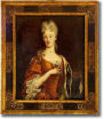

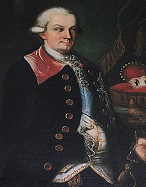
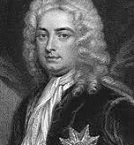

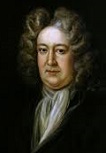

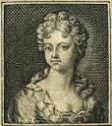

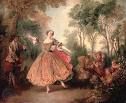

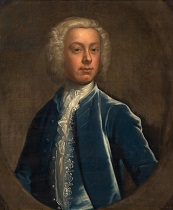

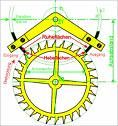


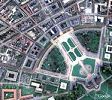
1715 The Maunder Minimum (period of low sunspot counts) ends (began 1645). Early in the year an election in England returns a large Whig majority to the House of Commons; the first Parliament of George I convenes, and proceeds to impeach Bolingbroke and other leading Tories, causing many Tories to join the Jacobites in their impending First Jacobite Rebellion which begins when widespread dissatisfaction with an alien Kraut king causes riots in England, causing the Riot Act to be passed in June, empowering a justice of the peace to read 12 or more persons the act, giving them 1 hour to disperse or become guilty of a felony; Tory support for the rebellion causes the Whigs to gain an ascendancy in Parliament until the reign of George III, starting with Charles Howard, 3rd Earl of Carlisle (1669-1738), who replaces Charles Montagu, 1st earl of Halifax, from May 23 to Oct. 10, and is then replaced by Robert Walpole (1676-1745) as chief minister of the British cabinet (chancellor of the exchequer and first lord of the treasury) (until 1717), where he becomes known as Cock Robin, founder of the Robinocracy; too bad, although Louis XIV had promised to help the Old Pretender, his death causes loss of French support, and Bolingbroke flees to France, while his Catholic fence-sitting friend Alexander Pope manages to equivocate enough (and pay enough bribes?) to remain and collect his huge Homer royalties. In Feb. after Italian Cardinal Giulio Alberoni (1664-1752) becomes effective ruler of Spain (until 1719), the Treaty of Madrid makes peace between Spain and Portugal. In Mar. Viscount Bolingbroke flees to France, and in Aug. is attainted, preventing him from returning to England until 1722; in France he becomes the secy. of state to English Old Pretender James Francis Edward Stuart. On Apr. 22 there is a total solar eclipse in London, and rising-star Edmond Halley sells maps predicting its path. On July 24 (Wed.) the 12-ship 1715 Spanish Treasure Fleet, biggest in history, carrying a huge load of treasure stored during the Spanish War of Succession (which left Spain bankrupt, but was too risky to attempt to transport) leaves Havana to act as dowry for sexually-denerate Philip V's wedding to Elizabeth Farnese (1692-1766); too bad, on July 31 it runs into a hurricane and is wrecked off the Fla. coast near modern-day Vero Beach, killing 1K sailors, after which only 30% of the treasure is recovered, the rest becoming known as the Queen's Dowry; Farnese goes through with the marriage, then virtually rules Spain through pussy power? On Aug. 12 English poet laureate (since 1692) Nahum Tate (b. 1652) dies after calling bard John Dryden a modern "Asaph" (1 Chron. ch. 25), and Nicholas Rowe (1674-1718), who produced eight plays between 1700-14 becomes poet laureate of England (until Dec. 6, 1718); "Guilt is the source of sorrow/ 'tis the fiend, Th' avenging fiend,/ that follows us behind, With whips and stings" (Rowe). It's 1715, so it's time for Louis 15? On Sept. 1 the "Grand Monarque", big-wigged French Bourbon Sun King Louis XIV the Great (b. 1638) dies after an unprecedented reign of 72 years 4 mo. (since May 14, 1643) (3 x 24), and his 5-y.-o. great-grandson Louis XV (the Well-Beloved) (1710-74) (well-laid?) succeeds him as French Bourbon king #4 (until May 10, 1774) (a mere 58 years 8 mo.); on Sept. 2 Louis XIV's will creating a regency council is voided by the French parliament, which gives Louis XIV's nephew Philippe II, Duke of Orleans (1674-1723) full powers as regent (until 1723); the royal court moves from Versailles to Paris, the French nobility begins to regain its power and enjoy the frivolous life, as captured by painter Nicolas Lancret (1690-1743), the monarchy loses the power of taxation, and things lighten up a bit; as the saying goes, "It's the time of the regency and we can do everything except penance"; the ban on Italian comedy is lifted; Rococo painter Antoine Coypel (1661-1722), son of Noel Coypel becomes court painter; the Baroque style begins to go out in favor of the Rococo (Fr. "rocaille" = rock work) (light Baroque) style; Louis XV grows up a superstitious skirt-chaser known for his many mistresses (Duchess of Chateauroux, Madame de Pompadour, Madame du Berry), while female hairstyles turn into lofty curl constructions stiffened with wire and topped by flowered and plumed caps or hats; Bourbon king Philip V of Spain begins to scheme for the throne of France, while Charles VI of Austria covets the throne of Spain. In Sept. Jacobite noble "Bobbing John" Erskine, 6th Earl of Mar leads an uprising of "the Fifteen" in Scotland, who want to put the Old Pretender James III on the British throne, and in Dec. he arrives from France at Peterhead; too bad, on Nov. 13 they are defeated at the Battle of Sheriffmuir and the Battle of Preston; the Macrae Clan is hit especially hard; meanwhile James Butler, 2nd duke of Ormonde (d. 1745) leads an unsuccessful Jacobite invasion of England from Spain, causing Parliament to confiscate his estates next year, and he spends the rest of his life at the Spanish court. On Nov. 15 at the Battle of Stresow on the Island of Rugen, the Allied army under Prince Leopold of Anhalt Desau defeats the Swedes under Charles XII; Strasland falls on Dec. 24. The Turks under Ahmed III retake the Peloponnesus (Morea) and the Ionian Isles (except Corfu) from Venice; Timus is the last to fall. Mir Vays dies, and his son Mir Abdullah Mahmud becomes ruler of Kandahar (Qandahar), plotting to invade Safavid Persia. After the 4th Lord Baltimore becomes Anglican, the colony of Md. reverts from a royal colony to proprietary status. The Yamasee and allied Indian tribes in S.C. revolt, and are driven into Spanish Fla. The Otomi people of C Mexico (modern-day states of Queretaro, Guanajuato, Hidalgo, Michoacan, and Mexico), known for shorter stature and darker color than neighboring tribes, and a monosyllabic language are finally subdued by the Spanish. Riots and demonstrations for James III the Old Pretender cause the Whig English Parliament to pass the Septennial Act of 1715/1716, lengthening its term from three to seven years, giving them more time to deal with the Jacobites and enjoy their domination. French Protestant reformer Antoine Court (1696-1760), who addresses audiences of 10K and more convokes the first Synod of the Desert - when the weight of the world is upon you? His father failing to send him to Harvard, young Benjamin Franklin attends George Brownell's school in Boston, where he excels in writing but fails in math; his two years of schooling end. Italian Jesuit Giuseppe Castiglione (1688-1766) arrives in China, influencing Chinese painting with his unique Euro blend. Karlsruhe (Carlsruhe) (Ger. "Charles' rest") in Wurttemberg-Baden, Germany 5 mi. E of the Rhine River 30 mi. W of Stuttgart is founded by Swedish-born Charles Louis, Hereditary Prince of Baden (1755-1801), with streets radiating like spokes from the Palace (Schloss). Vaudevilles first appear in Paris. Irish actor James Quin (1693-1760) appears for first time in Drury Lane in London as Bajazet in Nicholas Rowe's "Tamerlane". King George I of England donates a valuable library to Cambridge U., and dispatches a regiment to Oxford U.; "One was a learned body in need of loyalty, the other was a loyal body in need of learning." Architecture: After HRE Charles VI fulfills a vow made during the 1713 Black Plague sweeping Vienna to build a church dedicated to his namesake St. Charles Borromeo, Fischer von Erlach begins the Karlskirche in Vienna (finished 1739). The first dock in Liverpool, England is built. Ft. Michilimackinac is built by the French overlooking the Straits of Mackinac between Lake Huron and Lake Michigan. Sports: Thomas Doggett founds an annual 4 mi. 5 furlong (7.4km) rowing race on the Thames River between London Bridge and Cadogan Piere in Chelsea for six apprentice watermen, awarding Doggett's Coat and Badge to the winner, becoming the oldest rowing race and prize on Earth. Inventions: George Graham (1673-1751) of London invents the Graham Deadbeat Escapement, improving the accuracy of pendulum clocks. John Lethbridge of England invents a wood-leather diving suit for salvage work. Sybilla Masters (-1720) becomes the first American to be granted an English patent, for a corn-grinding mill; the patent is issued in her husband Thomas' name - I need a lover who won't drive me crazy? Nonfiction: Colen Campbell (1676-1729), Vitruvius Britannicus, or, The British Architect (3 vols.) (1715-25); first original architectural work pub. in England since John Shute's "First Groundes"; a student of James Smith disses the "excesses" of Baroque style and declares British independence from Europe, dedicating the work to George I of England, popularizing neo-Palladian Architecture in Britain and British Am., making him a star, riding on a boom in country house and villa building among the Whig oligarchy. Pierre Francois Xavier de Charlevoix (1682-1761), Histoire de l'établissement, du progrès et de la décadence du Christianisme dans I'empire des japons. John Dennis (1657-1734), Remarks Upon Mr. Pope's Translation of Homer; A True Character of Mr. Pope. Elizabeth Elstob (1683-1756), Rudiments of Grammar for the English-Saxon Tongue; first work on the subject in English; the preface "An Apology for the Study of Northern Antiquities" disputes Jonathan Swift, causing him to change his views; too bad, her brother and fellow scholar William Elstob (1673-1715) dies, leaving her in debt, causing her to have to give up her studies for nanny work. Giacomo Leoni (1686-1746), The Architecture of A. Palladio, in Four Books (4 vols.) (1616-20); the first English translation of Palladio's "Four Books on Architecture", becoming a big hit despite being filled with flaws, popularizing Palladian (Georgian) architecture in England and making it the std. until the advent of Robert Adam's Neoclassicism. Bernard de Mandeville (1670-1733), The Fable of the Bees; or, Private Vices, Publick Benefits; incl. the poem The Grumbling Hive; or, Knaves turn'd Honest, first pub. in 1705; a hive of greedy self-centered bees thrive until they begin seeking individual honesty and virtue, proving that without private vices there can be no public benefit; also incl. An Enquiry into the Origin of Moral Virtue; popular exposition of Underconsumption Theory, which claims that prosperity is increased by spending rather than saving; too bad, its attack on Christian virtues incl. temperance causes it to be convicted as a nuisance in 1723, and underconsumption theory to be ignored until Thomas Malthus' Principles of Political Economy (1820); repub. in 1723 with An Essay on Charity and Charity Schools and A Search into the Nature of Society; claims that charity schools don't reform the poor since it only makes them want material things and become as corrupt as the educated and wealthy. John Oldmixon (1673-1742), Memoirs of North Britain. Humphrey Prideaux (1648-), The Old and New Testament Connected in the History of the Jews and Neighbouring Nations: From the Declension of the Kingdoms of Israel and Judah to... (1715-7); uses the term "Vulgar Era", first used by Johann Kepler in 1635. Brook Taylor (1685-1731), Methodus in Crementorum Directa et Inversa; announces the discovery of the calculus of finite differences, and Taylor Series. Isaac Watts (1674-1748), Divine Songs for Children; incl. I Sing the Mighty Power of God. Music: G.F. Handel (1685-1759), Amadigi di Gaula (opera) (Haymarket Theatre, London) (May 25); stars castrato Nicolo Grimaldi. Reinhard Keiser (1674-1739), Fredegunda (opera) (Hamburg); L'Amore Verso la Patria oder Der Sterbende Cato (opera) (Hamburg). Art: G.B. Tiepolo, Sacrifice of Isaac. Plays: Henry Carey (1687-1743), The Contrivances (first play). Susanna Centlivre (1667-1723), The Gotham Election; satire of bribery in Parliamentary elections, pissing-off the mgrs. of Drury Lane, who ban it, so that it first debuts in 1724 at the Haymarket Theatre. John Gay (1685-1732), The What D'ye Call It. Gian Vencenzo Gravina, Della Tragedia. Pieter Langendijk, Krelis Louwen of Alexander de Groote op het Poeettmaal; De Wiskenstenaars of 't Gevluchte Juffertje. Nicholas Rowe (1674-1718), The Tragedy of Lady Jane Grey; a flop, causing him to give up playwriting. Poetry: John Gay (1685-1732), Rural Sports. Alexander Pope (1688-1744) (tr.) Homer's Iliad (6 vols.) (1715-20); "A peformance which no age or nation could hope to equal" (Dr. Samuel Johnson); "It is a pretty poem, Mr. Pope, but you must not call it Homer" (Richard Bentley). Matthew Prior (1664-1721), Solomon, or The Vanity of the World; Alma, or The Progress of the Mind. Novels: Alain-Rene Lesage (1668-1747), L'Histoire de Gil Blas de Santillane (4 vols.) (1715-35); #1 French picaresque novel. Births: French anti-religious hedonist materialist utilitarian philosopher (Freemason) Claude Adrien Helvetius (Helvétius) (d. 1771) on Jan. 26 in Paris; born to a family of physicians originally named Schweitzer (Ger. "Swiss"); husband (1751-) of Anne-Catherine de Ligniville, Madame Helvetius (1722-1800); appointed royal tax collector in 1738, making 100K crowns/year, allowing his wife to maintain a popular salon in Paris; known for her clowder of pampered Angora cats. English richest woman in Britain Margaret Cavendish Bentinck, Duchess of Portland (d. 1785) on Feb. 11 in Welbeck Abbey, Nottinghamshire; only child of the 2nd earl of Oxford and Mortimer and Lady Henrietta Holles (1694-1755); grows up in Wimpole Hall, Cambridgeshire; wife of William Bentinch, 2nd duke of Portland (1709-62); mother of William Cavendish-Bentinck, 3rd duke of Portland (1738-1809); great-great-great-great-grandmother of Elizabeth II. English "The School for Lovers" playwright and poet laureate (1757-85) William Whitehead (d. 1785) on Feb. 12 in Cambridge; educated at Clare College, Cambridge U. French engraver-printmaker-critic Charles-Nicolas Cochin II (the Younger) (d. 1790) on Feb. 22 in Paris; son of Charles-Nicolas Cochin the Elder (1688-1754) and Louise-Magdeleine Horthemels (1686-1767). Am. landowner Ephraim Williams Jr. (d. 1755) on Mar. 7 (Feb. 24, 1714 Old Style) in Newton, Mass. German poet Ewald Christian von Kleist (d. 1759) on Mar. 7 in Zelin (near Koslin), Pomerania. Spanish sign language inventor (Jewish) Jacob Rodrigues Pereira (Jacob Rodrigue Pereire) (d. 1790) on Apr. 11 in Peniche; of Marrano Portuguese descent; grandfather of Emile Pereire (1800-75) and Isaac Pereire (1806-80); emigrates to France in 1741. German poet Christian Furchtegott (Fürchtegott) Gellert (d. 1769) on July 4 in Hainichen, Saxony; educated at Leipzig U. French Physiocratic economist (coiner of the term "mercantilism") Victor de Riquetti, Marquis de Mirabeau (d. 1789) on Oct. 15 in Pertuis; father of Comte de Mirabeau (1749-91). Russian Romanov tsar #7 (1727-30) Peter II (d. 1730) on Oct. 23 in St. Petersburg; only male-line grandson of Peter I the Great (1672-1725). German banker Johann Philipp Bethmann (d. 1793) on Nov. 30 in Nassau; eldest son of Simon Moritz Bethmann (1687-1725); brother of Simon Moritz Bethmann (1721-82); father of Simon Moritz (1768-1826). Russian gen. Count Gottlieb Curt Heinrich von Tottleben (d. 1773) on Dec. 21 in Tottlebe, Thuringia, Saxony. Irish fur trader and British maj. gen. Sir William Johnson, 1st Baronet (d. 1774) in Smithtown, County Meath; emigrates to British Am. in 1737; supt. of affairs of the Six Nations 1744-55; supt. of Indian affairs N of the Ohio River 1755-74; founder (1762) of Johnstown, N.Y. British adm. Sir Charles Saunders (d. 1775); not to be confused with Sir Charles Edward Saunders (1867-1937). French philosopher Etienne Bonnot de Condillac (d. 1780). English poet Richard Jago (d. 1781). French marshal Charles de Rohan, Prince de Soubise (d. 1787); inventor of soubise (onion-butter sauce). English engineer-physicist William Watson (d. 1787). French explorer +Francois de La Verendrye (Vérendrye) (d. 1794) in Sorel; 3rd son of Pierre de la Verendrye (1685-1749); brother of Louis-Joseph de La Verendrye (1717-61). Scottish deaf-mute teacher Thomas Braidwood (d. 1806) in Hillhead Farm, Covington, Lanarkshire; educated at Edinburgh U.; opens the first school for deaf-mutes in the British Empire, at Hackney near London (1760); uses the Heinicke "sound" lip-reading system. Deaths: French king (1643-1715) Louis XIV (b. 1638) on Sept. 1; his stomach is discovered to be twice normal size, which isn't surprising considering his typical dinner is four plates of soup, a pheasant, a partridge, two slices of ham, garlic mutton, salad, pastry, fruit, and hardboiled eggs. French philosopher Nicolas Malebranche (b. 1638). French winemaker Dom Pierre Perignon (b. 1639). French "The Thousand and One Nights" writer Antoine Galland (b. 1646) on Feb. 17. French anti-establishment Catholic prelate-writer Francois Fenelon (b. 1651) on Jan. 7 in Cambrai English 3-times-around-the-world Alexander-Crusoe-rescuing bestselling privateer William Dampier (b. 1651) in Mar. in London; his writings later turn on Charles Darwin and Alexander von Humboldt, his innovations are adopted by James Cook and Horatio Nelson, his reports on breadfruit lead to the Mutiny on the Bounty voyage, his writings on Panama inspire the Darien Scheme, his writings on NW Australia lead to the naming of and colonization of Botany Bay, and the OED later cites him over 1Kx on words incl. barbecue, avocado, and sub-species; Jonathan Swift parodies him in Part 4 of "Gulliver's Travels". Irish poet Nahum Tate (b. 1652) in Southwark, London. English statesman-poet Charles Montagu, 1st Earl of Halifax (b. 1661) on May 19; dies without a male heir. English scholar-divine William Elstob (b. 1673).

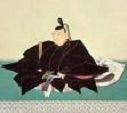




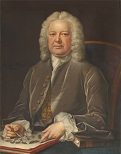

1716 In Feb. the British and Dutch sign a commercial treaty. In Feb. John Campbell, duke of Argyll (Argyle) disperses the Jacobite troops without a battle, and Old Pretender James III flees to France; the Jacobite leaders are impeached, and Dernwentwater and Kenmure are executed on Feb. 25. On Apr. 5 HRE Charles VI of Austria declares war on Turkey; on Aug. 5 Prince Eugene of Savoy (Savoy-Carignan) (1663-1736) defeats the Turks in the Battle of Peterwardein (Petrovaradin) in Serbia; in mid-Oct. the Banat capital of Temesvar, the last Turkish bastion in Hungary (taken in 1552) falls, after which in 1718 all the Jews are expelled as spies. In May the Septennial Act of 1715 prolongs Parliament's life from three to seven years to guard against possible Jacobite uprisings. In May John Law founds the Banque Generale Privee (Gen. Private Bank), the first bank in France, with royal banking decrees that the bank's notes can be used to pay taxes; in 1715 he moves to Paris and secures the patronage of the duke of Orleans. In June the Treaty of Westminster between England and Austria is a mutual defense pact. On Aug. 24 John Knox (b. ?) (not the preacher who died in 1572) is executed for treason in Perth, Scotland after uttering some famous last words. On Nov. 28 after entering the Great Northern War against Sweden following Peter the Great's 1709 defeat of Charles in the Ukraine, Holland negotiates a Second Triple Alliance against Sweden with England and France, and the Dutch sign it at The Hague next Jan. 4. Peter the Great visits Europe for the 2nd time. Shogun (since 1712) Iyetsugu (b. ?) dies, and Tokugawa Yoshimune (1684-1751) becomes shogun #8 of Japan (until 1745). Speaking of sinking treasure fleets? The Sinking Fund Act is passed by the British Parliament as a way to pay off the debt of the Bank of England. The first black slaves are brought to the Louisiana territory. An Englishman obtains a license to extract oil from sunflowers for use in the weaving and tanning industries. English porno publisher Edmund Curll falsely attaches poet Alexander Pope's name to a collection of poems, causing the latter to respond by pub. A Strange But True Relation How Edmund Curll Was Circumcised, claiming that he converted to Judaism to become rich, but was "too much circumcised, which by the levitical law, is worse than not being circumcized at all," causing them to "cast him forth from their synagogue, and he now remains a most piteous, woeful and miserable sight." China prohibits Christian religious teaching. In 1716 the province of Chianti in C Tuscany, Italy between Florence and Sienna becomes an official wine-producing region, defined as the area around the villages of Gaiole, Castellini, and Rada; in 1932 it is redrawn and divided into seven sub-areas, incl. Classico, Colli Aretini, Colli Fiorentini, Colline Pisane, Colli Senesi, Montalbano, and Rufina; they have been producing wine since the 14th cent; it is traditionally sold in a squat bottle in a straw basket (It. "fiasco"), with a black rooster (gallo nero) seal. Mineral waters are discovered in Cheltenham, England. The Royal Regiment of Artillery is founded in England. Diario di Roma, the first Italian newspaper begins pub. The Historical Register begins pub. (ends 1738). The Collegiate School of America (later Yale U.) relocates to New Haven, Conn. 10-y.-o. Benjamin Franklin leaves school to work in his father's candle and soap shop in Boston. The first co. of English actors is formed in Williamsburg, Va., opening the first theater in British Am. - Shakespeare's not welcome in New England? Poltergeist phenomena are reported in Epworth Old Rectory in Lincolnshire, England, home of Methodism founders John Wesley (1703-91) and Charles Wesley (1707-88). Architecture: On Sept. 14 the Boston Light on Little Brewster Island, Mass. in outer Boston Harbor begins operation, becoming the first lighthouse in the U.S.; on Nov. 3, 1718 lighthouse keeper George Worthylake (1673-1718) drowns along with his wife and daughter en route to the island; during the Am. Rev. the British capture and hold it, surviving two rebel attacks, who burn it each time, after which they withdraw in 1776 and blow it up, after which the lighthouse is rebuilt in 1783 to the original 75-ft. height, then raised to 98 ft. in 1856; it is automated in 1998. The Amber Room (Bernsteinzimmer), constructed in 1701-9 in Charlottenburg Palace, Prussia is given by Friedrich Wilhelm I to Tsar Peter the Great, becoming known as "the Eighth Wonder of the World". Baroque St. George's Church in S Bloomsbury, London, designed by architect Nicholas Hawksmoor (1661-1736) is begun (consecrated Jan. 28, 1730); his 6th and last London church; Victorian novelist Anthony Trollope is baptized there in 1824. Spain begins establishing Roman Catholic missions in East Tex., starting with Mission Senora de la Purisima Concepcion de los Ainais on the Angelina River, serving the Ainais tribe until the French threat causes them to close it and reopen it in 1721, then move it to Austin, Tex. in 1730 followed by San Antonio, Tex. in 1731 as Mission Nuestra Senora de la Purisima Concepcion de Acuna; in 1716 Mission San Jose de los Nazonis is established near modern-day Cushing, Tex., moving in 1730 to San Antonio as San Juan Capistrano; in 1716 Mission Nuestra Senora de Guadalupe de los Nacogdoches is established in East Tex. to serve the Nacogdoche tribe, later becoming the town of Nacogdoches, Tex.; in 1716-17 Mission San Miguel de Linares de los Adaes is established 20 mi. W of the French fort at Natchitoches, La. to serve the Adaes tribe; in 1717 Mission Nuestra Senora de los Dolores de los Ais is established near modern-day San Augustine, Tex. to serve the Ais tribe, moving to San Antonio in 1719; on May 1, 1718 Mission San Antonio de Valero is established on the San Antonio River by Father Antonio de Olivares and New Spain viceroy Marquis de Valero, becoming known as the Alamo in 1744. Science: After being brought in by brain babe Princess Caroline of Ansbach (wife of future George II), English philosopher-clergyman Samuel Clarke (1675-1729) begins the Leibniz-Clarke Correspondence with aging Gottfried Wilhelm von Leibniz (ends 1716), which incl. a famous debate on absolute vs. relative space, with Clarke on the absolute (Newton's) side, maintaining that space is not a substance but an attribute of a self-existent infinite spiritual supreme being - a galactic computer program inside God's mind? Edmund Halley pub. an account of nebulae. Cotton Mather describes the first plant hybridization, of Indian corn by yellow corn; he also predicts that the world will end this year - 17-16 = Matherian Fever? Music: Francois Couperin (1668-1733), L'Art de Toucher le Clavecin (The Art of Harpsichord Playing); suggestions for keyboard technique when playing his 4 vols. of harpsichord music (230 pieces) pub. in 1713, 1717, 1722, and 1730, which influence Johannes Brahms et al.; "The poet musicianp par excellence", who believed in "the ability of Music [with a capital M] to express itself in prose and poetry", and that "if we enter into the poetry of music we discover that it carries grace that is more beautiful than beauty itself." (Jordi Savali) Reinhard Keiser (1674-1739), Das Zerstorte Troja oder Der Durch den Tod Helenens Versohnte Achilles (opera) (Hamburg). Art: Sir James Thornhill (1675-1734), Ceiling of the Great Hall in Bleinheim Palace; shows the duke of Marlborough's V at the Battle of Blenheim. ?, Life of St. Paul (1716-9); eight grisaille scenes in the cupola of St. Paul's Cathedral. Jean-Antoine Watteau (1684-1721), La Lecon d'Amour. Nonfiction: The first ed. of the Kings James Bible is pub. in Ireland, becoming the Sin On Bible when the pop-up porno ad "sin on more" is printed for John 5:14 instead of "sin no more", and 8K copies are printed before the mistake is discovered. Richard Bradley (1688-1732), History of Succulent Plants (5 vols.) (1716-27). Sir Thomas Browne (1605-82), Christian Morals (posth.); "Tread softly and cirumspectly in this funambulatory Track and narrow Path of Goodness: Pursue Virtue virtuously: Leven not good Actions nor render Virtues disputable. Stain not fair Acts with foul Intentions: Maim not Uprightness by halting Concomitance." (opening) Benjamin Church (1642-) (with Thomas Church), Entertaining Passages Relating to Philip's War; puffs himself up, and creates the myth of the westward-pushing Am. frontiersman. Arai Hakuseki, Ori-Taku-Shiba (autobio.). Plays: Joseph Addison (1672-1719), The Drummer. Susanna Centlivre and Nicholas Rowe, The Cruel Gift (tragedy). Poetry: Christopher Bullock, The Cobbler of Preston; "'Tis impossible to be sure of anything but Death and Taxes." John Gay (1685-1732), Trivia - coins the word? ? da Silva (ed.), Fenix Renascida (anthology). Births: Spanish writer-astronomer and naval officer Antonio de Ulloa (d. 1795) on Jan. 12 in Seville; first Spanish gov. of La. (1766-8). Am. Rev. leader (DOI signer) (Presbyterian) (Freemason) Philip Livingston (d. 1778) on Jan. 15 in Albany, N.Y.; grandson of Robert Livingston (1654-1728); educated at Yale U.; founder of King's College (Columbia U.). French writer Jean-Jacques Barthelemy (d. 1795) on Jan. 20 in Cassis, Provence. Spanish Bourbon king #3 (1759-88), Sicilian king (1735-59), and duke of Parma (1732-5) Charles III (Don Carlos of Bourbon) (d. 1788) on Jan. 20 in Madrid; 2nd son of Philip V (1683-1746) and Elizabeth Farnese; half-brother of Ferdinand VI (1713-59); husband (1738-60) of Maria Amalia Christina of Saxony (1724-60); father of Ferdinand IV (1751-1825). English soldier-politician George Germain (Germaine), 1st Viscount Sackville (d. 1785) on Jan. 26; 3rd son of Lionel Cranfield Sackville (1688-1765); educated at Trinity College, Dublin. Am. architect (first prof. architect in Am.) Peter Harrison (d. 1775) on June 14 in York, England; emigrates to the R.I. in 1740. French "Chevaux de Marly" artist Guillaume Coustou the Younger (d. 1777) on Mar. 19; son of Guillaume Coustou the Elder (1677-1746); nephew of Nicolas Coustou (1658-1733). French Neoclassical painter (last French royal painter, 1789-91) Joseph-Marie Vien (Joseph-Mary Wien) (d. 1809) on June 18 in Montpellier; husband of Marie-Therese Reboul (1728-1805); teacher of Jacques-Louis David and Francois-Andre Vien. Scottish scury-curing physician James Lind (d. 1794) on Oct. 4 in Edinburgh. English "Father of the Colonies" George Montagu Dunk, 2nd Earl of Halifax (d. 1771) on Oct. 6; pres. of the Board of Trade and Plantations. French Rococo sculptor Etienne (Étienne) Maurice Falconet (d. 1791) on Dec. 1 in Paris; patronized by Madame de Pompadour. English "Elegy Written in a Country Churchyard" poet (bi?) Thomas Gray (d. 1771) on Dec. 26 in Cornhill, London; educated at Eton College and Peterhouse College, Cambridge U. French gov. of Guadeloupe (1763-4) maj.-gen. Francois-Charles de Bourlamaque (d. 1764) in Paris. English Bridgewater Canal engineer James Brindley (d. 1772) in Tunstead, Derbyshire. English writer Sir John Hill (d. 1775) in Peterborough. Am. Rev. leader (DOI signer) George Taylor (d. 1781) in Ireland. English landscape designer ("England's greatest gardener") Lancelot "Capability" Brown (d. 1783) in Kirkharle, Northumberland. Japanese haiku poet-painter Yosa (no) Buson (Taniguchi) (d. 1784) in Kema (Osaka), Setssu Province. Spanish gov. #1 of Alta calif. (1767-70) Gaspar de Portola (Portolà) i Rovira (d. 1786) in Os de Balaguer, Catalonia. French road engineer P.M.J. Tresaguet (Trésaguet) (d. 1794). Italian sculptor Bartolomeo Cavaceppi (d. 1799). Deaths: English politician Sir Stephen Fox (b. 1627) on Oct. 28. French painter Charles de la Fosse (b. 1636) on Dec. 13. French adm. Francois Louis de Rousselet, marquis de Chateaurenault (b. 1637) on Nov. 15 in Paris. English dramatist William Wycherley (b. 1640). German #1 philosopher-scientist-mathematician Gottfried Wilhelm von Leibniz (b. 1646) on Nov. 14 in Hanover; the English royalty snubs his funeral, even though George I is near Hanover at his death; never marries; his grave goes unmarked for 50+ years; there goes the last universal European thinker until TLW, nyuk nyuk nyuk - and the one voted most likely to be cloned? German naturalist Engelbert Kaempfer (b. 1651) on Nov. 2 in Lemgo. French musical theorist Joseph Sauveur (b. 1653). German elector Johann Wilhelm II (b. 1658) on June 8 in Dusseldorf. French mathematician Antoine Parent (b. 1666) on Sept. 26. English mathematician Roger Cotes (b. 1682) on June 5 in Cambridge.



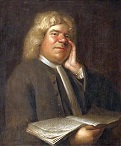




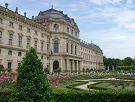

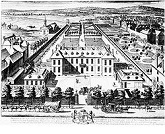


1717 The 4th and final mass migration from Britain to the New World begins as hundreds of thousands of Celtic Britons and Scotch-Irish from N Ireland, the Scottish lowlands and the N counties of England flock into the rugged back country along the Appalachian Mts. in Am., incl. 250K Ulstermen (ends 1775). On May 19 Peter the Great takes a crap at the Hotel des Invalides in Paris, and, there being no other paper, uses a 100 franc note to wipe his ass, leaving it to the valet, who freaks, until the concierge tells him, "When you wash it off, it will buy just as many drinks"; while in Paris, Peter sits for his portrait by painter French Rococo Jean-Baptiste Oudry (1686-1755). On May 27 the viceroyalty of New (Nueva) Granada is formed by the Bourbon kings from Nueva Granada (Bogota Plateau), Panama, Venezuela, and Quito (until 1739). On June 24 (feast of St. John the Baptist) the Premier (Mother) Grand Lodge (Orient) of England (London) (Westminster) is established in London at the Goose and Gridiron Ale House in St. Paul's Churchyard from the union of four London Craft lodges; Mother Kilwinning Lodge (Number 0) in Scotland claims to date from 1140; official Freemasonry is born, building men instead of churches; the trademark is the square and compass; the Masonic Tenets are Brotherly Love, Relief, and Truth; the three degress are entered apprentice, fellow craft, and master mason; there are three degrees, three candles, three knocks on the door, three stages of life, three principal numbers, all because Plato taught the Trinity (1+2=3); passwords: Boaz (1st degree), Jachin (2nd degree), Mahabyn (3rd degree); the first gift given to a Freemason is a white leather apron, which is buried with him at death; the York Rite has 10 higher degrees: four Royal Arch degrees, three Cryptic Mason degrees, three Chivalric orders, ending with the Knights Templar Order; in the early years a man with a sword guards the doors; non-Freemasons get suspicious that the Freemasons are using mind control on them, and found the Mad Hatter fraternity, wearing aluminum foil hats? In the summer wealthy Barbados landowner ("the Gentleman Pirate") Stede Bonnet (1688-1718) goes bad, buys the Revenge, and begins freebooting along the E coast of North Am., then hooks up with Blackbeard in Dec., ceding to his command before/after he fails to capture the Protestant Caesar; he becomes the only pirate who actually is known to make his victims walk the plank? On July 11 after Spain attacks Austria in Italy, the Triple Alliance (a different one than in 1668, an attempt to maintain the 1713 Treaty of Utrecht) is formed by Britain, France, and the Netherlands against Spain. On July 17 (7-17-1717) the Water Music, composed by Georg Friedrich (George Frideric) Handel (1685-1759), now in the service of the Duke of Carnarvon is used as the serenade to George I at a royal river picnic on the Thames River, where the king's barge is accompanied by "so great a Number of Boats, that the whole River in a manner was cover'd"; the barge next to the royal one carries 50 musicians playing Handel's composition 3x as they all travel 5 mi. upriver from Westminster to Chelsea. On Apr. 15 PM (since oct. 12, 1715) Robert Walpole resigns, and on Apr. 15 is succeeded by James Stanhope, 1st Earl Stanhope (1673-1721) as chief minister of the British cabinet (until Mar. 20, 1718), who tries to use a network of alliances to maintain the peace of Europe as well as the stability of Britain; for the first time the English cabinet is all Whig. Prince Eugene ejects the Turks from Belgrade. Old Pretender James III is forced to leave France. A separate Afghan state is formed under Abdalis of Herat. The Tibet Revolt (ends 1720) begins with the seizure of Lhasa by the Dzungar (Zunghar) Mongols under Tsewang Rabdan (1697-1727), nephew of W Mongol (Olot) chief Gladan. The Bahamas become an English crown colony (until 1964). Philippines gov. Fernando Manuel de Bustillo Bustamente y Rueda (-1719) "the Marsical" attempts to reform govt. finances, causing his murder by friars in 1719 - don't bust the mint? John Law's Mississippi Co. receives a monopoly of trade with Louisiana. Armenian Mekhitarist monks settle on the San Lazzaro Island in Venice. Dover, Del. is founded on 125 acres acquired by William Penn in 1683. The seaport of Krasnovodsk (Rus. "red water") (modern pop. 50K) on the Krasnovodsk Gulf in NW Turkmenistan across the Caspian Sea from Baku is founded as a fort; in 1993 it is renamed Turkmenbashi ("leader of all Turkmen") by pres. Saparmurat Niyazov. The value of a golden guinea is fixed at 21 shillings, equivalent to $20.67 a troy ounce (almost quadrupling since 1344); this price is maintained until 1934. The bang-bang-on-the-door-baby Bangorian Controversy begins when Bangor, Wales bishop Benjamin Hoadly (1676-1761) gives a hoadly sermon denying the doctrinal and disciplinary authority of the church; the king suspends the convocation (church legislative body) until 1852. By an act of the British Parliament, convicts guilty of certain crimes can escape the hangman by "transportation" to the colonies; most choose the Chesapeake - like Defoe's Moll Flanders? School attendance becomes compulsory in Prussia. Ft. Prince of Wales is built on the Hudson Bay at the mouth of the Churchill River by James Knight of the Hudson's Bay Co. The Spanish build a fort on the N shore of the La Plata estuary on the future site of Montevideo. William Pitt, gov. of Madras sells the Indian 136.9 carat Pitt (Regent) Diamond to Duke Philippe of Orleans. Bohemian-born Baroque architect Johann Balthasar Neumann (1687-1753) begins working for the Schonborn prince-bishop of Wurzburg, going on to turn the town into a showpiece, building the Wurzburg Residence, the Basilica of the Vierzehnheiligen (Fourteen Holy Helpers) (1743-72) et al. French actress Adrienne Lecouvreur (1692-1730) debuts at the Comedie Francaise in Paris in Prosper Jolyot de Crebillon's "Electre". J.S. Bach becomes kappelmeister in Kothen (Köthen) in Saxony-Anhalt (until 1723). Architecture: British army barracks are erected in Berwick-upon-Tweed, 2.5 mi. S of the Scottish border, designed by Nicholas Hawskmoor (1661-1736) (finished 1721). After returning from a Grand Tour of Italy in 1714, and before going on a 2nd one in 1719, Richard Boyle, 3rd Earl of Burlington (1694-1753) reads Giacomo Leoni's "Palladio", and is turned on, firing James Gibbs (hired in 1709 by his mother Lady Juliana) and hiring Colen Campbell to remodel Burlington House on Piccadilly Circus in Mayfair, London in strict Palladian style, which ends up housing five learned societies (the Courtyard Societies), incl. the Royal Astronomical Society, Society of Antiquaries of London, Linnean Society of London, Royal Society of Chemistry, and the Geological Society of London; by the 1730s the Palladian style is accepted as the std. for a British country house or public bldg., and Burlington becomes known as "the Apollo of the Arts" and "the Architect Earl". Inventions: On Dec. 31 the first written mention of the Conestoga Wagon, named after the Conestoga River and/or Township and/or Conestoga tribe in Lancaster, Penn., invented by German Mennonite immigrants, which becomes popular for use in the Great Appalachian Valley along the Great Wagon Road, and for commerce to Pittsburgh and Ohio; they prove too heavy for use on the Great Prairie, and ordinary farm wagons with canvas covers are used by pioneers. Edmund Halley invents the first practical diving bell, consisting of a wooden chamber with glass windows, supplied with air by movable exterior wooden air barrels fitted with leather tubes. Science: Lady Mary Wortley Montagu (1689-1762) introduces smallpox inoculation in England. The hybridization of Dianthus is reported in Britain by English gardener Thomas Fairchild (1667-1729) of Hoxton, East End, London, who crosses a Sweet William (Dianthus barbatus) with a Carnation Pink to create Fairchild's Mule, the first artificial hybrid. Music: J.S. Bach (1685-1750), Orgelbuchlein (46 organ chorales); Six Suites for Unaccompanied Cello (1717-23). G.F. Handel (1685-1759), Water Music (July 17); the Allegro is later used by William F. Buckley Jr. for "Firing Line". Reinhard Keiser (1674-1739), Der Grossmutige Tomyris (opera) (Hamburg); Jobates und Bellerophon (opera) (Hamburg). John Weaver (1673-1760), The Loves of Mars and Venus (ballet) (Drury Lane). Art: Jean Baptiste Oudry (1686-1755), Portrait of Tsar Peter the Great (Paris). Jean-Antoine Watteau (1684-1721), Embarkation for the Isle of Cythera. Nonfiction: Anon., The Vinegar Bible; ed. of the 1611 King James Bible that misprints the heading of Luke 20 as "The parable of the vinegar" instead of vineyard. Anthony Collins (1676-1729), A Philosophical Inquiry Concerning Human Liberty. August Hermann Francke, Praelectiones Hermeneuticae. Cardinal de Retz (1614-79), Memoires (Fronde period) (posth.). William Sutherland, Prices of the Shipbuilding Adjusted: or, the Mystery of Ship-Building Unveiled. Rev. John Wise, The Vindication of the Government of the New England Churches: "Government was never Established by God or Nature, to give one Man a Prerogative to insult over another." Plays: Prosper Jolyot de Crebillon (1674-1762), Semiramis; another flop, although his jealous rival Voltaire writes his own version later, like he does with four other of his tragedies ("Electre", "Catilina", "Le Triumviral", "Ahreeas"). Poetry: Thomas Parnell (1679-1718), Battle of the Frogs and Mice. Alexander Pope (1688-1744), Collected Works; incl. "Eloisa to Abelard", "Elegy to the Memory of an Unfortunate Lady", "Epistles to Martha Blount". Voltaire (1694-1778), La Henriade; in honor of Henry IV of France during the 1589 siege of Paris; written in the Bastille, then pub. in 1723. Births: Ottoman sultan #26 (1757-74) Mustafa III (d. 1774) (AKA Cihangir) on Jan. 28 (Jan. 18) in Constantinople; son of Ahmed III (1673-1736); brother of Abdulhamid I (1725-89); father of Selim III (1761-1808). English field marshal Baron Jeffrey (Jeffery) (Geoffrey) Amherst, 1st Baron Amherst of Montreal (d. 1797) on Jan. 29 in Brooks Place (Riverhead), Sevenoaks, Kent (near Sackville's Knole); born into a family of lawyers and clergymen; at age 12 becomes a page to Lionel Sackville, 7th earl and 1st duke of Dorset, rising to secy.; at age 18 becomes an ensign in the First Regiment of Foot Guards; leads British forces that win control of Wet-Dry Can Can Canada from France, becoming Britain's #3 all-time gen. after Marlborough and Wellington. Austrian field marshal Baron Ernst Gideon von Laudon (Loudon) (d. 1790) on Feb. 2 in Tootzen (Latvia). English 5'4" actor-playwright-impresario David Garrick (d. 1779) on Feb. 19 in Hereford; descendant of French Huguenots who settled in the 1680s; pupil-friend of Dr. Samuel Johnson (1709-84). Austrian archduchess (1740-80), Bohemian queen (1740-1), and HRE (1745-65) Maria Theresa Walburga Amalia Christina (d. 1780) on May 13 in Vienna; daughter of HRE Charles VI; empress of the German Holy Roman Empire, and mother of 16 children incl. HRE Joseph II and Marie Antoinette. Czech violinist-composer Johann Wenzel Anton Stamitz (Jan Vaclav Stamic) (d. 1757) on June 18 in Deutschbrod, Bohemia; father of Carl Stamitz (1745-1801) and Anton Stamitz (175-1809). French sculptor Jacques Francois Joseph Saly (d. 1776) on June 20 in Valenciennes. French chemist Joseph Marie Francois de Lassone (d. 1788) on July 3 in Carpentras (Vaucluse). Portuguese king (1777-86) Pedro III (d. 1786) on July 5 in Lisbon; younger son of John V and Mary Anne of Austria; brother of Joseph I; maternal grandson of HRE Leopold I. French military leader Louis Francois I de Bourbon, Prince of Conti (d. 1776) on Aug. 13 in Paris; son of Louis Armand II and Louise Elisabeth de Bourbon (granddaughter of Louis XIV). English "The Castle of Otranto" writer-statesman Horace (Horatio) Walpole, 4th Earl of Orford (d. 1797) on Sept. 24 in London; 3rd (youngest) son of Robert Walpole (1676-1745); educated at Eton College, and King's College, Cambridge U.; becomes 4th earl of Oxford in 1791 when his eldest brother's son dies; cousin of Lord Horatio Nelson (1758-1805); MP in 1741-68. Am. Rev. War maj. gen. John Armstrong Sr. (d. 1795) on Oct. 13 in Brookeborough, County Fermanagh, Ireland; father of John Armstrong Jr. (1758-1843) and James Armstrong (1748-1828). French Canadian explorer Louis-Joseph Gaultier de La Verendrye (Vérendrye) (d. 1761) on Nov. 9 in Ile aux Vaches, Quebec; youngest son of Pierre La Verendrye (1685-1749); brother of Francois de La Verendrye (1715-94). French philosopher-scientist-mathematician-encyclopedist (atheist) Jean Baptiste le Rond d'Alembert (d. 1783) on Nov. 16 in Paris; left by his mother at the steps of the Saint-Jean-le-Rond de Paris Church; educated at the U. of Paris; shacks up with babe Jeanne Julie Eleonore de Lespinasse (1732-76). German "History of Ancient Art" archaeologist and art historian (gay?) Johann Joachim Winckelmann (d. 1768) on Dec. 9 in Stendal, Brandenburg; son of a cobbler. French statesman-diplomat Charles Gravier, Comte de Vergennes (d. 1787) on Dec. 20 in Dijon. English Baptist hymnodist Anna Steele (d. 1778) in Broughton, Hampshire. Spanish gov. of Guatemala (1779-83) and viceroy of New Spain (1783-4) gen. Matias de Galvez (Gálvez) y Gallardo (d. 1784) in Macharaviaya; father of Bernardo Galvez y Madrid (1746-86). English brewer William Bass Jr. (d. 1787); son of William Bass Sr. (-1732); father of William Bass III and Michael Thomas Bass (1760-1827). Welsh hymnodist William Williams Panycelyn (d. 1791) in Cefn-coed Llanfair ar y bryn Llandovery. Italian fencing master Domenico Angelo (Angelo Domenico Malevolti) (d. 1802) in Leghorn. English Bluestocking writer Elizabeth Carter (d. 1806). Deaths: French gov. of New France (1661-7) Pierre Boucher de Boucherville (b. 1622) on Apr. 19 in Boucherville (near Montreal), Canada. French mathematician Jacques Ozanam (b. 1640) on Apr. 3. German scientific illustrator Maria Sibylla Merian (b. 1647) on Jan. 13 in Amsterdam, Netherlands. French Quietist leader Madame Guyon (b. 1648) on June 9: "It is the fire of suffering that brings forth the gold of godliness." African Ashanti king (1675-1717) Osei Kofi Tutu I (b. 1660). German anatomist Frederick Ruysch (b. 1665). English coke smelting inventor Abraham Darby Sr. (b. 1678) on Mar. 8 in Madeley, Shropshire.




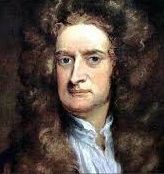


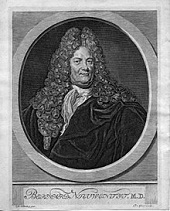
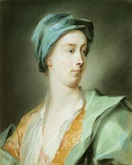


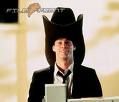

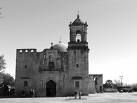



1718 The mass emigration of Protestants from Ulster to the New World begins. On Jan. 6 English sea capt. Woodes Rogers (1679-1732) (who rescued Alexander Selkirk in 1709) is appointed as royal gov. #1 of the new British crown colony (until 1973) of the Bahamas by George I (until June 1721), going on to clear the area of pirates, offering the "King's Pardon" to all but the worst and the leaders; in the summer Stede Bonnet is pardoned by N.C. gov. Charles Eden, and given a license to take Spanish ships, but he decides to go pirate again under the alias Capt. Thomas of the Royal James, then is chased by Col. William Rhett under the authorization of S.C. gov. Robert Johnson, and is captured on the Rhett River in early Oct. after all his ships run aground, and hanged in Charleston on Dec. 10; meanwhile on Nov. 22 6' English buccaneer Blackbeard the Pirate (Edward Teach or Thatch) (b. 1680), known for having 14 wives, carrying 12 pistols along with knives and swords, and tying slow-burning fuses to his heavy black beard and long braided hair dies at the Battle of Ocracoke Inlet fighting his former employees in his 300-ton 40-gun ship Queen Anne's Revenge (formerly Concorde, which he captured last Nov. and added 14 guns to), which sinks; his head is hung from the mast of his enemy's ship; in Oct. 2006 archeologists find his ship off the N.C. coast. On Mar. 25 the Danes claim the island of St. John in the Virgin Islands and found the Cinnamon Bay Plantation. In Mar. Charles Spencer, 3rd Earl of Sunderland (1674-1722) (whose portrait bears a striking resemblance to Sir Isaac Newton (1643-1727)?), known for his private library in Althorp (the finest in Europe in 1703, later moved to Blenheim Palace) replaces James Stanhope as chief minister of the British cabinet (until 1721), spending his time trying to get the number of members of the House of Lords limited. In Apr. 24-y.-o. Francois-Marie Arouet is released from the Bastille, and changes his name to the cool Voltaire (1694-1778), becoming the coolest "you can't touch this" literary wit of the cent.? On May 1 Mission San Antonio de Valero is established on the San Antonio River by Father Antonio de Olivares and New Spain viceroy Marquis de Valero as the first of a mission chain for Christianizing Indians, becoming known as the Alamo in 1744; on May 5 Gov. Martin Alarcon founds Villa de Bejar 3/4 league upstream at the headwaters of San Pedro Creek, which becomes the capital of the New Spain province of Tejas, the northernmost settlement in the Valley of Mexico; the mission is abandoned in 1793, becoming a military depot and fortress until 1836, when it becomes the Alamo, "Cradle of Texas Liberty". Pass around the wits, Sophocles? On July 21 the Treaty of Passarowitz (Pozarevac) between Turkey, Venice, and Austria ends the Seventh Ottoman-Venetian War (begun 1714); Banat, Lesser Walachia, and N Serbia, incl. Belgrade are lost by the Ottomans to the Hapsburgs of Austria, halting their westward expansion; too bad, Turkey is given full possession of Greece, and they partition it into districts ruled by autocratic govs. who oppress Greek Christians, causing klepht guerrillas to take to the mountains and Greek pirates to hold out on the Aegean while an underground Greek independence movement looks to Russia for aid; meanwhile Ibrahim becomes Ahmed III's chief advisor, and encourages the spread of learning and libraries, and the promotion of Greek Phanariots (PHanariotes) (residents of Phanar, the Greek quarter of Constantinople) to high places. On Aug. 2 the Quadruple Alliance of France, England, Holland, and the HRE (Austria) against Spanish ambitions in Italy is formed to maintain the Treaty of Utrecht, guarantee the succession of the reigning families of England and France, and settle the partition of the Spanish monarchy; Holland actually joins next year, but it's called the you know what, so? In the fall Charles XII of Sweden (b. 1682) goes to war against the Norwegians, and dies on Nov. 30 of a gunshot wound to the head during the Battle of Fredriksten (Fredrikshald) in Norway; he is succeeded on Dec. 5 by his sister Ulrika Eleonora the Younger (1688-1741) (until Feb. 29, 1720). In Nov. Alexis, only son of Peter I the Great of Russia is murdered at his orders. Pierre Sidrac Dugue (Dugué) dit Laf, Sieur de Boisbriant (Boisbriand) (1675-1740) is appointed as the first cmdr. of Ill. by the French. The Spanish reestablish Ft. Zamboanga (Pilar) in Mindanao (abandoned 1663), causing the Muslim kingdoms to renew hostilities. The Potawatomi relocate from Green Bay to Detroit. Lady Mary Wortley Montagu uses inoculation against smallpox in Turkey. Houessou Akaba (ruled since 1685) dies of smallpox, and his brother Dossou Agadja (Agaja) (-1740) usurps the throne from Akaba's 10-y.-o. son Agbo Sassa, and becomes king #5 of Dahomey in W Africa (until 1740), going on to get his butt kicked by the Yorubas and end up with his kingdom paying the king of Oyo an annual tribute of human slaves for the next cent., but making up for it by conquering the Savi city of Ouidah in 1724 using his Dahomey Amazon nude bodyguards as warriors, giving Dahomey direct access to the sea and the lucrative slave trade; starting next year the majority of African slaves brought to La. (until 1731) come from Benin, bringing La. Voodoo with them. The French begin moving N of Cape Charles to fish - and after that they really want to talk? Jean-Baptiste Le Moyne, Sieur de Bienville and the Mississippi Co. of Perth Amboy (founded 1685) found the city of New Orleans ("the Crescent City") on a bend in the Mississippi in honor of the duke of Orleans (regent of France), becoming one of the first planned towns in North Am.. Fort de Chartres is built by the French N of Kaskasia, Ill. 12-y.-o. Benjamin Franklin is apprenticed to his printer brother James for nine years. Nicholas Rowe (b. 1674) dies, and Laurence Eusden (1688-1730) becomes poet laureate of England (until Sept. 27, 1730). G.F. Handel succeeds John Christopher Pepusch as kappellmeister to the duke of Chandos. The Leeds Mercury newspaper begins pub. The first bank notes are issued in England. Porcelain begins to be manufactured in Vienna. Wool export is forbidden by the British govt. French Jesuit missionary Joseph-Francois Lafitau (1681-1746), who arrived in Canada in 1711 and lived with the Iroquois pub. his discovery of ginseng in Canada, causing a gold rush fever and big profits; the first shipment of ginseng from Canada arrives in Canton, China; too bad, they overproduce it and dry it too fast, creating inferior stuff, ruining their own trade. The word "cicisbeo" (arranged lover of a married woman) is first used in a letter by Lady Mary Wortley Montagu; Lord Byron later acts as cicisbeo to Contessa Teresa Gamba Guiccioli, and writes "You must understand, this Italian fashion prevails at Nice among all ranks of people; and there is not such a passion as jealousy known. The husband and the cicisbeo live together as sworn brothers; and the wife and the mistress embrace each other with marks of the warmest affection." The London Society of Antiquaries is founded. The Accademia dei Scienze, Lettere, ed Arti is founded in Palermo. Yale College is named after prominent Anglican Conn. diamond merchant and slave trader (in Madras, India) Elihu Yale (1649-1721) after Calvinist minister Cotton Mather convinces him to give it an endowment of nine bales (£562 worth) of goods along with 417 books and a portrait of George I to counter the liberal and irreligious trends at Harvard "to serve the great interests of education and so of religion"; Yale's money to fund the college was stolen from the East India Trading Co., when he was pres. of Madras until being removed in 1692 after charges of corruption?; actually, Jeremiah Dummer Jr. (1681-1739) (first colonial-born Am. to earn a Euro Ph.D.) is the real founder, soliciting donations from Yale, as well as Isaac Newton and Richard Steele, but nobody wants to go to Dumb and Dummer College, so they stage a coverup? The first Free Masonic Hell Fire (Hellfire) Club is founded by Jacobite politician Philip, 1st Duke of Wharton (1698-1731) et al. in London, England, expanding to several clubs run by the notorious Sir Francis Dashwood et al., whose members (incl. Benjamin Franklin?) engage in sexual orgies and call themselves "Friars of St. Francis of Wycombe"; in 1721 they are closed by royal edict, and some reopen later under less obvious names in 1749-60/66? - like massage parlors? Architecture: Inventions: English weaver Sir Thomas Lombe (1685-1739) patents a machine to make thrown silk, then builds a silk mill in Derby, pissing off the Italians, from whom he had stolen the design (used since the early 1600s), who send a hit woman, who poisons his brother and partner John Lombe in 1722, but doesn't stop him from breaking the Italian monopoly on silk trade and lowering the price, even getting knighted. Science: French chemist Etienne Francois Geoffroy (1672-1731) presents his tables of chemical affinities to the French Academie. Nonfiction: William Fleetwood (1656-1723), The Justice of Paying Debts. Thomas Foxcroft (1697-1769), A Practical Discourse Relating to the Gospel Ministry; new Harvard-educated Puritan preacher blasts his Boston congregation with shocking language in order to "breathe heavenly fire to melt and enliven... dead affections". Etienne Geoffroy (1672-1731), Tables of Affinity; chemical reactivity data recording the order in which acids will expel weaker ones from combination with bases. Abraham de Moivre (1667-1754), The Doctrine of Chances; first textbook on probability theory; prized by gamblers; De Moivre's Formula is later named after him. Cornelius Nary (1658-1738), Catholic English Version of the New Testament; first complete English trans. after the Rheims trans., by a parish priest from Dublin. Bernard Nieuwentyt (1654-1618), The Religious Philosopher: or, The Right Use of the Contemplation of the World, for the Conviction of Atheists and Infidels (2 vols.); basis of William Paley's "Natural Theology" (1802). Philibert-Joseph Le Roux, Dictionnaire Comique, Satrique, Critique, Burlesque, Libre, et Proverbial (1718-86). Art: Peter Cooper, The Southeast Prospect of the City of Philadelphia; long horizontal painting which becomes the oldest painting of a North Am. urban center to survive to modern times. Giambattista Foggini (1652-1725), Bust of Cosimo III de' Medici (1642-1723) (1717-18) (marble sculpture). Sir Godfrey Kneller (1646-1723), Portrait of the Duke of Norfolk. Balthasar Permoser (1651-1732), Apotheosis of Prince Eugene of Savoy (1718-21) (sculpture); portrays him as Hercules towering over a fallen Turk along with the figure of Fame, but the prince doesn't like it because it's too Baroque and not classical enough? Sebastiano Ricci, The Dream of Aesculapius. Jean Antoine Watteau, Mezzetin; Parc Fete. Music: G.F. Handel (1685-1759), Acis and Galatea (HWV 49) (masque); libretto by John Gay (1685-1732), John Hughes, and Alexander Pope (1688-1744), based on John Dryden's 1717 trans. of Ovid's "Story of Acis, Polyphemus and Galatea"; his most performed work during his lifetime. Plays: Susanna Centlivre (1667-1723), A Bold Stroke for a Wife (satire) (Lincoln's Inn Fields, London) (Feb. 3) (6 perf.); big hit in the U.S.; debuts on Broadway at Wallack's Theatre in 1863; Col. Fainwell and Anne Lovely are in love, but he must court her in disguse to get around her four guardians, and goes too far when he impersonates Quaker Simon Pure, who has to fight an identity thief; a satire of the Tories, religious hypocrisy, and capitalism, supporting the Whigs; causes the term "simon-pure" to be coined for untainted. Colley Cibber (1671-1757), The Non-Juror (comedy). Voltaire (1694-1778), Edipe (tragedy); about Oedipus; his first play, written in the Bastille, which becomes a hit, launching his career. Births: Am. Rev. War Maj. Gen. Israel "Old Put" Putnam (d. 1790) on Jan. 7 in Salem (Danvers), Mass.; ranking officer at the 1775 Battle of Bunker Hill; born to a farming family associated with the Salem Witch Trials; moves to Mortlake (Pomfret), Conn. at age 22. English adm. Georges Brydges Rodney, 1st Baron Rodney (d. 1792) on Feb. 13 in Walton-on-Thames; created baron in 1782. French Jesuit Oriental scholar Jean Joseph Maria Amiot (d. 1793) in Feb. in Toulon; Jesuit missionary in China from 1750-93. Scottish prof. of rhetoric Hugh Blair (d. 1800) on Apr. 7 in Edinburgh. U.S. Navy Commodore (Navy CIC in the Am. Rev. War.) Esek (Essex) Hopkins (d. 1802) on Apr. 26 in Scituate, R.H.; brother of Stephen Hopkins (1707-85); first CIC of the U.S. Navy and first ranking officer. Am. nonconformist Glasite theologian Robert Sanderman (d. 1771) on Apr. 29 in Perth, Scotland; educated at Edinburgh U.; emigrates to Danbury, Conn. in 1763. Swiss astronomer Jean-Philippe Loys de Cheseaux (Chéseaux) (d. 1751) on May 4 in Lausanne. Italian mathematician-philosopher ("the Witch of Agnesi") Maria Gaetana Agnesi (d. 1799) on May 16 in Milan; educated at the U. of Bologna. English cabinetmaker Thomas Chippendale (d. 1779) on June 16 (June 5 Old Style) in Otley (near Leeds); known for "Gothick" tracery on chair backs. Dutch field marshal (1750-66) Louis Ernest of Brunswick-Luneburg (Brunswick-Lüneburg-Bevern) (d. 1788) on Sept. 25 in Wolfenbuttel; brother of Duke Charles I of Brunswick-Wolfenbuttel (1713-80). English socialite Elizabeth (Fidget) Montagu (d. 1800) on Oct. 2 in Yorkshire; invents the highbrow blue-stocking parties. French marshal Victor Francois de Broglie, 2nd Duc de Broglie (d. 1804) on Oct. 19 in Paris; father of Victor de Broglie (1756-94) and Victor de Broglie, 3rd duc de Broglie (1785-1870). British lord of the admiralty John Montagu, 4th Earl of Sandwich (OE "sandy place") (d. 1792) on Nov. 13 (Nov. 3 Old Style); educated at Eton and Trinity College, Cambridge U.; namesake of the Sandwich. French astronomer (discoverer of the Ring Nebula) Antoine Darquier de Pellepoix (d. 1802) on Nov. 23 in Toulouse. Deaths: English Utilitarian philosopher Richard Cumberland (b. 1631). Chinese Catholic priest and painter Wu Yushan (b. 1632). French mathematician-astronomer Philippe de La Hire (b. 1640) on Apr. 21. English Quaker Oats cover boy William Penn (b. 1644) on July 30 in Berkshire. Dutch theologian-mathematician Bernard Nieuwentyt (b. 1654) on May 30 in Purmerend, North Holland. English/Scottish queen Mary of Modena (b. 1658) on May 7 in Paris. French-born English dramatist Peter Anthony Motteux (b. 1663) on Feb. 18; dies in a brothel (autoerotic asphyxiation?). English celeb Charlotte Lee, Countess of Lichfield (b. 1664) on Feb. 17. English poet laureat and dramatist Nicholas Rowe (b. 1674). Dutch scholar Adriaan Reland (b. 1676) on Feb. 5 in Utrecht (smallpox). Anglo-Irish poet-clergyman Thomas Parnell (b. 1679) on Oct. 24. English lusty arrrgh pirate Blackbeard (Edward Teach) (b. 1680) on Nov. 22 in Ocracoke, N.C. (KIA). his head is displayed on a pole in Va. Swedish king (1697-1718) Charles XII (b. 1682) on Nov. 30 in Fredrikshald, Norway.










1719 On Jan. 23 HRE Charles VI declares the fiefs of Vaduz and Schellenberg united as a principality (Furstentum) under the name Liechtenstein; the princes of Lichtenstein don't visit it until Prince Aloys in 1818. On Feb. 8 England and France declare war on Spain. On Feb. 28 Farrukhsiyar (b. 1685) dies, and Syed Brothers puppet Rafi-ul Darjat (b. 1699) becomes Mughal emperor #10, dying on June 11 after having his brother Shah Jahan II (Rafi-ud-Daulah) (b. 1696) enthroned as Mughal emperor #11; on Sept. 19 he dies of lung cancer, and is succeeded by Bahadur Shah I's 4th son Muhammad (Mohammed) Shah (Roshan Akhtar) (Rangeela) (Joy-Maker) (1702-48) as Mughal emperor #12 (until Apr. 26, 1748), who goes on to kill the Syed Brothers in 1722 and become the last capable Mughal emperor, making Urdu the official court language, getting the Quran trans. for the first time into Persian, and replacing the Tartar dress with the long coatlike Sherwani. On Mar. 29 James Berkeley, 3rd Earl of Berkeley (1680-1736), cmdr. of the Dorsetshire becomes English lord high adm. (until Aug. 2, 1727), the first not of royal blood (until ?). On Sept. 18 Spain recaptures Pensacola, Fla. On Nov. 11 New Spain (Mexico) sets up the Tribunal de la Acordada (Court of Agreement) for quick justice to bandits, convicting 57.5K of 62,8250 accused by 1810, of which 888 are hung. In Nov. the Peace (Treaty) of Stockholm is signed between Sweden and Hanover, with Sweden ceding Bremen and Verdun to George I (elector of Hanover) for 1M rix dollars. On Dec. 5 after a short war between Spain and the Quadruple Alliance which comes close to making Spain the common enemy of all of Europe, Philip V of Spain dismisses Cardinal Giulio Alberoni, who retires to Rome. The Jacobites stage the Little Rising, and are defeated at the Battle of Glenshiel; Ireland is declared inseparable from England; speaking of mashed potatoes, Irish immigrants bring the potato to Londonderry, New Hampshire, and begin the first large-scale potato growing in North Am. The Jesuits are expelled from Russia. N Carolina and S Carolina become royal colonies after disputes over Yamassee land cause the Board of Trade to intervene (ends 1729). The city of Baton Rouge (Fr. "red stick") on the E bank of the Mississippi River in La. is founded. French settlers move into St. Vincent Island, cultivating coffee, tobacco, indigo, cotton and sugar using African slaves and Black Caribs. Cuyaba (Cuiaba) on the Cuiaba River (chief tributary of the Paraguay River) in Brazil is founded by prospectors from Sao Paulo who find gold and diamonds, becoming the capital of the inland state of Matto Grosso. The Church of the Brethren (Dunkers) (Dunkards), composed of Baptists opposed to military service and the taking of oaths migrates to Germantown, Penn. G.F. Handel becomes dir. of the Royal Academy of Music in London. Nouveau riche Alexander Pope moves to a villa in a watered grotto in Twickenham, which he lavishly decorates. Alessandro Scarlatti leaves Naples after his popularity fades, and settles in Rome (until 1723). The English Parliament repeals the Occasional Conformity Act and the Schism Act. The Banque General of John Law absorbs the rival East India and China Co., becoming the Banque Royale, with its notes guaranteed by the king, and a charter to manage the mint for nine years, and farm the nat. revenues while acting as receiver of the govt. debt, with Law becoming councilor of state and comptroller gen.; meanwhile his Mississippi scheme attracts speculators, who drive the shares sky high while his bank floods the country with paper money. The Oriental Co. is founded in Vienna; their 2nd try; lasts 25 years (until 1744). Westminster Hospital in Broad Sanctuary, London is founded after a meeting in a coffeehouse by four men to discuss a "charitable proposal for relieving the sick". Smoking is prohibited in France, except in Franche-Comte, Flanders, and Alsace. Scottish Presbyterian minister and Englightenment philosopher Francis Hutcheson (1694-1746) opens a private academy in Dublin, churning out a bunch of works on philosophical ethics that capture the British market until John Locke; afterwards (1729) he becomes a prof. of moral philosophy at Glasgow until death. Welsh-born Bartholomew Roberts (1682-1722), a third mate on a slave ship is captured by pirates off the coast of Africa, and ends up joining then rising to comand them, becoming known as Black Bart, and going on to capture some of the greatest prizes ever (until 1722). The Boston Gazette is founded by William Brooker after he becomes postmaster of Boston, Mass. (until 1720). The Am. Weekly Mercury begins pub. in Philly, becoming the first newspaper in the middle colonies, and 4th in North Am. Sports: The first Cricket Match pits the Londoners against the Kentish Men. James Figg (1695-1734) becomes England's first bare-knuckled boxing champ (until 1729), founding the modern art of boxing - I'm gonna knock your fig off? Architecture: Inventions: Antoine de Reaumur proposes using wood to make paper. German Baroque painter Jakob Christof Le Blon (1667-1741) invents color printing. Nonfiction: Dimitrie Cantemir (1673-1723), Treatise on Turkish Music; Chronicle of the Durability of Romanians, Moldavians and Wallachians (1719-22). Baron Christian von Wolff (1679-1754), Rational Thoughts About God, the World, and the Soul of Man, and on All Things Whatsoever. Music: G.F. Handel (1685-1759), 12 Chandos Anthems; for his patron James Brydges, 1st duke of Chandos. Isaac Watts (1674-1748), The Psalms of David: Imitated in the Language of the New Testament, and Applied to the Christian State and Worship, paraphrases in Christian verse the entire book of Psalms except for 12 he didn't think appropriate; incl. Joy to the World, which becomes the most popular Christmas hymn in North Am., Bless, O My Soul! The Living God, Jesus Shall Reign, My Shepherd Will Supply My Need, Our God, Our Help in Ages Past, This is the Day the Lord Hath Made, and 'Tis by Thy Strength the Mountains Stand; Watts' hymns go on to become popular with Lutherans, Presbyterians, Methodists, Baptists, Mormons, and Christian Scientists. Poetry: Ludvig Holberg (1684-1754), Pedar Paars (1719-20); mock-heroic epic poem satirizing contemporary manners. Plays: Thomas D'Urfey (1653-1723), Wit and Mirth, or Pills to Purge Melancholy. Edward Young (1683-1765), Busiris (Drury Lane, London). Novels: Daniel Defoe (1659-1731), The Life and Strange Surprising Adventures of Robinson Crusoe (Apr. 25); the first English novel?; based on the life of Scottish sailor Alexander Selkirk (1676-1721); spends 24 years on a desert island, where he is saved from cannibals by Friday on guess what day, and makes an umbrella out of skins; how white Euros can achieve salvation via work, the conquering of loneliness, and recognition of the inequality of human relations; "The aptest treatise on natural education" (Jean-Jacques Rousseau). Births: Am. Congregationalist Christian Socialist minister Joseph Bellamy (d. 1790) on Feb. 20 in Cheshire, Conn.; educated at Yale U.; student of Jonathan Edwards; great-grandfather of Edward Bellamy (1850-98) and Francis Bellamy (1855-1931). German poet Johann Wilhelm Ludwig Gleim (d. 1803) on Apr. 2 in Ermsleben (near Halberstadt), Ostharz. Swedish statesman-gen. Count Fredrik Axel von Fersen the Elder (d. 1794) on Apr. 5; son of Lt. Gen. Hans Reinhold von Fersen; father of Axel von Fersen the Younger (1755-1810). French diplomat-statesman-gen. Etienne Francois, Duc de Choiseul, Comte de Stainville (d. 1785) on June 28 in Nancy; eldest son of Joseph Francois de Choiseul, Marquis de Stainville (1700-70); cousin of Cesar Gabriel de Choiseul, duc de Praslin (1712-85). French "Philosophie sans le Savoir" dramatist Michel-Jean Sedaine (d. 1797) on July 4 in Paris. German geologist Johann Gottlob Lehmann (b. 1719) on Aug. 4 in Langenhennersdorf, Saxony; educated at the U. of Wittenberg. French marshal Francois-Gaston de Levis (Lévis), Duc de Levis (Lévis) (d. 1787) on Aug. 20 in Chateau d'Ajac (near Limoux). Austrian violinist-composer Johann Georg Leopold Mozart (d. 1787) on Nov. 14 in Augsburg, Germany; father of "miracle of God" Wolfgang Amadeus Mozart (1756-91). Irish actor Spranger Barry (d. 1777) on Nov. 23. English philosopher George Campbell (d. 1796) on Dec. 25. French critic Elie Catherine Freron (Élie-Catherine Fréron) (d. 1776) in Quimper, Brittany; educated by Jesuits. Irish elocutionist actor-lexicographer Thomas Sheridan (d. 1788); godson of Jonathan Swift; educated at Trinity College, Dublin; husband of Frances Chamberlaine Sheridan (1724-66); father of dramatist Richard Brinsley Sheridan (1751-1816). Am. educator (founder of Phillips Exeter Academy) John Phillips (d. 1795); uncle of Samuel Phillips Jr. (1752-1802). Irish writer (deaf) Charles Johnstone (d. 1800). Am. Rev. leader (DOI signer) James Smith (d. 1806) in Dublin, Ireland; emigrates to Penn. at age 10-12. Deaths: French mistress Marquise Francoise de Maintenon (b. 1635) on Apt. 15 in Saint-Cyr. Dutch painter Jan Weenix (b. 1640). English royal astronomer John Flamsteed (b. 1646) on Dec. 31 in Burstow, Surrey. English banker Sir Richard Hoare (b. 1648) on Jan. 6 in Hendon. Catholic educator St. John Baptist de la Salle (b. 1651) on Apr. 7 in Saint-Yon, Rouen, Normandy: "To touch the hearts of your pupils is the greatest miracle you can perform." French mathematician Michel Rolle (b. 1652) on Nov. 8 in Paris. French ecclesiastical historian Louis Elias Dupin (b. 1657). English poet Samuel Garth (b. 1661) on Jan. 18 in London. English writer-clergyman John Harris (b. 1666) on Sept. 7. French-Canadian explorer Jean Baptist Bissot, sieur de Vincennes (b. 1668) in Kekionga. English celebrated poet-essayist-dramatist Joseph Addison (b. 1672) on June 17 in Holland House, London; buried in Westminster Abbey; last words "See in what peace a Christian can die": "We are always doing, says he, something for posterity, but I would fain see posterity do something for us"; "A man must be both stupid and uncharitable who believes there is no virtue or truth but on his own side"; "There are three sides to every story: your side, my side, and the right side"; "The grand essentials for happiness in this life are something to do, something to love, and something to hope for"; "Admiration is a very short-lived passion, that immediately decays upon growing familiar with its object"; "Beauty soon grows familiar to the lover,/ Fades in his eye, and palls upon the senses." English banker Henry Hoare (b. 1677). French mathematician Pierre de Montmort (b. 1678) on Oct. 7. French garden designer Jean-Baptiste Alexandre Le Blond (b. 1679) on Mar. 10 in St. Petersburg (smallpox); the tsar attends his funeral; buried at St. Sampson Cemetery. German Dresden china inventor Johann Friedrich Bottiger (b. 1682).




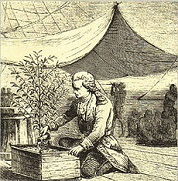
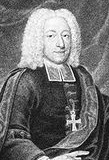

1720 Pop. of the Am. colonies: 450K; Boston 12K; Philadelphia 10K; New York City 7K. Marseille, France becomes the last European city to suffer a major outbreak of the plague, killing 100K. On Jan. 26 the Treaty of the Hague ends the war between the Spain and the Quadruple Alliance (begun 1718), and Spain evacuates Sicily and Sardinia; on May 20 Spain signs an act of adhesion to the Quadruple Alliance in return for recognition by the HRE of the Spanish Bourbons; Don Carlos is acknowledged to the succession of Parma and Tuscany through his mother; 3-y.-o. Infanta Maria-Anne-Victoire is promised in marriage to Louis XIV; the House of Savoy is obliged to exchange Sicily (which it got in 1713) for Sardinia with Austria in return for a promotion from duke to king for Victor Amadeus II, whose 11th cent. House of Savoy has come a long way, baby?; Austria rules Sicily until 1735; Turin (Torino), capital of the duchy of Savoy becomes the capital of the new improved tin can Kingdom of Sardinia (1324-1861), incl. Savoy, Piedmont, and Sardinia, becoming the nucleus of the later kingdom of Italy. On Feb. 29 queen (since Dec. 5, 1718) Ulrika Eleonora of Sweden abdicates in favor of her husband Frederick (Fredrik) I (1676-1751), who on Mar. 25 beccomes king of Sweden (until Mar. 25, 1751) (first king to have been prince consort first), who in 1730 also becomes landgrave of Hesse-Cassel (Hesse-Kassel) (1567-1803); in Feb. Sweden and Prussia sign the Treaty of Stockholm, ending the war between Sweden and Hanover-Prussia, ceding Swedish territory to Hanover and Prussia and restoring the prewar boundaries among Sweden, Saxony, and Poland; on July 14 (July 3 Old Style) Sweden and Denmark sign the Treaty of Fredericksborg, yielding Danish conquests in return for Swedish payment. On July 12 king (since 1674) Sukjong (Sukchong) (b. 1661) dies, and his son Gyeongjong (Kyonjong) (1688-1724) becomes Yi king #20 of Korea (until Oct. 11, 1724). On July 31 Mughal nobleman Nizam-ul-Mulk ("Regulator of the Realm") (1671-1748) becomes ruler #1 of the new state of Hyderabad in modern-day Pakistan (until June 1, 1748), going on to become the "greatest Mohammedan hero of the eighteenth century" (Henry George Briggs). On Aug. 7 (July 27 Old Style) the Battle of Grengam in Sweden sees 86 Russian ships and 11K sailors and soldiers under field marshal Mikhail Mikhailovich Golitsyn (Galitzine) (1675-1730) decisively defeated by the 13-ship 1K-sailor Swedish fleet under vice-adm. Eric Sjoblad, halting Russian naval activities in the Baltic, and becoming the last major naval battle in the Great Northern War (begun 1700). The Pragmatic Sanction is recognized by the estates of Upper and Lower Austria. The cat's away? Marquis Joseph Francois Dupleix (1697-1763) comes to India as an official of the French East India Co. after his shareholder father gets him a seat on the superior council in Pondicherry; in 1730 he rises to supt. of French affairs in Chandernagore, Bengal, then gov.-gen. of all French India in 1742, vexing the British in India for decades by using the decay of the Mogul empire to extend French influence (until 1754) - hahaha, gotcha? The Tibet Revolt (begun 1717) is suppressed by armies from Gansu and Sichuan, the Mongols are driven out of Tibet, and Tibet becomes a Chinese protectorate, with a popular Dalai Lama enthroned, protected by imperial garrisons. Starting in this decade the Kazakh tribes of Kazakhstan fight a war against the invading Jungar (Zhunghar) (Dzungar) ("left hand") hordes of W Mongolia, fighting each other on horseback; by 1760s the Kazakhs drive them off, making a hero of Abulmansur, who becomes Ablai Khan (1711-81). Japanese shogun (since 1716) Tokugawa Yoshimune breaks down and repeals the laws against European books and study. British PM Charles Spender, er, Spencer, 3rd Earl of Sunderland gives Robert Walpole the post of paymaster gen., after which the South Sea Bubble bursts after its stock soars from £128 to over £1K a share, followed by a crashy crash crash, hurting many people in England incl. Sir Isaac Newton, and causing the public to look to him to restore order; on June 11 the Bubble (Royal Exchange and London Assurance Corporation) Act is passed, incorporating the Royal Exchange and London Assurance Corp., and prohibiting the development of joint-stock cos. without a royal charter or act of Parliament; Sunderland's career bursts like a bubble?; "I can calculate the motions of heavenly bodies, but not the madness of people." (Newton) L.V. Izmailov (1686-1738) establishes a Russian Orthodox church and trading agent in Peking. Marine insurance is first established in Britain. The original supply side economics? After a royal decree halves the value of his Banque Royale's notes, causing coined money to disappear from circulation and prices to skyrocket, John Law's Mississippi Co. fails, becoming known as the Mississippi Bubble (Scheme), and many people in France are hurt, causing Law to be dismissed by regent Philippe d'Orleans, leave France secretly, and settle in Venice, where he dies penniless in 1729; meanwhile he pub. a book exposing his fallacious theories of finance, which consider money the cause of public wealth rather than its result, and believe in the power of running the printing presses to produce paper money. Spain occupies Texas (until 1722). Augsburg and Marienthal are founded in Louisiana by Germans immigrants. The city of Karachi on the Arabia Sea is founded as the fortified village of Kolachi; in the mid-19th cent. the British East India Co. arrives, turning it into a major seaport and railroad hub, growing to 400K pop. by 1947, after which the partition of British India causes it to be flooded with millions of Muslim refugees, reaching 14.9M pop. in 2017, becoming the most populous city in Pakistan and #5 in the world, hosting 2M immigrants from Bangladesh, 1M from Afghanistan and 400K Rohingyas from Myanmar, also becoming its industrial and financial center. Sauk and Meskwaki Indians found the village of Saukenuk along the Rock River near its confluence with the Mississippi River on the site of modern-day Moline, Ill., home of John Deere. The Swiss Anabaptist Amish (separate from the Mennonites) begin migrating from Switzerland to Lancaster County, Penn. Illinois (Ill.) ("warriors" in Algonquin) is settled. The first collective settlement begins in New Connecticut (Vermont). Spanish-born Marquis de San Miguel de Aguayo (-1734), gov. of Coahuila (since 1719) organizes Spanish settlements in Texas to counter French encroachment (until 1723). The imperial privileged Alsatian city of Hagenau gets more antsy about its wealthy moneylending Jewish pop., and issues regulations restricting settlement by their children, only one married son per family allowed to settle, and all Jews are restricted to moneylending and dealing in horses, cattle and old clothes (until 1790). French naval officer Gabriel Matthieu Francois D'ceus de Clieu (1687-1774) allegedly smuggles coffee plans from the Jardin Royal des Plantes in Paris to Martinique, sharing his rationed water with the plants, beginning the South Am. cultivation of coffee; in 1727 the Brazilian coffee industry is founded; cultivation is slow until independence in 1822, after which massive areas of rainforest are cleared near Rio de Janeiro and Sao Paulo, making Brazil the largest coffee producer on Earth by 1852 (until ?); in 1737-52 de Clieu becomes gov. of Guadeloupe. After falling behind in their payments, their Turkish landlords evict the Ashkenazi Jews from Jerusalem; 200 families relocate to Hebron, Safed, and Damascus, and don't return for a cent. The Royal (Old) Haymarket (Little) Theatre opens in Westminster, London. The court of the Rhine Palatinate is moved from Heidelberg to Mannheim (until 1777). King George County in Va. between the Potomac and Rappahannock Rivers is formed from Richmond County, and named after George I, later becoming the birthplace of James Madison (b. 1751). The first yacht club is established at Cork Harbor in Ireland. Caffe (Caffè) Florian on St. Mark's Square in Venice is founded, becoming Italy's oldest coffeehouse to survive to modern times. St. Anselm of Canterbury (d. 1109), known for his Ontological Proof of the Existence of God is declared a Doctor of the Roman Catholic Church. The word "roué" (roue) (Fr. "wheel") is coined to describe the dissolute, dissipated, debauched companions of Duke Philippe II of Orleans. Edmund Halley becomes English astronomer royal, and begins an 18-year study of the complete revolution of the Moon through its ascending and descending nodes. Wallpaper becomes fashionable in England. Novels begin to be serialized in newspapers. In this decade black tea (Bohea) (Wu-i) passes green tea in popularity in England, with sugar and milk becoming popular additives early on; by this time maritime Euro trade with China is dominated by the exchange of silver for tea; by 1750 tea is the British nat. drink. Inventions: On June 10 Mrs. Clements of Durham, England becomes the first to market paste-style mustard after finding a way to mill the seed hearts to fine powder. 14-y.-o. Benjamin Franklin (1706-90) invents swimming flippers; he later becomes the only Founding Father in the Am. Swimming Hall of Fame. About this time chili con carne originates in La Villa de San Fernando de Bejar in the Nueva Espana province of Nuevas Filipinas (modern-day San Antonio, Tex.) among mission Indians and mestizos as a way to eat tough meat (goat, jackrabbit etc.), and is disdained by the Anglos until the 1880s. Nonfiction: Arthur Collins, Baronetage of England. William Jacob 's Gravesande (1688-1742), Mathematical Elements of Natural Philosophy, Confirmed by Experiments (Leiden); lays the foundation for physics teaching. Edward Hyde, 1st Earl of Clarendon (1609-74), The History of the Rebellion and Civil War in Ireland (posth.); a companion to "The History of the Rebellion and Civil Wars in England" (1702-4), covering the period after the death of Charles I. Bernard de Montfaucon, L'Antiquite Expliquee (1720-24). Johann Lorenz von Mosheim (1693-1755), Vindiciae Antiquae Christianorum Disciplinae; critique of John Toland. John Trenchard and Thomas Gordon, Cato's Letters; or Essays on Liberty, Civil and Religious, and Other Important Subjects (4 vols.) (1720-3); castigates the "South-Sea Plunderers", the "able guilty Ministers", and "despotick Princes", and argues for freedom of speech; later used by "Real Whigs" in the American colonies to justify independence. Giovanni Battista Vico (1668-1744), De Uno Universo Juris Principis. Music: G.F. Handel (1685-1759), Radamisto (HWV 12) (opera) (King's Theatre, London) (Apr. 27); libretto by Nicola Francesco Haym, based on Matteo Noris' "Zenobia" and Domenico Lalli's "L'Amor Tirranico, o Zenobia"; his first opera for the Royal Academy of Music; Harpsichord Suite No. 5; incl. The Harmonious Blacksmith. Nicola Porpora (1686-1768), Orlando (opera). Art: G.B. Tiepolo, Martyrdom of St. Bartholomew. Jean-Antoine Watteau (1684-1721), Le Enseigne de Gersaint. Plays: Nicolas Lancret (1690-1743), Declaration of Love (fete galante). Charles Shadwell (-1726), The Fair Quaker of Deal, or The Humours of the Navy, Irish Hospitality, or Virtue Rewarded, and Other Plays. Poetry: John Gay (1685-1732), Collected Poems. Novels: Daniel Defoe (1659-1731), The Life, Adventures and Piracies of the Famous Captain Singleton; about an Englishman stolen as a child from his well-to-do family and raised by Gypsies. John Watts (pub.), A Select Collection of Novels in Four Volumes, Written by the Most Celebrated Authors in Several Languages (London); incl. "Upon the Origin of Romances" by Huet. Births: Spanish minister Jose de Galvez y Gallardo, Marques de Sonora (José de Gálvez y Gallardo, Marqués de Sonora) (d. 1787) on Jan. 2 in Macharavialla. English (Cornish) dramatist-actor Samuel Foote (d. 1777) on Jan. 27 in Truro, Cornwall; coins the term "panjandrum" for a pompous, self-important official. Japanese emperor #115 (1735-47) Sakuramachi (Teruhito) (d. 1750) on Feb. 8; eldest son of Nakamikado (1702-37). Swiss entomologist and natural philosopher Charles Bonnet (d. 1793) on Mar. 13 in Geneva. Spanish duke of Parma (1748-65) Philip of Spain (d. 1765) on Mar. 15 in Madrid; 3rd son of Philip V and Elisabeth Farnese; husband of Louise Elisabeth of France, eldest daughter of Louis XV; father of Ferdinand, duke of parma (1751-1802). German marshal Heinrich Wilhelm von Freytag (d. 1798) on Mar. 17 in Estorf. Italian Biblical scholar and archbishop of Florence (1781-1809) Antonio Martini (d. 1809) on Apr. 20 in Prato, Tuscany. English MP (1768-90) and brewer Samuel Whitbread (d. 1796) on Aug. 30 in Cardington, Bedfordshire; father of Samuel Whitbread Jr. (1764-1815). Italian etcher and architect Giambattista (Giovanni) Piranesi (d. 1778) on Oct. 4 in Mogliano Veneto (near Treviso); known for his cool "carceri d'invenzione" (imaginary dungeons). Irish actress Margaret "Peg" Woffington (d. 1760) on Oct. 18 in Dublin; father is a poor bricklayer; as a child she assists a tightrope walker; debuts in Irish theaters at age 10, and in London in 1740. Am. Quaker abolitionist preacher-reformer John Woolman (d. 1772) on Oct. 19 in Mount Holly, N.J. French adm. Count Toussaint-Guillaume Picquet (Piquet) de la Motte (d. 1791) on Nov. 1 in Rennes. Georgian king (1744-98) ("the Little Kakhetian") Erekle (Heraclius) (Erekli) (Irakly) II (d. 1798) on Nov. 7 in Telavi; son of Teimuraz II of Kakheti and Tamar, daughter of Vakhtang VI of Kartli. German jurist Justus Moser (Möser) (d. 1794) on Dec. 14 in Osnabruck. English/Scottish prince ("the Young Pretender") Charles Edward Louis John Casimir Sylvester Severino Maria Stuart (Stewart), Count of Albany (d. 1788) (AKA Bonnie Prince Charlie and Charles III) on Dec. 31 in Rome; son of "Old Pretender" James Francis Edward Stuart (1688-1766); grandson of James II; husband (1772-) of Princess Louise of Stolberg-Gedern (1752-1824). Ottawa Chief Pontiac (Obwandiyag) (d. 1769) in Great Lakes Region, New France. Shawnee Chief Cornstalk (Hokoleskwa) (Hokolesqua) (d. 1777) in Penn. Italian painter Bernardo Bellotto (Canaletto) (d. 1780) (1721 or 1722?) in Venice. English bigamous courtesan Elizabeth Chudleigh, Duchess of Kingston, Countess of Bristol (d. 1788); known for her affairs with courtiers of George II, and being convicted of double-dipping with poor (later rich, but she couldn't wait) Augustus Hervey, 3rd earl of Bristol and rich Evelyn Pierrepont, 2nd duke of Kingston (1776). German self-promoting soldier-adventurer-anecdotist Hieronymus Karl Friedrich, Baron von Munchausen (Munchhausen) (d. 1797) in Bodenwerder, Brunswick-Luneberg. English spinning jenny inventor James Hargreaves (d. 1778) in Oswaldtwistle, Lancashire. Spanish viceroy of Peru (1795-1801) Don Ambrosio Bernardo O'Higgins, 1st Marquis of Osorno (d. 1801) in Summer Hill (near Daingean), County Offaly, Ireland; father of Bernardo O'Higgins (1778-1842); created marquis in 1792. English writer Charlotte Lennox (nee Barbara Charlotte Ramsay) (d. 1804) (b. 1730?) in Gibraltar. Deaths: French sculptor Charles-Antoine Coysevox (b. 1640) on Oct. 10 in Paris. English sea capt. Robert Knox (b. 1641) on June 19 in London. British gov. of Mass. (1702-15) Joseph Dudley (b. 1647) on Apr. 2 in Roxbury, Mass. Am. Puritan minister Samuel Parris (b. 1653) on Feb. 27 in Sudbury, Mass. Italian physician Giovanni Maria Lancisi (b. 1654) on Jan. 20 in Rome. English poet Anne Finch, countess of Winchilsea (b. 1661) on Aug. 5 in Westminster. English poet John Hughes (b. 1677) on Feb. 17.






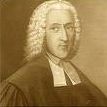

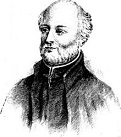

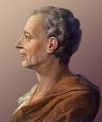


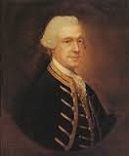




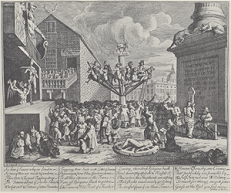

1721 On Jan. 28 the Jewish ghetto in Frankfurt, Germany burns down again (first time 1711), and suffers looting by Christians, causing HRE Charles IV to order the town council to punish them and reimburse the Jews, which they do by annuling taxes and fees; in 1729 the last 45 Jewish families living temporarily in Christian houses are forced back into the ghetto. On Mar. 19 Pope (since Nov. 23, 1700) Clement XI (b. 1649) dies, and on May 8 Michelangelo (Michele) dei Conti is elected Pope (#244) Innocent XIII (1655-1724) (until Mar. 7, 1724), going on to impose new frugality standards and end the practice of nepotism among cardinals. What's going on in your head, what's wrong, Or, I walk alone, I walk alone? On Apr. 3 after he English Parliament begins proceedings against the suspects in the South Sea Bubble, the ruling Whig party is blamed, the ministers guilty of taking bribes resign or die, and chancellor of the exchequer John Aislabie (1670-1742) is sent to the Tower for fraud, Robert Walpole (1676-1745), brother-in-law of Lord Townshend replaces him, and his handiness with figures saves the day; James Stanhope dies, and Walpole becomes first lord of the treasury and chancellor of the exchequer, and the first official British First (Prime) Minister (until Feb. 11, 1742, replacing Charles Spencer, 3rd earl of Sunderland as chief of the cabinet (since 1718), where he helps solidify Hanoverian control of the English throne, using bribery to secure a solidly Whig House of Commons, and dominating England until his 1742 retirement - as its Big Whig? In summer China suppresses a revolt in Formosa (Taiwan) led by Zhu Yigui (Chu It-kui) (1689-1721), who is executed on June 28. On July 2 Yale rector Timothy Cutler outrages his protege Cotton Mather (1663-1728) by closing his commencement with the words, "and let all people say, Amen", Mather dubbing him a "treacherous Rector" for using the formula used to close an Anglican service; Cutler resigns and leaves for England, and Cotton is later passed over for the presidency. On Aug. 30 the Great Northern War (begun 1700) between Russia, Sweden, Denmark, Poland, etc. is concluded by the Treaty of Nystadt (Uusikaupunki) between Russia and Sweden, marking the beginning of Swedish military decline; Sweden cedes SE Finland (Karelia) and the Baltic provinces of Estonia (Esthonia), Livonia, and Ingria (Ingermanland), along with a number of Baltic islands to Russia, giving Peter I the Great (1672-1725) his precious outlet (window) to the Baltic Sea, permitting the opening of traffic with the West; Peter I is proclaimed Emperor of All the Russias; Sweden keeps W Finland (until 1809), ending the Great War (begun 1714); Denmark forces the abolition of Sweden's privileges regarding the Sound Tolls and gains the Slesvig lands, but the war takes a big bite out of Denmark, esp. agriculturally; the war causes a 16% pop. loss in Finland and a 10% loss in Sweden. After getting knighted last year, confirmed bachelor Francis Nicholson (1655-1728), becomes British gov. of S.C. (until 1725). Jeremiah Dummer (1681-1739), Mass.-born British agent for Mass. Bay Province since 1710 pub. A Defense of the New England Charters in response to a House of Commons bill seeking to annul the charters of Mass. Bay, N.H., R.I. and Providence Planations, arguing for the colonies' loyalty to the crown, and causing the bill to be defeated, although he loses his job, after which he stays on without pay. The Seneca Iroquois sign the Treaty of Albany, selling the Va. Piedmont to the Virginia Colony. Rama Varma dies, and Ravi Varma III (-1731) becomes king of Cochin in India (until 1731). France declares bankruptcy over the failure of John Law's Mississippi Co. Norwegian Lutheran missionary Hans Egede (1686-1758) sails in the ship The Hope from Norway to Greenland to convert Norse farmers, becoming the first new European in Greenland in 200 years; too bad, the Inuits tell him that there are no Norse there anymore, showing him crumgling stone church walls, causing the mystery of their disappearance to arise, which isn't solved until ? (the Little Ice Age?); he founds Godthab (Good Hope) on Kangeq (Kangek) Island on the W coast, establishing trade with Denmark and beginning missionary work among the Skraelings, er, Inuit, becoming known as "the Apostle of Greenland"; in 1728 Danish-Norwegian gov. Maj. Claus Enevold Paarss (1683-1762) moves Godthab to the mainland, becoming the world's northernmost capital ahead of Reykjavik; in 1979 it is renamed Nuuk ("cape"). After setting out from Quebec last year, French Jesuit priest-traveller Pierre Francois Xavier de Charlevoix (1682-1761) calls a point at the border of modern-day Mo. and Ill. N of St. Louis where the Illinois and Mississippi Rivers meet "the finest confluence in the world". Swiss immigrants to British North Am. introduce rifles. Regular postal service begins between London and New England. The New England Courant newspaper is founded in Boston, Mass. by Ben Franklin's older brother James Franklin (1697-1735) along with his wife Ann and brother Benjamin, introducing yellow journalism to Boston and forming the Hell-Fire Club, getting him imprisoned for four weeks in 1722 for "scandalous libel"; in 1727 the paper is suppressed, and he leaves Boston for Newport, R.I., founding Rhode Island's first printing press, followed in 1727 by the Rhode-Island Almanack AKA Poor Robin, and on Sept. 27, 1732 by the Rhode Island Gazette, which folds on May 24, 1733. Journal Oeconomique is founded in France to promote agrononomy and rational husbandry (until 1772). The first coffeehouse opens in Berlin, Germany. Georg Philipp Telemann becomes dir. of music in Hamburg. Breslau, Silesian-born mathematician-philosopher Christian Wolff (1679-1754) of the U. of Halle, a disciple of Gottfried Leibnitz known for ditching Latin for German gives the lecture "On the Practical Philosophy of the Chinese", citing the moral axioms of Confucius as proof that human reason can attain moral truth by its own efforts without Biblical revelation, pissing-off the religious (mainly Pietist) faculty; on July 12, 1723 Wolff gives another lecture comparing Moses, Christ, Mohammad, and Confucius, which attracts 1K students, pissing-off the Pietists, who convince Frederick William I that Wolff's determinism would ruin military discipline, causing him to be banished to Prussia for atheism and fatalism, where he teaches at the U. of Marburg in Hesse-Cassel until 1740, when Frederick II the Great recalls him and makes him a celeb, getting him promoted to chancellor of the U. of Halle in 1743. Porter, a heavily-hopped beer mixture of dark to light malts is invented in London, England, becoming the first beer to be aged at the brewery and shipped ready-to-drink, and the first that could be made on a large scale; the name comes from the landlord of the Old Blue Last Inn in Shoreditch, London, who orders Harwood Brewery to supply it ready-mixed, and whose customers are mainly market porters; too bad, it initially fails to gain popularity in the Am. colonies. Architecture: John James (1673-1746) begins St. George's Church in Hanover Square, London (finished 1725). The Spanish Steps in Rome are begun (finished 1725). James Gibbs (1682-1754) designs a replacement for St. Martin-in-the-Fields Church in the NE corner of London's Trafalgar Square, and it is completed in 1726, going on to become popular for cloning in British North Am. Inventions: English mathematician John Hadley (1682-1744) builds the first Newtonian reflecting telescope (6 in. mirror). Science: In Apr. Scottish surgeon Charles Maitland (1668-1745) performs the first smallpox inoculation in England with live smallpox virus on 4-y.-o. Mary Montagu, daughter of Lady Mary Wortley Montagu (1689-1762), who had contracted smallpox in Dec. 1715 and learned of the procedure while visiting Constantinople and had him do it to her 5-y.-o. son there in Mar. 1718; in Aug. 1722 seven condemned prisoners at Newgate Prison volunteer to become guinea pigs, and all survive and are released; in Dec. 1722 after five orphans of St. James's Parish in London are successfully inoculated, French-born English surgeon Claudius Amyand (1680-1740) inoculates three of the children of Prince George (later George II) and Princess Caroline of Ansbach, and later has Maitland inoculate her eldest son Frederick and one other child; meanwhile a smallpox epidemic in Boston, Mass. in Apr.-Dec. 1721 that infects 5,889 and kills 884 leads Cotton Mather to have his son inoculated, then to preach inoculation, causing a public hue and cry against him even though it works, drawing fire from physician William Douglass and support from physician Zabdiel Boylston, with prejudice against "heathens" in the Ottoman Empire and Bible-thumping arguments playing a role. The first hybrid cabbage is reported - Brussel sprouts right ahead? Nonfiction: Nathaniel Bailey (-1742), Universal Dictionary of the English Language; reissued in 1731 as Dictionarium Brittanicum: A More Compleat Universal Etymological Dictionary Than Any Extant; uses quotations from lit. works; used as the basis of Samuel Johnson's 1755 dictionary. Richard Bradley (1688-1732), A Philosophical Account of the Works of Nature; covers the "mineral, vegetable, and animal parts of the Creation", plus an account of gardening in Britain, getting him appointed Cambridge U.'s first prof. of botany in 1724, going on to pioneer the biological theory of infectious disease while pub. works on greenhouses and the first cookbook in English with recipes using pineapple; in his coverage of humans, he claims that there are "five sorts of men" based on skin color, incl. white Euros with beards, white Native Americans sans beards, men with copper skin, small eyes, and black hair; blacks with straight hair, and blacks with curly hair; later used by Curly, er, Carl Linnaeus?; A General Treatise of Husbandry and Gardening (3 vols.) (1721-4). Cornelius van Bynkershoek (1673-1743), De Foro Legatorum. Matthew Henry, Commentary on the Whole Bible (6 vols.) (Old Tappan, N.J.). Johann Theodor Jablonski, Allgemeines Lexicon; the first short encyclopedia. Johann Lorenz von Mosheim (1693-1755), Observationes sacrae; gets him an appointment as prof. at the U. of Helmstedt. Music: Filippo Amadei (Mattei), Giovanni Bononcini, and G.F. Handel (1685-1759), Muzio Scevola (opera) (King's Theatre, London) (Apr. 15); libretto by Paolo Antonio Rolli, based on a work by Silvio Stampiglia (each does one act). Johann Sebastian Bach (1685-1750), Six Concerti (The Brandenburg Concertos), BWV 1046-51; composed for Christian Ludwig, margrave of Brandenburg-Schwedt (1677-1734). G.F. Handel (1685-1759), Floridante (opera) (King's Theatre, London) (Dec. 9); libretto by Paolo Antonio Rolli, based on Francesco Silvani's "La Costanza in Trionfo". Art: William Hogarth (1697-1764), The South Sea Scheme; the first of his black-and-white satires. Jean-Antoine Watteau (1684-1721), Pilgrimage to Cythera; his #1 fete-galante painting? Plays: Pierre de Marivaux (1688-1763), Arlequin Poli par l'Amour (comedy). Edward Young (1683-1765), Revenge (Drury Lane, London). Poetry: Thomas Parnell (1679-1718), A Night-Piece on Death (posth.); The Hermit (posth.); A Hymn to Contentment (posth.); pub. in "Poems on Several Occasions", ed. by Alexander Pope. Allan Ramsay (1686-1758), Poems; first major work. Novels: Baron de Montesquieu (1689-1755), Persian Letters (Lettres Persanes); two aristocratic Persian travelers in Europe write letters to each other satirizing French society; a hit, helping fuel the French Enlightenment. Births: British lt.-gen. John Manners, Marquess of Granby (d. 1770) on Jan. 2 in Kelham, Nottinghamshire; educated at Eton College, and Trinity College, Cambridge U. English actor-mgr. Roger Kemble (d. 1802) on Mar. 1 in Hereford; husband (1753-) of Sarah "Sally" Ward (1735-1807); father of John Philip Kemble (1757-1823) and 11 other children, who become the Kemble Family of actors. Scottish architect John Adam (d. 1792) on Mar. 5 in Linktown, Abbotshall (modern-day Kircaldy, Fife); eldest son of William Adam (1689-1748) and Mary Robertson (1699-1761); brother of Robert Adam (1728-92) and James Adam (1732-94); father of William Adam of Blair Adam (1751-1839). Scottish "Roderick Random", "Peregrine Pickle" picaresque novelist Tobias George Smollett (d. 1771) on Mar. 19 in Dalquhurn (Renton), West Dunbartonshire; educated at the U. of Glasgow as a surgeon. Moravian missionary (in the U.S.) David Zeisberger (d. 1808) on Apr. 11 in Zauchtenthal (Suchdol nad Odrou); emigrates to British Am. in 1738. British military leader ("Butcher Cumberland") Prince William Augustus, Duke of Cumberland (d. 1765) on Apr. 26 in Leicester House, Westminster, London; 3rd and youngest son of George II and Caroline of Ansbach; worst Brit of the 18th cent.? Am. Rev. leader Roger Sherman (d. 1793) on Apr. 30 (Apr. 19 Old Style) in Newton, Mass.; moves to Conn. in 1743; only person to sign the Articles of Assoc., DOI, Articles of Confederation, and U.S. Constitution; starts out as a shoemaker, studies law, becomes a superior court judge in 1766, then goes into politics; first mayor of New Haven, Conn.; has 15 children by two wives; first cousin twice removed of Eli Whitney; ancestor of Archibald Cox; Sherman, Conn. is named for him; "A man who never said a foolish thing in his life" (Thomas Jefferson). Italian ballerina #a Barbara "La Barbarina" Campanini (d. 1799) on June 7 in Parma. Am. Rev. War. Gen. (Freemason) Johann von Robaii, Baron de Kalb (d. 1780) on June 19 in Huttendorf (near Erlangen), Bavaria, Germany; becomes a lt. in a German regiment in the French army, rising to brig. gen. by 1761 after fighting in the War of the Austrian Succession and the Seven Years' War. French architectural draftsman and painter Charles-Louis Clerisseau (Clérisseau) (d. 1820) on Aug. 28 in Paris; pupil of Giovanni Paolo Pannini. Swedish vice-adm. and naval architect Fredrik Henrik (Fredric Henric) af Chapman (d. 1808) on Sept. 9 in Gothenburg; son of English naval officer Thomas Chapman, who joined the Swedish royal navy in 1715. Am. Rev. leader Edmund Pendleton (d. 1803) on Sept. 9 in Caroline County, Va. Am. Rev. leader Peyton Randolph (d. 1775) on Sept. 10 in Williamsburg, Va.; pres. #1 of the Continental Congress (1774-5). Am. abolitionist Congregationalist clergyman-theologian Samuel Hopkins (d. 1803) on Sept. 17 in Waterbury, Conn.; nephew of Samuel Hopkins (1693-1755); uncle of Mark Hopkins (1802-87); educated at Yale College; pupil of Jonathan Edwards; kicked out of Housatonic, (Great Barrington), Mass. for his theology in 1769, he becomes a pastor in Newport, R.I. for life. Scottish historian (Whig) (Presbyterian) (historiographer royal, 1764-) William Robertson (d. 1793) on Sept. 19 Borthwick, Midlothian; educated at the U. of Edinburgh. English poet-physician Mark Akenside (d. 1770) on Nov. 9 in Newcastle upon Tyne; educated at the U. of Edinburgh. English "Ode to Evening" lyric poet William Collins (d. 1759) on Dec. 25 in Chichester, Sussex; educated at Winchester College, and Magdalen College, Oxford U. French courtesan (Louis XV's mistress) ("La Reinette") (Little Queen) Jeanne Antoinette Poisson, Marquise de Pompadour (d. 1764) on Dec. 29 in Paris; loves filet of sole topped with truffles. German banker Simon Moritz Bethmann (d. 1782) in Nassau; youngest son of Simon Moritz Bethmann (1687-1725); brother of Johann Philipp Bethmann (1715-93). Italian Neoclassical painter Domenico Corvi (d. 1803) in Viterbo; student of Vincenzo Camuccini (1771-1844) and Francesco Alberi (1765-1836). British fleet adm. Sir Peter Parker, 1st Baronet (d. 1811) in Ireland; knighted in 1772. Deaths: English slave trader Edward Coston (b. 1636) on Oct. 11 in Mortlake, Surrey; in 1895 a statue designed by John Cassidy is erected in Bristol in honor of his philanthropy; on May 8, 2020 it is toppled by Black Lives Matter protesters and thrown in the drink. French Waldensian pastor-soldier Henri Arnaud (b. 1641) on Sept. 8 in Schonenberg. Dutch-born English woodcarver Grinling Gibbons (b. 1648) on Aug. 3 in London; buried in St. Paul's, Covent Garden. Dutch New Amsterdam settler Harmen Jansen Knickerbocker (b. 1648) on Apr. 3 in Albany, N.Y. Am. sweathog Elihu Yale (b. 1649) on July 8 in Wrexham, Denbighshire, Wales; his tombstone is stolen by the secret Skull & Bones society and brought back to Yale U.? English poet-diplomat Matthew Prior (b. 1664) on Sept. 18 in Wimpole, Cambridgeshire; buried in Westminster Abbey. German botanist Rudolf Jakob Camerarius (b. 1665) on Sept. 11 in Tubingen. English natural philosopher John Keill (b. 1671) in Sept. English statesman-gen. James Stanhope, 1st Earl Stanhope (b. 1673) on Feb. 21. Scottish "Robinson Crusoe" mariner Alexander Selkirk (b. 1676); master's mate on the English man-of-war Weymouth. French fete-galante painter Jean-Antoine Watteau (b. 1684) on July 18.

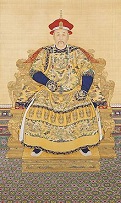


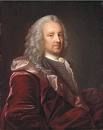




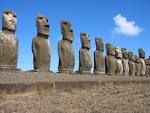


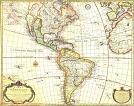
1722 The Golden Age of Piracy (begun 1650) for Britain comes to an end. after only about good 30 years. By this year S.C.'s slave pop. reaches 65% of the total pop. of 18,350, brought about by the profitability of the mortar and pestle technique of removing rice grains from husks. On Jan. 24 Peter I the Great issues an edict that the ruler of Russia shall choose his own successor, and establishes the Table of Ranks; he then joins in the fun and attacks Persia, seizing territories around the Caspian Sea; meanwhile the Ottomans want theirs too, and capture parts of W Persia as far as Hamadan (until 1723). On Mar. 8 (Sun.) Afghan Ghilzai Pashtun leader Mir Mahmud Hotaki (1697-1725) of Kandahar invades Persia and defeats the Persians at the Battle of Gulnabad near Isfahan; on Oct. 23 Isfahan falls after a 6-mo. siege and 80K starved or KIA and sultan (since 1694) Soltan Hosayn (Hosein) (1668-1726) abdicates in favor of Mahmud, declaring him his successor; Safavid rule in Persia collapses, and C and S Persia, and Sistan in W Khurasan are captured; Soltan Hosayn's son Prince Tahmasp flees to Tabriz, declares himself shah in Nov. and establishes a govt., and goes on to gain the support of Sunni Muslims in the Caucasus as well as Qizilbash tribes, regaining control of most of the country by 1729, while the Ottomans and Russians grab their pieces. On Apr. 2 the first of Benjamin Franklin's Addison-Steele-style essays by the fictional prudish middle-aged widowed woman Silence Dogwood appears anon. in his brother James Franklin's periodical the New England Courant. On Apr. 5 (Easter Sun.) after entering the Pacific in Mar. and sailing E to W in a search for Terra Australia, Easter Island (Rapa Nui) (Isla de Pascua) in the mid-South Pacific is discovered by Dutch explorer Adm. Jacob (Jakob) Roggeveen (1659-1729); due to overpop., deforestation, and the introduction of the Polynesian rat, the pop. is down to 2K-3K from 15K a cent. earlier; it is filled with 300 30-ft.-high stone busts (moai) (carved from volcanic rock from dormant Rano Raraku) with red headpieces, mounted on huge platforms; Roggeveen and his three ships sail away, and when Euros return almost 50 years later, the busts had been toppled from the platforms to the ground after tribal wars; 400 more uncompleted busts are found inside the crater, covered with Rongorongo inscriptions; Roggeveen continues on and discovers Bora Bora and Maupiti of the Society Islands and Samoa. On Dec. 20 emperor (since Feb. 5, 1661) Qing Sheng Zu (Kang Xi) (b. 1654) dies, and on Dec. 27 Qing Shi Zong (Shih Tsung) (Yongzheng) (Yinzhen) (1678-1735) becomes Qing (Manchu) emperor #3 (#5) of China, founding the Yung Zheng (Cheng) Dynasty (until Oct. 8, 1735), going on to ban Roman Catholicism in China, issuing the first anti-opium edict in 1729, and reducing slavery in China in 1730 while fighting Mongols in the W and cracking down on corruption and financial mismanagement; in 1733 he establishes the Grand Council (Junjichu) ("Office of Military Secrets"), which starts out in charge of military affairs and evolves into a privy council higher in rank than the grand secretariat. Hungary rejects the Pragmatic Sanction. Satha Ang Chey II becomes king of Cambodia (until 1738). The Australian East India Co. is founded. A British Privy Council memorandum sets out doctrines of discovery and conquest for Canada. Black Bart's ships are finally defeated by HMS Swallow off the African coast after logging 35K mi. in 3 years of plundering shipping lanes, and his men are captured after Bart is killed on Feb. 10 in a battle with a British warship after capturing a record 470 prizes since 1719. George I allows exiled (since 1715) Tory leader Viscount Bolingbroke to return to England, and restores his property in 1725; he settles at Dawley near Uxbridge, and becomes a literary bird, associating with Alexander Pope (1688-1744), Jonathan Swift (1667-1745), et al., and writes a series of letters in The Craftsman attacking PM Robert Walpole and his Robinocracy, later reprinted as A Dissertation on Parties. The Gen. Workhouse (Knatchbull's) Act is passed by the English Parliament, enabling parishes to build workhouses for able-bodied paupers and form poor law unions; too bad, it proves more expensive than outdoor relief. The English Parliament levies a tax on Roman Catholics. The Moravian Sect (Bohemian Brethren) is founded in Saxony by the Bohemian Brethren of the Lutheran Church, disciples of John Huss from Moravia in C Bohemia, and after persecution they found the Herrnhut settlement in Betrthelsdorf, Upper Lusatia on the estates of religious reformer Count Nikolaus Ludwig von Zinzendorf (1700-60). The English Parliament forbids journalists to report debates. The Iroquois-speaking Tuscarora tribe of N.C. and Va. joins the Iroquois Confederacy and moves to N.Y. and Ont. Danish dramatist Ludvig Holberg (1684-1754), prof. at the U. of Copenhagen opens a theater in Copenhagen, staging plays in Danish, which establish it as a lit. language. London bookseller and South Sea Bubble winner Sir Thomas Guy (1644-1724) founds Guy's Hospital in Southwark, London with a £300K donation. The Izhorsky Factory on the Izhora River in St. Petersburg is built by order of Peter I to supply the Russian fleet. Architecture: The Dresden Zwinger (begun 1711) is finished, becoming the city's most famous landmark. Quaker minister Elihu Coleman (1699-1789) builds a spacious house on Nantucket Island S of Cape Cod. Science: German physician Friedrich Hoffmann (1660-1742) discovers that the base of alum is an individual substance. Music: Johann Sebastian Bach (1685-1750), The Well-Tempered Clavier, Vol. 1 (Das Wohltemperierte Klavier); preludes and fugues in all 24 major and minor keys "for the profit and use of musical youth desirous of learning, and especially for the pastime of those already skilled in this study"; vol. 2 is pub. in 1742; becomes one of the top musical works of Western music. Francois Couperin (1668-1733), Les Concerts Royaux; performed for the court of Louis XIV in 1714-15. Reinhard Keiser (1674-1739), Ulysses (opera) (Copenhagen). Nonfiction: Henry St. John, Viscount Bolingbroke (1678-1751), Reflections on Exile. Daniel Defoe (1659-1731), History of Peter the Great; A Journal of the Plague Year. Guillaume Delisle (1675-1726), Map of the Americas; shows Calif. as a peninsula. Johann Mattheson, Critica Musica. Jean-Philippe Rameau (1683-1764), Traite de l'Harmonie (Treatise on Harmony); mathematizes music, describing the modern 12-tone musical scale with major and minor keys; makes him famous as a musical theorist, "the Isaac Newton of Music". R.A. Ferchault de Reaumur, L'Art de Convertir le Fer Forge en Acier. Hyacinthe Rigaud (1659-1743), Grand Tour; travel handbook, making the well-educated (Greek and Latin) young man who goes on a Grand Tour of Paris, Venice, Florence and Rome the thing to be. Plays: Henry Carey (1687-1743), Hanging and Marriage. Susanna Centlivre (1667-1723), The Artifice (comedy); a flop, becoming her last play. Pierre de Marivaux (1688-1763), Surprise de l'Amour. Ambrose Philips (1674-1749), The Briton. Richard Steele (1672-1729), The Conscious Lovers (comedy) (last play); based on Terence's "Andria". Novels: Richard Boyle (1694-1753) (tr.), The Travels and Adventures of Three Princes of Serendip; the ever-lucky princes from Ceylon (Sri Lanka). Daniel Defoe (1659-1731), The Fortunes and Misfortunes of Moll Flanders (picaresque); The History and Remarkable Life of the Truly Honorable Colonel Jack, Another Robinson Crusoe. Births: British dramatist and gen. John "Gentleman Johnny" Burgoyne (d. 1792) on Feb. 24 in Sutton (near London); educated at Westminster School. Am. Baptist minister (founder of Brown U.) Morgan Edwards (d. 1795) on May 9 in Wales; educated at Bristol College. Dutch anatomist-naturalist Pieter (Peter) (Petrus) Camper (d. 1789) on May 11 in Leiden; educated at the U. of Leiden; inventor of the term "extinct" with Geores Cuvier to describe the mammoth. English sculptor Joseph Wilton (d. 1803) on July 16 in London; born to a wealthy family. French salonist Anne-Catherine "Minette" de Ligniville, (d'Autricourt) Madam Helvetius (Helvétius) (d. 1800) on July 23; wife (1751-) of Claude Adrien Helvetius (1715-71); Ben Franklin proposes to her? Am. brewer and Rev. patriot-statesman ("Father of the Am. Rev.") Samuel "Sam" Adams (d. 1803) on Sept. 27 in Boston, Mass.; cousin of John Adams (1735-1826). French Adm. of the West Indies Francois Joseph Paul, Comte de Grasse (d. 1788) in Sept. German painter Johann Heinrich Tischbein (Ger. "table leg") (the Kasseler) (d. 1789) on Oct. 3 in Haina; father of Johann Friedrich August Tischbein (1750-1812) and Johann Heinrich Wilhelm Tischbein (1751-1829). British Battle of Bunker Hill Maj. John Pitcairn (d. 1775) on Dec. 28 in Dysart, Fife, Scotland. Afghan amir (emir) #1 (1747-73) Ahmed (Ahmad) Shah Durrani (d. 1773); son of Abdali (Durrani) chief Sammaun Khan; father of Timur Shah Durrani (1748-93); founder of the Sadozai dynasty of the Abdali tribe. Austrian luthier (stringed instrument maker) Leopold Widhalm (d. 1776). English poet Christopher Smart (d. 1771) in Shipbourne, Kent. Am. Rev. printer William Bradford Jr. (d. 1791) in New York City; son of William Bradford (1663-1752); brother of Philly publisher Andrew Sowles Bradford (1686-1742). Am. indigo planter Eliza Lucas Pinckney (nee Lucas) (d. 1793) in Antigua; daughter of the gov. of Antigua; emigrates to S.C. in 1738; wife (1744-) of Charles Pinckney (-1758). Deaths: Scottish physician Sir Robert Sibbald (b. 1641) in Aug. English soldier-statesman John Churchill, 1st duke of Marlborough (b. 1650) on June 16 in Windsor. Italian composer Carlo Francesco Pollarolo (b. 1653). Chinese Qing emperor #4 (1661-1722) Kangxi (b. 1654) on Dec. 20 in Beijing. German architect Christoph Dientzenhofer (b. 1655) on June 20 in Prague. French historian Comte Henri de Boulainvilliers (b. 1658) on Jan. 23 in Paris. French historical painter Antoine Coypel (b. 1661). English freethinker John Toland (b. 1670) on Mar. 11 in London, England. French painter Claude Gillot (b. 1673). English PM (1618-21) Charles Spencer, 3rd earl of Sunderland (b. 1674) on Apr. 19. Welsh pirate Black Bart (b. 1682) on Feb. 10 off Cape Lopez, Gabon.




1723 On Feb. 15 Louis XV of France attains majority, and puts Dr. Evil, er, regent (since 1715) Duke Philippe II of Orleans (b. 1674) out of business just in time, since he croaks on Dec. 23 after becoming PM - a little arsenic? On Oct. 10 after Peter I the Great conquers territory on the Caspian Sea incl. Baku in his last major military campaign, to insure against future hostilities, the Treaty of Charlottenburg between England and Prussia is signed, promising George I's grandson to the Prussian princess while Prince Frederick is promised to the daughter of the Prince of Wales. On Oct. 10 17-y.-o. runaway Boston printing apprentice Benjamin Franklin comes ashore on Penn's Landing in Philadelphia in a storm, attracted by its promise of "liberty of conscience" and no mandatory tithing; he buys three pennies' worth of bread and roams the streets, one roll under each arm and one in his mouth, going on to become the world's first self-made man (multimillionaire), starting by working for printer Samuel Keimer (1688-1739). On Oct. 31 ultra-reactionary grand duke (since May 23, 1670) Cosimo III de' Medici (b. 1642) dies after a 53-year reign, during which he allowed Tuscany to deteriorate economically to a new low, and is succeeded by his eldest surviving son Gian (Giovanni Battista) Gastone de' Medici (1671-1737), who becomes the 7th and last Medicean grand duke of Tuscany (until July 9, 1737), who tries in vain to reverse his father's policies, abolishing taxes for the poor, ending public executions, and repealing penal laws oppressing Jews; too bad, he has no heirs. On Nov. 12 Joseph Clemens von Wittelsbach (b. 1671) dies, and Clemens August of Bavaria (1700-61), brother of Bavarian elector Maximilian II Emanuel is appointed archbishop-elector of Cologne. On Nov. 18 the city of Ekaterinburg (Yekaterinburg) (named after Peter the Great's wife Yekaterina AKA Tsar Catherine I) on the Iset River E of the Ural Mts. of Russia (modern-day pop. 1.34M/1.49M) is founded, becoming Russia's mining capital, known as "the window to Asia" after Tsar Catherine II builds the Siberian Route (Tea Road) (Moscow Highway) (Great Highway) from Russia to Siberia to China through it. On Dec. 29 the Anglican Georgian-style Old North (Christ) Church in Boston, Mass. (193 Salem St.), designed by William Price, and built with bricks from Medford and designed to copy Sir Christopher Wren's St. Paul's Cathedral in London (whose tall spire dwarfs the other bldgs. in North End) holds its first service, becoming Boston's oldest church bldg. surviving to modern times, made famous as the scene of Paul Revere's Midnight Ride (Apr. 18, 1775); on Oct. 23 Increase Mather (b. 1639) dies, and his son Cotton Mather (1663-1728) becomes minister of Boston's original North Church, which is a different (Puritan) church. Prussia establishes a ministry of war, finance, and domains. The Hungarian Diet finally accepts the Pragmatic Sanction. The Marthas invade Malwa Province, and take the capital Ujjain. British PM Robert Walpole reduces the duty on tea. The Waltham Black Acts make poaching and 49 other pissant offenses a capital offense in England. The princely state of Bhopal in the Vindhya Mts. of C India is founded by an Afghan chieftain who had fought in Aurangzeb's army, becoming the capital of Madhya Pradesh. J.S. Bach is appointed Thomascantor in the Thomaskirche in Leipzig after Telemann turns the post down. The London theatrical seasons of 1723-4 are dominated by spectacle and pantomime plays, and Henry Carey (1687-1743) becomes the unnoficial composer for Drury Lane (until 1733); next year William Hogarth composes a satire on the abandonment of drama for puppets. Alessandro Scarlatti (d. 1725) returns from Rome to Naples for the last time. Architecture: Pedro de Ribeira builds the Toledo Bridge in Spain. Nonfiction: Anon., T'u Shu Chi Ch'eng (1723-36); Chinese encyclopedia. William Buchanan, An Inquiry into the Genealogy and Present State of Ancient Scottish Surnames, with the Origin and Descent of the Highland Clans and Family of Buchanan; dude from Auchmar covers all the Scottish clans, but takes up half the book with his own Buchanan clan. M.A. Capeller, Prodromus Crystallographiae. Joseph-Francois Lafitau (1681-1746), Moeurs des Sauvages Ameriquains Comparees aux Moeurs des Premiers Tempes; study of Iroquois customs. Lodovico Antonio Muratori, Rerum Italicarum Scriptores (28 vols.) (1723-51). Manuel Teles da Silva, 3rd Marquis of Alegrete (1682-1736), Collections of the Documents and Memories of the Royal Academy of Portuguese History; followed by History of the Royal Academy of Portuguese History (1727). Voltaire (1694-1778), La Henriade. Music: J.S. Bach (1685-1750), St. John Passion. G.F. Handel (1685-1759), Ottone, Re di Germania (opera) (King's Theatre, London) (Jan. 12); libretto by Nicola Haym based on a libretto by Pallavicini; stars Francesca Cuzzoni as Teofane and Farinelli as Adelberto (only time he performs in a Handel opera); first composed for the Royal Academy of Music; Flavio, Re di Langobardi (opera) (King's Theatre, London) (May 14); libretto by Nicola Francesco Haym, based on Matteo Noris' "Il Flavio Cuniberto". Antonio Vivaldi (1678-1741), The Four Seasons (Le Quattro Stagioni); pub. in 1725; becomes his most famous work. Plays: Elijah Fenton (1683-1730), Mariamne (tragedy). Ambrose Philips (1674-1749), Humphrey, Duke of Gloucester. Alexander Pope (1688-1744) (ed.) Shakespeare's Plays (1723-5); his "regularizing" of metre and other revisions cause Lewis Theobald and other critics to ridicule him; "I have discharg'd the dull duty of an Editor to my best judgment, with more labour than I expect thanks, with a religious abhorrence of all Innovation, and without any indulgence to my private sense or conjecture"; "Players are just such judges of what is right, as Taylors are of what is graceful. And in this view it will be but fair to allow, that most of our Author's faults are less to be ascribed to his wrong judgment as a Poet, than to his right judgment as a Player". John Thurmond, Harlequin Dr. Faustus (pantomime) (Drury Lane, London). Novels: Daniel Defoe (1659-1731), The Highland Rogue; Or, The Memorable Actions of the Celebrated Robert Mac-gregor, Commonly Called Rob-Roy; about Rob Roy (1671-1734), making him a legend, and causing George I to pardon him in 1727 just before he is scheduled to be transported to the colonies. Births: Am. Presbyterian minister (DOI signer) John Witherspoon (d. 1794) on Feb. 5 in Gifford, East Lothian, Scotland; educated at Edinburgh U.; emigrates to the U.S. in 1768; pres. of Princeton U. (1768-94). German physicist Johann Tobias Mayer (d. 1830) on Feb. 17 in Mabach, Wurttemberg; educated at the U. of Gottingen. French historian Louis Pierre Anquetil (d. 1808) on Feb. 21 in Paris; brother of Abraham Hyacinthe Anquetil-Duperron (1731-1805). Scottish-Swedish Neoclassical Somerset House architect Sir William Chambers (d. 1796) on Feb. 23 in Gotheburg, Sweden; rival of Robert Adam (1728-92); sails to Canton, China at age 16, and brings the Chinese Style to Britain. British Adm. Sir Hugh Palliser, 1st Baronet (d. 1796) on Feb. 26 in Kirk Deighton, North Riding of Yorkshire; created baronet in 1773. Danish-Norwegian king (1746-66) Frederick V (d. 1766) on Mar. 31 in Copenhagen; son of Christian VI (1699-1746) and Sophia Magdalen of Brandenburg-Kulmbach; father of Christian VII (1749-1808). Scottish "The Wealth of Nations" laissez-faire economist ("Father of Economics") Adam Smith (d. 1790) on June 16 (June 5 Old Style) in Kircaldy, Fifes. German Halley's Comet astronomer Johann Georg Palitzsch (d. 1788) on June 11 in Prohlis (near Dresden), Saxony. Scottish Englightenment philosopher-historian (friend of David Hume) Adam Ferguson (of Rath) (d. 1815) on June 20 in Logierait, Atholl, Perthshire; educated at the U. of St. Andrews. English "Commentaries on the Laws of England" jurist Sir William Blackstone (d. 1780) on July 10 in London; educated at Charterhouse School, and Pembroke College, Oxford U. English Grand Style portraitist Sir Joshua Reynolds (d. 1792) on July 16 Plympton (near Plymouth), Devon; pupil of Thomas Hudson; pres. #1 of the British Royal Academy of Arts (1768); knighted in 1769. Am. statesman William Livingston (d. 1790) on Nov. 30 in Albany, N.Y.; brother of Philip Livingston (1716-78); educated at Yale College; gov. of N.J. (1776-90); signer of the U.S. Constitution. Welsh poet Gronwy Owen (d. 1769). Am. Rev. 6'2" black (mulatto) martyr Crispus Attucks (d. 1770); from Wopanaak "ahtuk" = deer? German philosopher-encyclopedist (in France) (atheist) Paul-Henri Thiry (Paul Heinrich Dietrich), Baron d'Holbach (d. 1789) in Edesheim, Germany; inherits his French uncle's money, estate and title, and moves to Paris to set up shop. Welsh liberal Congregationalist minister Richard Price (d. 1791) in Tynton, Glamorganshire. French statesman Clement Charles Francois de Laverdy (d. 1793). English architect John Carr (d. 1807) in Horbury, West Riding of Yorkshire. Deaths: Dutch scientist Antony van Leeuwenhoek (b. 1632) on Aug. 30 in Delft. English's chief architect Sir Christopher Wren (b. 1632) on Feb. 25 in London; epitaph: "If you seek his monument, look around you." Am. clergyman Increase Mather (b. 1639) on Aug. 23 in Boston, Mass. Italian grand duke #6 (1670-1723) Cosimo III de' Medici (b. 1642) on Oct. 31 in Pitti Palace, Florence. German-born English portraitist Sir Godfrey Kneller (b. 1646) on Oct. 19 in Twickenham (fever); painted portraits of 10 reigning monarchs. Spanish architect Jose Churriguera (b. 1650). English playwright Thomas D'Urfey (b. 1653) on Feb. 26 in London: "All animals, except man, know that the principal business of life is to enjoy it." Chinese Ming emperor #2 (1661-1723) Qing Sheng Zu (b. 1654). Austrian architect Fischer von Erlach (b. 1656). English bishop William Fleetwood (b. 1656) on Aug. 4 in Tottenham, Middlesex. Italian anatomist Antonio Valsalva (b. 1666) on Feb. 2 in Bologna. English poet-dramatist-actress Susanna Centlivre (b. 1667) on Dec. 1 in London. Romanian prince-musician Dimitrie Cantemir (b. 1673) near Kharkov, Russia (exile). French duke Philippe II of Orleans (b. 1674) on Dec. 23 in Versailles. German poet Johann Christian Gunther (b. 1695).


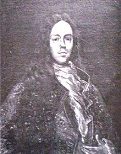


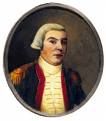


1724 On Jan. 28 the Russian Academy of Sciences in St. Petersburg, Russia is founded by Peter I the Great with advice by Gottfried Wilhelm Leibniz, with members incl. Leonhard Euler (1707-83), Daniel Bernoulli, Nicholas Bernoulli, and Christian Goldbach; called St. Petersburg Academy of Science until 1917, and Soviet Academy of Science in 1925; moves to Moscow in 1934. Philip V abdicates in favor of his 17-y.-o. son, who becomes Luis I of Spain, but he dies of smallpox before the year is up, and Philip V resumes his reign; his 2nd son Ferdinand becomes the prince of Asurias, next in line for the throne; Philip V builds San Ildefonso, the palace of the Granja (modeled on Versailles) to house himself and Elizabeth as the palace of the Bourbons in Spain. On Mar. 7 Pope Innocent XIII dies, and on May 27 Pietro Francesco Orsini is elected Pope (#245) Benedict XIII (1649-1730); he learns to smoke and repeals papal bulls against clerical smoking - didn't I make you feel like you are the only man? In June Russia and Turkey agree to a peaceful partition of Persia's newly-captured NW provinces. On Aug. 23 after Father Rale's War (Lovewell's War) (Gov. Dummer's War, Greylock's War, the Three Years War) (4th Anglo-Abenaki War) (Wabanaki-New England War of 1722-5) begins after English colonists suspect French Jesuit missionary (since 1694) Father Sebastien Rale (Rasle) (Rasles) (b. 1657) of abetting tribal hostilities against British settlements, 200 colonial troops under Capt. Johnson Harmon, Capt. Jeremiah Moulton, and Capt. Richard Bourne from Fort Richmond via Taconic Falls (Winslow), Maine arrive in the Abenaki village of Narantsouak (Norridgewock, Maine) on the Kennebeck River on the border with Acadia, starting the Battle of Norridgewock, massacring 26 Indian warriors incl. Chief Mog along with Father Rale and injuring 14, with the 150 survivors fleeing to St. Francis (where they get a little payback in 1757) and Becancour, Quebec, after which Rale is treated as a Catholic martyr, with a monument erected over his grave in Madison, Maine in 1833; the Abenaki Confederacy (founded in the 1670s) is destroyed by the English. On Nov. 16 famed highwayman Jack Sheppard (b. 1702), who commits a robbery a day in and about London is betrayed by fence Jonathan Wild, arrested and sentenced to death, then escapes with the help of Edgeworth Bess, is rearrested, escapes from Newgate, gets drunk and is arrested a final time, placed under 24-hour guard, then hanged in Tyburn, going on to be celebrated in A Narrative of All the Robberies, Escapes, Etc., of John Sheppard, attributed to Daniel Defoe. In Nov. after receiving a promise of a line of credit to buy equipment and supplies to start his own printing shop, 18-y.-o. Benjamin Franklin sails for London with aspiring poet James Ralph, befriending prominent Quaker merchant Thomas Denham on the voyage; on the way they stop at Block Island, and the sight and smell of the plentiful cod being cooked causes him to give up his flirtation with vegetarianism, picked up after by reading a book by Thomas Tryon (1643-1703) in 1722; after the line of credit falls through, he gets a job at Samuel Palmer's printing house; he then tries to seduce Ralph's girlfriend and they break up. Thomas Pelham-Holles, Duke of Newcastle (1693-1768) is appointed secy. of state for the British ministry's southern dept., with responsibility for supervising the Am. colonies; a petty buffoon, his policy becomes known as "solitary neglect". Lord Newcastle becomes secy. of the committee of the privy council in England, and commandeers control of the Board of Trade (ends 1748). Peter the Great crowns his wife Tsarina Catherine. The Austrian Netherlands agree to the Pragmatic Sanction. Most of the Tulpehocken Delawares migrate to the Ohio Valley. Vermont (Vt.) is settled at Ft. Dummer on the Connecticut River by the English. France issues a decree against the Reformed (Protestant) Church, prohibiting it from holding secret exercises; a price is put on the head of reformer Antoine Court (d. 1760), causing him to flee to Lausanne in 1730 and found a seminary, which he runs for life. After the Portuguese begin fortifying the heights around the Bay of Montevideo in Uruguay, a Spanish force from Buenos Aires led by Spanish soldier Bruno Mauricio de Zabala (1682-1736) forces them back to Colonia, and Zabala founds a fortress that becomes the city of Montevideo (San Felipe y Santiago de Montevideo) on the NE bank of the Rio de la Plata River 68 mi. E of Buenos Aires (modern-day pop. 1.3M/1.9M), continuing the turf war, while the British and Portuguese carry on what they claim to be illicit trade in the Rio de la Plata region; Montevideo goes on to become the center of Spanish control over the Banda Oriental, capital and largest city of Uruguay, and southernmost capital city in the Americas. Gin drinking becomes popular in Great Britain. The Paris Bourse, France's nat. stock market opens. Professorships of modern history and languages are founded at Oxford U. and Cambridge U.; David Gregory (1696-1767) becomes the first Regius Professor of History at Oxford U. (until 1736); Samuel Harris (1682-1733) becomes the first Regius Professor of Modern History at Cambridge U. (until 1733); in 2010 it becomes the Regius Professor of History at Cambridge U, starting with Sir Richard J. Evans (until 2014), then Christopher Clark (until ?). Bavarian elector Maximilian II Emanuel founds a union of all the lines of the Wittelsbach family in hopes of one day getting the HRE title away from the Hapsburgs, which happens in 1742, 16 years after his death when his sonny boy Charles VII Albert finally gets to sit his you know what on the emperor's chair, although only for three years. Longman's Publishing House is founded in England, becoming the oldest to survive to modern times. After receiving a bequest from William III's secy. Sieur D'Allone, English philanthropist Dr. Thomas Bray founds the Associates of Dr. Bray in London educated enslaved blacks in the British North Am. colonies; on Jan. 2, 1760 they elect Ben Franklin to membership, signifying him as a leading philanthropist in New England. The Three Choirs Festival for Gloucester, Hereford and Worcester in England is founded. The Academy of Antient Musick in London elects Italian composer Agostino Steffani as honorary pres. for life, causing him to send them a bunch of musical mss. which end up in the British Museum. Architecture: James Gibbs begins building the Fellows' Bldg. at King's College, Cambridge (finished 1749). Prince Eugene's Belvedere Palace in Vienna is finished by Johann Lukas von Hildebrandt. Leonardo de Figueroa designs the West Entrance to the St. Telmo Palace in Seville, Spain. Inventions: Blasting is first used in Sweden. Daniel Gabriel Fahrenheit of Amsterdam discovers the phenomenon of supercooling (undercooling), the ability of a liquid or gas to be lowered below its freezing point, for example when water doesn't freeze in clouds. Am. tavern owner Joseph French near Albany, N.Y. invents French toast; should have called it French's toast? Science: After being freaked-out by the 1692-3 Salem Witch Trials, Puritan New England minister Cotton Mather (1663-1728) advances physical rather than demonic explanations for mental illnesses. Nonfiction: Anon., Letter of Jesus Christ; claims to have been "written by Jesus Christ, and found under a great stone both round and large, at the foot of the cross, 18 miles from Iconium, near a village called Mesopotamia", and "now in the possession of the Lady Cuba's family"; becomes a big hit, circulating into the 20th cent. Herman Boerhaave (1668-1738), Elementa Chemiae (Elements of Chemistry); describes Boerhaave's Syndrome (tearing of the esophagus); tells how in the winter he "exposed beer, wine, vinegar, and brine in large open vessels to the frost; which, thus, congeal'd nearly all the water of these liquors into a soft, spongy kind of ice, and united the strong spirits of the fermented liquors; so that by piercing the ice, they might be pour'd off and separated from the water, which diluted them from freezing... it is probable, that the utmost possible cold in nature would deprive water of all its dissolving power." Anthony Collins (1676-1729), Discourse of the Grounds and Reasons of the Christian Religion. Daniel Defoe (1659-1731), A Tour Through the Whole Island of Great Britain (1724-6) (3 vols.). Bernard de Fontenelle (1657-1757), De l'Origine des Fables (On the Origin of Fables); written in 1691-9. August Hermann Francke (1663-1727), Commentatio de Scopo Librorum Veteris et Novi Testamenti. Capt. Charles Johnson, General History of the Robberies and Murders of the Most Notorious Pyrates; the real author is Daniel Defoe? Philip Miller (1691-1771), The Gardener's and Florist's Dictionary; or A Complete System of Horticulture; by the chief gardener of the Chelsea Physic Garden. Herman Moll (1654-1732), New Description of England and Wales; atlas. John Oldmixon (1673-1742), A Critical History of England (1724-26). Isaac Watts (1674-1748), Logic, or The Right Use of Reason in the Enquiry After Truth With a Variety of Rules to Guard Against Error in the Affairs of Religion and Human Life, as well as in the Sciences; bestseller (20 eds.). Music: William Croft (1678-1727), Musica Sacra; first church music collection printed in the form of a score; incl. Burial Services, which is used at British state funerals. Francois Couperin (1668-1733), Le Parnasse, ou L'Apotheose de Corelli. Francesco Gasparini (1661-1727), Tigrane (opera). G.F. Handel (1685-1759), Giulio Cesare in Egitto (Julius Caesar in Egypt) (opera) (King's Theatre, London) (Feb. 20); libretto by Nicola Francesco Haym; stars Senesino as Caesar, and Francesca Cuzzoni as Cleopatra; incl. Al Lampo dell'Armi, L'Empio, Sleale Indegno, L'Angue Offeso Mai Riposa; Tamerlano (Tamerlane) (opera) (King's Theatre, London) (Oct. 31); libretto by Nicola Francesco Haym based on Agostin Piovene's "Tamerlano"; stars Francesco Borosini as Sultan Bajazet, Andrea Pacini as Tamerlane, and Francesca Cuzzoni as Bajazet's daughter Asteria; Bajazet is one of the first major tenor roles in opera. Plays: Ludvig Holberg (1684-1754), Henrik and Pernille (comedy). Poetry: Allan Ramsay (1685-1758), The Tea-Table Miscellany: A Collection of Choice Songs, Scots and English (4 vols.) (1724-7); The Ever Green (1724-7); anthology of Scottish verse, incl. The Vision. Novels: Daniel Defoe (1659-1731), Roxana: The Fortunate Mistress (The Fortunate Mistress: Or, A History of the Life and Vast Variety of Fortunes of Mademoiselle de Beleau, Afterwards Called the Countess de Wintselsheim, in Germany, Being the Person known by the Name of the Lady Roxana, in the Time of King Charles II). Births: Am. Baptist preacher and church-state separation advocate Isaac Backus (d. 1806) on Jan. 9 in Yantic, Conn. Courland duke (last) (1769-95) Peter von Biron (d. 1800) on Feb. 15 in Jelgava; son of Ernst Johann von Biron (1690-1772). Am. Rev. leader Brig. Gen. Christopher Gadsden (d. 1805) on Feb. 16 in Charleston, S.C.; grandfather of James Gadsden (1788-1858). British field marshal George Townshend, 1st Marquess Townshend (d. 1807) (AKA Viscount Townshend from 1764-87) on Feb. 28; son of Charles Townshend, 3rd viscount Townshend (1700-64) (Lord Lynn); brother of Charles Townshend (1725-67); 1st cousin of Thomas Townshend, 1st viscount Sydney (1732-1800); educated at St. John's College, Cambridge U. Am. Rev. leader and physician (DOI signer) Lyman Hall (d. 1790) on Apr. 12 in Wallingford, Conn.; educated at Yale U. German "Critique of Pure Reason" philosopher (founder of the Idealist school) Immanuel Kant (d. 1804) on Apr. 22 in Konigsberg, Prussia (Kaliningrad, Russia). Austrian field marshal Dagobert Sigismund, Count von Wurmser (d. 1797) on May 7 in Strasbourg, Alsace. English artist (originator of the idea of the picturesque) Rev. William Gilpin (d. 1804) on June 4 in Cumberland; educated at Queen's College, Oxford U. English civil engineer-physicist ("Father of Civil Engineering") John Smeaton (d. 1792) on June 8 in Austhorpe, Leeds. Swiss (Genevan) physicist Georges-Louis Le Sage (d. 1803) in Geneva; educated at the U. of Geneva. German poet Friedrich Gottlieb Klopstock (d. 1803) on July 2 in Quedlinburg. English historian Lawrence Brockett (d. 1768) on Aug. 13; educated at Trinity College, Cambridge U. English painter George Stubbs (d. 1806) on Aug. 25 in Liverpool; known for his paintings of horses. British gen. Sir Guy Carleton, 1st Baron Dorchester (d. 1808) on Sept. 3 in Strabane, County Tyrone, Ireland. German educator Johann Bernhard "J.B." Basedow (d. 1790) on Sept. 11 Hamburg; educated at the U. of Leipzig. Spanish queen consort of Naples and Sicily (1738-59) and Spain (1759-60) Maria Amalia Christina Franziska Xaveria Flora Walburga of Saxony (d. 1760) on Nov. 24 in Dresden; daughter of Augustus III of Poland (1696-1763) and Maria Josepha (1699-1757) (daughter of HRE Joseph I); wife (1738-60) of Charles III (1716-88); mother of Maria Louisa of Spain (1745-91) (wife of HRE Leopold II), Charles IV (1748-1819), and Ferdinand I (1751-1825). German Palatine elector (1742-99) and Bavarian elector (1777-99) Karl IV Theodor (Charles IV Theodore) (d. 1799) on Dec. 11 in Drogenbos (near Brussels); of the Oberpfalz-Sulzbach line of the House of Wittelsbach (founded 1119). English natural philosopher John Michell (d. 1793) on Dec. 25 in Earking, Nottinghamshire; educated at Queen's College, Cambridge U. Chinese "Dream of the Red Chamber" novelist Cao (T'sao) Xueqin (Zhan) (Chan) (d. 1764) (b. 1715?) in Nanjing; Han Chinese. Irish "Memoirs of Miss Sidney Bidulph" novelist-playwright Frances Sheridan (nee Chamberlaine) (d. 1766) in Dublin; wife (1747-) of Thomas Sheridan (1719-88); mother of Richard Brinsley Sheridan (1751-1816). Japanese wood block artist Suzuki Harunobu (d. 1770) (b. 1725?); pupil of Shighenega; inventor of polychrome block prints. Spanish Calif. gov. (1775-82) (founder of Los Angeles) Felipe de Neve (d. 1784) in Bailen, Jaen Province. Dutch novelist Willem Leevend (d. 1785); collaborator of Rhijnvis Feith (1753-1824). Am. Rev. leader-jurist (DOI signer) ("Father of American Jurisprudence") ("Virginia's Foremost Classical Scholar") George Wythe (d. 1806) in Chesterton (Hampton), Va.; first law prof. in the U.S., and Thomas Jefferson's mentor. Deaths: English philanthropist John Kyrle (b. 1637) on Nov. 7 in Ross-on-Wye. German composer Johann Theile (b. 1646) on June 24. English divine Humphrey Prideaux (b. 1648). Scottish-born Am. colonist William Trent (b. 1653). French Jesuit missionary Sebastian Rale (b. 1657) on Aug. 23 in Norridgewock, Maine (KIA). English writer Delarivier (Mary) Manley (b. 1663): "There's no time like the present." Spanish viceroy of New Spain (1702-11) Francisco Fernandez de la Cueva, 10th duke of Alburquerque (b. 1666) on June 28 in Madrid. English highwayman Jack Sheppard (b. 1702) in Tyburn (hanged). Korean king Kyonjong.








1725 The pop. of black slaves in the British Am. colonies reaches 75K. In 1725-1800 there are 137 newspapers pub. in N.Y. state, incl. 20 in New York City; by 1865 there are 373 newspapers being pub. in 428 eds. in N.Y., incl. 54 in New York City. On Jan. 9 (Dec. 29 Old Style) Peter I the Great asks Danish-Russian explorer Vitus Jonassen Bering (1681-1741) to launch an expedition E from St. Petersburg to explore the N Pacific Ocean, becoming known as the First Kamchatka Expedition, going on to discover the Bering Strait, Gulf of Kamchatka, Avacha Bay, and the Chukchi Sea, proving that Asia and North Am. aren't connected; they return on Feb. 28, 1730 to St. Petersburg via Okhotsk, making Bering a celeb. On Feb. 8 (Jan. 28 Old Style) after aggravating his condition by attempting to rescue some drowning soldiers by wading into the Baltic, tsar (since 1682) Peter I the Great (b. 1672) dies of uremia in the middle of writing his will ("I leave everything to..."), and his illiterate serf wife (not so great) Catherine (Ekaterina Alexeyevna) I (1684-1727) takes the Russian throne as Russian Romanov tsar #6 (until May 17, 1727), taking advantage of all his modernization efforts to begin a push to expand Russia to the Black Sea, creating the Order of Alexander Nevsky on June 1 (May 21 Old Style), conveniently forgetting the way this hero sold-out to the Tartars; Peter's black adopted son Gen. Abram Petrovich Gannibal (d. 1781) is demoted and sent to exile in Siberia, but eventually retires to a modest estate, where he does research on military engineering amongst his white serfs. On Apr. 22 after watching the Persian pop. rise against him, and inviting Persian nobles and princes to a meeting then having them slaughtered, along with 3K Persian royal guards, along with all the Safavid princes except Soltan Hosein and his two sons, then going insane, Mir Mahmud Hotaki (b. 1697) is killed in a palace revolt, and his son Ashraf Ghalzai (1700-20) becomes Hotaki shah of Afghanistan and Persia, marrying a Safavid princess and going on to stop Ottoman and Russian incursions. In Apr. after mapping the W African Kingdom of Whydah, French explorer Reynaud des Marchais, Chevalier des Marchais witnesses the coronation of king Haffon (1695-1727); Whydah is conquered by Dahomey in 1727; he also discovers the Miracle Fruit (Synsepalum Dulcificum), whose berries cause sour foods (lemons, limes etc.) to taste sweet; it takes until 1968 to isolate the active ingredient miraculin. On May 18 George I founds the Most Honourable Military Order of the Bath, based on the medieval ceremony for creating a knight, which involves bathing as a symbol of purification. In May Dutch ship officer Leendert Hasenbosch (b. 1695) is marooned at Clarence Bay on Ascension Island for sodomy, and dies of thirst after failing to find the freshwater spring in Breakneck Valley or Dampier's Drip lower down and drinking urine and turtle blood instead, and leaving a diary after dies at the end of the year. On June 7 after his daughter's engagement to Louis XV is broken off, Philip V of Spain signs the Treaty of Vienna with Austria, guaranteeing the Pragmatic Sanction, and causing Britain, France. and Prussia on Sept. 3 to form the Alliance of Herrenhausen in opposition, signing the Treaty of Hanover. On June 23 the Malt Tax Riots begin among Scottish highlanders in hamilton over a new malt tax, spreading throughout the country, sparking the Shawfield Riots in Glasgow; James I decides to treat them like Jacobites, founding the Black Watch of several cos. of Scottish militia wearing kilts and dark tartans to quash the revolt and curb feuds among Scottish highland clans; in 1729 they are integrated into the British army; the chieftains of the clans are known for the Fiery Cross (AKA bidding stick, budstikke, war arrow, stembod), a partially burned cross dippped in blood and sent via relay runners in order to assemble the clans in time of emergency, which is later adopted by the Ku Klux Klan and jazzed up. On Nov. 25 after French settlers of Ill. led by Pere Beaubois send 22 native chiefs, only to see the ship sink, then try again and send Chief Agapit Chicagou of the Metchigamea and five other chiefs to France, they meet with 15-y.-o. Louis XV in Fontainebleau, and Chicagou has a letter read pledging allegiance to the crown; they later dance three kinds of dances in the Theatre Italien, inspiring Jean-Philippe Rameau to compose the rondeau Les Sauvages for harpsichord. In Dec. (around Xmas) Voltaire escorts actress Adrienne Lecouvreur to the Comedie-Francaise in Paris, and is publicly insulted by Chevalier de Rohan Chabot, who says, "Monsieur de Voltaire - Monsieur Arouet - why don't you decide what your name is?", to which he replies, "My name begins with me, yours ends with you"; after Chabot has him beaten up by six rogues, Voltaire demands a duel, gets put in the Bastille, and is released upon promise of voluntary exile? Monkey, will you marry me? Louis XV of France marries Marie Leszczynska (1703-68), daughter of Stanislaus I of Poland, and she goes on to live in a few small rooms in Versailles while her hubby excludes her from court life and carries on with his parade of can't-take-it-with-you mistresses. The Marathas under Baji Rao I battle the Nizam-ul-Mulk in Hyderabad, while other Maratha forces invade Gujarat, and are routed by a Mughal army led by Sarbuland Khan. Yongjo (1694-1776) becomes Yi king of Korea (until 1776). Canada begins making treaties with the aborigines. Sir Francis Nicholson returns to London, is promoted to lt.-gen., and lobbies to unite the British North Am. colonies in order to provide for their common defense against French and Indians, with a viceroy and a united army; too bad, the Va. legislature opposes it. The word "waffle" first appears in English in Robert Smith's Court Cookery. Ben Franklin switches to the popular pub. house of John Watts in Wild Court near Lincolns-Inn-Fields in London (until 1726), and sells an asbestos purse to Royal Society secy. Sir Hans Sloane for a goodly sum; Watts' printing press is exhibited in the 1876 Centennial Exposition in Philly, then sold to the Smithsonian Inst. in 1901. King George grants an explanatory charter to the Mass. Bay Province. The 1679 French wooden fort at Niagara is rebuilt of stone and named Ft. Niagara, becoming the oldest continuously occupied military site in North Am. to survive to modern times. After asking himself the question "How doth Christ execute the office of a king", Scottish minister John Glas (1695-1773) founds a nonconformost society "separate from the multitude", with 100 members who reject nat. covenants and believe that the true Reformation can't be carried out by political secular weapons but only by the spirit and word of Christ. Charles Radclyffe, 5th Earl of Derwentwater (1693-1746), an illegitimate cousin and personal secy. of Bonnie Prince Charlie founds the first Masonic lodge in Europe in Paris. The New York Gazette is founded on Nov. 8 by Philly-hating William Bradford (until 1744), becoming the first newspaper in New York City and the 4th in British Am. A.D. Philidor gives the first concerts spirituels (public concerts) in Paris. German organ maker Gottfried Silbermann (1683-1753) of Freiberg adopts Bartolommeo Cristofori's pianoforte mechanism. Chantilly soft-paste porcelain begins to be produced in France (until 1800), with tin-oxide glaze, switching to an orthodox glaze in 1760, becoming known for the Chantilly Sprig of cornflower and forget-me-nots. Architecture: The Standetheater opera house in Prague is founded. The Spanish Steps in Rome (begun 1721) are finished. The Octagon Orleans House in England (begun 1720) is finished. St. George's in Hanover Square, London (begun 1712) is finished. Inventions: Scottish goldsmith William Ged (1699-1749) patents stereotyping, using a 1-piece printing plate cast in type metal from a mold (matrix) taken off a page of set type; too bad, he can't push it on the public and ends up dying broke. Science: English astronomer royal #3 James Bradley (1692-1762) observes that the fixed stars describe small ellipses within exactly the duration of the terrestrial year, and that stars from the poles of the ecliptic to the ecliptic describe figures increasingly less circular and more approaching straight lines, suggesting the possibility of observing stellar parallax (discovered in 1838); he also discovers the aberration of light (which he explains by the finite speed of light combined with the motion of the Earth around the Sun), and the phenomenon of nutation, and begins measurement throughout an 18.5-year lunar cycle (until 1748). Sir William Gage, 7th Baronet (1695-1744) introduces the Greengage plum (Prunus domestica italica) (Reine Claude) (a large plum with golden-green skin and flesh) into England from France. Nonfiction: Anon., Compendium of Books Past and Present (Gujin Tushu Jicheng) (5,020 vols.); Qing Dynasty encyclopedia; 66 copies are printed using 250K bronze movable type characters. Guillaume Delisle (1675-1726), Map of Europe. Elijah Fenton (1683-1730) (ed.), The Works of John Milton. John Flamsteed (1646-1719), Historia Coelestis Britannica (3 vols.) (posth.); first ed. in 1712; observations of 3K fixed stars, becoming a key work for British astronomers. Benjamin Franklin (1706-90), A Dissertation on Liberty and Necessity, Pleasure and Pain; a critique of William Wollaston's "The Religion of Nature Delineated"; claims to disprove free will, immortality, and Calvinist salvation-damnation by starting with the theorem: "What He [God] consents to must be good, because He is good; therefore evil does not exist"; he is later embarrassed by it. Johann Joseph Fux (1660-1741), Gradus ad Parnassum (Ascent to Mount Parnassus); dedicated to HRE Charles VI; becomes a standard textbook on counterpoint, used by Haydn, Mozart, and Beethoven. Abram Petrovich Gannibal (1695-1781), Geometry and Fortifications. Arai Hakuseki (1657-1725), Autobiography. Francis Hutcheson (1694-1746), An Inquiry into the Original of Our Ideas of Beauty and Virtue; Inquiry Concerning Moral Good and Evil. Marquise de Sevigne (1626-96), Letters (posth.). Giovanni Battista Vico (1668-1744), The New Science (Principii d'una Scienza Nuova Intorno Alla Commune Natura Delle Nazione); his magnum opus; attacks the separateness of body and mind, along with Cartesian analysis and other forms of reductionism in favor of systemic thinking, propounding a cyclical view of history (the divine, heroic, and human phases), founding the modern philosophy of history; "[We] must take seriously Vico's great observation that men make their own history, that what they can know is what they have made, and extend it to geography." (Edward Said) Samuel Wyld, The Practical Surveyor. Music: J.S. Bach (1685-1750), Notenbuch for Anna Magdalena Bach; incl. Bist Du Bei Mir. Henry Carey (1687-1743), Sally in Our Alley. G.F. Handel (1685-1759), Rodelinda, Regina de' Longobardi (opera) (King's Theatre, London) (Feb. 13); libretto by Nicola Francesco Haym based on a libretto by Antonio Salvi, based on Pierre Corneille's "Pertharite, Roi des Lombards". Johann Adolf Hasse (1699-1783), Antonio e Cleopatra (Naples); sung by Farinelli and Vittoria Tesi; makes German composer Hasse a celeb in Naples. Reinhard Keiser (1674-1739), Bretislaus oder Die Siegende Bestandigkeit (opera) (Hamburg). Art: Canaletto (1697-1768), Four Views of Venice. William Hogarth (1697-1764), The Lottery; The Mystery of Masonry brought to Light by the Gormogons; A Just View of the British Stage. Plays: Allan Ramsay (1686-1758), The Gentle Shepherd (pastoral comedy); a giant hit. Poetry: Henry Carey (1687-1743), Namby Pamby; or, A Panegyric on the New Versification; satire of the stupid verse of Ambrose Philips (1675-1749), enemy of Alexander Pope; causes the term "namby pamby" to become popular for nonsense, and Philips to become known as Namby Pamby; "So the nurses get by heart,/ Namby Pamby's little rhymes". Carlo Goldoni (1707-93), Il Colosso; satire against Pavia girls which gets him expelled from Collegio Ghislieri; Il Quaresimale in Epilogo (1725-6). Alexander Pope (1688-1744) (tr.), The Odyssey of Homer (1725-6); Elijah Fenton tr. books 1, 4, 19 and 20, and William Broome tr. others, and after the news that he had help leaks, his rep. is somewhat soiled; The Complete Works of Shakespeare; a new ed. that "regularized" the meter and changed the verse in several places, demoting 1560 lines to footnotes for being "excessively bad"". William Somerville (1675-1742), The Two Springs, a Fable. James Thompson (1700-48), The Seasons. Edward Young (1683-1765), Love of Fame, the Universal Passion (satires) (1725-7); "Must women have a doctor, or a dance?/ Though sick to death, abroad they safely roam,/ But droop and die, in perfect health, at home:/ For want - but not of health, are ladies ill;/ And tickets cure beyond the doctor's bill." Novels: Eliza Haywood (1693-1756), Memoirs of a Certain Island Adjacent to Utopia. Births: Am. Rev. "Barnstable Patriot" "taxation without represenation is tyranny" statesman-atty. James Otis Jr. (d. 1783) on Feb. 5 in West Barnstable, Mass.; brother of Mercy Otis Waren (1728-1814); educated at Harvard U. Am. Rev. leader (DOI signer) Abraham Clark (d. 1794) on Feb. 15 in Elizabethtown, N.J. French automobile inventor Nicolas-Joseph Cugnot (d. 1804) on Feb. 26 in Void-Vacon, Lorraine. Italian cardinal (1747-) Henry Benedict Maria Clement Stuart (d. 1807) on Mar. 11 in Rome; son of "Old Pretender" James Francis Edward Stuart (1688-1766); brother of "Bonnie Prince Charlie" Charles Edward Stuart (1720-88); 4th and last Jacobite heir, referring to himself as the duke of York until 1688 and Henry IX of England Henry I of Scotland afterwards; the last claimant to the English throne to touch for the King's Evil. Am. Rev. War brig. gen. Lachlan McIntosh (d. 1806) on Mar. 17 in Raits, Badenoch, Scotland; emigrates to the U.S. in 1736. Ottoman sultan #27 (1774-89) Abdul Hamid (Abdulhamid) I (d. 1789) on Mar. 20 in Constantinople; son of Ahmed III (1703-30) and Rabia Sermi Sultan; brother of Mustafa III (1757-74); father of Mahmud II (1785-1839). Am. Rev. Boston pastor Samuel Cooper (d. 1783) on Mar. 28 in Boston, Mass. Italian adventurer-lover-libertine-rake-writer ("king of seduction") Giovanni (Jacques) Giacomo (Jacopo) Girolamo Casanova de Seingalt (d. 1798) on Apr. 2 in Venice; son of two Venetian thespians; educated as a lawyer. Corsican patriot leader (bi?) Filippo Antonio Pasquale de Paoli (d. 1807) on Apr. 6 in Stretta, Morosaglia, Haute-Corse; son of Giacinto Paoli. French adm. Augustus Keppel, 1st Viscount Keppel (d. 1786) on Apr. 25; 2nd son of Willem Anne van Keppel, 2nd earl of Albemarle and Anne van Keppel (daughter of the 1st duke of Richmond, illegitimate son of Charles II); created viscount in 1782. French soldier Louis Philippe I (the Fat) (le Gros), Duke of Orleans (d. 1785) on May 12 in Versailles; son of Duke Louis of Orleans (1703-52); first prince of the blood after 1752; father of Philippe Egalite (1747-93). Am. Rev. War politician Samuel Ward (d. 1776) on May 25 in Newport, R.I.; descendant of Roger Williams. French marshal Jean Baptiste Donatien de Vimeur, Comte de Rochambeau (d. 1807) in Vendome on July 1 in Vendome, Loir-et-Cher; cmdr. of French forces in the Am. Rev. War. French genre-portrait painter Jean-Baptiste Greuze (d. 1805) on Aug. 21 in Tournus, Burgundy. French mathematician Jean Etienne Montucla (Jean-Étienne Montucla) (d. 1799) on Sept. 5 in Lyon. English military leader and opium eater ("British Conqueror of India") maj.-gen. Robert Clive (OE "cliff"), 1st Baron Clive (d. 1775) on Sept. 29 in Styche Hall, Moreton Say, Market Drayton, Shropshire; his Clive (Clyves) family goes back to Henry II. English radical journalist-politician John Wilkes (d. 1797) on Oct. 17 in Clerkenwell, London; ancestor of Am. actor John Wilkes Booth (1838-65); friend of poet Charles Churchill (1731-64); namesake of Wilkes-Barre, Penn. Am. clergyman Martin Boehm (d. 1812) in Nov. 30 in Lancaster, Penn.; Mennonite parents; descendant of Jakob Boehme (1575-1624); father of Henry Boehm (1775-1875); founder of the Church of the United Brethren in Christ. Am. Rev. planter-statesman ("the gentleman revolutionary") ("the reluctant statesman") George Mason (d. 1792) on Dec. 11 in Doeg's Neck, Fairfax County, Va.; his 10th son Thomas Mason is the great-times-seven grandfather of 21st cent. celeb Paris Hilton. English novelist-playwright-satirist William Kenrick (d. 1779) in Watford, Hertfordshire. Am. Rev. War. brig. gen. John Alexander Lillington (d. 1786) in Barbados, West Indies. English stock breeder Robert Bakewell (d. 1795); first to breed cattle for food rather than pulling plows; creator of the Dishley Longhorn cattle breed, the English Leicester sheep breed, and the Shire horse breed. English astronomer Nathaniel Pigott (d. 1804) in Whitton, Middlesex; father of Edward Pigott (1753-1825). English abolitionist divine and "Amazing Grace" hymn writer John Newton (d. 1807); infidel slave trader for 20 years converts to Christ and spends the rest of his life seeking to make amends. Deaths: French New France gov.-gen. (1703-25) Philippe de Rigaud, Marquis de Vaudreuil (b. 1643) on Oct. 10. Italian sculptor Giambattista Foggini (b. 1652) on Apr. 12 in Florence. Am. Congregational minister John Wise (b. 1652). Japanese dramatist Chikamatsu Monzaemon (b. 1653). Japanese writer Arai Hakuseki (b. 1657) on June 29. Italian composer Alessandro Scarlatti (b. 1660) on Oct. 24; wrote 115 operas, 20 oratorios, 500 chamber and solo cantatas, 10 masses, plus a load of instrumental music - she doesn't even hear me when I talk? French dramatist-actor Florent Carton Dancourt (b. 1661) on Dec. 7. Spanish architect-sculptor Jose Benito de Churriguera (b. 1665) on Mar. 2. Russian tsar (1682-1725) Peter I the Great (b. 1672) on Feb. 8 (Jan. 28 Old Style) in St. Petersburg (uremia after wading into the cold Baltic to rescue shipwrecked soldiers).


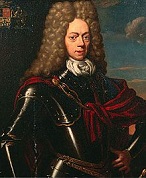











1726 Pop. of London: 700K. On Feb. 26 Maximilian II Emanuel (b. 1662) dies, and his son Charles VII Albert (1697-1745) becomes elector of Bavaria, maintaining good relations with his Hapsburg relatives while waiting for them to die out so he can become HRE Charles VII on Jan. 24, 1742. On May 5 French ballerina Marie Anne de Cupus de Camargo (1710-70) makes her debut at the Paris Opera. In July Benjamin Franklin leaves England after visiting his ancestral home in Ecton Village in Northamptonshire, where his ancestors lived for 3 cents., many engaging in the blacksmithing (vilage smithy) trade, borrowing a coat of arms from some English family named Franklin that he eventually has engraved on a silver tankard; he returns to Philadelphia and works as a clerk for Thomas Denham; during the voyage he writes a "Plan for Future Conduct", pledging to be frugal, honest, industrious, and "to speak ill of no man whatever"; a few mo. after landing Denham dies, and Franklin goes back to Keimer's print shop next year. In Sept. 25-y.-o. married maidservant Mary Toft (Tofts) (1701-63) is claimed by her physician John Howard to have given birth to 17 rabbits in Godalming, England, fooling several other physicians incl. George I's surgeon Nathaniel St. Andre and Sir Richard Manningham, until it is revealed to be a hoax, exposing the abysmal state of medicine. 73-y.-o. Cardinal Andre Hercule de Fleury (1653-1743) becomes PM of France under Louis XV until his death at age 90 (1743). Dutch ambassador to Spain (1715-25) Johan Willem (John William) (Juan Guillermo), Baron of Ripperda (Ripperdá), 1st Duke of Ripperda (1686-1737) is dismissed for incompetence and imprisoned, and the 1725 agreement with Austria is repudiated; Prussia withdraws from the Alliance of Herrenhausen, and signs the Treaty of Wusterhausen, guaranteeing the Pragmatic Sanction, leaving Austria and Prussia on one side, Britain and France on the other, and Spain swinging loose; Ripperda the ripoff artist escapes to Holland in 1728, then allegedly goes to Morocco and becomes a Muslim. Orthodox Catholic Russia and the Roman Catholic Holy Roman Empire ally against Turkey. Turkoman Qizilbash Afshar tribal leader Khouli Khan (1687-1747) (later Nadir or Nader Shah the Great) of N Persia helps Prince Tahmasp (son of Soltan Husayn) reconquer Persia from the Afghans, Russians, and Ottomans, acknowledging him as shah Tahmasp II (1704-40) until he can finish the job and take over for himself and become the Napoleon and Alexander the Great of Persia in 1736. Poor riots rock Philadelphia. 16-y.-o. castrato Caffarelli (1710-83) debuts in Rome in Domenico Sarro's Valdemaro, going on to rise to the top of his profession behind Farinelli. Jonathan Edwards becomes minister of the Congregational church in Northampton, Mass. St. John of the Cross is canonized. After pissing-off some aristocrats, French lit. giant Voltaire (Francois-Marie Arouet) (1694-1778) is exiled in Britain (until 1728), living at 10 Maiden Lane in Covent Garden, London, where he develops an interest in the works of Shakespeare, which are still relatively unknown in Europe, admiring them for having more on-stage action than French plays; too bad, as Shakespeare becomes popular in France, he gets jealous, dissing him for his barbarities and trying to set his own plays up as a counterexample; in May he meets 83-y.-o. Isaac Newton in London, and may have attended his funeral - and discussed the secret formula for eternal life? Charles IV of Spain selects the fishing village of El Ferrol in Galicia (NW Spain), whose harbor is so narrow that only one ship at a time can pass, yet has the one of the largest harbors in Spain as the site for a naval station and shipbuilding yards. The first written reference to shamrocks being worn on St. Patrick's Day appears in the diary of a traveling Protestant minister, "...it being a Current Tradition, that by this Three Leafed Grass, he emblematically set forth to them the Mystery of the Holy Trinity". Bavarian elector Maximilian II Emanuel founds the Royal Order of Saint George for the Defense of the Immaculate Conception as a dynastic order of the royal house of Bavaria; it is confirmed by a papal bull on Mar. 15, 1728. Allan Ramsay establishes the world's first circulating library in Edinburgh. The Academy of Ancient Music is founded in London for musical works over 150 years old (prior to 1625), becoming the first use of the word "ancient". Italian violinist Giuseppe Tartini (1692-1770) establishes a violin school in Padua. Gen. George Wade begins building 250 mi. of military roads in the Scottish Highlands (finished 1737). Architecture: Colin Campbell designs Compton Palace in Eastbourne, Sussex, England. Henry Somerset-Scudamore, 3rd Duke of Beaufort (1707-45) commissions the construction of the ebony Badminton Chest (Cabinet) in Florence; in 2004 Prince Hans-Adam II of Liechtenstein buys it for $35M, making it the most expensive piece of furniture in the world. The Baroque Frauenkirche in Dresden, Germany, designed by George Bahr (Bähr) (1666-1738) begins construction (finished 1743), featuring a 314-ft.-high 12K-ton sandstone dome called the Steineme Glocke (Stone Bell), which gives the city a distinctive silhouette. St. Martin's-in-the-Fields Anglican Church at the NE corner of Trafalgar Square in London, begun in 1721, by architect James Gibbs is finished, inspiring a number of Am. Georgian churches. Inventions: John Harrison (1693-1776) of England invents the gridiron pendulum, with alternate rods of steel and brass to equalize thermal variations. Science: English clergyman Stephen Hales (1677-1761) first measures blood pressure. You might as well be walking in the Sun? On Apr. 15 William Stukeley dines with Sir Isaac Newton; "After dinner, the weather being warm, we went into the garden and drank thea, under the shade of some appletrees, only he and myself. Amidst other discourse, he told me, he was just in the same situation, as when formely, the notion of gravitation came into into his mind. It was occasion'd by the fall of an apple, as he sat in a contemplative mood. Why should that apple always descend perpendicularly to the ground, thought he to himself. Why should it not go sideways or upwards, but constantly to the earths centre? Assuredly, the reason is, that the earth draws it... That there is a power, like that we here call gravity, which extends its self thro' the Universe." Nonfiction: Anon., Tadhkirat al-Muluk; a manual of the Persian Safavid admin., detailing the powers of the grand vizier, the influence of the harem over rulers, and the 50+ royal guilds that produce articles for them, incl. textiles and carpets for export. Richard Bentley (1662-1742) (ed.), The Works of Terence. George Berkeley (1685-1753), America, or the Muse's Refuge: A Prophecy; pub. in 1752 as "Verses by the Author on the Prospect of Planting Arts and Learning in America"; "Westward the course of empire takes its way;/ The four first Acts already past,/ A fifth shall close the Drama with the day;/ Time's noblest offspring is the last." Joseph Butler (1692-1752), Fifteen Sermons Preached at the Rolls Chapel. The Berleburg Bible (8-vol.); trans. for the Pietist movement within German Luthernism by Johann Haug begins to be pub. from Bad Berleburg, 100 mi. N of Frankfurt am Main, where Count Casimir von Wittgenstein Berleburg grants them asylum. Jean Cavalier (1681-1740), Memoirs of the Wars of the Cevennes under Col. Cavalier. Benito Jeronimo Feijoo y Montenegro (1676-1764), Teatro Critico Universal (1726-39) (essays); shows influence by Christian Thomasius and Thomas Browne, combating popular superstitions; he once allegedly proves that exorcism is bunk by reading from Boccaccio's "Decameron" to a possessed person, who becomes cured? August Hermann Francke (1663-1727), Lectiones Paraeneticae (1726-36). Jean Hardouin (1646-1729), Conciliorum Collectio Regis Maxima (Acta Conciliorum et Epistolae Decretales ac Constitutiones Summorum Pontificum); critical ed. of the Roman Catholic Church councils; printed at the expense of the French king, and not released to the public until 1715. William Law (1686-1761), The Absolute Unlawfulness of Stage Entertainment Fully Demonstrated - Shakespeare rolls over in his grave? Johann Lorenz von Mosheim (1693-1755), Institutionum Historiae Ecclesiasticae libri IV; gets him appointed abbot of Marienthal by the duke of Brunswick, with an income from Michaelstein Abbey. Jean-Philippe Rameau (1683-1764), Nouveau Systeme de Musique Theorique. Charles Rollin (1661-1741), Traite des Etudes (Paris) (1726-31); attempts to reform education by ditching Latin for the vulgar tongue and discarding medieval traditions, along with studying nat. history. Music: G.F. Handel (1685-1759), Scipione (opera) (King's Theatre, London) (Mar. 12); libretto by Antonio Salvi and Paolo Antonio Rolli; based on Roman gen. Scipio Africanus; features March of the Grenadier Guards; Alessandro (opera) (King's Theatre, London) (May 5); libretto by Paolo Antonio Rolli based on "La Superbia d'Alessandro" by Ortensio Mauro, about Alexander the Great's journey to India, where he meets King Poro; stars Faustina Bordoni as Rossane, and Francesca Cuzzoni as Lisaura. Reinhard Keiser (1674-1739), Der Iacherliche Printz Jodelet (opra) (Hamburg). Art: William Hogarth (1697-1764), Engravings for Samuel Butler's "Hudibras". G.B. Tiepolo, Frescoes in the Udine Palace (1726-8). John Vanderbank (Michael Dahl?), Portrait of Sir Isaac Newton at Age 83. Plays: Henry Carey (1687-1743), Faustina; or the Roman Songstress; A Satyr on the Luxury and Effeminacy of the Age; a satire of opera and singer Faustina Bordoni, who has a fight with Francesca Cuzzoni during a performance of Handel. Poetry: Ludvig Holberg (1684-1754), Metamorphosis. James Thomson (1700-48), The Seasons (1726-30); poetic tetralogy; early Romantic work. Novels: Daniel Defoe (1659-1731), The Four Years Voyages of Captain George Roberts. Jonathan Swift (1667-1745), Gulliver's Travels (Travels into Several Remote Nations of the World, in Four Parts, By Lemuel Gulliver, First a Surgeon, and then a Captain of Several Ships); Lemuel Gulliver visits the countries of Lilliput and Blefuscu (6-in. tall people, Lilliput's capital city Mildendo is surrounded by a 2.5-ft. wall), Brobdingnag (60-ft. tall giants), Laputa (flying island of scientific quacks), Glubdubdrib (sorcerers), Luggnag (island where the Stuldbrugs live forever while suffering the infirmities of old age), the land of the Houyhnhnms, where intelligent horses rule over savage humanoid Yahoos, and Balnibarbi (failed inventors and projectors, capital Lagado); a satire of all things English, or just English modernism?; "If I had to make a list of six books which were to be preserved when all others were destroyed, I would certainly put 'Gulliver's Travels' among them" (George Orwell); "He [the emperor of Lilliput] is taller by almost the breadth of my nail, than any of his court, which alone is enough to strike an awe into the beholders"; "I cannot but conclude the bulk of your natives [Brobdingnag] to be the most pernicious race of little odious vermin that nature ever suffered to crawl upon the surface of the earth"; "He had been eight years upon a project for extracting sunbeams out of cucumbers, which were to be put in vials hermetically sealed, and let out to warm the air in raw inclement summers [Laputa]"; "I said the thing which was not. (For they have no word in their language to express lying or falsehood.) [Houyhnhnms]"; "Poor Nations are hungry, and rich Nations are proud, and Pride and Hunger will ever be at Variance [Houyhnhnms]"; "And he gave it for his opinion, that whosoever could make two ears of corn or two blades of grass to grow upon a spot of ground where only one grew before, would deserve better of mankind, and do more essential service to his country, than the whole race of politicians put together." Lewis Theobald (1688-1744), Shakespeare Restored, or a Specimen of the many Errors as well Committed as Unamended by Mr Pope in his late edition of this poet; designed not only to correct the said Edition, but to restore the true Reading of Shakespeare in all the Editions ever published; a variorum ed. of Shakespeare's works in reaction to Alexander Pope's 1725 ed., pointing out many errors that Pope grudgingly acknowledges by changing his 2nd ed. in 1728, while only admitting to "about twenty-five words", knocking Theobald in his anon. 1728 work "The Dunciad"; in 1733 Theobald pub. a 2nd ed. in 7 vols., which becomes a std. work; the 1740 ed. contains 35 frontispieces engraved by Hubert-Francois Gravelot. Births: Canadian soldier-judge Joshua Winslow (d. 1801) on Jan. 23 in Portsmouth, N.H.; father of Anna Green Winslow (1759-80). Russian Anglophile adm. Vasily Yakovlevich Chichagov (d. 1809) on Feb. 28 in St. Petersburg; father of Pavel Chichagov (1767-1849); educated in Britain. British adm. ("Black Dick") Richard Howe, 1st Earl Howe (d. 1799) on Mar. 8 in London; brother of William Howe (1729-1814) and George Howe (1725-58). French writer Louise Florence Petronille Tardieu d'Esclavelles, Madame d'Epinay (d. 1783) on Mar. 11 in Valenciennes. Am. Va. gov. #5 (1781-4) (DOI signer) Benjamin Harrison V (d. 1791) on Apr. 5 in Charles City County, Va.; son of Benjamin Harrison IV and Anne Carter; educated at the College of William and Mary; father of William Henry Harrison (1773-1841); great-grandfather of Benjamin Harrison (1833-1901). English "General History of Music" music historian-composer Charles Burney (d. 1814) on Apr. 7 in Shrewsbury; educated at Shrewsbury School; father of Fanny Burney (1752-1840); friend of Sir Joshua Reynolds. Scottish uniformitarian geologist ("Father of Modern Geology") James Hutton (d. 1797) on June 3 in Edinburgh; educated at the U. of Edinburgh, and U. of Leyden; starts out a physician, turns to agriculture, then becomes a scientist. Am. clergyman Philip William Otterbein (d. 1813) on June 3 in Dillenburg (near Wiesbaden), Germany; emigrates to the U.S. in 1752; co-founder of the United Brethren in Christ. British lt.-gen. Robert Monckton (d. 1782) on June 24 in Yorkshire. Am. politician-scientist James Bowdoin II (d. 1790) (pr. BOH-din) on Aug. 7 in Boston, Mass.; son of James Bowdoin I (1676-1747); father of James Bowdoin III (1752-1811). French composer and chess player Francois-Andre Danican Philidor (d. 1795) on Sept. 7. Am. Rev. leader and surgeon James Warren (d. 1808) on Sept. 28 in Plymouth, Mass.; descendant of Mayflower passengers Richard Warren and Edward Doty; brother of Joseph Warren (1741-75); educated at Harvard U.; husband (1754-) of Mercy Otis Warren (1728-1814). German-Polish painter-printmaker Daniel Nikolaus Chodowiecki (d. 1801) on Oct. 16 in Danzig (Gdansk); Huguenot ancestry. Am. Rev. War brig. gen. (DOI signer) Oliver Wolcott Sr. (d. 1797) on Dec. 1 in Windsor, Conn.; educated at Yale U.; father of Oliver Wolcott Jr. (1760-1833). Am. Rev. War brig.-gen. William Alexander, Lord Stirling (d. 1783) in New York City. British lt.-gen. Sir Eyre Coote (d. 1783) near Limerick, Ireland. Polish Jewish religious leader Jacob Joseph Frank (Jakub Lejbowicz) (d. 1791) in Korolowka. Scottish physicist John Anderson (d. 1796) in Dunbartonshire; educated at Glasgow U.; founder of the U. of Strathclyde. British soldier-politician col. Isaac Barre (Barré) (d. 1802) in Dublin; son of a French refugee; educated at Trinity College, Dublin; coiner of the term "Sons of Liberty". Deaths: English anti-theater Anglican cleric Jeremy Collier (b. 1650) on Apr. 26. French composer-organist Michel Richard de Lalande (b. 1657) on June 18 in Versailles. Bavarian elector (1679-1726) and Maximilian II Emanuel (b. 1662) on Feb. 26 in Munich. English dramatist-architect Sir John Vanbrugh (b. 1664) on Mar. 26: "Lie heavy on him, Earth! For he/ Laid many heavy loads on thee!" British caged queen Sophia Dorothea of Celle (b. 1666) on Nov. 13 in Ahlden, Germany. Am. Penn. proprietor (1712-26) Hannah Callowhill Penn (b. 1671) on Dec. 20 in Penn. (stroke). French mapmaker Guillaume Delisle (b. 1675) on Jan. 25 in Paris. Italian composer Antonio Bononcini (b. 1677) on July 8 in Modena. Italian composer-organist Domenico Zipoli (b. 1688) on Jan. 2 in Cordoba, Argentina. Swiss mathematician Nicholas Bernoulli (b. 1695) on July 31.



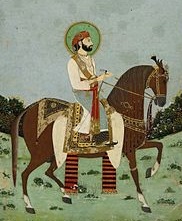


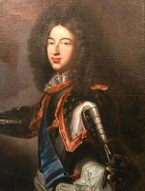
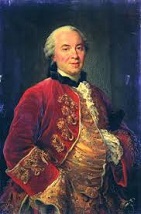
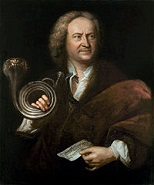

1727 On Jan. 22 German-born composer Georg Friedrich Handel, now George Frideric Handel (1685-1759), who moved into a new house at 25 Brook St. in London in 1723 becomes a British subject, going on to stay there for life while composing his biggest hits, after which it becomes the Handel House Museum. In Feb. after Philip V's 1721 request to the Brits to restore Gibraltar in return for renewal of trade licenses, war begins between England and Spain as the Spanish begin a siege of Gibraltar with 12K-25K troops that lasts for 14 mo. (its 13th siege and second by the Spanish) (ends 1728); the defending Brits only have 1.5K-5K troops, but it's one tough rock to siege? On Mar. 31 (Mar. 20, 1726 Old Style) Sir Isaac Newton (b. 1643) (b. 1642 Old Style) dies in London after saying that his greatest accomplishment is lifelong celibacy; his brainy disciple Samuel Clarke (1675-1729) (known for leaping over chairs and tables and swimming on tables?) turns down his £1K-a-year job as master of the mint because it's a govt. job and he's a clergyman?; his VIP burial is attended by royalty and presided over by his friend Alexander Pope (1688-1744), who gives a stirring eulogy before sprinkling dirt on his tomb, with the soundbyte: "Nature and Nature's Laws lay hid in Night/ God said, Let Newton be! and All was Light". On May 17 (May 6 Old Style) having expelled the Jews from the Ukraine, Catherine I (b. 1684) dies, and on May 18 after her will is forged, pampered, secluded Peter II (1715-30), the only male-line grandson of her deceased hubby Peter I the Great is proclaimed Russian Romanov tsar #7 (until 1730). On May 19 the Bishop of London states that holding Christians as slaves does not contradict Christian doctrine - especially as he has some? On June 22 (June 11 Old Style) (10 weeks after Isaac Newton) Hanoverian king of Great Britain #1 (since Aug. 1, 1714) George I (b. 1660) dies of a stroke en route to Hanover, becoming the last British monarch to be buried outside the U.K. (until ?), and his Hanover-born son George (Georg) II (1683-1760) is crowned the 51st British monarch (until Oct. 25, 1760); Handel's Coronation Chorus is first used at his coronation; his wife (a strong Robert Walpole backer) Caroline of Brandenburg-Ansbach (1683-1737) is a brain babe who corresponds with Leibniz, and is appointed regent when her hubby is in Hanover, causing the rhyme "You may strut, dapper George, but 'twill all be in vain,/ We all know 'tis Queen Caroline, not you, that reigns." On Nov. 18 the city of Jaipur in Rajasthan, India (modern-day pop. 3.1M) 167 mi. from modern-day New Delhi is founded as a trading city and new capital by Rajput maharaja (1699-1743) and astronomer Sawai Jai Singh II (1688-1743) of Amber, becoming known for its Havelis, courtyard mansions; in 1876 the city is pained pink to welcome English Prince Albert Edward of Wales (future Edward VII) , causing the city to be nicknamed "the Pink City"; the Jantar Mantar (magical device), a network of three observatories based in and S of Delhi is built there by the maharaja, who designs masonry structures and crude instruments because his Jesuit advisers were prohibited by the Church from accepting the views of Galileo and Copernicus; the city is designed according to Hindu doctrine in seven rectangular areas according to the caste system, with the palace in the 7th and holiest one, and the observatory in the place of the temple; other observatories are built in Delhi, Mathura, Ijjain, and Varanasi. The Amur frontier between Russia and China is rectified via the Kiakhta (Kyakhta) Treaty, negotiated by Bosnian Serbian Russian minister Count Sava Lukich Vladislavich Raguzinsky (1669-1738) in Peking, governing their relations until the mid-19th cent. The Shawnees migrate from the Upper Delaware Valley to the Ohio Valley. A police regulation in Paris requires actresses and female dancers to appear on the stage wearing drawers; women still don't wear underwear, so men can peek up their dresses. Kansas (Kan.) (Sioux "south wind people") is settled. West Virginia (W. Va.) is settled. Some Quakers begin demanding abolition of slavery - strapped with puffed oats and ready to blow? Scottish witch Janet Horne (b. ?) becomes the victim of the Last Execution for Witchcraft in England takes place in Dornoch, Sutherland (June 1722?) - it takes time for the message to filter to the colonies? The Brazilian coffee industry is founded with seedlings smuggled from Paris; cultivation is slow until independence in 1822, after which massive areas of rainforest are cleared near Rio de Janeiro and Sao Paulo. The city Concord, N.H. (originally Penacook) on the Merrimack River (modern-day pop. 42K) is founded by colonists from Haverhill, Mass. led by Capt. Ebenezer Eastman on the site of the main Pennacook Indian village; originally named Penacook, the name is changed to Rumford in 1733, and incorporated on Feb. 9, 1734; in 1765 after a 20-year boundary dispute with Mass. (which claims the Merrimack River) it is reincorporated as Concord to celebrate peace being declared with them; it goes on to become the capital of N.H. The Moravians of Herrnhut split from the Lutheran Church, with Count von Zinzendorf as leader. The Ursulines found the oldest institution of learning for women in the U.S., in New Orleans. The Tidjani (Tijani) moderate branch of Sufism is founded in Morocco and Algeria by Sheik Ahmad al-Tidjani (1735-1815), spreading throughout W Africa, incl. Chad, N Nigeria, and Sudan; to become a murid (disciple) of the order, one must receive from a muqaddam (rep of the order) a wird, or sequence of holy phrases to be repeated twice daily. The English word "fun", orginally meaning trick, hoax, or joke takes on the meaning of "amusement"; Samuel Johnson calls it a "low, cant word"; by the middle of the 19th cent. it funnily (which is an adverb) becomes a verb and an adjective, and becomes proper? Charles Radclyffe, 5th Earl of Derwentwater (1693-1746) succeeds Isaac Newton as grandmaster of the Priory of Sion (until 1746) :). The Am. Philosophical Society is founded in Philadelphia, Penn. Cherney's Racing Calendar (records of horse races run the previous year) begins pub. by John Cherney. The first marriage ad appears in a newspaper in Manchester, England. The Gentleman's Mag., the first modern mag. begins pub. Miscellanies in Prose and Verse, a satirical periodical by Alexander Pope (1688-1744), Jonathan Swift (1667-1745), and Dr. Arbuthnot begins pub. (until 1732); it contains the first use of the name "Vanessa". 24-y.-o. Jonathan Edwards (b. 1703) marries 17-y.-o. Sarah Pierrepont (1710-58), daughter of New Haven's most prominent minister, who composed "Jingle Bells" on July 28; they have 11 children, 8 boys, and 3 girls; John Pierrepont Morgan is one of their descendants. Architecture: Mirabell Palace in Salzburg (begun 1721) is completed. Science: After discovering slight magnetic fluctuations on his compass to be correlated with the latter's observations of aurorae, English watchmaker George Graham (1674-1751) and Swedish scientist Anders Celsius (1701-44) discover that sunspots are really magnetic storms. French scientist George-Louis Leclerc, Comte de Buffon (1707-88) discovers the Binomial Theorem. Nonfiction: Henri de Boulainvilliers (1658-1722), Histoire de l'ancien gouvernement de la France (posth.); divides the French into the aristicratic French race descended from the Germanic Franks, and the peasant class Gallo-Roman race, which the aristocrats have the right to dominate by right of conquest, becoming the predecessor of scientific racism; Etat de la France, Avec des Memoires sur l'Ancien Gouvernement (posth.). Richard Bradley (1688-1732), Ten Practical Discourses Concerning Earth and Water, Fire and Air, as They Relate to the Growth of Plants; The Country Housewife and Lady's Director; first English cookbook containing recipes using pineapple. Cadwallader Colden (1688-1776), History of the Five Nations; the first English colonial rep. to the Iroquois gives the Iroquois side of the story along with the British; revised ed. pub in 1757, read by Benjamin Franklin. Daniel Defoe (1659-1731), The Complete English Tradesman. Stephen Hales (1677-1761), Vegetable Staticks, or, Statical Essays; founds the science of plant physiology. Francesco Scipione Maffei, Istoria Diplomatica. Eliza Smith, The Compleat Housewife; or, Accomplished Gentlewoman's Companion; contains the first recipe for "English Katchop". John Spencer (1630-93), De Legibus Hebraeorum Ritualibus et Earum Rationibus (posth.); master of Corpus Christi College, Cambridge U. claims that Jews learned their religious practices from the Egyptians. Voltaire (1694-1778), An Essay Upon the Civil Wars of France, Extracted from Curious Manuscripts; Essay Upon Epic Poetry of the Euuropean Nations, from Homer Down to Milton; pub. in English while living in exile at 10 Maiden Lane, Covent Garden, London (1726-8). Music: J.S. Bach (1685-1750), St. Matthew Passion, BWV 244 (sacred oratorio); libretto by Picander; based on the Gospel of Matthew Chs. 26-27; rev. 1736, 1739, 1745; first performed on Mar. 15 (Good Friday), 1729 in St. Thomas Church, Leipzig. G.F. Handel (1685-1759), Zadok the Priest (HWV 258); coronation anthem for George II, based on 1 Kings 1:38-40 ("And all the people rejoic'd, and said: 'God save The King, long live The King, may The King live for ever!, Amen, Hallelujah!'"), sung at every British coronation service since, during the anointing of course; Admeto, Re di Tessaglia (Admetus, King of Thessaly) (opera) (Haymarket Theatre, London) (Jan. 31); libretto by Nicola Haym based on Euripides' "Alcestis"; stars Faustina Bordoni as Alcestis, and Francesca Cuzzoni as Antigona; Riccardo Primo (Richard I) (opera) (King's Theatre, London) (Nov. 11); libretto by Paolo Antonio Rolli, based on Francesco Briani's "Isacio Tiranno"; written to celebrate the coronation of George II. Art: Elias Gottlob Haussmann (1695-1774), Portrait of Gottfried Reiche (1667-1734); shows him holding a hunter's trumpet and a music ms. containing his famous Abblasen (Fanfare), which is used as the theme music for the TV show CBS Sunday Morning. William Hogarth (1697-1764), The Large Masquerade Ticket. William Kent (1685-1748), The Designs of Inigo Jones. John Michael Rysbrack (1684-1770), Sculpture of George I. Plays: Prosper Jolyot de Crebillon (1674-1762), Pyrrhus. Philippe Destouches, Le Philosophe Marie (comedy). Moses Hayyim Luzzatto, Migda Oz (in Hebrew). Lewis Theobald (1688-1744), Double Falsehood; or, The Distrest Lovers (Drury Lane, London) (Dec.); inspired by Don Quixote; claims he based it on three of Shakespeare's mss., and is called a fraud by Alexander Pope, who lampoons him as Dulness in his Dunciad; in 2010 English prof. Brean Hammond claims that it is based on William Shakespeare's lost play "Cardenio". Poetry: Henry Carey (1687-1743), Masking Is Catching; satire of opera castrato Senesino. John Gay (1685-1732), Fables, Vol. 1; vol. 2 in 1738. William Somerville (1675-1742), Occasional Poems. Jonathan Swift (1667-1745), The Furniture of a Woman's Mind; "A set of phrases learnt by rote;/ A passion for a scarlet coat;/ When at a play to laugh, or cry,/ Yet cannot tell the reason why:/ Never to hold her tongue a minute;/ While all she prates has nothing in it"; "For conversation well endued;/ She calls it witty to be rude;/ And, placing raillery in railing,/ Will tell aloud your greatest failing"; On Dreams; "Those dreams that on the silent night intrude,/ And with false flitting shapes our minds delude/ ...are mere productions of the brain./ And fools consult interpreters in vain." Novels: Eliza Haywood (1693-1756), The Court of Carmania. Births: British gen. James Wolfe (d. 1759) on Jan. 2 in Westerham, Kent. French gen. Charles Deschants de Boishebert (Boishébert) de Raffetot (d. 1797) on Feb. 7 in Quebec, Canada. Am. Rev. War brig. gen. John Nixon (d. 1815) on Mar. 1 in Framingham, Mass. Bavarian elector (1745-77) Maximilian III Joseph (d. 1777) on Mar. 28 in Munich; eldest son of HRE Charles VII and Marie Amalie of Austria (daughter of HRE Joseph I). German deaf educator (not deaf) Samuel Heinicke (d. 1790) on Apr. 10 in Nautschutz. French #1 economist (physiocrat) Anne-Robert-Jacques Turgot, Baron de Laune (d. 1781) on May 10 in Paris; from an old Norman family; educated at the Sorbonne. English "Blue Boy" portratist and landscape painter Thomas Gainsborough (d. 1788) on May 14 in Sudbury, Suffolk. French actress Marie Justine Benoite Favart (nee Duronceray) (d. 1772) on June 15; wife of playwright Charles Simon Favart (1710-92). Am. Rev. War Gen. Horatio Gates (d. 1806) on July 26 in Maldon, Essex, England; godson of Horace Walpole. Belgian (Flemish) sculptor (in France) Jean Pierre Antoine Tassaert (d. 1788) on Aug. 19 in Antwerp; student of Rene Michel Slodtz; teacher of Johann Gottfried Schadow (1764-1850). Italian engraver (in London) Francesco Bertolozzi (d. 1815) on Sept. 21 in Florence; moves to London in 1764-1802. Am. politician-jurist William Samuel Johnson (d. 1819) on Oct. 7 in Stratford, Conn.; educated at Yale U., and Harvard U.; first pres. of Columbia College (1787-1800). English "Letters on the Improvement of the Mind" Bluestockings writer Hester Chapone (nee Mulso) (d. 1791) on Oct. 27 in Twywell, Northamptonshire; wife (1760-) of John Chapone (1728-51), son of Sarah Chapone (1699-1764). Russian educator ("the Maecenas of the Russian Enlightenment") Ivan Ivanovich Shuvalov (d. 1797) on Nov. 1 in Moscow; boy toy of Tsarina Elizabeth Petrovna. Am. Rev. War maj. gen. Artemas Ward (d. 1800) on Nov. 26 in Shrewbury, Mass. Am. scholar-diarist and Congregational clergyman Ezra Stiles (d. 1795) on Nov. 29 in North Haven, Conn.; educated at Yale U.; pres. of Yale (1778-95). Am. Rev. leader (DOI signer) William Ellery (d. 1820) on Dec. 22 in Newport, R.I. Am. atty. (loyalist) John "the Tory" Randolph (d. 1784) in Williamsburg, Va.; son of Sir John Randolph; husband (1750-) of Ariana Jenings (1727-1808); brother of Peyton Randolph (1721-75); father of Edmund Randolph (1753-1813); friend of Thomas Jefferson. Italian painter-engraver Giovanni Battista Cipriani (d. 1785) in Florence. English cabinetmaker George Hepplewhite (d. 1786) in Durham; known for small chairs with heart-shape or shield-shape backs, slender tapering legs, spade feet, and painted or inlaid ornamentation. Am. Rev. War loyalist printer Samuel Loudon (d. 1813). British gen. (CIC of British North Am. in 1783-7) John Campbell of Strachur (d. 1827) in Argyll, Scotland. Deaths: Now make a 3-inch incision between the abdominal muscles? Shouldn't you be doing this? English #1 scientist-mathematician-alchemist Sir Isaac "Apples Happen" Newton (b. 1643) (b. 1642 Old Style) on Mar. 31 (Mar. 20 Old Style) in Kensington, Middlesex, London; a few weeks before his death he burns numerous boxes of mss. and personal papers, and doesn't request last rites on his deathbed; first scientist buried in Westminster Abbey; his funeral is presided over by "A. (Alexander) Pope"; after a lifetime studying the Corpus Hermeticum, he leaves a sealed trunk with 100K pages on alchemy, astrology, and the occult, incl. works rejecting the Bible Book of Revelation (after all, he lived through 1666 personally so it failed the empirical test?); also leaves The Chronology of Ancient Kingdoms Amended (begun 1689), which tries to establish the origins of the institution of kingship to Israel, and touts its primacy over the cultures of antiquity; "Newton was not the first of the Age of Reason. He was the last of the magicians, the last of the Babylonians and Sumerians... He looked on the Universe and all that is in it as a riddle... He regarded the Universe as a cryptogram set by the Almighty" (John Maynard Keynes): "If I have seen further, it is by standing on the shoulders of giants"; "To myself I am only a child playing on the beach, while vast oceans of truth lie undiscovered before me" - having a sense of the mathematical designs and codes in Nature, and believing he can concentrate hard enough to decode anything, he falls for Satan's offer to be a god and enjoy immortality if he can just find the code for the right potion, laboring to the point of mental breakdown to find it, thinking that Satan is Lucifer, the Angel of Light, who will be his god forever, while all that Be As A Child, Have Faith, Jesus Saves, Armageddon is Nigh, and Leave It To Beaver, er, Jehovah to Resurrect You stuff sails over his proud head? Sicilian-born French chef Procopio Cuto (b. 1651) on Feb. 10 in Paris. French-born Canadian bishop of Quebec Jean-Baptiste de La Croix de Chevrieres de Saint-Vallier (b. 1653) on Dec. 26 in Quebec City. French Protestant minister Jacques Abbadie (b. 1654) on Sept. 25 in Marylebone, London, England. English king (1714-27) George II (b. 1660) on June 11. Italian composer Francesco Gasparini (b. 1661) on Mar. 22 in Rome. German educator August Hermann Francke (b. 1663) on June 8. English composer William Croft (b. 1678) on Aug. 14 in Bath. Russian empress (1725-) Catherine I (b. 1684)on May 17 (May 6 Old Style).








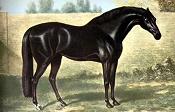




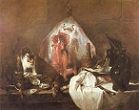
1728 On Feb. 28 the Battle of Palkhed near Nashik in Maharashtra, India sees the Marathas under Baji Rao I decisively defeat Nizam ul-Mulk. On Mar. 21 after running away from Calvinist Geneva, 15-y.-o. Jean-Jacques Rousseau meets French Roman Catholic Madame Francoise-Louise de la Tour, Baronness de Warens (1699-1768) in Annecy, who converts him to Roman Catholicism, then in 1733 ends his virginity. In early June the Spanish siege of Gibraltar ends after 14 mo.; on June 14 the Congress of Soissons begins in hopes of ending all the disputes plaguing Europe, and ends in failure after a year of pissing contests (ends 1729). On Dec. 23 HRE Charles VI and Frederick William of Prussia sign the Treaty of Berlin. Let's get something straight between us? Danish-Russian explorer Vitus Jonassen Bering (Behring) (1681-1741) begins exploring the N Pacific basin (until 1741), and discovers that Asia and America are two separate continents joined by the Bering Strait; he discovers the two Diomede Islands halfway between Alaska and Siberia, which later becomes the U.S.-Soviet boundary line, with Little Diomede on the U.S. side and Big Diomede on the Soviet side. The town of Fredericksburg, Va. is founded on 50 acres of land with a trading post and warehouse; during the U.S. Civil War it becomes the scene of the battles of Fredericksburg, Chancellorsville, the Wilderness and Spotsylvania Court House, with a total of 100K casualties. John Wesley is ordained. Ben Franklin opens his own print shop in Philly with Hugh Meredith, and composes his own epitaph: "The body of B. Franklin, Printer (like the cover of an old book, its contents worn out, and stripped of its lettering and gilding) lies here, food for worms. But the work shall not be lost, for it will (as he believed) appear once more, in a new and more elegant edition, revised and corrected by the Author". Walter Churchman opens an apothecary shop in Bristol, England, which next year is granted a patent by Charles II for chocolate-making, and after Quaker physician Joseph Stores Fry purchases the patent and recipes in 1761, it goes on to become J.S. Fry & Sons, becoming the oldest chocolate firm in Britain to survive to modern times. English actress Lavinia Fenton (1708-60) achieves theatrical fame in only two years, and goes on the meat market looking for a duke. Architecture: Castle Nymphenburg near Munich (begun 1664) is finished. The Palladian Queen Square in Bath, England, designed by John Wood the Elder (1704-54) is begun (finished 1729). The Madrid Lodge of Freemasons is founded; too bad, the Inquisition soon shuts it down. Inventions: Sheet-iron rolling is discovered in England. Science: James Bradley detects the aberration of light from fixed stars using the star Etamin (gamma Draconis) in Draco (between the Big and Little Dipper). Nonfiction: John Balguy, The Foundation of Moral Goodness. Isaac Joseph Berruyer, Histoire du Peuple de Dieu (3 parts) (1728-58); a Jesuit delights in the sexual exploits of the patriarchs, pissing-off popes Benedict XIV and Clement XIII and resulting in his deposition in 1756 by the Parliament of Paris. William Byrd II (1674-1744), The History of the Dividing Line Betwixt Virginia and North Carolina; his survey in 1728; Matrimony Creek is named for its brawling waters. Ephraim Chambers (1680-1740), Cyclopaedia, or An Universal Dictionary of Arts and Sciences ("containing the definitions of the terms, and accounts of the things signify'd thereby, in the several arts, both liberal and mechanical, and the several sciences, human and divine: the figures, kinds, properties, productions, preparations, and uses, of things natural and artificial; the rise, progress, and state of things ecclesiastical, civil, military, and commercial: with the several systems, sects, opinions, &c; among philosophers, divines, mathematicians, physicians, antiquaries, criticks, &c: The whole intended as a course of ancient and modern learning") (4 vols.) (1728-53); basis of the French Encyclopedie after a 1743 French trans. James Dalton (-1730), Genuine Narrative of My Street Crime Career; head of a street robbery gang in London, who is pardoned after going king's evidence last May; recounts his experience with "back door gentlemen" (sodomites); too bad, he is hanged for robbery at Tyburn on May 11, 1730 after being framed. Pierre Fauchard (1678-1761), Le Chirurgien Dentiste, ou Traite des Dents (The Surgeon Dentist); disproves the worm theory of dental decay; and invents the profession of dentistry and the word dentist; invents an improved tooth drill. James Gibbs, Book of Architecture. Johann Christoph Gottsched (1700-66), Ausfuhrliche Redekunst. Francis Hutcheson, An Essay on the Nature and Conduct of the Passions and Affections; Illustrations upon the Moral Sense. William Law (1686-1761), A Serious Call to a Devout and Holy Life. John Martyn (1699-1768), Historia Plantarum Rariorum (1728-37). Isaac Newton (1646-1727), The Chronology of Ancient Kingdoms Amended (posth.); "They have made the antiquities of Greece three or four hundred years older than the truth." John Oldmixon (1673-1742), Essay on Criticism. Jonathan Swift (1667-1745), A Short View of the State of Ireland; Essay on the Fates of Clergymen; "This evil fortune, which generally attends extraordinary men in the management of great affairs, has been imputed to divers causes, that need not be here set down, when so obvious a one occurs, if what a certain writer observes be true, that when a great genius appears in the world the dunces are all in confederacy against him." Christian Wolff (1679-1754), Philosophia Rationalis, sive Logica. Music: G.F. Handel (1685-1759), Siroe, Re di Persia (opera) (King's Theatre, London) (Feb. 17); libretto by Nicola Francesco Haym, based on Pietro Metastasio's "Siroe"; Tolomeo, Re di Egitto (HWV 25) (opera) (King's Theatre, London) (Apr. 3); libretto by Nicola Francesco Haym, based on Carlo Sigismondo Capece's "Tolometo et Alessandro"; his 13th and last opera for the Royal Academy of Music; stars Senesino as Tolomeo, Francesca Cuzzoni as his wife Seleuce, Giuseppe Maria Boschi as King Araspe of Cyprus, and Faustina Bordoni as his sister Elisa. Reinhard Keiser (1674-1739), Lucius Verus oder Die Siegende Treue (opera) (Hamburg). Art: Jean-Baptiste-Simeon Chardin (1699-1779), The Ray (La Raie). William Hogarth (1697-1764), The Wanstead Assembly; The Politician. Plays: Colley Cibber (1671-1757), The Provok'd Husband; stars Ann Oldfield as Lady Townly, of whom Cibber says "She did her usual Outdoing". Henry Fielding (1707-54), Love in Several Masques (comedy) (first play) (Theatre Royal, London) (Feb. 16) (4 perf.). John Gay (1685-1732) and Johann Christoph Pepusch (1667-1752), The Beggar's Opera (comic ballad opera) (Lincoln's Inn Fields Theatre, London) (Jan. 29); a big hit, running for a record 62 consecutive perf., helping build the new London Royal Opera House; runs for 1,463 perf. in 1920 at the Lyric Theatre in Hammersmith; satirizes Italian opera; Newgate prisoner Macheath is helped to escape by the cruel gov.'s daughter Lucky Lockit, and returns to London's criminal underworld to woo Polly Peachum; a satire of Sir Robert Walpole, pioneering the device of using lower-class criminals to satirize upper-class society; incl. Fill Every Glass, Over the Hills and Far Away. Pierre de Marivaux (1688-1763), Triomphe de Plutus; the sequel Polly: An Opera, Being the Second Part of the Beggar's Opera (ballad opera) sees Polly Peachum going to the West Indies to search for Macheath and his ho Jenny Diver, after which Macheath is executed and Polly marries Indian prince Cawwawkee; performance is banned by the govt. after Sir Robert Walpole is no longer amused, but gets pub. and widely read until its debut in England on June 19, 1777 at the Haymarket Theatre in London - mama don't take my pollychrome away? Poetry: Alexander Pope (1688-1744), The Dunciad (3 vols.); pub. anon. in Dublin; a satire of witless critics, using initials for the targets, with Lewis Theobald ("Tibbald") (who pub. a criticism of his 1725 ed. of Shakespeare in 1726) as King of Dunces, appointed by the goddess Dulness to succeed Elkannah Settle on Lord Mayor's Day in 1724 to degenerate Great Britain; goes after George II with "Still Dunce the second rules like Dunce the first", and takes on Protestants, Whigs, and hack writers Daniel Defoe (1659-1731), Ambrose Philips (1674-1749), Nahum Tate (1652-1715), Thomas Heywood (1570-1641), and Sir Richard Blackmore (1654-1729), also Susanna Centlivre (1667-1723), who stays awake through a reading of Richard Blackmore's boring epics longer than anyone except Folly; "Books and the Man I sing, the first who brings/ The Smithfield Muses to the Ear of Kings" (opening); "How, with less reading then makes felons 'scape,/ Less human genius than God gives an ape,/ Small thanks to France and none to Rome or Greece,/ A past, vamp'd, future, old, reviv'd, new piece,/ 'Twixt Plautus, Fletcher, Congreve, and Corneille,/ Can make a Cibber, Johnson, or Ozell" (1.235-40); causes a big reaction, creating a ton of lifelong enemies, who love to slander him, which isn't hard to do?; he begins taking his Great Dane attack dog Bounce with him while walking, with loaded pistols in his pocket; a satirical print from "Pope Alexander" pub. in 1729 portrays him as an ape wearing papal vestments, suggesting Darwin's Theory of Evolution?; in 1729 he anon. pub. "The Dunciad Variorum", followed in 1742 by "The New Dunciad", and in 1743 by "The Dunciad in Four Books", with Bays replacing Tibbald. Allan Ramsay (1686-1758), Poems. Richard Savage (1697-1743), The Bastard; "O Memory! thou soul of joy and pain!" Novels: Daniel Defoe (1659-1731), Memoirs of Captain George Carlton. Abbe Prevost (1697-1763), Mémoires et Aventures d’un Homme de Qualité qui s’est Retiré du Monde (4 vols.) (1728-9) (Paris). Births: English poet laureate (1785-90) and critic Thomas Wain Warton the Younger (d. 1790) on Jan. 9 in Basingstoke, Hampshire. German composer-organist Johann Gottfried Muthel (Müthel) (d. 1788) on Jan. 17 in Molln (near Hamburg); first to use the term "pianoforte" (fortepiano) (1771). French neoclassical architect Etienne-Louis Boullee (Étienne-Louis Boullée) (d. 1799) on Feb. 12 in Paris; student of Jacques-Francois Blondel, Germain Boffrand, and Jean-Laurent Le Geay. Scottish surgeon-anatomist ("Father of Modern Scientific Surgery") (founder of modern dentistry) John Hunter (d. 1793) on Feb. 13 in Long Calderwood (near Glasgow); youngest of 10 children; George III's surgeon (1776-); surgeon-gen. of the British army (1793). Russian pro-Prussian Romanov tsar #11 (1762) ("the Prussomaniac") Peter III (d. 1762) on Feb. 21 in Kiel; son of Duke Karl Friedrich of Holstein-Gottorp (1700-39) (nephew of Charles XII of Sweden) and Tsarina Elizabeth Petrovna (1708-28), daughter of Peter I the Great (who dies from childbirth). English architect John Wood the Younger (d. 1782) on Feb. 25 in Bath; son of John Wood the Elder (1704-54). French chemist Antoine Baume (Baumé) (Ger. "tree") (d. 1804) on Feb. 26 in Senlis; inventor of Baumé (Bé.) specific gravity hydrometer scales. German painter-critic (precursor to Neoclassical painting) Anton Raphael Mengs (d. 1779) on Mar. 12 in Usti (Aussig), Bohemia; converts from Protestant to Roman Catholic. Swiss anti-masturbation physician Samuel Auguste Andre (André ) David Tissot (d. 1797) on Mar. 20 in Grancy, Canton de Vaud. Scottish chemist Joseph Black (d. 1799) on Apr. 16 in Bordeaux, France; one of 16 children; son of a Scottish wine merchant from Ulster; educated at Glasgow U., taking chemistry from William Cullen; discoverer of latent heat (1761); teacher of James Watt. British Cornish navigator Samuel Wallis (d. 1795) on Apr. 23 in Lanteglos-by-Camelford (near Camelford), Cornwall; starts out serving under Capt. John Byron. German piano maker Johann (Georg) Andreas Stein (d. 1792) on May 16 in Heidesheim; inventor of the Viennesse piano. Am. Rev. War flip-flopping loyalist jurist ("the Weathercock") William Smith (d. 1793) on June 18 in New York City; educated at Yale U.; chief justice of New York Province (1763-82); ends up fleeing to Canada and becoming chief justice of Quebec Province in 1786-93. Scottish Neoclassical architect Robert Adam (d. 1792) on July 3 near Kirkcaldy, Fife; son of William Adam (1689-1748); brother of John Adam (1721-92) and James Adam (1732-94);rival of Sir William Chambers (1723-96) and James Wyatt (1746-1813). German "very bright" mathematician-physicist-philosopher Johann Heinrich Lambert (d. 1777) on Aug. 28 in Mulhouse. Am. Rev. War gen. ("Hero of Bennington") John Stark (d. 1822) on Aug. 28 in Londonderry, N.H.; coiner of the phrase "Live free or die" in 1809. English engineer Matthew Boulton (d. 1809) on Sept. 3 in Birmingham. Am. poet-playwright-historian ("Conscience of the American Revolution") Mercy Otis Warren (d. 1814) on Sept. 14 in Barnstable, Mass.; first Am. female playwright; voice of the "Old Republican" elite; #3 of 13 children born to Col. James Otis (1702-78) and Mary Allyn Otis (1702-74) (a descendant of Mayflower passenger Edward Doty); brother of James Otis Jr. (1725-83); wife (1754-) of James Warren (1726-1808). English physician and obstetric surgery pioneerCharles White (d. 1813) on Oct. 4 in Manchester. French diplomat-spy-swordsman Chevalier Charles Genevieve Louis Auguste Andre Timothee d'Eon de Beaumont (d. 1810) on Oct. 5 in Tonnerre; 18th cent. Europe's most famous transvestite. Am. Rev. leader (DOI signer) (asthmatic) Caesar Rodney (d. 1784) on Oct. 7 in Byfield Farm, Dover Hundred, Kent County, Del.; featured on the first Del. quarter (1999); helps break the deadlock on the DOI; known for a giant Great Caesar's Ghost rotten skin cancer on his face, which he covers with a green scarf. English exploring fool and sea captain James Cook (d. 1779) on Oct. 27 in Marton, North Yorkshire. Serbian Jesuit priest and scientist Franz Xaver von Wulfen (d. 1805) on Nov. 5 in Belgrade; Swedish descent father, Hungarian mother. Anglo-Irish "The Vicar of Wakefield", "The Deserted Village" poet-dramatist-novelist-essayist Oliver Goldsmith (d. 1774) (b. 1730?) on Nov. 10 near Ballymahon, County Longford (Elphin, County Roscommon?); educated at Trinity College, Dublin, U. of Edinburgh, and U. of Leiden; wanders through Europe playing a flute and begging, then settles in England, working as a physician and writing hack works to order until he gets famous enough to go legit. Egyptian Mamluk ruler (1760-72) Ali Bey Al-Kabir (d. 1773) in Abkhasia (Georgia, Caucasus); starts out as a young slave carried to Egypt, becoming a Mamluk soldier. Am. Rev. War brig. gen. ("Hero of Oriskany") Nicholas Herkimer (Nikolaus Herchheimer) (d. 1777); son of German Palatinate immigrants in German Flatts in the Mohawk Valley of New York. English type-founder and chocolatier (Quaker) Joseph Fry (d. 1787); son of poet John Fry (-1775); father of Joseph Storrs Fry (1767-1835). Am. Rev. Tory leader Capt. John Butler (d. 1794) in New London, Conn. Italian composer Nicola Piccini (d. 1800); Christoph Gluck's rival in Paris. English industrialist (pioneer in cast iron use) John "Iron-Mad" Wilkinson (d. 1808) in Clifton, Cumberland. Deaths: Scottish-born Am. newspaper publisher John Campbell (b. 1653). Am. colonial official Robert Livingston the Elder (b. 1654) on Oct. 1. British royal gov. Sir Francis Nicholson (b. 1655) on Mar. 5 in London. Italian composer Agostino Steffani (b. 1653) on Feb. 2 in Frankfurt, Germany - no doubt a relation to Gwen? German jurist-philosopher Christian Thomasius (b. 1655) on Sept. 23. Am. purest of pure white Puritan clergyman Cotton Mather (b. 1663): "Historians are to be read with moderation and kindness, and it is to be remembered that they can not be in all circumstances like Lynceus." British adm. Sir Hovenden Walker (b. 1666).


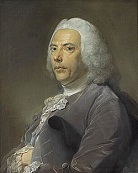

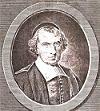

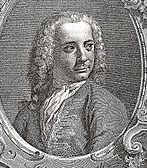
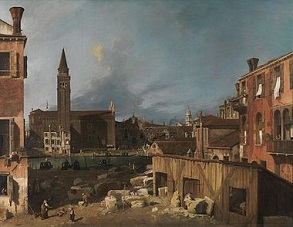

1729 Nobody at the time knew it, but 1729 is the smallest taxicab number? On Feb. 14 Penn. passes a debt servitude law allowing the jailing of debtors. On Aug. 19 French dauphin Louis Ferdinand (1729-65) is born to Louis XV and his queen Marie Leszczynska, saving the decimated French royal Bourbon line, causing celebrations in all major French cities as well as Rome and Euro courts; too bad, he dies before ascending the throne. On Oct. 2 (Sept. 29?) Nadir Khan defeats the Afghans at the Battle of Damghan and kills Afghan shah (since 1727) Ashraf (b. 1700), driving them out of Persia, then reconquers the NW provinces from the Ottomans. On Oct. 15 Paul Atkinson dies in Hurst Castle after 30 years of imprisonment, becoming the last Roman Catholic confessor in chains in Protestant England. On Nov. 9 France, Spain, and England sign the Treaty of Seville, restoring their conquests and confirming the asiento. On Nov. 29 after the Natchez tribe attacks French colonists near modern-day Natchez, Miss., the Natchez Massacre (Revolt) ends in a massacre of 230 French colonists in Fort Rosalie, with most of the women and African slaves spared, causing the French in New Orleans to send out an army that wipes out the Chaouacha people then allies with the Choctaw to wipe out the Natchez, selling hundreds into slavery while the remnant seek refuge with the Chickasaw, Creek, and Cherokee until they are kaput by 1736; in 1731 the French crown takes control of La. from the French West India Co., and in 1732 La. gov. Etienne Perier is recalled to France to pay for the massacre. ending all their wars with them (begun 1716); reps of the Illiniwek nation give allegiance to the French. Portugal loses Mombasa on the coast of Kenya to the Arabs. Corsica becomes independent of Genoa (until 1732). South Carolina (S.C.) officially separates from North Carolina (N.C.), and the latter becomes a royal colony. To cope with the Gin Craze caused by the accession of Protestant William of Orange in 1688, which started out as an alternative to Roman Catholic French brandy, causing Londoners to ditch beer, the English Parliament passes the Gin Act, increasing the duties on gin, doing ditto in 1736, 1743, 1747, and 1751; "Drunk for 1 d.; dead drunk for 2 d.; straw for nothing" appears on a sign over a gin shop in 1736. The Kingdom of Travancore in S India is founded (until 1949), covering most of C and S Kerala. The city of Baltimore, Md. (AKA B'more, Charm City, Mobtown, Monument City, Ravenstown, City of Firsts) on the upper Cheseapeake Bay at the mouth of the Patapsco River (modern-day pop. 620K/2.7M) is founded as a tobacco port, becoming the largest independent city in the U.S. by modern times (until ?), becoming known as the home of celebs Edgar Allan Poe, Frederick Douglass, H.L. Mencken, Eubie Blake, Babe Ruth, Billie Holiday, and Francis Scott Key's nat. anthem "The Star-Spangled Banner". Emperor Qing Shi Zong prohibits opium smoking in China - him and what army? Italian composer Domenico Scarlatti (1685-1757), son of Alessandro Scarlatti settles in the Spanish court at Madrid for life - the fresh face of 1729? After the fallout from the 451 Council of Chalcedon works its magic, the Melkite Greek Catholic Church splits with the Greek Orthodox Church of Antioch and aligns with the Roman Catholic Church while keeping Arabic as its official language. The Academia de Buenas Letras is founded in Barcelona, Spain. Benjamin Franklin and James Franklin buy the The Pennsylvania Gazette (until 1765), turning it into the most popular Am. colonial newspaper. Sports: 6' 200 lb. John "Jack" Broughton (1704-89), who founded the London Prize Ring Rules after he killed somebody in the ring takes over the English bare-knuckle boxing title (until 1750) from his teacher James Figg, who retires. The Godolphin Arabian (1724-54), the last of three stallions on which English Thoroughbreds are based is imported, joining Byerly Turk (1686) and Darley Arabian (1729); his bay colt by English mare Roxana named Lath (1724-53) becomes a top racehorse, followed by Regulus (1739-65), who goes undefeated. Architecture: Old South Church (Meeting House) in Boston, Mass. is built, becoming the largest bldg. in Boston, used by 5K colonists as the HQ for organizing the Boston Tea Party of Dec. 16, 1773. John Wood begins building Queen Square in Bath, England (finished 1736). Science: French scientist Pierre Bouguer (1698-1758) pub. Essai d'optique sur la gradation de la lumiere (lumière), a study of the quantity of light lost passing through the atmosphere, announcing the Beer-Lambert Law, which states that the absorbance is directly proportional to its path length. Stephen Gray of England discovers electrical conductivity by passing static electricity through threads and wires. French scientist Jean-Jacques d'Ortous de Mairan (1678-1771) first observes the Circadian Rhythm in the plant Mimosa pudica. Nonfiction: Elijah Fenton (1683-1730), The Works of Edmund Waller. Ludvig Holberg (1684-1754), Description of Denmark and Norway. Andrew Motte (tr.)., Isaac Newton's 'Principia Mathematica'; tr. from Latin to English - it's still Greek to me? Thomas Sherlock (1678-1761), A Tryal of the Witnesses of the Resurrection of Jesus. Jonathan Swift (1667-1745), A Modest Proposal; the classic children's cookbook?; satire written after a famine in Ireland caused by an oat crop failure, proposing that infants be sold for food; "I have been assured by a very knowing American of my acquaintance in London, that a young healthy child well nursed is at a year old a most delicious, nourishing, and wholesome food, whether stewed, roasted, baked, or boiled; and I make no doubt that it will equally serve in a fricassee or a ragout." Music: G.F. Handel (1685-1759), Lotario (Lothair) (opera) (King's Theatre, London) (Dec. 2); libretto adapted from Antonio Salvi's "Adelaide"; flops after 10 perf. Jean-Joseph Mouret (1682-1738), Two Suites de Symphonies; incl. Fanfare-Rondeau, used as the theme of the PBS TV program "Masterpiece Theatre". Art: Canaletto (1797-1768), The Stonemason's Yard (Campo St. Vidal and Santa Maria della Carita); overlooks the Grand Canal; two children are playing in the left foreground, and one falls and pisses involuntarily in surprise. Alexandre Desportes, Still Life with Oysters. J.F. de Troy, Rape of the Sabines. Plays: Samuel Madden (1686-1765), Themistocles, the Lover of His Country (tragedy) (Theatre Royal, London); the Athenian dude who lived from -528 to -462. Poetry: Albrecht von Haller (1708-77), Die Alpen (The Alps). Births: German mathematician Johann Daniel Titius (d. 1796) on Jan. 2; discoverer of the misnamed Bode's Law of Planetary Distances - the law of godly titties? Italian scientist (physiologist) (spontaneous generation disprover) Lazzaro Spallanzani (d. 1799) on Jan. 10 in Scandiano; educated at the U. of Bologna. British statesman-orator-writer Edmund Burke (d. 1797) on Jan. 12 in Dublin; educated at Trinity College, Dublin. German "Nathan the Wise" Christian dramatist-critic (Freemason) Gotthold Ephraim Lessing (d. 1781) on Jan. 22 in Kamenz, Upper Lusatia, Saxony. British col. gov. of N.C. (1765-71) and N.Y. (1771-80) William Tryon (b. 1788) on Jan. 27 in Norbury Park, Surrey, England. English "The Hermit of Warkworth", "O Nanny, Wilt Thou Gang with Me?", "Reliques of Ancient English Poetry" poet-antiquary-bishop and "Tatler", "Guardian", "Spectator" ed. Thomas Percy (d. 1811) on Apr. 13 in Bridgnorth, Shropshire; bishop of Dromore. Russian Romanov tsar #12 (1762-96) Catherine (Yekaterina) II (the Great) (Sophia Augusta Petrovna) (d. 1796) on May 2 (Apr. 21 Old Style) in Stettin, Prussia; daughter of Christian August, prince of Anhalt-Zerbst (1690-1747) and Johanna Elisabeth of Holstein-Gottorp; 1st cousin of Gustav III of Sweden and Charles XIII of Sweden. Austrian field marshal Michael Friedrich Benedikt, Baron von Melas (d. 1806) on May 12 in Radeln, Transylvania (modern-day Roades, Romania); of Saxon descent. French dauphin Louis Ferdinand (d. 1765) on Aug. 4 in Versailles; only surviving son of Louis XV and Marie Leszczynska; husband of (1744-6) Maria Teresa Rafaela of Spain, and (1747-65) Marie Josephe of Saxony; father of Marie Therese (1746-48), Louis XVI, Louis XVIII, and Charles X. German statesman-educator Franz Friedrich Wilhelm von Furstenberg (Fürstenberg) (d. 1810) on Aug. 7 in Herdringen, Westphalia. German philosopher (Jewish) Moses Mendelssohn (d. 1786) on Sept. 6 in Dessau; the 3rd Moses after Moses Maimonides and Moses One; grandfather of Felix Mendelssohn (1809-47). English "Feminead" writer-poet-clergyman John Duncombe (d. 1786) (AKA Crito) on Sept. 29 in London; educated at Essex and Corpus Christi College, Cambridge U. British Gen. Charles "No Flint" Grey, 1st Earl Grey (d. 1807) on Oct. 23 in Northumberland; 4th son of Sir Henry Grey, 1st Baronet of Howick; created earl in 1806. French soldier-explorer-mathematician adm. Louis-Antoine, Comte de Bougainville (d. 1811) on Nov. 12 in Paris; writes a treatise on integral calculus at age 25; discoverer of Bouvainville Island. French fur trader Pierre Laclede (Laclède) Liguest (d. 1778) on Nov. 22 in Bedous, Bearn. Russia field marshal Count Alexander Vasilievich "Rimnikski" Suvorov (d. 1800) on Nov. 29 in Moscow; of Swedish ancestry; son of Vasily Ivanovich Suvorov; uncle of Prince Alexander Ivanovich Gorchakov; last generalissimo of the Russian Empire, who won all 60+ battles. Am. Rev. leader Charles Thompson (d. 1824) on Nov. 29 in Gorteade, Tobermore (near Maghera), County Londonderry, Ireland; Scots-Irish parents; emigrates to Penn. in 1739. emigrates to North Am. at age 8; secy. of the Continental Congress (1774-89). English Methodist minister (John Wesley's successor) John William Fletcher (b. 1785) in Nyon, Switzerland. Am. loyalist Episcopal minister Rev. Samuel Seabury (d. 1796) (AKA A.W. Farmer) on Nov. 30 in Ledyard, Groton, Conn.; first Am. Episcopal bishop and first bishop of Conn. Spanish composer Antonio Soler (d. 1783) on Dec. 3 in Olot, Gerone, Catalonia. Italian opera composer-organist Giuseppe Sarti (d. 1802) on Dec. 28 in Faenza. Am. playwright John Leacock (d. 1802); Philadelphia silversmith, member of the Sons of Liberty, and an associate of Benjamin Franklin and John Dickinson. Scottish "Zeluco" physician-novelist John Moore (d. 1802) in Stirling; father of Gen. Sir John Moore (1761-1809) and Adm. Sir Graham Moore (1764-1843). English "The Old English Baron" novelist Clara Reeve (d. 1807) in Ipswitch. Deaths: Am. Congregationalist pastor Solomon Stoddard (b. 1643) on Feb. 11 French scholar Jean Hardouin (b. 1646) on Sept. 3. English poet Sir Richard Blackmore (b. 1650). French actor Michel Baron (b. 1653) on Dec. 22 in Paris. Dutch explorer adm. Jakob Roggeveen (b. 1659) on Jan. 31 in Middelburg. Indian Maratha adm. Kanhoji Angre (b. 1669) on July 4 in Alibag, Maharashtra. French Roman Catholic priest Jean Meslier (b. 1664); leaves Memoir of the Thoughts and Feelings of Jean Meslier: Clear and Evident Demonstrations of the Vanity and Falsity of All the Religions of the World, revealing that he turned atheist, knocking all religions, with the soundbyte that he wishes that "all the great men in the world and all the nobility could be hanged, and strangled with the guts of the priests", which Denis Diderot turns into "Let's strangle the neck of the last king with the entrails of the last priest"; Voltaire becomes a big fan; the first Westerner to pub. a complete book in support of atheism? English steam engine inventor Thomas Newcomen (b. 1664) on Aug. 5 in London. French composer Elisabeth Jacquet de La Guerre (b. 1665) on June 27. English gardener Thomas Fairchild (b. 1667) on Oct. 10. English neoclassical Restoration poet-dramatist William Congreve (b. 1670) on Jan. 19 in London. Scottish economist John Law (b. 1671) on Mar. 21 in Venice (pneumonia); dies poor. Irish writer Sir Richard Steele (b. 1672) on Sept. 1 in Carmarthen, Wales. English philosopher Samuel Clarke (b. 1675) on May 17 in London. Scottish architect Colen Campbell (b. 1676) on Sept. 13 in London, England. English Deist philosopher Anthony Collins (b. 1676) on Dec. 13. German composer Johann David Heinichen (b. 1683).


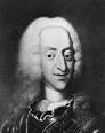



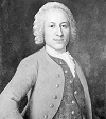
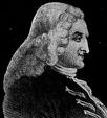

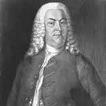
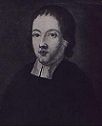





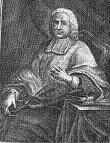






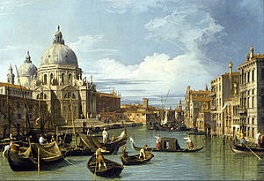
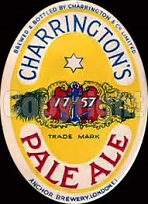
1730 Julian calendar slip: 11 days. Pop. of the Am. colonies: 600K; in this decade Irish immigrants settle in large numbers in Philadelphia, Penn. On Jan. 30 (Sun.) tsar (since 1727) Peter II (b. 1715) dies of smallpox on his wedding day, and his bride is pushed into his deathbed in hopes of producing an heir, but it doesn't work, and the direct male Romanov line ends; Anna (Anne) Ivanovna (Ioannovna) (1693-1740), duchess of Courland, daughter of Peter I the Great's half-brother Ivan V is elected Russian Romanov tsar #8 by the privy council (until 1740), and after getting her to sign an agreement limiting her power before she arrives in Moscow, she stages a coup on Mar. 8 and executes or exiles the members, then goes on to bring in her Courland hunk (grandson of a groom) Ernst Johann Biren (1690-1722), and rule with an iron hand, killing thousands of her subjects and exiling thousands more to Siberia. On Feb. 21 Pope (since 1724) Benedict XIII (b. 1649) dies after letting leeches sponge off him while his head's in the clouds, and on July 12 Florentine-born Lorenzo Corsini is elected Pope (#246) Clement XII (1652-1740) (until Feb. 6, 1740). On June 11 Whig statesman Charles, 2nd Viscount Townshend (1674-1738), Sir Robert Walpole's brother-in-law becomes pres. of the privy council (until June 25, 1721), after which he retires to his Raynham Hall estate in Norfolk, leaving Walpole as the sole minister in the British cabinet, and begins the 4-course system of husbandry, growing turnips on a large scale to feed his cattle during the winter so they don't have to be slaughtered, earning the nickname "Turnip Townshend". On Aug. 10 Jonathan Belcher (1682-1757) (first Am.-born Mason) is appointed royal gov. of Mass. and N.H. (until Sept. 7, 1741). On Sept. 3 Sardinian king (since 1720) Victor Amadeus II abdicates after going semi-insane, and his son Charles Emmanuel III (1701-73) becomes king of Sardinia and duke of Savoy (until Feb. 20, 1773). On Sept. 17 a disastrous war with the Persians causes a revolt by 12K mostly Albanian Janissaries led by Albanian-born ex-Janissary Patrona ("vice-admiral") Khalil (Halil) Isyani (1690-1730) (Turkish bath waiter), killing grand vizier Nevsehirli Damag Ibrahim Pasha and forcing sultan (since 1703) Ahmed III (b. 1673) to abdicate and lock himself back in his cage, and on Sept. 20 his nephew Mahmud I (1696-1754) becomes Ottoman sultan #24 (until 1754), ending the 27-year Tulip Era (begun 1703), playing along with big man Khalil until he can have him killed on Nov. 25 along with 7K supporters, inheriting an insolvent empire; Nubian chief eunuch Beshir Agha (1653-1746) becomes the real power behind the throne (most powerful chief eunuch in Ottoman history) while the sultan spends his time writing poetry - come on, show me your best Vogue face? On Oct. 12 Frederick IV (b. 1671) dies after a 31-year reign, and his narrow intolerant pussy-whipped pietist son Christian VI (1699-1746) becomes an unpopular king of Denmark and Norway (until Aug. 6, 1746), run by his German pietist wife Sophia Magdalene of Brandenburg-Kulmbach (1700-70). On Dec. 3 Benjamin Franklin pub. the first known notice about Freemasonry in North Am. in his Penn. Gazette; meanwhile after blasting the owner of the Packet in a series of essays, he buys it from the owner. Crown Prince Frederick of Prussia is imprisoned by his father. Cresap's (the Conojocular) War (ends May 1738) between Md. and Penn. begins after German settlers from Penn. seeking to expand the colony's ill-defined borders are run off by Md. settler Thomas Cresap (1702-87), who becomes known as a "Border Ruffian" by Marylanders, and as the "Maryland Monster" by Pennsylvanians, as he leads an armed force to uphold the claims of Md. to all land up to the 40th parallel (just N of Philadelphia, Penn. and S of Lancaster, Penn.)., while Penn. claims the boundary is at 39 deg. 36 min., creating a 20-mi.-wide strip of disputed territory; the armed conflict ends in May 1738 after intervention by George II, but it takes until the 1767 for the Mason-Dixon Line to be recognized as the permanent boundary. Charles Roger dies leaving no male heirs, and the Courtenay line in France becomes extinct. French soldiers massacre the Fox nation - Eighteenth-Century Fox flopped? Arab Sheikh Daher el-Omar (1690-1775) takes over Tiberias, expanding his rule by 1735 to Nazareth, Majd ibn Amr, and Nablus. Emperor Qing Shi Zong reduces slavery in China. Laurence Eusden (b. 1688) dies, and after pulling political strings, Bloomsbury, London-born mediocre poet-actor-stage mgr. Colley Cibber (1671-1757) becomes poet laureate of England, his appointment pissing-off the literati esp. Alexander Pope, who makes him the Head Dunce in his satirical poem "The Dunciad"; he leaves the memoir "Apology for the Life of Colley Cibber" (1740), which becomes a historical ref. Scottish clergyman John Glas (1695-1773) founds the Glasite (Glassite) (Sandemanian) Sect, which is spread by his son-in-law Robert Sanderman (1718-71) in England and Am.; "The bare death of Jesus Christ without a thought or deed on the part of man, is sufficient to present the chief of sinners spotless before God", i.e., all one has to do is assent to the divine testimony concerning Jesus to be saved - are we clear? Crystal? In this decade a movement in England for love in marriage causes young people to begin avoiding arranged marriages - think outside the window box? By this decade Caribbean pirates abandon their motley flags and standardize on the Jolly Roger (skull and crossbones). The first French and British traders begin operating in the region of the confluence of the Alleghany and Monongahela Rivers in Penn., later becoming the site of Pittsburgh. The city of Rosario in Argentina's La Pampa region is founded (modern pop. 1M). The Royal Infirmary of Edinburgh in Scotland is founded. The first Am. tobacco factories open in Virginia, producing snuff. A Spanish wine-exporting firm is founded in Jerez de Frontera, which in 1816 becomes Pedro Domecq sherry producers. About this time Bible-thumping brothers John Wesley (1703-91) (of Lincoln College) and Charles Wesley (1707-88) (of Christ Church) found the Protestant sect of Methodism at Oxford U. in England, turning the taunts of fellow students into their name; their views are soon taken up by "Calvinistic Methodist" George Whitefield, and spreads to the U.S. and other countries via outdoor preaching, reaching 80M followers by modern times; their theology focuses on sanctification and the effect of faith on character (people are dead in sin by nature, hence children of wrath, and are justified by faith alone, with the love of God reigning supreme in their hearts, giving them outward holiness and allowing them to experience Jesus Christ personally), with the main doctrines incl. the primacy of Scripture, assurance of salvation, imparted righteusness, the possibility of perfection in love, and works of piety, clinging to the Arminian doctrine that salvation is available to all and rejecting the Calvinist doctrine that God has pre-ordained a select group of people to be saved, becoming popular with the worknng class and black Am. slaves; Methodists go on to engage in charitable work for the sick and poor, and to get deep into music and hymns. "They are the people who place all religion in wearing long beards." Zinc smelting is first done in England. Francois Boucher returns from Rome to Paris. Benjamin Franklin (b. 1706) marries Deborah Read Rogers (1708-74), whom he had proposed to in 1724, but her mother wouldn't permit it because of his financial instability and pending trip to England, after which she married John Rogers, who fled, leaving her and Ben in legal limbo, resulting in a common law marriage only; they have two children, Francis Folger Franklin (1732-6) and Sarah Franklin "Sally" Bache (1743-1808), and raise Ben's illegitimate son William Franklin (1731-1813), who goes on to become colonial gov. of N.J. 363 Nature-worshiping Bishnois ("Twenty-niners") led by Amrita Devi protect green Khejri trees from royal loggers by hugging them. The satirical Grub Street Journal, ed. by Richard Russel and botanist John Martyn (1699-1768) begins pub. in London on Jan. 8 (until 1738), satiring popular journalism, hack writers, and lit. profs., with Alexander Pope as one of its contributors. In this decade the Rococo style reaches full bloom. In this decade Charrington Brewery is founded in Bethnal Green, London by Robert Westfield; in 1766 John Charrington (-1815) joins, forming Westfield, Moss & Charrington; in 1783 Charrington and his brother Henry gain full control of the business, becoming the 2nd largest brewery in London in 1807 (20,252 barrels/lyear); in 1964 it merges with United Breweries of London to become Charrington United Breweries; in 1967 it merges with Bass Brewery to become Bass Charrington, the largest brewery in the U.K.; in 2000 it is acquired by Interbrew. Architecture: St. George's in Bloomsbury, London (begun 1720) is finished. After being ordered by the tsar at the conclusion of the Treaty of Nerchinsk on Nov. 22, 1689, the Siberian Route (Tea Road) (Moscow Highway) (Great Highway) from Russia to Siberia to China is begun to replace the Siberian River Routes, going on to transport up to 65% of China's tea exports (70.2K tons in 1915), esp. the Russian Caravan brand; the Siberian Route is not completed until the 1850s. In this decade Francois Cuvillies (Cuvilliés) designs the Amalienburg Pavilion near Munich, Germany, featuring the Rococo Hall of Mirrors. The Serpentine Lake (River) dividing Hyde Park, London in half is created from the Westbourne River for Queen Caroline; Serpentine Bridge marks the boundary between Hyde Park and Kensington Gardens, causing the E half of the lake to become knoan as the Serpentine, and the W half to become known as the Long Water; it only has one bend. The Jacobean Georgian 18-room H-shaped Stratford Hall in Va. is built, becoming the ancestral home of the Lees of Va., beginning with acting Va. gov. Thomas Lee, his sons Richard Henry Lee (1732-94) and Francis Lightfoot Lee (1734-97) (DOI signers), Light-Horse Harry Lee (who lives there from 1782-1810), and his son Robert E. Lee, who lives there until 1830. William Byrd builds his Georgian Westover Mansion in Va. Jewish colonists build Shearith Israel in New York City, becoming the first synagogue in North Am. Inventions: English mathematician John Hadley (1682-1744) invents the Octant (precursor to the sextant) for sea navigation to determine latitude; Thomas Godfrey (1704-49) of British Am. independently invents it. London Soho optician Edward Scarlett perfects rigid sidepieces for eyeglasses, which are in greater demand because of the proliferation of the printing press - tell us about the revolutionary role spectacles play in history? Science: Swedish chemist Georg Brandt (1694-1768) discovers the element Cobalt (Co) (#27), becoming the second new element discovered since ancient times (phosphorus in 1669). George Martine (1700-41) performs the first tracheotomy to treat diphtheria. French physicist Henri Pitot (1695-1771) invents the Pitot Tube to measure fluid velocity. Quassi of Suriname first prescribes Quassia for treating fever. Nonfiction: Nathan Bailey (-1742), Dictionarium Brittannicum; A More Compleat Universal Etymological Dictionary Than any Extant; the first comprehensive English dictionary; used by Dr. Samuel Johnson as the basis for his 1755 dictionary. Richard Bradley (1688-1732), A Course of Lectures upon the Materia Medica, Ancient and Modern. Pierre Francois Xavier de Charlevoix (1682-1761), Histoire de I'Isle Espagnole ou de Saint-Domingue (2 vols.) (1730-1). William Douglass (1691-1751), Practical Essay Concerning the Small Pox; Scottish-born Boston physician promotes inoculation but insists on isolation of inoculated patients. Thomas Foxcroft (1697-1769), Observations, Historical and Practical, on the Rise and Primitive State of New-England; defends Puritanism against liberalism and evangelicalism. Benjamin Franklin (1706-90), A Witch Trial at Mount Holly (Oct. 22); a satire about witchcraft among the Quakers, which fools the "English Gentleman's Magazine" to report it as factual. Johann Christoph Gottsched (1700-66), Versuch einer Kritischen Dichtkunst fur die Deutschen; first systematic treatise in German on the art of poetry from the standpoint of Nicolas Boileau-Despreaux. Friedrich Hoffmann (1660-1742), Medicina Rationalis Systematica; recommends "Anodyne" (spirit of ether) for intestinal cramps, painful menstruation, earache and toothache, kidney stones and gallstones, etc. Abraham de Moivre (1667-1754), Miscellanea Analytica; first book to use a probability integral with an integrand consisting of the exponential of a negative quadratic; contains De Moivre's Formula, using complex numbers in trigonometry, bringing it into the realm of analysis. John Oldmixon (1673-1742), History of England During the Reigns of the Royal House of Stuart. Charles Rollin (1661-1741), Ancient History (Histoire Ancienne) (12 vols.) (1730-8); uncritical inaccurate compilation that becomes a big hit but ends up forgotten, making his name into an epithet. Josiah Smith (1704-81), The Greatest Sufferers; S.C. religious leader points to a New England earthquake as God's warning against sinners in Charleston. Georg Ernst Stahl (1659-1734), Ars Sanandi cum Expectalione. Robert Witham (1667-1738) (tr.), English Version of the Reims Catholic New Testament. Matthew Tindal (1657-1733), Christianity as Old as the Creation. Christian Wolff (1679-1754), Philosophia Prima, sive Ontologia. Martin Wright, An Introduction to the Law of Tenures. Music: Anon., Gaudeamus Igitur (De Brevitate Vitae) (On the Shortness of Life); German drinking song dating back to a 1287 Latin ms. is pub. for the 1st time, becoming a Euro univ. graduation hymn and drinking song. Henry Carey (1687-1743), God Save the King; he becomes the first to sing it at a Patriot Whig meeting; later pub. in Thesaurus Musicus; his claim to this song is doubted until his father Friedrich Chrysander substantiates it. G.F. Handel (1685-1759), Partenope (opera) (King's Theatre, London) (Feb. 24); based on a 1699 libretto by Silvio Stamiglia; his first comic opera since "Agrippina" (1709). Johann Adolph Hasse (1699-1783), Artaserse (German opera in Italian style). Art: Canaletto (1697-1768), The Entrance to the Grand Canal; The French Ambassador Being Received at the Doge's Palace; Scuola di San Rocco; Symbolic Marriage of Venice to the Adriatic. Jean-Baptiste-Simeon Chardin (1699-1779), Mallard Drake Hanging on a Wall and a Seville Orange. William Hogarth (1697-1764), Before and After; A Fishing Party; The Wedding of Stephen Beckingham and Mary Cox. Nicolas Lancret (1690-1743), La Camargo (The Dancer). Plays: Henry Fielding (1707-54), The Tragedy of Tragedies, or Tom Thumb the Great (Apr.) (Drury Lane, London); The Author's Farce (Haymarket Theatre, London). Rape Upon Rape; or, The Justice Caught in His Own Trap (comedy). George Lillo (1693-1739), Sylvia; or, The Country Burial (ballad opera). Pierre de Marivaux (1688-1763), Jeu de l'Amour et du Hasard. James Ralph (1705-62), The Fashionable Lady (ballad opera); first Am. play produced in London, by a friend of Benjamin Franklin (1706-90), who accompanied him to London in 1724. Pierre de Marivaux (1688-1763), Le Jeu de l'Amour et du Hasard (The Game of Love and Chance) (comedy) (Jan. 23) (Theatre Italien, Paris). Voltaire (1694-1778), Zaire (The Tragedy of Zara); a Christian raised by Turks; first successful French tragedy with French chars.; Brutus (Dec. 11) (Paris) (110 perf.). Poetry: Ebenezer Cooke (1667-1732), Sotweed Redivivus, or The Planter's Looking Glass (Annapolis, Md.). Richard Lewis (1699-1733), A Journey from Patapsco to Annapolis, April 4, 1730; best nature poem in Am. colonial lit.?; "At length the wintry Horrors disappear,/ The grateful Earth from frosty Chains unbound,/ Pours out its vernal Treasures all around,/ Her Face bedeckt with Grass, with Buds the Trees are crown'd." Births: French publisher Francois Ambroise Didot (d. 1804) on Jan. 7 in Paris; son of Francois Didot (1689-1757); brother of Pierre Francois Didot (1732-93); father of Pierre Didot (1761-1853) Am. Rev. War leader (DOI signer) William Whipple Jr. (d. 1785) on Jan. 14 in Kittery, Maine. Danish naturalist Otto Friedrich Mueller (Müller) (d. 1784) on Mar. 11 in Copenhagen. French mathematician Etienne Bezout (Étienne Bézout) (d. 1783) on Mar. 31 in Nemours, Seine-et-Marne. Swiss painter-poet Salomon Gessner (d. 1788) on Apr. 1 in Zurich. British gen. Sir Henry Clinton (OE, "settlement near the headland") (d. 1795) on Apr. 16 in Newfoundland, Canada; cmdr. of British forces in North Am. 1778-82. French economist-theologian (Roman Catholic) Nicolas Baudeau (d. 1792) on Apr. 25 in Amboise. English PM (1782, 1765-6) Charles Watson-Wentworth 2nd Marquess of Rockingham (d. 1782) on May 13 in South Yorkshire; educated at Westminster School, and St. John's, Cambridge U. Italian naturalist ("Founder of Modern Toxicology") Felice Fontana (d. 1805) on Aug. 14 in Pomarolo; brother of Gregorio Fontana (1735-1803); educated at the U. of Padua. French astronomer (comet hunter) Charles Messier (d. 1817) on June 26 in Badonviller, Lorraine; 10th of 12 children of catchpole Nicolas Messier. Am. Rev. War drillmaster (Freemason) Baron Friedrich Wilhelm Ludolf Gerhard Augustin von Steuben (d. 1794) on Sept. 17 in Magdeburg, Prussia; becomes U.S. citizen in 1784. French "Mercury" Neoclassical sculptor Augustin Pajou (d. 1809) on Sept. 19 in Paris; father of Jacques Augustin Catherine Pajou (176-1828) and Catherine Flore Pajou. Am. DOI signer Richard Stockton (d. 1781) on Oct. 1 near Princeton, N.J.; educated at Princeton U.; father of Richard Stockton (1764-1828); grandfather of Robert Field Stockton (1795-1866). Dutch physician-biologist-chemist Jan Ingenhousz (Ingen-Housz) (d. 1799) on Dec. 8 in Breda; educated at the Catholic U. of Leuven, and U. of Leiden. Scottish explorer James Bruce (d. 1794) on Dec. 14 in Stirlingshire; discoverer of the source of the Blue Nile (1770); educated at Harrow and Edinburgh U.; coiner of the word "Wonderland". Japanese painter Soga Shohaku (d. 1781) in Ise Province (Mie Prefecture). English pottery maker Josiah Wedgwood (d. 1795) in Burslem, Staffordshire; advocates turnpikes for shipping his fragile goods - give me a break? and Firmin Didot (1764-1836). Scottish North Am. colonial gov. John Murray, 4th Earl of Dunmore (d. 1809); son of William Murray, 3rd lord of Dunmore. Brazilian architect-sculptor (mulatto) Antonio Francisco Lisboa (AKA Aleijadinho) (d. 1814). Deaths: French marshal Francois de Neufville, Duke de Villeroy (b. 1644) on July 18 in Paris. Spanish architect Leonardo de Figueroa (b. 1650) in Seville. English-born Am. Salem Witch Trials judge Samuel Sewall (b. 1652) on Jan. 1 in Boston, Mass. English philanthropist clergyman Thomas Bray (b. 1656) on Feb. 15. French explorer Antoine de la Mothe Cadillac (b. 1658) on Oct. 16 in Castelsarrasin. Italian scientist Antonio Vallisnieri (b. 1661) on Jan. 18 in Padua. English historian Lawrence Echard (b. 1670). Russian field marshal Mikhail Mikhailovich Golitsyn (b. 1675) on Dec. 10. English poet Elijah Fenton (b. 1683). English actress Anne Oldfield (b. 1683) on Oct. 23 in London; buried in Westminster Abbey; "Engaging Oldfield, who, with grace and ease, Could join the arts to ruin and to please" (Alexander Pope). French actress Adrienne Lecouvreur (b. 1692) on Mar. 20 in Paris (poisoned by rival duchesse de Bouillon?); refused Christian burial on account of failure to renounce her profession, Voltaire and friends secretly bury her at night in the Rue de Boulogne; Voltaire then composes Poem Criticizing the Church's Policy on Bitchin' Babe Lecouvreur. Russian tsar (1727-30) Peter II (b. 1715) on Jan. 30 in Moscow. English robber James Dalton (b. ?) on May 11 in Tyburn (hanged); Irish father is hanged for street robbery; framed on robbery by John Waller?


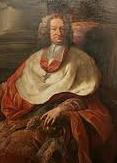

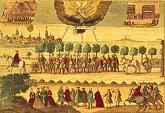







1731 On Mar. 16 the Treaty of Vienna of 1731 is signed by England (Philip Stanhope, Earl of Chesterfield), Holland, Spain, and the HRE (Count Finzendorf); Russia, Prussia, and the HRE agree to oppose Stanislas I in Poland; the Ostend East India Co. is dissolved. On Oct. 31 (214th anniv. of Martin Luther's nailing of the 95 Theses to the Wittenberg church door in 1517) the 20K Lutherans in Salzburg, Austria are expelled en masse by Roman Catholic prince-archbishop (since 1727) Leopold Anton Eleutherius von Firmian (1679-1744); they eventually migrate to North Am. via London, and in 1734 found Ebenezer, Ga. Duke Antonio of Parma and Piacenza dies, ending the Farnese male line; Charles III (Don Carlos of Bourbon) (1716-88), 2nd son of Philip V of Spain becomes duke of Parma and Piacenza> (until 1734). Benjamin Franklin joins the Freemasons and founds the Library Co. of Philadelphia, a subscription library. Ravi Varma dies, and Rama Varma (-1746) becomes ruler of Cochin (until 1746), allying with the Dutch against Travancore. The French fortify Crown Point on the W shore of Lake Champlain. Trying to get that view of that booty? French Canadian explorer Pierre Gaultier de Varennes, Sieur de La Verendrye (Vérendrye) (1685-1749) and his four sons incl. Francois de La Verendrye (Vérendrye) (1715-94) and Louis-Joseph Gaultier de La Verendrye (Vérendrye) (1717-61) begin exploring French territory W of the Missouri River (until 1742), going on to discover the Dakotas, W Minn., part of Montana, Manitoba, and Western Canada, becoming the first white Euros to reach N.D. and the upper Missouri River; in 1739 Francois and Louis-Joseph discover the Saskatchewan River, and explore the Great Plains as far as Wyo. and in 1742-3 become the first white Euros to see the Rocky Mts. N of N.M.; the 253-acre Verendrye Nat. Monument in W N.D. is protected by the U.S. in 1917-56. Alexandria, Va. on the Potomac River, 7 mi. S of Washington, D.C. is founded by Scottish merchants, with George Washington helping to survey the town in 1749, when it receives its present name and is incorporated. English factory workers are prohibited from emigrating to British Am. After talking around the recent failure of his Ostend East India Co., the Swedish East India Co., based in Gothenburg (Goteborg) is founded by Scottish merchant Colin Campbell (1686-1757), along with Swedish merchants Henrik Konig (1642-1720), Niclas Sahlgren (1701-75) et al. (until 1813), obtaining more help from English merchants shut out of the British East India Co.; in order to become a dir., Campbell is naturalized as a Swede and raised to the nobility, and is appointed as Sweden's first envoy to China, although he never meets the emperor; the first voyage embarks next Mar. 7 and arrives in Canton on Sept. 19, staying 120 days and making a nice profit, getting stopped by the Dutch on the return voyage but getting released by the gov. of Batavia and returning to Sweden on Sept. 7, 1733, declaring a 75% dividend, then going on to make 20 more voyages over the next 15 years; too bad, the Swedish steel, timber and textile interests don't want to trade for tea and porcelain, or they would have made more; the Diary of Colin Campbell is pub. in 1996. After 500+ Schwenkfelders flee Silesia to Germany, 208 of them arrive in Penn. by 1737, settling down as farmers near Philly, reaching 3K by modern times - do they want to be your stage driver? Regulations and Instructions Relating to His Majesty's Service at Sea is pub. in Britain as the fundamental regs governing the org. and discipline of the British Navy, providing for each sailor to get 1 gal. of weak beer a day. Glass is made of sand, or the other way around? Rev. Samuel Madden (1686-1765) and Thomas Prior (1681-1751) found the Royal Dublin Society. Justus van Effen (1684-1735) founds Hollandsche Spectator to imitate English reviews. The only surviving Anglo-Saxon copy of Beowolf, which narrowly escaped destruction in 1536, again narrowly escapes the flames which destroy the collection of Sir Robert Cotton. Johann Adolph Hasse becomes Kapellmeister at the Dresden Opera, and his wife Faustina Bordoni becomes prima donna. Jonathan Edwards (1703-58) delivers his Harvard Lectures, showing Puritans how to loosen up enough to become Americans? Architecture: Onderdonk Farmhouse in Queens, N.Y. is built, surviving to modern times. The State House in Philadelphia (later the Independence Hall), designed by Andrew Hamilton is begun (finished 1751). The episcopal Palais de Rohan in Strasbourg is begun (finished 1741). Science: English astronomer John Bevis (1695-1771) rediscovers the Crab Nebula (M1), which was seen by Chinese astronomers in 1054. French entomologist Rene (René) Antoine Ferchault de Reaumur (Réaumur) (1683-1757) invents an alcohol thermometer with the 0-80 (freezing-boiling) Reaumur (Réaumur) Temperature Scale - he should have used the 20-80 rule and made it 0-100? Nonfiction: Dr. John Arbuthnot (1667-1735), An Essay Concerning the Nature of Ailments; recommends dieting. Thomas Bayes (1701-61), Divine Benevolence, or an Attempt to Prove That the Principal End of the Divine Providence and Government is the Happiness of His Creatures. Henri de Boulainvilliers (1658-1722), Histoire des Arabes avec la Vie de Mahomet (posth.); portrays Muhammad as a wise rational lawgiver who was a forerunner of the Age of Reason. Ralph Cudworth (1617-88), Treatise Concerning Eternal and Immutable Morality (posth.). Philip Miller (1691-1771), The Gardener's Dictionary Containing the Methods of Cultivating and Improving the Kitchen Fruit and Flower Garden. Alexander Pope (1688-1744), Moral Essays (1731-5); incl. An Epistle to Burlington on architecture, which gains him more enemies after they accuse him of attacking the Duke of Chandos and his Cannons Estate. Georg Ernst Stahl (1659-1734), Experimenta, Observationes, Aniniadversiones... Chymicae et Physicae. Jethro Tull (1674-1741), Horse-hoeing Husbandry; shows how to reduce seed requirements by 75% using his seed drill, and grow perpetual wheat crops without manure, along with a system of 13 continuous crops; used by Voltaire and George Washington; "I was so far from being inclined to the scribbling disease, that I had disused writing for above twenty years, before I was prevailed on to commit my thoughts upon Husbandry to paper... It is no wonder that the style is low as the author... but fine language will not fill a farmer's barn; neither does truth need any embellishments of art." Voltaire (1694-1778), History of Charles XII. Christian Wolff (1679-1754), Cosmologia Generalis. Music: J.S. Bach (1685-1750), Orchestral Suite No. 3 in D major, BWV 1068 AKA "Air". G.F. Handel (1685-1759), Poro, King of India (HWV 28) (opera) (King's Theatre, London) (Feb. 2); libretto adapted from Metastasio's "Alessandro nell'Indie", about Alexander the Great's clash with King Porus of India in 326 B.C.E., starring Senesino as Poro, Anna Maria Strada as his lover Cleofide, and Annibale Pio Fabri Balino as Alexander. Giovanni Battista Pergolesi (1710-36), La Conversione e Morte di San Guglielmo (first opera) (Naples). Art: William Hogarth (1697-1764), A Harlot's Progress (series of six paintings, now lost); satire of John Bunyan's "Pilgrim's Progress"; M. (Molly) Hackabout arrives in London from the country and becomes a ho in Drury Lane, ending up arrested, worked half to death in Bridewell Prison, and dying fom VD at age 23; turns them into engravings in 1732. Nicolas Lancret (1690-1743), The Dancer Camargo. Plays: Ludvig Holberg (1684-1754), Erasmus Montanus (comedy). George Lillo (1693-1739), The London Merchant; or, The History of George Barnwell (melodrama); an apprentice repents of his vices to win the hand of a worthy girl; known for its infamous gallows scene, showing how the propertied classes keep the rabble down; creates the new genre of domestic (bourgeois) tragedy, dumping heroes from classical and Biblical history for everyday people; too bad, it's too avant-garde for the times? Novels: Pierre de Marivaux (1688-1763), La Vie de Marianne (11 vols.) (1731-45); unfinished; Abbe Prevost (1697-1763), Le Philosophe Anglais, ou Histoire de Monsieur Cleveland, fils naturel de Cromwell, écrite par lui-même, et traduite de l'anglais (8 vols.) (1731-9) (Paris); English trans. pub. in 1734; Histoire du Chevalier des Grieux et de Manon Lescaut (Paris); vol. #7 of "Memoires et Aventures d'un Homme de Qualite"; fickle luxury-loving French babe Manon attracts brilliant student Chevalier des Grieux, and rieunx, er, ruins his career; after she is transported to America, he follows her, fights a duel with the La. gov.'s son, is imprisoned, and escapes to the desert, where she dies in his arms; turned into an opera in 1884 by Jules Massenet, and again in 1893 by Giacomo Puccini. Johann Gottfried Schabel (1692-1758), Die Insel Felsenburg; pub. under alias Gisander; coins the word "robinsonade" for imitations of Daniel Defoe's 1719 "Robinson Crusoe". Births: German Goethe's mother ("Frau Rat") Katharina Elisabeth Goethe (nee Textor) (d. 1808) on Feb. 19 in Frankfurt am Main; daughter of Johann Wolfgang Textor (1693-1771) and Anna Margaretha Lindheimer (1771-83); wife (1748-) of Johann Caspar Goethe (1710-82); mother of Johann Wolfgang von Goethe (1749-1832). Chilean "The Coming of the Messiah in Majesty and Glory" Jesuit priest Manuel De Lacunza (d. 1801) (AKA Juan Josafat Ben-Ezra) on July 19 in Santiago. English poet-satirist Charles Churchill (d. 1764) in Feb. in Vine St., Westminster; educated at Westminster School, and Trinity College, Cambridge U. Am. Rev. War leader-jurist (DOI signer) ("the Objection Maker") Robert Treat Paine (d. 1814) on Mar. 11 in Boston, Mass.; educated at Harvard U.; not to be confused with Thomas Paine (1737-1809). Spanish "Las Tertulias de Madrid" Neoclassical dramatist Ramon de la Cruz (d. 1794) on Mar. 28. Am. Rev. leader (DOI signer) William Williams (d. 1811) on Apr. 23 in Lebanon, Conn.; educated at Harvard U. U.S. First Lady #1 (1789-97) (Baptist) Martha Dandridge "Patsy" Custis Washington (d. 1802) on June 2 (June 13 Old Style) in Chestnut Grove Plantation, Va.; eldest daughter of John Dandridge (1700-56) and Frances Jones (1710-85); wife (1750-7) of Daniel Parke Custis (1711-57) and (1759-) George Washington (1732-99); mother of John Parke Custis (1754-81), father of Nelly Custis (1779-1852). U.S. pres. #1 (under the Articles of Confederation) (DOI signer) Samuel Huntington (d. 1796) on July 16 (July 5 Old Style) in Windham (modern-day Scotland), Conn.; self-educated; uncle and adopted father of Samuel H. Huntington (1765-1817). English "Jennings Dog" antiquarian Henry Constantine "Dog" Jennings (d. 1819) in Aug. in Shiplake, Oxfordshire; educated at Westminster School. English chemist-physicist Henry Cavendish (d. 1810) on Oct. 10 in Nice, France; educated at St. Peter's College, Cambridge U.; never addresses strangers directly; builds a staircase in the back of his house to avoid women; drops out of school to avoid having to talk in public to get a degree; uses a torsion balance to measure the force of gravity; discovers that "water consists of dephlogisticated air [oxygen] united with phlogiston [hydrogen]", and determines the Earth's density (5.45). Am. black astronomer-mathematician Benjamin Banneker (d. 1806) on Nov. 9 near Baltimore, Md. English "John Gilpin's Ride" Romantic poet and hymnodist William Cowper (d. 1800) (pr. like Cooper) on Nov. 15 in Great Berkhampstead, Hertfordshire; educated at Westminster School; a shy, sensitive on-again off-again type who develops suicidal mania in 1763, spends two years in an asylum, moves in with Morley and Mary Unwin at Huntington, then becomes engaged to her in 1775 five years after his death, coming down with religious melancholia in 1773 and taking up poetry while she cares for him? Am. Rev. War maj. gen. William Moultrie (d. 1805) on Nov. 23 in Charleston, S.C.; builder of Ft. Moultrie on Sullivan's Island in Charleston. French Orientalist Abraham Hyacinthe Anquetil-Duperron (d. 1805) on Dec. 7 in Paris; brother of Louis Pierre Anquetil (1723-1808). Italian Jesuit lit. critic-historian (first historian of Italian lit.) Girolamo Tiraboschi (d. 1794) on Dec. 18 in Bergamo. British maj. gen. William Phillips (d. 1781). Am. seaman-merchant, politician and Am. Rev. War maj. gen. Alexander McDougall (b. 1786) in Islay Island, Scotland; emigrates in 1738 - erin go bragh? British rear adm. Charles Inglis (d. 1791); 4th son of Sir John Inglis and Anne, daughter of Adam Cockburn, lord Ormiston (1656-1735). English historian Catharine Macaulay (Graham) (nee Sawbridge) (d. 1791) in Kent. Am. Father of U.S. Special Forces (Rangers) Maj. Robert Rogers (d. 1795) in Methuen, Mass. English physician-scientist-poet Erasmus Darwin (d. 1802) in Elton, Nottinghamshire; grandfather of Charles Darwin (1809-82) and Francis Galton (1822-1911); educated at Cambridge U., and Edinburgh U. British Capt. Sir Richard Pearson (d. 1806). Dutch "Playing Putti on Clouds" Rococo painter Dirk van der Aa (d. 1809) in The Hague; student of Johann Heinrich Keller and Gerrit Mes. Am. famous bastard William Franklin (d. 1813); illegitimate son of Benjamin Franklin (1706-90) with another woman than his wife Deborah Read (1708-74), who adopts him anyway. Deaths: Dutch anatomist Fredrik Ruysch (b. 1638) on Feb. 22 in Amsterdam. Italian pianoforte inventor Bartolommeo Cristofori (b. 1655) on Jan. 27. English "Robinson Crusoe" writer Daniel Defoe (b. 1659) on Apr. 24. English feminist writer Mary Astell (b. 1666) on May 11 in London (breast cancer). French affinity table chemist Etienne Geoffroy (b. 1672) on Jan. 6 in Paris. English statesman Charles Boyle, 4th earl of Orrery (b. 1674) on Aug. 28 in Westminster; buried in Westminster Abbey. French diplomat-poet Jean-Francois Leriget de La Faye (b. 1674) on July 11 in Paris. English mathematician Brook Taylor (b. 1685) on Dec. 29.











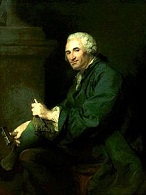
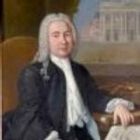
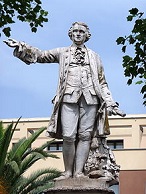
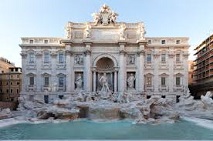
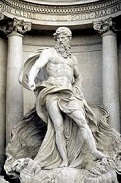
1732 A worldwide influenza starts this year (ends 1733). The black slave pop. of rice-growing S.C. numbers 32K; the white pop. is 14K. In Feb. the first Mass is celebrated in St. Joseph's of Philadelphia, the only Roman Catholic church in British Colonial Am. On Apr. 2 warriors from Dahomey attack a Dutch West Indies Co. trading station in the port of Jakin, and capture three employees, causing the Dutch to send negotiators led by Jacob Elet next year to king Dossou Agadja to negotiate their release. In June George II grants a royal charter to 21 trustees to establish a colony in America between the Savannah and Altamaha Rivers. In Sept. the city of Wilmington, N.C. on the Cape Fear River (modern-day pop. 117K/282K) is founded on land owned by John Watson by royal gov. George Burrington, who calls it New Carthage, then New Liverpool, then New Town (Newton); on Feb. 20, 1739 it is incorporated under the name Wilmington in honor of Spencer Compton, Earl of Wilmington; in the 20th cent it develops the 1-mi.-long Riverwalk; in 2003 it is designated by Congress as a Coast Guard City. On Dec. 19 Benjamin Franklin (b. 1709) begins pub. Poor Richard's Almanack (until 1758) under the alias Richard Saunders (Bonhomme Richard), becoming a bestseller (10K copies/year), making him rich enough to retire in 1748 at age 42; "Early to bed and early to rise makes a man healthy, wealthy and wise" - read your almanack and make money from your niggars, that's the life? Persian shah (since 1722) Tahmasp II is deposed by Nadir Shah, and his 8-mo.-old son Abbas III (1732-40) becomes shah of Persia (until 1736), with Nadir Shah as viceroy and the real power. HRE Charles VI gets the Pragmatic Sanction recognized. Frederick William I of Prussia settles 12K Salzburg Protestants in East Prussia. The Hat Act bans the export of beaver felt hats from the Am. colonies, forcing Americans to buy British-made clothes at 4x the customary price - never refuse an American selling beaver? British drag queen Princess Seraphina (John Cooper) prosecutes Tom Gordon for stealing his clothes. German-Am. Seventh-Day Adventists under German-born Johann Conrad Beissel (1691-1768) found Ephrata Cloister in modern-day Lancaster County, Penn.; on July 27, 2008 Marie Kachel Bucher, its last surviving resident dies. Vitus Bering leads the massive Russian govt.-backed Great Northern Expedition to map the Arctic coast of Siberia and some parts of the North Am. coastline (ends 1743); Russian naval officer Ivan Fyodorov (Fedorov) (-1733) and Russian geodesist Mikhail Spiridonovich Gvozdev (1700-59) discover Alaska near Cape Prince of Wales, westernmost point of North Am., completing the discovery of the Bering Strait, then chart the NW coast of Alaska. French explorer Francois-Marie Bissot, Sieur de Vincennes (1700-36) founds Ft. Vincennes, becoming the first white settlement in Indiana. Ga. colony begins sericulture, producing 10K lbs. of silk per year by 1759; Conn. follows suit in 1734, becoming far more successful. The first public stagecoach line in British Am. links Burlington and Perth Amboy, N.J., which connect by water to Philly and New York City, respectively. The town of Selma, Ala. (meaning: "high seat or throne", from the poem "The Songs of Selma" by Ossian) (modern-day. pop. 21K) on the Alabama River is first explored by French explorers, who call it Ecor (Écor) Bienville; in 1815 Anglos settle it, calling it Moore's Bluff; it is incorporated in 1820 after being planned and named by future U.S. vice-pres. William R. King; during the U.S. Civil War it becomes the 2nd most important military manufacturing center after Tredegar Iron Works in Richmond, Va. A London theatrical co. performs for the first time in New York City on Pearl St. German-born Johann Conrad Beissel (1691-1768) founds the vegetarian mainly celibate Seventh Day Baptists (Ephrata Community) in Germantown, Penn. The Moravian Brethren start missionary work, sending their first missionaries to the slaves in the West Indies, going on to establish missions in North Am., South Am., South Africa, Greenland, and Lapland. Naples-born Italian prelate (St.) Alfonso (Alphonsus) Maria de Liguori (1691-1787) founds the Liguorian (Redemptorist) Order; in 1762 he becomes bishop of Sant' Agata dei Goti in the kingdom of Naples, where he goes on to write great Catholic crowd-pleasers. The Jews' Free School in Ebenezer Square, London is founded on Apr. 13; in 1822 it moves to Bell Lane in East End, London, going on to become the largest all-Jewish school in Europe, graduating Israel Zangwill et al. The annual Copley Medal is founded via a £100 bequest by Sir Godfrey Copley, 2nd Baronet (1653-1709) to recognize "outstanding achievements in research in any branch of science", becoming the oldest medal awarded by the British Royal Society, and the oldest scientific award to survive to modern times; the first one is given to Stephen Gray for "his new Electrical Experiments". William Berriman gives the last Boyle Lecture. French engraver Huert-Francois Gravelot (Bourguignon) (1699-1773) emigrates to London, bringing the Rococo style to England and reinvigorating illustrative engraving before hiking back to France in Oct. 1745 after the Battle of Fontenoy; his students incl. Thomas Gainsborough. The South Carolina Gazette begins pub. Philadelphische Zeitung, the first German-language newspaper in America begins pub.; German-language publishing also begins flourishing in Ephrata, Penn. Sports: Architecture: The Royal Opera House in Covent Gardens in London on Bow St. opens, becoming Handel's place in 1735. St. Nikolas Church in Prague (begun 1711) is finished. After a competition is organized by Pope Clement XII, the design of Nancy-born French Baroque-Rococo sculptor Lambert-Sigisbert Adam the Elder (l'Aine) (1700-59), for the Baroque Trevi Fountain in Rome (completed in 172) is unanimously accepted by the committee, which then turns around and selects Florentine architect Alessandro Maria Gaetano Galilei (1691-1737), then after an outcry against Florentines switches to genuine Romans Nicola (Niccolo) Salvi (1697-1751) and his apprentice Luigi Vanvitelli (Lodewijk van Wittel) (1700-73), pissing-off Adam and causing him to return from Rome in 1733; it is finished in 1762 by sculptor Pietro Bracci (1700-73), who sculpts the colossal statue of Oceanus (Neptune) from a plaster model by Cassano Magnago, Lombardy-born sculptor Giovanni Battista Maini (1690-1752). Inventions: Michael Menzies invents a threshing machine consisting of fails driven by a water wheel. English clockmaker Christopher Pinchbeck (1670-1732) invents the copper-zinc alloy Pinchbeck, which becomes popular for imitation gold watches for the next 20 years until 9-carat gold and electrogilding replace it. Science: Saint-Malo-born Pierre Louis Moreau de Maupertuis (1698-1759), who left the army in 1723 at age 25 after five years of spare-time study of math to become a member of the Academie Francaise in Paris introduces Newton's Theory of Gravitation to France, sparking a French nerd movement. Nonfiction: George Berkeley (1685-1753), The Minute Philosopher. Dom Augustine Calmet (1672-1757), An Historical, Critical, Geographical, Chronological, and Etymological Dictionary of the Bible. Elihu Coleman (1699-1789), A Testimony Against the Antichristian Practice of Making Slaves of Men; Quaker minister preaches for abolition, quoting the Bible selectively. Bernard de Mandeville (1670-1733), An Enquiry into an Origin of Honour; and the Usefulness of Christianity in War. Johann Jacob Moser (1701-85), Foundations of International Law. Daniel Neal (1678-1743), The History of the Puritans (5 vols.). Johann Heinrich Zedler (1706-60), Grosses, Vollstandiges Universal-Lexikon (64 vols.) (1732-50). Johann Gottfried Walther (1684-1748), Musik-Lexikon; first of its kind. Jakob Benignus Winslow (1669-1760), Exposition Anatomique de la Structure du Corps Human (Anatomical Structure of the Human Body). Christian Wolff (1679-1754), Psychologia Empirica; popularizes the term "psychology". Music: J.S. Bach (1685-1750), Schweigt stille, plaudert nicht, BWV 211 (Be still, stop chattering) AKA the Coffee Cantata (1732-5); tells an amusing tale of addiction to coffee, debuting it at the coffee house in Leipzig; "If I couldn't, three times a day, be allowed to drink my little cup of coffee, in my anguish I will turn into a shriveled-up roast goat". Lodovico Giustini (1685-1743), Sonate da Cimbalo di Piano e Forte, Op. 1; first compositions for the modern piano? Giovanni Battista Pergolesi (1710-36), Lo Frate Innammorato (The Brother in Love) (opera) (Naples). G.F. Handel (1685-1759), Ezio (HWV 29) (opera) (King's Theatre, London) (Jan. 15); libretto by Pietro Metastasio, based on Jean Racine's "Britannicus"; stars Senesino as Roman gen. Ezio, and Anna Maria Strada as his babe Fulvia; a flop, folding after five performances, becoming his greatest operatic failure; Sosarme, Re di Media (HWV 30) (Sosarmes, King of Media) (opera) (London); stars Senesino as Sosarme. Giovanni Battisti Sammartini (1700-75), Memet (opera). Art: Francois Boucher (1703-70), The Rape of Europa (1732-4); illustrations for an ed. of Moliere; Mercury Confiding the Infant Bacchus to the Nymphs (1734-4). Jean-Baptiste-Simeon Chardin (1699-1779), Kitchen Table with Shoulder of Mutton. William Hogarth (1697-1764), A Rake's Progress (series) (1732-3); sequel to "A Harlot's Progress"; satire of English manners and customs; Tom Rakewell, spendthrift son of a rich merchant goes to London, wastes his money in dissolute living, and ends up in Fleet Prison and Bethlem Hospital; turns them into engravings in 1734, which are a hit. Plays: Henry Carey (1687-1743), Betty; or The Country Bumpkins. Johann Christoph Gottsched (1700-66), Der Sterbende Cato; adapted from Joseph Addison. Philippe Nericault Destouches (1680-1754), Le Glorieux (comedy). Births: Polish-Lithuanian king (last) (1764-95) Stanislas II Augustus (Stanislaw II August) Poniatowski (d. 1798) on Jan. 17 in Wolczyn, Belarus; son of Count Stanislas Poniatowski (1676-1762) and Princess Kostancja Czartoryska (1700-59). Am. statesman (DOI signer) Richard Henry Lee (d. 1794) on Jan. 20 in Stratford, Westmoreland County, Va.; son of Thomas Lee (1690-1750) and Hannah Harrison Ludwell (1701-50); great-uncle of Robert E. Lee (1807-70); brother of Thomas Ludwell Lee Sr. (1730-78), Francis Lightfoot Lee (1734-97), William Lee (1739-95), and Arthur Lee (1740-92). French dramatist and diplomat Pierre-Augustin Caron de Beaumarchais (d. 1799) on Jan. 24 in Paris; inventor of the escapement for wristwatches; institutes the practicing of paying playwrights royalties for performances. Am. Rev. War gen. Charles Lee (d. 1782) on Feb. 6 in Cheshire, England; noted for eccentricity, criticizing Washington, and getting court-martialed - the Lees all tend to have that problem? English dramatist-novelist Richard Cumberland (d. 1811) on Feb. 19 in the Master's Lodge, Trinity College, Cambridge U.; not to be confused with philosopher Richard Cumberland (1631-1718); basis of Sir Fretful Plagiary in Richard Sheridan's "The Critic" (1779). U.S. no-party pres. #1 (1789-97) ("Father of his Country") (Freemason) (devout Anglican, probably not a Deist?) 6'2" (6'1-1/2"?) George Washington (d. 1799) on Feb. 22 (Feb. 11, 1731/2 Old Style) in Pope's Creek Estate near modern-day Colonial Bech, Westmoreland County, Va. Colony (S of Mt. Vernon) on Pope's Creek (tributary of the Potomac); son of Augustine Washington (1694-1743) and 2nd wife Mary Ball Washington (1708-89); named after Mary's guardian George Eskridge; cold distant father never bonds with him; selfish possessive mother is a control freak, trying to turn him into her 2nd husband, and he later distances himself from her through life, refusing to attend her funeral; as a boy attends St. George's Anglican Church; no U.S. pres. is born earlier; at age 11 his father dies, and he inherits 10K acres of land and 50 slaves, his basic education in the 3 R's ending while his two half-brothers Lawrence and Augustine attend college, scarring him for life; loses his teeth by cracking walnuts with them? British Whig politician Thomas "Tommy" Townshend, 1st Viscount Sydney (d. 1800) on Feb. 24 in Sidcup, Kent; educated at Clare College, Cambridge U.; namesake of Sydney, Australia. Am. Rev. War brig. gen. Francis "Swamp Fox" Marion (d. 1795) on Feb. 26 in Georgetown, S.C.; of French Huguenot ancestry; born premature "not larger than a New England lobster" (Peter Horry). U.S. Supreme Court justice (1789-1810) William Cushing (d. 1810) on Mar. 1 in Scituate, Mass.; educated at Harvard U.; last U.S. judge to wear a full wig. English "Critical Pronouncing Dictionary" actor-lexicographer John Walker (d. 1807) on Mar. 18 in Colney Hatch, Middlesex. Italian composer Gian Francesco de Majo (d. 1770) on Mar. 24 in Naples; son of Giuseppe de Majo (1697-1771). Austrian composer ("Father of the Symphony") ("Father of the String Quartet") (Freemason) Franz Joseph "Papa" Haydn (d. 1809) on Mar. 31 in Rohrau (25 mi. ESE of Vienna); takes the quartet from a double duet to a full 4-part harmony; is called "Papa" even though he has no kids; his wife uses his music sheets to line pastry pans; 24 years older than his friend Wolfgang Amadeus Mozart, he outlives him by almost 20 years. French "The Swing" Rococo erotic painter Jean-Honore (Jean-Honoré) Fragonard (d. 1806) on Apr. 5 in Grasse; pupil of Jean Baptiste Chardin, Francois Boucher, and Carle Van Loo; paints jauntily-posed French aristocrats until he is put out of biz by the French Rev. Am. astronomer-mathematician David Rittenhouse (d. 1796) on Apr. 8 in Paper Mill Run (near Germantown), Penn.; first dir. of the U.S. Mint (1792-5). English PM (1770-82) ("the minister who lost America") Frederick North, 2nd Earl of Guilford (d. 1792) on Apr. 13 in Wroxton Abbey; educated at Eton College, and Trinity College, Oxford U.; his strong resemblance to George III causes rumors that the king's daddy Frederick, prince of Wales is his real daddy - no sense of direction? U.S. Supreme Court justice John Blair Jr. (d. 1800) on Apr. 17 in Williamsburg, Va.; educated at the College of William and Mary. English "The Jealous Wife" dramatist-essayist and theater mgr. George Colman the Elder (the First) (d. 1794) in Apr. in Florence, Italy; educated at Westminster School, and Christ Church, Oxford U.; father of George Colman the Younger (1762-1836). British gov. of Bental (1759-64) Henry Vansittart (d. 1770) n June 3 in Bloomsbury, Middlexec; family name comes from Sittart in Limburg, Netherlands; educated at Reading School, and Winchester College. German composer ("the Buckeburg Bach") Johann Christoph Friedrich Bach (d. 1795) on June 21 in Leipzig; 9th and youngest son of Johann Sebastian Bach (1685-1750); spends almost 20 years in London, becoming known as the "English Bach". French astronomer Joseph Jerome Lefrancais de Lalande (d. 1807) on July 11 in Bourg-en-Bresse. French statesman-financier-economist (financer minister of Louis XVI) Jacques Necker (d. 1804) on Sept. 30 in Geneva, Switzerland; husband of Suzanne Curchod (1737-94); father of Madame de Stael (1766-1817). English astronomer royal #5 (1765-1811) Rev. Nevil Maskelyne (d. 1811) on Oct. 6 in London; educated at Westminster School, and St. Catherine's College, Cambridge U.; brother of Margaret Maskelyne (1735-1817), wife of Robert Clive; father of Margaret Maskelyne (1786-1858), mother of Oxford mineralogy prof. Mervyn Nevil Story-Maskelyne (1823-1911). English piano maker John Broadwood (d. 1812) on Oct. 6 in Oldhamstocks. Austrian horn player Joseph Leutgeb (Leitgeb) (d. 1811) on Oct. 6 in Neulerchenfeld; Mozart's favorite horn player. Am. journalist and "Boston Gazette" ed. Benjamin C. Edes (d. 1803) on Oct. 14 in Charlestown, Mass. Am. lapsed Quaker patriot ("Penman of the Revolution") John Dickinson (d. 1808) on Nov. 2 in Talbot County (near Trappe), Md.; great-grandfather Walter Dickinson emigrated from England in 1754, and set up Croisadore ("golden cross") tobacco plantation. Am. Rev. War leader, gov. #1 of Md. (1777-9) and U.S. Supreme Court justice #7 (1791-3) Thomas Johnson Jr. (d. 1819) on Nov. 4 in St. Leonard, Calvert County, Md. French writer and salon hostess Julie Jean Eleanore de Lespinasse (d. 1776) on Nov. 9 in Lyon; illegitimate daughter of Madame L'Albon; shacks up with science Jean le Rond d'Alembert (1717-83). English gov.-gen. #1 of India (1773-85) Warren Hastings (d. 1818) on Dec. 6 in Churchill, Oxfordshire; educated at Westminster School. Prussian Brandenburg Gate architect Carl (Karl) Gotthard Langhans (d. 1808) on Dec. 15 in Landeshut, Silesia (modern-day Kamienna Gora, Poland); educated at the U. of Halle. Francis "Franky" Folger Franklin (d. 1736); son of Benjamin Franklin and Deborah Franklin. Dutch physicist Anton Brugmans (d. 1789). French publisher Pierre Francois Didot (d. 1793); son of Francois Didot (1689-1757); brother of Francois Ambroise Didot (1730-1804); father of Henri Didot (1765-1852). Swedish physicist Johan Wilcke (d. 1796). Deaths: German sculptor Balthasar Permoser (b. 1651) on Feb. 18 in Dresden. Dutch mapmaker (in England) Herman Moll (b. 1654); leaves the immortal soundbytes "California is an island", and "I have had in my office mariners who have sailed around it." Japanese emperor #112 (1663-87) Reigen (b. 1654) on Sept. 24. English divine Francis Atterbury (b. 1663) on Feb. 22 in Paris, France. Virginia planter Robert "King" Carter (b. 1663). English-born Am. poet Ebenezer Cooke (b. 1665). Sardinian king (1720-30) Victor Amadeus II (b. 1666) on Oct. 31. English horticulturist John Laurence (b. 1668). Scottish divine Thomas Boston (b. 1676) on May 20. Hungarian-Transylvanian prince Francis II Rakoczy (b. 1676) on Apr. 8 in Rodosto (Tekirdag), E Thrace; dies in exile. Dutch mapmaker Herman Moll (b. 1678). English "T'was when the Seas Were Roaring", "William's Farewell to Black-Ey'd Susan" poet-dramatist John Gay (b. 1685) on Dec. 4; buried in Westminster Abbey. English botanist Richard Bradley (b. 1688) on Nov. 5 in Cambridge.

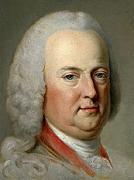


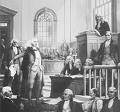

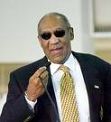

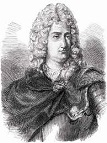




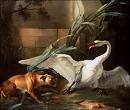

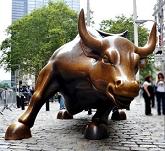
1733 On Feb. 1 Augustus II the Strong (b. 1670) dies, and his son Augustus III the Corpulent (1696-1763), who converted to Roman Catholicism in 1712 despite the displeasure of the Protestant Saxon aristocracy is elected elector of Saxony (until 1763), followed next year by king of Poland and grand duke of Lithuania (until 1763); too bad, only a minority of Polish magnates support him, the majority electing leaner Stanislas I Leszczynsky instead, and on Aug. 14 the War of the Polish Succession, the first of three wars in the Second Thirty Years' War (ends 1738) begins when Stanislas I seeks to reascend the throne, and tsarina Anna of Russia intervenes (until 1735); on Nov. 7 the Treaty of the Escorial (First Pacte de Famille) is signed by Philip V of Spain (grandson of Louis XIV), joining up on Stanislas I's side, after which Louis XV of France and Sardinia also sign up, while Austria, Russia, Prussia, and Saxony side with Augustus III; PM Robert Walpole keeps Britain neutral despite the king screaming about his Hanoverian interests; meanwhile Heinrich von Bruhl (Brühl) (1700-63), who gained the confidence of Augustus II and used his papers and jewels to raise money to secure his election becomes the #1 confidant of Augustus III, going on to throw off the power of the old servants of the electoral house by 1739 and become the de facto head of the Saxon court, becoming PM in 1746 and using his position to gain great wealth and numerous titles, with 200 domestic servants incl. guards paid better than the king's, while bankrupting the state and shrinking the army to satisfy the demands of the effete king, to whom he controls access; "Bruhl had more garments, watches, laces, boots, shoes and slippers, than any man of the age. Caesar would have counted him among those curled and perfumed heads which he did not fear." On Feb. 2 after being granted a royal charter for the area between the Savannah and Altamaha Rivers last June 9, Godalming, Surrey-born Oxford-educated Methodist Ga. gov. #1 (1732-43) James Edward Oglethorpe (1696-1785) along with some Moravian Protestants land in Savannah, and found the colony of Jaw-Jaw, er, Georgia (Ga.) (named after George II of England) as a refuge for debtors and criminals after getting the idea from English Anglican clergyman Thomas Bray (1656-1730); he leads 120 colonists to the colony, then with surveyor col. William C. Bull lays out the capital city of Savannah (modern-day pop. 136K/384K) on the coast in a geometrical pattern with 22 squares, starting with Johnson Square on Bull St. between Bryan and Congress Sts.; the colony tries to be both a military buffer against Spanish Fla. and a philanthropic experiment for the poor and persecuted. On Mar. 14 PM Robert Walpole introduces an excise bill, triggering demonstrations, incl. a procession of merchants on sheriffs on Apr. 11 bearing a petition against new taxes. On July 15 the Spanish Treasure Fleet wrecks on the Florida Keys - would you get that animal off my wife, thank you? In July 42 Jewish settlers arrive in Savannah, Ga., after which the trustees of Ga. vote to ban Jewish immigrants, and James Oglethorpe talks them into letting this batch stay, incl. the Salvador Family. In Dec. Palatine immigrant John Peter Zenger (1697-1746) founds the anti-govt. New York Weekly Journal as a rival to William Bradford's pro-govt. New York Gazette, soon editorializing against newly-appointed royal colonial N.Y. gov. (1732-6) Bill Cosby, er, Brig.-gen. Sir William Cosby (1690-1736), which gets him into hot water - every time I look around you're either in trouble, about to get in trouble, or laying out a long term plan to get into trouble? Santa Cruz in the West Indies comes under Danish control; the Molasses Act protects English planters in the British West Indies from Dutch and French competition in the French sugar islands by introducing a six pence per gallon tax on molasses; unfortunately, rum distilleries in New England need more molasses than the British sugar islands can produce, and they begin flouting the act. PM Robert Walpole gets the approval of the king and queen for his solidarity principle, whereby cabinet members are forced to keep quiet or resign if they disagree with the prime minister (him); if the PM loses the support of the house majority, he resigns. Conscription is introduced in Prussia - my, that uniform looks smart? Christian VI of Denmark promulgates the Danish Adscription Law, forcing peasants to remain in their home regions so that they can be subscribed as soldiers by the nobles; repealed in 1788. The secret Bourbon Family Compact is made, whereby the ruling houses of France and Spain agree to act together against Britain to advance their colonial and commercial interests. The Latin language is abolished in the English courts. Strong Man Lodge, the first German Freemason lodge is founded in Hamburg (until 1933); St. John's Lodge, the first officially charted Freemason lodge in North Am. is formed in Boston, Mass., with Col. Daniel Coxe (1673-1739) as grandmaster of the colonies, who goes on to spin off provincial grand lodges in N.Y., Philly, and S.C. by 1737. John Bartram (1699-1777) of Philadelphia, "the Father of Am. Botany" begins a correspondence with Europeans that results in the pawpaw, sourwood, and other European plants being introduced to North Am. Margaret Askew (1614-1702) marries English judge and MP (later a Cromwell supporter) Thomas Fell (1598-1658), owner of Swarthmoor Hall in Ulverson, Cumbria, and goes on to fall for George Fox's Quakerism and become its "nursing mother", with the hall becoming its birthplace. Swedish poet Olof von Dalin (b. 1708) founds the Swedish weekly lit. journal Svenska Argus, modeled after The Spectator in England. French painter Jean Baptiste Oudry (1686-1755) is appointed dir. of the Beauvais tapestry factory, where his classical hunting designs become a big hit. Cape Girardeau, Mo. (modern-day pop. 38K/134K) at a rocky promontory overlooking the Mississippi River is founded as a trading post by French soldier Jean Baptiste de Giardot in Kaskaskia in the French colony of La Louisiane; in 1793 after it becomes kaput, French-Canadian trader Louis Lorimier establishes another trading post there; at the same time Baron Carondelet grants land to the Black Bob Band of the Hathawekela Shawnee, who are removed by the U.S. govt. in 1833; in 1799 Am. settlers found the first English school W of the Mississippi River there at Mt. Tabor; the town is incorporated in 1818, after which it becomes the biggest port on the Mississippi River between St. Louis and Memphis. Poor Richard's Almanack for 1733; "The heart of a fool is in his mouth, but the mouth of a wise man is in his heart." Sports: The govt. of New York City authorizes the old Dutch parade ground at the S end of Broadway adjoining Ft. Amsterdam E of Battery Park to be established as a "bowling green... for the recreation and delight of the inhabitants of the city", known as Bowling Green, where ninepins (bowling) is played for the first time in New York City?; it becomes the center of the exclusive residential district and the oldest public park in New York City to survive to modern times; in 1989 it becomes host to the Charging Bull bronze sculpture by Arturo Di Modica (1941-), and is used as the starting point for ticker tape parades into the "Canyon of Heroes" (Broadway). Architecture: The late Baroque-style Asamkirche (Church of St. Johann Nepomuk in Munich, Germany begins construction (finished 1746) by the Asam brothers Cosmas Damian Asam (1686-1739) and Egid Quirin Asam (1692-1750). Bowling Green Park in New York City E of Battery Park is built for a bowling green, becoming the oldest public park in New York City. Gov. Oglethorpe orders the Tybee Lighthouse on the Ga. coast constructed. The 193-ton Czar Kolokol (Emperor Bell) of Moscow is cast. Inventions: British lawyer Chester Moore (Moor) (More) Hall (1703-71) builds the first Achromatic Compound Lens out of flint glass. John Kay (1704-80) of England patents the Flying Shuttle Loom for the manufacture of textiles, which uses a lever and springs to allow one weaver to throw the shuttle back and forth instead of two; too bad, while wool weavers adopt it, cotton weavers don't follow er, suit until the 1760s. Science: French chemist Charles Francois de Cisternay du Fay (1698-1739) pub. his discovery that electrical action can be repulsion as well as attraction, calling the two types "vitreous" and "resinous", noting the difference between conductors ("electrics") and insulators ("non-electrics"); he also disproves the theory of Stephen Gray that electric properties of a body depend on its color. Nonfiction: Vincent La Chapelle (1690-1745), Le Cuisinier Moderne (3 vols.) (England); first cookbook author to call his cooking modern, consisting of an expanded version of Massialot with lavish illustrations; a 4-vol. French ed. follows in 1735. Stephen Hales (1677-1761), Haemostaticks; mechanics of blood flow and blood pressure; traces reflex actions to the spinal cord. Alexander Pope (1688-1744), Essay on Man (1733-4); Pt. 1 is pub. anon. to draw praise from his worst enemies, which works; "Give me again my hollow tree, a crust of bread, and liberty". Voltaire (1694-1778), Lettres sur les Anglais (Letters on England). Music: J.S. Bach (1685-1750), Mass in B Minor (short vers. - full vers. in 1738). John Gay (1685-1732), Achilles (opera) (Covent Garden, London) (posth.). G.F. Handel (1685-1759), Orlando (HWV 31) (opera) (King's Theatre, London) (Jan. 27); libretto adapted from Carlo Sigismondo Capece's "L'Orlando", adapted from Ludovico Ariosto's "Orlando Furioso"; stars Senesino as Senesino; flops after 10 performances. Giovanni Battista Pergolesi (1710-36), La Serva Padrona (The Servant Mistress) (opera buffa) (Aug. 28) (Naples); "oldest opera in the standard repertoire"; incl. La Serpina Penserete, Aspettare e Non Venire. Nicola Porpora (1686-1768), Arianna in Nasso. Jean-Philippe Rameau (1683-1764), Hippolyte et Aricie (first opera) (Academie Royale de Musique, Paris) (Oct. 1); libretto by Abbe Simon-Joseph Pellegrin based on Racine's "Phedre"; causes a sensation with its revolutionary use of harmony, causing it to be attacked by supporters of Jean-Baptiste Lully, who lost, making him into his successor until his music goes out of style by the end of the cent.; he also becomes the leading French harpsichord composer along with Francois Couperin. John Christopher Smith (1712-95), Ulysses (first opera). Plays: Carlo Goldoni (1707-93), Amalasunta (tragedy); burned after its premiere. Antonio Jose da Silva (1705-39), Life of the Great Don Quixote de la Mancha and Sancho Panza (debut). Poetry: Ebenezer Cooke (1667-1732), The Maryland Muse, Containing a Revised Edition of The Sot-Weed Factor and The History of Colonel Nathaniel Bacon's Rebellion in Virginia. Alexander Pope (1688-1744), Imitations of Horace (1733-8); satirizes life under George II, with Joseph Addison as Atticus and Lord Hervey as Sporus. Jonathan Swift (1667-1745), On Poetry; "Hobbes clearly proves that every creature/ Live in a state of war by nature./ So, naturalists observe, a flea/Hath smaller fleas that on him prey;/ And these have smaller still to bit 'em;/ And so proceed ad infinitum./ Thus every poet, in his kind,/ Is bit by him that comes behind"; Verses on the Death of Dr. Swift; "Yet malice never was his aim;/ He lashed the vice but spared the name./ No individual could resent,/ Where thousands equally were meant./ His satire points at no defect/ But what all mortals may correct;/ For he abhorred that senseless tribe/ Who call it humor when they gibe." Novels: Samuel Madden (1686-1765), Memoirs of the Twentieth Century; a guardian angel gives the author a series of letters from English ambassadors in several countries to the British Lord High Treasurer, along with replies from the British foreign office, all from the future (1997-1998), in the time of George VI; the first time travel novel?; suppressed by Sir Robert Walpole. Pierre de Marivaux (1688-1763), La Vie de Marianne (11 vols.) (1731-42). Births: English naval explorer Philip Carteret, Seigneur of Trinity (d. 1796) on Jan. 22 in Jersey. Am. Rev. leader and judge (Episcopalian) James Duane (d. 1797) on Feb. 6 in New York City; mayor #1 of New York City (1784-9). English barrister (lord chancellor in 1793-1801) Alexander Wedderburn, 1st Earl of Rosslyn (d. 1805) on Feb. 3 (Feb. 13 Old Style) in East Lothian; educated at the U. of Edinburgh. Swedish botanist Daniel Charles (Carlsson) Solander (d. 1782) on Feb. 19 in Pitea, Norrland; educated at Uppsala U.; student of Carl Linnaeus; inventor of the Solander Box for storing books. English scientist (chemist) Joseph Priestley (d. 1804) on Mar. 13. German Neoclassical painter Johann Zoffany (Zauffelij) (d. 1810) on Mar. 13 in Frankfurt; painter for court of George III of England. German mathematician-anthropologist Carsten (Karsen) Niebuhr (d. 1815) on Mar. 17 in Ludingworth, Lower Saxony; father of Barthold Georg Niebuhr (1776-1831). German writer Christoph Friedrich Nicolai (d. 1811) on Mar. 18 in Berlin; son of Christoph Gottlieb Nicolai (-1752). English bone china inventor Josiah Spode Sr. (d. 1797) on Mar. 23 in Stoke-on-Trent; father of Josiah Spode Jr. (b. 1754-1827). French Borda Count scientist-sailor Jean-Charles, Chevalier de Borda (d. 1799) on May 4 in Dax, Landes. French Rococo painter Hubert Robert (d. 1808) on May 22. British col. Barry St. Leger (d. 1789) (pr. SILL-in-jur) in May in County Kildare, Ireland; of Huguenot descent; educated at Eton College, Cambridge U. Am. Rev. War gen. James Clinton (d. 1812) on Aug. 9 in Ulster County, N.Y.; brother of George Clinton (1739-1812); father of DeWitt Clinton (1769-1828). French Shakespeare-loving dramatist Jean-Francois Ducis (d. 1816) on Aug. 22 in Versailles. German writer-poet Christoph Martin Wieland (d. 1813) on Sept. 5 in Oberholzheim, Baden-Wurttemberg. Am. Rev. leader (DOI signer) George Read (1798) on Sept. 18 in North East, Md. Irish "The Maid of the Mill" playwright-librettist Isaac Bickerstaffe (Bickerstaff) (d. 1812) on Sept. 26 in Dublin; starts out as a page to Lord Chesterfield, lord lt. of Ireland. Am. Rev. War maj. gen. Philip John Schuyler (d. 1804) on Nov. 20 in Troy, N.Y.; father of Philip Jeremiah Schuyler (1768-1835). Finnish explorer-botanist Herman Diedrich Spoering (Spöring) Jr. (d. 1771) in Turku; son of Herman Spoering Sr. (1701-47). Palestinian rabbi Haim Isaac Carigal (d. 1777) in Hebron; becomes a rabbi at age 17 and spends 20 years traveling the world collecting funds for the Jewish community. English type designer Joseph Jackson (d. 1792); pupil of William Caslon (1692-1766). German embryologist Caspar (Kaspar) Friedrich Wolff (d. 1794); discoverer of the Wolffian body (embryonic kidney). Japanese painter Maruyama Okyo (d. 1795). Am. Rev. War gen. Benjamin Lincoln (d. 1810) in Hingham, Mass. Deaths: French chef Francois Massialot (b. 1660) in Paris. French sculptor Nicolas Coustou (b. 1658) on May 1 in Paris. Italian mathematician Girolamo Saccheri (b. 1667) on Oct. 25 in Pavia; dies after pub. Euclid Freed of Every Flaw (Euclides ab Omni Naevo Vindicatus), in which he reveals his discovery of non-Euclidean (hyperbolic) geometry, but doesn't realize it since he is trying to prove Euclid's parallel postulate true by a reductio ad absurdum proof; 50 years later J.H. Lambert also stumbles over it, and 40 years after that (1823) Bolyai and Lobachevsky finally get the brain man brownie buttons; Saccheri's book also describes the Saccheri (Khayyam-Saccheri) Quadrilateral, which has two equal sides perpendicular to the base. French composer Francois Couperin (b. 1668) on Sept. 11 in Paris; leaves 4 vols. of harpsichord music (1713-30), which became a hit with J.S. Bach, Richard Strauss, and Maurice Ravel, who in 1914-17 composed Le Tombeau de Couperin (Couperin's Memorial). German Saxon elector (1694-1733) and Polish king (1697-1704, 1709-33) Augustus II the Strong (b. 1670) on Feb. 1 in Warsaw. Dutch-born English satirist Bernard de Mandeville (b. 1670) on Jan. 21 in Hackney (influenza). Swiss mathematician Jakob Hermann (b. 1678) on July 11. English actor Barton Booth (b. 1681). French Roman Catholic Ursuline nun Marie de Tranchepain de Saint Augustine (b. ?) on Nov. 11 in New Orleans, La.; leaves Account of the Voyage of the Ursulines to New Orleans in 1727.
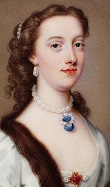

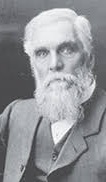

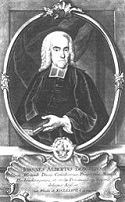




1734 On Feb. 22-June 30 the Siege of Danzig in Poland (first time that French and Russian troops meet as enemies on the field) ends with surrender to the Russians, after which Stanislas I flees to France. On Mar. 25 Prince Willem (William) IV of Orange-Nassau (1711-51) marries princess Anne of Hanover, Duchess of Brunswick and Luneburg (1709-59), 2nd child and eldest daughter George II of England, the 2nd daughter of a British monarch to hold the Frenchie title of princess royal. On May 25 Don Carlos of the Spanish House of Bourbon (2nd son of Philip V) invades Naples and Sicily, and reconquers the Kingdom of the Two Sicilies from Austria at the Battle of Bitonto, getting even for the 1713 Treaty of U-Tricked-Me; Charles III throws Austria a bone by relinquishing Parma and Piacenza, which France and Sardinia have their eye on anyway; Sicily is run by the Spic-and-Span Spanish Bourbons until 1860 (except 1806-16). On June 12 after James FitzJames, 1st duke of Berwick (son of James II of England) receives command of a French army, which occupies the duchy of Lorraine and the Hapsburg Netherlands, then crosses the Rhine River and sieges the fortress of Philipsburg (Philippsburg) (Udenheim) on the Rhine River in Germany, he is KIA by artillery on June 12, hurting their future chances; on July 18 they capture the fortress. On July 11 Margaret Bentinck, Duchess of Portland (1715-85) marries the 2nd duke of Portland at Oxford Chapel in Marylebone, going on to join the Bluestockings and turn her home in Bulstrode Park in Buckinghamshire into a natural history museum, hiring a team of naturalists and collecting the largest natural history collection in England, making fans of Jean-Jacques Rousseau, Horace Walpole et al. pioneering Anglo-Saxon scholar Elizabeth Elstob (1683-1756), who lost her brother and inherited his debts, causing her to have to do nanny work for a living tutors her children in 1738-56. On June 29 after a French-Sardinian army occupies Milan, the Battle of Parma with Austrian-Prussian forces under Prince Eugene of Savoy is a push. Isn't this pointless bloodbath about two centuries early? On Sept. 15 the 10-a.m.-to-5-p.m. Battle of Secchia sees king Charles Emmanuel III of Sardinia escape in his nightgown; on Sept. 19 after he gets dressed, 49K French and Sardinians under Charles Emmanuel III, Francois-Marie, 1st Duc de Broglie (1671-1745), and marshal Francois de Franquetot de Coigny (1670-1759) defeat 40K Austrians and Prussians at the Battle of Guastalla (Luzzara) (waste it all, losers?)), with a total of 12K dead or wounded, incl. German gen. Frederick Louis of Wurttemberg-Winnental (b. 1690), who is KIA. On Nov. 17 New York City newspaper publisher John Peter Zenger is arrested on charges of seditious libel, and is imprisoned for 10 mo. before being brought to trial, during which time his his rival William Bradford flops to his side against the stankin' English govt. - after 35 years I am looking forward to retiring, but losing my health insurance bothers me? Turkey and Persia go to war (ends 1735). England and Russia sign a trade agreement - your caviar for my tobacco? The Hogarth (Engraving) Copyright Act of 1734, sponsored by William Hogarth is passed in England - I will protect my family? After pressure from the Manila business community, the volume of galleon trade through the Philippines is increased; too bad that only China and Mexico are allowed to trade in Manila. 8K Salzburg Protestant refugees migrate to the Am. colony of Georgia, followed by German-speaking Moravians, Highland Scots, Portuguese Jews, Welsh et al. - give this mixture a couple of centuries and out pops Scarlett O'Hara? The U. of Gottingen (Göttingen) AKA Georgia Augusta in Gottingen, Lower Saxony, Germany ("the city of science") is founded by Elector Georg August of Hanover (later English King George II); it opens in 1737. Venetian playwright Carlo Osvaldo Goldoni (1707-93), who ran away as a boy to join a co. of traveling comedians, made a study of classic Greek and Latin comic poets, and came up with the idea of reforming Italian comedy by eliminating masques and buffoons and copying Moliere begins producing his first comedies, becoming the founder of modern Italian comedy. French ballet master Jean-Baptiste Lande (Landé) (-1748) gives a recital for Empress Anna in St. Petersburg, wowing her and causing her to issue an imperial decree establishing the Imperial Ballet School in the Winter Palace in St. Peterburg on May 4, 1738. Lloyd's List begins pub. in London twice-weekly to provide shipping news for underwriters and merchants' agents. John Wesley and Charles Wesley arrive in Savannah, Ga., spending three years (until 1738), and teaching the first Sunday School in North Am. Benjamin Franklin becomes Grand Master of the Philadelphia Freemasons. The Boston Weekly Postboy begins pub. in Mass. Poor Richard's Almanack for 1734. Mary Lisle, the first known "brewster" in America takes over her late father's Edinburgh Brewhouse in Philly, which she operates until 1751. Sports: On Feb. 1 the first horserace in British Am. is held in Charleston Neck, S.C. Architecture: English architect William Kent (1685-1748) designs a new Treasury in Whitehall, London. Science: Emanuel Swedenborg (1688-1772) claims to have been given the nebular hypothesis theory for solar system formation in a seance - scrubs, all-new episodes? Nonfiction: Johann Albrecht Bengel (1687-1752), Greek New Testament; makes use of his principle "Proclivi scriptioni praestat ardua" (The difficult reading is to be preferred to that which is easy), which is adopted by Bible scholars; too bad, he predicts Armageddon in 1836 despite Matt. 24:36 ("Of that day and hour no one knows"). Stephen Hales (1677-1761), A Friendly Admonition to the Drinkers of Gin, Brandy, and Other Distilled Spirituous Liquors; pub. anon. by a chemist for sufferers of heeby-geebies, becoming popular, reaching a 5th ed. in 1754. Charles Johnson, The Lives and Adventures of the Most Famous Highwaymen; really written by Daniel Defoe? Madame de Lambert, Avis d'une Mere a sa Fille (Advice to a Woman and Her Brood); recommends a univ. education for women. Baron Montesquieu (1689-1755), Considerations sur les Causes de la Grandeur et de la Decadence des Romains (Considerations on the Causes of the Grandeur and Decadence of the Romans). Francois Goyot de Pitaval (1673-1743), Causes Celebres et Interessantes. George Sale (1697-1736) (tr.) The Koran (Quran) in English; first trans. to English direct from Arabic after spending 25 years in Arabia to master the language; incl. a 200-page "Preliminary Discourse" explaining Islam from the viewpoint of a life member of the Society for Promoting Christian Knowledge, calling the Quran a "manifest forgery", explaining that "It is absolutely necessary to undeceive those who, from the ignorant or unfair translations which have appeared, have entertained too favourable an opinion of the original, and also to enable us effectually to expose the imposture"; "As Mohammed gave his Arabs the best religion he could, preferable, at least, to those of the ancient pagan lawgivers, I confess I cannot see why he deserves not equal respect, though not with Moses or Jesus Christ, whose laws came really from heaven, yet with Minos or Numa, notwithstanding the distinction of a learned writer, who seems to think it a greater crime to make use of an imposture to set up a new religion, founded on the acknowledgment of one true God, and to destroy idolatry, than to use the same means to gain reception to rules and regulations for the more orderly practice of heathenism already established"; "For how criminal soever Mohammed may have been in imposing a false religion on mankind, the praises due to his real virtues ought not to be denied him; nor can I do otherwise than applaud the candour of the pious and learned Spanhemius, who, though he owned him to have been a wicked imposter, yet acknowledged him to have been richly furnished with natural endowments, beautiful in his person, of a subtle wit, agreeable behavior, showing liberality to the poor, courtesy to everyone, fortitude against his enemies, and above all a high reverence for the name of God; severe against the perjured, adulterers, murderers, slanderers, prodigals, covetous, false witnesses &c. a great preacher of patience, charity, mercy, beneficence, gratitude, honouring of parents and superiors, and a frequent celebrator of the divine praises"; in 1756 a copy is purchased by Thomas Jefferson, who fills it with marginal notes attacking and undermining it; next major English trans. is pub. in 1861 by John Rodwell. Emanuel Swedenborg (1688-1772), Prodromus Philosophiae Ratiocinantis de Infinito, et Causa Finali Creationis. Claude Louis Hector, Duc de Villars (1653-1734), Memoirs (posth.). Voltaire (1694-1778), Lettres Anglaises ou Philosophiques. Christian Wolff (1679-1754), Psychologia Rationalis. Music: Charles Simon Favart (1710-92), Les Deux Jumelles (operetta) (debut). G.F. Handel (1685-1759), Six Concerti Grossi, Op. 3; Arianna in Creta (opera) (King's Theatre, London) (Jan. 26); libretto adapted from Pietro Pariati's "Arianna e Teseo"; stars Anna Maria Strada as Arianna; Oreste, HWV A11 (opera) (Covent Garden Theatre, London) (Dec. 18); adapted from Giangualberto Barlocci's 1723 "L'Oreste", adapted from Euripides' "Iphigenia in Tauris"; stars Giovanni Carestini as Oreste and Cecilia Young as Ifigenia; flops after 3 perff. Art: William Hogarth (1697-1764), A Harlot's Progress (series); the popular engravings made from the paintings are another street hit; in plate 3 the wigbox of famous robber James Dalton (-1730) is being stored above the bed of Moll Hackabout. Plays: Carlo Goldoni (1707-93), Belisario (tragicomedy); Rosmonda (tragedy); Griselda (tragedy). George Lillo (1693-1739), The Christian Hero. Pierre de Marivaux, Le Paysan Parvenu. Antonio Jose da Silva (1705-39), Esopaida. Novels: Claude Prosper Jolyot de Crebillon (1707-77), Tanzai et Neadame, Histoire Japanoise; attacks Cardinal de Rohan and the Papal bull "Unigenitus", getting him a prison term in Vincennes. Births: Am. patriot-statesman-financier (DOI signer) Robert Morris (d. 1806) on Jan. 31 in Liverpool, England; emigrates to Am. in 1747. French (Breton) Antarctic explorer rear adm. Yves-Joseph de Kerguelen-Tremarec (Kerguelen-Trémarec) (d. 1797) on Feb. 13 in Landudal, Finistere. Spanish painter Francisco Bayeu y Subias (d. 1795) on Mar. 9 in Saragossa; brother-in-law of Francisco de Goya. Am. Rev. War leader (DOI signer) Thomas McKean (d. 1817) on Mar. 19 in New London Township, Chester, County, Penn.; Ulster-Scots Irish parents. Thai king (1767-82) Taksin the Great (Phraya Tak) (d. 1782) on Apr. 17 in Ayutthya; Chinese father, Thai mother. German goat roper and go-kart driver (physician and charlatan) Franz Friedrich Anton Mesmer (d. 1815) on May 23 in Iznang, Swabia (Moos, Baden-Wurttemberg); educated at the U. of Vienna. English lt. gen. Henry Herbert, 10th Earl of Pembroke and 7th Earl of Montgomery (d. 1794) on July 3 in Pembroke House; educated at Eton College; father of William Herbert, 1st earl of Carnarvon (1778-1847); namesake of Capt. Cook's ship HMS Endeavour, originally HMS Earl of Pembroke. Am. Rev. War gen. Thomas "the Gamecock" Sumter (d. 1834) on July 14 in Louisa County, Va.; last surviving officer of the Am. Rev. War. U.S. Army surgeon gen. #1 (1775) Benjamin Church III (d. 1778) on Aug. 24 in Newport, R.I.; educated at Boston Latin School, and Harvard U. English landscape-portrait painter Joseph Wright of Derby (d. 1797) on Sept. 3 in Derby; known for Chiaroscuro paintings of the Birth of Science based on meetings of the Lunar Society. Scottish poet William Julius Mickle (d. 1788) on Sept. 29 in Langholm, Dumfrieshire. British politician-soldier Lt. Gen. (Freemason) Ralph Abercrombie (Abercromby) (d. 1801) on Oct. 7 in Menstrie, Clackmannanshire, Scotland. Am. statesman (DOI signer) Francis Lightfoot Lee (d. 1797) on Oct. 14 in Stratford, Westmoreland County, Va.; son of Thomas Lee (1690-1750) and Hannah Harrison Ludwell (1701-50); brother of Richard Henry Lee (1732-94), Wiliam Lee (1739-95), Arthur Lee (1740-92), and Thomas Ludwell Lee Sr. (1730-78). French "THe Perverted Peasant" novelist (Jansenist) (Communist) ("the Voltaire of the Chambermaids") Nicolas-Edme Restif (Rétif) (d. 1806) (AKA Retif de la Bretonne) on Oct. 23 in Sacy; namesake of retifism (shoe fetishism). Am. frontiersman-explorer (Quaker) Daniel Boone (d. 1820) on Nov. 2 (Oct. 22 Old Style) in Oley (near Reading), Berks County, Penn.; 6th of 11 children; son of English-born Squire Boone (1696-1765) and Sarah Morgan (1700-77); learns his stuff in the nearby Indian-infested woods; gets first rifle at age 12, and shoots a leaping panther through the heart while the other boys flee; family moves to the Yadkin River in Davie County, N.C. in 1751 after being expelled by the Quakers for marrying into "worldlings"; husband (1755-) of Rebecca Bryan (1739-1813); father of Israel Boone (1759-82) - Daniel Boone was a man, yes a b-i-i-g man? French physiologist Paul Joseph Barthez (d. 1806) on Dec. 11 in Montpellier; educated at the U. of Montpellier. English statesman John Spencer, 1st Earl Spencer (d. 1783) on Dec. 19 in Althorp, Northamptonshire; ancestor of Princess Di. English portraitist George Romney (d. 1802) on Dec. 26 in Beckside, Dalton-in-Furness, Lancashire; ancestor of George W. Romney (1907-95) and Mitt Romney (1947). Russian statesman Gen. (lover of Catherine II the Great) Count Grigory (Grigori) Grigoryevich Orlov (d. 1783); brother of Ivan Orlov (1733-91), Alexei Orlov (1737-1808), Fyodor Orlov (1741-96), and Vladimir Orlov (1743-1831). Am. Rev. War loyalist minister (first Church of English bishop in North Am.) Charles Inglis (d. 1816). Deaths: English physician Sir John Floyer (b. 1649) on Feb. 1. French marshal Claude Louis Hector, duc de Villars (b. 1653) on June 17 in Turin, Italy. English dramatist John Dennis (b. 1657) on Jan. 6. Italian painter Sebastiano Ricci (b. 1659) on May 15. German chemist Georg Ernst Stahl (b. 1659) on May 24 in Berlin. German composer Gottfried Reiche (b. 1667) on Oct. 6 in Leipzig (stroke). English gen. James FitzJames, 1st duke of Berwick (b. 1670) on June 12 in Philipsburg (Philippsburg), Germany (KIA). Swiss Italian architect Domenico Trezzini (b. 1670). Welsh writer Ellis Wynn o Lasynys (b. 1671). Scottish hero Rob Roy McGregor (b. 1671) on Dec. 28 in Balquhidder. English painter James Thornhill (b. 1675) on May 4. German margrave Christian Ludwig (b. 1677) on Sept. 3 in Castle Malchow. British Cornish politician Hugh Boscawen (b. 1680) on Oct. 25. Irish economist Richard Cantillon (b. 1680) in May in London; leaves Essay on the Nature of Trade in General (Essai sur la Nature du Commerce en General), the first complete treatise on economics, which is pub. in 1755, arguing that laissez-faire will lead to order and stable prices, but dissing mercantilists for tracing wealth to trade, attributing it to labor. English bare-knuckle boxing champ (1719-30) James Figg (b. 1684) on Dec. 7 in London; compiled a 269-1 record. German gen. Frederick Louis of Wurttemberg-Winnental (b. 1690) on Sept. 19 in Guastalla (KIA).


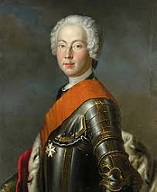





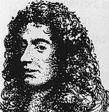



1735 There is a diphtheria epidemic in the North Am. colonies, killing thousands (ends 1737). On Apr. 13 Japanese emperor (since 1709) Nakamikado (b. 1702) abdicates in favor of his eldest son Sakuramachi (1720-50) (personal name Teruhito), who becomes Japanese emperor #115 (until June 9, 1747), going on to be said to be the reincarnation of Prince Shotoku (573-621), restoring the ricey imperial rites of rice. On May 17 margrave (since 1708) George Frederick Charles (b. 1688) dies, and his son Frederick "the Beloved" (1711-63) becomes margrave of Brandenburg-Bayreuth (until Feb. 26, 1763), going on to promote the sciences and arts while leaving govt. affairs to his secy. Philipp Elrodt, a puppet of his Prussian wife Wilhelmine, daughter of Frederick William I of Prussia and granddaughter of George I of Britain. On June 29 the Witchcraft Act of 1604 is repealed, decriminalizing witchcraft in Britain - sorry, boys, no more strip searches? In Sept. German-born New York Weekly Journal publisher John Peter Zenger (1697-1746) is tried in New York City Hall for public criticism which fosters "an ill opinion of the government"; he is defended by aged Scottish-born atty. Andrew Hamilton (1676-1741) of Philadelphia, Penn. (no relation to Alexander Hamilton); after claiming the truth of his article as his defense, and the judge ruling it unacceptable, the jury acquits him anyway in a landmark freedom of the press case in New York which emboldens the press to criticize public officials more freely. I'm T-N-T, I win the fight, I'm T-N-T, the power of love? On Oct. 8 emperor (since Dec. 27, 1722) Yongzheng (b. 1678) dies, and his son Hong Lee (Hongli) becomes Qing (Manchu) emperor #4 of China Qian Long (Qianlong) (Ch'ien Lung) (Gao Zong) (Kao-tsung) (1711-1799) (until Feb. 9, 1796), the greatest Manchu emperor of China, forcibly uniting China and establishing a cultural orthodoxy, not to mention insulting the Beatles?; Tang Ying becomes supt. of the imperial kilns at Jingdezhen, developing the technique of opaque famille rose overglaze enamels and use of red carmine derived from gold. The Turko-Persian War (begun 1734) ends; meanwhile Russia pulls out of the War of the Polish Succession and begins the Fifth Russo-Turkish War, allying with Austria (ends 1739). Don Carlos of Spain is crowned as Charles IV of the Two Sicilies, and recognized by the Treaty of Vienna of 1735. William Pitt is elected MP for Old Sarum. Missouri (Mo.) is settled at St. Genevieve. The Turnpike Trusts in Britain, originally set up in 1706 are extended this year, leading to rioting. Bishop August Gottlieb Spangenberg (1704-92) of Herrnhut, Germany founds the Moravian Church in the North Am. colony of Georgia on the estate of George Whitefield, then after they refuse to fight against the Spanish and get evicted in 1739 make like gone with the wind and move to Philadelphia, Penn. on Whitefield's sloop; meanwhile in Ga. the sale of alcoholic spirits is prohibited (until 1742), and slavery is abolished until 1749 when rice cultivation arrives; meanwhile Count Nikolaus (Nicolaus) Ludwig von Zinzendorf und Pottendorf (1700-60) attempts to stay in Saxony, being ordained as a Lutheran minister in 1734, but the orthodox Lutherans get him banished in 1736 (until 1748), causing him to travel founding new congregations in the Netherlands, England, Ireland, Germany, Estonia, Livonia, and Penn. Viscount Bolingroke gives up on getting back in power in England and returns to France, claiming retirement (until 1742). Scottish-born Presbyterian Church of Ireland revivalist William Tennent (1673-1746) sets up the Log College in Neshaminy, Penn., which turns out more of the same, incl. his son Gilbert, who becomes the leader of the New Light Schism (1741), and eventually helps raise funds for the College of New Jersey (Princeton). Jonathan Edwards discovers religious brainwashing techniques during a religious crusade in Northampton, Mass.; "Our people do not so much need to have their heads stored as to have their hearts touched." Thomas Fairfax, 6th Lord Fairfax of Cameron (1693-1782) of Yorkshire visits his giant estates in Va., comprising 25% of the colony, which he put in the charge of his cousin Sir William Fairfax; in 1747 he moves permanently to the Shenandoah Valley, and has his friend George Washington survey the area; too bad, he remains a loyalist during the Am. Rev. - a fairfax weather friend? The Jersey Devil is born in Pine Barrens, N.J. when pregnant Mother Leeds curses her 13th child. Kidderminster in Worcestershire, England on the Stour River begins manufacturing ingrain carpets, showing warp and filling on each side, which become famous; in 1749 a Brussels loom is imported, and they begin making Brussels carpets too. The Imperial Ballet School in St. Petersburg is founded. The ballad opera Flora becomes the first musical theater performed in British Am. in Charleston, S.C. The original French Coustous never got wet? Guillaume Coustou the Elder (177-1746) becomes dir. of the Academy of Painting and Sculpture in Paris, where his brother Nicolas Coustou had been rector in 1720-33; meanwhile Guillaume Coustou the Younger (1716-77) studies with his father, insuring France of a liberal supply of marble people and animals. Charles VI founds the anally-retentive (saddle, leg, and hand control only) Spanish Riding School in Lipizza (Lipica) (near Trieste), Slovenia, and begins recording the bloodlines of the Lipizzaners; he also builds the winter Riding Hall in the imperial palace in Vienna. The Boston Evening Post begins pub. Poor Richard's Almanack for 1735. Sports: The Royal Burgess Golfing Society in Edinburgh is founded. Science: On Dec. 5 28-y.-o. Swiss genius mathematician Leonhard Euler (1707-83) pub. his solution to the Basel Problem, which was first proposed in 1650 by Pietro Mengoli and baffled generations of mathematicians incl. the Bernoullis, making him an instant star; the problem asks for the infinite sum of (1/n^2), which turns out to be pi squared divided by 6. On Dec. 6 French-born English surgeon Claudius Amyand (1680-1740) performs the first successful Appendectomy on 11-y.-o. Hanvil Anderson at St. George's Hospital in London, England. Spin it round, spin it round? The Paris Academie Francaise is rocked by a controversy between supporters of Isaac Newton (1643-1727), led by Pierre de Maupertuis (1698-1759), who believe that the Earth is slightly flattened at the poles, and supporters of Jacques Cassini (1677-1756), who believe it is instead flattened at the equator. Nonfiction: The Bible is trans. into Lithuanian. Arthur Collins, Peerage of England (1709-35). Benoit de Maillet (1656-1738), Telliamed; the evolutionary hypothesis. George Hadley, Concerning the Cause of the General Trade Winds. S. Hale, Vegetable Statics; tr. into French by Comte de Buffon. Carl Linnaeus (1707-78), Systema Naturae; describes his binomial nomenclature classification system for flora, extending it to fauna in the 10th ed. (1758); in the 12th ed. (1767) he pub. a classiication of five "varieties" of the human species, possessing physiognomic characteristics "varying by culture and place", incl. Americanus (red, choleric), Europeanus (white, sanguine), Asiaticus (yellow, melancholic), Africanus (Afer) (black, phlegmatic), Monstrosus (mythologic humans) incl. Homo anthropomorpha (troglodyte, satyr, hydra, phoenix). John Oldmixon (1673-1742), History of England During the Reigns of William and Mary, Anne and George I. Voltaire (1694-1778), Siecle de Louis XIV (The Age of Louis XIV) (1735-56). John Wesley (1703-91), Journals (1735-90). Music: G.F. Handel (1685-1759), Ariodante, HWV 33 (opera) (Covent Garden Theatre, London) (Jan. 8); libretto adapted by Antonio Salvi from Ludovico Ariosto's "Orlando Furioso"; set in Scotland; stars Giovanni Carestini as Ariodante; a hit finally, getting 11 performances, and allowing Covent Garden to successfully compete against the Prince of Wales' rival Opera of the Nobility; Alcina (opera) (Apr. 16) (Covent Garden, London); based on the poem "Orlando Furioso", set in Charlemagne's day, about heroic knight Ruggiero (Giovanni Carestini), who loves Bradamante (Maria Caterina Negri), and flees with her on a hippogriff (flying horse) to an island, only to meet up with sister sorceresses Alcina (Anna Maria Strada del Po) and Morgana (Cecilia Young), who seduce every knight they can get, then turn them into stones, animals or plants after they tire of them; features dancer Marie Salle; features Tornami a Vagheggiar, Ah, Mio Cor, and Verdi Prati; a big hit, after a last performance in 1738 it costs too much for the lavish sets it is not performed again until 1928 in Leipzig. Giovanni Battista Pergolesi (1710-36), L'Olimpiade (opera) (Jan. 31) (Rome); incl. Quel Destrier Il Flaminio (opera) (Naples). Jean-Philippe Rameau (1683-1764), Les Indes Galantes (opera-ballet) (Academie Royale de Musique et Danse, Paris) (Aug. 23); incl. Ouverture, Les Sauvages (The Savages of America), Les Incas du Perou (The Incas of Peru), Le Turc Genereux, Chaconne. Plays: P.C. Nivelle de La Chaussee (1692-1754), Le Prejuge a La Mode (La Préjugé à La Mode) (The Fashionable Prejudice) ("comedie larmoyante"). Antonio Jose da Silva (1705-39), Os Encantos de Medea. Poetry: Alexander Pope (1688-1744), Prologue to the Satires; full of great quotes, incl. "I was not born for courts or great affairs;/ I pay my debts, believe, and say my pray'rs"; "Beauty that shocks you, parts that none will trust,/ Wit that can creep, and pride that licks the dust"; "To laugh were want of goodness and of grace;/ And to be grave, exceeds all pow'r of face"; "Bear, like the Turk, no brother near the throne"; An Epistle to Dr. Arbuthnot, containing the soundbyte "Who breaks a butterfly upon a wheel?" William Somerville (1675-1742), The Chace (Chase); his only hit. Poetry: Jonathan Swift (1667-1745), Cassinus and Peter: A Tragical Elegy; "Then gave him some familiar Thumps,/ A Colelge Joke to cure the Dumps." Fiction: Johnathan Swift (1667-1745), Collected Works (vols. 1-4 of 20 vols.) (1735-72). Births: Am. Rev. patriot and silversmith (Freemason) Paul Revere (d. 1818) on Jan. 1 in Boston, Mass.; educated at North Grammar School; his home, built about 1670 becomes the oldest bldg. in downtown Boston by modern times. Am. Roman Catholic Jesuit archbishop of Baltimore John Carroll (d. 1815) on Jan. 8 in Upper Marlborough, Md.; first U.S. Roman Catholic bishop (1790). British Adm. of the Fleet John Jervis, 1st Earl of Vincent (d. 1823) on Jan. 9 in Meaford Hall, Staffordshire. Austrian Field Marshal Baron Joseph (Jozsef) Alvinczi von Borberek (d. 1810) on Feb. 1 in Alvinc (Alwintz), Transylvania; an ethnic Magyar. French scientist-mathematician Alexandre-Theophile Vandermonde (d. 1796) on Feb. 28. Swedish chemist Torbern Olaf Bergman (d. 1784) on Mar. 20 in Katharineberg; first chemist to use the A, B, C notation for chemical species; sponsor of German chemist Karl Wilhelm Scheele. Am. Rev. War leader (DOI signer) Button Gwinnett (d. 1777) on Apr. 10 in Gloucestershire, England; emigrates to the U.S. in 1762. Austrian field marshal, debauchee and writer ("the Prince of Europe") Charles Joseph, 7th Prince de Ligne (d. 1814) on May 23 in Brussels, Belgium. French marshal (Freemason) Francois Christophe Kellermann (de Kellermann, 1st Duc de Valmy) (d. 1820) on May 28 in Strasbourg; born to an old Saxon family; father of Francois Etienne de Kellermann (1770-1835); grandfather of Francois Christophe Edmond de Kellermann (1802-68). Am. physician John Morgan (d. 1789) on June 10 in Philadelphia, Penn.; educated at the U. of Edinburgh, and U. of Penn. German composer Johann Christian Bach (d. 1782) on Sept. 5; youngest son of Johann Sebastian Bach (1685-1750). Scottish banker (in London) Thomas Coutts (d. 1822) on Sept. 7 in Edinburgh; husband (1815-) of Harriet Mellon (1777-1837); grandfather of Angela Burdett-Coutts (1814-1906). English scientist James Keir (d. 1820) on Sept. 20 in Stirlingshire; educated at the U. of Edinburgh. English Whig PM (1768-70) (Unitarian) Augustus FitzRoy, 3rd Duke of Grafton (d. 1811) on Sept. 28; educated at Westminster School, and Peterhouse, Cambridge U. English instrument maker Jesse Ramsden (d. 1800) on Oct. 15. U.S. Federalist pres. #2 (1797-1801) and vice-pres. #1 (1789-97) ("Father of the U.S. Navy") John Adams (d. 1826) on Oct. 30 (Oct. 19, old style) at Braintree (now Quincy), Norfolk County, Mass.; born into a family of Puritan farmers; cousin of Samuel Adams (1722-1803); the next four U.S. presidents (all) born in Mass. are born in Norfolk County (John Quincy Adams, JFK, George H.W. Bush). English abolitionist leader Granville Sharp (d. 1813) on Nov. 10 in Durham; learns to read Greek and Latin, and play two flutes simultaneously, and signs his name G#. English adm. Sir Samuel Greig (d. 1788) on Nov. 30. Italian mathematician (inventor of polar coordinates) Gregorio Fontana (d. 1803) on Dec. 7 Villa di Nogaredo; brother of Felice Fontana (1730-1805). Am. Rev. War physician-scientist-politician Hugh Williamson (d. 1819) on Dec. 7 in West Nottingham Township, Chester County, Penn.; educated at the College of Philadelphia. English sculptor Thomas Banks (d. 1805) on Dec. 29 in London. British writer-traveler Elizabeth Marsh (Crisp) (d. 1785) in Jamaica; first woman to write about the Maghreb. British adm. John MacBride (d. 1800) in Scotland. Am. Black Freemasonry founder (black) Prince Hall (d. 1807) in Bridgetown, Barbados. French essayist-agriculturist Michel Guillaume Jean De Crevecoeur (AKA J. Hector St. John) (d. 1813); in America 1754-80, 1783-90. Russian painter Dmitry Levitsky (d. 1822). Deaths: English clergyman-poet Samuel Wesley the Elder (b. 1662) on Apr. 25. Greek deacon and venacular Bible champ Seraphim (b. 1670) in Orkhotsk Prison, Siberia; dies while serving a 1732 life sentence as a spy. English historian Thomas Hearne (b. 1678). Chinese Qing emperor #5 (#3) Yongzheng (b. 1678) on Oct. 8 in Beijing. Dutch writer Justus van Effen (b. 1684) on Sept. 18 in 's-Hertogenbosch. Swedish ichthyology founder Peter Artedi (b. 1705) on Sept. 27 in Amsterdam (accidental drowning); "Here lies poor Artedi, in foreign land pyx'd/ Not a man nor a fish, but something betwixt,/ Not a man, for his life among fishes he past,/ Not a fish, for he perished by water at last." (George Bernard Shaw).




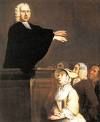

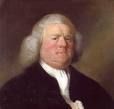
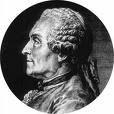

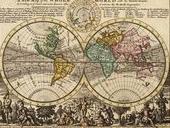
1736 The number of poor receiving public assistance in Boston, Mass. rises to 4K from 500 in 1700. On Feb. 12 Francis Stephen, Duke of Lorraine marries Maria Theresa; as a marriage condition, and to end the war between Austria and France he exchanges his Duchy of Lorraine to Poland for the Italian state of Tuscany; Spain gains Naples and Sicily, and Sardinia gains most other Italian states. On Mar. 25 (Palm Sun.) the Chickawaw Campaign of 1736 starts with the Battle of Ogoula Tchetoka NW of modern-day Tupelo, Miss., in which 130 French forces plus 350 native warriors from Upper La. attack a fortified Chickasaw village under orders of La. gov. Jean-Baptiste Le Moyne de Bienville in order to get at the Natchez Indians it is harboring, and get bloodily repulsed, with 21 French POWs taken, and 19 of them burned, most while still alive, incl. Francois-Marie Bissot, Sieur de Vincennes (b. 1700); on May 26 544 French forces plus 600 Choctaws and 45 Africans try it again in the Battle of Ackia (Long Town) S of modern-day Tupelo, Miss., with the same results; the well-armed (with British weapons) Chickasaw continue to fend off attacks for the next 20 years. In Mar. Nadir (Nader) Shah (Khan) (1688-1747), the last great Asian conqueror consolidates his power, deposes infant Abbas III, and proclaims himself shah, ending the Persian Safavid Dynasty, and founding the Afsharid Dynasty (ends 1794), moving the capital to Mashhad (Mashad) (Pers. "place of martyrdom") in Razavi Khorasan Province in E Persia 500 mi. E of Tehran, going on to extend his conquests beyond the frontiers, starting with Herat and Oman this year, and going all the way to India, while bankrupting the country with taxes and trying to convert Persia to the Sunni faith by a trick of proposing that a 5th Sunni law school called the ooh-baby-baby Ja'fari School (named after Shiite imam #6 Jafar as-Sadiq) be created to combine them; too bad, it don't push good, and when he is assassinated in 1747, it's a stillborn baby? - get ready for more sales options and a more knowledgable sales staff? In Mar. Cologne-born German adventurer Theodor Stephan Freiherr von Neuhoff (1694-1756) lands in Corsica with a bunch of Corsican rebels and exiles and help from the bey of Tunis, and is elected king Theodore I of Corsica (until 1743), attempting to free Corsica from French-Genoese control, only to flee in Nov. to seek foreign assistance, landing in Spain and Naples, then Amsterdam, where he arrested for debt, returning to Corsica in 1738, 1739, and 1743, then landing in debtors' prison in London in 1749-55, paying for his freedom by signing over his kingdom, living on the charity of Horace Walpole et al. until his 1756 death, after which is alleged son Col. Frederick (1725-97) claims to be prince of Caprera, pushing himself unsuccessfully in high circles in London and dying in poverty. On Apr. 14 the Porteous Riots rock Edinburgh after ash-hole city guard capt. John Porteous (1695-1736) hangs a smuggler hero then cuts his body down against the wishes of the mob, after which he orders his men to fire above their heads, and they accidentally shoot people in high windows, causing them to ape, after which his men shoot into the mob, killing six; Porteous is tried on July 5, found guilty of murder, and sentenced to die on Sept. 8, but the British govt. lets him appeal, causing a mob of 4K to drag him from his cell in Tolbooth Prison and lynch him on Sept. 7; Scottish poet Allan Ramsay is in the original mob. In Dec. after Thomas Cresap is arrested by Md. authorities, but Cresap's War continues. The weavers of Spitalfields Market in London riot to protest the introduction of Irish weavers, forcing the military to intervene. The colony of Pennsylvania (Penn.) forms an alliance with the New York-based Six Nations of the Iroquois after the latter conquer the aboriginal tribes of Pensylvania. Tall handsome cross-eyed Oxford-educated English Methodist preacher George Whitefield (1714-70) (pr. WHIT-field) begins preaching in England at age 22, wowing huge crowds with a booming voice that doesn't need to be raised even in front of a crowd of 30K; actor David Garrick ("the George Whitefield of the stage") claims he'd pay a thousand pounds to be able to say the word "oh" as good as him; his mere pronouncing of the word "Mesopotamia" causes women to weep?; his sermons are all based on the text "be born again" (John 3:3). Chelyabinsk in Russia on the Miass River E of the Ural Mts. is founded. Moravian settlers led by bishop Peter Boehler (Böhler) (1712-75) found Bethlehem, Nazareth, and Lititz in Penn. William Boyce (1711-79) is appointed composer to the Chapel Royal in England, writing music for church services. The weekly Virginia Gazette begins pub. (until 1780). Poor Richard's Almanack for 1736. Glass manufacture begins in Venice at Murano. India rubber (hard rubber caoutchouc) is introduced to England. Mary Lisle becomes the first female brewer in the U.S., opening the Edinburgh Brewhouse Brewery in Philly (closes 1751). Architecture: Queen's Square in Bath, England (begun 1729) is finished. In 1735-40 French architect Germain Boffrand designs the interiors of the Hotel de Soubise in Paris, pioneering the Rococo (Louis XV) style. Science: Science reaches out and touches Father, er, Mother Earth? French scientist Charles Marie de La Condamine (1701-74) leads an expedition to Ecuador-Peru to measure a degree of longitude at the equator, siting the zero degree latitude line (Middle of the World) near Quito, and discovering rubber (insert gratuitous sex joke here?); meanwhile Anders Celsius and Pierre de Maupertuis lead an expedition to Lapland to measure a degree of longitude at the North Pole, and verify Isaac Newton's prediction that the Earth is an oblate spheroid - of course, it's a woman not a man? After an epidemic of diphtheria hits Boston, Mass. in 1735-6, Scottish-born physician William Douglass (1691-1752) first describes Scarlet Fever, AKA throat plague. Swiss #1 mathematician Leonhard Euler (1707-83) solves the Konigsberg (Königsberg) Bridge Problem, and founds the study of Analytical Mechanics. English clockmaker John Harrison (1693-1776) completes the first accurate chronometer for determining longitude, making long-distance sea travel possible along with a global sea empire, and applies for the £20K Longitude Prize offered by the British govt.; too bad, they play games and never award it to him as he goes through five major versions H1-H5; in 1773 after George III personally intervenes, Parliament gives him a different monetary award. Nonfiction: Thomas Bayes (1701-61), An Introduction to the Doctrine of Fluxions, and a Defence of the Mathematicians Against the Objections of the Author of the Analyst; defends Isaac Newton against George Berkeley, getting him elected to the Royal Society in 1742. Joseph Butler (1692-1752), The Analogy of Religion, Natural and Revealed; defends Anglican Christianity against English Deism, making him a pop star. Pierre Francois Xavier de Charlevoix (1682-1761), Histoire et description générale du Japon. Leonhard Euler (1707-83), Mechanica Sive Motus Analytice Exposita. Herman Moll (1654-1732), Map of the World (posth.); shows the trade winds. Henry St. John, Viscount Bolingbroke (1678-1751), Letters on the Spirit of Patriotism, On the Idea of a Patriot King, and on the State of Parties at the Accession of King George the First. William Warburton (1698-1779), The Alliance between Church and State; or The Necessity and Equity of an Established Religion. Christian Wolff (1679-1754), Theologia Naturalis (1736-7). Music: G.F. Handel (1685-1759), Atalanta (opera) (Covent Garden Theatre, London) (May 12); libretto based on Belisario Valeriani's "La Caccia in Etolia"; composed for the marriage of George II's eldest son Prince Frederick of Wales; the debut closes with a big fireworks display; incl. the arioso Care Selve, Ombre Beate. Giovanni Battista Pergolesi (1710-36), Stabat Mater (Mass in F); the important matter of Jesus' conversation with Mother Mary on the cross; biggest musical hit of the cent.? Art: Pompeo Batoni (1708-87), Christ with Sts. Julian, Basilissa, Celsus, and Marcionilla (1736-8). William Hogarth (1697-1764), The Good Samaritan; The Pool of Bethesda; both painted on the staircase of St. Bartholomew's Hospital; The Four Times of Day. Plays: Henry Fielding (1707-54), Pasquin (satire). Carlo Goldoni (1707-93), Enrico Re di Sicilia (tragedy); Rinaldo di Montalbano (tragicomedy). George Lillo (1693-1739), Fatal Curiosity. Pierre de Marivaux (1688-1763), Le Legs. Antonio Jose da Silva (1705-39), The Labyrinth of Crete (Nov.). Voltaire (1694-1778), Mahomet the Prophet; or, Fanaticism; "But that a camel-merchant [Muhammad] should stir up insurrection in his village; that in league with some miserable followers he persuades them that he talks with the angel Gabriel; that he boasts of having been carried to heaven, where he received in part this unintelligible book, each page of which makes common sense shudder; that, to pay homage to this book, he delivers his country to iron and flame; that he cuts the throats of fathers and kidnaps daughters; that he gives to the defeated the choice of his religion or death: this is assuredly nothing any man can excuse, at least if he was not born a Turk, or if superstition has not extinguished all natural light in him." Births: Scottish engineer and steam engine inventor James Watt (d. 1819) on Jan. 19 in Greenock. Italian mathematician-astronomer Joseph-Louis Lagrange (Giuseppe Luigi Lagrangia or Lagrancia) (d. 1813) on Jan. 25 in Turin, Piedmont; emigrates to France in 1787. German Prussian Hohenzollern margrave of Brandenburg-Ansbach (1757-91) (last) Christian Frederick Charles Alexander (d. 1806) on Feb. 24 in Ansbach; son of magrave Charles William Frederick (1712-57) and Friederike Luise of Prussia, daughter of Frederick William I, and sister of Frederick II, granddaughter of George I of Britain, and niece of George II of Britain; husband of Frederica Caroline (-1791) and (1791-) Elizabeth Craven (1750-1828), daughter of the 4th earl of Berkeley, England. Am. Shakers founder Mother Ann Elizabeth Lee (d. 1784) on Feb. 29 in Manchester. English Shakespearean commentator George Steevens (Stevens) (d. 1800) on May 10 in Poplar, East London; educated at Eton College, and King's College, Cambridge U. Am. Rev. statesman-orator Patrick Henry (d. 1799) on May 29 in Studley, Hanover County, Va.; Scottish immigrant father; husband (1732-) of Sarah Winston Syme. English adm. Sir John Francis Edward Acton, 6th Baronet (d. 1811) on June 3 in Besancon, France; father of Sir Ferdinand Richard Edward Dalberg-Acton (1801-37) and Cardinal Acton (1803-47); grandfather of John Dalbert-Acton, 1st baron Acton (1834-1902). Spanish (Mexican) explorer Juan Bautista de Anza Bezerra Nieto (d. 1788) on July 6/7 in Fronteras (near Arizpe), Sonora. French astronomer-orator-politician ("the Benjamin Franklin of the French Rev.") Jean-Sylvain Bailly (d. 1793) on Sept. 15 in Paris; first simultaneous member of the French Academy of Science, Academie Francaise, and Academie des Inscriptions since Bernard le Bovier de Fontennlle; could hang-five with the leading scientists of his day, but gets caught up in French Rev. Fever, creates the French Nat. Assembly, and ends up getting guillotined. Am. Rev. leader (DOI signer) Carter Braxton (d. 1797) on Sept. 16 in Newington Plantation, King and Queen County, Va.; educated at the College of William and Mary. Scottish "Ossian" poet James Macpherson (d. 1796) on Oct. 27 in Ruthven, Inverness; educated at the U. of Edinburgh. Swiss portraitist Anton Graff (d. 1813) on Nov. 18 in Winterthur. English mathematician Edward Waring (d. 1798). Am. Rev. War soldier Maj. Gen. Daniel Morgan (d. 1802) in Hunterdon County, N.J.; of Welsh ancestry. French physicist-philosopher Charles-Augustin de Coulomb (d. 1806) in Angouleme; inventor of the torsion balance. French painter Jean-Jacques de Boissieu (d. 1810). Am. Rev. War hero David Kennison (d. 1851) in Chicago, Ill.; longest surviving partcipant in the 1773 Boston Tea Party. Deaths: English bookseller-publisher Jacob Tonson the Elder (b. 1655) on Mar. 17. English architect Nicholas Hawksmoor (b. 1661) on Mar. 25. German architect Mattheus Daniel Poppelmann (b. 1662) on Jan. 17 in Dresden. Italian Prince Eugene of Savoy (b. 1663). Swedish gen. Friherre Carl Gustaf Armfeldt (b. 1666) on Oct. 24 in Perna, Finland. English scientist Stephen Gray (b. 1666). Ottoman sultan (1703-30) Ahmed III (b. 1673) on July 1 - no more Ahmeds for you, Turkey? English publisher Barnaby Bernard Lintot (b. 1675) on Feb. 9 in Sussex. Italian architect Filippo Juvarra (b. 1678) on Jan. 31 in Madrid. British vice-adm. James Berkeley, 3rd earl of Berkeley (b. 1680) on Aug. 17 in Aubigny, France. Portuguese historian-statesman Manuel Teles da Silva, 3rd marquis of Alegrete (b. 1682) on Feb. 9. German physicist Gabriel Daniel Fahrenheit (b. 1686) on Sept. 16 in The Hague, Netherlands - reached only Fahrenheit 50? English Orientalist George Sale (b. 1697) on Nov. 13 in The Strand (fever). French-Canadian explorer Francois-Marie Bissot, sieur de Vincennes (b. 1700) on Mar. 25 near Fulton, Miss.; burned by the Chickasaws. Italian composer Giovanni Battista Pergolesi (b. 1710) on Mar. 16/17 in Puzzuoli (TB).











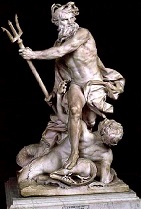
1737 On Feb. 7 Helene (Hélène) de Courtenay, Marquise de Bauffremont (1689-1768), the last female of the Courtenay line in France has her title of Princess du Sang Royal de France suppressed by the parliament of Paris. On Mar. 17 the first-ever St. Patrick's Day parade is held in Boston, Mass. by mainly Protestant Irish immigrants. In Apr. German-born English composer G.F. Handel suffers a stroke, paralyzing his right arm and messing up his eyesight, causing him to head for Aix-la-Chapelle to take hot baths; luckily, he recovers, Hallelujah. In Apr. Somerset, England-born Henry Fielding (1707-54) debuts his political satire The Historical Register for the Year 1736, which along with the anon. (Fielding?) political satire The Golden Rump, which knocks the admin. of PM (1721-42) Robert Walpole cause so much alarm among English authorities that they pass the Licensing Act of 1737, putting theatres under the direct control of the Lord Chamberlain (until 1968), ending Fielding's dramatic career; the number of London theatres is restricted; modified by the Theatres Acts of 1843 and 1934, and repealed by the Theatres Act of 1968. In May Mt. Vesuvius in Italy erupts. As Fat Albert would say, get back in the sack and hit it? On July 9 the War of the Polish Succession (begun 1733) ends when grand duke of Tuscany #7 (since Oct. 31, 1723) Gian Gastone de' Medici (b. 1671), the last of the Medicis dies, and by the terms of the 1731 Treaty of Vienna the grand duchy is given to Duke Francis III Stephen of Lorraine (later emperor Francis I) (remaining in the Lorraine family until 1859, except during the French Rev. of 1799-1814) after marrying Maria Theresa, heiress of the Austrian Hapsburg dominions; unsuccessful Polish throne claimant Stanislas Leszczynski acquires Lorraine by way of compensation (it passes to France upon his death). On July 9 George Schmidt becomes the first Protestant missionary at the South African Cape, going on to evangelize among the Khoi (until 1742). HRE Charles VI enters the Ottoman-Russian War on the Russian side. George II quarrels with his son Frederick Louis, Prince of Wales. Tsarina Anna forces the nobles of her homeland Courland (in Latvia) to accept her beau duke Ernst Johann von Biron (Biren), Duke of Courland (1690-1772) as their duke. Penn. deploys military forces against Md. Nailers from Worcester march to Birmingham to protest their beefs with iron merchants. The first copper coins in the American colonies are minted in Conn. William Penn's sons dispossess the Delawares of the Forks of Delaware by the crooked Walking Purchase (Treaty). There is an earthquake in Calcutta, India. William Byrd II (1674-1744) of Westover Plantation, Charles County, Va. founds Richmond, Va. on the James River (modern pop. 250K) on land he inherited from his daddy Col. William Byrd I (1652-1704), who came from Shadwell, London England in the late 1660s. St. Vincent de Paul (1576-1660) is canonized by Pope Clement XII. 28-y.-o. Samuel Johnson (b. 1709), former master of a school in Edial (near Lichfield, Staffordshire) he started with funds from marrying widow Mrs. Elizabeth Porter in 1735 arrives broke in London, hoping to make money via writing, and by next year is a regular contributor to Gentleman's Mag.; he is accompanied by his pupil David Garrick (b. 1717), who studies law, then sells wine, and finally becomes a stage actor; "No man but a blockhead ever wrote, except for money" (Johnson). Yellow-green 142 proof Chartreuse Elixir is first distilled from 130 plants by the cloistered Carthusian monks in Chartreuse, France (founded 1084) from an ancient ms. given to them in 1605; for beverage use, 110 proof Green Chartreuse is also sold. Poor Richard's Almanack for 1737. William Boys begins conducting the week-long Three Choirs Festivals (1737-45). Architecture: After the Berlin Fortress is demolished in 1734, the Berlin Customs Wall is built around Berlin, Prussia, with 14 gates, each named to the city to which its road leads incl. Spandauer Tor, St. Georgen Tor, Stralower Tor, Coepenicker Tor, Leipziger Tor, and Neues Tor; in addition the Spree River is blocked with the Oberbaum and Unterbaum custom gates made of heavy tree trunks covered in metal spikes that block the river at night; in 1786-1802 the wooden stockades are replaced by 4m-high stone walls; the New Gate is built in 1832, followed by the Anhalt Gate (1840), Koepenick Gate (1842), and Water Gate (1848); in 1841 the Potsdam Station for railroad traffic is built, followed by the Anhalt Station (1842), Frankfurt Station (1842), Stettin Station (1842), Hamburg Station (1846); in 1860 the Customs Wall is removed, and on Jan. 1, 1861 Berlin amalgamates its suburbs, doubling city pop. Aberdeen, Scotland-born architect James Gibbs (1682-1754) begins the round English Palladian (neoclassical)-style Radcliffe Camera (AKA Rad Cam, Radders) bldg. at Oxford U. (opened on Apr. 13, 1749), financed with £40K bequeathed by Oxford-loving royal physician John Radcliffe (1652-1714); it ends up as extra reading rooms for the Bodleian Library - check that out that secret vampire reading room? Teatro di San Carlo in Naples, Italy, founded by Charles VII of Naples opens on Nov. 4, becoming the world's largest opera house (3.3K cap.), and going on to become the oldest opera house in Europe to survive to modern times. Inventions: Jacques de Vaucanson (1709-83) of France builds the Transverse Flute Player, a lifesize automaton that plays the pipe and tabor and has a 12-song repertoire; next year he puts skin on it so it can play the flute; the first true robot?; next year he builds the Tambourine Player and the Digesting (Defecating) Duck, with 400+ moving parts, able to flap its wings and drink, eat, and shit from a hidden container (no actual digestion) using the world's first flexible rubber tube. Nonfiction: Jean-Francois Blondel (1705-74), De la Distribution des Maisons de Plaisance, et de la Decoration des Edifices in General (1837-8); big hit, with 155 engraved plates, causing him to begin teaching architecture classes in the Ecole des Arts in Paris in 1740. Cornelius van Bynkershoek (1673-1743), Quaestiones Juris Publici. Alexander Cruden, Concordance of the Holy Scriptures; becomes std. work. Ludvig Holberg (1684-1754), Description of Bergen. Ignacio de Luzan Claramunt de Suelves y Gurrea, Poetica. Lady Mary Wortley Montagu, The Nonsense of Common Sense. Johann Jacob Moser (1701-85), German Law. William Oldys (1696-1761), The British Librarian. Rene de Reaumur (1683-1757), History of the Insects. Thomas Simpson (1710-61), Treatise of Fluxions; derives Simpson's Rule for numerical approximation of definite integrals, which he gets credit for even though it was used by Galileo's student Bonaventura Cavalieri in 1639, and by Johannes Kepler. John Wesley (1703-91), Psalms and Hymns (Charleston). William Whiston (1667-1752) (tr.), The Works of Josephus. Music: G.F. Handel (1685-1759), Arminio (HWV 36) (opera) (Covent Garden Theatre, London) (Jan. 12); based on a libretto by Antonio Salvi; about German hero Arminius (Domenico Annibali), who kicked Roman butt bigtime in 9 C.E., and his wife Thusnelda (Anna Maria Strada); flops after 5 performances; Giustino (HWV 37) (opera) (Covent Garden Theatre, London) (Feb. 16); libretto adapted from Pietro Pariati's "Giustino", based on Nicolo Beregan's "Il Giustino"; stars Domenico Annibali as Giustino. Berenice, Regina d'Egitto, HWV 38 (Berenice, Queen of Egypt) (opera) (Covent Garden Theatre, London) (May 18); based on a 1709 libretto by Antonio Salvi; about Cleopatra Berenice (Anna Maria Strada), daughter of Ptolemy IX in 81 B.C.E.; flops after 4 performances, and is not restaged until 1985; incl. Si, Tra I Ceppi; Giustino (HWV 39) (opera); incl. Se Parla Nel Mio Cor. Jean-Philippe Rameau (1683-1764), Castor et Pollux (opera) (Academie Royale de Musique, Paris) (Oct. 24); a flop until he rewrites it in 1754, becoming one of his best works. Art: Lambert-Sigisbert Adam l'Aine (1700-59), The Triumph of Neptune Stilling (Calming) the Waves; placed in the Louvre, home of the French Academy, which he is elected to this year. Jean-Baptiste-Simeon Chardin (1699-1779), The Draughtsman. Louis-Francois Roubiliac (1695-1762), Handel. Plays: Henry Fielding (1707-54), The Historical Register for the Year 1736 (satire) (Little Theatre, Haymarket, London) (Mar. 21). Samuel Johnson (1709-84), Irene; based on Voltaire's 1778 play "Irene", about Sultan Mahomet II; first performed at the Theatre Royale in Drury Lane on Feb. 6, 1749, accompanied by Johnson complaining "Sir, the fellow wants me to make Mahomet run mad, that he may have an opportunity of tossing his hands and kicking his heels." Pierre de Marivaux (1688-1763), Les Fausses Confidences. Antonio Jose da Silva (1705-39), Guerras do Alecrim et Mangerona; As Variedades de Proteo (May). Poetry: Matthew Green (1696-1737), The Spleen; poetic medicine?; "I never sick by drinking grow,/ Nor keep myself a cup too low"; "I always choose the plainest food/ To mend viscidity of blood"; "Fling but a stone, the giant dies". Births: German poet-critic Heinrich Wilhelm von Gerstenberg (d. 1823) on Jan. 3 in Tondern, Schleswig; educated at the U. of Jena. French chemist-politician Louis-Bernard Guyton, Baron de Morveau (d. 1816) on Jan. 4 in Dijon; first to create systematic chemical nomenclature, incl. naming hydrogen. Am. Rev. leader and handwriting expert (known for being cocky) (Freemason) John Hancock (d. 1793) on Jan. 23 (Jan. 12 Old Style) in Braintree (modern-day Quincy), Mass.; son of Rev. John Hancock Jr. (1702-44), who baptizes John Adams; educated at Boston Latin School, and Harvard U.; one of the wealthiest men in British Am. French "Paul et Virginie" novelist-botanist Jacques-Henri Bernardin de Saint-Pierre (d. 1814) on Jan. 19 in Le Havre. Am. Rev. "Common Sense", "Rights of Man", "The Age of Reason" writer (Deist Rationalist-Freethinker) Thomas "Tom" Paine (Pain) (d. 1809) on Jan. 29 in Thetford, Norfolk, England; Quaker parents; emigrates the U.S. in 1774. Prussian field marshal (1807-) Count Friedrich Adolf von Kalckreuth (d. 1818) on Feb. 22 in Sotterhausen (near Sangerhausen). Thai Chakri king #1 (1782-1809) Rama I (Buddha Yodfa Chulaloke) (d. 1809) on Mar. 20 in Ayutthaya; part-Chinese mother. English "The History of the Decline and Fall of the Roman Empire" historian (Freemason) Edward Gibbon (d. 1794) on Apr. 27 in Putney, Surrey; educated at Magdalen College, Oxford U.; capt. in the New Hampshire Grenadiers; when his father dies in 1770, he moves to 7 Bentinck St., London, living comfortably, becoming an MP in 1774-80 - the smallest ape? His portrait bears a striking resemblance to fat pudgy-cheeked Roman emperor Nero? Am. Rev. War hero Col. Christopher Greene (d. 1781) on May 12 in Warwick, R.I. German physician (to Christian VII of Denmark) Count Johann Friedrich von Struensee (d. 1772) on Aug. 5 in Halle an der Saale. English "Castor and Pollux" #1 bust sculptor Joseph Nollekens (d. 1823) on Aug. 11 in London. French chef-pharmacist (potato advocate) Antoine-Augustin Parmentier (d. 1813) on Aug. 12 in Montdidier. Italian scientist (physiologist) Luigi Galvani (d. 1798) on Sept. 9. Am. Rev. leader (richest man in the colonies) Charles Carroll of Carrollton (d. 1832) on Sept. 19 in Annapolis, Md.; only Roman Catholic to sign the DOI, and the last surviving signer. Am. Rev. War loyalist poet-minister Jonathan Odell (d. 1818); on Sept. 25 in Newark, N.J.; educated at the College of N.J. (Princeton U.); with Joseph Stansbury (1742-1809) the most prominent loyalist poets during the Am. Rev. Am. composer-writer-politician (DOI signer) Francis Hopkinson (d. 1791) on Oct. 2 in Philadelphia, Penn.; educated at the College of Philadelphia (first graduate); studies music with James Bremner; claims to design the first U.S. flag; father of Joseph Hopkinson (1770-1842). Italian composer-harpsichordist Vincenzo Manfredini (d. 1799) on Oct. 22 in Pistoia (near Florence); son of Francesco Onofrio Manfredini (1684-1762). Am. diplomat (first U.S. diplomat) Silas Deane (d. 1789) on Dec. 24 in Groton, Conn.; educated at Yale U. Spanish dramatist-poet Nicolas Fernandez de Moratin (d. 1780) in Madrid; father of Leandro Fernandez de Moratin (1760-1828). French hostess Madame Susanne Necker (nee Curchod) (d. 1794) in Crassier, Vaud, Switzerland; daughter of the pastor; marries Jacques Necker in 1764 after Edward Gibbon tries and fails; mother of Madame de Stael (1766-1817). German writer (in England) Rudolf Erich Raspe (d. 1794). Scottish horticulturist William Forsyth (d. 1804). French surgeon Bernard Peyrilhe (d. 1804). Viennese composer Michael Haydn (d. 1806); younger brother of Franz Joseph Haydn (1732-1809). Russian adm. Count Alexey (Alexei) Grigoryevich Orlov (d. 1808); brother of Ivan Orlov (1733-91), Grigory Orlov (1734-83), Fyodor Orlov (1741-96), and Vladimir Orlov (1743-1831). U.S. postmaster gen. (1776-82) Richard Bache (d. 1811) in Settle, Yorkshire, England; emigrates to the U.S. in 1765; husband (1767-) of Sarah Franklin (1743-1808) (daughter of Benjamin Franklin); father of Richard Bache Jr. and Benjamin Franklin Bache (1769-98). Austrian gen. Baron Paul Davidovich (Pavle Davidovic) (d. 1814) in Buda. English actress Frances "Fanny" Abington (nee Barton) (d. 1815); in London; namesake of the Abington Cap. Hawaiian king (1782-1819) Kamehameha I (the Great) (d. 1819) (b. 1736?) in Kohala, Hawaii. Am. Rev. War financier (creator of the U.S. dollar sign in 1778) Oliver Pollock (d. 1823) in Coleraine, Ireland; emigrates to Penn. in 1760. Algerian Senussi Order founder (Sunni Muslim) Muhammad ibn Ali as-Senussi (d. 1859) near Mostaganem; educated at Al-Azhar U.; granfather of Idris I (1889-1983). Deaths: English historian John Strype (b. 1643) on Dec. 11. Italian violin maker Antonio Stradivari (b. 1644) on Dec. 18 in Cremona, Italy; dies after making 1,116 instruments incl. 960 violins, of which 450+ survive to modern times. Austrian Gen. Guido Starhemberg (b. 1657) on Mar. 7. French mathematician Joseph Saurin (b. 1659) on Dec. 29. Tuscan grand duke (1723-37) Gian Gastone de' Medici (b. 1671) on July 9 in Florence. English poet Elizabeth Rowe (b. 1674). English queen (wife of George II) Caroline of Ansbach (b. 1683) on Nov. 20 (complications following childbirth); asks her hubby to remarry on her deathbed, to which he replies in French "No, I will have mistresses"; buried at Westminster Abbey; Handel composes The Ways of Zion Do Mourn as her funeral anthem; she is laid in a pair of matching coffins which he joins her in 23 years later. Italian architect Alessandro Galilei (b. 1691) on Dec. 21 in Rome. Japanese emperor #114 (1709-35) Nakamikado (b. 1702) on May 10.











1738 There is a famine in France (ends 1740). There is a smallpox epidemic in S.C. Some things you just can't copy, except your own birth? Born once, die twice, born twice, die once? In spring Oxford-educated itinerant evangelist George Whitefield (1714-70) visits British Am., starting in Ga., where he converts Anglican priests John Wesley and Charles Wesley, both of whom have religious experiences on May 24; in Dec. Whitefield launches the First Great Awakening in Mass. (ends 1755), reaching 10M listeners via 18K sermons after becoming the first speaker to speak in all 13 Am. colonies; his disciple Jonathan Edwards (1703-58) stages a mini spiritual awakening in Northampton, Mass. this year and next. On Apr. 28 Pope (1730-40) Clement XII issues the bull In Eminenti condemning Freemasonry, calling the movement "unprincipled". In May George II intervenes, forcing Md. and Penn. to negotiate, ending Cresap's War (begun 1730); the permanent boundary is not fixed until the 1767 Mason-Dixon Line. On Nov. 26 the Battle of Khyber (Kheibar) Pass is a decisive V for 10K Persians under Nader Shah and Nasrollah Mirza over the Mughal Empire, whose 20K-50K soldiers are wiped out; the Persians destroy Kandahar (Qandahar) in Afghanistan and occupies Ghazna, Kabul, and Peshawar. British troops are sent to the Georgia colony to settle a border dispute with Spain; PM Robert Walpole's opposition begins attacking him over failure to avenge alleged sufferings on British seamen by Spaniards, whose garda costas (patrol ships) are vigorously defending its monopoly on trade with its Am. colonies. The Turks take Orsova, and drive imperial troops back to Belgrade. Thommo Reachea II becomes king of Cambodia for the 3rd time (until 1747). French controller-gen. of finances Jean Orry (1652-1719) devises the Corvee (Corvée) system of forced labor to construct roads, which is widely hated. New Jersey is separated from New York under its own royal gov. Lewis Morris (1726-98). French explorer Jean-Baptiste Charles Bouvet de Lozier (1705-86) begins an expedition on the ships Aigle and Marie to prove or disprove the existence of an Antarctic continent in the S Atlantic Ocean (ends 1739). Voltaire introduces Isaac Newton's ideas to France. La Condamine returns to France. Ben Franklin writes a letter to his mommy, with the soundbyteL "I would rather have it said 'He lived usefully' than 'He died rich'." The Russian Imperial Ballet of St. Petersburg (Kirov Ballet) founds its ballet school. Augustus III's tobacco-smoking daughter Maria Amalia Christina of Saxony (1724-60) marries Charles of Bourbon, king of the Two Sicilies (Charles II of Spain), and moves to Naples, where she introduces procelain production and discovers relics in her hubby's garden dug up from Mt. Vesuvius before the May 1737 eruption, and commissions Spanish Cavaliere Rocco Gioacchino de Alcubierre of the Royal Engineers to go back and dig up more, after which on Dec. 11, 1738 he unearths the Theatrum Herculanense (Theater of Herculaneum) under 65 ft. of lava; it takes 35 more years before new digs begin uncovering its sister city Pompeii. French explorer La Verendrye discovers the Hidatsa (Gross Ventre), Arikara, and Mandan "ground-house" Siouan Indians at the mouth of the Heart River on the lower Missouri River in N.D. (5 mi. W of Bismarck), the Mandan being a powerful agricultural tribe who live in stockaded villages, tattoo their faces and breasts, and are fond of elaborate ceremonies with ritual tortures; by the mid 20th cent. the Mandans are down to 300, living in Ft. Berthold Rez, N.D. - you don't like poetry? Louis XV grants Remy Martin a royal license to expand his cognac production (founded 1724), causing 1738 Accord Royal to be named. Waltham, Mass. 9 mi. W of Boston (founded 1636) is incorporated, becoming the site of the first under-one-roof cotton mill in the U.S. German Moravian colonist David Zeisberger (1721-1808) migrates to the Am. colony of Georgia, then in 1745 becomes a missionary to the Iroquois, winning them to the English side during the French and Indian War. Wistarburgh Glass Manufactory near Alloway in S N.J. is founded (until 1781), becoming the first successful glass factory and manufacturing site in the U.S. The evacuation of ancient Herculaneum begins. Poor Richard's Almanack for 1738. The bronze Ficoroni Cist, an ancient Roman jewel case with a homoerotic motif is found in Palestrina, Italy by antiquarian Francisco Ficoroni (1664-1747), and dated to the 5th to 2nd cents. B.C.E.; later narrowed down to 4th cent. B.C.E. Maj. William Horton builds the first brewery in the Am. Deep South in Jekyll Island, Ga. Architecture: After the old one burns on Dec. 24, 1734, Italian architects G.B. Sacchetti and Filippo Juavarra (1678-1736) design the new 135K sq. m Baroque-Classical Royal Palace (Palacio Real) in Madrid for Philip V (finished 1755), becoming the largest royal palace in W Europe, with 2.8K rooms; Giovanni Battista Tiepolo (1696-1770) of Venice paints the large ceiling fresco The Apotheosis of the Spanish Monarchy for the throne room in 1762. Inventions: The first Cuckoo Clocks are produced in the Black Forest district of Germany - 200 years till Shirley Temple as Heidi? Lewis Paul invents a rolling machine for making yarn. Nonfiction: Peter Artedi (1705-35), Bibliotheca Icthyologica; Philosophia Ichtyologica (posth.). Daniel Bernoulli (1700-82), Hydrodynamica; lays the basis for the Kinetic Theory of Gases, that they consist of great numbers of molecules moving in all directions, with their impact on a surface causing gas pressure, and heat simply their kinetic energy of motion; he announces Bernoulli's Law (Principle), a pressure-velocity (PV) relationship for fluids explaining the loss of vis viva in fluid flow using the idea of conservation of energy, stating that an increase in the speed of a fluid occurs simultaneously with a decrease in the fluid's pressure or potential energy, founding the field of Hydrodynamics; derives Boyle's Law by considering a gas as a collection of atoms which collide with the container wall, but everybody overlooks it until it's rediscovered in 1859 - they still teach all that in Top Gun school? Samuel Madden (1686-1765), Reflections and Resolutions Proper for the Gentlemen of Ireland; the wretched condition of the poor. Pierre de Maupertuis (1698-1759), Sur la Figure de la Terre. Lodovico Antonio Muratori, Antiquites Italicae (1738-42). Jonathan Swift (1667-1745), Polite Conversation; "A penny for your thoughts"; "Do you think I was born in a wood to be afraid of an owl?"; "The sight of you is good for sore eyes"; "I hate nobody; I am in charity with the world"; "I won't quarrel with my bread and butter"; "She's no chicken, she's on the wrong side of thirty, if she be a day"; "She looks as if butter wouldn't melt in her mouth"; "She wears her clothes, as if they were thrown on her with a pitchfork"; "Promises and pie-crust are made to be broken"; "I mean you lie - under a mistake"; "What religion is he of? Why, he is an Anythingarian"; "He was a bold man that first ate an oyster"; "You must take the will for the deed"; "She has more goodness in her little finger, than he has in his whole body"; "Lord, I wonder what fool it was that first invented kissing!"; "The best doctors in the world are Doctor Diet, Doctor Quiet, and Doctor Merryman"; "I'll give you leave to call me anything, if you don't call me 'spade'"; "She pays him in his own coin"; "May you live all the days of your life"; "I know Sir John will god, though he was sure it would rain cats and dogs"; "I thought you and he were hand-in-glove"; "Better belly burst than good liquor be lost"; "There is none so blind as they that won't see"; Christian Wolff (1679-1754), Philosophia Practica Universalis (1738-9). Music: J.S. Bach (1685-1750), Mass in B Minor (BWV 232) (full vers.); his sacred magnum opus. Carlo Goldoni (1707-93), Gustavo (opera). G.F. Handel (1685-1759), Alessandro Severo (opera) (Haymarket Theatre, London) (Feb. 25); stars Caffarelli as Alessandro; a flop; Faramondo (HWV 39) (Pharamond) (opera) (King's Theatre, London) (Jan. 3); libretto based on Apostolo Zeno's "Faramondo"; stars Caffarelli as Faramondo, king of the Franks; flops after 8 performances; Serse (HWV 40) (Xerxes) (opera) (Haymarket Theatre, London) (Apr. 15); about Xerxes I, set in Persia in 480 B.C.E.; stars Caffarelli as Serse; flops after 5 performances, but is revived in the 1980s and becomes one of his biggest hits because of its mimicry of Mozart; incl. Handel's Largo, Ombra Mai Fu (Never Has There Been A Shade) (opening aria), a love song sung by Serse to a tree. Domenico Scarlatti (1685-1757), 30 Exercises; for harpsichord; big hit throughout Europe. Art: Jean-Baptiste-Simeon Chardin (1699-1779), La Gouvernante; Woman Cleaning Turnips. Bertholet Femalle (1614-75), The Massacre of the Innocents. Louis-Francois Roubiliac (1695-1762), Alexander Pope. Plays: Olof von Dalin (1708-63), The Envious Man (tragedy); Brynilda (tragedy). Carlo Goldoni (1707-93), Il Momolo Courtesan (comedy). Dr. Samuel Johnson (1709-84), London; adaptation of Juvenal's 3rd satire; pub. anon., it is a big success, and after his identity is disclosed it gets kudos from Alexander Pope. Alexis Piron (1689-1773), La Metromanie (comedy). Antonio Jose da Silva (1705-39), Precipicio de Faetonte. Poetry: Olof von Dalin (1708-63), Aprilverk (satire). John Gay (1685-1732), Fables, Vol. 2 (posth.); vol. #1 pub. in 1727. Alexander Pope (1688-1744), Universal Prayer; "Father of all! In every age,/ In ev'ry clime ador'd,/ By saint, by savage, and by sage,/ Jehovah, Jove, or Lord!"; after this he pretty much quits writing new stuff. Novels: Pierre de Marivaux (1688-1763), Le Paysan Parvenu (unfinished); poor peasant boy Jacob de Valle leaves for Paris, fends off servant Genevieve, and makes good. Jonathan Swift (1667-1745), A Complete Collection of Genteel and Ingenious Conversations. Births: Am. Rev. War hero Ethan Allen (d. 1789) onj Jan. 21 (Jan. 10 Old Style) in Litchfield, Conn.; brother of Ira Allen (1751-1814). Irish statesman John Beresford (d. 1805) on Mar. 14. Italian criminologist Cessare Beccaria (Bonesana-Beccaria_, Marquis of Gualdrasco and Villareggio (d. 1794) on Mar. 15 in Milan; educated at the U. of Pavia. Spanish New Spain viceroy (1789-94) Juan Vicente de Guemes (Güemes), 2nd Count of Revillagigedo (Juan Vicente de Güemes Pacheco de Padilla y Horcasitas, segundo conde de Revillagigedo) (d. 1799) on Apr. 5 in Havana; son of Juan Francisco de Guemes, 1st count of Revillagigedo (1681-1766). Spanish Franciscan missionary Padre Francisco Hermenegildo Tomas Garces (Garcés) (d. 1781) on Apr. 12 in Morata de Jalon, Zaragoza Province, Aragon. Russian gen. Count Mikhail Fedotovich Kamensky (d. 1809) on May 8 (May 19 Old Style); father of Nikolai Kamensky (1776-1811) and Sergei Kamensky; great-x5-grandfather of Helen Mirren (1945-). English satirist-poet John Wolcot (Peter Pindar) (d. 1819) on May 9 in Devonshire. French physician-politician (guillotine pusher) (Freemason) Joseph-Ignace Guillotine (d. 1814) on May 28 in Saintes; educated at the Jesuit U. of Bordeaux, and teaches there before quitting to study medicine at the U. of Paris - the original Dr. Death, founder of govt.-assisted suicide? English "Mad King" (1760-1820) and Hanover king (1814-20) George III (George William Frederick) (d. 1820) on June 4 in Norfolk House, St. James's Square, London; son of Frederick Louis, prince of Wales (1707-51) and Augusta of Saxe-Gotha (1719-72); grandson of George II (1683-1760); husband (1761-) of Charlotte of Mecklenburg-Strelitz (1744-1818); father of 15 children, incl. George IV (1762-1830) and William IV (1765-1837); #3 Hanoverian monarch of Britain, and the first Hanoverian monarch to be born in England and speak English; never visits Hanover. Dutch poet-novelist Elizabeth "Betje" Wolff-Bekker (d. 1804) on July 24 in Flushing; collaborator of Aagje Deken (1741-1804). German "Ein Mann" writer Joachim Christian Nettelbeck (d. 1824) on Sept. 20 in Kolberg. Am. painter (in England) Benjamin West (d. 1820) on Oct. 10 in Springfield, Penn.; almost no schooling; co-founder of the British Royal Academy of Arts. British gov. #1 of New South Wales (1788-92) adm. Arthur Phillip (d. 1814) on Oct. 11 in London; founder of Sydney, Australia. English astronomer-composer (discoverer of Uranus and infrared radiation) Sir Frederick William (Friedrich Wilhelm) Herschel (d. 1822) on Nov. 15 in Hanover, Germany; Jewish father Isaac Hershel, Lutheran mother Anna Ilse Moritzen; emigrates to England in 1757; father of Sir John Frederick William Herschel (1792-1871). Am. Rev. War Gen. Richard Montgomery (d. 1775) on Dec. 2 in Swords County, Dublin, Ireland; serves with the British army against the French in North Am. from 1756-72, then settles in New York, and is appointed brig. gen. in the Am. Rev. army in 1775; Montgomery, Ala. is named after him. French sculptor Claude Michel (Clodion) (d. 1814) on Dec. 20 in Nancy; son of Thomas Michel and Anne Adam, sister of sculptors Lambert-Sigisbert Adam the Elder (l'Aine) (1700-59), Nicolas-Sebastian Adam the Younger (le Jeune) (1705-78), and Francois Gaspard Balthazar Adam (1710-61); student of Lambert-Sigisbert Adam. Am. Rev. War. gen. and gov. #4 of Va. (1781) (DOI signer) Thomas Nelson Jr. (d. 1789) on Dec. 26 in Yorktown, Va.; grandson of English immigrant Thomas "Scotch Tom" Nelson; educated at Eton College, and Christ's College, Cambridge U. English Yorktown-surrendering gen.-statesman Charles Cornwallis, 1st Marquess Cornwallis (d. 1805) (Earl Cornwallis) (Viscount Brome) on Dec. 31 in London; educated at Eton College, and Cambridge U.; created earl in 1762, and marquess in 1793. Portuguese Baroque-Rococo architect Manuel Caetano de Sousa (d. 1802). Am.-British painter John Singleton Copley (d. 1815) in Boston, Mass.; in England after 1775; first Am.-born painter to achieve fame in Europe. Welsh Enlightenment philosopher-minister David Williams (d. 1816) in Eglwysilan (near Caerphilly); founder of the Royal Lit. Fund (1788). English poet Mary Darwall (Whateley) (d. 1825). Deaths: Danish anatomist Caspar Bartholin the Younger (b. 1655) on June 11. French well-cloaked Duc de Roquelaure (b. 1656). German architect George Bahr (b. 1666) on Mar. 16 in Dresden. Dutch physician Hermann Boerhaave (b. 1668) on Sept. 23 in Leiden. English statesman Charles Howard, 3rd earl of Carlisle (b. 1669) on May 1. English statesman-agriculturist Charles Townshend, 2nd viscount Townshend (b. 1674) on June 21. French "Fanfare-Rondeau" composer Jean-Joseph Mouret (b. 1682) on Dec. 22 in Charenton-le-Pont. German Jewish moneylender Joseph Suss Oppenheimer (Jew Suss) (b. 1698) (hanged) - the good usurers die young?




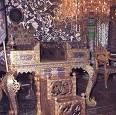

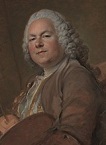
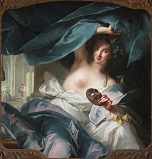
1739 500K die in Ireland this year and next because of a potato crop failure coupled with extremely cold winters - the woes of a 1-crop economy? On Jan. 1 French explorer Jean Baptiste Charles Bouvet de Lozier discovers 49 sq. km Bouvet (Liverpool) (Lindsay) Island SSW of the Cape of Good Hope (most remote island on Earth, 1K mi. from Queen Maud Land), after which his crew falls ill and they return to France; too bad, they don't accurately locate the island, or even circumnavigate it to prove it's an island, causing English capt. James Cook to try to find it in 1772, and when he gives up it takes until 1808, when Capt. James Lindsay of the English Enderby Co. whaler Snow Swan spots it and fixes its position, after which on Dec. 10, 1825 Capt. Norris of the Enderby Co. whalers Sprightly and Lovely lands on it and names it Liverpool Island; the first party to stay on the island is a Norwegian expedition led by Lars Christensen in 1927, who claims it for Norway; on Sept. 22, 1979 the Vela Incident sees a satellite record a double flash of light (nuke or meteor) between the island and Prince Edward Islands. In Jan. the Methodists hold a conference in England to formalize Methodism. On Feb. 13 the Mughals under emperor (since 1719) Mohammed Shah are decisively defeated by the Persians under Nadir Shah at the Battle of Karnal 68 mi. N of Delhi; on Mar. 11 the Persians occupy Delhi and massacre 30K-110K, causing Mohammed Shah to beg for mercy and hand over the keys to the royal treasury, after which strutting Nadir Shah leaves on May 5 with plunder incl. the totally tacky Peacock Throne, and the Koh-i-Noor (Pers. "mountain of light") Diamond, stopping taxation in Persia for three years after he returns - stick a fork in the Mughal Empire? Three separate violent uprisings by black slaves attempting to escape to Fla. occur in South Carolina; on Sept. 9 the Stono Uprising (20 mi. W of Charleston) kills 30 whites, after which enraged planters take the slaves participating in it and "Cutt off their heads and set them up at every Mile Post", killing 44. On Sept. 18 the Fourth Russo-Turkish War (begun 1735) ends when HRE Charles VI signs the separate Treaty of Belgrade as the Turks approach Belgrade, ceding N Serbia to Turkey. In Sept. King George II integrates the Scottish Highland Black Watch into the British army; they are officially designated the 42nd (Highland) Regiment in 1751, and Royal Highlanders in 1767 after service in North Am. In the fall George Whitefield arrives in Philadelphia and preaches to record crowds of 6K, causing Benjamin Franklin to empty his pockets into his collection plate and become friends with him, then build a new bldg. just to contain his audience, which later becomes the U. of Penn.; Whitefield then goes to New England, where he releases "Gales of Heavenly Wind" to the crowds - in Boston, by any chance? On Oct. 17 the Foundling Hospital is founded in London by Capt. Thomas Coram (1668-1751) to take care of all those homeless abandoned kids. Spanish depredations on our estates, persons, and ears, oh my? If it had only been in 1738 it would have been the Take a Muff Year? On Oct. 22 Britain declares war on Spain after PM Robert Walpole's jingoistic opposition's star witness, Welsh trader Capt. Robert Jenkins (1700-?) tells Parliament how the *!?*! Spanish had cut off his ear in 1731 while searching his ship for contraband, with the soundbyte: "I recommended my soul to God and my cause to my country" as he shows it to them in a box, causing Robert Walpole to half-heartedly declare the War of Jenkins' Ear (ends Oct. 18, 1748); in actuality it had been cut off by a pirate, who was punished by the Spanish; on Nov. 22 the English capture the silver-exporting town of Puerto (Porto) Bello in Panama; meanwhile Ga. and S.C. colonists fight Spaniards. Ecuador becomes a part of New Granada. A tax revolt of 84K farmers takes place in the Japanese province of Iwaki. Christina, Del. (founded 1638) is renamed Wilmington in honor of the earl of Wilmington. The first wild red rose-like Camellias (shrubs of the Tea family) arrive in Europe from the Far East. Poor Richard's Almanack for 1739. Anne Robert Jacques Turgot finishes his draft of a Plan of Paris. The first Bible trans. in Estonian is pub. Architecture: The Karlkirche in Vienna (begun 1716) is finished. George Dance begins the Mansion House in London (finished 1752). The twin towers of Westminster Abbey are completed. Inventions: Leonhard Euler of Switzerland invents the Tonnetz (Ger. "tone network") to show tonal pitch space in 2 dims. Plunket Fleeson of Philadelphia, Penn. invents Wallpaper, stamping designs on paper with woodblocks, painting them in by hand, then advertising "paper hangings" in the Penn. Gazette - plunket and fleece 'em? Nonfiction: Anon., Standard Histories (24 Dynasties) (1739-46); another little Qing Dynasty production. Philippe Buache, Map of the World; used to bolster claims of a lost civilization in Antarctica. J.F. Gronovius, Flora Virginica. David Hume (1711-76), A Treatise of Human Nature (2 vols.) (1739-40); his magnum opous, claiming that all contents of mind are solely built from sense experiences, pioneering Logical Positivism (Empiricism); ignored by the public, causing him to call it "dead-born", until Immanuel Kant credits him with awakening him from "dogmatic slumbers" about 1770; "There is more to be learned from each page of David Hume than from the collected philosophical works of Hegel, Herbart and Schleiermacher taken together" (Arthur Schopenhauer). Crown Prince Frederick of Prussia (Frederick the Great) (1712-86) Anti-Machiavell. Elizabeth Justice, A Voyage to Russia; the first pub. travel account by an Englishwoman. William Law (1686-1761), The Grounds and Reasons of Christian Regeneration, or the New Birth. Johann Mattheson, Der Vollkommene Kapellmeister; treatise on conducting. Joe Miller (1684-1738) Joe Miller's Jests, or the Wit's Vade Mecum (posth.); 247 jests allegedly by a London Drury Lane stage comedian; ghostwritten by John Mottley. John Oldmixon (1673-1742), History of England During the Reigns of Henry VIII, Edward VI, Mary and Elizabeth. John Winthrop IV (1714-79), Notes on Sunspots. Music: Francisco Almeida, La Spinalba. G.F. Handel (1685-1759), Giove in Argo (HWV A14) (Jupiter in Argos) (opera) (King's Theatre, London) (May 1); libretto by Lucchini; stars Gustavus Waltz as Jupiter; flops after 2 performances; Saul (HWV 53) (oratorio) (King's Theatre, London); libretto by Charles Jennens (1700-73); Israel in Egypt (HWV 54) (oratorio) (King's Theatre, London); libretto by Charles Jennens; Ode for St. Cecilia's Day (HWV 56) (The Trumpet's Loud Clangor). Jean-Philippe Rameau (1683-1764), Les Fetes d'Hebe (Les Fêtes d'Hébé), ou Les Talents Lyriques (The Festivities of Hebe, or The Lyric Talents) (opera) (Paris Opera) (May 21); libretto by Antoine Gautier de Montdorge (1707-68); incl. Ouverture, Volons sur les Bords de la Seine, Gavottes, Accourez, Riante Jeunesse, Air gai pour Zephyr et les Graces; Dardanus (opera) (Academie de Musique, Paris) (Nov. 19) (26 perf.); libretto by Charles-Antoine Leclerc de la Bruere; after the sea monster scene is criticized, it is rev. in 1744 and 1760; incl. Ouverture, Tambourins. Domenico Scarlatti (1685-1757), Cat Fugue in G minor. Art: Francois Boucher (1703-70), The Breakfast (Morning Coffee). Jean-Baptiste-Simeon Chardin (1699-1779), Return from Market; Saying Grace. Jean-Marc Nattier (1685-1766), Thalia, Muse of Comedy. Poetry: Peter Dass (1647-1708), Nordlands Trompet (The Trumpet of Nordland) (posth.); his most famous poem. Jonathan Swift (1667-1745), Verses on the Death of Doctor Swift. Births: Scottish physicist (inventor of the siren) John Robison (d. 1805) on Feb. 4 in Boghall, Stirlingshire; educated at the U. of Glasgow. German poet-musician-composer-journalist (alcoholic) Christian Friedrich Daniel Schubart (d. 1791) on Mar. 24 in Obersontheim, Swabia; educated at the U. of Erlangen (when not boozed-out?). English civil engineer Capt. Elias Durnford (d. 1794) on June 13 in Ringwood, Hampshire. U.S. Dem.-Repub. vice-pres. #4 (twice) (1805-13) and N.Y. gov. #1 (1777-95) and #3 (1801-4) George Clinton (d. 1812) on July 26 in in Little Britain, Ulster County, N.Y.; son of Irish immigrants; brother of Gen. James Clinton (1733-1813); uncle of DeWitt Clinton (1769-1828). British lt. col. Archibald Campbell (d. 1791) on Aug. 24 in Argyllshire, Scotland. Am. S.C. gov. #1 and #3 (1776-8), Supreme Court justice #2 (1790-1), and chief justice #2 (1795) John Rutledge (d. 1800) on Sept. 17 near Charleston, S.C..; Scots-Irish immigrant father, English descent mother; brother of Edward Rutledge (1849-1800); educated at Middle Temple, London. Russian field marshal and statesman Prince Grigori Alexandrovich Potemkin (Potemkin-Tavricheski) (d. 1791) on Oct. 11 (Sept. 30 Old Style) in Khizovo (Khizov), Belarus; favorite of Catherine II the Great. Austrian composer-violinist August Karl (Carl) Ditters von Dittersdorf (d. 1799) on Nov. 2 in Laimmgrube (modern-day Mariahilf), Vienna. French playwright-critic Jean-Francois de La Harpe (Delharpe) (d. 1803) on Nov. 20 in Paris. French-Am. statesman Pierre Samuel du Pont de Nemours (d. 1817) on Dec. 14 in Paris; emigrates to the U.S. in 1799; changes "Dupont" to "du Pont" and adds the "de Nemours" because there are so many other Duponts in France; disciple of physiocrat economist Francois Quesnay; father of Victor Marie du Pont (1767-1827) and Eleuthere Irenee du Pont (1711-1834). English cartographer-engraver John Spilsbury (d. 1769). Am. diplomat William Lee (d. 1795) in Stratford Hall Planation, Westmoreland County, Va.; son of Thomas Lee (1690-1750) and Hannah Harrison Ludwell (1701-50); brother of Arthur Lee (1740-92), Francis Lightfoot Lee (1734-97), and Richard Henry Lee (1732-94). French neoclassical Arc de Trimphe architect Jean Francois Therese Chalgrin (d. 1811). English naturalist William Bartram (d. 1823). Deaths: German opera composer Reinhard Keiser (b. 1674) on Sept. 12 in Hamburg. Am. Yale College founder Jeremiah Dummer (b. 1681) on May 19 in Essex, England; dies unmarried - dummer or smarter? English silk machine inventor Sir Thomas Lombe (b. 1685) on Jan. 3. German painter-architect Cosmas Damian Asam (b. 1686) on May 10 in Munich. Italian composer Benedetto Marcello (b. 1686). English dramatist George Lillo (b. 1693) on Sept. 4. French chemist Charles Francois de Cisternay Du Fay (b. 1698) on July 16 in Paris (smallpox). Brazilian-born Portuguese dramatist Antonio Jose da Silva (b. 1705) on Oct. 18; executed by the Inquisition. English highwayman Dick Turpin (b. 1706).










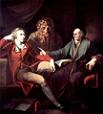







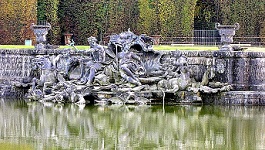
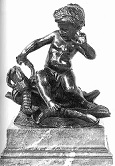
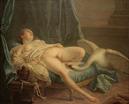



1740 Pop. of the Am. colonies: 900K. In 1740-1 (Year of Slaughter) extreme winters and bad potato and grain harvests cause widespread famine in Ireland, killing 300K-480K out of 2.4M (13%-20%); too bad, the Irish only become more reliant on potatoes, setting themselves up for regular famines? On Jan. 1 English clergyman John Wesley establishes the Covenant Renewal Service, launching the tradition of New Year's resolutions? In Jan. Gen. James Oglethorpe of Georgia invades Spanish-held Florida (Fla.), captures Ft. San Francisco de Pupo and Ft. Picolata on the San Juan River, then sieges St. Augustine in May-July. On Feb. 6 Pope (since 1730) Clement XII (b. 1652) dies, and on Aug. 17 Prospero Lorenzo Lambertini is elected Pope (#247) Benedict XIV (1675-1758), becoming the greatest scholar among the popes. On May 31 Hohenzollern Prussian king (since 1713) Frederick William I (b. 1688) dies, and his son Frederick II (the Great) (1712-86) becomes king #3 of Prussia (until Aug. 17, 1786), becoming a student of Macchiavelli, creating a strong army, and trying to duplicate Versailles at Potsdam (Sans Souci Park, New Palace, Orangery, Marble Palace, etc.), attracting Voltaire, La Mettrie, Euler, and other intellectuals; he introduces freedom of press and worship in Prussia; a Francophile who prefers French to German, he creates the Pour le Merite (Mérite) (AKA the Blue Max) as the highest German award for bravery; he is an avid flutist and composer, and one of the first art patrons to recognize the virtues of the pianoforte; a dead spider in his drink saves him from poisoning?; he makes his troops wear dark green uniforms of coarse cloth and put buttons on the top side of military sleeves to keep them from wiping their faces and soiling them; he orders soldiers to shave their faces and heads so that the enemy can't grab their hair and cut off their heads; the goose-step (Stechstritt) (Ger. "piercing step") is adopted. In Sept. British Adm. Sir George Anson, 1st Baron Anson (1697-1762) sets out on a round-the-world voyage (ends 1744) after starting out with seven vessels and preying on Spanish colonies and commerce during the War of Jenkins' Ear. I just met a girl named Maria? On Oct. 20 Austrian HRE (since 1711) Charles VI (b. 1685) dies unexpectedly after eating spoiled (Death Cap?) mushrooms, leaving no male heirs, only daughters Maria Theresa (1717-80) and Maria Anna Eleanor Wilhelmina Josepha (1718-44), who marries Charles Alexander Emanuel of Lorraine (1712-80) on Jan. 7, 1744, goes to the Austrian Netherlands as govs., then dies in childbirth on Dec. 16, leaving Maria Theresa as the Great White Hope; since he is the last male in the Hapsburg line, and money is not one to choose, and no you can't take it, no you can't take it away from me, his daughter Archduchess Maria Theresa (1717-80) becomes the first woman to inherit the lands of the hog-lipped Austrian Hapsburgs (backed by the Salic Law-bucking Pragmatic Sanction of 1713), and she takes the titles of queen of Hungary, queen of Bohemia, and archduchess of Austria, and goes in search of an emperor (being a squat-to-pee she couldn't have the title of empress without an emperor hubby?), going on to pursue a liberal policy, improve the lot of the serfs, and pump up the educational system; too bad, the idea of a female ruler doesn't go over well in Europe, and the War of the Austrian Succession begins (ends 1748) after Bavarian elector Charles Albert of Bavaria lays claim to Austria and Frederick II lays claim to Silesia, starting the First Silesian War (ends 1742), invading Silesia on Dec. 16; France seeks to ally with Prussia to help undress, er, dismember Austria; English public opinion is in favor of siding with Austria, but George II fears an attack upon his beloved Hanover, so he declares neutrality for a year. In Oct. unpopular Tsarina (since 1730) Anna Ivanovna (b. 1793) dies after naming 8-week-old infant Ivan VI (1740-64) (grandson of her sister and Ivan V) as Russian Romanov tsar #9 (until 1741), with her favorite Ernst Johann von Biron (Biren), Duke of Courland (1690-1772) as regent (until 1741), along with his unpopular mother Anna Leopoldovna (1718-46). Nadir Shah of Persia attacks the Uzbeks, invades Bukhara and Khiva, and annexes the lands up to the Oxus River; meanwhile after rumors of his death in India reach home, his son Reza-qoli Mirza orders former shahs Tahmasp II and Abbas III murdered to prevent a Safavid coup. A coalition of Arab tribes led by Ahmad bin Said al-Busaidi (1710-783), leader of a Yemeni tribe drives out the Ottomans and founds the Sultanate of Oman, which continues until modern times (ends ?). The Piman-speaking Yaqui Tribe of the Yaqui River Valley in Mexico begins a revolt against the Mexican govt. (ends 1741). Dossou Agadja (ruled since 1708) dies, and his son Tegbessou (Tegbesu) (Bossa Ahadee) (-1774) becomes king #6 of Dahomey (until 1774), going on to equip his army with blunderbuses and make £250K a year selling his fellow Africans into slavery by 1750. And Mingo is his name-o? By this year the Mohawks control the land W of the Hudson River around Albany, and the Mohicans the land to the E of it; the Iroquois-related Senecas and Cayugas begin migrating from New England to the S shores of Lake Erie, where they become known as Mingos; the Russians begin trading on the British Columbia coast. Run, niggah, run? S.C. passes a law making it legal to kill runaway slaves after 50 black slaves are hanged in Charleston, accused of planning another revolt; meanwhile in this decade Eliza Lucas Pinckney (1722-93), daughter of the gov. of Antigua founds the S.C. indigo industry on her father's plantation, becoming the first important Am. agriculturist; she later marries well-connected Charles Pinckney (-1758), producing a mini-dynasty of DOI signers and diplomats, and contributing to the golden age of Lily White Charleston - South Carolina white $ = indigo + rice + black muscle? There is a smallpox epidemic in Berlin. The last trial of an animal for sorcery is held in France, and the guilty cow is hanged by the neck - after his lawyers milk him for appeals? After refusing to fight against the Spanish and getting evicted from Ga. last year, Nazareth, Penn. in EC Penn. is founded by George Whitefield for German Protestant Moravian Brethren immigrants, complete with the Barony of Nazareth, a school for black children too bad, after arguing with them over predestination, Whitefield kicks the Moravians out, but falls into financial difficulties and sells it to them next July 16. In this decade the Old Lights and New Lights split over the emotionalism of the Great Awakening rivals, with 200+ congregations splitting to found their own New Light churches; in 1741 the Presbyterian New Lights split, founding their own colleges incl. Nassau Hall in Princeton, N.J. In this decade Murfree's Landing in N.C. is founded by William Murfree, growing into the town of Murfreesboro. In this decade the foul-smelling fast-growing deciduous Tree of Heaven (Ailanthus altissima) is imported from China to Europe, reaching the U.S. in 1784, becoming a pest. In this decade the Mariinsky Ballet (originally the Imperial Russian Ballet in St. Petersburg, Russia; during the Soviet era it becomes the Kirov Ballet. Late in this decade in response to John Henry Newman's Oxford Movement of 1833, the (Victorian) (Neo-) (Jigsaw) (Collegiate) Gothic Revival Architecture movement begins in England, attempting to recapture the alleged religious perfection of the Middle Ages, becoming dominant in the Victorian era, with bldgs. featuring finials, scalloping, lancet windows, decorative patterns, hood mouldings, and label stops; top architects incl. Thomas Rickman (1776-1841), Augustus Welby Northmore Pugin (1812-52) and his sons Edward Welby Pugin (1834-75) and Peter Paul Pugin (1851-1904), William Butterfield (1814-1900), Alfred Waterhouse (1830-1905), and George Edmund Street (1824-81). Poor Richard's Almanack for 1740. The Classic Period in Western Music begins (ends 1810). Frederick II the Great founds the Berlin Academy of Science. German organ builder John Snetzler moves to England. Franz Josef Haydn enters the court chapel in Vienna as a choirboy. Domenico Scarlatti goes to London and Dublin. German lit. critic Johann Christoph Gottsched (1700-66) of Leipzig U. gets into a controversy with Swiss writers Johann Jakob Bodmer and Johann Jakob Breitinger of Zurich, with Gottsched claiming that lit. should be subject to the laws of French classicism, while they tell him that artists are subject to no rules; by the time he becomes an old fart in the next decade, Gottsched loses and is considered a joke? Dublin, Ireland-born Margaret "Peg" Woffington (1720-60) makes her stage debut in Covent Garden, London as Sir Harry Wildair in George Farquhar's "The Constant Couple", and goes on to star there and at Drury Lane, specializing in female roles requiring male clothing, becoming the mistress and co-star of David Garrick. Joseph Butler (1692-1752), bishop of Bristol since 1738 becomes dean of St. Paul's (until 1750); a closet kind of guy, he was clerk of Queen Caroline's closet in 1736-7 and goes on to become clerk of King George II's closet from 1746-50 - du, du hast, du hast mich? The English Parliament introduces an act "to restrain and to prevent the excessive increase in horse racing"; it is largely ignored. Architecture: Westminster Bridge in Westminster, London is built in this decade, adding an alternative to the London Bridge for foot traffic crossing the Thames River. The Dickinson Mansion on Kitts Hummock Rd. in Dover, Del. is built by the father of Am. founding father John Dickinson. Inventions: Thomas Cole of England invents a sea quadrant. In this decade Benjamin Huntsman (1704-76) of England improves the crucible process for steel smelting. Science: Hold onto your bonnet, boys? Swiss botanist Charles Bonnet (1720-93) pub. his Dissertation on Aphids, describing parthenogenetic reproduction for the first time, winning him the honor of corresponding member of the French Academy of Science. And I owe it all to the Bissel Flipit? Emilie Du Chatelet (Gabrielle Émilie Le Tonnelier de Breteuil, Marquise Du Châtelet) (1706-49), a student of Pierre de Maupertuis, who attracted Voltaire to her scientific circle then became lovers and shacked up with him in her cozy chalet pub. a seminal paper in Institutes of Physics, based on experiments of Dutch scientist Willem Jacob 's Gravesande (1688-1742), backing up Gottfried Wilham von Leibniz' vis viva theory (energy is mass times speed squared, not mass times speed as Isaac Newton claims); being a woman, it is not accepted for a cent., and meanwhile she dies in 1749 at age 43 (15 years after hooking up with Volty) of an embolism 6 mo. after giving birth to a 4th child; "A great man whose only fault is being a woman." (Voltaire) French scientist Charles Marie de La Condamine (1701-74) discovers Curare. French military physician Pierre-Jean du Monchaux pub. the first known report of a Near-Death Experience (NDE) in Paris, attributing it to an increase in blood flow to the brain. Nonfiction: Johann Jakob Bodmer (1698-1783), Von dem Wunderbaren in der Poesie. Louis Castel, Optique des Couleurs. Colley Cibber (1671-1757), An Apology for the Life of Mr. Colley Cibber, Comedian; an autobio. combined with a defense against critics esp. Alexander Pope, becoming a hit and going through several eds.; "Happy in his own good opinion, the best of all others; teeming with animal spirits, and uniting the self-sufficiency of youth with the garrulity of age." (William Hazlitt) Ludovico Antonio Muratori (1672-1750), The Muratorian Fragment; from a ms. codex of 76 11 in. x 7. in. parchment leaves he discovered in the Ambrosian Library, produced in the Bobbio Monastery near Piacenza in N Italy in the 8th cent., then moved to the Ambrosian in the early 17th cent.; 85 lines of leaves 10-11 is the celebrated fragment, containing the oldest canon of the Christian Greek scriptures, later dated to 170-200 C.E., about the time of Rome-based Christian writer Hippolytus (170-235). Isaac Newton (1643-1727), The Method of Fluxions; tr. into French by Comte de Buffon. Louis de Rouvroy, Duc de Saint-Simon (1675-1755), Memoires (1740-52). J.A. Scheibe (1708-76), Der Critische Musicus; against J.S. Bach. Thomas Simpson (1710-61), The Nature and Laws of Chance. William Stukeley (1687-1765), Stonehenge; links it to the Druids, helping to make them cool again; attempts to date it, coming up with 460 B.C.E., fostering a renewal of Celticism. Christian Wolff (1679-1754), Jus Naturae and Jus Gentium (1740-9). Music: Thomas Augustine Arne, Alfred (opera) (Berlin); about King Alfred of England; contains the melody for Rule, Britannia to celebrate the accession of George I. Carlo Goldoni (1707-93), Oronte, Re de' Sciti (opera); Statira (opera). G.F. Handel (1685-1759), Imeneo (HWV 41) (Hymen) (opera) (Lincoln's Inn Fields, London) (Nov. 22); libretto adapted from Silvio Stamiglia's "Imeneo"; stars William Savage as Imeneo. Art: Lambert-Sigisbert Adam (1700-59), The Triumph of Neptune and Amphitrite (sculpture); later (1740) cast in lead for the central fountain in the Bassin de Neptune in Versailles, establishing his rep. and insuring his income; Child Being Pinched by a Lobster. Francois Boucher (1703-70), The Triumph of Venus; Vertumnus and Pomona (1740-5); Cupids in Conspiracy; Music and Dance; Landscape Near Beauvais; Head of a Young Girl; Leda and the Swan - take a whiff of my copulins? Canaletto (1697-1768), Return of the Bucintoro. Jean-Baptiste-Simeon Chardin (1699-1779), Saying Grace; Le Benedicite. Guillaume Coustou the Elder (1677-1746), Horse Tamer (1740-5); at Marly le Roi. William Hogarth (1697-1764), The Shrimp Girl; Captain Coram. Peter Scheemakers (1691-1781), William Shakespeare (statue) (Westminster Abbey). Plays: David Garrick (1717-79), Lethe; or, Aesop in the Shade (first play) (Theatre Royal, Drury Lane, London). Johann Christoph Gottsched (1700-66), Deutsche Schaubuhne (6 vols.) (1740-5); translations of French plays to German. Novels: Samuel Richardson (1689-1761), Pamela; Or, Virtue Rewarded; 15-y.-o. Pamela Andrews loses her mother, and is sexually harassed by landlord Mr. B., who first tries to seduce her, then rape her, and finally proposes honorable marriage; a bestseller. Births: Swedish "Songs of Fredman", "Epistles of Fredman" lyric poet, cittern player, and composer Carl Michael (Karl Mikael) Bellmann (d. 1795) on Feb. 4 in Stockholm; son of a prof. at the U. of Uppsala. Italian printer and type designer Giambattista Bodoni (d. 1813) on Feb. 16 in Saluzzo, Piedmont; manager of a printing house in the duchy of Parma by appointment of Duke Don Ferdinand; designer of Bodoni Book Type, the first modern Roman-style type face. Swiss Alpine traveler and scientist ("Founder of Alpinism") Horace-Benedict de Saussure (d. 1799) on Feb. 17 in Conches (near Geneva); father of Nicolas de Saussure (1767-1845). Am. Rev. financier (Jewish) ("Financial Hero of the Am. Rev.") Haym (Chaim) Salomon (Solomon) (d. 1785) on Apr. 7 in Leszno (Lissa), Poland; emigrates to the U.S. in 1772. French Bastille gov. (1776-89) Bernard-Rene (Bernard-René) Jourdan, Marquis de Launay (b. 1789) on Apr. 8/9 in Paris; born in the Bastille, where his father is gov. Am. statesman-atty. Elias Boudinot Jr. (d. 1821) on May 2 in Philadelphia, Penn. Russian Gen. (Lutheran) (Freemason)) Ivan Ivanovich Michelson (Johann von Michelsohnen) (d. 1807) on May 3 in Revel, Estonia; noble parents. Italian composer Giovanni Paisiello (Paesiello) (d. 1816) on May 10 in Taranto; educated in Naples. Am. loyalist lawyer Daniel Leonard (d. 1829) (AKA Massachusettensis) on May 18 in Norton, Mass.; educated at Harvard U. French "Justine", "The 120 Days of Sodom" novelist-porno writer ("Father of Sadism") Donatien Alphonse Francois, Marquis de Sade (d. 1814) on June 2 in Conde Palace, Paris; father Jean-Baptiste Francois Joseph de Sade is cousin to the Princess of Conde; spends 32 years in prison, incl. 10 years in the Bastille and 13 years in Charenton Asylum. English "Inkle and Yarico" composer-organist Samuel Arnold (d. 1802) on Aug. 10 in London; son of Thomas Arnold and Princess Amelia. German "Death and the Maiden" poet Matthias Claudius (d. 1815) (AKA Asmus) on Aug. 15 in Reinfeld (near Lubeck), Holstein; not to be confused with Friedrich Matthias Claudius (1822-69). Russian tsar (1740-1) Ivan VI Antonovich (d. 1764) on Aug. 23 (Aug. 12 Old Style); son of Anna Leopoldovna (1718-46); grandson of Ivan V (1666-96). Am. turtle (submarine) inventor David Bushnell (d. 1824) on Aug. 30 near Saybrook, Conn.; educated at Yale U. French pastor-philanthropist Jean-Frederic Oberlin (d. 1826) on Aug. 31 in Strasbourg, France. English Radical political reformer ("the Father of Reform") Maj. John Cartwright (d. 1824) on Sept. 17 in Marnham, Bassetlaw, Nottinghamshire; brother of inventor Edmund Cartwright (1743-1823). Japanese empress #117 (1762-71) Go-Sakuramachi (Toshiko) (d. 1813) on Sept. 23; 2nd daughter of Sakuramachi (1720-50); brother of Momozono (1741-62). Scottish biographer-atty. James Boswell (of Affleck) (d. 1795) on Oct. 29 in Edinburgh; descended from the Stuart kings. Am. Rev. leader-jurist (DOI signer) William Paca (d. 1799) on Oct. 31 near Abingdon, Md. English "Rock of Ages" Anglican clergyman-hymnodist (Calvinist) Augustus Montague Toplady (d. 1778) on Nov. 4 in Farnham, Surrey; Irish father; educated at Trinity College, Dublin. English sculptor John Bacon Sr. (d. 1799) on Nov. 24 in Southwark; father of John Bacon Jr. (1777-1859). Scottish encyclopedist William Smellie (d. 1795) in the Pleasance, Edinburgh; friend of Robert Burns. Am. Rev. War. maj. gen. and jurist John Sullivan (d. 1795) in Somersworth, N.H.; Irish immigrant parents; brother of James Sullivan (1744-1808). English steel puddling process inventor Henry Cort (d. 1800). French balloonist Joseph Michel Montgolfier (d. 1810) in Annonay (near Lyons); brother of Jacques Etienne Montgolfier (1745-99); son of a paper manufacturer; co-inventor of the first practical hot air balloon (paper filled with smoke). English "The Effects of Civilization" Ricardian socialist physician-writer Charles Hall (d. 1825); educated at the U. of Leiden. Am. celeb Elizabeth Cary, Lady Amherst of Holmesdale (d. 1830); daughter of Lt.-Gen. Hon. George Cary and Isabella Ingram; wife (1767-) of Field Marshal Jeffrey Amherst (1716-97). Deaths: Italian violin maker Girolamo Amati (b. 1649) on Feb. 21 in Cremona. Swedish scientist-explorer Olof Rudbeck the Younger (b. 1660). Austrian portrait painter Johann Kupetzky (b. 1667) on July 16 in Nuremberg, Germany. French-born English surgeon Claudius Amyand (b. 1680) on July 6 in London; dies from a fall in Greenwich Park. English lexicographer Ephraim Chambers (b. 1680) on May 15 in London. French Camisard leader Jean Cavalier (b. 1681) on May 18 in Chelsea, England. Russian tsarina Anna Ivanovna (b. 1693) in Oct.




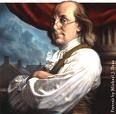




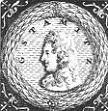


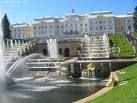
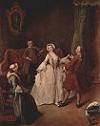
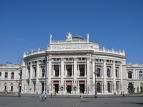
1741 Famine still grips Ireland. In Mar. the Prussian army under gen. Leopold II Maximilian, Prince of Anhalt-Dessau (1700-51) (son of the Alte Dessauer) captures Glogow (Glogów) in Poland in a night attack, after which the Prussians change the name to Greater Glogau. On Apr. 10 the Prussians under Frederick II the Great defeat the Austrians at the Battle of Mollwitz and conquer Silesia, capturing the cities of Brieg, Neisse, Glatz, and Olmutz; in July Frederick II allies Prussia and Charles VII Albert (who claims the German Hapsburg territories after the death of Charles VI last year) allies Bavaria with France and Spain in the secret Treaty of Nymphenburg near Munich, Bavaria; nympho Maria Theresa arranges a truce mediated by England. On hot-hot-hot July 8 the Great Awakening reaches a peak as Jonathan Edwards (1703-58) delivers his Sinners in the Hands of an Angry God speech in Enfield, Mass., featuring lurid word pictures of Da Judge Bible God Jehovah, who "holds you over the pit of Hell, much as one holds a spider, or some loathsome insect, over the fire, abhors you, and is dreadfully provoked... He looks upon you as worthy of nothing else, but to be cast into the fire"; the Great Awakening splits New England Puritanism into the "Old Lights" and the "New Lights", who go over to the Baptists, Presbyterians, or Methodists; the Am. colonies are prepared for rev. by the Great Awakening? On July 17 Oxford U. dumps its policy of granting bachelor of arts degrees based on the recommendation of a tutor, and makes candidates take a written exam. On July 31 Charles VII Albert of Bavaria and the French invade Upper Austria and occupy Passau, then Linz on Sept. 15. On Sept. 11 the Diet of Pressburg offers Hungarian help to Maria Theresa, and she accepts the crown of Hungary. On Oct. 19 Hereford, England-born David Garrick (1717-79), pupil of Irish actor Charles Macklin (1697-1797) makes his acting debut in Thomas Southerne's "Oroonoko or the Royal Slave" in Ipswich, followed by the title role in Shakespeare's "Richard III" in Goodman's Fields, London, displaying a new more realistic acting style that makes him a star, appearing in 18 different roles in 6 mo. in London's Drury Lane and Covent Garden; his career raises acting to a more respected profession; Charles Fleetwood hires him for a season at the Theatre Royale in Drury Lane, London, where he remains for five years. Like taking candy from a baby? On Nov. 25 horse-loving never-married (four-lovers-at-a-time?) Elizabeth (Elizaveta) (Yelisaveta) Petrovna Romanov (1709-62) (daughter of Peter I the Great and Catherine I) stages a palace rev., overthrows the Duke of Courland, desposes baby Ivan VI, and on Dec. 6 seizes the throne as Russian Romanov tsar #10 (until Jan. 5, 1762), putting little Ivan VI into solitary confinement for life, becoming popular for her anti-Prussian policies and for not executing anybody. On Nov. 26 after planning on conquering Vienna but getting redirected to Bohemia, Charles Albert of Bavaria (1697-1745) occupies Prague with a combined force of Bavarian, French, and Saxon troops, and has himself crowned king of Bohemia on Dec. 19, followed by HRE on Jan. 24, 1742 (until Jan. 20, 1745). On Dec. 8 (Dec. 19 Old Style) Danish-Russian explorer Vitus Jonassen Bering (b. 1681) dies on Bering Island of exposure after discovering Alaska; during his expedition, German naturalist Georg Wilhelm Steller (1709-46) discovers Steller's sea cow (Hydrodamalis gigas) in the Commander Islands; too bad, it becomes extinct in 1768. On Dec. 24 (Christmas Eve) Bethlehem, Penn. ("America's Christmas City") next to South Mountain is founded by Moravians from Bohemia and Saxony led by David Zeisberger, later going on to hold an annual Bach Festival each May, install a 100-ft. electric star on top of South Mountain for Yuletide celebrations, and become a center for steel and cement production. Prussia seizes Wroclaw in SW Poland on the Oder River from the Hapsburgs (who held it since 1526), and it remains a part of Prussian Silesia (except for a few brief periods) under the name Breslau until 1945. British PM Robert Walpole (1676-1745) survives a confidence vote over his reluctant handling of the Spanish War (War of Jenkins' Ear), but his Whig Party loses the election over the old cry that Britain is being subordinated to Hanover in the Austrian question. William Shirley (1694-1771) becomes British gov. of Mass. (until 1759). A British expedition fails to capture heavily-fortified Cartagena in NW Colombia on the Caribbean after a 3 mo. siege. The Yaqui Revolt in Mexico (begun 1740) is quashed. The Racist Witch Hunt (New York Conspiracy)(Great Negro Plot) (Slave Insurrection) of 1741 engulfs burning New York City after 16-y.-o. white indentured servant Mary Burton is promised her freedom for her testimony, and claims that the blacks are planning to burn the town to the ground, after which 13 are burned alive, 18 are hanged, 100 "disappeared", and 154 jailed before the city is whitened up enough to please the monsterizers, after which four whites are executed and 24 imprisoned as a coverup? The original Hollywood Walk of Fame? The myth of Plymouth Rock is born when 95-y.-o. church elder Thomas Faunce (1646-1741) stops the building of a pier on the waterfront of Plymouth, Mass. for awhile with the story that his father, who arrived in 1623 had told him that a small boulder on the tide line near Town Brook is where the Pilgrims had first landed on Dec. 22, 1620 (Forefathers' Day); Hedge's Wharf is built over it in 1749 anyway, but the tip still pokes above its sandy surface, and on Dec. 22, 1774 Col. Theophilus Cotton (1716-82) and the Sons of Liberty remove it and break it in half while attempting to load it on a wagon, putting one half back in the ground and taking the other half to the town square beside a new liberty pole, symbolizing the coming you know what? Count von Zinzendorf visits North Am., pumping up the Moravian sect among whites and Indians (until 1743). Russian navigator discovers some of the Aleutian Islands, and lands in Calif. Pardon me I never promised you a what? Henry Middleton (1717-84) (later pres. #2 of the First Continental Congress) creates his famous gardens at Middleton Place in S.C. Carl Linnaeus founds the Botanical Garden in Uppsala, Sweden. Czech violinist-composer Johann Wenzel Anton Stamitz (Jan Vaclav Stamic) (1717-57) joins the Mannheim, Germany orchestra, rising to court kappelmeister in Mannheim in 1750, and going on to turn it into "an army of generals" (until 1770). The Royal Military Academy in Woolwich, England is founded to train artillery and engineering officers - blow them arms and legs off for your country real good, boys? Hans N. Eisenhauer, ancestor of U.S. Pres. Dwight David Eisenhower arrives in the U.S. The word "floccinaucinihilipilification" (estimating something as worthless) (invented by a student of Eton College, based on the Latin phrases "flocci facere", "nauci facere", "nihili facere", and "pili facere") is first used in a letter by William Shenstone, with the soundbyte "I loved him for nothing so much as his" you know what. Andrew Bradford's Am. Magazine becomes the first mag. pub. in North Am. Benjamin Franklin (1706-90) begins pub. The General Magazine and Historical Chronicle for All the British Plantations in America, which incl. the first North Am. magazine ads (for the Franklin stove, which looks like an open fireplace); it fails after six issues. Poor Richard's Almanack of 1741; "Beauty, like supreme dominion, is supported by public opinion". Sports: On Sept. 23 after Shock White of Ryegate uses a cricket bat as wide as the wicket against the Hambledon Club, the max. cricket bat width it set at 4.25", which becomes a std. Famine or not, horseracing begins in Ireland at the Curragh Racetrack in County Kildare, which claims to have hosted chariot races in the 3rd cent. C.E., and which becomes the center of flat racing in Ireland; in Nov. 1749 the Sportsmen of the Curragh are formed in the Rose and Bottle in Dame St., Dublin, which in 1790 becomes the Turf Club. Architecture: The Burgtheater (K.K. Theater an der Burg) ("Die Burg") is founded in Vienna as the nat. theater, becoming the 2nd oldest Euro theater after the Comedie Francaise in Paris; later, HRE Joseph II forbids curtain calls, believing the applause should be for him, not his actors, who are mere servants? Johann Joachim Quantz becomes court composer to Frederick the Great. Italian architect Francesco Bartolomeo Rastrelli (1700-71) designs the Summer Palace in St. Petersburg, Russia. Jacques Germain Soufflot designs the Hotel-Dieu in Lyons (Lyon), France. Nonfiction: Thomas Betterton (1635-1710), A History of the English Stage. Johann Jakob Bodmer, Kritische Betrachtungen Ube die Poetischen Gemahlde der Dichter; pleads for freedom from straightjacket French classicism. C.W. von Borck (tr.), Julius Caesar; first German tr. of Shakespeare. Jean Hardouin (1646-1729), Commentaries on the New Testament (posth.); disses the New Testament, its chronology, etc.; placed on the Catholic Prohibited Books Index. David Hume (1711-76), Essays, Moral and Political (1741-2); his first bestseller; too bad, it doesn't get him an appointement to the U. of Edinburgh faculty, so he becomes the tutor of the lunatic marquis of Annandale, then judge advocate to an English military expedition to France, allowing him to wear a prudish white wig? Pierre de Mapertuis (1698-1759), Essai de Cosmologie; contains the first vague description of the law of the survival of the fittest in Nature. John Martyn (1699-1768) (tr.), Virgil's Georgics; follows it with a trans. of Virgil's Ecologues in 1749. Samuel Richardson (1689-1761), Familiar Letters. Music: J.S. Bach (1685-1750), The Goldberg Variations, BWV988; 30 variations for harpshichord; composed for Goldberg to play for insomniac Count Kaiserling of Saxony. Charles Simon Favart (1710-92), La Chercheuse d'Esprit (operetta). Christoph Gluck (1714-87), Artaserse (first opera) (Milan) (Dec. 26); a success. G.F. Handel (1685-1759), Deidamia (HWV 42) (last opera) (Lincoln's Inn Fields, London) (Jan. 10); libretto by Paolo Antonio Rolli; flops after 3 performances, proving that the prudish Bible-thumping English don't go for sexy Italian opera anymore, causing Handel, who lost a fortune already to give up opera for Bible-themed oratorios. Jean-Philippe Rameau (1683-1764), Pieces de Clavecin en Concert. Art: Francois Boucher (1703-70), Autumn. William Hogarth (1697-1764), The Enraged Musician; David Garrick as Richard III. Pietro Longhi (1702-85), The Dancing Lesson. Plays: Robert Dodsley, The Blind Beggar of Bethnal Green (drama). David Garrick (1717-79), The Lying Valet: A Peep Behind the Curtain; Or, the New Rehearsal. Carlo Goldoni (1707-93), La Donna di Garbo (The Fashionable Woman) (comedy) (Venice); Il Mercante Fallito so Sia La Bancarotta (The Bankrupted Merchant) (comedy). Voltaire (1694-1778), Mahomet the Prophet; or, Fanaticism (Le Fanatisme, ou Mohamet le Prophete) (tragedy) (Lille) (Apr. 25); dedicated to Cardinal Fleury; "Written in opposition to the founder of a false and barbarous sect to whom could I with more propriety inscribe a satire on the cruelty and errors of a false prophet"; Voltaire reads the play to Frederick II the Great of Prussia in 1740 in Belgium, and when he invades Austria this year, Voltaire interrupts a performance to announce the news, which Freddy had sent him specially; next Aug. 9 it debuts at the Comedie-Francaise in Paris, but is banned after the 3rd performance at the instigation of the Jansenists, who consider it a veiled attack on the Church. Poetry: William Collins (1721-59), Persian (Oriental) Eclogues; written in 1738 before attending Oxford U. Ugo Foscolo (1778-1827), Le Grazie (posth.); the glories of the ancient world. Ludvig Holberg (1684-1754), Nicolai Klimii Iter Subterraneum. William Shenstone (1714-63), The Schoolmistress. William Somerville (1675-1742), Hobbinol; or The Rural Games; the Coswold Games. Novels: Henry Fielding (1707-54), The History of the Adventures of Joseph Andrews and of His Friend Mr. Abraham Adams: An Apology for the Life of Mrs. Shamela Andrews; an anon. parody of Samuel Richardson's 1740 "Pamela", introducing the omniscient narrator - I have a Ph.d - a pretty huge d? Births: English children's writer Sarah Trimmer (d. 1810) on Jan. 6 in Ipswich. Am. Rev. gen. and traitor ("Hero of Saratoga") (George Washington lookalike?) Benedict Arnold (d. 1801) on Jan. 14 in Norwich, Conn.; starts out as a Conn. merchant. English writer Mrs. Hester Thrale (Hester Lynch Piozzi) (nee Salusbury) (d. 1821) on Jan. 16 in Bodvel, Carnarvonshire, Wales; friend of Dr. Samuel Johnson. Swiss-English painter Henry Fuseli (Johann Heinrich Fussli) (d. 1825) on Feb. 7 in Zurich; 2nd of 18 children; son of Johann Caspar Fuseli (1706-82); teacher of John Constable (1776-1837), Benjamin Robert Haydon et al.; likes the supernatural element; one of his paintings causes the phrase "between Scylla and Charybdis" to be coined. French "Le Huron", "Zemire et Azor", "Richard Coeur de Lion" composer Andre Ernest Modeste Gretry (André Ernest Modeste Grétry) (d. 1813) on Feb. 8 in Liege, Belgium. Austrian "Well, there it is" HRE (1765-90) ("the Music King") ("the Benevolent Despot") Joseph II (d. 1790) on Mar. 13 in Vienna; eldest son of Francis I (1708-65) and Maria Theresa (1717-80). French neoclassical sculptor (Freemason) Jean-Antoine Houdon (d. 1828) on Mar. 25 in Versailles; famous for his busts of Benjamin Franklin, Voltaire, George Washington, Moliere, Denis Diderot, Jean-Jacques Rousseau et al. Japanese Yamato emperor #116 (1747-62) Momozono (Toohito) (d. 1762) on Apr. 14; eldest son of Sakuramachi (1720-50). Am. portraitist (Washington, Franklin, Adams, Jefferson) Charles Willson Peale (d. 1827) on Apr. 15 in Chester, Md.; father of Washington-Jefferson portraitist Rembrandt Peale (1778-1860). U.S. Supreme Court justice #8 (1796-1811) (DOI signer) (states-righter-turned-Federalist) Samuel Chase (d. 1811) on Apr. 17 in Somerset County, Md.; 1st U.S. Supreme Court justice to be impeached (until ?). Am. statesman-lawyer (DOI signer) John Penn (d. 1788) on May 17 near Port Royal, Caroline County, Va. Am. Rev. War gen. and physician (martyr-hero of the Battle of Bunker Hill) Joseph Warren (d. 1775) on June 11 in Roxbury, Mass.; educated at Harvard U. English Wilson's Theorem mathematician Sir John Wilson (d. 1793) on Aug. 6 in Applethwaite, Westmorland; educated at Peterhouse, Cambridge U.; student of Edward Waring. French explorer Jean-Francois de Galaup, Comte de La Perouse (Pérouse) (Laperouse) (Lapérouse) (d. 1788) on Aug. 23 near Albi. Am. statesman Joseph Reed (d. 1785) on Aug. 27 in Trenton, N.J.; gov. of Penn. (1778-81). German naturalist (in Russia) Peter Simon Pallas (d. 1811) on Sept. 22 in Berlin. French Roman Catholic priest (short hunchback?) Abbe Francois Simonet de Coulmier (d. 1818) on Sept. 30 in Dijon. Irish "The Progress of Human Culture" Neoclassical painter James Barry (d. 1806) on Oct. 11 in Cork; influences William Blake. French "Les Liaisons Dangereuses" novelist (Freemason) Gen. Pierre Ambroise Francois Choderlos de Laclos (d. 1803) on Oct. 18 in Amiens. Swiss-Austrian Neoclassical painter Maria Anna Angelica (Angelika) Katharina Kauffmann (d. 1807) on Oct. 30 in Chur, Graubunden; grows up in Austria. Dutch Patriots leader Joan Derk, Baron van der Capellen tot den Pol (d. 1784) on Nov. 2 in Tiel. French Roman Catholic priest Pierre Joseph Georges Pigneau de Behaine (d. 1799) on Nov. 2 in Behaine, Origny-en-Thierache (Aisne); moves to South Vietnam in 1765, becoming apostolic vicar of Cochin China. British Am. Rev. Loyalist leader Sir John Johnson, 2nd Baronet of New York (Nee John Wysen Bergh) (d. 1830) in Amsterdam, N.Y.; son of Irish immigrant Sir William Johnson, 1st baronet (1715-774) and common-law wife Palatine German immigrant Catherine Weissenberg. Swiss poet-physiognomist (phrenology founder) Johann Kaspar Lavater (d. 1801) on Nov. 15 in Zurich. Am. Universalist clergyman ("the Father of American Universalism") John Murray (d. 1815) on Dec. 10 in Alton, Hampshire, England; emigrates to Am. in 1770. English celeb courtesan Catherine Marie "Kitty" Fisher (Fischer) (d. 1767). Dutch novelist Aagje (Agatha) Deken (d. 1804) in Nieuwer-Amstel; collaborator of Betje Wolff-Bekker (1738-1804). Am. Rev. leader (DOI signer) George Walton (d. 1804) in Prince Edward County, Va.; moves to Ga. in 1769. Am. Rev. leader John Langdon (d. 1819) in Portsmouth, N.H.; N.H. gov. (1788, 1805-11); U.S. sen. (1789-1801). Russian gen. Count Ivan Vasilyevich Gudovich (d. 1820); of Ukrainian descent. Turkish gov. (of Albania and parts of Greece incl. Janina) ("the Lion of Janina") Ali Pasha Arslan (d. 1822) in Tepeleni, Albania. Deaths: Italian scientist Francesco Torti (b. 1658). Austrian musician Johann Joseph Fux (b. 1660) on Feb. 13 - fux who? German-born British phosphorus manufacturer Ambrose Godfrey (b. 1660) on Jan. 15. French historian Charles Rollin (b. 1661) on Dec. 14 in Paris; dies leaving the unfinished Histoire Romaine (Roman History). German printmaker Jacob Christoph Le Blon (b. 1667) on May 15 in Paris. Austrian field marshal Count Wirich Philipp von Daun (b. 1669) on July 30 in Vienna. Italian red-haired composer "Il Prete Rosso" (The Red Priest) Antonio Vivaldi (b. 1678) on July 28. Danish-Russian explorer Vitus Bering (b. 1681) on Dec. 8 (Dec. 19 Old Style) in Bering Island (exposure). Austrian sculptor Georg Raphael Donner (b. 1692) on Feb. 15 in Vienna.




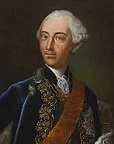











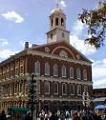

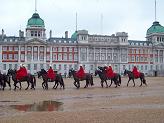

1742 And crown thy good with brotherhood? On Jan. 24 Charles VII Albert of Bavaria, head of the House of Wittelsbach finally gets his wish and is elected HRE Charles VII (1697-1745) (until Jan. 20, 1745), being crowned by his Wittelsbach brother Clemens (Klemens) August of Bavaria (1700-61), archibishop-elector of Cologne (who had been siding with the Austrian Hapsburg-Lorraine line until now); the only other Wittelsbach to become HRE was Louis IV way back in 1314-47; too bad, Bavaria is overrun with Austrian troops, which it takes the rest of his 3-year life to get rid of; meanwhile Karl Theodor (Charles Theodoe) (1724-99) of the Oberpfalz-Sulzbach line of the fractured Palatinate branch of the House of Wittelsbach becomes count-elector of the Palatinate (until 1799), becoming popular by supporting the arts and sciences, which positions him to inherit the how-I-met-your-mother Bavarian duchy in 1777. Put a wig and powder on white men and they all look alike? On Feb. 2 British PM (since Apr. 3, 1721) Robert Walpole resigns allegedly because of failing health (really his shrinking majority?), then on Feb. 6 accepts a peerage (earl of Orford not Oxford), and on Feb. 16 Spencer Compton, 1st Earl of Wilmington (1673-1743) (whom Robert Walpole had gotten raised to the peerage in 1728 in order to move him from the Commons to the Lords) becomes English PM #2 (until July 2, 1743), although the real leader of the Whig cabinet is John Carteret, 2nd Earl Granville (AKA Lord Granville) (1690-1763). On May 17 after Frederick II breaks the truce and enters Moravia "to pluck the Moravian hens", he wins a V at the Battle of Chotusitz (Czaslau), followed on May 24 by another at the Battle of Sahay (Zahájí) 10 mi. NW Budweis; on June 6 Maria Theresa agrees in the Peace of Breslau in Silesia to give Frederick the Silesian lands he has captured from her during the past 2 years in return for him recognizing her claim to the Austrian throne, ending the First Silesian War (begun 1740); she makes alliances with Savoy, Saxony and Britain; the Prussians leave Olmutz, leaving her free to turn her Austrian troops against the Bavarians and French; in June the French army led by Prince Charles occupies Prague, and becomes surrounded, then makes its escape on Dec. 16-26 - them Hessians always let their guard down around Christmas? On July 7 the Battle of Bloody Marsh (Marshes) on St. Simons Island, Ga. is a V for the British, led by Gen. James Oglethorpe over the Spanish, driving them back S to Fla. (St. Augustine) permanently. In Sept. the Ottoman gov. of Damascus sieges Arab Sheikh Daher el-Omar (1690-1775) in Tiberias for 83 days, until the departure of a Hajj caravan causes it to be lifted; he returns next July, but dies in Aug. of kidney disease, ending the threat. In Dec. the Battle of Augusta between white settlers of Va. and redskins, er, Indians leads to total white control within a couple of years. Tsarina Elizabeth sends an envoy to Finland offering measured autonomy as a Russian-controlled duchy, which only sparks nationalist sentiment. Cotton factories are first established in Birmingham and Northampton, England. The Williamite Wars over the Plantation of Ulster end; Ireland is at peace for a cent. so the rich can get richer while the poor get poorer? The ancient 440-mi. Indian Natchez Trace route between Nashville, Tenn. and Natchez, Miss. (linking the Cumberland, Tennessee, and Mississippi Rivers) is first used by a Euro, an unnamed Frenchman, and becomes a main Euro trade and transit route until the 19th cent. After inheriting it from an uncle when another of his nephews is disinherited for marrying, rich Huguenot Boston, Mass. merchant Peter Faneuil (1700-43) donates the 2-story (two rows of nine windows on each side, two rows of three windows on each end, and a grasshopper-shaped weather vane on top) Faneuil Hall (pr. FAN-ul) to Boston (built 1740-2); it ends up hosting so many meetings of rev. patriots that it becomes known as the "Cradle of Liberty". The Philadelphia Confession of Faith is pub. Arts-and-sciences-loving margrave (1735-63) Frederick the Beloved of Brandenburg-Bayreuth (1711-63) founds a univ. in his capital of Bayreuth, but after the students grow rebellious he transfers it on Nov. 4, 1743 to Erlangen, becoming Friedrich-Alexander U. of Erlangen-Nuremberg, named for him and its benefactor margrave (1757-91) Christian Frederick Charles Alexander "the Wild Margrave" of Brandenburg-Ansbach (1736-1806); famous students incl. Johann Ludwig Tieck, Wilhelm Heinrich Wackenroder, and Emmy Noether. Ex-German jurist Georg Heinrich Zincke (Zincken) (1692-1769) founds the economics periodical Leipziger Sammlungen von Wirthschafflichen-Policy-Cammer- und Finantz-Sachen (Leipzig Papers on Police, Economic, and Finance Matters) (until 1767). Peter Boehler is appointed bishop of the Moravian churches of Am., England, Ireland, and Wales. Viscount Bolingbroke returns to England, settling at Battersea (until 1751). Milan establishes a scale for accountants' fees. 17-y.-o. Jacques Casanova (1725-98) returns to Venice to find that his 14-y.-o. lover Lucia has run away and betrayed him; 16 years later (1758) he encounters her in an Amsterdam brothel and finds that she had contracted smallpox, which horribly disfigured her face, and ran away to spare him? - a new interview with Tonya Harding, the tough as nails skater? James Bradley (1693-1762) is appointed astronomer royal at Greenwich Observatory, succeeding Edmund Halley (b. 1656), who dies on Jan. 14. Jean-Jacques Rousseau (b. 1712) moves to Paris to promote a new system of musical notation he invented, but the Academie des Sciences rejects it - did you just say O snap? French-Canadian fur trader brothers Francois de La Verendrye (Vérendrye) (1715-94) and Francois Louis Joseph Gaultier de La Verendrye (Vérendrye) (1717-61) explore South Dakota (S.D.) (1742-3), and found the first white settlement there. Porto Alegre in Brazil is founded by settlers from the Azores (modern pop. 1.4M). The mango is introduced to Barbados from Rio de Janeiro. The first indoor swimming pool is opened in London. A canal linking Elbe and Havel is constructed. Cotton factories are established in Birmingham and Northampton. Kosta Boda glassworks in Swedens opens. Friedrich-Alexander U. is founded in Bayreuth, Bavaria, then moves to Huguenot-dominated Erlangen next year and becomes Erlangen U. Poor Richard's Almanack for 1742. William Kent (1685-1748) designs the Palladian-style Horse Guards Parade at Whitehall, London, which is built in 1751-3 by John Vardy. Inventions: English quaker Benjamin Huntsman (1704-76) invents the crucible process for casting steel. Science: Swedish astronomer Anders Celsius (1701-44) proposes the 0-100 Celsius (Lat. "centigrade" = 100 steps) temperature scale for use in lab work to the Royal Swedish Society, with 0 for the boiling point and 100 for the freezing point; in 1745 Carolus Linnaeus inverts it. On June 7 Prussian-born mathematician Christian Goldbach (1690-1764) proposes the Goldbach Conjecture, that every natural number greater than two can be expressed as the sum of two primes, and every natural number greater than five can be written as the sum of three primes; it is solved in ?. Nonfiction: Henry St. John, 1st Viscount Bolingbroke (1678-1751), A Letter on the True Use of Retirement; Letters on the Study of History. John Campbell, Lives of the Admirals. Etienne Fourmont, Grammatica Sinaica. Edmond Hoyle (1672-1769), A Short Treatise on the Game of Whist; becomes a hit, causing pirates to sell unauthorized eds., which Hoyle tries to override by autographing each copy for twopence, paid by his publisher Francis Cogan, who already paid him 100 guineas; it becomes the authoritative treatise on Whist until John Loraine Baldwin's work pub. in 1864; Hoyle follows with "A Short Treatise on the Game of Backgammon" (1743), "An Artificial Memory for Whist" (1744), "Treatise on Piquet" (1744), "Treatise on Chess" (1744), "Treatise on Quadrille" (1744), "Treatise on Brag" (1751), "Treatise on Probability Theory" (1754), and "Treatise on Chess" (1761), superseding "The Compleat Gamester" (1674); Cogan goes bankrupt in 1745, selling-out to Thomas Osborne, who pub. "Mr. Hoyle's Treatises of Whist, Quadrille, Piquet, Chess, and Back-Gammon" in 1748, calling it the 8th ed., becoming he std. English work on games, causing the phrase "According to Hoyle" to be launched. Colin Maclaurin (1698-1746), Treatise on Fluxions. Pierre de Maupertuis, Elements de la Geographie. John Oldmixon (1673-1742), Memoirs of the Press 1710-1740 (posth.). Thomas Simpson (1710-61), The Doctrine of Annuities and Reversions. Charles Viner, Legal Encyclopaedia (23 vols.) (1742-53). I. Walsh, Harmonia Anglicana; Or, The Musick of the English Stage: Containing six sets of ayers and tunes in 4 parts made for the operas, tragedys and comedyes of the Theater Royal; incl. "My Country 'Tis of Thee". Music: Karl Heinrich Graun (1704-59), Caesar and Cleopatra (July 12); introduces Italian opera to Berlin's new opera house. George Friedrich Handel (1685-1759), The Messiah (oratorio) (New Muck Hall, Dublin) (Apr. 13); composed in 24 days to save his flagging career, and performed by 26 boys and 5 men; this time he finds an audience of eager Bible-thumpers, Hallelujah, God save the king; the 1743 London debut is attended by George II, who stands up during the Hallelujah Chorus, leading some to surmise that he wasn't so moved by the music as tired and needing to stretch his legs; the first 7th-inning stretch? Art: Francois Boucher (1703-70), Diana Leaving Her Bath. William Hogarth (1697-1764), The Graham Children. Jean-Baptiste Oudry (1686-1755), The Gardens of Arcueil. Poetry: Thomas Gray (1716-71), Ode on a Distant Prospect of Eton College; "Where ignorance is bliss, 'tis folly to be wise". William Somerville (1675-1742), Field Sports; poem on hawking. Alexander Pope (1688-1744), The Dunciad, Book 4; pub. with a complete rev. of the 1st ed. (1728); Colley Cibber is the new King of Dunces. Edward Young (1683-1765), The Complaint; or Night Thoughts on Life, Death and Immortality (1742-5); took holy orders at age 50 after giving up his foolish youth, and finally this "melancholy and moonlight" pub. makes him an internat. star.; "By Nature's law, what may be, may be now;/ There's no prerogative in human hours. In human hearts what bolder thought can rise,/ Than man's presumption on to-morrow's dawn?/ Where is to-morrow? In another world"; "At thirty man suspects himself a fool,/ Knows it at forty, and reforms his plan;/ At fifty chides his infamous delay,/ Pushes his prudent purpose to resolve;/ In all the magnanimity of thought/ Resolves, and re-resolves, then dies the same." Novels: Claude Prosper Jolyot de Crebillon (1707-77), La Sopha, Conte Moral. Henry Fielding (1707-54), Abraham Adams. Births: German scientist and satirical writer, critic and aphorist George Christoph Lichtenberg (d. 1799) on July 1. Am. Cincinnati, Ohio co-founder John Cleves Symmes (d. 1814) on July 21 in Riverhead, Long Island, N.Y.; uncle of John Cleves Symmes Jr. (1780-1829); father-in-law of Pres. William Henry Harrison. Am. Rev. War Maj. Gen. Nathanael Greene (d. 1786) on Aug. 7 in Warwick, R.I.; namesake of Greensboro, N.C. Italian pope #251 (1800-23) Pius VII (Barnaba Niccolò Maria Luigi Chiaramonti) (d. 1823) on Aug. 14 in Cesena. U.S. supreme court justice (1789-98) (Presbyterian) James Wilson (d. 1798) on Sept. 14 in Carskerdo, Scotland; educated at the U. of St. Andrews, U. of Glasgow, and U. of Edinburgh; emigrates to the U.S. in 1766. French historian-mathematician Charles Francois Dupuis (d. 1809) on Oct. 26 in Trie-Chateau, Oise. English geographer-historian (oceanography pioneer) Maj. James Rennell (d. 1830) on Dec. 3 near Chudleigh, Devon. French Leblanc Process chemist Nicolas Leblanc (d. 1806) on Dec. 6 Issoudun, Indre. Prussian field marshal Prince Gebhard Leberecht von Blucher (Blücher) (d. 1819) on Dec. 16 in Rostock, Mecklenburg. German-Swedish chemist Karl (Carl) Wilhelm Scheele (d. 1786) on Dec. 19 (Dec. 9 Old Style) in Stralsund, W Pomerania. Persian Qajar shah #1 (1794-7) Agha Mohammad Khan (d. 1797); uncle of Fath Ali (1771-1834); castrated at age 6 by orders of Adil Shah in hopes of preventing him becoming a political rival, but it only makes him more calm, cool and collected? Mohwak Indian Chief (British ally) Joseph Brant (d. 1807), AKA Thayendanegea; son of Mohawk chief Niklaus Brant; grandson of Sa Ga Yean Qua Prah Ton, one of four Indian leaders to visit London in 1810; grows up in the Amsterdam, N.Y. household of fur trader Sir William Johnson (1715-74), supt. of Indian affairs N of the Ohio River 1755-74; his sister Molly becomes Johnson's common-law wife and bears him eight children. French hot air balloon pioneer Marquis Francois Laurent le Vieux d'Arlandes (d. 1809) in Anneyron, Duphine. Scottish pro-Vortigern antiquarian-writer George Chalmers (d. 1825) in Fochabers, Moray. Am. dentist John Woofendale (d. 1828) in England. Deaths: English astronomer Edmund Halley (b. 1656) on Jan. 14; his comet returns as predicted on Christmas Day, 1758 - wait, there's more, how about 1835 and 1910? German physician Friedrich Hoffmann (b. 1660) on Nov. 12 in Halle. English scholar-critic Richard Bentley (b. 1662). English South sea Bubble politician John Aislabie (b. 1670) on June 18. English historian John Oldmixon (b. 1673) on July 9. Italian composer-violinist Evaristo Felice dall'Abaco (b. 1675) on July 12. English poet William Somerville (b. 1675) on July 19 in Edstone, Worcestershire. Am. publisher Andrew Sowles Bradford (b. 1686). Dutch physicist Willem Jacob 's Gravesande (b. 1688) on Feb. 28. English poet John Hammond (b. 1710).



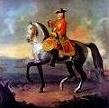



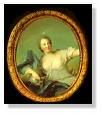






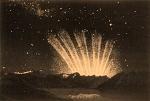

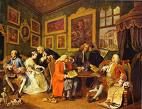

1743 On Jan. 1 the Verendrye brothers discover the Rocky Mts., and explore Wyoming (Wyo.); on their return they bury a lead plaque in Ft. Pierre, S.D., which is unearthed in 1913. On Mar. 14 the first recorded town meeting in America is held at Faneuil Hall in Boston, Mass. In May Maria Theresa retakes Bohemia and is crowned queen at Prague. On June 27 (June 16 Old Style) the 35K-man Pragmatic army of British, Hanover and Hesse troops under George II of Britain, Scottish field marshal John Dalrymple, 2nd Earl of Stair (1673-1747), and French-born Huguenot maj. gen. John (Jean Louis) Ligonier, 1st Earl Ligonier (1680-1770) (former gen. under Marlborough) (incl. Lord Jeffrey Amherst's First Regiment of Foot Guards)defeats 23K French troops under Adrien Maurice, 3rd Duc de Noailles (1678-1766) at the crummy Battle of Dettingen on the 18 mi. E of Frankfurt Main River on the Hesse-Bavaria border (modern-day Karlstein am Main), becoming the last time that a British sovereign personally leads his troops on the field (until ?), and won only by Ligonier's courageous improvisations and discipline; total casualties are 2K-3K British 4K-4.5K French; the HRE becomes a fugitive in Frankfurt; Frederick II the Great breaks the truce with Maria Theresa, allies with France and invades Bohemia; Austria allies with Saxony. On July 2 British PM (since Feb. 16, 1742) Spencer Compton, 1st earl of Wilmington (b. 1673) dies, and on Aug. 27 he is succeeded (until Mar. 6, 1754) as British PM by Whig Henry Pelham (1694-1754), younger brother of Thomas Pelham-Holles, Duke of Newcastle (1693-1768), with whom he shares power; Henry Pelham forces John Carteret to resign; quite quotable dude Philip Dormer Stanhope, 4th Earl of Chesterfield (1694-1773), known as Geffery Broadbottom in his press articles forms the Broadbottom Party, a coalition of anti-Walpole anti-George II cabinet members under Pelham. On Aug. 7 the Peace of Turku (Abo) gives control of all Finnish lands E of the Kymi River to Russia. The 1729 Gin Act raising the price of gin in a country where every sixth house is a saloon leads to the Gin Riots, after which the govt. backs off and lowers prices again; consumption soon rises to 8M gal. a year and the govt. gets antsy? - what they need now is a religious revival? Jewish pogroms begin in Russia. Scottish Covenanter minister Richard Cameron (1648-80) and his followers form the Reformed Presbyterian Church. Christopher Sower (Sauer) (Saur) (1695-1758) prints the first German Bible in Am. in Germantown, Penn. Indian yarns for the manufacture of fine textiles are first imported to Lancashire, England. The term "Tommy Atkins" is first used for a British soldier in a letter from Jamaica about a British troop mutiny: "Except for those from North America (mostly Irish Papists) ye Marimes and Tommy Atkins behaved splendidly". The 1729 Gin Act raising the price of gin in a country where every sixth house is a saloon leads to the Gin Riots, after which the govt. backs off and lowers prices again; consumption soon rises to 8M gal. a year and the govt. gets antsy? - what they need now is a religious revival? The city of Magnitogorsk (modern-day pop. 408K) is founded on the E side of the S Urals by the Ural River, named after 60%-iron-containing Mount Magnitnaya, launching iron ore production in 1759; in 1928 the Soviets travel to Cleveland, Ohio to meet with consulting co. Arthur G. McKee to discus plans to copy the U.S. Steel mill in Gary, Ind., also modeling their Magnitogorsk Iron and Steel Works after Pittsburgh, Penn.; in 1931 it is granted city status ; Motto: "The place where Europe and Asia meet". Newark Academy in Newark, Del. is chartered by William Penn's sons Thomas and Richard, changing its name to New Ark College in 1833, Delaware College in 1870, and Delaware U. in 1921. German immigrant Christopher Saur pub. a German language Bible, becoming the first Euro language Bible printed in North Am.; in 1763 he pub. the first Bible using paper manufactured in North Am.; in 1776 he pub. the first Bible printed from type manufactured in North Am. Poor Richard's Almanack for 1743. Sports: On Aug. 16 Broughton's Rules of Boxing are established in London by boxing champ Jack Broughton, with a 30-sec. knockout rule and no hitting or grasping below the waist; Broughton invents "mufflers", padded gloves for boxing. Architecture: A hand-operated elevator is installed in the palace of Versailles to allow Louis XV to go from his private apts. to those of mistress Marie Anne de Mailly, Madame de Chateauroux (1717-44) on the floor above him. The Frauenkirche in Dresden (begun 1726) finishes construction. Lawrence Washington (1718-52), elder half-brother and mentor of George Washington builds the 2-story 96-ft.-long 30-ft.-deep Mount Vernon mansion in Fairfax County, Va. on the Potomac River, named after his former boss British Adm. Edward "Old Grog" Vernon (1684-1757), who in 1740 ordered that sailor's rum should be watered-down, causing it to be called grog, from his habitual wearing of a grogram (silk-wool-gum taffeta) coat. Inventions: English mechanic John Wyatt of Birmingham designs the Compound Lever Weighing Machine for carts. Science: French mathematician-astronomer Alexis Claude Clairaut (1713-65) pub. a confirmation of Isaac Newton's prediction that the Earth is slightly oblate (flattened at the poles). The Klinkenberg-De Cheseaux Comet (Great Comet of 1744) is discovered on Dec. 9 by Dirk Klinkenberg (1709-99) of Haarlem, Netherlands, and again on Dec. 13 by Jean-Philippe Loys de Cheseaux (Chéseaux) (1718-51) of Lausanne, Switzerland; next Mar. it exhibits 6-7 tails and becomes brighter than Jupiter, becoming the largest recorded comet since the birth of modern astronomy (0.5 absolute magnitude), although the ancients saw a bigger 10-tailed comet in -1486. Nonfiction: Jean d'Anville (1697-1782), Map of Italy; corrects numerous errors, accompanied by a memoir showing his sources. Jean-Antoine Nollet (1700-70), Lecons de Physique Experimentale. Thomas Simpson (1710-61), Mathematical Dissertation on a Variety of Physical and Analytical Subjects. Music: Carlo Goldoni (1707-93), La Contessina (The Young Countess) (opera bouffe); music by Maccari. Georg Friedrich Handel (1685-1759), Samson (oratorio) (Feb. 18) (Covent Garden, London); libretto by Newburgh Hamilton; based on John Milton's "Samson Agonistes", which is based on Judges ch. 16. Art: Francois Boucher (1703-70), Madame Boucher; leaves her clothes on?; The Triumph of Venus; The Toilet of Venus; Daphnis and Chloe (1743-5). William Hogarth (1697-1764), Marriage a la Mode (6 scenes) (1743-5); his magnum opus?; the disastrous results of a marriage for money; incl. The Marriage Contract. Plays: Henry Carey (1692-1743), Chrononhotonthologos; "The most tragical tragedy that ever was tragediz'd by any company of tragedians"; opening line: "Aldiborontiphoscophornio! Where left you Chrononhotonthologos?" Carlo Goldoni (1707-93), La Donna di Garbo (The Fashionable Woman) (comedy). Voltaire (1694-1778), Merope (Mérope) (drama); "Who serves his country well has no need of ancestors." Novels: Henry Fielding (1707-54), Miscellanies (3 vols.); incl. The History of the Life of the Late Mr. Jonathan Wild the Great, A Journey from This World to the Next. Births: French mystical philosopher (Freemason) Louis Claude de Saint-Martin (d. 1803) (AKA Le Philosophe Inconnu or the Unknown Philosopher) on Jan. 18 in Amboise. Am. steamboat inventor John Fitch (d. 1798) on Jan. 21 in Windsor, Conn. English botanist (Freemason) Sir Joseph Banks, 1st Baronet (d. 1820) on Feb. 13 in London; educated at Harrow School, Eton, and Christ Church, Oxford U. Italian "The Celebrated Minuet" cellist-composer Luigi Rodolfo Boccherini (d. 1805) on Feb. 19 in Lucca. French mineralogist Abbe Rene Just Hauy (Haüy) (d. 1822) on Feb. 28 in Saint-Just-en-Chaussee, Oise; brother of Valentin Hauy (1745-1822). Swiss "Swiss Family Robinson" novelist Johann David Wyss (d. 1818) on Mar. 4. English "The Belle's Strategem" dramatist-poet Hannah Cowley (nee Parkhouse) (d. 1809) on Mar. 14 in Tiverton, Devonshire; daughter of a bookseller; wife of a Stamp Office official who abandons her in 1783 to join the British East India Co. U.S. 6'-2.5" Repub. pres. #3 (1801-9) and vice-pres. #2 (1797-1801) and inventor-architect and philosopher-writer-statesman and chocaholic (author of the DOI, co-creator of the 2-party system, founder of the U. of Va.) (Deist) Thomas Jefferson (d. 1826) on Apr. 13 [Aries] in Shadwell, Goochland (modern-day Albermarle County), Va.; has siblings who are fraternal twins; descendant of William Randolph; likes to write standing up; inventor of the dumbwaiter. English clergyman and power loom inventor Edmund (Edward) Cartwright (1743-1823) on Apr. 24 in Marham, Norfolk; educated at University College, Oxford U.; brother of John Cartwright (1740-1824). French physician and radical French Rev. leader Jean-Paul Marat (d. 1793) on May 24 in Boudry, Neuchatel, Switzerland; Calvinist father, Huguenot mother. Italian adventurer-occultist (Freemason) Count Alessandro di Cagliostro (Giuseppe Balsamo) (d. 1795) on June 2 in Palermo; the original snake oil salesman? German elector Wilhelm I of Kassel, Elector of Hesse (d. 1821) on June 3; eldest son of Frederick II (1720-85) and Princess Mary of Britain (1723-72) (daughter of George II); daddy converts to Roman Catholicism in 1747 and leaves mommy, who moves with her son to Denmark; sponsors Mayer Amschel Rothschild. Am. Rev. jurist-statesman-diplomat Francis Dana (d. 1811) on June 13 in Charlestown, Mass.; educated at Harvard U.; grandfather of Richard Henry Dana Jr. (1815-82). Am. jurist ("the Old Judge") John Lowell (d. 1802) on June 17 in Newburyport, Mass.; patriarch of the Boston Lowells; educated at Harvard U. English Romantic poet-writer Anna Laetitia Aikin Barbauld (d. 1825) on June 20. English utilitarian theologian-philosopher William Paley (d. 1805) on July ? in Peterborough; educated at Christ's College, Cambridge U. French mistress (of Louis XV) Comtesse du Barry (Marie Jeanne Bécu) (d. 1793) on Aug. 19 in Vaucouleurs, Lorraine; illegitimate daughter of Anne Becu and friar "Brother Angel". French chemist ("Father of Modern Chemistry") Antoine (Antoine-Laurent de) Lavoisier (d. 1794) on Aug. 26 in Paris; educated at the College Mazarin. Danish "The Wounded Philoctetes" neoclassical painter Nicolai (Nikolaj) Abraham Abildgaard (d. 1809) on Sept. 11 in Copenhagen; son of Soren Abildgaard (1718-91). French scientist-mathematician-biographer-encyclopedist-politician Marie Jean Antoine Nicolas de Caritat, Marquis de Condorcet (d. 1794) on Sept. 17. Italian opera buffa composer Giuiseppe Gazzaniga (d. 1818) on Oct. 5 in Verona; pupil of Niccolo Piccinni and Nicola Porpora. Danish poet (alcoholic) Johannes Ewald (d. 1781) on Nov. 18. German chemist-apothecary Martin Heinrich Klaproth (d. 1817) on Dec. 1 in Wernigerode; father of Julius Heinrich Klaproth (1783-1835). German lit. critic-historian Johann Joachim Eschenburg (d. 1820) on Dec. 7 in Hamburg; educated at the U. of Leipzig, and U. of Gottingen. French dancer Marie-Madeleine Guimard (d. 1816) on Dec. 27 in Paris. Am. Rev. War Col. Abram (Abraham) Penn (d. 1801) on Dec. 27 in Caroline County, Va.; ancestor of Robert Penn Warren (1905-89). Am. celeb Sarah "Sally" Franklin (Bache) (d. 1808); only daughter of Benjamin and Deborah Read Franklin (1705-74) (common-law marriage since 1730). Am. Shawnee chief Blue Jacket ((Wehyehpiherhsehnwah) (Weyapiersenwah) (d. 1810) in modern-day Ross County, Ohio. Scottish physician William Saunders (d. 1817). Am. Rev. War col. Charles McDowell (d. 1815) in Winchester, Va.; grows up in Burke County, N.C. Deaths: French cardinal and PM (1726-43) Andre Hercule de Fleury (b. 1653) on Jan. 29 in Issy-les-Moulineaux. French painter Hyacinthe Rigaud (b. 1659) on Dec. 29 in Paris. French painter Alexandre Francois Desportes (b. 1661). Italian celeb Anna Maria Luisa de' Medici (b. 1667) on Feb. 18 in Florence; last member of the Medici family of Florence; signs the Family Pact, bequeathing the Medici art collection to Tuscany; her bones are exhumed during the 1966 Florence Flood. English architect Thomas Archer (b. 1668). Italian violin maker Francesco Stradivari (b. 1671) on May 11. Dutch jurist Cornelius van Bynkershoek (b. 1673) on Apr. 16 in The Hague. English PM #2 (1742-3) Spencer Compton, 1st earl of Wilmington (b. 1673) on July 2 in St. James's Square, London; dies without heirs, making the Wilmington title extinct, although Del. and N.C. name cities in his honor. Italian composer Lodovico Giustini (b. 1685) on Feb. 7 in Pistoia. English poet-dramatist Henry Carey (b. 1687) on Oct. 5 in London (suicide after his son Charles dies). French painter Nicolas Lancret (b. 1690) on Sept. 14; produced 800 paintings - stay awake stay alive? English poet-musician Henry Carey (b. 1692). English poet Richard Savage (b. 1697) on Aug. 1 in Bristol.













1744 In Jan. 15-y.-o. Sophie Auguste Frederika of Anhalt-Zerbst (later known as Catherine II the Great), daughter of a petty German prince leaves her home in Stettin to travel to Russia on the invitation of Empress Elizabeth, and is betrothed to her creepy cousin Grand Duke Peter, heir to the Russian throne. On Apr. 6 (Easter weekend) after turning spiritual in 1741, Stockholm, Sweden-born Emanuel Swedenborg (Swedberg) (1688-1772) has his big spiritual awakening, claiming to be appointed by Jesus Christ to write "The Heavenly Doctrine" to reform Christianity and create a New Church by freely visiting Heaven and Hell to talk with angels and demons; he goes on to pub. 18 works which his Swedenborgian followers believe are divinely-inspired, incl. Heaven and Hell and its Wonders and Hell From Things Heard and Seen (1758), which claims that the last Judgment occurred in 1757. On May 30 after receiving Roman Catholic last rites, Alexander Pope (b. 1688) dies, along with all his many feuds, ending the Age of Pope and causing a reaction against poetry among the new-kid-on-the-block Romantics. On June 25-July 4 the Iroquois (Six Nations) negotiate the Treaty of Lancaster with Virginia Colony and Md. Colony in Lancaster, Penn., giving Va. to the whites up to the Blue Ridge Mts. In June Sir George Anson returns from his voyage around the world begun in 1740 after 3 years 9 mo. with only one ship and $2.5M worth of Spanish booty; for this loot, er, achievement he is promoted to rear adm. In Aug. Louis XV, who took personal command of the army in the spring offensive in the War of Succession and takes his babe Madame de Chateaureoux (b. 1717) along with him becomes seriously ill, sending her packing, allowing the French mobs to show their hatred for her by throwing rotten veggies at her carriage and hissing her, making her ill, and when he recovers and calls her back in Dec., she rises too quickly from her sickbed and dies of pneumonia; he vows to replace the ruined church of the Abbey of St. Genevieve in the Latin Quarter of Paris, entrusting Abel-Francois Poisson, Marquis de Marigny with the task, and in 1755 he commissions French architect Jacques-Germain Soufflot (1713-80) to design a new church, which begins construction in 1758, and is finished in 1790 in neo-classical style, with a facade modeled on the Pantheon in Rome, and a Bramante-style dome; in 1793 the U. of Douai is confiscated by the French revolutionaries, who turn the Church of St. Genevieve in Paris (built 1758-90) into the Pantheon (Panthéon). The Second Silesian War begins when Frederick the Great invades Bohemia; he takes Prague but is driven back to Saxony. King Louis XV of France declares war on George II of Great Britain and on Maria Theresa; King George's War in North Am. begins; the French briefly occupy Annapolis, Nova Scotia. Bagrationi monarch Erekle (Heraclius) (Erekli) (Irkaly) II (1720-98) becomes next-to-last king of Kakheti (until 1762), followed by king of Kakheti and Kartlin in E Georgia in 1762-98, fighting a long losing battle to stave off Persian invasion by allying with Russia. Adolphus Frederick, heir to the Swedish throne marries Princess Ulrica, daughter of Frederick II the Great. Mohammed Ibn Saud and his Sa-Udi family are won over by Najd-born radical unitarian Sunni Arab theologian Wahhabism founder Muhammad (Mohammed) ibn Abd al-Wahhab at-Tamimi (1703-92), and found the First Saudi State in Arabia. After Jesuit priest Gaspar Morales refuses to give a Christian burial to his brother for specious reasons, Francisco Dagohoy (Sendrijas) ("Dagon Sa Hoyohoy" = talisman of the breeze) of Bohol kills Italian Jesuit curate Father Giuseppe Lamberti and Father Morales, beginning the Dagohoy Rebellion in the Philippines against the Spanish govt. (ends 1829), holing up with 3K-20K followers in the trick (underwater passage to the outside) Francisco Dagohoy Cave in the mountains in the town of Danao, and holding on for a record 20 Spanish govs.-gens. and 85 years. Future "British conqueror of India" Robert Clive (1725-74) arrives in India at age 18 broke and rejected by his father (who calls him the Booby), and takes a job as a clerk for the British East India Co.; one day fellow clerk Edmund Maskelyne enters his room to find him holding a pistol; Clive asks him to fire it out the window, and when he does, remarks "I must be reserved for something. That pistol I have twice snapped at my own head." Cotopaxi volcano in Ecuador erupts again (last time 1698), the noise heard 500 mi. away at Honda, Colombia. Eliza Haywood (Fowler) (1693-1756) begins pub. The Female Spectator, the first women's periodical to be edited by a woman; predictably, all her stuff is icily received by the male establishment, Alexander Pope calling her a "shameless scribbler", and Jonathan Swift calling her a "stupid, infamous, scribbling woman". The Madrigal Society is founded in London, holding weekly meetings in taverns. Poor Richard's Almanack for 1744. Sports: The Honorable Co. of Edinburgh Golfers, the world's first golf club is founded. The first recorded Cricket match pits Kent vs. All England at the Artillery Ground in London, with the first known code of cricket drawn up by "Noblemen and Gentlemen", who bet large sums on the former kiddie game; the pitch is set at 22 yards, the distance between bowling crease and popping crease at 46", the wicket at 22" tall and 6" wide, and the ball at 5-6 oz. Inventions: Benjamin Franklin invents the cast-iron Franklin Stove, which stands away from the walls and looks like a chimney; it is redesigned in 1790 by David R. Rittenhouse so that it actually works. Science: Spanish scientists slash naval officers Antonio de Ulloa (1716-95) and Jorge Juan y Santacilia (1713-73), who went on the La Condamine expedition to South Am. in 1736 then remained, discover sizable stores of the element Platinum (Pt) (#78) (Sp. "platina" = little silver), and take some back to Europe with them on separate ships; too bad, Ulloa's ship is captured by the Brits, but after the scientists pull their increasingly powerful internat. strings he ends up a fellow of the Royal Society of London - what's it good for, doorstops? Jean Philippe Loys de Cheseaux (Chéseaux) (1718-51) of Lausanne, Switzerland first states Olbers' Paradox, that the night sky can't be dark if the Universe is infinite. Swiss mathematician Leonhard Euler (1707-83) discovers the Calculus of Variations. Nonfiction: Anon., Tommy Thumb's Pretty Song Book; earliest surviving collection of English nursery rhymes; incl. Baa Baa Black Sheep, Hickory Dickory Dock, Ladybird Ladybird, Little Robin Redbreast, Little Tommy Tucker, London Bridge is Falling Down (My Fair Lady), Mary Mary Quite Contrary, Sing a Song of Sixpence, Who Killed Cock Robin?. Jean Baptiste le Rond d'Alembert (1717-83), Traite de l'Equilibre et du Mouvement des Fluides (Treatise on the Equilibrium and Movement of Fluids); introduces the components of fluid velocity and acceleration, differential requirements for continuity, and complex numbers, deriving the paradox of zero longitudinal force on the body. George Berkeley (1685-1753), Siris: A Chain of Philosophical Reflexions and Inquiries Concerning the Virtues of Tar-Water and Divers Other Subjects Connected Together Arising One from Another. Benjamin Franklin (ed), Cicero's 'Cato Major' (Phila.). Pierre Francois Xavier de Charlevoix (1682-1761), Histoire et description generale de la Nouvelle France, avec le journal historique d'un voyage fait par ordre du roi dans l'Amérique septentrionnale (3 vols.). Ludvig Holberg (1684-1754), Moral Reflection. Dr. Samuel Johnson (1709-84), An Account of the Life of Mr. Richard Savage, Son of the Earl Rives; pub. anon.; his first major bio.; about his London poet friend, who just died; claims that he was the illegitimate child of a noble family that disowned him; throws light on Johnson's own hardships. Lodovico Antonio Muratori, Annali d'Italia (1744-9). The first Eskimo Trans. of the Bible is pub. in Copenhagen. Music: J.S. Bach (1685-1750), The Well-Tempered Clavier, Pt. 2 (Das wohltemperierte Klavier). Christoph Gluck (1714-87), Iphigenie en Aulide (opera) (Paris); not to be confused with "Iphigenie et Tauride" (1779). G.F. Handel (1685-1759), Semele (HWV 58) (oratorio) (Theatre Royal, London) (Feb. 10); stars Elisabeth Duparc as Semele, Esther Young as Juno, and John Beard as Jupiter; tries to push an opera over as an oratorio, but the audience isn't fooled, getting pissed off at its amorous pagan theme instead of a prudish Biblical theme for Lent, rubbed in by being in English instead of Italian, causing it to flop after 4 performances, after which he gets two more in Dec. by censoring it - that's right, it flops for having sex in it? Art: John Michael Rysbrack, Dr. Radcliffe of Oxford (sculpture); ends up in the Radcliffe Camera library at Oxford U. Novels: John Newbery (1713-67) and M.F. Thwaite, A Little Pretty Pocket-Book, Intended for the Amusement of Little Master Tommy and Pretty Miss Polly with Two Letters from Jack the Giant Killer; the first children's book; sold with a ball for boys and a pincushion for girls; a bestseller, launching his career in children's lit., causing him to be called "the Father of Children's Literature"; printed in Colonial Am. in 1762; the first reference to rounders ("base-ball"). Births: Am. engineer-soldier Col. ("Father of Am. Civil Engineering") Loammi Baldwin (d. 1807) on Jan. 10 in Woburn, Mass.; educated at Harvard U.; promoter of the Baldwin apple. Am. Penn. gov. #1 (1790-9) Thomas Mifflin (d. 1800) on Jan. 10 in Philadelphia, Penn.; educated at the College of Philadelphia. German archbishop of Mainz (1802-17) Karl Theodor Anton Maria von Dalberg (d. 1817) on Feb. 8 in Herrnsheim. English historian William Mitford (d. 1827) on Feb. 10 in Exbury (near Beaulieu); educated at Queen's College, Oxford U.; friend of Edward Gibbon (1737-94). English poet laureate (1790-1813) Henry James Pye (d. 1813) on Feb. 10 in London. Am. Rev. leader and atty. Josiah Quincy II (d. 1775) on Feb. 23 in Boston, Mass.; son of Josiah Quincy Sr. (1709-84); father of Josiah Quincy III (1772-1864); educated at Harvard U. German trader-banker (Jewish) ("Founding Father of International Finance") Mayer (Meyer) Amschel (de) Rothschild (Ger. "red shield") (Bauer) (d. 1812) on Feb. 23 in Frankfurt; founder of the Rothschild internat. banking house; father of five sons incl. Nathan Mayer Rothschild (1777-1836), whom he places in key positions to set up banks in Frankfurt, Vienna, London, Naples, and Paris, dominating the banking industry by the mid-1800s after making a fortune by financing the Napoleonic Wars; secret founder of the Illuminati?; the Red Shield is actually the origin of the Star of David? Am. Dem.-Repub. Mass. gov. #7 (1807-8) James Sullivan (d. 1808) on Apr. 22 in Berwick, Mass. (modern-day Maine); brother of John Sullivan (1740-95). French gen. Henri Christian Michel de Stengel (d. 1796) on May 11 in Neustadt an der Weinstrasse, Bavaria. British queen consort (1761-1818) and breed mare Charlotte of Mecklenburg-Strelitz (d. 1818) on May 19 in Mirow, Meclenburg-Strelitz; youngest daughter of Duke Charles Louis Frederick of Mecklenburg-Strelitz (1707-52) and Elizabeth Albertine of Saxe-Hildburghausen, duchess of Saxony (1713-61); wife (1761-) of George III (1738-1820); of a ducal-princely not royal line; mother of 15 children, incl. George IV (1762-1830), Frederick, Duke of York and Albany (1763-1827), William IV (1765-1837), Charlotte of Wurttemberg (1766-1828), Edward, Duke of Kent and Strathearn (1767-1820), Augusta Sophia (1768-1840), Ernest Augustus I (1771-1851), Augustus Frederick, Duke of Sussex (1771-1843), Adolphus, 1st Duke of Cambridge (1774-1850), Sophia (1777-1848). English engraver-writer Samuel Ireland (d. 1800) on May 21 in London; father of "Vortigern" William Henry Ireland (1775-1835). British army maj. Patrick Ferguson (d. 1780) one June 4 (May 25 Old Style) in Edinburg, Scotland. Am. Repub. gerrymandering politician (Gov. of Mass.), statesman, DOI signer and vice-pres. #5 (1813-14) Elbridge Gerry (d. 1814) (pr. with hard g) on July 17 in Marblehead, Mass.; educated at Harvard U. grandfather of Elbridge Thomas Gerry (1837-1927). French naturalist (invertebrate zoologist and taxonomist) Jean-Baptiste Pierre Antoine de Monet, Chevalier de Lamarck (d. 1829) on Aug. 1 in Bazentin, Picardy; an 11th child; coiner of the terms "invertebrates" and "biology"; founder of Lamarckism, the theory of organic evolution that acquired characteristics can be inherited - e.g., Ahnuld's kids should be born with big biceps? German Volksgeist nationalist Sturm und Drang poet-philosopher and Lutheran pastor Johann Gottfried von Herder (d. 1803) on Aug. 25 in Mohrungen, East Prussia (modern-day Morag, Poland); educated at the U. of Konigsberg (Kalingrad); student of Immanuel Kant; protege of Johann George Hamann; inspiration for Goethe to launch the Sturm und Drang movement in 1771; preaches that every nat. group has its own particular spirit and genius - is its own god-freed herd? French Palladian architect (in Italy) Giacomo Quarenghi (d. 1817) on Sept. 20/21 in Rota d'Imagna (near Bergamo); student of Anton Raphael Mengs, Stefano Pozzi, and Paolo Posi (1708-76). Prussian king #4 (1786-97) Frederick William II (d. 1797) on Sept. 25 in Berlin; son of Prince Augustus William (1722-58) (2nd son of Frederick William I). Canadian businessman (founder of McGill U.) James McGill (d. 1813) on Oct. 6 in Glasgow, Scotland; educated at the U. of Glasgow; emigrates to Canada in 1766. U.S. First Lady #2 (1797-1801) (fashion and society trend-setter) Abigail Smith Adams (d. 1818) on Nov. 11 in Weymouth, Mass.; daughter of Congregational Rev. William Smith and Elizabeth Quincy, descendant of Puritan preacher Thomas Shepard of Cambridge, and English king Edward I Longshanks (1239-1307); wife (1764-) of pres. John Adams (1735-1826). Am. politician-jurist Richard Peters Jr. (d. 1828) on June 22 in Philadelphia, Penn.; son of William Peters (1702-86); nephew of Richard Peters (1704-76); educated at the U. of Penn. Deaths: English queen's blackbottom girl (bedchamber reject) Sarah Churchill (b. 1660). Italian philosopher Giovanni Battista Vico (b. 1668) on Jan. 23 in Naples. English MP James Brydges, 1st duke of Chandos (b. 1673) on Aug. 4; dies heavily in debt, causing his Cannons estate to be demolished in 1747 and the contents auctioned. Am. Va. planter William Byrd II (b. 1674) on Aug. 26. German prince-archbishop of Salzburg (1727-44) Count Leopold Anton von Firmian (b. 1679) on Oct. 22 in Salzburg, Austria. English poet Alexander Pope (b. 1688) on May 30 in Twickenham: "A little learning is a dangerous thing;/ Drink deep, or taste not the Pierian spring; There shallow draughts intoxicate the brain,/ And drinking largely sobers us again" [Pieria, Macedonia was home to the Muses]; "What mighty contests rise from trivial things"; "To err is human, to forgive divine"; "The proper study of mankind is man"; "Fools rush in where angels fear to tread"; "Hope springs eternal in the human breast"; "True wit is nature to advantage dressed;/ What oft was thought, but ne'er so well expressed"; "The great moral poet of all times, of all climes, of all feelings, and all stages of existence." (Lord Byron) English playwright Lewis Theobald (b. 1688) on Sept. 18. Italian violin maker Giuseppe Guarneri (b. 1698) on Oct. 17. Swedish astronomer Anders Celsius (b. 1701) on Apr. 25 in Uppsala (TB). Indian sage Thayumanavar (b. 1706).







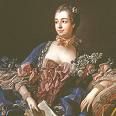





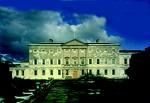

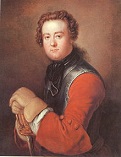



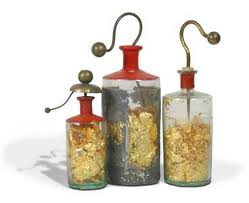
1745 On Jan. 20 HRE Charles VII (b. 1697) dies, and his eldest son Maximilian III Joseph (1727-77) becomes elector of Bavaria (until 1777), but is in no position to fuss with the the Austrian armies invading his country, and abandons all fussy imperial pretentions for the House of Wittelsbach, signing on Apr. 22 the Treaty of Fussen (Füssen) in Bavaria; on Sept. 13 Maria Theresa's husband Francis Stephen is elected at Frankfurt am Main, and crowned HRE Francis I (1708-65) on Oct. 4, founding the House of Hapsburg-Lorraine as the imperial house of Austria (and later Hungary), which goes on to produce such credit-cards-that-got-no-limit-dress-my-ass-with-the-latest-fashion big rock stars as his daughters (by Maria Theresa) Marie Antoinette (wife of Louis XVI of France), Maria Luise (wife of Napoleon I), and Emperor Maximilian I of Mexico. On May 11 the French under marshal Maurice, Comte de Saxe (Moritz von Sachsen) (Marechal de Saxe) (1696-1750) defeat the British, Dutch, and Austrians under the command of George II's incompetent younger son William (Wilhelm) Augustus, Duke of Cumberland (1721-65) at the Battle of Fontenoy in Flanders, after whiskey-guzzling Scot Lord Charles Hay (1705-60) of the First Foot Guards first dashes forward and drinks a toast, shouting to the Gardes Francaises, "Gentlemen of France, fire first", the humiliation getting rubbed in when their lines are broken by the Irish Brigade, after which he ends up in an asylum by next year, then becomes George II's aide-de-camp in 1749, finally getting arrested in 1757 for criticizing his superiors; Saxe, who was naturalized as a French subject in Apr. is carried in a wicker chariot because he has edema and can't sit on a horse; the French then go on to conquer the Austrian Netherlands, becoming France's last great military V before the French Rev. In May Bavaria, Saxony, and Austria agree to reduce Prussia to its former condition as the electorate of Brandenburg; too bad, Frederick II has other ideas, and on June 4 he wins a V at the bloodbath Battle of Hohenfriedberg, and another in Sept. at the Battle of Soor-Trautenau, and one more on Dec. 14-15 at the Battle of Kesselsdorf. On June 16 a British force of 4.2K under Mass. gov. William Shirley and Kittery merchant Sir William Pepperell, 1st Baronet (1696-1759) (who also finances the expedition) takes supposedly impregnable Ft. Louisburg in Cape Breton, Nova Scotia, Canada after a 49-day siege, but three years later at Aix-la-Chapelle the fort is stupidly returned under a peace treaty in exchange for Madras, because the British need Quebec for firewood; Nathaniel Hawthorne later eulogizes Pepperell as "The mighty man of Kittery". On July 25 Roman Catholic "Young Pretender" Charles Edward Stuart (Stewart) (Bonnie Prince Charlie) (1720-88) (grandson of James II) lands on Eriskay Island in Scotland, proclaims his father as James VIII of Scotland and James III of England, and raises the Highlanders, beginning the Second Jacobite Rebellion (Jacobite Rising of 1745); on Sept. 17 the Scots win a V over royalist John Campbell, duke of Argyll (Argyle) at the Battle of Prestopans near Edinburgh; the Scottish army advances as far S as Derby but retreats when no English come to their aid; Bonnie Prince Charlie's landing in Scotland popularizes the song God Save the King/Queen. On Aug. 25 Grand Duke Peter of Russia marries Princess Catherine (future Catherine II the Great), previously known as Sophia (Sophie). On Sept. 15 Jeanne Antoinette Poisson, Madame (Marquise) de Pompadour (1721-64) becomes Louis XV's official mistress; she lasts 19 years even though she is frigid, because she combines the brains of a diplomat, the conversational abilities of a raconteur, and the entertainment sense of a Martha Stewart, plus she is good at finding the king young, nubile bed partners who have none of these qualities? On Dec. 25 after the French fail to aid Prussia as promised, causing Frederick II to retreat to Silesia, while the English subsidize Maria Theresa and provide her with troops, then withdraw, the Peace (Treaty) of Dresden is signed in Dresden, Saxony, confirming Austrian secession of Silesia to Prussia, while Prussia recognizes the Pragmatic Sanction, ending the Second Silesian War. Shogun (since 1716) Tokugawa Yoshimune (b. 1684) dies, and Tokugawa Iyeshige (Ishege) (-1760) (a paralytic who has trouble speaking) becomes Tokugawa shogun #9 of Japan (until 1760). Ngwane III (-1780) becomes the first king of modern Swaziland (until 1780), which is called Kangwane. Lord Chesterfield becomes lord lt. of Ireland (until 1746), and his admin. becomes known for tolerance. Lord Jeffrey Amherst is promoted to lt. col., and appointed aide to the duke of Cumberland. Frederick, Md. (Frederick Town), named after Frederick Calvert, 6th Baron Baltimore (Frederick II the Great?) is settled by German Rhineland Palatinate immigrants, later becoming the initial stop for the Pennsylvania Dutch, after which they migrate through the Shenandoah Valley to W Piedmont in N.C. After sailing to Bering Island in 1743, Russian Cossack explorer Emelian Basov explores the Aleutian Islands. In England the Co. of Barbers and Surgeons (formed 1540) splits up as the surgeons seek to distance themselves from their lowly "basin barber" brethren, and establish the Co. of Surgeons in London (until 1800); the barbers get the pole, which represents bloody rags hung out to dry, topped by a brass basin to catch the blood during bloodletting; in 1800 it becomes the Royal College of Surgeons of England. After young British lt. Baker Phillips is court martialed and shot for surrendering a ship after his captain brings it into battle unprepared and is killed, the double standard causes a public outcry leading to the Articles of War being amended to make "failure to do one's utmost" a capital crime for officers of all ranks. Benjamin Franklin founds the Am. Philosophical Society "for the promotion of useful knowledge among the British plantations in America", becoming the oldest learned society in Am.; its members later incl. 15 DOI signers, 18 members of the Constitutional Convention, and 13 U.S. presidents. Gaming is prohibited in Bath, England, ruining big dandy MC Richard "Beau" Nash (1674-1761), who ends up living on a pathetic pension. Benjamin Franklin pub. Advice to a Young Man on the Choice of a Mistress, claiming that marriage is "the proper remedy" for sexual urges, but that if a man finds "sex inevitable", he should "prefer old women to young ones" for eight reasons, the final one being "they are so grateful". The number of newspapers in British America reaches 22: 7 in New England, 10 in the middle colonies, and 5 in the south. Poor Richard's Almanack for 1745. Gerard van Swieten (1700-72), founder of the Viennese School of Medicine becomes court physician to Maria Theresa. In the marriage of the year, French playwright Charles Simon Favart (1710-92) marries Opera-Comique singer-dancer Justine Benoite Duronceray (1727-72), and they go to Flanders to perform for the troops of Marshal de Sax fighting in the War of Austrian Succession, where they are so popular that enemy troops are granted leave to attend; they go on to produce over 100 comedies and operettas at the Opera-Comique, usually written by him and starring her. Middlesex Hospital in London, England is founded, causing great controversy over the idea of lying-in? The first Oddfellows (Odd Fellows) Lodge in England is founded at the Globe Tavern in Hatton Garden. The quadrille becomes a fashionable dance in France. Yale College in Conn. receives a new royal charter. Architecture: The Georgian Leinster House (originally Kildare House) in Dublin, Ireland is begun by James Fitzgerald, earl of Kildare, and designed by Kassel, Germany-born Irish architect Richard Castle (Cassels) (1690-1751) (finished 1747); it is later used as the model for the U.S. White House. The Rococo Sanssouci (Fr. "without a care") Palace in Potsdam (near Berlin), Prussia is begun by Frederick II the Great to rival Versailles as his summer home, designed by Prussian architect Georg Wenzeslaus von Knobelsdorff (1699-1753) and Dutch architect Jan Bouman (1706-66) (finished May 1, 1747); it ends up as a 1-story 10-room villa that rivals Chateau de Marly not Versailles, causing his successors to enlarge it. Inventions: French robot toy whiz Jacques de Vaucanson (1709-82), who was appointed by Cardinal Fleury in 1741 as French inspector of silk manufacture invents a Punch-Card Controlled Drawloom (the first completely automated loom) in an effort to help French industry catch up with England and Scotland; too bad, the Luddites shut him down, and he gives up on robots. Science: English farmer Robert Bakewell (1725-95) of England pioneers Systematic Stock Breeding (Animal Husbandry) - good stock we must bake well? The Leyden Jar, the biggest electrical breakthrough of the 18th cent. is discovered independently by Canon Ewald Georg von Kleist (1700-48) of Kamin, Pomerania (Oct. 11, 1745) and Cornelius Pieter (Petrus) van Musschenbroek of the U. of Leyden in Holland (Jan. 1746), giving it its name. Nonfiction: Germain Boffrand (1667-1754), Livre d'Architecture; attempts to strike a balance between French academic classicism, Italian Baroque, and his new Louis XV Rococo. Charles Bonnet (1720-93), Traite d'Insectologie. Denis Diderot (1713-84), Essai sur le Merite de la Vertu; "From fanaticism to barbarism is only one step." Philip Doddridge, The Rise and Progress of Religion in the Soul. Dr. Samuel Johnson (1709-84), Observations on the Tragedy of Macbeth. James Logan, The Clans of the Scottish Highlands. Pierre Louis Moreau de Maupertuis (1698-1759), Venus Physique (The Earthly Venus); challenges the preformation theory of genetics, proposing development of life from a common ancestor, and announcing the take-a-chance-on-me Principle of Least (Stationary) Action. Thomas Simpson (1710-61), A Treatise of Algebra. Jonathan Swift (1667-1745), Directions to Servants in General; Further Thoughts on Various Subjects; "Vision is the Art of seeing Things invisible." William Whiston (1667-1752), Primitive New Testament. Music: J.S. Bach (1685-1750), Gloria in Excelsis Deo (Cantata 191); composed to celebrate the Peace of Dresden, and performed on Christmas Day, the date of the treaty. William Boyce (1710-79), Lyra Britannica (6 vols.) (1745-). The Scottish nat. song The Campbells Are Coming (Baile Inneraora) is pub. Art: Pompeo Batoni (1708-87), Achilles at the Court of Lycomedes. Francois Boucher (1703-70), Spring (La Toilette Pastorale); Bacchus and Erigone. William Hogarth (1697-1764), Self-Portrait with Pug Dog. Giovanni Battista Tiepolo (1696-1770), Antony and Cleopatra (Labia Palace, Venice). Plays: Carlo Goldoni (1707-93), Arlecchino Servitore di Due Padroni (Harlequin Servant of Two Masters) (comedy); I Due Gemelli Veneziani (The Two Venetian Twins) (comedy). James Thomson (1700-48), Tancred and Sigismunda (tragedy). Births: Am. Rev. War Gen. "Mad" Anthony Wayne (d. 1796) on Jan. 1 in Chester County, Penn. Danish entomology pioneer Johan Christian Fabricius (d. 1808) on Jan. 7 in Tonder, Schleswig; educated at the U. of Copenhagen; student of Carl Linnaeus. Dutch surgeon-scholar-Japanologist Isaac Titsingh (d. 1812) on Jan. 10 in Amsterdam. English "Sacred Dramas" religious writer, poet-dramatist and philanthropist Hannah More (d. 1833) on Feb. 2 in Stapleton (near Bristol). Italian physicist Alessandro Volta (d. 1827) on Feb. 18 in Como. English explorer (N Canada) Samuel Hearne (d. 1792) in Feb. in London. English "Tom Bowling" dramatist-novelist-actor-musician Charles Dibdin (d. 1814) on Mar. 4 in Southampton; youngest of 18 children; brother of Capt. Thomas Dibdin; educated at Winchester School; father of Charles Dibdin the Younger (1768-1833) and Thomas John Dibdin (1771-1841); coiner of the word "circus"? Polish Gen. (Freemason) ("Father of the American Cavalry") Casimir Pulaski (d. 1779) on Mar. 6 in Warsaw. Am. Rev. leader and U.S. chief justice #3 (1796-1800) Oliver Ellsworth (d. 1807) on Mar. 8 in Windsor, Conn.; educated at Yale College, and Princeton U.; coiner of the term "United States". English MP-diplomat and spymaster William Eden, 1st Baron Auckland (d. 1814) on Apr. 3; son of Sir Robert Eden; educated at Eton Collegem and Christ Church, Oxford U.; father of George Eden, 1st earl of Auckland (1784-1849). Am. Rev. War hero William Dawes Jr. (d. 1799) on Apr. 6 in Boston, Mass. French physician Philippe Pinel (d. 1826) on Apr. 20 in Jonquieres. German-Bohemian violinist-composer Carl (Karl Philipp) Stamitz (Karel Stamic) (d. 1801) on May 7 in Mannheim; son of Johann Stamitz (1717-57). Danish portraitist Jens Juel (d. 1802) on May 12 in Funen Island. Am. theologian Jonathan Edwards Jr. (d. 1801) on May 26 in Northampton, Mass.; 2nd son of Jonathan Edwards Sr. (1703-58); educated at Princeton U. English "English Grammar", "English Reader" writer (Quaker) Lindley Murray (d. 1826) on June 7 in Lebanon County, Penn; son of Robert Murray (1721-86) and Mary Lindley Murray (1726-82); emigrates to the U.S. in 1784; best-selling author on Earth in the first half of the 19th cent. until the McGuffy Readers come along in 1836. Am. Rev. War soldier U.S. state secy. #3 (1795-1800) Timothy Pickering (d. 1829) on July 17 in Salem, Mass.; educated at Harvard U. English architect Henry Holland (d. 1806) on July 20 in Fulham, London. Scottish "The Man of Feeling" novelist-playwright ("the Addison of the North") Henry Mackenzie (d. 1835) on July 26 in Edinburgh; educated at the U. of Edinburgh. Irish musical antiquarian (founder of Fitzwilliam Museum, Cambridge) Richard FitzWilliam, 75th Viscount FitzWilliam (d. 1816) on Aug. 1. Swedish chemist-metallurgist Johan Gottlieb Gahn (d. 1818) on Aug;. 19 in Voxna Bruk, Halsingland; educated at the U. of Uppsala. Am. Methodist Episcopal bishop (first ordained in the U.S.) Francis Asbury (d. 1816) on Aug. 20 in Hampstead Bridge, Staffordshire, England; emigrates to the U.S. in 1771. Am. Rev. War gen. and Dem.-Repub. Tenn. politician John "Nolichucky Jack" Sevier (d. 1815) (pr. like severe) on Sept. 23 in New Market, Rockingham County, Va.; of French Huguenot and English stock; descendant of St. Francis Xavier; only gov. of Franklin (1785-9); Tenn. gov. #1 (1796-1801) and #3 (1803-9); brother of Valentine Sevier, ancestor of Tennessee Williams (1911-83). French blind educator Valentine Hauy (Haüy) (d. 1822) on Nov. 13 in Saint-Just-en-Chaussee, Oise; brother of Rene Just Hauy (1743-1822). English "The Road to Ruin" dramatist-writer Thomas Holcroft (d. 1809) on Dec. 10 in Leicester Fields, London; starts out as a stableboy. Am. statesman and U.S. supreme court chief justice #1 (1789-95) John Jay (d. 1829) on Dec. 23 in New York City; educated at Columbia U. (King's College). Am. Rev. leader, gov. #2 of N.J. (1790-3), and U.S. Supreme Court justice #8 (1793-1806) William Paterson (d. 1806) on Dec. 24 in County Antrim, Northern Ireland; emigrates to the U.S. at age 2; educated at Princeton U. Am. Rev. leader and physician (DOI signer) (abolitionist) ("Founder of Am. Psychiatry") Dr. Benjamin Rush (d. 1813) on Dec. 24 in Byberry Township, Penn.; father of Richard Rush (1780-1859); educated at Princeton U.; founder of Dickinson College in Penn.; believes that being black is a hereditary disease called negroidism (negritude), and counsels against spreading the disease via racemixing with whites. French musician-swordsman-equestrian (black) ("the Black Mozart") ("the Voltaire of Music") Joseph Bologne, Chevalier de Saint-Georges (d. 1799) on Dec. 25 in Guadeloupe; white noble plantation owner father Guillaume-Pierre Tavernier de Boullogne, black African former slave mother Nanon. Spanish naval explorer Juan Manuel de Ayala y Aranza (d. 1797) on Dec. 28 in Osuna, Andalucia. U.S. jurist Robert Hanson Harrison (d. 1790) in Charles County, Md. British anti-slavery activist (black) Olaudah Equiano (Gustavus Vassa) (d. 1797) in Essaka, Nigeria. French balloonist Jacques Etienne (Étienne) Montgolfier (d. 1799) in Annonay (near Lyons); brother of Joseph Michel Montgolfier (1740-1810); son of a paper manufacturer; co-inventor of the first practical hot air balloon (paper filled with smoke). Am. Navy Commodore ("Father of the U.S. Navy") John Barry (d. 1803) in Tacumshane, County Wexford, Ireland. Russian field marshal Mikhail Ilarionovich Kutuzov (Kutusov) (d. 1813). Austrian bishop of Linz #3 (1809-25) Sigismund Ernst Hohenwart (d. 1825). Deaths: Irish soldier James Butler, 2nd duke of Ormonde (b. 1665) in exile in Spain. Irish writer Jonathan Swift (b. 1667) on Oct. 19 in Dublin; his hatred of mankind causes him to go insane?; buried next to his secret wife Stella: "There are few, very few, that will own themselves in a mistake, though all the World sees them to be in downright nonsense"; "'Tis very warm weather when one's in bed"; "Falsehood flies, and Truth comes limping after it"; "We are so fond of one another, because our ailments are the same"; "I love good credible acquaintance; I love to be the worst of the company"; "One enemy can do more hurt, than ten friends can do good"; "Reason is a very light rider and easily shook off"; "Hail fellow, well met"; "How we apples swim!"; "But nothing is so hard for those who abound in riches, as to conceive how others can be in want"; "Proper words in proper places, make the true definition of style"; "Reasoning will never make a man correct an ill opinion, which by reasoning he never acquired"; "If Heaven had looked upon riches to be a valuable thing, it would not have given them to such a scoundrel"; "So weak thou art, that fools thy power despise;/ And yet so strong, thou triumph'st o'er the wise"; "We have just enough religion to make us hate, but not enough to make us love one another"; "Every man desires to live long, but no man would be old"; "The Stoical scheme of supplying our wants by lopping off our desires, is like cutting off our feet when we want shoes"; "The power of fortune is confessed only by the miserable; for the happy impute all their success to prudence or merit"; "The latter part of a wise man's life is take up in curing the follies, prejudices, and false opinions he had contracted in the former"; "Politics, as the word is commonly understood, are nothing but corruptions, and consequently of no use to a good king or a good ministry; for which reason Courts are so overrun with politics"; "Men are contented to be laughed at for their wit, but not for their folly"; "Invention is the talent of yough, and judgement of age"; "I never wonder to see men wicked, but I often wonder to see them not ashamed"; "No wise men ever wished to be younger"; "The Bulk of mankind is as well equipped for flying as thinking"; "When a true genius appears in the world you may know him by this sign; that the dunces are all in confederacy against him"; "The sight of you is good for sore eyes"; "I hate nobody; I am in charity with the world"; "He was a bold man that first ate an oyster"; "She has more goodness in her little finger, than he has in his whole body"; "He was sure it would rain cats and dogs"; "I thought you and he were hand-in-glove"; "There is none so blind as they that won't see"; "She pays him in his own coin"; "For, in reason, all government without the consent of the governed is the very definition of slavery: but in fact, eleven men well armed will certainly subdue one single man in his shirt"; "Fine words! I wonder where you stole 'em" - will he make God a modest proposal? Austrian architect Johann Lukas von Hildebrandt (b. 1668) on Nov. 16 in Vienna. Italian composer Giovanni Clari (b. 1669). English PM #1 (1721-42) Sir Robert Walpole (b. 1676) on Mar. 18 in London. Tripoli pasha (1711-45) Ahmed Karamanli (b. 1686). French chef Vincent La Chapelle (b. 1690).

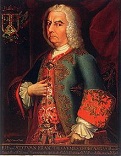





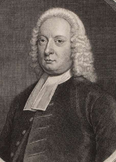



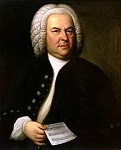
1746 On Jan. 17 the south-moving Scottish Highlander Jacobites under Bonnie Prince Charlie defeat the British at the Second Battle of Falkirk (first in 1298), becoming the last major Jacobite V; Earl Loudon, gov. of Stirling Castle loses most of his army and flees the "rout of Moy" to the safety of Skye, where he sits out the rest of the rebellion. In Feb. the French capture Brussels and Antwerp, followed by Mons and Namur. Time for the wappenshawing from hell? The last pitched battle on British soil, and it had to be with the *!?!* Scots? The Scottish Gettsburg? On Apr. 16 the Scottish Jacobite army of 7K Highlanders, led by "Young Pretender" Charles Edward Stuart (Bonnie Prince Charlie) is defeated by 8K British redcoat regulars led by the Duke of Cumberland at the 1-hour Battle of Culloden Moor on Drummossie Muir 6 mi. E of Inverness (not far from Loch Ness and Urquhart Castle), causing chicken Prince Charlie to flee to France with the help of Flora MacDonald (1722-90), becoming the last Stuart effort to reclaim the throne and the end of two cents. of Roman Catholic-Protestant war in England; he abandons 4K troops trying to regroup at Ruthven, telling them to fend for themselves, pissing them off at the yellow "Italian" (raised in Italy); Augustus is made capt.-gen. of the British army; to cement the Union of 1706 the British make a concerted attempt to destroy Scottish culture and language, eradicating the clan system and banning Highland dress (kilt and tartans) and the playing of the bagpipes (supposedly instruments of war) (until 1782), causing many Scots to emigrate, leaving the Highlands beautiful and empty of people; the last executions until WWI take place for POWs of the rebellion in the Tower of London; Highlanders are forced off their ancestral lands, and the culture goes underground, with many Scots scattered around the world (where many become famous inventors and engineers like Scotty on Star Trek?) - rather have a Hawaiian shirt? In June Russia and Austria form an alliance against Prussia. On July 9 Spanish king (since Nov. 1, 1700) Philip V (b. 1683) dies, leaving Spain stripped of its European possessions incl. Gibraltar and Minorca, and is succeeded by his 4th son (by Mari Luisa of Savoy) Ferdinand VI (the Learned) (1713-59), who becomes Spanish Bourbon king #3 (until Aug. 10, 1759), going on to patronize castrato Farinelli, end the influence of widow (of Philip V) Queen Elisabeth Farnese of Parma and her Italian courtiers, who retires fro the court, and pursue a policy of neutrality between France and Britain without renouncing its claim to Gibraltar; he builds up the royals-and-nobles-only city of Aranjuez 26 mi. S of Madrid (modern-day pop. 58K) on the site of the ancient town of Ara Jovis (Lat. "altar of Jove") and a royal summer palace built by HRE Philip II (1527-98), allowing non-royals to stay overnight in 1752; his treasury secy. the Marquis of Ensenada modernizes Spain, creating the Giro Real bank in 1752, registering ships to trade freely in the Americas, modernizing the navy, founding the Royal Academy of the Fine Arts of San Fernando in 1752, which patronizes composer Domenico Scarlatti, and improving relations with the Church. On Aug. 6 Christian VI (b. 1699) of Denmark dies, and is succeeded by his son Frederick V (1723-66) (until Jan. 14, 1766), revolting against his Pietist upbringing and becoming a wine-women-song hedonist, becoming an alcoholic whot leaves ruling to his ministers, who keep Denmark out of the Euro wars. On Aug. 19-20 Ft. Massachusetts at the W border of the Province of Mass. Bay is attacked and destroyed by the French allied with Indians. On Oct. 11 120K French troops under Gen. Maurice de Saxe defeat 80K-97K Austrians at the Battle of Roucoux, with 4K-5K Austrians KIA and 3K taken POW, vs. 3.5K French losses. On Oct. 22 the Presbyterian College of New Jersey (Princeton U. in 1896) in Elizabeth, N.J., founded by the New Light Presbyterians receives its charter as the successor to William Tennent's Log Cabin for the training of ministers, moving next year to Newark, N.J., and in 1756 to Princeton, N.J.; James Madison and Aaron Burr later attend, and are in the debating club (America's oldest) together. The First Carnatic War (ends 1748) between France and Britain over control of S India begins; the French oust the British from Madras and Machilipatnam (Bandar). Giovan Battista "Balilla" Perasso throws a stone at an Austrian official in Genoa, launching a revolt against the Hapsburgs. Rama Varma dies, and Veera Kerala Varma (d. 1749) becomes king of Cochin in S India. Henry Pelham's cabinet gets in a pissing war with George II over their desire to admit William Pitt, whom the king dislikes for his Hanoverian subordination comments; after the king forces the cabinet to resign, and gives the seal to Lord Bath (Pulteney), the latter can't find a majority, and gives the cabinet back with the compromise that Pitt will be relegated to the ministry instead as paymaster-gen. for the British forces; Lord Pelham becomes secy. of state. A royal edict is issued in Sweden against drinking coffee and tea due to "the misuse and excesses of tea and coffee drinking", with a heavy consumption tax and fines and confiscation of cups and dishes for failing to pay it, after which in ? consumption is completely banned, which only makes it more popular?, causing Gustav III to order the Swedish Coffee Experiment, forcing two identical twins condemned to death to drink three pots of one or the other for life to avoid execution, only to find it doesn't shorten their lifespans, which doesn't stop the govt. from renewing the ban in 1794, and again several times until the 1820s, after which Sweden becomes one of the most coffee-loving counries on Earth (until ?). Nockamixon ("at the place of three huts or soft soil") in Penn. is founded near the Delaware River. Italian painter Antonio Canaletto comes to England (until 1755). Charles de Lorraine (-1780) succeeds Charles Radclyffe as grandmaster of the Priory of Sion (until 1780) :). Poor Richard's Almanack for 1746. Architecture: New Palace in Stuttgart, Germany is begun (finished 1807). Science: Benjamin Franklin spends the summer experimenting with electricity. De Cheseaux's Comet is first observed on Aug. 13 by Philippe Loys de Cheseaux (1718-51). Jean-Etienne (Jean-Étienne) Guettard (1715-86) pub. the first geological map of France. German chemist Andreas Sigismund Marggraf (1709-82) isolates zinc by heating calamine and carbon, and pub. the discovery and gets credit although he isn't the first. 20,548 ft. (6,263m) Mount Chimborazo on the equatorial bulge in the Cordillera Occidental range of the Andes in Ecuador (whose summit is the point on the Earth's surface farthest from the Earth's center) is climbed by French academicians of the French Geodesic Mission to determine whether the Earth is spherical or oblate along with another team in Lapland, but they do not reach the summit; in 1802 an expedition led by Baron Alexander von Humboldt (1769-1859) reaches 5,875m, a record for Euros, giving up after suffering from altitude sickness; in 1831 Jean-Baptiste Joseph Dieudonne Boussingault (1801-87) reaches a new record of 6,006m; on Jan. 4, 1800 an expedition led by English mountaineer Edward Whymper (1840-1911) reaches the summit, becoming the first Euros to summit a mountain higher than 20K ft.; after some critics express doubt, he does it again later in the year. Nonfiction: Etienne Bonnot de Condillac (1715-80), Essai sur l'Origine des Connaissances Humaines (Essay on the Origin of Human Knowledge). Capt. Edward Danvers, A Voyage to Padanaram (3 vols.); East India ship Bonaventure; vol. 3 is about "the manners and customs of the Mahometans". Denis Diderot (1713-84), Philosophical Thoughts (Pensées philosophiques) (first work); argues for a reconciliation of reason with feeling, attempting to prove the existence of the Deist God from the organization of seeds, insects, etc.; "The Christian God is a father who prizes his apples but sets little value on his children"; "We are constantly railing against the passions; to them we ascribe all of man's afflictions while forgetting that they are the source of all pleasures...But what provokes me is that only their adverse side is considered... And yet only passions and great passions can raise the soul to great things. Without them the sublime no longer exists either in morals or in creativity"; "People begin to speak to us of God too soon, and another mistake is that his presence is not sufficiently insisted upon. Men have banished God from their company and have hidden him in a sanctuary; the walls of a temple shut him in, he has no existence beyond. Fools that you are, break down these limitations that hamper your ideas; set God free; see him everywhere, as he is everywhere, or say that he is non-existent. If I had a child to bring up, I would make his God his companion in such a real sense that he would perhaps find it less difficult to become an atheist, than to escape his presence. Instead of confronting him with a fellow-man (whom maybe he knows to be worse than himself) I would say outright: 'God hears you and you are lying.' Young people are influenced by their senses. I would multiply about him symbols indicating the divine presence. If there were a gathering at my house, I would leave a place for God, and I would accustom him to say: 'We were four - God, my friend, my tutor, and myself'"; in July the Paris Parlement orders it to be publicly burned, but can't obtain a copy, burning some random papers, making it more popular Jonathan Edwards (1703-58), A Treatise Concerning Religious Affections. John Gill (1697-1771), An Exposition of the New Testament (3 vols.) (1746-8); followed by "Exposition of the Old Testament" (6 vols.) (1748-63); his magnum opus, earning him an honorary doctor of divinity degree from the U. of Aberdeen in 1748, making him the first major Baptist theologian. David Hartley (1705-57), Conjecturae Quaedam de Motu, Sensus et Idearum Generatione - you gotta keep 'em separated? Samuel Johnson (1696-1772), A System of Morality; reprinted by Ben Franklin in 1752 as "Elementa Philosophica". Thomas Prince, The Salvations of God in 1746 (Boston). Music: Henry Carey (1692-1743), God Save the King; becomes the British nat. anthem after it is played in London in sympathy for George II, with a new anti-Scottish verse added after news of the Jacobite V at Prestopans. Art: Francois Boucher (1703-70), The Milliner; Madame Bergeret; Landscape with a Pond. Jean-Baptiste-Simeon Chardin (1699-1779), Amusements of Private Life. Etienne Maurice Falconet (1716-91), The Allegory of Sculpture (statue). Elias Gottlob Haussmann (1695-1774), Portrait of Johann Sebastian Bach. Joshua Reynolds (1723-92), The Eliot Family. Novels: Claude Prosper Jolyot de Crebillon (1707-77), La Nuit et le Moment. Christian Gellert (1715-69), Fabeln und Erzahlungen. Births: Swiss educator Johann Heinrich Pestalozzi (d. 1827) on Jan. 12 in Zurich; educated at the U. of Zurich. Swedish king (1771-92) Gustav (Gustavus) (Gustaf) III (d. 1792) on Jan. 24 (Jan. 13 Old Style); eldest son of Adolf Fredrik (1710-71) and Louisa Ulrika (1720-82) (sister of Frederick II the Great); brother of Charles XIII (1748-1818). French "Mademoiselle de Clermont" writer-educator Stephanie Felicite Ducrest de St.-Aubin, Comtesse de Genlis (AKA Madame Brulart) (d. 1830) on Jan. 25 in Champcery (near Autun); teacher of Louis-Philippe. Polish patriot, Am. Rev. gen. and hero Thaddeus (Tadeusz Andrzej Bonawentura) Kosciuszko (d. 1817) on Feb. 4 (Feb. 12?) in Mereczowszdzyzna (modern-day Merechevschina, Belarus). Am. Rev. War. gen. and statesman (DOI signer) Charles Cotesworth "C.C." Pinckney (d. 1825) on Feb. 25 in Charleston, S.C.; son of Charles Pinckney (-1758) and Eliza Lucas Pinckney (1722-93); brother of Thomas Pinckney (1750-1820); 2nd cousin of Charles Pinckney (1757-1824); educated at Oxford U. Corsican atty.-politician Nobile Carlo Maria (di) Buonaparte (d. 1785) on Mar. 27/29 in Ajaccio; son of Giuseppe Buonaparte (1713-63); father of Napoleon Bonaparte (1769-1821). Spanish artist Francisco Jose de Goya y Lucientes (d. 1828) on Mar. 30 in Fuendetodos (near Saragossa), Aragon; mother is of minor nobility, and father is a painter and gilder of altarpieces; apprentices from age 14-17 to Jose Luzan. French mathematician ("Father of Differential Geometry") (inventor of descriptive geometry) Gaspard Monge, Comte de Peluse (d. 1818) on May 9 in Beaune; created comte de Peluse in 1806. Am. composer Johann Friedrich Peter (d. 1813) on May 19 in Heerendijk, Netherlands; emigrates to the U.S. in 1770. English composer James Hook (d. 1827) on June 3 in Norwich. German educational reformer Joachim Heinrich Campe (d. 1818) on June 29 in Deensen. Irish statesman Henry Grattan (d. 1820) on July 3; educated at Trinity College, Dublin. Spanish gov. #5 of La. (1777-85) and Cuba Bernardo de Galvez (Gálvez) y Madrid, Viscount of Galveston and Count of Galvez (Gálvez) (d. 1786) on July 23 in Macharaviaya, Malaga; son of Matias de Galvez y Gallardo (1725-84); namesake of Galveston, Tex. Am. Rev War. politician (DOI signer) Thomas Heyward Jr. (d. 1809) on July 28 in St. Luke's Parish, S.C.; ancestor of DuBose Heyward (1885-1940); great-uncle of James Heyward Trapier. English Neoclassical architect James Wyatt (d. 1813) on Aug. 3; rival of Robert Adam (1728-92); brother of Samuel Wyatt (1737-1807); father of Benjamin Dean Wyatt (1775-1852), Philip Wyatt, and Matthew Cotes Wyatt (1777-1862). Dutch writer Hieronymus van Alphen (d. 1803)on Aug. 8 in Gouda. English (Welsh) hyperpolyglot (41 languages?) Orientalist-philologist Sir William Jones (d. 1794) on Sept. 28 in Westminster, London; educated at Univ. College, Oxford U.; knighted in 1783; founder of the Royal Asiatic Society; discoverer of the common roots of Indo-European languages in Sanskrit. Am. hymnodist (first Am. choral composer) William Billings (d. 1800) on Oct. 7 in Boston, Mass. Georgian king of Kartli and Kakheti (last) (1798-1800) George (Georgi) XII (d. 1800) on Nov. 10; son of Erekle II (1720-98) and 2nd wife Anna Abashidze. French Charles' Law inventor-mathematician-scientist-balloonist Jacques Alexandre Cesar (César) Charles (d. 1823) on Nov. 12 in Beaugency, Orleanais. Am. statesman (Freemason) ("the Chancellor") (co-drafter of the DOI) (chancellor #1 of New York State, 1777-1801) (U.S. foreign affair secy. #1, 1781-3) (U.S. minister to France, 1801-4) Robert Robert Livingston (d. 1813) on Nov. 27 in New York City; eldest son of Judge Robert Livingston (1718-75) and Margaret Beekman; one of 10 children; lives at Clermont Manor on the Hudson River; educated at King's College (Columbia U.); helps negotiate the Louisiana Purchase; known for quarreling with relatives. French Neoclassical painter Francois-Andre (François-André) Vincent (d. 1816) on Dec. 30; son of Francois-Elie Vincent (1708-90); student of Joseph-Marie Vien (1716-1809); rival of Jacques-Louis David. English writer Mary Anne Radcliffe (d. 1810). Deaths: British architect John James (b. 1673) on May 15 in Greenwich, London. Scottish-born Am. religious leader William Tennent (b. 1673) on May 6 in Warminster, Penn. French artist Guillaume Coustou the Elder (b. 1677). French Jesuit missionary Joseph-Francois Lafitau (b. 1681) in Bordeaux. Spanish Bourbon king #1 (1700-46) Philip V (b. 1683) on July 9 in Madrid. Italian architect Giacomo Leoni (b. 1686) on June 8 in London, England; dies after making Palladian architecture the std. in England; leaves unfinished "Treatise of Architecture and ye Art of Building Publick and Private Edifices - Containing Several Noblemen's Houses & Country Seats". Scottish philosopher Francis Hutcheson (b. 1694) on Aug. 8. German-born Am. newspaper publisher John Peter Zenger (b. 1697). Scottish mathematician Colin Maclaurin (b. 1698) on June 14. Scottish poet Robert Blair (d. 1699) on Feb. 4. Danish-Norwegian king (1730-46) Christian VI (b. 1699) on Aug. 6.

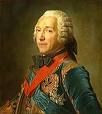













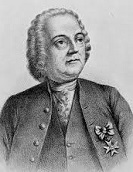


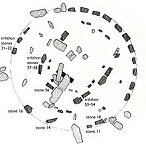
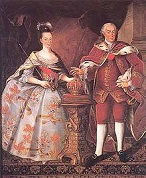
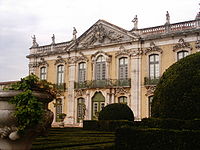
1747 There are measles epidemics in Conn., N.Y., Penn., and S.C. In Jan. Louis XV appoints Maurice, Comte de Saxe (1696-1750) as marshal-gen. of France; on July 2 the Battle of Lauffeld in Holland W of Maastricht is a V for France over Britain and its allies; ailing hero Marshal de Saxe retires and becomes the great-grandfather of novelist George Sand. In Jan. the French Army of the Piedmont under Charles Louis Auguste Foquet, Duke de Belle-Isle (1684-1761) drives the Austrians back from Provence into Italy; on July 19 the Piedmontese defeat the French at the Battle of Assietta near Colle dell'Assietta in Savoy, with 5K French vs. only 77 Sardinian casualties. On May 4 after the French army enters Flanders in Apr. to quell internal strife, the Netherlands States Gen. appoints Prince William IV of Orange-Nassau (1711-51) as the first hereditary stadholder of the seven provinces of the Netherlands (until Oct. 22, 1751), who moves from Leeuwarden to The Hague and appoints Duke Louis Ernest of Brunswick-Luneburg (1718-88) as field marshal of the Dutch army on Nov. 13, 1750. On May 14 14 British ships under adm. Sir George Anson defeat a 30-ship French convoy under adm. Jacques-Pierre de Taffanel de la Jonquiere (Jonquière) (1685-1752) (gov. of New France since last Mar. 1) in the First Battle of Cape Finisterre in the Bay of Biscay, then defeat a 6-ship French convoy under adm. Desherbiers de l'Entenduere (l'Etenduère) on Oct. 25 in the Second Battle of Cape Finisterre, ending French attempts to fight the British blockade, for which Anson is made a baron. When a king is a musician, the good jobs go to composers with training, or, Battle of the Giants? In May #1 classical music brain man Johann Sebastian Bach (1685-1750) ("Old Bach") makes a surprise visit to Potsdam to see his son Carl Philipp Emanuel Bach, who is the capellmeister (choirmaster) at Frederick II the Great's court; the king summons him to court despite having just arrived from a 2-day coach ride, gives him a tour of his 15 Silbermann pianos, and then tries to trap him by inviting him to play each one of them, and compose a 3-part fugue in his head based on a theme he provides and then play it; Old Bach does it, so Freddy (confusing Bach in his mind with his mean father?) ups the demand to a 6-part fugue on the same theme, which Bach declines for the moment; the next day Bach plays every organ in Potsdam; after returning to Leipzig, on July 7 he composes The Musical Offering (Das Musikalisches Opfer), which incl. one 3-part fugue, one 6-part ricercar (fugue), 10 canons, and a trio sonata, and dedicates it to Freddy with the inscription "Regis Iusu Cantio Et Reliqua Canonica Arte Resoluta" (At the King's Command, the Song and the Remainder Resolved with Canonic Art) (RICERCAR); the Italian word ricercare means "to seek". On June 9 emperor (since 1735) Sakuramachi (b. 1720) abdicates in favor of his 6-y.-o. son Momozono (Toohito) (1741-62), who becomes Japanese Yamato emperor #116 (until Aug. 31, 1762). On June 20 cruel shah (since Mar. 8, 1736) Nadir (Nader) Shah (b. 1688) is assassinated with popular approval by his own military bodyguard in a palace revolt, and in Oct. Hanafi Sunni Muslim ethnic Pashtun (Sadozay clan of the Abdali tribe) (who claim descent from the lost Israeli tribe of Joseph) Ahmad (Ahmed) Shah Durrani (1724-73), the bodyguard cmdr. proclaims himself king (shah) of Afghanistan in Kandahar, adopting the title Duran Duran, er, Durr-i Duran (Pearl of Pearls), founding the Durrani Dynasty in Afghanistan and E Persia, led by his Sadozay clan (until 1826), going on to puncture, er, jab, er, invade the Punjab 6x in 1748-52, and 2x more in 1753-67; meanwhile the rival Barakzay clan waits in the wings in Afghanistan, and Nadir's Afshar dynasty holds on in Mashhad and Khurasan province under Ebrahim Afshar (-1748), nephew of Nadir Shah, who on July 6 becomes king (until Sept. 1748); meanwhile his brother Adil Shah (Pers. "righteous king") kills all other heirs to the throne and proclaims himself shah, but isoverthrown and killed by his own troops next Sept. 24; meanwhile Karim Khan Zand (1705-79) of the Persian Zand tribe (a former soldier in Nadir Shah's army) controls W Persia, with capital at Shiraz, taking the title of wakil (deputy) instead of shah and reversing Nadir Shah's anti-Shiite policy, establishing a dynasty that lasts until 1794; meanwhile Mamluk officers of Georgian origin obtain autonomy of Iraq from the Turkish sultan (until 1831), going on to suppress tribal revolts and bring peace on the Iran-Iraq frontier, curb the Janissaries, and modernize the economy and military. On Oct. 24 the Ohio Co. of Virginia is formed. Sweden and Prussia form an alliance for mutual defense. Ang Tong becomes king of Cambodia (until 1749). England institutes a carriage tax. Frederick II the Great orders the Oder Valley drained (finished 1753), and arranges for 300K new immigrants to Prussia, along with the growing of potatoes (used for hog feed in the rest of Europe) and improved conditions for serfs on royal lands; he also issues an edict prohibiting the baking of chocolate. Robert Harper sets up a ferry at the junction of the Potomac and Shenandoah Rivers, which grows into the town of Harpers Ferry, W. Va. - no apostrophes, please? The United Society of Believers in Christ's Second Appearing (Shakers), led by James Wardley secede from the less shaking Quakers in Manchester, England, going on to build 19 communities and gain 200K converts over the next cent., concentrated in New England, N.Y., Ohio, and Ky., although never more than 6K at a time since they require strict sexual abstinence, and getting preggers would be a turnoff, although adoption of orphans is okay; they become known for their simplistic Shaker furniture; by 2000 they are down to six living at Sabbathday Lake near Auburn, Maine. English brain man William Whiston (1667-1752) walks out of an Anglican church as they are reading the Athanasian Creed, and joins the Baptists. The Burger Wars, er, Burgher-Antiburgher War starts when the Synod of the Secession Church of Scotland splits over the words "the true religion presently professed" in the oath of office for burghers; the antiburghers hold that the phrase refers to the corrupt Established Church of Scotland, and the burghers hold that it only means the Protestant religion - will you have an elf drop by and demonstrate? David Garrick becomes co-owner and co-mgr. of Drury Lane Theatre, enforcing his own acting style on all the actors and creating an ensemble, ending the custom of letting the privileged sit on the stage, and producing 24 Shakespeare plays - I was completely in tears until I clicked? Poor Richard's Almanack for 1747. Benjamin Franklin writes The Speech of Polly Baker, a long article for a British newspaper about Polly Baker, an unwed New Englander prosecuted for giving birth to a 5th illegitimate child, but whose impassioned plea causes the judges to acquit her and one of them to marry her the next day; three decades later Franklin finally admits that the article is a hoax - pull my finger and I'll tell you? Architecture: After marrying Queen Maria I, thePalace of Queluz in Qeluz, Sintra (near Lisbon), Portugal is begun by Portuguese architect Mateus Vicente de Oliveira (1706-86) as a summer retreat for Dom Pedro (Peter III) of Braganza as an attempt to rival the Escorial Place in Spain, becoming one of the last great Rococo bldgs. in Europe, known as the Portuguese Versailles; after Dom Pedro's death in 1786, his consort Queen Maria I goes mad, and she is confined in the Pavilion (Pousada) of Dona Maria (finished 1792), designed by architect Miguel Caetano de Sousa (1738-1802), even holding the Cortes there. The Italian Nat. Library (Biblioteca Nazionale) in Florence, Italy is founded. The Polish Nat. Library in Warsaw is founded by brothers Jozef Andrzej Zaluski and Andrzej Stanislaw Zaluski. Science: On Apr. 8 French opthalmologist Jacques Daviel (1696-1762) performs the first extracapsular cataract extraction surgery, becoming the first significant advance since couching in ancient India - just use a laser? Benjamin Franklin's Library Co. receives a long glass Collinson tube for generating static electricity, and Franklin begins experimenting with it, having more tubes made for his use; he first uses the terms positive (plus) and negative (minus) to describe electrical charges, asserting that electricity is not two types of fluid but one. Swedish-Finnish botanist Pehr (Pietari) Kalm (1716-79) begins a 3-year plant-collecting tour of North Am. under sponsorship of the Swedish Academy of Sciences. Edinburgh physician James Lind (1716-94) discovers that lemons and oranges cure Scurvy, while vinegar, garlic, and seawater are ineffective; British ships begin carrying limes from Montserrat Island in the Caribbean, causing British seamen to become known as limeys. German chemist Andreas Sigismund Marggraf (1709-82) discovers sugar in beet roots, also a pure form of zinc; his student Franz Karl Achard (1753-1821) goes on to devise an economical industrial method to extract pure sugar from beets. French scientists Pierre de Maupertuis (1698-1759) (whose portrait bears a striking resemblance to actor Bob Hope (1903-2004)?) and Alexis Claude Clairaut (1713-65) return from expeditions to Peru and Lapland with proof that the Earth is oblate as predicted by Newton, not ovoid as predicted by Descartes - he laid an egg? Nonfiction: Olof von Dalin, Svea Rikes Historia (History of Sweden) (3 vols.) (1747-62). Denis Diderot (1713-84),The Skeptic's Walk (La Promenade du sceptique); a dialogue between a deist, atheist, and pantheist on the nature of God, which pisses-off the local authorities, who seize the ms., causing pub. to be delayed until 1830. Benjamin Franklin (1706-90), Plain Truth; Biographia Britannica (1747-66). Dr. Samuel Johnson (1709-84), Plan of a Dictionary of the English Language; how he reached an agreement with pub. firm in 1746, and tells them it will take three years, but it ends up taking eight, working out of his lodgings at 17 Gough Square with his amanuenses (finished 1755). Julien Offray (Offroy) de la Mettrie (1709-51), Man A Machine (L'homme machine); written at the court of Frederick II the Great; argues that thought is a property of organized matter, and reduces philosophy to a fight between spiritualists (boo) and materialists (hooray): "The brain has muscles for thinking as the legs have muscles for walking" - what about that third leg? Abbe Prevost (1697-1763), Travels (20 vols.); pub. by Francois Didot. John Rocque, Plan of the Cities of London and Westminster. Thomas Simpson (1710-61), Elements of Geometry. William Stith (1707-55), The History of the First Discovery and Settlement of Virginia. Gilbert West, Observations on the Resurrection. John Wood the Elder (1704-54), Choir Gaure, Vulgarly Called Stonehenge, on Salisbury Plain; the most important detailed plan yet made, allowing modern computer models, pissing-off antiquarian William Stukeley by claiming that the Druids were pagan not Biblical patriarchs. Music: J.S. Bach (1685-1750), The Musical Offering (Das Musikalisches Opfer) (July 7). G.F. Handel (1685-1759), Judas Maccabaeus (oratorio) (Covent Garden, London). Jean-Philippe Rameau (1683-1764), Les Fetes de l'Hymen et de l'Amour (opera) (Versailles) (Mar. 15); first of several librettos by Freemason Louis de Cahusac (1706-59); composed for the dauphin's marriage to Maria Josepha of Saxony. Jean-Jacques Rousseau (1712-78), Les Muses Galantes (opera). Art: Francois Boucher (1703-70), Shepherd Piping to a Shepherdess (1747-50). Plays: Charles Colle, La Verite Dans le Vin (comedy of manners). David Garrick (1717-79), Miss in her Teens, or The Medley of Lovers (comedy). Christian Gellert (1715-69), Die Kranke Frau (comedy). Poetry: William Collins (1721-59), Ode to Evening; "Then lead, calm votaress, where some sheety lake/ Cheers the lone heath, or some time-hallowed pile,/ Or upland fallows grey/ Reflect its last cool gleam"; a landmark in the transition from classicism to Romantic goop? Friedrich Gottlieb Klopstock (1724-1803), An Meine Freunde; repub. in 1767 as "Wingolf". Novels: Samuel Richardson (1689-1761), Clarissa; Or, The History of a Young Lady. Voltaire (1694-1778), Zadig; or, The Book of Fire; based on "The Three Princes of Serendip". Births: French #1 watchmaker Abraham Louis Breguet (d. 1823) on Jan. 10 in Neuchatel, Switzerland. German Titus-Bode Law astronomer Johann Elert Bode (d. 1826) on Jan. 19 in Hamburg; has a bad right eye; names the planet Uranus. British vice-adm. Sir John Thomas Duckworth, 1st Baronet (d. 1817) on Feb. 9 in Leatherhead, Surrey; created baronet in 1813. French rev. leader Louise Philippe Joseph, Duc d'Orleans (AKA Philippe Egalite) (Philippe Égalité) (d. 1793) on Apr. 13 in Chateau de Saint Cloud, Saint-Cloud; son of Louis Philippe I (1725-85) and Louise Henriette de Bourbon-Conti (1726-59); father of Louise Philippe (1773-1850). French gen. Armand Louis de Gontaut Lauzun, Duc de Biron (d. 1793) on Apr. 15 in Paris; great-grandnephew of Charles de Gontaut (1562-1602). Austrian next-to-last HRE (1790-2) and grand duke of Tuscany (1761-90) Leopold II (Peter Leopold Josef Anton Joachim Pius Gotthard) (d. 1792) on May 5 in Vienna; son of Francis I; brother of HRE Joseph II; father of grand duke Ferdinand III (1769-1824); educated for the priesthood, turning him off to the Church. Am. Rev. War naval officer ("I have not yet begun to fight") John Paul Jones (d. 1792) on July 6 in Kirkcudbright, Scotland; birth name is John Paul; adds the surname Jones after he becomes a fugitive from British justice in 1773; sails as a cabin boy to Fredericksburg, Va. at age 12 to live with his brother William. German anti-Kantian historian-philosopher Christoph Meiners (d. 1810) on July 31 in Warstade (near Ottendorf); educated at the U. of Gottingen. Am. Tenn. politician William Cocke (d. 1828) on Sept. 6 in Amelia County, Va.; father of John Alexander Cocke (1772-1854); grandfather William Michael Cocke (1815-96). South African explorer Petrus Johannes (Jan Pieter) Truter (d. 1825) on Dec. 17 in Cape Town. Am. pioneer (founder of Wheeling, W. Va.) Ebenezer Zane (d. 1811) in Moorefield, Va. (modern-day W. Va.); maternal great-grandfather of Zane Grey (1872-1939). Francis Salvador (d. 1776) in London; grandson of Joseph Salvador, first Jewish dir. of the East India Co., who arranged for the 7-man delegation to congratulate George III on his accession; emigrates to the U.S. in 1773; first Jew to be elected to an Am. colonial legislature, to serve in the Continental Congress, and to die for the cause of Am. liberty. Am. surveyor-historian John Filson (d. 1788) in Chester County, Penn. New England horse breeder Justin Morgan (d. 1798). Am. Rev. War. soldier (black) Salem Poor (d. 1802) in Andover, Mass.; buys his freedom in 1769. Hungarian dramatist-poet Gyorgy Bessenyei (d. 1811) in Berczel, Szabolcs; of noble birth. Am. printer John Dunlap (d. 1812) in Strabane, County Tyrone, Northern Ireland; emigrates to the U.S. in 1757. Russian Alaskan explorer-trader Alexander Andreyevich Baranov (d. 1819) in Kargopol, St. Petersburg. Am. Rev. War. brig. gen. (founder of Knoxville, Tenn.) James White (d. 1821) in Rowan County, N.C. Deaths: Italian antiquarian Francesco Ficoroni (b. 1664) in Rome. Italian painter Giuseppe Crespi (b. 1665) on July 16. French novelist-dramatist Alain-Rene Lesage (b. 1668). Scottish field marshal John Dalrymple, 2nd earl of Stair (b. 1673) on May 9 in Edinburgh. German field marshal Leopold I of Anhalt-Dessau (Der Alte Dessauer) (b. 1676) on Apr. 7 in Dessau. English academic Joseph Trapp (b. 1679) on Nov. 22 in Harlington (pleurisy). Persian king Nadir Shah Afshar (b. 1688) on June 19 (assassinated).
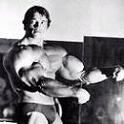


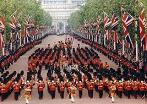


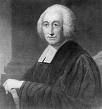




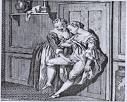




1748 On July 18 the Battle of Beukendaal (Beechdale) near Schenectady, N.Y. sees the Dutch farmer militia put up a fight against French and Indians. On Oct. 18 after Russian troops march through Bohemia toward the Rhine River, the War of the the Austrian Succession (King George's War) (War of Jenkins' Ear) (begun 1740) is ended by the Treaty of Aix-la-Chapelle (Aachen), a gen. recognition of the Pragmatic Sanction and of HRE Francis I; France returns the Austrian Netherlands and the British colonies; Louisbourg is returned by Britain to the French, which enrages New Englanders, but in return they give Madras back to the British, ending the First Carnatic War (begun 1746); the British privilege of transporting slaves to Spanish Am. is renewed, but the problem of Spanish searching of British ships is avoided; Frederick II of Prussia retains Silesia, sewing the seeds for another European war later; Parma is given to Charles II's younger brother Philip (Felipe) of Spain (1720-65); Savoy receives parts of Milan; Italy now enjoys a half-cent. of peace, during which the Kingdom of the Two Sicilies prospers. On Nov. 10 the Trooping the Colour Ceremony at the Horse Guards Parade in Whitehall Palace next to St. James's Park is first performed to mark British king George II's official birthday; it is later held on the 2nd Sat. in June. Nadir Shah's grandson Shah Rukh (Shahrokh Shah Afshar) (1730-96) becomes ruler of Persia (until 1796). John Montagu, 4th Earl of Sandwich (1718-92), known for eating sandwiches while playing cribbage is appointed first lord of the admiralty, and begins rebuilding the English navy. Bonnie Prince Charlie (b. 1788) is expelled from France, and roams around Europe, becoming a broken drunkard with an infected johnson - hoping to marry some money? Lord Chesterfield (d. 1773) retires from politics, and spends the rest of his life in ease. Madame Marie Therese Rodet Geoffrin (1699-1777) sets up a salon in Paris for Encyclopedists and artists, later attracting David Hume and Horace Walpole. Hereditary jurisdiction is abolished in suffering Scotland. Fur traders from Penn. and Va. begin establishing contacts with the natives in the Ohio River Valley; George II grants 500K acres in W Va. to the Ohio Land Co.; self-made man Benjamin Franklin (1706-90) retires from the printing business to concentrate on scientific experiments, buys a farm in the garden colony of N.J., changes his mind, and organizes a military assoc. for the defense of Penn. John Findlay discovers a passage through the Blue Ridge Mts. of the Appalachians, which he names the Cumberland Gap. The Shawnees and Iroquois hold a grand council which appoints Seneca chief Tanaghrisson (Tanacharison) (1700-54) as "half-king" over the Ohio Indians, and gives Oneida chief Scarouady ("on the other side of the sky") supervision over the Shawnees as the other "half-king". The British Board of Trade comes under the leadership of an aggressive new pres. who renders it more active and authoritative (ends 1761). The British navy and army settle relative ranks by dividing navy capts. into three grades, with those not eligible for promotion to rear adm. called "masters and commanders", and the letter C placed after their names; the rank is shortened to commander in 1794, with the abbrev. cdr. used in 1826. 16-y.-o. George Washington meets his distant relative, Scottish peer Thomas Fairfax, 6th Lord Fairfax of Cameron (1693-1781), who administers the 1649 land grand known as the Northern Neck Proprietary, and hires him to survey his lands W of the Blue Ridge Mts.; next July 24 he surveys and plats the town of Washington, Va. (AKA Little Washington) 70 mi. W of modern-day Washington, D.C. (modern-day pop. 135), which is officially established as a town by the Va. gen. assembly on Dec. 14, 1795 after it reaches a pop. of 200, becoming the first U.S. town named after the Father of Our Country. Christian brothers Johann Philipp Bethmann (1715-93) and Simon Moritz Bethmann (1721-82) found the Bethmann Banking Family in Frankfort, N Germany (ends 1976), which becomes a rival to the Jewish House of Rothschild, and also becomes known for philanthropy towards Jews, causing a rumor that they are secret Jews? Henry Melchior Muhlenberg (1711-87) of Germany, who arrived in Charleston, S.C. on Sept. 23, 1742 and settled in Philadelphia organizes Am. Dutch, Swedish, and German Lutherans into the Pennsylvania Ministerium, becoming the first Lutheran church synod in North Am. Count von Zinzendorf is permitted to return to Herrnhut for life (until 1760). Parson Joseph Greene, master of Stratford-upon-Avon Grammar School in England organizes the first recorded performance of a play ("Othello"?) by William Shakespeare in his hometown to fund the restoration of his funerary monument, performed by the Warwickshire Co. of Comedians in Birmingham. The French parliament forbids cultivation of the potato in the belief that it causes leprosy. ? Alcubierre, engineer for the king of Naples sinks a shaft into ancient Pompeii's business quarter through 20 ft. of volcanic debris, unearthing a wall painting and a dead Pompeian with a fistful of gold on a cobbled street, causing him to begin an excavation. Henry Fielding becomes a justice of the peace for Westminster, mainly concerned with ruffianism, which furnishes material for his novels. Gotthold Ephraim Lessing (1729-81) graduates from the U. of Leipzig, then moves to Berlin, where he becomes lit. critic of the Vossische Zeitung (1751-5). Thomas Lowndes (1692-1748) leaves a bequest founding the Lowndean chair of astronomy at Cambridge. A subscription library opens in Charleston, S.C. The Holywell Music Room in Oxford, England opens. The Bow Porcelain Factory in England is founded (first English soft-paste porcelain factory?); in 1775 is is purchased by Derby. Poor Richard's Almanack for 1748. Sports: The English Court of the King's Bench rules that cricket is a "legal sport" not covered by the 1710 statute of Queen Anne (9.16). Inventions: Lewis Paul (-1759) of Birmingham, England invents the hand-driven wool carding maching. Science: After 18.5 years of measurements, English astronomer royal James Bradley announces that the Moon's pull affects the direction of the Earth's axis (nutation). English physician John Fothergill (1712-80) first describes diphtheria. French physicist Abbe Jean-Antoine Nollet (1700-70) invents the Electroscope, and describes how a cylinder filled with alcohol, closed with an animal bladder and immersed in water causes the bladder to swell to bursting as water passes in and alcohol can't pass out, becoming the first description of Osmotic Pressure (Gr. "osmos" = impulse). Nonfiction: Archibald Bower (1686-1766), History of the Popes (7 vols.) (1748-66). Leonhard Euler (1707-83), Analysis Infinitorum. Rev. William Gilpin (1724-1804), A Dialogue upon the Gardens... at Stow in Buckinghamshire. Johann Christoph Gottsched (1700-66), Grundlegung einer Deutschen Sprachkunst. Ludvig Holberg (1684-1754), Letters (5 vols.) (1748-54). David Hume (1711-76), Philosophical Essays (An Enquiry Concerning Human Understanding) (1748-53); a condensation of his 1739 "Treatise". Baron de Montesquieu (1689-1755), The Spirit of the Laws (De l'Espirit des Loix) (English trans. 1750); examines the republic, monarchic, and despotic forms of govt., and advocates the principle of the separation of powers of govt. ; claims that climate influences nat. character. Thomas Simpson (1710-61), Trigonometry, Plane and Spherical. John Peter Stehelin, The Traditions of the Jews, with the Expositions and Doctrines of the Rabbins; abriged English tr. of "ENtdecktes Judenthum" (1700) by Johann Andreas Eisenmenger (1654-1704). Antonio de Ulloa (1716-95), A Voyage to South America. Peter Whalley, An Inquiry Into the Learning of Shakespeare; With Remarks on Several Passages of His Plays in a Conversation Between Eugenius and Neander. Music: J.S. Bach (1685-1750), The Art of the Fugue (Die Kunst der Fuge) (BMV 1080) (1748-50); 12 fugues and two canons. Carlo Goldoni (1707-93), La Favola dei Tre Gobbi (opera bouffe). Jean-Philippe Rameau (1683-1764), Zais (Zaïs) (opera) (Paris Opera) (Feb. 29); libretto by Louis de Cahusac; incl. Zais Overture, which depicts the emergence of the four elements from chaos. Frantisek Xaver Richter (1709-89), La Deposizione della Croce (oratorio). Art: Francois Boucher (1703-70), The Bird Catchers; The Fountain of Love. Thomas Gainsborough (1727-88), Cornard Wood; Mr. and Mrs. Robert Andrews. William Hogarth (1697-1764), O the Roast Beef of Old England (The Gate of Calais) (satire). Plays: Prosper Jolyot de Crebillon (1674-1762), Catilina. Carlo Goldoni (1707-93), La Putta Onorata (The Honorable Maid) (comedy); La Buona Moglie (The Good Wife) (comedy). Carlo Gozzi (1720-1806), Turandot. Gotthold Lessing (1729-81), Der Junge Gelehrte (comedy); his first play, while a student at the U. of Leipzig. Poetry: William Collins (1721-59), Ode to Evening; Ode to Simplicity; Elegy to James Thomson. Friedrich Gottlieb Klopstock (1724-1803), Der Messias (The Messiah) (20 cantos) (1748-73); pub. anon.; inspired by John Milton's "Paradise Lost"; first 10 cantos are a big hit in Germany. Ambrose Philips (1674-1749), Collected Poetry (posth.). Novels: John Cleland (1709-89), Fanny Hill, Memoirs of a Woman of Pleasure (Nov. 1748/Feb. 1749); first work of pornography in English; writes it in Fleet Prison (debtor's priz); gets him arrested in Nov. 1749, at which time he disavows the novel, causing pirate eds. to flourish, incl. one with a male rump-ranging episode, fueling rumors of his homosexuality, esp. as he never marries. Samuel Richardson (1689-1761), Clarissa, or The History of a Young Lady. Tobias Smollett (1721-71), The Adventures of Roderick Random (picaresque). Births: German Romantic "Lenore", "Der Wilde Jager" lyric poet Gottfried August Burger (Bürger) (d. 1794) on Jan. 1 in Molmerswende (near Halberstadt). German Bavarian Order of the Illuminati founder Johann Adam Weishaupt (d. 1830) (d. 1811?) on Feb. 6 in Ingolstadt, Bavaria; educated at the U. of Ingolstadt. British jurist, economist and radical (pro-democracy) social philosopher (atheist) Jeremy Bentham (d. 1832) on Feb. 15 (Feb. 4 Old Style) in London; educated at Queen's College, Oxford U.; co-founder of Utilitarianism. Dutch prince of Nassau-Orange (1751-1806) (2nd and last hereditary Stadtholder of the Dutch Repub.) William V (d. 1806) on Mar. 8 in The Hague; only son of William IV (1711-51); father of King William I (1772-1843). Am. Quaker liberal minister Elias Hicks (d. 1830) on Mar. 10 in Rockaway, Long Island, N.Y. Scottish uniformitarian geologist John Playfair (d. 1819) on Mar. 10; disciple of James Hutton (1726-97). English engineer-inventor (inventor of the hydraulic press) (father of the machine tool industry?) Joseph Bramah (d. 1814) on Apr. 13 in Wentworth, Yorkshire. French "What is the Third Estate?" priest Comte (Abbe) Emmanuel Joseph Sieyes (Sieyès) (d. 1836) on May 3 in Frejus (Fréjus). Am. Rev. War gen. Peleg Wadsworth (d. 1829) on May 6 in Duxbury, Mass.; maternal grandfather of Henry Wadsworth Longfellow (1807-82); educated at Harvard U. French "Declaration of the Rights of Woman" feminist-abolitionist playwright-journalist Olympe de Gouges (Marie Gouze) (d. 1793) on May 7 in Montauban, Tarn-et-Garonne. English statesman-poet-dramatist Frederick Howard, 5th Earl of Carlisle (d. 1825) on May 28; son of Henry Howard, 4th earl of Carlisle (1694-1758). English "The History of Sandford and Merton" writer Thomas Day (d. 1789) on June 22 in Wellclose Square, London; educated at Corpus Christi, Oxford U.; pro-Rousseau and pro-Am. Rev. German naturalist Johann Friedrich Gmelin (d. 1804) on Aug. 8 in Tubingen; educated at the U. of Tubingen. French Jacobin painter (Freemason) ("Stage Manager of the French Revolution") ("the Robespierre of the Brush")Jacques-Louis David (d. 1825) on Aug. 30 in Paris; a fencing injury leaves him with a funny facial expression and a speech impediment and later a benign tumor, causing him to be known as "David of the Tumor"; has twin daughters, who both marry generals. British vice adm. Cuthbert Collingwood, 1st Baron Collingwood (d. 1810) on Sept. 26 in Newcastle upon Tyne, Northumberland. Swedish king (1809-18) and Norwegian king (1814-18) Charles (Carl) XIII (d. 1818) on Oct. 7; 2nd son of Adolf Frederick (1710-71) and Louisa Ulrika of Prussia (1720-82) (sister of Frederick II the Great); brother of Gustav III (1746-92). Am. Thomas Jefferson's wife (1772-82) Martha Wayles Skelton Jefferson (d. 1782) on Oct. 30 (Oct. 19 Old Style) in Charles City County, Va.; Lancaster, England-born father John Wayles (1715-73) and Va.-born mother, who brings personal slave Susanna plus 120+ other slaves as part of her dowry, who bears 11-y.-o. daughter Elizabeth "Betty" Hemings (1735-1807), mother with John Wayles of Mary Hemings (1753-1835) and Sally Hemings (1773-1835); mother of Martha Jefferson "Patsy" Randolph (1772-1836). Am. lawyer-jurist-writer Hugh Henry Brackenridge (d. 1816) in Kintyre (near Campbelltown), Scotland; emigrates to the U.S. in 1853; educated at Princeton U. Spanish Bourbon king #4 (1788-1808) Charles IV (d. 1819) on Nov. 11 in Portici; 2nd son of Charles III (1716-88) and Maria Amalia of Saxony. French chemist (atheist) Claude Louis Berthollet (d. 1822) on Dec. 9 in Talloires (near Annecy), Savoy; educated at the U. of Turin; not to be confused with French chemist Pierre Berthelot (1827-1907). Afghani Durrani shah #2 (1773-93) Timur Shah Durrani (d. 1793) in Mashhad; ethnic Pashtun; son of Ahmad Shah (1724-73). Montenegran prince-bishop (1784-1830) (St.) Peter I (d. 1830) in Njegusi. Deaths: Swiss mathematician Jean Bernoulli (b. 1667) on Jan. 1 in Basel. Scottish surgeon Charles Maitland (b. 1668) in Aberdeen. English bishop Edmund Gibson (b. 1669). Indian ruler of Hyderabad (1720-48) Nizam-ul-Mulk (b. 1671) on June 1 in Burhanpur. English actress Anne Bracegirdle (b. 1674). English "When I Survey the Wondrous Cross", "There Is a Land of Pure Delight" hymn writer Isaac Watts (b. 1674) on Nov. 25; wrote 700+ hymns and psalms. German composer-organist Johann Gottfried Walther (b. 1684) on Mar. 23. English painter-architect-gardener William Kent (b. 1685) on Apr. 12 in London. English academic William Holmes (b. 1689) on Apr. 4. German physicist Eward Georg von Kleist (b. 1700) on Dec. 11. Scottish poet-dramatist James Thomson (b. 1700) on Aug. 27 in Richmond upon Thames, England.





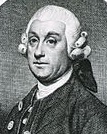







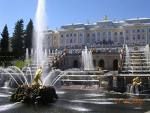

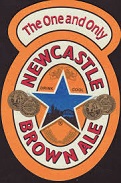
1749 On Jan. 3 N.H. gov. (1741-67) Benning Wentworth (1696-1770) begins issuing the New Hampshire Grants on lands in Vt. claimed by New York. On Jan. 11 the Ohio Co. petitions King George for a grant of lands, and proposes to build a fort there; the petition is granted on Mar. 16. In Jan. Veera Kerala Varma dies, and Rama Varma (d. 1760) becomes king of Cochin. In Apr. Benjamin Franklin surmises that lightning is a form of electricity, and warns that it is dangerous to take shelter under a tree during a "thunder gust". On May 2 after help from young surveyor George Washington, the city of Alexandria, Va. at Hunting Creek Warehouse in Fairfax County on the W bank of the Potomac River 7 mi. S of modern-day Washington, D.C. (modern-day pop. 139K) is founded as Belhaven; it is incorporated as Alexandria in 1779; in 1791 it becomes part of the District of Columbia. On May 11 the Consolidation Act reorganizes the British Navy. On June 1 Francois Piquet founds a mission at Oswegatchie (Ogdensburg), N.Y. at the confluence of the Oswegatchie and St. Lawrence Rivers (modern-day pop. 11K), which attracts many Iroquois to the French side; on June 21 Father Le Loutre's (Anglo-Micmac) (Indian) War begins when Gen. Edward Cornwallis arrives with 13 transports carrying 1,176 settlers and their families along with a war sloop to found the Atlantic seaport of of Halifax (named after the 2nd Earl of Halifax) in Nova Scotia on a hill overlooking Chebucto Bay (Halifax Harbor) (modern-day pop. 403K) as a countermeasure to the fortress of Louisbourg, going on to become Canada's main Atlantic seaport and capital of Nova Scotia. On June 22 David Garrick marries devout Roman Catholic Viennese opera dancer Eva Maria Veigel (1724-1822), AKA "La Violette", who doesn't even speaka da English, which pisses-off several of his actresses, who leave for the rival Covent Garden Theatre Co., causing each to put up a production of Shakespeare's "Romeo and Juliet" next year, which Covent Garden loses, closing after 12 performances. In the summer Benjamin Franklin kills turkeys with the electricity from a big battery, commenting that "The birds killed in this manner eat uncommonly tender." The Second Carnatic War (ends 1754), an unofficial war between the British East India Co. and the French Compagnie des Indes for control of S India begins when British adm. Edward Boscawen (1711-61) sieges French-held Pondicherry, which is defended by Marquis Dupleix for five weeks without success. The Al Bu Said (Sa'id) Dynasty is founded in Oman (SE Arabia) (until ?) and Zanzibar (until 1964). Chey Chettha V (Ang Sngoun) becomes king of Cambodia (until 1755). The gov. of New France sends an exploratory force under Montreal-born Capt. Pierre-Joseph de Celeron de Blainville to claim the Ohio River for France and establish the first settlement for the Ohio Co. A fortress is established in Halifax, Novia Scotia. The French trading post of Ft. Rouille (Rouillé) (later Toronto) in Ontario, Canada is founded; it is abandoned in 1759. Georgia becomes a crown colony. The city of Port-au-Prince (formerly Hopital) (allegedly named for the ship Le Prince that sailed there in 1706) on the Gulf of Gonave in the French part of Hispaniola (Saint-Domingue) (modern-day Haiti) (modern-day pop. 987K/2.6M) is built; in 1770 it replaces Cap-Francais (modern-day Cap Haitien) as the capital; in 1804 it becomes capital of independent Haiti. The city of Rostov-on-Don at the confluence of the Don and Temernik Rivers (modern-day pop. 1M) is founded as a customs house by Empress Elizabeth to control trade with Turkey; it is chartered in 1796. Louis XV establishes the Vingtieme Tax (one-twentieth) (5%) on all revenues; too bad, the clergy and nobles demand and get exemptions, causing a 2nd (1756-80) and 3rd (1760-3) vingtieme to be created; in 1754 it produces 11.7M livres. After receiving his surveyor's license from the College of William and Mary, 17-y.-o. George Washington begins working as a land surveyor at a stone office bldg. in White Post, Va. for Thomas Fairfax (OE "fair-haired"), 6th Lord and Baron of Cameron (1693-1781), the only British (Scottish) lord in the Am. colonies, setting boundaries for new farms; he later uses his experience to plan troop movements in the French-Indian War. G.F. Handel gives his first Foundling Hospital benefit concert, and later leaves The Messiah to them in his will. Do you yahoo? Swiss-born Frenchman Jean-Jacques Rousseau (1712-78) experiences an epiphany on the way to visit his philosopher friend Denis Diderot (1713-84), and writes the essay Discourse on the Arts and Sciences, which denies that the arts and sciences are morally beneficial, and in fact have led man away from virtue, the past proving that moral decadence always accompanies cultural and intellectual progress; "Everyone understands the moral superiority of Sparta in ancient Greece where patriotism and love of country and devotion to duty flourished compared to cultured Athens, which was lost in decadence and vice and egotism"; it wins first prize at the Academie de Dijon, which just happenened to offer one on the problem of whether science and the arts have corrupted or purified morals (obviously everybody else says purified?), making him an instant intellectual star. The U. of Penn. in Philly is founded as a preaching hall for evangelist George Whitefield; in fall 1749 America's #1 brain man Benjamin Franklin (1706-90) pub. the pamphlet Proposals Relating to the Education of Youth in Pensilvania, calling for a "Public Academy of Philadelphia" that concentrates on secular liberal education incl. classics, commerce, and public service; too bad, the trustees stick with the traditional clergy-oriented curriculum; on Aug. 13, 1751 the Academy and College of Philadelphia for undergrads opens, making the U. of Penn. the first U.S. univ. with undergraduate and graduate studies; it is chartered on July 13, 1753; in 1881 Wharton School of Business is founded at the U. of Pa. by liberal Hicksite Quaker industrialist by Joseph Wharton (1826-1909) (co-founder of the Bethlehem Steel Co. and Swarthmore College), becoming the first higher ed. for accountants in the U.S. and the first collegiate business school; in 1896 Houston Hall opens, modeled after student unions at Cambridge U. and Oxford U., becoming the first student union bldg. The Danish newspaper Berlingske (Berlingske Tidende) is founded on Jan. 3 by Ernst Henrich Berling (1708-50) in Copenhagen, becoming the oldest Danish newspaper to survive to modern times; he gets a license from Frederik V to send news through the royal mail. Scottish & Newcastle Brewery is founded in Edinburgh, Scotland by Grizel Syme and her sons after her 2nd hubby leaves her a brewery, becoming William Younger & Co.; in 1931 it merges with McEwan's, becoming Scottish Brewers; in 1960 it merges with Newcastle Breweries, makers of Newcastle Brown Ale (1927) and Newcastle Scotch Ale, becoming Scottish & Newcastle, producing 6M barrels/year in 1985; in 1995 it acquires rival Courage Brewery, becoming the biggest brewery in the U.K. (13M barrels/year). Poor Richard's Almanack for 1749. Architecture: Fellows' Bldg. at Cambridge (begun 1724) is finished. Radcliffe Camera at Oxford (begun 1737) is finished. Peter Harrison begins building the Redwood Library in Newport, R.I. (finished 1758), which becomes the first lending library in Am. Bartolomeo Rastrelli takes over the building of the Peterhof (Great) Palace in Tsarskoe Selo, Russia (finished 1756). Inventions: Spanish Jew Giacobbo Rodriguez Pereire (Pereira) (1715-80) of Spain demonstrates his newfangled sign language to the Paris Academy of Sciences, wowing them, later doing ditto to the Royal Society of London, which makes him a member in 1759. Science: Benjamin Franklin pub. Opinions and Conjectures concerning the Properties and Effects of the Electrical Matter, arising from Experiments and Observations, Made at Philadelphia, in which he comments: "The electrical matter consists of particles extremely subtile, since it can permeate common matter, even the densest metals, with such ease and freedom as not to receive any perceptible resistance. If any one should doubt... a shock from an electrified large glass jar, taken through his own body, will probably convince him." Asst. surgeon (since 1744) Percivall Pott (1714-88) becomes full surgeon at St. Bartholomew's Hospital in London, becoming England's #1 surgeon, with students incl. John Hunter, becoming the first to describe Pott's Disease (TB of the spine), becoming master of the Co. of Surgeons in 1765; in 1769 he pub. Some Few Remarks Upon Fractures and Dislocations, which becomes influential in Britain, France, etc.; in 1775 he discovers that soot causes scrotal cancer in chimney sweeps, leading to the 1788 Chimney Sweepers Act. Nonfiction: William Chetwood, A General History of the Stage. Etienne Bonnot de Condillac (1714-80), Traite des Systemes. Denis Diderot (1713-84), A Letter to the Blind for the Use of Those Who See (Lettre sur les Aveugles a l'Usage de Ceux quit Voient); finds no need of a Creator because nothing but matter exists, with all its laws, and there is no God but Nature, denying that he is an atheist but in light of Deism's Hidden God concluding that he didn't care whether God existed or not, with the soundbyte: "I believe in God, although I live very well with the atheists... It is... very important not to mistake hemlock for parsley; but to believe or not to believe in God is not important at all"; too bad, the French govt. imprisons him for his revolutionary public atheist stance, but his friends get him out in a few mo.; in July he is moved from the Bastille to Vincennes when the former gets overcrowded. Edmund Halley (1656-1742), Tabulae Astronomiae (posth.). David Hartley (1705-57), Observations on Man, His Frame, His Duty, and His Expectations; took 16 years to write; the doctrine of vibrations and the doctrine of associations; uses the latter to explain all phenomena of the mind. Georges-Louis Leclerc, Comte de Buffon (1707-88), Histoire Naturelle, générale et particulière, avec la description du Cabinet du Roy (36 vols.) (8 more vols. pub. posth.); becomes an internat. hit, shocking Bible-thumpers with the claim that the Earth has been developing for at least 75K years via "organic particles", pointing out similarities but not the common ancestry of humans and apes while entertaining it as a hypothesis, preparing peoples' minds for the advent of Darwinism, Anthropology, etc.; too bad, he views the Caucasian race of Adam and Eve as the pinnacle, and all other races as a degenerated version caused by climate, etc. - if they only coulda seen U.S. Pres. George W. Bush? Jean-Antoine Nollet (1700-70), Recherches sur les Causes Particuleres des Phenomenes Electriques. Francois-Andre Danican Philidor (1726-95), Analyse du Jeu des Echecs (Analysis of the Game of Chess); 2nd ed. in 1777; 3rd. ed. in 1790; bestseller until the 20th cent.; "The pawns are the soul of chess." Emanuel Swedenborg (1688-1772), Secrets of Heaven (Arcana Coelestia) (8 vols.) (1749-56); pub. anon. William Whiston (1667-1752), Autobiography (3 vols.) (1749-50); claims that the Tartars are the lost tribes of Israel. Christian Wolff (1679-1754), Jus Gentium Methodo Scientifica Pretractum (The Law of Nations According to the Scientific Method). Music: J.S. Bach (1685-1750), Mass in B Minor, BWV 232 (begun 1733). Carlo Goldoni (1707-93), L'Arcada in Brenta (opera bouffe); music by Galuppi. G.F. Handel (1685-1759), Music for the Royal Fireworks. Jean-Philippe Rameau (1683-1764), Nais (Naïs) (opera) (Paris Opera) (Apr. 22); libretto by Louis de Cahusac; composed for the Treaty of Aix-la-Chapelle; Zoroastre (Zoroaster) (opera) (Paris Opera) (Dec. 5); libretto by Louis de Cahusac; a flop until it is rev. and debuts on Jan. 19, 1756, becoming a hit; first French opera to dispense with Greek-Roman mythology and go for Persian; "A thinly disguised portrayal of Freemasonry" (Graham Sadler); incl. Regne Amour. Art: Francois Boucher (1703-70), Summer Pastoral; Autumn Pastoral. Thomas Gainsborough (1727-88), Mrs. and Mrs. Robert Andrews. Jean-Baptiste Oudry (1686-1755), Clara le Rhinoceros. Plays Dr. Samuel Johnson (1709-84), Irene: A Historical Tragedy (Feb.) (Drury Lane). Gotthold Lessing (1729-81), Der Freigeist; Die Juden. Poetry: Dr. Samuel Johnson (1709-84), The Vanity of Human Wishes: The Tenth Satire of Juvenal, Imitated; his best poem?; "Let Observation with extensive View,/ Survey Mankind, from China to Peru;/ Remark each anxious Toil, each eager Strife,/ And watch the busy Scenes of crowded Life;/ Then say how Hope and Fear, Desire and Hate,/ O'erspread with Snares the clouded Maze of Fate,/ Where wav'ring Man, betray'd by vent'rous Pride,/ To tread the dreary Paths without a Guide;/ As treach'rous Phantoms in the Mist delude,Shuns fancied Ills, or chases airy Good./ How rarely Reason guides the stubborn Choice,/ Rules the bold Hand, or prompts the suppliant Voice,/ How Nations sink, by darling Schemes oppress'd,/ When Vengeance listens to the Fool's Request./ Fate wings with ev'ry Wish th'afflictive Dart,/ Each Gift of Nature, and each Grace of Art,/ With fatal Heat impetuous Courage glows,/ With fatal Sweetness Elocution flows,/ Impeachment stops the Speaker's pow'rful Breath,/ And restless Fire precipitates on Death./ But scarce observ'd the knowing and the Bold,/ Fall in the gen'ral Massacre of Gold;/ Wide-wasting Pest! that rages unconfin'd,/ And crouds with Crimes the Record of Mankind,/ For Gold his Sword the Hireling Ruffian draws,/ For Gold the hireling Judge distorts the Laws;/ Wealth heap'd on Wealth, nor Truth nor Safety buys,/ The Dangers gather as the Treasures rise." Novels: Henry Fielding (1707-54), The History of Tom Jones, a Foundling; the model for the modern English novel; Squire Alworthy is really Tom's uncle? Births: Am. Mass. Spy printer Isaiah Thomas (d. 1831) on Jan. 8 in Boston, Mass.; printer of the first English Bible in the U.S. Italian "Filippo", "Polinice", "Maria Stuarda" poet-dramatist ("Father of Italian Tragedy") Count Vittorio Alfieri (d. 1803) on Jan. 16 in Asti, Piedmont. Am. "By the dawn's early light" physician William Beanes (d. 1828) on Jan. 24 near Croome, Prince George's County, Md.; of Scottish descent. English Whig statesman-orator Charles James Fox (d. 1806) on Jan. 24 in Westminster, London; 3rd son of Sir Henry Fox, 1st Baron Holland (1705-74); uncle of Henry Richard Vassall Fox (1773-1840); educated at Eton College and Hertford College, Oxford U.; always carries a copy of Horace in his coat pocket. Danish-Norwegian Oldenburg insane king (1766-1808) Christian VII (d. 1808) on Jan. 29 in Christiansborg Palace, Copenhagen; son of Frederick V and Louise of Great Britain; husband of Caroline Matilda of Great Britain; father of Frederick VI (1768-1839). German writer Johann Jakob Wilhelm Heinse (d. 1803) on Feb. 16 in Langewiesen (near Ilmenau), Thuringia. French Rev. moderate statesman-orator Honore Gabriel Riqueti (Riquet), Comte de Mirabeau (d. 1791) on Mar. 9 in Le Bignon (near Nemours); son of Victor de Riqueti (1715-89). Italian poet-librettist Lorenzo Da Ponte (Emanuele Conegliano) (d. 1838) on Mar. 10 in Ceneda (Vittorio Veneto); writes librettos for Mozart's "Cosi Fan Tutte", "La Nozze di Figaro", and "Don Giovanni"; born Jewish, he goes on to become a Catholic priest and a U.S. citizen (1828). French mathematician-astronomer (Roman Catholic-turned-Deist/atheist) ("the French Newton") Pierre-Simon, Marquis de Laplace (d. 1827) on Mar. 23 in Beaumont-en-Auge, Normandy; educated at the U. of Caen; created count in 1806, and marquis in 1817. Am. Dem. Repub. politician William Blount (d. 1800) on Mar. 26 near Windsor, Bertie County, N.C.; founder of Knoxville, Tenn.; first U.S. Sen. expelled from the Senate until the U.S. Civil War (1797). Am. politician-historian David Ramsay (d. 1815) on Apr. 2 in Charleston, S.C.; Irish immigrant parents; educated at Princeton U., and U. of Penn. French painter Adelaide (Adélaïde) Labille-Guiard (d. 1803) on Apr. 11 in Paris. English physician (Freemason) ("the Father of Immunology") Edward Jenner (d. 1823) on May 17 in Berkeley, Gloucestershire; saves more people than Jesus? German composer-organist and music teacher Georg Joseph "Abbe" Vogler (d. 1814) on June 15 in Pleichach, Wurzburg; teacher of Carl Maria von Weber and Giacomo Meyerbeer. Am. inventor Col. John Stevens III (b. 1838) on June 26 in New York City; son of John Stevens (1715-92); educated at King's College (Columbia); inventor of the first U.S. steam locomotive, and co-creator of U.S. patent law. U.S. pres. #10 (last) (under the Articles of Confederation) (1788) Cyrus Griffin (d. 1810) on July 16 in Farnhavm, Va.; educated in England. German lit. giant (Germany's #1 poet) poet-dramatist-novelist and mathematician-scientist Johann Wolfgang (OG "wolf quarrel") von Goethe (d. 1832) on Aug. 28 [Virgo] in Frankfurt am Main; son of Johann Caspar Goethe (1710-82) and Catharina Elisabeth Goethe (1731-1808) - intellectual leader of a race that sells out to the Devil? Scottish surgeon Benjamin Bell (d. 1806) on Sept. 6 in Dumfries; educated at the U. of Edinburgh; great-grandfather of Joseph Bell (1837-1911). French Creole fur trader (co-founder of St. Louis, Mo.) Rene (René) Auguste Chouteau Jr. (d. 1829) on Sept. 7 (Sept. 26, 1750?) in New Orleans, La.; brother of Jean-Pierre Chouteau (1758-1849). French Marie de Antoinette wannabe princess Marie-Louise Therese (Thérèse) of Savoy-Carignan (d. 1792) on Sept. 8 in Palazzo Carignano, Turin, Savoy; wife (1767-) of Louis Alexandre de Bourbon-Penthievre. German Neptunist geologist Abraham Gottlob Werner (d. 1817) on Sept. 25 in Wehrau, Silesia. Scottish physician-chemist-botanist Daniel Rutherford (d. 1819) on Nov. 3 in Edinburgh; uncle of Sir Walter Scott (1771-1832); educated at Edinburgh U. French inventer ("Father of Canning") Nicolas Francois Appert (d. 1841) on Nov. 17 in Chalons-sur-Marne, Champagne. Am. Rev. leader (youngest DOI signer) Edward Rutledge (d. 1800) on Nov. 23 in Charleston, S.C.; Scots-Irish immigrant father, English descent mother; brother of John Rutledge (1739-1800); educated at Oxford U. Italian "Il Matrimonio Segreto" opera composer Domenico Cimarosa (d. 1801) on Dec. 17 in Aversa (near Naples); lives in St. Petersburg in 1787-91. English Orientalist-typographr Sir Charles Wilkins (d. 1836) in Frome, Somerset; first translator of the "Bhagavad Gita" into English; co-creator of the first Bengali typeface. Deaths: Italian painter Alessandro Magnasco (Il Lissandrino) (b. 1667) on Mar. 12 in Genoa. English poet Ambrose Philips (b. 1674) on June 18 in London. English writer Catharine Trotter Cockburn (b. 1679) on May 11. English MP Sir George Downing, 3rd baronet (b. 1685) on June 10; leaves a will passing title to his cousin Sir Jacob Downing (-1764), and when he dies childless the funds are required to be used to found a college, which is founded in 1800 after his widow ties it up in court, resulting in Downing College at Cambridge U. Scottish stereotyping inventor William Ged (b. 1690). French physicist Emilie du Chatelet (b. 1706) on Sept. 10; dies in childbirth.
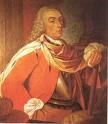
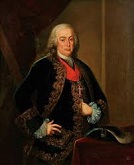



















1750 World pop.: 800M; Europe: 140M; Am. colonies: 1.2M (incl. 236K slaves, 206K living below Penn. in the South) and 1M natives; London: 750K; Beijing: 900K; pop. of Maui, Hawaii: 200K-250K; by 1832 foreign diseases decimate 80% of the native pop. Slaves are purchased in Africa with rum: 100 gal. for an adult male slave, 85 for an adult female, 65 for a child; at the delivery point a slave brings £20 sterling. India's share of global industrial output: 25%; by 1900 it's down to 2%. It takes until the year 1900 for the human technical knowledge in this year to double, according to French economist Georges Anderla (1921-2005); last in 1500. On Jan. 13 the Treaty of Madrid between Joao V of Portugal and Ferdinand VI of Spain gives the Portuguese nuisance colony of Colonia in Argentina to Spain in return for seven Jesuit reducciones (Jesuit settlements for Christianized Guarani Indians) on the E bank of the Uruguay River; meanwhile the Guarani don't like the arrangement. In Jan. Benjamin Franklin's Philadelphia Academy, the first nonsectarian college in North Am. opens, becoming the U. of Penn. in 1791. Early in spring Kunta Kinte (1750-1822) is born in the village of Juffure, four days upriver from the coast of The Gambia; he is bushwhacked by slavers and shipped to North Am. in 1767 :) (Alex Haley's Roots). On June 29 Duke Victor Amadeus III of Savoy marries the Spanish infanta Maria Antonia of Bourbon in Turin, for which occasion the Shroud of Christ (Turin) is trotted out - my passion for math led to my career in architecture? On July 28 German composer Johann Sebastian Bach (b. 1685) dies, ending the Baroque Age of Music (begun 1600); meanwhile Neoclassicism becomes popular in Europe in this decade as a reaction against dickless Bachroque, er, broke Baroque and Rococo - call me old fashioned? On July 31 high-living (but generous to the Church) king (since Dec. 9, 1706) Joao V the Magnanimous, the Portuguese King (b. 1689) dies after obtaining the title "Most Faithful King" from Pope Benedict XIV, and his religiously liberal son Joseph (Jose) I Emanuel (the Reformer) (1714-77) becomes king of Portugal (until Feb. 24, 1777), devoting himself to hunting and the opera, collecting one of the largest collections of scores in Europe; on Aug. 2 finance minister Sebastiao Jose (Sebastião José) de Melo, 1st Marquis of Pombal (1699-1782) becomes secy. of state for internal affairs (until Mar. 4, 1777) and for foreign affairs and war (until May 6, 1756), becoming the virtual ruler of the country, going on to attempt to bring down the Jesuits and secularize the country, claiming allegiance to the ideas of the Enlightenment while really enhancing state power, incl. increasing censorship, curtailing individual liberties, and pushing colonial expansion?; Portugal signs a treaty with Spain on South Am. In Aug. G.F. Handel is seriously injured in a carriage accident en route from Germany to London between The Hague and Haarlem in the Netherlands, and next year the eyesight in one eye begins to fail, progressing to his other eye, leading to his 1759 death. The Huron and the Tobacco Nation end a cent. of wandering, settling in villages near modern-day Detroit, Mich. and Sandusky, Ohio, and becoming known as the Wyandot - and why not? Sheikh Daher el-Omar takes control of Haifa and Tantura, setting up his capital in Deir Hanna and bringing the entire Galilee and Acre under his control, acting as a tax collector for the Ottomans. The Iron Act is passed by the British Parliament, attempting to limit the growth of the American iron industry, prohibiting the Am. colonies from building mills, furnaces and forges, but encourages export of pig and bar iron to Britain; the casting of parts for Franklin stoves stops. Thomas Habersham pushes for admitting more slaves into the colony of Georgia, which banned slavery in 1735 and reinstated it last year - post your resume today and get the job? A typhus outbreak caused by enclosing the court of Old Bailey in London kills 60 incl. the lord mayor and two judges, causing plans for rebuilding to be drawn up (1774). Halifax replaces Annapolis Royal as capital of Nova Scotia (Acadia). The French trading post of Ft. Rouille (Rouillé), named for French secy. of the navy Antoine Louis Rouille is founded on the site of modern-day Toronto at the NW end of Lake Ontario. Scottish Jacobite Alestair Ruadh MacDonnell (1725-61), who was captured by the British in 1745 and spent 22 mo. in the Tower of London turns traitor to Prince Charles Edward (Bonnie Prince Charlie), going under the codename "Pickle", and keeping watch on Jacobite conspiracies for them. Well-fixed German-born French philosopher Paul-Henri Thiry (Paul Heinrich Dietrich), Baron d'Holbach (1723-89), one of the first self-described atheists in Europe opens a salon in Paris that holds biweekly meetings along with fancy dinners (until 1780), attracting the intelligentsia of the day, incl. David Hume (1711-76), Denis Diderot (1713-84), Jean le Rond d'Alembert (1717-83), Horace Walpole (1717-97), Adam Smith (1723-90), and Edward Gibbon (1737-94) - I can get attention and I kind of like this? The French Caribbean colony of Saint-Dominigue becomes the #1 world sugar producer; sugar surprasses grain as the most valuable commodity in Euro trade, making up 20% of all Euro imports. Tea is introduced to Sao Miguel Island, Azores, becoming home to the Gorreana tea co. in 1883, becoming the oldest tea plantation in Europe. In this decade the seaport of Charles Town (Charleston), S.C. (founded 1738) becomes the region's major urban center with a white pop. of 10K. Since their first North Am. landing in 1654, there are now Sephardic (Jewish) congregations in New York City, Newport, R.I., Savannah, Ga., Philadelphia, and Charleston, S.C. In this decade sunflower seeds become a delicacy. In this decade the term "tater" for potato is coined. In this decade the Longhunters of SW Va. begin venturing far into the interior each winter looking for pelts and hides. In this decade the Eastern Shoshone people in Wyo., N Colo., and Mont. begin to be pushed S and W by the Arapaho, Blackfoot, Cheyenne, Crow, and Lakota, ending up in E Idaho, W Wyo., and NE Utah. Starting in this decade England waste and common lands begin to be enclosed, increasing pasturage. In this decade the Conestoga Wagon becomes the chief freight carrier in E North Am. In this decade the English phrases "That's the beauty of it", "Let the cat out of the bag", "Bring down the house", "Under someone's thumb", "Someone's ears are burning", and "Bilk someone" are coined. In this decade Polish rabbi Yisrael Baal Shem Tov (Heb. "Master of the Good Name") (1698-1760) founds the Jewish Hasidic (Chasidic) sect in the Carpathian Mts. Cafe Greco, one of Europe's first coffeehouses opens in Rome. Samuel Whitbread (1720-96) founds Hind's Head Brewery on Chiswell St. in London, England, producing only porter and becoming a huge success, becoming the 2nd largest brewery in London (64K barrels/year) in 1760, and the largest in London in 1796 (202K barrels/year), making porter the working man's drink; in 1785 he installs the Whitbread Steam Engine one of the first rotative steam engines ever built, designed by James Watt; in 1787 the brewery is visited by George III and Queen Charlotte; Whitbread goes on to become an MP in 1768-90, supporting the abolition of slavery and a minimum wage law. Dr. Samuel Johnson begins pub. the first of 208 numbers of the semi-weekly essay mag. The Rambler (until 1752). The Journal du Commerce is founded in France (until 1762) to promote the ideas of the Physiocrats incl. Richard Cantillon (1680-1734). In this decade English printer John Baskerville of Birmingham (1706-75) begins producing a series of high quality books "to astonish the librarians of Europe" (Thomas Macaulay), rivaling Antwerp and Paris, incl. eds. of Virgil (1754-7), Milton (1758), Horace, and the Bible (1763); his Baskerville Font becomes a hit. Prudish Puritan Boston, Mass. passes the Puritans' Act of 1750, prohibiting theatrical performances, causing it to lag far behind New York City, Charleston, Providence, and Philly; on Sept. 29, 1769 a brave soul gives a public reading of "The Beggar's Opera", calling it a "moral lecture"; the act is abolished in 1799 after the Board Alley opens in 1792 and takes all the heat. About this year the first Broadway theater is founded on Nassau St. in Manhattan by actor-mgrs. Walter Murray and Thomas Kean, performing Shakespeare plays and ballad operas incl. "The Beggar's Opera" (1728). The Volkov Theater, the first prof. Russian theater is founded in Yaroslavl, Russia's #2 city after Moscow. In this decade the Minuet becomes fashionable in Europe. The Baldwin Apple is discovered by Wilmington, Mass. farmer John Ball, and called the Woodpecker, becoming popular after Am. Rev. War. Col. Loammi Baldwin (1744-1807) begins promoting it - who would want to bite into a Loammi apple? Rev. Griffith Hughes first describes the Grapefruit (Citrus paradisi), a hybrid of the pomelo (Shaddock) (Citrus maxima) and sweet orange (Citrus sinensis) bred in Barbados, calling it the "forbidden fruit of Barbados". In this decade Mozzarella Cheese first becomes common in S Italy. In this decade the first bergamot groves are planted in Reggio, Italy, taking advantage of the 3-mi.-wide 100-mi.-long strip of land in S Italy where they can be grown, the only other location being Ivory Coast, Africa. In this decade the idea of love matches, marriages based on love gains popularity. In this half-cent. Commonplace books (scrapbooks) become popular in Europe and British Am. - the original blogs? Poor Richard's Almanack for 1750. The white Reunion Solitaire (sacred ibis) (incorrectly considered a relative of the Dodo) becomes extinct. Winsted, Conn. at the junction of the Mad and Still Rivers is founded, becoming one of the state's first mill towns, later becoming the business center of the towns of Winchester and Barkhamsted; in 1871 the Gilbert Clock Co. is founded there by William L. Gilbert (1806-90), becoming one of the largest clock manufacturers in the world by 1900. Sports: The Hambledon Cricket Club is founded in Hampshire, England. The Jockey Club is founded in Newmarket, London to create and apply rules of horseracing, becoming the largest commercial org. in British horseracing; it is partially superseded in June 1993 by the British Horseracing Board. Architecture: Lancelot "Capability" Brown (1716-83) designs the gardens of Warwick Castle in England. Dwarf Francois de Cuvillies (Cuvilliès) (1695-1768), court architect to elector Maximilian III Joseph of Bavaria builds the jewel-box Rococo linden wood Residenztheater in Munich (finished 1753); in 1781 Mozart's "Idomeneo" debuts there. The first stone Westminster Bridge between Westminster, Middlesex bank and Lambeth, Surrey bank in London is completed, paid for by Parliament, spurring the development of South London. Inventions: Leipzig music publisher Johann Gottlob Immanuel Breitkopf (1719-94) introduces movable type for printing music. Jonas Hanway (1712-86) of London becomes the first to use an umbrella to keep off rain, rather than a newspaper in his hand to keep the rain away, suffering catcalls and jeers as up till now only women used them, and only as sun shades (parasols). Science: Swiss mathematician Gabriel Cramer (1704-52) pub. Cramer's Rule for solving a system of linear equations with matrices and determinants; too bad, Colin Maclaurin beat him to it in 1748? Leonhard Euler introduces coordinates into mathematics. Frankly my dear, I don't give a bolt? Am. brain man Benjamin Franklin (1706-90) presents Two Letters on Lightning to the Royal Society of London, describing an 1749 experiment (which he hasn't tried yet) to see if lightning is really electricity by holding a 20-30-ft. pointed sharp metal rod up from the top of a tower during a thunderstorm, inventing the Lightning Rod; they are excerpted in The Gentleman's Magazine, then pub. as an 86-page booklet next year, causing a (electric?) sensation. French astronomer Abbe Nicolas Louis de Lacaille (La Caille) (1713-62) leads an expedition to the Cape of Good Hope to determine solar and lunar parallax. German astronomer Johann Tobias Mayer (1723-62) pub. a study of the libration (slight oscillation about the axis) of the Moon, followed in 1752 by lunar tables, and in 1775 by a chart of the full Moon, becoming the std. for 50 years. English engineer William Watson (1715-87) analyzes platinum. English astronomer Thomas Wright (1711-86) first describes and expounds the Milky Way; he is actually wrong, thinking it has a spherical shape, but Immanuel Kant guesses the right shape (disc) from a wrong review of his work? Nonfiction: Joseph Bellamy (1719-90), True Religion Delineated; #2 Great Awakening preacher after Jonathan Edwards (1703-58). Gabriel Cramer (1704-52), Introduction a l'Analyse des Lignes Courges Algebriques; introduces Cramer's Rule. Frederick II the Great (1712-86), Oeuvres du Philosophe de Sanssouci. Rev. Griffith Hughes, The Natural History of Barbados. Gottfried Wilhelm Leibniz (1646-1716), Theodicee (Théodicée) (Essays of Theodicy on the Goodness of God, the Freedom of Man and the Origin of Evil); his only book pub. during his lifetime; claims that this world is the best of all possible worlds, causing Voltaire to lampoon him in Candide. Alfonso Maria de Liguori (1696-1787), The Glories of Mary. Pierre de Maupertuis (1698-1759), Essai de Cosmologie. Benedictine Monks of St.-Maur, Dictionnaire de l'Art de Verifier les Dates des Faits Historiques (Dictionary of the Art of Verifying Historical Dates). Jean-Jacques Rousseau (1712-78), Discours sur les Arts et Sciences (Discourse on the Arts and Sciences); launches the Romantic Movement in France. Anne-Robert-Jacques Turgot (1727-81), A Philosophical Review of the Successive Advances of the Human Mind on Universal History: Reflections on the Formation and the Distribution of Wealth; the first pub. of the idea of progress, incl. the arts, sciences, and culture. Christian Wolff (1679-1754), Philosophia Moralis (1750-3). Thomas Wright (1711-86), An Original Theory or New Hypothesis of the Universe; describes the appearance of the Milky Way from Earth as "an optical effect due to our immersion in what locally approximates a flat layer of stars", which is adopted by Immanuel Kant in his "Universal Natural History and Theory of Heaven" (1755); claims that many faint nebulae are really incredibly distant galaxies: "The many cloudy spots, just perceivable by us, as far without our Starry regions, in which tho' visibly luminous spaces, no one star or particular constituent body can possibly be distinguished; those in all likelihood may be external creation, bordering upon the known one, too remote for even our telescopes to reach"; "In this great Celestial Creation, the Catastrophy of a World, such as ours, or even the total Dissolution of a System of Worlds, may possibly be no more to the great Author of Nature, than the most common Accident in Life with us, and in all Probability such final and general DoomsDays may be as frequent there, as even Birth-Days or Mortality with us upon this Earth." Music: William Boyce (1711-79), Music for John Dryden's "Secular Masque"; Pastoral Interlude from Clive's "The Rehearsal"; libretto by "a gentleman of Bath" ("Rise, tempests, rise, cloud the skies!") G.F. Handel (1685-1759), Alceste (Alcides) (HWV 45) (masque); composes it for a play by Tobias Smollett which is rehearsed in Covent Garden Theatre but never performed. Art: Francois Boucher (1703-70), The Love Letter; The Interrupted Sleep; John the Baptist. Plays: Carlo Goldoni (1707-93), La Famiglia dell'Antiquario (The Antiquarian's Family) (comedy); L'Erede Fortunata (The Lucky Heiress) (comedy); Il Teatre Comico (The Comical Theatre) (comedy) (1750-1); Le Femmine Puntigliose (The Obstinate Women) (comedy) (1750-1); Il Bugiardo (The Liar) (comedy) (1750-1); La Bottega del Caffe (The Coffee Shop) (comedy) (1750-1); L'Avventuriere Onorato (The Honorable Scoundrel) (comedy) (1750-1); I Pettegolezzi delle Donne (The Women's Gossip) (comedy) (1750-1). Col. Robert Munford , The Candidates; or, The Humours of a Virginia Election. Poetry: William Collins (1721-59), The Passions; Ode on the Popular Superstitions of the Highlands; more early Romantic goop? Novels: Charlotte Lennox (1720-1804), The Life of Harriet Stuart. Births: German Romantic painter Johann Friedrich August Tischbein (Leipziger Tischbein) (d. 1812) on Mar. 9 in Maastricht; son of Johann Heinrich Tischbein the Elder (1722-89); brother of Johann Heinrich Wilhelm Tischbein (1751-1829). Dutch scientist Martinus van Marum (d. 1837) on Mar. 20 in Delft. British "To Anacreon in Heaven" composer John Stafford Smith (d. 1836) on Mar. 30 in Gloucester; early serious collectors of mss. of works by J.S. Bach. English industrialist and Tory politician Sir Robert Peel, 1st Baronet (d. 1830) on Apr. 25 in Peelfold (near Blackburn), Lancashire; gets rich from child labor in the textile industry, then gets a conscience and goes into politics to campaign for better working conditions; knighted in 1800; father of Sir Robert Peel Jr. (1788-1850) - every fortune contains a crime? English religious prophetess Joanna Southcott (Southcote) d. 1814) in Apr. in Gittisham, Devon, SW England; daughter of a Devonshire farmer; announces in 1792 that she is the Woman Clothed With the Sun in Rev. 12:1-6, and begins charging 12s to 1 guinea to seal followers as one of the 144K elect - the first Jehovah's Witness? British well-hung Maj. John Andre (André) (d. 1780) on May 2 in London; Swiss-French Huguenot parents. Italian anatomist-surgeon ("Father of Italian Ophthalmology") Antonio Scarpa (d. 1832) on May 9 in Lorenzaga di Motta di Livenza; Napoleon's personal surgeon (1804-). Am. financier-philanthropist Stephen ( Étienne) Girard (d. 1831) on May 20 in Bordeaux, France; son of a sea capt., he follows his daddy's footsteps and becomes a capt. at age 23 engaged in the West Indies trade; emigrates to the U.S. in 1776 - every fortune contains a crime? Prussian statesman Prince Karl August von Hardenberg (d. 1822) on May 31 in Essenrode, Brunswick. Am. "Anarchiad", "The Progress of Dulness", "Hartford Wits" poet John Trumbull (d. 1831) on June 6 in Watertown, Conn.; educated at Yale U.; imprisoned for 7 mo. in Tothill Fields Bridewell Prison in London as a retaliation for the hanging of British agent Maj. John Andre; not to be confused with his cousin, painter John Trumbull (1756-). Am. merchant-politician William Rufus Gray (d. 1825) on July 8 (June 27 Old Style) in Lynn, Mass. Irish liberal Protestant orator John Philpot "Stuttering Jack" Curran (d. 1817) on July 24 in Newmarket, County Cork; educated at Trinity College, Dublin. Am. Rev. Gen. Henry Knox (d. 1806) on July 25 in Boston, Mass.; Scotch-Irish descent parents; educated at Boston Latin School. French Rev. poet Philippe Francois Nazaire Fabre d'Eglantine (d. 1794) on July 28 in Carcassonne; names the months and days in the French Rev. Calendar. Italian Mozart-hating Venetian composer Antonio Salieri (d. 1825) on Aug. 18 in Legnago (S of Verona), Venice. French gen. Jacques-Francois de Menou, Baron de Boussay (d. 1810) (AKA Abdallah de Menou) on Sept. 3 in Boussay, Indre-et-Loire. Spanish neoclassical poet Tomas de Iriarte (Yriarte) y Oropesa (d. 1791) on Sept. 18 in Madrid. Am. diplomat Thomas Pinckney (d. 1828) on Oct. 23 in Charleston, S.C.; son of Charles Pinckney (-1758) and Eliza Lucas Pinckney (1722-93); brother of Charles Cotesworth Pinckney (1746-1825); cousin of Charles Pinckney (1757-1824); educated at Oxford U. Indian Muslim sultan (of Mysore) (1782-99) ("Tiger of Mysore") Tipu (Tippu) Sultan (Sultan Fateh Ali Tippu) (d. 1799) on Nov. 20 in Devanahalli; eldest son of Haidar Ali and 2nd wife Fatima (Fakhr-un-nissa). Am. Rev. War. soldier and gov. #1 of Ky. (1792-6) Isaac Shelby (d. 1826) on Dec. 11 near Hagerstown, Frederick County, Md. Am. writer-playwright Lady Elizabeth Craven (nee Berkeley), Princess Berkeley, Margravine of Brandenburg-Ansbach (d. 1828) on Dec. 17 in Mayfair, West End, London; 3rd child of Augustus Berkeley, 4th earl of Berkeley (1715-55); wife (1791-) of Charles Alexander, margrave of Brandenburg-Ansbach (1736-1806). German-Bohemian violinist-composer Johann Anton Stamitz (Antonin Stamic) (d. 1809) in Mannheim; son of Johann Stamitz (1717-57). Am. Rev. War loyalist poet Joseph Stansbury (d. 1809) in England. Am. Rev. War soldier (black) Peter Salem (d. 1816) in Framingham, Mass. Am. rebel leader John Fries (d. 1818) in Montgomery County, Penn.; of German descent. Deaths: Dutch still-life painter Rachel Ruysch (b. 1664) on Aug. 12 in Amsterdam; in 1999 a painting of hers is auctioned in Normandy for 2.9M French francs. Italian Capuchin monk St. Crispin of Viterbo (b. 1668) on May 19 in Rome; canonized in 1982: "Let us love God who deserves it." Italian poet-librettist Apostolo Zeno (b. 1668) on Nov. 11 in Venice. Italian historian Ludovico Antonio Muratori (b. 1672) on Jan. 23 in Modena. Venetian composer Alessandro Marcello (b. 1684). German Baroque composer Johann Sebastian Bach (b. 1685) on July 28; fathered 20 children, 10 of whom survived, incl. Wilhelm Friedemann Bach (1710-84), Carl Philipp Emanuel Bach (1714-88), Johann Christoph Friedrich Bach (1732-82), and Johann Christian Bach (1735-82); wrote more than 200 religious cantatas. English dramatist Aaron Hill (b. 1685). Portuguese king (1706-50) Joao V (b. 1689) on July 31. German sculptor-architect Egid Quirin Asam (b. 1692) on Apr. 29 in Mannheim. French marshal Maurice, Comte de Saxe (b. 1696) Japanese emperor #115 (1735-47) Sakuramachi (b. 1720) on May 28.

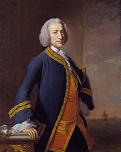









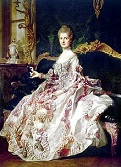
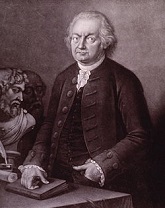



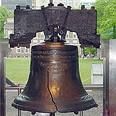


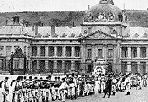
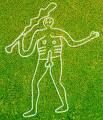

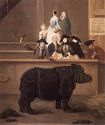

1751 atmospheric carbon dioxide (CO2) concentration is measured retroactively back to this year at the Law Dome Ice Core: 277 in 1751-71, 278 in 1772-1784, 279 in 1785-88, and 280 in 1789-91. On Mar. 25 Fredrick I (b. 1676) dies, and his brother-in-law Adolf Fredrick (Adolphus Frederick) I (1710-71) becomes king of Sweden (until Feb. 12, 1771); meanwhile his brother William VIII (1682-1760) becomes landgrave of Hesse-Cassel (Hesse-Kassel) (until Feb. 1, 1760). On May 11 the Pennsylvania Hospital is founded in Philly by Benjamin Franklin and Dr. Thomas Bond (1712-84), becoming the first Am. public secular hospital; meanwhile Philly founds the first police force in the U.S. - that's mightly brotherly of you? In June vice-adm. George Anson, 1st Baron Anson (1697-1762) is becomes First Lord of the Admiralty, going on to clean up corruption among defense contractors, improve medical care, transfer the Marines from the army to the navy, institute a rating system for ships based on the number of guns, require uniforms for commissioned officers, and submit a revised Articles of War to Parliament to tighten discipline before overseeing the British Navy for much of the Seven Years' War. On Aug. 24 English chimney sweep Thomas Colley is hung for killing suspected witch Ruth Osborne (b. 1680) on Apr. 22 via the ducking test; the rest of the mob of 10K gets away, but he's the one who did the dirty work and collected donations afterward while they applauded? On Nov. 1 the Liberty Bell is ordered to be cast and placed in the new Penn. Statehouse (later named Independence Hall) (begun 1731) to celebrate the 50th anniv. of Pennsylvania's Charter of Privileges; it is inscribed with the motto "Proclaim liberty throughout the land unto all the inhabitants thereof Lev. XXV X by order of the assembly of the province of Pennsylvania for the State House in Philada Pass and Stow Philada MDCCLIII"; John Dock Pass and John Stow did the casting; it cracks on the first ringing, and is recast twice over the next two years, and ends up with the word "Pennsylvania" misspelled. In Dec. one of the members of the Pennsylvania Assembly dies, and Benjamin Franklin (a clerk of the assembly since 1736) readily accepts election to his seat, launching his career in politics. England joins the Austro-Russian alliance of 1746 against Prussia. William IV of Holland dies, and his widow Anne (daughter of George II of England) becomes regent. Glasgow, Scotland-born Robert Dinwiddie (1692-1770) becomes British lt. gov. of Va. (until 1758). The British govt. reverses itself on gin, greatly increasing duties, causing heeby-geevies aplenty. The British Parliament forbids the New England colonies from making their currency legal tender. After urging by Lord Chesterfield et al., the British Parliament alters the British calendar, making Jan. 1 the beginning of the new year. China invades Tibet. The Spanish-Sulu War in the S Philippines begins, with Sulu forces raiding Luzon and the Visayas and tying the Spanish up, causing the gov.-gen. of Manila to issue a decree ordering "the extermination of the Moslems of Mindanao and Sulu with fire and sword and no quarter for Moros of any age or either sex"; meanwhile a royal Spanish decree gives provincial govs. a commercial trade monopoly; after a year of bloody fighting, the Spanish give up, leaving the Moros in control for the next 20 years. Karamoko Alifa (Ibrahim Musa) Muslim leader (alamami) of the jihad in the Futa Jallon region of West Africa (modern-day Guinea) dies; in 1776 Ibrahim Sori succeeds him, creating an Islamist state, with the movement spreading to Futa Toro in modern-day Senegal in 1776, led by Abd al-Qadir (-1806); the movement ends with French occupation. French economist Jacques Claude Marie Vincent de Gournay (1712-59) is appointed intendant du commerce, coining the terms "bureaucratie" (bureaucracy) (Fr. "government by desks") and "laissez faire" (Fr. "let it be"). The Toulouse School of Economics is founded by the U. of Toulouse in France, becoming one of the top in Europe. Anne-Catherine de Ligniville (d'Autricourt) (1722-1800 marries French tax collector and philosopher Claude Adrien Helvetius, maintaining a salon in Paris that attracts famous brain men and women incl. Count Volney, Baron d'Holbach, Turgot, Buffon, Condillach, d'Alembert, Madame Roland, Lavoisier, Talleyrand, Thomas Jefferson, Benjamin Franklin (who proposes to her after her hubby dies), even Napoleon. Swedish lit. giant Olof von Dalin (1708-63) (who introduces French and English lit. to Sweden after being educated by Bishop Rydelius of Lund) becomes tutor to Crown Prince Gustav (later Gustav III), and in 1755 becomes royal historiographer. The Gran Louis, the first steam-powered ocean-going ship leaves La Havre, France for Port au Prince, Haiti; avg. speed: 9 knots. Robert Wood and James Dawkins visit the ruins of Palmyra (Tadmor) in modern-day Syria, destroyed in 272 C.E. by the Romans. Bermuda grass is introduced to the Am. colonies from Africa. Scottish philosopher David Hume moves to Edinburgh, staying 12 years, becoming librarian of the Advocates' Library. Benjamin Franklin sells his slave couple, telling his mother that he did not like having "Negro servants", and that they are uneconomical. 19-y.-o. cherry popper, er, cherry tree chopper George Washington visits Barbados, becoming his only trip abroad. The powers of the Portuguese Inquisition are curtailed by the govt. The Ecole Superieure de Guerre (École supérieure de guerre) (superior school of warfare) is founded in Paris, going on to become the staff college of the French army in 1876-1993. The Wissenschaftliche Akademie (*Akademie der Wissenschaften) is founded in Gottingen. The first mental asylums open in London - hello, doggie? Poor Richard's Almanack for 1751. The War of the Operas (La Guerre des Bouffons) divides Paris into pro-Italian and pro-French music lovers. The 180-ft. Cerne Abbas Giant (Rude Man) in Dorset in SW England, a giant man with a huge erect phallus holding a 120-ft. club, carved out of the chalk hillside is first mentioned by Dorset historian John Hutchins, who claims it was recut in the mid-1600s for a 3-shilling payment by the church warden; going back to pagan times, women wanting to become pregnant spend the night camped out on the phallus and/or have sex on it with their mate; it is then recut every 25 years; on July 15, 2007 a 180-ft. Drawing of Homer Simpson Clad in Underpants and Holding a Giant Doughnut is drawn facing it with 50 gal. of biodegradable white paint to promote the new Simpsons movie, pissing off the local pagans, but lucky for them England experiences its rainiest summer in 60 years, soon washing it away. Architecture: French architect Ange-Jacques Gabriel (1698-1782) designs the Ecole Militaire in Paris, which turns poor gentlemen into poor men, going on to produce Napoleon Bonaparte in 1784. Inventions: Jacques de Vaucanson of France, having switched from robots to less controversial machine tools invents an all-medal slide rest lathe with adjustable screw. Science: Swedish chemist Axel Frederik Cronstedt (1722-65), pupil of cobalt discoverer Georg Brandt discovers the hard silvery white metallic element nickel (Ni) (#28) in kupfernickel (niccolite), meaning "Old Nick's (Satan's) copper" or false copper because it colors glass green. German physician Johann Gottlob Leidenfrost (1715-94) discovers the Leidenfrost Effect, in which a liquid dropped on a surface hotter than its boiling point produces an insulating vapor layer that causes it to hover over the surface. Nonfiction: Heinrich von Cocceji, Code Frederic; compiled by the Prussian justice minister. Denis Diderot (1713-84) and Jean Baptiste le Ronde d'Alembert (1717-83), Encyclopedie (Encyclopédie) ou Dictionnaire Raisonne (Raisonné) des Sciences, des Arts et des Metiers (Métiers), Vol. 1 (Paris); the Bible of the French Enlightenment bringing Enlightenment thought tot he masses; history articles by Voltaire; pub. despite hounding by govt. censors and condemnation by the Church and other enemies, who to try to prevent pub., getting it delayed in 1752 and 1757, and suppressed in 1759-65; it eventually comprises 34 vols. (last vol. pub. 1772) - I know, I memorized them all? Henry Fielding (1707-54), An Enquiry into the Causes of the Late Increase of Robbers. John Fothergill (1712-80) (ed.), Experiments and Observations on Electricity by Benjamin Franklin; five letters sent to English botanist Peter Collinson (1694-1768), fellow of the Royal Society, ed. by Franklin's Quaker physician in London. Benjamin Franklin (1706-90), Observations Concerning the Increase of Mankind, Peopling of Countries, etc.; observes that in the New World land is plentiful and cheap while labor is scarce and dear, which is the opposite of the situation in the Old World; he then correctly predicts that America's pop. will double every 20 years and surpass England's in a cent.; he urges that America be settled by whites of English descent, decrying both German immigrants and blacks, with the soundbyte: "The number of purely white people in the world is proportionately very small. Why increase the sons of Africa by planting them in America, when we have so far an opportunity, by excluding all blacks and tawneys, of increasing the lovely white and red?" (red meaning Indians); he omits this section when he reprints it 18 years later. Francesco Geminiani, The Art of Playing on the Violin. David Hume (1711-76), Enquiry Concerning the Principles of Morals; how our moral sense makes the ultimate distinction between vice and virtue, while reason judges what is useful to us or others; Political Discourses. Johann Gottlob Leidenfrost (1715-94), A Tract About Some Qualities of Common Water; describes the Leidenfrost Effect. Carl Linnaeus (1707-78), Philosophia Botanica; first textbook on systematic botany and botanical Latin. Pierre de Maupertuis (1698-1759), Systeme de la Nature; challenges the spontaneous generation of life, and proposes the idea of dominant and recessive genes by discussing polydactyly in families, attributing it to a mutation in the "hereditary particles". Christoph Martin Wieland (1733-1813), Die Nature der Dinge; his summer 1750 love affair with love machine cousin Sophie Gutermann before he goes to the U. of Tubingen to study law. Voltaire (1694-1778), The Age of Louis XIV. Music: G.F. Handel (1685-1759), Jephta, HWV 70 (oratorio) (last all-new composition); incl. Ye House of Gilead. Art: Francois Boucher (1703-70), The Toilet of Venus II; Venus Consoling Love. Jean-Baptiste-Simeon Chardin (1699-1779), Still Life with Glass Flask and Fruit. William Hogarth (1697-1764), Beer Street; The Reward (Four Stages) of Cruelty; shows an executed murderer being dissected and feasted on by dogs - grr grr guerdon? Pietro Longhi (1701-85), Clara the Rhinoceros. J.B. Pigalle, Mme. de Pompadour (sculpture). Giambattista Piranesi (1720-78), Carceri d'Invenzione; 14 16" x 21 " prints depicting cool imaginary subterranean vaults with weird machines, later influencing Romanticism and Surrealism; a 2nd ed. in 1761 has 16 prints. Giovanni Battista Tiepolo (1696-1770), Ceiling of the Wurzburg Residenz. Poetry: Johann Jakob Bodmer (1698-1783), Die Sundflutz; Noah; imitations of Friedrich Gottlieb Klopstock's "Messias". Thomas Gray (1716-71), Elegy Written in a Country Churchyard (Feb. 15); finished in 1750 after eight years, and sent to his friend Horace Walpole (1717-97), who talks him into pub. it; inspired by Stoke Poges in Buckinghamshire, a village near London, where he writes the poem sitting under a yew tree; "Full many a flower is born to blush unseen,/ And waste its sweetness on the desert air/ The paths of glory lead but to the grave"; coins the phrases "far from the madding crowd", "celestial fire", "kindred spirit", and "the unlettered muse". Novels: Henry Fielding (1707-54), Amelia. Eliza Haywood (1693-1756), The History of Miss Betty Thoughtless. Robert Paltock (1697-1767), The Life and Adventures of Peter Wilkins, a Cornish Man; a wanna Robinson Crusoe, featuring the gawry, a flying woman, whom Wilkins marries; "The description of Nosmnbdsgrutt, the country of the flying people, is a dull imitation of Swift, and much else in the book is tedious." (John W. Cousin) Tobias Smollett (1721-71), The Adventures of Peregrine Pickle - picklesque? Births: Spanish duke of Parma (1765-1802) Frerdinand Maria Philip Louis Sebastian Francis James (d. 1802) on Jan. 20 in Parma; only son of Duke Philip of Parma and Louise Elisabeth of France (eldest daughter of Louis XV). Dutch patriotic leader Cornelis "Kees" de Gijselaar (d. 1815) on Feb. 9 in Gorinchem; educated at Leiden U.; namesake of the double-coated Keeshond dog breed AKA Dutch Barge Doge and Wolfspitz. German Romantic "Goethe in the Campagna" painter Johann Heinrich Wilhelm Tischbein (Goethe-Tischbein) (d. 1829) on Feb. 15 in Haina; brother of Friedrich August Tischbein (1750-1812). Am. Rev. War leader, politician, and physician (U.S. Dem.-Repub. secy. war #5, 1801-9) Gen. Henry Dearborn (d. 1829) on Feb. 23 in North Hampton, N.H. U.S. 5'4" (shortest) pres. #4 (1809-17) and U.S. secy. of state (1801-9) (Freemason) ("Father of the Constitution and Bill of Rights") James Madison Jr. (d. 1836) on Mar. 16 (Mar. 5 Old Style) in Port Conway, Va.; educated at Princeton U.; known for his Montpelier tobacco plantation in Va. near Thomas Jefferson's Monticello. Am. Rev. leader Ira Allen (d. 1814) on Apr. 21 in Cornwall, Conn.; founder of the U. of Vt.; younger brother of Ethan Allen (1738-89). Irish independence leader Archibald Hamilton Rowan (d. 1834) on May 1 in London, England; educated at Queens' College and Jesus College, Cambridge U. German Sturm und Drang writer (Freemason) Jakob Michael Reinhold Lenz (d. 1792) on May 24/June 4 in Sesswegen (Cesvaine), Livonia. Danish-Norwegian queen (1766-72) Caroline Matilda (d. 1775) on July 11; daughter of Frederick Louis (1707-51), (eldest son of George II of England) and Augusta of Saxe-Gotha (1719-72); wife of mad king Christian VII. Scottish politician-judge William Adam of Blair Adam (d. 1839) on Aug. 2; son of John Adam (1721-92); introducer of trial by jury in civil cases in Scotland. Indian Cochin maharaja (1769-1805) Rama Varma IX (Rama Varma Kunhjipilla Thampuran) (Sakthan Thampuran) (d. 1805) on Aug. 28 in Kaladi; nephew of Rama Varma VIII. Irish composer-dramatist Richard Brinsley Butler Sheridan (d. 1816) on Oct. 3 in Dublin. English Gordon Riots neverneverland politician Lord George Gordon (d. 1793) on Dec. 26 in London; son of Cosmo George Gordon, 3rd Duke of Gordon (1750-52); educated at Eton School. English cabinetmaker Thomas Sheraton (d. 1806) in Stockton-on-Tees; simple form, straight lines, and classical chaste decoration? Sicilian Bourbon king #2 (1759-1825) Ferdinand I (IV) of the Two Sicilies (d. 1825); 3rd son of Charles II of Spain (1716-88); father of Francis I (1777-1830). Deaths: English clockmaker ("Father of the Chronograph") George Graham (b. 1673). Swedish king (1720-51) Frederick I (b. 1676) on Mar. 25 in Stockholm. Italian monk St. Leonard of Port Maurice (b. 1676) on Nov. 26 in Rome; canonized on June 29, 1867. English statesman Henry St. John, Viscount Bolingbroke (b. 1678) on Oct. 1 in Battersea. English astronomer John Machin (b. 1686) on June 9 in London. Scottish-born Am. painter John Smybert (b. 1688) in Boston, Mass. Bohemian architect Kilian Ignaz Dientzenhofer (b. 1689) on Dec. 18. German-born Irish architect Richard Cassels (b. 1690). Italian Trevi Fountain architect Nicola Salvi (b. 1697) on Feb. 8 in Rome. German Prussian gen. Leopold II Maximilian, prince of Anhalt-Dessau (b. 1700) on Dec. 16 in Dessau. French philosopher Julien Offray de la Mettrie (b. 1709) on Nov. 11. Dutch stadtholder Prince William IV of Orange (b. 1711) on Oct. 22 in Huis ten Bosch, The Hague; namesake of Orangeburg, S.C. Swiss astronomer Philippe Loys de Cheseaux (b. 1718) on Nov. 30. English nonconformist divine Philip Doddrige on Oct. 26.




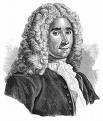


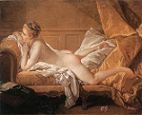




1752 Eleven days that never existed? Oh, we believe they do, sir - the colonel had the logbooks doctored? In Jan. the Gregorian Calendar is introduced in Great Britain and its possessions, incl. the Am. colonies, causing Sept. 14 (Thur.) to follow Sept. 2, dropping 11 days (one more than in 1582 because after 170 years the Julian system has slipped another day); the year now ends on Dec. 31 (Sun.) rather than Mar. 24; as usual with the ignorant Anglo masses, the belief that the govt. has stolen 11 days of their lives causes riots; Sweden follows suit next year sans riots. On Mar. 6 Lahore gov. Mir Mannu (Muin-ul-Malk) orders the Massacre of the Sikh Innocents, gruesomely killing 300 infants and children of Sikh women for refusing to convert to Islam; next Nov. 4 Mir Mannu dies after massacring thousands of Sikhs, and the surviving women are rescued. On Mar. 23 the Halifax Gazette, the first English newspaper in Canada begins pub. by John Bushnell. On May 10 after Louis VI requests that Benjamin Franklin's proposed lightning rod experiments be attempted, naturalists Comte de Buffon and Thomas Francois D'Alibard dragoon a retired soldier to hold a 40-ft. iron rod in a storm and draw sparks in the village of Marly on the N outskirts of Paris; the experiment is then repeated dozens of times across France, making Franklin a celeb; meanwhile, having waited for the steeple of Philly's Christ Church to be finished, 46-y.-o. Franklin performs his famous kite experiments with lightning from a shed in June, using a silk kite flown by his 22-y.-o. son William; news of his fame in France reaches him in July-Aug., and he doesn't report his own experiments until Oct.; the first lightning rods to be put in service are erected in Philadelphia in late June and early July. On June 14 the Treaty of Aranjuez is signed between Spain and the HRE, normalizing relations and agreeing to acknowledge their respective interests in Italy, securing its neutrality. On June 21 after Marquis Duquesne arrives at Quebec to be gov.-gen. of New France, the Ohio Indian village of Pickawillany is attacked by a party of Indians led by Charles Michel de Langlade (1729-1802) of New France to prevent them from trading with the English. On Aug. 1 Giovanni Battista Pergolesi's 1733 opera buffa "The Servant Mistress" (La Serva Padrona) is performed at Academie Royale de Musique in Paris, causing the Quarrel/War of the Comic Actors or Comedians (Querelle/Guerre des Bouffons) between supporters of serious French opera and supporters of the new Italian comic opera buffa, which lasts two years (until 1754). On Oct. 12 Madame de Pompadour, now "just friends" with Louis XV is given the title of duchess, retaining her political power, and retires to her 17 estates with $200M. On Nov. 4 after 6'2" 20-y.-o. George Washington is appointed adjutant in the Va. militia (resigns 1759), with Thomas Jefferson later calling him "the best horseman of his time", he is initiated into the Freemasons at Fredericksburg, Va. Lodge #4, then is passed next Mar. 3 and raised next Aug. 4; the Freemaons at this time are still fairly pro-Christian (until after the U.S. Civil War); Washington is only known to attend four meetings in his life. The pissed-off Guarani Indians around the Uruguay River revolt against the 1750 Treaty of Madrid, beginning the War of the Seven Reductions (Reducciones) (ends 1756). Louis XV issues an edict declaring marriages and baptisms by Protestant clergymen null and void; recalled by Louis XVI in 1787. Catherine II the Great begins a salty affair with tall, handsome married courtier Count Sergei Vasilievich Saltykov (1726-85) in an effort to produce an heir after hubby Peter III Fedorovich proves impotent; on Oct. 1, 1754 her son son Paul I Petrovich is born, and she has it made; who was the real father, only her hairdresser knows for sure? The first Halifax and Dartmouth Ferry is established, becoming the oldest saltwater ferry system in North Am. to survive to modern times. Pittsfield in Berkshire County, Mass. on the Housatonic River in the Berkshire Hills 50 mi. NW of Springfield is resettled after the original 1743 Boston Plantation (Pontoosuc) was abandoned because of Indian attacks; it is named after British PM William Pitt the Elder, and later becomes the home of authors Oliver Wendell Holmes Sr. and Herman Melville. Henry Fielding founds the Covent Garden Journal under the alias Sir Alexander Drawcansir. Poor Richard's Almanack for 1752. Manchester Royal Infirmary is founded in Withy Grove, with 12 beds. The royal decree granting permission for the "Encyclopedie" to proceed is revoked uner pressure of its opponents (until 1753). The British Parliament passes a law making theft of graphite punishable by imprisonment or banishment - or we'll give you the lead? Va. passes a law making it a felony to "put out an eye, slit the nose, bite or cut off a nose, or lip"; in 1772 they amend it to include "gouging, plucking or putting out an eye". After his competitor Drury Lane Theatre, run by David Garrick puts him out of biz, English theater mgr. William Hallam (1712-58) sends 12 actors under the dir. of his brother Lewis Hallam (1714-56) to Williamsburg, Va., touring from the Carolinas to New England and introducing Garrick's acting style; in 1754 Lewis Hallam builds a theater in Manhattan, N.Y. on Nassau St., touring all 13 colonies. Sports: The first Steeplechase is allegedly held in Doneraile, Cork, Ireland by Cornelius O'Callaghan and Edmund Blake, who race their Irish hunters 4 mo. between the Buttevant Church and St. Leger Church in a straight line so they could see the steeple, causing them to jump over fences, gates, streams, etc. Architecture: The Baroque Catherine Palace in Tsarskoye Selo of St. Petersburg, Russia, designed by Italian-born Francesco Bartolomeo Rastrelli is begun (finished in 1756). The Georgian Mansion House in London (begun 1739) is completed, becoming the official residence of the lord mayor of London. Inventions: James Ayscough (-1759) of London perfects Eyelasses with double-hinged sidepieces, which become the fashion. Francis Nixon of Ireland comes up with a way to print chintz (brightly colored cloth) using copperplates. Science: Swiss mathematician Leonhard Euler (1707-83) pub. the Polyhedron Face-Vertex-Edge Formula f+v=e+2 (e.g., f=6, v=8, e=12 for a cube, f=32, v=60, e=90 for a buckyball). German physicist Johann Tobias Mayer (1723-1830) pub. new solar tables which improve navigation, giving longitude at sea to 0.5 deg. Rene Antoine Ferchault de Reaumur (1683-1757) proves that gastric juice dissolves meat - and thus all animals are meat machines? Nonfiction: The Authorized Version of the Bible is first pub. in the Am. colonies in Philly by Robert Aitken, becoming the first Bible printed there in the English language; it excludes the Apocrypha. Charles Avison (1709-70), Essay on Musical Expression; the first music criticism pub. in English. Jacques-Francois Blondel (1705-74), L'Architecture Francaise (1752-6). Antoine Court (1696-1760), An Historical Memorial of the Most Remarkable Proceedings Against the Protestants in France from 1744-51 (London). Jonathan Edwards (1703-58), Misrepresentations Corrected and Truth Vindicated; reply to Rev. Solomon Williams' book "The True State of the Question Concerning the Qualifications Necessary to Lawful Communion in the Christian Sacraments". William Law (1686-1761), The Way to Divine Knowledge. Bishop Erik Pontoppidian (1698-1764), Natural History of Norway (2 vols.) (1752-3); by a bishop of Bergen, Norway; vol. 2 describes Krakens, giant 1.5-mi. long sea monsters who appear and disappear like floating islands in the northern seas; "Far below the thunders of the upper deep;/ Far, far beneath in the abysmal sea/ His ancient, dreamless, uninvaded sleep/ The kraken sleepeth" (Alfred, Lord Tennyson, 1830); Desmond Davis' 1981 film Clash of the Titans shows a disappointingly small kraken getting killed by Harry Hamlin using Medusa's head to turn him to stone rubble; in 2012 scientists discover a giant squid that could be it. Thomas Simpson (1710-61), Select Exercises in Mathematics. Art: Francois Boucher (1703-70), Allegory of Music; The Setting of the Sun; Marie-Louise O'Murphy; nude Irish babe on stomach on couch sans visible bush. Plays: Carlo Goldoni (1707-93), La Moglie Saggia (The Wise Wife) (comedy); Le Donne Gelose (The Jealous Women) (comedy); La Serva Amorosa (The Loving Maid) (comedy). Poetry: Christoph Martin Wieland (1733-1813), Zwolf Moralische Briefe in Versen; Anti-Ovid; this summer he heads for Zurich to be with Swiss lit. reformer J.J. Bodmer, and stays until 1760. Novels: Charlotte Lennox (1720-1804), The Female Quixote. Voltaire (1694-1778), Micromegas (Micromégas); about 20K-ft.-tall aliens Saturn and Sirius, who visit Earth and become amused at how self-important miniscule earthlings are, pioneering sci-fi. Births: Am. seamstress-flagmaker Betsy Ross (Mrs. Elizabeth Griscom Ross) (d. 1836) on Jan. 1 in Philadelphia, Penn. Am. poet-journalist ("Poet of the American Revolution") Philip Morin Freneau (d. 1832) on Jan. 2 in New York City; educated at Princeton U. English Buckingham Palace architect John Nash (d. 1835) on Jan. 18 in Lambeth, London. Italian "Gradus ad Parnassum" composer-pianist Muzio Clementi (d. 1832) on Jan. 23. Am. statesman-diplomat-atty.-merchant Gouverneur Morris (d. 1816) on Jan. 31 in Morrisania Estate, Bronx, N.Y.; educated at King's College (Columbia U.); wears a plain wooden pegleg after an accident; gives the most speeches at the Constitutional Convention and writes the final draft of the U.S. Constitution, with the preamble "We the People of the United States, in order to form a more perfect union"; marries for the first time at 57 and becomes a daddy at age 62. French gen.-adventurer Jean-Antoine Le Clerc (Louis Le Clerc Milfort or Milford) (d. 1820) on Feb. 2 in Thin-le-Moutier (near Mezieres); known for leading Creek Indians against the rebels during the Am. Rev. War. Am. educator (founder of Phillips Academy) Samuel Phillips Jr. (d. 1802) on Feb. 5 in North Andover, Mass.; educated at Harvard U.; nephew of John Phillips (1719-95), founder of Phillips Exeter Academy. German dramatist Friedrich Maximilian von Klinger (d. 1831) on Feb. 17 in Frankfurt-am-Main; names the Sturm und Drang (Storm and Stress) anti-classicist pro-Romantic movement. Am. Rev. War col. Nathaniel Rochester (d. 1831) on Feb. 21 in Westmoreland County, Va.; founder (1811) of Rochester, N.Y. British lt. gov. #1 of Upper Canada (1791-6) (Freemason) Gen. John Graves Simcoe (d. 1806) on Feb. 25 in Cotterstock, Oundle; educated at Eton College, and Merton College, Oxford U. Am. brig. gen. James Winchester (d. 1826) on Feb. 26 in Carroll County, Md. Am. Rev. War. gen. (co-founder of Memphis, Tenn.) William Washington (d. 1810) on Feb. 28 in Stafford County, Va.; 2nd cousin of George Washington (1732-99). French pianoforte inventor Sebastien (Sebastian) Erard (d. 1831) on Apr. 5 in Strasbourg. German white supremacy biologist ("father of anthropology") Johann Friedrich Blumenbach (d. 1840) on May 11 in Gotha, Saxony; prof. of medicine at Gottingen U. 1776-. Am. educator-orator-poet and Congregationalist minister Timothy Dwight IV (d. 1817) on May 14 in Northampton, Mass; grandson of Jonathan Edwards Sr.; educated at Yale U.; pres. #8 of Yale College (1795-1817); grandfather of Timothy Dwight V (1828-1916); brother of Theodore Dwight Sr. (1764-1846); uncle of Theodore Dwight Woolsey (1801-89) and Theodore Dwight Jr. (1796-1866). Prussian statesman Count Christian August Heinrich Kurt von Haugwitz (d. 1832) on June 11 in Peuke-bei-Ols, Silesia. English "Evelina" novelist-diarist Frances "Fanny" Burney (Madame D'Arblay) (d. 1840) on June 13 in King's Lynn, Norfolk; daughter of Dr. Charles Burney (1726-1814); marries Gen. Alexandre D'Arblay in 1793. German "The Cloud Upon the Sanctuary" Roman Catholic mystic Karl von Eckartshausen (d. 1803) on June 28 in Haimhausen, Bavaria. Russian gen. Count Alexander Petrovich Tormasov (d. 1819) on Aug. 11. Italian queen of Naples (1768-1806) and Sicily (1768-1814) (Freemason) Marie Caroline (Maria Carolina) of Austria (d. 1814) on Aug. 13; daughter of Austrian empress Maria Theresa; sister of Marie Antoinette (1755-93). Austrian gen. Baron ("the Unfortunate Mack") Karl Mack von Leiberich (d. 1828) on Aug. 25 in Nenslingen, Bavaria. French mathematician Adrien-Marie Legendre (d. 1833) on Sept. 18 in Paris; educated at College Mazarin. Am. philanthropist James Bowdoin III (d. 1811) on Sept. 22 in Boston, Mass.; son of James Bowdoin II (1726-90). German writer (Freemason) Adolph Franz Friedrich Ludwig Knigge (d. 1796) on Oct. 16 in Bredenbeck, Hannover. Am. Rev. leader and frontiersman ("Conqueror of the Old Northwest") George Rogers Clark (d. 1818) on Nov. 19 in Albemarle County, Va.; English-Scottish ancestry. English poet-forger Thomas Chatterton (d. 1770) on Nov. 20 in Bristol. Am. Quaker religious leader ("Publick Universal Friend") Jemima Wilkinson (d. 1819) on Nov. 29. Am. politician George Cabot (d. 1823) on Dec. 3 in Salem, Mass.; educated at Harvard U.; great-grandfather of Henry Cabot Lodge Sr. (1850-1924). Swedish Swedenborgian entomologist Leonard Gyllenhaal (d. 1840) on Dec. 3 in Vastergotland; ancestor of actor Jake Gyllenhaal (1980-). U.S. Supreme Court "most insignificant" justice #17 (1811-35) Gabriel Duvall (d. 1844) on Dec. 6 in Prince Georges County, Md. English politician Edward Smith-Stanley, 12th Earl of Derby (d. 1834) on Dec. 12 in Preston; son of James Smith-Stanley, Lord Strange (1716-71), the son of Edward Stanley, 11th earl of Derby (1689-1776); educated at Eton College, and Trinity College, Cambridge; founder (1779) of Epsom Oaks horserace; father of the 13th earl of Derby (1775-1851). German Saxon king (1763-1827) Frederick Augustus I (the Just) (d. 1827) on Dec. 23 in Dresden; son of elector Frederick Christian. English "Hannibal Crossing the Alps" watercolor painter John Robert Cozens (d. 1797); son of artist Alexander Cozens, reputed son of Peter the Great. English architect Thomas Hardwick Jr. (d. 1825) in Brentford, Middlesex; pupil of Sir William Cambers. English printer Luke Hansard (d. 1828). French Jacquard loom inventor Joseph Marie Charles Jacquard (d. 1834); starts out making straw hats, then moves to silk. Italian composer Niccolo Antonio Zingarelli (d. 1837); choirmaster of St. Peter's in Rome. Deaths: English-born Am. printer William Bradford (b. 1663) on May 23 in New York City; dies wealthy. Italian cardinal-statesman Giulio Alberoni (b. 1664) on June 26. German composer Johann Christoph Pepusch (b. 1667) on July 20 in London. English scientist William Whiston (b. 1667) on Aug. 22 in Lyndon Hall, Rutland. German-born Portuguese architect Joao Frederico Ludovice (b. 1673). German scholar Johann Albrecht Bengel (b. 1687) on Nov. 2 in Stuttgart. Italian Jesuit writer Giovanni Battista Scaramelli (b. 1687) on Jan. 11 in Macerata. Italian sculptor Giovanni Battista Maini (b. 1690) on July 29. English Anglican theologian Bishop Joseph Butler (b. 1692). Swiss mathematician Gabriel Cramer (b. 1704) on Jan. 4 in France.









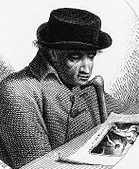
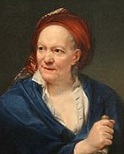
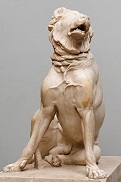
1753 On Feb. 1 French troops from Canada take the Ohio Valley, intending to build a chain of forts along the Ohio River from Canada to La. in order to confine the British settlers to the east coast; late in the year brash young 21-y.-o. George Washington (1732-99) is sent to talk to their cmdr., protest their occupation and warn them to leave; after they refuse, he ambushes them in peacetime, and is almost wiped out, being branded an assassin, but his vivid self-serving account of his mission (and he cannot tell a lie, right?) makes him a hero and gets him a promotion to chicken colonel. Speaking of chicken colonel? On Apr. 10 the name "Kentucky" is first mentioned in a letter by William Trent sent to Va. Gov. George Hamilton. On June 7 King George II gives assent to an act of Parliament establishing the British Museum in London (opens in 1759), based on the extensive collection bequeathed by Irish Ulster-Scot (read Irish Protestant) physician Sir Hans Sloane, 1st Baronet (1660-1753) of chocolate fame. In the summer 47-y.-o. retired (since 1748) Benjamin Franklin (1706-90) of Penn. is given honorary degrees by Harvard and Yale, and also receives the Royal Society medal for his experiments with electricity; along with William Hunter of Va. he is appointed to share the top post office job in British Am., known as the Deputy (Joint) Postmaster for the Colonies; nepotism-loving Franklin proceeds to give jobs to his son, brothers, and other relatives, but he establishes the first home-delivery system and dead letter office, cutting to one day the delivery time of a letter from New York City to Philly within a year of taking office; of course now his own pubs. can reach a wider audience, killing two birds with one stone, early to bed and early to rise makes a man healthy, wealthy and wise, a penny saved is a penny earned, yada yada yada; meanwhile in Oct. 1 after being appointed one of three commissioners from Penn. to attend a summit conference with Delaware and Six Nation Indian leaders at Carlisle, halfway between Philly and the Ohio River, who are sore over the Walking Purchase, Franklin gets to observe their unity and explanation of their Great Law, causing him to get his idea of "Join, or Die", which he pub. next year; too bad, the conference doesn't satisfy them, so they drift to the French side, eventually attacking frontier settlements and driving Scots-Irish (read Protestant Irish) and German refugees eastward. On July 3 English barrister Sir William Blackstone (1723-80) gives up his practice to embark on a series of lectures on English common law, the first of their kind, becoming a big hit and making him a celeb. On July 7 after Jews show their loyalty to the British govt. during the 1745 Jacobite Rising, causing Henry Pelham to introduce it, the Jewish Naturalization Act of 1753 (Jew Bill) is given royal assent in England, requiring personal application to Parliament; too bad, after the Tories protest the "abandonment of Christianity" it is repealed next year after - there goes the neighborhood, or, Chariots of Fire right ahead? On Sept. 25 the first steam engine is imported into the colonies (N.J.). The trustees' charter expires, and Georgia becomes the last royal colony - in No Way Jose, with its own royal C-E-No - Nunca? Immigrants from Britain, Germany, and Switzerland revolt against British policies in Nova Scotia, causing the British authorities to begin suspecting the French Acadians too. Are you still free to move about the country? Eager dicks go on the lam to sheep-loving Scot Scot Scotland? The Irregular Marriage Act of Lord Hardwicke proscribes Fleet Marriages, requiring marriage licenses, plus parental consent when either party is under 21; since hillbilly Scotland only requires age 16 and no residency, the village of Gretna Green in Dumfries County, Scotland .75 mi. from the Sark River boundary with England becomes a haven for runaway "quickie" underage marriages, usually officiated by the village blacksmith (until 1856). Frederick II the Great fights the Austrian-Russian agreement of 1746. The Al-Sabah Dynasty in Kuwait is founded by Sheikh Sabah I bin Jaber (1700-62); the sheikdom is nominally under Ottoman rule, but has de facto independence. A land tax of two shillings on the pound is instituted in England and Wales. The town of Brattleboro on the Connecticut River in Vt. about 10 mi. N of the Mass. boundary on the site of Ft. Dummer (first English settment in Vt.) (built 1724) is chartered, named after loyalist gen. William Brattle Jr. (1702-76), son of William Brattle (1662-1717), going on to become a winter sports resort and home of one of the largest pipe organ factories in the world; Rudyard Kipling and his wife later live there. Louis XV gives permission to found the Grey Nuns in Montreal, Canada, led by "tipsy nun" (St.) Marguerite d'Youville (1701-71), who house and care for ill and needy women. Waterford, Ireland begins producing crystal (until 1851). The Vienna Stock Exchange (Wiener Borse) is founded by Empress Maria Theresa. The secret Linonian Society is founded at Yale U., which becomes rivals with the Brothers in Unity (founded 1768). Poor Richard's Almanack for 1753. Sports: The Jockey Club establishes a racetrack in Newmarket; "Every body is dressed so perfectly alike, that it is extreamly difficult to distinguish between his Grace and his Groom; I have heard a stranger ask a man of quality how often he dressed, and watered his horses?"; two horseraces a year at Newmarket, England in spring and Oct. are added to the Second Spring and July, followed in 1762 by the Second October, in 1770 by the Third October or Houghton, and in 1771 by the Craven on Easter Monday, giving seven. Architecture: Jean Baptiste Pigalle begins the Tomb of Comte Hermann Maurice de Saxe (Marechal de Saxe) in the Church of St. Thomas in Strasbourg (finished 1776). The Georgian Gothic revival Strawberry Hill Mansion in Richmond, London on the Thames River near Twickenham, designed by Horace Walpole is begun (finished 1776), known for its vast stained glass, cool towers and battlements, and interior decoration by his Committee of Taste. Science: Scottish physician James Lind (1716-94) discovers that heating salt water produces steam that is fresh, and proposes solar energy distillation of water for ships, but nothing is done until 1810. Swedish botanist Carl Linnaeus (1707-78) first distinguishes plants via species and genera, causing him to become known as "the Father of Taxonomy"; he gives the tea plant a scientific name. Nonfiction: Joao da Silva Guimaraes, Manuscript 512; claims to have found the ruins of the ancient Lost City of Z in the Mato Grosso region of Brazil. William Hogarth (1697-1764), The Analysis of Beauty; proposes standards for aesthetics. William Kenrick (1725-79), The Whole Duty of a Woman; or, A Guide to the Female Sex, from the Age of Sixteen to Sixty, &c.; pub. under the alias "A Lady"; big hit, going through 20 eds., making him "one of London's most despised, drunken, and morally degenerate hack writers in the later eighteenth century." Alfonso de Liguori (1696-1787), Theologia Moralis; repub. in 1755 as "Homo Apostolicus". Dr. James Lind (1716-94), A Treatise of the Scurvy. Carl Linnaeus (1707-78), Species Plantarum; first attempt to distinguish plants via species and genera. Robert Lowth (1710-87), De Sacra Poesi Hebraeorum. Johann Lorenz von Mosheim (1693-1755), Historical Commentaries on the State of Christianity in the First Three Centuries. Music: Carlo Goldoni (1707-93), Il Filosofo di Campagna (The Country Philosopher) (opera bouffe); music by Galuppi. Jean-Jacques Rousseau (1712-78), Devin du Village (Paris and Fontainebleau). Art: Francois Boucher (1703-70), The Rising of the Sun. Sir Joshua Reynolds (1723-92), Commodore Keppel. The 2nd cent. C.E. stone Molossian Guard Dog Statue AKA the Jennings (Duncombe) (Alcibiades) Dog Statue, a copy of a 2nd cent. B.C. bronze statue taken by the Romans after they conquered the Molossian city of Epirus is discovered by English antiquarian Henry Constantine Jennings (1731-1819) in the workshop of Italian sculptor Bartolomeo Cavaceppi (1716-99), causing him to become known as Dog Jennings. Plays: Charles Simon Favart, Ninette a la Cour. Carlo Goldoni (1707-93), La Locandiera (The Innkeeper Woman) (comedy); Le Donne Curiose (The Curious Women) (comedy); La Sposa Persiana (The Persian Wife) (tragicomedy). Edward Young (1683-1765), The Brothers (tragedy) (Drury Lane, London). Poetry: Thomas Gray (1716-71), Poems; the last expression in English verse of the classicism of Alexander Pope and John Dryden?; incl. The Bard - A Pindaric Ode, Ode on a Distant Prospect of Eton College (1747); "To each his suff'rings; all are men,/ Condemn'd alike to groan,/ The tender for another's pain;/ Th' unfeeling for his own./ Yet ah! why should they know their fate?/ Since sorrow never comes too late,/ And happiness too swiftly flies./ Thought would destroy their paradise./ No more; where ignorance is bliss/ 'Tis folly to be wise"; Ode on the Death of a Favourite Cat, Drowned in a Tub of Goldfishes (about his friend Horace Walpole's cat Selima, who you know what in a tub of you know what); "Not all that tempts your wandering eyes/ And heedless hearts, is lawful prize/; Nor all that glisters, gold." Christoph Martin Wieland (1733-1813), Der Geprufte Abraham. Novels: Eliza Haywood (1693-1756), The History of Jemmy and Jenny Jessamy. Samuel Richardson (1689-1761), Sir Charles Grandison. Tobias Smollett (1721-71), The Adventures of Ferdinand Count Fathom (picaresque). Births: Scottish surgeon (pres. of the Royal College of Physicians in Edinburgh) James Gregory (d. 1821) in Jan. in Aberdeen; great-grandson of James Gregory (1638-75); educated at the U. of Aberdeen, U. of Edinburgh, and Christ Church, Oxford. Dutch "Julia" novelist-poet-playwright Rhijnvis Feith (d. 1824) on Feb. 7 in Zwolle; collaborator of Willem Leevend (1724-85); known for morbid melancholy. French vice-adm. Francois-Paul Brueys d'Aigalliers, Comte de Brueys 9d. 1798) on Feb. 12 in Uzes, Gard. French marshal Louis Alexandre Berthier, 1st Duke of Wagram, 1st Duke of Valengin, 1st Sovereign Prince of Neuchatel (d. 1815) on Feb. 20 in Versailles. English diplomat Alleyne FitzHerbert, 1st Baron St. Helens (d. 1839) on Mar. 1 in Derby, Derbyshire; educated at Derby School, Eton College, and St. John's College, Cambridge U.; friend of George Vancouver; namesake of Mount St. Helens. English "The Butterfly's Ball, and the Grasshopper's Feast" abolitionist poet-historian William Roscoe (d. 1831) on Mar. 8 in Livepool. French gen. Jean Baptiste Kleber (d. 1800) on Mar. 9 in Strasbourg. Am.-born British physicist and adventurer Benjamin Thompson, Count Rumford of the Holy Roman Empire on Mar. 26 in Woburn, Mass.; a Tory, he spies for the British during the Am. Rev. War. German sugar beet chemist Franz Karl (Carl) Achard (d. 1821) on Apr. 28 in Berlin; student of Andreas Sigismund Marggraf (1709-82). Mexican "The Cry of Dolores" rev. priest Miguel Hidalgo (Sp. "noble one") y Costilla (Miguel Gregorio Antonio Ignacio Hidalgo-Costilla y Gallaga Mandare Villasenor) (d. 1811) on May 8 in Guanajuato; educated at Valladolid. French Rev. engineer-mathematician (Freemason) ("Organizer of Victory") Lazare (Lazar) Nicolas Marguerite, Count Carnot (d. 1823) on May 13 in Nolay, Cote-d'Or; father of Sadi Carnot (1796-1832) and Lazare Hippolyte Carnot (1801-88); grandfather of Marie Francois Sadi Carnot (1837-94). German economist August Friedrich Wilhelm Crome (d. 1833) on June 8 in Sengwarden. Am. politician-gen. William Hull (d. 1825) on June 24 in Derby, Conn.; educated at Yale U. French balloonist Jean-Pierre Francois Blanchard (d. 1809) on July 4; husband of balloonist Sophie Blanchard (1778-1819). English inventor (steam power pioneer) Jonathan Carter Hornblower (d. 1815) on July 5 in Chacewater, Cornwall. Am. Rev. War. surgeon (Freemason) John Warren (d. 1815) on July 27 in Roxbury, Mass.; brother of Joseph Warren (1741-75); educated at Harvard U. English Liberal statesman-scientist Charles Stanhope, 3rd Earl Stanhope (d. 1816) on Aug. 3; son Philip Stanhope, 2nd earl Stanhope (1714-86); educated at Eton School, and the U. of Geneva; husband of Louisa Grenville (1758-1829), son of Barbados gov. Henry Grenville (1717-84); father of Lady Hester Stanhope (1776-1839) and Philip Henry Stanhope, 4th Earl Stanhope (1781-1855). Am. statesman (U.S. atty. gen. #1, 1789-94) (U.S. secy. of state #2, 1794-5) Edmund Jennings Randolph (d. 1813) on Aug. 10 in Williamsburg, Va.; educated at the College of William and Mary; gov. of Va. (1786-8). (d. 1825) in Whitton, Middlesex; son of Nathaniel Pigott (1725-1804). English engraver ("Father of Wood Engraving") Thomas Bewick (d. 1828) on Aug. 11 in Mickley, Northumberland. Czech philologist ("Patriarch of Slavic Philology") Josef Dobrovsky (d. 1829) on Aug. 17 in Balassagyarmat, Kingdom of Hungary; bucks Hapsburg oppression to prove the richness and coolness of the classical Czech language, causing a revival. Belgian prince Auguste Marie Raymond d'Arenberg, Count de La Marck (d. 1833) on Aug. 30 in Brussels; 2nd son of Charles, 5th duke of Arenberg. English Neoclassical architect Sir John Soane (d. 1837) on Sept. 10 in Goring-on-Thames. Danish regent (1772-84) Frederick, Hereditary Prince of Denmark (d. 1805) on Oct. 11 in Christiansborg Palace, Cophenhagen; son of Frederick VI and Juliana Maria of Braunschweig-Wolfenbuttel; husband of Sophia Frederica of Mecklenburg-Schwerin (1758-94); father of Christian VIII; half-uncle of Frederick VI (1768-1839). English dramatist-actress-writer Elizabeth Inchbald (d. 1821) on Oct. 15. French statesman Jean-Jacques Regis (Régis) de Cambaceres (Cambacérès), Duke of Parma (d. 1824) on Oct. 18 in Montpellier. Russian sculptor Mikhail Ivanovich Kozlovsky (d. 1802) on Sept. 18 in St. Petersburg. Am. physician and U.S. war secy. #3 (1796-1800) (DOI signer) James McHenry (d. 1816) on Nov. 16 in Ballymena, Ulster, Ireland; emigrates to the U.S. (Philly) in 1771; namesake of Ft. McHenry in Baltimore, Md. Scottish Enlightenment philosopher-mathemtician Dugald Stewart (d. 1828) on Nov. 22 in Edinburgh; educated at the U. of Edinburgh. Austrian composer Johann Baptist Schenk (d. 1836) on Nov. 30 in Wiener Neustadt. English spinning mule inventor Samuel Crompton (d. 1827) on Dec. 3 in Firwood, Bolton, Lancashire. English portraitist Sir William Beechey (d. 1839) on Dec. 12 in Burford, Oxfordshire; father of Richard Brydges Beechey (1808-95) and Frederick William Beechey (1796-1856); knighted in 1798. Am. poet (black) Phyllis Wheatley (d. 1784); imported to Boston, Mass. on a slave ship at age 8; owner John Wheatley and his wife teach her to read and write - a literate slave? - who messed up? Japanese painter Kitagawa Utamaro (d. 1806). English peerage expert John Debrett (d. 1822). English astronomer Edward Pigott (d. 1825); son of Nathaniel Pigott (1725-1804). Am. frontier hero ("the Savior of Greenbrier") Phillip Hamman Sr. (d. 1832) in the Rhine Palatinate. Am. celeb slave (black) Mary Hemings (Bell) (d. 1835) in Charles City County, Va.; eldest child of planter John Wayles (1715-73) and slave Elizabeth Hemings (1735-1807); sister of Sally Hemings (1773-1835); common-law wife of white merchant Thomas Bell; first of the Hemings family to gain freedom; recognized in 2007 as a patriot of the DAR for being taken POW during the Am. Rev. German jurist-writer-poet Johann Christian Siebenkees (d. 1841); cousin of Johann Philipp Siebenkees (1759-96). Deaths: Irish physician Sir Hans Sloane (b. 1660) on Jan. 11 in Chelsea, London; bequeaths his collection to Britain, becoming the foundation of the British Museum. Swiss scientist Nicolas Fatio de Duillier (b. 1664) on May 12 Madresfield, England. Am. silversmith-soldier Edward Winslow Jr. (b. 1669) on Dec. 1 in Boston, Mass. German organ-piano builder Gottfried Silbermann (b. 1683) on Aug. 4. Irish bishop and philosopher George Berkeley (b. 1685) on Jan. 14 in Oxford, England: "All the choir of heaven and furniture of earth - in a word, all those bodies which compose the frame of the world - have not any subsistence without a mind." German architect Johann Balthasar Neumann (b. 1687) on Aug. 19. Anglo-Irish architect Richard Boyle, 3rd earl of Burlington (b. 1694) on Dec. 15 in Chiswick House, London. German architect Georg Wenzeslaus von Knobelsdorff (b. 1699) on Sept. 16 in Berlin. Russian physicist Georg Wilhelm Richmann (b. 1711); killed when lightning hits his lightning rod while he is trying to read an atmospheric measuring device, and a spark jumps to his head.










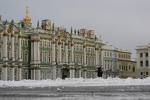




1754 German immigrants bring "shipboard fever" (typhus) to Philadelphia. On Jan. 28 Horace Walpole writes a letter coining the word "serendipity" after reading the 1722 book The Travels and Adventures of Three Princes of Serendip about heroes from Ceylon (Sri Lanka) who continually make discoveries by accident. On Mar. 6 British PM (since Aug. 27, 1743) Henry Pelham (b. 1694) dies, and on July 2 his weak, incompetent brother Thomas Pelham-Holles, Duke of Newcastle (1693-1768) becomes British PM (until Nov. 11, 1756). The French and Indian War (Seven Years' War) in North Am. begins (ends 1763); the British Board of Trade asks each colony to send delegates to a conference to be held in Albany, N.Y. in June to reaffirm the allegiance of the Six Nations Iroquois Confederation and discuss ways among themselves of unifying their colonial defense against the Frogs; in Feb. some Va. militia begin building a fort at the confluence of the Allegheny and Monongahela Rivers (where they unite to form the Ohio River), which on Apr. 17 is attacked by a large French and Indian force, causing the Virginians to withdraw; the French then finish building Ft. Duquesne on the site of modern-day Pittsburgh, Penn.; on May 9 Benjamin Franklin pub. an editorial in the Penn. Gazette blaming the French success "on the present disunited state of the British colonies"; next to the article he prints the first and most famous editorial cartoon in U.S. history, a snake cut into pieces, labelled with names of the colonies, bearing the caption, "Join, or Die" (head=N.E., N.Y., N.J., Penn., Mass., Va., N.C., S.C.=tail); on May 28 the first bloodshed is at Uniontown, Penn.; in June the British build Ft. Necessity in Penn., which the French attack on July 3, and on July 4 (bad day?) George Washington surrenders it after the Mingos desert; Penn. Quakers show how racism trumps pacifism when they withdraw from the Penn. Assembly to allow the war party to vote the money and laws needed to prosecute the war without dirtying their own hands? On June 19-July 10 against the prospect of war between France and Britain, reps. from Md., N.Y., Penn., Mass., Conn., R.I. and N.H. meet in Albany, N.Y., where the Six Nations, led by Mohawk chief Tiyanoga (Hendrick Peters) (1680-1755) accept £500 ($90K) worth of wampum, and renew their alliance with the English, leaving at the beginning of July; Benjamin Franklin and wealthy Mass. shipping merchant Thomas Hutchinson draw up the Albany Plan of Union, calling for a federal "general government" that would handle nat. defense and westward expansion, with a nat. congress composed of reps. selected by each state in proportion to pop. and wealth, and a pres.-gen. appointed by the king; it is approved, then sent to the colonial assemblies and Parliament for approval, but is rejected by all; Franklin is convinced to the end of his life that this plan could have prevented the Am. Rev. - figure out how to blame this on the Illuminati or Jews? On Aug. 2 sultan (since 1730) Mahmud I (b. 1696) dies, and on Dec. 13 his caged brother Osman (Othman) III (1699-1757) becomes Ottoman sultan #25 (until Oct. 30, 1757), suffering from dementia, incl. wearing iron shoes so that the harem women can hear him coming and run before he has to see or smell them; his Russian or Serbian mother Sehsuvar (1682-1756) (real name Mary) is valide sultan, er, cracking down on non-Muslims, requiring them to wear distinctive clothes or badges. Ft. Elisabetgrad (Yelizavetgrad) in Ukraine on the E bank of the Ingul River 155 mi. SE of Kiev is founded, named after Empress Elizabeth; it is later renamed after Bolshevik leader G.E. Zinoviev in 1917, and after Sergei Kirov in 1935 as Kirovograd. Ft. Western is erected on the site of the old Cushnoc trading post, beginning permanent settlement in the Augusta, Maine area; Capt. James Howard, cmdr. of Ft. Western becomes the first settler in Augusta. After British gens. Robert Clive and Henry M. Lawrence frustrate all hopes of a French empire in India, Louis XV recalls and repudiates Marquis Dupleix in order to negotiate peace with England, signaling the end of official French imperial hopes there; the Second Carnatic War (begun 1749) ends - with France's popped cherry? Jean-Jacques Rousseau (b. 1712) returns to his hometown of Geneva, reconverts to Calvinism, gains Genevan citizenship, and begins writing his major works, which are antiestablishment and antireligious in content, and at the same time Romantic? The Society for the Encouragement of Arts and Manufactures is founded in England. The Anglican King's College (renamed Columbia U. in 1784) is founded in New York City in Morningside Heights with a charter granted by George II; pres. #1 is Stratford, Conn. Episcopal Church rector (since 1723) Dr. Samuel Johnson (1696-1772) (until 1763); not to be confused with English biographer Dr. Samuel Johnson (1709-84). The Royal Danish Academy of Fine Arts in Copenhagen is founded on Mar. 30, the 31st birthday of King Frederik V; in 1771 it becomes the Royal Danish Academy of Painting, Sculpture, and Architecture. The U. of Halle in Germany awards the first ever female an M.D. The first iron rolling mill is built at Fareham, Hampshire, England. Poor Richard's Almanack for 1754. George Washington enters a beer recipe in his notebook - don't worry, it's coming? Sports: The Royal and Ancient Golf Club of St. Andrews (originally the Society of St. Andrews Golfers) is founded in St. Andrews, Fife, Scotland, becoming the first golf club; 11 holes, and you go around twice? Architecture: On May 18 Palladian architect John Wood the Elder (b. 1704) caps off his career by laying the first stone for The Circus in Bath in Barton Fields outside the city walls, then (takes a bath and?) dies five days later on May 23, leaving his son John Wood the Younger (1728-82) to finish it by 1764. Stockholms Castle in Sweden is built for Adolf Fredrik. Italian architect Francesco Bartolomeo Rastrelli (1700-71) designs the new improved Winter Palace in St. Petersburg, Russia, incl. the Jordan Staircase. Inventions: On Dec. 12 free African-Am. inventor Benjamin Banneker ompletes the first clock made entirely in the Americas. Science: Scottish chemist Joseph Black (1728-99) discovers carbon dioxide (carbonic acid) gas, which he calls "fixed air", and discovers its function in the "causticization of lime", which helps disprove the phlogiston theory. Immanuel Kant (1724-1804) of Germany discovers the retardation of the rotation of the Earth by frictional resistance of tidal currents, and concludes that time is not a thing in itself, but an unavoidable framework of the human mind; his discovery isn't noticed by scientists until 1840 when the idea of energy is being developed. Nonfiction: Thomas Birch (1705-66), Memoirs of the Reign of Queen Elizabeth from 1581. Anton Busching, Erdbeschreibung (1754-61). Thomas Chippendale, The Gentleman and Cabinetmaker's Directory. Etienne Bonnot de Condillac (1715-80), Traite des Sensations (Treatise on Sensations); claims that all human mental processes derive from the senses, founding the philosophy of Sensationalism, later taken up by James Mill, John Stuart Mill, and Herbert Spencer. Denis Diderot (1713-84), Thoughts on the Interpretation of Nature; is he an atheist, Deist, or pantheist? Jonathan Edwards (1703-58), Inquiry into Freedom of the Will. David Hume (1711-76), The History of England (6 vols.) (1744-61); covers "from the invasion of Julius Caesar to the Revolution of 1688", becoming a perennial bestseller (100 eds.) and std. work, making him financially independent for life; written after the 1745 Jacobite Rising freaks him out, taking 15 years; vols. 5-6 are titled "The History of Great Britain", covering from the 1603 union of England and Scotland, written first, after which he works backwards; writes the soundbyte about the Puritans: "The court of king's bench was called the court of public bench. So cautious on this head were some of the republicans, that, it is pretended, in reciting the Lord's prayer, they would not say, 'thy kingdom come,' but always, 'thy commonwealth come'"; the initial reception is hostile: "I was assailed by one cry of reproach, disapprobation, and even detestation; English, Scotch, and Irish, Whig and Tory, churchman and sectary, freethinker and religionist, patriot and courtier, united in their rage against the man, who had presumed to shed a generous tear for the fate of Charles I, and the Earl of Strafford"; "The period, in which the people of Christendom were the lowest sunk in ignorance, and consequently in disorders of every kind, may justly be fixed at the eleventh century, about the age of William the Conqueror"; too bad, he abandons straight chronological history for a description of the psychic and economic factors that drive it - giving later writers like TLW something to fix? Jonathan Swift (1667-1745), A Treatise on Good Manners and Good Breeding (posth.); "Good manners is the art of making those people easy with whom we converse. Whoever makes the fewest persons uneasy is the best bred in the company"; "Pride, ill nature, and want of sense, are the three great sources of ill manners"; "Pedantry is properly the over-rating of any kind of knowledge we pretend to"; "I can discover no political evil in suffering bullies, sharpers, and rakes, to rid the world of each other by a method of their own; where the law hath not been able to find an expedient." Giuseppe Tartini (1692-1770), Trattato di Musica Secondo la Vera Scienza dell'Armonia; first description of sum and difference tones on stringed instruments. John Woolman (1720-72), Some Considerations on the Keeping of Negroes; a Quaker preacher writes one of the first abolitionist documents in North Am., convincing many Quakers to abandon slaveholding. Art: Francois Boucher (1703-70), Venus and Cupid; Venus; Venus and Mars; The Captive Cupid; The Billet-Doux; Mars and Venus Surprised by Vulcan; The Judgment of Paris; done for Mme. de Pompadour. William Hogarth (1697-1764), The Election. Jacob de Wit (1695-1754), On Writing History; an allegory showing naked Truth keeping watch on a history writer while Pallas Athena (Wisdom) gives advice. Plays: Prosper Jolyot de Crebillon (1674-1762), Le Triumvirat (tragedy) (last play). Poetry: John Duncombe (1729-86), The Feminead, or Female Genius; in praise of women writers - it's sure to wake up the trailblazer in you? Salomon Gessner (1730-88), Daphnis. Novels: Claude Prosper Jolyot de Crebillon (1707-77), Les Heureux Orphelins. Wu Jingzi (1701-54), Unofficial History of the Confucians, or the Scholars (Rulin Waishi); first Chinese satirical novel. Births: French rev. journalist Jacques Pierre Brissot (de Warville) (d. 1793) on Jan. 15 in Chartres. Irish politician and animal rights activist ("the Wilberforce of Hacks") Col. Richard "Humanity Dick" Martin (d. 1834) on Jan. 15 in Ballynahinch, County Galway. Am. surveyor (Quaker) Andrew Ellicott (d. 1820) in Bucks County, Penn.; son of Joseph Ellicott (1732-80); brother of Joseph Ellicott (1760-1826) and Benjamin Ellicott (1765-1827). Am. surveyor Moses Cleaveland (OE "hilly area") (d. 1806) on Jan. 29 in Canterbury, Conn.; founder of Cleveland, Ohio (1796); educated at Yale U. Spanish viceroy of New Spain (1816-21) Adm. Juan Jose Ruiz de Apodaca yEeliza Gaston de Iriarte Lopez de Letona y Lasqueti, 1st Count of Venadito (d. 1835) on Feb. 3 in Cadiz; born into a family of Basque merchats. French statesman-diplomat Charles Maurice de Talleyrand-Perigord (Talleyrand-Pèrigord), Prince of Benevento, Bishop of Autun (d. 1838) on Feb. 13 in Paris. Italian poet-playwright Vincenzo Monti (d. 1828) on Feb. 19 in Alfonsine, Ravenna; educated at the U. of Ferrara. Scottish surgeon-naturalist Archibald Menzies (d. 1842) (pr. MING-iss) on Mar. 15 in Easter Styx, Weem, Perthshire. Am. poet-diplomat Joel Barlow (d. 1812) on Mar. 24 in Redding, Conn.; educated at Dartmouth College and Yale U. French physicist-balloonist Jean-Francois Pilatre de Rozier (d. 1785) on Mar. 30 in Metz. French ultra-conservative Savoyard philosopher-diplomat (Roman Catholic) (Freemason) Joseph-Marie, Comte de Maistre (d. 1821) on Apr. 1 in Chambery, Savoy; brother of Xavier de Maistre (1763-1852); educated at the U. of Turin. Spanish opera-ballet composer Vicente Martin y Soler (d. 1806) on May 2 in Valencia. French moralist-essayist Joseph Joubert (d. 1824) on May 7 in Montignac (Correze), Perigord. Am. Baptist minister John Leland (d. 1841) on May 14 in Grafton, Mass. French gen. Claude Francois de Malet (d. 1812) on June 28 in Jura (Dole). English physician and bowdlerizing editor Thomas Bowdler (d. 1825) on July 11 in Bath, Somerset. Am. Rev. military engineer (maj.) and Washington D.C. architect Pierre L'Enfant (d. 1825) on Aug. 2 in Paris. U.S. Suptd. of Indian Affairs (1796-1816) Benjamin Hawkins (d. 1816) on Aug. 15 in Granville County, N.C. English inventor William Murdock (d. 1839) on Aug. 21. British gen. Banastre (Bannister) "Bloody Ban" "the Green Dragoon" "the Butcher" Tarleton, 1st Baronet (d. 1833) on Aug. 21 in Liverpool. French king (1774-93) Louis XVI "le Dernier" (the Last) (d. 1793) on Aug. 23 in Versailles; 3rd son of Louis Ferdinand, dauphin of France (1729-65) and Marie-Josephe of Saxony (1731-67); grandson of Louis XV (1710-74). English mutiny-prone naval officer William Bligh (d. 1817) on Sept. 9 in Plymouth, Devon; cmdr. of HMS Bounty (1787-9); signs up for the Royal Navy at age 7. French chemist Joseph Louis Proust (d. 1826) on Sept. 26 in Angers; discoverer of the law of constant proportions (compounds always contain certain elements in the same proportion). Russian liberal (oxymoron?) Romanov tsar #13 (1796-1801) Paul I Petrovich Romanov (d. 1801) on Oct. 1; son of Catherine II the Great (1729-96); father of Alexander I (1777-1825) and Nicholas I (1796-1855). French conservative counter-rev. philosopher Vicomte Louis Gabriel Ambroise, Vicomte de Bonald (d. 1840) on Oct. 2 in Le Monna (near Millau), Aveyron. Spanish viceroy of New Spain #59 (1810-13) Gen. Francisco Javier Venegas de Saavedra y Raminez (Ramínez) de Arenzana (d. 1838) on Dec. 2 in Zafra. English "The Village", "The Borough" poet-entomologist George Crabbe (d. 1832) on Dec. 24 in Aldeburgh, Suffolk; becomes rector of Aldeburgh in 1781, then chaplain to the duke of Rutland in 1782. U.S. marshal (Freemason) Robert Forsyth (d. 1794) in Scotland; emigrates to Va. in 1774. English antiquarian William Cunnington (d. 1810) in Heytesbury, Wiltshire; collaborator of Sir Richard Hoare (1758-1838). French "L'Art du Cuisinier" restaurateur (chef to Louis XIII) Antoine B. Beauvilliers (d. 1817). Nigerian Sunni Muslim leader Usman dan Fodio (Usuman bii Foduye) (d. 1817) in Gobir. French Trappist abbot Augustin (Louis Henri) de Lestrange (d. 1827) in Ardeche. English porcelain manufacturer Josiah Spode Jr. (d. 1827); son of Josiah Spode Sr. (1733-97). Deaths: French architect Gabriel Boffrand (b. 1667) on Mar. 19 in Paris. French-born mathematician Abraham de Moivre (b. 1667) on Nov. 27 in London; predicts the exact date of his death by extrapolating, based on sleeping 15 min. more each day, until he reaches the 24-hour limit? Italian mathematician Jacopo Francesco, Count Ricatti (b. 1676) on Apr. 15. German philosopher Christian Wolff (b. 1679) on Apr. 9 in Halle. British architect James Gibbs (b. 1682) on Aug. 5 in London. Danish dramatist-poet Ludvig Holberg (b. 1684) on Jan. 28. Dutch artist Jacob de Wit (b. 1695) on Nov. 12 in Amsterdam. Ottoman sultan (1730-54) Mahmud I (b. 1696) on Dec. 13. Chinese novelist Wu Jingzi (b. 1701) on Dec. 11. English architect John Wood the Elder (b. 1704) on May 23 in Bath. English "Tom Jones" novelist Henry Fielding (b. 1707) on Oct. 8 in Lisbon, Portugal.
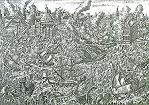
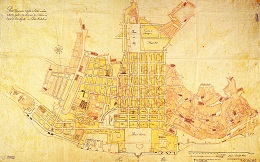

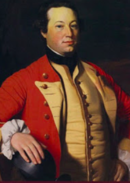


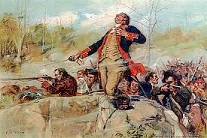

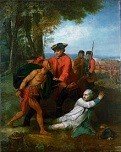











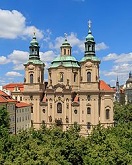

1755 The first foot-and-mouth disease panzootic appears in Europe, then reappears on-and-off for the next half cent. On Apr. 14 as the French and Indian War continues, with the British and Americans fighting the French, Canadians and Indians, the govs. of the British provinces of Va. (Dinwiddle), N.C. (Dobbs), Penn., Md. (Sharpe), N.Y. (Delancy), and Mass. (William Shirley) meet in Alexandria, Va. with newly-arrived (with two regiments of regulars, but no horses and wagons) British CIC Gen. Edward Braddock (1695-1755) to plan a strategy to force the French from North Am., deciding on a 4-fold attack; after the Wagon Affair, where he personally travels all over Penn. to talk farmers into lending horses and wagons for them, 1.4K British and Am. forces under Gen. Braddock, led by volunteer staff officer Col. George Washington hack a road through the wilderness to take Ft. Duquesne (on the site of modern-day Pittsburgh, Penn.), reaching the Monongahela River (branch of the Ohio River) on July 8; meanwhile 2.1K troops from New England under Col. George Scott (-1767) and Maj.-Gen. John Winslow (1703-74) (great-grandson of Mayflower passenger Edward Winslow) sail from Boston up the coast on three warships and 33 transports to the Isthmus of Chignecto in late May, landing on June 3 at Ft. Lawrence in Nova Scotia, housing a few hundred British regulars, the combined force under Col. Robert Monckton (1726-82) (who is far younger than Winslow but a true Brit not a Yankee, hence is given command) marching for Ft. Beausejour (Beauséjour) on June 4, taking it from the French on June 16 and renaming it Ft. Cumberland (abandoning inferior Ft. Lawrence for it), followed on June 18 by Ft. Gaspereau near the mouth of the Gaspareaux River SE of Port Elgin, New Brunswick at Baie Verte on the Northumberland Strait, and on June 30 by St. John; by the end of June all of N Arcadia is under English control; on July 6 the retreating French from Fts. Beausejour and Gaspereaux reach at Baie Verte on the Northumberland Strait, and on June 30 by St. John; by the end of June all of N Arcadia is under English control; on July 6 the retreating French from Fts. Beausejour and Gaspereaux reach Ft. Louisbourg (constructed in 1720-40), which is one of the most extensive forts in North Am. but is fortified for sea-based assaults only; on July 9 disregarding the warnings of his Am. officers that there might be an ambush, Braddock is surprised and defeated 7 mi. E of the fort at the Battle of the Monongahela (Wilderness) (Braddock's Field) by a smaller force of Indians and French in Indian costume, and Braddock and every officer except Washington are KIA or mortally wounded, along with more than half the force (500 killed and 500 wounded of 1.3K); the Indian chief orders his men to aim specially at 6'2" proud strutting Washington on his white horse, but he isn't wounded despite taking two bullets in his hat, four in his coat, and having two horses shot out from under him?; in 1770 Washington revisits the site, along with the Indian chief, who extols him, saying, "My rifles but for you knew not how to miss... You were protected by the Great Spirit and can never die in battle, and will become the ruler of a great nation"; Washington orders Braddock buried in the road and gives the funeral sermon as enemy forces approach, then has the wagons and cannons rolled over the grave to hide its location, and they retreat to Philadelphia after abandoning most of their artillery and supplies; 21-y.-o. Daniel Boone, who was born near modern-day Reading, Penn. and moved with his family to Holman's Ford on the Yadkin River in N.C. in 1753 serves with the Am. forces. On May 15 the town of Laredo, Tex. (modern-day pop. 244.7K/259.1K) on the S border of modern-day Tex. is founded as Villa de San Augustin de Laredo in New Spain by Capt. Don Tomas Sanchez (Tomás Sánchez) de la Barrera (1709-96), named in honor of Laredo, Cantabria, Spain and St. Augustine of Hippo; by modern times it becomes 95% Hispanic-Latino. On July 28 the Acadian Expulsion (Great Upheaval) (1755-63) sees the British decide to forcefully relocate 6K French Acadians who won't swear allegiance to the British crown from Nova Scotia to British colonies from Mass. to S.C., first neutralizing their military threat with the Bay of Fundy Campaign; on Aug. 10 after Maj.-Gen. John Winslow (1703-74) leads his men to the Isthmus of Minas, they seize 400 unsuspecting Acadian men from Ft. Cumberland (Beausejour) and oversee their deportation by ship at Grand Pre, with Winslow calling it "very disagreeable to my natural make and temper"; over the next six years 11K Acadians are deported from Canada; Acadians don't begin arriving on the Golden Coast of La. until 1764 - kershaw? In July notorious 30-y.-o. skirt-chaser Jacques (Giacomo) Casanova (1725-98) is jailed in the Piombi (Ital. "Leads") Prison in the Doge's Palace in Venice on trumped-up charges of sorcery and disturbing the piece, er, peace; on Nov. 1, 1756 he makes a daring escape after 15 mo. (first to escape), ending up in Paris on Jan. 5, 1757, followed by London. On Sept. 2 the Battle of Petticodiac near Hillsborough is a V for the Acadians and Mikmaqs led by French gen. Charles Deschamps de Boishebert (Boishébert) et de Raffetot (1727-97) over the British, who skedaddle after three hours and the loss of only one man (vs. 50 KIA and 60 injured on the Acadian side), allowing 200 families to escape deportation and resettle between Shediac and Cocagne. On Sept. 21 the name of Ft. Lyman (founded as Ft. Lydius in 1731, then Ft. Lyman in 1755) S of Lake George and N of Saratoga Springs near Hudson River Falls (where Indians start carrying their canoes to the headwaters of Lake Champlain) is changed to Ft. Edward in honor of George III's brother Edward, duke of York and Albany. Santa Claus, rated J? On Sept. 8 the Battle of Lake George sees British forces under new supt. of Indian affairs N of the Carolinas and Ohio River maj. gen. Sir William Johnson (1715-74) (who as supt. of Six Nations affairs since 1744 was instrumental in getting them to fight against the French) score their first V over the French, led by Baron Ludwig August von Dieskau (Jean-Armand Dieskau, Baron de Dieskau) (1701-67), and the Indians, led by Mohawk chief King Hendrick, who is KIA; Dieskau is captured and his life spared by Johnson, who is made a baronet with a 5K pound grant and a 100K acre land grant, going on to establish a personal inland empire centered on New York's Mohawk Valley N of the Mohawk River, where he builds Johnson Hall, the site of Johnstown, N.Y.; in Sept. British army surgeon Richard Shuckburgh writes the verses to Yankee Doodle as he cares for the British wounded at the Battle of Lake George; meanwhile colonial forces led by Ephraim Williams Jr. (b. 1715) incl. 200 Mohawk allies walk into an ambush en route to Lake George, and are driven back while suffering heavy losses; Williams is KIA, after which in 1793 after he leaves funds in his will Williams College in Williamstown, Mass. is named after him. On Nov. 1 (Sat.) (All Saints' Day) (9:40 a.m.) the 9.0 Great Lisbon Earthquake followed by a tsunami and fires kills 10K-100K, bringing out the religious prophets who call it divine retribution for Portugal's sins; the earthquake causes King Joseph I to develop severe claustrophoba, causing him to move the royal court to a tent complex in Ajuda; Portuguese PM (secy. of state for internal and foreign affairs) (since Aug. 2, 1750) Sebastiao Jose (Sebastião José) de Carvalho e Melo, 1st Marquis of Pombal, 1st Count of Oeiras (1699-1782) rebuilds Lisbon (modern-day Lisbon Baixa) laid out in rectangular patterns, becoming known as the Pombaline Architectural Style, featuring prefabricated bldg. methods and other anti-seismic design features incl. a forest of buried poles, inter-terrace walls built higher than roof timbers to reduce the spread of fire, and the symmetrical wood lattice Pombaline cage (gaiola) to distribute earthquake force, with army troops marched around town to test the new bldgs.' strength. On Nov. 1 an earthquake in N Persia kills 40K; an earthquake in Casa Branca in Morocco causes the Portuguese to finally abandon it (occupied since 1575), and in 1757 Sidi Mohammed III ben Abdallah (-1790) takes it over, and rebuilds it Muslim-style (with a mosque et al.), and renames it Darl al-Beida (the White House), causing the Spanish to call it Casablanca. On Nov. 18 (4:00 a.m.) a 6.0 earthquake in Cape Ann, Mass. (24 mi. N of Boston) strikes while people are in their beds, causing 1K chimneys to fall from rooftops in Boston. The English-Austrian alliance ends; Sir. Charles Hanbury-Williams arrives in Russia and negotiates an agreement whereby Russia will keep 50K men at the Livonian frontier ready to march into Prussia in return for England paying £100K a year, and more if the soldiers are ever used; the Landgrave of Hesse sells mercenaries to England for the defense of Hanover. Corsican patriot Pasquale de Paoli (1725-1807) is elected gen. in Corsica, and leads a revolt against Genoa (ends 1769), founding the Corsican Repub. (ends 1769), pissing off Genoa causing them to sell it to France - they get Napoleon in the bargain? China conquers Turkestan. Ang Tong becomes king of Cambodia for the 2nd time (until 1758). After the British conquer Lower Burma and move the capital there from Moulmein, Aloung P'Houra (1711-60) founds Rangoon, Burma. The city of Charlotte, N.C. (originally Charlotte Town) E of the Catawba River, named after British queen consort Charlotte of Mecklenburg-Strelitz (modern-day pop. 731K/2.4M) is settled on land depleted by smallpox of the native Catawba tribe by Thomas Spratt and Thomas Polk (grand-uncle of U.S. pres. James K. Polk) (who marries his daughter), followed by a large number of Scots-Irish Presbyterians and a smaller number of Germans, with the city flag based on the St. Andrews Flag of Scotand; it is incorporated in 1768; it later gets the nicknames "Queen City" and "the Hornet's Nest" after British Gen. Charles Cornwallis calls it "a hornet's nest of rebellion". The Spanish expel non-Christian Chinese from the Philippines in order to increase control over the Galleon trade, leaving Chinese mestizos to take their place in the economy. The first law instruction in the U.S. begins at King's College in New York City. Mikhail Lomonosov (1711-65) and Ivan Shuvalov (1727-97) ("the Maecenas of the Russian Enlightenment") get Empress Elizabeth I to decree the establishment of Moscow State U., Russia's first univ.; it is renamed after Lomonosov in 1940. Future U.S. pres. John Adams graduates from Harvard College, 14th in a class of 24, with rank based on social standing. Benjamin Edes (1732-1803) and John Gill (1732-85) found the pro-Am. Rev. Boston Gazette and Country Journal in Mass. French choreographer Jean Georges Noverre (1727-1810) becomes ballet master at Drury Lane in London; in 1758 he returns to Lyon (until 1760), revolutionizing the ballet. London-born Frances "Fanny" Abington (nee Barton) (1737-1815) debuts as Miranda in Susanna Centlivre's "Busybody" in Haymarket, London, getting her a recommendation by Samuel Foote to join the Drury Lane co., remaining for 18 years and becoming the first to play 30+ important chars., incl. Shakespeare's Beatrice, Desdemonia, Ophelia, and Portia, and Lady Teazle in 1777. Poor Richard's Almanack for 1755. Architecture: Neurathen Castle is built near Rathen and Pirna (SE of Dresden) in Saxon Switzerland near the Bastei (Bastion) rock formation overlooking the Elbe River. The Baroque St. Nicholas Church in Prague, Czech. (begun 1704 by Christoph Dientzenhofer) is finished by his son Kilian Ignaz Dientzenhofer (b. 1751). The moat-skirted octagon-shaped Place de la Concorde (Place Louis XV) at the E end of the Champs-Elysees next to the Tuileries Gardens, designed by Ange-Jacques Gabriel (1698-1782) is begun (finished 1772), becoming the largest in Paris; it originally features an equestrian statue of Louis XV commissioned in 1748 by the city of Paris, sculpted by Edme Bouchardon and Jean-Baptiste Pigalle; during the French Rev. the statue is torn down and the area renamed Place de la Revolution, where Louis XVI becomes its first neckless guest on Jan. 21, 1793. The Marble Boat is built in the Summer Palace in Beijing by emperor Qian Long as a place for afternoon tea; it burns down in 1860, and in 1893 empress Cixi rebuilds it with embezzled naval funds so she can enjoy tea on rainy days. The Royal Palace of Madrid (begun 1738) is finished. Inventions: M. Garvin develops the first iron girder bridge. Science: German brain man Immanuel Kant (1724-1804) pub. his doctoral thesis Gen. Natural History and Theory of the Celestial Bodies, conceding the existence of life on other planets like Giordano Bruno was burned at the stake for, and advancing the nebular hypothesis, describing nebulae as "island universes". Sebastian Menghini studies the action of camphor on animals. Charles LeRoy demonstrates that an electrical charge delivered to a blind eye produces a sensation of light. Nonfiction: Joseph Black (1728-99), Experiments upon Magnesia, Quicklime, and other Alkaline Substances. Richard Cantillon, Essai sur la Nature du Commerce en General. Etienne Bonnot de Condillac (1714-80), Traite des Animaux. Benjamin Franklin (1706-90), Observations Concerning the Increase of Mankind, Peopling of Countries, etc.; argues that Europe is too crowded, and that Britain should expand into North Am. to increase their pop. and power, and that the Anglo-Saxons are the best race to do it, because "the number of purely white people in the world is proportionably very small", hence the importation of Africans is undesirable because they will darken the white pop., which should remain "lovely", along with the red; "All Africa is black or tawny. Asia chiefly tawny. America (exclusive of the new Comers) wholly so. And in Europe, the Spaniards, Italians, French, Russians and Swedes, are generally of what we call a swarthy Complexion; as are the Germans also, the Saxons only excepted, who with the English, make the principal Body of White People on the Face of the Earth"; "Why increase the Sons of Africa, by Planting them in America, where we have so fair an Opportunity, by excluding all Blacks and Tawneys, of increasing the lovely White and Red?"; too bad, he adds "Why should the Palatine Boors [Dutch and Germans] be suffered to swarm into our Settlements?", causing the Penn. Dutch to turn against him, helping him lose the Oct. 1764 Penn. Provincial Assembly election. James Hervey, Theron and Aspasio; Calvinist work claiming that faith is a work of man which earns salvation, pissing-off Robert Sandeman (1718-71), who creates the Sandemanian sect of Bible-thumpers. Francis Hutcheson (1694-1746), A System of Moral Philosophy; postulates a moral sense, and advocates calm benevolence over simple self-interest; coins the phrase "The greatest happiness for the greatest number." Dr. Samuel Johnson (1709-84), A Dictionary of the English Language (2 vols.) (1755-73); standardizes the methods for dictionaries, incl. using quotations from established literary works; makes him famous but not rich?; he loves to zing the Scots, e.g., "Oats: A grain, which in England is generally given to horses, but in Scotland appears to support the people". Immanuel Kant (1724-1804), Universal Natural History and Theory of the Celestial Bodies; or, An Attempt to Account for the Constitutional and Mechanical Origin of the Universe upon Newtonian Principles; adopts the ideas of English astronomer Thomas Wright, advancing the nebular hypothesis; "In the universal silence of nature and in the calm of the senses the immortal spirit's hidden faculty of knowledge speaks an ineffable language and gives [us] undeveloped concepts, which are indeed felt, but do not let themselves be described." Jean-Jacques Rousseau (1712-78), L'Inegalite par les Hommes: Discours (Discourse on the Origins of Inequality); how civilization ruined man's natural state of equality with the concepts of property, division of labor, mutual dependence, and arbitrary power? - wasn't he pleased to meet him and guess his name? J.J. Wincklelmann, Gedanken uber die Nachahmung der Grieschischen Werke. Music: Egidio Romoaldo Duni, Ninette a la Cour (opera-comique). Jean-Philippe Rameau (1683-1764), La Naissance d'Osiris, ou La Fete Pamilie (The Birth of Osiris, or The Festival of Pamylia) (opera) (Fontainebleau) (Oct. 12); celebrates the birth of Louis XVI; libretto by Louis de Cahusac; Premier w/Two Tambourines; Anacreon (Anacréon) (opera) (Fontainebleau) (Oct. 23); libretto by Louis de Cahusac; incl. Contredanse. John Christopher Smith (1712-95), The Fairies (opera); written for David Garrick based on Shakespeare's "Midsummer Night's Dream". Art: Francois Boucher (1703-70), Landscape with Watermill; The Four Seasons. Thomas Gainsborough (1727-88), Milkmaid and Woodcutter. Jean-Baptiste Greuze (1725-1805), Father Reading the Bible to His Children; breaks from Rococo painting, making him an overnight success in France. Plays: Carlo Goldoni (1707-93), Le Donne de Casa Soa (The Women from His Own Home) (comedy). Gotthold Lessing (1729-81), Miss Sara Sampson (tragedy); first middle-class drama in German? Voltaire (1694-1778), La Pucelle d'Orleans; Joan of Arc. Novels: Henry Fielding (1707-54), Journal of a Voyage to Lisbon (posth.). Births: Am. Rev. hero, statesman, and U.S. treasury secy. #1 (1789-95) (face on the U.S. $10 bill) Alexander Hamilton (d. 1804) on Jan. 11 in Nevis, Leeward Islands, British West Indies (b. 1757?). German physicist-anatomist Samuel Thomas von Sommering (Sömmerring) (d. 1830) on Jan. 28 in Thorn (Torun), Prussia; educated at the U. of Gottingen; discoverer of the macula in the human retina. German margrave Charles Louis, Hereditary Prince of Baden (d. 1801) on Feb. 14 in Karlsruhe; husband (1774-) of Landgravine Amalie of Hesse-Darmstadt (1754-1832); father of Karoline (1776-1841), Charles, 2nd grand duke of Baden (1786-1818) and Wilhelmina (1788-1836); ancestor of Franz Joseph I of Austria, Nicholas II of Russia, Lord Mountbatten, and Prince Philip, Duke of Edinburgh. English gen.-statesman Henry Edward Fox (d. 1811) on Mar. 4; 4th son of Sir Henry Fox (1705-74); educated at Westminster School. Am. political leader (Freemason) Rufus King (d. 1827) on Mar. 24 in Scarboro, Maine; educated at Harvard U.; too late for the Am. Rev., he is big in the 1787 Constitutional Convention, introducing the resolution calling for it; first U.S. Sen. from N.Y. French "The Physiology of Taste" gastronomomy writer ("Shakespeare of the Cooking Pot") Jean Anthelme Brillat-Savarin (d. 1826) on Apr. 1 in Belley, Ain. German physician (founder of Homeopathy) Christian Friedrich Samuel Hahnemann (d. 1843) on Apr. 10 in Meissen, Saxony; born into a family of porcelain painters; speaks 9 languages. English "Parkinson's disease" surgeon-paleontologist (Freemason) James Parkinson (d. 1824) on Apr. 11 in Shoreditch, London. French Rococo-Neoclassical painter (#1 female painter of the 18th cent.?) Marie Elisabeth Louise Vigee Le Brun ((Louise Élisabeth Vigée Le Brun) (d. 1842) on Apr. 16 in Paris; daughter of portraitist Louis Vigee; court painter to Marie Antoinette (1779-89). Am. explorer capt. Robert Gray (d. 1806) on May 10 in Tiverton, R.I. Italian violinist-composer Giovanni Battista Viotti (d. 1824) on May 12 in Fontanetto Po (Vercelli), Piedmont. French astronomer (Honore Flaugergues) Pierre-Gilles-Antoine-Honoré Flaugergues (d. 1835) on May 16 in Viviers, Ardeche. U.S. Supreme Court justice #12 (1800-04) Alfred Moore (d. 1810) on May 21 in New Hanover County, N.C. English hostess-heiress Jane Stanhope (nee Fleming), Countess of Harrington (d. 1824) on May 23; daughter of Charles FitzRoy, 2nd duke of Grafton and Lady Henrietta Somerset, daughter of Charles Somerset, marquess of Worcester; wife (1789-) of Charles Stanhope, 3rd earl of Harrington (1753-1829); mother of Charles Stanhope, 4th earl of Harrington (1780-1851); known for love of tea-drinking. Am. Rev. soldier-spy-martyr Nathan Hale (d. 1776) on June 6 in Coventry, Conn.; educated at Yale U.; teaches school in 1773-5, then becomes a lt. in the Continental Army, making it easy to impersonate a schoolmaster as a spy. French politician Paul Francois Jean Nicolas, Vicomte de Barras (d. 1829) on June 30 in Fox-Amphoux. Swiss chemist-physicist (Argand lamp inventor) Francois Pierre Aime (Aimé) (Ami) Argand (d. 1803) on July 5 in Geneva. Welsh tragic actress Sarah Kemble (Mrs. Sarah Siddons) (d. 1831) on Juyl 5 in Brecon, Wales; wife (1773-) of William Siddons; aunt of Fanny Kemble (1809-93). English Neoclassical sculptor-illustrator John Flaxman (d. 1826) on July 6 in York; hired by potter Josiah Wedgwood in 1775. French Prony Brake mathematician-engineer Gaspard Clair Francois Marie Riche de Prony (d. 1839) on July 22 in Chamelet, Beaujolais. French graphite pencil inventor Nicolas Jacques Conte (d. 1805) on Aug. 4 in Aunou-sur-Orne (near Sees). English painter-illustrator Thomas Stothard (d. 1834) on Aug. 17 in London. Swedish soldier-diplomat-statesman Count Hans Axel von Fersen the Younger (d. 1810) on Sept. 4 in Stockholm; son of Axel von Fersen the Elder (1719-94). French Rev. leader Bertrand Barere (Barère) de Vieuzac (d. 1841) on Sept. 10 in Tarbes, Gascony. Am. inventor Oliver Evans (d. 1819) on Sept. 13 in Newport, Del. U.S. Supreme Court chief justice #4 (1801-35) and U.S. Supreme Court justice #13 (Freemason) John Marshall (d. 1835) on Sept. 24 near Germantown (Midland), Fauquier County, Va.; descendant of William Randolph; cousin of Thomas Jefferson. Am. writer Miss Hannah Adams (d. 1832) on Oct. 2 in Medfield, Mass.; first prof. woman writer. Spanish (Basque) chemist Fausto Fermin de Elhuyar (Delhuyar) y De Lubice (d. 1833) on Oct. 11 in Logrono; brother of Juan Jose Elhuyar (1754-96). Welsh Calvinistic Methodist clergyman Rev. Thomas Charles (d. 1814) on Oct. 14 in Longmoor. French marshal (1804-) Francois Joseph Lefebvre, 1st Duc de Dantzig (d. 1820) on Oct. 25 in Alsace; father is a Hussar; created duke in 1807. French queen (1774-92) and cake snacker Marie Antoinette (Maria Antonia Josefa Johanna von Hapsburg-Lothringen) (d. 1793) on Nov. 2 in Hofburg Palace, Vienna [Scorpio]; daughter of Austrian empress Maria Theresa; sister of Marie Caroline of Austria (1752-1814); wife of Louis XVI (1754-93); her birth horoscope forecasts such calamity that her natal celebration is canceled. Am. Rev. War soldier-politician William Stephens Smith (d. 1816) on Nov. 8 in Long Island, N.Y.; husband of Abigail Adams (daughter of Pres. John Adams); brother-in-law of John Quincy Adams; educated at Princeton U. Prussian lt. gen. (chief of staff) Gerhard Johann David Waitz von Scharnhorst (d. 1813) on Nov. 12 in Bordenau (near Hanover); teacher of Carl von Clausewitz (1780-1831). French king (1814-24) Louis XVIII (Louis Stanislas Xavier de France) (d. 1824) on Nov. 17; brother of Louis XVI (1754-93); uncle of Louis XVII (1785-95). Am. "The Athenaeum" portrait painter ("Father of American Portraiture") Gilbert Charles Stuart (Stewart) (d. 1828) on Dec. 3 in Saunderstown (near Newport), R.I.; paints the first six U.S. presidents, incl. old man Washington's wrinkled neck portrait on the $1 bill. French Rev. leader Georges Couthon (d. 1794) in Orcet, Clermont, Auvergne. Spanish lt.-gen. Vincente Maria Canas (Cañas) y Portocarrero, VII Duke del Parque (d. 1824). French "La Belle Frascatane" artist Philibert Louis Debucourt (d. 1832) in Paris. English enamel painter Henry Bone (d. 1834) in Truro, Cornwall. Deaths: French courtier-writer Louis de Rouvroy, duc de Saint-Simon (b. 1675). Mohawk chief Hendrick (b. 1680) on Sept. 7; KIA while fighting with the English against the French. French painter Jean-Baptiste Oudry (b. 1686) on Apr. 30 in Beauvais. French philosopher-jurist Baron de Montesquieu (b. 1689) on Feb. 10 in Paris: "Government should be set up so that no man need be afraid of another." German historian Johann Lorenz von Mosheim (b. 1693) on Sept. 9 in Gottingen; leaves An Ecclesiastical History, From The Birth of Christ to the Beginning of the Eighteenth Century: in which The Rise, Progress And Variation of Church Power Are Considered In Their Connection With the State Of Learning And Philosophy, and The Political History of Europe During that Period (2 vols.), which is posth. pub. in London in 1842. Scottish-born British gen. Edward Braddock (b. 1695) on July 18 near Pittsburgh, Penn. English organist-composer Maurice Greene (b. 1696) on Dec. 1 in London. Italian organist-composer Giovanni Battista Sammartini (b. 1698). Portuguese composer Francisco Antonio de Almeida (b. 1702). Am. historian William Stith (b. 1707). Am. landowner Ephraim Williams Jr. (b. 1715) on Feb. 24 near Lake George, N.Y. (KIA); namesake/benefactor of Williams College.







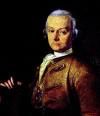

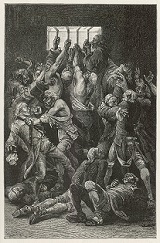

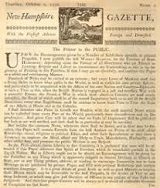

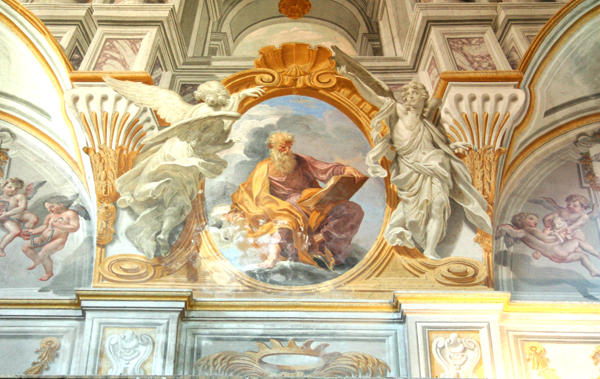

1756 On Jan. 16 after the War of the Austrian Succession convinces Britain that Austria is no longer powerful enough to check French power, making it want to build up smaller states incl. Prussia, the Convention (Treaty) of Westminster is signed between Prussia and Hanover (owned by the king of Britain), stating that neither will allow the entry of a foreign army onto German soil; Britain promises not to aid Austria in a renewed conflict for Silesia as long as Prussia protects Hanover from France, causing Maria Theresa to seek an alliance with France to help her reclaim Silesia from Prussia; the Diplomatic Rev. AKA the Great Change of Partners (Britain and Austria vs. France and Prussia becoming France and Austria vs. Britain and Prussia) begins. On Feb. 17 incompetent ("indecision was one of his strongest features" - Benjamin Franklin), arrogant, sluggish and tyrannical Scottish earl John Campbell, 4th Earl of Loudoun (1705-82) is appointed capt.-gen and gov.-in-chief of Va., followed on Mar. 20 by CIC of British forces in North Am. (until Mar. 1758), going on to bring in scummy soldiers recruited from jails and poorhouses, or even shanghaied off the streets of New York City, and force citizens to quarter them in their homes, even after they build barracks for them, and bring his lavish aristocratic lifestyle with him, throwing lavishly liquored parties and showing no respect for churches or churchgoers, causing grievances that are remembered when the Declaration of Independence is written in 1776. On May 15 England declares war on France (although fighting had been going on in America for two years?); the French Canadians drive the British out of the Great Lakes; the British lose Fort Oswego on Lake Ontario. On May 17 Britain declares war on France, launching the Seven Years' War (ends Feb. 15, 1763). On May 20 the Battle of Minorca sees 15K French troops under marshal Louis Francois Armand de Vignerot du Plessis, Duc de Richelieu (1696-1788) and Gen. Rochambeau take Minorca from the English after Adm. John Byng (1704-57) refuses to close his ships on the French ships, settling for a lossless battle (43 British sailors KIA and 168 injured vs. 38 French KIA and 175 injured), getting Byng charged with treason for failing to "do his utmost", and shot on Mar. 14, 1757 at Portsmouth aboard HMS Monarch, after which the public suspects he's a scapegoat and swings opinion in his favor, making him the last British adm. executed in this fashion; after the successful siege of Port Mahon, capital of Minorca, mayonnaise (oil and egg yolks) is allegedly invented by Richelieu's chef to celebrate; it doesn't catch on in the U.S. until 1905. In May the Treaty of Versailles, a defensive alliance is signed between Austria and France. White Euros get ideas about death camp design from India? On June 20 after another war breaks out between the French and British in S India, and Mirza Mohammad Siraj-ud-Daulah (Dawla) (1733-57), last independent Muslim Nawab of Bengal attacks Calcutta, attempting to drive all British out of Bengal, he captures the British East India Co. stronghold of Ft. William, allegedly confining the 146-man British garrison in the 20-sq.-ft. (18 ft. x 14 ft. x 10 in.) Black Hole of Calcutta (only two small windows), killing all but 23 of them overnight; later investigations find that 114 of the men were actually killed defending the fort, and only nine officers were confined, of which three died, two from wounds, and that it was all fabricated by survivor English surgeon (temp. gov. of Bengal in 1760) John Zephaniah Holwell (1711-98); on Dec. 6 Robert Clive relieves British fugitives in Fulta 20 mi. S of Calcutta. On Aug. 27 Frederick II the Great of Prussia leads 67K men into Saxony in a surprise attack (blitzkrieg?), causing the small Saxon army to flee on Aug. 29 to between Festung Konigstein and Schloss Sonnenstein, starting the Seven Years' (Third Silesian) War (ends Feb. 15, 1763) (the first world war and the beginning of the British Empire, or World War IV after the War of the League of Augsburg, the War of the Spanish Succession, and King George's War?); on Oct. 1 Frederick II defeats the Austrians at the Battle of Lobositz (Lobosik) in Bohemia, and on Oct. 16 the Saxon army capitulates to Frederick II at Pirna; the Prussians take Dresden, causing Austria, France, Russia, Sweden, and Saxony to declare war on Prussia and Britain; British Whig leader William Pitt the Elder, Earl of Chatham (1708-78) comes to power in England, becoming secy. of war after British PM (since Mar. 16, 1754) Thomas Pelham-Holles, 1st Duke of Newcastle resigns on Nov. 11 then returns to power, offering him the position; "England has long been in labour, but at last she has brought forth a man" (Frederick II the Great); Britain subsidizes Prussia while taking advantage of the diversion of France to strength their holdings in Canada and India; on Nov. 16 former lord lt. of Ireland (1755-7) William Cavendish, 4th Duke of Devonshire (1720-64) becomes first lord of the treasury (same thing as PM) (until June 25, 1757). On Oct. 7 The New Hampshire Gazette is founded in Portsmouth, N.H. by printer Daniel Fowle (1715-87), becoming the first newspaper in N.H.; in 1839 after the Maryland Gazette ceases pub., it is recognized as the oldest newspaper in the U.S., causing it to trademark the phrase "The Nation's Oldest Newspaper". On Oct. 28 Gordon Shumway, AKA ALF (Alien Life Form) is born on the Lower East side of Planet Melmac, located 6 parsecs past the Hydra-Centaurus Supercluster, with a purple sun, green sky, and blue grass; he attends high school for 122 years, captaining the Bouillabaisseball team, then escapes before a nuclear war blows it up, following a ham radio signal to Earth, where he crash-lands in the garage of the Tanner family, who own yummy cat Lucky :). The gov. of Penn. and his council break with Quaker tradition and declare war on the Delaware and Shawnee, offering a bounty of 130 Spanish dollars for "the scalp of every male Indian enemy above the age of twelve years produced as evidence of their being killed", causing six leading Quakers to resign from the Penn. Assembly; William Penn's 1681 dream of a "holy experiment" is kaput after 75 years? The War of the Seven Reductions (begun 1752) ends with a Portuguese V and severe repression; Portugal retains Colonia and voids the 1750 treaty with Spain. The Afghanis under Ahmed Shah Durrani seize Delhi. Samuel Adams becomes a tax collector in Boston, Mass. Prussian-born Gebhard Blucher (b. 1742) joins the Swedish army, but is later captured by the Prussians during the Seven Years' War and joins their army, reaching the rank of major by 1787. A prize ristra-winning ghost story in Old Spanish New Mexico? Fray Juan Jose Padilla dies in Isleta Pueblo, New Mexico, and is buried in a wooden coffin beneath the altar of the St. Augustine (formerly St. Anthony of Padua) Church in a wooden coffin; in 1826 the coffin is discovered risen through the dirt floor, the priest's body showing little deterioration, and the rumor spreads that he is looking for sinners; he is reburied, resurfaces in 1889, still with little wear and tear, then threepeats in 1962, when they lay him to rest under a concrete slab - something about the water table? Swedish poet Olof von Dalin is exiled from the Swedish court for complicity in a plot to overthrow king Adolf Fredrick, and doesn't clear himself and return until 1761. Voltaire issues the soundbyte that the Holy Roman Empire is neither Holy, nor Roman, nor an Empire - it's shoe week at where? Cotton velvet is first made in Bolton in Lancashire, England (where the cotton industry was introduced around 1600), causing cotton to become fashionable, after which Lancashire's exports to increase from £46K this year to £200K in 1764; most of the spinning and weaving is still done by cottage industry, who finally adopt John Kay's flying shuttle of 1733. The first chocolate factory opens in Germany. A porcelain factory is founded in Sevres, France. Poor Richard's Almanack for 1756. The New Hampshire Gazette newspaper is founded in Portsmouth. Architecture: "Father of Civil Enginering" John Smeaton (1724-92) begins Smeaton's Tower on Eddystone Lighthouse on the Eddystone Rocks in Plymouth; the light is first lit on Oct. 15, 1759; in 1877 it is dismantled and moved to Plymouth Hoe on top of the limestone cliffs. Nassau Hall in Princeton, N.J., designed by Independence Hall architect Robert Smith and Dr. William Shippen opens. The Royal Court Theater in St. Petersburg, Russia is founded. The Great Palace in Tsarskoe Selo, Russia (begun 1749) is completed. The 140-ft. Old Stone Bridge in Pontypridd (pr. "PONT-ee-preathe"), Wales over the Taf River in Welsh coal country is built by Welsh Methodist minister William Edwards (1719-89), becoming the longest stone single-arch bridge in Europe, featuring three funky holes at each end to reduce the weight; too bad, it proves too steep for carts, causing the Victoria Bridge to be built in 1857. Nonfiction: Louis Pierre Anquetil (1723-1808), Histoire Civile et Politique de Reims (3 vols.). Thomas Birch (1705-66), History of the Royal Society of London (1756-7). Sir William Blackstone (1723-80), An Analysis of the Laws of England (Clarendon Press); bestseller. Edmund Burke (1729-97), Vindication of Natural Society; pub. anon. as a satire of Lord Bolingbroke, making Burke a star; The Philosophical Inquiry into the Origin of Our Ideas on the Sublime and Beautiful; gets good buzz from Dr. Samuel Johnson and Gotthold Lessing, getting Burke a pass into the lit. society of London (David Hume), David Garrick (1717-79), Joshua Reynolds et al.). Father Alban Butler (1710-73), Butler's Lives (The Lives of the Fathers, Martyrs and Other Principal Saints) (4 vols.) (1756-9) (London); his opus magnus, an English version of the "Acta Sanctorum", downsizing their superhuman status; "They were once what we are now, travelers on earth. They had the same weaknesses we have. We have difficulties; so had the saints." Pierre Francois Xavier de Charlevoix (1682-1761), Histoire de Paraguay. Arthur Collins, The Peerage of England (1709-56). Robert Dodsley and James Dodsley, Theatrical Records. James Ferguson (1710-76), Astronomy Explained Upon Sir Isaac Newton's Principles. Marquis de Mirabeau (1715-89), Ami des Hommes ou Traite de la Population. Leopold Mozart (1719-87), Treatise on Violin Playing; becomes the std. textbook. Voltaire (1694-1778), An Essay on Universal History, the Manners and Spirit of Nations: From the Reign of Charlemagne to the Age of Louis XIV (Essai sur les Moeurs et l'Esprit des Nations); breaks from the tradition of narrating only diplomatic and military events, going into social history, arts, sciences, and customs, treating Europe as a whole, becoming the first Euro scholar to try to write a secular history of the world sans divine miracles, which he rejects as contradicting the normal course of Nature; he acknowledges the debt owed by European civilization to the Muslim World, but is otherwise weak on the Middle Ages, although he seldom misses a chance to expose the dirty laundry of the Church; "One demands of modern historians more details, better ascertained facts, precise dates, more attention to customs, laws, mores, commerce, finance, agriculture, population" (his article on History in Diderot's "Encyclopedie"); too bad, in Chapter 4 ("Of Persia, Arabia, and Mahomet") he reverses his view about Muhammad being a murderous fanatic in his 1741 play Mahomet the Prophet; or, Fanaticism (Le Fanatisme, ou Mahomet le Prophet), and extols him as one of the greatest lawmakers in history along with Confucius and Zoroaster, claiming that Muslim countries had more religious tolerance than Christian ones, while seemingly oblivious to the fact that Muslim tolerance comes with the price of total subjugation of mind, body, and property, the acknowledgement of eternal inferiority, and the payment of a yearly ransom (jizya) to keep from being executed as an infidel, acknowledging the propriety of violence by Muslims, making Islam an ideology he should have fought as hard as he did the Church. Music: Leopold Mozart (1719-87), Versuch einer Grundlichen Violinschule. Jean-Philippe Rameau (1683-1764), Zoroastre (Zoroaster) (opera) (Paris Opera) (Jan. 19); libretto by Louis de Cahusac; a rev. of the flop 1749 opera, which is a big hit this time; first French opera to dispense with Greek-Roman mythology and go for Persian; "A thinly disguised portrayal of Freemasonry" (Graham Sadler); incl. Regne Amour. John Christopher Smith (1712-95), The Tempest (opera); written for David Garrick based on Shakespeare's "The Tempest". Art: Francois Boucher (1703-70), Portrait of Madame Pompadour; Vulcan Presenting Arms to Venus for Aeneas; Fountain of Venus. Domenico Corvi (1721-1803), Oratorio del Gonfalone (fresco). Sir Joshua Reynolds (1723-92), Admiral Holbourne and His Son. Johann Zoffany (1733-1810), Self-Portrait as David with the Head of Goliath. Plays: Carlo Goldoni (1707-93), Il Campiello (The Little Square) (comedy). Voltaire (1694-1778), Desastre de Lisbonne. Poetry: William Mason, Odes. Christoph Martin Wieland (1733-1813), Sympathien. Fiction: Voltaire (1694-1778), Plato's Dream; about Demiurgos the Eternal Geometer, who tasks "lesser superbeings" to create their own worlds, with Demogorgon creating Earth, which the other superbeings laugh at as imperfect, embarrassing Demiurgos, who had declared himself the only being capable of creating perfection and had obviously goofed with his lesser superbeings. Births: Spanish adm. Baltasar Hidalgo de Cisneros y de la Torre (d. 1829) on Jan. 6 (Epiphany) in Cartagena; named after one of the three Magi. Austrian "Cosi Fan Tutte", "The Magic Flute" composer-performer-prodigy (Freemason) ("the Immortal") Joannes Chrysostomus Wolfgangus Theophilus Mozart (AKA Amadeus) (d. 1791) on Jan. 27 in Salzburg; born at No. 9 Getreidegasse; son of Leopold Mozart (1719-87), violinist and concertmeiser for the archbishop of Salzburg, and Anna Maria Walburga Mozart (nee Pertl) (1720-78); younger brother of Maria Anna (AKA Nannerl) (1751-1829) - where did they film "The Sound of Music"? Am. Rev. soldier-statesman Henry "Light-Horse Harry" Lee (d. 1818) on Jan. 29; father of Gen. Robert E. Lee (1807-70). U.S. Repub. vice-pres. #3 (1801-5) and statesman-adventurer (sure shot?) Aaron Burr (d. 1836) on Feb. 6 in Newark, N.J.; son and namesake of a prominent Presbyterian minister who is pres. of the College of N.J. (Princeton); grandson of Jonathan Edwards; graduates from the College of New Jersey at age 16; the only feminist among the early leaders of the U.S. (although a womanizer). English journalist-novelist, and political philosopher (Romantic movement founder) William Godwin (d. 1836) (AKA Edward Baldwin) on Mar. 3 in Wisbech, Cambridgeshire; husband of Mary Wollstonecraft Godwin (1759-97); father of Mary Shelley (1797-1851); first modern proponent of anarchism. Scottish "The MacNab" Romantic portraitist Sir Henry Raeburn (d. 1823) on Mar. 4 in Stockbridge; knighted in 1822. Spanish Roman Catholic Church historian Juan Antonio Llorente (d. 1823) on Mar. 30 in Rincon de Soto (La Rioja); gen. secy. of the Spanish Holy Office (Inquisition) (1789-); first to pub. a candid history of the proceedings. French prince Louis Henri de Bourbon-Conde (Bourbon-Condé) (d. 1830) on Apr. 13; only son of Louis Joseph, prince de Conde (1736-1818) and Charlotte-Godefried de Rohan-Soubise. Am. George Washington's personal secy. in Philly Peter Wallace Gallaudet (d. 1843) on Apr. 21; father of Thomas Hopkins Gallaudet (1787-1851). English poet-critic-satirist William Gifford (d. 1826) in Apr. in Ashburton, Devonshire; educated at Exeter College, Oxford U. German Bavarian Wittelsbach king (1806-25) Maximilian I Joseph (d. 1825) on May 27 in Schwetzingen, Baden. French physician-chemist Jean-Antoine Chaptal, Comte de Chanteloup (d. 1832) on June 5 in Nojaret (Lozere); coiner of the word "nitrogen". Am. "Declaration of Independence on the $2 bill" painter ("the Painter of the Revolution") Col. John Trumbull (d. 1843) on June 6 in Lebanon, Conn.; son of Conn. Gov. (1776-84) Jonathan Trumbull (1710-85); brother of John Trumbull (1737-78) and Jonathan Trumbull Jr. (1740-1809); educated at Harvard U.; loses one eye in childhood; not to be confused with the other John Trumbull (b. 1750) of Westbury, Conn. Venezuelan liberator ("the first Universal Venezuelan") ("the Great Universal American") Francisco Miranda (Sebastian Francisco de Miranda y Rodríguez de Espinoza) (d. 1816) on June 9 in Caracas. English caricaturist-painter Thomas Rowlandson (d. 1827) on July 14 in Old Jewry, London. Scottish writer-poet Elizabeth Hamilton (d. 1816) on July 25 in Belfast, Ireland; Scottish parents. English royal non-queen wife (1785-) Maria Anne Fitzherbert (Smythe) (d. 1837) on July 26 in Brambridge, Hampshire; morganatic wife of George IV - he gets the milk without buying the cow? French politician-adm. Jean Baptiste de Nompere (Nompère) de Champagny, 1st Duc de Cadore (d. 1834) on Aug. 4 in Roanne. German field marshal (for the Hapsburgs) Count Heinrich von Bellegarde, Viceroy of Lombardy-Venetia (d. 1845) on Aug. 29 in Dresden, Saxony. British abolitionist Whig statesman (Unitarian) William Smith on Sept. 22 in Clapham, London; maternal grandfather of Florence Nightingale (1820-1910). Scottish surveyor and road engineer John Loudon(Lowdon) McAdam (d. 1836) on Sept. 23 in Ayr; ancestor of Sir Richard McCreery (1898-1967). Austrian bishop of Munster (1784-), grandmaster of the Teutonic Knights (1780-), and archbishop-elector of Cologne archduke (Freemason?) Maximilian Francis of Austria (d. 1801) on Dec. 8 in Hofburg Palace, Vienna; youngest son of HRE Francis I and Maria Theresa; brother of Marie Antoinette and Maria Carolina; nephew of Charles Alexander of Lorraine; patron of Haydn, Mozart, and Beethoven. French naturalist Bernard-Germain-Etienne de la Ville-sur-Illon, Comte de Lacepede (Lacépède) (d. 1825) on Dec. 26 in Agen, Guienne. French Rev. leader Jean Baptiste Carrier (d. 1794) in Yolet (near Aurillac), Auvergne. Scottish watercolor painter-caricaturist Isaac Cruikshank (d. 1811) (b. 1764?) in Edinburgh; father of George Cruikshank (1792-1878). Am. Rev. heroine Molly Pitcher (Mary Ludwig Hays McCauley) (d. 1823) in Carlisle, Penn. Dutch poet (sci-fi pioneer) Willem Bilderdijk (d. 1831); leader of the Reveil religious-political movement. Deaths: French astronomer Jacques Cassini (b. 1677) on Apr. 16. English scholar Elizabeth Elstob (b. 1683) in May in Westminster, London. Dutch dramatist Pieter Langendijk (b. 1683) on July 9 in Haarlem. English novelist-playwright Eliza Haywood (b. 1693) on Feb. 25 in London. French dancer Marie Salle (b. 1707).















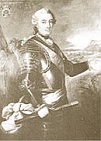
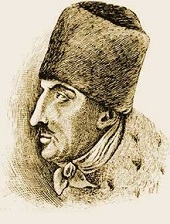



1757 On Jan. 5 Robert-Francois Damiens (b. 1715) attempts the life of Louis XV; Jacques Casanova arrives in Paris minutes afterwards?; Damiens becomes the last person in France to be executed by drawing and quartering in a hideous drawn-out fun-in-the-sun day at the Place de Greve. On Jan. 10 the HRE declares war on Frederick II the Great of Prussia, while Hanover, Hesse, Brunswick, and Gotha continue to ally with Prussia; in Jan. Austria and Russia strike an agreement to partition the Prussian monarchy. On Jan. 25 the first public concert in the growing cultural center of Philadelphia, Penn. is held. On Mar. 14 British Adm. John Byng (b. 1704) is executed for treason for losing Minorca to the French; the days of Marlborough have now degenerated to a feeling of malaise, and William Pitt the Elder begins using the soundbyte: "This almost degenerate England." On Apr. 6 after he opposes the king's continental policy and the execution of Adm. Byng, "the Great Commoner" William Pitt the Elder (1708-78) is dismissed by the king as leader of the House of Commons (since Dec. 4, 1756), along with his brother-in-law Lord Temple as first lord of the admiralty, with Whig William Cavendish, 4th Duke of Devonshire as first lord of the treasury on Nov. 16 (until June 29, 1757), in charge of the weak ineffectual 1757 Caretaker Ministry, but after massive universal public acclaim incl. the first-ever honorary freedom of the city award by London, Pitt returns as secy. of state for the Southern Dept. on June 27. In Apr. two French armies invade Germany to draw Prussian forces invading in four columns under Frederick II the Great away from the Bohemian theater; on May 1 Austria and France sign an offensive treaty against Prussia; on May 6 Frederick II's 67K Prussians defeat 64K Austrians under Charles of Lorraine at the Battle of Prague (Sterboholy) with 10K casualties on each side, then siege Prague until a relief army led by field marshal Leopold Josef, Count von Daun (Dhaun) (1705-66) defeats him for the first time in his Great Life on June 18 at the desperation-time Battle of Kolin, forcing him to leave Bohemia; Austrian empress Maria Theresa is so happy at the V that she institues a military order bearing her name, and names Daun for its first grand cross. On June 13 scholarly Pope (since 1740) Benedict XIV issues a decree on the unwonderful Roman Catholic Index of Prohibited Works, finally permitting readings of vernacular versions of the Bible "approved by the Holy See and published under the direction of bishops", and annulling the infamous anti-Copernican decree of 1616; Antonio Martini, later archbishop of Florence begins to trans. the Vulgate into Italian, and pub. it in 1769-81. On June 23 the British East India Co. gets revenge for the Black Hole and gains control of Bengal (until 1947) when Maj.-gen. Robert Clive, 1st Baron Clive (1725-74) wins the decisive Battle of Plassey (a village in West Bengal N of Calcutta); Siraj-ud-Daulah escapes to Patna via Murshidabad, is arrested by his former #2 man, traitor army chief (of Arab descent) Mir Jafar (Syed Mir Muhammed Jafar Ali Khan) (1691-1765) (who got pissed-off at his elevation of a Hindu to supreme diwan), and brutally executed on July 2 by Mohammad Ali Beg on his orders, and he becomes the first British puppet Nawab of Bengal (until 1765); Ft. William in Calcutta on the E bank of the Hooghly River is built by the British after the Battle of Plassey; Clive names the strong-smelling tasty fish Bombay duck after the Bombay Daak (Mail) train, which carries stinky newspapers. On June 29 Robert Walpole Whig protege Thomas Pelham-Holles, 1st Duke of Newcastle (1693-1768) becomes British first lord of the treasury (official PM) (until May 26, 1762), joining with de facto PM William Pitt to form the Pitt-Newcastle Ministry, with Pitt deciding to take charge of the war in America and drive the French out; House of Commons leader and secy. of state Henry Fox, 1st Baron Holland of Foxley (1705-74), who caused a scandal by eloping with Lady Catherine Lennox in 1744 is excluded from the govt. and made paymaster gen. of the armed forces, a position he uses to acquire a large fortune during the Seven Years' War - there's a crime behind every fortune? In June after Earl Loudoun masses his Highlander forces (9.4K soldiers in six battalions plus 90+ ships) at Halifax with the object of capturing Ft. Louisbourg on the St. Lawrence, then suddenly calls it off when he learns of superior enemy forces, causing William Pitt to decide to dump him. In July the July 1757 Heat Wave in Europe becomes the hottest summer in Europe until 2003. On July 26 the Hanoverian army under the incompetent Duke of Cumberland is defeated by the French at the Battle of Hastenbeck after Cumberland is almost captured, and saved by a rear-guard action organized by obscure staff officer Col. Jeffrey Amherst; on Sept. 8 the British army signs the Convention (Treaty) of Kloster-Zeven, capitulating, and the French occupy Hanover, though the British govt. rejects the treaty. On Aug. 3 Christian Frederick Charles Alexander (1736-1806) becomes the last margrave of Brandenburg-Ansbach (until Dec. 2, 1791), living in his Red Castle while giving his White Castle to mistress Hippolyte Clairon, his Villa Sandrina to mistress Fraulein Kurz, and his Villa Rotunda to his mistress-wife Elizabeth Craven. On Aug. 9 French Gen. Louis-Joseph, Marquis de Montcalm (1712-59), CIC of French forces in North Am. captures Ft. William Henry on Lake George (Lac Sainte Sacrament) in Upstate N.Y., commanded by Irish-born Lt. Col. George Monro (1700-57) (while Monro's daughter Cora's loverboy Hawkeye is held in chains awaiting execution and Magua plans a bloodthirsty revenge on White-Hair?); the returning British soldiers are viciously ambushed and massacred by the Abenaki (Abnaki) (allies of the French), and the incident becomes notorious as a French violation of the internat. laws of war. On Aug. 19 after Russia signs the Treaty of Versailles (which Austria and France signed last year), and a Russian army attacks East Prussia, t he Russians under Gen. Piotr Alexeievich, Count Apraxin (1728-57) defeat the Prussians under Gen. Hans von Lehwald (1685-1768) at the Battle of Grossjagerndorf, then withdraw from East Prussia, while the Swedes begin occupying Pomerania as promised by the Russians in return for their participation in the war. On Oct. 30 sultan (since 1754) Osman III (b. 1699) dies, and Ahmed II's son Mustafa III (1717-74) becomes Ottoman sultan #26 (until Jan. 21, 1774), going on to attempt a catch-up program with the West, attempting to modernize the antiquated army and Janissary-imam structure, encountering mucho resistance; when he tries to correspond with Voltaire and Catherine II the Great, they ridicule his backwardness, with Voltaire calling him "fat and ignorant". On Nov. 5 after regrouping, Frederick II makes a rousing comeback and wins the Battle of Rossbach in Saxony, surprising the French army on its way to join the imperial army in the liberation of Saxony. The original white men can't jump? On Nov. 12 Colley Cibber (b. 1671) dies, and after Thomas Gray declines it, William Whitehead (1715-85) becomes poet laureate of England, immediately producing A Pathetic Apology for All Laureates, Past, Present, And to Come, going on to be the first to deny any requirement to "defend the king or support the government", and spending 28 years grinding out boring crap, causing Charles Churchill (1731-64) to call him "the heir of Dullness and Method". On Nov. 22 the Russians win the Battle of Breslau, causing Austria to attempt to regain Silesia on Dec. 5 at the Battle of Leuthen, but Frederick II the Great scores his greatest V instead, causing the Austrians to retreat from Silesia. In Dec. Lord Loudoun is recalled to England by William Pitt, and French-born John (Jean Louis) Ligonier, 1st Earl Loginier (1680-1770), veteran of the 1746 Battle of Roucoux becomes British CIC in North Am., and recommends his aide-de-camp Lord Jeffrey Amherst for his job, but George II balks at promoting an obscure col. (with an insane wife, Jane Dalyson) until his mistress the Countess of Yarmouth (put up to it by Pitt) changes his mind, but the king forces Pitt to accept wealthy Scottish-born incompetent Gen. James Abercrombie (1706-81) as cmdr. of the Ft. Ticonderoga expedition in exchange; Pitt counters by getting brilliant Lord George Howe appointed as Abercrombie's 2nd in command. Emperor Qian Long decrees the Closed Door Policy for Westerners in China. In Poland Jacob Frank (1726-91), leader of the anti-Talmud Zoharistic Jews talks Bishop Mikolaj Dembowski of Kaminiec Podolski into ordering all 10K copies of the Talmud in the city burned, after which the rabbis begin persecuting him and he responds by declaring himmself the successor of Sabbatai Zevi and Osman Baba, converting to the Christian religion, causing Roman Catholics and Protestants to vie for their allegiance, and in 1759 Frank and his followers are baptized in the churches of Lwow, with members of the Polish nobility (szlachta) acting as godparents; on Sept. 17, 1759 Frank is baptized in Lwow under the name Joseph (Jozef), and again on Sept. 18 in Warsaw, with Augustus II as his godfather. Too bad, on Feb. 6, 1760 Frank is arrested in Warsaw for heresy, and imprisoned for 13 years in the Czestochowa Monastery, turning him into a martyr while he proclaims his new religion of Daas (Heb. "knowledge"); after his release in Aug. 1772, he lives in Brno, Moravia until 1786, receiving royal visitors incl. Tsar Paul I of Russia and Emperor Joseph II of Austria while making fans of Maria Theresa, until he gets to uppity and is exiled to Offenbach, Germany with his daughter Eve Frank (-1816), who takes over after he dies; the mothers of Frederic Chopin, Adam Mickiewicz, and Julius Slowacki are converted Frankist Jews? Ottoman sultan Osman III isues the Status Quo firman, dividing ownership and responsibilities of various Christian holy places in Jerusalem and Bethlehem; he follows with firmans in 1852 and 1853 requiring consensus from all six Christian communities for changes; the firmans receive internat. recognition in Article 9 of the 1856 Treaty of Paris. The Royal Library in London is transferred to the British Museum. The London Chronicle begins pub. (until 1823). Poor Richard's Almanack for 1757. The royal decree to pub. the French "Encyclopedie" is again revoked (until 1758). The first debt-free fiat colonial scrip is issued in the U.S., with Benjamin Franklin uttering the soundbyte: "In the colonies we issue our own money. It is called colonial scrip. We issue it in proper proportion to the demands of trade and industry to make the products pass easily from the producers to the consumers. In this manner, creating for ourselves our own paper money, we control its purchasing power and we have no interest to pay no one." Architecture: Earl Verney begins Claydon House in Buckinghamshire, England (finished 1771), becoming the future home of Florence Nightingale. Inventions: Capt. John Campbell (1720-80) of England invents the Vernier Sextant. James Whatman (1702-59) of Kent, England invents Wove Paper (Papier Velin), featuring a uniform surface free of ribs and watermarks. French aristocrat Gaston Charles Pierre de Levis (Lévis) (1699-1757) dies ""an incompetent and mediocre individual... who owed his vast fortune to the affection Louis XV felt toward his wife and who had but one claim to fame: he gave his name to a sauce made of all kinds of meat and a variety of seasonings" (Pierre Larousse), giving his name to Mirepoix, the "holy trinity" of onions, carrots, and celery, cooked on gentle heat with butter in orderrto sweeten it without carmelizing; the Cajuns and Creoles change the holy trinity to onions, bell peppers, and celery. Science: Conches (near Geneva), Switzerland-born geologist Horace-Benedict de Saussure (1740-99) makes his first tour of Mont Blanc in the Alps of Savoy, carrying out physics experiments and devising an electrometer; in 1774 he tries to ascend Mont Blanc on the Italian side, settling for the Crammont in 1774 and 1778, the Buet in 1776, and Roche Michel above Mount Cenis Pass in 1780; in 1785 after making another unsuccessful attempt on Mont Blanc, he offers a reward, becoming known as "the Father of Alpinism". South Am. cinchona being so expensive, and assuming that since malaria comes from marshy places, the cure must ditto, English clergyman Edward Stone substitutes willow bark, and thinks it cures malaria as well, although all it does is reduce fever, which becomes known as the Willow Bark Fallacy. Nonfiction: John Bevis (1695-1771), The History and Philosophy of Earthquakes; used by John Michell in 1761. James Buchanan, Linguae Britannicae: Dictionary with Guide to Pronunciation. Edward Burke and William Burke (cousins), An Account of the European Settlements in America. Thomas Gray (1716-71), The Progress of Poesy. Albrecht von Haller (1708-77), Elementa Physiologiae Corporis (Elements of the Physiology of the Human Body) (1757-66); distinguishes irritability, a property of all living tissue, with sensibility, limited to tissues supplied with nerves. Richard Price (1723-91), Review of the Principal Questions in Morals. Thomas Simpson, Miscellaneous Tracts on Some Curious Subjects in Mechanics, Physical Astronomy and Speculative Mathematics. William Smith (1728-93), A Review of the Military Operations in North America, 1753-1756; The History of the Province of New York from its Discovery in 1532 (London). Art: John Singleton Copley (1738-1815), Mrs. Daniel Rea and Child. Thomas Gainsborough (1727-88), The Artist's Daughter with a Cat. Jean-Baptiste Greuze (1725-1805), La Paresseuse Italienne. Pietro Longhi, The Charlatan. Plays: Denis Diderot (1713-84), Entretiens sur le Fils Natural (not performed). John Home, Douglas (tragedy). Poetry: J.J. Bodmer (1698-1782) (ed.), Das Nibelungenlied. John Dyer, The Fleece. Christian Gellert (1715-69), Geistliche Oden und Lieder. Christoph Martin Wieland (1733-1813), Empfindungen eines Christen. Novels: Marie-Jeanne Riccoboni (1713-92), Letters of Mistress Fanni Butlerd (Lettres de Mistriss Fanni Butlerd). Births: English naturalist (Quaker) (blind) (epileptic) John Gough (pr. like gof) (Gow) (d. 1825) on Jan. 17 in Kendal, Westmorland. English tragedian (Roman Catholic) John Philip Kemble (d. 1823) on Feb. 1 in Prescot, Lancashire; eldest son of Roger Kemble (1721-1802); uncle of actress Fanny Kemble (1809-93). French orientalist historian-philosopher-politician Count Constantin Francois de Chasseboeuf, Comte de Volney (d. 1820) on Feb. 3 in Craon (Mayenne); creates the name Volney from Voltaire and Ferney. U.S. traitor gen. James Wilkinson (d. 1825) on Mar. 24 near er, Benedict, Calvert County, Md.; real plotter behind the Aaron Burr plot? British adm. Edward Pellew, 1st Viscount Exmouth (d. 1833) on Apr. 19 in Dover; brother of Israel Pellew (1758-1832). English famous brother and Anglican clergyman William Nelson, Earl Nelson of Trafalgar and Merton (d. 1835) on Apr. 20; elder brother of Adm. Horatio Nelson (1758-1805); created earl on Nov. 20, 1805. French physicist-inventor-parachutist Louis Sebastien Lenormand (d. 1837) on May 25 in Montpellier; first parachutist (1783); coiner of the word "parachute" (French "parasol" + "chute" = sun shield + fall). French-Austrian composer and pianoforte maker Ignaz Joseph Pleyel (d. 1831) on June 18 in Ruppersthal, Lower Austria; pupil of Franz Joseph Haydn. English caricaturist ("Father of the Political Cartton) ")James Gillray (Gilray) (d. 1815) (b. 1756?) on Aug. 13 in Chelsea. U.S. Rev. War and War of 1812 Gen. Green Clay (d. 1828) on Aug. 14 in Powhatan County, Va.; father of Cassius Marcellus Clay (1810-1903); cousin of Henry Clay (1777-1852). German grand duke (Goethe's patron) Karl August of Saxe-Weimar-Eisenach (d. 1828) on Sept. 3 in Weimar; father of grand duke Karl Friedrich (1783-1853). French "stack of love" gen.-statesman (hero of the Am. Rev.) (Freemason) Marie Joseph Paul Yves Roch Gilbert du Motier, Marquis de Lafayette (d. 1834) on Sept. 6 in Chavaniac; becomes a U.S. maj. gen. at age 19. French king (1824-30) Charles X, Count of Artois (d. 1836) on Oct. 9 in Versailles; youngest son of Dauphin Louis and Dauphine Marie Josephe; brother of Louis XVI and Louis XVIII; uncle of Louis XVII. Prussian statesman and PM Baron Heinrich Friedrich Karl vom und zum Stein (d. 1831) on Oct. 25 near Nassau. Am. Dem.-Repub. politician-diplomat (U.S. Constitution signer) Charles Pinckney (d. 1824) on Oct. 26 in Charleston, S.C.; son of Col. Charles Pinckney (1731-82); 2nd cousin of Charles Cotesworth Pinckney (1746-1825); father of Henry L. Pinckney (1794-1863). Italian #1 Neoclassical sculptor Antonio Canova (d. 1822) on Nov. 1 in Passagno, Venice; known for his lifelike marble skin. German Rappist founder Johann Georg Rapp (d. 1847) on Nov. 1 in Iptingen, Wurttemberg. U.S. navy sec. #2 (1801-9) and state secy. #6 (1809-11) Robert Smith (d. 1842) on Nov. 3 in Lancaster, Penn.; educated at Princeton U. French Rev. leader Jacques Rene Hebert (René Hébert) (AKA Pere Duchesne) (d. 1794) on Nov. 15 in Alencon, Orne. Am. soldier-diplomat and U.S. Supreme Court justice #15 (1806-23) Henry Brockholst Livingston (d. 1823) on Nov. 25 in New York City; son of William Livingston (1723-90); cousin of Robert R. Livingston (1746-1813); educated at Princeton U. English "The Red Dragon and the Woman Clothed in the Sun", "Songs of Innocence" Romantic mystic visionary poet-painter-engraver William Blake (d. 1827) on Nov. 28 in Soho, London; at age 8 sees a vision of angels near a tree, runs home and tells his parents, and mommy saves him from a thrashing by daddy, affecting him for life?; begins writing poetry at age 12; at age 14 is apprenticed to a London engraver; lives his entire life in London except for three years in Felpham; claims that imagination is "the body of God" and "human existence itself". English theater composer-organist William Reeve (d. 1815) in London. Am. Dem.-Repub. Ga. gov. #26 (1802-6), U.S. Rep. (1792-9), and U.S. Sen. (1806-9) John Milledge (d. 1818) in Savannah; founder of Athens, Ga. and the U. of Ga. Deaths: French author Bernard Fontenelle (b. 1657) on Jan. 9. English actor-dramatist-poet Colley Cibber (b. 1671). English diplomat-politician Sir Paul Methuen (b. 1672) on Apr. 11; buried next to his father John Methuen in Westminster Abbey; names his cousin Paul Methuen (1723-95) as his heir; namesake of Methuen, Mass. British colonial gov. Jonathan Belcher (b. 1682) on Aug. 31. French scientist Rene Antoine Ferchault de Reaumur (b. 1683). British adm. Edward Vernon (b. 1684) on Oct. 30 in Nacton; of Mount Vernon and Old Grog fame. Italian composer Domenico Scarlatti (b. 1685) on July 23 in Madrid; leaves 550 keyboard sonatas. Scottish merchant Colin Campbell (b. 1686); dies rich. Prussian queen Sophie Dorothea (b. 1687); mother of Frederick II the Great. French publisher Francois Didot (b. 1689). English poet Mary Barber (b. 1690). Austrian painter Daniel Gran (b. 1694) on Apr. 16 in St. Polten. English poet John Dyer (b. 1699). Ottoman sultan (1754-7) Osman III (b. 1699) on Oct. 30. English physiologist David Hartley (b. 1705) on Aug. 28 in Bath. Prussian gen. Hans Karl von Winterfeldt (b. 1707) on Sept. 8. German mathematician Johann Samuel Konig (b. 1712) on Aug. 21 in the Netherlands. Czech violinist-composer Johann Stamitz (b. 1717) on Mar. 30 in Mannheim. Italian "Thoroughbass Made Easy" violinist-composer Niccolo Pasquali (b. ?).


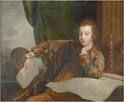








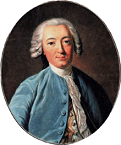







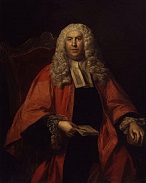



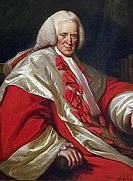

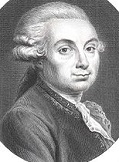





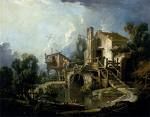



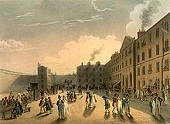
1758 Early in the year Frederick II of Prussia campaigns in Moravia and blockades Olmutz, but fails to take it. In Jan. Jonathan Edwards (b. 1703) becomes pres. of the College of New Jersey (later Princeton U.), 3 mo. before his Mar. 22 death. On Mar. 3 Col. Lord Jeffrey Amherst (1717-97), aide-de-camp to the incompetent Duke of Cumberland is promoted by William Pitt to the rank of maj.-gen., with a commission to be English CIC at the siege of the formidable French fortress of Ft. Louisbourg on the St. Lawrence River; he arrives in May from the Elbe River in Halifax Harbor on a foggy day to take command of the British army, joining Cornish Adm. Edward Boscawen (1711-61) and brig. gen. James Wolfe (1727-59), then leading 12K British and colonial forces (plus 13K seamen) to French-held Ft. Louisbourg in Nova Scotia, which is defended by 3K French regulars, 1K militia, 2.6K seamen, and a large band of Indians, all under Chevalier Augustin de Drucour (1703-62), and falls on July 27 after a 7-week siege, becoming the final triumph of British power in North Am.; Lord Amherst's aide-de-camp Billy Amherst is sent to London with the news, causing a big celebration with fireworks and parades; Wolfe is promoted to maj. gen., and becomes the first to use the word "Yankee" (from the Dutch word "Janke" meaning Little John, slang for a pirate) to refer to New England soldiers under his command, with the soundbyte: "I can afford you two companies of Yankees, and the more because they are better for ranging and scouting than either work or vigilance." In Mar. Lord Loudon departs from North Am., and is replaced as British Am. CIC by Gen. James Abercrombie (until 1759), going on to earn the nickname "Mrs. Nannycromby" for his vacillating leadership, although he is good at organization, moving 15K troops through the wilderness to get their butts kicked. On Apr. 19 after invading Punjab, the Marathas drive out the army of Ahmed Shah Abdali from Lahore, then station armies in Attock, Multan, and Peshawar, evicting the last remnants of the Afghan army, becoming their most northwesternly penetration of the Punjab, lasting 14 mo., after which the phrase "Atakepaar jhende" (Flags beyond Attock) becomes a slogan of pride. On May 3 Pope (since 1740) Benedict XIV (b. 1675) dies, and on July 6 Carlo Della Torre Rezzonico is elected Pope (#248) Clement XIII (1693-1769). On June 23 the French under Louis de Bourbon-Conde (Bourbon-Condé), Comte de Clermont (1709-71) (great-grandson of the Great Conde, and grandmaster #5 of the Grand Masonic Lodge of France) lose the Battle of Krefeld (Crefeld) in Germany to the allied Prussian-Hanoverian army of duke Ferdinand of Brunswick-Luneburg (1721-92) after he drives them back over the Rhine River; the Russians occupy East Prussia again, and on Aug. 25 the Battle of Zorndorf between Prussia and Russia is a V for the Prussians (a push?); the Austrians then invade Lusatia and siege Neisse, causing Frederick II to rush to the aid of his brother Henry, relieving it on Nov. 6. On July 8 3K French under the Marquis de Montcalm defeat 15K attacking British under bumbling "Mrs. Nabbycromby" (Gen. James Ambercrombie) at the Battle of Ticonderoga after a hopeless frontal attack with bayonets, losing 2K in six hours after his brain man Lord George Howe is killed in a preliminary skirmish, until they panic and flee to their camp S of Lake George; the Mohawk Valley is now open for Indian raids in New York and New England, causing Gen. Amherst and his troops to rush to Ambercrombie's aid, first stopping on Sept. 13 in Boston, Mass., where they receive a hero's welcome; "Thousands of People came to see them and would give them Liquor and make the men Drunk in Spite of all that could be done" (Amherst); on Nov. 9 Abercrombie is recalled, and Amherst becomes CIC of British forces in North Am., wintering in Albany, N.Y. On Aug. 25-27 French-controlled Ft. Frontenac on Lake Ontatio (built 1673) falls to the British under Col. John Bradstreet (1711-74), whose expedition is guided by 16-y.-o. Mohawk chief John Brant. On Oct. 10 the First Battle of Lutterberg (Lutternburg) (Lauterbach) is a V for 42K French and Saxons under the prince of Soubise over 14K Allied troops under Gen. Oberg, earning Soubise a marshal's baton. On Oct. 14 the Austrians under Gen. Baun defeat the Prussians under Frederick II at the Battle of Hochkirch, but are unable to drive them out of Saxony and Silesia. On Oct. 20 after delivering lectures bucking the monopoly of Roman civil law, Sir William Blackstone (1723-80) becomes the first Vinerian Prof. of Common (later English) Law at Oxford U., endowed by Charles Viner (1678-1756). On Nov. 24 the British led by Fife, Scotland-born Gen. John Forbes (1707-59) retake Ft. Duquesne in Penn. from the British after the French defeat their advance party then give up and destroy and abandon it; on Nov. 27 after occupying it on Nov. 25 Forbes renames it Pittsburgh (pr. PITS-buh-rah) (modern-day pop. 306K/2.66M) in honor of PM William Pitt the Elder, then construct the new smaller Ft. Pitt during the winter of 1758-9; it is incorporated as a township in 1771, and as a borough on Apr. 22, 194; Pittsburgh goes on to become known as Steel City for its 300 steel-related businesses, and the City of Bridges for its 446 bridges along the Allegheny, Monongahela, and Ohio Rivers. After engineering the alliance between France and Austria, Etienne Francois, Duc de Choiseul (1719-85) replaces Cardinal de Bernis as French foreign minister, going on to direct French foreign policy during the Seven Years' War (until 1770). The Dutch capitulate at Chinsura, and Robert Clive becomes the first British gov. of Bengal. King Augustus III of Poland requests from the Russian Empress Elizabeth that his son Charles be given the Dukedom of Courland, and Elizabeth agrees. The Horeki Scandal in Japan sees a large number of young court nobles attempt restoration of direct imperial rule under Momozono and get their butts kicked by the shogunate. China occupies E Turkestan. New Englanders begin fishing in Battle Harbor on the Labrador coast. The first provincial parliament of Nova Scotia meets in Halfax. After intoxicating voters with 39 pounds worth of alcohol, wealthy connected George Washington is elected to the Va. House of Burgesses despite being a military officer, spending 16 years there then bragging that he isn't a politician? Outey Reachea II (1739-77) becomes king of Cambodia (until 1775). The Shaker sect in England is joined by Mother Ann Lee (1736-84), a young convert from Manchester, who has revelations that she is the female Christ. The British navy orders that Cheshire and Gloucester cheeses be stocked on ships - next stop Nocturn Alley, grab the pea soup? Harvard grad. John Adams (b. 1735) is admitted to the bar. Raphael Santi's remains are relocated to the Roman Pantheon as part of a historic tribute to eminent Italians. German cobbler's son Johann Joachim Winckelmann (1717-68) gets interested in the ruins of Pompeii and bribes a foreman to look at the site, writing a systematic reconstruction of six cents. of life there, until he is murdered by a chance gay bud in Trieste. After Indians scalp her entire family in Penn. (except younger brother Daniel), 16-y.-o. Mary Jemison (1743-1833) is kidnapped by six Shawnees and four Frenchmen and given to two Seneca sisters as a replacement for their brother who had been killed earlier by whites; she grows up with the Senecas, marries and has children; a statue to her is later erected near Gettysburg, Penn. Dr. Samuel Johnson begins contributing a series of essays to the Universal Chronicle called The Idler (until 1760). Poor Richard's Almanack for 1758 pub. its last ed. (first issue 1732). The Serjeant's Inn (London Court) is founded, becoming the legal center of Britain; it is destroyed by the 1666 Great London Fire. Benjamin Jackson of Globe Mills, Germantown, Philadelphia, Penn. becomes the first to sell bottled mustard in Am. Architecture: After earlier versions burned down or were demolished in 1381, 1450, and 1761 the King's Bench Prison in St. George's Fields, Southwark, South London near Horsemonger Lane Gaol is built to house convicts of the King's Bench court, mainly convicted of defamation, bankruptcy and other misdemeanors, becoming known for dirty overcrowded conditions incl. typhus outbreaks; debtors have to provide their own food, drink, and bedding; those with money could purchase the Liberty of the King's Bench Rules, allowing them to live within a 3 m. radius; it is mentioned in Charles Dickens' novels "David Copperfield" and "Nicholas Nickleby", and in Herman Melville's novel "Billy Budd"; in 1842 it is renamed the Queen's Prison, later Southwark Convict Prison; after debtor's prisons are abolished in the 1860s, it is closed in 1880. French architect Jacques Germain Soufflot (1713-80), who was appointed dir. gen. of royal bldgs. in Paris in 1755 begins the neoclassical Church of St. Genevieve in the Latin Quarter in Paris (finished 1790), based on the Pantheon in Rome, with strict lines, firm form, simple countours, and rigorously architectonic detail. Redwood Library in Newport, R.I. (begun 1749) is completed. Francis Egerton, 3rd Duke of Bridgewater (1736-1803) begins a 7.5-mi. canal between Liverpool and Manchester for his coal mines in Worsley, Lancashire, (finished 1761), engineered by James Brindley (1716-72), becoming the first true canal in the modern world, causing a canal boom that leads to Britain's Industrial Rev.? Christ Church in Harvard Square in Cambridge, Mass. is built. John Carr and Robert Adam begin building Harewood House (pr. like harwood) (finished 1771) near Leeds, West Yorkshire, England for rich Barbados-born slave trader Edwin Lascelles, 1st Baron Harewood (1713-95), who furnishes it with stuff from neighbor Thomas Chippendale of Otley; in modern times it becomes one of the nine Treasure Houses of England. Inventions: In 1758 John Dollond (1706-61) and Chester Moor Hall (1703-71) of England independently invent the Achromatic Lens for telescopes after taking Leonhard Euler's 1747 suggestion of glass and water lenses and switching to crown and flint glass, countering Newton's belief that chromatic aberration is present in all lenses; after finding that optician George Bass made achromatic lenses without patenting them in 1733, Dolland refrains from enforcing his patent, but when he dies his son Peter Dollond (1730-1820) goes after everybody and gets the patent upheld, ruining several opticians until it expires in 1772. Jedediah Strutt (1726-97) of Derbyshire, England invents a Derby Rib Machine for ribbed stocking manufacture, becoming the first improvement on Rev. William Lee's 1589 stocking frame - strut around in ribbed hose by Jedediah Strutt? Japanese playwright Namiki Shoza introduces the Revolving Stage (mawaributai) to Kabuki in Osaka, inspired by a child's spinning top. Science: On Dec. 25 Halley's Comet is located on the predicted return date by German astronomer Johann Georg Palitzsch (1723-88), making English astronomer royal Edmund Halley (d. 1742) a superstar; its closest approach is next Mar., as predicted by Alexis Clairaut - proof that 1759 is Britain's year? French astronomer Charles Messier (1730-1817) rediscovers the Crab Nebula in the constellation Taurus, first seen by Chinese astronomers in 1054, and decides that it isn't a comet since it doesn't move, causing him to begin compiling his Messier Star Catalog, with this as M1 (actually a catalog of celestial objects that shouldn't be mistaken for comets). Nonfiction: William Battie (1703-58), Treatise on Madness; the first lengthy treatment of mental illness, suggesting treatments for mental patients housed in asylums, and advocating the same treatments for the rich and poor, helping make psychiatry a respectable specialty; in 1764 he becomes the first psychiatrist pres. of the Royal College of Physicians. Sir William Blackstone (1723-80), A Discourse on the Study of the Law. Roger Joseph Boscovich (1711-87), A Theory of Natural Philosophy Reduced to a Single Law of the Actions Existing in Nature (Theoriam Philosophiae Naturalis Redacta ad Unicam Legem Virium in Natural Existentium); Jesuit mathematician in Dalmatia questions Newtonian action at a distance and pioneers field theory, later influencing Michael Faraday. Axel Fredrik Cronstedt, Essay on the New Mineralogy; claims four classes of minerals: earths, bitumens, salts, and metals, and attempts to classify them by chemical structure not just appearance. Claude Adrien Helvetius (1715-71), De l'Esprit; or, Essays on the Mind, and Its Several Faculties (English tr. 1810); his magnum opus, attempting to refute Montesquieu's 1748 "Spirit of the Laws: and its theory that climate influences nat. character, declares that all human faculties are attributes of mere physical sensation, and that the only real motive is self-interest, and therefore there is no good and evil, only competitive pleasures, hence hedonism rules; pisses-off the theological faculty of the Sorbonne, who publicly burn his work in 1759, causing him to travel in England, then Germany, where Frederick II the Great receives him with honor, allowing him to retire to his country estate back in France. Henry Home, Lord Kames (1696-82), Historical Law-Tracts,; first book describing human social evolution in four stages, incl. hunter-gatherer, herder, farmer, and commerce (market towns), founding the fields of anthropology and sociology along with the modern study of history. William Kenrick (1725-79), Epistles, Philosophical and Moral, An Avowed Defence of Infidelity. Duhamel du Monceau, La Physique des Arbres (The Physics of Trees); structure and physiology - how do they suck that water all the way up into the top branches? Jean Etienne Montucla (1725-99), Histoire des Mathematiques (Mathématiques) (4 vols) (1758-1802); completed by Jeome Lalande; "His first volume covered Greek, Roman, and Eastern traditions, while the second covered geometry, mechanics and optics up to the seventeenth century. Forty years later the second edition began to appear, although the author then died and task of completion fell to Jérôme Lalande. With the help of various colleagues, he completed the third volume and wrote the fourth within four years. The first two volumes covered the same material as before, while the other two handled all aspects of the eighteenth century; the whole encompassed around 3000 pages, including indexes (themselves an excellent feature)... One curious feature of the work, especially in chapters on applied mathematics, is the lack of mathematical symbolism in the text: Montucla and Lalande were often content with a verbal account of the work without entering into symbolic renderings. Of course many basic aspects of the history of mathematics were thus left out." (Ivor Grattan-Guinness) Francois Quesnay (1694-1774), Tableau Economique; claims that only agriculture can yield products of greater value than the resources used for production, and attempts to show how the wealth circulates throughout the economy in a zig-zag (circular) flow between economic sectors, founding the Physiocrat (Gk. "govt. of Nature") School of Economics; first description of the multiplier in economics; pioneers the analysis of tax incidence, the tracing of whom a tax ultimately falls on. Emanuel Swedenborg (1688-1772), Heaven and Hell (Heaven and its Wonders and Hell from Things Heard and Seen); written after going from an inventor-scientist to a visionary on Apr. 6, 1744 (Easter), receiving a revelation that he was appointed by Jesus Christ to reform Christianity, with the power to freely visit heaven and hell and converse with angels and demons, claiming to give a detailed description of the afterlife, where we go through several spiritual reincarnations; claims that the Last Judgment occurred last year; Of the New Jerusalem (De Nova Hierosolyma); promotes the Church of the New Jerusalem; Earths in the Universe; claims to have been in contact with beings from other planets for over a decade. Jonathan Swift (1667-1745), The History of the Four Last Years of the Queen (posth.). Emerich de Vattel, Le Droit des Gens. The first English Manual on Guitar Playing is pub. - let's see, that's EADGB, every atheist describes God badly? Art: Francois Boucher (1703-70), Portrait of Madame Pompadour. Allan Ramsay (1713-84), Portrait of Dr. William Hunter. Plays: Denis Diderot (1713-84), Le Pere (Père) de Famille (drama) (not performed). Salomon Gessner, Der Tod Abels; Cain and Abel. Christoph Martin Wieland (1733-1813), Lady Johanna Gray (tragedy). Poetry: Johann Wilhelm Ludwig Gleim (1719-1803), Preussische Kriegslieder von Einem Grenadier; inspired by Frederick II the Great's campaigns; first noble political poem in modern German lit.? James Macpherson (1736-96), The Highlander. Christoph Martin Wieland (1733-1813), Cyrus. Novels: Charlotte Lennox (1720-1804), The History of Henrietta. Marie-Jeanne Riccoboni (1713-92), Story of the Marquis de Cressy (Histoire du Marquis de Cressy). Births: French statesman-financier Count Nicolas-Francois Mollien (d. 1850) on Feb. 28 in Rouen; created count in 1808; namesake of the molly (mollie) aquarium fish. German physician (founder of phrenology) Franz Joseph (Josef) Gall (d. 1828) on Mar. 9 in Baden. English portraitist John Hoppner (d. 1810) on Apr. 4 in Whitechapel, London; influenced by Sir Joshua Reynolds; of German descent, causing George III to take a shine to him as a boy. French "Crucifixion", "The King of Rome" Romantic painter Pierre-Paul Prud'hon (d. 1823) on Apr. 4 in Cluny, Saone-et-Loire, Burgundy. U.S. Dem.-Repub. pres. #5 (1817-25) (Freemason) James Monroe (d. 1831) on Apr. 28 in Westmoreland County, Va.; educated at William and Mary College. French Rev. leader (Rousseau nut) and atty. Maximilien Francois Marie Isidore de Robespierre (d. 1794) on May 6 in Arras, Artois; of Irish descent. French marshal (#2 greatest French gen. after Napoleon I?) Jean-Andre Massena (Jean-André Masséna) (Andrea Massena), 1st Duc de Rivoli, 1st Prince d'Essling (d. 1817) on May 6 in Nice, Sardinia, Italy. English Neoplatonist scholar ("the English Platonist") Thomas Taylor (d. 1835) on May 15 in London; educated at St. Paul's School, London; first to translate the complete works of Plato and Aristotle into English; so hepped up on ancient pagan Greece that he only speaks to his wife in classical Greek. Am. New York City Hall, Newgate Prison architect Joseph-Francois Mangin (d. ?) on June 10 in Dompaire, Vosges, France; educated at the U. of Nancy; becomes a U.S. citizen in 1796. Italian "Da Vinci's Last Supper" engraver Raffaello Sanzio Morghen (d. 1833) on June 19 in Naples; of German descent. Japanese emperor #118 (1771-9) Go-Momozono (Hidehito) (d. 1779) on Aug. 5; eldest son of Momozono (1741-62); 2nd cousin of Kokau (1771-1840). French painter Carle Antoine Charles Horace Vernet (d. 1836) on Aug. 14 in Bordeaux; youngest child of Claude Joseph Vernet; father of Horace Vernet; student of Nicolas-Bernard Lepicie. English Whig politician (of Spencer jacket fame) George John Spencer, 2nd Earl Spencer (d. 1834) on Sept. 1 in Wimbledon; son of John Spencer, 1st Earl Spencer (1734-83); father of John Spencer, 3rd earl Spencer (1782-1845). Am. banker-warden (Quaker) Thomas Eddy (d. 1827) on Sept. 5 in Philadelphia, Penn.; Irish Quaker immigrant parents. Scottish landscape painter ("Father of Scottish Landscape Painting") Alexander Nasmyth (d. 1840) on Sept. 9 in Edinburgh; father of steam hammer inventor James Nasmyth (1808-90); known for his portrait of Robert Burns; loses commissions to aristocrats after he can't keep his mouth shut about his liberal opinions. Haitian leader (black) Gen. Jean Jacques Dessalines (d. 1806) on Sept. 20 in Cormiers. French orientalist-linguist Antoine Isaac, Baron Silvestre de Sacy (d. 1838) on Sept. 21 in Paris; father of Ustazade Silvestre de Sacy (1801-79). English super hero vice-adm. Horatio Nelson, 1st Viscount Nelson (d. 1805) on Sept. 29 in Burnham Thorpe, Norfolk; younger brother of William Nelson, 1st earl Nelson (1757-1835); lover (1793-) of Lady Emma Hamilton (1761-1815). French Creole fur trader Jean-Pierre Chouteau (d. 1849) on Oct. 10 in New Orleans, La. German Olbers' Paradox astronomer-physician Heinrich Wilhelm Matthias (Matthaus) (Matthäus) Olbers (d. 1840) on Oct. 11 in Arbergen (near Bremen). German "Ariadne on the Panther" sculptor Johann Heinrich von Dannecker (d. 1841) on Oct. 16 in Waldenbuch (near Stuttgart). Am. Blue-Backed Speller lexicographer ("Father of American Scholarship and Education") Noah Webster Jr. (d. 1843) on Oct. 16 in Hartford, Conn.; never goes to college; rival of Joseph Emerson Worcester (1784-1865). French gen. Louis Andre (André) Bon (d. 1799) on Oct. 25 in Romans-sur-Isere, Dauphine. French botanist Louis-Marie Aubert du Petit-Thouars (d. 1831) on Nov. 5 in Bournois, Anjou; brother of Aristide Aubert Du Petit Thouars (1760-98). Am. statesman-gen. John Armstrong Jr. (d. 1843) on Nov. 25 in Carlisle, Penn.; son of Irish-born Gen. John Armstrong Sr. (1717-95); of Scottish descent; brother of James Armstrong (1748-1828); educated at Princeton U. British Adm. Sir Eliab Harvey (d. 1830) on Dec. 5 in Rolls Park, Chigwell, Essex; knighted in 1815; distant relative of William Harvey (1578-1657); known for recklessly gambling his inheritance in London. English antiquarian Sir Richard Colt Hoare, 2nd Baronet (d. 1838) on Dec. 9 in Barnes, Surrey; patron of William Cunnington (1754-1810). German Romantic composer-conductor Karl (Carl) Friedrich Zelter (d. 1832) on Dec. 11 in Berlin; friend and musical adviser of of Goethe. Am. Old Republican Dem.-Repub. politician Nathaniel Macon (d. 1837) on Dec. 17 near Warrenton, Edgecome (Warren) County, N.C.; educated at Princeton U. Am. Seneca Indian leader Red Jacket (Sa-Go-Ye-Wat-Ha) (d. 1830). Deaths: German painter Johann Baptist Zimmermann (b. 1680) on Mar. 2 in Munich. Scottish poet Allan Ramsay (b. 1686) on Jan. 7. Swedish composer Johan Helmich Roman (b. 1694). French scientist Pierre Bouguer (b. 1698) on Aug. 15. Am. theologian Jonathan Edwards (b. 1703) on Mar. 22 in Princeton, N.J.
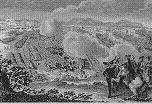
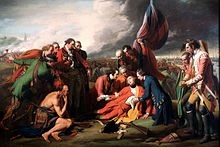

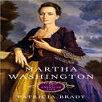








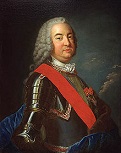







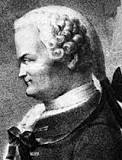
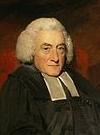

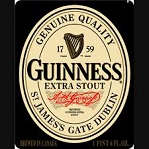


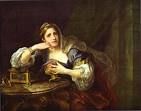

1759 This is the Annus Mirabilus (Lat. "Year of Wonders") of Britain, with a string of big Vs over France in the Seven Years' War. On Jan. 6 Swedish gen. Lantinghausen is driven back to Straslund by a united Prussian force under Gen. Dohna and Gen. Manteuffel. On Jan. 6 Port Royal, Martinique is bombarbed by the English under Gen. Hopson and Commodore Moore, who unsuccessfully attempt to capture it. A rich widow - a smart way to keep moving forward? Lucky George Dubya I gets a beautiful rich babe with benefits and has it made for life? On Jan. 6 after giving up on his married neighbor Sally Cary Fairfax, wife of his wealthy friend George William "Will" Fairfax (-1787) (whom he was sponging off of?) destitute George Washington (b. 1732), newly-resigned from the militia marries beautiful wealthy widow (richest in Va.) Martha Dandridge "Patsy" Custis (1731-1802) (8 mo. older than him), who has two small children, John "Jacky" "Jackie" Parke Custis (1754-1781) and Martha "Patsy" Parke Custis (1756-1773), and settles down as a gentleman farmer at her large plantation and 6-room house in Mount Vernon, Va.; they have no children; he gains 17K acres of prime farmland and 286 slaves from his new wife, and harvests his first tobacco crop, but it is of such low quality that he almost goes bankrupt, and switches to wheat, inventing a 2-story 16-sided "treading barn" where horses on the 2nd story trample it and the kernels fall to storage bins on the first story; he spends 45 years improving the plantation, increasing the number of rooms in the house to 20, having pine panels painted to look like mahogany; he thinks big and forms plans to make the Potomac River into the #1 commercial artery of Am.; meanwhile she brings the Booke of Cookery and Booke of Sweetmeats, which the Custis family gave her at her 1749 marriage, using it to personally supervise the preparation of every meal by her servants. On Jan. 12 British Gen. Lord Amherst issues a gen. pardon for all deserters from Gen. Ambercromby's loser army if they rejoin by Mar.; he assigns the taking of Quebec to Gen. James Wolfe, Oswego and Ft. Niagara to brig. gen. Sir John Prideaux (1718-59), leaving Ticonderoga, the hardest nut to crack for himself. On Jan. 17 the Prussians capture Demmin from the Swedes, followed on Jan. 21 by Anklam, then siege Stralsund. On Jan. 23 the English navy under Commodore Moore bombard French-held Basse-Terre, Guadeloupe, and on Jan. 24 an invasion force under Gen. Hopson captures it; too bad, on Feb. 23 Hopson dies, and is succeeded by Gen. Barrington, who goes on to take it on May 1. On Feb. 23 Prussian Gen. Wobersnow leads 46 cavalry and 29 infantry battalions from Glogau, Silesia to sever Russian supply lines in Poland, penetrating past pesky Cossacks to Posen, destroying a Russian magazine, then returning to Silesia on Apr. 18. In Mar. 2.5K English troops under Col. Forde attack French-held Masulipatam, India, commanded by Marshal de Conflans, and take it after a 2-hour bombardment and token fight. In Mar. the French resume their western offensive, and on Apr. 13 their 35K-man French-Saxon force led by Victor-Francois, 2nd Duc de Broglie (1718-1804) defeat a 24K-man Hanoverian-Hessian-Brunswicker-English force led by Prince Ferdinand of Brunswick at the Battle of Bergen in W Germany near Frankfurt, and the Germans retreat N to the Wesel River, allowing the French to advance to Minden; de Broglie is promoted to marshal by Louis XV and prince (Reichsfurst) by HRE Francis I. In Apr. the Prussians recapture Peenemunde from the Swedes. On May 15 after receiving news of massive Russian maneuvers, the Prussians under Prince Henry lift their siege of Stralsund to take them on, and on May 16 they capture Bamberg in Franconia. On May 26 the English capture Marie Galante Island in the Guadeloupe Archipelago from the French (until 1763). In May British brig. gen. Sir John Prideaux leaves Albany with a British army, reaching Oswego, and rebuilding the fort destroyed by the French in 1756. Having burned what I learned I was spurned? In the summer Benjamin Franklin travels to Scotland and meets the greats of the Scottish Enlightenment, economist Adam Smith, skeptical philosopher David Hume, scientist Sir Alexander Dick, and jurist-historian Lord Kames - just say the two words with a powerful scientific punch: thank you? On June 26 a British force of 9K men under Gen. James Wolfe, supported by a flotilla under Adm. Sir Charles Saunders (1713-75) arrives and sets up HQ on the Isle of Orleans in the St. Lawrence River 5 mi. to the NE, beginning a siege on June 27 (ends Sept. 17), with Saunders positioning his ships so that French supplies and reinforcements are blocked, a winning strategy which gets him knighted in 1761 and appointed first lord of the admiralty in 1761. In June the British under Gen. Amherst arrive at Lake George with a force less than half that of Ambercromby's the year before, braving the summer heat and sailing up the lake on July 22 (using sails made from army blankets) into Lake Champlain, landing 3 mi. from star-shaped Ft. Ticonderoga, then slogging through bogs and thickets to the site of last year's massacre, finding a large grave with a copper plate reading, "Bury their generals here, like Oreb and Zeeb, Zebah and Zalmunna" (Book of Judges); the British force now incl. colonial Maj. Robert Rogers (Rodgers) (1731-95) and his Rogers' Rangers, Israel Putnam, Ethan Allen, John Stark, and Benedict Arnold; the 3K French are commanded by Chevalier Francois-Charles de Bourlamaque (1716-64), who follows prior orders from former French La. gov. (1743-52) and new gov.-gen. of New France (1755-60) Pierre de Rigaud, Marquis de Vaudreuil de Cavagnial (1698-1778) to abandon Ticonderoga with 2.5K men for the more defensible fortified Isle aux Noix (Nut Island), leaving the fort to Capt. Francois de Hebecourt and a garrison of 400; on July 26 they too evacuate, blowing up the powder magazine at 11 p.m., setting the barracks on fire, but the British move in and save the rest, taking the fort with a loss of 16 KIA and 51 wounded. On July 1 Sir John Prideaux leads part of his force (2.5K Brits plus 900 Iroquois) from Oswego to Ft. Niagara, avoiding French ships and landing 4 mi. E of it on July 6, surrounding it, then sieging and digging trenches toward the walls while bombarding it 24 hours a day, coming within 80 yards of the walls by July 24; after Prideaux is accidentally killed, his 2nd in command, Dieskau hero Sir William Johnson (1715-74) takes over; on July 24 a relief force of 1.3K French and Indians from the Ohio under Col. Ligneris are defeated 1 mi. S of the fort at the bloody Battle of La Belle Famille, and on July 25 French Capt. Pouchot surrenders Ft. Niagara and its garrison of 600 French troops. On July 23 the Battle of Kay (Paltzig) (Zullichau) (Sulechow) near Kay (Kije), Neumark, Poland on the Prussian-Polish border sees 26K Prussians under Gen. von Wedell defeated by 41K Russians under Count Pyotr Semyonovich Saltykov (1700-72) and retreat across the Oder River, while the Russians go on to occupy Frankfurt-an-der-Oder. On July 24 Sir William Johnson (who succeeds Gen. Prideaux after being KIA by a shell fragment) captures Ft. Niagara; meanwhile brig. gen. Thomas Gage succeeds Prideaux, and fails to take Oswego by winter. On July 25 the French under Gen. d'Armentieres capture Munster, Germany and take 4K POWs. On July 31 brash British Gen. James Wolfe attacks the French left flank positions on a rocky gorge at the Battle of Montmorency (Montmorenci) Falls (Gorge) (Beauport) near Quebec with 4K men, and is repulsed with heavy losses (210 KIA, 233 wounded vs 60 French casualties); Wolfe's brigadiers then counsel a landing on the N shore of the St. Lawrence River. On Aug. 1 a 37K-man Hanoverian-Hessian-English army under Prussian field marshal (1758-66) Prince Ferdinand of Brunswick defeats 44K French troops under Marquis de Contades at the Battle of Minden in Brunswick, W Germany, with 7K French KIA vs. 2,762 Anglo-German casualties, after which the French cross back over the Rhine, and English Gen. George Sackville is sacked for failing to use his cavalry to exploit the French retreat and turn it into a rout, and is replaced by Gen. John Manners, Marquess of Granby (1721-70). On Aug. 10 Spanish king (since 1746) Ferdinand VI (b. 1713) dies, and his Francophile half-brother Charles III (1716-88) becomes Bourbon king #3 of Spain (until Dec. 14, 1788), finally bringing some enlightenment to Spain, incl. French art and lit., although it doesn't penetrate too far into the people; on Oct. 6 he hands the Kingdom of the Two Sicilies (Naples and Sicily) over to his 8-y.-o. 3rd son Ferdinand IV (1751-1825) via a Pragmatic Sanction under the titles Ferdinand IV of Naples and Ferdinand III of Sicily, with Bernardo Tanucci (1698-1793) as regent, who bernards to institute tanucci liberal reforms and consider a military alliance with France - a chicken sandwich is a chicken sandwich is a chicken sandwich? On Aug. 12 after Frederick II the Great is unable to prevent the union of the Austrians and French the Battle of Kunersdorf in E Germany, the first battle where regular units of horse artillery are deployed sees his 40K-man Prussian army receive its worst-ever defeat after attacking a fortified position of 80K Russians and Austrians under Gen. Saltykov and Gen. Ernst Gideon, Baron von Loudon (1717-90); the battle freaks Freddy Not-So-Great so much that he turns over command to his brother Prince Henry and flirts with suicide, but luckily the Russians and Austrians fail to exploit their V and soon part ways. On Aug. 18 the Battle of Lagos Bay off the coast of Portugal sees a French squadron of 12 ships under Commodore de la Clue defeated by 14 British ships under Adm. "Old Dreadnought" Boscawen, destroying all but five ships, who retreat to Cadiz, foiling French plans to invade England and Scotland. In Aug. after the French abandon Ft. St. Frederic at Crown Point on Lake Champlain (15 mi. to the N), the British fortify it, and build Crown Point Military Road over Vt. hill country to Ft. Number Four (later Charlestown, N.H.), and prepare to take the Isle aux Noix, which is defended by four small French warships; meanwhile Amherst refuses spoils, accepting only the governorship of Va. on the condition he would never have to go there and could return to Kent and be with his mad wife. On Aug. 25-Sept. 3 the Battle of Trincomalee off the coast of India sees 12 English ships under Adm. Sir George Pocock (1706-92) defeat 14 French ships under Comte d'Ache (d’Aché). On Sept. 9 the Battle of Hoyerswerda NW of Bautzen in Lower Lusatia sees Prussian Prince Henry defeat 5K-6K Austrians under Gen. Vehla, capturing him and 1.8K of his men. On Sept. 11 French-held Marburg in Germany surrenders to the allies, who take 900 POWs. On Sept. 12 (night) 5K men under Gen. James Wolfe move downstream, landing 1.5 mi. SW of Quebec, then scale the steep 300-ft. Cape Diamond cliff at the confluence of the St. Charles and St. Lawrence Rivers, leading to the citadel of Quebec on the Plains of Abraham (named for landowner Abraham Martin) overlooking Quebec City; on Sept. 13 the British draw out the French under Gen. Louis Joseph, Marquis de Montcalm (1712-59) and decisively defeat them, then capture the city; both Wolfe and Montcalm die in the 15-min. battle which helps found Canada, making Wolfe a British hero. On Sept. 14 Prussian Gen. von Schmettau surrenders Dresden to allied troops under Gen. McQuire, causing pissed-off Frederick II the Great to court-martial and force him to retire with a meager pension. In Sept. the Swedish fleet defeats the pathetic Prussian fleet. On Oct. 4 in retribution for the 1757 Abenaki massacre of British soldiers at Ft. William Henry in Upstate N.Y., "White Devil" Maj. Robert Rogers and his force of 150-200 Rangers attack and destroy the Abenaki village of Saint-Francis-du-Lac in Quebec, then undergo a nightmarish trek home, resorting to cannibalism to survive until relieved by the British, as depicted in the 1940 Spencer Tracy film Northwest Passage - I feel naughty doing this? On Oct. 21 Prussian Maj. von Knobelsdorf raids the Swedish-held outpost of Demmin in Pomerania, causing the Swedish army to retreat to Anklim, reaching the Peene River by Nov. 6. On Nov. 20 21 French line ships and three frigates under Marshal de Conflans are defeated by 23 British line ships and 10 frigates under Adm. Hawke at the Battle of Quiberon Bay, eliminating French plans for the invasion of Britain and reinforcement of their army in North Am., and puts the French navy out of action for the duration of the Seven Years' War. On Nov. 20 the allies capture Munster from the French. On Nov. 20 the Battle of Maxen in Saxony sees 42K Austrians under Marshal Leopold von Daun attack 12K Prussians under Gen. von Finck, mauling them and causing their surrender, after which Finck is court-martialled and imprisoned by Frederick II the Great for dereliction of duty. On Nov. 30 the Battle of Fulda in W Germany sees 5.5K imperial troops under Duke Karl Eugen von Wurttemberg defeated by 7K allied troops under the Erbprinz of Hesse-Cassel (hereditary prince) and retreat. On Dec. 31 after hops are introduced to Ireland, and his godfather Archbishop of Cashel (since 1744) Arthur Price (1678-1752) leaves him £100 in his will in 1752, which he uses in 1755 to buy a brewery at Leixlip (10 mi. from Dublin) at the confluences of the Liffey and Rye Water Rivers, Sir Arthur Guinness (1725-1803) founds the Guinness Brewery at St. James' Gate in Dublin, Ireland, and secures a modest 9K-year lease at £45/year; the logo features an Irish harp; at first only ales are produced; in 1760 the thermometer is introduced to control quality, followed by the hydrometer in 1770; on May 19, 1769 the first ale is exported, 6-1/2 barrels to Britain; in 1778 the first well-hopped brown malt porter is introduced, evolving into single stout, double stout, and the the main product Guinness Extra Stout; in 1801 extra-hoppy Guinness Foreign Extra Stout is first produced for export; during the Napoleonic War (1803-15), a malt tax is passed, causing less malt to be used; in 1816 a law is passed controlling purity, mandating that only malt and hops be used in beer production; in 1817 black patent malt (kilned at 200C) is invented by Daniel Wheeler, which makes it possible to use up to 95% cheaper pale malt to obtain the required flavor; about 1800 it is discovered that aged porter (6-18 mo. old) can be diluted 2:1 with young porter and still be accepted by consumers; after Guinness and several other brewers and distillers are raised to the peerage, they become known as the Beerage; in 1932 the HQ is moved to London; in 1960 they introduce Harp Lager; in 1997 it merges with Grand Metropolitan to form Diageo; by 2016 stout accounts for 34% of the beer market in Ireland, with lager at 60% and ale at 6%. On Dec. 4 the Battle of Meissen sees a Prussian rear guard guarding an Elbe River crossing under Gen. Dierecke defeated by a larger Austrian force, with 3K Prussians captured or killed. The Jesuits are expelled from Portugal and Brazil. The British retake Machilipatnam (Bandar) on the Bay of Bengal from the French. The Kalmucks (Kalmucks) (Kalmyks) (Eluths) in lesser Bucharia are vanquished by the Chinese, who advance as far as Badakshan near the Hindu Kush sources of the Oxus (Amu Darya) River. The British trading outpost in Bandar Abbas, Persia is destroyed by the French. An earthquake in Lebanon and Syria kills 40K; seismologists predict another one along the Dead Sea System fault line in 250-300 years. British Capt. Dawkins buries the Treasure of Kalaniopu'u in Hawaii :) - TV series Magnum: PI. Ft. Pitt in Penn. is replaced with a larger structure. The Bavarian Academy of Science is founded. The British Museum, created by act of Parliament in 1753 opens at Montagu (Montague) House, designed by Sir Christopher Wren and Robert Hooke (until 1823). The Annual Register, ed. by Robert Dodsley and Edmund Burke begins pub. The Conseil du Roi formally suppresses vols. 1-10 of the "Encyclopedie" (1751-9), and forbids further pub., causing Diderot to pub. the next 10 vols. secretly (until 1765); meanwhile he founds Les Salons (until 1779), commenting on the annual exhibitions of paintings in Paris. Rev. Frances Gastrell demolishes Shakespeare's old house New Place in Stratford-upon-Avon after getting pissed off at all the unexpected visitors, first chopping down a mulberry tree in the garden, then razing the house after they smash his windows, after which he is driven out of town and anybody with his name forever banned. Lessing is more for a gay guy in Germany? After living in Leipzig from 1755-8, becoming friends with poet Ewald Christian von Kleist, and returning to Berlin in 1758, Gotthold Lessing founds the critical journal Briefe, die Neueste Literatur Betreffend with Moses Mendelssohn and Christoph Friedrich Nicolai, which pub. essays promoting Shakespeare as a model for German dramatists in preference to Frenchies such as Corneille, Racine, and Voltaire, causing German literati to cast off French influence? Black paper silhouettes, invented by penny-pinching former French finance minister Etienne de Silhouette (1709-67) to save money on home decorations become a craze after an exhibition in Paris. Architecture: Peter Harrison begins Touro Synagogue in Newport, R.I. (finished 1763). Nonfiction: Franz Aepinus, Testamen Theoriae Electricitatis et Magnetesmi. Joseph Ames (1680-1759), Typographical Antiquities; history of printing in England from 1471-1600. Sir William Chambers (1723-96), A Treatise on Civil Architecture; 2nd ed. 1768. Alexander Gerard, An Essay on Taste. Oliver Goldsmith (1730-74), An Enquiry Into the Present State of Polite Learning in Europe. Edward Hyde, 1st Earl of Clarendon (1609-74), The Life of Edward Earl of Clarendon, Written by Himsself (autobio.) (2 vols.) (posth.). Johann Heinrich Lambert (1728-77), Treatise on Optics; Treatise on Perspective; causes the unit of brightness to later be named after him. William Robertson (1721-93), The History of Scotland, 1542-1603 (3 vols.); gets him appointed historiographer royal of Scotland in 1764. Adam Smith (1723-90), Theory of Moral Sentiments. Thomas Wilkes, A General View of the Stage. Caspar Friedrich Wolff (1734-94), Theoria Generationis; founds modern embryology. Music: Franz Joseph Haydn (1732-1809), Symphony No. 1 in D major; from now on all symphonies must have four movements? Art: Francois Boucher (1703-70), Pan and Syrinx; Madame Pompadour. Jean Honore Fragonard (1732-1806), Landscape with Three Washerwomen (1759-61). Carlo Goldoni (1707-93), Il Mercato di Malmantile (The Malmantile Market) (opera bouffe); music by Fischietti. Jean-Baptiste Greuze (1725-1805), The Bookseller Babutti. William Hogarth (1697-1764), Sigismonda. Sir Joshua Reynolds (1723-92), The 7th Earl of Lauderdale. Plays: Thomas Godfrey, The Prince of Parthia. Carlo Goldoni (1707-93), Gli Amori de Alessandro Magno (tragedy); L'Impresario delle Smime (The Businessman from Smyrna) (comedy); Gli Innamorati (The Lovers) (comedy). Gotthold Lessing (1729-81), Philotas (tragedy). Poetry: Friedrich Gottlieb Klopstock (ed.), Hinterlassene Werke von Margareta Klopstock; poems by his dead wife (d. 1758). Novels: Samuel Butler (1612-80), Genuine Remains in Verse and Prose of Mr. Samuel Butler (posth.). Dr. Samuel Johnson (1709-84), The History of Rasselas, Prince of Abyssinia (Apr.). Gotthold Lessing (1729-81), Fabeln (3 vols.); preface contains a great essay on the fable. Marie-Jeanne Riccoboni (1713-92), Letters of Milady Juliette Catesby (Lettres de Milady Juliette Catesby), which makes a fan of Voltaire; English trans. by Frances Brooke pub. in 1760. Laurence Sterne (1713-68), A Political Romance (satire); The Life and Opinions of Tristram Shandy, Gentleman, vols. 1-2; a life story with mucho detours; wealthy father Walter; Uncle Toby, who spends his time reconstructing Marlborough's campaigns in his garden; Widow Waldman, who vainly makes advances on Toby; the first postmodern (unreadable?) novel, written before there was a modern?; makes him an internat. star. Voltaire (1694-1778), Candide; or, Optimism; a satire of Leibniz's statement that "All is for the best in this the best of all possible worlds", starring Candide (Lat. "candidus" = shining white), nephew of Baron Thunder-ten-Tronckh of Westphalia, who is in love with the baron's daughter Lady Cundegone, and is being taught Leibnizian optimism by his syphilitic tutor Pangloss (Lat. "all tongues") while experiencing the horrible real world, incl. the Seven Years' War, the Inquisition, and the 1755 Lisbon Earthquake with his companions Cundegone, chambermaid Paquette, Martin, and Brother Giroflee, visiting Buenos Aires, Paraguay, El Dorado, Suriname, Cadiz, Venice, Bordeaux, Transylvania, and Bonnie Prince Charlie, finally settling on the motto "We must cultivate our garden." Births: Scottish "Auld Lang Syne", "A Red, Red Rose", "To a Mouse" poet ("Scotland's Bard") ("the Ploughman Poet") ("the Bard of Ayrshire") ("Scotland's Favorite Son") Robert "Rabbie" Burns (d. 1796) on Jan. 25 in Alloway, Ayrshire (on the coast of the Firth of Clyde); son of tenant farmer William Burness (d. 1784) and his semiliterate wife Agnes Broun Burness; eldest of seven children. German clasical scholar and philologist Friedrich August Wolf (d. 1824) on Feb. 15 in Haynrode, Hanover; educated at the U. of Gottingen; prof. of philosophy at the U. of Halle in 1783-1807, until the French force him to Berlin. German physician (coiner of the term "psychiatry") Johann Christian Reil (d. 1813) on Feb. 20 in Rhauderfehn. French Rev.-Napoleonic gen. Claude Jacques Lecourbe (d. 1815) on Feb. 22 in Besancon. Am. Rev. War. Maj. William Jackson (d. 1828) on Mar. 9 in Cumberland, England; emigrates to S.C.; secy. to the U.S. Constitutional Convention; personal secy. to Pres. George Washington; 40th signer of the U.S. Constitution. German actor-dramatist August Wilhelm Iffland (d. 1814) on Apr. 19. English writer Mary Wollstonecraft Godwin (d. 1797) on Apr. 27; wife (1797-) of William Godwin (1756-1836); mother of Mary Wollstonecraft Shelley (1797-1851). Am. atty. (Quaker) (abolitionist) William Rawle (d. 1836) on Apr. 28 in Philadelphia, Penn; of Cornish descent. Am. Christian leader Jacob Albright (Jakob Albrecht) (d. 1808) on May 1 in Pottstown, Penn.; German immigrant parents. Am. U.S. Capitol architect William Thornton (d. 1828) on May 20 in Jost Van Dyke, British Virgin Islands. English "Independent Tory" PM (1783-1801, 1804-6) William Pitt the Younger (d. 1806) on May 28 in Hayes (near Bromley) (OE "broom meadow"), Kent; 4th of five children; 2nd son of William Pitt the Elder (1708-78) and Hester Pitt; maternal nephew of George Grenville (1712-70). Spanish artillery gen. Martin Garcia-Loygorri (nee Garcia-Edge) e Ichaso (d. 1824) on June 5 in Corella, Navarra. Am. statesman and U.S. treasury secy. #6 (1814-6) Alexander James Dallas (d. 1817) on June 21 in Kingston, Jamaica; son of a British resident in the West Indies; emigrates to the U.S. in 1783; father of George Mifflin Dallas (1792-1864). Sardinian king (1802-24) Victor Emmanuel I, Duke of Aosta (d. 1824) on July 24 in Turin; 2nd son of Victor Amadeus III (1726-96) and Maria Antoinetta of Spain (1729-85) (daughter of Philip IV and Elizabeth Farnese). English horticulturist Thomas Andrew Knight (d. 1838) on Aug. 12 in Wormsley Grange, Herefordshire; educated at Balliol College, Oxford U. English Wesleyan minister Charles Atmore (d. 1826) on Aug. 17 in Heacham (near King's Lynn), Norfolk. Spanish marshal Joaquin Blake y Joyes (d. 1827) on Aug. 19 in Velez-Malaga; Irish father, Galician mother. English 4'11" (hunchback) philanthropist and evangelical antislavery politician-orator William Wilberforce (d. 1833) on Aug. 24 in Hull, Yorkshire; son of prosperous merchant Robert Wilberforce (1728-68), among the richest families in England; attends Cambridge U. with William Pitt; husband (1792-) of Barbara Spooner Wilberforce (1771-1847); father of Samuel Wilberforce (1805-73). German Bavarian statesman Maximilian Josef Garnerin, Count von Montgelas (d. 1838) on Sept. 12 in Munich; son of John Sigmund Garnerin, Baron Montgelas; grandfather of Max Montgelas (1860-1938); husband of Countess Ernestine von Montgelas (Countess von Arco). Scottish engineer-economist William Playfair (d. 1823) on Sept. 23 near Dundee; brother of John Playfair (1748-1819) and James Playfair (1755-94). Prussian field marshal Hans David Ludwig, Count Yorck (York) von Wartenburg (d. 1830) on Sept. 26 in Potsdam; son of Dawid Jonatan Jark von Gostkowski of Butow, Pomerania (Bytow, Poland). Am. "The Life of Washington" historian-minister (Episcopal) Parson Mason Locke Weems (d. 1825) on Oct. 11 in Anne Arundel County, Md. Am. free trade political philosopher (Deist) Thomas Cooper (d. 1840) on Oct. 22 in London; educated at Oxford U.; emigrates to the U.S. in 1794. English Whig PM (1806-7) William Wyndham Grenville, 1st Baron Grenville (d. 1834) on Oct. 25 in Wotton House, Buckinhamshire; son of George Grenville (1712-70); educated at Eton College and Christ Church, Oxford U. French Rev. leader Georges Jacques Danton (d. 1794) on Oct. 26 in Arcis-sur-Aube; "Danton's height was colossal, his make athletic, his features strongly marked, coarse, and displeasing; his voice shook the domes of the halls". German "The Robbers" Sturm und Drang dramatist-poet (Freemason?) Johann Christoph Friedrich von Schiller (d. 1805) on Nov. 10 in Marbach am Neckar, Wurttemberg; likes to smell rotting apples for inspiration; friend of Johann Wolfgang von Goethe (1749-1832). Am. diarist Anna Green Winslow (d. 1780) on Nov. 29 in Nova Scotia, Canada; daughter of Joshua Winslow (1726-1801); descendant of John Winslow (brother of Edward Winslow) and Mary Chilton, also Percival Green. English classical scholar Richard Porson (d. 1808) on Dec. 25 in East Ruston (near North Walsham), Norfolk; educated at Eaton and Trinity College, Cambridge U. German philosopher Johann Philipp Siebenkees (d. 1796); cousin of Johann Christian Siebenkees (1753-1841); inventor of the Iron Maiden concept (1793)? Polish actor-playwright Wojciech Boguslawski (d. 1829) in Glinno; founder of Polish nat. drama; introducer of opera in Poland. Deaths: English writer Joseph Ames (b. 1689) on Oct. 7 in Wapping. German-born British composer Georg Friedrich Handel (b. 1685) on Apr. 14 in London; the last performance he attended was his 1742 "Messiah"; 3K attend his funeral; buried in Westminster Abbey; dies unmarried and childless, leaving his £20K fortune to his niece in Germany et al. and paying for his own memorial; "Handel is the greatest composer who ever lived. I would bare my head and kneel at his grave" (Ludwig von Beethoven, 1824). Swiss mathematician Nicolaus Bernoulli (b. 1687) on Nov. 29. French scientist Pierre de Maupertuis (b. 1698) on July 27 in Basel, Switzerland. French sculptor Lamberg-Sigisbert Adam (b. 1700) on May 12. German composer Carl Heinrich Graun (b. 1704) on Aug. 8 in Berlin. French librettist Louis de Cahusac (b. 1706) on June 22 in Paris. Scottish-born British gen. John Forbes (b. 1707) on Mar. 11 in Philadelphia, Penn.; namesake of Forbes Field, home of the Pittsburgh Pirates and Pittsburgh Steelers. French gen. Marquis de Montcalm (b. 1712) on Sept. 13 outside Quebec City, Canada (KIA). Spanish king Ferdinand VI (b. 1713) on Aug. 10. German poet Ewald Christian von Kleist (b. 1715) on Aug. 24 in Frankfurt on the Oder; dies from wounds in the Battle of Kunersford on Aug. 12. English "Ode to Evening" poet William Collins (b. 1721). British gen. James Wolfe (b. 1727) on Sept. 13 outside Quebec City, Canada (KIA); buried in Greenwich, England, with a monument erected in his honor in Westminster Abbey. German botanist J.G. Zinn (b. ?); namesake of the Zinnia (native to the Americas).







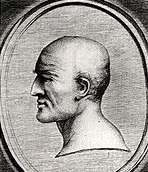
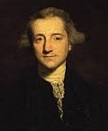







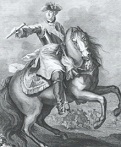





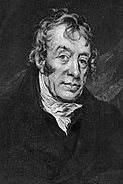













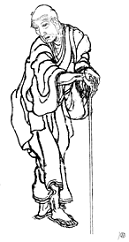
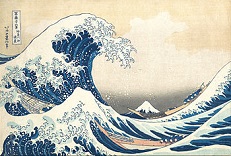
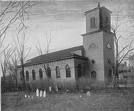

1760 Pop. of the Am. colonies: 1.5M. By this year 90% of the French navy has been captured or destroyed by the British, which now has France at its mercy, but William Pitt the Elder continues the war to aid Prussia, whose territory is occupied by the French, Austrians, and Russians; the insistence of Am. colonists on illegally supplying the French West Indies (Martinique, Guadeloupe, and dependencies) (who cannot raise enough food to feed themselves, but have plenty of molasses and sugar to trade, and in 1764 produce the super babe Empress Josephine) causes Pitt to give orders for the better enforcement of the Molasses Act of 1733, which causes serious friction with the colonies of Mass. and New York. On Jan. 22 the British under Sir Eyre Coote (1726-83) defeat the French under Thomas Arthur, Comde de Lally, Baron de Tollendal (1702-66) at the Battle of Wande Washe (Wandiwash) (Wandewash) in India, retreating to Pondicherry; Robert Clive leaves India, and Henry Vansittart (1732-70) becomes gov. of Bengal (until 1764), going on to depose Mir Jafar in favor of his son-in-law Mir Kasim as nawab of Bengal. On Feb. 1 William VIII (b. 1682) dies, and his son Frederick II (1720-85) becomes landgrave of Hasse-Cassel (until Oct. 31, 1785), immediately reorganizing the Hessian army along Prussian lines, giving them new uniforms of dark blue with red neck stock. In Feb. the Battle of Carrickfergus in Ireland sees 400 French troops under privateer Francois Thurot land and capture of the castle of Carrickfergus, Ireland, holding the town for five days until a British navy squadron arrives, after which Turot becomes a French nat. hero for his daring and pluck. The pop. of the British Am. colonies reaches 1.5M. In spring British gen. Jeffrey Amherst, new gov. of Quebec (until 1763) raises more men and money to finish off the French in North Am., planning for Scottish-born brig. gen. James Murray (1721-94) (successor to the late gen. James Wolfe) to move upriver from Quebec, brig. gen. William de Haviland to take the Isle aux Noix on Lake Champlain then break into the St. Lawrence Valley, and Amherst to replace whimpy Gen. Thomas Gage at Oswego and feint to La Galette than take Montreal in a surprise attack. In Apr. British brig. gen. James Murray's garrison at Quebec is sieged by superior French forces under marshal Francis-Gaston de Levis (Lévis), Duc de Levis (1719-87), and saved by the arrival of British ships; Murray and 2.5K men then sail from Quebec for Montreal on July 15; on Aug. 10 Gen. Amherst and his 11K forces leave Oswego for La Galette and Montreal, and on Aug. 10 Col. Haviland and his 3.5K forces (incl. Rogers' Rangers) leave Crown Point for Montreal; "Three armies advancing from three different points hundreds of miles apart, by routes full of difficulty, and with no possibility of intercommunication, were to meet at the same place at the same time or, failing to do so, run the risk of being destroyed in detail" (Francis Parkman, 1899); Murray arrives in late Aug., Haviland takes Isle aux Noix and arrives on Sept. 6; Amherst sails through the Thousand Islands, captures Ft. Lévis in three days, crosses the St. Lawrence Rapids (Galops, Point Iroquois, Point Cardinal, Rapid Plat, Long Sault, Cascades Rapids, Cedar Rapids) (losing 84 men), and arrives on Sept. 6 at Lachine, 9 mi. from Montreal, joining with the others and marching to Montreal like clockwork; with only 2.4K regulars, and plagued by refugees, Gov. Vandreuil sends his aid Louis Antoine de Bougainville to offer terms, but Amherst replies, "I have come to take Canada, and I will take nothing less", and on Sept. 8 Vaudreuil cedes Canada unconditionally to the British Crown; Amherst becomes gov. of Canada, and is kind to the French civilians, withdrawing to his winter quarters in New York in a triumphal procession, and presented by Nicholas Roosevelt with a snuffbox engraved "Conqueror of the Canadian Gauls" in Latin; Amherst later brags that he had captured 16 French battalions.
In the spring British gen. Jeffrey Amherst, new gov. of Quebec (until 1763) raises more men and money to finish off the French in North Am., planning for Scottish-born brig. gen. James Murray of Strowan (1734-94) (successor to the late gen. James Wolfe) to move upriver from Quebec, brig. gen. William de Haviland to take the Isle aux Noix on Lake Champlain then break into the St. Lawrence Valley, and Amherst to replace whimpy Gen. Thomas Gage at Oswego and feint to La Galette than take Montreal in a surprise attack. In Apr. British brig. gen. James Murray's garrison at Quebec is sieged by superior French forces under marshal Francis-Gaston de Levis (Lévis), Duc de Levis (1719-87), and saved by the arrival of British ships; Murray and 2.5K men then sail from Quebec for Montreal on July 15; on Aug. 10 Gen. Amherst and his 11K forces leave Oswego for La Galette and Montreal, and on Aug. 10 Col. Haviland and his 3.5K forces (incl. Rogers' Rangers) leave Crown Point for Montreal; "Three armies advancing from three different points hundreds of miles apart, by routes full of difficulty, and with no possibility of intercommunication, were to meet at the same place at the same time or, failing to do so, run the risk of being destroyed in detail" (Francis Parkman, 1899); Murray arrives in late Aug., Haviland takes Isle aux Noix and arrives on Sept. 6; Amherst sails through the Thousand Islands, captures Ft. Lévis in three days, crosses the St. Lawrence Rapids (Galops, Point Iroquois, Point Cardinal, Rapid Plat, Long Sault, Cascades Rapids, Cedar Rapids) (losing 84 men), and arrives on Sept. 6 at Lachine, 9 mi. from Montreal, joining with the others and marching to Montreal like clockwork; with only 2.4K regulars, and plagued by refugees, Gov. Vandreuil sends his aid Louis Antoine de Bougainville to offer terms, but Amherst replies: "I have come to take Canada, and I will take nothing less", and on Sept. 8 Vaudreuil cedes Canada unconditionally to the British Crown; Amherst becomes gov. of Canada, and is kind to the French civilians, withdrawing to his winter quarters in New York in a triumphal procession, and presented by Nicholas Roosevelt with a snuffbox engraved "Conqueror of the Canadian Gauls" in Latin; Amherst later brags that he had captured 16 French battalions. On June 7-July 26 the Austrians under Gen. Loudon siege and take the fortress of Glatz in Silesia. On June 23 12K Prussians under Gen. Ernst Heinrich August de la Motte Fouque (Fouqué) (1698-1774) are defeated by 28K Austrians under field marshal Baron Ernst Gideon von Laudon (Loudon) (1717-90) at the Battle of Landshut in Silesia (modern-day Kamienna Gora, Poland), and Fouque is taken POW. On July 10 the Battle of Corbach (Korbach) in N Hesse, Germany is a V for 7K-12K French troops under Comte de Saint Germain over 15K-18K Hanoverians under the prince of Hesse-Cassel. On July 31 the Battle of Warburg in the tri-corner area of Hesse, Lower Saxony and North Rhine-Westphalia on the Diemel River sees 24K German-Hanoverian-British troops under Prince Ferdinand of Brunswick and the Erbprinz of Hesse-Cassel, supported by Lt.-Gen. John Manners, Marquess of Gransby (1721-70) defeat 21.5K French troops under French marshal Victor Francois de Broglie, 2nd Duc de Broglie (1718-1804) and Lt. Gen. Chevalier du Muy, with 8K French vs. 1.5K allied troops KIA, making a hero of Granby, who "lost his hat and wig, forcing him to salute his commander without them, launching the British Army tradition that non-commissioned officers and troopers of the Blues and Royals may salute sans headdress, impressing the Duke of Broglie so much that he commissions Sir Joshua Reynolds to paint his portrait, after which on Aug. 13, 1766 he is appointed CIC of British forces (until Jan. 1770). On Aug. 11 Irish-born Philip Embury (1729-75), the first Methodist clergyman arrives in the U.S., and after having the heck preached out of him by Irish-born card game-hating neighbor Barbara Heck (1734-1804), "the Mother of Am. Methodism" begins holding services in his house in New York City in 1766, founding the first Am. Methodist congregation. On Aug. 15 25K Austrians under Gen. Ernst von Loudon are defeated by 30K Prussians under Frederick II the Great (1712-86) at the Battle of Liegnitz (Pfaffendorf), while 80K reinforcements under Austrian field marshal Count Leopold Josef von Daun (1705-66) never engage, preventing their union with the Russians, causing Daun to be blamed for dilatoriness. In Aug. Rama Varma dies, and Veera Kerala Varma (d. 1775) becomes king of Cochin (until 1775). On Oct. 9-12 the Russians under Saxon-born gen. Count Gottlieb Curt Heinrich von Tottleben (1715-73) without linking up with the Austrians as planned penetrate the Brandenburg marshes and burn Berlin, the wild Russky troops going wild and plundering at will despite orders; a farm near Charlottenburg owned by math king Leonhard Euler (1707-83) is pillaged, after which Tottleben personally indemnifies him to prove he's not making war on the sciences - we'll be baack? On Oct. 23 the first Jewish prayer books are printed in the Am. colonies. On Oct. 25 English king (since June 22, 1727) George II (b. 1683) dies, becoming the last English king interred at Westminster Abbey, and on Oct. 25 his shy, stubborn, dull, backward, authoritarian but well-intentioned 22-y.-o. family-man old-man-take-a-look-at-my-life-I'm-a-lot-like-you grandson ("the Farmer King") George III (1738-1820) succeeds him as the 52nd monarch of England (until Jan. 29, 1820), becoming the first English-born Hanoverian king; his first speech from the throne incl. the killer soundbyte "Glory in the name of Briton", which adds to his popularity; his homely virtues and touching dutifulness with his homely wife Charlotte of Mecklenburg-Strelitz (1744-1818) (an amateur botanist who helps found Kew Gardens) (namesake of Charlotte, Mecklenburg County, N.C.) endear him to the middle class; they have a gaggling brood of 15 royal rugrats, 13 of whom survive to adulthood (9 boys, 6 girls); but look into the big black tulip, by 1788 his reign is disrupted by the walrus family disease of porphyria (IEP), which makes him go mad as a hatter, and his popularity to tank at first, but turn into grudging respect for his good intentions (can't blame you for wanting to try?); PM William Pitt the Elder is soon out on his glass onion, and Gen. Amherst's promised peerage is reduced to a knighthood, the governorship of Va., and the Order of the Knights of the Bath (a cool silver insignia for his ceremonial armor), and his requests to return to England are ignored; British subsidies to Prussia are stopped; meanwhile Harvard-educated Mass. atty. James Otis Jr. (1725-83) resigns as king's advocate gen. to defend the merchants of Boston, who get pissed-off at renewed Writs of Assistance to royal customs collectors to search their establishments for suspected violations of the 1733 Sugar Act; Queen Charlotte becomes the first English queen to have young ladies presented to her in drawing rooms to acknowledge their "coming out" in society, starting a tradition lasting until the 1950s - play this for a thousand? On Nov. 3 44K Prussians under Frederick II score a V over 65K Austrians under Gen. Count Leopold Joseph von Daun (1705-66) and Gen. Charles Bamford Flynn (1728-96) at the surprise-turnaround Battle of Torgau on the Suptitzer Hohen; the Austrians have the high ground, and Freddy II sends 10 battalions into the massed fire of 400 artillery pieces, losing 5K grenadiers in 1 hour, and is about to give up, and von Daun sends news of his V to Empress Maria Theresa, when some Prussians capture the gun battery at dusk and turn the guns on the Austrians, winning the day by 9 p.m., with the Prussians taking 13.5K casualties and losing 4K POWs vs. 12K casulties and 8K POWs lost by the Austrians. On Dec. 6 the British begin sieging French-held (since 1674) Pondicherry in SW India, held by French gen. Lally-Tollendal (ends Jan. 15, 1761). Ferdinand VI of Spain dies leaving his half-brother Don Carlos in effective control. Former Mamluk slave Ali Bey Al-Kabir (1728-73) is appointed gov. of Egypt by the Ottomans, then has a falling-out with them. Shogun (since 1745) Tokugawa Iyeshige (b. ?) dies, and Tokugawa Iyeharu (Ieharu) (1744-86) becomes Tokugawa shogun #10 of Japan (until 1786), initiating the Tanuma Era. Under George III's influence, and with the help of the Duke of Newcastle, George III's Scottish-born boyhood tutor (does he still call him porkchops?) John Stuart, 3rd Earl of Bute (1713-92) (who started out as lord of the bedchamber for Prince Frederick of Wales until 1751, then became his son George III's groom of the stole) gets a position in the British cabinet, with an inside fast track, becoming the last important royal favorite in British politics (until ?); born in Edinburgh, he uses the French spelling of Stewart rather than the Scottish. Super-educated minister-scientist-physician Cadwallader Colden (1688-1776) (first English colonial rep. to the Iroquois Nation) becomes acting British gov. of New York (until 1762, then 1763-5 and 1769-71), going on to stick it to the rebels for being too uneducated to see the advantages of staying loyalist. A lengthy boundary dispute between the Penn and Calvert families is settled by an agreement to have English surveyors Charles Mason (1728-86) and Jeremiah Dixon (1733-79) use their latest methods and settle things; they conduct their survey in 1763-7, determining the Charles-Jeremiah, er, Mason-Dixon Line, the boundary between Penn. and Md. at parallel 39 deg 43 min 17.6 sec. N, which is ratified by the British crown in 1769, and comes to mark the division between the Northern free-soil and Southern slave states. Afrikaner elephant hunter Jakobus Coetsee becomes the first white man to cross the Orange (Groot) River to the N bank. Daniel Bar, er, Daniel Boone (1734-1820) kills a bear in Washington County, Tenn. and leaves an inscription carved into a tree reading "D. Boon Cilled a Bar in the year 1760", which survives to modern times. In this decade the tea trade between England and Closed Door China is established, causing tea consumption to grow rapidly after 1673; too bad, Britain taxes tea imports at 80%-100% in London auctions, causing tea smuggling to boom, providing better quality and wider assortments along with lower prices, and expanding import channels along the coasts instead of just London from smuggling ports in Normandy, Britany, Amsterdam, Copenhagen, and Ostend. In this decade rising bread and corn prices lead to riots in England, with the lower classes insisting that the upper classes maintain the "moral economy" by providing adequate provisions, then begin a series of "riots" where a merchant is offered a "fair price" for his goods, and if he refuses it, the rioters seize the goods, distribute them, then leave the fair price behind. In this decade the the Neoclassical Architecture Revival in England and Scotland begins (until the 1790s), sparked by the writings of German painter Anton Raphael Mengs (1728-79), and led by Scottish architect Robert Adam (1728-92) (royal architect in 1761-9), his brother John Adam (1721-92), and Scottish-Swedish Chinese-traveled architect Sir William Chambers (1723-96); the Adam Brothers Style integrates the fixtures and furnishings with the walls and ceilings. An entire year's supply of nutmeg and cloves is destroyed in Amsterdam by speculators to keep up prices in the Dutch monopoly. The Portsmouth dockyard is destroyed by fire. In this decade firefighters in America work for fire insurance cos., and only put out fires in insured locations? In this decade the Copiale Cipher, an encrypted ms. of 75K handwritten chars. is created by Freemasons; it ends up at the German Academy of Science in Berlin, and the code is finally cracked in Apr. 2011. The Royal Botanical Gardens in Kew, SW London open. The first British school for the deaf and dumb is opened by Thomas Braidwood (1715-1806) in Edinburgh. John Broadwood (1732-1812) ounds a co. with 12 masters from C Germany who migrated to London to produce pianos with a stronger build. Edmond Hoyle (1672-1769) lays down the rules of the card game Whist (a precursor to Bridge). Gotthold Lessing becomes secy. to the gov. of Breslau (until 1765). Am. painter Benjamin West leaves Penn. for Rome to learn the old masters. Gather round the fire and sing to everybody's favorite? Despite George III's scandal-free lifestyle, the eight siblings in his barrel-of-fun "family unfit for a king" House of Hanover make up for it in spades, starting with his colorful, witty younger brother Prince Edward Augustus, Duke of York and Albany (1738-67), who becomes the "lodestone of a group of rakish aristocrats", hooks up with courtesan Catherine Marie "Kitty" Fisher (1741-67) (favorite model of Sir Joshua Reynolds), and gets any married woman he wants, wearing himself out and dying at the age of 28 in Monaco; his pretty sister Caroline Matilda (1751-75) marries the king of Denmark and Norway, and ends up getting executed; five of them end up dying early, stopping the scandals only long enough for the king's own brood to come of age and revive the London scandal mill? The word "tomcat" is coined from the anon. work The Life and Adventures of a Cat, pub. this year. The first silk hats are produced in Florence, Italy. The British textile industry's output this year is 2.5M lbs.; by the 1780s it soars to 22M. In this decade the potato becomes the most popular European foodstuff. In this decade the Finnish language makes headway with a newspaper, use on bank notes, and acceptance by the Finnish diet for deliberations. In this decade plant hyridization becomes a prof. occupation. The Royal Society of Arts in London stages its first Exhibition of Contemporary Art. The daily Public Ledger begins pub. in London to keep up with the commodities market. Lorillard Tobacco Co. is founded in Manhattan, N.Y. by Pierre (Peter) Abraham Lorillard (1742-76), becoming the oldest tobacco firm in the U.S. and world; the logo is a native Am. smoking a pike behind a hogshead of tobacco; it goes on to produce Beech-Nut chewing tobacco, and cigarette brands incl. Newport, Old Gold, Kent, True, Satin, Max, and Maverick; in July 2014 it is acquired by Reynolds American Inc. for $25B. Architecture: English-born architect Peter Harrison (1716-75) designs Christ Church in Cambridge, Mass. (finished 1761). In this decade the white Qasr Al Hosn fort in Abu Dhabi is built as a residence for the emir; in 1939 it is enlarged and turned into a palace. Inventions: The Carron Iron Works in Scotland invents a cast-iron cog wheel. Brothers Job Wyatt and William Wyatt of Staffordshire, England patent a screw manufacturing machine with an output of 10 screws/min. Science: In June Swiss scientist Johann Heinrich Lambert (1728-77) pub. Photometria, which establishes a complete system of photometry (Gr. "photos" + "metria" = light + measurement), quoting Bouguer's 1729 paper proposing the Beer-Lambert Law and ending up getting credit. Manchester, England-born physician Charles White (1728-1813) pub. a paper describing the successful treatment of a fractured arm by reuniting the ends of the broken bone; in 1762 he presents a paper on the use of sponges to stop bleeding, gaining a membership in the Co. of Surgeons. Nonfiction: Antoine Court (1696-1760), Histoire des Troubles des Cevennes ou de la Guerre des Camisards. Briton Hammon, A Narrative of the Uncommon Sufferings, and Suprizing Deliverance of Briton Hammon, a Negro Man-Servant to General Winslow of Marshfield in New-England; Who Returned to Boston, After Having Been Absent Almost Thirteen Years, Containing an Account of the Many Hardships He Underwent from the Time He Left His Master's House, in the Year 1747, to the Time of His Return to Boston; the first pub. prose work written by a black person, a servant or slave of Maj.-Gen. John Winslow (1703-74) - ancestor of TLW? Mikhail Lomonosov (1711-65), History of Russia; the first ever? Jean Georges Noverre, Letters on Dancing and Ballets; by a ballet master in Stuttgart; insists that ballets should unify plot, music and dancing, and express story elements with bodies and faces rather than appliances. Samuel Auguste Andre David Tissot (1728-97), Onania (L'Onanisme); claims that masturbation drains the body of "essential oil" and "stimulus" that results in "a perceptible reduction of strength, memory and even reason, blurred vision, all the nervous disorders, all types of gout and rheumatism, weakening of the organs of generation, blood in the urine, disturbance of the appetite, headaches and a great number of other disorders"; Western physicians grab onto his theories bigtime until the 20th cent. Music: Thomas Arne (1710-78), Thomas and Sally (The Sailor's Return) (Covent Garden, London); milkmaid Sally sees her sailor beau Thomas off on a sea voyage, allowing a squire to go after her, encouraged by matron Dorcas; the first English comic opera to be sung throughout, becoming a big hit and touring the Brititsh Empire all the way to Philly and Kingston, Jamaica, staying the most popular full-length English opera until the 20th cent. Carlo Goldoni (1707-93), La Buona Figliuola (The Good Girl) (opera bouffe); music by Piccinni. Maurice Greene (1696-1755) (ed.), Cathedral Music, Vol. 1; compilation of of 16th-18th cent. compositions; Vols. 2-3 (1778) are ed. by William Boyce (1711-79), becoming the standard work for use in English cathedrals for a cent. Franz Josef Haydn (1732-1809), Symphony No. 2, Symphony No. 3, Symphony No. 4, Symphony No. 5. Wolfgang Amadeus Mozart (1756-91), Twinkle, Twinkle Little Star (the first song you probably sang?) - they should have made his gym class more fun? John Christopher Smith (1712-95), The Enchanter (opera); Paradise Lost (oratorio). Art: Francois Boucher (1703-70), Cupids: Allegory of Painting. Thomas Gainsborough (1727-88), Mrs. Philip Thicknesse. Jean-Baptiste Marie Pierre (1714-89), The Massacre of the Innocents; auctioned in 2010 for ?; less busy than one created c. 1760. Joshua Reynolds (1723-92), Georgiana. Plays: George Colman the Elder (1732-94), Polly Honeycomb (first play); a hit. Carlo Goldoni (1707-93), Enea nel Lazio (tragedy); Nerone (tragedy); I Rusteghi (The Rude Men) (comedy); Un Curioso Accidente (A Curious Mishap) (comedy); La Casa Nova (The New House) (comedy). Christoph Martin Wieland (1733-1813), Clementina von Porretta; based on Samuel Richardson's "Sir Charles Grandison"; Araspes und Panthea. Poetry: James Macpherson (1736-96), Fragments of Ancient Poetry, Collected in the Highlands of Scotland (6 vols.) (1760-3); alleged translations of poems by Gaelic poet Ossian (Oisin), son of 3rd cent. C.E. hero Fionn MacCumhail, causing a long controversy but having a big influence on the Romantic lit. movement. Anna Steele (1717-87), Poems on Subjects Chiefly Devotional; hymns pub. under the alias "Theodosia". Novels: Anon., The Reign of George VI, 1900-1925; portrays France, Russia, and America as the top nations. Denis Diderot (1713-84), The Nun. Oliver Goldsmith (1730-74), The Citizen of the World; letters by a Chinese traveler describing London; pub. anon., his authorship leaks and he gains entrance into the ranks of the London literati. Charles Johnstone (1719-1800), Chrysal, or the Adventures of a Guinea (1760-5). Tobias Smollett (1721-71), The Life and Adventures of Sir Launcelot Greaves (picaresque). Births: U.S. treasury secy. #2 (1795-1800) and Conn. gov. (1817-27) Oliver Wolcott (OE "wolf's cottage") Jr. (d. 1833) on Jan. 11 in Litchfield, Conn.; educated at Yale U.; son of Oliver Wolcott Sr. (1726-97). Am. publisher-economist Mathew Carey (d. 1839) on Jan. 28 in Dublin, Ireland; emigrates to the U.S. in Sept. 1784; father of Henry Charles Carey (1793-1879). Bohemian composer-pianist Johann Ludwig Dussek (d. 1812) on Feb. 9 in Czaslau, Bohemia; first pianist to turn sideways on the stage to let the ladies ogle him. Am. African Methodist Episcopal Church founder (black) Richard Allen (d. 1831) on Feb. 14 in Philadelphia, Penn.; son of a slave; freed after his master converts to Methodism. French composer Jean-Francois Lesueur (Le Sueur) (d. 1837) on Feb. 15 in Plessiel (near Abbeville); great-nephew of Eustache Le Sueur (1617-55). French rev. journalist Lucie Simplice Camille Benoit Desmoulins (d. 1794) on Mar. 2 in Guise, Picardy. Am. Black Ball Line shipping investor (Quaker) Isaac Wright (d. 1832) on Mar. 2 in East Norwich, Long Island, N.Y. Spanish poet-playwright Leandro Fernandez de Moratin (d. 1828) on Mar. 10 in Madrid; son of Nicolas Fernandez de Moratin (1737-80). English banker-economist-politician ("Father of the Modern Central Bank") Henry Thornton (d. 1815) on Mar. 10 in London. English antislavery agitator Thomas Clarkson (d. 1846) on Mar. 28 in Wisbech, Cambridgeshire; brother of John Clarkson (1764-1828); educated at St. Paul's School, London, and St. John's College, Cambridge U. French gen. Joseph Souham (b. 1837) on Apr. 30 in Lubersac. British Tory politician Robert Hobart, 4th Earl of Buckinghamshire (d. 1816) on May 16 in Hampden House, Great Hampden; son of George Hobart, 3rd earl of Buckinghamshire (1731-1804); educated at Westminster School. German "Alemannische Gedichte" writer-poet Johann Peter Hebel (d. 1826) on May 10 in Hausen im Wiesental. French army officer, poet and "Marseillaise" (1792) composer (Freemason) Claude Joseph Rouget de Lisle (de l'Isle) (d. 1836) on May 10 in Lons-le-Saunier. French gen. Alexandre Francois Marie de Beauharnais, Vicomte de Beauharnais (d. 1794) on May 28; 1st husband (1779-94) of Josephine de Beauharnais (1763-1814). Finnish chemist-physicist-mineralogist Johan Gadolin (d. 1852) on June 5 in Turki; educated at Uppsala U. Italian architect Ferdinando Bonsignore (d 1843) on June 10 in Turin. Italian-English artist-composter-musician (Roman Catholic) Maria Luisa Caterina Cecilia Cosway (nee Hadfield) (d. 1838) on June 11 in Florence, Italy; lover of Thomas Jefferson. British gov.-gen. of India (1798-1805) Richard Colley Wellesley, 1st Marquess Wellesley (d. 1842) (AKA Earl of Mornington) on June 20 in Dangan Castle, County Meath, Ireland; brother of Arthur Wellesley, 1st duke of Wellington (1769-1852); educated at Harrow School, Eton College, and Christ Church, Oxford U. Am. 6'6" 260 lb. rev. soldier ("the Virginia Giant") ("the Giant of the Rev.") ("the Va. Hercules") Peter Francisco (d. 1831) on July 9 in Porto Judeu, Terceira, Azores, Portugal. French naval officer Aristide Aubert Du Petit Thouars (d. 1798) on Aug. 31 in Boumais; brother of Louis-Marie Aubuert du Petit-Thouars (1758-1831); uncle of Abel Aubert Dupetit Thouars (1793-1864). Italian composer (in France) Maria Luigi Carlo Zenobio Salvatore Cherubini (d. 1842) on Sept. 8 (Sept. 14) in Florence; child prodigy; friend of Frederic Chopin; regarded by Beethoven as his greatest contemporary. English "Vathek" novelist-writer-critic and MP (bi) William Thomas Beckford of Fonthill (d. 1844) on Oct. 1 in London; inherits the rich estate of his father William Beckford (lord mayor of London) at age 10, and spends his life squandering it, dying with only £80K of £1M+ left; student of Wolfgang Amadeus Mozart. French utopian socialism (artists in place of clergymen) founder Claude Henri de Rouvroy, Comte de Saint-Simon (d. 1825) on Oct. 17 in Paris; grand-nephew of Louis, duc de Saint-Simon (1675-1755). German historian Arnold Hermann Ludwig Heeren (d. 1842) on Oct. 25 in Arbergen (near Bremen); educated at the U. of Gottingen. Prussian field marshal Count August Wilhelm Antonius Neidhardt von Gneisenau (d. 1831) on Oct. 27 in Schildau (near Torgau). Japanese "The Great Wave Off Kanagawa" painter-printmaker Katsushika Hokusai (d. 1849) on Oct. 31 in Edo. Chinese Qing emperor #7 (1796-1820) Jiaqing (Aisin Gioro Yongyan) (d. 1820) on Nov. 13 in Beijing; son of Qianlong (1711-99); father of Daoguang (1782-1850). German physician-botanist-pharmacist-entomologist David Heinrich Hoppe (d. 1846) on Dec. 15 in Vilsen. German soprano-celeb Maria Aloysia Antonia Weber Lange (d. 1839) in Zell im Wiesental; sister of Josepha Weber (1758-1819), Constanza Weber (1762-1842), and Sophia Weber (1763-1846). Japanese "Fisherman", "The Great Wave" painter-printmaker Katsushika Hokusai (d. 1849) in Oct.-Nov. in Edo (Tokyo). Am. surveyor (Washington, D.C., Buffalo, N.Y., Batavia, N.Y.) (Quaker) Joseph Ellicott (d. 1826) on Nov. 1 in Bucks County, Penn.; son of Joseph Ellicott (1732-80); brother of Andrew Ellicott (1754-1820) and Benjamin Ellicott (1765-1827). French rev. socialist leader Francois-Noel Babeuf (d. 1797) (AKA Gracchus Babeuf) on Nov. 23 in Saint-Quentin. Am. 5'9" cross-dressing Am. Rev. soldier Deborah Sampson (Gannett) (D. 1827) on Dec. 17 in Plympton, Mass.; descendant of William Bradford and some Mayflower passengers. Am. U. of Penn. anatomist Casper Wistar (d. 1818); namesake of wisteria (wistaria). French Hebrew poet-writer (Jewish) Elie (Elyahu) Halfon (Halfan) (Chalfan) Halevy (Élie Halévy) (d. 1826) in Furth, Bavaria; father of Jacques Fromental Halevy (1799-1862) and Leon Halevy (1802-83). Deaths: Danish physician-anatomist Jacob Benignus Winslow (b. 1669) on Apr. 3 in Paris. English dancer-choreographer John Weaver (b. 1673) on Sept. 24 in Shrewbury. English chemist Stephen Hales (b. 1677) on Jan. 4 in Teddington. Am. Salem Witch Trials accuser Betty Parris (b. 1682) on Mar. 21 in Concord, Mass. German landgrave of Hesse-Cassel (1751-60) William VIII (b. 1682) on Feb. 1. English king (1727-60) George II (b. 1683) on Oct. 25 in Kensington Palace, London; dies of aortic dissection while seated on the throne, er, lavatory; buried in Westminster Abbey in a dual coffin with his wife Queen Caroline (d. 1737) (last English king buried in Westminster Abbey until ?). English actor James Quin (b. 1693) on Jan. 21 in Bath. French Protestant reformer Antoine Court (b. 1696). German actress and theater manager Friederike Caroline Neuber ("Die Neuberin") (b. 1697). Polish Hasidism founder Rabbi Yisrael Baal Shem Tov (Israel ben Eliezer) (b. 1698). Italian painter Giovanni Antonio Guardi (b. 1699) on Jan. 23 in Venice. German Moravian leader Count Nikolaus von Zinzendorf (b. 1700) on May 9 in Herrnhut; leaves 2K hymns. English actress Lavinia Fenton (Duchess of Bolton) (b. 1708) on Jan. 24. Irish-born English actress Peg Woffington (b. 1720) on Mar. 26 in London; collapsed on stage playing Rosalind in "As You Like It" on May 3, 1757 - how many actresses can kick the bucket in one year? Spanish queen Maria Amalia Christina of Saxony (b. 1724) on Sept. 27 in Madrid (TB); "In 22 years of marriage, this is the first time Amalia displeases me" (her hubby Charles II, who never remarries).







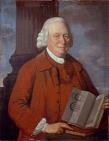


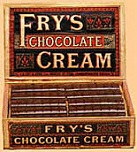
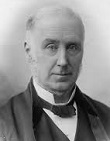



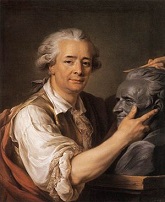
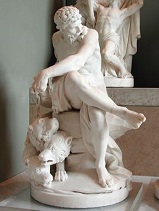
1761 On Jan. 14 the Third Battle of Panipat 80 mi. N of Delhi ends with 80K Afghanis under Ahmed Shah Durrani almost losing then crushing 70K Marathas and knocking off an entire generation of warriors, with 40K-60K killed on both sides, after which they torture some losing gens. and return to Afghanistan. On Jan. 15 the British capture Pondicherry in SW India, the principal French factory in India, ending French dominion in India; French gen. Lally-Tollendal is captured, sent to London, England as a POW, and sent to Paris two years later to face charges of treason, ending up executed on May 9, 1766 after a kangaroo trial. On Feb. 6 Clements August of Bavaria (b. 1700) dies, and Maximilian Friedrich von Koenigsegg-Rothenfels (Königsegg-Rothenfels)(1708-84) becomes archbishop-elector of Cologne (until 1784), ending the Bavarian grip on the sweet-smelling job. In Feb. the Liberty Bell in Philly is rung to celebrate the ascension to the throne of George III. In Feb. "Barnstable Patriot" James Otis Jr. (1725-83) gives a brilliant 5-hour speech in the Old Town House of Boston against the Writs of Assistance, making the quantum leap of declaring that any act passed by Parliament contrary to the "natural rights" of the colonists is invalid, wowing Samuel Adams, who utters the soundbyte: "Mr. Otis' oration breathed into this nation the breath of life...then and there was the first scene of the first act of the opposition to the arbitrary claims of Great Britain... American independence was then and there born"; he loses, but becomes popular, getting elected to the Mass. legislature in May; too bad, he gets in a fight in 1769 and is cut on the head with a sword, causing him to go into on-again-off-again insanity for life - just leave me in a Chinese orphanage? Bourbon Charles III of Spain concludes the Family Compact with his 1st cousin Louis XV France, negotiated by foreign minister (1758-61, 1766-70) Etienne Francois de Choiseul, Duc de Choiseul (1719-85) in an attempt to undo his own big boo-boo of allying France with Austria, whereby Spain agrees to declare war on Britain next year if peace has not been made by then; William Pitt the Elder, finding his pro-Prussia policy unpopular in England, holds peace talks with France, but they fall through when France demands the redress of several grievances of Spain, revealing the existence of the Family Compact, causing Pitt to demand that the cabinet declare war against Spain, and when they refuse, he resigns as PM (first minister) of England, and in Mar. is succeeded by John Stuart, 3rd Earl of Bute (1713-92) as secy. of state, who soon secures the resignation of British PM (since June 29, 1757) Thomas Pelham-Holles, 1st Duke of Newcastle; a few mo. later Lord Bute is forced to declare war with Spain anyway. On May 22 the first life insurance policy in the Am. colonies is issued in Philadelphia, Penn. - shock insurance for Gentle Ben? In the summer Benjamin Franklin makes a trip to Holland and Flanders, where he observes them singing and dancing on the Sabbath and comments, "I looked around for God's judgments but saw no signs of them"; in Leyden he meets with Pieter van Musschenbroek, inventor of the Leyden Jar, who dies two weeks after Franklin leaves; ever-loyal Franklin cuts his trip short to attend the coronation of George III in Sept. On June 6 there is rare (once in 434 years) transit of Venus, and Russian mathematician Mikhail Vasilyevich Lomonosov (1711-65) of Petersburg, Russia uses observations to predict that Venus has an atmosphere, causing preparations for the companion transit in 1769 to become big stuff; London-born English Rev. Dr. Nevil Maskelyne (1732-1811) is sent with mathematician Robert Waddington (-1779) to St. Helena Island to observe the transit, but bad weather prevents it, however, he successfully tests his new lunar distance method of determining longitude using the position of the Moon, which he pub. in The British Mariner's Guide (1763), and is used until about 1850; in 1765 he is appointed British astronomer royal #5 (until 1811). On Oct. 1 the Austrians take Schweidnitz. On Oct. 13 Cesar Gabriel de Choiseul, Duc de Praslin (1712-85) succeeds his movin'-on-up cousin Etienne de Choiseul as French foreign minister (until Apr. 1766), freeing the latter to become war secy. and concentrate on the Seven Years' War. On Dec. 16 the Russians occupy Kolberg (Colberg). British land grants in New England begin to require white pine trees suitable for ship masts to be cut only under license by the crown; the first flag used by Am. revolutionaries bears the image of a single white pine in protest. Harper's (Harpers) Ferry in Md. and Va. (later W. Va.) is founded at the confluence of the Potomac and Shenandoah Rivers by Robert Harper for settlers moving into the Shenandoah Valley. The modern town of Haifa, Palestine on Mt. Carmel is founded by Daher el-Omar (1690-1775) 1.5 mi. E of the site of ancient Sycaminum (Tell el-Semak). A Danish expedition led by Carsten Niebuhr (1733-1815) explores Arabia - ho ho hold onto your silver bells? The first steamship navigates the Mississippi River carrying French reinforcements moving from New Orleans to the area of future St. Louis. Claude Bourgelat (1712-79) opens the first French veterinary school in Lyons. The Society of Arts in London opens its first exhibition of agricultural machines. Robert Hinchliffe begins the mass production of steel scissors. Edmund Burke becomes the private secy. of William Gerard Hamilton, secy. for Ireland in Dublin (until 1764). Franz Josef Haydn is appointed kappelmeister to Prince Paul Esterhazy. English poet Thomas Percy, bishop of Dromore, County Down, Ireland trans. a Chinese novel from a Portuguese ms. J.S. Fry & Sons Ltd. is founded by Bristol-born English Quaker Joseph Fry (1728-87) and John Vaughan by the purchase of the chocolate business of Walter Churchman in Bristol; in 1795 Joseph Storrs Fry (1767-1835) gains control, patenting a method for grinding cocoa beans using a James Watt steam engine, introducing the first modern chocolate bar in 1847, followed in 1866 by Fry's Chocolate Cream Bar, the first chocolate Easter egg in the U.K. in 1873, and Fry's Turkish Delight in 1914; in 1919 it merges with Cadbury's under the name British Cocoa and Chocolate Co. Architecture: Peter Harrison begins construction of Brick Market in Newport, R.I. (finished 1772). The Bridgewater Canal between Liverpool and Leeds, the first canal in Britain (begun 1758) is completed, running 11 mi. from the coal pits of Worsley to Manchester, reducing the price of coal there by half; a canal boom begins, resulting in 2.6K mi. of canals constructed at the cost of £50M by the time of the rise of the railroads in the 19th cent. Inventions: Benjamin Franklin invents the musical instrument known as the Glass Armonica (not harmonica), consisting of 37 glass bowls of different sizes attached to a spindle, a flywheel and a foot pedal, and played with wet fingers, calling its sounds "incomparably sweet beyond those of any other"; for awhile it becomes the rage, with Marie Antoinette taking lessons on it, and Mozart and Beethoven writing pieces for it; too bad the lead in the glass causes saturnism (chronic lead poisoning), and the players get more and more sluggish and morose with every performance; "Of all my inventions, the glass armonica has given me the greatest personal satisfaction" (Franklin). Science: Joseph Leopold Avenbrugger pioneers the medical percussion method as a diagnostic technique. Scottish chemist Joseph Black (1728-99) discovers the phenomenon of Latent Heat (required to effect a change of state), and measures the value for steam in 1764; his asst. James Watt later carries on with his work. Johann Lambert pub. a treatise on comets. Dr. Percival Pott discovers a connection between scrotal cancer in chimneysweeps and exposure to soot. Johann Peter Süssmilch (Sussmilch) founds the science of statistical demography. Nonfiction: Abraham Hyacinthe Anquetil-Duperron (1731-1805) (tr.), Zend-Avesta, Ouvrage de Zoroaster; first trans. into a European language, made by a French soldier who got the mss. from the Parsee priests of Surat. Joseph Leopold Avenbrugger, Inventum Novum; use of percussion to diagnose chest diseases. James Ferguson (1710-76), Lectures on Select Subjects. Henry Home, An Introduction to the Art of Thinking. Giovanni Battista Morgagni (1682-1771), On the Causes of Diseases (De Sedibus et Causis Morborum per Anatomem Indagatis); founds padualogical, er, pathological anatomy, er, anatomical pathology. Tobias Smollett et al. (eds.), Collected Works of Voltaire (1761-74). Johann Peter Sussmilch, Die Göttliche Ordnung in den Veränerungen des Menschlichen Geschlecths aus der Geburt, dem Tode, und der Fortpflanzung desselben Erwiesen. Benjamin Victor, History of the Theatres of London and Dublin. Music: Thomas Arne (1710-78), Judith (oratorio) (London). Christoph Gluck (1714-87), Don Juan (ballet) (Vienna). Art: Pompeo Batoni (1708-87), Diana and Cupid. Francois Boucher (1703-70), Shepherd and Shepherdess Reposing (The School of Love). Anton Raphael Mengs (1728-79), Apollo and the Muses on Parnassus (Villa Albani, Rome); hailed as the manifesto of Neoclassicism. Augustin Pajou (1730-1809), Pluton, dieu des Enfers, tenant Cerbere enchaine (Cerbère enchaîné) (Pluto, God of the Underworld Holding the Chained Cerberus) (sculpture). Giovanni Battista Piranesi, Carcere (series) (1760-61). Plays: George Colman the Elder (1732-94), The Jealous Wife (comedy); based on Henry Fielding's "Tom Jones"; makes him a star. Charles Simon Favart, Les Trois Sultanes. Carlo Goldoni (1707-93), Le Smanie per la Villeggiatura (Pining for Vacation) (comedy); Le Avventure della Villeggiatura (Holiday Adventures) (comedy); Il Ritorno dalla Villeggiatura (Return from Vacation) (comedy); Una delle Ultime Sere di Carnevale (comedy); an allegorical farewell to his native Venice as he departs to manage the Italian Theater in Paris. Jean-Jacques Rousseau (1712-78), Julie, ou La Nouvelle Heloise (1761-5). Poetry: Thomas Gray (1716-71), The Descent of Odin. Jupiter Hammon (1711-1805), "An Evening Thought. Salvation by Christ with Penitential Cries: Composed by Jupiter Hammon, a Negro belonging to Mr. Lloyd of Queen's Village, on Long Island, the 25th of December, 1760 (debut); makes him the first African-Am. writer to be pub. in America. Novels: Charles Churchill (1731-64), The Rosciad. Frances Sheridan (1724-66), Memoirs of Miss Sidney Bidulph; a clone of Samuel Richardson's 1740 "Pamela"? Births: Am. statesman-diplomat and U.S. treasury secy. #4 (1801-14) Abraham Alfonse Albert Gallatin (d. 1849) on Jan. 29 in Geneva, Switzerland; emigrates to the U.S. in 1780, becoming a prof. of French at Harvard U. French gen. Charles Pichegru (d. 1804) on Feb. 16 in Arbois; son of peasants. Am. Congregationalist preacher Solomon Spalding (d. 1816) on Feb. 20 in Ashford, Conn.; educated at Dartmouth College. French sculptor Jacques-Edme Dumont (d. 1844) on Apr. 10 in Paris; son of Edme Dumont (1720-75) and Marie-Francoise Berthault; grandson of Francois Dumont (1688-1726); great-grandfather of Pierre Dumont; father of Augustin-Alexandre Dumont (1801-84) and Jeanne Louise Dumont Farrenc (1804-75). English Lady Emma Hamilton (Amy Lyon) (Emma Hart) (d. 1815) on Apr. 26 in Neston, Cheshire; blacksmith father; mistress of Lord Nelson (1758-1705). German Misanthropy and Repentance (The Stranger") anti-liberal anti-Napoleon anti-Romantic dramatist-novelist August Friedrich Ferdinand von Kotzebue (d. 1819) on May 3 (Apr. 22 Old Style) in Weimar; educated at the U. of Duisburg. Dutch novelist-poet- (Mennonite) Adriaan Loosjes Pieterszoon (d. 1818) on May 13 in Den Hoorn, Texel. Am. Federalist war secy. #4 (1800-1) and treasury secy. #3 (1801) Samuel Dexter (d. 1816) on May 14 in Boston, Mass.; educated at Harvard U. British (Cornish) painter John Opie (d. 1807) in May in Trevellas, St. Agnes (near Truro), Cornwall. Scottish London Bridge and Waterloo Bridge architect John Rennie the Elder (d. 1821) on June 7 in Phantassie (near East Linton), East Lothian; father of George Rennie (1791-1866) and John Rennie the Younger (1794-1874). British pianist-composer Maria Hester Park (d. 1813) on Sept. 29; wife (1787-) of engraver Thomas Park (1759-1834). Am. lead magnate Moses Austin (d. 1821) on Oct. 4 in Durham, Conn.; husband of Mary Brown Austin (1768-1824); father of Stephen Fuller Austin (1793-1836). British Lt. Gen. Sir John Moore (of Corunna) (d. 1809) on Nov. 13 in Glasgow, Scotland; son of Dr. John Moore (1729-1802); brother of Vice-Adm. Sir Graham Moore (1764-1843). Italian pope (1829-30) Pius VIII (d. 1830) on Nov. 20 in Cingoli, Marche. English actress (mistress of Wiliam IV) Dorothy (Dorothea) (Dora) Jordan (nee Bland) (d. 1816) on Nov. 21 near Waterford. Am. "The Washington Family" painter-engraver Edward Savage (d. 1817) on Nov. 26 in Princeton, N.J. English chemist Smithson Tennant (d. 1815) on Nov. 30 in Selby, Yorkshire; educated at Cambridge U. French wax museum queen (in London) Madame Marie (Ann-Marie) Tussaud (nee Grosholtz) (d. 1850) on Dec. 1 in Strasbourg. Turkish Ottoman sultan #28 (1789-1807) Selim III (d. 1808) on Dec. 24 in Topkapi Palace, Constantinople; son of Mustafa III (1757-74); nephew of Abdul Hamid I (1725-89). British Anglican minister and mineralogist William Gregor (d. 1817) on Dec. 25 in Trewarthenick Estate, Cornwell; educated at St. John's College, Cambridge U. Russian field marshal Prince Michael Andreas (Mikhail Bogdanovich) Barclay de Tolly (d. 1818) on Dec. 27 (Dec. 16 Old Style) in Pamuskis, Lithuania; German-speaking family of Scottish descent. Irish 7'7" giant ("the Irish Giant") Charles Byrne (O'Brien) (d. 1783) in County Tyrone. English "Julia" abolitionist novelist-poet Helena Maria Williams (d. 1827); Welsh father, Scottish mother. Am. famous wife Frances Nisbet (d. 1831); marries Adm. Horatio Nelson in 1787 after her physician hubby dies. Hungarian Talmudic scholar (Jewish) Rabbi Akiva (Akiba) Eger (d. 1838) in Eisenstadt, Hungary. French publisher Pierre Didot (d. 1853); eldest son of Francois Ambroise Didot (1730-1804); brother of Firmin Didot (1764-1836); known for his "Louvre" eds. of the classics (Horace, Vergile, Racine, etc.). Deaths: Welsh-born British dandy Beau Nash (b. 1674) on Feb. 3 in Bath; despite an elaborate city-funded funeral, he is buried in an unmarked pauper's grave; a memorial is erected at Bath Abbey; his mistress Juliana Popjoy takes to living in a large hollowed-out tree. English clergyman-scientist Stephen Hales (b. 1677). French scientist Pierre Fauchard (b. 1678). Scottish pro-English nobleman Archibald Campbell, 3rd duke of Argyll (b. 1682). French Jesuit historian Pierre Francois Xavier de Charlevoix (b. 1682) on Feb. 1 in La Fleche, Maine. English mystic divine William Law (b. 1686) on Apr. 9 in Kings Cliffe, Northamptonshire. English "Pamela" novelist Samuel Richardson (b. 1689) on July 4. Dutch scientist Pieter van Musschenbroek (b. 1692) on Sept. 19 in Leiden. Scottish nobleman Archibald Douglas, 1st Duke of Douglas (b. 1694) on July 21; his estates end up going to his 13-y.-o. nephew instead of his 5-y.-o. cousin even though the nephew's mother would have been 51 at his birth. English probability theorist Thomas Bayes (b. 1701) on Apr. 17 in Tunbridge Wells, Kent; leaves "An Essay Towards Solving a Problem in the Doctrine of Chances", containing Bayes' Theorem, which is read to the Royal Society by Richard Price in 1763; the theorem "is to the theory of probability what Pythagoras' theorem is to geometry" (Sir Harold Jeffreys). English optician John Dollond (b. 1706) on Nov. 30. English mathematician Thomas Simpson (b. 1710) on May 14 in London. British adm. Edward Boscawen (b. 1711) on Jan. 10 (fever); namesake of Boscawen, N.H. (1760): "To be sure I lose the fruits of the Earth, but then, I am gathering the flowers of the Sea". French explorer Louis-Joseph de La Verendrye (b. 1717) on Nov. 15; dies at sea en route from Canada to France in the ship Auguste.









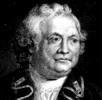






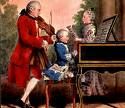
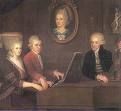
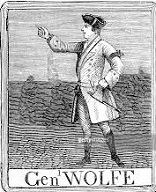


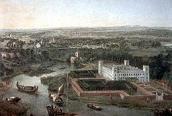
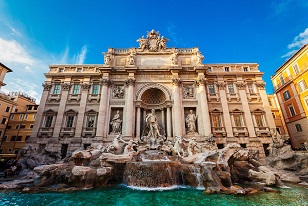


1762 On Jan. 5 (Dec. 25 Old Style) Empress (since Dec. 6, 1741) Elizabeth Petrovna Romanov (b. 1709) dies, and her pro-Prussian son Peter III (the Prussomaniac) (1728-62) becomes Russian Romanov tsar #11 (until July 9), founding the Holstein-Gottorp line of the House of Romanov, which rules until 1917; luckily for Prussia, Peter is an admirer of Frederick II and immediately seeks to end hostilities; he then tries to introduce Western-style mercantile capitalism, ends the practice of serfs working in industrial enterprises, and gets the Charter of the Nobility passed emancipating the nobles from compulsory service to the state, undoing Peter the Great's big dream of reforming the civil service, which doesn't stop him from becoming unpopular, and he ends up lasting only 6 mo. On Jan. 7 Wolfgang Amadeus Mozart (1756-91) gives his first public concert at age six for Bavarian elector Maximilian III Joseph; he and his older sister Maria Anna "Nannerl" Mozart (1751-1829) are paraded across Europe as child prodigies by their violinist father Leopold Mozart; Count Karl Johann Christian von Zinzendorf (1739-1813), HRE Joseph II's finance minister (nephew of Moravian Count Nicolas Ludwig von Zinzendorf) attends one their performances and records how wowed he is in his diary, and goes on to attend Wolfy's performances up to the day of his funeral, always recording the weather. In Jan. Spain enters the Seven Years' War on the side of France, just in time to share in France's defeat. In Feb. the British under Adm. George Brydges Rodney, 1st Baron Rodney (1718-92) capture Martinique, followed in Mar. by Grenada. On Mar. 9 after his son Marc-Antoine is found dead on the ground floor of his family's home on Oct. 13/14, 1761, French Protestant merchant Jean Calas (b. 1698) is sentenced by the parlement of Toulouise to death on the wheel, and he is executed on Mar. 10, declaring his innocence to the end, explaining that he hung himself over gambling debts and they tried to make it look like murder to save him from disgrace; when he learns that a Catholic prosecutor railroaded him through a Catholic magistrate and Catholic parlement, French lit. giant Voltaire takes the case, gets the sentence annulled and the chief magistrate fired by the king in 1764, and a new trial held that exonerates him in 1765, with the king receiving his family and paying them 36K francs damages; meanwhile Voltaire takes on the Church itself in a 1763 work. On Mar. 16 Russia and Prussia sign the Truce of Stargard, taking Russia out of the Seven Years' War, followed on May 5 by the Treaty of St. Petersburg, renouncing all hostile alliances and restoring all Russian conquests, restoring to Prussia all the lands in Silesia which Russia had taken from it. On Mar. 17 the first St. Patrick's Day Parade is held by English soldiers in New York City. On May 22 Sweden and Prussia sign the Treaty of Hamburg, restoring the antebellum status quo. On May 26 John Stuart, 3rd Earl of Bute (1713-92) becomes British PM (until Apr. 8, 1763), later being remembered ' as one of the most unpopular PMs in British history, attempting to assert the supremacy of the royal autocracy while claiming that the executive govt. are merely servants, causing William Pitt to call him "One behind the throne greater than the throne itself"; radical MP John Wilkes (1725-97) (ugliest man in England, with a protruding jaw and annoying squint, but eloquent, known for taking only half an hour to talk his face away) begins pub. the radical anti-Bute weekly The North Briton, satiring Bute's Scotland and taking an anti-Scottish anti-Jacobite attitude; William Hogarth gets into a political feud with him, and into another with poet Charles Churchill. In May Spain invades Portugal. On June 6-Aug. 13 after secretly leaving Portsmouth, N.H. on Mar. 5, the British under Adm. Sir George Pocock siege and capture Havana (#3 city in the New World behind Lima and Mexico City), receiving its formal surrender on Aug. 13 and claiming the conquest of Cuba, with Sir George Keppel, 3rd Earl of Albemarle (1724-72) becoming gov., after which African slaves are brought in and the economy pumped up; too bad, although the Brits only lose 560 of their 11K men in combat, half later die from yellow fever; Pocock gets a £122,697 share of prize money, then resigns in 1766 after returning to England and seeing rival Sir Charles Saunders beat him out for promotion to first Lord of the Admiralty; future U.S. gen. Israel "Old Put" Putnam (1718-90) returns from Cuba with three donkey-loads of cigars, introducing Yankees to them at his General Wolfe Tavern in Brooklyn, Conn. (founded 1868), known for a yellow pine sign on the door carrying a full-length portrait of Gen. Wolfe. In June Prussia and Russia sign an alliance against Austria. On June 24 the Prussians defeat the French at the Battle of Wilhemsthal (Wilhelmstadt)_; on July 23 the Second Battle of Lutterburg is a V for the Prussians under Prince Ferdinand over the French and Saxons under Gen. Le Comte. On July 9 (June 28 Old Style) after announcing harsher discipline for the Leib Guard, they depose Tsar (since Jan. 5) Peter III, and his German wife Princess Sophia August Fredericka of Anhalt-Zerbst (1st cousin of Gustav III of Sweden and Charles XIII of Sweden) is proclaimed Russian Romanov tsar #12 Catherine (Ekaterina) II the Great (1729-96) (until Nov. 17, 1796), having Count Alexei (Alexey) Grigoryevich Orlov (1737-1808), younger brother of her lover Count Grigory (Grigori) Grigoryevich Orlov (1734-83) (known as the breeder of the Orlov Trotter) strangle him on July 17 in custody in Ropsha Chateau outside Leningrad; Russia withdraws its troops from the Prussian army, but remains inactive, leaving Austria to face Prussia alone, allowing a 40K-man Prussian army (with a Russian contingent previously sent by dead Peter III) to defeat their 30K-man army on July 21 at the Battle of Burkersdorf; too bad, the secret dispatching of Peter III causes rumors that he's still alive to spread. On Aug. 24 Benjamin Franklin sails for home after five years in England, arriving in Philly in Nov.; his son William wins a royal appointment as royal gov. of New Jersey. On Aug. 31 emperor (since 1747) Momozono (b. 1741) dies, and by his special decree his 5-y.-o. son Prince Hidehito (later Go-Momozono) is passed over for his older sister (2nd daughter of Sakuramachi) Go-Sakuramachi (1740-1813) (personal name Toshiko), who becomes Japanese Yamato emperor #117 (8th and last female monarch until ?) (until May 23, 1771). On Sept. 15 the Battle of Signal Hill is a V for the British under Lt. Col. William Amherst over the French under Gen. Guillaume de Bellecombe, who are forced to surrender St. John's, confirming British control of Canada. On Sept. 24-Oct. 6 the Battle of Manila is a V for Britain over Spain, followed in Oct. by the Battle of Buenos Aires; the indios in the Philippines take advantage of the situation to stage uprisings throughout the Philippine archipelago, esp. under Diego Silang y Andaya (1730-63) in Ilocos. On Oct. 29 Prussia defeats Austria at the Battle of Freiburg (not to be confused with the 1644 Battle of Freiburg). On Nov. 13 after Louis XIV concedes Canada, the secret Treaty of Fontainebleau is signed by France, Britain, and Spain, assuring French withdrawal from Germany; France secretly gives Louisiana (La.) (all French territory W of the Mississippi River to the Rocky Mts. plus the island of Orleans) to Spain as compensation for the Spanish loss of Florida (Fla.) to Britain; the treaty is not revealed publicly until Apr. 21, 1764; while not obtaining all they could get if they tried, the British gain a glorious victory? - did I say dictator I meant leader? In Nov. the French capitulate at Cassel and evacuate the right bank of the Rhine River; a truce is signed by Prussia, Saxony, Austria, and the HRE. The Kingdom of Kartli and Kakheti in E Georgia (ends 1801) is formed by king (since 1744) Erekli II of Kakheti in an attempt to resist Persian attacks. The Spanish capture Colonia and occupy Rio Grande do Sul in Brazil. Mt. Pelee in Martinique Island, West Indies erupts (next 1851). Johnstown (originally Kinsborough) in N.Y. is founded by British supt. of Indian affairs (1755-74) Sir William Johnson, who doesn't name it after himself but after his johnson, er, son John Johnson; not to be confused with Johnstown, Penn. (founded 1800) - johnson jokes here? The tsar offers Germans free land and religious freedom, causing many to emigrate; by 1870 260K live along the Volga River, and 150K near the Black Sea; 3K German villages in the steppes are like "little German islands in the vast Russian ocean"; Balakovo on the left bank of the Volga River 81 mi. NE of Saratov is founded by the Old Believers returning from Poland. The British settle Maugerville in New Brunswick. Schenectady, N.Y. (burned in 1690) is rebuilt and incorporated as a borough in 1765, becoming an important river port on the Mohawk River; The French govt. sets up a special section of the Gobelins tapestry factory to produce Chinese and Japanese fakes, since the demand for Chinese and Japanese goods is draining the country of gold. The College in the English Colony of Rhode Island and Providence Plantations, later called Brown U. in the Baptist stronghold of Providence is founded at a meeting of the Philadelphia Baptist Assoc. led by Baptist minister Morgan Edwards (1722-95), who becomes the only Baptist preacher on the English side in the Am. Rev. War; in 1764 it is chartered, becoming the first Baptist college in the 13 colonies; founders incl. Isaac Backus, John Brown, Nicholas Brown, Morgan Edwards, William Ellery, Stephen Hopkins, James Manning, Ezra Stiles, and Samuel Stillman; "The first mover [himself] for it in 1762 was laughed at as a projector of a thing impracticable. Nay, many of the Baptists themselves discouraged the design (prophesying evil to the churches in case it should take place) from an unhappy prejudice against learning." Joseph Bellamy (1719-90) gives a sermon at the Gen. Assembly of Conn. that denounces capitalism ("competition") and advocates "cooperation" instead, founding the Christian Socialist movement in the U.S., which has dangerous forebodings of Nazism? David Hume becomes secy. of the British embassy in Paris (until 1765), becoming a lion of the French lit. set, and making friends with philosopher Jean-Jacques Rousseau - I'm alone, who cares? Dr. Samuel Johnson begins receiving a £1.5K annual pension from John Stuart, Lord Bute, along with LL.D degrees from Oxford U. and Dublin U. George Washington becomes vestryman of the Anglican Pohick Church, "the Mother Church of Northern Virginia" (founded 1724), which he helps rebuild and survey the land for in 1774, resigning in 1784 after returning from the Am. Rev. because he can't keep supporting a church headed by his ex-king George III? George III buys Buckingham House (built 1703) for his wife Queen Charlotte, and it becomes known as "the Queen's House", where she goes on to give birth to 14 of their 15 royal brats, and where Mozart plays for the king in 1764. Christoph Martin Wieland begins translating 17 Shakespeare plays into German (1762-6) in 8 vols., becoming the first look the Krauts get at the Anglo-Saxon god. After producing fine pottery since 1759, Josiah Wedgwood (1730-95) opens his Etruria Factory in Hanley, Staffordshire, producing Etruria bone china by 1769, selling it in partnership with Thomas Bentley in London; in 1765 his cream-colored earthenware is ordered by George III's wife Queen Charlotte, who is so pleased she allows him to call it Queensware; he also produces jasperware, blue with white raised designs. The 1762 Gautier Cognac becomes the oldest bottled cognac to survive to modern times. Architecture: St. George's Episcopal Church is built. The Sorbonne Library (Bibliotheque de la Sorbonne) in Paris is founded. Hugh Percy, 1st Duke of Northumberland (1714-86) hires neoclassical architect Robert Adam (1728-92) and landscape designer Lancelot "Capability" Brown (1716-83) to redesign Syon House in Isleworth, NW London by the Thames (finished in 1769); Syon Park is also built, housing 200 species of rare trees, looking across the Thames River to Kew Gardens. Fraunces Tavern at Broad and Pearl Sts. in New York City, built as a home in 1719 by rich French Huguenot Etienne de Lancey is opened by West Indian-born Samuel Fraunces as Queen's Head Tavern. 86 ft. x 161.3 ft. Trevi Fountain in Palazzo Poli in Trevi, Rome at the junction of three roads (It. "tre vie") of the ancient Aqua Virgo is completed, designed by Nicola Salvi and completed by Pietro Bracci, becoming the largest Baroque fountain in Rome; barrels of water from it are sent across the Tiber River to the Vatican for cents.; people begin throwing coins into it, which are collected and given to charity; the belief is that one day they will be granted a safe return; later featured in several films incl. "Roman Holiday" (1953), "Three Coins in the Fountain" (1954), and "La Dolce Vita" (1960); refurbished in 1998. Inventions: In Jan. John Harrison (1693-1776) wins the £20K prize from the British Board of Longitude for an accurate marine chronometer to improve navigation after it loses only 5.1 sec. on a 6.5 week voyage to Jamaica. Scotland's Stirlingshire iron works at Carron converts cast iron to malleable iron for the first time. Ambrose Godfrey Jr. (-1756), son of phosphorus manufacturer Ambrose Godfrey (1660-1741) invents the fire extinguisher. Edward Gibbons becomes the first to mention the word "sandwich" in his journal entry for Nov. 24; it was invented somewhen by John Montagu, 4th Earl of Sandwich (1718-92), and was originally salt beef on toasted bread. Nonfiction: George Campbell, Dissertation on Miracles; we should believe a report of a miracle for the same reason that children trust their parents? Michael Combrune, The Theory and Practice of Brewing; first attempt to establish rules and principles for the art of brewing; pub. with the permission of the Worshipful Co. of Brewers of London; rev. ed. pub. 1804. Mary Darly, A Book of Caricaturas; for "young gentlemen and ladies"; the first book on caricature drawing, by the wife of London engraver Matthew Darly. Henry Home, Lord Kames (1696-82), Elements of Criticism (2 vols.) (5th ed. 1772); examines the rules of lit. composition and attempting to establish a new theory based on the principles of human nature, calling the 18th cent. tradition of sentimental lit. hogtied to the notion that "the genuine rules of criticism are all of them derived from the human heart"; "Genius is allied to a warm and inflammable constitution, delicacy of taste to calmness and sedateness. Hence it is common to find genius in one who is a prety to every passion; which can scarce happen with respect to delicacy of taste. Upon a man possessed of that blessing, the moral duties, not less than the fine arts, making a deep impression, counterbalance every irregular desire; at the same time, a temper calm and sedate is not easily moved, even by a strong temptation." Robert Lowth (1710-87), A Short Introduction to English Grammar; becomes a std. textbook; "The placing of the Preposition before the Relative is more graceful, as well as more perspicuous." Anton Raphael Mengs (1728-79), Gedanken Uber die Schonheit und Uber den Geschmack in der Malerey; how perfection in painting is attainable by a classical Greek approach combining the expression of Raphael, the chiaroscuro of Correggio, and the colors of Titian (1477-1576), making him the first Neoclassicist or the last Baroque painter?; "So much learning... allied to a total want of initiative and poverty of invention, and embodied with a strained and artificial mannerism" (Goethe). John Parkhurst (1728-97), An Hebrew and English Lexicon. Did anybody tell you that forever feels like stars in your head, it's the star power? Jean-Jacques Rousseau (1712-78), The Social Contract; or Principles of Political Right (Du Contrat Social, ou Principes du Droit Politique) (Apr.); ditches the divine right of kings theory in favor of the theory that only the people are sovereign and have the right to rule; how the general will that seeks the interest of all "forces us to be free, unenslaved to our own or to other's artificial power even while in society, and to preserve that general will in the social contract, there must be no factions, no gulf between rich and poor and no society too large for democratic self-governance"; "Man is born free, and everywhere he is in chains"; becomes the textbook of the French Rev., and is used in writing the Federalist Papers; makes the Roman Catholic Index of Prohibited Books, and is banned in France and Geneva; "I have a premonition that some day this little island [Corsica] will astonish Europe"; Emile, or On Education (Emile, ou Traite de l'Education) (May); feeling the star power, Rousseau flees Geneva for Bern, then Motiers, and finally flees the Continent for Britain, settling in Wootton, Staffordshire. Thomas Sheridan (1719-88), A Course of Lectures on Elocution; disses Mr. Spock, er, John Locke (1632-1704), saying that it's all about tones? - seig Heil? Stuart and Revett, Classical Antiquities of Athens, Vol. 1; inspires the neoclassical movement. Music: Thomas Arne (1710-78), Artaxerxes (opera) (Covent Garden, London); surprise hit of the year; first attempt to write an Italian opera seria in English (until ?). Christoph Gluck (1714-87), Orfeo ed Euridice (Orpheus and Euridice) (opera) (Oct. 5) (Venice); his first "reform" opera, and masterpiece?; incl. Che Faro Senza Euridice?, Melody. Art: George Stubbs (1724-1806), Whistlejacket; lifesize (115 in. x 97 in.) painting of the Marquess of Rockingham's racehorse. Giovanni Battista Tiepolo (1696-1770), Frescoes in the Royal Palace of Madrid (1762-6). Plays: Thomas Arne (1710-78) and Isaac Bickerstaffe (1733-1812), Love in a Village (ballad opera) (Royal Opera, Covent Garden, London) (Dec. 8); first English comic opera; libretto based on Charles Johnson's 1729 play "The Village Opera"; contains 42 musical numbers, with 24 by other composers; features the song The Miller of Dee; spawns a vogue for pastiche opera that lasts until the 19th cent. Charles Dibdin (1745-1814), The Shepherd's Artifice (operetta) (May 21) (Covent Garden, London). Denis Diderot (1713-84), Le Neveu de Rameau (Rameau's Nephew) (1762-4). William Falconer (1732-69), The Shipwreck. Carlo Goldoni (1707-93), Una della Ultime Sere di Carnevale (One of the Last Carnival Evenings) (comedy); Le Baruffe Chiozzotte (comedy). Hannah More (1745-1833), The Search after Happiness (pastoral drama for young ladies) (first play); sells 10K copies by the 1780s. Poetry: Johann Gottfried von Herder (1744-1803), Song to Cyrus, Grandson of Astyages (Gesang an den Cyrus) (first work); written before becoming a clergyman and moving to Riga in 1764, cranking out works of lit. criticism before travelling in 1769 by ship to Nantes and Paris, followed in 1770 to Strasbourg, where he meets young Goethe, finding out that he inspired him to develop his own lit. style, helping launch the Sturm und Drang movement; in 1771 he becomes head pastor at Buckeburg under Count Wilhelm von Schaumburg-Lippe, and Goethe uses his rising influence in Weimar to get him a position as gen. suptd. in 1776, after which he switches to classicism, supporting the French Rev., attacking Kantian philosophy, and splitting with Goethe. Richard Hurd (1720-1808), Letters on Chivalry and Romance. James Macpherson (1736-96), Fingal, an Ancient Epic Poem, in Six Books. Voltaire (1694-1778), Eloge (Éloge) de M. de Crebillon (Crébillon); disclaims authorship since Crebillon was his biggest rival. Edward Young (1683-1765), Resignation. Novels: Charlotte Ramsay Lennox (1720-1804), The History of Harriot and Sophia. Births: German celeb Maria Constanze (Konstanze) Cecilia Josepha Johanna Aloysia Mozart (nee Weber) (d. 1841) on Jan. 5 in Zell im Wiesental, Germany; wife (1782-) of Wolfgang Amadeus Mozart (1756-91); sister of Josepha Weber (1758-1819), Aloysia Weber (1760-1839), and Sophie Weber (1763-1846); mother of 6 children, incl. Karl Thomas Mozart (1784-1858) and Franz Xaver Wolfgang Mozart (1791-1844). Vietnamese Ngyuen emperor #1 (1802-20) Gia Long (Nguyen Phuc Angh) (d. 1820) on Feb. 8. French Rev. War gen. (black) Thomas-Alexandre Davy de la Pailleterie (Dumas) (d. 1806) on Mar. 25 in Jeremie, Saint-Domingue; father of Alexandre Dumas pere (1802-70); son of Marquis Alexandre Antoine Davy de la Pailleterie (1714-86) and black slave Marie Cesette Dumas. Spanish Adams-Onis Treaty diplomat (Spanish envoy to the U.S. in 1809-19) Luis de Onis Gonzalez Vara (d. 1827) on June 4 in Cantalapiedra, Salamanca. German physician (inventor of the term "macriobiotic") Christoph Wilhelm Friedrich Hufeland (d. 1836) on Aug. 12 in Langensalza, Thuringia. British PM (1809-12) Spencer Perceval (d. 1812) on Nov. 1; educated at Harrow and Trinity College, Cambridge U. German Idealist philosopher (Freemason) (atheist) Johann Gottlieb Fichte (d. 1814) on May 19 in Rammenau, Upper Lusatia, Saxony; father of Immanuel Hermann Fichte (1796-1879); disciple of Immanuel kant; dismissed from the U. of Jena in 1799 for atheism, ending up in Berlin. Irish "Christian Brothers", "Presentation Brothers" founder Edmund Ignatius Rice (d. 1844) on June 1 in Callan, County Kilkenny. U.S. Supreme Court justice #11 (1798-1829) Bushrod Washington (d. 1829) on June 5 in Mount Holly, Va.; educated at the College of William and Mary. Am. "The Virginia House-Wife" writer Mary Randolph (d. 1828) on Aug. 9 in Ampthill Plantation near Richmond, Va.; descendant of John Rolfe and Pocahontas; sister of Thomas Mann Randolph Jr. (1768-1828) (son-in-law of Thomas Jefferson); cousin of Mary Lee Fitzhugh Custis, wife of George Washington Parke Custis, Arlington's builder. English king (1820-30) and regent (1811-20) George IV (George Augustus Frederick) (d. 1830) on Aug. 12 in St. James's Palace, London; eldest son of George III (1738-1820) and Charlotte of Mecklenburg-Strelitz (1744-1818). French geologist Jean-Francois d'Aubuisson de Voisons (d. 1841) on Aug. 17; student of Abraham Werner (1749-1817). French neoclassical Empire Style architect Pierre Francois Leonard Fontaine (d. 1853) on Sept. 20 in Pointoise, Val-d'Oise; collaborator of Charles Percier (1764-1838). English "The Spirit of Discovery" clergyman-poet William Lisle Bowles (d. 1850) on Sept. 24 in King's Sutton, Northamptonshire; educated at Trinity College, Oxford; vicar of Bremhill, Wiltshire (1804-50). English "The Heir at Law" dramatist-poet George Colman the Younger (d. 1836) on Oct. 21 in London; son of George Colman the Elder (1732-94); educated at Westminster School, Christ Church, Oxford U., U. of Aberdeen, and Lincoln's Inn, London; uses the alias Arthur Griffinhood of Turnham Green. French poet Andre Marie Chenier (André Marie Chénier) (d. 1794) on Oct. 30 in Istanbul, Turkey; brother of Marie-Joseph Chenier (1764-1811). German Roman Catholic theologian Martin Boos (d. 1825) on Dec. 25 in Huttenried, Bavaria. Am. Pres. Washington's secy. (1784-99) Tobias Lear (d. 1816) in Portsmouth, N.H. Am. White House architect James Hoban (d. 1831) (pr. HO-buhn) (b. 1758?) near Desart, County Kilkenny, Ireland; emigrates to the U.S. in 1781. Korean sirhak scholar Chong Yag-yong (d. 1836). Am. Congregationalist (New Israelites) minister Ethan Smith (d. 1849) in Belchertown, Mass.; educated at Dartmouth College. Deaths: French poet-dramatist Prosper Jolyot de Crebillon (b. 1674) on June 17. English dandy Richard "Beau" Nash (b. 1674); dies broke. Italian composer Francesco Manfredini (b. 1684) on Oct. 6 in Pistoia. Italian composer Francesco Geminiani (b. 1688) in Dublin. English inoculator-writer Lady Mary Wortley Montagu (b. 1689) on Aug. 21 in London: "General notions are generally wrong." English academic Shallet Turner (b. 1692) on Nov. 13. English royal astronomer James Bradley (b. 1693); discoverer of stellar aberration and the Earth's nutation. French ophthalmologist Jacques Daviel (b. 1696) on Sept. 30 in Geneva (apoplexy). English adm. Baron George Anson (b. 1697) on June 6 in Moor Park, Hertfordshire. French sculptor Louis-Francois Roubiliac (b. 1702). Indian Sufi Muslim reformer Shah Walli-Ullah (Wali Allah al-Dihlawi) (b. 1703). Russian Tsarina (1741-62) Elizabeth Petrovna Romanov (b. 1709) on Jan. 5. French astronomer Nicolas de Lacaille (b. 1713) on Mar. 21 in Paris (gout). Japanese Yamato emperor #116 (1741-62) Momozono (b. 1741) on Aug. 31. German physicist Johann Tobias Mayer (b. 1752) on Feb. 20. Russian tsar (1762) Peter III (b. 1728) on July 17 in Ropsha (strangled).









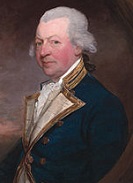






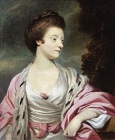
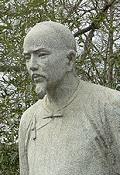
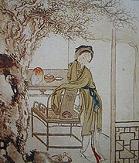
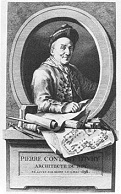







1763 Another foot-and-mouth panzootic strikes Europe (ends 1764). This year Scottish and Scots-Irish (codewords for Protestant) settlers arrive in record numbers in North Am., and fan out from Philly. By this year Venice has 218 coffee shops. On Feb. 10 after House of Commons leader (since 1762) Sir Henry Fox bribes, intimidates and persuades the House to approve it (and is raised to the peerage for it, becoming 1st Baron Holland), the 1763 Treaty of Paris between Britain, France, Spain, and Portugal, negotiated for France by foreign minister Cesar Gabriel de Choiseul, Duc de Praslin (1712-85) ends the French and Indian War along with the Seven Years' War (begun 1756), giving Britain's ally Frederick II the Great of Prussia a V; "Half a continent... changed hands at the scratch of a pen" (Francis Parkman); French imperialist dreams are dashed bigtime, and in return for the #1 sugar island of Guadalupe, France cedes to Britain all claims to Acadia, Canada (Quebec), Cape Breton, Louisiana E of the Mighty Mississippi except Orleans Island, plus all of India; Spain cedes Florida to Britain in return for British evacuation of Havana (to prevent Britain from going on to swallow up Mexico), and receives Louisiana from France, which is resisted locally by French colonists; St. Vincent Island is ceded to Britain (until 1779), along with Dominica Island; displaced Acadians begin to head for Louisiana, where they become known as Cajuns, while Spanish colonists leave Florida for Havana, and British colonists with their slaves head for Florida; Spain regains Cuba and the Philippines, while Portugal regains Colonia and Rio Grande do Sul; the Spanish begin transforming Havana into the most heavily fortified city in the New World, building the Fortress of San Carlos de la Cabana over 11 years, becoming the biggest Spanish fortification in the New World, equipped with cannons made in Barcelona; France is allowed to keep a trading post in Bengal, India, and to keep Guadeloupe Martinique, Belle Isle, Maria Galante and St. Lucia, and also to have fishing rights on the Newfoundland Banks, with the small islands of St. Pierre and Miquelon for fish curing, otherwise the French empire in America is, er, history?; Britain keeps one of the French posts on the coast of Guinea and loses the other; Britain recovers Minorca; France is bankrupt, and its navy a wreck, but war secy. (Cesar's cousin) Etienne Francois, Duc de Choiseul (1719-85) predicts that the British Am. colonies will rebel, and begins rebuilding the French navy to take advantage of it?; Britain is now numero uno, but the British Parliament then proceeds to fart away its American colonies via a series of dumbass Acts?; Lord Newcastle tries to organize an opposition to the Treaty of Paris and fails, finding that all who vote against it soon lose any offices or pensions they hold from the crown as punishment; by using this power the king gradually builds up a group in the House of Commons known as the King's Friends - if you look like a tree he'll talk to you? On Feb. 15 the Treaty of Hubertusburg is signed by Austria and Prussia, ratifying the treaties of Breslau, Berlin, and Dresden, with Prussia retaining Silesia in return for its promise to vote for Archduke Joseph for king of Rome; Saxony is restored to the pre-war status quo. In Feb. John Adams coins the term "caucus" (Lat. "caucus" = drinking vessel) after a meeting of the Caucus Club in the attic of friend Tom Daws, with the soundbyte "There they smoke tobacco till you cannot see from one end of the garrett to the other. There they drink phlip I suppose, and there they choose a moderator, who puts questions to the vote regularly, and select men, assessors, collectors, wardens, fire wards, and representatives are regularly chosen before they are chosen in the town." On Apr. 8 unpopular British PM (since May 26, 1762) Earl of Bute resigns as British PM, and on Apr. 16 the king replaces him with Whig George Grenville (1712-70) (until July 13, 1765); most Whigs don't support him, and they try to ally with Pitt to defeat him, but the king vacillates, letting him stay in office as long as he's as nice a rock-n-roller as he can find. In Apr. Benjamin Franklin (1706-90) leaves Philly on a 7-mo. 1,780-mi. postal inspection tour through Va. and N.H., after visiting a school for black children in Philly that he helped found; he writes the soundbyte: "I was on the whole much pleased, and from what I then saw have conceived a higher opinion of the natural capacities of the black race than I had ever before entertained. Their apprehension seems as quick, their memory as strong, and their docility in every respect equal to that of white children" - but I wouldn't want my daughter to marry one? On May 7 fearing the reentry of English settlers to the Ohio region, and pissed-off at the French cession of their lands without consulting them (they hadn't lost, had they?) Pontiac's Rebellion (War) begins (ends 1766) when Odawa Chief Pontiac (Obwandiyag) (1720-69) and 60 Ottawa chiefs enter Ft. Detroit with weapons under their blankets, but commander Maj. Gladwyn is warned by his Indian mistress, causing them to leave, only to return on May 10 assisted by other tribes and siege the fort; meanwhile on May 16 Ottawas and Hurons from Detroit capture Ft. Sandusky and its 15 man garrison using the blanket ruse, butcher them, and go east, killing settlers and wiping out every British post in the Ohio region, incl. Ft. Michilimackinac; Ft. Pitt is sieged on June 27-Aug. 6 and relieved by British regulars and frontiersmen under Col. Henry Louis Bouquet (1719-65), who supervises construction of Bouquet's Blockhouse at Ft. Pitt; Ft. Detroit and Ft. Niagara survive; all of this catches British Gen. Jeffrey Amherst (in New York City) by surprise, despite warnings by Sir William Johnson that he should have been handing them regular gifts to keep them from getting restless, to which Amherst replies: "I cannot think it necessary to give them any presents by way of Bribes, for if they do not behave properly they are to be punished", adding that the Indians are "more nearly allied to the Brute than to the Human Creation", and are "an execrable race", and concluding that "I am fully resolved whenever they give me an occasion to extirpate them root and branch"; meanwhile he fails to understand that the Indians had become dependent on handouts from the French, were starving for lack of gunpowder for hunting and because their hunting grounds had been cut back, and that the French had been working behind the scenes to stir up their resentment, while a mad mystic known as the Neolin (Algonq. "enlightened") the Delaware Prophet was uniting them in a vision that says "get whitey"?; on July 31 the Battle of Bloody Run sees the British attempt to surprise the Indians, and the latter turn the tables; Ft. Pitt is liberated in Aug., and Pontiac leaves Ft. Detroit in early Nov., making peace overtures; the Battle of Bushy Run on Aug. 5-6 features "swing action" between Brits and cool-dressing painted woodland Indians; Amherst plans a totally racist-to-the-max spring campaign against the Indians (incl. the spreading of smallpox through infected blankets?), but is finally recalled to England after five years, sailing on Nov. 10 on the Weasel, turning command over to Maj. Gen. Thomas Gage with instructions to "punish" the Indians and not allow more lenient Sir William Johnson to let them off; the war doesn't end until 1766, with a total of 500 redcoats KIA; Amherst's mad wife Jane dies a few mo. after he returns, and he razes his ancestral home of Brooks Place in Kent and erects a new brick barracklike house called Montreal, living off £1500/year as non-resident gov. of Va. plus another £800/year military pension, then on Mar. 26, 1767 marries well-racked 47-y.-o. blonde Elizabeth Cary (1740-1830) (daughter of Lt.-Gen. George Cary), whom he calls "the white pussy" - pass the toy boats, dear? On May 16 Scottish lawyer James Boswell (1740-95) meets much older, wiser and impressive Dr. Samuel Johnson (1709-84), the most famous English lit. figure of the latter half of the cent., and begins taking notes for a fawning bio. immortalizing him - as one fag said to the other, I'm Boswell to your Johnson? On July 2 Persia signs an agreement with the British East India Co. allowing its agents to establish a British commercial base in the port of Bushire, which lasts into the 20th cent. On Oct. 5 Augustus III (b. 1696) of Poland dies, and his son Frederick Christian (b. 1722) succeeds as elector of Saxony, then dies on Dec. 17, and his son Frederick Augustus I "the Just" (1750-1827) succeeds him as king-elector of Saxony (until 1806), under the guardianship of Prince Xavier (until 1768), going on to reduce taxes and set a just example; meanwhile Catherine II the Great sees her chance to get her main squeeze Poniatowski the throne of Poland. On Oct. 7 Pontiac's Rebellion, plus the huge British debt from the French and Indian War causes the British crown to issue the Royal Proclamation of 1763, setting aside the region between the Appalachians and the Mississippi River as Indian territory where white colonists are forbidden to settle, or even survey; it also renames the colony of Canada to the province of Quebec, provides a govt. for Grenada, and establishes the new British colonies of East and West Florida, centered around St. Augustine and St. Marks; the "proclamation line" doesn't stop white greed, however - just think, only 200 years until an Irish is killed in a Lincoln in former Indian territory, and the word Pontiac means a brand of car? On Dec. 4 a mob of over 50 frontiersmen from the town of Paxton in Lancaster County murder six unarmed, peaceful, converted Christian Conestoga Indians; two weeks later a larger mob slaughters 14 more Indians harboring in a workhouse; the 1.5K "Paxton Boys" then announce their intention of going to Philly and killing 140 more peaceful Moravian Indians from Bethlehem being sheltered there; a religious civil war ensues as the pacifist Quakers try to protect the Indians from the Presbyterian and Lutheran frontiersmen. Faced with a staggering British debt from the war, George Grenville, first lord of the British treasury secures an Act for the Encouragement of Officers Making Seizures, which sets up a new vice-admiralty court in Halifax having jurisdiction over all Am. colonies, and which has no provision for juries of colonists; he also attempts to tighten the customs service, and sends the British navy to patrol the American coasts. Indian adventurer Hyder Ali (1722-82) conquers Kanara in Mysore. French soldier Louis-Antoine, Comte de Bougainville (1729-1811), aide-de-camp to the Marquis de Montcalm in Canada in the Seven Years' War (who wrote a textbook on calculus at age 25) enters the navy as a capt., and next Jan. attempts to establish the French colony of Port Louis in the Falkland Islands (Islas Malvinas) using 150 expelled Acadians from Canada, but objections by Spain cause it to be abandoned in 1766, when France surrenders its claims on the islands to Spain, and after possession is transferred on Jan. 31, 1767 France renames the colony to Puerto Soledad; meanwhile in 1766 British capt. John MacBride (1735-1800) colonizes Port Egmont on Saunders Island, which is discovered and captured by Spain in 1770, and restored to Britain in 1771, after which in 1774 Britain voluntarily withdraws from the islands after leaving a plaque claiming them for George III. Russian fur trader Stefan (Stephan) Glotov discovers Kodiak Island; it is not settled until 1784. bicerin (It. "small glass"), a bitter coffee drink with dark chocolate and cream with a jealously-guarded secret recipe is invented in Turin, Italy. In 17-y.-o. artist Francisco de Goya (1746-1828) goes to Madrid to try to win a prize at the Academy of San Fernando, loses, then makes the acquaintance of fellow Aragonian artist Francisco Bayeu y Subias (1734-95), who brought German painter Anton Raphael Mengs' academic style to the Spanish court, going on to teach it to Goya and help his career, not to mention that Goya marries his sister Josefa. The Marquis de Sade (1740-1814) is imprisoned at the age of 23 after a encounter with a ho that goes bad; by his death in 1814 he has spent a total of 27 years in prison. The Isle of Man makes urgent appeals for a Manx trans. of the Bible, since two-thirds of the inhabitants only speak that language; the first translations of different books of the Bible appear in 1748. Frederick II the Great establishes village schools in Prussia. The first chambers of commerce are organized in New York and New Jersey. Pit ponies are first used. The term "mercantilism" is finally coined by French Physiocrat economist Victor de Riqueti, Marquis de Mirabeau (1715-89). St. James' Chronicle begins pub. in London (until 1790). French army pharmacist Antoine-Augustin Parmentier is forced to eat filthy animal food potatoes in a Prussian military prison, discovering their joys and going on to promote them back in France, getting them decriminalized in 1772. Architecture: On Apr. 3 L'Eglise de la Madeleine (La Madeleine) (Madeleine Church) in Paris is begun, with the king placing a cornerstone; after slow progress, only the foundations and grand portico are finished by 1797; after Napoleon farts around with it in 1806, intending it to be a temple to the glory of his army, then dumps it for the Arc de Triomphe in 1808, it is finally finished in 1829 and consecrated on July 24, 1842. Touro Synagogue, designed by Peter Harrison is built in R.I., becoming the oldest synagogue in the U.S. Science: German botanist J.G. Kolreuter (1733-1806) conducts experiments on artificial fertilization of plants by animal carriers of pollen. Nonfiction: Anon., Almanach de Gotha; detailed genealogies of Euro royalty; begins pub. at the court of Duke Frederick III of Saxe-Gotha-Altenburg (until 1944), becoming the #1 directory of Europe's highest nobility and royalty, with inclusion making or breaking people socially. Domenico Angelo (1717-1802), The School of Fencing (L'Ecole des Armes) (London); incl. 24 engraved plates showing classic positions; becomes a std. textbook on the small sword, changing fencing from an art of war to a sport. James Ferguson (1710-76), Astronomical Tables and Precepts for Calculating the True Times of the New and Full Moons, and Shewing the Method of Projecting Eclipses, from the Creation of the World to A.D. 7800 (8 vols.). Nicolas Louis de Lacaille (1713-62), Coelum Australie Stelliferum (posth.); catalog of 10K southern stars, incl. 42 nebulae and 14 new constellations, plus a table of eclipses for 1800 years. Johann Gottfried von Herder (1744-1803), Essays on Being (2 vols.) (1763-4). Gabriel Bonnot de Mably (1709-85), Entretiens de Phocion; philosophical dialog; his biggest hit. Catharine Macaulay (1731-91), History of England from the Accession of James I to the Elevtion of the House of Hanover (8 vols.) (1763-83); big hit; Horace Walpole claims it beats David Hume. Nevil Maskelyne (1732-1811), The British Mariner's Guide. Robert Waddington (-1779), Practical Method for Finding the Longitude; claims his tables reduce the time needed from several hours to 45 min. Voltaire (1694-1778), Treatise on Tolerance on the Occasion of the Death of Jean Calas from the Judgment Rendered in Toulouse (Pieces Originales Concernant la Mort des Sieurs Calas det le Jugement rendu a Toulouse) (Apr.) (Geneva) (Gabriel Cramer); about French Protestant Jean Calas (1698-1762), who was executed in Toulouse on Mar. 10, 1762 despite enduring torture for allegedly murdering his son Marc-Antoine to prevent his conversion to the Church, when it was really suicide because of gambling debts, and his family took him off the noose before calling the authorities to remove the shame, which doesn't stop the Catholic prosecutor from railroading him through Catholic judges and a Catholic parlement, pissing him off about Catholic prejudice and fanaticism, causing him to take on the Church itself; at first sent only to Madame de Pompadour, some French privy council ministers, the king of Prussia, and some German princes, its gen. pub. in Oct. gets it quickly banned; "There are about forty millions of inhabitants in Europe who are not members of the Church of Rome; should we say to every one of them, 'Sir, since you are infallibly damned, I shall neither eat, converse, nor have any connections with you?'"; "O different worshippers of a peaceful God! If you have a cruel heart, if, while you adore he whose whole law consists of these few words, "Love God and your neighbor'..."; "I see all the dead of past ages and of our own appearing in His presence. Are you very sure that our Creator and Father will say to the wise and virtuous Confucius, to the legislator Solon, to Pythagoras, Zaleucus, Socrates, Plato, the divine Antonins, the good Trajan, to Titus, the delights of mankind, to Epictetus, and to many others, models of men: 'Go, monsters, go and suffer torments that are infinite in intensity and duration. Let your punishment be eternal as I am. But you, my beloved ones, John Châtel, Ravaillac, Damiens, Cartouche, etc. who have died according to the prescribed rules, sit forever at my right hand and share my empire and my felicity.' You draw back with horror at these words; and after they have escaped me, I have nothing more to say to you." Art: Francois Boucher (1703-70), Angelica and Medoro; Bird Cage - he felt like a pelican in the wilderness, an owl in the desert? Miguel Cabrera (1695-1768), From Mestizo and Indian, Coyote; portrays the race-mixing between Spanish and Indian. Francesco Guardi (1712-93), Miracle of a Dominican Saint; The Doge's Feasts; 12 paintings celebrating the 1763 ceremonies for the election of Doge Alvise IV Mocenigo; incl. Election of the Doge of Venice. Jean-Baptiste Oudry (1686-1755), Still Life with Pheasant. George Stubbs (1724-1806), Mares and Foals (1763-8). Music: Wolfgang Amadeus Mozart (1756-91), Sonatas for the Harpsichord and Violin, KV 6-9; pub. in Paris while on a Grand Tour of Europe, where he gives a concert for Louis XV; incl. Sonata in C major KV6. Jean Georges Noverre (1727-1810), Jason and Medea (ballet). Plays: Charles Simon Favart (1710-92), L'Anglais a Bordeaux. Carlo Goldoni (1707-93), La Jalousie d'Arlequin (The Harlequin's Jealousy) (comedy); Les Inquietudes de Camille (Camilla's Worries) (comedy). Jean-Francois de La Harpe (1739-1803), Warwick (first play); his masterpiece? Gotthold Lessing (1729-81), Minna von Barnhelm (blank-verse drama); launches the Classical Period of German Lit., its greatest era? Frances Sheridan (1724-66), The Discovery. Poetry: Sir William Jones (1746-94), Caissa; the nymph Caissa spurns the advances of Mars, causing him to create the game of chess to win her; causes Caissa to be called the goddess of chess. James Macpherson (1736-96), Temora, an Epic Poem, in Eight Books. Giuseppe Parini, Il Mattino; part 1 of the 4-part "Il Giorno". Novels: Betje Wolff (1738-1804), Reflections on Pleasure (first novel). Cao Xueqin (1724-64), Dream of the Red Chamber (Mansions) (Story of the Stone) (Honglou Meng) AKA Story of the Stone (Shitou Ji); a semi-autobio. novel about his family, with a huge cast of chars. esp. hot babes, becoming the last of the Four Great Classical Novels of China; it circulates in ms. form until its first print pub. in 1791. Births: French Roman Catholic statesman and cardinal (1803-) Joseph Fesch (d. 1839) on Jan. 3 in Ajaccio, Corsica; half-brother of Napoleon's mother. French diplomat Edmond Charles Edouard "Citizen" Genet (Genêt) (d. 1834) on Jan. 8 in Versailles; father is secy. interpreter at the French ministry of foreign affairs, and he replaces him when he dies in 1781; is attached to the French embassy in St. Petersburg from 1787-92, recalled after the Russian govt. objects to his liberal opinions, and comes to the U.S. in 1793 after being appointed French minister. Swedish-Norwegian king (1818-44) Charles (Carl) XIV John (Johan) (Jean Baptiste Jules Bernadotte) (d. 1844) on Jan. 23 in Pau, France; original family name is de Pouey; adds the "Jules" for Julius Caesar; father of Oscar I (1799-1859); has a "Death to All Kings" tattoo on his arm. Am. Presbyterian minister (Disciples of Christ founder) Thomas Campbell (d. 1854) on Feb. 1 in County Down, Ireland; raised as an Anglican; educated at the U. of Glasgow; emigrates to the U.S. in Apr. 1807; father of Alexander Campbell (1788-1866). French Gen. Jean Victor Marie Moreau (d. 1813) on Feb. 14 in Morlaix, Brittany; helps Napoleon rise, then becomes a rival and ends up exiled to the U.S. Bohemian composer Adalbert Gyrowetz (d. 1850) on Feb. 20 in Ceske Budejovice (Budweis). English reformer-journalist William Cobbett (d. 1835) (AKA Porcupine) on Mar. 9 in Farnham, Surrey. German writer Jean Paul (Johann Paul Friedrich) Richter (d. 1825) on Mar. 21 in Wunsiedel, Bavaria. English schoolmaster Thomas Wright Hill (d. 1851) on Apr. 24 in Kidderminster, Worcestershire; father of Rowland Hill (1795-1879); inventor of the single transferable vote (1821). Scottish anatomist-surgeon John Bell (d. 1820) on May 12 in Edinburgh; brother of Charles Bell (1774-1842). French police minister ("architect of the police state") Joseph Fouche (Fouché), 1st Duc d'Otrante (d. 1820) on May 21 in Le Pellerin (near Nantes). Japanese haiku poet Kobayashi Issa (Jap. "cup of tea") (Yataro) (d. 1828) on June 15 in Kashiwabara, Shinano Province. German statesman Count Johann Philipp von Stadion (d. 1824) on June 18 in Mainz. Irish repub. rebel ("Father of Irish Republicans") Theobald Wolfe Tone (d. 1798) on June 20 in Dublin; educated at Trinity College, Dublin. French empress (1804-9) ("the Creole") Josephine (d. 1814) on June 23 in Martinique; 1st wife of Napoleon Bonaparte (1796-1809). Am. "Commentaries on American Law" jurist James Kent (d. 1847) on July 3 in Fredericksburgh, N.Y.; educated at Yale U.; first prof. of law at King's College (Columbia U.). Am. fur-trading magnate and financier John Jacob (Johann) Astor (d. 1848) on July 17 in Waldorf (near Heidelberg), Germany; emigrates to the U.S. in 1783. Dutch theologian-minister-orator Johannes Henricus van der Palm (d. 1840) on July 17 in Rotterdam. Am. architect (first native-born Am. prof. architect) Charles Bulfinch (d. 1844) on Aug. 8 in Boston, Mass.; educated at Boston Latin School, and Harvard U.; father of mythologist Thomas Bulfinch (1796-1867). British heir presumptive (1820-7) prince Frederick, Duke of York and Albany (d. 1827) on Aug. 1 in St. James's Palace, London; 2nd child and 2nd son of George III and Charlotte of Mecklenburg; created duke in 1784. Russian adm. Dmitry (Dmitri) Nikolayevich Senyavin (Seniavin) (d. 1831) on Aug. 17 in Borovsk, Kaluga. French Savoyard "Journey Around My Room" writer Xavier de Maistre (d. 1852) in Oct. in Chambery, Savoy; brother of Joseph de Maistre (1753-1821). Canadian brewer (Unitarian) (Freemason) >John Molson (d. 1836) on Dec. 28 in Moulton, Spalding, Lincolnshire, England; emigrates to Canada in 1782. French gen. Jean Etienne Championnet (Vachier) (d. 1800). French adm. Pierre Charles Jean Baptiste Silvestre de Villeneuve (d. 1806) on Dec. 31 in Valensole. English rustic painter George Morland (d. 1804). Am. dentist (first native-born Am. dentist) Josiah Flagg (d. 1816). French composer Etienne Nicolas (Henri) Mehul (Méhul) (d. 1817). British Maj. Gen. Henry Patrick Procter (Proctor) (d. 1822) in Ireland. Am. geologist William Maclure (d. 1840) in Ayr, Scotland; emigrates to the U.S. in 1796. Deaths: French dramatist-novelist Pierre de Marivaux (b. 1688) on Feb. 12. British statesman-diplomat John Carteret, 1st Earl Granville (b. 1690) on Jan. 22 in London; dies after reading the preliminary Treaty of Paris. German elector of Saxony (1733-63) and Polish king (1734-63) Augustus III (b. 1696) on Oct. 5 in Dresden. French colonial admin. Marquis Joseph Francois Dupleix (b. 1697); dies in poverty and obscurity. French "Manon Lescaut" novelist Antoine Francois Prevost (b. 1697) on Dec. 23 in Chantilly (aneurysm). Polish-Saxon statesman Count Heinrich von Bruhl (b. 1700) on Oct. 28 in Dresden; dies leaving Europe's largest collection of watches, military vests, ceremonial wigs, and hats, a nd the world's largest collection of Meissen porcelain. Swedish poet-historian Olof von Dalin (b. 1708) in Aug. 12 in Drottningholm. German margrave of Brandenburg-Bayeuth (1735-63) Frederick the Beloved (b. 1711) on Feb. 26 in Bayreuth. English poet William Shenstone (b. 1714) on Feb. 11.







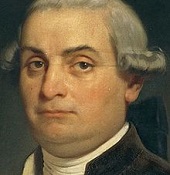
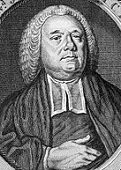




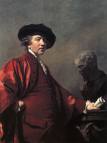



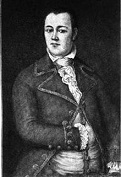


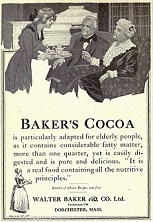



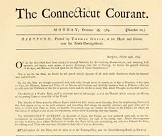


1764 On Feb. 4 as 250-odd Paxton Boys head towards Philly, London-born Penn. gov. (1763-76) John Penn (1729-95) (son of Richard Penn and grandson of William Penn the Man) calls a mass meeting at the State House, organizing military resistance; they reach Germantown, just N of the city on the midnight of Feb. 5, and back down after a delegation of seven city leaders, incl. Ben Franklin meets with them, getting them to agree to return home in return for a promise of more protection from Indian attacks; the gov. then sells Franklin out, giving them amnesty and even instituting a policy promising a bounty for Indian scalps; their split is complete. On Feb. 14 (Valentine's Day) the river town of St. Louis (modern-day pop. 311K/2.9M) on the W bank of the Mississippi River in modern-day Mo. on the border with modern-day Ill. 18 mi. downstream from the confluence of the Missouri River is founded by French fur traders Pierre Laclede (Laclède) (1729-78) and his stepson (common law wife's son) Rene (René) Auguste Chouteau Jr. (1749-1829), and named after French king Louis IX; in 1803 it becomes U.S. territory; it is incorporated in 1822, becoming the 4th largest U.S. city by 1870. In Feb. English essayist Dr. Samuel Johnson (1709-84) and English artist Joshua Reynolds (1723-92) found the (Literary) Club at Turk's coffeehouse in London with nine members, incl. Sir Joshua Reynolds (1723-92), David Garrick (1717-79), Oliver Goldsmith (1730-74), Edmund Burke (1729-97), Edward Gibbon (1737-94), Adam Smith (1723-90), and James Boswell (1740-95); Johnson meets multilingual Welsh writer Hester Lynch Salusbury(1741-1821), who married Southwark brewer Henry Thrale (1724-81) in 1763, and for the next 16 years they all spend weekends on the Thrale estate in Streatham Park; too bad, when Thrale dies she marries Italian musician Gabriel Mario Piozzi (1740-1809) in 1784 (whom Johnson doesn't like) and travels in Italy and vacations in Bath, keeping the Thraliana diary, which is not pub. until 1942, but is used for Thrale's Anecdotes of the Late Samuel Johnson (Mar. 26, 1786) - I don't care how much it may storm, I got my love to keep me warm? In Mar. Franklin pushes a series of 26 resolutions ("a necklace of resolves") calling for the end of propietary govt. in Penn., and for the king "to take the people of this province under his immediate protection and government" from the Proprietors, whom he calls "tyrannical and inhuman"; he fails to gain enough support, but in May becomes the assembly speaker. On Apr. 5 the widely-flouted 1733 Molasses Act about to expire, Lord Grenville gets Parliament to pass the Revenue Act of 1764 AKA the Sugar Act in order to tax the Am. colonies to help pay for a British standing army of 10K to guard against possible French attacks; it renews the duty on molasses, but halves it to three pence per gal. in hopes of putting smugglers out of business, and introduces new taxes on foreign textiles, wines, coffee, indigo and sugar; Grenville hopes to bring in £45K a year to be used "toward defraying the necessary expenses of defending, protecting, and securing, the said colonies and plantations", but only succeeds in angering Americans with its presumption that the Brits could tax Americans without their consent; to rub it in, on Apr. 19 Parliament passes the Currency Act, forbidding the issue of colonial scrip (paper money) by all Am. colonies, not just New England (as dictated in 1751); existing paper money in the colonies is suddenly devalued, adding to their economic shock - the outlawing of colonial scrip is the main cause of the Am. Rev.? The Wilkes Affair, or Don't Touch Off a Royal Touchhole? On Apr. 23 George III gives a speech at the opening of Parliament endorsing the Paris Peace Treaty, after which English radical journalist John Wilkes (1725-97), pub. Issue #45 of The North Briton, criticizing it (a reference to the 1745 Jacobite uprising); although it takes care to designate the speech as the work of a minister, the king goes nonlinear and gets him and 48 others arrested on Apr. 30, but the courts release him since he is a member of the House of Commons, the public getting turned on and chanting "Wilkes, Liberty and Number 45", causing the king to influence it to order him expelled by having a dirty poem he once wrote with Thomas Potter titled An Essay on Woman dragged out and read in the House of Lords by his enemy the earl of Sandwich, who had been the target of one of Wilkes' pranks at the Hellfire Club; meanwhile a former minister forces him into a duel and seriously wounds him, and he flees to France as the cabinet institutes criminal proceedings against him, and he is tried and found guilty in absentia of seditious and obscene libel next Jan. 19, causing the public to be roused on his side and against the increasingly mad king, rioting in London. On June 11 the Sandy Hook Lighthouse begins protecting New York harbor, becoming the oldest lighthouse in the U.S. to survive to modern times. On Sept. 7 after Catherine II the Great of Russia and Frederick II the Great of Prussia sign an agreement to bring pressure on the Polish Diet, they elect her lover as Stanislaus (Stanislaw) II August Poniatowski (1732-98), and he becomes Poland's last king on May 8, 1765 (until Nov. 22, 1795). On Oct. 1 Benjamin Franklin is ousted from the Penn. Assembly, but his faction keeps control and votes to send him back to England to present the petition against the hated Proprietors; he ends up staying another five years. On Oct. 15 after beginning a tour of the Continent in 1763, Oxford-educated (Magdalene College) Edward Gibbon (1737-94) visits Rome, and decides to write its history, taking over 20 years starting in 1772; "It was at Rome, on the 15th of October, 1764, as I sat musing amidst the ruins of the Capitol, while the barefooted friars were singing vespers in the Temple of Jupiter, that the idea of writing the decline and fall of the city first started to my mind." On Oct. 23 the British Bengal army under Maj. Sir Hector Munro (1726-1805) defeat Shuja-ud-Dowla, Nawab of Oudh (Awadah) (1732-77) and Mir Kasim (Qasim), Nawab of Bengal (-1777) at the Battle of Buxar, defeating a force 5x as big, and killing 6K, while only losing four soldiers and two officers, ending the final attempt to maintain an independent Bengal; big hero Munro is promoted to Lt. Col. - hey, dudh, that's a nice nawab? On Oct. 29 the weekly Hartford Courant (originally "The Connecticut Courant") is founded by Thomas Green; in 1776 at the start of the Am. Rev. it is the most popular newspaper in the U.S., although pamphlets get far more circulation, of which most are church sermons; it goes daily in 1837; in 1980 it is acquired by the Times Mirror chain, which is acquired by the Tribune Corp.; the newspaper goes on to adopt the slogan "Older than the nation", and "America's oldest continously published newspaper". Hyder Ali usurps the throne of Mysore. Joseph II, son of Francis I is elected king of the Romans. Deposed 24-y.-o. tsar (1740-1) Ivan VI (b. 1740) attempts to regain the throne, and is murdered in the Fortress of Schusselburg following standing orders given his guards by Tsarina Catherine II, who orders the confiscation of church lands in Russia. Gen. James Murray succeeds Jeffrey Amherst as gov. of Quebec and gov.-gen. of North Am. (until 1768). The British return control of the declining Philippines to Spain. The Jesuits are suppressed in France. New controller-gen. of finances (since Dec. 1763) Clement Charles Francois de Laverdy (1723-93) heads a commission that enacts the Lamberdy Reforms, reforming the civil govt. to reduce the power of royal intendants except in Languedoc. Mass. assembly leader James Otis Jr. (head of the Mass. branch of the Committees of Correspondence) pub. the pamphlet The Rights of the British Colonies Asserted and Proved, causing Lord Grenville to have a subordinate prepare an answer, claiming that everybody in the empire has "virtual representation", whether they get to return a member to Parliament or not, incl. large cities such as Manchester, Birmingham, and Sheffield in England itself, which have no right to elect a member - yah but we're Americans, and have that little ole 3K-mile pond between us? The royal colony of Georgia finally figures out that the exporting biz is the royal road to wealth, and begins rapid growth. London begins the practice of numbering houses. Plans for a settlement around Ft. Pitt in Penn. are adopted, causing settlers to begin moving in during the next decade, although it remains a small community until after the Am. Rev. War. After she turns down Edward Gibbon, Jacques Necker marries poor Swiss girl Susanne (Suzanne) Curchod, who becomes Madame Necker (1737-94), and goes on to give birth to Madame Germaine de Stael (1766-1817), encourage her hubby's govt. career, and found a top lit. salon in Paris, attended by Georges Louis Leclerc, Comte de Buffon (1707-88), Friedrich Melchoir, Baron von Grimm (1723-1807), Gabriel Bonnot de Mably (1709-85), Jean Francois Marmontel (1723-99), Jean Francois de La Harpe (1739-1803), Jacques Henri Bernardin de Saint-Pierre (1737-1814), Jean Le Rond d'Alembert (1717-83), and Denis Diderot (1713-84); "Fortune does not change men, it unmasks them" (Madame Necker); meanwhile Madame Jeanne Julie Eleonore de Lespinasse (1732-76) is kicked out by jealous Madame du Deffand, and founds her own lit. salon in Paris which becomes the home of Jean le Rond d'Alembert, Anne-Robert-Jacques Turgot, and his lit. clique. Mass. atty. John Adams (b. 1735) marries beautiful bodacious well-read Abigail Smith (1744-1818), a descendant of Edward I Longshanks; they have three sons and two daughters, all with one belly button each. Am. Roman Catholic Charles Carroll (1737-1832) returns from study in Paris and London and is presented with the large Carrollton Manor on the Severn River in Md. by his father, causing him to become known as Charles Carroll of Carrollton. After migrating to London in 1762, Johann (John) Christian Bach begins giving popular music recitals. London becomes the first city to number houses. The first living tea plant is brought to Europe in Uppsala, Sweden. Am. Baker's Chocolate Co. (originally Hannon's Best Chocolate) in Lower Mills, Dorchester, Mass. is founded by Am. physician James Baker and chocolatier John Hannon (-1779) to manufacture chocolate for making drinks, making consumers believe the chocolate is made for bakers too?; the business is carried on by James Baker's son Edmund Baker (1770-1846) and his son Col. Walter Baker (1792-1852), who institutes a money-back guarantee and trademarks the name Baker's; in 1849 they begin distribution in Calif.; in 1852 they introduce German's Sweet Chocolate, invented by employee Samuel German, which becomes a hit when the Dallas Morning Star pub. a recipe for German chocolate cake (originally German's Chocolate Cake) on June 3, 1957, adding more confusion to the names after co. owner Gen. Foods reprints the article under the misnomer; in 1883 they adopt the La Belle Chocolatiere logo, based on the painting Das Schokoladenmadchen (The Chocolate Girl) by Swiss artist Jean-Etienne Liotard (1702-89); in 1896 it is acquired by Forbes Syndicate, followed in 1927 by Postum Cereal Co. (Gen. Foods), followed in 1989 by Kraft Foods. A girl is born to the Clement family in Tourcoing, France with only one eye in the center of her forehead (cyclops); she lives to the age of 15 - I see? Sports: The Royal and Ancient Golf Club of St. Andrews, Scotland reduces the number of golf holes from 22 to 18. Architecture: The rebuilding of the 6th cent. Church of St. Genevieve in Paris, later (1793) known as the Pantheon begins on orders of Louis XV. The Tomb of Comte d'Harcourt in Notre Dame in Paris, designed by Jean Baptiste Pigalle is built. Robert Adams designs Kenwood House in Middlesex, England. Inventions: French typefounder Pierre Simon Fournier (1712-68) develops the point system for measuring type sizes. Poor weaver James Hargreaves (1720-78) of Blackburn, England invents the Spinning Jenny, a mechanical spinning wheel that can spin eight threads at once; too bad, the news leaks, causing Luddites to invade his home and destroy it, after which he moves to Nottingham and gets financial backers, and patents it in 1770, only to see patent violators steal him blind. Nonfiction: Robert Adam (1728-92) and Charles-Louis Clerisseau (1721-1820), Ruins of the Palace of the Emperor Diocletion at Spalatro; drawings by Clerisseau; shows Europe how to do Neoclassical right? Mark Akenside, Discourse on the Dysentery. Adam Anderson, The Origins of Commerce. Nicolas Baudeau (1730-92), Idées d'un citoyen sur l'administration des finances du Roi; criticizes Laverdy Reforms for drafting new laws on vagabonds and beggars, arguing that it's more important for the govt. to give alms to the poor than passing laws prohibiting poverty. Cesare Beccaria (1738-94), On Crimes and Punishments (Tratto dei delitti e delle pene); condemns torture and the death penalty, founding the field of Penology (Lat. "poena" + "logia" = punishment + study) along with the Classical School of Penology based on the Enlightenment, incl. Jeremy Bentham, with the slogan: "Man is a calculating animal", meaning that the punishment must fit the crime, incl. being swift, which influences the U.S. Founding Fathers. Charles Bonnet (1720-93), Contemplation de la Nature (1764-5). John Entick (1703-73), Spelling Dictionary (London) (20K copies). Johann Gottfried von Herder (1744-1803), On Diligence in Several Learned Languages; Treatise on the Ode. Thomas Reid (1710-96), An Inquiry Into the Human Mind on the Principles of Common Sense; claims that common sense (sensus communis) is the true foundation of all philosophical inquiry, and that the foundations upon which our sensus communis are built justify our belief that there is an external world, dissing Locke and Descartes; a big hit, getting him Adam Smith's job of prof. of moral philosophy at the commonsensical U. of Glasgow, where he becomes "Hume's earliest and fiercest critic", even though he admires him, founding the Scottish School of Common Sense (Sense Realism), which fuels the Scottish Enlightenment and influences Thomas Jefferson et al., being regarded as more important than Hume into the 1800s. Voltaire (1694-1778), Philosophical Dictionary (Dictionnaire Philosophique); "[The ideal religion]: Would it not be that which taught much morality and very little dogma that which tended to make men just without making them absurd? That which did not order one to believe in things that are impossible, contradictory, injurious to divinity, and pernicious to mankind, and which dared not menace with eternal punishment anyone possessing common sense? Would it not be that which did not uphold its belief with executioners, and did not inundate the earth with blood on account of unintelligble sophism?... which taught only the worship of one god, justice, tolerance and humanity?"; "What conclusion can we draw from all this? That atheism is a monstrous evil in those who govern; and also in lettered men even if their lives are innocent; because from their studies they can affect those who hold office, and that, even if it is not as hateful as fanaticism, it is nearly always fatal to virtue. Above all, let me add that there are fewer atheists today than there have ever been, since philosophers have perceived that there is no vegetative being wihtout germs, no germ with design, etc."; "He who has heard the same thing told by 12,000 eye-witnesses has only 12,000 probabilties, which are equal to one strong probability, which is far from certainty". Johann Joachim Winckelmann (1717-68), History of Ancient Art (Geschichte der Kunst des Alterthums); becomes one of the first books pub. in German to become a Euro-wide hit, founding the discipline of Greco-Roman art history, criticizing Giorgio Vasari for his "cult" of artistic personality, insisting that the real emphasis should be on the views of the learned beholder not the viewpoint of the artists, becoming "the first to distinguish between the periods of ancient art and to link the history of style with world history" (Jacob Burckhardt), distinguishing between Greek, Greco-Roman, and Roman art, and er, holding up Greek art (incl. its depiction of the dangly male form) as the touchstone (pardon my French?) of all art, making fans of Goethe, Heine, Lessing, Schiller, Nietzsche et al., dominating the field of art history until the mid-20th cent. ("the tyranny of Greece over Germany"). Music: Franz Josef Haydn (1732-1809), Symphony No. 22 in E-flat ("The Philosopher"). Wolfgang Amadeus Mozart (1756-91), Symphony No. 1. Jean-Philippe Rameau (1683-1764), Les Paladins (comic opera) (Paris) (Feb. 12). Art: Francois Boucher (1703-70), Allegory of Music. William Hogarth (1697-1764), The Bathos (last engraving). Jean Antoine Houdon, St. Bruno (sculpture). Johann Zoffany (1733-1810), Queen Charlotte and Her Two Eldest Children; in her dresssing room. Plays: Carlo Goldoni (1707-93), Gli Amori di Zelinda e Lindoro (The Love of Zelinda and Lindoro) (comedy). Jean-Francois de La Harpe (1739-1803), Timoleon; a flop. Poetry: Oliver Goldsmith (1730-74), The Traveller. Novels: Horace Walpole (1717-97), The Castle of Otranto (Gothic novel); founds the field of Gothic (supernatural) romance, set in a ruined haunted Gothic castle or abbey filled with secret passages and stairways. Births: British brig.-gen. Sir Charles McCarthy (d. 1824) on Feb. 15 in Cork, Ireland; French immigrant parents named Guerault and MacCarthy; knighted in 1820. Russian chemist Gottlieb Sigismund Constantin Kirchhoff (d. 1833) on Feb. 19 in Teterow, Mecklenburg-Schwerin, Germany. Chinese scholar Ruan (Juan) Yuan (d. 1849) on Feb. 21 in Yanzhou, Jiangsu. U.S. consul to Tunis (1797-1803) Gen. William Eaton (d. 1811) on Feb. 23 in Woodstock, Conn. Russian diplomat Count Carlo Andrea Pozzo di Borgo (d. 1842) on Mar. 8 in Alata (near Ajaccio), Corsica; created count in 1818; big Napoleon hater. Am. surveyor (founder of Youngstown, Ohio) John Young (d. 1825) on Mar. 8 in Peterborough, N.H.; father of Cmdr. John Young Jr (1794-1875), Col. William Clark Young (1799-1893), and George Young (1796-1828). English Whig PM (1830-4) Charles, 2nd Earl Grey (d. 1845) (AKA Viscount Howick from 1806-7) on Mar. 13 in Fallodon, Northumberland; namesake of Earl Grey Tea; faher of the 3rd earl Grey (1802-94). Am. Dem.-Repub. diplomat-legislator and U.S. atty. gen. #7 (1811-4) William Pinkney (d. 1822) on Mar. 17 in Annapolis, Md. British Navy Lt. (abolitionist) (evangelical Christian) John Clarkson (d. 1828) on Apr. 4 in Wisbech; brother of Thomas Clarkson (1760-1846). French marshal Laurent de Gouvion-Saint-Cyr, 1st Marquis de Gouvion-Saint-Cyr (d. 1830) on Apr. 13 in Toul; created marquis in 1827. French printer-dramatist Firmin Didot (d. 1836) on Apr. 14 in Paris; son of Francois Ambroise Didot (1730-1804); brother of Pierre Didot (1761-1853); inventor of the word "stereotype" and stereotyping. German publisher Johann Friedrich Cotta (d. 1832) on Apr. 27 in Stuttgart; descendant of Johann Georg Cotta (1631-92). French "Charles IX" dramatist-poet Marie-Joseph Blaise de Chenier (Chénier) (d. 1811) on Apr. 28 in Istanbul, Turkey; grows up in Carcassone; brother of Andre Chenier (1762-94). Am. U.S. Capitol architect #2 (1815-7) ("the Father of American Architecture") Benjamin Henry Boneval Latrobe (d. 1820) on May 1 near Leeds, West Riding of Yorkshire, England; father of Benjamin Henry Latrobe II (1806-78); emigrates to the U.S. in 1796. German statesman-writer Friedrich von Gentz (d. 1832) on May 2 in Breslau. English Baptist minister Rev. Robert Hall (Jr.) (d. 1831) on May 2 in Arnesby (near Leicester); Baptist minister father; educated at King's College, U. of Aberdeen. British rear adm. William Brown (d. 1814) on May 8 in Leesthorpe Hall, Melton Mowbray, Leicestershire. German sculptor Johann Gottfried Schadow (d. 1850) on May 20 in Berlin; poor tailor father; father of Friedrich Wilhelm Schadow (1789-1862); student of Jean-Pierre-Antoine Tassaert (1727-88); Am. Dem.-Repub. politician-statesman-diplomat Edward Livingston (d. 1836) on May 26 in Clermont, N.Y.; brother of Robert R. Livingston (1746-1813); educated at Princeton U.; U.S. rep. 1795-1801; mayor of New York City (1801-3); serves with Andy Jackson during the Battle of New Orleans; U.S. rep. 1823-9; U.S. sen. 1829-31; U.S. secy. of state 1831-3; minister to France 1833-5. Uruguayan rev. leader ("the Father of Uruguayan independence") Jose (José) Gervasio Artigas Arnal (d. 1850) on June 19 in Montevideo. English boxing champ (1792-5) (Jewish) ("Father of Scientific Boxing") Daniel "Dan" Mendoza (d. 1836) on July 5; first Jewish boxing champ, and first Jew to speak with George III - sit down and shut up? English adm. Sir William Sidney Smith (d. 1840) on July 21 in Westminster. French gen. Louis Baraguey d'Hilliers (d. 1813) on Aug. 13 in Paris; father of Achille Baraguey d'Hilliers (1795-1878). French neoclassical Empire Style architect Charles Percier (d. 1838) on Aug. 22 in Paris; collaborator of Pierre Francois Leonard Fontaine (1762-1853). Am. tobacco-real estate tycoon Pierre Lorillard II (Peter Lorillard Jr.) (d. 1843) on Sept. 7 in New York city. English amateur astronomer (deaf) John Goodricke (d. 1786) on Sept. 17 in Groningen. English Mutiny on the Bounty leader Fletcher Christian (d. 1793) on Sept. 25 in Eaglesfield, Cumberland; husband (1789-) of Maimiti; father of Thursday October Christian (1790-), Charles Christian (1792-), and Mary Ann Christian (1793-1831). Am. statesman-gen. Stephen Van Rensselaer III (d. 1839) on Nov. 1 in New York City; eldest child of Stephen Van Rensselaer II, great-grandson of New York City mayor Stephanus van Cortlandt (1643-1700). Am. Dem.-Repub. Ohio gov. #4 (1810-4) and U.S. postmaster gen. #5 (1814-23) Return Jonathan Meigs Jr. (d. 1825) on Nov. 7 in Middletown, Conn.; educated at Yale U. Spanish-Mexican chemist Andres Manuel del Rio Fernandez (Andrés Manuel del Río Fernández) (d. 1849) on Nov. 10 in Madrid; educated at the U. of Alcala de Henares. German jurist-historian (founder of the German historical school of jurisprudence) Gustav von Hugo (d. 1844) on Nov. 23 in Lorrach, Baden; educated at the U. of Gottingen, and U. of Halle. English "Tales from Shakespeare" writer "Mad" Mary Ann Lamb (d. 1847) on Dec. 3; sister of Charles Lamb (1775-1834); kills her mother with a kitchen knife in 1796. French marshal (1807-) Claude Victor-Perrin, 1st Duke of Belluno (d. 1841) on Dec. 7 in La Marche (Lamarche). Scottish Lord Lt. of Ireland (1807-13) and gov.-gen. of British North Am. (1818-19) Charles Lennox, 4th Duke of Richmond, 4th Duke of Lennox, 4th Duke of Aubigny (d. 1819) on Dec. 9 in Gordon Castle. Am. Federalist politician-atty.-journalist-biographer Theodore Dwight Sr. (d. 1846) on Dec. 15 in Northampton, Mass.; brother of Timothy Dwight IV (1752-1817); cousin of Aaron Burr. Scottish fur trader-explorer Sir Alexander Mackenzie (d. 1820) in Stornoway, Isle of Lewis, Outer Hebrides; his mother dies, and his father takes him to America; knighted in 1802. English Gothic novelist Ann Radcliffe (Ward) (d. 1823) in London; wife of "English Chronicle" ed. William Radcliffe. Am. botanist Zaccheus Collins (d. 1831). Scottish engineer-inventor William Symington (d. 1831) in Leadhills, Lanarkshire. Anglo-German lithographer Rudolph Ackermann (d. 1834) in Schneeberg, Saxony; starts out a saddler like his father; moves to London in 1795. British Adm. Sir Graham Moore (d. 1843) in Glasgow, Scotland; son of Dr. John Moore (1729-1802); brother of John Moore (1761-1809); knighted in 1815. Dutch poet-philosopher-philologist-critic Johannes Kinker (d. 1845). Deaths: Spanish Benedictine scholar Benito Jeronimo Feijoo y Montenegro (b. 1676) on Aug. 26 in Oviedo, Asturias. French opera composer Jean-Philippe Rameau (b. 1683) on Sept. 12 in Paris (fever); buried in St. Eustache Church; lives like a miser with one pair of clothes and one worn-out harpsichord, along with a bag containing 1,691 gold louis; leaves the unfinished opera Les Boreades (Boréades) (The Descendants of Boreas); libretto by Louis de Cahusac (1706-59): "I try to conceal art with art." Jewish rabbi and Qabbalist Yonason Eybeshitz (b. 1690). German mathematician Christian Goldbach (b. 1690) on Nov. 20 in Moscow. Italian composer Pietro Antonio Locatelli (b. 1695). English satirical artist William Hogarth (b. 1697) in London; his monument features an epitaph written by friend David Garrick - oh if he had lived into the 1780s? Norwegian bishop Erik Pontopiddan (b. 1698) on Dec. 20 in Copenhagen. French gov. of Guadeloupe (1763-4) Gen. Francois-Charles de Bourlamaque (b. 1716) in Guadeloupe. French celeb. Madame de Pompadour (b. 1721) on Apr. 15. Chinese novelist Cao Xueqin (b. 1724) (d. 1763?) in Beijing. English poet Charles Churchill (b. 1731) on Nov. 4 in Boulogne, France. Russian tsar (1740-1) Ivan VI (b. 1740) (murdered).






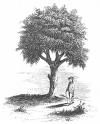

















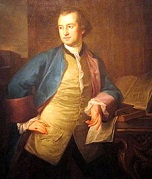




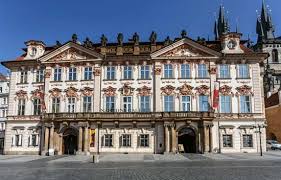
1765 On Feb. 13 after Lord Grenville, needing more money to maintain the 10K troops stationed in the American colonies, and wanting a tax affecting all the colonies, not just New England, devises a new stamp tax, and presents it to colonial agents in London, who unanimously protest it, but fail to offer an alternative or agree on the proportions to be raised by each colony, while Benjamin Franklin representing four colonies, failing to sense the danger, makes a big boo boo and proposes one of his friends as a stamp agent, Grenville lays his proposal before Parliament, where only three speeches are given in opposition, including the big one by Dublin-born barrel-of-fun Col. Isaac Barre (Barré) (1726-1802) (son of a French refugee), who says that past British agents sent out to them "caused the blood of these Sons of Liberty to recoil within them"; on Mar. 22 Britain passes the Stamp Act of 1765 to tax American colonists, to go into effect on Nov. 1; it requires that govt. stamps be paid for in silver and used on almost all legal documents, many commercial papers such as ship clearance papers, newspapers and pamphlets, almanacs, deeds, diplomas, even dice and playing cards; this is the first direct British tax on the colonies, and public outrage causes royal officials to be attacked by mobs, agreements to be struck among merchants to boycott British goods, and the convening of the Stamp Act Congress; radical sentiment is crystalized, and new leaders arise, including young merchant John Hancock(y), Samuel Adams, and his lawyer cousin John; in London, Ben Franklin's waffling over the Stamp Act arouses public suspicion that he had a hand in framing it, and his ass becomes grass and they want to mow it. On Mar. 24 Parliament passes the Quartering Act, requiring the Am. colonies to supply British troops with provisions and to barrack them or allow their use of inns and vacant bldgs.; New York City, the HQ of the British forces is hardest hit with this new tax as they see it as supporting a standing occupation army to oppress them. On May 7 the HMS Victory, Lord Nelson's future flagship (begun 1759) is launched. Wake up people, stop it? On May 13 after "real Whig" Patrick Henry wins a seat on the Va. House of Burgesses, and gives a series of "torrents of sublime eloquence", they pass the Virginia Resolves, claiming that as Englishmen, Virginians can only be taxed by their own reps. and governed by laws passed with their own consent; on May 29 Henry turns it up by giving a speech to the Va. Provincial Convention calling for revolution: "Caesar had his Brutus, Charles the First his Cromwell, and George the Third..."; interrupted by cries of "Treason!", he replies, "If this be treason, make the most of it", and then utters the immortal soundbye, "But as for me, give me liberty, or give me death!" On June 8 the Mass. House of Reps. issues a circular letter inviting all colonial assemblies to send delegates to a New York conference to appeal against the Stamp Act; Mayflower descendant James Warren (1726-1808) of Plymouth becomes a Mass. rep., rising to speaker and pres., then ending up as George Washington's paymaster; his wife Mercy Otis Warren is a brain babe who later becomes a propagandist for the rebel side. Treaty of Paris hero Henry Fox, 1st Baron Holland is forced to resign as paymaster gen., and in 1769 charges of misuse of public funds are brought against him, but the proceedings are stayed by the intervention of George III; meanwhile this year George III has his first brief attack of insanity, and his illness causes a regency bill to be passed by Parliament, arousing his wrath and causing him on July 13 to replace George Grenville with "Old Whig" (pro-colonist) Charles Watson-Wentworth, 2nd Marquis of Rockingham (1730-82) as PM (until July 30, 1766); Pitt refuses to give the new cabinet his support; Rockingham resolves to repeal the Stamp Act, but needs time; Edmund Burke (1729-97), who returned to London in 1764 becomes Rockingham's private secy. (until 1766) - Rocky, watch me pull a rabbit out of my hat? On July 18 Philip of Spain, duke of Parma (b. 1720) dies, and his son Ferdinand I de Bourbon (1751-1802) becomes duke of Parma and Pacienza (until Oct. 9, 1802), going on to refound U. of Parma as a state univ. and endow it with loot confiscated from the Jesuits. In July Leopold Mozart brings his two wunderkids to London, and makes the boo-boo of cheapening them by having them perform in the Cornhill Tavern, ruining their value as exclusive toys of the aristocracy with Empress Maria Theresa, who utters the soundbyte "These people go about the world like beggars", and turning Wolfgang Amadeus Mozart into a lifelong outcast who can never get a good aristocratic appointment, forcing him to keep coming back to the petty bourgeois for biz. Would you have a stamp on ya? On Aug. 14 the Liberty Tree in Boston, Mass. (a great elm in Hanover Square) (1646-1775) is dedicated; the militant Sons of Liberty, founded by Alexander McDougall (1731-86), John Lamb (1735-1800), Marinus Willett (1740-1830) et al. to flout the Stamp Act meet underneath it; the Charleston Liberty Tree in S.C. is a live oak. On Aug. 18 HRE Francis I dies at the Innsbruck wedding of his son Joseph II (1741-90) (one of 16 children of Empress Maria Theresa), who becomes HRE (until Feb. 20, 1790), the first of the House of Hapsburg-Lorraine; he is controlled by his mother, who acts as co-regent, uttering the soundbyte "I'd personally lead my troops into battle if I wasn't always pregnant". In mid.-Aug. an effigy of Boston's stamp agent is swung from the Liberty Tree, and in the evening a mob carries it through the streets, burns it in front of the stamp office, and destroys it too; another mob sacks the home of lt. gov. (since 1758) Thomas Hutchinson (1711-80) and a local customs officer, causing the latter to resign; stamp agents throughout the colonies are hounded out office. In late Sept. a mob gathers at a Philly coffeehouse, accusing Ben Franklin of supporting the hated Stamp Act, then tries to level his new house, which is saved by the White Oak Boys. On Oct. 7-25 the Stamp Act Congress, consisting of 27 delegates from nine colonies meets in New York, and on Oct. 18 draws up a Declaration of Rights and Grievances of the Colonies, a petition to the mad king for relief, along with a petition to Parliament for repeal of the Stamp Act, acknowledging that the colonies owe "due subordination" to Parliament, and recognize their right to regulate colonial trade, but first officially bringing up the question of the constitutional power of Parliament to levy taxes, which they claim are a free gift granted by the people through their representatives; they leave England no choice but either handle the truth and withdraw the Stamp Act or use force on them and roll the dice - the ball is in their court? On Oct. 31 the Pennsylvania Journal appears sporting a skull and crossbones on its masthead where the stamp is supposed to go to protest the Stamp Act, which is to take effect on Nov. 1; by now the act is a dead letter, and the American boycott of British goods puts on the screws; in the place of British tea the colonists drink sage and sassafras, and wear homespun garments as a symbol of defiance - the first hippies? On Nov. 1 a crowd protesting the Stamp Act approaches the coach of N.Y. gov. Cadwallader Colden, seizes it and adds it to their parade, smashing it and using it in their Bowling Green bonfire. In Nov. the Privy Council officially defers action on Franklin's anti-Penn petition, effectively killing it. Dauphin Louis dies, and his son Louis Augustus (future Louis XVI) becomes heir to the French throne - the next head of the nation? On Dec. 20 Jesuit-dominated French dauphin Louis Ferdinand (b. 1729) dies of consumption, and his son Louis-Auguste, Duc de Berry (b. 1754) becomes the new dauphin (later Louis XVI). The British Parliament buys the Manx-speaking Isle of Man, whose capital Douglas is sited at the confluence of the Dhoo and Glass Rivers - watch those tails, men? Kekaulike Kalani-nui-Kui-Hono-i-Kamoku dies, and his son Kahekili (Kane-Hekili) (Kahekilinui'ahumanu) II (1737-94) succeeds his brother Kamehameha-nui'Ailu'au as king (Mo'i) #2 of Maui, Lanai, and Molokai, going on to conquer Oahu king Kahahana and kill most of the other Oahu chiefs to end the Waipi'o-Kimopo Insurrection, building a house of bones with their skeletons, and wield influence on Kauai (Kaua'i) through his brother Kaeokulano, consort of Queen Kamakahelei; he is the real father of Kamehameha I? Kremenchug on the Dnieper River 160 mi. SE of Kiev becomes the capital of New Russia (until 1789). Robert Clive enacts his first admin. reforms in Bengal. The British East India Co. takes control of India and establishes a trade monopoly, taxing the pop. then using the revnues to purchase goods, allowing it to steal $45T by 1938? Philippines gov. Francisco Leandro de Viana (1730-1804) (a Basque) attempts reforms to increase agriculture, trade, and Spanish immigration. After the French depart, British trader (first with a license to collect Wisc. pelts) Alexander Henry visits the Ojibwe, and collects pelts in Lake Superior Wisconsin (Ouisconsin) (Mescousing) ("grassy place" in Chippewa) (until 1766). Rumford, N.H. (founded 1659) is renamed Concord, N.H. by gov. Benning Wentworth named in honor of the peaceful resolution of a boundary dispute with the town of Bow. The Portuguese found the town of Bissau at the mouth of the Geba River in W Africa as a fort. A pirate is hanged on Gibbet Island, known as Oyster Island by the Dutch, and later called Ellis Island after New York City merchant Samuel Ellis buys it later this cent. The Bank of Prussia is founded by Frederick II the Great. A free school for girls is founded in Blackburn, England. George III names John Bartram the royal botanist in America. The Physiocrat journal Ephemerides du Citoyen is founded in France by Roman Catholic theologian-economist Nicolas Baudeau (1730-92) (until 1772, then 1774-6); it starts out opposing the Physiocrats before flopping next year. Journal de l'Agriculture, du Commerce et des Finances is founded in France to promote the ideas of the Physiocrats (until 1774). Rococo painter Francois Boucher (1703-70), who designed pastrol scenes for the Beauvais tapestry factory in 1734-55 and the Paris Gobelin factory in 1755-65 becomes court painter at Versailles, and dir. of the Royal Academy. Chocolate is introduced to British Am. from the West Indies by Irish-born John Hanan in Dorchester, Mass. - too little too late for its calming effect to work on pesky rebel brains? The British Army builds a brewery at Ft. Pitt, becoming the first brewery W of the Alleghenies; meanwhle a brewery is built in the French colonial settlement of Kaskaskia, Ill., becoming the first brewery outside the 13 colonies. Gyorgy Bessenyei (1747-1811) is chosen along with other young nobles to man Empress Maria Theresa's Hungarian bodyguard in Vienna, and goes on to form a lit. circle based on French classicism which creates a Hungarian Renaissance. The French "Encyclopedie" finally beats the censorship and gets pub., with supplements added until 1780. Philly physician John Morgan (1735-89) founds the Medical College at the U. of Penn., becoming the first medical school in the U.S. Boulanger begins selling "restaurants", reinvigorating plain broths at the corner of Rue Bailleul and Rue des Poulies in Paris, becoming the original soup Nazi, becoming the first to print a menu offering a selection of foods and liquors instead of "Ordinaries", regular meals at a common table at a fixed time and price; within a few years restaurants expand to gen. health foods then ordinary food. The hype that scientists are lunatics is started by themselves? The Lunar Society (Circle), a dinner club for intellectuals begins meeting in Birmingham, England (until 1813), always during a full moon to make the journey safer; the members call themselves lunaticks, and incl. English engineer Matthew Boulton (1728-1809) (who befriends James Watt in 1767, and becomes his main financial backer), English scientist Erasmus Darwin (1731-1802) (grandfather of Charles Darwin), Scottish scientist James Keir (1735-1820), Joseph Priestley (1733-1804), Thomas Day (1748-89), and Josiah Wedgwood (1730-95); Benjamin Franklin visits them several times, and Antoine Lavoisier corresponds with them. Johann Wolfgang von Goethe (b. 1749) begins studying law at Leipzig (until 1768), where he has his first love affair with Anna Katharina Schonkopf, daughter of the tavern owner, writing a play about her. Dr. Samuel Johnson moves in with wealthy brewer Henry Thrale and his wife Hester in London, and they began going on trips to Bath, Brighton ("London by the sea"), N Wales, and France. The Yellow Bartlett Pear is discovered in England by schoolmaster Mr. Stair, and later called Williams' Bon Chretien, then exported to the Roxbury, Mass. in 1799 by Thomas Brewer, whose estate is purchased by Enoch Bartlett, and he wins the name game. Architecture: The Rococo Kinsky (Golz-Kinsky) Palace in Prague, Czech. (begun 1755) by Bohemian Baroque architect Kilian Ignaz Dientzenhofer (1689-1751) is finished. Inventions: In May Scottish inventor James Watt (1736-1819) invents the dual condenser steam engine (one hot and one cold) (patented in 1769), which cuts fuel consumption in the Newcomen steam engine by two-thirds, giving steam engines up to 7% efficiency, thus making them practical; he coins the marketing term "horsepower", and the Industrial Rev. in England (ends 1840) is cooking with steam. Norman chef Jean-Joseph Close (1757-1828) begins producing the first Pate de Fois Gras in Strasbourg, and in 1782 begins serving it with truffles for Alsace gov. Marechal de Contades - lucky him? Lazzaro Spallanzani (1729-99) of Italy discovers hermetic sealing as a means of preserving food - I no wanna lazzaro spoil la lasagni? Nonfiction: Sir William Blackstone (1723-80), Commentaries on the Laws of England (Nov.) (4 vols.) (1765-9) (Clarendon Press); incl. vol. 1 (rights of persons), vol. 2 (rights of things), vol. 3 (private wrongs), and vol. 4 (public wrongs); becomes the std. textbook for English and U.S. legal ed. for the next cent., later used by the Am. Founding Fathers and quoted from in opinions of the U.S. Supreme Court. Denis Diderot (1713-84), Jacques the Fatalist and His Master (1765-80); pub. posth. in 1796; "Everything that happens to us down here, whether for good or for evil, has been written up above" on a "great scroll" that is unrolled little by little. Daniel Dulany, Considerations on the Propriety of Imposing Taxes in the British Colonies for the Purpose of Raising a Revenue by Act of Parliament; a reply to Lord Grenville by a Md. atty., claiming that England is too far away from America for any of its MPs to have common interests or for colonists to influence them. Stephen Hopkins (1707-85), The Rights of the Colonies Examined; written by the gov. of Rhode Island (1755-68); attacks the Stamp Act, becoming a hit and getting reprinted in London; History of the Planting and Growth of Providence; written for the Providence Gazette, which he founded. Johann Gottfried von Herder (1744-1803), How Philosophy Can Become More Universal and Useful for the Benefit of the People. Dr. Samuel Johnson (1709-84) and George Stevens (1736-1800), The Plays of William Shakespeare (8 vols.) (Oct. 10); contains Johnson's famous Preface. William Kenrick (1725-79), A Review of Dr. Johnson's New Edition of Shakespare; In Which the Ignorance, or Inattention, of that Editor is Exposed, and the Poet Defended from the Persecution of his Commentators. Gottfried Wilhelm Leibniz (1646-1716), New Essays on Human Understanding (posth.); a refutation of John Locke's 1690 work, written in 1695-1705, but withheld from pub. because of Locke's 1704 death. Gabriel Bonnot de Mably (1709-85), Histoire de France; 2nd ed. pub. posth. in May 1789, becoming a big hit, advocating communism and republicanism, causing the govt. to unsuccessfully try to suppress it weeks before the start of the French Rev. Christoph Friedrich Nicolai (1733-1811), Allgemeine Deutsche Bibliothek (Berlin); popular philosophy. Tobias George Smollett (1721-71) and David Hume (1711-76), A Compleat History of England (3 vols.) - what every English novelist would like to write when sales are slack? Jonathan Swift (1667-1745), Thoughts on Religion (posth.); "It is impossible that any thing so natural, so necessary, and so universal as death, should ever have been designed by Providence as an evil to mankind." Music: Wilhelm Friedemann Bach (1710-84), Twelve Polonaises; finished after walking off his 1762 job of Kapellmeister in Darmstadt last year, after which he wanders around in Braunschweig and Berlin and ends up dying broke. Art: Francois Boucher (1703-70), The Dispatch of the Messenger; Virgin and Child with Young John the Baptist; Allegory of Painting; Halt at the Spring. Ignacio Chacon, Madonna and Child with Bird; used on a U.S. 39-cent Christmas stamp in 2006. John Singleton Copley (1738-1815), Henry Pelham (Boy with a Squirrel). Jean-Honore Fragonard (1732-1806), Coresus et Callirhoe (Corésus et Callirhoé). Jean-Baptiste Greuze (1725-1805), La Bonne Mere (Mére). Francesco Guardi (1712-93), The Lagoon Looking Towards Murano from the Fondamental Nuova (1765-70). Soga Shohaku (1730-81), Mt. Fuki and Miho no Matsubara (folding screen); first rep of a rainbow in Japanese art. Richard Wilson (1714-82), Lake Avernus I. Plays: Samuel Arnold (1740-1802) and Isaac Bickerstaffe (1733-1812), The Maide of the Mill (London); a hit. Johann Wolfgang von Goethe (1749-1832), Die Laune des Verliebten (1-act verse comedy). Carlo Goldoni (1707-93), Il Ventaglio (The Fan) (comedy). Jean-Francois de La Harpe (1739-1803), Pharamond; a flop. Michel-Jean Sedaine (1719-97), Philosophie sans le Savoir (Theatre Francais); becomes a classic, along with his next one in 1768. Frances Sheridan (1724-66), The Dupe. Christoph Martin Wieland (1733-1813), Don Sylvia von Rosalva; imitation of Don Quixote. Poetry: Thomas Chatterton (1752-70), Rowley. George Colman the Elder, The Comedies of Terence, Translated into Familiar Blank Verse. James Macpherson (1736-96), The Works of Ossian. William J. Mickle, The Concubine. Bishop Thomas Percy (1729-1811) and William Shenstone (1714-63), Reliques of Ancient English Poetry (3 vols.) (London); first great English ballad collection; fuel for the Romantics; incl. "The Ballad of Chevy Chase", "Robin Hood and Guy of Gisborne". Novels: Oliver Goldsmith (1728-74), The History of Little Goody Two-Shoes (Apr.); printed by John Newbery; the first children's pop-up book; big bestseller; a poor child with only one shoe gets a new pair and exclaims you know what? Marie-Jeanne Riccoboni (1713-92), The Story of Ernestine (L'Histoire d'Ernestine) ; her masterpiece? Births: U.S. Supreme Court justice #16 (1807-26) Thomas Todd (d. 1826) on Jan. 23 in King and Queen County, Va.; educated at Washington and Lee U. Am. "Father of Huntsville" settler LeRoy Pope (d. 1844) on Jan. 30 in Northumberland County, Va.; distant relation of Alexander Pope. Russian mathematician Timofei Fedorovic Osipovsky (d. 1832) on Feb. 2. Italian Neoclassical painter Francesco Alberi (d. 1836) on Mar. 3 in Rimini; student of Domenico Corvi (1721-1803). French physicist and photography pioneer Nicephore (Nicéphore) (Joseph) Niepce (d. 1833) on Mar. 7 in Chalon-sur-Saone, Saone-et-Loire. Dutch gen. David Hendrik, Baron Chasse (Chassé) (d. 1849) on Mar. 18 in Tiel. French mathematician Sylvestre Francois Lacroix (d. 1843) on Apr. 28 in Paris. English Sanskrit scholar-mathematician ("first great Sanskrit scholar in Europe") Henry Thomas Colebrooke (d. 1837) on June 15 in London. French Gen. Pierre-Antoine, Dupont l'Etang (l'Étang) (d. 1840) on July 4 in Chabanais, Charente. French marshal Count Jean-Baptiste Drouet d'Erlon (d. 1844) on July 29 in Reims. English "Sailor king" (1830-37) William IV (d. 1837) on Aug. 21 in Buckingham Palace, London; 3rd son of George III (1738-1820) and Charlotte (1744-1818); younger brother of George IV (1762-1830); becomes a midshipman in 1779 under Adm. Digby. Italian mathematician-philospher Paolo Ruffini (d. 1822) on Sept. 22 in Valentano. Am. super-rich Federalist leader (Unitarian) Harrison Gray Otis (d. 1848) on Oct. 8 in Boston, Mass.; educated at Boston Latin School, and Harvard U. German "Romeo et Juliette" composer-pianist Daniel Gottlieb Steibelt (d. 1823) on Oct. 22 in Berlin. French mathematician-engineer Pierre-Simon Girard (d. 1836) on Nov. 4 in Caen. Am. steamboat inventor Robert Fulton (OE "settlement of the fowl", "people's estate") (d. 1815) on Nov. 14 in Little Britain, Lancaster County, Penn.; studies painting in England with Benjamin West from 1787-93, then turns to inventing. French Napoleonic marshal Etienne Jacques Joseph Alexandre MacDonald, 1st Duc de Taranto (d. 1840) on Nov. 17 in Sedan; Scottish Jacobite immigrant father; relative of Flora MacDonald. English composer-organist Thomas Attwood (d. 1838) on Nov. 23 in London; not to be confused with politician Thomas Attwood (1783-1856). Am. surveyor Israel Ludlow (d. 1804) near Morristown, N.J. Russian gen. Prince Pyotr Ivanovich Bagration (d. 1812) (pr. ba-gra-tee-oh-nee) in Kizlyar (Dagestan), Northern Caucasus; of Georgian descent; brother of Roman Bagration (1778-1834). British explorer rear adm. Peter Puget (d. 1822). English classical scholar-lexicographer John Lempriere (d. 1824) in Jersey; educated at Pembroke College, Oxford U. English steam locomotive inventor Matthew Murray (d. 1826) in Newcastle-upon-Tyne. English chemist James Smithson (d. 1829); founder of the Smithsonian Inst. in Washington, D.C. German "Fundamental Biogenetic Law" naturalist K.F. Kielmeyer (d. 1844). English "Lectures on Modern History" poet-historian William Smyth (d. 1849) in Liverpool; son of Thomas Smyth (1737-1824); educated at Eton College, and Peterhouse, Cambridge U. French publisher Henri Didot (d. 1852); son of Pierre Francois Didot (1732-93); known for minute eds. of std. works in microscopic type. Deaths: English poet Edward Young (b. 1683) on Apr. 5 in Welwyn: "Too low they build who build below the skies." Irish writer Samuel Madden (b. 1686) on Dec. 31. British antiquarian William Stukeley (b. 1687) on Mar. 3. English politician Lionel Cranfield Sackville, 1st duke of Dorset (b. 1688) on Oct. 10. English poet David Mallet (b. 1705). Russian chemist and universal thinker Mikhail Lomonosov (b. 1711) on Apr. 15; discovers that mercury freezes at -40 deg C. English composer John Hebden (b. 1712). German poet Christian Reuter (b. 1712). French mathematician-astronomer Alexis Claude Clairaut (b. 1713) on May 17 in Paris. Spanish duke of Parma (1748-65) Philip of Spain (b. 1720) on July 18 in Alessandria, italy. English military leader Prince William, duke of Cumberland (b. 1721) on Oct. 31 in London (heart attack). French dauphin Louis Ferdinand (b. 1729) on Dec. 20 in Fontainebleau; his tomb in the Cathedral of Sens is designed by Guillaume Coustou the Younger.



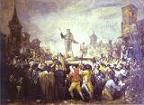










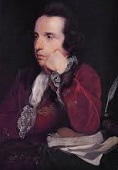


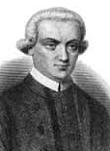


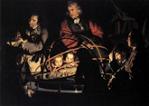
1766 On Jan. 1 James Francis Edward Stuart (Stewart) (b. 1688), the Old Pretender dies, and his eldest son (the Young Pretender) Charles Edward Stuart (1720-88) AKA Bonnie Prince Charlie settles in Rome as the self-styled Count of Albany; in Jan. Pope Clement XIII recognizes the Protestant Hanoverian Dynasty as the lawful rulers of England, Scotland, and Ireland, permanently dashing the hopes of the Roman Catholic Jacobites. On Jan. 14 Danish-Norwegian king (since 1746) Frederick V (b. 1723) dies, and mad Christian VII (1749-1808) becomes king of Denmark and Norway (until Mar. 13, 1808). In Jan. Parliament convenes, and William Pitt demands that the Stamp Act be repealed "absolutely, totally, and immediately", while at the same time demanding that Parliament assert its authority over the colonies "in as strong terms as possible"; Rockhingham tries a mind game with Parliament, claiming that the colonies accept the principle of "external" taxes, but only reject the "internal" kind; Ben Franklin goes along, begins pamphleting against it in the same terms, and gives a brilliant rehearsed speech on Feb. 13 before Parliament, answering 174 questions directed at him, and forever cementing his rep as America's foremost spokesman as he does their talking for them; after English merchants put in their complaints about losses resulting from the American non-importation agreements, the Stamp Act is repealed as unenforceable on Mar. 18, but to save face Parliament passes the Declaratory Act of Mar. 18, 1766, asserting its constitutional right to tax the colonists when it pleases, but not wording it that way, instead asserting its power to make laws binding on them "in all cases whatsoever"; to foment further trouble, Rockingham reduces the molasses tax from three to one pence per gallon; Franklin's stock rises, and he is soon named the agent for Ga., N.J., Mass., and Penn. Antonio de Ulloa (1716-95) arrives in New Orleans to become the first Spanish gov. of West La.; too bad, the French colonists refuse to be ruled by Spics, and he is expelled in 1768 by a Creole uprising. In Mar. after he gets away with forcing the pop. of Madrid to quit throwing their slops out of their windows by saying that they are like children who cry when their faces are washed, Charles III goes too far and tries to force them to adopt French dress, causing the Esquilache Riots, during which he hides in Aranjuez and lets his ministers handle it, after which he blames the Jesuits and vows to 'get' them. On Apr. 10 Etienne de Choiseul absorbs his cousin Cesar Gabriel de Choiseul's job as foreign minister, and the latter becomes navy secy. (until Dec. 24, 1770); too bad, when their protector Madame Pompadour dies next year, both of them begin to lose their grip in Louis XV's court, and both are out by 1770. On July 18 Voltaire writes The Death of the Chevalier de la Barre, protesting the barbarous death sentences handed out to some people for blasphemy. On July 30 British PM (since July 13, 1765) Lord Rockingham is dismissed as Lord Treasurer after a quarrel over appointments; the king then invites Whig William Pitt the Elder to become PM (until Oct. 14, 1768) form a weak coalition cabinet which incl. different Whig groups, Tories and King's Friends (which Edmund Burke compares to pigs swilling at a trough); in ill health, William Pitt the Elder, "the Great Commoner" is created Earl of Chatham in Kent County, and moves from the House of Commons to the House of Lords, then accepts the sinecure office of Lord of the Privy Seal; Charles Townshend (1725-67) (of whom Horace Walpole says his "abilities are superior to those of all men, and his judgement below that of any man") becomes Chancellor of the Exchequer, and a guiding force in the ministry, who now has the fate of the Am. colonies in his hands. In Sept. the Bread and Butter Riots caused by poor harvests rock England, and the British council prohibits the exportation of grain, getting censured in debate in the House of Commons, who fail to outvote them, after which the cabinet becomes unpopular with them; meanwhile, idle students at Harvard College, led by Asa Dunbar (maternail grandfather of Henry David Thoreau) hear about it and stage the Bread and Butter Protest, crying "Behold, our butter stinketh", causing all 155 students to be expelled. James Murray is replaced by Sir Guy Carleton (1724-1808) as gov. of Quebec and gov.-gen. of British North Am. (until 1778). With the colonists taking the fight out of the British, Chief Pontiac signs a truce with the British and is pardoned. N.C. farmers organize Regulators to stop govt. agents from seizing their property when they try to pay taxes with produce and fail to get them to issue paper money. There is a famine in Bengal. The British occupy the Falkland Islands. Stanislas Leszczynski (b. 1677) dies, and the Duchy of Lorraine in NE France is incorporated into France - double-crossed? Edmund Burke becomes a MP for Wendover, his eloquence soon gaining him the rep of "the first man in the Commons". Nizam Ali of Hyderabad cedes Northern Circars in Madras to Britain. Tyre, ruined since 1291 is settled by Persian Metaweleh schismatics, who rebuild it. Catherine II the Great grants freedom of worship in Russia - provided they grant her freedom of sex with her guardsman with the face of Adonis and body of Hercules? Roman Catholic father ? Sterzinger defends Benjamin Franklin's lightning rod from the theory that thunder and lightning are caused by demons, with the soundbyte: "For his lightning-rod did what exorcisms, and holy water, and processions, and the Agnus Dei, and the ringing of church bells, and the rack, and the burning of witches, had failed to do. This was clearly seen, even by the poorest peasants in eastern France, when they observed that the grand spire of Strasburg Cathedral, which neither the sacredness of the place, nor the bells within it, nor the holy water and relics beneath it, could protect from frequent injuries by lightning was once and for all protected by Franklin's rod. Then came into the minds of multitudes the answer to the question which had so long exercised the leading theologians of Europe and America, namely, 'Why should the Almighty strike his own consecrated temples, or suffer Satan to strike them?'" English explorers Samuel Wallis (1728-95) of the HMS Dolphin, and Philip Carteret (1733-96) of the HMS Swallow begin sailing the Pacific in search of the fabled Southern Continent (ends 1769); after passing the Strait of Magellan they split up, and Wallis discovers Tahiti, while Carteret discovers Pitcairn Island and the Carteret Islands; Wallis names or renames 5+ islands in the Society Islands along with six atolls in the Tuamoto Islands; Wallis renames Uvea Island after himself before reaching Tinian in the Mariana Islands, then travels to Batavia, where most of his crew die from dysentery, arriving back in England in May 1768, giving useful info. to Capt. James Cook for his Pacific voyage. Cockburn Town on Grand Turk Island (founded 1681) becomes the capital of Turks and Caicos Islands (TCI). The Dutch Reformed Queen's College (later Rutgers U.) is founded in New Jersey. The first paved sidewalk is laid in Westminster, London. Prussia gains a tobacco monopoly. The St. Cecilia [Musical] Society is founded in Charleston, S.C. (until 1912), hosting an annual concert series for the next 54 years, the most sophisticted in North Am. The Theatre Royal in Bristol opens, becoming the oldest British theater to survive to modern time. 16-y.-o. Italian composer Antonio Salieri (b. 1750) moves to Vienna, and rises to Joseph II's court composer - until he first hears Mozart's music and is overcome by its beauty, believing he's heard the voice of God? French chemist Antoine Laurent Lavoisier (b. 1743), member of the Academy of Sciences since 1768 becomes dir. of the French state gunpowder works. Southwark Theater in Philadelphia, Penn. opens, becoming the first permanent theater in the Am. colonies, starting out with Shakespeare's "Katharine and Petruchio" (The Taming of the Shrew). Inventions: On Apr. 8 the first fire escape is patented, consisting of a wicker basket on a pulley and chain. London engraver-mapmaker John Spilsbury (1739-69) invents the jigsaw puzzles, a set of world maps. Science: Carl Linnaeus first describes the Am. Robin (Turdus migratorius = thrush + to go). English scientist Henry Cavendish (1731-1810) studies hydrogen ("inflammable air"), named in 1787 by French chemist Louis-Bernard Guyton de Morveau (1737-1816) (from the Gr. for "water producing" when it burns), learns how to produce it, and discovers that it is lighter than air, and forms water on combustion, with the soundbyte "Water consists of dephlogisticated air [oxygen] united with phlogiston [hydrogen]." German mathematician Johann Daniel Titius (1729-96) discovers a pattern in planetary distances, namely that they are in the proportions 4, 7, 10, 16, 28, 52, 100, 196, which happens to be the series 0, 3, 6, 12, 24, 48, 96, 192 with 4 added to each; in 1772 German astronomer Johann Elert Bode (1747-1826) pub. it for the 1st time, causing it to become known as the Bode (Titius-Bode) Law of Planetary Distances; the discovery of Uranus in 1781 checks with the number 196, and the discovery of the asteroid Ceres (orbiting between Mars and Jupiter) in 1801 checks with the missing number 28, however Neptune (388) and Pluto (722) don't pan out, and the Titillating Bogus Law is dismissed as moose hockey (coincidence). Nonfiction: Jean-Sylvain Bailly (1736-93), Essay on the Theory of the Satellites of Jupiter; expanded ed. of his hit memoir presented to the French Academy of Sciences in 1763 at his election. Richard Bland II (1710-76), An Inquiry into the Rights of the British Colonies; House of Burgesses member (later delegate to the Continental Congress) proposes the concept of "no taxation without representation"; his cousin Thomas Jefferson calls it "the first pamphlet on the nature of the connection with Great Britain which had any pretension to accuracy of view on that subject... There was more sound matter in his pamphlet than in the celebrated Farmer's letters." Denis Diderot (1713-84), Essai sur la Peinture (Essay on Painting). Adam Ferguson (1723-1816), Essay on the History of Civil Society. Heinrich Wilhelm von Gerstenberg (1737-1823), Briefe uber die Merkwurdigkeiten der Literature; the principles of Sturm und Drang. Gotthold Lessing (1729-81), Laokoon (Laocoon): An Essay on the Limits of Painting and Poetry; resident Hamburg Nat. Theatre critic criticizes art historian Johann Joachim Winckelmann's views, analyzing the arts of poetry, sculpture, and painting, defining the limits of each after demonstrating how Aristotelian principles can be applied, and insisting that a work's individual inherent character should govern its worth rather than rigid classical absolute categorical laws, thereby emancipating German art and lit. from French neoclassicism, founding the first "modern" (romantic) school of art criticism - he just wants to make the West safe for decadent porno? Henrik Gabriel Porthan, Dissertatio de Poesi Fennica (5 vols.) (1766-78); history of Finland. Tobias Smollett (1721-71), Travels Through France and Italy. George Stubbs (1724-1806), The Anatomy of the Horse; results of 18 mo. in 1754-5 in Horkstow, Lincolnshire dissecting horses. Girolamo Tiraboschi (1731-94), Vetera Humiliatorum Monumenta (3 vols.); a history of the extinct Humiliati order, establishing his rep. Music: Andre Gretry (1741-1813), La Vendemmiatrice (Aliberti Theatre, Rome). Franz Josef Haydn (1732-1809), Great Mass in E-flat (No. 4 with Organ). Wolfgang Amadeus Mozart (1756-91), Oratorio. Art: Jean-Honore Fragonard (1732-1806), The Swing (L'Oscillation) (The Happy Accidents of the Swing); in the days when girls didn't wear underwear, her priest lover pushes her while a young noblemen sits and admires the view; later taken to represent the whole Ancien Regime, ruining his career, although he gets married in 1769 and switches to family scenes? Francisco de Goya (1746-1828), The Esquilache Riots. Joseph Wright (1734-97), A Philosopher Lecturing on the Orrery; the defining image of the Enlightenment? Novels: Oliver Goldsmith (1730-74), The Vicar of Wakefield; pub. is arranged hastily by his friend Dr. Samuel Johnson to save him from debtor's prison. Christoph Martin Wieland (1733-1813), The Story of Agathon (1766-7); a psychological novel of his spiritual-intellectual growth. Births: Paraguayan dictator (1814-40) ("El Supremo") Dr. Jose Gaspar Rodriguez de Francia y Velasco (d. 1840) on Jan. 6 in Yaguaron; son of Garcia Rodriguez Francia; trains for the priesthood but never enters it - just hit my thunderbolt I'm in love? Am. historian-atty.-politician Timothy Pitkin (d. 1847) on Jan. 21 in Farmington, Conn.; educated at Yale U. Am. playwright-painter-art historian ("Father of the American Drama") William Dunlap (d. 1839) on Feb. 1 in Perth Amboy, N.J.; studies art in London under Benjamin West in 1784, then turns to writing, becoming the first prof. Am. playwright and first historian of the Am. stage. English Maj. Gen. John Gaspad Le Marchant (d. 1812) on Feb. 9 in Amiens, France. English laissez-faire political economist (ZPG guru) Rev. Thomas Robert Malthus (d. 1834) on Feb. 14 (it had to be that day) in Dorking (near Westcott), Surrey; educated at Jesus College, Cambridge U. - he becomes so obsessed with dorking lovers on Valentine's Day that he imagines what would happen if everybody did it every day of the year and ran out of malt in the house? Spanish royalist lt. col. Francisco Ignacio Elizondo Villarreal (d. 1813) on Mar. 9 in Salinas Valley, Leon, New Spain. Am. judge (co-founder of Memphis, Tenn.) John Overton (d. 1833) on Apr. 9 in Louisa County, Va.; great-grandson of Robert Overton (1609-78); friend-advisor of Andrew Jackson. French writer (smartest woman in 18th cent. Europe?) Madame Anne Louise Germaine Necker Stael-Holstein (Staël-Holstein) (d. 1817) (Madame Germaine de Stael) on Apr. 22 in Paris; daughter of Jacques Necker (1732-1804) and Madame Suzanne Necker (1737-94). Am. "The Old Farmer's Almanac" publisher Robert Bailey Thomas (d. 1846) on Apr. 24 in Grafton, Worcester County, Mass. English scholar (Jewish) Isaac D'Israeli (Disraeli) (d. 1848) on May 11 in Enfield, Middlesex; only child of Benjamin D'Israeli (1730-1816), a Jewish refugee from Venice who emigrated in 1748 and became a rich merchant; father (with wife Maria Basevi) of Benjamin Disraeli (1804-81); converts to Anglicanism in 1817. French military surgeon Dominique Jean Larrey (d. 1842) on July 8 in Beaudean, Bigorre (modern-day Hautes-Pyrenees); created baron in 1809. Am. Perkins Tube inventor ("Father of the Refrigerator") Jacob Perkins (d. 1849) on July 9 in Newburyport, Mass.; first to prove the compressibility of water; starts out as an apprentice goldsmith. Scottish Elgin Marbles diplomat Thomas Bruce, 7th Earl of Elgin and 11th Earl of Kincardine (d. 1841) (pr. with hard g) on July 20 in Broomhall, Fife; 3rd son of Charles Bruce, 5th earl of Elgin and Martha Whyte; brother of William Bruce, 6th earl of Elgin; father of James Bruce, 8th earl of Elgin (1811-63). Scottish physician-chemist Thomas Charles Hope (d. 1844) on July 21 in Edinburgh; educated at the U. of Edinburgh, and U. of Paris. English chemist William Hyde Wollaston (d. 1828) on Aug. 6 in East Dereham, Norfolk. English chemist-physicist (colorblind) John Dalton (d. 1844) on Sept. 6 in Cockermouth (Eaglesfield), Cumberland; son of a weaver; attends a Quaker school, becoming a teacher there at age 12; discoverer of the law of partial pressures and the atomic theory of matter. Am. (Mass.) pork packer Samuel "Uncle Sam" Wilson (d. 1854) on Sept. 13 in Menotomy, Mass. French PM #2 (1815-18) and #5 (1820-1) Armand Emmanuel Sophie Septimanie de Vignerot du Plessis, 5th Duc de Richelieu (d. 1822) (AKA Comte de Chinon) on Sept. 25 in Paris. German queen consort of Wurttemberg (1806-16) Charlotte of Wurttemberg (d. 1828) on Sept. 29 in Buckingham House, London; eldest daughter of George III of Britain and Charlotte of Mecklenburg-Strelitz. French marshal Emmanuel, Marquis de Grouchy (d. 1847) on Oct. 23 in Paris; son of Francois-Jacques de Grouchy, 1st marquis de Grouchy (1715-) and Gilberte Freteau de Peny (-1793). Bohemian Austrian gen. count Johann Josef (Joseph) Wenzel (Anton Franz Karl) Radetzky von Radetz (d. 1858) on Nov. 2 in Trebnice (Trebnitz), Bohemia. Italian poet-historian Carlo Giuseppe Guglielmo Botta (d. 1837) on Nov. 6 in San Giorgio Canavese, Piedmont; educated at the U. of Turin. Russian "History of the Russian State" historian Nikolai Mikhailovich Karamzin (d. 1826) on Dec. 12 (Dec. 1 Old Style) in Znamenskoye, Simbirsk. Am. badass matron Barbara Fritchie (Frietchie) (Frietschie) (nee Hauer) (d. 1862) Dec. 3 in Lancaster, Penn.; friend of Francis Scott Key. English Mackintosh inventor Charles Macintosh (d. 1843) on Dec. 29 in Glasgow. Austrian composer (pupil of Wolfgang Amadeus Mozart) Franz Xaver Sussmayr (Süssmayr) (d. 1803) in Schwanenstadt. Am. ornithologist Alexander Wilson (d. 1813) in Scotland. British Maj. Gen. Robert Ross of Bladensburg (d. 1814) in Rostrevor, County Down, Northern Ireland; educated at Trinity College, Dublin. French Count Emmanuel Augustin Die-Donne de Las Cases (d. 1842) in Las Cases Castle near Revel; Napoleon's companion on St. Helena. Deaths: Stanislas Leszczynski, duke of Lorraine (b. 1677). French gen. Adrien Maurice, 3rd duc de Noailles (b. 1678) on June 24. Italian mathematician Giulio Carlo, Count Fagnano (b. 1682) on Sept. 26. French portrait painter Jean-Marc Nattier (b. 1685) on Nov. 7 in Paris. German architect Dominikus Zimmermann (b. 1685). English Old Pretender James Francis Edward Stuart (b. 1688) on Jan. 1 in Palazzo Muti, Rome. English type designer William Caslon (b. 1692) on Jan. 23. German architect Johann Michael Fischer (b. 1692) on May 6 in Munich. German writer-critic Johann Christoph Gottsched (b. 1700) on Dec. 12 in Leipzig. French gen. Thomas Arthur, comte de Lally, baron de Tollendal (b. 1702) on May 9 in Paris (beheaded in Place de Greve for losing India; the first blow only slices his skull, and it takes a 2nd blow to kill him); publicly exonerated in 1778; "I knew Lally-Tollendal for an absurd man, violent, ambitious, capable of pillage and abuse of power; but I should be astonished if he was a traitor." (Voltaire) English historian Thomas Birch (b. 1705) on Jan. 9 (fall from a horse); "Tom Birch is as brisk as a bee in conversation; but no sooner does he take a pen in his hand, that it becomes a torpedo to him, and benumbs all his faculties." (James Boswell. Austrian field marshal Leopold Josef von Daun (b. 1705) on Feb. 5. Danish-Norwegian king (1746-66) Frederick V (b. 1723) on Jan. 14 in Copenhagen. Irish novelist-playwright Frances Sheridan (b. 1724).







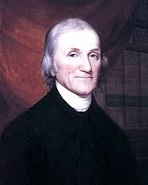










1767 On Apr. 2 after reading the Monita Secreta (the secret instructions of the Jesuits, showing their plans to foment wars in Europe in an effort to reverse the Protestant Reformation and restore the temporal and spiritual sovereignty of the papacy), pissed-off Charles II orders the expulsion of the Jesuits from Spain, Parma, the Two Sicilies, and Spanish Am., and virtually squelches the Spanish Inquisition; many Jesuits end up in Corsica, which is busy trying to throw off Genoese rule and get Frenched, er put under French control. In Apr.-May the Burmese unsuccessfully invade Siam; King Alaungpaya is killed. On May 13 ever-dipsy chancellor of the exchequer Charles "Champagne Charlie" Townshend (1725-67), unphased by the Am. reaction to the Stamp Act, proposes "external taxes" in the House of Commons on glass, paper, lead, paint, dyestuffs, and tea imported to the Am. colonies, and on June 29 Parliament approves the Townshend Acts, incl. the infamous Tea Tax on the American colonies; even though the external vs. internal tax theory of Ben Franklin is conformed to, the colonies still strenuously object, because the hidden purpose is to raise a revenue, and besides, part of the money raised would be used to pay royal governors, freeing them from dependence on colonial legislatures; again mobs attack the royal officials, and a public protest meeting in Boston results in a non-importation agreement; the Sons of Liberty, led by bankrupt brewer and Harvard grad. Samuel Adams (1722-1803) once again dance around the Liberty Tree near Boston Common; meanwhile Townshend dies suddenly on Sept. 4, and just doesn't care? In June the New York Assembly is suspended by Parliament for refusing to quarter troops; New York protests but caves in; Charles Townshend sets up a Board of Customs Commissioners in Boston to stop smuggling, and reorganizes the vice-admiralty courts, placing new ones in Halifax, Boston, Philly, and Charleston; he then becomes remembered for good timing as he dies in Sept.? On Aug. 28-Oct. 2 Benjamin Franklin visits Paris, meets Horace Walpole on Sept. 13, and is presented to Louis XV and Marie Antoinette at Versailles for a grand couvert (public supper) at Versailles - pass the cake? On Sept. 2-3 the Battle of Chengamah kicks off the First Anglo-Mysore War (ends 1769) between the kingdom of Mysore in S India and the British East India Co.; first of four wars that end in 1799. In Sept. a UFO is sighted over River Isla near Cupor Angus, Scotland. On Oct. 1 the Maryland Gazette announces the arrival of the slave ship Lord Ligonier from the River Gambia. On Oct. 18 the Mason-Dixon line is adopted for the border between Penn. and Md. In the fall wealthy Philly farmer-lawyer John Dickinson (1732-1808) pub. a series of twelve Letters from a Farmer in Pennsylvania to the Inhabitants of the British Colonies in the Pennsylvania Chronicle, denouncing the Townshend Acts as "unconstitutional" because Parliament has no right to levy taxes for revenue, whether internal or external. In Oct. Ben Franklin's daughter Sarah Franklin (1743-1808) marries English-born merchant Richard Bache (1737-1811) in Philly, who becomes Franklin's successor as postmaster gen. during the Am. Rev. War in 1776-82. Talk about bad timing? When another tax proposed by the Chancellor of the Exchequer is rejected by the House of Commons, PM Pitt suffers a complete nervous breakdown and retires to the country, leaving the cabinet headless, and plodding Tory Frederick, Lord North (1732-92) is appointed British chancellor of the exchequer to replace Townshend. Chaos in India causes Robert Clive to skedaddle. The East India Co. begins exporting huge quantities of opium from India. Mt. Vesuvius erupts, causing the king of Naples to flee his palace - the original Hell's Kitchen? English navigator Philip Carteret lands on one of the Solomon Islands. After leaving Ft. Michilimackinac near modern-day Mackinaw City, Mich. in the spring, Weymouth, Mass.-born soldier Jonathan Carver (1710-80) explores N Lake Michigan, the Door County peninsula in Wisc., reaches Green Bay, then explores Lake Winnebago to the Grand Portage, then down the Mississippi River to Prarie du Chien, then N to St. Anthony Falls near modern-day Minneapolis, Minn., and into E Iowa; too bad, when he returns he isn't paid, but he makes up for it with his bestselling book pub. in 1778, which first mentions the name "Oregon", and suggests that there might be a mountain range to the W and a continental divide; too bad, the profits are slow to arrive, and he dies broke in London. The first all cast-iron railway (for wagons) is laid this year and next by the Coalbrookdale Iron Co. of Shropshire, causing wooden railways to begin to go out of use. The Manchester Agricultural Society is founded in England. Maria Theresa and HRE Joseph II introduce educational reforms in Austria. Boston atty. Josiah Quincy II (1744-75) writes two articles for the Boston Gazette, signed by "Hyperion", followed by another next Sept., complaining about British oppression. By this time sexuality is so free in the turkey-pluckin' Am. backcountry that 94% of brides are pregnant on their wedding day. David Hume moves to London, becoming undersecy. of state (until 1768), and takes his friend Jean-Jacques Rousseau with him, getting him fixed up with a pension from George III; too bad they have a quarrel. Gotthold Lessing et al. found the Nat. Theater (Hamburg Enterprise) in Hamburg, which debuts his play "Minna von Barnhelm", switches to Shakespeare, and eventually goes bankrupt - Shakespeare doesn't translate well into German? You want to lick my what, Romeo? Scottish portraitist Allan Ramsay (1713-84), son of poet Allan Ramsay (1686-1758) becomes court painter to George III. Georg Philipp Telemann (b. 1681) dies, and Carl (Karl) Philipp Emanuel Bach (1714-88), so of J.S. Bach succeeds him as dir. of church music in Hamburg. Acting prodigy Sarah Kemble (later Siddons) (1755-1831) makes her stage debut as Ariel in Shakespeare's "Tempest". Successful playwright George Colman the Elder (1732-94) buys a quarter share in the Covent Garden Theatre in London, and becomes acting mgr. until 1774. Architecture: Christ Church in Alexandria, Va. is begun (finished Feb. 27, 1773), becoming the church where George Washington and Robert E. Lew later later have their own pews. Georgian-style Tryon Palace in New Bern, N.C. is begun (finished 1770) for N.C. royal gov. William Tryon (1729-88) by architect John Hawks. Inventions: An electrical machine with a glass pane becomes a hit toy. George Noel of England invents a pantaleon, a hammered dulcimer consisting of 276 gut and metal strings on a 11'x5' horizontal soundboard, played with wooden mallets. Self-taught astronomer-mathematician David Rittenhouse (1732-96) of Penn. invents an orrery that displays solar and lunar eclipses over a 5K-year period. Swiss Alpine climber and scientist (founder of alpinism and modern meteorology) Horace-Benedict de Saussure (1740-99) begins studying glass solar heat traps, obtaining temps higher than boiling water and building the first solar oven. Science: Swedish chemist Torbern Olaf Bergman (1735-84) of Uppsala measures and records the first "chemical affinities"; in 1775 he pub. Dissertation on Elective Affinities, containing the largest chemical affinity tables ever pub., first using the A, B, C etc. system for chemical equations. English chemist Joseph Priestley (1733-1804) creates the first artificially carbonated water; in 1771 Torbern Olaf Bergman of Sweden makes it from chalk and sulfuric acid. Nonfiction: Louis Pierre Anquetil (1723-1808), Esprit de la Ligue ou Histoire Politique des Troubles de la Fronde pendant de la XVI et XVIIe Siecles. James Boswell (1740-95), Essence of the Douglas Cause; a Scottish lawsuit. Henri de Boulainvilliers (1658-1722), Analyse du Traite Theologi-Politique de Spinosa (posth.). Richard Farmer (1735-97), Essay on the Learning of Shakespeare. John Harrison (1693-1776), A Description Concerning Such Mechanism as Will Afford a Nice or True Mensuration of Time. Johann Gottfried von Herder (1744-1803), Fragmente uber die Neuere Deutsche Literatur (Fragments on Recent German Literature) (2 vols.) (1767-8); written while an asst. pastor in Riga; advocates emancipating German lit. from all foreign influences by selective translation from languages with greater capacities for sensual expression and creative imagination than the predominantly intellectual language of German, establishing the foundations of comparative philology - diagnosis: French contamination? Samuel Johnson (1696-1772), an English and Hebrew Grammar, Being the Frist Short Rudiments of Those Two Languages, Taught Together, To Which is added, A Synopsis of All the Parts of Learning; 2nd ed. 1771. Gotthold Lessing (1729-81), Hamburgische Dramaturgie (2 vols.) (1767-8); on the craft of the playwright. Nevil Maskelyne (1732-1811), Nautical Almanac; ed. by the British astronomer royal (1765-1811); pub. under govt. sponsorship. Moses Mendelssohn, Phaedon, or The Immortality of Soul. Pierre Samuel du Pont de Nemours (1739-1817), La Physiocracie; coins the term "Physiocracy". Joseph Priestley (1733-1804), The History and Present State of Electricity. Jean-Jacques Rousseau (1712-78), Dictionnaire de Musique. Sir James Steuart (1713-80), An Inquiry into the Principles of Political Economy; the first book in English with the term "political economy" in the title, and the first complete economics treatise; promotes mercantilism. Johann Joachim Winckelmann (1717-68), Monumenti Antichi Inediti (1767-8). Music: Christoph Gluck (1714-87), Alceste (opera) (Burgtheater, Vienna). Art: Pompeo Batoni (1708-87), Lady Mary Fox. Francois Boucher (1703-70), The Chinese Market (1767-9). Joseph Nollekens (1737-1823), Castor and Pollux (statue); copy of the 1st cent. C.E. San Ildefonso group. Padre Ignacio Tirsch, Life in Baja, Calif. (drawings). Plays: George Colman the Elder (1732-94) and David Garrick (1717-79), The Clandestine Marriage (comedy) (Drury Lane, London); based on an engraving by William Hogarth; merchant Sterling wants to marry off his elder daughter to Sir John Melvil, who is in love with her younger sister Fanny, who is in love with clerk Lovewell, whom she you know what, after which she ends up betrothed to Melvil's elderly uncle Lord Ogleby; David Garrick refuses to play Ogleby, pissing-off Colman. Oliver Goldsmith (1730-74), The Good Natur'd Man (comedy); a flop. William Kenrick (1725-79), The Widowed Wife. Frances Sheridan (1724-66), A Trip to Bath (posth.). Christoph Martin Wieland (1733-1813), Comische Erzahlungen. Poetry: Michael Bruce, Elegy Written in Spring. Richard Jago (1715-81), Edge-Hill. Novels: Frances Sheridan (1724-66), The History of Nourjahad; Continuation of the Memoirs (posth.). Laurence Sterne (1713-68), Tristram Shandy, Vols. 3-4 (1759-67). Births: Anglo-Irish Protestant writer Maria Edgeworth (d. 1849) on Jan. 1. French Say's Law liberal economist Jean- Baptiste Say (d. 1832) on Jan. 5 in Lyons. French painter Anne-Louis Girodet de Roussy-Trioson (d. 1824) on Jan. 29. Thai Chakri king #2 (1809-24) Rama II (Buddha Loetla Nabhalai) (d. 1824) on Feb. 24 in Amphoe Amphawa; son of Rama I (1736-1809) and Queen Amarindra; father of Rama III (1787-1851) - bald like Yul Brynner? Dutch "The Dutch Nation" poet Jan Frederik Helmers (d. 1813) on Mar. 7 in Amsterdam. U.S. Dem. pres. #7 (1829-37) and Maj. Gen. ("Old Hickory") (Freemason) (face on the U.S. $20 bill) Andrew Jackson (d. 1845) on Mar. 15 in Waxhaw, S.C.; first U.S. pres. to be born in a log cabin (last is #20 Garfield); some believe he was born on a ship bound for North Am. from Ireland in 1755. French marshal and king of Naples-Sicily (1808-15) Joachim (Gioacchino Napoleone) Murat (d. 1815) on Mar. 25 in La Bastide, Gascony; brother-in-law of Napoleon. French "Napoleon at Malmaison" painter Jean-Baptiste Isabey (d. 1855) on Apr. 11 in Nancy; student of Jacques-Louis David; does all the French royals incl. Napoleon. French marshal Nicolas Charles Oudinot, 1st Comte Oudinot, 1st Duc de Reggio (d. 1847) on Apr. 25 in Bar-le-Duc, Lorraine. English railway pioneer (Quaker) Edward Pease (d. 1858) on May 31 in Darlington. Am. celeb Rachel Donelson Robards Jackson (d. 1828) on June 15 in Halifax County, Va.; wife (1791-) of pres. Andrew Jackson. German humanist-philosopher-linguist-diplomat Friedrich Wilhelm Christian Karl Ferdinand von Humboldt (d. 1835) on June 22 in Potsdam, Brandenburg; brother of Alexander von Humboldt (1769-1859). Russian naval cmdr. Pavel Vasilievich Chichagov (d. 1849) on July 8 (June 27 Old Style) in St. Petersburg; son of Vasily Chicagov (1726-1809). U.S. Dem. pres. #6 (1825-9) (highest IQ?) John Quincy Adams (d. 1848) (c in Quincy pronounced as z) on July 11 at Braintree (now Quincy), Norfolk County, Mass.; son of U.S. pres. John Adams (1735-1826); husband (1797-) of Louisa Catherine Adams (1775-1852); first U.S. pres. to be photographed, to install a toilet in the White House, to get in a train accident, and to pub. poetry; educated in Leiden, Holland while his father serves as U.S. ambassador to Holland, making him a fan of the Pilgrims. U.S. postmaster-gen. #4 (1801-14) Gideon Granger (d. 1822) on July 19 in Suffield, Conn.; educated at Yale U.; father of Francis Granger (1792-1868); uses the aliases Algernon Sidney and Epaminondas. French gen. Jean Joseph Amable Humbert (d. 1823) on Aug. 22 in La Coare, Saint-Nabore (near Remiremont Vosges). German Romantic poet-critic August Wilhelm von Schlegel (d. 1845) on Sept. 8 in Hanover; brother of Friedrich von Schlegel (1772-1829); educated at the U. of Gottingen. French "Montano et Stephanie" composer-conductor-violinist Henri Montan Berton (d. 1844) on Sept. 17; son of Pierre Montan Berton (1727-80); father of Henri Montan Berton (1832-). Am. diplomat-industrialist Victor Marie du Pont de Nemours (d. 1827) on Oct. 1 in Paris, France; eldest son of Pierre Samuel du Pont de Nemours (1739-1817); brother of Eleuthere Irenee du Pont de Nemours (1771-1834); emigrates to the U.S. with his father in 1799; father of Samuel Francis Du Pont (1803-65). Haitian gen. and king (1811-20) (black) Henri I (Henri Christophe) (d. 1820) on Oct. 6 in Grenada; first black king in the W Hemisphere. Swiss biologist-chemist Nicolas Theodore de Saussure (d. 1845) on Oct. 14 in Geneva; son of Horace Benedict de Saussure (1740-99). French banker and PM #10 (1830-1) Jacques Laffitte (d. 1844) on Oct. 24 in Bayonne. Swiss "Adolphe" political theorist Benjamin Constant (Henri-Benjamin Constant de Rebecque) (d. 1830) on Oct. 25 in Lausanne; educated at Oxford U. English prince field marshal ("Father of the Canadian Crown") Edward, Duke of Kent and Srathearn (d. 1820) on Nov. 2 in Buckingham House, London; 4th son of George III and Charlotte of Mecklenburg.; created duke in 1799. Irish rebel leader (co-founder of the United Irishmen) Thomas Paliser Russell (d. 1803) on Nov. 21 in Dromahane, County Cork; Anglican parents. Austrian Tyroleon freedom fighter (Napoleonic Wars) Andreas Hofer (d. 1810) on Nov. 22 in St. Leonhard, Passeier Valley of the Austrian Alps. Portuguese king (1816-26) Joao (John) VI (the Clement) (d. 1826); son of Peter III (1717-86) and Maria I (1734-1816) (who goes nuts in 1792). British wool pioneer (in Australia) John Macarthur (d. 1834) near Plymouth. English candymaker Joseph Storrs Fry (d. 1835); son of Joseph Fry (1728-87). Am. Sac (Sauk) Indian chief Black Hawk (d. 1838). English painter Thomas Barker of Bath (d. 1847). Deaths: French La. gov. Sieur de Bienville (b. 1680) on Mar. 7 in Paris. German composer Georg Philipp Telemann (b. 1681) on June 25. English novelist Robert Paltock (b. 1697) on Mar. 20 in London. German-born French gen. Ludwig August von Dieskau (b. 1701) on Sept. 8 in Surenne. French minister of finance Etienne de Silhouette (b. 1709). English writer-bookseller John Newbery (b. 1713) on Dec. 22 in Canonbury House, Islington, London; the John Newbery Medal is created in 1922 by the Am. Library Assoc. for the "most distinguished contribution to American literature for children". German scientist Johann Gottlob Lehmann (b. 1719) on Jan. 22 in St. Petersburg, Russia. English courtesan Kitty Fisher (b. 1741) in Kent; dies 4 mo. after marrying John Norris, son of Adm. Sir John Norris. British Capt. George Scott (b. ?) on Nov. 6 (killed in a duel).
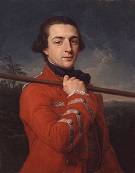






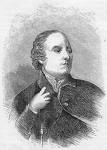







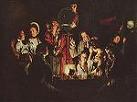





1768 Bread is too expensive in France and England, and there are more bread riots in London. Charles Townshend's reorg. of the customs service causes a great increase in the collections, usually by force, which go from £2K annually in 1760-1768 to £30K annually in 1769-1774 - like putting a red flag in front of a bull? In Jan. French explorer Louis-Antoine, Comte de Bougainville (1729-1811), who began a round-the-world voyage in 1766 begins a voyage to the Pacific (ends 1769), visiting Tahiti and claiming it for France, then visiting Samoa, Espiritu Santo, the N Solomons and New Guinea, Bougainville Island in the Solomons and Bougainville Strait, eventually circumnavigating the Earth; it takes him 52 days to round Cape Horn; he keeps Bougainville's Journal, which feeds the "cult of the noble savage" in Europe. On Feb. 11 Samuel Adams and James Otis Jr. write the Mass. Circular Letter, and get the Mass. assembly to send it to the other colonies, calling for them to unite in opposition to the Townshend Acts, and again complaining about "taxation without representation"; by Apr. Mass., Va., Conn., N.J. and N.H. endorse it; from London Wills Hill, Earl of Hillsborough and 1st Marquess of Downshire (1718-93), newly appointed to the new office of secy. of state for the colonies (1768-72) demands the assembly to rescind the letter; when they refuse, the assembly is dissolved. On Mar. 17 there is an attempted slave rebellion in Montserrat. On May 10 after English radical MP John Wilkdes is imprisoned in King's Bench Prison in St. George's Fields, Southwark, South London for pub. an article in The North Briton criticizing George III, causing a demonstration, the Massacre of St. George's Fields sees 6-7 killed after soldiers fire on demonstrators who don't obey the Riot Act. On May 12 Ferdinand I of the Two Sicilies (1751-1825) (Ferdinand IV of Naples and Ferdinand III of Sicily) marries Marie Caroline (1752-1814) (daughter of HRE Francis I and Maria Theresa, and sister of Marie Antoinette), and after she pussy-whips him and takes over he goes along with her reactionary program, which incl. the spread of Freemasonry. On May 15 by the Treaty of Versailles, France buys Corsica for 2M livres from Genoa (which has been on the skids since 1380), then aids the Genoese in finishing off Corsical patriot Pasquale de Paoli; next Aug. 15 Napoleon (d. 1821) is born, which is why he is French. In May the new Board of Customs Commissioners in Boston seizes John Hancock's sloop Liberty on a technicality, but a mob prevents them from unloading their loot, and they tow it to Castle William in the harbor and call for British troops to protect them - the point of no return? On May 30 English novelist Fanny Burney (1752-1840) begins her Diary of Fanny Burney, and keeps it for 72 years. In May Marton, Yorkshire, England-born Capt. James Cook (1728-79) sails for the South Pacific on a 3-year round-the-world voyage (ends 1771) timed to observe a rare transit (eclipse) of the Sun by Venus next June 3; German naturalist Peter Simon Pallas (1741-1811) travels through Russia to the Chinese frontier to observe the transit. In Aug. Benjamin Franklin tries unsuccessfully to get appointed undersecy. to Lord Hillsborough, which dashes his last hopes of retaining union of the colonies with Britain, and causes him to begin pub. pamphlets against the Townshend Acts - if you can't join 'em? In Sept. the Battle of Kathmandu sees King Jaya Prakash Malla defeated by Gorhka king Prithvi Narayan Shah, ending the Gorkha Kingdom (begun 1559) and founding the Shah Dynasty in Nepal (ends May 28, 2008), with capital in the 2nd cent. C.E. city of Kathmandu ("kastha" + "mandap" = wood + covered shelter) (modern-day pop. 1.4M/2.5M). The gloves come off? In Sept. two regiments of redcoat storm troopers arrive in Boston, and the same day a convention of delegates from Mass. towns declares their "aversion to an unnecessary Standing Army, which they look upon as dangerous to their Civil Liberty"; Parliament responds by appointing a special commission in England to haul Americans suspected of treason before under an old act passed during the reign of Henry VIII. Meanwhile, England is distracted by George III and the "King's Friends"? On Oct. 14 after PM (since July 30, 1766) William Pitt the Elder resigns due to ill health, Whig Augustus Henry FitzRoy, 3rd Duke of Grafton (1735-1811), who had acted as head of the cabinet in the ailing Pitt's absence becomes British PM (until Jan. 28, 1770), becoming the youngest so far (until William Pitt the Younger in 1783); too bad, his weak leadership gives the king personal influence, leading to policies Pitt doesn't like but can no longer do anything about even though his health recovers. On Dec. 10 the Royal Academy of Arts is founded in London by architect William Chambers under the patronage of mad king George III as a rival to the Society of Artists after a dispute with James Paine, with Sir Joshua Reynolds (knighted next year) as pres. #1 (until 1792) and 40 founding members, incl. sculptor Joseph Wilton; its income comes from hosting art exhibitions, not govt. funds. On Dec. 28 after miraculously escaping from the Burmese-encircled island palace in Ayutthaya, seeing Siam divided into six parts (he got the E coast), then uniting to drive the Burmese out and dispose of his rivals, Taksin the Great (Phraya Tak) (1734-82), gov. of the Tak province is crowned king of Siam (Thailand) in the new capital of Thornburi. Austria renounces all claims to Silesia. After the Seven Years' War causes France to withdraw as Europe's #1 military power, the Sixth Russo-Turkish War begins (ends 1774), with Russia a under tsar (1762-96) Catherine II the Great (1729-96) working to take S Ukraine, N Caucasus, and the Crimea from the crumbling Ottoman Empire; a Russian army pushes SW from the Dnieper River into the Balkans, scoring Vs and calling on Christians to join them against the Muslim Ottomans; meanwhile another Russian force captures the Crimea; too bad, the Christians refuse to respond to the call. Frederick II the Great completes his political testament. The British chief royal agents for Indian affairs negotiate the Ft. Stanwix and Hard Labor Treaties, by which the Iroquois cede all lands E and S of the Ohio River; too bad, the Shawnees, Delaware, and Mingos, who claim the region as their hunting grounds don't accept it. Hyder Ali of Mysore attacks Cochin. After the Ottomans send assassins to kill him, Ali Bey Al-Kabir (1728-73) slaughters the other Egyptian beys and proclaims Egypt independent of Turkey, with himself as sultan - where do I get my pharaoh duds? Sheikh Daher el-Omar is granted the title of Sheikh of Acre, Emir of Nazareth, Tiberias, and Safed, and Sheikh of all Galilee, and sides with Egyptian gov. Ali Bey Al-Kabir in his war with the Ottomans, both allying with Russia. John Wilkes returns from France, and is reelected to the House of Commons from Middlesex, but is sent to prison to serve his 1764 sentence; the election is accompanied by mob vilence, and a large popular demonstration is staged in front of Parliament when it opens, causing troops to kill several protesters; Wilkes accuses the cabinet of planning a massacre, which turns them against him, and they expel Wilkes from the House; a new election returns Wilkes again, and he is expelled again; this goes on for two more rounds, and finally the Commons gives Wilkes' opponent his seat; the Parliament is now widely regarded as corrupt and under the mad king's thumb; meanwhile the king secretly awards the governorship of Va. (1768-7) to his impoverished favorite Norborne Berkeley, 4th Baron Botetourt (1718-70), having Lord Hillsborough inform Gen. Amherst he must return to Va. personally to keep it, causing him to resign as col. of the Royal Americans and the 15th Regiment, and decline an annuity proferred in lieu of a peerage, which causes a public uproar in London for "shabby treatment", and Pitt to argue on his behalf in front of the king, resulting in a promise that he will be the first new peer created, and granting him another pension as col. of the 3rd Regiment plus 20K acres in New York State; it takes until 1772 for him to make Amherst Lt. Gen. of the Ordnance, and until 1776 to make him a baron, while he grows fat and plants fruit and nut trees in his gardens in Kent? Austria introduces a new criminal code based on humanist principles. The British East India Co. establishes a trading post and garrison in Sulu in the S Philippines, dominating the region until the mid-19th cent. based on piracy on Spanish shipping and slave trading. Members of the Am. Patriot Party (rebels) begin calling themselves Whigs to identify with the British Radical and Patriot Whigs; the royalists adopt the label of Tories; when the Am. Rev. ends, both terms fall into disuse. Stellar's Sea Cow (discovered in 1741), a relative of the dugong and manatee found near the Asiatic coast of the Bering Sea becomes extinct - which Star Trek episode did I miss? Louis Antoine de Bougainville discovers 127 mi. x 49 mi. Bougainville Island in the W Pacific Ocean, the largest of the Solomon Islands. Hyderabad on the Indus River, 100 mi. NE of Karachi in modern-day Pakistan on the ruins of ancient Nirun is founded by Hyder Ali as the capital of Sind (until 1843) (modern-day pop. 1M). Hard-paste porcelain factories are set-up in Plymouth and Bristol in England, and Sevres in France; everywhere else in these countries only soft-paste (with glass) porcelain is made; by the end of the cent. only hard-paste is made throughout the continent. The Hospitallers found a univ. The "Queen City" of Charlotte, N.C., named after George III's wife is incorporated. Hudson's Bay Co. finally establishes that there is no Northwest Passage to the Orient. Between this year and 1775 George Washington entertains 2K guests at his 8K-acre Mount Vernon, Va. plantation with a Mansion House having a 2-story pillared veranda and a downstairs bedroom. The first steam engine-powered sugar mill opens in Jamaica. The secret Brothers in Unity society is founded at Yale U., becoming rivals with the Linonian Society (founded 1753). After being kicked out of Ferney by Voltaire for criticizing his works, failed starving French playwright Jean-Francois de La Harpe (1739-1803) returns to Paris, and begins writing for Mercure de France (founded 1672), becoming ed. in 1770, criticizing the works of fellow Frenchmen so severely that he becomes universally hated, and humiliated at a 1776 reception at the Academie Francaise, causing him to resign and go back to writing plays. A life filled with green lights and blue skies? David Hume (d. 1776) retires to Edinburgh for the rest of his life; Jean-Jacques Rousseau returns to France under the assumed name of Renou, and marries seamstress Theresa Lavasseur, having five children he puts in orphanages (because he would be a poor father?); he obtains official permission to return in 1770, but is not allowed to publish. Steller's sea cow becomes extinct. Mankind divides into two classes, the natural-born lovers and the natural-born haters of Benjamin Franklin (1706-90), claims Nation mag. Poet Thomas Gray becomes prof. of history and modern languages at Cambridge U., where he joins the English Romantic poets in a love affair with Celtic and Norse mythology. Architecture: Shadwell, Va.-born self-taught architect Thomas Jefferson (1743-1826) begins the Neoclassical Palladian style Monticello (It. "little mountain") in Va. SE of Charlottsville, moving into the South Pavilion next year; it has three stories, 33 rooms, and an octagonal dome roof. Franciscan priest Antonio Margil de Jesus (1657-1726) begins a new church for Mission San Jose (founded Feb. 23, 1720) in San Antonio, Tex. (finished 1782), which becomes the "Queen of the Missions of New Spain". The Birmingham Canal (Birmingham Canal Navigations Main Lne) from Birmingham to Wolverhampton to service the Black Country coal fields is begun, engineered by James Brindley (finished 1772). The Forth-Clyde Canal is begun (finished 1790). Inventions: French chemist Antoine Baume (Baumé) (1728-1804) invents the Baume (Baumé) Scale, a pair of hydrometer scales that measure the density of various liquids in degrees Baume, with distilled water = 0. Benjamin Franklin proposes a New Scheme for English spelling, dropping the letters c, j, q, w, x and y, and adding six new chars. so that every sound has one letter to express it with - drz lats uv reznz? Science: Fredrik Henrik (Fredric Henric) af Chapman (1721-1808) of Sweden founds the mathematical theory of ship design; his work is still hot in 1817 when an English trans. is pub., and 1839, when a French trans. is pub. Swiss mathematician Leonhard Euler (1707-83) proposes that the wavelength of light determines its color. German mathematician Johann Heinrich Lambert (1728-77) proves that pi is incommensurable (has no common divisor). Lazzaro Spallanzani disproves the theory of spontaneous generation using rotting meat in a hermetically-sealed container, which doesn't sprout maggots or flies. Nonfiction: Arthur ? (1747-68), The Life, and Dying Speech of Arthur, a Negro Man. James Boswell (1740-95), An Account of Corsica; a sympathetic study of its fight for independence. Abraham Booth, Reign of Grace. Fredrik Henrik Af Chapman (1721-1808), Architectura Navalis Mercatoria. Col. Frederick (1725-97), Memoires pour servir a l'histoire de la Corse; enlarged ed. pub. in 1795 under the title "A Description of Corsica". Rev. William Gilpin (1724-1804), Essay on Prints; originatse the concept of the picturesque as "that kind of beauty which is agreeable in a picture". Johann Gottfried von Herder (1744-1803), On Thomas Abbot's Writings; "A human soul is an individual in the realm of minds: it senses in accordance with an individual formation, and thinks in accordance with the strength of its mental organs... My long allegory has succeeded if it achieves the representation of the mind of a human being as an individual phenomenon, as a rarity which deserves to occupy our eyes." Pierre Samuel du Pont de Nemours (1739-1817), La Physiocratie, ou Constitution Naturelle du Gouvernement le Plus Avantageux du Genre Humain; coins the term "physiocrat", which is adopted by disciples of Francois Quesnay, causing du Pont to be made ed. of their journal Les Ephemerides du Citoyen; too bad he puts in articles advocating abolition of slavery and govt. restrictions on the economy, causing the govt. to force him to leave France. Joseph Priestley (1733-1804), Essay on the First Principles of Government. William Smellie (1740-95), Colin Macfarquhar (1745-93), and Andrew Bell (1726-1809), Encyclopaedia Britannica, 1st Ed. (3 vols.) (Dec. 6 - 1771) (Edinburgh); composed of 100 "numbers", issued weekly by subscription, unbound; most of the articles are by Smellie; Bell is the printer; Macfarquhar contributes heavily to the 2nd and 3rd eds.; thrills the reading public with its many wise and sage articles; George II orders the three pages of illustrations of female pelvises and fetuses in the midwifery article ripped out of all 3K copies; "I wrote most of it, my lad, and snipped out from books enough material for the printer. With pastepot and scissors I composed it" (Smellie); "With regard to errors in general, whether falling under the denomination of mental, typographical or accidental, we are conscious of being able to point out a greater number than any critic whatever. Men who are acquainted with the innumerable difficulties of attending the execution of a work of such an extensive nature will make proper allowances. To these we appeal, and shall rest satisfied with the judgment they pronounce." (Preface by Smellie) Emanuel Swedenborg (1688-1772), Delititiae Sapientiae. Horace Walpole (1717-97), Historic Doubts on the Life and Reign of King Richard the Third. Music: Giuseppe Gazzaniga (1743-1818), Il Barone di Trocchia (first opera) (Teatri di San Carlo). Andre Gretry (1741-1813), Le Huron (comic opera) (Paris) (aug.); libretto by Jean Francois Marmontel; his first hit; Lucile (comic opera); Le Tableau Parlant comic (opera). Niccolo Jomelli, Fetonte (opera) (Stuttgart). Wolfgang Amadeus Mozart (1756-91), Bastien and Bastienne: La Finta Semplice, K50-51 (opera buffa) (Vienna); his first produced opera; after the court refuses to host it, Franz Anton Mesmer has it debut in his estate's garden in Vienna, causing Mozart to immortalize him in "Cosi Fan Tutte". On July 18 John Dickinson pub. The Liberty Song in the Boston Gazette; the first patriotic Am. song? Art: Francois Boucher (1703-70), Shepherd's Idyll; Washerwomen. French Rococo sculptor Etienne (Étienne) Maurice Falconet (1716-91) begins The Bronze (Copper) Horseman, a monument to Peter the Great in St. Petersburg (finished 1782), named after the 1833 poem by Alexander Pushkin; its pedestal is the 1,250-tonne Thunder Stone, largest stone ever moved by humans (until ?). Paul Revere, Silver Bowl in Honor of 92 House of Representatives Members Who Defied George III (silver bowl). Gilbert Stuart (1755-1828), The Hunter Dogs. Joseph Wright, A Philosopher Shewing an Experiment on an Air Pump; a lark is suffocated in a vacuum while a little girl watches and cries? Plays: Charles Dibdin (1745-1814) and Isaac Bickerstaffe (1733-1812), The Padlock (opera) (Drury Lane Theatre, London) (6 perf.); libretto based on Miguel de Cervantes' "The Jealous Husband"; stars Dibdin in blackface as Mungo, a black servant from the West Indies, who likes to break into song when Massuh isn't around, becoming one of the first blackface roles in English theatre, causing "that degree of sensation in the public which is called a rage"; a hit in the U.S. as late as 1843; "Dear heart, what a terrible life am I led!/ A dog has a better, that's shelter'd and fed;/ Night and day, 'tis de same,/ My pain is dere game." Jean-Francois Ducis (1733-1816), Amelise (tragedy) (debut) (Paris); a flop. Johann Wolfgang von Goethe (1749-1832), Die Mitschuldigen (tragedy). Oliver Goldsmith (1730-74), The Good Natur'd Man. Gotthold Lessing (1729-81), Wie die Alten den Tod Gebildet. Michel-Jean Sedaine, La Gageure Imprevue. Alexander Petrovich Sumarokov, The Usurer (comedy). Horace Walpole (1717-97), The Mysterious Mother. Poetry: Christoph Martin Wieland (1733-1813), Musarion oder die Philosophie der Grazien; Idris. Novels: Claude Prosper Jolyot de Crebillon (1707-77), Lettres de la Duchesse de **au duc de ***. Laurence Sterne (1713-68), A Sentimental Journey Through France and Italy; pub. 1 mo. before his death. Births: Corsican king of Naples-Sicily (1806-8) and Spain (1808-13) Joseph Napoleon Bonaparte (d. 1844) on Jan. 7 in Corte; oldest brother of Napoleon. U.S. Supreme Court justice #19 (1823-43) Smith Thompson (d. 1843) on Jan. 17 in Amenia, N.Y.; educated at Princeton U. Am. Federalist politician Philip Jeremiah Schuyler (d. 1835) on Jan. 21 in Albany, N.Y.; son of Philip Schuyler (1733-1804). Austrian HRE (1792-1806) (last) and Austrian emperor (1806-35) Francis (Franz) II/I (d. 1835) on Feb. 12 in Florence, Italy; eldest son of Grand Duke Leopold of Tuscany; nephew of HRE Joseph II. Shawnee Indian chief Tecumseh (Tecumtha) (Tekamthi) ("Shooting Star") ("Crouching Panther") (d. 1813) on Mar. 9 near Chillicothe, Ohio; son of Pucksinwah and Methoataske. French Fourier Series mathematician-physicist Baron Jean-Baptiste Joseph Fourier (d. 1830) on Mar. 21 in Auxerre, Burgundy; son of a tailor; orphaned at age 9. English "Creevey Papers" Whig politician and diarist (gossip) Thomas Creevey (d. 1838) in Mar.; son of a slaver; educated at Queen's College, Cambridge U. Scottish abolitionist Zachary Macaulay (d. 1838) on May 2 in Inverary. English queen consort (1820-1) Caroline Amelia Elizabeth of Brunswick-Wolfenbuttel (d. 1821) on May 17 in Braunschweig; daughter of Duke Charles William Ferdinand of Brunswick-Wolfenbuttel (Brunswick-Wolfenbüttel) (1735-1806) and Princess Augusta Frederika of Wales (1737-1813) (eldest sister of George III); wife (1795-) of her cuz Prince of Whales George IV (1762-1830). U.S. First Lady #4 (1809-17) Dorothea (Dorothy) Dandridge Payne Todd "Dolley" "Dolly" Madison (d. 1849) on May 20 in New Garden, Guilford County or Payne's Tavern, Person County, N.C.; wife (1794-) of James Madison. French gen. Louis Lazare Hoche (d. 1797) on June 24 in Montreuil (near Versailles). U.S. First Lady #5 (1817-25) Elizabeth Kortright "Eliza" Monroe (d. 1830) on June 30 in New York City; wife (1786-) of pres. James Monroe. Am. surgeon ("Father of American Surgery") Philip Syng Physick (d. 1837) on July 7 in Philadelphia, Penn.; educated at the U. of Penn.; pioneers the use of the stomach pump, and invents the needle forceps and the tonsillectomy guillotine/snare - I love to sing the praises of physick? French assassin Marie-Anne Charlotte de Corday d'Armont (d. 1793) on July 27 in Saint-Saturnin-des-Ligneries, Ecorches (Orne), Normany. Austrian Tyrolese Romantic Nazarene landscape painter Joseph Anton Koch (d. 1839) on July 27 in Elbigenalp; moves to Rome in 1795. Swiss political theorist Karl Ludwig von Haller (d. 1854) on Aug. 1 in Berne. German baritone singer-composer Johann Michael Vogl (d. 1840) on Aug. 10 in Steyr (Ennsdorf). French gen. Louis Charles Antoine Desaix (de Veygoux) (d. 1800) on Aug. 17 in Auvergne. English surgeon-anatomist Sir Astley Paston Cooper, 1st Baronet (d. 1841) on Aug. 23 in Brooke, Norfolk; created baronet in 1820 for removing a cyst from George IV's head. French "Voyage to America" Roman Catholic Romantic writer-statesman ("Founder of French Romanticism") Francois-Rene, Vicomte de Chateaubriand (d. 1848) on Sept. 4 in St. Malo, Brittany; son of slave trader Rene de Chateaubriand (1718-86) and Apolline de Bedee; last of 10 children; brother of Lucille de Chateaubriand; grows up in the family castle in Combourg; husband of Celeste Buisson de la Vigne. French Gen. Louis Emmanuel Rey (d. 1846) on Sept. 22 in Grenoble. Scottish mathematician-astronomer (inventor of the eidograph) William Wallace (d. 1843) on Sept. 23 in Dysart, Fife. English dramatist-composer Charles Dibdin the Younger (Charles Pitt) (Charles Isaac Mungo Dibdin) (d. 1833) on Oct. 27 in Covent Garden, London; illegitimate son of Charles Dibdin (1745-1814); brother of Thomas Dibdin (1771-1841) and Harriet Pitt (1748-1814); godson of David Garrick (1717-79); named after Isaac Bickerstaff and the char. Mungo in the play 1768 "The Padlock". Serbian leader Karadorde (Djordje) "Black George" Petrovic (d. 1817) on Nov. 3 in Visevac. Am. privateer capt. Gamaliel Bradford (d. 1824) on Nov. 4 in Duxbury, Mass. British princess Augusta Sophia (d. 1840) on Nov. 8 in Buckingham House, London; 6th child and 2nd daughter of George III and Charlotte of Mecklenburg; her birth delights her daddy, who wanted a girl to go with the four boys. German "Attila" religious poet-dramatist Friedrich Ludwig Zacharias Werner (d. 1823) on Nov. 18 in Konigsberg; converts to Roman Catholicism in 1811, is ordained a priest in 1814, and becomes a preacher in Vienna. German liberal Protestant theologian-philosopher ("the Father of Modern Liberal Theology") Friedrich Ernst Daniel Schleiermacher (d. 1834) on Nov. 21 in Breslau, Silesia. Am. cabinetmaker and furniture designer Duncan Fife (Phyfe) (d. 1854) near Loch Fannich, Ross and Cromarty; emigrates to Albany, N.Y. in 1783; originator of the federal style of furniture; signature is the flat acanthus leaf in bas relief - any relation to Barney Fife? Deaths: English physicist George Hadley (b. 1685) on June 28. Italian composer Nicola Porpora (b. 1686) on Mar. 3. Scottish mathematician Robert Simpson (b. 1687) on Oct. 1. French astronomer Joseph Nicolas Delisle (b. 1688) on Sept. 12 in Paris (apoplexy). Italian philologist-lexicographer Egidio Forcellini (b. 1688) on Apr. 4 in Padua. Italian artist Antonio Canaletto (b. 1697) on Apr. 19 in Venice. German-born Am. religious leader Johann Konrad Beissel (b. 1691) on July 6 in Ephrata, Penn. German philosopher Hermann Samuel Reimarus (b. 1694) on Mar. 1 in Hamburg; dies after founding Deism, which denies the existence of the supernatural and considers God to be the Great Watchmaker of the Universe, who created it and set it in motion then left it alone; he also leaves the first critical historical analysis of Jesus Christ, arguing that he simply wanted to found a godly state, and died in despair when he failed, with the idea that he died to atone for mankind's sins attributed to St. Paul, making Jesus the teacher of a "remarkable, simple, exalted, and practical religion." Mexican painter Miguel Cabrera (b. 1695) on May 16. Scottish jurist John Erskine of Carnock (b. 1695) on Mar. 1. French mathematician Charles Camus (b. 1699) on May 4. English botanist John Martyn (b. 1699) on Jan. 29 in Chelsea. French printer-engraver Pierre Simon Fournier (b. 1712). Irish-born English "Tristram Shandy" novelist Laurence Sterne (b. 1713) on Mar. 18 in London (TB); his body is stolen from St. George's Fields cemetery in Hanover Square and sold to Cambridge U. for dissection, then recognized by a friend and reinterred; in 1969 somebody calling himself Yorick steals his skull and reinters it near his Coxwold, North Yorkshire residence: "Men tire themselves in pursuit of rest." German art historian Johann Joachim Winckelmann (b. 1717) on June 8 in Trieste, Italy; murdered in a hotel by fellow traveler Francesco Arcangeli for some medals from Maria Theresa, calling him "a man of little account". English academic Lawrence Brockett (b. 1724) on July 12 near Cambridge; dies after a riding accent en route from Hinchingbrooke to Cambridge, becoming the last English person buried by torchlight at night according to Church custom.




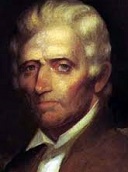





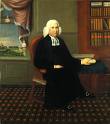
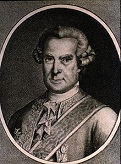
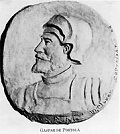







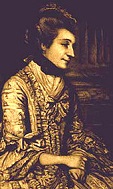
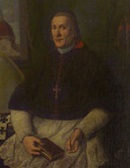
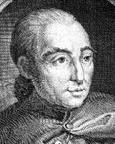




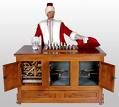

1769 On Jan. 10 after getting concerned about Russian incursions along the Pacific coast from their base in Alaska, Spanish minister Jose de Galvez (José de Gálvez) y Gallardo, Marqués de Sonora(1720-87) sends the dual land-sea Portola (Portolá ) Expedition, led by Gaspar de Portola (Portolà) i Rovira (1716-86) to explore and settle Alta Calif. with a system of presidios (military forts) and Franciscan missions, starting with the San Carlos sailing from La Paz, followed on Feb. 15 by the San Antonio sailing from Cabo San Lucas, while the land epedition leaves Velicata on Mar. 25; on July 16 Franciscan Father Miguel Jose "Junipero" Serra y Ferrer (1713-84) ("Apostle of Calif.") founds the first of 21 Catholic missions in Calif. at Mission San Diego de Alcala (Alcalá), becoming the start of El Camino Real (the Royal Road), which becomes an Indian Roman Catholic conversion factory as well as an agricultural estate; the super climate produces early crops of grapes, oranges and olives; over the next 50 years the Franciscans build 20 more missions spaced a day's journey apart along the coast all the way to San Francisco. The Am. Rev. really starts with fifth column propaganda in England? On Jan. 21 the anon. Letters of Junius begin to be pub. in the Public Advertiser in London (until Jan. 21, 1772), attacking corruption in public men, warning of the dangers of arbitrary power, and praising the virtues of a shorter term for Parliament; they are addressed to Sir William Draper, the Duke of Grafton, the Duke of Bedford et al.; in 1812 John Taylor claims that the real Junius is Sir Philip Francis, and in 1872 Joel Moody claims that he is Thomas Paine; it's really Benjamin Franklin (1706-90), who is also in London at the time?; the printers and publishers are tried for seditious libel, found guilty, then cleared after a 2nd trial, making them more popular, and in 1772 all 69 letters are reprinted by the Public Advertiser of London, owned by Henry Sampson Woodfall (1739-1805); "The liberty of the press is the palladium of all the civil, political, and religious rights of an Englishman"; "The submission of free people to the executive authority of government, is no more than a compliance with laws which they themselves have enacted"; "One precedent creates another. They soon accumulate and constitute law. What yesterday was fact, today is doctrine"; "We owe it to our ancestors to preserve entire those rights, which they have delivered to our care: we owe it to our posterity, not to suffer their dearest inheritance to be destroyed"; "I believe there is yet a spirit of resistance in this country, which will not submit to be oppressed; but I am sure there is a fund of good sense in this country, which cannot be deceived"; "[Americans] equally detest the pageantry of a king, and the supercilious hypocrisy of a bishop"; "There is a holy mistaken zeal in politics as well as in religion. By persuading others, we convince ourselves." In Jan. the Old Colony Club for gentlemen is founded in Plymouth, Mass. to celebrate Forefather's Day (Dec. 22), when the Pilgrims landed on Plymouth Rock; too bad that when the Am. Rev. start, most of the members are loyalists, and disband it. On Feb. 2 Pope (since 1758) Clement XIII (b. 1693) dies, and on May 18 Lorenzo Ganganelli is elected Pope (#249) Clement XIV (1705-74) after a bitter conclave seeking a pope who will agree in advance to the Suppression of the Jesuits; he follows through in 1773. On Jan. 27 Capt. James Cook rounds the Horn, reaches Tahiti on Apr. 13, on June 3 observes the rare Transit of Venus, then on Oct. 7 discovers New Zealand, sailing around North and South Islands, then the E coast of Australia; David Rittenhouse of Penn., one of the first people to construct a telescope in the U.S. observes the transit using a natural spider webbing reticle and records its atmosphere after first fainting from the excitement. Fall into my eyes? On Apr. 22 Marie-Jeanne Becu du Barry (1743-93), a courtesan who became the mistress of Paris gambling house owner Chevalier Jean du Barry in 1764 is presented at court after attracting the eye of Louis XV and becoming his official mistress, and for appearance officially married to Jean's brother Comte Guillaume du Barry; Louis XV lavishes big francs on her, and builds her the Petit Trianon in Versailles. In Apr. the First Anglo-Mysore War (begun 1766) ends with a treaty restoring the pre-war status quo. In Apr. Wild Goose (Irish expatriate) Alejandro O'Reilly (1722-94) is appointed Spanish gov. of La. #2 (until Dec. 1), sailing to Havana with 2K mainly free black troops, arriving in New Orleans in Aug. and quashing the Creole uprising of 1768, establishing Spanish govt. control (dependent on Havana), having six rebels executed in Oct., earning him the name "Bloody O'Reilly"; he goes on to forbid the enslavement of Indians, allow slaves to buy their freedom, and make it easier for masters to manumit slaves before handing over the job on Dec. 1 to his asst. Luis de Unzaga y Amezaga (1721-90) (pr. "oon-THAH-gah") becomes Spanish gov. #3 of La. (until 1777), becoming known for opening trade and helping the Am. Rev. rebels out in 1776 with gunpowder; a Map of West Fla. and La. is pub. by Thomas Jefferys. In May a decision is made by the privy council in London to retain the hated Am. tea duty. In mid-May the V. assembly passes resolves reasserting its exclusive right to tax Virginians, challenging the constitutionality of hauling Americans across the ocean for trial, and calling upon the colonies to unite in their cause; the Virginia gov. then dissolves the assembly, only letting the members meet independently as a convention after the example of Boston; most other colonial assemblies follow suit. On June 5 Abbe Jean Chappe d'Auteroche (1722-69) observes the transit of Venus in Siberia. Daniel Boone was a man, yes a bi-i-i-ig man? On June 7 Berks County, Penn.-born frontiersman-explorer Daniel Boone (1734-1820), who has explored the area since 1767 with six companions, incl. French-Indian War buddy John Finley (Findley) (1759-1846) settles the "Dark and Bloody Ground" (called that by Cherokee chief Dragging Canoe, referring to the endless battles between his tribe and the Creeks, Shawnee, Wyandot, and Chickasaw along the Cumberland River) of Kentucky (Iroquois "Ken-tah-ten" = land of tomorrow) (central plain?), founding the town of Boonesboro in E Ky.; after being captured with his entire party by Indians in Dec., then escaping and joining up with his brother, then building the first cabin, living there during the winter; he later feels compelled to move to a new territory every time someone moves within a mile of him? On June 28 The Morning Chronicle begins pub. in London (until 1862). On Aug. 9 lt. gov. (since 1758) Thomas Hutchinson (1711-80) becomes acting gov. of the Province of Mass. Bay (until Mar. 14, 1771, then gov. until May 17, 1774). On Sept. 6-8 famed Shakespearean actor David Garrick (1717-79) organizes the first Shakespeare Jubilee in Stratford-upon-Avon, which thousands brave rainy weather to see, causing him to build the Shakespeare Pavilion (cap. 1K); too bad, none of Shakespeare's plays are performed. On Dec. 13 Congregationalist minister Elazar Wheelock (1711-79) obtains a charter from George III for Dartmouth College in Hanover, N.H. as an outgrowth of a school for Indians founded in 1754, becoming the northernmost Ivy League college, and later producing alumnus Daniel Webster. On Nov. 6 English explorer Samuel Hearne (1745-92) begins his first voyage to the Arctic Ocean with a band of Cree and Chipewyan Indians, leaving the Seal River N of Churchill then returning on Dec. 11 after running out of food. On Dec. 15 bowing to the pressures of the Quartering Act, the New York Assembly votes to provide £2K to provide food and shelter to British troops stationed there; on Dec. 16 Alexander McDougall (1731-86) pub. the pamphlet To the Betrayed Inhabitants of the City and Colony of New York under the alias "A Son of Liberty". Peter von Biron (1724-1800) becomes the last duke of the Grand Duchy of Courland (until 1795), which lies on the Baltic Sea and is coveted by Russia. A Russian fleet led by Count Alexey Orlov lands in the Morea (Peloponnesus) and leads an unsuccessful Greek revolt. The Genoese, aided by France defeat Pasquale de Paoli, causing him to flee to England, where he is welcomed and granted a pension. The anti-Semitic town council of Frankfurt am Main rebuffs a petition by the Jews to be allowed to leave their ghetto on Sun. afternoons, with the soundbyte "An example of the unbounded arrogance of this people, who expend every effort to take all opportunities to set themselves up as equals to the Christian citizens". Sheikh Daher el-Omar blocks an Ottoman force heading to Egypt, while Ali Bey Al-Kabir sends 30K troops, conquering the Sanjak of Jerusalem and the Valayets of Tyre and Damascus. The Gurkhas (Sans. "cowherds") of Rajputana conquer the closed-off country of Nepal ("a yam between two borders") on the S slope of the Himalayas between India, Tibet, and China from the other pretty princes, and King Prithvi Narayan Shah (1723-75) founds the Shah Dynasty, which ends up by 1846 with the hereditary PMs of the Ranas Family keeping the kings virtual prisoners (until 1951). New Siamese king Takin launches a war to regain control of Cambodia, causing the Nguyen army to retreat, spurring the three Tay Son Brothers, led by Nguyen Hue to start a Robin Hood revolt in Vietnam against mean corrupt oppressive Nguyen lord Nguyen Phuc Thuan, beginning the Tay Son Rebellion (ends 1789). The Va. Assembly is dissolved after protesting against colonial treason trials held in Westminster. Elections for Parliament finally produce a majority for the King's Friends. English antiquary-poet Thomas Percy (1729-1811) becomes chaplain to George III, follwed by bishop of Dromore in 1782. Conn.-born Capt. (later Col.) John Butler (1728-94) uses his influence among pro-British Indians to defend Niagara, and is promoted to lead Russian troops occupy Moldavia and enter Bucharest. Austria occupies the Lwow and Zips region of Poland; Frederick II the Great and HRE Joseph II meet in Neisse, Silesia to discuss the partition of Poland. Settlers from SW Va. and N.C. ignore the Proclamation Line and squat on the Watauga River; more settlers squat in modern-day Tennessee (Tenn.) in defiance of George III. Chief Pontiac of the Ottawa (b. 1720) is murdered at Cahokia, Ill. Mass. assembly leader James Otis Jr. is assaulted by a customs collector pissed-off at his agitation, and the injuries are so severe that he is forced to withdraw from public life, going insane at intervals. Louis de Bougainville completes his circumnavigation of the Earth (begun 1766). The British East India Co. begins muscling into NE Borneo. The S.C. assembly sets up six circuit courts to deal with horse thieves, cattle rustlers and Indians, and revises the fees, but refuses to respond to back country demands for representation; it also votes £1.5K for the radical Bill of Rights Society in England to pay the debts of govt. martyr John Wilkes, causing the king's ministers to step in and order the royal gov. and council to put the screws on the assembly; by 1771 it is virtually shut down. Newtown Pery, S of Irish Town in Limerick, Ireland is founded, becoming the best section of the city. Wheeling (Lenape "place of the head") in modern-day W. Va. is founded by Ebenezer Zane (1747-1811), going on to found Fort Henry in 1774 and Zane's Trace in 1796-7; in modern times it becomes known as Nail City. The word "patronage" is coined. German philosopher Johann Gottfried von Herder (1744-1803) coins the term "Zeitgeist" (Spirit of the Age), spending his career struggling with the concept of Volksgeist (Spirit of the People) (coined by Hegel in 1801), the natural self-clumping of people into self-sufficient er, herds, with the soundbyte: “There is only one class in the state, the Volk (not the rabble), and the king belongs to this class as well as the peasant", walking the fence of racism while holding onto the Biblical Garden of Eden story and its implication that there are no such things as races like so-called anthropologist Johann Blumenbach was pushing, with the soundbyte: "Denn jedes Volk ist Volk", saying that all people have the same internal anatomy, with the soundbyte: "Neither the Pongo [chimpanzee] nor the Longimanus [gibbon] is your brother, but truly the American [Indian] and the Negro are"; too bad, he steps on his dick with the statement that a few hundred years earlier the inhabitants of Germany were Patagonians from South Am., and slides back into racism with the soundbyte: "Had Greece been people with Chinese, our Greece would never have existed", and worse: "Chinese they were, and will remain: a people endowed by nature with small eyes, a short nose, a flat forehead, little beard, large ears, and a protuberant belly... Nature seems to have refused them as well as many other nations in this corner of the world, great invention in Science, while on the other hand he has beautifully conferred on their little eyes a spirit of application, adroit diligence and nicety, a talent of imitating with art whatever their cupidity deems useful. Eternally moving, eternally occupied, they are forever going and coming, in quest of gain, or in fulfillment of their offices"; Herder calls Volksgeist "singular, marvelous, inexplicable, ineffible", likening it to a plant that grows, blooms, and withers, requiring its history to be studied, but snubbing ancient and modern history for the Middle Ages, expanding its scope to incl. language, culture, customs, religion, lit., law, and folklore; too bad, Volkgeist becomes a concept that everybody believes in although nobody can quite define it, opening the door wide to all-out racism? The Liberty Rifle Works at Springfield is chartered by the Mass. legislature. Royal Academy pres. Joshua Reynolds is knighted. Johann Friedrich Oberlin (1740-1826) opens the first creche (for foundlings) at Steintal in Alsace. Czech-born Frantisek Xaver Richter (1709-89) becomes musical dir. of Strasbourg Cathedral (until 1789). Jean-Francois Ducis (1733-1816), whose own first tragedy "Amelis" was a flop last year produces Shakespeare's "Hamlet" in Paris, relying on a fractured French trans., and achieving a success, causing him to crank out "Romeo and Juliet" (1772), "Macbeth" (1783), and "Othello" (1792), all with fractured French; but France is a family company, so vive la France? Hannah Ball (1734-92) establishes the first Sunday school in England as a nondenominational outreach of Methodism and an effort to educate the lower classes. Johann Wolfgang von Goethe's health breaks down in Leipzig, causing him to return to Frankfurt am Main (until 1770), where his mother's Pietist friend Suzanne Katharina von Klettenberg teaches him religious mysticism. Swiss Lutheran pastor Johann Kaspar Lavater gets his 15 min. of fame by trying to convert famous Jew Moses Mendelssohn to Christianity, which only gets him criticized by Johann Gottfried Herder et al. Wolfgang Amadeus Mozart is appointed concertmeister to the archbishop of Salzburg, and Pope Clement XIV makes him a chevalier of the Order of the Golden Spur in La Scala, Italy. Mark Anthony DeWolf of R.I. founds America's biggest slave-trading dynasty (until 1820). The first Canadian distillery is established in Quebec City to produce rum. Sports: On May 3 English thoroughbred horse Eclipse (1764-89) starts racing at age five in Epsom, retiring undefeated and launching the saying "Eclipse first and the rest nowhere"; he goes on to sure 344 winers and dominate the modern gene pool. Architecture: Old Blackfriars Bridge in London is built (destroyed 1860). The Adam brothers design the Adelphi in London. Inventions: In Sept. the first piano is built in the U.S.; it has a 3-4 octave range. The first lightning rods appear on bldgs. in the U.S. After modifying an unsuccessful machine patented by Lewis Paul in 1738, English textile capitalist Richard Arkwright (1732-92) of Bolton invents the Water Frame hydraulic spinning machine to speed up the process of spinning cotton rope (roving) into fine twisted cotton threads using revolving rollers. French artillery officer Nicolas-Joseph Cugnot (1725-1804) builds a small 2-cylinder 3-wheeled steam carriage ("fardier a vapeur") (the first automobile?) in Paris, which can carry four people at 2 mph but lacks sufficient power and is unstable; next year he builds a larger version as a gun carriage for the French War Ministry, but it overturns as he tries to turn a corner on a Paris street, and knocks down part of the stone arsenal wall (first automobile accident), and he is sent to jail as a dangerous driver and his machine is impounded, ending up in the Conservatoire Nat. des Arts et Metiers in 1800 - if it worked we might have 100 Cugnotpower automobile engines? Is it a big head thing? German engineer Baron Wolfgang Ritter von Kempelen (1734-1804) builds The Turk, a chess-playing automaton in Vienna, which sits behind a 4'x2'x3' box with machinery and never loses; HRE Joseph II of Austria falls for it, and sends it on a tour of Europe, defeating Empress Catherine II of Russia and Napoleon; when Kempelen dies, it is revealed that a man hides inside; it is destroyed in a 1854 fire in the Chinese Museum in Philly. Science: Benjamin Franklin charts the Gulf Stream using info. from whaler captains and bottles dropped into the water with notes asking finders to return them to the postmaster gen. of the Am. colonies. Nonfiction: Charles Bonnet (1720-93), Palingenesie Philosophique. Edmund Burke (1729-97), Observations on a Pamphlet on the Present State of the Union - sorry you missed it? Charles Burney (1726-1814), An Essay Towards a History of Comets. Denis Diderot (1713-84), D'Alembert's Dream. Egidio Forcellini (1688-1768), Totius Latinitatis Lexicon (posth.). Johann Gottfried von Herder, Kritische Walder. James Granger, Biographical History of England; incl. blank pages for illustrations to be inserted, causing the word "grangerize" to be coined. Johann Gottfried von Herder (1744-1803), Critical Forests; or Reflections on the Science and Art of the Beautiful. Pierre Contant d'Ivry (1698-1777), Ouvres d'Architecture. Gotthold Lessing (1729-81), Antiquarische Briefe. Elizabeth Marsh (1735-85), The Female Captive: A Narrative of Facts Which Happened in Barbary in the Year 1756 (London); how she was captured by Moroccan corsairs off North Africa, pretends to be married to fellow prisoner James Crisp, and marries him after release, then travels with him to India. Antonio Martini (1720-1809), Italian trans. of the Vulgate Bible (1769-81); the first officially authorized by the Roman Catholic Church, and for the next 150 years the only version approved for Italian Catholics; in 1781 Pope Pius VI appoints him archbishop of Florence - how many years before there is an Italian democratic revolution? Elizabeth Montagu (1718-1800), An Essay on the Writings and Genius of Shakespear; pub. anon until 1777; extols Shakespeare to the skies as the greatest poet of all time while dissing Voltaire; "I was incited to this undertaking by great admiration of his genius, and still greater indignation at the treatment he has eceived from a French wit." Nicolas-Edme Restif (1734-1805), Le Pornographe (1769); a plan for regulating prostitution which iis actually carried out by HRE Joseph II and other Euro nations. William Robertson (1721-93), History of the Reign of the Emperor Charles V (4 vols.). Thomas Sheridan, A Plan of Education. Augustus Toplady (1740-78), The Church of England Vindicated from the Charge of Arminianism; written after Oxford U. expels six students from St. Edmund Hall because of their Calvinist views, arguing that Calvinism is the true position of the Anglican Church. Anne-Robert-Jacques Turgot (1727-81), Reflexions sur la Formation et la Distribution des Richesses (1769-70); backs Francois Quesnay's Physiocrat theory of land as the only source of wealth, dividing society into the agricultural (productive) classes, salaried (sterile) classes (artisans and merchants), and landowning (proprietary) classes, claiming that only the net product of the land should be taxed, and dissing all govt. regulation of commerce and industry. Music: Thomas Arne (1710-78) and David Garrick (1717-79), Soft Flowing Avon; composed for Garrick's Shakespeare Jubilee in Stratford-upon-Avon. 13-y.-o. Wolfgang Amadeus Mozart writes down Allegri's famous 1630s Miserere after hearing it sung twice during Holy Week in Rome's Sistine Chapel, breaking a 300-year taboo; it is soon pub. in England, and nobody is excommunicated. Art: Pompeo Batoni (1708-87), HRE Joseph II and HRE Leopold II; wins him an Austrian nobility. Francois Boucher (1703-70), Boreas Abducting Oreithyia; Venus at Vulcan's Forge; Juno Asking Aeolus to Release the Winds; Mercury Confiding Infant Bacchus to the Nymphs of Nysa; Aurora and Cephalus; Venus on the Waves; Jupiter and Callisto. Jean-Honore Fragonard, The Study; Fantasy Heads; portraits of his friends. Plays: Richard Cumberland (1732-1811), The Brothers (comedy). David Garrick (1717-79), The Jubilee (Drury Lane Theatre, London) (Oct. 14) (90 perf.); rained-out of the Shakespeare Jubilee in Stratford-upon-Avon, its success allows him to recoup his losses. Charlotte Lennox, The Sisters (comedy); panned by critics. Novels: Nicolas-Edme Restif (1734-1805), Le Pied de Fanchette (first novel). Tobias Smollett (1721-71), The History and Adventures of an Atom; his views on English politics durng the Seven Years' War disguised as a tale about ancient Japan. Births: French field marshal (Freemason) ("Le Rougeaud") ("The Red-Faced or Ruddy") ("le Brave des Braves") ("The Bravest of the Brave") Michel Ney, Duc d'Elchingen, Prince de La Moskova (d. 1815) on Jan. 10 in Saarlouis. Russian field marshal prince Peter Christianovich Wittgenstein (d. 1843) on Jan. 17 (Jan. 6 Old Style) in Pereslavl-Zlessky; born Count Ludwig Adolf Peter of Sayn-Wittgenstein-Ludwigsburg from a line tracing back to Berleburg in North Rhine-Westphalia. Am. real estate tycoon (Roman Catholic) (co-founder of the Detroit Free Press) Joseph Campau (d. 1863) on Feb. 1 in Detroit, Mich. German novelist and music critic Johann Friedrich Rochlitz (d. 1842) on Feb. 12 in Leipzig; discovers Louis Spohr and teaches Goethe to like Bach? Russian fabulist poet ("the Russian La Fontaine") Ivan Andreyevich Krylov (d. 1844) on Feb. 13 in Moscow. Am. N.Y. gov. #6 (1817-22) ("Father of the Erie Canal") (Freemason) DeWitt Clinton (d. 1828) on Mar. 2 in Little Britain, N.Y.; nephew of N.Y. gov. George Clinton (1739-1812); educated at Columbia U. (formerly King's College) (first to graduate under the new name). Egyptian ruler (1805-48) ("Founder of Modern Egypt") Mehmet (Mohammed) (Muhammad) Ali Pasha (d. 1849) on Mar. 4 in Kavala, Macedonia; father of Ibrahim Pasha (1789-1848) (adopted), Tusun Pasha (1794-1816), Ismai'l, and Sai'd (1882-63). English geologist ("the Father of English Geology") (inventor of the geological map) William Smith (d. 1839) on Mar. 23 in Churchill, Oxfordshire. French marshal (1804-) and PM (1832-4, 1839-40, 1840-7) ("the Hand of Iron") Nicolas Jean de Dieu Soult, Duke of Dalmatia (d. 1851) on Mar. 29 in Saint-Arnans-la-Bastide (Saint-Amans-Soult) (near Castries). Danish-Prussian statesman-diplomat Count Christian Gunther von Bernstorff (d. 1835) on Apr. 3 in Copenhagen, Denmark. French marshal Jean Lannes, 1st Duc de Montbello, 1st Prince de Siewierz (d. 1809) on Apr. 10 in Lectoure, Gers. English "Pinkie" portraitist Sir Thomas Lawrence (d. 1830) on Apr. 13 in Bristol; knighted in 1815. English Thames Tunnel engineer Sir Marc Isambard Brunel (d. 1849) on Apr. 25 in Hacqueville, Normandy, France; father of Isambard Kingdom Brunel (1806-59); emigrates to the U.S. in 1793, and to England in 1795; knighted in 1841. British "bad boys bad boys whatcha gonna do" superstar statesman and PM (1828-30, 1834) (Freemason?) ("the Iron Duke") Field Marshal Arthur Wellesley (Wesley), 1st Duke of Wellington (d. 1852) on May 1 in Dublin, Ireland; brother of Richard Wellesley, 1st marquis Wellesley (1760-1842); created duke of Wellington in 1814 before Waterloo; always a step ahead of the Corsican? Am. Unitarian minister William Emerson (d. 1811) on May 6 in Concord, Mass.; eldest son of William Emerson (-1775); father of Ralph Waldo Emerson (1803-82). Austrian Tuscan grand duke Ferdinand III (d. 1824) on May 6 in Florence; son of HRE Leopold II (1747-92). German (Hanoverian) field marshal Count Johann Friedrich von der Decken (d. 1840) on May 25. German-Polish composer (Freemason) Joseph (Jozef) Antoni Franciszek Elsner (d. 1854) on June 1 in Grottkau (near Breslau), Upper Silesia, Prussia; Frederic Chopin's first teacher; not to be confused with German architect Joseph Elsner (1845-1933). British statesman (Presbyterian) Robert Stewart, Viscount Castlereagh, 2nd Marquis of Londonderry (d. 1822) on June 18 in Dublin, Ireland; educated at St. John's College, Cambridge U. French diplomat (private secy. to Napoleon) Louis Antoine Fauvelet de Bourrienne (d. 1834) on July 19 in Sens. British "no second chance" corrections officer Gen. Sir Hudson Lowe (d. 1844) on July 28 in Galway, Ireland; Napoleon's jailer at St. Helena. French 5'6" neurodermatitis-suffering emperor (1804-14) (Freemason) ("the Corsican") ("the Man of Destiny") Napoleon (Napoleone) (Neapolio) (from the Greek word "neapolluon", meaning destroyer or terminator) Bonaparte (Buonaparte) I (d. 1821) on Aug. 15 [Leo] in Ajaccio, Corsica; youngest son of Carlo Maria Buonaparte (1746-85) and Letitzia Buonaparte; educated in military schools in Brienne-le-Chateau and Paris. French naturalist (biologist-geologist) (Lutheran) ("Founder of Comparative Anatomy and Vertebrate Paleontology") Baron Georges (Jean Leopold Nicolas Frederic) ( Léopold Nicolas Frédéric) Cuvier (d. 1832) on Aug. 23 in Montebeliard, Doubs; elder brother of Frederic Cuvier (1773-1838); created baron in 1819. French Roman Catholic Potowatomi missionary Rose Philippine Duchesne (d. 1852) on Aug. 29 in Grenoble. Italian composer Bonifacio Asioli (d. 1832) on Aug. 30 in Correggio - he gives good what? Am. physician David Hosack (d. 1835) on Aug. 31 in New York City; educated at Columbia U., U. of Penn., Princeton U., and U. of Edinburgh. German (Prussian) naturalist-explorer-geographer-astronomer-writer and Romantic Friedrich Wilhelm Heinrich Alexander von Humboldt (d. 1859) on Sept. 14 in Berlin; brother of Wilhelm von Humboldt (1767-1835). English natural history artist George Raper (d. 1797) on Sept. 19. English boxing champ (1795-) "Gentleman" John Jackson (d. 1845) on Sept. 28. British Maj. Gen. ("Hero of Upper Canada") Sir Isaac Brock (d. 1812) on Oct. 6 in St. Peter Port, Guernsey. Am. dentistry school founder Horace Henry Hayden (d. 1844) on Oct. 13 in Windsor, Conn.; student of John Greenwood (1760-1819). Am. Dem.-Repub. Va. gov. #22 (1822-25) and U.S. Senator (1819-22) James Pleasants Jr. (d. 1836) on Oct. 24 in Cold Comfort, Va.; son of Ann Randolph, granddaughter of William Randolph; father of John Hampden Pleasants (1797-1846); educated at the College of William and Mary. British Gen. William Henry Clinton (d. 1846) on Dec. 23; son of Gen. Sir Henry Clinton (1738-95);brother of Gen. Sir Henry Clinton (1771-1829); grandson of Adm. George Clinton (1686-1761). German "Was ist des Deutschen Vaterland?" nationalist historian-writer-poet (abolitionist) Ernst Moritz Arndt (d. 1860) in Dec. 26 in Rugen, Switzerland; prof. of history at the U. of Greifswald and U. of Bonn.; co-founder of German nationalism. Russian architect Vasily Petrovich Stasov (d. 1848); father of critic Vladimor Stasov (1824-1906) and atty. Dmitri Stasov (1828-1918). Deaths: English card game king Edmond Hoyle (b. 1672) on Aug. 29 in London - just one more hand? Italian philologist-lexicographer Jacopo Facciolati (b. 1682). German jurist Georg Heinrich Zincke (b. 1692) on Aug. 15 in Braunschweig. German poet Christian Gellert (b. 1715) on Dec. 13 in Leipzig. Ottawa Chief Pontiac (b. 1720) in Cahokia, Ill. (murdered). Welsh poet Gronwy Owen (b. 1723). English cartographer-engraver John Spilsbury (b. 1739) on Apr. 3.





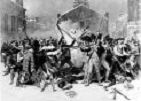



















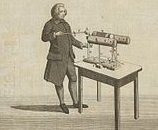

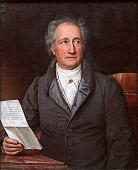





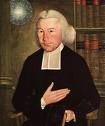


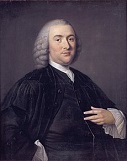



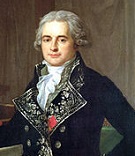
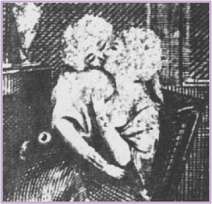



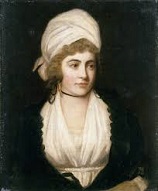
1770 Pop. of the Am. colonies: 2.5M; pop. of England: 7.5M, a ratio of 3 to 1; in 1700 the ratio was 20 to 1. The number of poor receiving public assistance in New York City rises to 5K from 250 in 1698. In this decade the Industrial Rev. begins in England, powered by steam. In this decade Britain goes from exporting more grain than it imports to an equal balance, going to a negative balance by 1790. In this decade the mean Jan. temp is 34.3F (1.3C), becoming a low point, after which a steady warming trend sees the mean Jan. temp rise to 40.5F (4.7C) in the 1920s. On Jan. 1 the foundation is laid for Ft. George in Bombay, India by Col. Keating on the site of Ft. Dongri; demolished in 1862. On Jan. 2 Benjamin Franklin (1706-90) pub. A Parable Humbly Inscribed to His Nemesis Lord Hillsborough, about a large English dog who picks on a lion cub, only to be smashed with "a stunning blow" when the lion grows up, leaving the dog "regretting that he had not rather secured its friendship than provoked its enmity" - like the Pilgrims and other English came to America because they loved the tyrannical English government and wanted to bring it with them? On Jan. 19 the Battle of Golden Hill, N.Y. between British soldiers and the Sons of Liberty in New York City results in the arrest of leader Alexander McDougall (1731-86) on Feb. 8. On Jan. 21 after not-yet-mad king (since 1760) George III (1738-1820) dismisses his coalition cabinet, PM (since Oct. 14, 1768) Augustus Fitzroy, 3rd duke of Grafton resigns, and on Jan. 28 his Tory cousin Frederick, Lord North (1732-92) becomes British PM (until Mar. 22, 1782), presiding over a cabinet of the King's Friends, where he becomes known for acquiescing in the king's views although he venerates the traditions of Parliament (worst British PM ever?); the king calls him his "sheet anchor"; the Tories, opposed to increasing the number of people who can vote, and famous for "rotten Boroughs" become the dominant force in the British House of Commons for the next 60 years; George III temporarily overthrows the system of cabinet govt. which had been established in the reign of his predecessor, just in time to bumble away America, causing Lord North to become known as "the minister who lost America". On Feb. 12 Boston atty. Josiah Quincy II (1744-75) ("Hyperion") pub. a letter in the Boston Gazette containing the soundbyte: "To break off all social intercourse with those whom commerce contaminates, whose luxuries poison, whose avarice is insatiable, and whose unnatural oppressions are not to be borne." On Feb. 23 English explorer Samuel Hearne (1745-92) begins his 3rd voyage to the Arctic Ocean (1st Nov. 6, 1769); in Sept. he begins his 3rd voyage (ends 1772). On Mar. 5, 1770 (Mon.) after a young apprentice insults redcoat "lobster back" sentry Pvt. Hugh White guarding the customs house, a fight breaks out, snowballs and rocks fly, the sentry calls for reinforcements, a firebell rings, and a Boston mob comes out in force; "Fire and be damned" the crowd taunts, hitting nine soldiers with missiles and knocking one down; after he rises to his feet, he fires into the crowd, and the other British soldiers respond, killing three and wounding eight, of whom two later die; the Boston Massacre (Incident on King Street) fans the fires of public support for rebellion; mulatto runaway-slave-turned-sailor Crispus Attucks (b. 1723) is the first killed, and as he is black he later becomes a superstar; on Mar. 13 nine soldiers and their commanding officer Capt. Thomas Preston (1722-98) are indicted for murder, and defended by John Adams (1735-1826) and Josiah Quincy II (Jr.); after the Boston Massacre Trial, on Dec. 5 Pvt. Hugh Montgomery and Matthew Kilroy (killer of Attucks) are convicted of manslaughter and branded on their right thumbs; Preston is acquitted next Mar. 6, and is spotted by John Adams in London in the 1780s; Adams later writes "The part I took in defence of Capt. Preston and the soldiers... was one of the best pieces of service I ever rendered my country. Judgment of death against those soldiers would have been a foul... stain upon this country"; Mass. acting gov. (since Aug. 2, 1769) Thomas Hutchinson (1711-80) is virtually forced by the Yankee rebels, led by firebrand Samuel Adams (1722-1803) (2nd cousin of John Adams) to order the removal of British troops from Boston, which he does after threatening high treason charges against anybody attacking them, saying "The loss we have sustained is greater than we can bear"; for drawing the line and showing how loyal he is (and saving British face?), Hutchinson becomes royal gov. of the Mass. colony in Nov. (until 1774). In Mar. by a cabinet vote of 5-4 Britain repeals all of the Townshend Acts except the Tea Tax in a pointed effort to maintain the principle that Parliament can tax the *!?! colonists if it bloody well wants; the news arrives in late Apr., and since most of the their tea is smuggled in from Holland, the non-importation movement in the colonies dies; emotions simmer down for the next two years, but most of the Grenville-Townshend laws remain in effect, and the British navy still patrols the coast, and there are occasional incidents. On Apr. 20 the Battle of Aspindza is a V for King (since 1744) Erekle II (Heraclius) (Erekli) (Irakly) II (1720-98) of Kartli and Kakheti in E Georgia over the Persians despite Russian Gen. Count Gottlieb Heinrich Tottleben (1715-73) betraying him, keeping E Georgia safe until 1795. The world's greatest blonde bimbo and dumbest peasant boob-king preside over the end of an age of absolute monarchy in France after starting out as the original Princess Di and Prince Charles? On Apr. 21 after her mother-from-hell Austrian Empress Maria Theresa negotiates a royal marriage to bring peace between Austria and France, her hates-to-read daughter, 14-y.-o. Marie Antoinette (1755-93) leaves Austria, spends two weeks in an uninhabited island in the Rhine Valley where she goes through a ritual of taking off all her Austrian clothes and replacing them with French ones, then on May 16 marries 15-y.-o. French dauphin Louis Auguste de Bourbon, Duc de Bery (1754-93) (future Louis XVI), changing her name from Maria Antonia and vowing to speak only French and to treat the peuple Francais, er, French people so well that they will think she's an angel; her lady-in-waiting is known as "first lady of the bedchamber"; sick of Louis XV's horde of mistresses, Antoinette is adored by the people of France for the first few years, but when she produces no children year after year while dancing and gambling every night they begin to whisper about her, causing porno pamphlets to begin circulating imagining her shameless sex escapades with everything that moves; anti-Austrian feeling doesn't help either; the groom proves at first uninterested, then unable to ejaculate, and it's not until an operation in 1777 (7.5 years) that she finally bears the first of two boys and two girls. On Apr. 29 Lt. (not Capt. yet) James Cook of the Endeavour lands on Possession Island, and claims the whole E coast of Australia for George III under the name New South Wales, incl. Botany Bay (originally Botanist Bay), which is named by his botanist companions Sir Joseph Banks (1743-1820) (English), Daniel Charles (Carlsson) Solander (1733-82) (Swedish), and Herman Diedrich Spoering (Spöring) Jr. (1773-71) (Finnish), who have a field day discovering new it's-two-for-Tuesday specimens; in June as the ship heads N along the coast, it runs aground on Endeavour Reef (on the Great Barrier Reef) S of modern-day Cooktown on Cape York Peninsula (northernmost town on the E coast of Australia), causing them to spend seven weeks repairing it, during which time the botanists get cooking, while Scottish Quaker artist Sydney Parkinson (1745-71) makes the first Drawings of Australian Aborigines, of the Guugu Yimithirr ("saltwater people") Tribe, who teach them 50 words, incl. my-little-girl-she's-a-runaway "gangurru" (kangaroo), which is seen by bug-eyed whites for the first time; later it turns out that the native was just saying "I don't understand" after the new arrivals pointed at a kangaroo; meanwhile, finding only a small native aborigine pop. of black, obviously non-human ape-men, and there being no U.N. yet to stop them, the Brits get bright ideas about white settlement; too bad, after arriving in Batavia in the East Indies, they take on tainted supplies, and Sporing dies of dysentery next Jan. 24, followed by Parkinson on Jan. 26 en route to Cape Town. On June 3 Father Junipero Serra founds the San Carlos Borromeo del Carmelo (Carmel) Mission in modern-day Carmel-by-the-Sea, Calif. (#2 of 21), which becomes his HQ in Alta Calif. until his 1784 death. On July 6 a Russian fleet from the Baltic Sea via the Strait of Gibraltar sinks the Turkish navy near Chios, Greece. In Sept. the first annual Santa Fe Fiesta in N.M. is held. On Oct. 18 the Treaty of Lochaber is signed in S.C., moving the Proclamation Line below the Ohio River further W; Benjamin Franklin and a number of British investors form a syndicate to establish the colony of Vandalia (colony) S of the Ohio River in present-day W. Va. and E Ky., but the Am. Rev. War causes the plans to be dropped. Maria Theresa appoints a commission to reform school education in Austria, led by Franz Friedrich Wilhelm von Furstenberg (1729-1810), who concentrates on getting rid of pesky Freethinkers, replacing them with Jesuit-approved teachers. On Nov. 14 6'4" Scottish explorer James Bruce (1730-94) discovers the source of the Blue Nile in Lake Tsana (Tzana) (Dembea) in the mountains of Ethiopia S of Gondar - the White Nile is on the W not the E of the Blue Nile, therefore in Africa white isn't right? In Nov. Egyptian sultan Ali Bey Al-Kabir occupies Damascus (until June 1771). Taksin the Great of Siam (1734-82) begins the Nguyen War against the Nguyen Lords over control of Cambodia (ends 1773). Let's get outback tonight, everybody needs a holiday? Danish court physician Count Johann Friedrich von Struensee (1737-72) begins hooking up with miserable Queen Caroline Matilda (1751-75) (sister of George III of England), and conspiring against her mad debauched hubby-cousin Christian VII, causing internat. gossip as he becomes supreme minister of Denmark next Mar. 20 (until Jan. 16, 1772), turning into a brilliant near-dictator with a lot of jealous people around. In this decade the Alonquin Kickapoo tribe of Wisc. moves S into the Wabash region (modern-day Ill. and Ind.). In this decade Paris becomes a world center of medical research and teaching (until the 1850s), with the Paris School professionalizing the medical profession, requiring teaching and research based in large hospitals and emphasizing sanitation and public health, led by French physician-chemist Jean-Antoine Chaptal (1756-1832), interior minister in 1801-4, who founds the Paris Hospital. In this decade dueling by gentlemen switches from swords to pistols in Britain, even though it is illegal; in 1777 the Irish Code Duello is allegedly adopted at the Clonmel Summer Assizes, becoming the std. dueling handbook; too bad; it was a lit. invention of Sir Jonath Barrington in 1827? In this decade turbans become a fashion craze for women in England, spreading to Paris by 1790 and becoming everyday wear by 1800. Early in this decade the Skoptzies ("castrated ones") religious sect in Russia arises in the Oryol region, practicing self-castration, and citing Matt. 19:12 and Luke 23:29; the "first purification" is to remove the testicles and scrotum, "the keys to Hell"; the second purification is to remove the penis, "the keys to the Abyss", and become "bearers of the imperial seal", "worthy of mounting white horses"; female members mutilate their genitalia and breasts but do not remove their ovaries - women have a higher IQ then men? By this year the town of Pittsburgh, Penn. (modern-day pop. 305K) (founded 1758) has 20 log houses, and a small village flourishes on the site of modern-day city Wheeling, W. Va. on the Ohio River (modern-day pop. 28K), founded during the winter of 1769-70 by Col. Ebenezer Zane (1747-1811) and his brothers, who erect Ft. Fincastle in 1774, renaming it Ft. Henry in 1776 in honor of Patrick Henry. The city of Casablanca (Sp. "white house") (Dar el-Beida) (modern-day pop. 4M) is founded in Morocco by Sultan Sidi Mohammed ben Abdallah after an earthquake levels the Portuguese installation of Casa Branca (Port. "white house") in 1755; by 1860 its pop. is only 8K. The city of Monterey, Calif. at the S end of Monterey Bay on Monterey Peninsula (modern-day pop. 27K) is founded as a Presido, becoming the first military establishment W of the Rocky Mts. and the capital of Alta Calif. After adopting the teachings of Welsh minister James Relly and getting excommunicated from George Whitefield's congregation, Alton, Hampshire-born John Murray (1741-1815) emigrates from England to Lacey Township, N.J. and begins preaching his Universalist doctrines, serving as a chaplain in the Am. Rev. army and becoming known as "the Father of Am. Universalism". Newport, R.I. Congregationalist minister (also a dabbler in Science) Ezra Stiles (1727-95) (who becomes pres. of Yale College in 1778) predicts in his diary that the English language will "become the vernacular Tongue of more people than any one Tongue on Earth, except the Chinese." The Vienna Waltz becomes fashionable in this decade after HRE Joseph II opens balls to the gen. public instead of nobles only. Austrian violinist-composer Karl (Carl) Ditters von Dittersdorf (1739-99) is created a knight of the Order of the Golden Spur, and given his title of nobility in 1772 by Empress Maria Theresa, becoming bigger than Haydn and Mozart for some time. 10-y.-o. Anna Green Winslow (1759-80), a descendant of Mayflower passengers John Winslow (elder brother of Edward Winslow) and Mary Chilton is sent from her home in Nova Scotia, Canada to Boston, Mass. to finishing school, writing a diary about her experiences, incl. sermons at Old South Church, covering from Nov. 18, 1771 to May 31, 1773, which is pub. in 1894 and becomes a hit. The anti-British newspaper Mass. Spy is founded in Boston, Mass. by Isaiah Thomas (1749-1831), who helps Paul Revere in his midnight ride in 1775. In this decade the sodomy-friendly Macaroni (Maccaroni) Craze sweeps London, named after the Italian dish brought back by the idle fops making their Grand Tour during the 1760s, after which "The word Macaroni then changed its meaning to that of a person who exceeded the ordinary bounds of fashion; and is now justly used as a term of reproach to all ranks of people, indifferently, who fall into this absurdity" (The Macaroni and Theatrical Mag.); macaronis like to wear fine sprigged fabric, tight clothes, oversized sword, tasseled walking stick, delicate shoes, and an enormous wig with tall front and a fat queue or club of hair behind, with a ridiculous litle hat that is so high up that it has to be removed at sword point, becoming the source of the allusion in "Yankee Doodle Dandy" to "stuck a feather in his cap and called it macaroni". Woods of Windsor begins in a pharmacy near Windsor Castle. The printing firm later called Eyre & Spottiswoode is founded by Scottish-born William Strahan (1715-85) as royal printer to the British king; Stahan engages in correspondence with fellow printer Benjamin Franklin; the firm later becomes the first to print the infamous "Protocols of the Learned Elders of Zion" in English in 1920 - there's nothing like family values? A 3K-carat opal is found in Hungary, the only place in Europe where they are found, becoming the largest in the world (until ?). The French use smuggled seeds to establish spice plantations in Madagascar and other places to break the Dutch monopoly; spice prices plummet, and the masses begin to enjoy them. The spelling "oboe" for hautbois or hoboy is adopted in English. Immanuel Kant becomes prof. of philosophy at Konigsberg U. Germany's golden boy of poetry Johann Wolfgang von Goethe (1749-1832) completes the first part of his play Faust while studying law in Strasbourg (until 1771), along with music, art, anatomy, and chemistry, and making friends with tight Friderike Brion, daughter of the pastor of Sesenheim, who becomes Gretchen in "Faust", and Johann Gottfried von Herder (1744-1803), who teaches him to ditch French classicism, embrace German nationalism, yet admire Shakespeare? Sir William Blackstone (1723-80), prof. of English law at Oxford U. from 1758-66 is appointed a justice of the Court of King's Bench, followed by the Court of Common Pleas. Oxford-educated scholar Sir William Jones (1746-94) becomes an Orientalist, and begins by translating The Life of Nadir Shah from Persian to French. Italian Jesuit scholar Girolamo Tiraboschi (1731-94) becomes librarian to Duke Francis III of Modena, going on to compile his 13-vol. Storia della Letteratura Italiana (1771-82), making him the first historian of Italian lit. After his theater in Hamburg folds, Gotthold Lessing gets a job as librarian for the duke of Wolfenbuttel (until 1781). Handel's Messiah is first performed in New York City. After the Frogs get over their hangup about imitating the English habit of taking meals in taverns, the Age of Restaurants begins in Paris, France, serving food at all hours from a menu; by 1780 there are 100+. The first Norwegian (brown) rats from N China are sighted in the New World, brought by ships; by 1800 they are found in every Euro country, and by modern times they are found in every continent except (knock on Norwegian wood?) Antarctica. Architecture: Old Manse, next to the North Bridge on Concord River in Concord, Mass. is built by Rev. William Emerson (-1776), grandfather of Ralph Waldo Emerson. Tryon Palace in N.C. (begun 1767) is finished, serving as the first permanent capitol of the colony, and after independence as N.C.'s first state capitol; too bad, in 1798 all but the two wings burn down. Inventions: On Apr. 15 the Pencil eraser is first described by English scientist Joseph Priestley made of a vegetable gum that he calls rubber; meanwhile English optician Edward Nairne (1726-1806) begins marketing erasers at 3 shillings/half-in. cube, making them popular as an alternative to bredcrumbs despite the high price; Nairne also patents a medical electrostatic generator, a chest microscope, and the first sucessful marine barometer. Silvery smooth Britannia Metal, containing 90%+ tin 90%, 5%+ antimony, and 2%+ copper is first made in Sheffield, England by James Vickers, who calls it Vickers White Metal. John Cuthbertson of Amsterdam invents an electric battery. Jesse Ramden (1735-1800) of England invents the screw-cutting lathe - 1-800-SCREW-U? Visiting cards are introduced in England. Steam trolleys are introduced in Paris. Science: In this decade the Chemical Rev. begins in Europe, led by French brain man ("the Father of Modern Chemistry") Antoine-Laurent de Lavoisier (1743-94). French scientist Jean-Charles de Borda (1733-99) introduces the consensus-based Borda Count for electing broadly acceptable candidates with points, which is adopted by the French Academy of Sciences until new pres. Napoleon orders his own system substituted in 1801. On Aug. 1 and Aug. 8 Dutch anatomist-anthropologist Petrus Camper (1722-89) gives two lectures to the Amsterdam Academy (Teken-akademie), proposing the use of facial angles (prognathism) to differentiate the races, calculating the angle between lines drawn from nostril to ear and forehead to upper jawbone, with the supreme white-blonde ancient Greeks having an angle of 100-90 deg., Euros 80 deg., Orientals 70 deg., blacks 70 deg., and orangutans 42-58 deg., equating them to human beauty, making fans of Etienne Geoffroy Saint-Hilaire and Paul Broca and helping feed scientific racism. English chemist Joseph Priestley (1733-1804) discovers sulfur dioxide, and coins the name "rubber" for the substance from an Am. tree that is good for wiping black lead pencil marks from paper - funny how a priest coins the term rubber? English writer and quack honey doctor John Hill (1716-75) introduces a viable method of obtaining specimens for microscopic study. Nonfiction: Edmund Burke (1729-97), Thoughts on the Cause of the Present Discontents. Morgan Edwards (1722-95), Materials Towards a History of the Baptists. Leonhard Euler (1707-83), Introduction to Algebra. Benjamin Franklin (1706-90), A Conversation Between an Englishman, A Scotman, and an American, on the Subject of Slavery; pub. anon.; "Perhaps you imagine the Negro a mild-tempered people. The majority are of a plotting disposition, dark, sullen, malicious, revengeful, and cruel in the highest degree. Your merchants and mariners who bring them from Africa, often find this in the insurrections of the slaves on board the ships , who kill all when they get the upper hand. Indeed, many of the villains in your own country, are sold off as punishment." Baron d'Holbach (1723-89), The System of Nature; or, The Laws of the Moral and Physical World; pub. under alias Jean-Baptiste de Mirabaud; denies the need for a Creator to explain Nature, and flaunts the ahead-of-his-time atheistic attitude that any and all belief in gods and/or religions is backward superstition; belief in gods started with primitive animism, which went bad when men created gods in their own image, progressively merging them into "a gigantic, exaggerated man, whom they will render illusory by dint of heaping toether incompatible qualities. Human being will never se in God, but a being of the human species, in whom they will strive to aggrandize the proportions, until they have formed a being totally inconceivable; "Nature is not a work; she has always been self-existent; it in her bosom that everything has operated; she is an immense laboratory, provided with the materials, and who makes the instruments of which she avails herself to act. All her words are the effect of her own energy, and of those agents or causes which she makes, which she contains, which she puts in action"; draws refutations by Frederick II the Great and Voltaire - the first open avowed atheist since? Immanuel Kant (1724-1804), De Mundi Sensibilie et Intelligibilis Forma et Principiis; his dissertation. William Kenrick (1725-79), An Account of the Automaton, or Perpetual Motion of Orffyreus; A Lecture on the Perpetual Motion. Pierre Samuel du Pont de Nemours (1739-1817), Observations sur les Effets du Commerce des Grains. Jean-Antoine Nollet (1700-70), L'Arte des Experiences. Jean-Jacques Rousseau (1712-78), The Confessions of Jean-Jacques Rousseau (autobio.); the first modern autobio.; the French authorities prohibit him from pub. it during his lifetime, but let him return to Paris to resume his old life as a musical copyist (until 1778). Samuel Auguste Tissot (1728-97), Traite de L'Epilepsie. John Woolman (1720-72), Considerations on True Harmony of Mankind. Music: Luigi Boccherini (1743-1805), Cello Concerto No. 9 in B flat major, G.482. Christoph Gluck (1714-87), Paride ed Elena (opera) (Vienna). Franz Josef Haydn (1732-1809), La Pescatrici (The Fisherwomen) (opera buffa) (Sept. 16) (Eszterhaza). Wolfgang Amadeus Mozart (1756-91), Mitridate, Re di Ponto (Mithridates, King of Pontus) (Milan); his first serious opera, composed at age 14. Art: Thomas Gainsborough (1727-88), The Blue Boy; Jonathan Buttrell, son of a wealthy hardware merchant. Benjamin West (1738-1820), The Death of Gen. Wolfe; clones it next year for George III. Plays: Johannes Ewald (1743-81), Rolf Krage (tragedy); from a legend by Saxo Grammaticus; first Danish tragedy. Poetry: Oliver Goldsmith (1730-74), The Deserted Village; about industralization and wealth concentration changing rural life; a transitional English work between Neoclassicism and Romanticism; "Sweet Auburn! loveliest village of the plain"; "There, in his noisy mansion, skill'd to rule,/ The village master taught his little school./ A man severe he was, and stern to view;/ I knew him well, and every truant knew;/ Well had the boding tremblers learn'd to trace/ The day's disasters in his morning face;.../ Yet he was kind, or, if severe in aught,/ The love he bore to learning was in fault;/ The village all declar'd how much he knew;/ 'Twas certain he could write, and cypher too;/ ... And still they gazed, and still the wonder grew,/ That one small head could carry all he knew"; "Even now the devastation is begun,/ And half the business of destruction done;/ Eve now, methinks, as pondering here I stand,/ I see the rural Virtues leave the land". Christoph Martin Wieland (1733-1813), Combabus: Eine Erzahlung (Erzählung) (Leipzig). Births: Polish statesman Prince Adam Jerzy Czartoryski (d. 1861) on Jan. 14 in Warsaw. French geologist-paleontologist Alexandre Brongniart (d. 1847) on Feb. 5 in Paris; pioneers use of fossils to identify ages and layers of sedimentary rock. French gen. Nicolas Francois Conroux, Baron de Pepinville (Pépinville) (d. 1813) on Feb. 1 in Douai. French marshal Louis Gabriel Suchet, 1st Duke of Albufera (d'Albuféra) (d. 1826) on Mar. 2 in Lyon; silk manufacturer father. English Tory politician William Huskisson (d. 1830) on Mar. 11 in Birch Moreton Court, Warwickshire. German Sturm und Drang free verse "Der Blinde Sanger", "An die Hoffnung" poet Johann Christian Friedrich Holderlin (Hölderlin) (d. 1843) on Mar. 20 in Lauffen on the Neckar; studies to be a clergyman at Tubingen U. but bails out; becomes librarian for the landgrave of Hesse-Homburg in 1804, then goes insane in 1807 - too much lauffen on the neckar? Haitian pres. #1 (1806-18) (black) Alexandre Sabes Petion (Sabès Pétion) (Anne Alexandre Sabes) (d. 1818) on Apr. 2 in Port-au-Prince; French father, mulatto mother; educated in France. English "Intimations of Immortality", "Lyrical Ballads", "The Prelude" Romantic poet laureate (1843-) William Wordsworth (d. 1850) on Apr. 7 in Cockermouth, Cumberland in the Lake District of NW England; educated at St. John's College, Cambridge U.; friend of Samuel Taylor Coleridge (1772-1834), who with Robert Southey (1774-1843) form the Lake Poets. German thermoelectric effect physicist Thomas Johann Seebeck (d. 1831) on Apr. 9 in Reval (Tallinn), Estonia; born to a wealthy merchant family; gets a medical degree from the U. of Gottingen in 1802, then goes into physics. British statesman and PM (1827) George Canning (d. 1827) on Apr. 11 in Marylebone, London. Am. Dem.-Repub. politician-jurist and U.S. Navy secy. (1834-8) Mahlon Dickerson (d. 1853) on Apr. 17 in Hanover Township, N.J.; educated at Princeton U. Canadian explorer-mapmaker ("the Stargazer") David Thompson (d. 1857) on Apr. 30 in Westminster, London; Welsh parents; emigrates to Canada in 1784. French portrait painter Baron Francois Pascal Simon Gerard (Gérard) (d. 1837) on May 4 in Rome, Italy; Italian mother. French marshal Louis Nicolas d'Avout (Davout) (Davouts), Prince d'Eckmuhl (d'Eckmühl) (d. 1823) on May 10 in Annoux (Yonne); youngest French marshal (1804); never defeated. British princess Elizabeth, Langravine of Hesse-Homburg (d. 1840) on May 22 in Buckingham House, London; 7th child and 3rd daughter of George III and Charlotte of Mecklenburg. British PM (1812-27) Robert Banks Jenkinson, 2nd Earl of Liverpool (d. 1828) on June 7 in London; son of Charles Jenkinson, 1st earl of Liverpool (1729-1808) and Amelia Watts; educated at Christ Church, Oxford U. Argentine gen. Juan Antonio Alvarez (Álvarez) de Arenales (d. 1831) on June 13 in Reinoso, Spain. Am. Lewis and Clark explorer William Clark (d. 1838) on Aug. 1 in Caroline County, Va.; partner of Meriwether Lewis (1774-1909). Prussian king #5 (1797-1840) Frederick William III (d. 1840) on Aug. 3 in Potsdam; son of Frederick William II (1744-97) and Wilhelmine Enke, countess of Lichtenau; father of Frederick William IV (1795-1861). French cavalry gen. Francois Etienne (François Étienne) de Kellermann, 2nd Duc de Valmy (d. 1835) on Aug. 4 in Metz; son of Francois Christophe de Kellermann, 1st Duc de Valmy (1735-1820); father of Francois Christophe Edmond de Kellermann (1802-68). German absolutist Zeitgeist philosopher (#1 philosopher of the early 19th cent.) ("the Protestant Aquinas" - Karl Barth) Georg Wilhelm Friedrich Hegel (d. 1831) on Aug. 27 in Stuttgart, Wurttemberg; graduates from the U. of Tubingen in 1793, where his teachers remark on his deficient knowledge of philosophy. Am. Willard Hotel wealthy politician-entrepreneur Col. John Tayloe III (d. 1828) on Sept. 2 in Mount Airy, Richmond County, Va.; son of John Tayloe II (1721-79); grandson of John Tayloe I (1688-1747); great-grandson of Col. William Tayloe (1645-1710). British Gen. George Ramsay, 9th Earl of Dalhousie (d. 1838) on Oct. 23 in Midlothian, Scotland; gov. of British Canada 1819-28. French gen. Dominique Joseph Rene Vandamme (d. 1830) on Nov. 5 in Cassel. Danish-Icelandic "Christus" sculptor Albert Bertel Thorvaldsen (d. 1844) (pr. BAIR-tuhl TOOR-vahl-suhn) on Nov. 19 in Copenhagen; Icelandic father; arrives in Rome on a royal scholarship on Mar. 8, 1797, causing him to celebrate it as his "Roman birthday", and stays until 1837. Am. mayor #1 of Boston (1822-3) John Phillips (d. 1823) on Nov. 26; father of Wendell Phillips (1811-84). British (Irish) Lt. Gen. Andrew Thomas Blayney, 11th Baron Blayney (d. 1834) on Nov. 30 in Castle Blayney, County Monaghan, Ireland. German "Ode to Joy" composer (Freemason) ("Der Grosse Komponist") Ludwig van Beethoven (Ger. "beet garden") (d. 1827) on Dec. 17 [Sagittarius] in Bonn at No. 20 Bonngasse; first great master of Romantic music; baptized at St. Remigius Catholic Church; becomes a prof. organist at age 11; pours ice water over his head to stimulate his brain? Spanish gen. Francisco Ballesteros (d. 1832) in Zaragoza. French Gen. Pierre Jacques Etienne Cambronne (d. 1842) on Dec. 26 in Nantes. Danish composer Jean Baptiste Edouard Dupuy (d. 1822). Scottish "The Private Memoirs and Confessions of a Justified Sinner" poet ("the Ettrick Shepherd") James Hogg (d. 1835) in Ettrick, Selkirkshire. French rev. babe Lucile Duplessis (d. 1794); wife (1790-) of Camille Desmoulins; believes she will share the fate of Mary Stuart, Queen of Scots and die young and tragically. Am. "Hail Columbia" writer-atty. Joseph Hopkinson (d. 1842) in Philadelphia, Penn.; son of DOI signer Francis Hopkinson (1737-91). Am. Cherokee leader Sequoyah (Sequoya) (George Guess or Gist) (d. 1843) in Tuskegee (Knoxville, Tenn.); creator of the Cherokee alphabet. English Pears soap inventor Andrew Pears (d. 1845) in Mevagissey, Cornwall. Am. literate slave (black Fulani) (Muslim) Omar ibn Said (d. 1864) in Futa Tooro, Senegal; captured and sent to the U.S. in 1807. Deaths: Flemish-born English sculptor John Michael Rysbrack (b. 1684) on Jan. 8 in London. Flemish sculptor Peter Scheemakers (b. 1691) in Antwerp. British lt. gov. of Virginia Robert Dinwiddie (b. 1692) on July 27 in Clifton; nameske of Dinwiddie County, Va. Scottish mathematician James Stirling (b. 1692) on Dec. 5. Italian composer-violinist Giuseppe Tartini (b. 1692) on Feb. 26 in Clifton, Bristol. Italian Venetian painter Giovanni Battista Tiepolo (b. 1696) on Mar. 27 in Madrid, Spain. Am. N.H. gov. #1 Benning Wentworth (b. 1696). French physicist Jean-Antoine Nollet (b. 1700) on Apr. 25 in Paris. French painter Francois Boucher (b. 1703) on May 30; leaves seven portraits of Madame de Pompadour dressed in blue. English composer Charles Avison (b. 1709) on May 9/10 in Newcastle-upon-Tyne. French ballet dancer Marie de Camargo (b. 1710). British PM (1763-5) George Grenville (b. 1712) in Nov. English Methodist evangelist George Whitefield (b. 1714); last words: "Be born again"? Japanese painter Suzuki Harunobu (b. 1718). English poet Mark Akenside (b. 1721) on June 23. British lt.-gen. John Manners, marquess of Grany (b. 1721) on Oct. 18 in Scarorough, North Yorkshire. Japanese artist Suzuki Harunobu (b. 1724). Italian composer Gian Francesco de Majo (b. 1732) on Nov. 17. British gov. of Bengal (1759-64) Henry Vansittart (b. 1732) off Cape Town (dies at sea). English teen poet Thomas Chatterton (b. 1752) on Aug. 24 in London (suicide); makes him a big hero with Romantics, causing Henry Wallis to paint The Death of Thomas Chatterton in 1856.



























1771 On Jan. 22 Spain cedes the Falkland-Malvinas Islands to Britain - convenient place to retreat to when one can't round the Horn? In Jan. Benjamin Franklin calls on his old friend Lord Hillsborough to present his new credentials as Mass. agent to London, but the latter refuses to recognize them, and Franklin splits, with the parting shot, "I have not the least conception that an agent at present can be of any use to the colonies" - God save that poor little stooge? On Feb. 12 Adolf Fredrik (Adolphus Frederick) (b. 1710) dies after eating himself to death (pass the semla?), and his eldest son Gustavus (Gustav) (Gustaf) III (1746-92) becomes king of Sweden (until Mar. 29, 1792) after a coup at Stockholms Castle (founded 1754). In Mar. true to English form, the matter of whether the effeminate but expert swordsman, former spy, feminist lit. collector, professed lifelong virgin (yet rumored to have fathered George IV) and diplomat Chevalier D'Eon (1728-1810) (born in Tonerre, France) is a male or a female dominates the news in London, and a betting pool opens with 3-2 odds that he/she is a male; it climbs to 10-1 for male, but by 1776 reverses to 7-4 for female; a total of £280K is eventually wagered. The opening salvo of the Am. Rev.? In the spring N.C. gov. (since 1765) William Tryon (1729-88) leads 1.2K militiamen into the Piedmont to battle 2K Regulators in the Battle of Alamance, which kills eight on each side; one Regulator is executed on the battlefield, twelve more convicted of treason and six hanged; Tryon's men force 6.5K Piedmont settlers in the backcountry to sign an oath of allegiance; later N.C. troops stand fast in an Am. Rev. battle, they gain the nickname Tarheels from Gen. Henry Lee. On May 23 emperor (since 1771) Go-Sakuramachi (b. 1740) abdicates in favor of her 13-y.-o. nephew Hidehito (eldest son of Momozono), who becomes Go-Momozono (1758-79) (Jap. "Momozono II"), Japanese Yamato emperor #118 (until Dec. 16, 1779); too bad, he's sickly, and dies at age 22 in 1779. On June 2 Russia completes its conquest of the Crimea. In June after his troops are routed in the Hula Valley Damascus gov. Muhammad al-Azm gets lucky when Ali Bey al-Kabir's lt. Abu al-Dhahab switches sides and returns with his troops to Egypt, causing Ali Bey to flee to Acre under the protection of Sheikh Daher el-Omar, who with Russian help keeps the Ottomans out of the Galilee and extends his rule to Sidon in the N and Jaffa in the S. On July 12 Lt. James Cook returns from his first South Pacific voyage, and the news makes him and his botanists famous. On July 16 after discovering copper in the Coppermine River Basin, in Canada, English explorer Samuel Hearne goes beddy bye, and at midnight his Chipewyan guide Matonabbee and his warriors sneak up on some unspecting Inuits and massacre them near Kugluktuk, Nunavut, becoming known as the Massacre of Bloody Falls - bloody, bloody and all that rot? On Sept. 8 (Feast of the Birth of the Virgin Mary) Father Junipero Serra founds the San Antonio de Padua Mission in Calif. (#3), followed on Sept. 8 by the Mission San Gabriel Arcangel ("Godfather of the Pueblo of Los Angeles") (#4 of 21), with Cordoba, Spain-born missionary-architect Antonio Cruzado designing capped buttresses and tall narrow windows, showing a strong Moorish influence. On Oct. 27 English-born Methodist Episcopal Church bishop Francis Asbury (1745-1816) lands in Philadelphia, Penn. to organize the grand total of 316 Methodists in the Am. colonies; during the Am. Rev. War he is imprisoned for two years on suspicion of royalist loyalties; by the end of the war the church has 14K members and 83 ministers. Scottish-born John Murray, 4th Earl of Dunmore (1730-1809), member of the British House of Lords in 1761-70, and gov. of New York in 1770 becomes British gov. of Va. (until 1776) - just in time to become the royal arse who done more dumb things than any before him? The British navy begins construction of its first screw-powered steam warship, HMS Ark Royal, named after Sir Walter Raleigh's ship Ark Royal, built in 1587. Ablai Khan (1711-81) unites the three main tribes of Kazakhs and is elected khan. Francisco de Goya travels to Italy (until 1773), competing for a prize at the Parma Academy and spending several mo. in Rome. Wolfgang Amadeus Mozart and his dad return to Salzburg, and the new prince-archbishop of Salzburg (until 1803) Hieronymus, Count von Colloredo (1732-1812) refuses to patronize him, leaving him with his largely honorary appointment as concertmeister, which lets him compose music but not save money. German-Bohemian violinist-composer Carl Stamitz (1745-1801), son of Mannheim school composer Johann Stamitz becomes court composer and conductor in Paris for Duke Louis of Noialles. The first Dead Poet's Society? Yellowtailed cockatoos, er, lovers of Romantic poetry at Gottingen U. in Germany organize the Poetic League of Gottingen, but it breaks up in 1775 after several members graduate - get married and go bourgeoise? The Smeatonian Club for civil engineers in London is founded, named after John Smeaton (1724-92). French mechanic Nicolas-Joseph Cugnot (1725-1804) crashes his 2nd steam-powered fardier a vapeur into the stone wall of the Paris arsenal, becoming the first automobile accident? The London Coffee House is founded in Fell's Point, Baltimore, Md., becoming the only pre-rev. coffeehouse in Am., becoming a hotbed of rev. activity. Architecture: The Assembly Rooms in Bath, England, designed by John Wood the Younger (1728-82) for fashionable Georgian society open. New York Hospital is founded; its first facility is gutted by fire on Feb. 28, 1775 before being finished; a second opens in 1776. Notre Dame de Bien Secours Chapel in Montreal, Canada is built. Wakefield (Joel Lane) House in Raleigh, N.C. (begun 1760) is built by "Father of Raleigh" Joel Lane (1740-95). Inventions: Sir Richard Arkwright (1732-92) opens the first spinning mill in Cromford, England. Jean-Jacques Perret (1730-84) of France invents a safer shaving razor - could place to test it? Science: Italian scientist Luigi Galvani (1737-98) discovers the electrical nature of nervous impulses. French astronomer Joseph Jerome Lefrancais de Lalande (1732-1807) uses the Transits of Venus of 1761 and 1769 to calculate the astronomical unit (A.U.) to 1% accuracy. Swabian-born Jesuit U. of Vienna prof. Franz Friedrich Anton Mesmer (1734-1815) Swabian-born Jesuit U. of Vienna prof. Franz Friedrich Anton Mesmer (1734-1815) uses magnetic plates to cure diseases; in 1774 he invents animal magnetism (mesmerism) as the cure-all, hypnosis for your health, which develops a large following in about 1780-1850, with some influence until 1900. Charles Messier (1730-1817) becomes the official astronomer of the French navy. German-Swedish chemist Karl (Carl) Wilhelm Scheele (1742-86) discovers the halogen element Fluorine (Lat. "fluo" = to flow) (F) (#9). Nonfiction: Jean d'Anville (1697-1782), Memoire et Abrege (Abrégé) de Geographie Ancienne et Generale; Etates Formes en Europe Apres la Chute de l'Empire Romain en Occident; maps of pre-Christian civilization, raising the standards. Jean-Sylvain Bailly (1736-93), On the Inequalities of the Light of the Satellites of Jupiter. Jacques-Francois Blondel (1705-74), Cours d'Architecture ou Traite de la Decoration, Distribution et Constructions des Batiments Contenant les Lecons Donnees en 1750, et les Annees Suivants (9 vols.) (1771-7); supersedes the 1675 work of his grandfather Francois "the Great" Blondel (1618-86). Louis Antoine de Bougainville (1729-1811), Voyage Autour du Monde (Voyage Around the World) (1771-2). Charles Burney (1726-1814), The Present State of Music in France and Italy. William Eden, 1st Baron Auckland (1745-1814), Principles of Penal Law. John Eyre, Observations Upon Prophecies Relating to the Restoration of the Jews. John William Fletcher (1729-85), Five Checks to Antinomianism. Egidio Forcellini (1688-1768) and Jacopo Facciolati (1682-1769), Totus Latinitatus Lexicon; Latin lexicon, with every word illustrated by classical writers. Benjamin Franklin (1706-90), Autobiography (Memoires de la Vie Privee) (Paris) (1771-90); English trans. pub. in 1793. John Hunter (1728-93), A Treatise on the Natural History of the Human Teeth; anatomy of the jaws and teeth; coins the terms "(bi)cuspids", "incisors", and "molars", founding modern dentistry. Peter Simon Pallas (1741-1811), Journey Through Various Provinces of the Russian Empire (Reise durch Verschiedene Provinzen des Russischen Reichs) (3 vols.) (1771-6); returns to St. Petersburg in 1774, his health ruined by his travels; advances a theory of mountain building based on his study of the Ural and Altai ranges, where he traces a temporal sequence of rocks from the center of a range to its flanks. Rev. Richard Price (1723-91), Appeal to the Public on the National Debt. Girolamo Tiraboschi (1731-91), Storia della Letteratura Italiana (13 vols.) (1771-82); first history of Italian lit. Horace Walpole (1717-97), Anecdotes of Painting in England With Some Account of the Principal Artists (3 vols.). Music: Andre Gretry (1741-1813), Zemire et Azor (comic opera) (Nov. 9) (Fontainebleau); libretto by Jean Francois Marmontel; his #2 masterpiece, used by Mozart as a model for "The Magic Flute"; incl. La Fauvette (Quand la Fauvette, avec ses Petits), in which a coloratura soprano imitates birdsong. Franz Josef Haydn (1732-1809), String Quartets, No. 17-22 (Op. 17). Wilhelm Heinse (1749-1803), Sinngedichte. Johann Gottfried Muthel (1728-88), Duetto fur 2 Clavier, 2 Flugel, oder 2 Fortepiano; first to use the term "fortepiano" (pianoforte). Nicola Piccini (1728-1800), Le Finte Gemelle (Rome). Art: Jean-Baptiste-Simeon Chardin (1699-1779), Self-Portrait; painted in pastels, which he switched to due to failing eyesight. Domenico Corvi (1721-1803), Triumph of Apollo (fresco) (Palazzo Borghese). Jean-Honore Fragonard (1732-1806), The Confession of Love; first of four Progress (Romance) of Love (and Youth) murals (1771-3) for Louis XV's mistress Madame du Barry at Louveciennes, incl. The Pursuit, The Lover Crowned, and The Abandonment; too bad, she rejects them. Francisco de Goya (1746-1828), Fresco Decoration of the Church of the Virgin in El Pilar, Saragossa; his first major commission. Claude-Joseph Vernet (1714-89), Clair de Lune. Joseph Wright (1734-97), The Alchymist in Search of the Philosopher's Stone; the discovery of phosphorus by Hennig Brand in 1669 by boiling down urine; only a cent. after the fact, already scientists are portrayed as super cats? Johann Zoffany (1733-1810), George III, Queen Charlotte and Their Six Eldest Children; six of their eventual 15 children: Prince George Augustus Frederick (George IV) (1762-1830), Prince Frederick, "the Grand Old Duke of York" and Albany (1763-1827), Prince William (William IV) (1765-1837), Queen Charlotte of Wurttemburg (1766-1828), Prince Edward Augustus, Duke of Kent and Strathern (1767-1820) (father of Queen Victoria by Victoria of Saxe-Coburg), Princess Augusta Sophia (1768-1840) (spinster); other royal brats incl. Princess Elizabeth (1770-1840), Ernest Augustus I, Duke of Cumberland and Teviotdale and King of Hanover (1771-1851), Prince Augustus Frederick, Duke of Sussex (1773-1843), Prince Adolphus, 1st Duke of Cambridge (1774-1850), Princess Mary, Duchess of Gloucester and Edinburgh (1776-1857), Princess Sophia (1777-1848), Prince Octavius (1779-83), Prince Alfred (1780-2), and Princess Amelia (1783-1810). Plays: Carlo Goldoni (1707-93), Le Bourru Bienfaisant (The Benevolent Curmudgeon) (comedy); composed for the wedding of Louis XVI and Marie Antoinette. Poetry: James Beattie (1735-1803), The Minstrel; or, The Progress of Genius (1771-4); "This sapient age disclaims all classic lore;/ Else I should here in cunning phrase display,/ How forth The Minstrel far'd in days of yore,/ Right glad of heart, though homely in array;/ His waving locks and beard all hoary grey;/ And, from his bending shoulder, decent hung/ His harp, the sole companion of his way,/ Which to the whistling wind responsive rung:/ And ever as he went some merry lay he sung." Matthias Claudius (1740-1815), Wandsbecker Bote. Rev. Timothy Dwight (1752-1817), America: Or, A Poem on the Settlement of the British Colonies; future pres. of Yale College promotes the view of America as history's "last universal empire"; "America's bright realms arose to view,/ And the old world rejoic'd to see the new." Johannes Ewald (1743-81), Miscellanies. Friedrich Klopstock (1724-1803), Odes. Henry Mackenzie (1745-1831), The Pursuits of Happiness (satirical). Christoph Martin Wieland (1733-1813), Der Neue Amadis. Novels: Albrecht von Haller (1708-77), Usong. Henry Mackenzie (1745-1831), The Man of Feeling (first novel); pub. anon., it becomes a hit, after which he has to fight to prove he wrote it. Nicolas-Edme Restif (1734-1806), La Vie de Mon Père. Tobias Smollett (1721-71), The Expedition of Humphry Clinker (June 17) (London) (last and best?); title char. is an ostler (stableman at an inn), who is hired by Welsh squire Matthew Bramble on an expedition through England, where they meet with Scottish Lt. Lismahago; Matthew's sister Tabitha, their niece and nephew Jery and Lydia Melford, Tabitha's maid (Humphrey's babe) Winifred Jenkins, and Lydia's suitor Wilson. Births: French gen. Jean Louis Ebenezer Reynier (d. 1814) on Jan. 14 in Lausanne. British naval surgeon-explorer (of Australia) George Bass (d. 1803) on Jan. 30 in Aswarby (near Sleaford), Lancashire. Am. "Wieland", "Ormond", "Edgar Huntly" Gothic novelist Charles Brockden Brown (d. 1810) on Feb. 22 in Philadelphia, Penn.; first prof. writer in the U.S. Italian Neoclassical Academic painter Vincenzo Camuccini (d. 1844) on Feb. 22 in Rome; pupil of Domenico Corvi (1721-1803). British lt. gen. Sir Henry Clinton (Jr.) (d. 1829) on Mar. 9; son of Gen. Sir Henry Clinton (1738-95); brother of Gen. Sir William Henry Clinton (1769-1846); grandson of Adm. George Clinton (1686-1761). French "Battle of Aboukir" neoclassical historical painter Baron Antoine-Jean Gros (d. 1835) on Mar. 16 in Paris. English "Mother Goose", "The Jew and the Doctor" musician-dramatist Thomas John Dibdin (d. 1841) on Mar. 21; son of Charles Dibdin (1745-1814) and Harriett Pitt (1748-1814); brother of Charles Didbin the Younger (1768-1833). German "Aballino, der Grosse Bandit" novelist Johann Heinrich Daniel Zschokke (d. 1848) on Mar. 22 in Magdeburg, Prussia. British engineer-inventor Richard Trevithick (d. 1833) on Apr. 13 in Tregajorran, Cornwall. Austrian field marshal Karl Philipp (Charles Philip), Prince of Schwarzenberg (d. 1820) on Apr. 18/19 in Vienna; father of Friedrich, prince of Schwarzenberg (1800-70), Karl II Philipp (1802-58), and Edmund Leopold Friedrich (1803-73); uncle of Felix, prince of Schwarzenberg (1800-52) and Cardinal Friedrich Johann Josef Coelestin (1809-85); ancestor of Karel VII Schwarzenberg (1937-). French "Agamemnon" poet-dramatist Louis-Jean Nepomucene (Népomucène) Lemercier (d. 1840) on Apr. 20 in Paris. British industrialist, philanthropist, and first utopian socialist Robert Owen (d. 1858) on May 14 in Newtown, Montgomeryshire, Wales; starts out in a draper's shop at age 10, and in 1799 purchases the New Lanark Mills in Manchester. French Gen. Louis Henri (One-Hand) (Maneta) Loison (d. 1816) n May 16 in Damvillers. English writer and Anglican cleric Sydney Smith (d. 1845) on June 3 in Woodford, Essex. German king (1837-51) Ernest Augustus I of Hanover (d. 1851) on June 5 in Buckingham House, London; 5th son and 8th child of George III and Charlotte of Mecklenburg. French "Gergonne Point" mathematician Joseph Diaz Gergonne (d. 1859) on June 19 in Nancy; coiner of the math term "polar". Scottish Red River Colony philanthropist Thomas Douglas, 5th Earl of Selkirk (d. 1820) on June 20 in St. Mary's Isle, Kirkcudbrightshire (Dumfries and Galloway). Am. chemical industralist Éleuthère Irénée (Eleuthere Irenee) du Pont (d. 1834) (pr. ae-luh-TER ae-ray-NAY) on June 24 in Paris, France; youngest son of Pierre Samuel du Pont de Nemours (1739-1817); brother of Victor Marie du Pont (1767-1827); becomes a pupil of Antoine-Laurent Lavoisier in 1787, then learns to manufacture gunpowder at the royal powder mills in Essonne, where he is groomed as Lavoisier's replacement, but when he gets the axe he decides to follow his family to the U.S. in 1799. Am. Mormon patriarch (Freemason) Joseph Smith Sr. (d. 1840) on July 12 in Topfield, Mass.; husband (1796-) of Lucy Mack Smith (1775-1856); father of Alvin Smith (1798-1823), Samuel Harrison Smith (1808-44), William B. Smith (1811-93), Don Carlos Smith (1816-41), and Mormon Church founder Joseph Smith Jr. (1805-44). Scottish "Ivanhoe", "Rob Roy" novelist-poet (Freemason) Sir Walter Scott (d. 1832) on Aug. 15 in Edinburgh; first major historical novelist?; studies law at Edinburgh U. under a nephew of David Hume - well look at you, the suit, the shoes? English machine tool inventor ("Father of Machine Tool Technology") Henry Maudslay (d. 1831) on Aug. 22 in Woolwich, London. Austrian gen. (epileptic) archduke Charles, Duke of Teschen (d. 1847) on Sept. 5 in Florence, Italy; son of HRE Leopold II (1747-92) and Maria Luisa (1745-92); younger brother of HRE Francis II. Scottish explorer-surgeon Mungo Park (d. 1806) on Sept. 11 in Foulshiels, Selkirkshire. Russian statesman-gen. Nikolai Nikolaevich Raevsky (Rayevsky) (d. 1829) on Sept. 14 (Sept. 25 Old Style) in St. Petersburg; of Polish descent. Japanese Yamato emperor #119 (1780-1817) Kokaku (Tomohito) (d. 1840) on Sept. 23; 6th son of Prince Kan'in-no-miya Sukehoto; grandson of Higashiyama (1675-1710); founder of the imperial branch leading to Akihito. French musician Alexandre-Etienne Choron (d. 1834) on Oct. 21 in Caen; not to be confused with chef Alexandre Etienne Choron (1837-1924). French gen. Jean-Andoche Junot, 1st Duke of Abrantes (Abrantès) (d. 1813) on Oct. 23 in Bussy-le-Grand, Cote-d'Or. German lithography inventor Johann Alois (Aloys Johann Nepomuk Franz) Senefelder (d. 1834) on Nov. 6 in Prague. French diplomat-politician-soldier Horace Francois Sebastiani de La Porta (Horace François Bastien Sébastiani de La Porta) (d. 1851) on Nov. 11 in La Porta, Haute-Corse; father of Francoise, duchess de Choseul-Praslin (1807-47). French physician (father of histology) Xavier Marie-Francois Bichat (d. 1802) on Nov. 14 in Thoirette (Jura). U.S. Supreme Court justice #14 (1804-34) William Johnson (d. 1834) on Dec. 27 in Charleston, S.C.; educated at Princeton U. English poet Robert Lovell (d. 1796) in Bristol; wealthy Quaker parents. Persian Qajar shah #2 (1797-1834) Fath Ali Shah Qajar (Baba Khan) (d. 1834); nephew of Agha Mohammad Khan. Scottish physician-explorer (in South Africa) William Somerville (d. 1860) in Cambusnethan; husband (1812-) of Mary Somverville (1780-1872). Deaths: English queen Anne Hyde (b. 1637). French scientist Jean-Jacques D'Ortous De Mairan (b. 1678) on Feb. 20 in Paris (pneumonia). Italian anatomist Giovanni Battista Morgagni (b. 1682) on Dec. 6. English horticulturist Philip Miller (b. 1691). British gov. of Mass. (1741-59) William Shirley (b. 1694) on Mar. 24. English astronomer John Bevis (b. 1695) on Nov. 6. French Pitot Tube physicist Henri Pitot (b. 1695) on Dec. 27. English Baptist minister John Gill (b. 1697) on Oct. 14 in Southwark. Italian architect Bartolomeo Rastrelli (b. 1700) in Russia. Canadian Grey Nuns founder St. Marguerite d'Youville (b. 1701). French gen. Louis de Bourbon-Conde, comte de Clermont (b. 1709) on June 16. Swedish king (1751-71) Adolf Frederick I (b. 1710) on Feb. 12 in Hamburg; croaks after a gut-busting meal of lobster, caviar, sauerkraut, kippers, champagne, plus 14 servings of semla in hot milk, causing him to become known as "the king who ate himself to death". French hedonist philosopher Claude Adrien Helvetius (b. 1715). English Board of Trade and Plantations pres. George Montagu Dunk (b. 1716). English poet Thomas Gray (b. 1716) on July 30 in Cambridge; buried beside his mother in the country churchyard in Stoke Poges: "The language of the age is never the language of poetry." Scottish-born Am. theologian Robert Sanderman (b. 1718) on Apr. 2 in Danbury, Conn. Scottish picaresque novelist Tobias Smollett (b. 1721) on Sept. 17 in Leghorn/Livorno. English poet Christopher Smart (b. 1722). Finnish botanist Herman Spoering Jr. (b. 1733); dies at sea of food poisoning (dysentery).

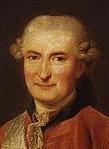












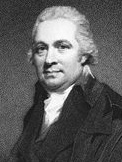

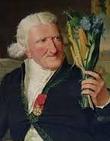


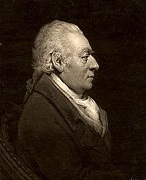
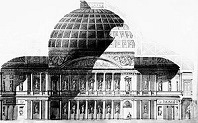
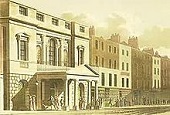
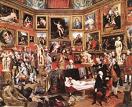
1772 On Jan. 1 Thomas Jefferson marries 22-y.-o. widow (1768) Martha Wayles Skelton (1748-82) (a distant cousin); they have 1 son and 5 daughters, incl. Martha Washington Jefferson "Patsy" Randolph (1772-1836). On Jan. 8 after a palace revolt deposes German-born Danish strudel dictator regent Count Johann Friedrich von Struensee (b. 1737), Frederick, Hereditary Prince of Denmark (1753-1805), father of Christian VIII is made regent of Denmark (until Apr. 14, 1784), with the real power held by Queen Juliana Maria, aided by Ove Hoegh-Guldberg (Høegh-Guldberg) (Guldberg) (1731-1808), who institutes the period of the Guldberg Rule, marked by peace and prosperity; on Apr. 28 Struensee is beheaded, and Queen Caroline Matilda is divorced from Christian VII after confessing her guilt, then imprisoned in Kronberg Castle, followed by Celle Castle in Hanover until she croaks, leaving a son who becomes Frederick VI - she's gotta be somebody's babe, she's so fine? On Jan. 26-29 the Washington-Jefferson Snowstorm hits Va., dropping its greatest snow in the District of Columbia area, 3 ft., becoming the most seen since Euro settlement; both George Washington and Thomas Jefferson record it in their weather diaries after Jefferson and his new bride are caught in it, requiring them to abandon their carriage at Blenheim 8 mi. from Monticello, and complete the journey on horseback, arriving at a cold dark house after the servants had retired for the night. In Mar. England sends the armed revenue cutter Gaspee (Gaspée) to blockade Rhode Island ports and patrol for smugglers, only to run aground near Providence; on June 9 the Hannah, commanded by Capt. Lindsey leaves Newport, and on June 10 sinks it with the assistance of townsmen from Providence (Narragansett Bay), who remove its crew and set fire to it ("America's first blow for freedom"); Britain responds by setting up a Gaspee Commission which bypasses the Rhode Island courts. In Apr. the Pine Tree Riot in New Hampshire results when a man is fined for cutting royal pines without a license. In Apr. Benjamin Franklin gets even with his nemesis Lord Hillborough when the latter's Grand Ohio Co., backed by Thomas and Richard Walpole forces his resignation after its land application is rejected. The Abe Lincoln of England; if it were only that easy in America? On May 14 after African slave James Somersett (Somerset) travels with his massah Charles Stuart of Va. to England in 1769, and his case is seized on by cool take-on-the-establishment English abolitionist atty. Granville Sharp (1735-1813), who had lost a similar case in 1767 over mistreated slave Jonathan Strong, Scottish-born judge William Murray, 1st Earl of Mansfield (1705-93) of the Court of King's High Bench rules (erin go bragh?) in the Somersett Case that there is no legal basis for slavery in England, and that a slaveowner bringing a slave into England even temporarily grants him/her their freedom; slavery is eliminated in England on June 22 - erin go bragh? On May 30 the Russians and Ottomans begin a ceasefire; on Aug. 8 negotiations begin, but soon break down over the Crimea, and the ceasefire is extended until Mar. 20 while both sides jockey for position on the battlefield. In May the frontier Watauga Compact (Assoc.) makes the Watauga Colony in N.C. (Tenn.) (Southwest Territory) virtually a separate repub., and the first constitutional govt. W of the Appalachians; the first Am. Declaration of Independence? On June 13 Mass. Gov. Thomas Hutchinson tells the Mass. assembly that his salary would henceforth come out of customs revenues, along with the salaries of Superior Court judges; the assembly calls this "a despotic administration of government", and threatens secession. On June 30 Samuel Hearne returns to Fort Prince of Wales on the mouth of the Churchill River on Hudson Bay, becoming the first Euro to visit the Arctic and return to tell about it, walking a total of 5K mi. and exploring 250K sq. mi. and proving that there is no Northwest Passage through the continent at lower latitudes. In June England crosses another line by seeming to bypass colonial govt. and treat the Am. colonies as occupied enemy territories? In June Mass gov. Thomas Hutchinson announces that the crown will begin paying judicial salaries instead of the Mass. legislature, and draw the money from customs revenues, causing Cambridge, Mass. to protest the practice as a violation of ancient liberties and practices, and Gen. William Brattle Jr. (1702-76) of Boston tells the meeting that the fact that they are appointed for life will ensure their independence of the crown, causing John Adams to pub. seven essays showing that the tenure of colonial judges, unlike English ones is dependent on the pleasure of the Crown; when the British forces abandon Boston in 1776 Brattle flees to Nova Scotia and kicks the bucket. In June the totally lecherous Marquis de Sade (1740-1814) is forced to flee Marseille for Italy for putting Spanish Fly (cantharides) (from the emerald green Lytta vesicatoria beetle) (which irritates the urethral passages, causing priapism, but in too high dosage can cause permanent damage to the genitals and kidneys, even death) in sweets given to his guests at an orgy, plus sodomy with his servant Latour; after both are sentenced to death in absentia, his mother-in-law obtains an arrest warrant for him, and they are imprisoned in Miolans Fortress, late in the year, but escape after 4 mo. and hide in Lacoste with his wife, where he goes back to doing the wild thang with servants - shouldn't he have flown for Spain? Poland undergoes its first of three gastric bypass surgeries (1793, 1795)? On Aug. 5 the First Partition of Poland (first of three by 1795) between Russia (Catherine II), Prussia (Frederick II the Great), and Austria (HRE Joseph II) robs the Polish-Lithuanian Commonwealth of about half of its pop. and a third of its territory, incl. lake-filled Poznan (Posen) province in W Poland; Austria acquires Galicia, Lodomeria, and the county of Zips; Prussia acquires the seaport of Elbing (Elblag) in N Poland 30 mi. ESE of Gdansk (Danzig), a nd the town of Grodek (Grudziadz) (Graudenz) on the Vistula River 60 mi. S of Gdansk, and Frederick II the Great erects a citadel there (finished 1776). On Sept. 1 Father Junipero Serra founds the Mission San Luis Obispo de Tolosa in Calif. (#5 of 21) halfway between Santa Barbara and Monterey on the site of the Chumash village of Tilhini, named after 13th cent. Bishop St. Louis of Toulouse (1274-97). On Sept. 26 the New Jersey Legislature forbids practicing medicine without a license. In Nov. dissatisfaction with English tax policies helps Samuel Adams (1722-1803) to convince the Boston town meeting at the home of surgeon John Warren (1753-1815) and his brainy wife Mercy Otis Warren (1728-1814) (brother of "taxation without representation is tyranny" atty. James Otis Jr. (1725-83)) to form a Committee of Correspondence, with physician Joseph Warren (1741-75) (John's brother) as chmn., causing others to form throughout the colonies, after which Mercy writes "No single step contributed so much to cement the union of the colonies", going on to become "the Conscience of the Am. Rev.", dissing the stankin' English and Loyalists and corresponding with Abigail Adams, Martha Washington, and English historian Catharine Macaulay, to whom she writes the soundbyte "America stands armed with resolution and virtue. She still recoils at the idea of drawing the sword against the nation from whence she derived her origin. Yet Britain, like an unnatural parent, is ready to plunge her dagger into the bosom of her affectionate offspring"; she also corresponds with men, incl. John Adams, Samuel Adams, John Hancock, Patrick Henry, Thomas Jefferson, and George Washington. On Nov. 20 Samuel Adams anon. pub. The Rights of the Colonists, declaring that all colonists have the right to life, liberty, and property; Va. gov. Lord Dunmore dissolves the Va. House of Burgesses this year, and again in 1773; "In regard to religion, mutual toleration in the different professions thereof is what all good and candid minds in all ages have ever practised, and, both by precept and example, inculcated on mankind. And it is now generally agreed among Christians that this spirit of toleration, in the fullest extent consistent with the being of civil society, is the chief characteristical mark of the Church. Insomuch that Mr. Locke has asserted and proved, beyond the possibility of contradiction on any solid ground, that such toleration ought to be extended to all whose doctrines are not subversive of society. The only sects which he thinks ought to be, and which by all wise laws are excluded from such toleration, are those who teach doctrines subversive of the civil government under which they live." Robert Clive defends his admin. in India in the British House of Commons, trying to explain away his vast wealth, although his own hereditary estate only brings in 500 pounds a year with the soundbyte "By God... I stand astonished at my own moderation". The Thai destroy Phnom Penh. Madhav Rao I Peshwa (b. 1745) dies, and his brother Narayan Rao I Peshwa (1749-73) becomes ruler of the Maratha Empire based in Pune, India (until 1773). The Royal Marriage Act in England gives the monarch the power to veto all royal marriages until the person concerned is 25 years old and has given a year's notice to the privy council. At the instigation of the court of Versailles, Charles Edward Stuart (Bonnie Prince Charlie) (1720-88) marries Louise Maximilienne Caroline Emmanuel of Stolberg-Guedern, Countess of Albany (1752-1824) and moves to Florence. After efforts by army pharmacist Antoine-Augustin Parmentier (1737-1813) (who was forced to eat potatoes while a POW of the Prussians in the Seven Years' War in 1763), the Paris Faculty of Medicine declares potatoes edible; they had been banned since 1748; too bad, the pop. resists potatoes, forcing him into a series of publicity stunts; not until the 1785 famine in N France are they finally accepted as fit for human consumption. he Va. legislature passes legislation to clear the Potomac River for navigation, but it is blocked by the Md. legislature. The French first encounter the 60-tribe Yokuts ("People") in the San Joachin Valley and Sierra Nevada foothills in SC Calif., with a pop. of 18K-50K; too bad, a malaria epidemic in 1833 kills 75% of them. The Inquisition is abolished in France. The "Letters of Junius" are put a stop to by the Man. Cotton machinery exportation is prohibited by Britain to protect English manufacturers. Catherine II of Russia punishes the leaders of the Skoptsy (Skoptzy) religious castration sect - eat me? After being promoted last Aug. to the rank of cmdr., James Cook (1728-79) leaves England on HMS Resolution on his Second Voyage (ends 1775) to circumnavigate Antarctica and discover the fabled Terra Australis. British squatters begin to appear on Oklahoma land in large numbers. Upernavik is founded in Greenland. French explorer Yves Joseph de Kerguelen-Tremarec (Kerguelen-Trémarec) (1734-97) discovers the Antarctic Kerguelen Islands in the South Indian Ocean; too bad, he overhypes them to Louis XV as the fabled Terra Australis, getting him jailed after a 2nd expedition shows them to be desert. Handel's "Messiah" is first performed in Germany. Goethe receives his law degree in Strasbourg and begin practicing law in Frankfurt-am-Main. James Boswell and Dr. Samuel Johnson are in close association from this year until Johnson's death in 1784. Manic-depressive failed atty. William Cowper (1731-1800), who ended up in an asylum in 1763-5, then moved in with clergyman Morley Unwin (d. 1667) and his wife Mary in Huntingdon, finally pops the question and gets engaged to her this year, but next year comes down with religious melancholia, becoming a poet, while his female rock of ages cares for a wretch like him; they never marry. The Gottinger Hainbund, a society for young patriotic German poets is formed. The first carriage traffic begins across Brenner Pass. The Nock Family begins performing in circuses in Switzerland, founding a dynasty that changes its name in 1840 to the Nerveless Nocks, concentrating on daredevil stunts - we get paid to do what we love? The last vol. of the French Encyclopedie is pub. (vol. 1 pub. 1751). Architecture: On Jan. 27 the £36,965 London Pantheon on the S side of Oxford St. opens, built by unknown Weeford-born English neoclassical architect James Wyatt (1746-1813) (making him a star, and rival to Robert Adam), with a central dome reminiscent of the Pantheon in Rome, a main rotunda that's one of the largest rooms in England, and a set of winter assembly rooms (Winter Ranelagh), which Horace Walpole calls "the most beautiful edifice in England"; opening night is attended by 1.7K members of high society paying up to £50 each, incl. eight dukes and duchesses and all the foreign ambassadors; after the King's Theatre in Haymarket burns down in 1789 it is converted into an opera house, but burns down after only one season in 1792; on Apr. 9, 1795 it reopens after being rebuilt; in 1811-12 it is converted to a theatre; in 1833-4 it is rebuilt as a bazaar by architect Sydney Smirke; in 1937 it is demolished to make way for an art deco Marks and Spencer dept. store designed by architect Robert Lutyens. The Bierringerin chime is installed in St. Stephan's Cathedral (Stephansdom) in Vienna, Austria to ring beer hall closing times. Bromberg Canal between the Oder and the Vistula is begun (finished 1775). Birmingham Canal (begun 1768) is finished on Sept. 21; nine days later its engineer James Brindley (b. 1716) dies. Brick Market Inventions: The London firm of Flight and Kelly begins producing barrel organs. The first English patent for colored ink is granted. Mary Delaney (1700-88) of England makes the first botanical collage. Peter Kintzing and David Roentgen (Louis XVI's cabinet maker) build the Joyeuse de Tympanon (Dulcimer Player) for Queen Marie Antoinette in Versailles. Veuve Clicquot Ponsardin champagne house in Reims, France is founded by Philippe Clicquot-Muiron, going on to pioneer advancements in the methode champenoise via the technique of remuage, producing the 1811 comet vintage, the first truly modern champagne, which becomes the favorite drink of the nobles and haute bourgeoisie of Europe. Science: Italian mathematician-astronomer Joseph-Louis Lagrange (Giuseppe Luigi Lagrangia or Lagrancia) (1736-1813) pub. a paper proposing the five Lagrange Points (L1 to L5), gravitational parking spaces. Antoine-Laurent Lavoisier begins experiments to disprove the 1707 phlogiston combustion theory of Georg Ernst Stahl (ends 1783). Scottish chemist Daniel Rutherford (1749-1819) discovers the gaseous element Nitrogen (N) (#14). Joseph Priestley discovers nitrous oxide, which soon begins to be abused in laughing gas parties. Nonfiction: Anon., The Complete Library of the Four Treasuries (Siku Guanshu) (1772-81) (3,462 works in 36.3K vols.; only 7 copies made); another little Qin Dynasty production. Samuel Adams (1722-1803), The Rights of the Colonists. Leonhard Euler (1707-83), Lettres a une Princesse d'Allemagne (Letters to a German Princess); discusses mechanics, optics, acoustics, and astronomy - what a come on line? Johann Gottfried von Herder (1744-1803), Treatise On the Origin of Speech (Language) (Uber den Ursprung der Sprache); takes up where Condillac and Rousseau left off; "I do not want to pursue the hypothesis of the divine origin of language any further on a metaphysical basis, for its groundlessness is clear psychologically from the fact that in order to understand the language of the gods on Olympus the human being must already have reason and consequently must already have language. Still less can I indulge in a pleasant detailing of the animal languages, for, as we have seen, it turns out that they all stand completely and incommensurably apart from human language"; "In all aboriginal languages, vestiges of the sounds of Nature are still to be heard"; "Because sounds of emotion will never turn into a human language, does it follow that nothing else could ever have turned into it?" "The sensations unite and all converge in the area where the distinguishing traits turn into sounds. Thus, what man sees with his eye and feels by touch can also become soundable." John Hunter (1728-93), The Digestion of the Stomach after Death; describes shock and intussusception. Sir William Jones (1746-94), Persian Grammar. William Kenrick (1725-79), Love in the Suds, a Town Ecologue: Being the Lamentation of Roscius for the Loss of His Nyky; accuses David Garrick of homosexuality with Isaac Bickerstaffe, causing Garrick to sue, eliciting an ambivalent apology. Marquis de Mirabeau (1715-89), Essai sur le Despotisme. Carsten Niebuhr (1733-1815), Beschreibung von Arabien (Writings on Arabia) (3 vols.) (1772-8) (Copenhagen). Antonio Scarpa (1752-1832), De Structura Fenestrae Rotundae Auris et de Tympano Secundario, Anatomicae Observationes; structure of the inner ear. F.S. Sullivan (1719-76), Lectures on the Feudal Law and the Constitution and Laws of England. Art: Johann Zoffany (1733-1810), The Tribuna of the Uffizi (1772-8) (Florence). Music: Domenico Cimarosa (1749-1801), Le Stravaganze del Conte (first opera) (Naples). Franz Josef Haydn (1732-1809), Sun Quartets, No. 23-28, Op. 20. Wolfgang Amadeus Mozart (1756-91), Lucio Silla, K135 (opera) (Dec. 26) (Regio Ducal Teatro, Milan); libretto by Giovanni de Gamerra; about Roman dictator Lucius Cornelius Silla (-138 to -78). Carl Stamitz (1745-1801), La Promenade Royale (symphony) (Versailles). Plays: Gyorgy Bessenyei (1747-1811), The Tragedy of Agis (debut); about the Spartans. Richard Cumberland (1732-1811), The West Indian (comedy). Gotthold Lessing (1729-81), Emilia Galotti (tragedy). Novels: Claude Prosper Jolyot de Crebillon (1707-77), Lettres Atheniennes. Mercy Otis Warren (1728-1814), The Adulateur; pub. anon.; disses Mass. gov. Thomas Hutchinson and predicts the Am. Rev. Christoph Martin Wieland (1733-1813), Der Goldene Spiegel oder die Konige van Scheschian; oriental stories. Births: Am. diplomat and U.S. atty.-gen. #6 (1807-11) Caesar Augustus Rodney (d. 1824) on Jan. 4 in Dover, Del.; educated at the U. of Penn. Am. politician-orator ("the last Federalist") Josiah Quincy III (d. 1864) on Feb. 4 in Boston, Mass.; son of Josiah Quincy II (1744-75); educated at Harvard U.; mayor of Boston (1823-8); pres. of Harvard U. (1829-45). English "Anacalypsis" humanist reformer-archeologist (Freemason) Godfrey Higgins (d. 1833) on Jan. 30 in Owston, Yorkshire; educated at Emmanuel College, Cambridge U. German Romantic critic-philosopher-philologist Karl Wilhelm Friedrich von Schlegel (d. 1829) on Mar. 10 in Hanover; brother of August von Schlegel (1767-1845). French utopian socialist reformer Francois Marie Charles Fourier (d. 1837) on Apr. 7 in Besancon (Besançon); proposes phalansteres (cooperative communities) in rural settings. Spanish Romantic poet Manuel Jose Quintana y Lorenzo (d. 1857) on Apr. 11 in Madrid; labors under Napoleon (1808-) and absolutist Ferdinand VII (1814-33). French naturalist (creator of the principle of unity of composition) Etienne (Étienne) Geoffroy Saint-Hilaire (d. 1844) on Apr. 15 in Etampes (near Paris); father of Isidore Geoffrey Saint-Hilaire (1805-61). British laissez-faire economist (Jewish) David Ricardo (d. 1823) on Apr. 18 in London. British Fleet Adm. Sir George Cockburn, 10th Baronet (d. 1853) on Apr. 22 in London 2nd son of Sir James Cockburn, 8th baronet. British gen. Sir. Galbraith Lowry Cole (d. 1842) on May 1 in Dublin, Ireland. German Romantic poet Baron ("prophet of Romanticism") Georg Philipp Friedrich Freiherr von Hardenberg (AKA Novalis) (d. 1801) on May 2 in Oberwiederstedt, Saxony. Indian leader and renaissance man ("Father of Modern India") Rajah (Raja) Ram Mohan (Mohun) Roy Bahadoor (d. 1833) on May 22 in Radhanagore, Bengal. Am. Gen. John R. Coffee (d. 1833) on June 2 in Prince Edward County, Va.; son of Lt. Joshua Coffee (1745-97); grandson of Irish convict Peter Coffee; 1st cousin of Gen. John E. Coffee (1782-1836); cousin of John Coffee Hays (1817-83); friend of Pres. Andrew Jackson. Am. naval commodore John Rodgers Sr. (d. 1838) on July 11 near Havre de Grace, Hartford County, Md.; father of John Rodgers Jr. (1812-82) and John Rodgers III (1881-1926). French noble (last descendant of the House of Conde) Louis-Antoine-Henri de Bourbon-Conde, Duc d'Enghien (d. 1804) on Aug. 2 in Chanteau de Chantilly; only son of Prince Louis Henry II of Conde and Louise Marie Therese Bathilde d'Orleans (daughter of Duc Louis Philippe I of Orleans, and sister of Philippe Egalite); cousin of Louis XVI. British Gen. Rowland Hill, 1st Viscount Hill (d. 1842) on Aug. 11 in Hawkstone Hall near Prees, Shropshire; educated at the King's School, Chester; created viscount in 1842. Dutch king #1 (1815-40) and grand duke of Luxembourg (1815-40) William I (Willem Frederik) (William Frederick), Prince of Orange-Nassau (d. 1843) on Aug. 24 in Huis ten Bosch, The Hague; eldest son of Prince William V of Orange (1748-1806) and Wilhelmina of Prussia. Dutch adm. (for Russia) Login Petrovich Geiden (Lodewijk Sigismund Gustaaf, Count van Heiden, Lord of Reinestein (d. 1850) on Sept. 6 in Zuidlaren, Drenthe Province, Netherlands; joins the Russian navy in 1795, and works his way up to commanding the Russian fleet at the 1827 Battle of Navarino, after which he is called "BeBe" (Father) by the Greeks and Russians. Hungarian "Himfy's Loves" Romantic poet Sandor Kisfaludi (d. 1801) on Sept. 27 in Sumeg. English Romantic "Rime of the Ancient Mariner", "Kubla Khan" Lake poet-critic (opium addict) Samuel Taylor Coleridge (d. 1834) on Oct. 21 in Ottery St. Mary, Devonshire; son of John Coleridge (1719-81), vicar of Ottery St. Mary Parish; father of Hartley Coleridge (1796-1849), Sara Coleridge (1802-52), and Derwent Coleridge (1800-83); uncle of Henry Nelson Coleridge (1798-1843) and John Duke Coleridge, 1st baron Coleridge (1820-94); grandfather of Herbert Coleridge (1830-61) and Ernest Hartley Coleridge (1846-1920); great-granduncle of Mary Elizabeth Coleridge (1861-1907); educated at Jesus College, Cambridge U.; friend of William Wordsworth (1770-1850). U.S. atty-gen. #9 (1817-29) (longest tenure until ?) William Wirt (d. 1834) on Nov. 8 in Bladensburg, Md.; prosecutor at Aaron Burr's 1807 treason trial; Swiss father, German mother. German philologist Johann Gottfried Jakob Hermann (d. 1848) on Nov. 28 in Leipzig; educated at the U. of Leipzig; teacher of Leopold von Ranke (1795-1886). English meteorologist-chemist ((Quaker turned Plymouth Brethren) ("Father of Meteorology") Luke Howard (d. 1864) on Nov. 28 in London. Am. Disciples of Christ founder Barton Warren Stone (d. 1844) on Dec. 24 in Port Tobacco, Md.; starts out as a Presbyterian minister. English scholar (translator of Dante) Henry Francis Cary (d. 1844) on Dec. 6 in Gibraltar. German brewer Franz Xaver Zacherl (d. 1849) in Munich. Deaths: Swedish mystic-philosopher Emmanuel Swedenborg (b. 1688) on Mar. 29 in London. German duke of Courland (1737-72) Ernst Johann von Biron (b. 1690) on Dec. 29 (Dec. 18 Old Style) in Mitau. Am. educator Samuel Johnson (b. 1696). Russian gen. Count Pyotr Semyonovich Saltykov (b. 1700) on Dec. 26 in Marfino. German sculptor Johann Michael Feuchtmayr (b. 1709). French Acadian leader Jean-Louis Le Loutre (b. 1709) on Sept. 23. English Bridgewater Canal engineer James Brindley (b. 1716) on Sept. 30 in Turnhurst. Am. Quaker abolitionist preacher John Woolman (b. 1720) on Oct. 7 in York, England (smallpox). French actress Marie Justine Benoite Duronceray (b. 1727). German physician Count Johann Friedrich von Struensee (b. 1737) on Apr. 28 in Copenhagen (beheaded).
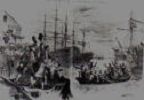





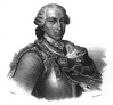





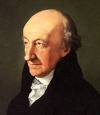












1773 On Jan. 12 the first public museum in America is established in Charleston, S.C. On Jan. 17 British explorer James Cook (1728-79) and his crew become the first to cross the Antarctic Circle as they search for a possible continent of Antarctica, but they sight no land while becoming the first to circumnavigate it; en route they visit the Friendly Islands (AKA Tonga) (Polynesian "Tonga" = south) during the yearly festival of first fruits to the god Tu'i Tonga, and the chiefs want to kill him but can't agree on a plan, causing him to think them real friendly? On Feb. 20 Sardinian king (since 1730) Charles Emmanuel III (b. 1701) dies, and his son Victor Amadeus III (1726-96) becomes king of Sardinia-Piedmont (until 1796). In Mar. the Va. Assembly proposes the formation of an intercolonial network of Committees of Correspondence, which are called by a loyalist in Mass. "the foulest, subtlest, and most venomous serpent ever issued from the egg of sedition" - welcome to the Twitter-Facebook American Spring? Lipton Broken sleeps with the fishes? On Apr. 27 Parliament (put up to it by Lord North to help his friends) passes the Tea Act (British East India Co. Regulating Act) to save the British East India Co., which is on the verge of bankruptcy but has 17M pounds of surplus tea in British warehouses; it dumps tea on the Am. colonies by refunding the British duty of twelve pence a pound, leaving only the three pence duty to collect at the colonial port; although this makes English tea cheaper than Dutch black market tea, it also lets the EIC bypass the existing wholesalers and establish a monopoly which cuts out the colonials; the outraged colonists force the tea back in New York City and Philly, cause it to be mothballed in warehouses in Charleston, S.C. (later used to finance the Revolution), but face determined opposition in Boston, where two of Gov. Hutchinson's sons are among the consignees. In Apr. Ahmed Shah Durrani (b. 1722) dies, and his 2nd son Timur Shah Durrani (1748-93) becomes Durrani shah #2 of Afghanistan in Khorasan (until May 18, 1793). On May 8 after returning to Egypt, Egyptian sultan Ali Bey Al-Kabir (b. 1728) is defeated and killed by one of his sons-in-law near Cairo. On July 4 14-y.-o. ever-seasick Horatio Nelson (1758-1805) leaves England to search for a Northwest Passage under Capt. Constantine Phipps; they give up by Sept. - breathe into the bag? On July 21 Pope (since 1769) Clement XIV follows through on his campaign promise, and issues the brief Dominus ac Redemptor, suppressing the evil scheming troublesome Satanic (but well-dressed and well-heeled) Jesuits (Society of Jesus) "in the name of peace of the Church and to avoid a secession in Europe", and HRE Joseph II gleefully expels them from the empire; too bad, the Jesuits load onto ships in Spain and Portugal, and are not wanted by Italy, and after being warned off they end up in Corsica; the whole thing was backed by Louis XV, who blamed them for starting the Seven Years' War which caused them to lose their colonies, and Clement XIV did it for political not theological reasons; coincidence or not, neither Clement XIV nor Louis XV last much over a year before croaking; a coincidence that Napoleon, who comes from Corsica signs a concordat in 1801 with Pope Pius VII, who crowns him emperor of France in 1804 and then restores the Jesuits in 1814? - you are like a hurricane, there's calmness in your eye, and I'm getting blown away? On July 25 the Boston and Maine Railroad, the first major line in British North Am. is completed. In Sept. Daniel Boone (1734-1820) returns to Ky. (Kentucky County, Va.), with several settler families (50 people); on Oct. 9 after his son James Boone and several others leave camp for supplies, a band of Delawares, Shawnees, and Cherokees attack them, capture James Boone and another boy, and gruesomely torture them to death, causing the whole party to turn back. On Nov. 30 the Boston town meeting in Old South Church warns officials not to assist the landing of the hated tea ships, but to wait until Dec. 16, when it would be legal to seize the cargo after 20 days in port; either way the ships cannot legally leave the harbor without discharging their cargo. In Nov. after reforming Viennese opera to rid it of too much Italian influence, German composer Christoph Willibald Ritter von Gluck (1714-87) moves to Paris, where he demonstrates his new Italian-French fusion opera with eight operas. On Dec. 3 the First Charleston Tea Party in S.C. sees townsmen lock the hated tea in the Exchange bldg. rather than dump it in the water; 2nd on Nov. 21, 1774. The political protest that turns Americans into coffee drinkers? On Dec. 16 (Thur.) at 4 p.m. about 50 colonials and members of the Committee of Correspondence meet at the home of Boston Gazette ed. Benjamin Edes (1732-1803), who serves them from an ever-full China rum punchbowl (replentished by his son Peter) (later given to the Mass. Historical Society); about 6 p.m. Samuel Adams says "This meeting can do nothing more to save the country", and the drunken bums, er, patriots leave to get more drunk at the Green Dragon Tavern on Union St. in North End, Boston (founded 1743), home of the Freemason Lodge of St. Andrew, then dress up in Edes' office and stage the Boston Tea Party during the moonlit night, as a mob of 200 Am. colonists, incl. Samuel Adams (1722-1803), John Hancock (1737-93), Thomas Wells (a blacksmith), and Samuel Smith (1714-85) (grandfather of Mormonism founder Joseph Smith Jr.) (not really - just Mormon propaganda?) disguised as negroes and Mohawks with soot-darkened faces (the English taxes were based on a desire to make the Americans pay their expenses in the French and Indian War - get it?) gather at Griffin's Wharf, then board and dump three shiploads (342 chests) (45 tons) of tea valued at £18K into the S end of Boston Harbor (between modern-day Congress St., Atlantic Ave., and Northern Ave.), while another 2K-8K people urge them on from the docks; the ships they take over are the Dartmouth, Eleanor, and Beaver (dart eleanor beaver mouth jokes here?); the William was destroyed in a storm and didn't make it; four days later Paul Revere gallops into New York City with the news, and 18-y.-o. Charlestown, West Indies-born Alexander Hamilton (1755-1804), a student at King's (later Columbia) College in New York pub. his first political piece in John Holt's New-York Journal, titled Defence and Destruction of the Tea; Boston merchants are not happy with the wanton destruction of property by the rebels, and Ben Franklin calls on Boston to pay for the tea and apologize to prevent the Brits from closing the port, but instead of trying to undermine the credibility of the radicals and defuse the situation, mad king George III writes to Lord North that "The colonists must either submit or triumph", and instructs him to discipline all of Boston. On Dec. 25 after Benjamin Franklin brings to the attention of the Mass. Assembly certain Letters by Royal Gov. Thomas Hutchinson in which he asks for "abridgment of what are called English liberties", it sends a petition to Parliament requesting Hutchinson's removal. Warren Hastings (1732-1818), becomes British gov.-gen. of India #1, founding the Indian Civil Service; there is a famine in Bengal. Denmark cedes the duchy of Oldenburg to Russia. Cossack serf (former Russian army lt.) Yemelyan Ivanovich Pugachev (1741-75) claims to be assassinated Tsar Peter III, starting Pugachev's Rebellion by Yaik Cossacks in Russia; after he proclaims a new govt. and promulgates an end to serfdom from the Volka River to the Urals, he is captured and beheaded in Jan. 1775, causing Catherine II's ideas about reforming serfdom to turn sour, clamping down on them even harder. The Tay Son brothers of Vietnam capture the city of Qui (Quy) Nhon, freeing merchants from restrictive laws and earning their financial support, scaring the Ngyuen lords, who make peace with Siam and give up some conquered lands, ending the Nguyen War (begun 1770), making Siamese king Taksin go for the title of Great, and causing him to send an envoy to Chinese emperor (since 1736) Qing Qian Long, who recognizes him as king of Siam; too bad, unifying his realm proves so hard that he goes nuts, claiming he's the Buddha and flogging monks who don't worship him?; meanwhile the rival northern Trinh lord Tringh Sam sees his chance and ends a cent. of peace, capturing Nguyen capital Phu Xuan (Hue City), and forcing the Nguyen lords to flee to Gia Dinh (Saigon), allowing the Tay Son brothers to kick butt and gain support. Narayan Rao Peshwa (b. 1749) is assassinated by his uncle Raghunath Rao, who usurps the throne of the Maratha Empire in India; too bad, the dead guy's widow Gangabai gives birth to son Sawai ("One and a Half") Madhav Rao II Peshwa (1774-95), causing 12 Maratha chiefs, led by Nana Phadnis (1742-1800) to side with him, starting the First Anglo-Maratha War (ends 1782). The Irish parliament considers an Absentee Landlord Tax, which terrifies English MPs even though it fails to pass. Am. colonial govts. begin purchasing large numbers of rifles. Black Russian Gen. Abram Petrovich Gannibal helps facilitate the visit of French Encyclopedist Denis Diderot to Russia at the invitation of Catherine II the Great. Scottish merchant capt. John Paul (b. 1747) kills the leader of a mutinous crew in Tobago, then escapes prison before trial, returning to his adopted home of Fredericksburg, Va. and becoming a fugitive from British justice, causing him to take on the surname of Jones to hide his identity - your attorney wants to take you to his office right now? The British East India Co. founds a settlement at Balambangan in Sabah in N Borneo, but the natives force them out by 1775. Toronto ("meeting place"), Canada (modern pop. 640K/2.8M) is founded as a British garrison. The first shipment of ginseng from Boston to China begins, starting a shipping boom. Samuel Enderby (1717-97) a whaling co. called Southern Fishery, which becomes Samuel Enderby & Sons in 1775 when an embargo is placed on whale oil exports from New England due to the Am. Rev. War. The Swedish Nat. (Royal Dramatic) Theater is founded in Stockholm by Gustavus III, becoming known as the Venice of the North. The Philadelphia Museum of Art in Penn. is founded. James Rivington founds the New-York Gazeteer at the foot of Wall Street, becoming the rival to the New York Journal. German lit. giant Christoph Martin Wieland (1733-1813) founds Der Teutsche Merkur, which becomes the #1 lit. review in Germany (until 1789). English explorer James Bruce (1730-94) returns from Abyssinia with three copies of the long-lost Book of Enoch. James Bowell is admitted to Dr. Johnson's circle, and they make a trip together to Scotland and the Hebrides. 14-y.-o. William Pitt the Younger is given one bottle of port wine a day for his gout. Architecture: Christ Church (brick with white stone quoins and keystones in the window arches) in Alexandria, Va. (begun 1767) is finished; construction costs are paid in tobacco. Queen Square in London, England is completed. Inventions: The Shropshire Process for making iron is invented in England, and in 1779 the first cast iron bridge begins construction over the Severn River at Coalbrookdale in Shropshire (finished 1792). C.G. Kratzenstein of Copenhagen succeeds in reproducing human vowels mechanically using resonance tubes connected to organ pipes. Swiss inventors Pierre Jacquet Droz (1721-90) and Henry Louis Jaquet-Droz (1752-91) invent the first automaton that can write - but does it have a short skirt and a big pair of knockers? Nonfiction: Charles Bonnet (1720-93), Recherches Philosophiques Sur les Preuves du Christianisme (Philosophic Research Concerning the Proofs of Christianity). Charles Burney (1726-1814), The Present State of Music in Germany, the Netherlands, and the United Provinces; gets him chosen as a fellow of the Royal Society - too many choices, or maybe too playful, wild, or romantic, or maybe too off the beaten path, or maybe not sacred enough? Madame Louise d'Epinay (1726-83), Conversations with Emilie; dialogue with her daughter on how to get an education in a Dick Almighty world. John Erskine of Carnock (1695-1768), Institutes of the Law in Scotland (posth.). Johann Wolfgang von Goethe (1749-1832), Johann Gottfried von Herder (1744-1803), and Justus Moser (1720-94), Von Deutscher Art und Kunst: Einige Fliegende Blatter (Blätter) (Of German Art and Style: A Loose Leaf); manifesto of the German Sturm und Drang (Ger. "storm and stress", "storm and urge") Romantic movement, inspired by Johann Gottfried von Herder which digs on German folk songs, Gothic architecture, and Shakespeare, and lasts until the early 1780s. Wilhelm Heinse (1749-1803), Die Kirschen. Johann Gottfried von Herder (1744-1803), Voices of the People in Their Songs (Stimmen der Volker in ihren Liedern). Extract from a Correspondence about Ossian and the Songs of Ancient Peoples (Auszug aus einem Briefwechsel über Ossian und die Lieder alter Völker); "A poet is the creator of the nation around him, he gives them a world to see and has their souls in his hand to lead them to that world." William Kenrick (1725-79), Dictionary with Guide to Pronunciation; indicates vowel sounds and incl. new words used by the Romantic movement. Friedrich Gottlieb Klopstock (1724-1803), Die Gelehrtenrepublik; a scheme for the regeneration of German letters. Gotthold Lessing (1729-81), Zur Geschichte und Literatur (1773-81). Samuel Johnson (1709-84) and George Steevens (1736-1800), The Works of Shakespeare with the Corrections and Illustrations of Various Commentators (10 vols.). Charles White (1728-1813), A Treatise on the Management of Pregnant and Lying-in Women; recommends natural childbirth, with the delivery not assisted until the baby's shoulders have been expelled, and that new mothers should get out of bed ASAP, also recommending cleanliness and ventilation. Music: Gottfried August Burger (1747-94), Lenore (ballad). Wolfgang Amadeus Mozart (1756-91), Exsultate Jubilate (K.165) (motet) (Jan. 17) (Church of San Antonio, Milan); his first masterpiece? Art: Dirk van der Aa (1731-1809), Playing Putti on Clouds (Spielende Putten auf Wolken). Philip Dawe (-1832), The Macaroni: A Real Character at the Late Masquerade (drawing) (Scavor Vivre and Theatrical Mag., June 24). Jean-Antoine Houdon (1741-1828), Denis Diderot [1713-84] (sculpture). Augustin Pajou (1730-1809), Madame du Barry (1743-93] (sculpture). Sir Joshua Reynolds (1723-92), The Graces (Three Ladies) Decorating a Statue of Hymen. Plays: Johannes Ewald (1743-81), Pebersvendene (Old Bachelors) (comedy). Oliver Goldsmith (1730-74), She Stoops to Conquer (comedy) (Mar. 15) (London); a big hit; Kate Hardcastle; "O, confound my stupid head. I shall be laughed at over the whole town... the Dullissimo Maccaroni" (Marlow); "Give me the young, the gay, the men of spirit./ Ye travell'd tribe, ye macaroni train/ Of French friseurs, and nosegays, justly vain,/ Who take a trip to Paris once a year/ To dress, and look like awkward Frenchmen here." Johann Wolfang von Goethe (1749-1832), Gotz (Götz) von Berlichingen (tragedy); a 16th cent. German robber knight leads a Romantic nat. German revolt against Roman Catholic control; helps kick off the zoom zoom zoom iPod I worship I love it Sturm und Drang movement; Urfaust (first version of Faust). William Kenrick (1725-79), The Duellist (Covent Garden, London) (Nov. 20) (1 perf.). Henry Mackenzie (1745-1831), The Prince of Tunis (Edinburgh); his first and only dramatic hit. Mercy Otis Warren (1728-1814), The Defeat; pub. anon.; another attack on Mass. gov. Thomas Hutchinson. Poetry: Anon., The Adulteress. Thomas Day (1748-89), The Dying Negro; an English adherent of Rousseau denounces Negro slavery in North Am. William Heard, The Tryal of Dramatic Genius. John Trumbull (1750-1831), The Progress of Dulness (1772-3); satire of current educational methods. Phyllis Wheatley (1753-84), Poems on Various Subjects, Religious and Moral; written by a freed slave after a trip to England, where it is pub., becoming the first book pub.by an African-Am., throwing a tire iron into the whites' "inherent Negro inferiority" window?; "Twas mercy brought me from my Pagan land,/ Taught my benighted soul to understand/ That there's a God, that there's a Saviour too;/ Once I redemption neither sought nor knew./ Some view our sable race with scornful eye,/ 'Their colour is a diabolic die.'/ Remember, Christians, Negros, black as Cain,/ May be refin'd and join th'angelic train"; To the Right Honorable William, Earl of Dartmouth; compares the desire of the Am. colonies for independence with her own desire to be free; too bad, after returning to Am., she marries freed black John Peters, and her fame fades. Novels: Benjamin Franklin (1706-90), Rules by Which a Great Empire May Be Reduced to a Smaller One (parody); Edict of the King of Prussia (parody). Albrecht von Haller (1708-77), Alfred. Henry Mackenzie (1745-1831), The Man of the World. Births: British snubbed ambassador (gov.-gen. of India in 1823-8) William Amherst, 1st Earl Amherst (d. 1857) on Jan. 14; nephew of Jeffrey Amerst, 1st Baron Amherst (1717-97), inheriting his title. French "Biographie Universelle" publisher-writer Louis-Gabriel Michaud (d. 1858) on Jan. 19 in Castle Richemont; brother of Joseph Francois Michaud (1767-1839). English prince (Freemason) Augustus Frederick, Duke of Sussex (d. 1843) on Jan. 27 in Buckingham House, London; 6th son of George III and Charlotte of Mecklenburg; created duke in 1801; asthma keeps him from joining the military, making him George III's only son who doesn't pursue a military career. U.S. Whig pres. #9 (1841) "Tippecanoe" William Henry Harrison (d. 1841) on Feb. 9 in Berkeley, Charles City County, Va.; last pres. born before the Am. Rev. begins; son of DOI signer Benjamin Harrison V (1726-91); father of U.S. Sen. John Scott Harrison, father of U.S. pres. #23 Benjamin Harrison (1833-1901); educated at Hampden-Sidney College (Va.). Am. Navy commodore Isaac Hull (d. 1843) on Mar. 9 in Shelton (Derby), Conn. Am. mathematician-navigator Nathaniel Bowditch (d. 1838) on Mar. 26 in Salem, Mass. French PM #13 (1834) marshal Etienne Maurice Gerard (Gérard), Comte Gerard (Gérard) (d. 1852) on Apr. 4 in Damvilliers, Lorraine. French ultraroyalist PM #6 (1821-8) Jean-Baptiste Guillaume Joseph Marie Anne Seraphin (Séraphin), comte de Villele (Villèle) (d. 1854) on Apr. 14 in Toulouse. Austrian reactionary statesman-diplomat prince Klemens Wenzel Nepomuk Lothar von Metternich Winneburg (d. 1859) on May 15 in Coblenz; his personal experience with the French Rev. sets off his reactionary circuits? Swiss historian-economist ("the Rollin of French History" - Charles Augustin Sainte-Beuve) Jean Charles Leonard Simonde de Sismondi (d. 1842) on May 19 in Geneva; claims descent from House of Sismondi in Pisa. German Romantic poet-novelist-critic Johann Ludwig Tieck (d. 1853) on May 31 in Berlin. Am. Dem.-Repub. (Old. Repub.) (Quids) states rights' politician-statesman-orator John Randolph of Roanoke (d. 1833) on June 2 in Cawsons, Prince George County, Va.; 2nd cousin of Edmund Jennings Randolph; claims Pocahontas as an ancestor; educated at Princeton and Columbia U.; a childhood illness leaves him impotent, beardless and high-voiced. English polymath physician-physicist-linguist (Quaker) ("the last man who knew everything") Thomas Young (d. 1829) on June 13 in Milverton, Somerset; educated at the U. of Edinburgh, U. of Gottingen, and Emmanuel College, Cambridge U. Am. architect Asher Benjamin (d. 1845) on June 15 in Hartland, Conn. French astronomer Claude Messier (d. 1817) on June 26. French zoologist Frederic Cuvier (d. 1838) on June 28 in Montbeliard, Doubs; younger brother of Georges Cuvier (1769-1832). German Romantic writer-jurist Wilhelm Heinrich Wackenroder (d. 1798) on July 13 in Berlin; life friends (gay?) with Johann Ludwig Tieck (1773-1853). Czech #1 philologist-poet Josef Jungmann (d. 1847) on July 16 in Hudlice (near Beroun). Am. scholar (pres. #9 of Yale College, 1817-46) Rev. (Congregationalist) Jeremiah Day (d. 1867) on Aug. 3 in New Preston, Conn.; educated at Yale U. Am. Dem.-Repub. U.S. war secy. #12 (1828-9) and military leader Peter Buell Porter (d. 1844) on Aug. 14 in Salisbury, Conn; educated at Yale College. German philosopher Jakob Friedrich Fries (d. 1843) on Aug. 23. French anti-Napoleon marshal Louis-Auguste-Victor, Counte de Ghaisnes de Bourmont (d. 1846) on Sept. 2. U.S. First Lady (1801-9) Martha Washington Jefferson Randolph (d. 1836) on Sept. 27 in Monticello, Va.; daughter of Thomas Jefferson (1743-1826) and Martha Wayles Skelton Jefferson (1748-82); wife (1790) of Thomas Mann Randolph Jr. (1768-1828). France's last king (1830-48) ("the Citizen King") Louis Philippe I, Duke of Orleans (Duc d'Orléans) (d. 1850) on Oct. 6 in Paris; son of Louis Philippe Joseph, duke of Orleans (1747-93), of the house of Bourbon-Orleans, who is executed during the Terror; known as the duc de Valois until 1785, then the duc de Chartres until 1793, when he goes into exile until 1815; married to the niece of Maximilian of Lorraine. Scottish lit. critic and jurist Francis Jeffrey, Lord Jeffrey (d. 1850) on Oct. 23 in Edinburgh. U.S. Sen. (Whig-Tenn.) (1825-40) Hugh Lawson White (d. 1840) on Oct. 30 in Iredell County, N.C. English Peterloo Massacre radical speaker Henry "Orator" Hunt (d. 1835) on Nov. 6 in Upavon, Wiltshire. English Whig politician Henry Richard Vassall Fox, 3rd Baron Holland (d. 1840) on Nov. 21 in Winterslow House, Wiltshire; grandson of Henry Fox, 1st Baron Holland (1705-74); nephew of Charles James Fox (1749-1806); wife of Elizabeth Vassall (1770-1845). Scottish Browning Motion botanist Robert Brown (d. 1858) on Dec. 21 in Montrose; becomes known for his collecting work in Australia. English aviation pioneer ("father of aviation") Sir George Cayley (d. 1857) on Dec. 27 in Brompton-by-Sawdon (near Scarborough), Yorkshire. Am. slave breed mare (black) Sally Hemings (d. 1835) in Shadwell, Albemarle County, Va.; three-quarters white; daughter of Elizabeth "Betty" Hemings (1735-1807) and white plantation owner John Wayles (1715-73); half-sister of Martha Wayles Skelton Jefferson (1748-82), wife of her owner Thomas Jefferson (1743-1836), who hooks up with her after Martha dies and fathers six children by her. Scottish utilitarian philosopher-historian-economist James Mill (d. 1836) in Northwater Bridge, Montrose; father of John Stuart Mill (1806-73); educated at the U. of Edinburgh. Deaths: English statesman-writer Lord Chesterfield (b. 1694); leaves a bunch of good quotes: "It is an undoubted truth, that the less one has to do, the less time one finds to do it in"; "In scandal, as in robbery, the receiver is always as bad as the thief"; "[History is] a useless heap of facts." Scottish nonconformist clergyman John Glas (b. 1695) in Nov. German Baroque flutist-composer Johann Quantz (b. 1697) on July 12 in Potsdam. French-English engraver Hubert-Francois Gravelot (b. 1699) on Apr. 20 in London in Paris. English librettist Charles Jennens (b. 1700) on Nov. 20. Italian sculptor Pietro Bracci (b. 1700) in Rome. English inventor Chester Moore Hall (b. 1703) on Mar. 17 in Sutton, Surrey. Italian architect-engineer Luigi Vanvitelli (b. 1700) on Mar. 1 in Caserta. English writer John Entick (b. 1703) in May. English poet George Lyttleton (b. 1709). English writer Father Alban Butler (b. 1710) on May 15 in Saint-Omer, France. Spanish naval officer Jorge Juan y Santacilia (b. 1713) on June 21 in Madrid (cerebral amoebic infection?) Saxon-born Russian gen. Count Gottlieb Heinrich Tottleben (b. 1715) on Mar. 20 in Warsaw. Afghani emir Ahmed Shah Durrani (b. 1722) in Apr. Egyptian Mamluk ruler (1760-72) Ali Bey Al-Kabir (b. 1728) on May 8 near Cairo (KIA).


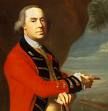








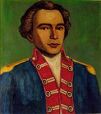




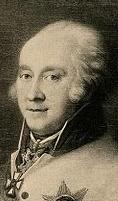
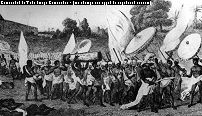



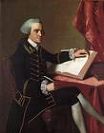




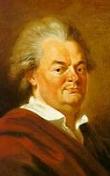


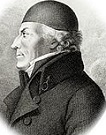


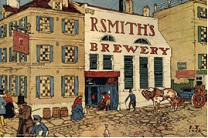
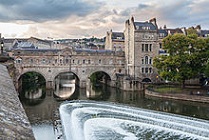
1774 On Jan. 16 the Creek War breaks out between settlers in Ga. and the Creek Indians over recently stolen, er, ceded lands; on Mar. 31 Head Turkey is murdered near Augusta, Ga. by Thomas Fee while on his way to Savannah to negotiate a peace treaty; Fee is jailed, escapes, and a $100 reward is posted to pacify the Creeks. On Jan. 21 sultan (since 1757) Mustafa III (b. 1717) dies, and his caged (for 43 years) younger brother Abdul Hamid (Abdulhamid) I (1725-89) becomes Ottoman sultan #27 (until Apr. 7, 1789), going on to become known for his religiosity and graciousness and passion for breeding Arabian horss while attempting to revive the Janissaries - if only these walls could speak? On Jan. 25 John Malcolm, comptroller for the customs service in Boston, Mass. is attacked by Am. revolutionaries and beaten, tied to a Liberty Tree, and tarred and feathered, with the pine tar applied so hot that his skin strips off his back, after which Malcolm sailes back to London with samples for display. On Jan. 29 Benjamin Franklin (1706-90), Mass. agent to the British govt. (dressed in blue spotted Manchester velvet) is excoriated in Parliament's Privy Council (meeting in the Cockpit) by Scottish barrister Alexander Wedderburn, 1st Earl of Rosslyn (1733-1805) for his role in pub. some purloined letters damaging to Mass. Gov. Thomas Hutchinson; the Mass. petition against Hutchinson is denied; the next day Franklin is removed from his job as Am. postmaster, and he lies low in England for the rest of the year. On Feb. 22 British Law Lords rule that authors do not have perpetual copyright. On Apr. 27 the Battle of Pipe Creek between white British settlers in Ky. and the Shawnee tribe of the Ohio sees a few wounded on both sides, but escalates the tensions, and on Apr. 30 some Mingo Indians, still at peace with the whites go to Baker's Tavern on the W bank of the Ohio River at Yellow Creek for their usual rum, and take a small white child with them, pissing-off the settlers, who get them drunk and then massacre them to rescue the child, causing Mingo chief Logan to declare war on the palefaces and quit acting as the buffer between them and the Shawnee, and begin pillaging frontier settlements on the W side of the Monongahela River; causing Va. gov. Lord Dunmore to launch Lord Dunmore's War (ends Oct. 1774), calling on the House of Burgesses to send an elite volunteer militia force to kick Shawnee and Mingo butt S of the Ohio River. In Apr. the outraged British Parliament passes the Intolerable (Coercive) Acts in reaction to the Boston Tea Party; civil liberties are suspended; on Mar. 31 the Boston Port Bill orders the port of Boston closed on June 1; on May 12 after Observations on the Boston Port Bill by Josiah Quincy appears, clearly indicating war as the only option with independence the goal, the British colonists vote to renew their non-importation policies; on May 13 Thomas Hutchinson is replaced as military gov. of Mass. by Gen. Thomas Gage (1719-87), and returns to England; Gage brings four British regiments with him to keep the peace. On Apr. 22 a group of sea captains led by Alexander McDougall dress up as Mohawks and storm the British ship HMS London in New York Harbor to stage a copycat tea party. On May 10 after uttering the immortal soundbyte [The state will last my time], "Apres moi le Deluge" (After me the Deluge), French king (since Sept. 1, 1715 - 58 years 8 mo.) Louis XV the Well-Beloved (b. 1710) (of his many mistresses?) dies of smallpox (a coverup for syphilis, or murder by the Jesuits?), as signaled by a candle in his window being snuffed out; after he and his bubble-headed Austrian wife Marie Antoinette cry it out, on June 11 Louis XV's peasant-faced oldest (20-y.-o.) grandson Louis XVI (1754-93) is crowned as Bourbon king #5 of France (until 1793); he is ordinary but well-meaning, an amateur locksmith and excellent shot, letting himself be ruled by kinda-beautiful-sexy blonde Austrian wife Marie Antoinette (1755-93), and by his brothers the Count of Artois and the Count of Provence, letting the country go to Hell in a handbasket while she enjoys a no-limit credit card and mounts up big gambling debts at backgammon, stays up all night while he sleeps, and plays with pretty boys in what is thought a shocking manner, even though she is probably faithful to him; during his reign the female hairstyle grows even more extravagant, Antoinette wearing a 3-foot tower, and reaching the ultimate of the Coiffure a la Fregate (l'Independance) (le Triomphe de la Liberte), complete with a model ship on top right before the French Rev.; Louis XVI banishes Louis XV's mistress Comtesse du Barry from court, and she lives in her chateau at Luciennes, fleeing to England when the French Rev. begins; how could he know that the July 4, 1776 Am. Rev. will end up getting him executed before he reaches 40? On May 23 the Chestertown Tea Party on the Chester River in Md. is a copycat of the Boston Tea Party. On June 22 the Quebec (British North Am.) Act of 1774 is passed by the British Parliament, allowing for Roman Catholics to hold office, reestablishing old boundaries of Canada, extending Quebec's boundaries S to the Ohio River, and imposing Roman-based French civil law; this all angers Americans who fear that priest-ridden Roman Catholicism is being "established" there. On June 20 the Russians led by Gen. Alexander Suvorov badly defeat the Ottomans at the Battle of Kozludzha, forcing the Turks back to the negotiating table, sealing Suvorov's rep and causing the village to be renamed after him. On July 6 the Sons of Liberty holds a mass meeting near the grassy Common (the Fields) near King's College in Manhattan, in the shadow of an 80-ft. pole with the word LIBERTY on its gilded weather vane; 19-y.-o. Alexander Hamilton gives a spontaneous speech which causes him to become a youthful hero? In the summer the New York Provincial Congress declares that anyone aiding the British enemy is to be disarmed, imprisoned, or exiled. On July 11 the Klck Incident shows the way the Mohawks are being cheated of their lands by the stinking British settlers. On July 12-15 the Battle of Kazan sees Yemelyan Pugachev's rebels defeat Russian troops and siege the rest in the Kazan Kremlin, causing many of them to defect to his side, after which two battles on July 13 and 15 are a V for Russian forces under Estonian-born Lutheran Gen. Ivan Ivanovich Michelson (Johann von Michelsohnen) (1740-1807), causing the remaining 500 of 25K incl. Pugachev to retreat across the Volga River and wait for the inevitable. On July 21 the Fifth Russo-Turkish War (begun 1768) ends with a Russian V and the Treaty of Kuchuk Kainarji (Kucuk Kaynarca), giving Russian trading ships freedom to navigate in Turkish Black Sea waters, and control of the Crimean seaports of Azov and Kerch; the Crimean Khanate becomes independent under Russian suzerainty; Russia receives full possession of Azov and land S to the Kuban River, along with the territory between the Dnieper and S Bug Rivers, making the Dnieper River the Russian border; Turkey renounces claims to Kabarda in the N Caucasus; Russia becomes the official protector of Orthodox Christians in the Ottoman Empire; Turkey is forced to pay 4.5M rubles reparations, and promise lenient treatment of Moldavia and Wallachia, which is placed under Russian protection despite Turkish suzerainty since the year 1411; Turkey is forced to cede NW Moldavia (Bukovina) to the Hapsburgs; instead of bringing peace, the Russkies use the treaty for excuses to go to war to take more territory from the sick Ottoman Empire, expanding S and E until it bumps up against the Western powers. By late Aug. after Penn. assemblyman James Smith (1719-1806) proposes it, all of the colonies except Georgia have picked their delegates to the First Continental Congress, which convenes on Sept. 5 in Philadelphia in the red-black brick Carpenters' Hall; on Sept. 7 it starts its first session with a 3-hour prayer and Bible study, in which Psalm 35 ("Contend, O Lord, with those who contend with me; fight against those who fight against me") is read, wowing Samuel Adams, who takes it as a divine omen that that that; Peyton Randolph (1723-75) of Williamsburg, Va. is unanimously elected pres.; William Bradford (1722-91) becomes the official printer; the delegates sit for 6 weeks in Windsor chairs after starting out by praying that war may be averted, then reaffirm their loyalty as British subjects; shortly after this King George III begs his famous retired (and backstabbed) Gen. Amherst to return to America as CIC with "an olive branch in one hand, while the other should be prepared to obtain submission", but Amherst replies that he would rather resign from the army? On Sept. 1 the Powder Alarm starts when Mass. Bay gov. Gen. Thomas Gage orders the removal of gunpowder from a magazine by British soldiers, after which rumors of bloodshed cause an alarm to spread through the countryside as far as Conn., causing thousands of militiamen to head for Boston and Cambridge, while mobs force loyalists and British officials to flee to the British army for protection until it's proved to be a false alarm, becoming a dress rehearsal for the Battles of Lexington and Concord. On Sept. 6 amid unfounded rumors that the British had burned Boston to the ground, 40K colonial militia are quickly mobilized, only to be disbanded when it is learned that the rumors are false; this freaks Gen. Thomas Gage, who commands the 3K British soldiers garrisoned in Boston to fortify the city with a full regiment supported by field guns. On Sept. 9 at Doty's Tavern in Suffolk County, Mass. the Suffolk Resolves, drafted by Dr. Joseph Warren are passed, and carried to Philadelphia by Paul Revere, who arrives on Sept. 16; on Sept. 17 the Continental Congress adopts them, becoming the point of no return?; Warren is a member of the first three provincial congresses of Mass. (1774-5), is pres. of the third, and also becomes a key member of the committee of public safety; too bad this budding U.S. pres. gets killed at Bunker Hill? On Sept. 22 anti-Jesuit Pope (since 1769) Clement XIV (b. 1705) dies - which Jesuit should we thank for that cup of Borgia? On Sept. 22 Tory Joseph Galloway (1729-1803) of Penn. places before the Continental Congress a moderate reaction to the Coercive Acts, calling upon the colonies to pursue a plan for reunion with England after a complete overhaul of govt. within the colonies; the new govt. would consist of a pres.-gen. appointed by the king and a grand council elected by the colonial assemblies; James Duane of N.Y. arouses violent opposition by supporting Galloway; the Pennsylvania Plan is defeated on Oct. 22 by a margin of one vote (6-5), and the revolution is on and revvin'. In Sept. Josiah Quincy sails to England as agent of the Patriot Party of Boston; he dies on the voyage home next year on Apr. 26. On Oct. 10 the Battle of Point Pleasant (Kanawha) (first battle of the Am. Rev.?) is a V for 1.1K troops of the Va. militia under Irish-born Col. Andrew Lewis (1720-81) defeat Ohio Confederate Indians under Shawnee Chief Cornstalk (Hokoleskwa) (1720-77), after which they agree to a peace, which the Mingos won't accept, after which a force of 240 under Maj. William Crawford (1732-82) (who used to do surveying work with George Washington) destroys the Mingo village of Salt Lick Town (Seekunk), causing them to accept it; the Indian chief agree to lose their hunting privileges and to recognize the Ohio River as the boundary; too bad, some tribesmen feel that their chiefs have sold them out, and after the Am. Rev. War starts they see their chance and begin attacking white colonists again. On Oct. 14 the Continental Congress votes to endorse the Declaration of Resolves, a document containing ten resolutions which set forth the rights of the colonies, denounce the Coercive Acts, and declare that the power to make and execute law and levy taxes within the colonies should be the right and privilege of those colonies; the idea that every citizen of the colonies should have the right to "life, liberty and property" without interference by Britain is contained in the document. On Oct. 20 the Creek War in Ga. (begun in Jan.) ends with a peace treaty. On Oct. 20 the Continental Congress puts teeth behind a total trade embargo and boycott of the mudda cuntry with a system of committees called the (Continental) Association to police the embargo with a network of local committees. On Oct. 26 the Continental Congress approves the drafting of two letters, the first to be directed to Canada, requesting the Quebec Province to join the Americans in their stand of unity, the second, by "penman of the Am. Rev." John Dickinson (1732-1808) (richest farmer in Del.), a Declaration of Rights to the king; the Continental Congress adjourns on Oct. 26 after calling for a second Congress to meet next year on May 10 in Philadelphia - the ball's in your court, kingey? In Oct. the Provincial Congress orders the militias to reorganize as an Army of Observation to defend against sorties out of Boston by British regulars; each town is to place one quarter of its militia into minutemen cos. On Nov. 16 Alexander Hamilton duels wits with Am. Episcopal minister Rev. Samuel Seabury (1729-96) of Westchester, Conn. (signer of the 1775 White Plains Protest), who pub. a series of pro-Tory pamphlets this year signed by A.W. (A Westchester) Farmer, starting with Free Thoughts on the Proceedings of the Continental Congress; Hamilton's The Farmer Refuted is pub. on Dec. 15, causing Seabury on Nov. 28 to pub. Congress Canvassed; or An Examination into the Conduct of the Delegates at Their Grand Convention, which Hamilton answers with A Full Vindication of the Measures of the Congress from the Calumnies of Their Enemies, causing Seabury on Dec. 24 to dig deep for his 3rd (greatest?) A View of the Controversy between Great Britain and Her Colonies in a Letter to the Author of a Full Vindication of the Measures of the Congress. On Nov. 21 the Second Charleston Tea Party in S.C. is a copycat of the Boston one. On Dec. 14-15 former Portsmouth, N.H. atty. Gen. John Sullivan (1740-95), warned by Paul Revere that the British plan to send soldiers to Portsmouth leads the first military action by colonial soldiers in opposition to the British, capturing Ft. William and Mary with 400 Minutemen; there are no casualties on either side - strike the Jack? In Dec. Boston loyalist lawyer Daniel Leonard (1740-1829) begins pub. articles in the Boston Gazette under the alias "Massachusettensis" (until Apr. 1775), decrying the idea of turning America into a new Scotland that has no allegiance to the British crown, and pointing out that Am. will then have no benefit of the British constitution, and can end up as a dozen different warring states, causing John Adams to reply under the alias "Novanglus", admitting the Scotland thingie, but pointing out that Am. has 3M people and the British kingdom 12M, and that it doesn't get 25% of the MPs, hence Britain is imposing an oligarchy on it, and concluding with the soundbyte "We are a part of the British dominions, that is, of the King of Great Britain, and it is our interest and duty to continue so. It is equally our interest and duty to continue subject to the authority of parliament, in the regulation of our trade, as long as she shall leave us to govern our internal policy, and to give and grant our own money, and no longer"; too bad, before he sticks his foot in his mouth any further, Adams' last article is interrupted by the Battle of Lexington. The Gaol Act attempts to clean up British jails. Conflicts on the NW frontier of Va. erupt into full-scale battles which force the Shwanees to surrender their claims in dark and bloody Kentucky; N.C. judge Richard Henderson (1734-85) ("Political Father of Kentucky") buys a dubious title to the land between the Kentucky and Cumberland Rivers, forms a plan for white settlement of the area, and organizes the Transylvania Co.; meanwhile, the first permanent settlement in Kentucky is established by James Harrod (1742-93), becoming the first region W of the Alleghenies settled by white Am. pioneers (bringing in all the baggage of Europe). Austria annexes Galicia (Bukovina). Taksin the Great of Thonburi overthrows the Burmese domination of the Lanna Thai Kingdom over Chiang Mai, which becomes a tributary state of Thonburi. King (since 1740) Tegbessou dies, and his son Kpengla (1735-89) becomes king #7 of Dahomey in W Africa (until 1789), going on to extend Dahomey territory into Togo and kick Nigerian butt for interfering with his slade trade using his new trade flintlocks. John Wilkes is returned to his Commons seat, and introduces a bill for sweeping parliamentary reform, incl. a significant broadening of the franchise. Samuel Hearne (1745-92) of Hudson's Bay Co. establishes the trading post of Cumberland House on the E border of Saskatchewan, making the French jealous. Fort Henry (originally Fort Fincastle, named for Va. gov. Lord Dunmore, Viscount Fincastle, then rename for Patrick Henry) near Wheeling, Va. is built by Ebenezer Zane (1747-1811); it is abandoned in 1784. The Jesuits are expelled from Poland. Rhode Island agrees to abolish slavery. Maria Theresa of Austria issues a decree mandating the use of German in intermediate schools in Bohemia, pissing-off the Czech nobles and clergy, and causing a revival of Czech nationalism and pan-Slavism, along with interest in the nearly extinct Czech language - Hapsburg hits an iceberg? Spain establishes a garrison in the Falkland Islands to defend the Straits of Magellan. A Spanish royal decree orders Philippine parishes to be turned over by the friars to secular priests, incl. indio and mestizo ones to counter the concentration of wealth and power by the Church and head off peasant revolts, all without success; in 1776 the replacement of Spanish clerics by mestizo and indo priests is halted. Exiled (since 1768) French economist Pierre Samuel du Pont de Nemours (1739-1817) is recalled by new French comptroller-gen. Anne Robert Jacques Turgot, Baron de Laune (1727-81). Charles James Fox (1749-1806), 3rd son of Baron Henry Fox, who resigned as junior lord of the admiralty in Lord North's ministry in 1772 in order to oppose the Royal Marriage Act, then is appointed junior lord of the treasury this year is dismissed after angering the king with his sympathy for the Am. colonists, and goes on to join the Whig opposition, becoming a brilliant orator and advocating granting the colonies their independence on friendly terms. Joseph Brant becomes secy. to Guy Johnson, supt. of Indian affairs. Indian Mughal emperor Aurangzeb abolishes 80 types of taxes and reinstitutes the Muslim jizya tax for adult males who don't serve in the military, pissing non-Muslim Hindus off. Spanish explorers are sent N along the Calif. coast to counter British and Russian activity (until 1776). James Cook returns to New Zeland, visiting Easter Island, Norfolk Island (Oct. 10), and New Caledonia about 1K mi. NE of Sydney; he also charts and names the Y-shaped New Hebrides, 80 islands lying between New Caledonia and Fiji, discovering the Friendly Islands (Tonga), and visits Totoya Island and Vanuatu, where he discovers a panpipe, which later inspires Mozart's "The Magic Flute" and ends up on display in Vienna; when he returns from his 2nd Pacific voyage to London, he brings the first Polynesian native to England, who becomes an overnight sensation. By this year all that's left of the Wampanoags of Cape Cod, who live on reservations in Mashpee on Cape Cod and Aquinnah on Martha's Vineyard are six men and 19 women (400 in 1700). Marie Antoinette laughs at the inept dancing of Marquis de Lafayette? Hawk-nosed Thetford, Norfolk, England-born Freethinker-abolitionist Thomas "Tom" Paine (1737-1809) arrives in Philadelphia, Penn. with introductions from Benjamin Franklin (1706-90), and turns into the firebrand of the Am. Rev., churning out cool pamphlets that appeal to the masses. The first Unitarian Church is founded on Essex St. in London, England. Swiss educator Johann Heinrich Pestalozzi (1746-1827) founds a school for orphaned and neglected children in Zurich. Chinese emperor Qing Qian Long orders all Chinese works in his gigantic library censored of all derogatory references to the Manchus and their N China predecessors, causing 2.5K works to be destroyed by 1782. Self-taught Boston, Mass. portrait painter John Singleton Copley (1738-1815) goes to Rome to follow Benjamin West's footsteps, going to England after 1775 - good timing or bad? English poet-dramatist Hannah More (1745-1833) visits London and meets David Garrick and his wife, and they introduce her to the lit. society of the city, where she is accepted as one of the guys and begins writing plays for Garrick; too bad, she gets accused of plagiarism in 1779 by Hannah Cowley (1743-1809), and switches to poetry and religious works. Benjamin Franklin's wife (since 1730) Deborah implores him to come home as her health is failing, and dies before he does, having spent a total of 26 years abroad without her, leaving her to rear their daughter and run his enterprises alone; he later dreams that he goes to heaven to reclaim her, and she won't have him, saying, "I have been your good wife... almost half a century. Be content with that." Robert Smith's Ale Brewery is founded in Philly by Joseph Potts; in 1786 it is acquired by Henry Pepper (-1898), who supplies Indendence Hall with a clock and bell; in 1845 English immigrant Robert Smith (1807-93) purchases it, introducing Smith's Tiger Head Ale; in 1888 a new brewery is built W of the Schuykill River next to the Philly Zoological Gardens; in 1896 it becomes a branch of Schmidt's Brewery; it goes on to become the oldest brewery in continuous operation in the U.S. (64.4K barrels in 1907) until it closes in 1920; Schmidt's continues selling Tiger Head until they close in 1987. The Single Brothers Brewery and Distillery opens in the Moravian religious settlement of Salem, N.C. Sports: On Feb. 25 the official rules of the game of cricket are first drawn up at the Star and Garter Pub in Pall Mall, London, and pub. next year by W. Read; next year the third (middle) stump of the wicket is introduced after Lumpy Stevens bowls three successive deliveries to John Small that go straight through the two stumps. Architecture: The Old Bailey in London is rebuilt; a 2nd courtroom is added in 1824. Pulteney Bridge over the River Avon in Bath, England (begun 1770) is completed, designed in Palladian style by Robert Adam and covered by shops on both sides. Inventions: A frosty but good year for inventors? Eiswein (Icewine) (sweet wine from grapes that are allowed to freeze on the vine) is discovered by accident in the Franconia wine region of Germany near Wurzburg. Ice cream is first mentioned in British Am. William Forsyth constructs the first rock garden in England. Paper whitener is invented in Sweden. John "Iron-Mad" Wilkinson (1728-1808) of England constructs a boring mill to manufacture steam engine cylinders - not that kind of boring? Science: Records of sea level begin to be kept in Stockholm, Sweden, showing a yearly decrease of 3.81 +/- 0.32 mm/year, which modern global warmists modify to account for supposed land uplift to become a rise of 1.55 mm/year, increasing to 3 mm/year starting in 1980. Swedish chemist-metallurgist Johan Gottlieb Gahn (1745-1818) of Falun, Sweden discovers manganese (It. "by metathesis") (Mn) (#25). Austrian physician Franz Anton Mesmer (1733-1815) invents "animal magnetism", hypnosis for your health. Karl Wilhelm Scheele discovers ammonia, Barium (Ba) (#56), Chlorine (Cl) (#17) and baryta, and, along with English chemist Joseph Priestley (1733-1804) and French chemist Antoine Lavoisier (1743-94) the element Oxygen (O) (#16), which is first isolated by Priestley on Aug. 4. German zoologist Johann August Ephraim Goeze (1731-93) first describes the Kleiner Wasserbahr (Ger. "little water bear"); in 1777 Lazzaro Spallanzani gives it the name Tardigrada (Lat. "slow walker"). Explorer Thomas Kitchen pub. a map claiming to show a waterway between the Atlantic and Pacific Oceans in Nicaragua; it is verified in 2010 by Col. John Blashford-Snell. Nonfiction: J.E. Bode, Astronomisches Jahrbuch (1st of 51 yearly vols.) Edmund Burke (1729-97), Speech on American Taxation. Charles Burney (1726-1814), A Plan for a Music School. John Campbell, A Political Survey of Great Britain (Dublin). John Cartwright, American Independence, The Glory and Interest of Great Britain. Lord Chesterfield (1694-1773), Letters to His Son (posth.); a depiction of English aristocratic society, a classic exposition of polished urbane English courtly manners, causing the term "Chesterfieldian" to be coined; addressed to his illegitimate son Philip Stanhope, who dies, causing him to name his godson after him - how British gentlemen should behave between blow-dries? Johann Gottfried von Herder (1744-1803), This Too a Philosophy of History for the Formation of Humanity; champions the individuality of cultures, believing that each Volk is adapted to a particular ecological niche; "If every one of these nations had remained in its place, the Earth might have been considered as a garden, where in one spot one human national plan, in another, another, bloomed in its proper figure and nature"; too bad, "As man are not firmly rooted plants, the calamities of famine, earthquakes, war and the like, must in time remove them from their place to some other more or less different", and almost every Volk "has migrated at least once, sooner or later, to a greater distance, or less." Henry Home, Lord Kames (1696-82), Sketches of the History of Man (3 vols.) (2nd ed. 1788); advocates polygenism, claiming that the environment can't account for racial differences, therefore the races must have been created by God in separate regions. Thomas Jefferson (1743-1826), A Summary View of the Rights of British America. Dr. Samuel Johnson (1709-84), The Patriot, Addressed to the Electors of Great Britain; blasts the Bostonian "patriots"; "He that wishes to see his country robbed of its rights cannot be a patriot." Sir William Jones, Commentaries on Asiatic Poetry (Latin). Jorge Juan y Santacilia (1713-73), Estate de la Astronomia en Europa. Antoine-Laurent Lavoisier (1743-94), Opuscules Physiques et Chimiques. William Mitford (1744-1827), Essay on the Harmony of the Language. Thomas Paine (1737-1809), African Slavery in America; pub. in Penn. Journal and Weekly Advertiser; the first voice in the Am. colonies to advocate abolition?; causes the formation of the first anti-slavery society in Am. next year in Philly. Hermann Samuel Reimarus (1694-1768), Criticism of the Gospels (posth.); prof. of Oriental languages in Hamburg questions their historicity and authenticity, launching theology-and-doctrine-free Higher (Historical) Criticism; Thomas Paine takes on the job of bringing it down to the masses? Christian Friedrich Daniel Schubart (1739-91), German Chronicle (Deutsche Chronik) (1774-8); too bad, an attack on the Jesuits gets him imprisoned in Hohanasperg Fortress in 1777-87. James Smith (1719-1806), Essay on the Constitutional Power of Great Britain over the Colonies in America; Penn. assemblyman proposes a boycott of British goods and a Continental Congress. James Wilson (1742-98), Considerations on the Nature and Extent of the Legislative Authority of the British Parliament; learned Scottish-born Penn. assemblyman argues that Parliament has no authority to pass laws for the Am. colonies. John Woolman (1720-72), Journal (posth.); repub. in 1871 ed. by John Greenleaf Whittier. Music: Johannes Ewald (1743-81), Balder's Dod (Balder's Death) (opera). Christoph Willibald Gluck (1714-87), Iphigenie en Aulide (opera) (Apr. 19) (Paris Opera); French libretto by Leblanc du Roullet, based on Jean Racine's "Iphigenie"; done for patron and former pupil Marie Antoinette; causes a war between Gluckists and Piccinnists, with Niccolo Piccini being brought from Naples to prove that Neapolitan opera is better than German opera - like asking a bass player to blow flute? Art: Francis Edward Adams, The Musical Pair (Feb. 28). Jacques-Louis David (1748-1825), The Sabine Women Enforcing Peace by Running Between the Combatants. Thomas Gainsborough (1727-88), Lord Kilmorey. Francisco de Goya (1746-1828), Frescos for the Charterhouse of Aula Dei (near Saragossa). Plays: Charles Dibdin (1745-1814), The Wate/rman (opera) (Drury Lane Theatre, London). Johann Wolfang von Goethe (1749-1832), Clavigo. Hannah More (1745-1833), The Fatal Secret. Poetry: Mary Scott (1751-93), The Female Advocate; dedicated to her friend Anna Steele (1717-78); praises female poets. Christoph Martin Wieland (1733-1813), Die Abderiten, Eine Sehr Wahrscheinliche Geschichte. Novels: Johann Wolfang von Goethe (1749-1832), The Sorrows of Young Werther (Die Leiden des Jungen Werthers) (first novel); rev. ed. pub. in 1787; written after being jilted by Charlotte Buff, who marries his friend; Werther ends his sorrows by committing suicide (because he isn't a literary giant who can get off by writing?); the first important excessively sentimental Sturm und Drang novel. Albrecht von Haller (1708-77), Fabius and Cato. Wilhelm Heinse (1749-1803), Geheimnisse; Sturm und Drang novel. Christoph Martin Wieland (1733-1813), The Story of the Abderites. Births: English navigator-cartographer Capt. Matthew Flinders (d. 1814) on Mar. 16 in Donington. German printing press inventor Friedrich Gottlob Koenig (d. 1833) on Apr. 17. English "Baily's Beads" (1836) astronomer Francis Baily (d. 1844) on Apr. 28 in Newbury, Berkshire. German geologist Christian Leopold von Buch (d. 1853) on Apr. 26 in Stolpe, Pomerania; student of Abraham Gottlob Werner (1749-1817). U.S. Commodore William Bainbridge (d. 1833) on May 7 in Princeton, N.J. Irish hydrographer and British rear adm. Sir Francis Beaufort (d. 1857) on May 27 in Navan, County Meath; inventor of the Beaufort wind strength scale (1805); descended from French Huguenots who fled after St. Bartholomew's Day in 1572; knighted in 1848 - blow-fart? Austrian historian and Orientalist Baron Joseph von Hammer-Purgstall (d. 1856) on June 9 in Graz; knighted in 1824. Am. New York Bible Society founder David Low Dodge (d. 1852) on June 14 in Brooklyn, Conn. U.S. Repub. vice-pres. #6 (1817-25) (alcoholic) Daniel D. (Decius?) Tompkins (d. 1825) on June 21 in Fox Meadows (Scarsdale), Westchester County, N.Y. French marshal Auguste Frederic Louis Viesse de Marmont, 1st Duke of Ragusa (d. 1852) on July 20. English writer-scholar-biographer-historian and Romantic poet laureate (Lake Poet) Robert Southey (d. 1843) on Aug. 12 in Bristol; educated at Westminter School, and Balliol College, Oxford U. ("All I learnt was a little swimming... and a little boating.") Am. "Lewis and Clark" explorer (Freemason) Meriwether Lewis (d. 1809) on Aug. 18 near Charlottesville, Albemarle County, Va.; of Welsh ancestry; partner of William Clark (1770-1838). Am. first native-born Roman Catholic saint Mother Elizabeth Ann Bayley Seton (d. 1821) on Aug. 28 in New York City. German "Chalk Cliffs of Rugen", "Wanderer Above the Sea of Fog" Romantic landscape painter Caspar David Friedrich (d. 1840) on Sept. 5 in Greifswald, Hither Pomerania; pupil of Johann Gottfried Quistorp. German Roman Catholic Augustinian mystic nun Anne Catherine Emmerich (d. 1824) on Sept. 8 in Flamschen, Coesfeld, Munster, Westphalia. Italian hyperpolyglot cardinal (1838-) giuseppe Caspar Mezzofanti (d. 1849) on Sept. 19 in Bologna; speaks 39+ (78?) languages. Scottish "The First Book of Napoleon" solicitor Michael Linning, Writer to the Signet (d. 1838) on Sept. 24; educated at Glasgow College. Am. frontiersman and apple seeder (Swedenborgian) ("primitive Christian") Johnny Appleseed (John Chapman) (d. 1845) on Sept. 26 in Leominster, Mass.; goes around barefooted wearing a tin pot on his head. Spanish physician (to Kamehameha I) Don Francisco de Paula Marin (Marín) Grassi (d. 1837) on Nov. 25 in Jerez de la Frontera. Irish kyanizing process inventor (1832) John Howard Kyan (d. 1850) on Nov. 27 in Dublin. English musician William Horsley (d. 1858) in London; father of John Callcott Horsley (1817-1903). Scottish Bell's Palsy surgeon-physiologist-anatomist Sir Charles Bell (d. 1842) in Nov. in Doun, Monteath, Edinburgh; brother of John Bell (1763-1820). Deaths: French political economist Francois Quesnay (b. 1694) on Dec. 16 in Paris. German painte Elias Gottlob Haussmann (b. 1695) on Apr. 11. English naturalist Henry Baker (b. 1698) on Nov. 25 in London. Prussian gen. Heinrich August de la Motte Fouque (b. 1698) on May 3. French scientist Charles de La Condamine (b. 1701) on Feb. 4. Am. Quaker writer Sophia Hume (b. 1702) in London, England. Am. gen. John Winslow (b. 1703) on Apr. 17 in Hingham, Mass.; namesake of Winslow, Maine. French architect Jacques-Francois Blondel (b. 1705) on Jan. 9. Italian pope (1769-74) Clement XIV (b. 1705) on Sept. 22 in Rome. English statesman Henry Fox, 1st Baron Holland (b. 1705). Am. Ben Franklin's wife Deborah Read (b. 1708) on Dec. 24 in Boston, Mass. (stroke). French king (1715-74) Louis XV (b. 1710) on May 10 in Versailles (smallpox): [The state will last my time], "Apres moi le Deluge" (After me the Deluge). Irish fur trader Sir William Johnson (b. 1715) on July 11 in Johnstown, N.Y. - he finally gets to rest his johnson? Ottoman sultan (1757-74) Mustafa III (b. 1717) on Jan. 21. British gov. of Bengal Robert Clive, 1st baron Clive of Plassey (b. 1725) on Nov. 22 in Berkeley Square, London (suicide via a pen knife after an illness). Irish-born British playwright-poet-novelist Oliver Goldsmith (b. 1730) on Apr. 4; dies broke despite an ample income through bad money mgt., which breaks his health and kills him; buried in the churchyard of the Temple (Church of St. Mary) in London; Dr. Samuel Johnson's Club gets a memorial erected to him in Westminster Abbey.



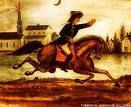
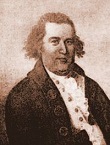




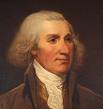





















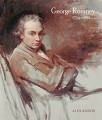
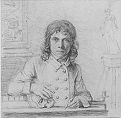


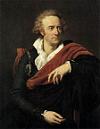
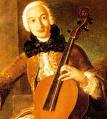
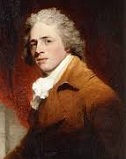






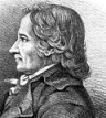

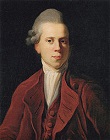
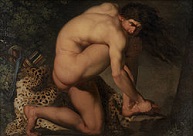
1775 "Already, in 1775, the many disastrous circumstances of Irish history had driven great bodies of Irishmen to seek a home in America" (Lecky); do the cents. of oppression of the Irish and Scots catch up with the stankin' English in Am. and fuel the Am. Rev. with a critical mass of volunteers? On Jan. 17 Concord, Mass. musters its 1st co. of minutemen under Capt. Charles Miles, and its 2nd on Jan. 30 under Capt. John Buttrick, who is later demoted to major. On Jan. 22 Marshal Oscar von Lubomirski expels the Jews from Warsaw - they later get even by having Poland partitioned? On Jan. 23 Alexander Hamilton's 80-page pamphlet The Farmer Refuted is pub. in New York City, crushing his opponent Rev. Samuel Seabury to the size of a vending machine peanut, predicting how rebel guerrilla tactics will ensure a V, and that France and Spain will come to the aid of the rebel colonies. In Jan. Capt. Cook discovers South Georgia and the South Sandwich Islands, then returns from his 2nd voyage. On Feb. 15 after a long conclave, Cesena-born Giovanni Angelico (Angelo) (Gianangelo) Braschi (Brachi) is elected Pope (#250) Pius VI (1717-99), going on to live to see the disturbing (to a Catholic) Am. Rev., French Rev., and Emperor Napoleon I - Pius VI in 76? On Feb. 21 Mass. colonists vote to buy military equipment for 15K men. On Mar. 6-7 the Treaty of Surat is signed, giving Britain the territories of Salsette and Bassein and part of the revenues from Surat and Bharuch in return for propping usurper Raghunath Rao on the throne of the Maratha Empire in India based in Pune by sending 2.5K soldiers; too bad, the treaty is negotiated with the Brits in Bombay rather than Calcutta, and when the latter hear about it they send Col. Upton to have it annulled. On Mar. 19 Benjamin Franklin spends the afternoon with Whig MP Edmund Burke; on Mar. 22 Burke makes a Speech on Conciliation with America in the House of Commons urging the govt. to adopt a policy of reconciliation with America, with the soundbyte: "A great empire and little minds go ill together." On Mar. 23 Patrick Henry (1736-99) gives his Give Me Liberty or Give Me Death Speech to the Va. Provincial Convention in Richmond, Va., with the soundbyte: "I know not what course others may take, but as for me, give me liberty or give me death"; armed revolt is on the way - and give me the governor's job? On Mar. 30 the New England Restraining Act forbids trade with any country other than Britain and Ireland by Mass., N.H., Conn. and R.I.; on Apr. 13 Lord North extends it to S.C., Va., Penn., N.J., and Md. In Mar. Ben Franklin leaves for America, arriving on May 5; he and Benjamin Rush (1745-1813) form the first abolition society at sea on Apr. 14. In the spring dissolute champagne-and-mistress-loving British Maj. Gen. John "Gentleman Johnny" Burgoyne (1722-92), whose first play is winning critical acclaim in London is assigned to duty in Boston, Mass., where he becomes an observer at the Battle of Bunker Hill - there's a man who lives a life of danger, to every man he meets he stays a stranger? In the spring peasants in Bohemia rise against servitude, led by Mathias Chwoja, causing the Austrian govt. to send 40K men to occupy Bohemia for two years. Daniel Boone was a man, yes a bi-i-i-g man? On Apr. 1 after Richard Henderson organizes a band of 30 expert woodsmen led by Daniel Boone to blaze the 200-mi. Wilderness Trail (Road) from the upper Holston River in Virginia's Shenandoah Valley, over the Appalachians, and through Cumberland Gap in SW Va., they cross the Kentucky River, terminating at Boonesville, where they build the stockade Ft. Boonesborough and found the colony (proposed 14th U.S. state) of Transylvania, with Boone's wife Rebecca Bryan and daughter being among the first women settlers in Ky. On Apr. 14 the first anti-slavery society in Am. is founded in Philadelphia, Penn. by Thomas Paine et al. April showers of bullets bring May flowering patriots? The Am. Rev. begins? On Apr. 14 Mass. gov. Thomas Gage is secretly ordered by the British to enforce the Coercive Acts and suppress open rebellion by an iron hand; on Apr. 17 John Adams ridicules Gov. Hutchinson, calling him a man "of piddling genius"; on Apr. 18 Gage secretly orders 800 troops to Concord to capture Samuel Adams and John Hancock and destroy the rebel weapons depot in Concord, but the rebels have spies, and the same day at 10 p.m. 18-y.-o. church sexton Robert Newman (1752-1804) hangs two lanterns ("one if by land, and two if by sea") in the 191-ft.-high steeple of the Anglican Old North Church (built 1723) (highest point in Boston) (most patriotic church in America, with a backbone of sea captain members who were hit hard by all the British shenanigans) to warn riders that the British are leaving Boston by boat to march on Concord, causing Paul Revere (1735-1818) to make his famous midnight ride on the borrowed horse Brown Beauty, shouting, "The British are coming!" after slipping by the 400-crew HMS Somerset (launched July 18, 1748) (which rescued British troops after the battles of Lexington and Concord, bombarded Bunker Hill, and sinks on Nov. 2, 1778 after being driven by a storm onto shallow sandy Peaked Hill); William Dawes Jr. (1745-99) also rides to Concord, but his role is later forgotten; "Listen my childen, and you shall hear/ of the midnight ride of Paul Revere/ on the eighteenth of April, in seventy-five;/ hardly a man is now alive/ who remembers that famous day and year" - Henry Wadsworth Longfellow (1807-82), Paul Revere's Ride. On Apr. 19 (dawn) the Battle of Lexington Green and Concord Bridge begins with a volley on 77 armed farmers known as Mass. Minutemen on Lexington Green under Capt. John Parker (1729-75) trying to block the British advance guards under Maj. John Pitcairn (1722-75); Parker commands, "Stand your ground. Don't fire until fired upon. But if they mean to have a war, let it begin here"; the volley leaves 8 colonists dead and 10 wounded, becoming "the shot heard around the world"; the British rout the colonials then destroy the weapons depot in Concord as ordered, although the Minutemen make a better stand on Concord Bridge; the first command to the colonials to fire on the British is given by Maj. John Buttrick (1731-91), who shouts "Fire fellow soldiers, for God's sake, fire!"; on the way back to Boston the Brits are harassed all the way by snipers hiding behind walls and fences, and the town of Arlington, Mass. (6 mi. NW of Boston) (founded 1700) becomes the scene of a hand-to-hand battle between Minutemen and the retreating Brits; the British end up with a total of 273 casualties, the colonials 95; John Adams says, "The die was cast, the Rubicon passed"; the town of Lexington, Ky. names itself when it receives news of the battle - it's a shooting war now? On Apr. 23 the Provincial Congress in Mass. orders mobilization of soldiers, who encamp around British-held Boston and seige it. On Apr. 23 New York receives news of the Lexington-Concord battle and an insurrection overtakes the city; the City Hall is pilfered of 1K weapons, which are used to start volunteer militia companies; on Apr. 24 a crowd of 8K patriots mass in front of City Hall, and many Tories book quick trips to England; on May 10 hundreds of patriots try to tar and feather Tory King's College pres. Myles Cooper, but his pupil Alexander Hamilton helps him escape to England. In Apr. Lord Dunmore removes powder stores from Williamsburg, Va. to the British warship Magdalen, causing colonists under the leadership of Patrick Henry to organize an armed resistance. Washington worship achieves critical mass? On May 5 Ben Franklin arrives in Philly from Portsmouth, England as bells ring to celebrate his arrival; delegates are already gathering there for the Second Continental Congress, incl. plantation squire George Washington (1732-99), who is greeted by a thousand militiamen at Philly's outskirts; Franklin is selected a member of Congress on May 6; at 70 he is the oldest of the 63 members. On May 8 New England delegates to the Second Continental Congress are warmly welcomed as they pass through New York; on May 10 the Second Continental Congress meets in Philly, and reelects Peyton Randolph (b. 1723) as pres., but he dies, and they elect John Hancock (richest man in Boston) as pres., then authorize the colonies to adopt their own constitutions. On May 10 the Continental Congress in Philly issues Continental Money to finance the Am. Rev. War (until May 31, 1781), issuing $2M worth on June 22. On May 10 Ethan Allen (1738-89), joined by Col. Benedict Arnold (1741-1801) of Conn. lead the Green Mountain Boys of Vt. (founded 1764) in conquering Ft. Carrillon, AKA Ft. Ticonderoga in N.Y., obtaining needed military supplies for the siege of Boston, followed on May 12 by Crown Point (on the W shore of Lake Champlain in N.Y., 10 mi. N of Ft. Ticonderoga), paving the way for an invasion of Canada. On May 20 the Mecklenburg Declaration, the first battle cry for Am. independence is issued in Mecklenburg, N.C., and N.C. becomes the first colony to declare independence. On June 1 a riot occurs during a session of the Va. House of Burgesses after it resolves to observe the anniv. of the closing of the port of Boston as a day of public fasting, causing Lord Dunmore to dissolve it and transfer his seat of govt. to the British man-of-war Fowey 12 mi. off Yorktown; on June 24 the burgesses meet for the last time, declaring that he had abdicated, creating a committee of safety with executive powers; nonplussed, on Oct. 24-25 Dunmore unsuccessfully attacks Hampton, Va. with a flotilla. On June 7 the United Colonies change their name to the United States in Congress Assembled after the name is suggested by Oliver Ellsworth. On June 11-12 the Battle of Machias (the Margaretta), the first naval action of the Am. Rev. War sees the colonials capture the British sloop Margaretta off Machias on the Maine coast; on Oct. 17 the British Navy burns the town of Falmouth, Mass. (modern-day Portland, Maine). On June 14 the U.S. Army is created by the Continental Congress; on June 15 strapping, reticent 43-y.-o. Virginian (hardly a virgin) George Washington (1732-99), who carries himself with unusual poise and habitually wears a colonel's uniform is appointed maj. gen. and CIC by a unanimous vote after Md. rep. Thomas Johnson Jr. (1732-1819) (gov. of Md. in 1777-9) proposes him; with one-fifth of the pop., Va. gets its leadership role, and the South is placated for the first but hardly last time; on June 16 other senior army officers are authorized, and on June 22 after a long debate Congress decides to appoint four maj. gens. (each with 2 aides and 8 brig. gens.) under Big GW, incl. Artemas Ward (1727-1800) of Mass., Charles Lee (1732-82) of Va., Philip John Schuyler (1733-1804) of N.Y., and Israel Putnam (1718-90) of Conn.; half of Washington's army ends up being made up of Irish regiments; many brigades are formed from entire Presbyterian congregations, with the minister acting as col.; 33-y.-o. Nathanael Green (1742-78), a handsome Quaker from R.I. with a limp and no military experience becomes the youngest brig. gen. in the U.S. army (after Trenton), and ends up second only to Washington, and the latter's choice for CIC if he is captured or killed; Greene later says of his boss, "He will be the deliverer of his own country"; London-trained Philly atty. Joseph Reed (1741-85) becomes Washington's secy., and later becomes army adjutant gen. with the rank of col.; Washington spends the rest of the year trying to break his army's individualistic and dem. spirit, ending the election of officers by the men, introducing a military hierarchy with distinctive dress and gradations in pay, led by aristocratic Southern states and objected to by Mass.; Washington gets frequent advice and supplies from Conn. gov. (1769-84) Jonathan Trumbull Sr. (1710-85), whom he refers to as "Brother Jonathan", later using the term to refer to Congress after he becomes pres. in 1789; Bible-thumper Washington introduces floggings, and tries in vain to get Congress to authorize 500 lashes as the max instead of 39; "New lords, new laws... The strictest government is taking place, and great distinction is made between officer and soldiers. Everyone is made to know his place and keep it." On June 15 word reaches the Continental Congress of British plans to occupy the Charlestown peninsula. On June 17, after the rebels learn of British plans to reinforce Bunker (Bunker's) Hill in Charleston, Mass. (modern-day Suffolk County) N of Boston, and beat them to the punch under Lt. Col. John Robinson (1735-1805), reinforcing nearby Breed's Hill instead, the British assault them, resulting in the Battle of Bunker Hill (Breed's Hill); the rebels are ordered by their ranking officer (cmdr. of Conn. forces since the Battle of Concord), pudgy-faced Maj. Gen. Israel "Old Put" Putnam (1718-90) not to fire until they can see "the whites of their eyes"; the Brits win when the rebels run out of gunpowder and have to retreat, but sustain 1K casualties (226 dead, 828 wounded) vs. 400 (140 dead, 301 wounded) for the rebels; Dr. Joseph Warren (b. 1741), who was appointed maj. gen. on June 14 and offered to fight as a private then insists on leading a charge is KIA in the battle after uttering the soundbyte: "These fellows say we won't fight! By Heavens, I hope I shall die up to my knees in blood", becoming a martyr despite Gen. Gage claiming that his death is worth 500 rebels; former slave Salem Poor (1747-1802) kills British Lt. Col. James Abercrombie (b. 1732); freed slave Peter Salem (1750-1816) (Muslim?) kills British leader Maj. John Pitcairn (b. 1722), allowing the rebels to escape; Mass. pres. James Warren fights in the battle alongside his wife Mercy Otis Warren's brother James Otis Jr., then is appointed a gen. but refuses to serve in the Continental Army under officers of lesser rank, and ends up as Washington's paymaster; the song Yankee Doodle, originally used by the British to ridicule Yankee ineptitude is adopted as an "in your face" American marching song because of this battle? On June 25 Washington crosses the Hudson River on the Hoboken ferry, then stages a triumphant procession along Broadway in a carriage pulled by white horses, wearing a purple sash across his blue uniform and a big plume in his hatty hat hat - If I can make it here, I can make it anywhere? On July 3 George Washington takes command of the 17K-man Continental Army at Cambridge, Mass. under an old elm tree. On July 5 the Continental Congress sends the Olive Branch Petition directly to King George III, fishing for a reconciliation (Congress still has its wannabe loyalists who blame America's troubles on his "artful and cruel" ministers, not the king); Ben Franklin signs it even though he has made the decision to go rebel by now. On July 6 the Continental Congress issues a Declaration of the Causes and Necessity of Taking Up Arms, written by Thomas Jefferson and John Dickinson; "Our cause is just. Our union is perfect... being with one mind resolved to die freemen rather than to live slaves" - ahem, forgot about the darkies? On July 12 Spanish capt. Bruno de Hezeta (Heceta) Y Dudagoitia (1744-1807) et al. of the ship Santiago land in Grenville Bay and claim Nueva Galicia (the Pacific NW of Am.) for Spain, becoming the first Euro landing in the future U.S. state of Washington; on Aug. 17 he discovers the mouth of the Columbia River, and names it Rio de San Roque, and the mouth Bahia de la Asuncion - and Kennewick Man is not interested? On July 26 the Continental Congress creates the position of U.S. Postmaster Gen., bringing the U.S. Post Office into existence, with Benjamin Franklin as the first. On July 27 Newport, R.I.-born Benjamin Church III (1734-78), grandson of Am. frontiersman Benjmain Church becomes the first surgeon gen. of the U.S. Army; too bad, on Oct. 17 he is caught secretly a betting the British during the siege of Boston as a spy for Gen. Thomas Gage, and is imprisoned until 1777, when he sails to the West Indies in a schooner that disappears at sea. On Aug. 5 Spanish Lt. Juan Manuel de Ayala (1745-97) (who left Monterey on July 26) becomes the first Euro explorer to sail through the Golden Gate of San Francisco Bay in Calif., naming three islands incl. Alcatraz (Sp. "pelican") Island and anchoring his packet ship Punta de San Carlos (which he takes command of by luck after captain Don Miguel Manrique goes mad?) at Angel Island (Isla de Los Angeles) to wait for the overland expedition of Capt. Juan Bautista de Anza, then on Sept. 18 returns to San Blas via Monterey, telling them how the harbor beats Monterey for having less fog, and how friendly the natives are. On Aug. 16 Edmund Pendleton (1721-1803) becomes pres. of the Va. Committee of Safety (until July 5, 1776), followed by pres. of the Va. Convention that authorizes the signing of the DOI, followed by first speaker of the Va. House, going on to work with Thomas Jefferson et al. to revise the Va. law code. On Aug. 23 in the biggest mistake in English kingly history, refusing to even look at it, not-yet-mad king George III appears before Parliament and issues a Proclamation of Rebellion against the Am. colonies, proclaiming them to have "proceeded to open and avowed rebellion", and calling for a "speedy end" to it, which finally causes Am. support for the rebellion to crystallize; overconfident kingy hires 29K German mercenaries to kick their rebel butts - hear hear, pip pip and all that rot? On Aug. 23 (Proclamation Day) Alexander Hamilton and 15 King's College volunteers move the heavy artillery of exposed Ft. George to the Common as the British warship Asia bombards them, blowing a big hole in the roof of Fraunces Tavern and sending thousands of panicky New Yorkers fleeing from their beds into the streets - and no FDNY to Rescue Me? In Aug. citizens of Bermuda sympathetic to the Am. rebel cause steal gunpowder, so alarming military gov. Bruere that he urgently requests that British troops be sent. On Sept. 17-Nov. 3 Am. Brig. Gen. Richard Montgomery (1738-75), serving under Gen. Philip Schuyler sieges St. John's (Jean) in Quebec, and brings about the surrender of 600 British troops after Col. Benedict Arnold leads the assault; on Nov. 13 Montgomery captures Montreal in Quebec. On Sept. 25 British troops capture Ethan Allen, the hero of Ticonderoga when he leads a handful of rebels in an attack on Montreal. In Sept. the Khasa Treaty settles the border between Nepal and China. In Sept. Veera Kerala Varma dies, and Rama Varma VIII (-1790) becomes king of Cochin in SW India (until Aug. 16, 1790). The original Hannah and her sisters? On Oct. 13 the Continental Congress orders the construction of a naval fleet; the first ship constructed is the schooner Hannah (Heb. "grace"), commissioned by George Washington and outfitted at Beverly, Mass.; prosperous Boston merchant Elbridge Gerry (1744-1814), an ally of Samuel Adams introduces and secures the passage of a bill to arm and equip ships to harass British maritime commerce. On Oct. 30 Father Junipero Sierra founds Mission San Juan Capistrano (#7); Indian unrest causes it to be abandoned, and a new one is founded on Nov. 1, 1776; the Acagchemem Indians build a small church now called the Serra Chapel (the oldest bldg. still in use in Calif.); every year on St. Joseph's Day (Mar. 19) the swallows return from their winter migration in Argentina. On Nov. 9 Archibald Robertson, lt. of royal engineers arrives in Boston, Mass. to supervise construction of defenses against the rebels, keeping a Diary containing numerous sketches (ends 1780). On Nov. 10 soldier-politician George Germain, 1st Viscount Sackville (1716-85) (AKA Lord George Germain) is appointed as British secy. of the Am. colonies by George III, and says the rebellion can best be solved with one "decisive blow"; the same day the U.S. Marine Corps is established in Philly by the Continental Congress, with two battalions; it was originally founded in 1740 in New York as a branch of the British army. On Nov. 12 Gen. Washington orders that "neither Negroes, Boys unable to bare Arms, nor old men unfit to endure the fatigues of the campaign" are to be recruited into the Continental Army. The British invent Deal or No Deal? On Nov. 15 the Battle of Kemp's Landing in Va. is a V for the British under cottish-born royal gov. John Murray, 4th Earl of Dunmore (1730-1809), who offers freedom to all slaves who will take up arms to defend the Crown, and to any child "born behind British lines", driving Am. slaveholders into the arms of the rebels and 80K Am. slaves into the arms of the Brits until the colonies (except Ga. and S.C.) reluctantly recruit slaves and freedmen into the army, made more palatable when owners are allowed to send them as substitutes for themselves; wherever the Brits march, escaped slaves flock to them for protection (which they repeat during the War of 1812 and Sherman's March to the Sea in 1864), totaling 100K during the war; Lord Dunmore's Ethiopian Regiment of black slaves wearing a patch reading "Liberty to Slaves", reaches 300 men incl. escaped slave Col. Tye (Titus Cornelius) (1753-80) reaches 300 men by Dec., and after seeing action is disbanded next year after most die from smallpox. On Nov. 17 George Washington and his ragtag army faceoff against 12K Redcoat regulars in Boston. On Nov. 19 prosperous skipper captain and patriot Isaac Sears (1730-86), the "king of the New York streets", together with a 100-man Conn. Light Horse Militia kidnap Rev. Samuel Seabury in Westchester, then parade him through New Haven, unsuccessfuly trying to make him confess to being the Westchester Farmer; on Nov. 23 Sears raids James Rivington's print shop in Manhattan, putting the New-York Gazeteer out of biz for its articles critical of the Sons of Liberty; Alexander Hamilton rises unsuccessfully to his defense. On Nov. 28 the Continental Congress formally establishes the U.S. Navy; Boston Tea Party veteran John Kendrick (Kenrick) (1740-94) commands its first ship Fanny after being commissioned on May 26, 1777; black Sambos, er, blacks are prohibited from enlisting until WWII; Va. planter and Continental Congress member Carter Braxton (1736-97) spends his fortune equipping ships. On Nov. 29 Congress appoints a secret committee to seek help from Europeans. On Dec. 22 Esek Hopkins (1718-1802) of R.I. is named the first adm. (CIC) of the Continental Navy, which has a total of seven small converted merchant ships, with HQ in Philadelphia. On Dec. 23 George III closes the Am. colonies to commerce and trade, effective next Mar. On Dec. 31 after Col. Benedict Arnold (1741-1801) is appointed by Washington to lead a disastrous march through the Maine forests, the Battle of Quebec sees 1.2K Am. forces (900 regulars, 300 militia) under Gen. Richard Montgomery attack the Quebec City in Canada in a raging snowstorm, and are defeated by 1.8K British and Quebec forces under Sir Guy Carleton; Montgomery is KIA, Arnold is wounded and Daniel Morgan is taken POW along with 400 men; the Am. offensive in Canada is ended; Congress grants Gen. Washington's request to make Arnold (his favorite?) a brig. gen., holding Montreal (captured Nov. 13) until next June; "If Arnold had not been wounded, few doubt that Canada would be the 14th state." (Washington) On Dec. 31 George Washington and Martha Washington attend a service at Christ Church (founded 1759) in Harvard Square in Cambridge, Mass., which has been used to house Conn. troops since the Battle of Lexington in 1775. In Dec. France informs Congress that it may offer support in the war. Russia, which used to let Jews live anywhere they wanted, begins to restrict them to the Pale of Settlement. The British military is expelled from Sulu in the S Philippines. Monterey becomes the capital and principal city of Alta (Upper) Calif. (until 1846). Infant Ang Eng (Ang Non II) (1773-96), a refugee in the Thai court is installed as king of Cambodia in Odongk by Thai troops (until 1779); meanwhile Thailand annexes Cambodia's three N provinces and brings the NW provinces under vassalage. George Pigot, 1st Baronet Pigot (b. 1719) (of Patshul) returns to become East India Co. gov. of Madras, going on to attempt to suppress corruption and gaining many enemies. After being sent by Antonio Maria Bucareli y Ursua, viceroy of New Spain to explore N Calif. to see if there are Russian settlements, Spanish explorer Bruno de Heceta (Hezeta) y Dudagoitia (1743-1807) discovers the Columbia River in W N. Am.; New England ship captain Robert Gray names it in 1792. Tucson, Ariz. (2,389-ft. alt.) is founded as a Spanish presidio, AKA "Old Pueblo" by Hugo O'Conor to protect settlers from Apache raids. Bodega Bay, Calif. is founded by the Spanish. Juan Manuel de Ayala names Alcatraz Island for its pelicans. Louis XVI sends playwright Pierre Augustin Caron de Beaumarchais (1732-99) (who gives his daughter harp lessons) on a secret mission to England to negotiate a settlement with Chevalier D'Eon over the embarrassing gender matter (and to get back secret documents he/she obtained as a spy that could be even more embarrassing); D'Eon agrees to return the documents in exchange for a pension and a royal statement that he/she is a woman; starting in 1777 he/she spends the rest of his/her life (till 1810) dressed as a woman (the first time in history a man does an Orlando or reverse Joan of Arc at midlife?); since he/she refuses to be examined, and leaves the bettors up in the air, he/she sinks into poverty, occasionally entering British fencing tournaments to earn some money, and gaining a rep as the best female (dress-wearing) sword fighter on earth (she brings up the rear of the women's movement?); while in England negotiating with Chevalier D'Eon, Beaumarchais meets Arthur Lee, the 3rd Am. commissioner to England (brother of William and Richard Henry Lee), who convinces him to lobby the French king to supply arms for the upcoming Am. Rev. Phalo ka Tshiwo (b. ?), ruler (since 1736) of the Xhosa, southernmost of the Bantu peoples dies, beginning a series of succession disputes until 1782. In Mexico the Monte de Piedad (Mount of Pity) nat. pawn shop is founded on the site of Moctezuma's brother's palace in Mexico City by the Count of Regla. The Horse You Came In On Saloon is founded in Fell's Point, Baltimore, Md., becoming a favorite of Edgar Allan Poe. In Mexico Manuel Arroyo of Real del Monte confesses to 30 counts of oral sex (fellatio) on men, claiming that his doctor told him it was good for his health and a way to avoid evil thoughts about women; he is sentenced to three years in prison by the Inquisition - or 3K more priests, whichever cums first? Catherine II the Great of Russia receives the Sultan's Feather, an ornament containing 1K+ diamonds from Turkish Sultan Abdul Hamid I. The last Hanseatic League trading station (kontor) is closed, leaving only two in London (closes 1852) and Augsburg (closes 1863). Moscow U. is founded. The first clearinghouse for British banks is established on Lombard Street in London. The British Parliament requires notice to be posted in a parish before a petition to enclose communal farmland can be sent to them; too bad, the consent of the owners of 75% of the land to be enclosed is sufficient to initiate the petition, locking out small landowners and contributing to the demise of the yeomen class, who are forced to move to the cities and/or work in industry. A decision by the Court of Common Pleas abolishes the Stationers' Co. monopoly (granted by James I) on publishing almanacs in England, but it continues on as the main publisher. German literary genius Goethe settles in Weimar, capital of the duchy of Saxe-Weimar after being invited by heir apparent Charles Augustus, turning it into the center of German intellectual and literary life while associating with poet Christoph Martin Wieland (1733-1813), Charlotte von Stein, Johann Gottfried von Herder et al., and holding various govt. posts - Weimar, future site of some nice concentration camps? Welsh-born Sarah Kemble Siddons (1755-1831) debuts at London's Drury Lane as Portia in Shakespeare's "The Merchant of Venice; too bad, London critics pan her, causing her to begin performing in provincial theatres until 1782. Dutch #1 poet Johannes Ewald (1743-81) founds the Danish Lit. Society. London portrait painter George Romney (1734-1802) becomes fashionable. English sculptor John Flaxman (1755-1826) begins working for pottery maker Josiah Wedgwood (until 1787). Spanish Franciscan priest Friar Pedro Font (1737-81) visits the Indians of Calif., reporting female same-sex marriages; "Among the women I saw some men dressed like women, with whom they go about regularly, never joining the men", adding "There will be much to do when the Holy Faith and the Christian religion are established among them"; in 1777 Francisco Palou writes "The couple was caught in the act of committing the nefarious sin. They were duly punished for this crime, but not with the severity it properly deserved... the layman answered that the Joya was his Wife!... Almost every village has two or three. But we place our trust in God and expect that these accursed people will disappear with the growth of the missions. The abominable vice will be eliminated to the extent that the Catholic faith and all other virtues are firmly implanted there, for the glory of God and the benefit of those poor ignorants" - what California Proposition was that? Caughley (Salopian) soft-paste porcelain begins to be manufactured in Shropshire, England, with the first-ever willow pattern, becoming known for cabbage-leaf jugs with molded mask spouts; in 1799 they are purchased by Coalport. Josiah Wedgewood begins producing Jasper Ware, fine blue-stained stoneware with white relief figures. The Continental Congress rations soldiers to one quart of spruce beer or cider per man per day. Architecture: The Bromberg Canal (begun 1772) is finished. Sports: On June 23 the first Thames Regatta is held. Inventions: A banner year for underwater inventions? Am. Yale engineer David Bushnell (1740-1824) invents the first torpedo, and itches to use it on the anally-retentive British? The first chain-driven machine is invented in England by Crane. British watchmaker Alexander Cummings of Bond St., London patents the first toilet with a U-shaped pipe underneath to keep the odor from cumming, er, rising, becumming, er, becoming the first modern toilet. 10-y.-o. Pierre-Simon Girard (1765-1836) of France invents a water turbine. Science: A small but accurate Map of the Moon by German scientist Johann Tobias Mayer (1723-62) is pub., which is unsurpassed for 50 years; a crater on the Moon is later named for him. Joseph Priestley discovers hydrochloric acid and sulfuric acid. Scottish inventor James Watt (1736-1819) perfects his steam engine and begins manufacturing them for sale (until 1800). English botanist William Withering (1741-99) of Birmingham becomes the first to use digitalis (digitalis purpurea from purple foxglove) as a drug (as a diuretic in dropsy) after he learns about it from a gypsy woman in Shropshire, who tells him it has been used as an herbal remedy for ages. Nonfiction: James Adair (1708-83), The History of the American Indians... Containing an Account of their Origin, Language, Manners, Religious and Civil Customs; revives the Ten Lost Tribes of Israel theory for Native Ams., pointing out their division into tribes, worship of a great spirit like Jehovah, notions of a theocracy, ablutions, and uncleanness, cities of refuge, and practices as regards divorce and raising seed to a deceased brother. Jean-Sylvain Bailly (1736-93), A History of Ancient Astronomy. Torbern Olaf Bergman (1735-84), Dissertation on Elective Attractions; contains the largest table of chemical affinities yet pub., first using the A, B, C etc. system for chemical equations. Edmund Burke (1729-97), Speech on Conciliation with America. Fredrik Henrik af Chapman (1721-1808), Treatise on Shipbuilding; pioneering work on modern naval architecture. Johann Joachim Eschenburg (1743-1820), William Shakespeare's Plays (13 vols.) (Zurich) (1775-82); based on the 1762-6 tr. by Christoph Martin Wieland, becoming the first complete trans. in German prose of Shakespeare's plays. Johan Christian Fabricius (1745-1808), Systema Entomologiae; first of several treatises on entomology by a Danish student of Carl Linnaeus which name and classify a total of 9,776 species, founding the field of entomology. Dr. Samuel Johnson (1709-84), A Journey to the Western Islands of Scotland; his 1773 trip with Boswell to Scotland and the Hebrides; Boswell's account is pub. after Johnson's death in 1785. Johann Kaspar Lavater (1741-1801), Physiognomische Fragmente zur Beforderung der Mennschenkenntnis und Menschenliebe (1775-8); popularizes the pseudo-science of physiognomy; Goethe, his friend since 1774 at first goes for it, then wises up and accuses him of being a hypocrite - down that primrose path of the honest face? Justus Moser (1720-94), Patriotische Phantasien (1775-86); a plea for one unified Germany with natural instead of arbitrary laws imposed by a sovereign, making him the German Edmund Burke. William Robertson (1721-93), The Situation of the World at the Time of Christ's Appearance, and Its Connexion with the Success of His Religion, Considered; sermon preached before the Society in Scotland for Propagating Christian Knowledge, Jan. 6, 1775. Louis Claude de Saint-Martin (1743-1803), Des Erreurs et de la Verite (Of Errors and Truth); pub. under alias "The Unknown Philosopher". Thomas Sheridan (1719-88), Lectures on the Art of Reading. Hugh Williamson (1735-1819), The Plea of the Colonies; physician-scientist who helped Benjamin Franklin with his electricity experiments defends the Am. colonies' rebellious acts, and becomes an army doctor. Music: C.P.E. Bach (1714-88), Symphony No. 1; Symphony No. 2; Symphony No. 3; Symphony No. 4; Die Israeliten in der Wuste (oratorio). Luigi Boccherini (1743-1805), String Quintet in E major, Op. 11, No. 5; incl. The Celebrated Minuet. Vicente Martin y Soler (1754-1806), Il Tutore Burlato (first opera); adapted from Giovanni Paisiello's "La Frascatana", based on the play by Filippo Livigni; debuts in 1778 in Madrid as "Il Madrilena o El Tutor Burlado". Wolfgang Amadeus Mozart (1756-91), La Finta Giardiniera (The Pretend Garden-Girl), K.196 (opera buffa) (Salvatortheater, Munich) (Jan. 13); libretto by Giuseppe Petrosellini; converted into German Singspiel "Die Garternin aus Liebe" in 1780; Il Re Pastore (The Shepherd King), K.208 (Salzburg) (Apr. 23); last major stage work from his Salzburg period. Art: Nicolai Abraham Abildgaard (1743-1809), The Wounded Philoctetes. Jean-Honore Fragonard (1732-1806), The Bathers. Francisco de Goya (1746-1828), Self-Portrait (1775-80). Jean-Antoine Houdon (1741-1828), Gluck (sculpture). Pietro Longhi (1701-85), The Morning Chocolate (Venice) (1775-80). Denis Diderot [1713-84] (sculpture). Augustin Pajou (1730-1809), Michel-Jean Sedaine (sculpture). Sir Joshua Reynolds (1723-92), Miss Bowles. Plays: Vittorio Alfieri (1749-1803), Cleopatra (tragedy) (first play) (Turin). Pierre-Augustin Caron de Beaumarchais (1732-99), The Barber of Seville (Le Barbier de Seville) (comedy). Gen. John Burgoyne (1722-92), The Maid of the Oaks (Drury Theatre, London); a hit for a soldier-dramatist? Charles Dibdin (1745-1814), The Quaker (comic opera) (Drury Lane Theatre, London); folds after one quaking performance. Richard Brinsley Sheridan (1751-1816), The Rivals (comedy of manners) (first play) (Covent Garden Theatre, London) (Jan. 17); prologue by David Garrick; about "The deceptive nature of appearances, the fickleness of reputation, the often disreputable guise behind which goodness and honesty can conceal itself"; chars: Sir Anthony Absolute, his son Capt. Jack Absolute, Lydia Languish and her guardian Mrs. Malaprop (whose misuse of language, e.g., "Put The Innocent Adultery into The Whole Duty of Man" causes the term "malapropism" to be coined); St. Patrick's Day; or, The Scheming Lieutenant (Convent Garden Theatre, London) (May 2); written in two days for lead actor Lawrence Clinch to reward him fror playing Sir Lucius O'Trigger in "The Rivals". Richard Brinsley Sheridan (1751-1816), Thomas Linley the Elder (1733-95), and Thomas Linley the Younger (1756-78), The Duenna (opera) (Covent Garden Theatre, London) (Nov. 21) (75 perf); makes fans of Dr. Samuel Johnson, William Hazlitt, and Lord George Byron, who calls it "The best opera ever written." Mercy Otis Warren (1728-1814), The Group; pub. anon.; satire of what would happen if George III abrogated the Mass. Charter of Rights. Births: French Ampere's Law physicist-mathematician Andre-Marie Ampere (André-Marie Ampère) (d. 1836) on Jan. 20 in Poleymieux, Lyons; at 18 he takes his first Communion, reads Thomas' "Eulogy of Descartes", and witnesses the taking of the Bastille. Spanish tenor composer-teacher Manuel de Populo Vicente Garcia (d. 1832) on Jan. 22 in Seville; father of singers Maria Malibran (1808-36), Pauline Garcia-Viardot (1821-1910), and Manuel Patricio Rodriguez Garcia Jr. (1805-1906). Am. painter John Rubens Smith (d. 1849) on Jan. 23 in London, England; educated at the Royal Academy. emigrates to the U.S. in 1807. German philosopher Friedrich Wilhelm Joseph von Schelling (d. 1854) on Jan. 27 in Leonberg, Wurttemberg. English "Rose Aylmer", "Imaginary Conversations" poet-writer Walter Savage Landor (d. 1864) on Jan. 30. Hungarian mathematician Farkas (Wolfgang) Bolyai (d. 1856) on Feb. 9 in Bolya (Bia), Transylvania; father of Janos Bolyai (1802-60). English essayist-critic (Shakespeare nut) Charles Lamb (d. 1834) (AKA Elia) on Feb. 10 in London; brother of "Mad" Mary Lamb (1764-1847). English "Rejected Addresses" writer James Smith (d. 1839) on Feb. 10 in London; brother of Horace Smith (1779-1849). U.S. First Lady (1825-9) (first foreign born) Louisa Catherine Johnson Adams (d. 1852) on Feb. 12 in London, England; Am. father, English mother; wife (1797-) of John Quincy Adams (1767-1848). French adm. Guy-Victor Duperre (Duperré) (d. 1846) on Feb. 20 in La Rochelle. Am. businessman Francis Cabot Lowell (d. 1817) on Apr. 7 in Newburyport, Mass.; uncle of James Russell Lowell (1819-91); educated at Harvard College; namesake of Lowell, Mass. English politician-naturalist Edward Smith-Stanley, 13th Earl of Derby (d. 1851) on Apr. 21; only son of the 12th earl of Derby (1752-1834); patron of Edward Lear; educated at Eton College, and Trinity College, Cambridge U. English "Fighting Temeraire" #1 Romantic landscape painter ("Painter of Light") ("the Shakespeare of Landscape" - Alfred Lord Tennyson) J.M.W. (Joseph Mallord William) Turner (d. 1851) on Apr. 23 in Covent Garden, London; known for atmospheric effects, elevating landscape painting to the level of historical painting. Corsican prince Lucien Bonaparte, Prince of Canino and Musignano (d. 1840) on May 21 in Ajaccio; 3rd son of Carlo Buonaparte and Letizia Ramolino; younger brother of Joseph Bonaparte (1768-1844) and Napoleon Bonaparte (1769-1821); the most gifted of the Bonapartes? German philologist (decipherer of Babylonian cuneiform) Georg Friedrich Grotefend (d. 1853) on June 9 in Hann, Munden; educated at the U. of Gottingen. U.S. war secy. #11 (1825-8) James Barbour (d. 1842) on June 10; brother of Philip Pendleton Barbour (1783-1841). Italian poet Carlo Porta (d. 1821) on June 15 in Milan. Am. Mormon mom Lucy Mack Smith (d. 1856) on July 8 in Gilsum, N.H.; wife (1796-) of Joseph Smith Sr. (1771-1840); mother of Joseph Smith Jr. (1805-44). Spanish "Mysterious Night" poet-theologian Jose Maria (Joseph) Blanco White (d. 1841) on July 11 in Seville; Irish father, Spanish mother. English sculptor Sir Richard Westmacott Jr. (d. 1856) on July 15 in London; son of Richard Westmacott Sr. (1747-1808); student of Antonio Canova (1757-1822); father of Richard Westmacott III (1799-1872); knighted in 1837. French scientist Etienne-Louis (Étienne-Louis) Malus (d. 1812) on July 23 in Paris. U.S. First Lady #9 (1841) Anna Tuthill Symmes Harrison (d. 1864) on July 25 in Morristown, N.J.; wife (1795-) of pres. William Henry Harrison (1773-1841). English Shakespearean play forger William Henry "Samuel" Ireland (AKA Vortigern) (d. 1835) on Aug. 2 in London; son of Samuel Ireland (1744-1800), who becomes his son's main victim. Irish nationalist leader, MP (1828-30), and atty. ("the Liberator") ("the Emancipator") Daniel O'Connell (d. 1847) on Aug. 6 in Cahirsiveen, County Kerry. French philologist-classicist Jean Louis Burnouf (d. 1844) on Sept. 14 in Urville; father of Eugene Burnouf (1801-52). Am. Least Squares mathematician Robert Adrain (d. 1843) on Sept. 30 in Carrickfergus, Ireland; emigrates to the U.S. in 198. Am. Presbyterian minister (co-founder of the Am. Temperance Society) Lyman Beecher (d. 1863) on Oct. 12 in New Haven, Conn.; educated at Yale U.; husband (1799-1816) of Roxana Foote; father of 13 children, incl. Catharine Esther Beecher (1800-78), Edward Beecher (1803-95), Harriet Beecher Stowe (1811-96), Henry Ward Beecher (1813-87), and Charles Beecher (1815-1900). British (Scottish) rear adm. ("the Sea Wolf") Thomas Cochrane, 10th Earl of Dundonald (d. 1860) on Dec. 14 in Annsfield (near Hamilton), Lanarkshire, Scotland. English "Pride and Prejudice" novelist Jane Austen (d. 1817) on Dec. 16 in Steventon; born in the parsonage; grows up with her father (d. 1805), sister, and brothers, who like to read aloud together and put on plays. Am. Rocky Mt. Fur Co. frontiersman Maj. Andrew Henry (d. 1832) in Fayette County, Penn. French comic opera composer Francois-Adrien Boieldieu (d. 1834) on Dec. 16 in Rouen. Am. La. gov. #1 (1804-16) William Charles Cole Claiborne (d. 1817) in Sussex County, Va. German jurist-philosopher (originator of the psychological-coercive or intimidation theory) Paul Johann Anselm von Feuerbach (d. 1833) near Jena; father of philosopher Ludwig Feuerbach (1804-72). Deaths: Arab ruler of Palestine Sheikh Daher el-Omar (b. 1690) on Aug. 21 in Acre. Italian Passionist priest St. Paul of the Cross (b. 1694) on Oct. 18 in Rome; canonized on June 29, 1867. Italian composer Giovanni Battista Sammartini (b. 1700) on Jan. 17; leaves 3 operas, 70 symphonies, and 10 concertos, and 450 chamber music works. Buddhist poet-artist-nun Chiyo-ni (b. 1703). English type designer John Baskerville of Birmingham (b. 1706) on Jan. 8 in Birmingham. German sculptor Johann Joachim Kandler (b. 1706). Moravian-born Am. Moravian bishop Peter Boehler (b. 1712). British adm. Sir Charles Saunders (b. 1715) on Dec. 7. English-born Am. architect Peter Harrison (b. 1716) on Apr. 30 in New Haven, Conn.; designed Touro Synagogue and Redwood Library in Rhode Island. English writer Sir John Hill (b. 1716) on Nov. 21. Am. political leader Peyton Randolph (b. 1721) on Oct. 23 ("apoplectic stroke") - talk about bad timing? British Maj. John Pitcairn (b. 1722) on June 17 in Boston, Mass. (KIA). Am. Rev. Gen. Richard Montgomery (b. 1738) on Dec. 31 in Quebec City, Canada. Am. Rev. Gen. Dr. Joseph Warren (b. 1741) on June 17 in Boston, Mass. (KIA in the Battle of Bunker Hill); British Capt. Walter Laurie "stuffed the scoundrel with another rebel into one hole, and there he and his seditious principles may remain", after which his body is exhumed 10 mo. later by Paul Revere, who IDs him by an artificial tooth, becoming the first recorded example of post-mortem ID by forensic odontology?; his children are financially supported by Benedict Arnold, who gets the Continental Congress to take over; 14 states later name a county after him. Am. Rev. leader Josiah Quincy II (b. 1744) on Apr. 26; dies at sea while sailing from England. Danish-Norwegian queen (1766-72) Caroline Matilda (b. 1751) on May 10 in Celle Castle in Hanover.

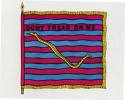





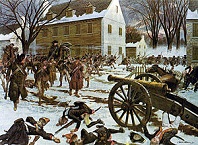



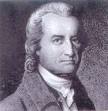



























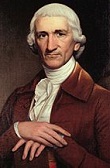










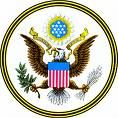
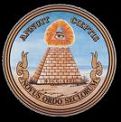
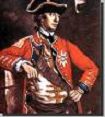






















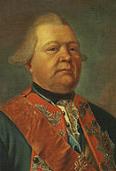


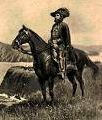
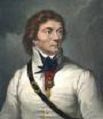
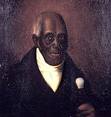







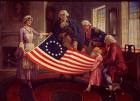

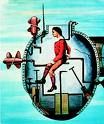

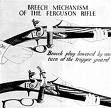


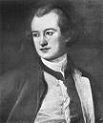

























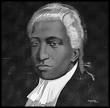














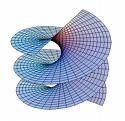





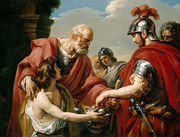
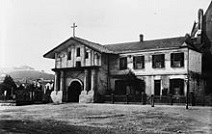


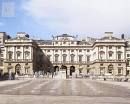
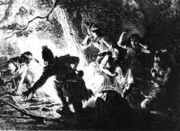
1776 A leap year; Hebrew year: 5536/7. Jan. 1 falls on Mon. in the Gregorian Calendar, and Fri. in the Julian Calendar, which is 11 days behind. Pop.: Philadelphia: 40K; New York City and Boston combined: 24K; slave pop. in the Am. colonies: 500K. A foot-and-mouth disease panzootic hits Europe (ends 1779). During the Am. Rev. War Loyalists comprise 15%-20% of the white pop., while patriots comprise 40%-45%, and the rest are indifferent; John Adams estimates that one-third of the Am. people support the rebels, one-third support the British, and one-third are indifferent - the pesky Scots and Irish are used to fighting the stankin' English and facing impossible odds, and take them over the top? At the start of the Am. Rev. the daily Hartford Courant (founded as "The Connecticut Courant" on Oct. 29, 1764 by Thomas Green) is the most popular newspaper in the U.S., although pamphlets get far more circulation, of which most are church sermons; the newspaper goes on to adopt the slogan "Older than the nation", and "America's oldest continously published newspaper"> In 1776-1781 Britain sends 60K troops to America, incl. 29K Hessian soldiers from the German states of Brunswick, Hesse-Cassel (landgrave Frederick II), Hesse-Hanau, Waldeck, Anspach-Bayreuth and Anhalt-Zerbst; 7K Hessians die in the war and another 5K desert and settle down; Russia refuses to supply troops. On Jan. 1 King George III's speech to Parliament, calling his Am. subjects "deluded", and their leaders "traitorous", with designs for an "independent empire" arrives, laying out his plan to ramp up British forces with the assistance of foreign troops to crush the rebellion, pumping up the rebels to wage all-out war for independence, starting with burning it. On Jan. 1 the British Siege of Boston by the Continentals under Gen. Washington begins (ends Mar. 17); the Grand Union Flag modeled on the Union Jack with 13 red-and-white stripes is hoisted by Washington on Prospect Hill in a ceremony commemorating the 1776 inauguration of the Continental Army; when it is mistaken for a token of surrender, the need for a new nat. flag is recognized, and the Stars and Stripes vies with the Rattlesnake Flag for the honor; during the siege, George Washington quarters his troops in the bldgs. of Harvard Yard in Cambridge. On Jan. 1 Lord Dunmore shells Norfolk, Va., destroying almost two-thirds of it; later this year after the rebels drive him from his station on Gwynn's Island in Chesapeake Bay, he sends his fleet to the West Indies and skedaddles to England; meanwhile early in the year U.S. adm. Esek Hopkins is ordered by the Continental Congress to attack the British fleet in Chesapeake Bay, but decides against suicide and instead attacks the British post at New Providence in the Bahamas, capturing valuable war materiel; when he returns he fights an inconclusive battle on Apr. 7 with HMS Glasgow off Brenton's Point on Long Island Sound, and when he returns to Philly he is censured by the Continental Congress for disobeying orders then letting his fleet lay idle in Narragansett Bay: John Adams attempts an eloquent defense, but they don't buy it. On Jan. 2 George Washington writes a letter to his aide-de-camp Stephen Moylan from Cambridge, Mass. during the Siege of Boston, using the term "United States of America" - proving he invented it? Kingie, what will you do about the Constitution Solution? On Jan. 5 New Hampshire (N.H.) adopts the first U.S. state constitution, followed by South Carolina (S.C.) on Mar. 26, Georgia (Ga.) in Apr. (temporary constitution); Virginia (Va.) on June 29, New Jersey (N.J.) on July 2, Pennsylvania (Penn.) on Sept. 28, Maryland (Md.) on Nov. 11, and North Carolina (N.C.) on Dec. 18. On Jan. 8 English Roman Catholic actor John Philip Kemble (1757-1823) debuts as as Nathaniel Lee's "Emperor Theodosius" in Wolverhampton, going on to become one of the top Shakespearean actors of his day, #3 behind Edmund Kean and David Garrick, although his Macbeth tops theirs? On Jan. 10 (Wed.) self-taught English immigrant and former corset maker and excise officer Thomas "Tom" Paine (1737-1809), who arrived in Philly two years earlier pub. his anon. 46-page incendiary pamphlet Common Sense in Philadelphia, calling George III the "royal brute of Britain", calling for a declaration of independence and convincing Am. leaders of the need for a separation from England; 120K copies are printed in 3 mo., and 500K by the end of the year, and every tavern is buzzing about it (even without the Internet?); "The cause of America is, in great measure, the cause of all mankind"; "The laying a country desolate with fire and sword, declaring war against the natural rights of all mankind, and extirpating the defenders thereof from the face of the earth, is the concern of every man to whom nature hath given the power of feeling"; "Society in every state is a blessing, but government even in its best state is but a necessary evil [and] in its worst state an intolerable one"; "There is something exceedingly ridiculous in the composition of monarchy; it first excludes a man from the means of information, yet empowers him to act in cases where the highest judgment is required" "We have it in our power to begin the world anew"; John Adams later issues the soundbytes "History will ascribe the American Revolution to Thomas Paine", and "Without the pen of Paine the sword of Washington would have been wielded in vain"; Paine is given a position as aide to Am. Gen. Nathanael Greene (1742-86), and his future seems so bright he takes to wearing shades; too bad, after the war his Bible-rejecting Rationalist pubs. and support of the French Rev. turn the U.S. power structure against him, causing a misguided attempt to erase and/or defame his memory, and he dies a bitter, wronged man? On Jan. 16 Benjamin Franklin argues for an instrument of confederation in the Continental Congress, but is defeated. On Jan. 20 S.C. loyalists led by Robert Cunningham (1741-1813) sign a petition from prison agreeing to all demands by the newly formed state govt. of S.C. On Jan. 24 gregarious double-chinned 280 lb. U.S. Col. Henry "Ox" Knox (1750-1806) (former Boston bookseller, and friend of Gen. Nathanael Greene) finishes a 600 mi. trek over wintry terrain and delivers 60 tons of artillery from Ft. Ticonderoga to Cambridge, Mass. In Jan. Benjamin Franklin's loyalist son William Franklin (1731-1813) is deposed as royal gov. of N.J. under order of the Continental Congress, then captured in Perth Amboy, and imprisoned in June - erin go bragh? In Jan. French comptroller gen. Jacques Turgot presents Louis XVI with Six Edicts, ending the monopoly of the guilds, abolishing the hated corvee (instituted 1738) et al., causing the clergy, courtiers, nobility, and queen Marie Antoinette to demand his dismissal, and letters to be forged alleging him to have made offensive remarks about Louis XVI, but the latter doesn't buy it, saying, "Only Monsieur Turgot and I really love the people"; too bad, after more pressure he requests Turgot's resignation in May - the king lost his head right there? In Jan. after public faith in paper money declines to the point of worthlessness, the Continental Congress passes a resolution backing its money, with the soundbyte: "that if any person shall hereafter be so lost to all virtue and regard for his country, as to refuse to receive said bills in payment, or obstruct or discourage the currency or circulation thereof,... such person shall be deemed, published, and treated as an enemy of his country, and precluded from all trade or intercourse with the inhabitants of these colonies." On Feb. 27 the Battle of Moore's Creek Bridge sees 1.6K upper N.C. British regulars and Scottish Highlanders under Gen. Donald McDonald marching to meet up with expected British sea-born reinforcements at Cape Fear spot what they believe to be a small force of rebels, then charging over a bridge 18 mi. NW of Wilmington, N.C., only to find out that they number 1K, commanded by Col. John Alexander (Alexander John) Lillington (1725-86) and Col. Richard Caswell (1729-89); the rebels lose only one KIA and one wounded, kill several loyalist leaders, and take 900 POWs, seizing arms, supplies, and 15K British pounds in cash; the rebel V stops British gen. Sir Henry Clinton (1730-95) from landing an expeditionary force in the Southern colonies. No more mopping that floor with that burning inside? On Feb. 29 Lord North tells the House of Commons that it will be cheaper in the long run to hire mercenaries than to recruit men at home for the Am. army, and he makes a motion that treaties between George III, the landgrave of Hesse-Cassel, duke of Brunswick, and the hereditary prince of Hesse-Cassel be referred to the committee of supply; he is supported by Am. secy. (since 1775) George Germain, 1st Viscount Sackville, who notes that in every war or rebellion England has hired foreigners to help it; opponents counter that hiring mercenaries even at £7 per man would cost too much and would disgrace Britain in the eyes of all Europe; the Lords pass it by 100-32, and the Commons by 242-88, and seven small German states end up supplying 30K mercenaries, incl. 17K from Hesse-Cassel, most skilled at using bayonets. On Mar. 1 French foreign minister (since 1774) Charles Gravier, Comte de Vergennes (1717-87) advises his Spanish counterpart to support the Am. rebels against the English. On Mar. 1 after intervention by the Brits in Calcutta, the Treaty of Purandhar annuls last year's Treaty of Surat, negotiated by the Brits in Bombay; Raghunath Rao is promised a pension, and the British East India Co. retains the revenues of Salsette and Bharuch; too bad, the Brits in Bombay get pissed off at this and give refuge to Rao, and the First Anglo-Maratha War (begun 1773) goes on. On Mar. 2 the newly-equipped rebels under Shrewbury, Mass.-born Gen. Artemas Ward (1727-1800) begin shelling British troops in Boston, and on Mar. 4 capture Dorchester Heights overlooking Boston Harbor using night guerrilla tactics; a harsh winter storm prevents a British counterattack, and on Mar. 17 the British evacuate to New York and points south, while Gen. William Howe evacuates 900 loyalists to Nova Scotia (many of whom settle in New Brunswick), after which Gen. Washington marches his men back into the streets of Boston; Am.-born Tory scientist Benjamin Thompson (1753-1814), who spied for the British leaves Boston with them, going to Europe after the war ends and eventually entering the service of science-loving Palatinate prince-elector (since 1742) Karl Theodor (Charles Theodore) (1724-99), who gives him the title of Count Rumford; on Mar. 24 Washington writes a letter to the Continental Congress describing how he had made the city of Boston safe from British attack, causing them to give him a medal on Mar. 25; Tea Leaves, a collection of papers by the East India Tea Co. relating to the 1773 Boston Tea Party is taken by an unknown Boston person to Halifax, N.S., and pub. in 1884 by Francis S. Drake. Once again Chen I take your yen? Fledgling capitalist U.S.A. has a bible written by a stingy Scot? On Mar. 9 Scottish U. of Glasgow economist and Calvinist minister ("Father of Economics") Adam Smith (1723-90) pub. his epic 1K-page capitalist Bible Inquiry into the Nature and Causes of the Wealth of Nations, which advances the theory of laissez-faire economics, a "system of natural liberty", and the concept of the "invisible hand", becoming a bestseller, selling out in a few weeks; "Consumption is the sole end and purpose of all production, and the interest of the producer ought to be attended to, only so far as it may be necessary for promoting that of the consumer"; "The real price of everything is the toil and trouble of acquiring it"; "The propensity to truck, barter, and exchange... is common to all men, and to be found in no other race of animals"; "It is not from the benevolence of the butcher, the brewer, or the baker that we expect our dinner, but from their regard to their own interest"; "Every individual endeavors to employ his capital so that its produce may be of greatest value. He generally neither intends to promote the public interest, nor knows how much he is promoting it. He intends only his own security, only his own gain. And he is in this led by an invisible hand to promote an end which was no part of his intention. By pursuing his own interest he frequently promotes that of society more effectually than when he really intends to promote it"; "To found a great empire for the sole purpose of raising up a people of customers may at first sight appear unfit for a nation of shopkeepers, but extremely fit for a nation whose Government is influenced by shopkeepers"; "The discovery of America, and that of a passage to the East Indies by the Cape of Good Hope, are the two greatest and most important events recorded in the history of mankind." On Mar. 31 Abigail Smith Adams (1744-1818) writes to her hubby John Adams from Boston to put in her two pence worth from the sidelines: "This intelligence will make a plain truth for you, though a dangerous one. I could not join today in the petitions of our worthy pastor for a reconciliation between our no longer parent state, but tyrant state, and these Colonies. Let us separate: they are unworthy to be our brethren"; she adds: "By the way, in the new code of laws which I suppose it will be necessary for you to make I desire you would Remember the Ladies, and be more generous to them than your ancestors. Do not put such unlimited power into the hands of the husbands. Remember, all men would be tyrants if they could [quoting Daniel Defoe]. If particular care and attention is not paid to the ladies, we are determined to foment a revolution, and will not hold ourselves bound by any laws in which we have no voice or representation"; when he writes back, calling her saucy, she retorts, "I can not say that I think you very generous to the Ladies for whilst you are proclaiming peace and goodwill to Men, Emancipating all Nations, you insist upon retaining absolute power over Wives." - no nooky for you when you get back? In Mar. Spanish Capt. Juan Bautista de Anza Bezerra Nieto (1736-88), Lt. Jose Joaquin de la Santisima Trinidad Moraga (1741-85), and Franciscan priest Friar Pedro Font (1737-81) arrive at the tip of San Francisco, and De Anza plants a cross at what is now Ft. Point, becoming the start of the city of San Francisco, Calif. (named after St. Francis of Assisi)(modern pop. 8.7M/870K), founding Laguna de los Dolores (the Friday of Sorrows) (later Mission San Francisco de Asis). On Apr. 3 Harvard College awards the first honorary Doctor of Laws degree to George Washington to go with his new medal. On Apr. 6 the Continental Congress declares all shipping ports open to all traffic except the British. On Apr. 6 King's College in Manhattan is commandeered by the patriots for use as a military hospital. On Apr. 12 N.C. issues the Halifax Resolves, becoming the first colony to empower its congressional delegates to vote for independence from Britain. On Apr. 23 Comanches attack Spanish-held Ft. Cibolo in Texas. On May 1 (May Day) Jesuit-trained anti-Jesuit former Bavarian canon law prof. Johann Adam Weishaupt (1748-1830) of the U. of Ingolstadt (who got his job in 1773 after the Jesuits were suppressed by Pope Clement XIV) founds the secret Bavarian Order of the Illuminati ("the Very Perfectibles") in Ingolstadt, Bavaria, with five members, allegedly secretly backed by German Jewish big brain internat. bankerMayer Amschel Rothschild (1744-1812), with the alleged aim of the destruction of Christendom and the Christian order of Europe by dividing and conquering and playing one nation off against the other via internat. bank financing et al., with the ultimate goal of the establishment of a New World Order (NWO), and which is behind the Am. Rev., French Rev., European revs. of the 19th cent., U.S. Civil War, Russian Rev., League of Nations, and United Nations (9/11?); deciding to work inside the Freemasons, the membership is up to 54 in 1779, branching through Europe and attracting Goethe, Schiller, Herder, and Mozart; after it is suppressed on June 22, 1784, its few thousand members are exterminated from C Europe, but either it goes totally underground and keeps growing, or it generates one heck of a myth?; the Columbian Faction of the Illuminati is strong in North Am.? On May 2 King Louis XVI of France commits 1M livres in arms and munitions to the Am. rebels, and Spain promises to do the same; in June they establish the fictitious co. Roderique Hortalez et Cie to facilitate the transfer of arms to the rebels under the management of French dramatist Pierre Augustin Caron Beaumachais (1732-99); in Oct. Swiss-born Jacques Necker (1732-1804) (father of Madame de Stael) becomes French minister of finance (until Sept. 4, 1790), keeping Pierre du Pont de Nemours on as economist; the French end up supplying 90% of the rebels' munitions during the first two years of the war, incl. virtually all their guns and gunpowder; meanwhile this exacerbates the public debt and bread shortages, leading to rioting - and comments about eating cake? On May 4 Rhode Island declares independence from Britain. On May 6 the Va. Convention in Williamsburg votes unanimously to break ties with Britain after 169 years, and on May 15 becomes the first colony to send a delegate, Richard Henry Lee, to the Continental Congress with instructions to propose complete independence. On May 10 the Continental Congress authorizes all 13 colonies to form local govts; only Va., Penn. and Mass. are commonwealths. On May 10 John Paul Jones (1747-92), who entered Continental naval service in Philly in 1775 as senior lt. of the flagship Alfred is promoted to capt. of the sloop Providence, cruising the West Indies, Nova Scotia and British coast getting even with the Brits for past injustices, er, doing his patriotic duty; after captaining the Alfred, he is given the new 18-gun sloop Ranger, the first U.S. steam warship, one of 13 war vessels built by the rebels this year. On May 17 John Witherspoon (1723-94) (pres. of Princeton U. since 1768) delivers his sermon The Dominion of Providence over the Passions of Men in Princeton, N.J., arguing for independence, with the soundbyte: "There is a tide in the affairs of men, a nick of time. We perceive it now before us. To hesitate is to consent to our own slavery"; he goes on to sign the DOI after getting a phrase about "not only soldiers of our common blood, but Scotch and foreign mercenaries" deleted. Do it to it? On June 7 Richard Henry Lee (1732-94) of Va. proposes Lee's Resolution(s), calling for a committee to draft a Declaration of Independence (DOI), and containing the soundbyte "That these United Colonies are and of right ought to be be free and independent states", but is prevented by illness from becoming a member, and Thomas Jefferson is appointed to take his place; the moderates vote for a 3-week delay, and on June 11 Congress appoints a Committee of Five to draft a DOI; other members are Benjamin Franklin (1706-90) of Penn., John Adams (1735-1826) of Mass., Robert R. Livingston (1746-1813) of N.Y. (not to be confused with N.Y. Sen. Philip Livingston (1716-78), who later signs the DOI with him), and Roger Sherman (1721-93) of Conn.; John Adams (1735-1826), "the atlas of American independence", knowing he's the force driving the whole shebang, and was the first to stick his neck out and call for independence (proved by being at the top of the British hanging list), actually hands Jefferson the job that he could have had, thinking that it will be just another forgotten declaration; too bad, in later years, when people don't remember it that way, and July 4 and Jefferson's DOI are celebrated instead of him and his longtime work, he goes ape? - that's me, Joe the process server? On June 8 the Battle of Trois-Rivieres (halfway between Montreal and Quebec) is a D for the Am. rebels led by Gen. John Sullivan, who are attacked as they attempt to siege Quebec in the face of British artillery, then driven back toward Montreal by the Brits under Sir Guy Carleton, only to counterattack at you know where and get their cans kicked, after which the survivors return to Montreal. On June 11-28 the Declaration of Independence (DOI) is written by Thomas Jefferson (1743-1826) of Va. from a rough draft by English-born Thomas Paine (1737-1809) which he gave to John Adams (1735-1826), and which ends up with "some of the most manly sentiments expunged", according to Abigail Adams (incl. the abolition of slavery?); Jefferson makes a Freudian slip and writes "fellow subjects", then changes it to "fellow citizens"; on June 28 Jefferson reads it to the Continental Congress, thrilling them with the immortal soundbytes: "When in the course of human events it becomes necessary for one people to dissolve the political bonds which have connected them with another, and to assume among the powers of the earth, the separate and equal station to which the Laws of Nature and of Nature's God entitle them, a decent respect to the opinion of mankind requires that they should declare the causes which impel them to the separation. We hold these truths to be self-evident, that all men are created equal, that they are endowed by the Creator with certain unalienable Rights, that among these are Life, Liberty and the pursuit of Happiness. That to secure these rights, Governments are instituted among Men, deriving their just powers from the consent of the governed... And for the support of this Declaration, with a firm reliance on the protection of Providence, we mutually pledge to each other our Lives, our Fortunes and our sacred Honor"; the phrase "Life, liberty, and the pursuit of happiness" are adopted from "Father of Liberalism" John Locke (1632-1704): "Life, health, liberty, or possessions"; the rough draft used inalienable instead of unalienable, which means the same thing; the eternal debate begins about whether the U.S. is founded on the Bible because it mentions a Creator and the great majority of Founding Fathers claim to be Bible believers, even though the Bible contains no mention of the merits or defects of the Athenian democracy or the Roman Republic, and sanctions slavery, polygamy and male supremacy while clearly favoring a theocracy, and the intellectual elite of the Founding Fathers tend towards Deism, which takes notice of the investigations of naturalists into the wondrous designs in Nature, yet also takes notice of Bible skeptics who lampoon the Bible as the flawed and often incomprehensible work of primitive superstitious people who fall for fairy tales, and consider the Bible God Jehovah as a Hebrew tribal god far removed from the real Creator; do Bible believers merely try to accommodate to the New World Order and cling to the Old Time Religion while not being the intellectual sparks for it?; is the Bible being given a bad rap from comically flawed translations and actually harmonizes with Science? On June 12 Va. becomes the first colony to adopt a bill of rights, the Va. Declaration of Rights, drafted by George Mason (1725-92), which influences Thomas Jefferson. On June 15 the Delaware gen. assembly votes to suspend govt. under the British Crown. On June 15 the Continentals under Gen. Benedict Arnold abandon Montreal after attempting to burn it, uttering the soundbyte "Let us quit... and secure our own country before it is too late." On June 16 the Continentals seize Scottish-born British Lt. Col. Archibald Campbell (1739-91) (veteran of the 1775 Battle of Quebec) in Boston Harbor, and hold him as a POW (until May 1778). Meanwhile, on the other side of the North American continent? On June 17 Lt. Jose Joaquin Moraga leads a band of colonists from Monterey Presidio 125 mi. NW to San Francisco, and on Sept. 17 they found the Presidio of Yerba Buena (Sp. "good herb") (later the Presidio of San Francisco); on Oct. 9 a group of Spanish Franciscan missionaries arrives led by Father Junipero Serra's companion Father Francisco Palou (1722-90) and founds Mission San Francisco de Asis (Dolores) (#6 of 21). On June 19 the King's Royal Regiment of New York is raised by exiled loyalist leader Sir John Johnson, 2nd Baronet of New York (1741-1830) (formerly of Johnstown, Tyron County, N.Y.), going on to engage in operations in the Mohawk Valley of New York. Big Bill and Black Dick are coming, the jig is up, rebel scum? On June 25 a massive British war fleet from Halifax (280 ships, 10K sailors, 33K soldiers, incl. 9K Hessians, paid 25 cents a day) (largest British force of the cent., and largest amphibious force so far in history) under Gen. William Howe (1729-1814) and his swarthy older brother Vice-Adm. Lord (Viscount) Richard "Black Dick" Howe (1726-99) arrives off Sandy Hook in E N.J. at the S entrance to Lower New York Bay, causing the Continentals that left Montreal to retreat by way of Lake Champlain, leaving Gen. Benedict Arnold behind to build and command a fleet to control the lake. On June 28 Thomas Hickey, a bodyguard of Gen. George Washington is hung for mutiny, becoming the first person executed by the U.S. army after he reveals a plot to deliver Washington to the enemy in cahoots with New York City mayor David Matthews and New York colony gov. William Tryon. On June 28 400 Continental troops under eccentric former British Army officer (Irishman born in England) Maj. Gen. Charles Lee (1732-82) win the Battle of Ft. Sullivan (Sullivan's Island) on Sullivan's Island in Charleston Harbor against a heavy British naval bombardment under Adm. Sir Peter Parker, 1st Baronet (1721-1811) (no relation to Spiderman?), after which Charleston-born Col. William Moultrie (1730-1805), who supervised the construction of the palmetto fort surrounded by a 16-ft. sand wall and manned by 31 guns is promoted to brig. gen., and the fort renamed Ft. Moultrie. On June 29 Va. Patrick Henry (1736-99) becomes the first gov. of rebel Va. (until 1779). On June 29 a letter signed "Republicus" appears in the Penn. Evening News, referring to the "United States of America" - yee-ooh-nighted states of ah-mer-ah-kah? By June 5.5K of the 10K-man Continental Army in the Northern colonies are incapacitated by the dread smallpox, to which the British troops are generally immune as a result of mild childhood bouts with the disease or by inoculation; Philly-born Continental Army physician-in-chief (first U.S. surgeon-gen.) John Morgan (1735-89) writes the pamphlet A Recommendation of Inoculation. In June gov. of Spanish La. (1769-77) Luis de Unzaga y Amezaga (1721-90) (pr. "oon-THAH-gah") secretly gives five tons of gunpowder to Va. rebel capt. George Gibson (1747-91) and Md. lt. William Linn (1734-81), who move it up the Mississippi River under the protection of the Spanish flag, then up the Ohio River, after which it is used to defend Ft. Pitt, where Gibson heads "Gibson's Lambs", after which both get promoted to col.; meanwhile Jesuit-hating Charles III of Spain secretly supports the Am. rebels, and tells Unzaga to keep the Brits from cutting off Am. supplies from the S. In June after selling his interest in Drury Lane Theatre and giving a series of farewell performances in favorite roles, David Garrick appears in The Wonder: A Woman Keeps a Secret (1714) by Susanna Centlivre (Carroll) (nee Freeman) (1667-1723), becoming his last stage appearance. In June recently widowed Betsy Ross (1752-1836) (as she later claims to her daughter privately) is visited in Philly by Congressional reps., incl. Washington, Robert Morris of Penn. and George Ross of Penn., who ask her to make a flag, and switch from a 6-pointed to a 5-pointed star after she claims she can make it with a single scissors cut; her grandson William J. Canby makes the first public claim about this in 1870 to the Penn. Historical Society; in 1917 letters from Francis Hopkinson (1737-91) of N.J. are found which point to him as the flag's creator. On July 1 the Cherokees begin attacking settlements along the S.C. frontier, and on Aug. 1 after doing a Paul Revere and galloping from farm to farm to sound the alarm, Jewish plantation owner Francis Salvador (b. 1747) (who in 1774 was elected to the S.C. assembly, becoming the first Jew to be elected to an Am. colonial legislature) is scalped, being found by militia cmdr. Maj. Andrew Williamson before he dies, asking whether they had beaten the enemy, receiving an affirmative answer, then shaking his hand before dying, becoming the first Jew to die for Am. independence - the original Spock? Firecracker hot weather sparks a complete split with old pop? On July 1, 1776 (Mon.) after debates presided over by Va. rep. Benjamin Harrison V (1726-91) (father of future U.S. pres. William Henry Harrison, and great-grandfather of U.S. pres. Benjamin Harrison) the Congressional vote for independence is 9-3; on July 2 the final draft of the DOI is made, and Lee's Resolutions are adopted; on July 3 after the heat is turned up, and lifelong bachelor Caesar Rodney (1728-84) of Del. rides 80 mi. through a thunderstorm at night on July 1-2 to break the deadlock in the Del. delegation, the vote becomes 12-0 (N.H. votes for it first, and N.Y. abstains), and on July 4 (Thur.) the Continental Congress in Philly unanimously approves the DOI, solemnizing the Am. Rev. (War) (Apr. 19, 1775 to Sept. 3, 1783) (the rebels prefer to call it the Am. Civil War, the religious ones saying they aren't rebelling but obeying God) after James Wilson (1742-98) breaks the deadlock in the Penn. delegation by getting a 3-week delay so he can go back home and convince his voters, who had been against independence but finally okay it; after Ben Franklin convinces holdouts with the observation "We must all hang together or assuredly we shall all hang separately", it is signed first on July 4 by cocky Continential Congress pres. John Hancock (1737-93) (AKA Hancocky) of Mass. with a huge signature and the cocky comment "There, King George will be able to read that without spectacles" (actually a myth?); John Dickinson, suddenly getting cold feet, warns against "launching our fortunes into the storm on a sheet made of paper", and refuses to sign it, uttering the soundbyte "My conduct this day I expect will give the finishing blow to my once too great, and my integrity considered, now too diminished popularity"; the 1,335-word DOI contains the immortal soundbyte: "We hold these Truths to be self-evident, that all Men are created equal, that they are endowed by their Creator with certain unalienable Rights, that among these are Life, Liberty, and the Pursuit of Happiness. That to secure these Rights, Governments are instituted among Men, deriving their just Powers from the Consent of the Governed, that whenever any Form of Government becomes destructive of these Ends, it is the Right of the People to alter or to abolish it, and to institute new Government"; it is first printed on the evening of July 4 by Irish-born Am. printer John Dunlap (1747-1812) (1784 founder of the "Penn. Packet", first daily newspaper in Am.) of 48 High St., Philly, becoming known as the Dunlap Broadsides (24 of 200 copies survive to modern times), and the original finds shelter in 10 different cities and five different states until 1952, when it finds a permanent home in the U.S. Nat. Archives in Washington, D.C.; the remaining delegates sign on Aug. 2, except peachy keen multitasker Thomas McKean (1734-1817) of Del., who is busy defending New York City, and can't sign until next year; a total of 56 (out of 3M in the Am. colonies) sign, incl. 24 lawyers and jurists, 11 merchants, and nine farmers and large plantation owners; 24 have seminary degrees; 21 have some Scottish ancestry; nine will die of wounds or from hardships suffered in the war; five will be captured as traitors and tortured before they die; two will lose their sons; one will have his two sons captured; 12 will have their homes ransacked and burnt; every signer except John Adams owns or has owned slaves; only one dude named Penn signs, John Penn (1741-88), but he was born in Va. and represents N.C.; Irish-born Philly merchant Charles Thomson (1729-1824), secy. of state of Congress (1774-89) signs the DOI and later (1782) designs the Great Seal of the U.S. with William Barton (1754-1817); on July 8 Col. (later Brig. Gen.) John Nixon (1727-1815) of Mass. gives the first public reading of the DOI, announced by the Liberty Bell (3'2" long clapper) to a crowd gathered at Independence Square in Philly; on July 9 news of the DOI reaches New York City, and Gen. Washington has it read to his troops, uttering the soundbyte "The fate of unborn millions will now depend, under God, on the courage and conduct of this army"; after they return to their barracks and campgrounds, a crowd rampages through town, breaking the windows of prominent loyalists; only 16% of able-bodied Am. males participate in the war, and more fight for the British than the rebels; a large percentage of the rebel army is Irish or Scottish; loyalist Philly merchant Joseph Stansbury (1750-1809) gets caught singing "God Save the King" with others in his house, and ends up imprisoned in Burlington, N.J., then bounces back when the Brits take Philly, gets imprisoned again in 1780 when they lose it, and after promising to be good sits out the war in New York City, while writing Loyal Verses in support of the king (pub. 1860); loyalist Capt. John Butler of Conn. flees to Canada after the war starts, and is made deputy commissioner of Indian affairs by British supt. of Indian affairs Guy Johnson - if it weren't for the Irish and Scots, who have been used to fighting the stankin' English since the 1066 Norman Invasion, Americans would still be loyal subjects of the British crown, and Washington would become a mere footnote in history books, a despicable rebel who cracked his teeth on walnuts and got what's coming to him when his rebellion fell apart and he was hanged, and the Bible would be cited to justify the king, starting with Romans 13:1, "Let every person be subject to the governing authorities, for there is no authority except from God, and those that exist have been instituted by God. Therefore he who resists the authorities resists what God has appointed, and will incur judgment"? On July 2 the huge British fleet under Adm. Richard Howe arrives off Staten Island, and makes a show of force by sending HMS Phoenix and HMS Rose up the Hudson River with guns blazing, all the while offering amnesty to all God-defying rebels who will lay down their arms and grovel at the authorities' feet; former colonial gov. William Tryon, forced to remain aboard ship since returning from England more than a year ago is finally allowed to debark; John Dickinson, who refused to sign the DOI is made brig. gen. in the Continental Army in charge of 10K soldiers of the Penn. militia, and leads them to Elizabeth, N.J. to protect against a British invasion from Staten Island, but when his bad rep catches up with him he resigns in Dec. 1776 and goes into a Quaker-conscience 2-year funk. On July 2 the huge British fleet under Adm. Richard Howe arrives off Staten Island, and makes a show of force by sending HMS Phoenix and HMS Rose up the Hudson River with guns blazing, all the while offering amnesty to all God-defying rebels who will lay down their arms and grovel at the authorities' feet; former colonial gov. William Tryon, forced to remain aboard ship since returning from England more than a year ago is finally allowed to debark; John Dickinson, who refused to sign the DOI is made brig. gen. in the Continental Army in charge of 10K soldiers of the Penn. militia, and leads them to Elizabeth, N.J. to protect against a British invasion from Staten Island, but when his bad rep catches up with him he resigns in Dec. 1776 and goes into a Quaker-conscience 2-year funk. On July 2 N.J. adopts a 1776 N.J. Constitution; suffrage is given to "all inhabitants of this colony of full age who are worth 50 pounds proclamation money clear estate in the same, and who have resided in the county... twelve months", allowing women and blacks to vote (until 1807), although one catch is that married women legally own no property unless their hubbies give it to them as a "gift". On July 9 New York becomes the 13th colony to ratify the DOI; the 2-ton lead equestrian statue of King George III in Bowling Green by English sculptor Joseph Wilton (1722-1803) (commissioned in 1766 and erected in Aug. 1770) is torn down by an angry mob led by the Sons of Liberty, its head sawn off, and the rest made into 42K musket balls for the Continental Army by the wife and daughter of the gov. of Conn.; the old English-Scottish game of lawn bowling is given up during the Am. Rev., and becomes extinct in the U.S. until 1879. On July 12 after the New York Hospital opens its first facility (£4K) on Pearl St., it treats its first patients, two Continental Army soldiers wounded in an engagement between shore batteries and two British men-of-war trying to force their way up the Hudson. On July 14 (Sun.) Daniel Boone's Big Rescue begins after his daughter Jemima Boone (1762-1829), along with Elizabeth "Betsey" Callaway (1761-) and Frances "Fanny" Callaway (1762-) are kidnapped by a Shawnee-Cherokee war party outside of Ft. Boonesborough, Ky. while canoeing; on July 17 Boone and his party ambush them during their morning meal while making a fire, with Jemima uttering the soundbyte "That's daddy's gun", later claiming they hadn't been raped yet ("The Indians were kind to us"), creating a big legend which ends up in James Fenimore Cooper's "The Last of the Mohicans" (1826); in Aug. Elizabeth marries Samuel Henderson, and next year Jemima marries rescue party member Flanders Callaway (1752-1829) (later having daughter Elizabeth Callaway and Capt. James Callway, and in whose home Daniel Boone spends his old age), while Frances marries Capt. John Holder. On July 15 the DOI is read to every brigade in New York City; on July 19 Congress resolves to have the "Unanimous Declaration" engrossed on parchment for the signature of the delegates, and on Aug. 2 most members of the Continental Congress attach their signatures to it. On July 25 Rev. Timothy Dwight (1752-1817) delivers the valedictory address at Yale College, calling America the "favorite land of Heaven", which was born at the time of the Englightenment and the Scientific Rev., "when every species of knowledge, natural and moral, is arrived to a state of perfection, which the world never before saw", and "mankind have in a great degree learned to despise the shackles of custom, and the chains of authority, and claim the priviledge of thinking for themselves"; the American people are a new people "who have the same religion, the same manners, the same interests, the same language, and the same essential forms and principles of civic government"; the "boasted British constitution [is] but an uncouth Gothic pile, covered and adorned by the elegance of modern architecture", and its institutions bore the "gross traces of antient folly and savageness"; "It is a very common and just remark that the progress of Liberty, of Science and of Empire has been with that of the sun, from east to west, since the beginning of time"; "The Empire of North America will be the last on earth"; he then joins the Continental Army as a chaplain, and becomes pres. #8 of Yale College in 1795-1817. On July 29 after Charles III creates a military gen. commandancy of N New Spain incl. New Mexico and Arizona to protect mining from English and Indian incursion, Father Escalante and his superior Father Dominguez leave Santa Fe, New Mexico to explore the Upper Colorado River and its tributaries, looking for a land route to Calif.; they find and name the Dolores River on Aug. 13, then discover the Anasazi Ruins. In July Conn. diplomat and merchant Silas Deane (1737-89) goes to France to solicit support for the rebel cause, and helps arrange France's first secret aid shipment using as middleman dramatist Pierre de Beaumarchais. I know a place, I'll take you there? In July after dining in London with James Boswell (1740-95), who tells him he wants to accompany him on his next voyage, saying "One is carried away with the general, grand, and indistinct notion of a voyage round the world", and Dr. Samuel Johnson talks him out of it, saying "A man is to guard himself against taking a thing in general" Capt. James Cook starts his Third Voyage (last) (ends 1779) to the Pacific to search of an Atlantic-Pacific Northwest Passage from Hudson Bay to the Pacific in his ship HMS Resolution, accompanied by HMS Discovery, visiting Kerguelen Island, New Zealand, Hawaii, and NE of the Bering Strait. On Aug. 1 British gen. Sir Henry Clinton arrives on Staten Island. On Aug. 2 the remaining Continental Congress members get brave enough to sign the risky DOI and enter the immortal roll of 56 DOI Signers, incl. Va. plantation owners Carter Braxton (1736-97) of Chericoke and Elsing Green, Benjamin Harrison V (1726-91) of Berkeley Plantation, Thomas Jefferson (1743-1826) of Monticello, Richard Henry Lee (1732-94) and his brother Francis Lightfoot Lee (1734-97) of Westmoreland County; George Wythe (1726-1806) of Va., who was too poor to get his own college degree but through self-study became America's first law prof. and mentor of Thomas Jefferson; Thomas Nelson Jr. (1738-89), creator of the Va. militia; Annapolis, Md.-born atty.-planter Charles Carroll of Carrollton (1737-82), who received the 10K-acre Carrollton Manor in Frederick County, Md. from his father in 1766; future U.S. Supreme Court justice (1796-1811) Samuel Chase (1741-1811) and future federal district judge for Md. (1790-99) William Paca (1740-99); 70-y.-o. >Benjamin Franklin (1706-90) of Penn. (oldest DOI signer), along with Philly merchant George Clymer (1739-1813), partner in the prosperous firm of Merediths & Clymer, financier Robert Morris (1734-1806), John Morton (1724-77) (chmn. of the Articles of Confederation committee), George Ross (1730-79) (former crown prosecutor, who flip-flopped), physician Benjamin Rush (1745-1813) (known for treating the poor), Irish-born James Smith (1719-1806), Irish-born ironmaster George Taylor (1716-81), and Scottish-born rich self-made lawyer James Wilson (1742-98); cousins John Adams (1735-1826) and Samuel Adams (1722-1803) of Mass., along with Harvard-educated gerrymandering merchant Elbridge Gerry (1744-1814), and Robert Treat Paine (1731-1814), known as the "Objection Maker" for objecting to nearly every proposal and measure, which ends up in his being treated as a mass pain and ignored?; self-educated atty. Samuel Huntington (1731-96) (who goes on to become the 1st of 10 presidents of the U.S. in Congress Assembled in 1781-9), sheriff, militia leader and former congressional commissioner of Indian affairs (1774) Oliver Wolcott (1726-97), and Conn. merchant William Williams (1731-1811) (Wolcott votes, gets sick, and is replaced by Williams, who signs, although Wolcott later gets to sign when he gets well); Kingston, N.J.-born N.C. merchant Joseph Hewes (1730-79), who has a substantial mercantile and shipping business; N.Y. big landowner Lewis Morris (1726-98), Welsh-born N.Y. merchant Francis Lewis (1713-1802) (who made a fortune supplying British troops and N.Y. Hudson River patroons), Philip Livingston (1716-78) and Robert Robert Livingston (1746-1813) of N.Y.; George Read (1733-98) of Del. (pres. of the committee that drafted the DOI); 27-y.-o. Oxford-educated Edward Rutledge (1749-1800) of S.C. (youngest DOI signer), along with jurists Thomas Heyward Jr. (1746-1809) (ancestor of "Porgy and Bess" author DuBose Heyward) and Arthur Middleton (1742-87), who inherited his plantation on the Ashley River through his mother; Kittery, Maine-born Portsmouth, N.H. merchant William Whipple Jr. (1731-85), who gave up slave trading and deep-water sea voyages in 1760 to form a mercantile partnership with his brother Joseph Whipple; N.J. surveyor Abraham Clark (1726-94), N.J. farmer John Hart (1711-79) (owner of fulling factories and grist mills), Philly-born Francis Hopkinson (1737-91) (composer, poet and satirist, and first graduate of the College of Philadelphia, founded by his father along with Benjamin Franklin, who claims to have designed the U.S. flag), wishy-washy Princeton man Richard Stockton (1730-81) (who ends up getting captured and maltreated by the Brits), and Scottish-born Rev. John Knox Witherspoon (1723-94) of N.J. (pres. of Princeton U. in 1768-94)) (only clergyman to sign); future abolitionist William Ellery (1727-1820) and longtime agitator Stephen Hopkins (1707-85) of R.I. (speaker of the R.I. assembly and brother of Esek Hopkins); English-born ne'er-do-well political schemer Button Gwinnett (1735-77) of Ga. (first signature on the left) and his rivals, plantation owner-physician Lyman Hall (1724-90) and George Walton (1749-1804) - I'm Barack Obama, and I approved this message? On Aug. 5 the Continental Congress appoints Rufus Putnam (1738-1824) of Mass. (cousin of Gen. Israel Putnam) as engineer with the rank of full col.; after he insists on his own Army Corps of Engineers and they fail to take action, he resigns and accepts command of a Mass. regiment, going on to rise to brig. gen., and there is no ACE until 1779. On Aug. 9 Bunker Hill hero John Nixon is promoted to brig. gen. and given command of Governor's Island in New York Harbor; New York City-born Gen. William Alexander (1726-83) of N.J., who claims the title of Earl of Stirling and serves under Washington at Brooklyn with valor is the only U.S. gen. with a British title of nobility; Thaddeus (Andrzej Tadeusz Bonawentura) Kosciuszko (1746-1817) of Poland enters the Continental Army as a volunteer after being wounded by the retainers of Grand Hetman Sosnowski of Sownowicka while trying to elope with his youngest daughter; having studied fortifications and naval tactics at Polish govt. expense in Prussia, France, and Italy, he impresses Gen. Washington, who ends up making him his adjutant and raising him to the rank of artillery col.; freeborn black New Englander Agrippa Hull (1759-1838) becomes Kosciuszko's orderly - the original water gate? On Aug. 15 the first Hessian troops land on Staten Island. Bold Washington saves the American Revolution from an early grave? On Aug. 22 after Gen. William Howe decides on a quick knockout punch, 10K-15K British troops and 7.8K battle-hardened Hessians under Seven Years' War veteran Lt. Gen. Leopold Philip von Heister (1707-77) leave Staten Island, cross the Narrows in 75 flatboats with planked-up sides, and land at Gravesend Bay and Denyse Ferry (later Ft. Hamilton) with cannon, horses, munitions, and supplies, beginning the Battle of Brooklyn, part of the larger battle of Battle of Long (Nassau) Island (in modern-day Prospect Park in Brooklyn), with Gen. Washington's 7.5K Continental troops (6K with military experience) well dug-in at Brooklyn Heights and in forward positions, but failing to defend Jamaica Pass except for five mounted militia officers with instructions to send warning if threatened; Continental musket fire takes a heavy toll on the British troops as they try to advance uphill, causing Gen. Howe to switch tactics and position about half his men near the three southern passes to feign an attack, then gather 10K troops at Flatlands and march them under a nearly full moon N to Jamaica Pass, surprising and capturing Washington's officers there at about 2:00 a.m. on Aug. 27 without firing a shot; after waiting in vain for a surrender offer, Howe personally fires two shots at 9:00 a.m. in Bedford, signalling 4K British soldiers to attack, and 1.2K Continentals under Gen. Israel "Old Put" Putnam hold them until another 8K redcoats arrive at about 10:00 a.m., gain support from local loyalists who know the terrain, and come up from behind to surround them, after which most surrender before/after many are massacred in the Gowanus marshes; a band of 400 badass Marylanders then launch a daredevil assault on the 10K encircling British and Hessian forces, and are forced back after losing 150, making a stand at the stone Vechte-Cortelyou (Old Stone) House (built 1699), giving their fellow troops time to retreat across a bridge over Gowanus Creek to find refuge in the forts on Brooklyn Heights, having lost 1,407 men KIA, wounded, or missing, vs. minimal losses for the gorgeous Brits; Washington crosses the East River from Manhattan to take charge, and sets up HQ at the Cornell Mansion on Pierpoint Place on Brooklyn Heights, then brings over reinforcements from New York, until his aides persuade him that Manhattan offers better opportunities for defensive action; on Aug. 29 (night) a lucky storm and a failure of Adm. Howe to block them allows Washington to retreat over the 1-mi. East River with his 9.5K remaining men from Fulton Ferry Landing under cover of fog and rain to Manhattan without loss of life, the boats manned by the Marblehead mariners, led by col. (later brig. gen.) John Glover (1732-97), and Washington being the last man on the last boat to cross; they then march up Manhattan to Harlem Heights after losing a total of 500 killed and wounded, and 1.1K taken POW, incl. Gen. John Sullivan; British casualties are under 400; Washington and his troops spend most of Sept. on Harlem Heights observing Gen. Howe's movements on Manhattan and attempting to avoid a direct battle. In Aug. R.I. Quaker Jemima Wilkinson (1752-1819) is dismissed from her Friends meeting after pissing them off by attending meetings of late evangelist George Whitefield during his final revival tour of New England; after coming down with a fever in Oct. and recovering, she announces that she had a vision in which she died and was sent back to Earth to preach to a "lost and guilty, gossiping, dying World", and adopts the name Publick Universal Friend, going on to preach total sexual abstinence and claim to be Jesus Christ. On Sept. 2 after Gen. Nathanael Greene urges torching two-thirds loyalist New York City, Gen. Washington writes to the Continental Congress that "They would derive great convenience from it on the one hand, and much property would be destroyed on the other"; Congress writes back that they hope it can be recaptured and oppose a scorched-earth policy; after many regiments vote to disband and return home in the wake of the Brooklyn defeat, Washington also urges Congress to enlist a regular army for the duration of the war, and on Sept. 10 Congress resolves to reform the Continental Army into 88 battalions to be "enlisted as soon as possible, and to serve during the war", but its members are so fearful that a standing army may bring "military despotism" that they retain the old method of levying troops by requisitions upon the states, and the appointment of officers without proper regard to their qualifications. On Sept. 6 a hurricane hits Guadeloupe, killing 6K. But all is not lost! Herr Vashington has secret veapons? On Sept. 6-7 (at night) the pioneering 1-man submarine of David Bushnell, the American Turtle, a 6-ft. pearl-shaped sphere made with oak staves bound with iron hoops and covered with pitch, operated by Sgt. Ezra Lee (1749-1821) is launched in New York Harbor against the British flagship HMS Eagle, but doesn't damage it since his torpedo auger can't screw into the ship's copper plates, and explodes harmlessly after being cast adrift; it never sees another mission - back to the drawing boards? On Sept. 9 the Continental Congress adopts the name United States of America, replacing United Colonies of America. On Sept. 11 (the first U.S. 9/11?) the Continental Congress sends Benjamin Franklin, John Adams, and Edward Rutledge to meet with British Adm. Lord Richard Howe and his secy. Sir Henry Strachey (1737-1810) on Staten Island in the dining room of the 2-story stone Conference House in the Tottenville section (built in 1680 by Capt. Christopher Billopp of the British Navy), then receive the ridiculous surrender terms of "clemency and full pardon to all repentant rebels" laying down their arms; captured U.S. gen. John Sullivan is exchanged for a captured British gen., and sent with Washington's grudging consent to Philly to carry the terms to Congress, and they tell the Brits to stuff it, causing negotiations to break off - ahoo-oo, play something country? You're a nosy protective mother, yes you are? On Sept. 15 after Gen. Washington positions 9.5K men on Harlem Heights and Kings Bridge, 5K along the shore of the East River above New York, and leaves only 5K in Manhattan, the redcoats under Gen. William Howe arrive and fight the Battle of Kips Bay on Manhattan with five frigates, which disperse the defenders with cannon fire, allowing his infantry to climb the steep rocks at the foot of East 34th St. and capture New York City; too bad, horny Howe then accepts an invitation for lunch and tea at the posh Inclenberg (Dutch "beautiful") Mansion on Murray Hill (39th St. and Park Ave.) of pro-rebel Quaker socialite Mary Lindley Murray (1726-82), whose rich loyalist husband Robert Murray (1721-86) (who emigrated in 1732 and got rich in Philly as a miller and trader) rented 29 acres from the city at 38th-39th Sts. and Lexington Ave. to Madison Ave. in 1762 and built it as the #1 mansion in the city, living luxuriously and introducing the first state coach, which he calls his "leathern conveniency"; after the war in 1784 their loyalist son Lindley Murray (1745-1826) flees to England goes on to write English school grammar textbooks that sell 20M copies, making him the best-selling author on Earth until McGuffey's Readers come out in 1836, although the 16M sold in the U.S. are pirate editions because the U.S. is a copyright-dissing pirate nation until 1891; while carrying on an affair with the wife of a subordinate, Howe narrowly misses catching Gen. Washington, who has galloped down from the Jumel Mansion to hold off the British until Gen. Israel Putnam could withdraw troops trapped at the Battery (a setup by Mary Murray, making her a patriot hero, or a myth based on Circe or Siren?); meanwhile another woman near the Battery starts a fire that diverts British attention from Putnam's troops and creates smoke, masking Washington's retreat to Harlem Heights, where he repulses a British attack on Sept. 16 at the Battle of Harlem Heights with help from his sharpshooters, who use Penn. long rifles, accurate to 200-400 yards, vs. 60-80 yards for British muskets, causing British complaints of "unsportsmanlike conduct"; on Sept. 21 a fire starting at the foot of Broad St. in New York City burns one-third of the city, destroying 493 houses, incl. 100 along the Hudson River, and the British accuse the rebels of starting it to deprive them of winter HQ; the entire W side of Broadway between Whitehall and Barclay Sts. is burned, incl. Trinity Church; a citizen bucket brigade saves 10-y.-o. St. Paul's Chapel - yah, it's my town? Speaking of fires? On Sept. 21 21-y.-o. Yale-educated Continental army capt. and former school teacher (1773-5) Nathan Hale (b. 1755) is arrested by British soldiers (carrying his Yale degree) while dining with French and Indian War hero Robert Rogers (who pretended to be a spy like him to set him up), after spying on British troops starting on Sept. 12 and setting numerous fires to harry the British, then taking a boat across Long Island Sound disguised as a Dutch schoolmaster; on Sept. 22 he is hanged by order of Gen. William Howe, his immortal last words being "I only regret that I have but one life to lose for my country" (a paraphrase of Joseph Addison's 1712 play Cato, Act. 4 Scene 4, "What a pity it is that we can die but once to serve our country") - class dismissed? On Sept. 26 Congress elects Benjamin Franklin (1706-90) as commissioner to France, joining Silas Deane and Arthur Lee of Va., with power to negotiate treaties with European govts.; Franklin sails for France on Oct. 26, arrives on Dec. 3, moves into the Auteuil Quarter (16th Arrondisement), becomes a celeb (Le Bonhomme Richard), and wins a loan from France to fight the war, secured by 5M lbs. of Va. tobacco; Deane and Franklin become allies, but ever-suspicious Arthur Lee later accuses Deane of corruption (forcing his recall next year), and then targets Franklin, so that by early 1778 they are hardly speaking to each other. In Sept. the 2.4 km First Great St. Leger Stakes for 3-year-olds, the final leg of the English Triple Crown, founded by Col. Barry St. Leger (1737-89) (pr. SILL-in-jur) is first run in Doncaster, Yorkshire, England; the first winner is brown bay filly Allabaculia; after the race St. Leger leaves to join Gen. Burgoyne in the Hudson Valley. On Oct. 3 the Continental Congress borrows $5M to halt the rapid depreciation of its currency, and starts a nat. lottery to raise money for the army. On Oct. 7 Crown Prince Paul (later Tsar Paul I) of Russia marries 2nd wife Sophie Marie Dorothea of Wurttemberg (Maria Feodorovna) (1759-1828), who goes on to have tsars Alexander I and Nicholas I. On Oct. 16 Washington crosses the Harlem River, leaving New York City to the British, and sets up new HQ at the village of White Plains, N.Y. by Oct. 21; British volunteer Thomas Paine marches with Washington's army; Gen. William Howe wins a knighthood for his glorious victory - call me Lord Vader? On Oct. 11 the makeshift U.S. Navy flotilla of schooners and open boats under Brig. Gen. Benedict Arnold on Lake Champlain meets the 12K-man force of British Gen. Sir Guy Carleton (1724-1808) at the Battle of Valcour Bay, and after both sides suffer heavy losses, Arnold's fleet slips through the British fleet at night, but the British pursue and soundly defeat him on Oct. 13, causing Arnold to run his schooner aground and burn it along with the last open boats to keep them from being captured; Congress considers it a V since it causes Carleton to delay his invasion of the U.S., although he does capture Crown Point; meanwhile Congress appoints a commission, which incl. Charles Carroll of Carrollton (Md.) (the only Catholic signer of the DOI) to visit Canada in a vain effort to talk them into joining them; wealthy N.H. shipowner John Langdon (1741-1819) resigns from the Continental Congress to become its naval agent, going on to supervise new warship construction. On Oct. 12 British Gen. William Howe loads a large part of his army into 90 flat boats and lands them on Throg's Neck, while Gen. Washington sends a force to meet them in lower Westchester; Howe takes the heights of New Rochelle, and is joined by a newly-arrived contingent of Hessian troops under Gen. Wilhelm, Baron von Knyphausen (1716-1800). On Oct. 26 (afternoon) George III addresses the opening of Parliament, saying: "Nothing could have afforded me so much satisfaction as to have been able to inform you... that my unhappy people, recovered from their delusion, had delivered themselves from the oppression of their leaders and return to their duty. But so daring and desperate is the spirit of those leaders, whose object has always been dominion and power, that they have now openly renounced all allegiance to the Crown... and have presumed to set up their rebellious confederacies for independent states. If their treason be suffered to take root, much mischief must grow from it"; Lord Germain authorizes more troops to be sent. On Oct. 28-31 as fat horny Franklin wallows in luxury in France, ascetic pious Gen. Washington and his 13K troops suffer heavy casualties against an equal number of British-Hessian troops in the Battle of White Plains, almost holding them until Howe brings up reinforcements and captures Chatterton Hill, then retreating under cover of darkness in the hills of North Castle as Howe falls back to Fordham Heights. In Oct. the Va. gen. assembly meets for the first time, and hears petitions for the disestablishment of the Church of England and the removal of disabilities from dissenters; after Thomas Jefferson asks "Has the state a right to adopt an opinion in matters of religion?", they repeal British statutes requiring church attendance, and exempt dissenters from taxes to support the Anglican Church, but defer action on a proposal to levy a gen. tax on all churchgoing citizens for the support of their ministers. On Nov. 14 after Washington and his 5K troops withdraw across the Hudson River, they establish HQ at Ft. Lee (formerly Ft. Constitution) in N.J. on the Palisades; Irish-born Col. Robert Magaw (1738-90) (a Penn. atty.) is left behind with 3K Penn. volunteers to defend Ft. Washington in Manhattan on Harlem Heights, but despite orders from the Continental Congress to hold it at all costs Magaw finds himself heavily outnumbered and surrenders it on Nov. 16 along with its precious military stores to Hessian troops led by Gen. Wilhelm von Knyphausen, after they lose 458 out of 8K men; the Brits capture 2,828 rebels and execute 53 of them while Washington watches helpless from across the river at Ft. Lee; on Nov. 18 Washington evacuates Ft. Lee across the Hackensack River, leaving it under the command of Gen. Nathanael Greene; on Nov. 20 British Gen. Charles Cornwallis (1738-1805) leads 4K troops across the Hudson River about 6 mi. N of Ft. Lee, hoping to trap the Continental Army between the Hackensack and Hudson Rivers, advancing with 8K men toward Ft. Lee, causing Greene to evacuate, leaving 50 British-made cannon, large stores of ammo and flour, tents blankets, and other provisions; the British gain control of the Hudson, and Greene and his men join Washington across the Hackensack River, beginning a retreat across N.J. on Nov. 21, with 90% of the rebel army gone, down to 3K men, causing Washington to send pleas for help to Maj. Gen. Charles Lee (1732-82) and his 4K men in Penn., who have opted to employ guerrilla tactics, causing Lee to take his time - the rebel cause seems lost? On Nov. 15 the Continental Congress fixes the relative ranks within the U.S. Army; despite John Paul Jones lobbying for the U.S. Navy to have parity, with the soundbyte "Were that regulation to take place in our Navy, it would prevent numberless disputes and duellings that otherwise would be unavoidable", it takes until July 16, 1862 for Congress to establish the four highest naval ranks of adm., vice-adm., rear-adm., and commodore, until which the highest rank is capt. On Nov. 16 after it advertises itself as selling arms and ammo to anybody who can pay, the Dutch Caribbean island of St. Eustatius, governed by Johannes de Graaff gives the first foreign salute to a U.S.-flagged warship, the 14-gun USS Andrea Dorea, captained by Isaiah Robinson; in 1939 U.S. Pres. FDR visits the island to recognize the importance of the First Salute, presenting them with a brass plaque - ride it, wear it, eat it, slice it off, friskies feed the senses? On Nov. 30 2K militiamen from Md. and N.J. reach the end of their enlistment periods and return home; later George Washington calls Md. the Old Line State to honor the Maryland Line, who stay true to the end. On Nov. 30 N.J. DOI signer Richard Stockton (1730-81) is captured by the loyalists and imprisoned in Provost Prison in N.Y., then released next Jan. 3 after six weeks of brutal treatment and signing an oath of obedience to the king, his health ruined and his estate Morven in Princeton, N.J. looted, after which he only lives four years; during the war over 12K rebel POWS die in prison ships and prisons in N.Y. vs. 4,435 killed in combat. On Dec. 5 the secret Phi Beta Kappa Society (emblem: gold watch key) is organized at the Old Raleigh Tavern in Williamsburg, Va. by undergrads of the College of William and Mary after administrators sever the college's ties with Britain and they decide to meet to debate "Whether French politics be more injurious than New England rum" and "Had William the Norman a right to invade England"; branches are established at Yale in 1780 and Harvard in 1781, where they debate whether Adam had a navel and women have equal intellectual capacity to men; it goes non-secret in 1831, admits women in 1875, and gives Vassar the first woman's college charter in 1898; meanwhile Kappa Beta Phi is founded as an alternative, with members wearing a fob tied to a red ribbon around their necks; their emblem consists of a beer stein, Champagne glass, a pointing hand, and five stars; their motto: "Dum vivamus edimus et biberimus" (While we live, we eat and drink".) On Dec. 6 the naval base at Newport, R.I. is captured by the British. On Dec. 7 Marquis de Lafayette (1757-1834), a friend of George Washington who hates the English for killing his father joins the Am. Rev. army with the Am. rep. in Paris; he is given the rank of maj.-gen., becoming the youngest commissioned regular gen. officer in U.S. Army history (until ?) - the original Luke Skywalker? On Dec. 7-11 after retreating across N.J. to Newark, New Brunswick, Princeton and Trenton with Gen. Cornwallis in pursuit, burning bridges on the Passaic and other rivers as he goes, Washington takes his haggard troops across the Delaware River into Penn., suffering from lack of tents, blankets, food and salt, with 20% having dysentery, and big discipline problems because flogging is not allowed with free Scots, er, Yanks (although prayer meetings and mental hocus pocus are okay); on Dec. 12 Congress runs scared, abandoning Philadelphia for Baltimore; Washington sticks on the W side of the Delaware, awaiting reinforcements, while the British winter in N.J. On Dec. 12 Gen. Charles Lee (oldest U.S. Maj. Gen.) grudgingly marches his men to N.J., and takes quarters at White's Tavern in Basking Ridge, N.J., then denounces Washington in a letter to Gen. Horatio Gates as "a certain great man" who is "most damnably deficient. He has thrown me into a situation where I have my choice of difficulties"; too bad, he's damnably deficient himself, and doesn't realize he's in enemy territory, and on Dec. 13 he is captured in the tavern and taken to New York City, becoming a POW for 18 mo., being threatened with court martial for desertion for forgetting to resign his commission as Lt. Col. in the British Army until several days after accepting his Am. commission, then drafting a plan for a British attack on the U.S. army, which is found in the Howe family archives in 1857, covered-up until then, so that he gets Ft. Lee in N.J. across the Hudson River from Ft. Washington named for him. On Dec. 18 N.C. adopts a Constitution and Declaration of Rights; Col. Richard Caswell (1729-89) becomes gov. #1 (until 1780); N.C. absorbs the Watauga Colony into its new district of Washington. On Dec. 23 Thomas Paine (1737-1809), living with Washington's troops pub. the first of 16 pamphlets (written on a drumhead while serving as Gen. Nathanael Greene's aide-de-camp) titled The American Crisis in the Penn. Journal in Philadelphia, with the soundbyte: "These are the times that try men's souls. The summer soldier and the sunshine patriot will, in this crisis, shrink from the service of their country; but he that stands by it now, deserves the love and thanks of man and woman. Tyranny, like hell, is not easily conquered; yet we have this consolation with us, that the harder the conflict, the more glorious the triumph"; Paine orders reprints, which arrive at camp, and Gen. Washington orders them delivered to every regiment head to be read to his 5K remaining troops (the enlistments of most of whom are due to expire on Dec. 31) on Dec. 24 (Christmas Eve), then prays for a miracle - guess what? They partied hearty all night and planned on sleeping till noon? On Dec. 25 (6 p.m.) knowing the Germans' love for feasting and drinking on Christmas (which they shun as an English custom), after requisitioning heavy open boats used to bring pig iron into Philly, Gen. Washington and 2.6K men march to McKonkey's Ferry, cross the Delaware River in a hailstorm with the help of Col. John Glover and his Marblehead mariners, and land on the N.J. bank at 3 a.m. on Dec. 26, the boats going back to fetch 18 field guns and horses; at 8 a.m. they surprise 1.5K Hessian troops under the command of Col. Johann Gottlieb Rall (b. 1726) outside Trenton, N.J. (at the headwaters of the Delaware River) and score a major V of such stuff as legends are made in the Battle of Trenton, becoming the first U.S. V; 100 Hessians are KIA and 948 POWs are taken (the rest flee), while the halo-wearing rebels suffer only six wounded, incl. Lt. James Monroe (1758-1831), who had dropped out of the College of William and Mary this year to join the 3rd Va. Regiment near New York City and had taken part in the battles of Harlem Heights and White Plains; Rall is shot from his horse and mortally wounded, and formally surrenders to Washington before he croaks on Dec. 28; news of the Big V reaches every colony, raising spirits. On Dec. 27 faced with enlistments expiring on Dec. 31 and an army full of unqualified officers, Congress grants special powers to Gen. Washington for 6 mo. to whip the army into shape; on Dec. 31 he reverses himself on the question of allowing free blacks to join his army; he convinces a number of his men to stay by offering them $10 for six more weeks; he is left with 1.6K troops, and on Dec. 30 leads 1.6K volunteers, Continental Army regulars, and N.J. and Penn. militiamen back into Trenton, where he meets with others that swell his ranks to 6K, compared to 5.5K for British Gen. Cornwallis, then marches N toward Princeton; Col. Henry Knox, whose booming voice was heard over the gale-force winds at the Battle of Trenton is elected artillery chief with the rank of brig. gen., and Washington orders him to establish a U.S. arsenal to manufacture guns and ammo for his army; Knox chooses Springfield, Mass., on the Connecticut River, establishing the Springfield Armory (closes 1967). On Dec. 31 Rhode Island establishes wage and price controls, limiting pay to 70 cents per day for carpenters and 42 cents for tailors. In Dec. after the fledgling but dubiously legal colony of Transylvania in Ky. (14th U.S. state?) sends a delegation to the Continental Congress and is rebuffed, Va. responds to a petition from Harrodsburg settlers and organizes present-day Kentucky as a county of Va. A good harvest in France reduces the price of bread, but the French again abolish internal free trade in grain. Delaware forbids further importation of slaves. Benjamin Franklin's son-in-law (since 1767) Richard Bache (1737-1811) (husband of his daughter Sarah) succeeds him as postmaster gen. (until 1782) - don't ask which govt. he works for? British MP David Hartley Jr. (1732-85) (son of the philosopher) makes the first motion to outlaw slavery in the British colonies, calling it "contrary to the laws of God and the rights of man"; his motion fails; meanwhile John Wilkes (1725-97) introduces the first bill for reform of the British Parliament. Britain's top surgeon ("Father of Modern Scientific Surgery") John Hunter (1728-93) (born in Scotland) becomes surgeon extraordinary to George III, rising to surgeon gen. in 1789; he goes on to become "the Father of Modern Scientific Surgery", building his knowledge from scratch with a collection of 13K specimens, pioneering new methods of repairing damage to the Achilles tendon, and a better method for ligating the arteries to treat an aneurysm, becoming one of the first to understand the importance of pathology, advocating surgery as the last resort to prevent complications from infection; this year he oversees the first successful attempt at human artificial insemination, telling a linen draper suffering from hypospadias to impregnate his wife using a warm syringe - you need a bigger car? In 1776 Chief Cornstalk of the Shawnee signs the First Indian Treaty with the U.S. at Ft. Pitt, agreeing to keep his nation neutral during the Am. Rev. War; too bad, by winter a group led by Blue Jacket (Wehyehpiherhsehnwah) (Weyapiersenwah) (1743-1810) defect and begin attacking white settlers. Pierre Lorillard II (1764-1843) inherits his father's snuff and tobacco biz in New York City; when he dies, his obituary contains the first use in the U.S. of the word "millionaire". The Pay Scale for the U.S. Navy runs from $60 a mo. for 20-gun captains to $8 for seamen. In Eastern Europe, Russia is flexing its expansionist muscles? The Russian Black Sea Fleet is organized by Catherine's favorite Prince Grigory Alexandrovich Potemkin (1739-91), gov.-gen. of Novorossiysk (main Russian port on the Black Sea), who distinguished himself fighting the Turks in 1769. Spanish minister Galvez (Gálvez) organizes the Provincias Internas in Mexico, consisting of the Baja and Alta Calif., New Mexico, Texas, Nueva Vizcaya, Sinaloa, and Sonora, with a cmdr.-gen. directly responsible to the Spanish crown. Spain invades Colonia and other Portuguese territories in the Rio de la Plata region, and creates the Viceroyalty of the Rio de la Plata, causing the Portuguese admin. in S. Am. to be unified, with the Atlantic seaport of Rio de Janeiro (founded 1502) as capital; cattle ranches begin to flourish on the Argentine pampas. The capital of Afghanistan is moved from Kandahar to Kabul. Guatemala City is founded in Guatemala as its capital (modern pop. 1M) after an earthquake destroys Antigua Guatemala in 1773. George Pigot suspends two members of his Madras council and orders the arrest of the city's commandant Sir Robert Fletcher; too bad, his proposal that the raja of Tanjore be restored causes his council to revolt, and with the backing of trader Paul Benfield they take over the govt. of Madras and imprison Pigot, and he dies in custody. The Tay Son army of Vietnam captures the last Nguyen stronghold of Gia Dinh (Saigon), killing the entire Nguyen family, except for one nephew, 15-y.-o. Nguyen Phuc Anh (1762-1820) (later emperor Gia Long in 1802), who escapes to Siam and plots a comeback, hooking up with French Roman Catholic priest Pierre Joseph Georges Pigneau de Behaine (1741-99), who begins talking the French govt. into supporting his comeback. The Xhosa people arrive at the Zeekse River in South Africa, making their first contact with the Dutch - like meeting Casper the Unfriendly Ghost? Padre Francisco Garces (1738-81) of Spain visits the Grand Canyon. Rising nationalism caused by the late unlamented Germanophile dictator Ove Hoegh-Guldberg causes Denmark to amend its constitution with the Law of Indigenous Rights, restricting the king's service to those born in Danish dominions, incl. German-speaking Holstein and Norway, and pub. the official textbook History of Denmark, Norway and Holstein, which is used in school for the next cent., and ends with the soundbyte: "There are indeed some differences between your languages, but God understands you all, and one king rules over you all, therefore fear God and obey your king". Swiss-born English Methodist leader John William Fletcher (1729-85) (being groomed by John Wesley as his successor) writes a tract decrying the Am. Rev., which George III reads and likes, offering him any "plum" ecclesiastical appointment he desires, to whom Fletcher utters the soundbyte "I want only more grace." After killing a servant of the royal household in a duel and fleeing to Boston, Mass., French army officer Jean-Antoine Le Clerc (Louis Le Clerc Milfort or Milford) (1752-1820) travels to Indian territory E of the Miss. River in modern-day Ala. and makes friends with the Creek Indians, leading them into battle against the rebels during the Am. Rev. War, and marrying Jeannet McGillivray, sister of Creek chief Alexander McGillivray. Yes, Mother? Manchester-born Mother Ann Elizbaeth Lee (1736-84) leads nine followers from England to "Immanuel's Land" (America), where they settle in Watervliet, near Albany, N.Y., becoming known as the Shakers, and, when not shaking, becoming good agriculturists and furniture makers (until 1880). Simeon Simon from R.I. (a direct Indian descendant of Pilgrim-loving chief Massasoit) joins the rebel cause, and fights beside Gen. George Washington throughout the Am. Rev. War. George Washington quits taking Anglican Communion after the war begins since the head of the church is his enemy King George III; he occasionally takes it in other churches in Morrison, N.J. and elsewhere; his first proclamation to his troops prohibits drunkenness and profanity, with a punishment of 50 lashes for the first offense and 100 for the second; nobody ever has a third offense?; he keeps a Prayer Diary, which is auctioned off at the end of the 19th cent., and is full of gushing statements about God, Providence, Great Craftsman of the Universe, Great Disposer of Human Events, Sacred Scripture and Christ. Loyalists from Newport, R.I. are exiled near Chepachet ("where rivers meet) in NW R.I. The Prince Hall Masons are formed in Boston, Mass. by free black men Prince Hall (1735-1807) et al. Long Island Quaker minister Elias Hicks (1748-1830) begins preaching tours of the U.S. and Canada, stirring the pot with attacks on slavery and liberal Unitarian leanings, which end up splitting the Quakers by 1827. English good-looking courtesan Elizabeth Chudleigh, Duchess of Kingston (1720-88), known for her numerous affairs with courtiers of George II as well as Frederick II the Great in her naughty youth is found guilty of bigamy after her secret 1744 marriage with Augustus John Hervey, brother of the 2nd earl of Bristol is discovered after she married the well-fixed 2nd duke of Kingston in 1769, inheriting his estates in 1773, causing his nephew Evelyn Meadows (-1826) to bring suit; after fleeing to St. Petersburg, her marriage to Hervey, now the 3rd earl of Bristol is declared valid next year, but she never obtains a divorce from Hervey, and she remains an exile until her death, becoming an example to the British lower classes of the philandering ways of the upper classes, and is later used by William Makepeace Thackeray as a model for his chars. Beatrice and Baroness Bernstein. Norway begins holding military ski competitions and has 1.5K ski troops. Acta Eruditorum of Leipzig, the world's first learned periodical (founded 1682) ceases pub.; the 1776 issue isn't pub. until 1782. The Independent Chronicle newspaper begins pub. in Boston (until 1820), favoring the rebel cause, with contributors John Hancock and Samuel Adams, followed in 1778-86 by the Independent Ledger. Johann Wolfgang von Goethe gets his Sturm und Drang buddy Johann Gottfried von Herder (1744-1803) an appointment as court preacher at Weimar, where he spends the rest of his life. Dublin-born dramatist Richard Brinsley Sheridan (1751-1816), who married Elizabeth Linley in 1773 uses his profits from his smash 1775 hits "The Rivals" and "The Duenna" to buy half (later all) of the Theatre Royal in Drury Lane, London, and in 1778 he gets his elocution teacher daddy Thomas Sheridan (1719-88) appointed mgr. (until 1781). The Public Opera and Ballet Theater of Moscow public prosecutor Prince Peter Vasilyevich Urusov is commissioned by Catherine II the Great, and financially backed by English impresario Michael Maddox (Maddocks) (1747-1822), becoming the predecessor of the Russian Bolshoi ("Great") Theater. Also in 1776 Italian composer Giovanni Paisiello (1740-1816) moves to the Russian court in St. Petersburg at the invitation of Catherine II the Great (until 1784), cranking out operas to make the Cossacks feel civilized? - coyote vs. the nanny? Concerts of Ancient (Antient) Music begin to be held in London for musical works 20+ years old (until 1848). Cook's mate Jacob Wasbie of the USS Alfred is promoted to chief cook, becoming the first use of the word "chief" in U.S. military titles. When her husband dies, Hannah Thomas became the first U.S. woman lighthouse keeper at Plymouth Light in Mass. The Masonic Lodge Les Neufs Soeurs (The Nine Sisters) is founded in Paris, going on to organize French support for the Am. Rev., incl. sculptor Jean-Antoine Houdon et al. Adam Smith writes that garden veggies such as carrots, cabbages and turnips "which were formerly never raised but by the spade... are now commonly raised by the plough". The Reinette d'Orleans apple is mentioned for the first time in print, going on to become France's favorite eating apple. Architecture: Scottish Neoclassical architect Sir William Chambers (1723-96) begins rebuilding Somerset House in London (finished 1786). Horace Walpole's Strawberry Hill mansion in London (begun 1753) is finished. Walnut Street Jail (Gaol) in Philadelphia, Penn. opens to receive overflow from High Street Jail, becoming the first U.S. prison with individual cells and work details; on Jan. 9, 1793 Jean-Pierre Blanchard makes the first manned balloon flight in North Am. from the prison yard in front of a crowd that incl. Pres. George Washington, Vice-pres. John Adams, Thomas Jefferson, James Madison, and James Monroe, crossing the Delaware River and making a safe landing after 45 min. in Deptford, N.J.; 1795 it is converted into Wall Street Penitentiary, pioneering the Quaker idea of combating crime via solitary confinement; it closes in 1838. Inventions: English engineer William Blakey patents a high-pressure water-tube boiler in Rotterdam; too bad, the copper tubes burst under the steam pressure. The rifle that could have defeated the Am. Rev.? On Dec. 2 Scottish-born Seven Years' War veteran Patrick Ferguson (1744-80) (best shot in the British Army) patents the Ferguson Breech-Loading Rifle, an advance on the British Brown Bess musket, with a grooved barrel, improving on the Chaumette breech-loader with a device preventing powder jamming, and capable of 6 shots/min.; he is sent to Am. in 1777 with an experimental rifle co. to fight the rebels, but no more than 200 of his super weapons end up being used in the war. A Staffordshire colliery installs a Watt-Boulton steam engine for pumping water out of flooded passages; another is installed to blow air into the furnaces of ironmaster John Wilkinson, increasing their efficiency dramatically, becoming the first blast furnaces; James Watt spends the next five years in Cornwall with copper and tin mine owners; by the end of the cent. there are 24 steam-driven blast furnaces in England. Science: English physician John Fothergill (1712-80) pub. the first clinical description of Fothergill's Disease (trigeminal neuralgia), prevalent in 45+-y.-o. females - love is a battlefield? Scottish geologist James Keir (1726-1820) suggests that rock formations such as Giant's Causeway in Ireland may have been caused by molten rock crystallizing as it cooled. 27-y.-o. French mathematician brain man Pierre Simon Laplace (1749-1827) pub. the alluring theory that if we know all of the forces on all objects at any one time, then Da Future can be completely predicted - actions can happen at any time, that's why Newton's Law is here? French chemist Joseph Marie Francois de Lassone (1717-88) becomes the first to prepare carbon monoxide by heating zinc oxide with coke, but thinks it's hydrogen because it burns with a blue flame; it takes until 1800 for English chemist William Cruikshank to identify its elements carbon and oxygen. French mathematician Jean Baptiste Marie Charles Meusnier de la Place (1754-93) pub. Meusnier's Theorem, that all curves on a surface passing through a given point and having the same tangent line at that point also have the same normal curvature at that one cool bitchin' point; he also discovers the mathematical pretty woman Helicoid, the 3rd known minimal surface. Swedish chemists Karl (Carl) Wilhelm Scheele (1742-86) and Torbern Olof Bergman (1735-84) (who originally "discovered" Scheele) independently discover uric acid in kidney stones, and produce oxalic acid by reacting sugar with nitric acid, calling it "sugar acid" (sacker/socker-syra) - good cover story until they're ready to come out of the closet? Nonfiction: John Adams (1735-1826), Thoughts on Government: Applicable to the Present State of the American Colonies; attempts to find a balance between New England republicanism and Southern democratic skepticism, and advocates a bicameral legislature to provide checks and balances. Jean Joseph Marie Amiot (1718-93), Memoires Concernant l'Histoire, les Sciences et les Arts des Chinois (15 vols.) (Paris) (1776-91); French Jesuit missionary in China since 1750 brings the East to the West; vol. 12 is Vie de Confucius, the most complete and accurate bio. yet written by a Westerner. Jeremy Bentham (1748-1832), Fragment on Government (vol. 1); criticizes Blackstone's "Commentaries" for their conservatism and bias against reform. As white Americans fight to create a new homeland for their "race" on stolen Amerindian land, a German scientist lays the theoretical basis for the original sin of white supremacy so that white will always be right theoretically no matter how the facts look? Johann Friedrich Blumenbach (1752-1840), De Generis Humani Varietate Nativa Liber (On the Natural Varieties of Humanity); lays the foundation for the science of anthropology; taking it as given that only God can create them, he defines the four "races" of mankind as Caucasian, Mongolian, American Indian, and Ethiopian (African); in 1795 he adds Malayan; of course the punch line is that white is right and black is bad - and for the in-between colors, welcome to Progressive.com, Manwich, Manwich, we adore thee? Johann Elbert Bode, Berliner Astronomisches Jahrbuch; a scientific almanac. Charles Burney (1726-1814), A General History of Music from the Earliest Ages to the Present Period (4 vols.) (1776-89); based on his tour of the continent in 1770-2, becoming the first history of music ever pub.; vol. 4 is contemporary music, his favorite; a big hit, although his treatment of ancient Greek music, G.F. Handel, and J.S. Bach sucks despite being friends with Handel and playing violin in his orchestra? John Cartwright, Take Your Choice (parliamentary reform). Charles Carroll (1737-1832), Journal of Charles Carroll; written this year and not pub. until 1876; his travels while on a congressional trip from Philly to Montreal with Ben Franklin and John Carroll, describing the waterways of New York and expressing hope that the young nation will grow and prosper; he lives to become the last surviving DOI signer. The greatest one-man work of history is launched with exquisite timing from the perfect point of view by a short fat British bachelor with no life? Adam Ferguson (1723-1816), Remarks; a pamphlet proposing peace terms with the Am. rebels, getting him appointed to a peace commission which goes to Philly in 1778. Edward Gibbon (1737-94), The History of the Decline and Fall of the Roman Empire (Feb. 17) (6 vols.) (Feb. 17, 1776-Mar. 1788); the authoritative work on the Roman Empire, from 180 C.E. (death of last good emperor Marcus Aurelius) to 1453 C.E. (fall of Constantinople); by a Brit watching his empire lose its prize colony; got the idea while on a visit to Rome on Oct. 15, 1765, and spent seven years getting it going; known for its high-quality lit. prose filled with irony, and even cooler footnotes; 25 years in the making, he uses the Vatican Library to good effect; it causes a furor over his allegations in Ch. 15 and Ch. 16 that Christianity caused its fall, and makes the Roman Catholic Index of Prohibited Books, making it more popular?; too bad that Gibbon doesn't have another 25 so he can write "The Rise of the Roman Empire"?; a favorite of Winston Churchill, TLW et al., making it a must-read to qualify as a history genius?; one English critic says of him, "The historian must have some conception of how men who are not historians behave"; "In the second century of the Christian era, the Empire of Rome comprehended the fairest part of the earth, and the most civilised portion of mankind. The frontiers of that extensive monarchy were guarded by ancient renown and disciplined valour. The gentle but powerful influence of laws and manners had gradually cemented the union of the provinces. Their peaceful inhabitants enjoyed and abused the advantages of wealth and luxury. The image of a free constitution was preserved with decent reverence: the Roman senate appeared to possess the sovereign authority, and devolved on the emperors all the executive powers of government. During a happy period of more than fourscore years, the public administration was conducted by the virtue and abilities of Nerva, Trajan, Hadrian, and the two Antonines. It is the design of this, and of the two succeeding chapters, to describe the prosperous condition of their empire; and afterwards, from the death of Marcus Antoninus, to deduce the most important circumstances of its decline and fall; a revolution which will ever be remembered, and is still felt by the nations of the earth" (Ch. 1); "Whatever evils either reason or declamation have imputed to extensive empire, the power of Rome was attended with some beneficial consequences to mankind; and the same freedom of intercourse which extended the vices, diffused likewise the improvements of social life" (Ch. 2); "The various modes of worship, which prevailed in the Roman world, were all considered by the people, as equally true; by the philosopher, as equally false; and by the magistrate, as equally useful" (Ch. 2); "It is scarcely possible that the eyes of contemporaries should discover in the public felicity the latent causes of decay and corruption. This long peace, and the uniform government of the Romans, introduced a slow and secret poison into the vitals of the empire. The minds of men were gradually reduced to the same level, the fire of genius was extinguished, and even the military spirit evaporated" (Ch. 2); "To resume, in a few words, the system of the Imperial government, as it was instituted by Augustus, and maintained by those princes who understood their own interest and that of the people, it may be defined an absolute monarchy disguised by the forms of a commonwealth. The masters of the Roman world surrounded their throne with darkness, concealed their irresistible strength, and humbly professed themselves the accountable ministers of the senate, whose supreme decrees they dictated and obeyed" (Ch. 3); "Augustus was sensible that mankind is governed by names; nor was he deceived in his expectation, that the senate and people would submit to slavery, provided they were respectfully assured that they still enjoyed their ancient freedom" (Ch. 3); "The two Antonines (for it is of them that we are now speaking) governed the Roman world forty-two years, with the same invariable spirit of wisdom and virtue... Their united reigns are possibly the only period of history in which the happiness of a great people was the sole object of government" (Ch. 3); "If a man were called to fix the period in the history of the world, during which the condition of the human race was most happy and prosperous, he would, without hesitation, name that which elapsed from the death of Domitian to the accession of Commodus" (Ch. 3); "History, which undertakes to record the transactions of the past, for the instruction of future ages, would ill deserve that honourable office if she condescended to plead the cause of tyrants, or to justify the maxims of persecution" (Ch. 16); "There exists in human nature a strong propensity to depreciate the advantages, and to magnify the evils, of the present times" (Ch. 31); "The division of the Roman world between the sons of Theodosius marks the final establishment of the empire of the East, which, from the reign of Arcadius to the taking of Constantinople by the Turks, subsisted one thousand and fifty-eight years in a state of premature and perpetual decay" (Ch. 32) - who will write "The Decline and Fall of the American Empire"? Jacob Green (1722-90), Observations on the Reconciliation of Great-Britain and the Colonies; popular preacher comes out in favor of Am. independence, and predicts "an asylum for all noble spirits and sons of liberty from all parts of the world". Samuel Hopkins (1721-1803), A Dialogue Concerning the Slavery of the Africans; a Congregationalist minister who frees his own slaves predicts that the Am. Rev. will inspire social reforms, incl. abolition of slavery, and lead from an era of self-interest to one of benevolence; Harriet Beecher Stowe later becomes a fan. Charles Inglis (1734-1816), The True Interest of America Impartially Stated in Certain Strictures on a Pamphlet Entitled Common Sense; an Loyalist rector of Trinity Church in New York City explains why reconciliation with Britain isn't just being chicken; while George Washington is in the congregation he publicly prays for George III, causing the militia to surround the church? John Jay (1745-1829), An Address of the Convention of the Representatives of the State of New York; a pamphlet trying to cheer up the the Continental army after its loss at Ft. Lee; "If success crown your efforts, all the blessings of Freedom will be your reward. If you fail in this contest, you will be happy with God and Liberty in Heaven." Thomas Jefferson (1743-1826), Notes on Religion (Oct.); "Whatsoever is lawful in the Commonwealth or permitted to the subject in the ordinary way cannot be forbidden to him for religious uses; and whatsoever is prejudicial to the Commonwealth in their ordinary uses and, therefore, prohibited by the laws, ought not to be permitted to churches in their sacred rites. For instance, it is unlawful in the ordinary course of things or in a private house to murder a child; it should not be permitted any sect then to sacrifice children. It is ordinarily lawful (or temporarily lawful) to kill calves or lambs; they may, therefore, be religiously sacrificed. But if the good of the State required a temporary suspension of killing lambs, as during a siege, sacrifices of them may then berightfully suspended also. This is the true extent of toleration." Samuel Loudon (1727-1813), The Deceiver Unmasked; or, Loyalty and Interest United; an anti-Paine pamphlet by a New York City printer, causing his shop to be looted and him to flee to Fishkill, N.Y. Thomas Paine (1737-1809), Common Sense (Jan. 10); The American Crisis (16 essays) (Dec. 23) (1776-83). Rev. Richard Price (1723-91), Observations on the Nature of Civil Liberty, the Principles of Government, and the Justice and Policy of the War with America; bestseller for which Congress awards him honorary U.S. citizenship on Oct. 6, 1778. Adam Smith (1723-90), An Inquiry into the Nature and Causes of the Wealth of Nations (Mar. 9); "The first duty of the sovereign, that of protecting the society from the violence and invasion of other independent societies, can be performed only by means of a military force"; discusses the excess burden of taxation AKA deadweight loss or distortionary cost - or, there's a certain chick I've been sweet on since I met her, and she works cheap? William Smith (1728-93), Plain Truth: Independence Is Ruinous, Delusive, and Impractical; anti-Tom Paine pamphlet; written by a New York jurist; causes him to be run out to Canada, where he becomes chief justice of Quebec Province in 1786. Music: Wolfgang Amadeus Mozart (1756-91), Fifth ("Turkish") Violin Concerto, K.219 (Jan. 27) (his 20th birthday); Serenade No. 6 in D major for Two Small Orchestras, K.239 ("Serenata Notturna") (Jan.) (Salzburg); Serenade No. 7 in D major ("Haffner"), K.250 (July 22) (Vienna); composed for the wedding of Marie Elizabeth Haffner, daughter of Salzburg mayor Sigmund Haffner (d. 1772), and Franz Xavier Spath; followed in 1782 by the Haffner Symphony (No. 35) in D major, K. 385. Augustus Montague Toplady (1740-78), Rock of Ages; written in 1763; pub. in the Feb. issue of The Gospel Magazine; allegedly based on Burrington Combe in the Mendip Hills; "Rock of Ages, cleft for me./ Let me hide myself in Thee;/ Let the wate and the blood,/ From Thy riven side which flowed,/ Be of sin the double cure,/ Cleanse me from its guilt and power. (Save from wrath, and make me pure.)" Art: Jean-Honore Fragonard (1732-1806), A Young Girl Reading. Jean-Antoine Houdon (1741-1828), Diana (sculpture). Jean Baptiste Pigalle (1714-85), Voltaire (nude sculpture) - how many volts does he have? George Romney (1734-1802), Chief Joseph Brant; painted during a London visit; after attending theater Brant is allegedly asked what he thinks of English love-making, replying "No lover worth a lady's while would waste his time and breath in all that speech-making. If my people were to make love in that way our race would be extinct in two generations." Francois-Andre Vincent (1746-1816), Belisarius; dressed as a beggar. Plays: Hugh Henry Brackenridge (1748-1816), The Battle of Bunker Hill; blank-verse tragedy for performance by his students at Somerset Academy in Md., giving contrasting views of rebels and loyalists. Sebastien Chamfort, Mustapha et Zeangir (tragedy); a hit; gets him a royal pension. Hannah Cowley (1743-1809), The Runaway (Feb. 15) (Drury Lane Theatre, London); a hit; written after attending a play earlier in the year with her husband and telling him she could write a better one, then producing it within two weeks and sending it to David Garrick, going on to a hit career after he retires this season. Johann Wolfgang von Goethe (1749-1832), Stella (tragedy) (Feb. 8) (Hamburg); Cecelia and her daughter move in with Baroness Stella, bringing their little sexual secrets. Carlo Goldoni (1707-93), L'Avare Fastueux (The Ostentatious Master) (comedy). Friedrich Maximilian von Klinger (1752-1831), The Twins (Die Zwillinge) (Feb. 23) (Hamburg); Sturm und Drang (Storm and Stress) (drama); gives the Sturm und Drang movement its name - to keep it from going down der drang? John Leacock (1729-1802), The Fall of the British Tyranny; or, American Liberty Triumphant; the first Am. chronicle play and the first to portray George Washington in a drama; incl. the Battle of Lexington description of warfare in Va., incl. Hutchinson, Gage, Howe, and Burgoyne. Jakob Michael Reinhold Lenz (1751-92), The Soldier (Die Soldaten); follows Goethe to Weimar in Apr., then is forced to leave in Dec. because of bad manners and tactlessness, later suffering a mental breakdown - it all started with my pet and one flea? William Smith (1728-1793), The Blockheads; or, The Affrighted Officers; anti-British satire pub. anon. in Boston, Mass., depicting the British occupation army as bunglers; since the real Smith fled to Canada, the real author is split lobster tail, er, woman, Mercy Otis Warren? Poetry: Thomas Day (1748-89), The Devoted Legions; an English adherent of Rousseau sympathizes with the Am. colonists. Philip Morin Freneau (1752-1832), The Beauties of Santa Cruz; New York City-born secy. of a West Indies planter contrasts the beauty of the tropics with the horrors of slavery; The Jamaican Funeral; satire about a minister who beats a man for objecting to collection of parish dues from mourners. Johann Kaspar Lavater (1741-1801), Christliche Lieder (1776-80). Jonathan Odell (1737-1818), A Birthday Song; honors George III, and disses the pesky rebels. John Trumbull (1750-1831), M'Fingal (4 cantos) (1776-82) (satire). Phyllis Wheatley 1753-84, To His Excellency General Washington (42 lines); appears in the Penn. Mag.; former slave celebrates Washington's appointment as head of the Continental army; "Proceed, great chief, with virtue on thy side,/ Thy ev'ry action let the goddess guide./ A crown, a mansion, and a throne that shine,/ With gold unfading, WASHINGTON! be thine." Christoph Martin Wieland (1733-1813), Das Wintermarchen (romance). Novels: Nicolas-Edme Restif (1734-1806), The Corrupted Peasant (Le Paysan Perverti); pub. under alias Restif de la Bretonne; an erotic novel of French peasant life incl. Edmond and his sister Ursule, with a moral, becoming a hit, causing him to follow it in 1784 with "La Paysanne Pervertie" (female peasant). Births: French Chouans royalist politician Georges Cadoudal (d. 1804) on Jan. 1 in Auray, Brittany. English physician-educator (founder of the Mechanics' Inst.) (Quaker) George Birkbeck (d. 1841) on jan. 10 in Settle, North Yorkshire. English "Tales Round a Winter Hearth" novelist-playwright Jane Porter (d. 1850) on Jan. 17 in Durham; sister of Anna Maria Porter (1780-1832) and Sir Robert Ker Porter (1775-1842). German Romantic writer-illustrator-composer E.T.A. (Ernst Theodor Amadeus) Wilhelm Hoffmann (d. 1822) on Jan. 24 in Konigsberg; uses Amadeus instead of Wilhelm in musical compositions in honor of Mozart; draws caricatures of important citizens, causing him to give up his law practice in Posen. German historian Johann Joseph von Gorres (Görres) (d. 1848) on Jan. 25 in Koblenz. German naturalist Gottfried Reinhold Treviranus (d. 1837) on Feb. 4 in Bremen; proponent of the transmutation of species. Greek gov. (1827-31) Count Joannis (Ioannis) (John) Capodistrias (Kapodistrias) (Giovanni Antonio Capo D'Istria) (d. 1831) on Feb. 11 in Corfu. Haitian soldier-statesman (black) Jean-Pierre Boyer (d. 1850) on Feb. 15 in Port-au-Prince; born a free mulatto; educated in France. Russian Gen. Guillaume Emmanuel Guignard, vicomte de Saint-Priest (d. 1814) on Mar. 4 in Constantinople; son of diplomat Francois-Emmanuel Guignard, comte de Saint-Priest (1735-1821). Prussian queen consort (1797-1810) Louise (Luise) Augusta Wilhelmina Amelia of Mecklenburg-Strelitz (d. 1810) on Mar. 10 in Hanover; daughter of Prince Karl Ludwig Friedrich von Mecklenburg-Strelitz. English eccentric traveller ("Queen of the Desert") Lady Hester Lucy Stanhope (d. 1839) on Mar. 12 in Chevening; eldest child of Charles Stanhope, 3rd earl Stanhope (1753-1816); niece of William Pitt the Younger; settles among the Druses of Lebanon after believing omens that she is to become the bride of the next Messiah. Indian Carnatic composer Dick Shitter,er, Muttusvami Dikshitar (d. 1835) on Mar. 27 in Tiruvarur, Tamil Nadu. French mathematician Marie-Sophie Germain (d. 1831) on Apr. 1 in Paris. British royal mistress (of Prince Frederick, Duke of York) Mary Anne Clarke (nee Thompson) (d. 1852) on Apr. 3 in London. British princess Mary, Duchess of Gloucester and Edinburgh (d. 1857) on Apr. 25 in Buckingham Palace, London; 11th child and 4th daughter of George III and Charlotte of Mecklenburg; only child of George III to be photographed; last surviving of George III's 15 children. German philosopher-educator Johann Friedrich Herbart (b. 1841) on May 4 in Oldenburg; educated at the U. of Jena; pupil of Johann Heinrich Pestalozzi. Am. explorer (of Canada) Simon Fraser (d. 1862) on May 20 in Hoosick, N.Y. English Gothic Revival architect (Quaker) Thomas Rickman (d. 1841) on June 8 in Maidenhead, Berkshire; father of Thomas Miller Rickman (1827-1912). English #1 Romantic landscape painter John Constable (d. 1837) on June 11 in Dedham Vale, Constable County, Suffolk. German physiologist Karl Friedrich Burdach (d. 1847) on June 12 in Leipzig; coiner of the term "biology"? English "At Home" comedian-mgr. Charles Mathews (d. 1835) on June 28 in London; father of Charles James Mathews (1803-78). French Lt. Gen. Pierre Yrieix "Jambe de Bois" (Wooden Leg) Daumesnil (d. 1832) on July 27 in Perigueux. Italian Avogadro's Number physicist-chemist Lorenzo Romano Amedeo Carlo Avogadro, Count of Quaregna and Cerreto (d. 1856) on Aug. 9 in Turin, Piedmont; first to determine the formula H20 for water, to use the word molecule, and to determine Avogadro's constant. U.S. Supreme Court justice #20 (1826-8) Robert Trimble (d. 1828) on Nov. 17 in Berkeley Count, Va.; grows up in Boonesboro, Ky. German chemist Johann Wilhelm Ritter (d. 1810) on Dec. 16 in Samitz bei Haynau, Silesia (modern-day Chojnow, Poland). Argentine pres. (1816-19) Gen. Juan Martin de Pueyrredon (Pueryrredón) y O'Dogan (d. 1850) on Dec. 18 in Buenos Aires; father of artist Prilidiano Pueyrredon (1823-70). Russian gen. Count Nikolai Mikhailovich Kamensky (d. 1811) on Dec. 27 in Odessa; son of Mikhail Kamensky (1738-1809). Welsh hymn writer Anne Griffiths (d. 1805). Danish-German "History of Rome" Romantic historian-statesman-banker (founder of modern scholarly historiography) Barthold Georg Niebuhr (d. 1831) on Aug. 27 in Copenhagen; son of Carsten Niebuhr (1733-1815); educated at the U. of Kiel; spends 1798 in England and Scotland studying physics and agriculture; appointed royal historiographer and prof. at the U. of Berlin in 1810 - born just in time to carry on the work of Edwad Gibbon? Scottish publisher William Blackwood (d. 1834) on Nov. 10 in Edinburgh. German physician Johann Kaspar Spurzheim (d. 1832) on Dec. 31 near Trier; educated at the U. of Vienna; co-founder with Franz Gall of phrenology. Spanish-Mexican gen. Jose Joaquin de Arredondo y Miono (José Joaquín de Arredondo y Mioño) (d. 1837) in Barcelona. El Salvadorian pres. (1823-4, 1824, 1826-9, 1832-3) Mariano Prado Baca (d. 1837) in Leon, Nicaragua; grows up in San Vicente, El Salvador. English veterinarian William Youatt (d. 1847) in Exeter. USMC hero First Lt. and politician Presley Neville O'Bannon (d. 1850) in Farquier County, Va. English bridge designer capt. Samuel Brown (d. 1852). French "Pirate of the Gulf", "Gentleman Pirate of New Orleans" Jean Lafitte (d. 1854) in Bordeaux. Deaths: French theologian Pierre Francois le Courayer (b. 1681) on Oct. 17. Scottish-born Am. physician-scientist Cadwallader Colden (b. 1688) on Sept. 28 in Long Island, N.Y. English clockmaker John Harrison (b. 1693) on Mar. 24; punctually croaks on his 83rd birthday? English classical scholar Jeremiah Markland (b. 1693) on July 7 in Milton (near Dorking). Swedish merchant-philanthropist Niclas Sahlgren (b. 1701) on Mar. 10. English psychiatrist William Battie (b. 1703) on June 13/14 in Kingston, Surrey (stroke); leaves a 100K pound estate. English inventor Benjamin Huntsman (b. 1704) on June 20 in Attercliffe, Yorkshire. English-born Am. clergyman Richard Peters (b. 1704) on July 10. English artist Francis Hayman (b. 1708) on Feb. 2. Am. Rev. War patriot Richard Bland II (b. 1710) on Oct. 26 in Williamsburg, Va. Scottish astronomer James Ferguson (b. 1710) on Nov. 17 in London. English skeptical philosopher-historian David Hume (b. 1711) on Aug. 25 in Edinburgh (abdominal cancer): a friend of Benjamin Franklin who lives just long enough see the Am. Rev.; lived since 1771 at 21 Saint David St. at the SW corner of St. Andrew's Square in New Town; the street was named after him?; visited by James Boswell a few weeks before his death, telling him that he believes it a "most unreasonable fancy" that there might be life after death; asks to be interred in a "simple Roman tomb" inscribed only with his name and years of birth and death, "leaving it to Posterity to add the Rest"; "Everything in the world is purchased by labour, and our passions are the only causes of labour"; "[Men] are nothing but a bundle or collection of different perceptions"; "Reason can never show us the connexion of one object with another, tho' aided by experience, and the observation of their conjunction in all past instances. When the mind, therefore, passes from the idea or impression of one object to the idea or belief of another, it is not determined by reason, but by certain principles, which associate together the ideas of these objects and unite them in the imagination" - so I can skip your funeral? English travel writer Edward Wortley Montagu (b. 1713) on Apr. 29. French military leader Louis Francois I, prince of Conti (b. 1717) on Aug. 2. French sculptor Jacques Saly (b. 1717) on May 4 in Paris. French critic Elie Catherine Freron (b. 1719) on Mar. 10. Austrian luthier Leopold Widhalm (b. 1722) on June 10. Am. Rev. politician Samuel Ward (b. 1725) on Mar. 26 in Philadelphia, Penn. (smallpox). French writer Julie de Lespinasse (b. 1732) on May 23 in Paris; last words: "Am I still alive?" British-born Am. Rev. patriot Francis Salvador (b. 1747) on Aug. 1 in S.C. (scalped). Am. Rev. soldier Nathan Hale (b. 1755) on Sept. 22 (executed). Am. loyalist Thomas Hickey on June 27 (executed). Korean king (1724-76) Yongjo (b. ?).

































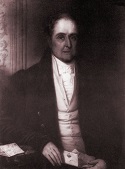
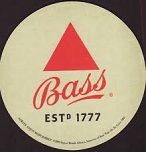
1777 By this year the British Secret Service, headed by British MP and Board of Trade and Plantations commissioner William Eden, 1st Baron Auckland (1745-1814) is spending almost £200K a year to gather intel. On Jan. 2 the Escalante Expedition returns to Santa Fe after having failed to reach Calif. On Jan. 3 Gen. George Washington's 3K-man army routs the three regiments of Britsh redcoats led by Gen. Cornwallis in the Battle of Princeton, N.J., capturing 200 POWs; "It is a fine fox chase, my boys!" says Washington, who on Jan. 5-6 moves his army into winter quarters at Morristown in the hills of N New Jersey (30 mi. W of New York City), with HQ at Jacob Arnold's Tavern on the village green; Ft. Nonsense, an earthwork fortification is built to defend munition factories there. On Jan. 12 Father Junipero Serra founds the Santa Clara de Asis mission in Calif. (#8). On Jan. 15 the people of New Connecticut (later Vermont) declare their independence as the Vermont Repub. (named by Dr. Thomas Young, from French "vert mont" meaning green mountain); on July 2 it abolishes slavery; on July 8 the Constitution of Vermont is adopted at the Old Constitution House tavern in Windsor; it is not admitted to the union until 1791. On Jan. 20 Gen. Washington invites 22-y.-o. artillery Capt. Alexander Hamilton to join his staff as an aide-de-camp; on Mar. 1 Hamilton is promoted to Lt. Col., and being the brainiest person on his staff (nice ass, too?) soon rises from private secy. to virtual chief of staff, becoming Washington's virtual adopted son, writing letters for him and even making decisions in his absence; the Continental army is in the hands of a horny geek boy with peach fuzz on his cheeks? - one bourbon, one scotch, and one beer? On Feb. 1 Don Bernardo de Galvez (1748-86) becomes Spanish gov. of La. (until 1786), and on Apr. 17 he issues a proclamation allowing trade with the U.S.; he goes on to foster intensive Spanish colonization, while the English in West Fla. are busy doing ditto, claiming the area N and W of Lake Pontchartrain. On Feb. 5 Georgia adopts a Ga. constitution. In Feb. "Mad" Anthony Wayne (1745-96) of Penn., known for his crazy tactics becomes a brig. gen. in charge of the Penn. Line. On Feb. 24 king (since July 31, 1750) Joseph I the Reformer (b. 1714) dies, and his daughter Maria I (the Pious) (the Mad) (1734-1816) becomes ruler and first undisputed queen regnant of Portugal (until Dec. 16, 1815) as wife of his addlepated brother Pedro (Peter) III (1717-86) (until May 25, 1786); Spain and Portugal settle their disputes concerning their South Am. colonies, causing Brazil to be elevated from a colony to a kingdom; too bad, about the time of Peter III's death she too becomes addlepated, getting worse after her eldest son dies of smallpox in 1791, and in Feb. 1792 she is declared insane (porphyria?), causing her son Joao (John) VI to become prince regent in 1799. On Mar 13 Congress orders its European envoys to appeal to high-ranking foreign officers to send troops to reinforce the army. On Mar. 25 the U.S. Constitutional Convention officially convenes. On Apr. 13 the Battle of Bound Brook in N.J. sees a rebel garrison surprised and routed by a force of British and Hessians. On Apr. 20 New York adopts a N.Y. constitution written by New York atty. John Jay (1745-1829) in Kingston, and George Clinton (1739-1812) (son of an Irish immigrant) is sworn in as gov. #1 of N.Y. on July 30 (until Apr. 1, 1795). The turning point of the Am. Rev. War? On Apr. 27 after British ships from Long Island Sound under Gen. William Tryon sail N to Compo Beach in Westport, where troops disembark and march through Bethel to the colonial supply depot of Danbury, Conn., sacking and burning it, the Battle of Ridgefield in W Conn. in the foothills of the Berkshire Mts. sees a 700-man colonial militia force under gen. David Wooster (b. 1710) and brig. gen. Benedict Arnold (1741-1801) take on a larger British force returning to Norwalk and maybe win maybe lose, it depends on whom you talk to, but their stand solidifies rebel feeling New England, after which the Brits never again try landing a ship to attack a colonial stronghold; Wooster is wounded and dies on May 2 after uttering the soundbyte "I am dying but with a strong hope and persuasion that my country will gain her independence"; Arnold becomes a hero even though his horse is shot from under him and his leg is seriously wounded, getting him a promotion to Maj. Gen. after a recommendation by Gen. Washington. In late spring Gen. John Burgoyne, after serving for several mo. under Sir Guy Carleton in Canada wins official approval of his srategy to invade New York from the N and hook-up with CIC Sir William Howe, separating New England from the other colonies and getting even for Bunker Hill, and leads an army of 10K men (half what he requested) S into New York; his personal belongings are dragged along in some thirty carts; misbehaving soldiers are not flogged but made to wear their coats inside-out. In Apr. 19-y.-o. Marie-Joseph Paul Yves Gilbert du Motier, Marquis de Lafayette (La Fayette) (1757-1834) leaves from the Spanish port of San Sebastian, arriving at Port Royal, S.C. on June 13 to assist the rebels, and reaches New England on July 27, being made a maj.-gen. in the Continental army on July 31; he is accompanied by German-born Baron Johann de Kalb (1721-80), who had been sent to America in 1768 by the French govt. to sound out their feelings vis a vis Britain; he is also made a maj.-gen. On May 19 after screwing up an invasion of British East Fla. and getting into an argument with his superior, Scottish-born 1st Ga. regiment brig. gen. Lachlan McIntosh (1725-1806), English-born DOI signer and Ga. gov. #2 (Mar. 4-May 8) Button Gwinnett (b. 1735) dies of gangrene three days after being wounded in a duel with him, giving him a unique kind of immortality? On May 26 a parish priest in Tome, New Mexico notes in a burial book that he interred 21 Spanish settlers who had been massacred by Comanches; there are 30 more burials next June; the town is known as "town of the broken promise" after Ignacio de Vaca promises his daughter Maria to the son of a Comanche chief, changes his mind, tries to fool the chief with a phony grave, is found out, and gets his town massacred, although the babe Maria marries the chief's son and they live happily ever after? On June 14 the Stars and Stripes is officially adopted by the Continental Congress, with John Adams declaring: "Resolved, that the Flag of the thirteen United States shall be thirteen stripes, alternate red and white; that the Union be thirteen stars, white on a blue field, representing a new constellation"; on June 14 it is unfurled for the first time at Gen. Washington's HQ in Bound Brook, N.J. On June 17 Luis de Unzaga becomes capt.-gen. of Venezuela (until Dec. 10, 1782). In June the Saratoga Campaign, a British attempt to cut New England off from the Middle and Southern States by taking control of the Hudson River Valley begins, with Gen. John Burgoyne leading one 8K-man army from St. Johns, Canada down Lake Champlain and the Hudson River, while Col. Barry St. Leger (promoted to brevet brig.-gen.) leads a smaller army from Canada by way of Lake Ontario through the Mohawk Valley; Am. gen. Israel Putnam is appointed cmdr. of the defense of the Hudson highlands; meanwhile Gen. William Howe advances up the Hudson River from New York City, with all three armies converging at Albany; meanwhile "Cowboys" (cow rustlers on the roads E of the Hudson River between British and Am. lines who claim to be Tories), and "Skinners" (Whigs who do likewise) become a problem; the murder of Jane McCrea at Ft. Edward by the British turns many against them, who take up arms against the British. On July 1 Gen. Burgoyne's British troops depart from their base at the Bouquet River, and on July 5-7 occupy Crown Point and recapture Ft. Ticonderoga on Lake Champlain, then win minor Vs at the Battle of Hubbardton on July 7 (only Am. Rev. War battle fought in Vt.) and the Battle of Ft. Ann in N.Y. on July 8, chasing the rebels S along the E bank of the Hudson River; when King George III hears about it he proclaims, "I have beat them, beat all the Americans!"; New Yorker Gen. Philip Schuyler is blamed for the loss, and replaced as head of the patriot army's Northern Dept. by "New England's idol" Gen. Horatio Lloyd Gates (1728-1806); the British army now has an open corridor from Canada to push S to New York City, but from Skenesboro on the rebels slow them down in densely forested country to only 1 mi. a day. On July 2 Vermont (named by Dr. Thomas Young, from French "vert mont" meaning green mountain) abolishes slavery, and on July 8 adopts a constitution; it is not admitted to the union until 1791. On July 4 fireworks and music from a Prussian band captured 6 mo. earlier highlight the Independence Day celebration in Philly. On July 8 the frigate USS Hancock is captured by the British ships Rainbow and Flora; the POWs, incl. cabin-boy John Blatchford are taken to Halifax, N.S. On July 23 Gen. Howe takes a large part of his army from New York City by ship to Chesapeake Bay for an attack on Philly, leaving British gen. Sir Henry Clinton in command awaiting reinforcements, causing him to wait until Oct. 3 to move up the Hudson to relieve Burgoyne. On July 26 British Col. Barry St. Leger leaves Oswego on Lake Ontario with 2K loyalists and Indians, and on Aug. 3 sieges Ft. Stanwix at the head of the Mohawk Valley; on Aug. 6 the bloody Battle of Oriskany results as a 1-mi.-long relief column of 800 New York militia under Gen. Nicholas Herkimer (b. 1728) is ambushed 6 mi. from Ft. Stanwix (2 mi. from Oriskany, N.Y.) by 400 loyalist and Indian troops of the King's Royal Regiment of New York under N.Y.-born loyalist Brig. Gen. Sir John Johnson (1741-1830), Col. Barry St. Leger, and Joseph Brant; the long bloody hand-to-hand battle is a push, and after each side suffers 30% casualties the patriots withdraw to their base without relieving the fort; Herkimer is mortally wounded, and sits under a tree directing his troops while smoking a pipe, then dies 10 days later on Aug. 16 after his leg is amputated; despite being oh so risky, it becomes the first engagement of Am. troops under the Stars and Stripes; on Aug. 22 news of another relief force cause the Indians to desert and St. Leger to return to Oswego. On July 30 Gen. Burgoyne occupies Ft. Edward, and on Aug. 11 sends 800 Hessian dragoons and Indians, led by Brunswick dragoon Lt. Col. Friedrich Baum (1727-77) to seize the Am. depot at Bennington, Vt. to seize much-needed supplies; on Aug. 16 the Battle of Bennington (4 mi. NW of Bennington) is a V for the 1.4K-man N.H. militia under Gen. John Stark (1728-1822) (who carry fighting Blue Hen Cocks for entertainment, causing N.H. to become known as the Blue Hen State), and a 2nd British force of loyalists sent by Burgoyne is repulsed by Col. Seth Warner (1743-84) and 350 veteran outlaw Green Mountain Boys (formed to fight N.Y. authority over Vt.); Burgoyne loses 207 KIA and wounded plus 600 POWs, vs. Am. casualties of 14 KIA and 42 wounded; Stark's brigade is organized and financed by John Langdon (1741-1819) from N.H., who also serves in it; Stark becomes known as the Hero of Bennington, and coins the motto "Live Free or Die". On Aug. 22 with Gen. Benedict Arnold's army approaching, the Brits abandon Ft. Stanwix and return to Canada. On Aug. 16 France declares bankruptcy. Coochy coochy coo, I got a new flag for you? On Sept. 3 the U.S. Stars and Stripes Flag is officially announced, and carried into battle for the first time by a force under Irish-born Gen. William Maxwell (-1798) at the Battle of Cooch's Bridge. America's first 9/11? On Sept. 11 the Battle of Brandywine Creek, a tributary of the Delaware River near Chad's Ford, Penn. (Wilmington, Del.) (25 mi. SW of Philadelphia) is a V for British Gen. William Howe and his 18K troops against the 11K rebels under Gen. George Washington; Lt. James Monroe (1758-1831), who was promoted to maj. on the staff of Gen. William Alexander (until 1778) took part in the battle; after feinting to the center, the Brits attack the Am. right under Gen. John Sullivan, forcing it to fall back, and Washington orders a gen. withdrawal to Chester, Penn., while rear-guard units under Gen. Nathanael Greene cover their rear, slowing Howe down and keeping him from reaching Philadelphia until Sept. 27, causing Congress to flee, moving from town to town just ahead of them; British casualties at Brandywine total 600 vs. 900 rebels killed and 400 taken POW; breech-loading rifle inventor maj. Patrick Ferguson (1744-80) has George Washington in his sights but refuses to pull the trigger, as "it is ungentlemanly to shoot a man in the back of the head". On Sept. 13 Gen. Burgoyne crosses to the W side of the Hudson River with 6K men, and is blocked by a rebel army entrenched on Bemis Heights (10 mi. S of Saratoga and 24 mi. N of Albany), under command of Gen. Horatio Gates, whose army grows from 4K men in Aug. to 11K in Oct. On Sept. 13 Prussian king (1740-86) Frederick II the Great (1712-86) issues his Coffee and Beer Manifesto, addressed to the provinces of Pomerania and Brandenburg, complaining of the increasing popularity of coffee over beer, with the soundbyte: "It is disgusting to notice the increase in the quantity of coffee used by my subjects and the amount of money that goes out of the country in consequence. Everybody is using coffee. If possible this must be prevented. My people must drink beer. His majesty was brought up on beer and so were his ancestors and his officers and soldiers. Many battles have been fought and won by soldiers nourished on beer, and the king does not believe that coffee-drinking soldiers can be depended on to endure hardship or to beat his enemies in case of the occurrence of another war"; after the govt. establishes a monopoly on coffee roasting and jacks up the price until only the wealthy can afford it, the proclamation works, and coffee is permanently eclipsed by beer as the drink of the Prussian people. On Sept. 19 the British under Gen. Burgoyne meet the ragtag rebels under Gen. Horatio "Granny" Gates at the First Battle of Saratoga ("beaver place") (ends Oct. 7) in N.Y. (later Schuylerville) at the 15-acre Freeman's Farm, 1 mi. N of the rebel lines at Bemis Heights, and hold their own, but suffer heavy casualties, causing the rebels to declare a big V, which on top of Washington's dumbo moves at Brandywine and Germantown causes the Conway Cabal to begin after up-and-coming lose cannon Irish-born Gen. Thomas Conway (1733-1800) (a former col. in the French army who presented a letter of introduction from Silas Deane to Congress that got him made brig. gen in May, then valiantly led the right flank at Germantown, after which he brazenly went over Washington's head by requesting a promotion to Maj. Gen. from Congress, which Washington found out about and tried to stop, promoting Baron Johann de Kalb instead, vindicating Conway's opinion of Washington as a ninny) vents his feelings in a letter to Gen. Gates in Oct., hinting that he should replace loser Washington as CIC, and containing the soundbyte "Heaven has been determined to save your Country; or a weak General and bad Coucellors would have ruined it"; too bad, Washington finds out about it after Gates' aide Gen. James Wilkinson gets drunk and spills the beans to a subordinate of his man Gen. William Alexander, causing Washington to fire off an angry letter to Conway, who waffles and claims he was only criticizing his staff, then offers his resignation to Congress on Nov. 14, after which anti-Washington forces in Congress, incl. Dr. Benjamin Rush (who wrote his own letter to Patrick Henry, unsigned), Richard Henry Lee, Thomas Mifflin, and Samuel Adams (who calls Washington a Fabian or Cunctator for always retreating) make him a Maj. Gen. and inspector gen. of the army to boot, reporting to War Board head Gen. Gates independently of Washington, and assign him to Washington's camp, after which he arrives in Valley Forge (W of Philly) on Dec. 29, where he is treated icily, but allowed room to step on his own dick if possible; meanwhile next Jan. 17 the anon. Thoughts of a Freeman begins circulating, containing the soundbyte "The people of America have been guilty of making a man their God"; this is Washington's lowest point, where he pulls every string he's got, and earns Mass. rep. James Lovell's epithet "Gentleman of the Blade", i.e., the kind of sacred cow that his own officers will fight duels over. On Sept. 20 (night) the British, led by Maj. Gen. Lord Charles Grey (1729-1807) remove the flints from their muskets and stage a lightning bayonet strike into Gen. Anthony Wayne's force at the Battle of Paoli Tavern (Paoli Massacre) in modern-day Malvern, Penn.; after some call it a massacre, Wayne requests his own court martial but is acquitted; Grey becomes known as "No Flint Grey", and in 1806 becomes the first Earl Grey. On Sept. 26 the British occupy Philadelphia, causing the rebels to hide the Liberty Bell in Allentown, Penn. (home of the oldest muncipal band in the U.S.?), and Congress to move to York, Penn. on Sept. 30. On Oct. 1 the First Treaty of San Ildefonso between Spain and Portugal wrests Banda Oriental (East Side) (Uruguay) from Portugal, giving Colonia and other disputed Portuguese territory on the left bank of the Rio de la Plata to Spain, with a Spanish viceroy ruling from Buenos Aires (until 1814); in return Spain cedes the Amazon Basin to Portugal; Spain also gets the island of Fernando Po and African coastal territories between the Niger and Ogoue River mouths. On Oct. 3 British gen. Sir Henry Clinton's army leaves New York City, moving up the Hudson River and capturing Ft. Clinton and Ft. Montgomery, then returning to New York City, leaving Burgoyne in the lurch. On Oct. 4 the British repulse a nearly-successful Am. attack at the Battle of Germantown, Penn. (NW of Philly) after the Am. right, led by Maj. Gen. John Armstrong Sr. (1717-95), CIC of the Penn. militia (an old friend of Gen. Washington from the French-Indian War) gets held up at Chew House in a fog, and drunk Scottish-born Am. Gen. Adam Stephen (1721-91) orders his troops to fire on Am. Gen. Anthony Wayne's, after which Armstrong issues the soundbyte "A glorious victory fought for and eight-tenths won... mysteriously lost, for to this moment no one man can... give any good reason for the flight"; Stephen is court-martialed and cashiered, and 60-ish Armstrong retires, getting elected to the Continental Congress from 1777-80 and 1787-8, which he is Washington's man; Portuguese-born 6'6" 260 lb. Am. soldier Peter Francisco (1760-1831), "the Va. Giant", "the Va. Hercules" is hospitalized at Valley Forge for two weeks, sharing a room with the Marquis de Lafayette, and becoming friends, with Lafayette getting George Washington to give him a special 5 ft. broadsword. On Oct. 6 the British under Maj. Gen. Sir John Vaughan (1731-95) sack and burn Kingston, capital of N.Y.; it is later rebuilt. On Oct. 7 5K thinning (deserting) British troops under Gen. Burgoyne meet 11K entrenched rebels led by Gen. Horatio Gates at the Battle of Bemis Heights (Second Saratoga) and get their fancy-pants butts kicked; on Oct. 8 in heavy rain Burgoyne's army retreats to Saratoga, N.Y., suffering from exhaustion and starvation, and on Oct. 17 Burgoyne surrenders his surrounded 5K-man army at Saratoga, turning the tide of the war decisively to the damned Yankee rebels; the "convention" allows him to march his army to Boston and ship to England, but Congress later rejects the terms and puts them into prison camps in Va.; Burgoyne gets Am. permission to return to England, where he is lambasted by the press and Parliament; the three Am. commissioners in France are finally able to sign an alliance with France, with Franklin becoming America's first minister to France; King George appeals twice more unsuccessfully to Gen. Amherst to take up his old post as CIC of British forces in North Am., Amherst telling the king in his second audience that it would take a force of 40K men to conquer the rebels, but he continues to advise the govt. on the war at the War Office with his eye on Britain's European enemies. On Oct. 22 the city of Stavropol (Gr. "stauropolis" = City of the Cross) in W Russia (modern-day pop. 433K) founded as a military encampment by Prince Grigory Potemkin as one of 10 fortresses built between Azov and Mozdok at the request of Catherine II the Great; in 1785 after being settled by Don Cossacs from the Khopersky Regiment, it is granted city status; in 1809 Tsar Alexander I invites several Armenian family to settle there; it goes on to become a strategic base for Russian conquest of the Caucasus. In Oct. the British capture Port Clinton, Penn., and make a heroine of rebel water pitcher pitching Molly Pitcher (Mary Ludwig Hays) (1754-1832), who allegedly fires the last gun. In Oct. Wolfgang Amadeus Mozart performs two of his piano concertos plus a challenging solo violin part in his B flat major Divertimento, K.287. On Nov. 1 John Paul Jones sails for France in the Ranger. On Nov. 1 after the V at the Battle of Saratoga, Congress declares their first nat. Thanksgiving Day, with the soundbyte: "The grateful feeling of their hearts... join the penitent confession of their manifold sins... that it may please God, through the merits of Jesus Christ, mercifully to forgive and blot them out of remembrance... and... under the providence of Almighty God... secure for these United States the greatest of all human blessings, independence and peace." On Nov. 10 Chief Cornstalk of the Shawnee, who had visited Ft. Randolph at Point Pleasant, W. Va. to discuss his problems with the Blue Jacket faction is brutally murdered by soldiers angry at the killing of one of their own by unknown Indians, along with his son Elinipsico and two other Shawnees; after Am. leaders bring the "vile assassins" to trial to stop the Shawnees from going on the war path, nobody will testify against them and they are acquitted. On Nov. 15 the Articles of Confederation, drafted by John Dickinson of Del. and James Duane (1733-97) of N.Y. are approved by the Continental Congress in York, Penn., and submitted to the states for ratification, but the states are slow in approving them because of a dispute over western lands; Congress' lack of taxing power under the Articles causes it to resort to the printing press, fueling hyperinflation. On Dec. 17 France recognizes U.S. independence. On Dec. 17-19 Washington's 11K-man army enters winter quarters at Valley Forge, Penn. (18 mi. NW of Philly), where things get so bad in their crude huts that they call it their Winter of Despair; Martha Washington winters with her hubby there, and follows him to Morristown, N.J. the next two winters, running a women's sewing circle for the troops. The uppity Wittelsbach Dynasty is whittled down to size after three years? On Dec. 30 Bavarian elector (1745-77) Maximilian III Joseph (b. 1727) dies after receiving Wolfang Amadeus Mozart and being too cheap to offer him a post, leaving no heir, and the Bavarian line of the House of Wittelsbach (founded 1119) becomes extinct, leaving only Karl IV Theodore (d. 1799) of the fractured Palatinate line (which split off in 1329), who takes it over, but soon tries to sell it to HRE Joseph II, sparking a war next year. Ft. Vincennes in Ind. is captured and sacked by the British, and renamed Ft. Sackville. Marathan PM Nana Phadnis ignores their 1776 treaty with Calcutta by giving the French a port on the W coast, pissing the Brits off and causing them to send an army to their capital city of Pune. New London, Conn.-born Capt. John Butler (1728-96) organizes Butler's Rangers in Canada, consisting of about 700 Seneca and Cayuga Indians and 700 Am. Tory loyalists. Boston-born Am. Rev. War leader and DOI signer Robert Treat Paine (1731-1814) becomes atty. gen. of Mass. (until 1790), followed by Mass. Supreme Court judge in 1790-1804 - always confused with English-born rabble-rouser Tom Paine? The capital of Delaware is moved to Dover to keep it out British hands. Fluvanna ("Anne's River") County in Va. is founded in the Va. Piedmont above the Fall Line, named after the James River; in 1828 Palmyra becomes the county sea. The British Navy begins using the Blue Peter as a gen. recall flag that is raised when a ship is ready to leave. Frederick the Great begins a campaign to control excessive consumption of coffee - bean police? Juan Bautista de Anza (1736-88) becomes gov. of New Mexico (until 1787). Bernardo de Galvez (Gálvez) y Madrid (1746-86) becomes Spanish gov. #4 of La. (until 1783), going on to crack down on British smuggling, promote trade with France, Cuba and Yucatan, aid the Am. rebels against the Brits through Irish-born intermediary Oliver Pollock (1737-1823), and reverse the policy of arming Indians to encourage them to kill each other, writing the classic 1797 report "The Vanquishment of the Heathen Consists in Obliging Them to Destroy One Another". Buddhist artist Chongjo (1752-1800) becomes Yi king of Korea (until 1800), going on to establish the royal Kyujanggak library, encourage the arts, and leave a monochrome ink drawing of a plantain and a rock in a garden. The Irish Code Duello, containing 26 commandments for monkey fighting with pistols or swords is adopted in Clonmel for the pop. of Tipperary, Galway, Mayo, Sligo, and Roscommon, and prescribed for gen. adoption in Ireland, going on to become popular in the U.S. to decide who's the more manly man. Capt. James Cook sees long-board surfers in Tahiti and Oahu and observes that the sport is recreational rather than competitive - he should have realized that from the fact they are all nude? Childless after seven years of marriage, Marie Antoinette complains to mother Maria Theresa, who sends Antoinette's brother Joseph II to France to personally attend to the matter, and after Louis XVI confides that he can't ejaculate during intercourse, even though he has noctural emissions, minor surgery 2 mo. later for phimosis (tight foreskin) cures him, and Marie Antoinette writes a letter to mommy on Aug. 30 telling about him ejaculating in her eight days earlier, and the day before, and 16 mo. later she has daughter Maria Theresa Charlotte (1778-1851), who ends up queen of France for a squirtly 20 min. in 1830; squirt, squirt, squirt, squirt, four years later there's a royal male-heir rugrat in their palace, only 11 years after their marriage as horny teenagers in a fairy palace with peeping eyes. John Dickinson, the wealthiest farmer and largest slaveowner in Del., who had been instrumental in helping Am. independence but had been in a funk ever since screwing up and refusing to sign the DOI, but had been slowly coming around to the cause, esp. after the redcoats burned down his Fairhill estate near Germantown, decides to free all 37 of his slaves, and is reborn as a delegate to the Continental Congress by 1779. The German court moves to Munich, and the Court and Nat. Theater, Germany's first nat. theater is founded in Mannheim; Wolfgang Amadeus Mozart quits his job in Salzburg and leaves for Mannheim with his mother, looking for a permanent appointment in vain, and falling for Mannheim German soprano Maria Aloysia Antonia Weber (1760-1839), causing his daddy Leopold to order him and his mother to Paris, after which she debuts in Munich then has a successful opera career in Vienna, marrying Joseph Lange in 1780, who produces a portrait of Mozart; meanwhile when he encounters her next year in Munich on his way back to Salzburg, she snubs him, and he sits down at the piano and sings "The one who doesn't want me can lick my ass" (Leck mir das Mensch im Arsch, das mich nicht will) - hey, Aloysia, what's in your wallet? A cooperative workshop for tailors is formed in Birmingham, England. John Richardson (1743-1815) of England begins pub. lit. on beer brewing (until 1805), becoming the model for beer brewery writers and going on to promote the saccharometer in brewing, becoming known as "the Father of Methodical Brewing"; his son Philetus Richardson (1776-1838) becomes head porter beer brewer at Whitbread's Hind's Head Brewery. Bass Brewery is founded in Burton-on-Trent, England by William Bass Jr. (1717-87), producing Bass Pale Ale, and beginning exports to Russia in 1784; after William's death, his son Michael Thomas Bass Sr. (1759-1827) runs the brewery with his brother William Bass III, taking sole control in 1795, becoming the largest brewery on Earth in 1877 (1M barrels/year); the red triangle Bass logo becomes the first registered trademark in the U.K.; in 1967 it merges with Charrington United Breweries to become Bass Charrington, the largest brewing co. in the U.K.; in 2000 it is acquired by Interbrew. The Marquis de Sade, who fled from Lacoste then returned last year, is confronted by a father of one of the servants he had done the nasty thing with, who tries to shoot him at point-blank range, but the gun misfires; later in the year, his mother dies, but he is tricked into thinking that she's just ill and visits her in Paris, where he is arrested and imprisoned in the Chateau de Vincennes, where he appeals his death sentence in 1778 but remains imprisoned under his mother-in-laws lettre de cachet (arrest warrant); after escaping and being recaptured, he meets fellow prisoner Comte de Mirabeau (1749-91), and despite both being writers of erotica they begin to hate each other; in 1784 Chateau de Vincennes is closed, and de Sade is transferred to the Bastille, followed by an insane asylum in Charenton near Paris in 1789, 10 days before the Bastille is stormed. Architecture: The Tomb of the Marechal de Saxe (1696-1750) in the St. Thomas Lutheran Church of Strasbourg (begun 1753) is completed, becoming the masterpiece of French Rococo sculptor Jean Baptiste Pigalle (1714-85). English architect Henry Holland (1745-1806) begins the Hans Town development on 89 acres of marshes leased from the Cadogan family, which becomes one of the most fashionable areas in metro London (Knightsbridge and Chelsea), incl. Sloan St., Sloane Square, Hans Place, Hans St., and Hans Crescent. Inventions: The first iron boat is produced in Yorkshire, England. Charles Augustin de Coulomb (1736-1806) invents the Torsion Balance; he also wins an academy prize for work on magnetic needles. Strasbourg-born Sebastien Erard (1752-1831) of Paris invents the modern pianoforte; Franz Joseph Haydn (1732-1809) switches to it. Oliver Evans (1755-1819) of Newport, Del. invents a machine for making teeth for wool carding, going on to make other improvements to textile machinery. Antoine-Laurent Lavoisier demonstrates that air is made up mostly of nitrogen and oxygen - by laughing it off? Maurice Grey and Auguste Poupon begin manufacturing Grey Poupon white wine mustard in Dijon, France; Grey provides the recipe, Poupon the money - pardon me sir? Hunchbacked lecherous hypochrondriac Anglophile German scientist (first prof. of experimental physics Georg Christoph Lichtenberg (1742-99) (coiner of the term "aphorism") discovers cool fractal Lichtenberg Figures, the principle of modern xerographic copying. English sailmaker Samuel Miller of Southampton invents the circular saw. Italian scientist ? becomes the first to figure how to tell if an eel is female; it takes until 1882 to figure out how to identify males. Science: Carsten Niebuhr (1733-1815), a German who went on a Danish scientific expedition to Iran in 1761-7 pub. the first accurate and complete copies of the inscriptions on the 6th cent. B.C.E. Behistun Rock, spurring an effort to decipher the long-lost cuneiform on them. Karl Wilhelm Scheele almost discovers ultraviolet when he studies how light of different colors darkens silver chloride, and finds that the effect is greatest toward the violet end of the spectrum. Nonfiction: James Anderson, Nature of the Corn Laws. Jean-Sylvain Bailly (1736-93), Letters on the Origin of the Sciences. Thomas Day (1748-89), The Desolation of America. John Howard, The State of the Prisons of England and Wales. Francis Hopkinson (1737-91), Letter Written by a Foreigner on the Character of the English Nation; anti-British satire by a Philly atty. and DOI signer, who becomes Penn. admiralty judge in 1779-89, and goes on to write poetry, compose opera, serve in the Constitutional Convention, and design the first U.S. flag. David Hume (1711-76), Autobiography (posth.). Antoine-Laurent Lavoisier (1743-94), Sur la Combustion en General - Stahl, Stahl, Stahl? Gotthold Lessing (1729-81), Ernst und Falk; pleads for religious and political toleration. Joseph Priestley (1733-1804), Disquisition Relating to Matter and Spirit. William Robertson (1721-93), The History of America (4 vols.) (1777, 1796). Karl Wilhelm Scheele (1742-86), On Air and Fire; shows that air is composed of oxygen and nitrogen. Robert Waddington (-1779), An Epitome of Theoretical and Practical Navigation; a book that can "teach the young navigator every particular essential to his art, without his being under the necessity of having recourse to any other author." (Edinburgh Mag.) Music: Christoph Gluck (1714-87), Armide (Paris). Franz Joseph Haydn (1732-1809), Symphony No. 63 in C major ("La Roxelane"). Wolfgang Amadeus Mozart (1756-91), Divertimento, K.287; Oboe Concerto (summer); composed for itinerant Italian player Giuseppe Ferlendis; he later arranges it as Concerto No. 2 for Flute for Dutch flautist Ferdinand de Jean. Art: Thomas Gainsborough (1727-88), The Watering Place. Jean-Baptiste Greuze (1725-1805), La Cruche Cassee. Francesca Guardi, Santa Maria della Salute (Venice). Anton Raphael Mengs (1728-79), Perseus and Andromeda. Plays: Gyorgy Bessenyei (1747-1811), The Philosopher; first comedy in the Hungarian language? Pierre Choderlos de Laclos (1741-1803), Ernestine (July 19); inspired by a novel by Marie-Jeanne Riccoboni; Marie-Antoinette attends the debut, which is a big flop. Hannah More (1745-1833), Percy (tragedy) (Dec.) (Covent Garden, London); a hit. Richard Brinsley Sheridan (1751-1816), The School for Scandal (Drury Lane Theatre, London) (May 8); Sir Benjamin Backbite, Rowley, Snake, Mrs. Candour, Crabtree; Lady Sneerwell tries to hook Charles Surface (William "Gentleman" Smith) away from Maria, who is also wooed by rival Joseph Surface (John Palmer); Fanny Abington plays Lady Teazle; after it fails on the first night, he hires a better actor, who makes it a hit, after which it becomes an English classic; filmed in 1923 and 1930 - a succès de scandale, succès d'estime, or succès fou? Poetry: Thomas Chatterton (1752-70), The Rowley Poems; Romantic goop attributed to fictitious 15th cent. monk Thomas Rowley by a pimply teenie from Bristol; while people gobble it up, he gets hurt when nobody buys stuff under his real name, and poisons himself with arsenic in Apr. 1770, after which he is out of the way so the publishers can take over with the good stuff, turning on Wordsworth and causing Keats to dedicate his "Endymion" to him. Christoph Martin Wieland (1733-1813), Das Sommermarchen; Geron der Adelige (romances). Novels: Henry Mackenzie (1745-1831), Julia de Rubigne. Clara Reeve (1729-1807), The Champion of Virtue (The Old English Baron) (Gothic romance); competition for Horace Walpole's "Castle of Otranto"; influences Mary Shelley's "Frankenstein". Births: German sculptor Christian Daniel Rauch (d. 1857) on Jan. 2 in Hesse; student of Johann Gottfried Schadow. English antiquarian William Martin Leake (d. 1860) on Jan. 14 in London. French chemist Bernard (Barnard) Courtois (d. 1838) on Feb. 12 in Dijon. German Romantic "Undine" poet-novelist Friedrich Heinrich Karl de la Motte, Baron Fouque (Fouqué) (d. 1843) on Feb. 12 in Brandenburg. British vice-adm. Sir Henry Hotham (d. 1833) on Feb. 19; 3rd son of Beaumont Hotham, 2nd baron Hotham. U.S. Dred Scott Decision chief justice #6 (1836-64) and U.S. atty. gen #11 (1831-3) (Roman Catholic) Roger Brooke Taney (d. 1864) (pr. TAH-nee) on Mar. 17 in Calvert County, Md.; educated at Dickinson College. U.S. Rep. (1811-21) and Sen. (1849-52) (Ky.), Speaker of the U.S. House (1823-5), and U.S. secy. of state #9 (1825-9) (Freemason) ("the Great Compromiser") Henry Clay Sr. (d. 1852) on Apr. 12 in Hanover County, Va.; Baptist minister father named Sir John; 2nd cousin of Cassius Marcellus Clay (1810-1903). German astronomer-physicist and mathematician (greatest of all time?) Johann Carl (Karl) Friedrich Gauss (d. 1855) on Apr. 30 in Braunschweig - the fledgling German Master Race might not take over the world, but it comes darned close to taking over math? French chemist Louis-Jacques Thenard (Thénard) (d. 1857) on May 4 in La Louptiere (modern-day Aube), Champagne. Argentine adm. (founder of the Argentine navy) William (Guillermo) Brown (d. 1857) on June 22 in Foxford, County Mayo, Ireland; emigrates to the U.S. at age 9, and is pressed into the British navy at age 19. Scottish arctic explorer Adm. Sir John Ross (d. 1856) on June 24 near Stranraer; uncle of polar explorer Capt. Sir James Clark Ross (1800-62). English "The Constitutional History of England" historian Henry Hallam (d. 1859) on July 9; only son of Windsor canon John Hallam; educated at Eton College, and Christ Church, Oxford U.; father of Arthur Henry Hallam (1811-33) and Henry Fitzmaurice Hallam (-1850). German Romantic painter (inventor of the Color Ball) Philipp Otto Runge (d. 1810) on July 23 in Wolgast, West Pomerania. Scottish "The Pleasures of Hope" poet Thomas Campbell (d. 1844) on July 27 in Glasgow; son of a merchant; educated at the U. of Glasgow; studies law at Edinburgh; moves to London in 1803. Danish physicist (discoverer of electromagnetism) Hans Christian Oersted (d. 1851) on Aug. 14 in Rudkobing. Sicilian Bourbon king #3 (1825-30) Francis I (Francesco Gennaro Giuseppe) (d. 1830) on Aug. 19 in Naples; son of Ferdinand I (1751-1825). Am. miniaturist Edward Greene Malbone (d. 1807) in Aug. in Newport, R.I. U.S. atty. gen. #13 (1838-40) Felix Grundy (d. 1840) on Sept. 11 in Berkeley County, Va. (W. Va.); grows up in Ky. English banking house founder (Jewish) Nathan Mayer Rothschild (d. 1836) on Sept. 16 in Frankfurt-am-Mein, Germany; 3rd son of "miscellany trader" Mayer Anselm Rothschild (1744-1812) and Gutle Schnapper (1753-1849); father of Lionel Nathan de Rothschild (1808-79). French conservative statesman Casimir Pierre Perier (Périer) (d. 1832) on Oct. 11 in Grenoble. Am. itinerant preacher Lorenzo Dow (d. 1834) on Oct. 16 in Coventry, Conn.; husband of Peggy Dow (1780-1820). German Romantic patriot-poet-novelist-dramatist Bernd Heinrich Wilhelm von Kleist (d. 1811) on Oct. 18 in Frankfurt an der Oder, Brandenburg. British princess Sophia (d. 1848) on Nov. 3 in Buckingham House, London; 12th child and 5th daughter of George III and Charlotte of Mecklenburg. English actress Harriet Mellon (b. 1837) on Nov. 11; 2nd wife (1815-) of Thomas Coutts (1735-1822). French salon host Jeanne-Francoise Julie "Juliette" Adelaide Recamier (Adélaïde Récamier) (d. 1849) on Dec. 4 in Lyon; friend of Chateaubriand, and opponent of Napoleon; known for her short hairstyle and her sofa, which becomes known as the recamier; retires to L'Abbaye-aux-Bois convent in Paris in 1814, where she is visited by Francois de Chateaubriand, Lucien Bonaparte, Mathieu de Montmorency et al. Russian Romanov tsar #14 (1801-25) Alexander I (d. 1825); eldest son of Paul I (1754-1801); grandson of Catherine II the Great (1729-96); brother of Nicholas I (1796-1855). British lt. gen. Benjamin Alfred d'Urban (d. 1849) on May 25 in Halesworth, Suffolk. Deaths: French architect Pierre Contant d'Ivry (b. 1698) on Oct. 1 in Paris. Canadian-born French gov.-gen. of New France (1755-60) Pierre de Rigaud, marquis de Vaudreuil-Cavagnial (b. 1698) on Aug. 4 in Paris. Am. botanist John Bartram (b. 1699) on Sept. 22 in Philadelphia, Penn. French hostess Madame Marie Therese Rodet Geoffrin (b. 1699) on Oct. 6 in Paris. Swiss scientist-poet Albrecht von Haller (b. 1708) on Dec. 12; addicted to I've-become-comfortably-numb opium for the last few years; leaves the unfinished Bibliotheca Medica. French novelist Claude Prosper Jolyot de Crebillon (b. 1707) on Apr. 12. Hessian gen. Leopold Philip de Heister (b. 1707) on Nov. 19 in Hesse-Cassel. Am. Rev. War gen. David Wooster (b. 1710) on May 2 in Danbury, Conn. (KIA). Portuguese king (1750-77) Joseph I the Reformer (b. 1714) on Feb. 24 in Sintra Palace, Sintra. French artist Guillaume Coustou the Younger (b. 1716) on July 13. Irish actor Spranger Barry (b. 1719) on Jan. 10. Shawnee Chief Cornstalk (b. 1720) on Nov. 10 in Ft. Randolph, Va. (executed along with his son Elinipsico and two other Shawnees in reprisal for the killing of an Am. militiaman by unknown Indians). English "Great Panjandrum" dramatist-actor Samuel Foote (b. 1720) on Oct. 21 en route to France. Bavarian elector (1745-77) Maximilian III Joseph (b. 1727) on Dec. 30 (smallpox). U.S. gen. Nicholas Herkimer (b. 1728) on Aug. 16 (KIA). German mathematician-physicist-philosopher Johann Heinrich Lambert (b. 1728) on Sept. 25; the angle-preserving Lambert Conformal Conic Projection is named for him, as well as the cgs unit of brightness. Palestinian rabbi Haim Isaac Carigal (b. 1733) in Barbados. English-born Am. patriot (DOI signer) Button Gwinnett (b. 1735) on May 19 in Thunderbolt (near Savannah), Ga. (gangrene); killed in a duel with Gen. Lachlan McIntosh of Ga.; his signature becomes the most valuable Am. autograph, behind only Julius Caesar and William Shakespeare.


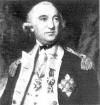








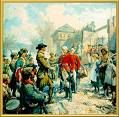



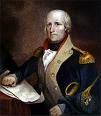

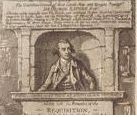
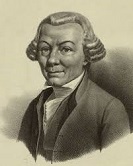





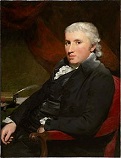

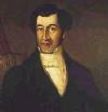



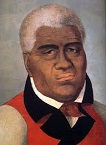






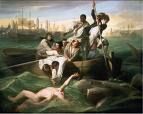
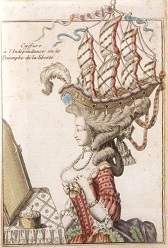
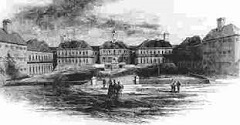
1778 John Adams begins a 10-year series of missions to Europe, becoming the first U.S. minister to the Court of St. James after a hazardous winter voyage (with son John Quincy) dodging British warships; he arrives to find that Franklin has already negotiated a treaty with France, and that he's just expected to be his "virtual clerk", i.e., a "cipher"; he tries to push for the French navy to come to the colonies' aid, but can't speak Frog Talk (French); meanwhile, his wife Abigail suffers from loneliness back in Mass. - you look mahvelous, dahling? On Jan. 2 Gen. George Washington approves recommending that Rhode Island's troop quota be completed with black slaves, who would be promised their freedom in return for military service; in the spring Rhode Island raises a black regiment by promising slaves their freedom. On Jan. 3 Austria occupies lower Bavaria after new Jesuit-educated Mennonite-hating Bavarian duke-elector (since 1777) Karl IV Theodor (Charles IV Theodore) (1724-99) of the Oberpfalz-Sulzbach line of the house of Wittelsbach (which has been elector of the Palatinate in 1742) secretly cedes it to HRE Joseph II in exchange for the Austrian Netherlands, pissing-off the entire Bavarian nation; on July 3 Frederick II the Great of Prussia, fearing that this move will equalize his gain of Silesia in 1741 in his power struggle with Austria, allies with Frederick Augustus I of Saxony and declares war on Austria to make them give it back and replace Karl Theodor by his manageable heir (Augustus' mother's brother) Duke Karl (Charles) II August Christian of Zweibrucken (1746-95), starting the bloodless War of the Bavarian Secession (Potato War) (Kartoffelkrieg) (ends 1779), in which Bohemia is invaded by a Prussian-Saxon army, which maneuvers around to deny food supplies until Big Karl cries uncle. On Jan. 18 British explorer Capt. James Cook (1728-79) discovers the Hawaiian Islands, and names them the Sandwich Islands after his friend John Montagu, 4th Earl of Sandwich (1718-92), first lord of the admiralty in 1771-82; after being taken for a god (Lono?), and leaving the natives with their first venereal disease, he leaves on a quest for the Northwest Passage in the Arctic, recording the first encounter with he leaves on a quest for the Northwest Passage in the Arctic, recording the first encounter with totem poles in Vancouver Island, calling them "house posts that depicted anthropomorphic beings" - an example of kulturkreis or simultaneous evolution? In Nov. Capt. Cook returns to Hawaii after failing to find the Northwest Passage, and first spots the Hawaiian island of Molokai, ruled by Kahekili (Kane-Hekili) (Kahekilinui'ahumanu) II (1737-94), who also rules Lanai, Kahoolawe, and Maui (except the Hana district); Kalani'opu'u (1729-82) (Terreeoboo, King of Owhyhee according to Capt. Cook), king of the big island of Hawaii sends his army under warrior-gen. Kamehameha I the Great (1737-1819) to Lana'i (Lanai), under the rule of Kahekili II, and they massacre 3K on the island, which gives the island its name, meaning "day of conquest". On Jan. 19 the Conway Cabal reaches its moment of truth when Gen. Horatio Gates and Gen. Thomas Conway make their play before the Continental Congress in York, Penn., only to find that Washington has outfoxed them by sending the Marquis of Lafayette to claim that France is behind him, and trip them up by making them try to hide their original "weak general" letter, which he already gave to them, making them look duplicitous, causing the anti-Washington faction to collapse; Thomas Mifflin resigns as secy. of the War Board, Gates returns to his troops after being chastened, and Conway is shuttled off to a subordinate command in the Hudson Highlands, causing him to resign but continue to badmouth Washington, causing Gen. John Cadwalader (1742-86) (who messed up at the Battle of Trenton, being ordered to reinforce Washington from the S, but couldn't get his artillery over the river, causing him to return to Penn. and leave Washington unsupported, only to be treated warmly after it came out all right, giving him a case of hero worship?) to fight a duel with him on July 4, shooting him in the "lying mouth", causing Conway to believe he's about to die and write a letter of apology to Washington, then recover and high-tail it back to France, where he later joins the losing side in the French Rev. and ends up back in Ireland, as if anybody cares by then. In Jan. Gen. Washington discovers plans for an Am. invasion of Canada, and calls them a "child of folly". On Feb. 6 the U.S. wins official recognition from France, signing the Franco-American Treaty of Alliance in Paris, binding the two nations together "forever against all other powers", becoming the only alliance treaty for the U.S until 1949; Gen. and Baron Jeffrey Amherst, hero of Montreal and husband of "the white pussy" in Kent finally enters the British cabinet as CIC of the British army, then field marshal, insisting that British forces be withdrawn from North Am. except Canada, and hostilities continued only through a naval blockade; Sir Henry Clinton becomes CIC of British forces in North Am. (until 1782). On Feb. 14 John Paul Jones and French Adm. Toussaint-Guillaume Picquet (Piquet) de la Motte (1720-91) exchange gun salutes in Quiberon Bay, France, becoming the first time that the U.S. Stars and Strips flag is carried to a foreign port, and the first time it is officially recognized by another nation (9-gun salute). German military training to the rescue? On Feb. 23 Baron Friedrich Wilhelm Ludolf Gerhard Augustin von Steuben (1730-94) arrives from Prussia, Germany to train the Am. Continental troops in the midst of their Winter of Despair, uttering the soundbyte "With regard to military discipline, I may safely say that no such thing existed in the Continental Army" before creating an honor guard of 120 soldiers, who go on to train others, teaching them the basic points of training and camp layout that continue to be used to modern times; he becomes a U.S. citizen in 1784 - Forvard march! Licht recht licht recht? Voltaire and Franklin-worshipping reach critical mass simultaneously? In Feb. Benjamin Franklin visits the ailing Voltaire in Paris, and asks him to bless 7-y.-o. Benny Bache for him, which he does in ceremonial fashion by placing his hands on the boy's head and saying, in English, "God and Liberty"; Franklin and Voltaire meet again on Apr. 29 at the Academie Royale, and ostentatiously embrace in the French manner, drawing acclamations and comparisons to Solon and Sophocles; Voltaire dies in Paris on May 30 at age 84. On Mar. 15 Nootka Sound outside modern-day Vancouver, Canada is discovered by Capt. James Cook. On Mar. 19 South Carolina adopts a constitution. In Mar. Congress orders the recruitment of Indians into the Continental Army - the original Washington Redskins? On Apr. 1 New Orleans businessman Oliver Pollock (1737-1823), financier of rebel operations in the west creates the "$" (dollar sign) symbol from the S-P symbol for peso. On Apr. 7 William Pitt the Elder (b. 1708) collapses during a speech in the House of Lords, intending to give a speech against Am. independence; his son William Pitt the Younger (1759-1806) helps carry his dying old man from the chamber; he dies on May 11 - does he take it as an omen? On Apr. 21 Harvard-educated gunpowder manufacturer Samuel Phillips Jr. (1752-1802) founds Phillips Academy in Andover, Mass. to inculcate a Puritan Calvinist-flavored education to students of all religious persuasions, as long as "they be able to read English well", and prep them for Yale U.; Josiah Quincy II's son JQ III is one of the first students; in 1781 his uncle John Phillips founds Phillips Exeter Academy in Exter, N.H., which preps students for Harvard U.; PAA goes coed in 1973, and PEA in 1970. In Apr.-May (28 days) John Paul Jones sails from Brest, France in the Ranger, captures the British naval sloop HMS Drake, takes seven prizes and 200 POWs, spikes the guns of the forts at Whitehaven, and raids the estate of the earl of Selkirk on the Scottish coast in an attempt to kidnap him, but he isn't home. In May Ethan Allen, hero of Ticonderoga is released from prison in England in exchange for British Lt. Col. Archibald Campbell (1739-91) of Inervneill (captured June 16, 1776), whose confinement Gen. Washington had called "shocking to humanity". On June 17 French frigate Belle Poule duels British frigate HMS Arethusa, escaping after a 2-hour battle after Artethusa loses a mast, becoming the first battle between French and British naval forces in the Am. Rev. War, getting celebrated in France and inspiring the Frigate Hairstyle of Marie Antoinette, which catches on with the French female aristocracy, who start to duck chandeliers and bankrupt their hubbies to pay for it, causing a scandal that contributes to her unpopularity. In mid-June learning that a French fleet is sailing to America, where they might trap the British if they stay, the British evacuate Philly for New York City on June 18, and Washington withdraws from Valley Forge the next day, appointing Gen. Benedict Arnold as military gov. of Philadelphia; after several maneuvers by both sides, on June 28 Washington (whose 11K troops have been trained by von Steuben, causing him to be eager to test them) attacks the 15K-man British army under Gen. Sir Henry Clinton at the Battle of Monmouth (Court House) in N.J. (last major battle in the north) in sweltering high-90s heat; Washington orders eccentric English officer Maj. Gen. Charles Lee (his oldest maj. gen.) to attack, but instead he retreats directly into Washington and his troops without notifying him, claiming he had been outnumbered 10K to 5.4K, and after finding and cussing Lee out, Washington personally takes charge, rallying them to stand and fight; the British escape the next day after sustaining over 1K casualties vs. 200+ for the patriots; Lee is arrested, then court-martialed in July, losing his command for one year, causing him to begin open attacks on Washington's character; Molly Pitcher gains more fame at Monmouth Court House when she drops her water pitcher and takes her wounded husband's place at a cannon, then is presented by Gen. Nathanael Greene to Gen. Washington, who makes her a sgt. and places her on the list of half-pay officers for life; later a Monument to Molly Pitcher is erected on the Monmouth battlefield (plus one at her hometown of Carlisle, Penn.); Lee unsuccessfully lobbies Washington to use rebel guerrillas to exact punitive retribution on pro-British troops and non-combatants, but Washington prefers to keep the (now co-ed?) army professional and answerable to Congress; after Monmouth, James Monroe is promoted to lt. col. and commissioned to raise a new regiment in Va., where he meets Va. gov. Thomas Jefferson and begins a lifelong friendship. On June 9 after becoming pres. of Yale College (until 1795), Rev. Ezra Stiles frees his slave Newport; after making friends with visiting world-traveller Rabbi Haim Isaac Carigal (1733-77) in Newport, R.I., he goes on to try to force students to study Hebrew (like at Harvard), and gives his first commencement speech on Sept. 1781 in Hebrew, Aramaic, and Arabic; in 1790 after the students balk he gives up and makes it optional. On June 22 N.J. rep. John Hart hosts Gen. Washington's 12K-man army on his farm in N.J., where Washington holds his Council of War in the Hunt House; the troops leave on June 24, and happy Hart dies next May 11 at age 66. On June 28 a British peace offer is rejected - lay down our weapons and have our commander come out and kiss his what? In the summer the rebels under Capt. Leonard Helm (1729-82) occupy Ft. Sackville after the British withdraw to Detroit. On July 3 the Wyoming Massacre (Battle of Wyoming) in the Wyoming Valley of Penn. takes place as 400 Am. settlers are killed at Wintermoot's Fort after they are drawn out of the protection of the fort and ambushed by Tories and Indians led by Tory loyalist Capt. John Butler; the Continental Congress sends a force into the valley next year. On July 6 the news of the war between France and England reaches Calcutta, after which Warren Hastings easily takes Chandernagore in Bengal, which had been under French control since 1684. On July 10 Louis XVI of France declares war on England in support of the Am. Rev. On July 27 the British fleet under Adm. Augustus Keppel (1725-86) and Adm. Sir Hugh Palliser (1723-96), and the French fleet under Adm. Louis Guillouet, Comte d'Orvilliers (1708-92) and Adm. Luc Urbain de Bouexic (Bouëxic), Comte de Guichen (1712-90) fight to a standoff in the first First Battle of Ushant 100 mi. W of the French island of Ushant in the English Channel off NW France, after which public reaction causes the resignation of Chartres and Keppel. On Aug. 29 the Battle of Rhode Island (Quaker Hill) (Siege of Newport) sees the Continentals under Gen. John Sullivan abandon their siege of Newport, R.I. and withdraw to N Aquidneck Island, causing the British supported by newly-arrived Royal Navy ships to attack them, forcing them to the mainland; the 1st Rhode Island Regiment of Col. Christopher Greene (1737-81), consisting of 225 men incl. 140 black fights in the battle, losing 3 KIA, nine wounded, and 11 MIA. On Aug. 3 Maria Theresa's La Scala opera house, built in Milan on the site of the royal theater which had burned down in 1771 opens; the first opera by Venetian composer Antonio Salieri (1750-1825) is performed there. On Aug. 31 the British massacre the Indian Company (Indians in the American army), becoming known as the Stockbridge Massacre. On Sept. 7-18 Shawnee Indians, instigated by the British lay siege to Boonesborough in Ky., and capture Daniel Boone for several mo., during which chief Blackfish adopts him as a son; after hearing of plans to raid Boonesborough again, he escapes to warn them. On Sept. 7 the U.S. signs the first of 370 treaties with the Am. aborigine (Amerindian) tribes, the Delaware; the last is signed in 1868, and in 1871 Congress declares that the U.S. no longer views native tribes as separate nations and will sign no more treaties - except to share casino profits? In Sept. Ben Franklin's estranged son William is released from his captivity in Conn. through a prisoner exchange, and moves to New York City, becoming pres. of the Board of Associated Loyalists. In Oct. Va. passes an Act Prohibiting the Farther Importation of Slaves. On Nov. 2 5-y.-o. Warwick, R.I.-born Frances Slocum (1773-1847) is kidnapped by Lenape Indians in the Wyoming Valley of Penn.; she is renamed Maconaquah ("young bear"), marries a chief of the Miami tribe, has four children, and lives the rest of her life with them near Peru, Ind. The Iroquois Confederation (Six Nations) (Mohawk, Oneida, Tuscarora, Onondaga, Cayuga, Seneca) sides with England and attacks in Penn. and N.Y., hoping to preserve a permanent Indian nation between the British Empire and the U.S.; only the Oneidas and some Tuscaroras go for the rebel side; on Nov. 11 Iroquois Indians led by Tory Capt. John Butler and Mohawk chief (British col.) Joseph Brant (1742-1807) (who attended the Indian Charity School in Lebanon, Conn. in 1761 with Conn. clergyman's son Samuel Kirkland, and lives a double life as a colonial gentleman and Episcopal missionary among the Mohawks) massacre the 47 inhabitants of Cherry Valley, N.Y. with tomahawks; if anybody lives, Brant becomes known for humanity and preventing torture? In Nov. Capt. Cook returns to Hawaii after failing to find the Northwest Passage, and first spots the Hawaiian island of Molokai; Kalani'opu'u (1729-82) (Terreeoboo, King of Owhyhee according to Capt. Cook), king of the big island of Hawaii sends his army under warrior-gen. Kamehameha I the Great (1737-1819) to Lana'i (Lanai), under the rule of Maui, and they massacre 3K on the island, which gives the island its name, meaning "day of conquest". In Oct.-Nov. Alexander Hamilton, under the pseudonym Publius castigates future U.S. Supreme Court Justice, Md. congressman Samuel Chase for scheming to profit from the arriving French's fleet's need for flour by cornering the market and doubling the prices - guilt overrated? In Nov. British Gen. Sir Henry Clinton dispatches units from N.Y. to N.J. under Lt. Col. Archibald Campbell (1739-91) to join Huguenot Brig. (later maj.) Gen. Augustin Prevost (1723-86) and his Florida Rangers in attacking Savannah (capital of Georgia) as part of a grand plan to take the city and then roll N while gathering support from the perceived mass of sleeping Tory loyalists in the countryside; on Dec. 29 British troops capture Savannah and begin a parry-and-thrust drive N towards Charleston. On Dec. 17 the British under Irish-born Lt. Col. Henry Hamilton (1734-96) return and recapture Ft. Sackville (until 1779) - the fort that loves to be sacked? On Dec. 23 Alexander Hamilton acts as the second for (his gay lover?) col. John Laurens (1754-82) of S.C. in a duel with court-martialed Washington-slandering gen. Charles Lee (d. 1782); they call it off after Laurens wounds Lee in the right side, and Lee is released from duty on Jan. 10, 1780, soon dying of TB. The forces of Nguyen Anh recapture Saigon from the Tay Son brothers (until 1781). Lord North sends a commission, headed by Frederick Howard, 5th Earl of Carlisle (1748-1825), and incl. William Eden, 1st Baron Auckland to attempt a reconciliation with the Am. colonies, but it accomplishes diddly squat. Am. frontiersman ("Conqueror of the Old Northwest") ("Hannibal of the West") ("Washington of the West") George Rogers Clark (1752-1818) leads soldiers down the Ohio to take the Illinois country from the British. German-born Am. frontier hero Phillip Hamman Sr. (1753-1832) helps save Fort Donnally in Greenbrier County, W. Va. from a Shawnee attack by 200 warriors led by Cornstalk, becoming known as "the Savior of Greenbrier". Am. Gen. John Sullivan begins a siege of Newport, R.I. (until 1779). Va.-born William Lee (1739-95) is dispatched by the Continental Congress to Vienna to seek recognition; too bad, Maria Theresa refuses him an audience, and bans all trade between the Austrian Netherlands and the "rebel colonies" - the original girly men? Thomas Paine is appointed secy. of the committee of foreign affairs by the Continental Congress (until 1779). A funeral of a British officer in Christ Church in Cambridge, Mass. (known for its Tory congregation) causes an enraged Yankee mob to wreck its interior and get it shut down for the rest of the Am. Rev. London-born Sir George Saville, 8th Baronet (1726-84) introduces the Relief Act to the Irish Parliament, removing disabilities of Roman Catholics and Presbyterians (mainly in Ulster) in holding office - now hungry Catholics can join the British army and fight in America? The Liberty Bell is taken out of hiding and replaced in Independence Hall. Gen. George Washington orders a 1.7K-ft. iron chain weighing 275 lbs. per 3.5-in. link forged by 17 blacksmiths and strung across the Hudson River at West Point, N.Y. to hinder the Brits. Pluckemin Continental Artillery Cantonment on the W side of Second Watchung Mt. N of the village of Pluckemin, N.J. is founded as the Continental Army's winter cantonment, becoming the first U.S. military academy before West Point in 1802. Welsh buccaneer Robert Edwards (1716-88) allegedly leases 77 acres of prime land (now worth umpteen billion bucks) on Manhattan Island (incl. modern-day Wall St. to Trinity Church) on a 99-year basis; he dies in a shipwreck and his heirs can't get the land back, but here's a big chance for smart lawyers? Juan Bautista de Anza leads a punitive expedition across new Mexico and Colorado against the Comanches, killing Comanche chief Cuerno Verde (Sp. "green horn") (known for green tinted horns in his headdress) on Sept. 3, 1779 at what is later called Rye, Colo. King Carlos III of Spain sends Spanish settlers from the Canary Islands to La., where they settle in St. Bernard Parish and become known as Islenos (Isleños) or Spanish Cajuns; Bernardo de Galvez y Madrid founds Galvez, La. (originally Galvez Town) 10 mi. SE of Baton Rouge. The British garrison in New York (which holds the pay chests of all British forces in America), feeling threatened by Washington's army, uses a detachment of the Royal Engineers from Halifax, Nova Scotia to dig the Money Pit on Oak Island, but later recovers the chests when the danger is past? The islands of Fernando Po (modern Bioko) and Annobon (Pagalu) in the Gulf of Guinea in W Africa come under Spanish control (until 1968). The fortified seaport of Gijon (Gijón) in NW Spain is equipped to handle West Indian trade. Samuel Heinicke (1727-90) opens the first public school for the deaf in Leipzig, Germany, where he teaches the Sound (Aural) Method of Lip-Reading, first teaching them to make the sound themselves. Ludwig von Beethoven's father presents the 8-y.-o. boy as a 6-y.-o. infant prodigy. Franz Anton Mesmer draws admiring crowds to his mesmerism experiments in Paris - wanna hypnotize me? Slovenian mountaineers climb Mt. Triglav. Architecture: Parkhurst Prison on the Isle of Wight is founded as a military hospital and children's asylum, becoming a children's prison by 1838, sending 123 Parkhurst apprentices to New Zealand in 1842-3, and 1,500 boys to Australia and New Zeland in 1842-9, after which it accepts adult convicts, becoming a prison for young males in 1863, known for harsh treatment; celeb prisoners incl. Yorkshire Ripper Peter Sutcliffe, the Kray twins, John Clark AKA Mr. Asia Drug Syndicate, and Moors Murderer Ian Brady. Inventions: English locksmith Robert Barron invents the mortise lock with pin tumbler. Joseph Bramah (1748-1814) of Yorkshire, England invents an improved water closet (flush toilet). Charles Francois Dupuis (1742-1809) of France invents a working telegraph. John Smeaton (1724-92) experiments with an improved diving bell. Science: Carl Wilhelm Scheele discovers the element Molybdenum (Mo) (#42), and proves that molybdenite (molybdenum sulfide), graphite (black lead or plumbago), and galena (lead II sulfide) are three different minerals. Nonfiction: Paul Joseph Barthez (1734-1806), Nouveaux élémens de la science de l'homme; uses the term "vital principle" for the cause of life, taking a neutral position on the spiritualistic-materialistic debate. Benjamin Bell (1749-1806), A Treatise on the Theory and Management of Ulcers; becomes a std. work. George-Louis Leclerc de Buffon (1707-88), Epoques de la Nature; asserts that the Earth is 74,832 years old and that humans are relative newcomers. Jonathan Carver (1710-80), Travels Through the Interior Parts of North America in the Years 1766, 1767, and 1768; bestseller about his travels into Wisc., Minn., and Iowa; first to use the name "Oregon"; suggests that there might be a mountain range to the W and a continental divide. J.A. Deluc (1727-1817), Lettres Physiques et Morals sur les Montagnes. Johann Gottfried von Herder (1744-1803), Vom Geist der Hebraischen Poesie (The Spirit of Hebrew Poetry); On the Cognition and Sensation of the Human Soul. Antoine-Laurent Lavoisier (1743-94), Considerations sur la Nature des Acides. Music: James Aird (ed.), Selection of Scottish, English, Irsh, and Foreign Airs; first appearance in print of "Yankee Doodle". Johann Gottfried von Herder (1744-1803), Folk Songs (Stimmen der Volker in Liedern) (1778-9). Vicente Martin y Soler (1754-1806), La Sposa Persiana (ballet); Ifigenia (opera). Wolfgang Amadeus Mozart (1756-91), Les Petits Riens (ballet) (Paris). John Stafford Smith (1750-1836), To Anacreon in Heaven; composed in the mid-1760s; Ralph Tomlinson writes the lyrics, and it becomes the official song of the Anacreontic Society of amateur musicians in London, becoming popular as a drinking song. Art: John Singleton Copley (1738-1815), Watson and the Shark. Jean-Honore Fragonard (1732-1806), L'Armoire (etching). Jean-Antoine Houdon (1741-1828), Benjamin Franklin (sculpture) (1778-9); Jean-Jacques Rousseau (sculpture). Benjamin West (1738-1820), Georgius III, Dei Gratia Rex etc.; Charlotte of Mecklenburg-Strelitz (his queen); the Am.-born artist makes no secret of his rebel sympathies, but the king puts up with it good-heartedly? Francisco de Goya (1746-1828), Children with a Cart. Plays: Jean-Francois de La Harpe (1739-1803), Les Barmecides. William Kenrick (1725-79), The Spendthrift; or, The Christmas Gambol (2 perf.); a farce based on Charles Johnson's "the Country Lasses". William Kenrick (1725-79) and James Hook (1746-1827), The Lady of the Manor (comic opera). Richard Brinsley Sheridan (1751-1816), The Camp (Oct. 15). Poetry: Anna Laetitia Barbauld (1743-1825), To Mr. Barbauld (Nov. 14). Francis Hopkinson (1737-91), The Battle of the Kegs; anti-British satire. Novels: Fanny Burney (1752-1840), Evelina, or A Young Lady's Entrance into the World; originates the novel of domestic life. Francis Hopkinson (1737-91), Date Obolum Bellisario; anti-British satire. Voltaire (1694-1778), Irene (Mar. 16); about Ottoman Sultan Mehmed II (1432-81), who conquers Constantinople in 1453 and falls in love with a Greek Christian captive, and has to kill her to satisfy his jealous Janissaries; dying Voltaire can only make performance #6 on Mar. 30, and is presented with a bust crowned with laurels. Christoph Martin Wieland (1733-1813), Pervonte oder die Wunsche (romance). Births: Polish archbishop of Warsaw (1856-61) Antonio Melchiorre Fiiatkowski (d. 1861) on Jan. 3 in Poznan. English poet-botanist-clergyman-MP (dean of Manchester) William Herbert (d. 1847) on Jan. 12; son of Henry Herbert, 10th earl of Pembroke (1773-94); son of Henry Herbert, 1st earl of Carnvarvon (Lord Porchester) (1741-1811); brother of Henry George Herbert, 2nd earl of Carnarvon (1772-1833), Charles Herbert (1774-1808), Frances Herbert (1782-1830), and Algernon Herbert (1792-1855); father of Henry William Herbert (1807-58); educated at Exeter College, Oxford U. Swiss botanist Augustin Pyrame de Candolle (d. 1841) on Feb. 4 in Geneva. Italian "Dei Sepolcri" #1 writer-poet-critic Niccolo Ugo Foscolo (d. 1827) on Feb. 6 in Zante Island (Zakynthos) (Ionian Islands); Venetian father, Greek mother; educated at the U. of Padua; a nationalist, he doesn't get along with Napoleon? Spanish "Variations on a Theme of Mozart" Catalan #1 classical guitarist-composer Fernando Sor (d. 1839) on Feb. 14. Am. George Washington-Thomas Jefferson Neoclassicist portraitist Rembrandt Peale (d. 1860) on Feb. 22 in Bucks County, Penn.; 2nd son of Charles Willson Peale (1741-1827). South Am. liberator (Freemason) ("the Knight of the Andes") Gen. Jose (José) Francisco de San Martin Matorras (d. 1850) on Feb. 25 in Yapeyu, Corrientes, Argentina; friend of Bernardo O'Higgins (1778-1842). British gen. Sir Edward Michael Pakenham (d. 1815) on Mar. 19 in Pakenham Hall (Tullynally Castle), County Westmeath, Ireland; brother of Catherine Pakenham, wife of Arthur Wellesley, duke of Wellington. French balloonist (first woman) Sophie Blanchard (Marie Madeleine-Sophie Armant) (d. 1819) on Mar. 25 in Trois-Canons (near La Rochelle); Protestant parents; wife of balloonist Jean-Pierre Blanchard (1753-1809). French physician Pierre Fidele (Pierre-Fidèle) Bretonneau (d. 1862) on Apr. 3 in Saint-Georges-sur-Cher. English radical humanist essayist-reporter-reformer-critic and Unitarian minister William Hazlitt (d. 1830) on Apr. 10 in Mitre Lane, Midstone. Am. anti-war activist and sea capt. (founder of the Am. Peace Society) William C. Ladd (d. 1841) on May 10 in Exeter, N.H.; educated at Harvard U. Peruvian pres. #2 (1822-3) and #8 (1827-9) Gen. Jose (José) de Lamar (la Mar) y Cortazar (d. 1830) on May 12 in Cuenca, Quito. English Eaton-educated man of fashion and wit George Bryan "Beau" Brummell (d. 1840) on June 7 in London; friend of George IV. German Empire style architect (in Finland) Johan Carl (Karl) Ludvig Engel (d. 1840) on July 3 in Charlottenburg, Berlin. Prussian patriotic gymnastics educator ("Father of Gymnastics") Friedrich Ludwig "Turnvater" Jahn (d. 1852) on Aug. 11 in Lanz, Brandenburg - he woulda been proud of Ahnuld? Chilean pres. #3 (1817-23) Gen. Bernardo O'Higgins Riquelme (d. 1842) on Aug. 20 in Chillan; illegitimate son of Irish-born Don Ambrosio O'Higgins (1720-1801) and Isabel Riquelme y Meza; friend of Jose de San Martin (1778-1850). Am. novelist-playwright and U.S. Navy secy. #11 (1838-41) James Kirke Paulding (d. 1860) on Aug. 22 in N.Y.; son of William Paulding Jr. (1770-1854). Scottish abolitionist Whig statesman-inventor Henry Peter Brougham, 1st Baron Brougham and Vaux (d. 1868) on Sept. 19 in Edinburgh; inventor of the 4-wheeled brougham carriage. Russian adm.-explorer Fabian Gottlieb Thaddeus von Bellinghausen (Faddey Faddeyevich Bellinsgauzen) (d. 1852) on Sept. 20 (Sept. 9 Old Style) in Oesel Island, Livonia. Swedish king (1792-1809) Gustavus IV (d. 1837) on Nov. 1 in Stockholm; son of Gustavus III (1746-92). Am. S.C. gov. #44 (1812-14) Joseph Alston 9d. 1816) on Nov. 10 near Georgetown, S.C.; educated at Princeton U.; husband (1801-) of Theodosia Burr (1783-1813). Austro-Hungarian composer-pianist (Freemason) Johann "Jan" Nepomuk Hummel (d. 1837) on Nov. 14 in Pressburg, Hungary (modern-day Pozsony, Bratislava, Slovakia); fellow student of Ludwig van Beethoven under Joseph Haydn; friend of Franz Schubert. Italian explorer-archeologist Giovanni Battista "the Great" Belzoni (d. 1823) on Nov. 15 in Padua. English "Improvements in Education" Quaker educator Joseph Lancaster (d. 1838) on Nov. 25 in Southwark, London; founder of the Lancasterian (Monitorial) (Madres) System of primary school ed., in which more advanced students teach less advanced ones - while teacher gets all the pay? French scientist Joseph Louis Gay-Lussac (d. 1850) on Dec. 6 in Saint-Leonard-de-Noblat, Haute-Vienne; educated at the Ecole Polytechnique - what a name for a gay guy? English electrochemist Sir Humphry Davy (d. 1829) on Dec. 17 in Penzance, Cornwall; discoverer of the elements sodium and potassium, named for soda and potash - present in every piece of corned beef? English clown (first modern clown?) Joseph Grimaldi (d. 1837) on Dec. 18 in Clare Market, London; Italian father, English mother. French queen-for-20-min. (1830) Marie-Therese (Marie-Thérèse) Charlotte, Duchesse d'Angouleme (d. 1851) on Dec. 19 in Versailles; eldest child of Louis XVI (1754-93) and Marie Antoinette (1755-93); wife (17991844) of Louis Antoine, Duke of Angouleme (1775-1844). Sardinian mountain climber (first to climb Mont Blanc) Marie Paradis (d. 1839) in Chamonix. German Romantic poet-novelist Clemens (Klemens) Brentano (d. 1842) (AKA Maria) on Sept. 9 in Ehrenbreitstein (near Koblenz); Italian descent parents. English Portland Cement inventor Joseph Aspdin (Aspeden) (d. 1855) in Dec. in Hunslet, Leeds, Yorkshire. Deaths: French superstar lit. wit Voltaire (b. 1694) on May 30 in Paris: wrote 20K+ letters and 2K books and pamphlets, leaving the unfinished bawdy satirical poem The Maid of Orleans (pub. in 1899), written to lampoon her flattering treatment by Jean Chapelain: "Historians are gossips who tease the dead"; "To hold a pen is to be at war"; "History is filled with the sound of silken slippers going downstairs and wooden shoes coming up"; "All the ancient histories, as one of our wits say, are just fables that have been agreed upon"; "If God did not exist, it would be necessary to invent him" (Nov. 10, 1770); "Christianity is the most ridiculous, the most absurd and bloody religion that has ever infected the world"; "Originality is nothing but judicious imitation"; "No snowflake in an avalanche ever feels responsible"; "To learn who rules over you, simply find out who you are not allowed to criticize"; in 1864 his tomb is opened and discovered to be empty. French gen. Claude Louis, Comte de Saint-Germain (b. 1707) on Jan. 15 in the Arsenal of Paris; pensioned in 1777 at 40K livres a year. Swedish naturalist Carolus Linnaeus (Carl von Linne) (b. 1707) on Jan. 10 in Uppsala; dies in Uppsala Cathedral during a ceremony, and is buried there. English PM (1766-8) William Pitt the Elder, 1st Earl of Chatham (b. 1708) on May 11 in Hayes, Kent; buried in Westminster Abbey. English "Rule Britannia" composer Thomas Augustine Arne (b. 1710) on Mar. 5 in Hayes. Swiss-born French philosopher Jean-Jacques Rousseau (b. 1712) on July 2 in Ermenonville; dies 1 mo. after arriving from Paris, after taking a morning stroll and suffering a hemorrhage; in 1794 his remains are moved to the Paris Pantheon: "Man was born free, and everywhere he is in chains"; "No one will walk over you hurt in a forest in the land of the Iroquois; they will do it every day in Paris or London." Am. Rev. leader (DOI signer) Philip Livingston (b. 1716) on June 12 in York, Penn.; dies during a session of the state senate. English hymnodist Anna Steele (b. 1717) on Nov. 11. English spinning jenny inventor James Hargreaves (b. 1720) on Apr. 22 in Nottingham. Italian etcher-architect Giambattista Piranesi (b. 1720) on Nov. 9 in Rome. French fur trader Pierre Laclede (b. 1729) on June 20 near the mouth of the Arkansas River. U.S. Army surgeon gen. #1 (1775) Benjamin Church III (b. 1734); dies at sea en route from Boston to Martinique. English "Rock of Ages" clergyman-composer Augustus Montague Toplady (b. 1740) on Aug. 11 in London (TB).







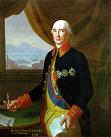







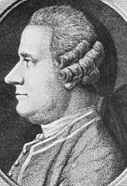







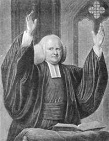
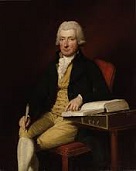




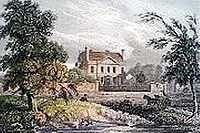
1779 There are now 21 regiments of loyalists (6.5K-8K men) in the British army in America. On Jan. 12 a 2.6K-man British force under Col. Cockburn retreating from Poonah is attacked by an 80K-man Maratha army at the Battle of Wargaom, killing 352 British incl. 15 officers before they hole-up in Wargaom; on Jan. 16 they surrender and sign the Treaty of Wargaom, relinquishing all territories acquired by the Bombay govt. since 1775; too bad, British gov. Warren Hastings in Bengal rejects the treaty, and sends a large force under Col. Goddard. On Jan. 29 a Scottish Highlander regiment under Lt. Col. Archibald Campbell (d. 1791) captures Augusta, Ga., but on Feb. 13 they evacuate under rebel pressure, still threatening S.C., home to Charleston, the largest port of entry for slaves arriving in North Am., who reject a plea by John Laurens, son of former Continental Congress pres. Henry Laurens to recruit two to four black battalions for the Continental Army; John Laurens turns to military service in S.C. under Brig. Gen. William Moultrie. On Jan. 30 Senegal is restored to France; the British attack, capturing Goree. In Jan. Wolfgang Amadeus Mozart returns to Salzburg, Austria a 23-y.-o. has-been after spending 18 mo. searching for a job in Mannheim and Paris and turning down the job of court organist at Versailles and seeing his mother get sick and die in Paris, which his daddy blames him for; his babe Aloysia Weber jilts him, and the aristocrats snub him, but daddy gets him the job of court organist in Salzburg under the thumb of the hated prince-archbishop Hieronymus Colloredo. On Feb. 14 Capt. James Cook (b. 1728) is murdered in Kealakekua Bay (which he first sighted on Jan. 17, and performed the first Christian service on the islands on Jan. 28 for a dead crew member) on the W (Kona or dry) side of Hawaii Island by Hawaiian natives in a conflict over a stolen boat after he gets cooky, er, cocky and holds chief Kalani'opu'u (1729-82) hostage; if only he could swim?; the survivors return to England via the East Indies and the Cape of Good Hope; Kalani'opu'u's son Kiwala'o (1760-82) becomes king of Hawaii (until July 1782), and his nephew Kamehameha I (1737-1819) becomes guardian of the god of war Kukailimoku. On Feb. 14 (Sun.) Irish-born British Tory Col. James Boyd of Raeburn Creek, S.C. and 700 British and loyalist soldiers are defeated by 350 patriots led by Penn.-born Col. Andrew Pickens (1739-1837) of S.C. and Lt. Col. Elijah Clarke (1742-99) of Ga. at the Battle of Kettle Creek in Wilkes County (EC Ga.); Boyd is KIA, and 150 loyalists are taken POW. On Feb. 25 a small Am. force under Col. George Rogers Clark, after using excess company flags to fool the Brits into thinking they have more than 500 troops recaptures Ft. Sackville in Ind. from British Lt. Gov. Henry Hamilton after a 2-day siege, and this time they keep it. On Feb. 25 under orders of Congress, Gen. George Washington sends an expedition led by Gen. John Sullivan (1740-95) and Gen. James Clinton (1733-1812) to kick the butts of Butler's Tory Rangers and their Indian (Seneca) allies, which they do on Aug. 29 in the Battle of Newtown near modern-day Elmira, N.Y. after Sullivan first dams the Susquehanna River at Lake Otsego, lets the lake rise, then destroys the dam, flooding the area downstream; they then attack the Iroquois Confederation; it takes most of the year but they are defeated and many Iroquois villages devastated, causing Joseph Brant to ignore the later U.S.-Iroquois peace treaties and continue frontier raids after the end of the Am. Rev. War; in Nov. Sullivan resigns from the Am. army and becomes a member of the Continental Congress from N.H. (1780-1), N.H. atty. gen. from 1782-6, pres. of N.H. from 1786-9, and U.S. district judge of N.H. in 1789-95; the Seneca villages of Little Beard's Town, Big Tree and Squakie Hill are wiped out, then resettled by whites in 1789 as Leicester, N.Y. (originally Leister). In Feb. Benjamin Franklin becomes sole U.S. minister to France. On Mar. 12 the city of Chicago, Ill. (Ill. Tribe word for "striped skunk", meaning wild leek) (modern-day pop. 2.7M/9.5M) is founded by Jean Baptiste Pointe du Sable (DuSable) (1745-1818), a black fur trapper from Haiti, who sets up a trading post in modern-day Pioneer Court on the NE side of Michigan Ave. Bridge; it is incorporated as a town on Aug. 12, 1833, and as a city on Mar. 4, 1837; on Oct. 26, 1968 the state of Ill. recognizes du Sable as the father of Chicago; in 1957 the DuSable Museum of African-Am. History is founded at 57th St. S at Cottage Grove in Chicago. On Mar. 20 Gen. Washington writes a wishy-washy letter on the subject of recruiting a black regiment for the defense of the South, and South Carolina and Georgia reject Congress' recommendation to do so. On Mar. 20 Boston, Mass., USMC Capt. William Jones advertises for "a few good men" to enlist in the Corps for naval duty, creating a slogan. On Mar. 31 Russia and Turkey sign a treaty promising to take no military action in the Crimea. On Apr. 12 the Treaty of Aranjuez is signed by France and Spain, with France agreeing to help them take Gibraltar from the British, along with East and West Fla. and Minorca in exchange for Spain joining France's war against Britain. In Apr. Matias de Galvez (Matías de Gálvez) y Gallardo (1725-84), father of La. gov. Bernardo de Galvez y Madrid becomes gov. of Guatemala (until Apr. 3, 1783), rebuilding Guatemala City and founding a mint and cathedral, after which he becomes viceroy of New Spain (until Nov. 3, 1784). On May 13 Peace of Teschen ends the War of the Bavarian Succession (Potato War) (begun 1779) without any battles being fought after France and Russia mediate a compromise; Marie Theresa of Austria (the last great act of her reign) gives all but the border district of Innvertiel ("inn quarter") back to Bavaria, and Frederick Augustus I of Saxony (1750-1827) receives 6M florins for his trouble; Frederick II the Great's last war. On May 28 French Adm. Jean de la Perouse sights and lands on Maui. In May the southern British army's penchant for pillaging plantation houses cause them to delay so long that when they reach Charleston Neck they encounter impregnable defenses, and are almost entrapped by Gen. Benjamin Lincoln's Continental army. The Brits struggle to encircle the Am. rebels from the south but are stymied by the Spanish? On June 21 Charles III of Spain declares war on Britain after entering into an alliance with France in Feb., then enters the Am. Rev. War on the rebel side on June 23; Spanish gov. of Fla. (since 1777) Bernardo de Galvez y Madrid lucks out and intercepts a secret letter from George III dated June 25 to Scottish-born British Maj. Gen. John Campbell of Strachur (1727-1806) in Pensacola, Fla. (who was sent there last Oct. from New York by Lord Germain), telling him to attack New Orleans, allowing Galvez to beat him to the punch, officially recognize the U.S. on Aug. 19 and seize the new British frontier post of Ft. Bute NW of New Orleans at Manchac on Sept. 7 despite a hurricane that sinks his fleet in New Orleans on Aug. 15. On June 24 the unsuccessful Spanish-French Great Siege of Gibraltar, manned by 5K English under Gen. George Augustus Elliott, 1st Baron Heathfield (1717-90), nephew of Maj. Gen. Roger Elliott (1665-1714) begins, along with a stringent blockade (ends Feb. 7, 1783). In June British Gen. Sir Henry Clinton (last British gov. of Va.) promises freedom to runaway American slaves defecting to the British side and serving the crown, spurring tens of thousands to escape to serve King George III, shaming the rebels, whose many efforts to do the same have all been ix-nayed by the cracker slaveholders? On July 3 the French capture St. Vincent and Grenada in the West Indies from the British (until 1783). On July 4 (Independence Day) a special thanksgiving service is held by the Irish at Old Saint Mary's Church in Philadelphia, Penn., attended by the pres. and members of the Continental Congress, and the heads of the U.S. army and navy, becoming the first public religious commemoration of the DOI. On July 16 Am. troops under Gen. Anthony Wayne take the British fortification at Stony Point, N.Y. overlooking the Hudson River in a night bayonet attack, and getting even for Paoli. On July 22 royal gov. James Wright returns to Savannah to restore English rule in Georgia. In July-Aug. the Siege of Penobscot Bay in Castine, Maine becomes the worst naval defeat in U.S. naval history (until Dec. 8, 1941), with the rebels losing 474 killed, wounded or captured out of 1K, vs. only 13 killed or wounded in the 600-man British force under Col. Francis McLean; Paul Revere is accused of cowardice but acquitted; the only successful part is the retreat, organized by U.S. Gen. Peleg Wadsworth (1748-1829), maternal grandfather of poet Henry Wadsworth Longfellow (b. 1807) - saving his silver character from being tarnished? On Aug. 2 John Adams returns to Mass., having not seen his wife Abigail for 1.5 years; he is asked to draft the Mass. constitution. On Aug. 10 Louis XVI of France frees the last remaining serfs on royal land. On Aug. 18-19 Henry "Light-Horse Harry" Lee III (1756-1818), future father of Gen. Robert E. Lee (b. 1807) brilliantly captures Paulus Hook (later called Jersey City), the last British outpost in New Jersey, and is promoted to lt. col. The Battle of the Bonhomme Richard and Serapis makes John Paul Jones a star? John Paul Jones is promoted to commodore in command of a mixed fleet of five French and Am. vessels, incl. the 14-y.-o. 34-gun refitted decrepit French East Indiaman Duc de Duras, which he renames the Bonhomme Richard, after Ben Franklin's Poor Richard's Almanac; on Aug. 14 he sails with a largely foreign crew (incl. 140 French marines) to raid English shipping, accompanied by the Am. frigate Alliance (with a French capt. and Anglo-Am. crew), the French frigate Pallas, and the French brig Vengeance, sailing up the W coast of Ireland, around Scotland, and down England's E coast, taking 17 ships; on Sept. 23 he engages a fleet of 41 British merchantmen convoyed by the 44-gun British frigate HMS Serapis and the 20-gun sloop HMS Countess of Scarborough in the North Sea off Flamborough Head on the Yorkshire coast; after the Serapis gets the best of him with its guns, Jones grapples his ship to her stem to stern, and they continue to fight into the night under a full moon in one of the bloodiest naval battles to date (3.5 hours); allegedly Capt. Sir Richard Pearson (1731-1806) calls out to Jones, asking for surrender, and Jones shouts his immortal reply "I have not yet begun to fight" (how many times have you heard the words, "Variation on a theme"?); at 10:30 p.m. an explosion in in the Serapis forces its capt. to strike his colors, and Jones wins the battle, but his ship is in bad shape, forcing him and his squadron to make for the Continent against contrary winds; the Bonhomme Richard sinks on Sept. 25, and Jones transfers to the Serapis, then reaches Texel, Holland on Oct. 3, a guaranteed Am. hero, which enhances the prestige of the fledgling U.S. of A. and gets him a gold-mounted sword and Order of Military Merit from Louis XVI, plus a gold medal from the Continental Congress, which proclaims its 2nd nat. day of Thanksgiving - and a pardon for all income taxes in arrears, plus a discharge of his debts and a good looking young wench? On Sept. 1 the French fleet arrives in America and begins an encirclement of Savannah, Ga. On Sept. 1 Congress stops issuing paper money, calling on the states on Oct. 6 to provide 15 million dollars each month to pay for the war effort; when that doesn't work a system of requisitioning supplies from each state is instituted beginning Dec. 11. On Sept. 12-21 after a British fleet of seven ships and 500 men in Pensacola under gen. John Campbell of Strachur decides not to sail in order to protect the E side of the province of West Fla., the Spanish under Bernardo de Galvez y Madrid defeat the Brits at the Battle of Baton Rouge, ensuring that the Mississippi River will be open to the Am. rebel cause, and going on to drive British troops out of W West Fla. by the end of the year. On Oct. 7 British Lt. Gen. Henry Clinton orders an evacuation of Newport, R.I. (held since 1776). On Oct. 9 the Luddite riots begin in Manchester, England in reaction to Arkwright machinery for spinning cotton when working man (fictional?) Capt./Gen./King Ned Ludd (Lud) (Ludlam) of the Army of the Redressers from Anstey (near Leicster) destroys a number (2?) of stocking frames in Nottingham, causing the Luddite rebellion in 1811-16. On Oct. 11 Polish nobleman Casimir Pulaski (b. 1745), "father of the American cavalry" dies two days after being mortally wounded while fighting for the Am. side at the Battle of Savannah after slave Quamino Dolly leads British troops through the swamps to attack it; on Oct. 19 the Am. and French forces withdraw. On Nov. 11 Thomas Jefferson proclaims a Day of Thanksgiving, with the soundbyte: "A day of public and solemn Thanksgiving to Almighty God, for his mercies, and of Prayer, for the continuance of his favour... That He would go forth with our hosts and crown our arms with victory; That He would grant to His church, the plentiful effusions of Divine Grace, and pour out His Holy Spirit on all Ministers of the Gospel; That He would bless and prosper the means of education, and spread the light of Christian knowledge through the remotest corners of the earth..." On Nov. 12 14 slaves petition the N.H. legislature for their freedom; on June 7, 2013 the gov. of N.H. signs a bill granting them posth. emancipation. On Nov. 13 John Adams sails to Holland along with his young sons John Quincy and Charles, and Atlantic storms plus a leaky vessel causes a forced landing at Ferrol, Spain, after which they cross the Pyrenees in a carriage. On Dec. 1 Washington's army winters in Jockey Hollow near Morristown, N.J., and faces a miserable winter (worst so far in North Am. this cent.); Washington and his staff occupy the Ford Mansion (white with green trim) (built 1772-4) of the late Judge Jacob Ford; New York Harbor is so deeply frozen that the Brits can move heavy artillery across it. On Dec. 16 emperor (since 1771) Go-Momozomo (b. 1758) dies, and next year his adopted son (2nd cousin) Kokaku (1771-1840) (personal name Tomohito) (6th son of Higashiyama's grandson Prince Kan'in-no-miya Sukehito) becomes Japanese Yamato emperor #119 (until 1817), inaugurating the Tenmei ("Dawn") Era. On Dec. 26 British Gen. Henry Clinton sets sail from New York City to invade Charleston, S.C. - setting sail from New York City becomes his signature shot? After the Am. Rev. closes the U.S. as a destination for transported felons, Britain passes the Penitentiary Act, drafted by jurist William Blackstone and reformer John Howard, recommending imprisonment over death or transportation, ordering the construction of a network of state-operated prisons, becoming the first; too bad, Parliament drags its feet and only creates two new prisons in London. Ang Eng becomes king of Cambodia (until 1796). Karim Khan Zand dies, and his successors rule W Persia until 1794, while Qajar leader Agha Khan eats into it. The Dutch of the Cape and the Xhosa begin the first of a hundred-year series of Dutch-Xhosa Wars on the E frontier at the Fish River (until 1781). At the urging of Queen Maria Carolina (Marie Caroline), Sir John Francis Edward Acton, 6th Baronet (d. 1811) (grandfather of Lord Acton of absolute power corrupts absolutely fame) begins a reorg. of the navy of Naples, steering Naples toward an anti-French and pro-British and pro-Austrian position, which causes defense expenditures to skyrocket, making him unpopular. The autonomous (since 1719) seaport of Fiume on the Adriatic Sea on the Gulf of Rijeka is given by Austria to the Hungarian crown (until 1809). The town (borough) of Glassboro, N.J. (modern-day pop. 29K) is founded by Solomon Stanger as "the Glass Works in the Woods", becoming home to several glass manufacturers; in 1923 Rowan U. (originally Glassboro State College) is founded there. Thomas Jefferson becomes gov. of Va.(ends 1781), and Richmond is made the state capitol because of its central location. Thomas Paine is dismissed by Congress as secy. of the committee of foreign affairs for divulging state secrets, and is appointed clerk of the Penn. legislature. Am. Gen. Israel Putnam suffers a paralyzing stroke, and becomes homebound for the rest of his life (until 1790) - no more put in Old Put? Martinique-born babe Marie Josephe Rose Josephine Tascher de la Pagerie (1763-1814) marries French army officer Alexandre Francois Marie, Vicomte de Beauharnais (1760-94) (until 1794). 38-y.-o. widower Gen. Benedict Arnold (b. 1741) marries 19-y.-o. sweet young thing Margaret "Peggy" Shippen (1760-1804), member of a prominent royalist family, and begins living beyond his means, blaming his troubles on Washington's refusal to promote him faster and get him out of backwater Philly? Continental soldiers now have their regulation uniforms to show the Brits that they got game. The city of Nashville, Tenn. on the Cumberland River (Davidson County) (modern pop. 684K/1.8M) is founded, named after Brig. Gen. Francis Nash (1742-77), who was mortally wounded in the Oct. 4, 1777 Battle of Germantown. White Sulphur Springs in W. Va. 120 mi. E of Charleston begins to become a famous resort for the Southern elite, going on to house the President's Cottage, the summer home of U.S. presidents Martin Van Buren, John Tyler, and Millard Fillmore. The cartoons of British caricaturist James Gillray (1757-1815) begin to appear, starting with Paddy on Horseback, and he goes on to ramp it up with caricatures on the French Rev., the stupidity of physiognomy, and English politics in general (esp. George III) until the 1810s. The first Children's Clinic is founded in London. Pope Pius VI begins draining the Pontine Marshes. The Universalist Church of Am. is organized in Gloucester, Mass. by John Murray. The first law school in the U.S. is founded at William and Mary College in Williamsburg, Va., along with the first school of modern languages, and first college elective system. Engraver William Blake (b. 1757) enrolls at London's Royal Academy of Art, but quits after disagreeing with the dir. about religious beliefs, how he talks to the angel Gabriel and the Virgin Mary all the time, etc. - he was afraid to come out of the locker, afraid that somebody could see? English botanist Sir Joseph Banks leases Spring Grove House on London Rd. in NW London in Isleworth, filling it with his plants collected on his South Seas voyages; he purchases it in 1808. Sports: The first annual Epsom Oaks for 3-y.-o. fillies, organized by Edward Smith-Stanley, 12th Earl of Derby (1752-1834) is run on May 4 at Epsom Oaks in Carsharlton, 10 mi. of Charing Cross, London; the winner is Lord Derby's horse Bridget. Architecture: Inventions: The first cocktail is invented by a tavern keeper in Elmsford, N.Y., who ornaments each rum-filled glass with rooster feathers after seeing barmaid Elizabeth "Betsy" Flanagan decorate her bar at Halls Corner with discarded tail feathers from poultry that has been roasted and served to patrons, and a drunken guest demand that she bring him "a glass of those cocktails", causing her to serve him a mixed rum drink garnished with one of the feathers - she invents it, he gets the credit? Samuel Crompton (1753-1827) of Bolton, England invents the Spinning Mule, AKA Hall-i'-th'-Wood, an improvement on the spinning jenny and water frame suitable for making tightly-twisted muslin; too bad, he can't afford to pay to patent it, so it becomes public domain and he dies broke; meanwhile Richard Arkwright et al. attempt to invent a carding machine to produce the cotton rovings that are fed into the spinning mule, based on the failed 1748 invention of Lewis Paul, and Arkwright pioneers all-in-one cotton factories, which are powered by water until 1784 when steam is first used. Science: In Jan. French astronomer Antoine Darquier de Pellepoix (1718-802) discovers the Ring Nebula (Messier 57) in the N constellation of Lyra. Thomas Jefferson stinks himself up by giving a lecture on what he thinks is a primitive feline, which turns out to be a ground sloth. Dutch chemist-biologist Jan Ingenhousz (1730-99) discovers that plants need carbon dioxide, and that they need light in order to produce oxygen. Antoine-Laurent Lavoisier and Pierre Simon Laplace pub. their discovery that respiration is a form of combustion. Swiss physicist Horace-Benedict de Saussure (1740-99) pub. the idea that glaciers slide downhill on a base of meltwater. Swedish chemist Carl Wilhelm Scheele discovers Glycerine, and makes the surprising discovery that black pencil lead (plumbago) is actually a soft form of carbon. Italian biologist Lazzaro Spallanzani (1729-99) proves that sperm and egg must come into contact for fertilization to occur, and invents Artificial Insemination - don't be lazy and spill any? Nonfiction: Jean-Sylvain Bailly (1736-93), A History of Modern Astronomy (3 vols.) (1779-82); Letters on Plato's "Atlantis". Etienne Bezout (1730-83), Theorie Generale des Equations Algebriques (Paris); contains material on the Elmination Theory, the symmetrical functions of the roots of an equation, and Bezout's Identity, that the greatest common divisor of natural numbers a and b is ax + by for some integers x and y. Johann Friedrich Blumenbach (1752-1840), Handbuch der Naturegeschichte; suggests that Homo sapiens be assigned to a different order than apes - but I want to dance with somebody? Charles-Augustin de Coulomb (1736-1806), Theorie des Machines Simples. Wiliam Eden, 1st Baron Auckland (1745-1814), Four Letters to the Earl of Carlisle. Benjamin Franklin (1706-90), The Morals of Chess; how it develops foresight, circumspection, perseverance, and sportsmanship; "[Chess] is not merely an idle amusement; life is a kind of chess, in which we have often points to gain, and competitors or adversaries to contend with, and in which there is a vast variety of good and evil events that are in some degree the effects of prudence or the want of it"; in his memoirs Thomas Jefferson says that Franklin once checkmated the Duchess of Bourbon, who complained "We do not take kings so", to which he replied "We do in America". Edward Gibbon (1737-94), A Vindication of Some Passages in the Fifteenth and Sixteenth Chapters; Hume could say he told him so? David Hume (1711-76), Dialogues of Natural Religion (posth.); written in the early 1750s, but he was too chicken to pub. material skeptical of religion, esp. after seeing what they did to Edward Gibbon? Dr. Samuel Johnson (1709-84), Lives of the Poets (1779-1781); his last and best work. Gouverneur Morris (1752-1816), Observations on the American Revolution. Maj. James Rennell (1742-1830), Bengal Atlas; makes him the "Father of Indian Geography". Charles Stanhope, 3rd Earl Stanhope (1753-1816), Principles of Electricity; first to describe the return stroke of lightning. Music: Johann Christian Bach (1735-82), Amadis des Gaules (opera) (Paris). Christoph Willibald Gluck (1714-87), Iphigenie en Tauride (opera) (May 18) (Paris Opera); libretto by Nicolas Francois Guillard based on Euripides' play "Iphigenia in Tauris"; a big hit; his masterpiece? Vicente Martin y Soler (1754-1806), La Griselda (ballet) (Naples); derived from a libretto by Apostolo Zeno. Wolfgang Amadeus Mozart (1756-91), Coronation Mass for HRE Joseph II in C major, K.317; written for Easter Sun. after arriving in Salzburg, then used in 1791 for you know what; Serenade No. 9 in D, K.320 ("Posthorn"); composed after he falls in love with Constanze Weber (1762-1842). John Newton (1725-1807) and William Cowper (1731-1800), The Olney Hymns (Feb.); composed in Olney, Buckinghamshire; incl. the original form of Amazing Grace by Wapping, London-born converted infidel and slave trader (for 20 years) John Newton (1725-1807), who is forever haunted by 20K souls; in 1835 it is coupled with the tune "New Britain"; "Amazing grace! How sweet the sound,/ That saved a wretch like me!/ I once was lost, but now am found,/ Was blind, but now I see./ Twas grace that taught my heart to fear,/ And grace my fears relieved;/ How precious did that grace appear/ The hour I first believed." Art: Antonio Canova (1757-1822), Daedalus and Icarus (sculpture). Charles Willson Peale (1741-1827), Portrait of George Washington (1779-81); artist is in the Penn. Militia, and the full-length work, showing the big V at Princeton in the background is shipped to Spain to gain support for the American cause, staying there for a cent.; in 2006 it is auctioned by Christie's for $10M-$15M. Plays: Hannah Cowley (1743-1809), Who's the Dupe? A farce in two acts; Albina, Countess Raimond: A Tragedy (July 31) (Haymarket, London); previously bounced back and forth between Drury Lane and Covent Garden in the off season (spring). Hannah More (1745-1833), The Fatal Falsehood (May 6) (Covent Garden, London); Hannah Cowley accuses her of plagiarism, ending her playwriting career after she admits that theater mgrs. gave her script ideas even though she never saw any of Cowley's plays herself. Johannes Ewald (1743-81), Fiskerne (The Fishermen) (drama); incl. King Christian Stood By the High Mast (Danish nat. song). Gotthold Lessing (1729-81), Nathan the Wise (Nathan der Weise); a Sturm und Drang poem play about religious intolerance, esp. of Jews, stressing a universal religion based on Enlightenment ideas; how wise Jewish merchant Nathan, an anon. Knight Templar, and wise sultan Saladin bridge the gaps between their three faiths and develop tolerance and friendship, even rationalism (rejection of miracles); the town council of Frankfurt am Main bans the book. Richard Brinsley Sheridan (1751-1816), The Critic (farce) (Oct. 30); "practitioner in panegyric" Puff; Sir Fretful Plagiary is a caricature of rival dramatist Richard Cumberland (1732-1811). Mercy Otis Warren (1728-1814), The Motley Assembly; pub. anon. Births: Am. naval officer "My country, right or wrong" Stephen Decatur Jr. (d. 1820) on Jan. 5 in Sinepuxent, Md.; educated at the U. of Penn. Am. soldier-explorer Zebulon Montgomery Pike (d. 1813) on Jan. 5 in Trenton, N.J. Engish physician-theologian-lexicographer Peter Mark Roget (d. 1869) on Jan. 18; son of a Swiss clergyman; educated at the U. of Edinburgh; inventor (1815) of the log-log slide rule. Am. writer-ed. (co-founder of the North Am. Review and Boston Athenaeum) William Tudor (d. 1830) on Jan. 28; brother of Frederic Tudor (1783-1864); educated at Phillips Academy, and Harvard U. Am. Navy commodore Isaac Chauncey (d. 1840) on Feb. 20 in Black Rock, Conn. German "Das Recht des Besitzes" jurist-historian Friedrich Carl (Karl) von Savigny (d. 1861) on Feb. 21 in Frankfurt am Main; big name in the historical school of jurisprudence; father of Karl Friedrich von Savigny (1814-75). British prince Octavius (d. 1783) on Feb. 23 in Buckingham House, London; 13th child and 8th son of George III and Charlotte of Mecklenburg; elder sister Sophia calls him "her son". Am. diplomat-physician-botanist-statesman (first U.S. minister to Mexico) Joel Roberts Poinsett (d. 1851) on Mar. 2 in Charleston, S.C; namesake of the Poinsettia. English Whig PM (1834, 1835-41) William Lamb, 2nd Viscount Melbourne (d. 1848) on Mar. 15 in London; educated at Eton, and Trinity College, Cambridge U.; husband of Lady Caroline Lamb (1785-1828). U.S. Sen. (D-Miss.) (1830-5) and Miss. gov. #2 (1820-2) George Poindexter (d. 1853) on Apr. 19 in Louisa County, Va. Am. celeb Eleanor Parke "Nelly" Custis (d. 1852) on Mar. 31 in Prince George County, Md. (Arlington, Va.?); daughter of John Parke Custis (-1781) (son of Martha Washington), and Eleanor Calvert Custis; raised by George and Martha Washington after John's death; wife (1799-) of Laurence Lewis (1767-1839). Scottish "Lawrie Todd" novelist (first English political novelist) John Galt (d. 1839) on May 2 in Irvine, Ayrshire. Spanish rebel leader Jose Alvarez de Toledo y Dubois (d 1858) on May 14 in Havana, Cuba. Irish "The Harp That Once Through Tara's Halls", "The Minstrel Boy", "The Last Rose of Summer" lyric poet-singer-songwriter-entertainer Thomas Moore (d. 1852) (AKA Anacreon Moore) on May 28 in Dublin; educated at Trinity College, Dublin. French diplomat (Napoleon's translator) Pierre Amedee (Amédée) Emilien Probe Jaubert (d. 1847) on June 3 in Aix-en-Provence; pupil of Antoine Isaac Silvestre de Sacy (1758-1835). German celeb Countess Marie Sophie von Bruhl (Brühl) (d. 1836) on June 3 in Warsaw; paternal granddaughter of Heinrich von Bruhl (1700-63); wife (1810-31) of Carl von Clausewitz (1780-1831). Am. "'Twas the Night Before Christmas" poet-educator Clement Clarke Moore (d. 1863) on July 15 in New York City; son of Episcopal bishop Benjamin Moore (1748-1816); prof. of Biblical learning, Oriental, and Greek lit. at the Gen. Theological Seminary of Columbia U. Am. "Star-Spangled Banner" composer (Freemason) Francis Scott Key (d. 1843) on Aug. 1 in Frederick (Carroll) County, Md. English military engineer (founder of Ottawa, Canada) Lt. Col. John By (d. 1836) on Aug. 7 in Lambeth, Surrey; educated at the Royal Military Academy. German geographer Karl (Carl) Ritter (d. 1859) on Aug. 7 in Quedlinburg. British Adm. Sir William Henry Dillon (d. 1857) on Aug. 8 in Birmingham; knighted in 1835. Swedish chemist Baron Jons (Jöns) (Johan) Jacob (Jakob) Berzelius (d. 1848) on Aug. 20 in Vaversunda, East Gothland; educated at the U. of Uppsala; created baron in 1835; coiner of the terms "catalyst" and "protein"; inventor of the "H20" system of chemical formulation. Corsican king of Holland (1806-10) Louis Napoleon Bonaparte (d. 1846) on Sept. 2 in Ajaccio; 3rd brother of Napoleon Bonaparte. Turkish Ottoman sultan #29 (1807-8) Mustafa IV (d. 1808) on Sept. 8; son of Abdul Hamid I (1725-89); brother of Mahmud II (1785-1839). U.S. Supreme Court justice (1812-45) Joseph Story (d. 1845) on Sept. 18 in Marblehead, Mass.; son of Elisha Story (1743-1805); educated at Harvard College. Swedish poet (archbishop of Uppsala) ("David's Harp of the North") Johan Olof Wallin (d. 1839) on Oct. 15 in Stora Tuna, Dalarna. Am. episcopal bishop (1852-65) Thomas Church Brownell (d. 1865) on Oct. 19 in Westport, Mass.; descendant of Col. Benjamin Church (1639-1718); educated at Union College. English antiquary James Ford (d. 1851) on Oct. 31 in Canterbury; educated at Trinity College, Oxford. British field marshal Sir Hugh Gough, 1st Viscount Gough (d. 1869) on Nov. 3 in Woodstown, Limerick, Ireland; descendant of Bishop Francis Gough of Limerick. Am. Romantic painter-poet ("the American Titian") Washington Allston (d. 1843) on Nov. 5 in Waccamaw, S.C.; educated at Harvard U.; teacher of Samuel F.B. Morse; coins the term "objective correlative". Danish Romantic poet-playwright ("King of Nordic Poetry") Adam Gottlob Oehlenschlager (Oehlenschläger) (d. 1850) on Nov. 14 in Vesterbro (Cophenhagen); author of the Danish nat. anthem "Der er et Yndigt Land". French Society of the Sacred Heart founder (Roman Catholic) (St.) Madeline Sophie Barat (d. 1865) on Dec. 12 in Joigny; feast day: May 25. English "Rejected Addresses" poet-novelist Horace (Horatio) Smith (d. 1849) on Dec. 31 in London; brother of James Smith (1775-1839); competes with Percy Bysshe Shelley in a sonnet contest; not to be confused with gunsmith Horace Smith (1808-93). Deaths: French painter Jean-Baptiste-Simeon Chardin (b. 1699) on Dec. 6 in Paris; lived in the Louvre since 1757. English composer William Boyce (b. 1711) on Feb. 7 in London. Am. Rev. leader (DOI signer) John Hart (b. 1711) on May 11 in N.J. Am. Dartmouth College founder Eleazar Wheelock (b. 1711) on Apr. 24 in Hanover, N.Y. Am. scientist John Winthrop (b. 1714). English actor-stage mgr. David Garrick (b. 1717) on Jan. 20 in London; dies three years after retiring from Drury Lane; laid to rest in Poets' Corner in Westminster Abbey after a lavish public funeral; "I am disappointed by that stroke of death that has eclipsed the gaiety of nations, and impoverished the public stock of harmless pleasure" (Dr. Samuel Johnson) - cloves make the ham? English cabinetmaker Thomas Chippendale (b. 1718) in Nov. English writer William Kenrick (b. 1725) on June 10 in London: "The Wits, who drink water and suck sugar-candy/ Impute the strong spirit of Kenrick to brandy/ They are not so much out: the matter, in short, is--/ He sips aqua vitae, and spits aqua fortis." British Capt. James Cook (b. 1728) on Feb. 14 in Kealakekua Bay, Hawaii (murdered). German painter Anton Raphael Mengs (b. 1728) on June 29 in Rome. Polish gen. Casimir Pulaski (b. 1745) on Oct. 11 in Savannah, Ga. (KIA) (mortally wounded at the Battle of Savannah) - the good die young? Japanese Yamato emperor #118 (1771-9) Go-Momozono (b. 1758) on Dec. 16. English mathematician-astronomer Robert Waddington (b. ?) in Westminster, London.




























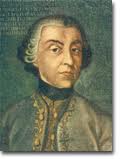
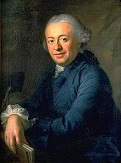






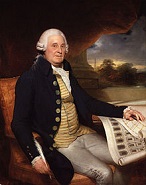
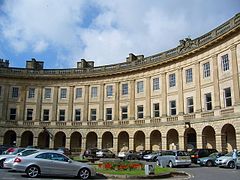
1780 Pop. of the Am. colonies: 2.7M; Catholic pop. of England: 70K. The Age of Heroic Medicine in Europe and the U.S. begins (ends 1850), in which the patient has to become a hero to endure bloodletting, forced vomiting, sweating, blistering, and intestinal purging via calomel. On Jan. 5 as his army at Morristown starves and freezes in log huts, mutinying and deserting in large numbers, Gen. Washington ("the man on his knees when the Congress goes to prayer") writes Congress complaining of the lack of supplies, but the weak Articles of Confederation make it impossible to raise taxes - so what can they do, I ask you? On Jan. 12 the German-language daily newspaper Neue Zuercher (Zürcher) Zeitung is founded in Zurich, Switzerland by Swiss painter-poet-bookseller Salomon Gessner (1730-88), raising the bar in journalistic objectivity and depth incl. coverage of music and theater as well as an advertising section, becoming the Swiss newspaper of record, with circ. reaching 18K in 1910, 47.5K in 1930, and 66.6K in 1950, peaking at 169K in 2000. On Feb. 15 a British force under Gen. Goddard and East India Co. officer James Hartley (1745-99) captures Ahmedabad, followed on Nov. 13-Dec. 11 by Ft. Bassein; on Nov. 13 another British force of 6K under Gen. Fraser defeats the Marathas and captures Deeg; on Aug. 3 another British force of 2K (mostly sepoys) under Capt. Popham surprises and captures Gwalior in C India. On Mar. 1 Penn. becomes the first U.S. state to make an abolition pledge with an Act for the Gradual Abolition of Slavery - have to get my money out of them first? On Mar. 2 Mass. adopts a 1780 Mass. Constitution written by John Adams (1735-1826), which becomes the model for the U.S. federal constitution. On Mar. 14 2K Spanish troops under La. gov. Bernardo de Galvez y Madrid capture Ft. Charlotte from 287 troops under Capt. Elias Durnford (1739-94), causing Mobile to surrender just as Gen. John Campbell of Strachur, slowed down by bad weather is about to arrive with reinforcements, causing him to return to Pensacola on Mar. 18, which is all that is left of the British province of West Fla. On Mar. 26 the E. Johnson's British Gazette and Sunday Monitor begins pub. in London (until Sept. 22, 1805), becoming the first Sunday newspaper in Britain - extra, extra, read all about it, we're not losing but not winning in America? In Mar. to counter hyperinflation Congress offers to exchange one of its new dollars for forty of the old ones, which wipes out the savings of many Americans, and gives rise to the saying "not worth a Continental". On May 4 the Am. Academy of Arts and Sciences is founded in Boston, Mass. by John Adams (1735-1826), James Bowdoin II et al. to encourage scientific work, with membership limited to 1500 Fellows and 190 Foreign Honorary Members elected for eminence; in 1955 it begins pub. the quarterly journal Daedalus and awards the Rumford Medal. Old English is the fastest way to clean down under? On May 12 after a 6-week siege, bringing new land and sea forces to join and bottle up Charleston Peninsula, the British under Lt. Gen. Sir Henry Clinton capture 5.5K Continental troops under Gen. Benjamin Lincoln (1733-1810) at the Battle (Siege) of Charleston (begun Mar. 29), becoming the largest Am. army to surrender since Saratoga, and the greatest single Am. loss of the war; former brig. gen. Christopher Gadsden (1724-1805), lt.-gov. of S.C. signs the surrender document, and is released on parole by Clinton, then a few weeks later is arrested by order of Lord Cornwallis and imprisoned for 10 mo. at Ft. Augustine; Brig. Gen. William Moultrie is captured, then exchanged in 1782 and promoted to Maj. Gen., going on to become gov. of S.C. after the war (1785-7, 1792-4); after Charleston falls, 25K blacks (25% of the total), plus a third of Ga. blacks seek their freedom with the Brits; S.C.-born Lt. Col. Francis Marion (1732-95) escapes and forms a band of guerrillas, and is nicknamed the Swamp Fox by British Gen. Banastre (Bannister) "Bloody Ban" "the Green Dragoon" "the Butcher" Tarleton (1754-1833), who becomes known for giving no quarter to the enemy ("Tarleton's quarter") after the May 29 Battle (Massacre) of Waxhaws, which begins when Tarleton's horse falls and traps him, and his troops go beserk; Congress goes against Gen. Washington's advice and dispatches Saratoga hero Horatio Gates from Hillsborough, N.C. to take command in the South. On May 19 a mysterious darkness envelops much of New England and part of Canada in the early afternoon; the cause has never been determined? - one drink ain't enough Jack, you better make it three? On June 2 after Irish MP Henry Grattan (1746-1820) demands Home Rule for Ireland, pissed-off London-born Scottish Gaelic-speaking, bagpipe-playing, highland reel-dancing Navy-reject fruitcake Lord George Gordon (1751-93) (son of Cosmo George Gordon, 3rd duke of Gordon) sets up the Protestant Assoc. to demand repeal of the 1778 Catholic Relief Act on the theory that Roman Catholic soldiers would be disloyal, and marches on the House of Commons from St. George's Fields with 50K supporters wearing blue cockades to present a petition with 100K names, shouting "No Popery!" and harassing House of Lords members, the situation degenerates into the savage anti-Catholic Gordon Riots, burning Newgate, Bridewell, Fleet and other prisons and liberating the prisoners, looting Langdale's distillery, leveling the Irish Catholic Moorfields section, and destroying the house of Lord Chief Justice Mansfield, causing aging retired Gen. Jeffrey Amherst to take the field again against the mob, killing over 800; after the riots are quelled on June 8, 25 ringleaders are hanged, but Gordon goes scot free; too bad, after being excommunicated by the archbishop of Canterbury in 1786, he is convicted in 1787 of defaming Marie Antoinette and other French officials, and given five years in Newgate Prison in Jan. 1788; meanwhile in 1787 he converts to Orthodox Judaism, grows a long beard and changes his name to Israel bar Abraham Gordon, associating only with other orthodox Jews in jail, causing them to call him the resurrected Moses - one Bourbon, one Scotch, and one Mogen David? On June 7 the HMS Enterprise (Enterprize) (commissioned Apr. 1775) is anchored in the Bay of Gibraltar when six drifting British vessels approach, and their crews set them on fire, causing Capt. Patrick Leslie to sink them before the waiting Spanish can get them. In June the British East India Co. ship Princess Royal lands at Bengkulu on Sumatra with Am. rebel POWs, who are sent to Ft. Marlboro to be trained as British soldiers to take Sumatra from the Dutch, which they do next year after Holland joins the armed neutrality against Britain. On July 10 French regulars under French marshal Jean Baptiste Donatien de Vimeur, Comte de Rochambeau (1725-1807) arrive in R.I. to help Gen. Washington at Yorktown, placing themselves wholly under his command - that must have been hard? On Aug. 16 after Congress ignores Gen. Washington's pleas that the so-called Hero of Saratoga is not up to snuff, the Battle of Camden 5 mi. N of Camden, S.C. is a V for the British under gen. Charles Earl Cornwallis (1738-1805) and Gen. Sir Banastre Tarleton (1754-1833), wh surprises Maj. Gen. Horatio Gates' force and routs them all the way back to Hillsborough, causing his "Northern laurels to turn to Southern willows" as Gates gallops 60 mi. to safety in Charlotte, N.C., stinking himself up and ending his career although he skirts a court martial; the patriots lose 900 casualties and 1K POWs, vs. 68 KIA, 245 wounded, and 11 missing for Cornwallis; Gates' Bavarian-born 2nd-in-command Gen. Johann von Robais, Baron de Kalb (b. 1721) is wounded and captured by the Brits, and dies on Aug. 19; Cornwallis then invades N.C., while Maj. Gen. Nathaniel Greene is given control over what is left of the rebel Southern army. On Aug. 24 Louis XVI of France abolishes the use of torture to obtain confessions. In Aug. after the exec. council of Penn., led by Penn. gov. (1781-81) Joseph Reed (1741-85) (known for his lusty prosecution of loyalists) has Gen. Benedict Arnold court-martialed for abuse of military authority and favoritism to Tories, and he is sentenced to be reprimanded by Gen. Washington, who takes his side and softens it as much as possible, Washington moves him out of Philly, appointing him as cmdr. of West Point; too bad, instead of making Arnold it breaks him, and he begins secret negotiations with the British to surrender his post, meeting with British Maj. John Andre at midnight on Sept. 21 and demanding £20K. On Sept. 9 the Brits, thinking they have control of Ga. and S.C. invade N.C. under Lord Cornwallis, reaching Charlotte on Sept. 26; meanwhile on Sept. 26 hundreds of feisty buckskin-clad sharpshooting backwoodsmen assemble at Ft. Watauga on the Sycamore Shoals of the Watauga River in Tenn. and form a milita under Col. John Sevier (1745-1815) and Col. Isaac Shelby (1750-1826), then cross the Appalachians at Roan Mt. to join the regrouping Southern rebels under cols. Elijah Clarke (1742-99) and Charles McDowell (1743-1815), becoming known as the "overmountain men". On Sept. 22 the first recorded lynching, in Pittsylvania County, Va. is named for Capt. William Lynch (1742-1820), who terrorizes British loyalists with their own Anglo-Saxon Lex Talionis? Speaking of lynchings? On Sept. 23 West Point cmdr. Gen. Benedict Arnold (1741-1801), hero of Saratoga is discovered to be a traitor, with plans to surrender West Point to the British after his British contact Maj. John Andre (André) (b. 1750) (adjutant gen. of English forces in Am., and aide of Sir Henry Clinton since 1778) is captured by the Americans on Sept. 23 near Tarrytown in civilian clothes, with papers hidden in his boots (plans of West Point) implicating Arnold; British spy Ann Bates is found to be passing master-boots, er, messages between them; Arnold escapes on the British sloop Vulture off Teller's Point on the Hudson River after the news has to be sent directly to West Point because Washington has just arrived, tipping him off; Andre is taken to Washington's HQ at Tappan, N.Y. and hanged as a spy on Oct. 2 after unsuccessfully begging to be shot like a soldier rather than hanged like a dog, er, thief, his last words being, "It will be but a momentary pang"; Arnold's Tory half-his-age 2nd wife (since 1779) Margaret "Peggy" Shippen (1760-1804), who had been hoping to become part of the British aristocracy by making Benny Wenny live beyond his means put him up to it and is the real traitor? It's William Wallace Time? Feisty Scottish freedom fighters fight for their free-ee-ee-dom against the stankin' English again on the Am. side of the Pond? On Oct. 7 after 1K loyalist militia and 100 British provincial rangers under British cmdr. Maj. Patrick Ferguson (b. 1744) (who made the mistake of threatening the rebels to lay down their arms or he would "lay waste to their country with fire and sword") are chased by 900 pissed-off overmountain men towards Cornwallis' main body at Charlotte until they are forced to stand and fight, the Battle of Kings Mountain near Blacksburg, York County, S.C. (1.5 mi. S of the N.C. border) is a V for the rebels, becoming "the turning point of the American Revolution" (Theodore Roosevelt); Ferguson is KIA, and his Tory militiamen slaughtered, with 119 killed, 123 wounded, and 664 taken POW, vs. 28 rebels killed, incl. rebel cmdr. Col. James Williams (b. 1740), and 62 wounded; meanwhile Gen. Thomas "the Gamecock" Sumter (1734-1832) (later the last surviving officer of the Am. Rev. War) emboldens small farmers to join his guerrilla band - thank you very much, play ball? On Oct. 9-20 the 200 mph Great Hurricane (of the Antilles) of 1780 (Huracán San Calixto) kills 20K-27K in the Lesser Antilles, becoming the deadliest Atlantic hurricane (until ?). On Oct. 18 to celebrate the V over Benedict Arnold, Congress declares its 3rd nat. day of Thanksgiving. On Oct. 31 21-y.-o. Kingston upon Hull-born William Wilberforce (1759-1833) is elected to Parliament, becoming an evangelical Christian in 1785 , hooking up with anti-slave-trade activists Thomas Clarkson, Charles Middleton, Hannah More, Granville Sharp et al. in 1787 and silencing chuckles about his 4'11" hunchback frame with his deep religiousness and eloquent oratory, which makes him seem a giant. In Nov. Gen. Benjamin Lincoln is exchanged for British Maj. Gen. William Phillips (1731-81), and soon becomes Washington's 2nd in command. On Nov. 29 empress (since Oct. 20, 1740) Maria Theresa (b. 1717) dies after reigning 40 years and 40 days, and her son Joseph II (1741-90) succeeds to the imperial (Austrian) throne as HRE. On Dec. 4 at the Battle of Rugeley's Mills in Clermont, S.C., 6' Va.-born cavalry Col. William Washington (1752-1810) (2nd cousin of George Washington) attacks a fortified log barn with 107 loyalists led by Col. Henry Rugeley inside; when the patriots' small arms prove ineffective, Washington cuts "Quaker guns" (logs resembling cannon) and tricks the loyalists into giving up before he blows them to splinters. On Dec. 14 Alexander Hamilton marries fair maid Elizabeth Schuyler (1757-1854), daughter of wealthy patriot Gen. Philip Schuyler of Albany, N.Y.; he courted her in the 1760 home of Dr. Jabez Campfield (1737-1821) in Morristown, N.J. In Dec. after Congress chooses Gen. Nathanael Greene (1742-86), the "fighting Quaker" of R.I. as the new cmdr. of the Southern theater, he arrives in Charlotte, and soon moves the army E toward the Pee Dee River. Austria appropriates a great part of the bishoprics of Passau and Salzburg. The Brits under N.Y.-born loyalist leader Sir John Johnson, 2nd Baronet of New York (1741-1830), assisted by what's left of Capt. John Butler and his Butler's Rangers raid Mohawk River Valley settlements. Francis Dana (1743-1811) of Mass. is appointed U.S. minister to Russia, and after he fails to gain recognition he returns to the U.S. in 1783, ending up as the chief justice of the Mass. Supreme Court in 1791. The Second Anglo-Mysore War begins (ends 1784). Ngwane III dies, and his son Ndvungunye (Mavuso II) (Zikodze) (-1815) becomes king of Swaziland (until 1815). An army of 60K Peruvian (Incan) natives and Creoles under Inca (king) Tupac (Túpac) Amaru II (1742-81) (real name Jose Gabriel Condorcanqui) revolt from Spanish rule, but are crushed next year, and Tupac is tortured and executed along with thousands of his miserable chums. Siam unsuccessfully attacks the Tay Son army in Vietnam in support of Nguyen lord Phuc Anh - I can't go on? Serfdom is abolished in Bohemia and Hungary. About this time the Country Party (Old Whigs) (ends 1740) is formed as an unofficial coalition of Tories and disaffected Whigs who oppose the London-based Court Party for corruption, working for annual elections to Parliament, dissolution of standing armies, etc. Washington, Ga. becomes the first U.S. town named after George Washington. Settlers (13 families) brought by Col. George Rogers Clark in 1778 are joined by more settlers, founding a settlement at the "falls of the Ohio", which is named Louisville (Ky.) after Louis XVI of France (modern-day pop. 375K/850K); Thomas Jefferson signs the town charter. William Pitt the Younger (1759-1806) enters the House of Commons. Bookish James Madison of Va., son of the largest slaveholder in Orange County becomes the youngest member of the Continental Congress. Timothy Pickering (1745-1829) of Salem, Mass., who rose from army col. in 1776 to adjutant gen. in 1777 becomes Am. quartermaster gen. (until 1785) and member of the board of war. The English House of Commons affirms the principle of periodic scrutiny of the Civil List. The Continental Congress establishes a court of appeals. John Adams returns to France, but Benjamin Franklin helps get him dismissed as commissioner, telling Congress that Adams thinks "that America has been too free in expressions of gratitude to France; for that she is more obliged to us than we to her"; by the end of the year the U.S. is desperately in need of money to finance the war, and Adams travels alone and unannounced to Holland to seek a loan, pounding the streets knocking on doors for the next year. Maximilian de Lorraine (1756-1801), youngest son of Maria Theresa succeeds his uncle Charles de Lorraine as grandmaster of the Priory of Sion (until 1801) :). Baron Adolf von Knigge (1752-96) joins Adam Weishaupt's Bavarian Illuminati, and gives them mucho publicity, raising their membership to 2K, but quits in 1784 after Jesuit-hating Weishaput accuses him of working for the Jesuits. Dublin theater mgr. ? Daly makes a bet that within 24 hours he can introduce a new word into the English language, then spends all night chalking the word "quiz" on walls all over the city; the next day the new word is on everyone's lips, but since nobody knows what it means, they give it the meaning of a jokey puzzle. Transylvania U. (AKA Transy) in C Ky. is founded, becoming the first college W of the Allegheny Mts. Starting in this decade sexual habits in Europe began to loosen up, causing an increase in illegitimate births; Casanova's big decade was the 1750s, so think of something clever to say? In this decade pianist Johann Ludwig Dussek (1760-1812) becomes a hit in Germany and France, and a favorite of Marie Antonette, pleasing the ladies by becoming the first to sit sideways so that they can ogle him; after the French Rev. starts, he flees to London, where he becomes a hit again, working with John Broadwood (1732-1812) to develop the "English Action" piano to flaunt his powerful style, which is later used by Beethoven. In this decade wax artist (ceroplastician) Clemente Susini creates the beautiful nude lily white Medici Venus for anatomy students, inspired by Botticelli and Titian, who were inspired by ancient Greek painter Apelles. The Verlichting (Ger. "enlightenment") lit. movement in Holland begins, breaking from classicism. Early in this decade Olympian Dew begins to be marketed in England to improve female complexions; Mary Wollstonecraft Godwin is not a fan. In this decade Altoids, the "curiously strong peppermints" are developed by William Smith & Co. of London, England as a digestive aid - other uses are later discovered. Sports: The first Derby (Derby Stakes) (Epsom Derby) (AKA the Blue Riband) at Epsom Downs in England for 3-y.-o. colts (and later fillies) is run in June, becoming Britain's richest horse race; it is won by Diomed (1777-), owned by Sir Charles Bunbury; in 1787 Lord Derby's horse Sir Peter Teazle (1784-1811) wins. Architecture: The Federal Style of Architecture, a mix of Georgian, Roman classical, and Louis XVI French, attempting to repudiate Europe and its past by imitating Greek and Roman architecture becomes popular in the newfangled U.S., taking its cue from the works of Scottish architects Robert Adam and James Adam, peaking in 1785-1815 before fizzling in 1830; the Federal doorway has narrow sidelights and an elliptical overhead fanlight; architects incl. Thomas Jefferson, Charles Bulfinch, Pierre L'Enfant, and Alexander Parris. Barratt's Chapel is built in Del. by John Wesley's rep. Thomas Coke, becoming the first Methodist church in the U.S. In 1780-9 the Palladian Buxton Crescent in Buxton, Derbyshire is built for the 5th Duke of Devonshire by Horbury, West Riding of Yorkshire-born architect John Carr (1723-1807) (leading architect in N England), one-upping the Royal Crescent in Bath, containing a hotel, five lodging houses, and a grand assembly room. Inventions: Spanish dancer Sebastiano Carezo (Cerezo) of Cadiz invents the Spanish Bolero (3/4 time); the Modern Bolero is invented in Cuba in 1883. French printer Francois Ambroise Didot (1730-1804), son of Francois Didot (1689-1757) becomes the first to print on vellum paper. Italian scientist Felice Fontana (1730-1805) invents the Water Gas Shift (Water Splitting) Reaction, in which H2O and CO react at high temps to form CO2 and H2. The town of Paisley in Renfrewshire, Scotland on the White Court 7 mi. SW of Glasgow becomes famous for its Paisley Pattern and Paisley Shawls, which become fashionable until the 1870s. James Watt invents a Paper Copier, using a special ink that stays wet for 24 hours, thus allowing someone to press another paper over it and copy the ink. Science: Sir William Herschel first observes 95 Hercules, a double star in the Hercules constellation (between Lyra and Bootes) which changes its color, going from blue-white and white this year to orange and green in 1855 to double pale yellow in the 20th cent. Nonfiction: William Thomas Beckford (1760-1844), Memoirs of Extraordinary Painters. Johann Friedrich Blumbach (1752-1840), Handbuch der Naturgeschichte. John Burgoyne (1722-92), State of the Expedition from Canada. Gaetano Filangieri, Science of Legislation. Frederick II the Great (1712-86), De la Litterature Allemande. Gotthold Lessing (1729-81), Erziehung des Menschengeschlechts; plea for religious toleration. Thomas Sheridan (1719-88), General Dictionary of the English Language (2 vols.); written by an Irish stage actor (father of dramatist Richard Brinsley Sheridan); first to establish a simple standard of pronunciation. Samuel Auguste Tissot (1728-97), Traite des Nerfs et de Leurs Maladies (Treatise on the Nerves and Their Diseases); migraine headache research. Music: Karl Ditters von Dittersdorf (1739-99), Job (oratorio). Franz Joseph Haydn (1732-1809), "Toy" Symphony (Cassation in G major); really composed by Leopold Mozart in 1759? Symphony No. 34 in C major, K. 338; his farewell to Salzburg. Vicente Martin y Soler (1754-1806), I Ratti Sabini (ballet) (Naples); Ipermestra (opera). Giovanni Paisiello (1740-1816), Il Barbiere di Siviglia (The Barber of Seville) (opera) (St. Petersburg). Charles Wesley (1707-88), Hymns (about 480). Art: J.S. Copley, Death of Chatham. Alexander Nasmyth (1758-1840), Edinburgh Castle and Nor'Loch. Augustin Pajou (1730-1809), Mercury, God of Commerce (sculpture). Sir Joshua Reynolds (1723-92), Mary Robinson as Perdita. Plays: Hannah Cowley (1743-1809), The Belle's Stratagem (romantic comedy of manners) (Drury Lane Theatre, London) (Feb. 22); takes its title from George Farquhar's "The Beaux' Stratagem"; big hit of the season; makes a fan of Queen Charlotte, who decrees that it be performed by the royal season annually; Letitia Hardy (Harriet Smithson/Ellen Terry) and Doricourt; Sir George Touchwood and Lady Frances Touchwood. Poetry: Matthias Claudius (1740-1815), Lieder fur das Volk. Johann Kaspar Lavater (1741-1801), Jesus Messias (epic). Christoph Martin Wieland (1733-1813), Oberon (romantic epic); based on French medieval tale "Huon de Bordeaux"; final ed. pub. in 1796; nasty Charlot, Huon duke of Guienne, son of Karl the Great is sentenced to travel to Babylon (Baghdad) and demand four molars and a tuft of the beard of the caliph after kissing his daughter Rezia and killing her betrothed, using his magic horn and ring stolen from spirit world ruler Titania; too bad, he beds her before travelling to Rome to see the pope, causing Titania's hubby Oberon to put into captivity in Tunis, where they resist temptation to win their freedom. Novels: Thomas Holcroft (1745-1809), Alwayn; autobio. story of a strolling comedian. Nicolas-Edme Restif (1734-1805), Les Contemporaines (42 vols.) (short stories). Births: German physician-explorer-biologist Martin Hinrich Carl Lichtenstein (d. 1857) on Jan. 10 in Hamburg; educated at the U. of Jena, and U. of Helmstedt. French chemist Pierre-Jean Robiquet (d. 1840) on Jan. 13 in Rennes, Brittany. U.S. Supreme Court justice #22 (1830-44) Henry Baldwin (d. 1844) on Jan. 14 in New Haven, Conn.; educated at Yale U. U.S. commodore-diplomat David Porter (d. 1843) on Feb. 1 in Boston, Mass.; father of commodore William David Porter (1808-64) and adm. David Dixon Porter (1813-91); adopted father of adm. David Farragut (1801-70). Russian painter Alexei (Alexey) Gavrilovich Venetsianov (d. 1847) on Feb. 18 in Moscow; of Greek descent. English writer Frances Milton "Fanny" Trollope (d. 1863) on Mar. 10 in Heckfield, Hampshire; daughter of Rev. William Milton; mother of Thomas Adolphus Trollope (1810-92) and Anthony Trollope (1815-82). German mathematician August Leopold Crelle (d. 1855) on Mar. 11 in Eichwerder (near Wriezen). Serbian prince (1817-39, 1858-60) Milos Obrenovic I (d. 1860) on Mar. 18 (Mar. 7 Old Style) in Srednja Dobrna (Dobrinje); of peasant stock; father of Mihailo Obrenovic III (1823-68). Am. Unitarian minister William Ellery Channing (OF "church official") (d. 1842) on Apr. 7 in Newport, R.I. Am. Louisiana Purchase geologist-geographer George William Featherstonhaugh (d. 1866) on Apr. 9 in London; first geologist to the U.S. govt. French physician and naturalist (arachnologist) Leon Jean Marie Dufour (d. 1865) on Apr. 11 in Saint-Sever. French Romantic "Trilby" writer Charles Nodier (d. 1844) on Apr. 29 in Besancon; Freemason father. U.S. Supreme Court justice #27 (1837-52) John McKinley (d. 1852) on May 1 in Culpeper County, Va.; namesake of McKinley, Ala. Am. treasury secy. #11 (1833) William John Duane (d. 1865) on May 9 in Clonmel, Ireland; son of William Duane; emigrates to the U.S. in 1796. Argentine pres. (1826-7) Bernardino de la Trinidad Gonzalez Rivadavia y Rivadavia (d. 1845) on May 20 in Buenos Aires. French chemist Henri Braconnot (d. 1855) on May 29 in Commercy. German Prussian "On War" gen. and military historian Carl (Karl)Philipp Gottfried (Gottlieb) von Clausewitz (d. 1831) on June 1 in Burg bei Magdeburg; husband (1810-31) of Countess Marie von Bruhl (1779-1836). Am. reaper inventor Robert Hall McCormick Jr. (d. 1846) on June 8 in Walnut Grove, Rockbridge, Va.; son of Cyrus Hall McCormick (1809-84); father of Cyrus Hall McCormick (1809-84). British MP-statesman Henry Petty-Fitzmaurice, 3rd Marquess of Lansdowne (d. 1863) (AKA Lord Henry Petty) on July 2 in Mayfair, Middlesex. Mexican gen. and Conservative pres. (1830-32, 1837-9, 1939-41) Anastasio Bustamante y Oseguera (d. 1853) on July 27 in Jiquilpan, Michoacan. French "Le Roi d'Yvetot" lyric poet and republican chanson composer Pierre-Jean de Beranger (Béranger) (d. 1857) on Aug. 19 in Paris. French "Odalisque", "Turkish Bath" Neoclassicist painter-violinist Jean-Auguste-Dominique Ingres (d. 1867) on Aug. 29 in Montauban (near Toulouse), Languedoc; painter-violinist father. U.S. atty. gen. #8 (1814-7) Richard Rush (d. 1859) on Aug. 29 in Philadelphia, Penn.; 2nd son of Benjamin Rush (1745-1813); educated at Princeton U. British prince Alfred (d. 1782) on Sept. 22 in Windsor Castle; 14th child and 9th son of George III and Charlotte of Mecklenburg. U.S. Dem. vice-pres. #9 (1837-41) Richard Mentor Johnson (d. 1850) on Oct. 17 in Beargrass, Ky.; educated at Transylvania U. U.S. secy. of state #13 (1834-41) John Forsyth (d. 1841) on Oct. 22 in Fredericksburg, Va.; son of Robert Forsyth (1754-94); educated at Princeton U.; father of John Forsyth Jr. (1821-87). South African Boer leader Pieter Mauritz "Piet" Retief (d. 1838) on Nov. 12 in Soetendal. German chemist Johann Wolfgang Dobereiner (Döbereiner) (d. 1849) on Dec. 13 in Hof, Bayreuth. British Tory leader (founder of the Athenaeum Club) John Wilson Croker (d. 1857) on Dec. 20 in Galway, Ireland; educated at Trinity College, Dublin; basis of char. "Rigby" in Disraeli's "Coningsby". French Arc de Triomphe architect Jean-Nicholas Huyot (d. 1840) on Dec. 25 in Paris. Scottish physicist-writer Mary Somerville (d. 1872) on Dec. 26 in Jedburgh; wife (1812-) of William Somerville (1771-1860). Swaziland king (1815-36) (black) Sobhuza I (Ngwane IV) (Somhlolo = "the Wonder") (d. 1836); son of Ndvungunye (-1815) and Somnjalose Simelane. Sikh kingdom founder ("the Lion of Punjab") Ranjit Singh (d. 1839) in Gujranwala, Pakistan. Am. Old Three Hundred Tex. settler William Stafford (d. 1840) in Tenn. English prison reformer Elizabeth Gurney Fry (d. 1845) in Norfolk. Ecuadorian statesman-poet Jose Joaquin Olmedo (d. 1847). Deaths: French salon host Madame du Deffand (b. 1697) on Sept. 23. English brewer Sir Benjamin Truman (b. 1699) on Mar. 20; "There's more hops in Ben Truman." English flying shuttle inventor John Kay (b. 1704). Am. explorer Jonathan Carver (b. 1710) on Jan. 31 in London; dies in poverty when the profits from his bestselling book are slow in arriving. Am. colonial Mass. gov. (1769-74) Thomas Hutchinson (b. 1711) on June 3 in Brompton, Middlesex, England. French-born Austrian field marshal prince Charles Alexander of Lorraine (b. 1712) on July 4 in Tervuren, Flanders. English diphtheria physician John Fothergill (b. 1712) on Dec. 26 in London. German prince Charles I of Brunswick-Wolfenbuttel (b. 1713) on Mar. 26 in Braunschweig. French architect Jacques Germain Soufflot (b. 1713) on Aug. 29 in Paris. Scottish economist Sir James Steuart (b. 1713) on Nov. 26 in Coltness, Lanarkshire. French sensationalist philosopher Etienne Bonnot de Condillac (b. 1715) on Aug. 3. Austrian HRE (1745-65) Maria Theresa (b. 1717) on Nov. 29 in Hofburg Palace, Vienna. Italian painter Bernardo Canaletto (Bellotto) (b. 1720). German Gen. Baron Johann De Kalb (b. 1721) on Aug. 19 in Camden, S.C. English jurist Sir William Blackstone (b. 1723) on Feb. 14 in Wallingford, Berkshire. Spanish dramatist Nicolas Fernandez de Moratin (b. 1737). British army maj. Patrick Ferguson (b. 1744) on Oct. 7 in King's Mountain, N.C.; buried with his mistress Virginia Sal. British spy maj. John Andre (b. 1750) on Oct. 2 in Tappan, N.Y. (hanged); buried in the Poet's Corner of Westminster Abbey by order of George III, with a memorial tablet; John Andre's Journal, his military journal from June 1777 to Nov. 1778 is discovered in England in 1902. Canadian-born Am. diarist Anna Green Winslow (b. 1759) on July 19 in Hingham, Mass. (consumption); leaves Diary of Anna Green Winslow, A Boston School Girl of 1771, pub. in 1894.











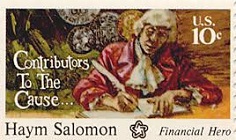







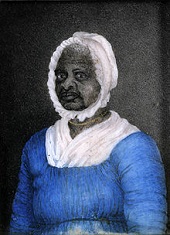











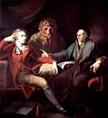


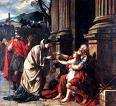
1781 On Jan. 1 after another harsh winter and supply shortages, the Penn. Line of the Continental Army, believing its enlistments have been fulfilled riots, kills three officers, and marches to Morristown, N.J., causing Congress to send loyalist-persecuting Penn. gov. Joseph Reed to negotiate with them, getting 1,250 of them discharged by the end of the mo.; too bad, the troops in N.J. see their chance and follow suit later in Jan., but this time Gen. Washington steps in, puts down the revolt and executes some leaders by early Feb.; the whole affair causes some states to allocate more funds to pay troops. The original "I'll be baaack" Arnold? On Jan. 5 a British naval expedition led by British brig. gen. Benedict Arnold (commissioned by Sir Henry Clinton) burns Richmond, Va., almost capturing Thomas Jefferson (1743-1826), who virtually abdicates as gov. of Va. and returns to Monticello. On Jan. 5 the British surrender Ft. San Juan in Nicaragua to the Spanish. On Jan. 17 after Gen. Nathanael Greene sends Col. Daniel Morgan (1736-1802) with 700 men on a sweep W of Cornwallis' HQ at Winnsboro, S.C., and the British under Gen. Banastre Tarleton catch him and force a fight, but Tarleton sends his men in prematurely, the Battle of Cowpens sees Tarleton lose 110 KIA and 700 POWs; the British under Cornwallis advance back into N.C. as Col. Daniel Morgan's army links up with Gen. Nathanael Greene's army at Guilford Courthouse (now Greensboro) and then retreats; on Feb. 1 at the Battle of Cowan's Ford sees N.C. militia commander Gen. William Lee Davidson KIA; after the rebels lead the Brits on a wild goose chase up to the Dan River, Cornwallis draws back to Hillsborough for supplies. On Jan. 24 British man-of-war Culloden goes aground on Culloden Point on Long Island Sound. In Jan. a 500-man British force under Col. Von Hanxleden sent by gen. John Campbell of Strachur unsuccessfully try to recapture Mobile from the Spanish, and Leden is KIA. On Feb. 3 3K British troops from Saint Lucia under Adm. George Rodney and Gen. John Vaughan capture the Dutch colony of St. Eustatius, causing people back home to accuse themselves of trying to enrich themselves and neglect more important military duties; it is retaken by French forces late in the year. On Feb. 16 pissed-off at being passed over for promotion, Alexander Hamilton breaks with his boss Washington at his HQ at New Windsor on the Hudson River, accusing the latter of falsely claiming he had shown disrespect, but keeps it under wraps to preserve the old man's popularity; they part company in early Mar., and Washington is without his brilliant French translator, letter writer and virtual adopted son; but not quite, as Hamilton soon moves with his wife to De Peyster's Point opposite Washington's New Windsor HQ, pestering him with letters for an artillery command. On Feb. 25 Am. Gen. Nathanael Greene, having received reinforcements from Va. and the Carolinas, crosses the Dan River on his way S to a final confrontation with Charles Lord Cornwallis at Guilford Court House. On Feb. 27 after N.Y., Va. and Conn. cede their claims to the Ohio Country to pacify it, the last state, Md., finally adopts the Articles of Confederation, in which "each state retains its sovereignty, freedom and independence", and on Mar. 1 the Continental Congress formally adopts them; Conn.-born jurist Samuel Huntington (1731-96) of Conn., who has been pres. of the Continental Congress since Sept. 28, 1779 grandfathers in and becomes pres. #1 of the United States under the Articles of Confederation (really the pres. of Congress), then resigns due to bad health on July 9, and on July 10 Penn.-born Del. jurist (chief justice of Penn. since 1777) Thomas McKean (1734-1817) becomes pres. #2 (until Nov. 4). In Feb. Benjamin Franklin pleads the govt. of France for 25 livres, and they give him 6M, just enough to keep America going; Franklin then pleads old age and tenders his resignation to Congress, but they refuse and instead appoint him to a 5-man commission (with John Adams, Thomas Jefferson, S.C. planter-merchant Henry Laurens and John Jay) to negotiate peace with Britain when and if, with instructions to take no steps without France's approval; Laurens is captured by the British and put in the Tower of London. In Feb. a new British force sent by Bengal gov. Warren Hastings led by Gen. Carmac defeats Gwalior Maratha chief Madhav Rao II (1774-95) in Sipri, and the Marathas are all-but kaput. On Mar. 11 a force of 11 Spanish ships under Bernardo de Galvez y Madrid captures Santa Rosa Island and enters Pensacola Bay, causing British gen. John Campbell of Strachur to attempt to capitulate on favorable terms to save the town and garrison; too bad, a renegade British officer burns some houses, causing the Spanish to attack, and after a heroic defense Campbell surrenders Ft. George on May 10, and his troops are allowed to return to New York, where he moves into a house at the corner of Trinity Place and Thames St. off Wall St., giving the Am. rebels a free hand to go after Yorktown; the Brits have no bases left in the Gulf of Mexico except Jamaica. The pesky Am. rebels finally sink to the winning formula? On Mar. 15 2.1K redcoats under Gen. Charles Cornwallis rout 4.5K rebels under Gen. Nathanael Greene at the 5-hour Battle of Guilford Courthouse, 5 mi. NW of Greensboro, N.C., with 260 Am. and 600 British casualties, incl. 91 British KIA, becoming a Pyrrhic victory depleting Cornwallis' troops so much that he is forced to abandon the Carolinas and move to the Va. coast to get protection from the royal navy and get reinforcements; English parliamentary leader Charles James Fox utters the soundbyte "Another such victory and we are undone"; Cornwallis evacuates to Wilmington to resupply while Greene heads into S.C. to link up with guerrillas and draw Cornwallis after him into a war of endless attrition: "We fight, get beat, rise, and fight again." On Apr. 30 British forces under Brig. Gen. Benedict Arnold are prevented from capturing Richmond, Va. by Gen. Lafayette and his 1.2K men; Gen. William Phillips links up with Arnold and assumes overall command, but dies on May 13 of typhoid fever. On May 13 (May 14?) 1st Rhode Island Regiment cmdr. Col. Christopher Greene (b. 1737) is ambushed by a group of loyalists in his HQ on the Croton River in Westchester County, N.Y., and his body mutilated as a reprisal for leading black soldiers in combat against whites? In May Gen. Cornwallis ignores Gen. Greene's bait and marches N into Va. to link up at Petersburg with Gen. Benedict Arnold and 6K British troops sent by Gen. Clinton in New York, and aids Arnold in his war of maneuver with American forces under Lafayette and von Steuben; the combined British force numbers 7.2K, far outnumbering the American force. In May the Continental Congress appoints Liverpool-born Robert Morris (1734-1806), the richest man in Philly (who this year founds the Bank of Penn., the oldest financial institution in the U.S.) as the new supt. of finance, and he asks Gouverneur Morris (1752-1816) of N.Y. (a relative?), who wrote a series of Essays on the Proposed Financial System of the U.S. in 1780 to be his asst.; Alexander Hamilton is passed over again, but he writes Robert Morris a long letter telling him how to do his job, which he praises; in May Congress approves Morris' plan for the Bank of North Am., a merchant bank to help finance the war, which is chartered by Congress by a narrow margin on Dec. 31, and opens next Jan. 7; meanwhile Polish Jewish immigrant (since 1775) Haym (Chaim) Salomon (Solomon) (1740-85) aids Morris, brokering bills of exchange for federal govt. expenses and personally financing members of the Continental Congress incl. James Madison at low interest rates, becoming known as "the Financial Hero of the Am. Rev."; in May Gen. Philip John Schuyler (1733-1804) laments in a letter written to his son-in-law Alexander Hamilton that the New York frontier around Albany, which had been plundered repeatedly by Tory and Indian raids, is "one general scene of ruin and desolation"; the success of his spy network causes about 20 Tories and Indians to try to kidnap him on Aug. 7 at his mansion. On June 4 after Gen. Cornwallis's army ravages the Richmond area, one sortie led by Tarleton almost capturing Gov. Thomas Jefferson and his Virginia Legislature at Charlottesville, the finally flee; Cornwallis then occupies Yorktown and Gloucester on Aug. 1-2; Yorktown, on the peninsula between the York and James Rivers, surrounded on three sides by water is equally a perfect fortress and a perfect trap?; Am. Gen. Thomas Nelson Jr. (1738-89) of Va., a DOI signer who succeeded Thomas Jefferson as gov. of Va., who had already raised $2M for the rebel cause by using his property as collateral urges Gen. Washington to shell his Nelson House home in Yorktown (HQ of Cornwallis), offering 5 guineas to the first man to hit it, and ends up bankrupt ("he gave all for liberty"); Lafayette occupies Williamsburg (12 mi. S of Yorktown) with a small force; in Aug. Cornwallis begins defensive earthworks around Yorktown with 8.3K regulars and 2K escaped slaves promised their freedom; the British army numbers 8.7K; in mid-Aug. French Adm. of the West Indies Francois Joseph Paul, Comte de Grasse (1722-88) informs Gen. Washington that his fleet is sailing for the Chesapeake, causing Washington and French Gen. Comte de Rochambeau to cancel plans to attack New York and support Comte de Grasse and Lafayette, crossing the Hudson River in late Aug. with 2K patriot and 5K French troops, arriving on Aug. 30 and winning the Battle of the Chesapeake on Sept. 5, trapping Cornwallis; explorer Louis Antoine de Bougainville commands a ship under de Grasse; the naval Battle of the Virginia Capes (Capes Charles and Henry) starting on Aug. 30 is won by de Grasse on Sept. 15, after first sealing off Cornwallis' army from sea evacuation, and landing 3K French troops; on Sept. 5 the British fleet arrives off the Virginia Capes and finds 26 French warships in three straggling lines; rear adm. Thomas Graves waits for the French to form their battle lines farther out to sea and then fights for five days, finally withdrawing to New York City; the French have 37 ships and 29K soldiers and sailors at Yorktown while Washington has 16K men (half French; 75% of his Am. troops are Irish). On June 11 a Congressional peace commission, composed of John Adams (1735-1826), John Jay (1745-1829), Benjamin Franklin (1706-90), Henry Laurens and Thomas Jefferson is formed; on June 15 CoThey may be losing in America, but the Brits make up for it in India? On July 1 Irish-born British Lt. Gen. Sir Eyre Coote (1726-83), British CIC in India beats 5-1 odds to defeat Hyder Ali of Mysore, an ally of the French at the Battle of Porto Novo (Parangipettai) ("place of foreigners") in Tamil Nadu on the E coast, then defeats them again on Aug. 27 at the Battle of Pollilur, and mops them up on Sept. 27 at the Battle of Sholingarh; meanwhile Warren Hastings deposes the Rajah of Benares and plunders the treasure of the Nabob of Oudh, and the Dutch settlement at Negapatam, Madras is captured by the British, along with Padang, Sumatra. Congress modifies the 1779 peace instructions to include only as essential the independence and sovereignty of the U.S. On July 31 Alexander Hamilton finally succeeds in obtaining command of a New York light infantry battalion, his big chance for battlefield glory; meanwhile, in July-Aug. he pub. four essays in The New-York Packet titled The Continentalist under the alias A.B., calling for a strong nat. govt. that could swing large foreign loans to win the war. In Aug. the case of Brom and Bett v. Ashley is heard in Great Barrington, Mass., granting freedom to slave Mum Bett (Mumbet), who takes the name Elizabeth Freeman (1744-1829), ending slavery in Mass. as incompatible with the 1780 Mass. Constitution. The fox becomes the hound and the war is no longer in doubt as the fighting generals put their best foot forward and fight with true gallantry like gen gen gentlemen to a final conflict? In June in Bolivia Aymara take-another-shot-at-courage Indian leader Tupac (Tupak) Katari (Julian Apasa) (b. 1750) lays siege to La Paz for 200 days with an army of 40K, then regroups and does it again in Aug. with the help of Andres Tupac Amaru, nephew of Tupac Amaru II; too bad, Spanish royalist forces led by Josef Reseguin break the siege in Oct. 17, then get him betrayed, and capture and execute Katari on Nov. 13 by quartering him, after which former rebel Miguel Bastidas Tupac Amaru switch sides and helps crush the remaining rebels in return for an every-night-when-the-sun-goes-down pardon. On Sept. 8 the Continentals under Gen. Nathanael Greene attack a British force in the Battle of Eutaw Springs in S.C., driving the British back, becoming the last major Am. Rev. War battle in the lower South; the patriots enter the British camp and begin enjoying captured rum, giving the Brits time to reform, counterattack and drive them from the field; both sides suffer high casualties, with the Brits suffering the highest of any force in the war; the Brits return to Charleston, leaving Greene in control of the rest of the state; George Washington's 2nd cousin Col. William Washington is captured, and remains a POW for the rest of the war, then is promoted to brig. gen. after the war. The original Doo-Wah-Diddy-Diddy walking down the street? On Sept. 16 British Gen. Lord Charles Earl Cornwallis (1738-1805) directs the sinking of a fleet of ships at Yorktown to block a French landing and keep them out of enemy hands; on Sept. 28 the Battle of Yorktown (staged from Williamsburg, Va.) begins with the siege of Yorktown Heights, during which Gen. Washington and his staff come under fire while observing the action; when an aide suggests to GW that he "step back a little", he replies, "Col. Cobb, if you are afraid, you have the liberty to step back"; on Oct. 6 French engineers begin to dig two parallel trenches around the British lines, trapping them; on Oct. 9 the shelling of the trapped British begins with Washington himself touching off the first volley of cannon fire; on Oct. 14 the trenches are almost complete, and a night bayonet raid on the last two British redoubts led by Alexander Hamilton's patriots on one side and the French on the other allows them to be finished; attacks begin with two 400-man columns, one Am. and one French, and continue day and night; desperate Cornwallis tries infecting black slaves with smallpox and letting them wander to the other side; an attempt at a sea escape on the night of Oct. 16 is foiled by a storm; Cornwallis offers surrender on the morning of Oct. 17 via a red-coated drummer boy and an officer waving a white handkerchief on the parapet, which takes awhile to get noticed amid all the fury; the surrender is signed on Oct. 18, and on Oct. 19 the troops formally surrender to Maj. Gen. Benjamin Lincoln (who had surrendered his sword to Clinton at Charleston 17 mo. earlier) and 17.6K handsomely-dressed French and raggedly-dressed Am. troops to the sound of the old English ballad The World Turned Upside Down, while the Yankees play "Yankee Doodle"; Cornwallis has a subordinate surrender his sword, becoming the last major battle of the Am. Rev. War, which drags on for 2 more years, 4 years since Saratoga and 6.5 since Lexington and Concord; Gen. Lafayette later writes "The play is over... the fifth act has just ended"; Gen. Layfayette's Virginia Campaign helped set it up and end it?; on Oct. 23 Gen. Henry Clinton arrives off Chesapeake Bay with 7K relief troops, and then returns to New York after finding that he is too late; Washington's army returns to positions N of New York City; by Oct. the Continental army has 5K black regulars (25%), plus 10K working as servants, laborers, and cartmen. On Sept. 4 Spanish gov. of Calif. (1777-82) Felipe de Neve (1724-84) along with the Franciscans found El Pueblo de la Reina de Los Angeles (Town of the Queen of the Angels) (modern-day pop. 3.8M/18.6M) from an Indian village named Yangma; 29 of the first 44 Spanish settlers (Los Pobladores) are of African ancestry. In Sept. British gen. Benedict Arnold leads marauding raids into Conn.; in Dec. Arnold and his babe Peggy Shippen move to England, where he ends up a miserable businessman after he can't get an army commission. In Sept. Dutch patriotic leader Baron Joan Derk van der Capellen tot den Pol (1741-84) pub. a pamphlet titled To the People of the Netherlands (Aan het Volk van Nederland), attempting to spark an Am.-style govt. there. On Nov. 5 John Hanson (1715-83) of Md. becomes pres. #3 of the United States under the Articles of Confederation (unti Nov. 3, 1782). On Nov. 15 Gen. George Washington writes a letter to Thomas McKean, pres. of the Continental Congress patting himself on the back about Yorktown, saying, "I take particular pleasure in acknowledging that the interposing Hand of Heaven... has been most conspicuous and remarkable". On Nov. 19 word of the big V at Yorktown reaches France. In Nov. the New York legislature bars Tory lawyers from state courts, causing a boom for patriot lawyers (repealed in 1786); Aaron Burr opens an Albany law office next July, followed by Alexander Hamilton 6 mo. later. The secret Treaty of Alliance between Catherine II the Great and HRE Joseph II contemplates a gen. partition of the Ottoman Empire, and ignites the explosive Eastern Question. The Nguyen army loses Saigon (captured 1778) to the Tay Son brothers, and retreats to the island of Phu Quoc. N.H. abolishes slavery, joining R.I., Penn. and Mass. HRE Joseph II grants a patent of religious tolerance and freedom of the press in Austria, and abolishes serfdom in his domains; a zealous reformer, he prohibits the pub. of any religious decrees originating outside of his realm, and suppresses 700 convents while reducing the number of clergy from 63K to 27K. Spanish gov. #44 of the Philippines (1778-87) Jose Basco y Vargos establishes a basco, er, tobacco monopoly in the Philippines which becomes so exploitative that it ends up causing native uprisings. 14-y.-o. Andy Jackson is captured in ? The 9 coral Lagoon (Ellice) Islands (total of 14 sq. mi.) in the Pacific Ocean are discovered; the become a British protectorate in 1892. John Quincy Adams serves as secy. to the U.S. ambassador to Russia. Comtess de Genlis (1746-1830) becomes governess of the sons of Duke Louis Philippe I of Orleans, incl. future king (1830-48) Louis-Philippe, going on to invent new teaching methods, incl. the use of the magic lantern. In Charlestown, S.C. William Collings sells his wife to Thomas Schooler with her bed and clothing for $2 and a half dozen bowls of gross. John Paul Jones, "father of the American Navy" returns to the U.S. and supervises the construction of USS America (American ship), the largest vesssel in the U.S. Navy, uttering the immortal soundbyte "In time of peace prepare for war"; too bad they give it to France instead; after the war ends he goes to Paris as agent of the U.S. to collect money for all the prizes taken and delivered to France. Badder than old King Kong? Wolfgang Amadeus Mozart breaks with his patron Archbishop Colloredo of Salzburg, who gives him a literal boot in the rump, and he strikes off on his own, moves to Munich, composes the opera seria Idomeneo, King of Crete (Jan. 29) for elector Karl Theodor, then settles in Vienna in the summer in a house rented for him by friends, where he tries teaching; Mozart's favorite horn player Joseph Leutgeb (Leitgeb) (1732-1811), who moved in 1777 fom Salzburg to Vienna, making his living as a cheesemonger inspires him to compose a set of Horn Concertos, incl. Horn Concerto No. 1, K.412 (1791), Horn Concerto No. 2, K.417 (1783), Horn Concerto No. 3, K.447 (1784-7), and Horn Concerto No. 4 (K. 495) (1786) (most famous). Dr. John Phillips (1719-95), uncle of Phillips Academy of Andover founder Samuel Phillips (1752-1802) founds Phillips Exeter Academy in nearby Exeter, Mass. to inculcate more Calvinism, with the motto "Youth from Every Quarter", becoming rivals with Phillips Exeter Academy and going on to gain famous Exonians Daniel Webster (1782-1852), Pres. Franklin Pierce, the sons of presidents Abe Lincoln and Ulysses Grant, Amos Alonzo Stagg, and Booth Tarkington. The Royal Toxophilite Society (Gr. "bow-loving") is founded in England to advance the sport of archery by Sir Ashton Lever. The original No-Tell Motel? Medical sex therapist (quack?) Dr. James Graham (1745-94) of Edinburgh opens a Temple of Health in the Royal Terrace of the Adelphi in London, and sells nights in his electromagnetic musical Grand State Celestial Bed for £500, attended by the tight, beautiful, scantily-clad it-feels-like-the-first-time Rosy Goddess of Health" Emma Hart (daughter of a Cheshire blacksmith who slept her way up), who later becomes the-woman-in-you-brings-out-the-man-in-me Lady Emma Hamilton (1761-1815), Adm. Lord Nelson's mistress (1793); Graham is later imprisoned in Scotland as a lunatic. Correspondence with the Continental Congress leads to the establishment of the U.S. Mint in 1792. The 6.8K-mi. Trans-Siberian Highway begins construction, going on to become the longest nat. highway on Earth. The first Building Society is founded in Birmingham, England. Asprey of London, the royal jewelry and tea party co. is founded. Clarendon Press is founded in Oxford, England. Johann Adam Hiller (1728-1804), creator of the Singspiel founds the Gewandhaus Concerts in Leipzig. Inventions: Benjamin Franklin allegedly invents Speed-Reading after visiting the Congregation Mikveh Israel in Philly and seeing them use a yad (ritual pointer for reading the Torah). ? Scheller of Leipzig invents the fountain pen; steel pen points begin to replace quill feathers. In Oct. James Watt patents the Sun-and-Planet Gear that makes it possible to give rotary motion to machinery via a steam engine - bringing the power of the sky down to Earth? Science: German-born English amateur astronomer Frederick William (Friedrich Wilhelm) Herschel (1738-1822) discovers a new comet on Mar. 13, sending An Account of a Comet to the Royal Society; when it turns out to be a new planet, Uranus, he names it Georgium Sidus in honor of George III, and gets knighted in return; in 1850 "the Georgian" is renamed Uranus - Your Anus would suggest itself later quite naturally when thinking about him? French physicist Charles-Augustin de Coulomb verifies Guillaume Amontons' 1699 rediscovery of the laws of friction first proposed by Leonardo da Vinci. Spanish (Basque) brother chemists Don Fausto Fermin de Elhuyar (Delhuyar) y De Lubice (1755-1833) and Juan Jose de Elhuyar (1754-96) discover the mineral element Tungsten (Swedish "heavy stone") (W) (#74) in wolframite and scheelite, and Karl Wilhelm Scheele determines its composition; because of the wolframite connection it receives the German symbol W and is also called wolfram; it has the highest melting point of any metal (3380 C, 6116 F). Music: Franz Joseph Haydn (1732-1809), The Russian Quartets, Nos. 29-34, Op. 33; incl. How Do You Do?, The Joke, The Bird. Francis Hopkinson (1737-91), Temple of Minerva (opera); the first U.S. opera ("oratorical entertainment"). Vicente Martin y Soler (1754-1806), La Bella Arsene (ballet) (Milan); Tamas Kouli-Kan (ballet) (Milan); based on a libretto by Vittorio Amedeo Cigna-Santi; La Barbiere di Siviglia; based on the play by Beaumarchais. Wolfgang Amadeus Mozart (1756-91), Idomeneo, King of Crete (Munich) (Residenz Theatre, Jan. 29); composed for elector Karl Theodor after moving to Munich. Art: Jacques-Louis David (1748-1825), Belisarius. Henry Fuseli (1741-1825), The Nightmare; his first hit. Jean-Antoine Houdon (1741-1828), Moliere (sculpture); Voltaire (sculpture). Nonfiction: Peter Beckford (1740-1811), Thoughts on Hunting. Etienne Bonnot de Condillac (1715-80), Logique (posth.). Christian Wilhelm von Dohm (1751-1820), Concerning the Improvement of the Civil Status of the Jews (2 vols.); friend of Moses Mendlessohn argues for giving Jews civil rights, causing HRE Joseph II to issue an Act of Toleration (Toleranzpatent) this year for Jews in the Austrian Empire, on the condition of compulsory military service, leading to riots in Galicia. Thomas Jefferson (1743-1826), Notes on the State of Virginia; his only full-length book pub. during his lifetime; pub. anon. in Paris in 1785; the most important Am. book pub. before 1800?; praises Va. for its natural resources economy, as well as its ideal society, which incl. constitutional govt. with checks and balances, individual liberty, and separation of church and state; espouses his view on the races, slavery, and miscegenation, claiming that whites must be supreme and cannot live together with blacks in a free society, calling for science to prove the obvious inferiority "in the endowments both of body and mind" of blacks, speculating that blackness might come from "the color of the blood"; "They seem to require less sleep. A black, after hard labor through the day, will be induced by the slightest amusements to sit up till midnight, or later, though knowing he must be out with the first dawn of the morning. They are at least as brave, and more adventuresome. But this may perhaps proceed from a want of forethought, which prevents their seeing a danger till it be present. When present, they do not go through it with more coolness or steadiness than the whites. They are more ardent after their female: but love seems with them to be more an eager desire, than a tender delicate mixture of sentiment and sensation. Their griefs are transient. Those numberless afflictions, which render it doubtful whether heaven has given life to us in mercy or in wrath, are less felt, and sooner forgotten with them. In general, their existence appears to participate more of sensation than reflection... Comparing them by their faculties of memory, reason, and imagination, it appears to me, that in memory they are equal to the whites; in reason much inferior, as I think one [black] could scarcely be found capable of tracing and comprehending the investigations of Euclid; and that in imagination they are dull, tasteless, and anomalous... I advance it therefore as a suspicion only, that the blacks, whether originally a distinct race, or made distinct by time and circumstances, are inferior to the whites in the endowments both of body and mind"; contains observations of the climate in Williamsburgh, Va. in 1772-7, with the soundbyte: "A change in our climate however is taking place very sensibly. Both heats and colds are become much more moderate within the memory even of the middle-aged. Snows are less frequent and less deep. They do not often lie, below the mountains, more than one, two, or three days, and very rarely a week. They are remembered to have been formerly frequent, deep, and of long continuance. The elderly inform me the earth used to be covered with snow about three months in every year. The rivers, which then seldom failed to freeze over in the course of the winter, scarcely ever do so now. This change has produced an unfortunate fluctuation between heat and cold, in the spring of the year, which is very fatal to fruits. From the year 1741 to 1769, an interval of twenty-eight years, there was no instance of fruit killed by the frost in the neighbourhood of Monticello. An intense cold, produced by constant snows, kept the buds locked up till the sun could obtain, in the spring of the year, so fixed an ascendency as to dissolve those snows, and protect the buds, during their developement, from every danger of returning cold. The accumulated snows of the winter remaining to be dissolved all together in the spring, produced those overflowings of our rivers, so frequent then, and so rare now"; "Those who labor in the Earth are the chosen people of God." Immanuel Kant (1724-1804), Critique of Pure Reason (Kritik der Reinen Vernunft) (July) (Riga); 2nd ed. 1787; rejects David Hume's extreme empiricism, proposing that there is more to knowledge than bare sense experience, distinguishing between "a posteriori" and "a priori" knowledge, the former derived from perception, hence occurring after it, and the latter a property of thought, independent of experience and existing before it, founding the Idealist School of Philosophy, which promotes Transcendental Idealism and the Transcendental Aesthetic, dividing knowledge into sensible (based on the senses) and logical (based on reason), reversing the assumption that experience is shaped by reality with the assumption that reality is shaped by experience, blowing the bubble of theists by ruling out the possibility of acquiring knowledge of his existence and nature along with the soul's; he ends up turning ontological questions into epistemological ones - I know what I want to say but it takes so many pages to say it? Charles Messier (1730-1817), Star Catalog; 110 galaxies, star clusters and nebulae. Rev. Samuel Andrew Peters (1735-1826), General History of Connecticut; by a Tory clergymen who fled to England during the Am. Rev.; satirizes the Blue Laws of the Colony of New Haven. Plays: Jean-Francois de La Harpe (1739-1803), Jeanne de Naples. Poetry: George Crabbe (1754-1832), The Library. Novels: Johann Pestalozzi (1746-1827), Leonard and Gertrude; Romantic social novel about his educational aims. Nicolas-Edme Restif (1734-1805), La Découverte Australe par un Homme-Volant, proto-science-fiction notorious for its prophetic inventions. Births: Am. jurist Lemuel Shaw (d. 1861) on Jan. 9 in Barnstable, Mass.; chief justice of the Mass. Supreme Court (1830-). French PM #18 (1836-9) and PM #23 (1848) Louis-Mathieu Mole (Molé) (d. 1855) on Jan. 24 in Paris. German Romantic poet-botanist Adelbert von Chamisso (Louis Charles Adelaide de Chamissot) (d. 1838) on Jan. 30 in Champagne; grows up in Berlin. English portraitist George Dawe (d. 1829) on Feb. 6 in Westminster, London; paints 329 portraits of Russian gens. during Napoleon's 1812 invasion of Russia for the Military Gallery of the Winter Palace. German zoologist Johann Baptist von Spix (d. 1826) on Feb. 9 in Hochstadt an der Aisch, Bamberg, Middle Franconia; educated at the Bavarian Academy of Sciences. French physician (inventor of the stethoscope) Rene Theophile Hyacinthe Laennec (d. 1826) on Feb. 17 in Quimper, Brittany. Am. celeb col. Nathan Boone (d. 1856) (1780-1857?) in Boonesboro, Ky.; youngest son of Daniel Boone (1734-1820); first white child born in Ky.? German Neoclassical architect-painter Karl Friedrich Schinkel (d. 1841) on Mar. 13 in Neuruppin, Brandenburg; student of Friedrich Gilly and David Gilly. German pantheist philosopher (Freemason) Karl Christian Friedrich Krause (d. 1832) on May 6 in Eisenberg, Saxe-Gotha-Altenburg; student of Schelling, Hegel and Fichte. English engineer and railroad inventor ("Father of Railways") George Stephenson (d. 1848) on June 9 in Wylam, Northumberland; inventor of the 4' 8-1/2" Stephenson gauge. French mathematician-physicist Simeon (Siméon) Denis Poisson (d. 1840) on June 21 in Pithiviers, Orleanais. English colonial admin. Sir Thomas Stamford Bingley Raffles (d. 1826) on July 6 at sea off the island of Jamaica on a ship commanded by his father. Am. businessman (Tufts U. founder) Charles Tufts (d. 1876) on July 16 in Medford, Mass. Am. Washington Monument architect Robert Mills (d. 1855) on Aug. 12 in Charleston, S.C.; student of Benjamin Latrobe; first prof.-trained native-born Am. architect? U.S. atty. gen. #10 (1829-31) John MacPherson Berrien (d. 1856) on Aug. 23 in Rocky Hill, N.J.; grows up in Savannah, Ga.; educated at Princeton U. French gen. Eugene Rose de Beauharnais, Prince Francais, Prince of Venice, Viceroy of the Kingdom of Italy, Grand Duke of Frankfurt, 1st Duke of Leuchtenberg, 1st Prince of Eichstatt (d. 1824) on Sept. 3 in Paris; eldest child and only son of Vicomte Alexandre de Beauharnais (1760-94) and Josephine de Beauharnais (1763-1814); Napoleon's adopted stepson. Austrian composer-publisher Anton Diabelli (d. 1858) on Sept. 6 in Mattsee (near Salzburg). English composer-conductor-musician and music publisher Vincent Novello (d. 1861) on Sept. 6 in London. Czech (Austrian) mathematician-philosopher and Roman Catholic priest Bernhard (Bernard) Bolzano (d. 1848) on Oct. 5 in Prague; educated at the U. of Prague. Venezuelan-Chilean humanist writer-statesman Andres Bello (Andres de Jesus Maria y Jose Bello Lopez) (d. 1865) on Nov. 29 in Caracas; #1 intellectual figure of 19th cent. Latin Am. English Kaspar Hauser case aristocrat Philip Henry Stanhope, 4th Earl Stanhope (d. 1855) on Dec. 7; eldest son of Charles Stanhope, 3rd earl Stanhope (1753-1816) and Louisa Grenville (1758-1829), daughter of Barbados gov. Henry Grenville; father of Philip Stanhope, 5th earl Stanhope (1805-75). Scottish physicist (inventor of the kaleidoscope) Sir David Brewster (d. 1868) on Dec. 11 in Jedburgh. Am. "don't give up the ship" naval Capt. James Scott Lawrence (d. 1813) in Burlington, N.J. Italian guitar composer Mauro Giuliani (d. 1829). English "Chantrey Bequest" sculptor Sir Francis Chantrey (d. 1841). English Pyramidology founder John Taylor (d. 1864) in East Retford, Nottinghamshire. Scottish minister Alexander Keith (d. 1880); educated at Marischal College. Deaths: Russian "Black Knight" Gen. Abraham Petrovich Gannibal (b. 1696). Italian soprano Faustina Bordoni (b. 1697) on Nov. 4 in Venice. Kazakh khan Ablai (b. 1711). Spanish Franciscan missionary Padre Francisco Garces (b. 1712) on July 18; killed at the Mission San Pedro y San Pablo di Bucuner on the Colorado River along with fellow missionaries by an uprising of Quechan Indians. English naturalist John Needham (1713). English poet Richard Jago (b. 1715). Irish-born Am. Rev. leader (DOI signer) George Taylor (b. 1716) on Feb. 23 in Penn. French economist A.R.J. Turgot (b. 1727) on Mar. 18: "To suppose all consumers to be dupes, and all merchants and manufacturers to be cheats, has the effect of authorizing them to be so, and of degrading all the working members of the community." German dramatist-critic Gotthold Ephraim Lessing (b. 1729) on Feb. 15 in Braunschweig. Japanese painter Soga Shohaku (b. 1730). Am. DOI signer Richard Stockton (b. 1730) on Feb. 28 in Princeton, N.J. British gen. William Phillips (b. 1731) on May 13 in Petersburg, Va. (typhus). U.S. col. Christopher Greene (b. 1737) on May 13 (May 14?) in Westchester County, N.Y. (KIA). Danish poet Johannes Ewald (b. 1743) on Mar. 17.
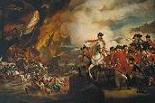








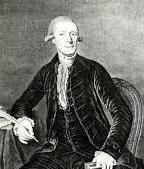






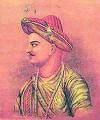





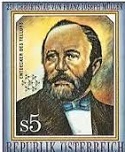

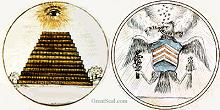
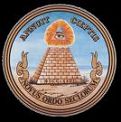
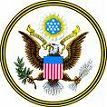
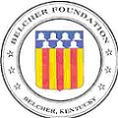

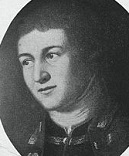
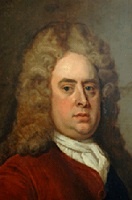



1782 The Great Tenmei Famine in Japan begins (ends 1788), killing 1M of 30M. On Feb. 27 the British House of Commons votes against waging further war on the pesky rebels in Am.; on Mar. 5 it authorizes the crown to make peace, causing Lord North's ministry to crumble; French foreign minister Comte de Vergennes entrusts Pierre Samuel du Pont de Nemours with peace negotiations with the British. On Mar. 8 the Gnadenhutten (Moravian) Massacre in Ohio sees 96 unarmed Christianized Indians slain by militiamen in retaliation for raids carried out by other Indians. On Mar. 17 Italian violinist Giovanni Battista Viotti (1755-1824) debuts in Paris, becoming an instant hit, going on to found the Theatre de Monsieur in 1788 under the patronage of the king's brother the comte d'Artois; too bad, after the French Rev. his royal connections backfire, causing him to flee to London in 1792, where he is also a hit, but after Britain goes to war with France he is expelled, ending up in Paris again; he owns a 1709 violin by Antonio Stradivari called the Viotti Stradivarius, given to him as a love gift by Catherine II the Great. The original chipping golf balls in Rockingham while somebody else does it at Gretna Green? On Mar. 20 British PM (since Jan. 28, 1770) Lord North resigns, and on Mar. 27 Whig Charles Watson-Wentworth, 2nd Marquess of Rockingham (b. 1730) (who helped repeal the Stamp Act) becomes British PM for the 2nd time (until July 1); his first act in office is to acknowledge the existence of the new country in America; on Mar. 27 pro-American Whig orator Charles James Fox (1749-1806) is appointed secy. of state for foreign affairs over the king's opposition; on July 1 Rockingham dies, and on July 4 William Petty-Fitzmaurice, 2nd Earl of Shelburne, 1st Marquesse of Lansdowne (1737-1805) (friend of Benjamin Franklin) becomes home (colonial) secy. (PM) (until Mar. 26, 1783), with both being sent to begin negotiations in Paris with Benjamin Franklin (1706-90), the only one of the five commissioners present for the next few mo.; Franklin suggests that the British cede control of Canada to help pay reparations, then makes a mistake by giving British peace commissioner Richard Oswald (1705-84) some notes that hint at compensating British loyalists in America, and covers it up by printing a fake newspaper about British atrocities making such compensation out of the question and sending it to John Adams; meanwhile Fox and Lord Shelburne disagree on the Am. peace terms and become enemies. On Mar. 26 maj. gen. Guy Carleton, 1st Baron Dorchester (1724-1808) replaces Henry Clinton as CIC of the crumbling British army in the birthing U.S. (until 1783); Gen. Lord Amherst is dismissed, and replaced as lt. gen. of the ordnance, causing the king to appoint him col. of the Second Troop of Life Guards to keep him close. On Mar. 31 Father Junipero Serra founds San Buenaventura (Ventura) Mission in modern-day Ventura, Calif., becoming Spanish Calif. mission #9 (last founded by Serra). On Apr. 6 mad king (since Dec. 28, 1767) Taksin the Great (b. 1734) is executed by a coup after they reject his offer to become a monk; on Apr. 6 after defeating the rebels, gen. Chao Phraya Chakri becomes king Rama I (Phra Phutthayotfa Chukalok) (Thongduang) (1737-1809) of Siam (until Sept. 7, 1809), founding the Chakri (Thai "chakra" = discus") Dynasty in Siam (Thailand) (ends ?) on Apr. 21 at 54 min. after sunrise by placing the City Pillar for the new capital city of Bangkok (originally Rattanakosin) on the Chao Phraya ("River of Kings") River (modern-day pop. 8.3M/14.6M). On Apr. 9-12 the British Navy under Adm. Sir George Rodney wins its only naval engagement against the rebel colonists in the Am. Rev. at the Battle of Saints' Passage (the Saintes) (Dominica) off Dominica, taking advantage of a shift in the wind to break the French line unnder French Adm. Comte de Grasse not once but twice, saving Jamaica and ruining French naval prestige, after which Rodney writes "Within two little years I have taken two Spanish, one French and one Dutch admirals."; the French fleet was the same one that blockaded the British army during the Siege of Yorktown. On Apr. 19 the Netherlands recognizes U.S. independence. In Apr. Russia bans secret societies. On May 17 the Treaty of Salbai between the Maratha Empire and the British East India Co. ends the First Anglo-Maratha War (begun 1773), recognizing Madhav Rao II (1774-95) as the ruler (peshwa), granting Rabhundath Rao a pension, and returning all territories W of the Jumna (Yamuna) River to Shinde, bringing peace for the next 20 years. In May 27-y.-o. Thomas Grenville, son of George "Stamp Act" Grenville arrives in Paris as British envoy for Charles James Fox, and Benjamin Franklin soon discovers that he is authorized only to negotiate with France because the English king still won't recognize American independence, but French minister Vergennes helps Franky Baby out by insisting that England deal directly with America "consistent with the dignity of your state". In May Alexander Hamilton finally becomes a citizen of New York State. On June 11 on the strength of the V at Saratoga, John Adams finally arranges a large loan for the Continental Congress from Holland, allowing the rebels to keep the pressure on the way and hammer the last stake in their hearts; as he returns to France peace talks are already underway, and he sends for lonely Abigail, who brings her children and is wowed by Paris nightlife. On June 20 the U.S. Congress approves the Great Seal of the United States, originally designed by Irish-born Continental Congress secy. (1774-89) (DOI signer) Charles Thomson (1729-1824) and Penn. lawyer William Barton (1754-1817), with the motto "E Pluribus Unum" (out of many, one), with a coat of arms derived from the Belcher Coat of Arms, used by Jonathan Belcher (1682-1757), founder of Princeton U. and friend of Benjamin Franklin; on Sept. 16 the design of the Great Seal is adopted: 13 stars, 13 stripes, 13 clouds, 13 arrows, 13 laurel leaves, 13 berries, 13 feathers in each wing and tail of the American Bald Eagle, 13 rows in pyramid, 13 letters in each motto (E pluribus unum and Annuit coeptis); the colors red, white and blue stand for courage, justice and innocence - and the Wheel of Fortune? Plenty of Freemason and Illuminati symbology to keep any conspiracy theorist happy? In June British foreign secy. Charles James Fox obtains a grant of complete legislative independence for Ireland. In the summer the Continental Army's sets up its last cantonment at New Windsor, N.Y., 60 mi. N of New York City (until next summer); Gen. Washington's HQ is in nearby Newburgh. In summer King Kalani'opu'u (b. 1729) dies, after which Kamehameha I defeats his cousin Keoua Kuahu'ula (Hawaiian "rain cloud of the red cloak") (son of Kalani'opu'u) and the latter's half-brother Keawemauhili (1710-90) (half-brother of Kalani'opu'u) at the Battle of Mokuohai S of Kealakekua Bay with help from Keeaumoku Papa'iahiahi (1736-1804), father of Ka'ahumanu (1768-1832) (Hawaiian "feathered mantle") (Kamehameha I's favorite wife) and Kuakini (1789-1844), taking control of Kona and Kohala (W and N sides) in the Big Island of Hawaii, leaving Keoua with the E side. On July 1 the Marquis of Rockingham (b. 1730) unexpectedly dies after 14 weeks as British PM (since Mar. 27), and the king offers the job to Lord Shelburne, causing rival minister (no favorite of the king) Charles James Fox to resign, and his envoy Thomas Grenville to be recalled from Paris, prompting Benjamin Franklin to make an informal peace offer on July 10, divided into "necessary" provisions (recognition of independence, removal of British troops, secure boundaries, secure fishing rights off Canada), and "advisable" ones (reparations, acknowledgement of British guilt, a free trade agreement, ceding Canada to the U.S.); Franklin then suffers a gout attack lasting until late Sept., keeping him at Passy, causing John Jay to take over as lead negotiator. On July 11 the British evacuate Savannah, Ga. On Aug. 7 Gen. George Washington creates the Order of the Purple Heart (originally the Badge of Military Merit) to recognize merit in enlisted men and noncommissioned officers wounded in combat; in May 1783 the first recipients are Elijah Churchill and William Brown; only one more is awarded to Rev. War soldiers; it is not revived until George Washington's 200th birthday on Feb. 22, 1932. On Aug. 19 the Battle of Blue Licks near modern-day Mount Olivet, Ky. sees 50 British rangers plus 300 Indians ambush and rout 182 Kentucky militiamen, incl. Daniel Boone, becoming their worst D of the Am. Rev. War; Boone's son Israel Boone (b. 1759) is killed. On Aug. 27 the Battle of the Combahee River in Beaufort County, S.C., a skirmish as British troops are foraging for rice becomes the last fighting between Americans and British in the Am. Rev. War; Alexander Hamilton's friend (lover?) John Laurens is killed. In Aug. Ben Franklin's son William flees to London after his ordering of a raid on rebel forces results in the lynching of an Am. captain. On Oct. 5 after John Jay sends secret envoy Benjamin Vaughan to ask for it, Lord Shelburne sends a note to commissioner Richard Oswald changing his commission to negotiate with "the said colonies and plantations" to "the colonies under the title of 13 united states", and formal peace negotiations begin in Paris between the formally recognized U.S. and Britain; fearing that the French are angling for a separate peace with the British, John Jay persuades Franklin to do the same; the new U.S. offer allows Britain free navigation rights on the Mississippi; John Jay arrives in Paris, along with Adm. Howe's secy. Henry Strachey, fresh from the British V at Gibraltar, and negotiations get serious starting on Oct. 30 (Adams' 47th birthday), haggling over fishing rights off Newfoundland ("New England's ancient stake in the sacred codfish" - Adams), prewar debts, the western boundary, and compensation for British loyalists in America. On Nov. 1 after the V at Yorktown, the Continental Congress issues a Thanksgiving Proclamation for Nov. 28. On Nov. 3 Philly-born Elias Boudinot Jr. (1740-1821) becomes pres. #4 of the United States under the Articles of Confederation (until Nov. 2, 1783); Alexander Hamilton takes a seat in the Congress, which suffers from many members staying home in preference to state seats, and meets James Madison (1751-1836), who has the record for most attendance; they become friends and allies in the struggle to strengthen the federal govt. On Nov. 10 an Am. retaliatory attack against loyalist and Indian forces at a Shawnee village in Ohio territory is the last battle of the Am. Rev. War. On Nov. 18 the British evacuate Wilmington, N.C. On Nov. 30 Preliminary Peace Articles are signed at the British suite at the Grand Hotel Muscovite in Paris (the U.S. secy. is Ben Franklin's grandson Temple Franklin), acknowledging the U.S. as "free, sovereign and independent", and ending the Am. War of Independence, but with final agreement depending on a Franco-British settlement, which takes 9 mo.; the Northwest Territory (S and W of the Great Lakes, NW of the Ohio River, and E of the Mississippi River, incl. the future states of Ohio, Ind., Ill., Mich., Wisc. and part of Minn.) is ceded by Britain to the U.S., becoming its first possession; meanwhile Franklin tries to fix things up with the French for acting without consulting them, on Dec. 25 writing "one of the most famous of all diplomatic letters", implying that making the "little misunderstanding" public would help Britain divide them, even drive the U.S. into an alliance with Britain, which causes stunned French minister Vergennes to crumble, commenting "We shall be but poorly paid for all that we have done for the United States and for securing to them a national existence" - no wonder the French have a love-hate relationship with Yankees? In Nov. the Patriots faction in the Dutch Repub., led by Joan Derk, Baron van der Capellen tot den Pol (1741-84) gains power, wishing to create a U.S.-style govt. and remove Prince William V of Orange and end the corrupt Stadtholder regime, recognizing the U.S. govt.; too bad, by summer 1785 more and more repubs. back the prince despite his refusal to carry out reforms, fleeing to France in Sept. 1787, settling around Dunkirk, with leaders Francis Adrian Vanderkemp and Adam Gerard Mappa moving to the U.S. in 1789 at the invitation of George Washington. On Dec. 14 Charleston, S.C. becomes the last British outpost in the U.S. to be evacuated.; 5K blacks are evacuated, incl. 2.5K slaves owned by loyalists, who are sent to the West Indies; 500 black slaves are sent to E Fla. In Dec. the Russians under Adm. Potemkin easily conquer and annex the Crimea, causing many Tatars to flee to Ottoman territory. In Dec. Washington's officers complain to Congress about the lack of back pay and pensions, without satisfaction. In Dec. Hyder Ali (b. 1722) dies in Chittoor, and his learned multilingual Muslim lets-talk-about-the-army soldier-poet son Tipu (Tippu) Sultan (1750-99), "the Tiger of Mysore" succeeds him as sultan of Mysore, attacking Mangalore (400 mi. SSE of Bombay on the Arabian Sea), the British 42nd regiment under Col. John Campbell valiantly defending it (ends Jan. 30, 1784). The Battle of Zubarah is a V for the Bani Utbah tribal confederation over resident Persian gov. Nasr Al-Madhkur; by 1800 the sheikdom of Bahrain (ancient name Dilmun) passes from the Shiite Persians to the Sunni al-Khalifa family from Kuwait under "the Conqueror" Shaykh Ahmad bin Khalifa (-1795), and the minority Sunnis begin ruling the country (until ?); under them the independent Arab Ali Bin Ali tribe become the pirate kings of the Persian Gulf until the early 20th cent. The Spanish capture Minorca from the British. The Spanish under Bernardo de Galvez y Madrid capture New Providence in the Bahamas from the British. Nguyen Anh and his Roman Catholic priest buddy Pigneau de Behaine are defeated by the Tay Son brothers. The Highland Dress Proscription Act is repealed after 136 years (1646), and kilts and tartans are back in - along with Playlamb mag.? After 80K Irish Protestants form volunteer militias under a pretext of defending Ireland from the French, they demand legislative independence for Ireland, and on a motion of Charles Fox the British Grattan's Parliament passes the Constitution of 1782), freeing the Irish Parliament of legal restrictions imposed by the anti-Catholic Poyning's Laws of 1494-5; too bad, the Irish Parliament is still all Protestant, and refuses to extend suffrage to Catholics, and after the 1798 United Irishmen Uprising the Parliament of Ireland is abolished and the kingdom of Ireland is absorbed into Britain. The Patent of Settlement encourages settlement in beautiful Bukovina. The last witch-burning in Europe takes place in Canton Glarus in Switzerland - do you believe in magic, then just close your mind? Pope Pius VI goes to Vienna to unsuccessfully persuade HRE Joseph II to rescind his program of religious tolerance - you'll regret it in the morning? Saratoga loser Gen. John Burgoyne becomes British CIC in Ireland, where he mainly spends his time writing dramas. Christopher Gadsen is elected gov. of S.C., but refuses to accept the office because of ill health from his long imprisonment by the Brits, although he continues to be active politically, becoming a member of the S.C. conventions which ratify the U.S. Constitution and draft the S.C. state constitution. 24-y.-o. James Monroe is elected to the Va. legislature and becomes a member of the executive council. Oh-baby-I'm-ready-for-love Aaron Burr marries Mrs. Theodosia Prevost (-1794), widow of a British officer; they have one daughter, Theodosia. English Arctic explorer Samuel Hearne is captured by French explorer La Perouse, and returns to England in 1787. The Royal Irish Academy is founded in Dublin to examine "the ancient state of arts and literature". Washington College in Chestertown, Md. is founded, named in honor of George Washington, becoming the first college chartered after U.S. independence, becoming known for celebrating May Day in the nude by the flagpole. Louis XVIII's triple-chinned ex-chef (of the Prince of Conde and the Count of Provence) Antoine B. Beauvilliers (1754-1817) opens the Taverne Anglaise Restaurant in the Palais Royale in Paris, becoming the first luxury restaurant in Paris, catering to aristocratic clientele with mahogany tables and fine linen tablecloths, crystal chandeliers, elegantly-dressed waiters, fine cuisine, and an extensive wine cellar; in 1788 he moves to the Gallery de Valois near the Cafe de Chartres, calling it Restaurant Beauvillers Le Magnifique; after being forced to close in 1795, he opens another restaurant in Paris that closes in 1825. Welsh-born actress Sarah Kemble Siddons (1755-1831) returns to Drury Lane, and finally becomes a star in David Garrick's version of Thomas Southerne's "The Fatal Marriage", going on to do a great Lady Macbeth. The first English language Bibles are printed in North Am. - copyright pirates? Inventions: Oliver Evans (1755-1819) constructs the Hopper-Boy, the first automated flour mill in Wilmington, Del. James Watt develops the double-acting rotary steam engine, coining the term "horsepower", finding that a mine pony can lift 22K ft.-lb./min., increasing it by 50% for horses (33K). Josiah Wedgwood (1730-95) of England invents a pyrometer for pottery furnaces. Science: The sulfur-like element Tellurium (#52) (Te) (Lat. "tellus" = earth) is discovered combined with gold in Transylvania by Austrian mineralogist Franz=Joseph Muller (Müller) von Reichenstein (1740-1826). Nonfiction: Jacques Pierre Brissot (1754-93), Bibliotheque Philosophique du Legislateur. J. Hector St. Jean De Crevecoeur, Letters from an American Farmer; "What then is the American, this new man?" August Friedrich Wilhelm Crome (1753-1833), Producten-Karte von Europa; contains the first known example of a cartogram, a geographic distribution of 56 European commodities. Rev. William Gilpin (1724-1804), Observations on the River Wye and Several Parts of Wales, etc. Relative Chiefly to Picturesque Beauty; Made in the Summer of the Year 1770; originates the idea of the picturesque, which becomes part of the Romantic sensibility. Thomas Jefferson (1743-1826), Commerce Between Master and Slave. Johann Kaspar Lavater (1741-1801), Pontius Pilate. Comte de Mirabeau (1749-91), Essai sur les Lettres de Cachet et les Prisons d'Etat; written in Vincennes Castle, where his daddy confined him from 1777-80 for debts and naughtiness. Pierre Samuel du Pont de Nemours (1739-1817), Memoires sur la Vie et les Ouvrages de Turgot. Joseph Priestley (1733-1804), A History of the Corruptions of Christianity. Jean-Jacques Rousseau (1712-78), Confessions (autobio.) (12 vols.); covers his life up to 1765; completed in 1769-70; vols. 7-12 pub. in 1789; known for the quote: "I recalled the makeshift of a great princess who was told that the peasants had no bread and who replied: 'Let them eat brioche'", although Marie Antoinette probably never said it. Louis Claude de Saint-Martin, Natural Table of the Correspondences between God, Man and the Universe. Dugald Stewart, Elements of the Philosophy of the Human Mind. Girolamo Tiraboschi (1731-94), History of Italian Literature (Storia della Letteratura Italiana) (13 vols.) (Modena); first history of Italian lit.; written in 1771-82 using the library of Duke Francis III of Modena; 2nd ed. (16 vols.) pub. in 1787-94. Music: Wolfgang Amadeus Mozart (1756-91), Abduction from the Seraglio (Die Entfuhrung aus den Serail) (opera) (Vienna) (July 16); a young man in love with two Spanish women; requested by HRE Joseph II; no longer a bum, on Aug. 4 he marries foxy German soprano and musician Konstanze (Constanze) Weber (1762-1842), one of the four Weber sisters (daughters of composer Carl Maria von Weber's brother Fridolin) after giving up on her older sister Aloysia Weber (1760-1839), one of the leading singers of the day, who appears later as Donna Anna in the first Viennese production of "Don Giovanni". Art: Francesco Guardi (1712-93), Fetes for the Grand Duke Paul of Russia (Venice). Gilbert Stuart (1755-1828), The Skater; atty. William Grant skating on ice, showing him in motion; Stuart has to let cruddy skater Grant grab his coattails to guide him off the ice; a big hit, he becomes a star, commanding top prices for portraits and coming in #3 after Joshua Reynolds and Thomas Gainsborough; too bad, he mismanages his finances and flees his creditors to Dublin in 1787 before returning to the U.S. in 1793, settling in Germantown (near Philly), Penn., where his portraits of George Washington supply him with a good income. Plays: George Colman the Younger (1762-1836)), The Female Dramatist (first play) (Little Theatre, Haymarket, London); based on Tobias Smollett's "Roderick Random"; a flop. Hannah More (1745-1833), Sacred Dramas: Chiefly Intended for Young Persons, the Subjects Taken from the Bible. Johann Christoph Friedrich von Schiller (1759-1805), The Robbers (Die Rauber) (Die Räuber) (Mannheim) (Jan. 13) (first play); a Gothic drama that makes him an instant star. Poetry: William Cowper (1731-1800), Poems. Novels: Aagje Deken (1741-1804) and Betje Wolff (1738-1804), Historie van Mejuffrouw Sara Burgerhart; two lit. friends move in together in 1781 in Beverwijk and begin cranking them out, moving to Treoux, Burgundy from 1788-97. Fanny Burney (1752-1840), Cecilia, or Memoirs of an Heiress. Tomas de Iriarte y Oropesa (1750-91), Fabulas Literarias. Pierre Choderlos de Laclos (1741-1803), Dangerous Liaisons (Les Liaisons Dangereuses) (Mar. 23) (4 vols.); an epistolary novel about Marquis de Merteuil and Vicomte de Valmont, who love perverted cruel sex and seduction games and use sex as a weapon in their rivalry, becoming a giant hit and a favorite of Marie Antoinette; too bad, after the French Rev. starts, it becomes a condemnation of the Ancien Regime; "Vengeance is a dish best served cold" (La vengeance est un plat qui se mange froid). Helen Maria Williams (1761-1827), Edwin and Eltruda: A Legendary Tale (first novel). Births: Am. Whig statesman-lawyer-orator and U.S. secy. of state #14, 19 (1841-3, 1850-2) ("Black Dan") ("the Cicero of America") Daniel Webster (d. 1852) on Jan. 18 in Salisbury, N.H.; educated at Phillips Exeter Academy, and Dartmouth College. Am. celeb Philip Schuyler Hamilton (d. 1801) on Jan. 22 in Albany County, N.J.; eldest son of Alexander Hamilton (1755-1804) and Elizabeth Schuyler Hamilton; educated at Columbia U. French "La Muette de Portici", "Fra Diavolo" opera composer Daniel Francois Esprit Auber (d. 1871) on Jan. 29 in Caen, Normandy. Am. Baptist preacher (ex-Freemason) William Miller (d. 1849) on Feb. 15 in Pittsfield, Mass. Am. pro-Manifest Destiny politician Thomas Hart "Old Bullion" Benton (d. 1858) on Mar. 14 in Hart's Mill (near Hillsboro), N.C.; opposed to paper currency and nullification; father of Jessie Benton Fremont (1824-1902); granduncle of artist Thomas Hart Benton (1889-1975); first 5-term U.S. Sen. (D-Mo.) (1821-50). Am. Dem.-Repub. pro-slavery politician and U.S. vice-pres. #7 (1825-33) John Caldwell Calhoun (d. 1850) on Mar. 18 near Calhoun Mills (Abbeville), S.C.; educated at Yale U.; husband (1811-) of Floride Bonneau Calhoun (1782-1866). Corsican queen of Naples-Sicily Maria Annunziata Carolina (Marie Annonciade Caroline) Bonaparte Murat (d. 1839) on Mar. 25 in Ajaccio; sister of Napoleon Bonaparte (1769-1821). Am. Detroit, Mich. mayor #1 (1924-5, 1830, 1844-7) (co-founder of the Detroit Free Press) John R. Williams (d 1854) on May 4 in Detroit, Mich.; nephew of Joseph Campau (1769-1863). English "Greta Bridge" landscape painter John Sell Cotman (d. 1842) on May 16 in Norwich; friend of Joseph Turner. Russian field marshal Prince Mikhail Semyonovich Vorontsov (d. 1856) on May 30. Russian gen. Pyotr Stepanovich Kotlyarevsky (d. 1852) on June 21 in Olkhovatka (near Kharkiv). French geologist Pierre Berthier (d. 1861) on July 3. Mexican pres. #2 (1829) gen. Vicento Ramon Guerrero Saldana (Saldaña) (d. 1831) on Aug. 10 in Tixtla. British gen. (CIC in India) Gen. Sir Charles James Napier (d. 1853) on Aug. 10 in Whitehall, London; eldest son of Col. George Napier (1751-1804); brother of Sir George Napier (1784-1855), Sir William Napier (1785-1860), and Capt. Henry Napier (1789-1855); knighted in 1843. Scottish "Marriage", "The Inheritance", "Destiny" novelist Susan Edmonstoune Ferrier (d. 1854) on Sept. 7 in Edinburgh; friend of Sir Walter Scott (1771-1832), who works with her daddy James Ferrier in the Court of Session. Chinese Manchu Qing emperor #6 (1820-50) Dao Guang (real name Mianning) (d. 1850) on Sept. 16 in Beijing; 2nd son of Yong Yan. German ethnologist-naturalist-explorer Prince Alexander Philipp Maximilian zu Wied-Neuwied (d. 1867) on Sept. 23 in Neuwied. Irish "Melmoth the Wanderer" novelist-playwright Charles Robert Maturin (AKA Dennis Jasper Murphy) (d. 1824) on Sept. 25 in Dublin; educated at Trinity College, Dublin. Am. gov. #2 of Mich. Territory (1813-31), U.S. secy. of war #14 (1831-6), U.S. Sen. (D-Mich.) (1849-57), and U.S. secy. of state #22 (1857-60) (Freemason) Lewis Cass (d. 1866) on Oct. 9 in Exeter, N.H.; educated at Phillips Exeter Academy; gov. of Mich. (1813-31); helps open up the Middle West to whites. Danish poet-novelist Steen Steensen Blicher (d. 1848) on Oct. 11 in Vium (near Viborg), Jutland. Am. Indian fighter, gov. #1 of Wisc. Territory (1836-41) and U.S. Sen. (1848-1854) Henry Dodge (d. 1867) on Oct. 12 near Vincennes, Ind. English PM (1827-8) Frederick John Robinson, 1st Earl of Ripon, Viscount Goderich (d. 1859) on Nov. 1 in Newby Hall, Yorkshire; educated at Harrow Schol, and St. John's College, Cambridge U. Am. gov. #14 of N.C. (1817-20), U.S. Sen. (D-N.C.) (1823-9), and U.S. navy secy. #8 (1829-31) John Branch Jr. (d. 1863) on Nov. 4 in Halifax County, N.C.; educated at the U. of N.C.; uncle of Lawrence O'Bryan Branch (1820-62). U.S. Dem. pres. #8 (1837-41) and vice-pres. #8 (1833-7) Martin Van Buren (d. 1862) on Dec. 5 in Kinderhook, N.Y.; son of Dutch farmer Abraham Van Buren and Mary Hoes; husband (1807-19) of Hannah Hoes. Irish pianist-composer John Field (d. 1837) in Dublin; pupil of Muzio Clementi in London; inventor of the nocturne (musical composition evocative of the night), which influences Chopin. Italian #1 violinist and composer Nicolo (Nicolò) Paganini (d. 1840) in Genoa; makes his debut at age 9 playing his own set of variations on a French air; makes his first tour of Italy at age 13. English Liberal Whig statesman John Charles Spencer, 3rd Earl Spencer, Viscount Althorp (d. 1845); son of John Spencer, 2nd earl Spencer (1758-1834); educated at Trinity College, Cambridge U. Am. chemist (inventor of chloroform) Samuel Guthrie (d. 1848) in Brimfield, Mass. Scottish painter Sir William Allen (d. 1850) in Edinburgh. German pedophile, er, pedagogue and educational reformer Friedrich Froebel (Fröbel) (d. 1852) in Oberweissbach, Thuringia; uncle of Julius Froebel (1805-93); inventor of the kindergarten (1816). French political writer Abbe Hugues Felicite Robert de Lamennais (d. 1854). Russian-French writer Anne Sophie Swetchine (d. 1857) in Moscow. English consul-gen. to Madeira Henry Veitch (d. 1857); husband of Margaret Harrison, sister of treasury secy. Sir George Harrison; father of Henry Gordon Veitch (1814-63), father of Violet Agnes Veitch (1863-1954), mother of Noel Coward (1899-1973). Deaths: Scottish noble Thomas Fairfax, 6th lord Fairfax of Cameron (b. 1693) on Dec. 9 in Greenway Court, Va. Scottish philosopher Henry Home, lord Kames (b. 1696) on Dec. 27 in Edinburgh. French geographer Jean d'Anville (b. 1697) in Jan. French architect Ange-Jacques Gabriel (b. 1698) on Jan. 4. Italian poet-librettist Metastasio (b. 1698) on Apr. 12 in Vienna. Italian architect Ferdinando Fuga (b. 1699) on Feb. 7 in Naples. Portuguese statesman Marquis de Pombal (b. 1699) on Aug. 8. Swiss mathematician Daniel Bernoulli (b. 1700) on Mar. 17. Italian castrato singer Carlo Broschi (Farinelli) (b. 1705); retired at the Spanish court of Philip V. German chemist Andreas Sigismund Marggraf (b. 1709) on Aug. 7 in Berlin. French inventor Jacques de Vaucanson (b. 1709) on Nov. 21 in Paris. German Goethe's father Johann Caspar Goethe (b. 1710) on May 25 in Frankfurt am Main. Welsh painter Richard Wilson (b. 1714) on May 15 in Colomendy, Denbighshire. German banker Simon Moritz Bethmann (b. 1721) in Frankfurt am Main. British gen. Robert Monckton (b. 1726) on May 21 in London. English PM (1765-6, 1782) Charles Watson-Wentworth, 2nd marquess of Rockingham (b. 1730) on July 1 in Wimbledon, London - hitting tennis balls with O.J.? Am. Rev. War gen. Charles Lee (b. 1731) on Oct. 28 in Philadelphia, Penn. (TB). Swedish botanist Daniel Solander (b. 1733) on May 16 in Soho Square, London (stroke); dies at the home of Sir Joseph Banks. Thai king (1768-82) Taksin the Great (b. 1734) on Apr. 7 (executed). German composer (piano sonata specialist) Johann Christian Bach (b. 1735) on Jan. 1. U.S. First Lady-not Martha Wayles Skelton Jefferson (b. 1748) on Sept. 6; wife of Thomas Jefferson. British prince Alfred (b. 1780) on Aug. 20 in Windsor Castle; dies of a smallpox inoculation.











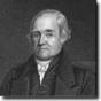







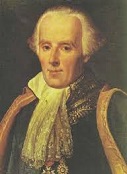



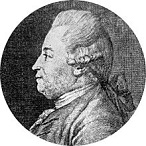




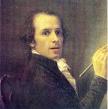

1783 The pop. of New York City doubles over the next two years to 24K. The creation of the U.S. leaves Britain without a place to dump its convicts, causing them to end up sending them Down Under. You can find me on Monster.com? On Jan. 6 the officer corps presents Congress with a petition airing their many grievances, incl. being owed up to six years of back pay, and being in danger of being put in debtors' prisons at war's end; on Mar. 10 as the Continental Army bivouacks in Newburgh, N.Y., two anon. letters by Maj. John Armstrong Jr. (aide to Gen. Horatio Gates) call on them to mutiny; after learning of them, Gen. George Washington calls for a meeting of 500 officers on Mar. 15, where he urges them to wait until Congress satisfies their claims, urging "more moderation and longer forbearance"; after they begin to tune him out, he pulls out a pair of glasses and utters the soundbyte: "You must pardon me, for I have grown not only gray but blind in the service of my country", causing a three-hanky moment, ending the mutiny, allowing Washington to lobby Congress on their behalf; after Penn. militiamen march on Philly and force Congress to flee to Princeton, N.J., they are finally promised a pension equal to five years' back pay. On Jan. 20 Britain signs a preliminary peace treaty with France and Spain after the latter give up on Gibraltar - but not really? In Jan. Comte de Rochambeau and his troops return to France, and the U..S. Congress votes the thanks of the nation to them; on May 24, 1902 a Statue of Comte Rochembeau is unveiled in Washington, D.C. by Pres. Theodore Roosevelt. On Feb. 3 Spain recognizes U.S. independence. On Feb. 4 Britain officially declares an end to hostilities in former British Am. On Feb. 4 a series of earthquakes begins in Calabria, Italy killing 50K, becoming the first earthquake to be investigated scientifically. On Feb. 5 Sweden recognizes the U.S. On Feb. 6 the Spanish-French siege of Gibraltar (begun 1779) is lifted after 3 years 7 mo. 12 days. On Apr. 2 after Lord North and Charles James Fox make up and help defeat British PM (since July 4, 1782) Lord Shelburne Mar. 26, aristocratic Whig (lord lt. of Ireland in 1782) William Cavendish Bentinck, 3rd Duke of Portland (1738-1809) becomes PM (until Dec. 18) of a coalition govt., with Fox as secy. of state, and Fox and North calling the real shots; too bad, after Fox introduces the India Bill, proposing that the govt. of India be vested in an India Board appointed by Parliament, the pissed-off king personally intervenes, causing Portland's ministry to come unglued (uncemented?), and on Dec. 19 American-woman-get-away-from-me "independent Tory" (not a Whig) William Pitt the Younger (1759-1806) becomes English PM (until Mar. 14, 1801), the youngest in history pip pip bloody bloody and all that rot; for one reason or another Fox is kept out of the ministry until 1806, becoming content with being the you-really-got-me hot lips orator of Parliament; meanwhile conservative Whig William Wentworth-FitzWilliam, 2nd and 4th Earl FitzWilliam (1748-1833) (a descendant of William I the Conqueror, who inherited his uncle the Marquess of Rockingham's vast Yorkshire estates in 1782, making him a player, and who was slated to become head of the India Board but now is out of that job) becomes head of the opposition. On Apr. 11 the Continental Congress officially declares an end to the little ole warry war war war with the hated Brits, but now their own constitutional weakness leads to a near breakdown; Alexander Hamilton is chmn. of the committee in charge of peace arrangements; they enact a new system of import duties in an attempt to pay the soldiers, who are clamoring for their pay, but they prove to be too little too late; in mid-June rebellious troops in Philly send Congress a petition demanding their pay, followed by 80 armed soldiers marching from Lancaster to get it by force, entering Philly on June 20, seizing several arsenals; on June 24 400 drunken soldiers circle the State House, where Congress was in a special Saturday afternoon session, causing them to exit and flee to Princeton after Pennsylvania refues to send out the state militia; a month later they move to Annapolis; a year later to Trenton and Princeton (sitting in Nassau Hall), then to New York City in 1785; the whole affair gives rise to the resolve to house the national capital in a special federal district not at the mercy of state govts. On Apr. 17 the Battle of Ark. Post (Colbert Raid) (Colbert Incident) sees British partisans under James Colbert siege the fort for six hours before being repelled by Spanish defenders; too bad, they didn't get the news of the Jan. 20 peace treaty between Britain and Spain, becoming the only Am. Rev. War battle fought in Ark. On Apr. 19 Thomas Paine pub. the last issue of The Crisis, with the soundbyte "These are the times that tried men's souls, and they are over". On Apr. 23 U.S. supt. of finance Robert Morris (1734-1806) writes a Letter to Congress proposing the idea of his asst. Gouverneur Morris of decimalizing U.S. coinage, and Thomas Jefferson takes up the idea based on the Spanish dollar. On Apr. 26 7K loyalist businessmen set sail for Nova Scotia, Canada from New York City, bringing the total to 100K; New York's economy suffers as the businessmen take their capital with them. On Apr. 28 despite being an old fart, Guatemalan gov. Matias de Galvez y Gallardo gets his dream job, becoming the last viceroy of New Spain to make a formal entry into Mexico City on horseback, then goes on to drain the lake surrounding the city, build bridges and a sewer system, divide the city into four quarters, and found the San Carlos Academy of Fine Arts, becoming the first major art academy and art museum in the Americas; he also orders the reconstruction of the Palace of Chapultepec, founds the Banco Nacional de San Carlos plus a pawn shop, and arranges to trade Chinese mercury for his silver mines in exchange for furs; on Nov. 13 he gives permission to Manual Antonio Valdes Murguia y Saldana to begin pub. the Mexican nat. newspaper "Gaceta de Mexico", which was originally founded in 1722 then suspended in 1742, but limits him to official govt.-approved news; he takes a census which finds that there are 637 coaches in Mexico City. On May 31 the French Academie Royale of Painting and Sculpture accepts Elisabeth Vigee-Lebrun (1755-1842) (Marie Antoinette's court painter) and Adelaide Labille-Guiard (1749-1803) as members in order to let their works be compared, leaving men out of it? In May the Black Sea port city of Sevastopol (modern-day pop. 418K) is founded, becoming the main base of the Russian Black Sea fleet. In May Gen. Henry Knox, Alexander Hamilton et al. hold the first meeting of the Society of the Cincinnati in Fishkill (modern-day Beacon), N.Y. for Continental officers who served with honor for at least three years, named after Roman Gen. Lucius Quinctius Cincinnatus (-519 to -430), dictator of Rome in -458 and -439, who resisted the urge to becoming a dictator for life or king and went back to his humble farm (what a man, guess who Washington is the reincarnation of, it's not just beautiful, it's just another ordinary miracle today?); too bad, it pisses-off Samuel Adams, who calls it "a stride towards a hereditary military nobility"; after they do it anyway when the war ends, it becomes the oldest military hereditary society in the U.S. to survive to modern times. Do you know the way to Hot Air Bay? On June 4 the French papermaker Montgolfier Brothers incl. Joseph-Michel Montgolfier (1740-1810) and Jacques-Etienne (Étienne) Montgolfier (1745-99) of Annonay (near Lyons), France test their first small unmanned smoke-filled paper-lined linen hot air balloon, which rises to a height of 3K ft. at Annonay, France in a 10-min. 1-mi. flight; on Aug. 27 Parisian physicist Jacques Alexandre Cesar (César) Charles (1746-1823) launches a 13-ft.-dia. silk balloon (constructed under his supervision by A.J. and M.N. Robert) filled with hydrogen in Paris in front of 50K spectators; it floats at 3K ft. for more than 45 min. and lands in a village 16 mi. away, where the spooked villagers attack it with stones and knives; on Sept. 19 the Montgolfier Brothers conduct another demo in Versailles, witnessed by Louis XVI and Marie Antoinette, where a duck, rooster, and sheep become the first living passengers, traveling 2 mi. in 8 min., with max. alt. of 1.5K ft, pissing-off the king with the dense smoke they deliberately generate in the belief that it's what causes the buoyancy, later learning that it's heat; on Oct. 15 French daredevil physician Jean Francois Pilatre de Rozier (1754-85) makes the first tethered balloon ascension, repeating the demo on Oct. 17 before a group of scientists, then reaching 324 ft. on Oct. 19; on Nov. 21 (2 p.m.) champagne-toting de Rozier and army officer Marquis Francois Laurent le Vieux d'Arlandes (1742-1809) make the first untethered human flight, reaching a peak alt. of 500 ft. and traveling 5.5 mi. in 25 min. from the Bois de Boulogne in Paris in the presence of Louis XVI and a huge crowd, across the Seine River to the Butte-aux-Cailles; the next day Benjamin Franklin et al. sign the official certification at Passy; on Nov. 31 Jacques Charles (financed by Franklin) flies in his hydrogen balloon, while gouty Franklin watches from his carriage near the Tuileries Gardens; balloon exhibition flights soon become the rage in Paris; when asked what was the practical use of these balloon thingies, Franklin replies "What is the use of a newborn baby?"; the power of a mere individual to go over the king's head and attract large crowds is a giant leap for popular democracy, making the French Rev. inevitable, and, combined with the success of the U.S., it coulda gone better if only they hadn't dabbled with the powder keg of godless atheism? In June Laki Volcano in SE Iceland begins erupting for the next 8 mo. (until Feb.), killing 50%+ of the cattle and most of the crops, leading to a famine that kills 25% of the human pop., becoming the worst in Icelandic history (until ?); after 120M tons of sulfur dioxide is spewed into the atmosphere of the Northern Hemisphere, global temps drop, causing crop failures in Alaska and droughts in North Africa and India. On July 8 the Supreme Court of Mass. finalizes the 1781 abolition of slavery in Mass. On Aug. 4 after small eruptions on May 9 and a larger eruption on July 26, Mt. Asama 85 mi. N of Tokyo, Japan erupts bigtime, destroying four villages plus an 18 sq. km primeval forest and killing thousands, worsening the Great Tenmei Famine; in 1820 Dutch ambassdor Isaac Titsingh (1745-1812) pub. an account of the eruption. On Aug. 17 a UFO is sighted over the North Sea between Ostend and Edinburgh. On Sept. 3 the Treaty of Paris (drafted Nov. 30, 1782) is signed by the U.S. and Great Britain, along with the Treaties of Versailles by France and Spain, formalizing U.S. independence and defining its borders, with Britain recognizing U.S. independence and agreeing to a W boundary at the Mississippi River, while the N and S boundaries are left for future definition; Spain regains East and West Florida and Minorca in exchange for the Bahamas; Illinois is formally ceded by Britain, and the U.S. is granted the liberty of fishing off Newfoundland the St. Lawrence Gulf, along with the right to dry their catches on the unsettled Atlantic coast of Canada, causing a shipbuilding boom in New England; there is also some mumbo jumbo about restoration of confiscated Tory property and removal of legal impediments to British merchants seeking to collect debts; following this treaty, the British withdraw from the U.S., taking thousands of freed slaves with them and settling them in Nova Scotia (until 1791); British adm. George Rodney (d. 1792), who destroyed or captured 15 of the 21 U.S. ships in the war, and accepted the surrender of four adms. during his super career, and who was made vice-adm. of Great Britain (the top job) in 1781, goes into retirement; La. gov. Bernardo de Galvez y Madrid, who helped draft the Treaty of Paris to make sure the Spanish got Fla. returns to Spain as a hero, and the towns of Galveston, Tex. and St. Bernard Paris, La. are later named after him; Green Bay, Wisc. (founded 1634) becomes the first U.S. town in Wisc.; in Sept. on their way home Algerian pirates harass Am. ships, causing Americans to claim that Britain paid them to attack them; Joseph Calve is sent from Mackinac to notify the Indians of the Upper Mississippi River of the cessation of hostilities; the 120-sq.-mi. island of Grenada in the E Caribbean is ceded by the French, becoming a British possession, along with the 133-sq.-mi. island of St. Vincent between Grenada and Saint Lucia, where the Black Caribs (Garifuna) fight the British under paramount chief Joseph Chatoyer (Satuye) (-1795). On Sept. 9 Dickinson College in Carlisle, Penn. becomes the first college chartered in the U.S., founded by DOI signer Benjamin Rush and named in honor of DOI signer-not John Dickinson. On Oct. 7 the Va. House of Burgesses grants freedom to slaves who served in the Continental Army. On Nov. 3 Washington-lookalike Quaker maj. gen. Thomas Mifflin (1744-1800) (who miffled fellow Quakers by fighting in the Am. Rev. War) becomes pres. #5 of the United States under the Articles of Confederation (until Oct. 31, 1784); Thomas Jefferson is sent to Congress from Va. On Nov. 6 the last public hanging in Britain takes place at Tyburn Hill. On Nov. 8 Mass. gov. John Hancock proclaims a day of Thanksgiving for Dec. 11. On Nov. 25 (Evacuation Day) the last British troops leave New York City, greasing the flagpole so that the U.S. flag can't be raised without pitching another pole; Gov. George Clinton and George Washington ride side-by-side into the city, guarded by Westchester light cavalry, amid cheering crowds; during his week stay in New York City, Gen. Washington salvages the reps of suspected Tories who really are patriot spies, incl. Hercules Mulligan and James Rivington, who helped steal the British fleet's signal book and transmit it to Admiral de Grasse; former Pensacola gov. gen. John Campbell of Strachur succeeds Sir Guy Carleton as CIC of British North Am. based in Canada until 1787, after which he returns to Scotland and pouts about his big D in West Fla., uttering the soundbyte "It has been my Misfortune... to be employed in an ill fated Corner of his Majesty's Dominions... My Endeavours have unremittingly been exerted for West Florida's preservation to the British Empire since I took upon me the military command, and if my Labours and Exertions to that End shall but find favour with my sovereign, I shall forget the Frowns of Fortune and be happy in the Royal Approbation." On Nov. 26 the brig Philadelphia Packet runs ashore on Sinepuxent Bar, and about 70 passengers hire a schooner to go ashore, but it overturns, killing them all. On Dec. 2 Gen. George Washington writes a letter to a group of recent Irish immigrants, with the soundbyte: "The bosom of America is open to receive not only the Opulent and respectable Stranger, but the oppressed and persecuted of all Nations And Religions; whom we shall wellcome to a participation of all our rights and previleges, if by decency and propriety of conduct they appear to merit the enjoyment." On Dec. 4 the British evacuate Staten Island and Long Island; the same day Gen. Washington delivers his tearful farewell address to his army at Fraunces Tavern at the corner of Broad and Pearl Sts. run by his West Indian steward Samuel "Black Sam" Fraunces, resisting all calls to become a king; Alexander Hamilton, who a few days earlier had rented a house at 57 Wall Street close by, pointedly fails to attend; the troops are discharged the next day; Washington strolls down Whitehall St., trailed by speechless admirers, and boards a barge for New Jersey; the last vestiges of British rule are gone, capping eight years of fighting, with 25K Am. military deaths (1% of the entire pop.); New York City (pop. 12K) is in ruins, its trees having been used as firewood by British troops. On Dec. 23 George Washington resigns as CIC of the Continental Army and retires to his home in Mount Vernon, Va. On Dec. 26 French physicist Louis Sebastien Lenormand (1757-1837) gives the first public demonstration of a parachute (a term he coined from Fr. "parasol + chute" = sunshield + fall) as a way to save people jumping from burning bldgs., jumping from the tower of the Montpellier Observatory after first testing it on animals; in 1797 he jumps 3K ft. from a balloon. On Dec. 23 Gen. George Washington appears before Congress in Annapolis and resigns his commission, refusing offers of a crown, saying that he didn't fight the war to create an American throne; a superior act in the entire history of humanity, even topping Roman gen. Cincinnatus? On Dec. 24 Washington arrives back home at Mount Vernon, Va. in time for Xmas. Erekle II of Kakheti and Kartli in E Georgia places his precarious kingdom under Russian protection. Nguyen Anh and his Roman Catholic priest buddy Pigneau de Behaine are defeated again by the Tay Son brothers, and return to Phu Quoc, then are chased to Siam, causing Behaine to leave in Dec. with Anh's son Canh to appeal to the French govt., arriving in Pondicherry in Feb. 1785. Luis de Unzaga becomes gov. of Cuba (until ?), ordering a halt to the unrestrained cutting of cedars. A U.S. Congressional apportionment of taxes counts a slave as three-fifths of a white person, which great idea is later used in the sugar-free U.S. Constitution. Livonia on the Gulf of Riga becomes a province of Russia (until 1918). Nguyen leader Nguyen Anh and his army are driven out of Vietnam by the Tay Son army. Hamburg, devastated by the Thirty Years' War establishes trade ties with the U.S., reviving its fortunes until the Napoleonic Wars (1806). New Brunswick on the St. John River in Canada is settled by 14K refugee loyalists (out of 35K in Novia Scotia) from the U.S., led by Harvard-educated Edward Winslow (1746-1815); the British approve it as a new colony next June. The Bank of Ireland is founded, issuing the first Irish-only notes. Civil marriage and divorce are legalized in the Austrian dominions, and HRE Joseph II enforces the use of the German language in Bohemia. Tory leader Capt. John Butler settles in Canada, and becomes an agent for Indian affairs. Charles Simeon (1759-1836) begins an evangelical movement in Cambridge, England, going on to pub. hundreds of "sermon skeletons" - so what if the Stones are 60, they're still 20 here? The first German brass band is founded in Philadelphia; 3K-5K Hessians remain in the U.S. after the war ends; the Hessian fly (Mayetiola destructor), which ravages wheat, rye, and barley crops appears in Long Island, N.Y. about this time, causing rumors that it was imported in Hessian military bedding straw. The Spanish crown sponsors a botanical expedition to South Am.; too bad, it doesn't accomplish much, and it takes until the early 1800s for Prussian scientist Alexander von Humboldt to make it happen. The first African-Am. benevolent society is founded in New Orleans. Aaron Burr enters New York politics, working up to state atty. gen. in 1789, then U.S. Sen. from 1791-7. James Monroe is elected to the U.S. Congress from Va. (until 1786), working for Western development. Josiah Flagg (1763-1816) of Boston, Mass., a silversmith trained by Paul Revere becomes the first native-born Am. dentist, going on to invent the dental chair in 1790 by adding an armrest and handrest to a Windsor chair. The Kirov Ballet begins performing on the stage of the St. Petersburg Bolshoi Theater. George III of England creates the Most Illustrious Order of St. Patrick for Irish knights; the last knight is created in 1936, and the last surviving one is Prince Henry, Duke of Gloucester (1900-74). Evan Williams of Louisville, Ky. begins distilling Bourbon Whiskey, becoming the first in Ky.?; in the mid-1900s the brand is resurrected; it is first distilled and aged in the U.S. on the banks of the Ohio River in Louisville, Scott County, Ky. by Baptist Rev. Elijah Craig?; in 1785 Bourbon County (named after the French royal family) becomes part of Va. until 1792, when it becomes part of the new Commonwealthy of Ky., becoming known as Old Bourbon and becoming famous for corn-based Bourbon whiskey, which is shipped from Limestone, Ky. (modern-day Maysville, Mason County, Ky.) down the Ohio River, where it is sold in the port of New Orleans on Bourbon St. Waterford, Ireland begins manufacturing crystal, which becomes world famous. Inventions: Henry Bell invents a copper cylinder for calico printing. English pianoforte maker John Broadwood (1732-1812) patents piano pedals. Claude Francois Dorothee, Marquis de Jouffroy d'Abbans (1751-1832) sails a paddle wheel steamboat on the Saone River, making him its inventor? George Matthews of England makes the first malleable cast steel chains for ships; they are not used again until WWI. Taking advantage of the lengthening of human hair with humidity, Swiss geologist Horace-Benedict de Saussure (1740-99) invents the Hair Hygrometer, which is so reliable it is not replaced by an electrical version until the 1960s. German-born Geneva jeweler Johann Jacob Schweppe (1740-1821) uses a pump to carbonate mineral water, moving to London in 1792 to manufacture Schweppes Tonic Water, going on to introduce a ginger ale in 1870 and a bitter lemon in 1957. Science: French physicist Jacques Alexandre Cesar (César) Charles (1746-1823) makes and tests the first hydrogen-filled balloon, which is witnessed by Ben Franklin. Dutch-born deaf English amateur astronomer John Goodricke (1764-86) suggests that the variable star Algol (Beta Persei) (the Demon Star) is an eclipsing binary. About this time English natural philosopher (known for his black complexion) Rev. John Michell (1724-93) proposes the Cavendish Experiment to measure the gravitational constant, and first pub. the Schwarzschild Radius for a star, where gravity causes it become a "dark star" from which light cannot escape, later called a black hole; the experiment is performed in 1797-8 by British scientist Henry Cavendish. Danish naturalist Otto Friedrich Mueller (Müller) (1730-84) becomes the first to describe Diatoms. Nonfiction: William Thomas Beckford (1760-1844), Dreams, Waking Thoughts and Incidents; written in exile in Italy after his seduction of William Courtenay, 9th earl of Devon makes him a pariah in England; suppresses it prior to its public release. Phillippe Buache, History of the Saints (Paris). Benjamin Bell (1749-1806), A System of Surgery (6 vols.) (1783-8); bestseller in Europe and the U.S., going through 7 eds. by 1801; gives the advice "save skin" in mastectomy and limb amputation operations, recommending the routine use of opium to relieve post-operative pain, causing him to become known as the first Scottish scientific surgeon. Felice Fontana (1730-1805), Principi Generali della Solidita e della Fluidita de Corpi; his theory of matter as subject to an attractive and an expansive force. William Herschel (1738-1822), Motion of the Solar System in Space. Immanuel Kant (1724-1804), Prolegomena to Any Possible Metaphysics. Moses Mendelssohn (1729-86), Jerusalem; or On Religious Power and Judaism; the "little hunchback" of Berlin makes a plea for freedom of conscience for I-really-love-you-oh-you're-my-best-friends Jews; ancestor of composer Felix Mendelssohn argues against the stern Jewish god, saying that on Mt. Sinai Jehovah never commanded Jews to action, only appealed to them; helps found the Haskalah (Jewish Enlightenment); too bad, after he goes too secular, all of his grandchildren convert to Christianity? Ezra Stiles (1727-95), The United States Elevated to Glory and Honor. Noah Webster (1758-1843), A New and Accurate Standard of Pronunciation ("Webster's Spelling Book"), Pt. 1 of A Grammatical Institute of the English Language; Comprising An Easy, Concise, and Systematic Method of Education, Designed for the Use of English Schools in America (3 vols.) (1783-5); known as the "blue-backed speller"; it simplifies English, soon becoming the most popular book in the U.S. Hugh Blair (1718-1800), Lectures on Rhetoric and Belles Lettres. Comte de Mirabeau (1749-91), Erotica Biblion; a love manual and history of sex; "If all men's penises become as hard as oak trees, then the world will turn into a forest where it would be impossible to move." Music: Ludwig van Beethoven's first works are printed. Carl Michael Bellman (1740-95), The Temple of Bacchus; songs about drinking and sex, becoming a hit in sweet little Sweden. Robert Burns (1759-96), Scots Musical Museum (6 vols.) (1783-1803); printed by who's-in-your-family-tree right-right-you're-bloody-well-right-to-say James Johnson (1750-1811) of Ettrick. Luigi Cherubini (1760-1842), Lo Sposo di Tre e Marito di Nessuna (The Betrothed of Three and Husband of None) (comic opera) (Venice) (Nov.); his first comic opera, after which he heads to London then France in 1785, spending the rest of his life producing serious stuff but really blurring the lines, making friends with fellow child prodigy Frederic Chopin, and getting admired by Beethoven, who calls him his greatest contemporary. Andre Gretry (1741-1813), La Caravane du Caire (opera-ballet) (Oct. 30) (Fontainebleau); libretto by Etienne Morel de Chedeville. Wolfgang Amadeus Mozart (1756-91), Mass in C minor ("Kyrie"), K.427 (Oct. 26) (Salzburg); composed as the result of a vow in relation to his wife Constanze and father Leopold to ease their strained relationship. Art: Antonio Canova (1757-1822), Theseus Vanquishing the Minotaur (sculpture). John Singleton Copley (1738-1815), The Defeat of the Floating Batteries at Gibraltar, Sept. 13, 1782. Jacques-Louis David (1748-1825), Grief of Andromache. William Dunlap (1766-1839), Portrait of George Washington; his earliest known painting. Benjamin West (1738-1820, Apotheosis of Prince Octavius. Plays: Vittorio Alfieri (1749-1803), Antigone. Jean-Francois de La Harpe (1739-1803), Les Brames. Frederick Howard, 5th Earl of Carlisle (1748-1825), The Father's Revenge (tragedy) (London). Johann Christoph Friedrich von Schiller (1759-1805), Fiesco (Fiesko) (Die Verschworung des Fiesco zu Genua) (Hoftheater, Bonn). Poetry: William Blake (1757-1827), Poetical Sketches (debut); all written before age 21. William Cowper (1731-1800), The Diverting History of John Gilpin. George Crabbe (1754-1832), The Village (Suffolk). Johann Wolfgang von Goethe (1749-1832), Das Gottliche (Göttliche); mentions the "great eternal iron laws". Sir William Jones (1746-94) (tr.), Mu'allqat (7 Arabic poems). Novels: Thomas Day (1748-89), The History of Sandford and Merton (3 vols.) (1783-9); popular children's books emphasizing Rousseau's educational ideals. August von Kotzebue (1761-1819), Die Jungsten Kinder Meiner Laune (6 vols.) (1783-96). Willem Leevend (1724-85) and Rhijnvis Feith (1753-1824), Julia; clone of Goethe's "Werther". Births: Swedish historian-poet-hymn composer Erik Gustaf Geijer (d. 1847) on Jan. 12 in Ransater, Varmland; collaborator of Arvid Azfelius (1785-1871). French "The Charterhouse of Parma", "The Red and the Black" realist novelist Stendhal (Marie-Henri Beyle) (d. 1842) on Jan. 23 in Grenoble; his alias comes from Stendal, Germany, home of his hero Johann Joachim Winckelmann; dedicates his works to "the Happy Few". Am. Colgate Co. founder (Presbyterian) William Colgate (d. 1857) on Jan. 25 in Hollingbourne, Kent; starts out as a soap and candle maker; emigrates to the U.S. in 1798; father of Robert Colgate (1812-85), James Boorman Colgate (1818-1904), and Samuel Colgate (1822-97). German grand duke (1828-53) Karl Friedrich (Charles Frederick) of Saxe-Weimar-Eisenach (d. 1853) on Feb. 2 in Weimar; eldest son of Grand Duke Karl August (1757-1828) and Luise Auguste of Hesse-Darmstadt. Belgian geologist Jean Baptiste Julien d'Omalius d'Halloy (d. 1875) on Feb. 16 in Liege. Am. First Lady-not Hannah Hoes Van Buren (d. 1819) on Mar. 8 in Kinderhook, N.Y.; wife (1807-19) of U.S. pres. Martin Van Buren. Am. "The Legend of Sleepy Hollow", "Rip Van Winkle" writer Washington Irving (OE "sea friend") (d. 1859) on Apr. 3 in New York City; uses the alias Jonathan Oldstyle. Dutch queen (1806-10) Hortense Eugenie Cecile Bonaparte (nee de Beauharnais) (d. 1837) on Apr. 10; wife of Louis Bonaparte (1778-1846); mother of Napoleon III (1808-73). Am. Mormon witness Martin Harris (d. 1875) on May 18 in Easton, N.Y. Swiss historian Johann Konrad Hottinger (d. 1860) on May 18 in Zurich; great-grandson of Johann Heinrich Hottinger (1620-67). English physicist (inventor of the electromagnet, galvanometer, and DC motor with commutator) William Sturgeon (d. 1850) on May 22 in Whittington, Lancashire. U.S. Supreme Court justice #24 (1836-41) Philip Pendleton Barbour (d. 1841) on May 25 in Frascati (near Gordonsville), Va.; brother of James Barbour (1775-1842). Am. "Washington Crossing the Delaware" portraitist Thomas Sully (d. 1872) on June 8 in Horncastle, Lincolnshire, England; emigrates to Charleston, S.C. in 1792. German economist (founder of economic geography) Johann Heinrich von Thunen (Thünen) (d. 1850) on June 24 in Canarienhausen, Wangerland, Friesland. South American soldier-statesman ("the Liberator of South America") (El Libertador) (Freemason) Simon Bolivar (Simón Bolívar) (Simón José Antonio de la Santísima Trinidad Bolívar Palacios Ponte y Blanco) (d. 1830) on July 24 in Caracas; raised as a wealthy orphan in Venezuela, then moves to Europe during the time of the French Rev. and Napoleon before moving back to South Am. and becoming a cream-rises-to-the-top unflappable native-born Spanish liberator from did-I-say Caracas. British princess Amelia "Emily" (d. 1810) on Aug. 7 in the Royal Lodge, Windsor; 15th child and youngest daughter of George III and Charlotte of Mecklenburg. Italian Neoclassical sculptor Pompeo Marchesi (d. 1858) on Aug. 7 in Saltrio (near Milan); student of Antonio Canova (1757-1822); teacher of Giosue Argenti (1819-1901). Am. celeb Theodosia Burr Alston (d. 1813) on June 21; daughter of Aaron Burr and Theodosia Bartow Prevost; wife (1801-) of S.C. gov. Joseph Alston; mother of Aaron Burr Alston (1802-12). Am. War of 1812 naval officer Samuel Chester Reid (d. 1861) on Aug. 24 in Norwich, Conn. Am. businessman ("the Ice King of Boston") Frederic Tudor (d. 1864) on Sept. 4 in Boston, Mass.; 3rd son of William Tudor; brother of William Tudor (1779-1830). Mexican emperor (1822-3) Agustin (Agustín) de Iturbide (Agustin Cosme Damian de Iturbide y Aramburu) (d. 1824) on Sept. 27 in Valladolid (Morelia), Michoacan; noble Spanish father, Mexican mother; designer of the Mexican flag. English Birmingham School economist-reformer Thomas Attwood (d. 1856) on Oct. 6 in Hawne House, Halesowen, Shropshire; not to be confused with composer Thomas Attwood (1765-1838). French Bell-Magendie Law physiologist Francois Magendie (d. 1855) on Oct. 6 in Bordeaux; a notorious vivisector; describes the foramen of Magendie, the Magendie sign, and the concept of empty calories; rival of Sir Charles Bell (1774-1842). German Orientalist-traveler Julius Heinrich Klaproth (d. 1835) on Oct. 11 in Berlin; son of Martin Heinrich Klaproth (1743-1817). Am. gen. Henry Leavenworth (d. 1834) on Dec. 10 in New Haven, Conn.; grows up in Danville, Vt.; father of Jesse Henry Leavenworth (1807-85). Italian patriot poet Giovanni Berchet (d. 1851) on Dec. 23 in Milan. U.S. Navy Capt. (Episcopalian) Thomas Macdonough Jr. (d. 1825) on Dec. 31 in The Trap, MacDonough (near Odessa), New Castle County, Del.; son of Maj. Thomas McDonough Sr. Swedish liberal leader Carl Henrik, Greve Anckarsvard (Anckarsvärd) (d. 1865). Deaths: Swiss writer Johann Jakob Bodmer (b. 1698) on Jan. 2 in Zurich. German composer Johann Adolph Hasse (b. 1699) on Dec. 16 in Venice. Japanese poet Yokai Yagu (b. 1702). Swiss #1 mathematician Leonhard Euler (b. 1707) on Sept. 18 (Sept. 7 Old Style) in St. Petersburg, Russia. Irish-born Am. historian-trader James Adair (b. 1709). Italian castrato opera singer Caffarelli (b. 1710) on Jan. 31 in Naples. English #1 landscape designer Lancelot "Capability" Brown (b. 1716) on Feb. 6. French encyclopedist Jean le Rond d'Alembert (b. 1717) on Oct. 29; buried in a common unmarked grave since he was an unbeliever. Am. Boston pastor Samuel Cooper (b. 1725) on Dec. 29. Am. Rev. statesman James Otis Jr. (b. 1725) on May 23 in Andover, Mass.; killed by lightning while standing in an interior doorway of a farmhouse - the original Otis elevator? Am. Rev. War. maj.-gen. William Alexander, Lord Stirling (b. 1726). Irish-born British lt. gen. Sir Eyre Coote (b. 1726) on Apr. 28 in Madras, India; a monument to him is erected in Westminster Abbey. French author Louis Florence d'Epinay (b. 1726) on Apr. 17 in Paris. Spanish Catalan composer Antonio Soler (b. 1729). French mathematician Etienne Bezout (b. 1730) on Sept. 27 in Basses-Loges (near Fontainebleau). Russian statesman Count Grigory Orlov (b. 1734); dies insane. English statesman John Spencer, 1st Earl Spencer (b. 1734) on Oct. 31. English giant Charles Byrne (b. 1761); he requests that his body be put in a lead coffin and buried in the English Channel, but surgeon Dr. John Hunter pays off the undertaker and steals it, and his 7'7" skeleton of charled byrnes ends up housed in the Museum of the College of Surgeons. British prince Octavius (b. 1779) on May 3 in Windsor; dies of a smallpox inoculation; last British royal to suffer from smallpox (until ?); his death combined with that of Prince Alfred in 1780 freaks out George III, who begins hallucinating about them.



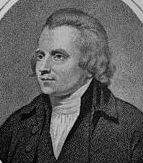

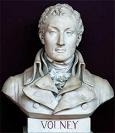










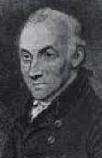



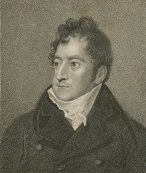




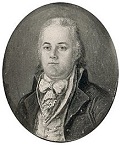


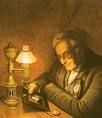





1784 On Jan. 6 Turkey and Russia sign the Treaty of Constantinople, annexing the Crimea to Russia; from now until the 2nd Balkan War in 1913 5M-7M Muslims are forcibly displaced into the Ottoman Empire. On Jan. 14 the (Second) Treaty of Paris, "In the name of the most holy and undivided Trinity, Amen" (signed Sept. 3, 1783) is ratified by the U.S. Congress, effective May 12 after the British ratify it on Apr. 9, ending the Am. Rev. War (begun Apr. 19, 1775) (9 years, 23 days); total Am. war deaths: 6.8K KIA, 17K killed by disease, 25K-70K total killed; total British daths: 9,372 KIA, 27K killed by disease, 43,833 total killed; France: 7K KIA; Spain: 5K KIA; Germany: 1.8K KIA, 4,888 deserted, 7,774 total killed; Netherlands: 37K-82.5K KIA, 500 civilians killed; British loyalists: 1.7K KIA, 5,300 killed by disease, 7K total killed; total soldiers KIA: 78.2K. On Jan. 15 Sir William Jones (1746-94), a supreme court judge in Ft. William, Bengal founds the Asiatic (Asiatick) Society to study Sanskrit and further research on Asia, going on to pub. the journal Asiatick Researches. In Jan. Benjamin Franklin pub. the pamphlet Information to Those Who Would Remove to America (written in Passy, France) in English and French, telling Europeans that America wants "mediocre" (middle-class) immigrants. On Feb. 28 John Wesley (1703-91) (picking a good time for it, since what American would want to continue with the church headed by King George III?) issues the Deed of Declaration in Baltimore, Md., establishing Methodism as a separate denomination from the Anglicans under the name Methodist Episcopal Church (until 1939), with leaders designated by Wesley, incl. bishop Francis Asbury (1745-1816) and itinerant evangelist Charles Atmore (1759-1826); freed slave Richard Allen (1760-1831) is ordained at the first conference of the church, but after experiencing racial prejudice he decides to form a separate Methodist Free African Society in Apr. 1787, followed in 1792 by the African Episcopal Church of St. Thomas in Philly, the first black Episcopal church in the U.S., which in 1816 becomes the African Methodist Episcopal Church; on Nov. 24 Samuel Seabury (1729-96) of Conn. becomes the first Am. Anglican (Episcopal) bishop consecrated by Scottish bishops; meanwhile Britain appoints the first Anglican bishop for the British colonies. On Mar. 1 the R.I. Emancipation Act declares all children born in R.I. from this date henceforth free, but doesn't prohibit the slave trade; later this year Conn. joins Penn., Mass., and N.H. in abolishing slavery. . On Mar. 11 the Second Anglo-Mysore War (begun 1782) ends with the Treaty of Mangalore, with both sides agreeing to restore the others' territories to the pre-war status quo. On Apr. 14 after being declared of legal age, and staging a coup involving a fistfight with his half-uncle Prince Frederick (regent since Jan. 1772), Frederick VI (1768-1839) takes the regency over his insane father Christian VII until his Mar. 13, 1808 death, instituting liberal and agricultural reforms. On Apr. 15 Maximilian Frederick of Konigsegg-Rothenfels (b. 1708) dies, and Austrian archduke Maximilian Franz (1756-1801), 16th and last child of Empress Maria Theresa and HRE Francis I, and brother of Marie Antoinette is appointed archbishop-elector of Cologne (until 1794), with seat in Bonn, helping elect his brother Leopold II in 1790, and giving young Ludwig van Beethoven his musical ed.; in 1791 because his daddy Ludwig Sr. is kappelmeister, he is rumored to be a grandmaster of the mysterious Priory of Sion too, woo woo woo. On June 22 after Adam Weishaupt sends plans for a French Rev. to Maximilien Robespierre in Paris, but the courier is intercepted by the Bavarian authorities, freaking them out, Bavarian elector Karl Theodor suppresses the Order of the Illuminati, along with Freemasonry, imprisoning members and forcing the rest to flee, incl. Adam Weishaupt, causing the Illuminati Order to spread to the U.S., where Thomas Jefferson defends Weishaupt as an "enthusiastic philanthropist"; secret financier Mayer Amschel Rothschild buys off the authorities to avoid prosecution; the flood of anti-Illuminati lit. spawns the modern Conspiracy Theory Movement? In Apr. N.C. votes to give the Confed. Congress 29M acres between the Allegheny (Appalachian) Mts. and the Mississippi River; on Aug. 23 the pissed-off Watauga settlers declare the state of Franklin (Frankland) in modern-day Tenn. (ends Dec. 1788) on lands W of the Appalachians ceded by N.C. to the U.S. govt., with Jean Sevier (1745-1815) (veteran of the 1780 Battle of King's Mountain) as gov. #1 (last) (1785-8), and William Cocke (1747-1828) as its rep. to Congress; after being forced to abandon his claims to Boonesboro because of faulty titles, Daniel Boone explores the Appalachian and Ozark areas, and helps found the state - you must have a dirty mind? On June 4 French opera singer Madame Marie Elisabeth Thible of Lyon becomes the first woman to fly in a hot-air balloon, the Gustave, rising to 8.5K ft. (2,591m) (45 min.) - how cool is that? On Aug. 13 William Pitt's India Act gives the British crown the power to guide Indian politics - who's the biggest celebrity in the world, but is he ready to leave? In Aug. Thomas Jefferson (appointed in May) joins Benjamin Franklin and John Adams in Paris; to rumors that he arrived to replace Franklin, Jefferson replies, "No one can replace him, Sir; I am only his successor." On Sept. 15 crowd-pleasing "daredevil aeronaut" Vincenzo Lunardi (-1806) of Lucca, Tuscany makes the first balloon ascent in England in front of a crowd incl. the Prince of Wales, taking a dog, cat, and pigeon with him as he travels 24 mi.; on Nov. 23, 1785 he wows Glasgow, Scotland. On Sept. 21 the Penn. Packet and Gen. Advertiser, founded by Irish-born John Dunlap (1747-1812) begins pub. in Philly, becoming the first successful daily newspaper in the U.S. On Sept. 22 the Russians under Grigori Shelekov settle Kodiak (Kikhtak) Island in Alaska. In Oct. the 300-ton Boston, Mass. ship Betsy is attacked 100 mi. off the W coast of Africa by Muslims, and the sailors are sent to slave markets in Morocco. On Nov. 30 Richard Henry Lee (1732-94) becomes pres. #6 of the United States Congress under the Articles of Confederation (until Nov. 6, 1785). Thomas Jefferson's land ordinance is passed. HRE Joseph II abrogates the Hungarian constitution, suppressing feudal rights; Buda becomes the capital of Hungary, replacing Bratislava, capital since 1541. Serfdom is abolished in Denmark. A hat tax for hat sellers of 5 shillings is imposed in England, rising to £2 in London, with the death penalty for forging a hat tax license; it is abolished in 1811. Benjamin Franklin is appointed by Louis XVI to a commission to investigate the theories of Friedrich Anton Mesmer, who is a big fad in Paris, replacing ballooning as #1; the commission concludes that Mesmer is a fraud. 26-y.-o. Capt. Horatio Nelson, who saw battle service in the West Indies in 1780, then was chosen to instruct the Prince of Wales in naval tactics and sent to France to study naval strategy is given command of the British frigate HMS Boreas, stationed in Antigua, West Indies. Am. surveyors David Rittenhouse (1732-96) and Andrew Ellicott (1754-1820) finish surveying the Mason-Dixon Line to SW Penn., 5 deg. of longitude from the Delaware River; the 1769 Mason-Dixon line is extended to settle the boundary between Penn. and Va. (later W. Va.). After meeting Great White Fathers Washington and Jefferson, wowed chief Cornplanter (1750-1836) of the Iroquois Confederation signs the Treaty of Ft. Stanwix, handing over all their land W of the Niagara River to the U.S. - plant in peace, palefaces? Loyalist gen. Sir John Johnson is assigned by the British govt. to distribute crown lands along the St. Lawrence River and N shore of Lake Ontario to loyalists, going on to settle 3,776 of the loyal pluckers. To reward them for siding with the British in the Am. Rev. War, Mohawk Chief Joseph Brant and the Six Nations of the Iroquois Confederacy settle in the Six Nations of the Grand River Reservation 12 mi. from Brantford (modern-day pop. 97K/134K) (founded May 31, 1877), the seat of Brant County, Ont., 26 mi. SW of Hamilton on the Grand River; it later becomes famous as the location of the first successful test of the telephone by Alexander Graham Bell at his father's home Melville House, causing it to become known as "the Telephone City", later becoming the birthplace of NHL hockey star Wayne Gretzky. French philosopher-Orientalist Constantin Francois de Chasseboeuf, Comte de Volney (1757-1820) (born Boisgiras, thenchanging his name to Volney = Voltaire + Ferney) visits Palestine, and after leaving Nablus arrived "at a town, which... presents a striking example of the vicissitudes of human affairs, when we behold its walls levelled, its ditches filled up, and all its buildings embarrassed by ruins, we scarcely can believe we view that celebrated metropolis, which, formely, withstood the efforts of the most powerful empires... In a word, we with difficulty recognize Jerusalem"; he goes on to conduct the first scientific survey of Jerusalem, noting the huge profits made by the Ottomans from the stupidity of the Christian factions by playing them off against each other, and how few pilgrims come to the city from Europe. Robert Burns' father dies bankrupt, and Robert and his brother Gilbert rent Mossgiel Farm near Mauchline; meanwhile he discovers the vernacular works of Scottish poet Robert Fergusson, and starts churning out his own poems, producing most of his best-known ones in the next two years. Japanese seaman Chunosuke Matsuyama is wrecked with 44 shipmates (who all die of starvation) on a Pacific coral reef; before dying, he carves an account of their tragedy on a piece of wood, seals it in a bottle, and throws it into the sea, and it is found in 1935 at the seaside village where he was born? The Boston Society of New Jerusalem is founded after members hear a lecture on Emanuel Swedenborg; after moving to Beacon Hill in 1845, it becomes known as the Church on the Hill (Swedenborgian). Valentin Hauy (Haüy) (1745-1822) is given the job of interpreter to the blind for Louis XVI, and with Austrian pianist Maria Theresa von Paradis (1759-1824) founds the first school for the blind in Paris. Madame Necker opens Necker Hospital in Paris, which survives to modern times as a children's hospital. The North-West Co. is formed by French fur merchants from Montreal, led by Isaac Todd to compete with Hudson's Bay Co. German immigrant John (Johann) Jacob Astor (1763-1848) arrives in New York City with $25 in cash and seven flutes, and enters the fur trade, dealing directly with Indians, accumulating a $200K fortune from the ignorant red suckas in six years, then going on to become America's richest man - I'll tell you the story when the kiddies retire? The Boston Sentinel is founded in Boston, Mass. by Maj. Bursell. English artist Thomas Rowlandson (1756-1827) draws the first political cartoons, when he isn't cranking out erotica. Italian composer Giovanni Paisiello (d. 1816) becomes court conductor to Ferdinand IV of Naples (until 1802), where he cranks out even more good operas than in freezing Russia. The French musical society Les Concerts de la Loge Olympique requests Franz Joseph Haydn to compose six symphonies, which become so popular that three more are requested. The earliest recorded mention of Merlot (Fr. "young blackbird") wine is made by an official in Bordeaux, France. The Le Grand Vefour (Véfour) restaurant is opened in the Palais-Royal in Paris by Antoine Aubertot, becoming the first grand restaurant in Paris; in 1820 it is purchased by Jean Vefour, who retires in 1823, selling it to Jean Boissier; it goes on to become the #1 Paris restaurant, introducing Mornay Sauce, closing in 1905. The Ailanthus altissima AKA the Tree of Heaven (Chin. "chouchun" = stinking tree), first imported to Europe from N and C China in the 1740s is brought to the U.S., turning into an invasive species, gaining the nicknames Tree of Hell, Stink Tree, and Ghetto Palm. Architecture: Pope Pius VI builds a new Appian Way from Rome to Albano, parallel to the old. The Sacristy of St. Peter's Basilica, by Carlo Marchionni is added, and the work originally planned by Pope Nicholas V in the 15th cent. is finally complete after nearly 350 years? John Nash begins the Brighton Pavilion for the Prince Regent (Prinny of the ever-expanding waistline) (finished 1827). The Emerald Buddha Chapel in Bangkok is officially opened on Mar. 22 by Rama I of Thailand to house the Emerald Buddha. Inventions: Aime (Aimé) Argand (1755-1803) of Switzerland designs the oil-burning Argand Lamp, whose single circular wick in a hollow cylinder emits as much light as seven candles; a reflector is later placed behind it. On Aug. 21 Joseph Bramah (1748-1814) of England patents a pickproof barrel-shaped safety lock with 494M possible combinations, which is not picked until 1851, despite a 200 guinea prize, by Am. locksmith Alfred Charles Hobbes, who takes a month to do it; in 1773 Bramah, a Yorkshire farmer's son walked 170 mi. to London to seek his fortune. The Puddling Pocess of ironmaking, invented by Henry Cort (1740-1800) of England goes into production; rolled rods and bars are now being produced. Benjamin Franklin announces the invention of bifocal eyeglasses ("double spectacles") in Aug.; "I have only to move my eyes up or down.... to see distinctly far or near." Robert March invents a rope-spinning machine. Scottish millwright Andrew Meikle (1719-1811) invents a threshing machine. French mathematician-engineer Gen. Jean Baptiste Marie Charles Meusnier (1754-93), known for his 1776 Meusnier's Theorem develops the first propeller-driven and elliptically-shaped balloon; the crew cranks three propellers on a common shaft, and the craft reaches a speed of 3 mph, and can be kinda maneuvered. Scottish-born William Murdock (Murdoch) (1754-1839), foreman of James Watt's and Matthew Boulton's Soho Engineering Works constructs a small working model of a steam road locomotive, but is not encouraged to build a full-size model; he switches to gas lighting in the 1790s, and invents the term "gasometer" for large ambient pressure containers of natural gas. James Ramsey invents a steam-driven motorboat, and demonstrates it on the Potomac River, witnessed by George Washington - hand me a silver dollar? English artillery officer Maj.-Gen. Henry Shrapnel (1761-1842) invents the Shrapnel Shell. Josiah Spode Sr. (1733-97) of Stoke-on-Trent, England perfects the blue glaze underprinting (transfer printing) process for china. The first Model Helicopter is flown in France by naturalist Christian de Launoy and mechanic ? Bienvenu, powered by a tightly-wound cord. Science: London-born English mathematician George Atwood (1745-1807) accurately determines the acceleration of a free-falling body; he also invents a machine to illustrate the effects of Newton's First Law of Motion. Johann Wolfgang von Goethe (1749-1832) of Germany discovers that the human intermaxillary bone has a similar structure to that in apes, foreshadowing comparative morphology - while who was giving whom head? On Sept. 10 English astronomer Edward Pigott (1753-1825) detects the variability of Eta Aquilae, becoming the first known Cepheid Variable; in Dec. his neighbor and friend John Goodricke (1764-86) discovers the variability of star Delta Cephei in the Cepheus ("king") constellation; too bad, he contracts pneumonia from the effort, and soon dies. French mineralogist Abbe Rene Just Hauy (Haüy) (1743-1822) of the U. of Paris proposes the Law of Rational Indices, that the regular form of crystals is caused by a regular internal arrangement of tiny cubes or polyhedra ("molecules integrantes"); 174 years later (1958) an electron microscope confirms his model. Nonfiction: Miss Hannah Adams (1755-1831), Alphabetical Compendium of the Various Sects Which Have Appeared in the World from the Beginning of the Christian Era to the Present Day; launches her career as the first prof. female writer in the U.S. Rene Just Hauy (1743-1822), Essai d'une Theorie sur la Structure des Crystaux. Johann Gottfried von Herder (1744-1803), Ideas for a Philosophy of History of Mankind (Ideen zur Philosophie der Geschichte der Menschheit) (4 vols.) (1784-91); explores the central ideas of nationalism, starting with the existence of a nation that has a unique claim to be considered a legitimate political basis for sovereignty, concluding that they must speak the same language; "Has a people anything dearer than the speech of its fathers? In its speech resides its whole thought-domain, its tradition, history, religion, and basis of life, all its heart and soul. To deprive a people of its speech is to deprive it of its one eternal good... As God tolerates all the different languages in the world, so also should a ruler not only tolerate but honor the various languages of his peoples... The best culture of a people cannot be expressed through a foreign language; it thrives on the soil of a nation most beautifully, and, I may say, it thrives only by means of the nation's inherited and inheritable dialect. With language is created the heart of a people; and is it not a high concern, amongst so many peoples—Hungarians, Slavs, Rumanians, etc to plant seeds of well-being for the far future and in the way hat is dearest and most appropriate to them?" - get to Golden Pond before the lake dries up? Immanuel Kant (1724-1804), Idea for a Universal History from a Cosmopolitan Point of View. William Mitford (1744-1827), The History of Greece (5 vols.) (1784-1810); by a friend of Edward Gibbon in the South Hampshire Militia, who suggested the idea; he never visits Greece. Jacques-Henri Bernardin de Saint-Pierre (1737-1814), Etudes de la Nature. Antonio de Ulloa (1716-95), Relacion Historica del Viaje a la America Meridional; scientific description of South Am. Music: Andre Gretry (1741-1813), Richard Coeur de Lion (opera comique) (Paris) (Oct. 21); libretto by Michel-Jean Sedaine; his masterpiece?; Richard I of England is rescued from captivity by his troubadour Blondel de Nesle. Antonio Salieri (1750-1825), Les Danaides (opera) (Paris). Art: Francisco de Goya (1746-1828), Don Manuel de Zuniga. Sir Joshua Reynolds (1723-92), Mrs. Siddons as the Tragic Muse. Plays: Pierre-Augustin Caron de Beaumarchais (1732-99), Le Mariage de Figaro (The Marriage of Figaro); plebeians and aristocrats unite against an oversexed nobleman. George Colman the Younger (1762-1836), Two to One; his first hit. Rhyijnvis Feith (1753-1824), Thirsci (tragedy); The Patriots. Jean-Francois de La Harpe (1739-1803), Coriolan. Johann Christoph Friedrich von Schiller (1759-1805), Intrigue and Love (Kabale und Liebe) (Mannheim). Novels: Aagje Deken (1741-1804) and Betje Wolff (1738-1804), Historie van den Heer Willem Leevend. Births: French sculptor Francois Rude (d. 1855) on Jan. 4 in Dijon; step-father of Paul Cabet (1815-76); teacher of Jean-Baptiste Carpeaux (1827-75). Am. "The Old Oaken Bucket" poet-playwright Samuel T. Woodworth (d. 1842) on Jan. 13 in Scituate, Mass. English Peelite PM (1852-5) George Hamilton-Gordon, 4th Earl of Aberdeen (d. 1860 (AKA Lord Haddo) on Jan. 28 Edinburgh, Scotland; educated at St. John's College, Cambridge U. Am. Mormon leader John Alpheus Cutler (d. 1864) on Feb. 29 in Plainfield, N.H. German neoclassical Greek revival architect-painter-writer Franz Karl Leopold (Leo) von Klenze (d. 1864) on Feb. 29 in Buchladen (near Schladen). English scientist-mathematician (inventor of the Wheatstone Bridge) Samuel Hunter Christie (d. 1865) on Mar. 22; educated at Trinity College, Cambridge U. Hungarian philologist-orientalist Alexander Csoma de Koros (Sandor Korosi Csoma) (d. 1842) on Mar. 27 in Kodos, Transylvania (Chiurus, Romania). Spanish rev. gen. Rafael del Riego Nunez (Nuñez) (d. 1823) on Apr. 2 in Santa Maria de Tuna, Asturias. German "Jessonda" composer-violinist-conductor (Freemason) Louis (Ludwig) Spohr (d. 1859) on Apr. 5 in Braunschweig; inventor of the baton for conducting, the violin chin rest, and rehearsal letters on sheet music. German Prussian field marshal (1856-) Count Friedrich Heinrich Ernst "Papa" von Wrangel (d. 1877) on Apr. 13 in Stettin, Pomerania. U.S. Supreme Court justice #27 (1841-60) Peter Vivian Daniel (d. 1860) on Apr. 24 in Stafford Count, Va.; educated at Princeton U. British Chartist leader John Frost (d. 1877) on May 25 in Newport, Monmouthshire. French chef ("King of Chefs and Chef of Kings") (inventor of haute cuisine, the chef's hat or toque blanche) Marie-Antoine (Antonin) Careme (Carême) (d. 1833) on June 8 in Paris. French Canadian trapper Jacques La Ramie (Ramee) (Ramée) (d. 1821) on June 8 in Quebec, British Canada; brother of Joseph La Ramie; namesake of the Laramie River and Laramie, Wyo. German mathematician-astronomer (inventor of Bessel Functions) Friedrich Wilhelm Bessel (d. 1846) on July 22 in Minden, Prussia. Am. "Dictionary of the English Language" lexicographer Joseph Emerson Worcester (d. 1865) on Aug. 24 in Bedford, N.H.; educated at Yale U.; main competitor of Webster's Dictionary. British gov.-gen. of India (1836-42) George Eden, 1st Earl of Auckland (d. 1849) on Aug. 25 in Beckenham, Kent; son of William Eden, 1st baron Auckland (1745-1814); brother of William Eden (1782-1810); created earl in 1838. German Nazarene painter Peter von Cornelius (d. 1867) on Sept. 23 in Dusseldorf. French mathematician (Roman Catholic) Baron Pierre Charles Francois Dupin (d. 1873) on Oct. 6 in Varzy; created baron in 1824. Am. Unitarian clergyman (leader in bringing German Higher Criticism to the U.S.) Joseph Stevens Buckminster (d. 1812) on Oct. 14 in Portsmouth, N.H.; educated at Harvard U.; teacher at Phillips Exeter Academy until 1804, then pastor of Brattle Street Church in Boston, finishing up as lecturer in Biblical criticism at Harvard U. in 1811 - and after that don't ask? Spanish Bourbon king #5 (1808, 1813-33) Ferdinand VII (d. 1833) on Oct. 14 in San Lorenzo de El Escorial; brother of pretender Don Carlos Maria (1788-1855); father of Isabella II (1830-1914). Am. "Toplady" hymn tune writer Thomas Hastings (d. 1872) on Oct. 15 in Washington, Conn. Uruguayan gen. Jose Fructuoso Rivera y Toscana (d. 1854) on Oct. 17 in Durazno. English "Story of Rimini" poet-writer James Henry Leigh Hunt (d. 1859) on Oct. 19 in Southgate, London; Am. Loyalist parents. Am. Hudson's Bay Co. dir. (1824-46) John (Jean-Baptiste) McLoughlin (d. 1857) on Oct. 19 in Riviere-du-Loup, Quebec, Canada. English fashionplate poet PM (1855-65) Henry John Temple, 3rd Viscount Palmerston (d. 1865) (AKA Pam) on Oct. 20 in Broadlands, Hampshire near Romsey, Hants, England; educated at Harrow School, and St. John's College, Cambridge U.; known for flip-flopping between Whig and Tory sentiments - the Bill Clinton of 19th cent. England? British 6'3" Zionist financier-philanthropist (Jewish) Sir Moses Haim Montefiore, 1st Baronet (d. 1885) on Oct. 24 in Leghorn (Livorno), Italy; knighted in 1938; created baronet in 1846. Am. printer Robert Hoe (d. 1833) on Oct. 29 in Leicestershire, England; emigrates to the U.S. in 1803; inventor of the Hoe press; first to use steam as motive power in a U.S. plant; father of Richard March Hoe (1812-86). U.S. pres. #12 (1849-50) and brig. gen. ("Old Rough and Ready") Zachary Taylor (d. 1850) on Nov. 24 in Montebello, Orange County, Va.; first pres. born after the Am. Rev.; son of Richard Taylor, later collector of the port of Louisville, Ky., and Sarah Strother; 2nd cousin of pres. #4 James Madison - and great-great-great grandfather of Sheriff Andy Taylor of Mayberry? Scottish poet-writer Allan Cunningham (Gael. "village of the milk pail") (d. 1842) on Dec. 7 in Keir Parish (near Dalwsinton), Dumfriesshire, Scotland; father is a neighbor of Robert Burns; moves to London as a journalist in 1810. German actor Ludwig Devrient (d. 1832) on Dec. 15 in Berlin; most popular actor of his time, noted for playing Shakespeare and Schiller. Am. explorer Stephen Harriman Long (d. 1864) on Dec. 30 in Hopkinton, N.H.; educated at artmouth College. Spanish royalist gen. Joaquin Ibanez (Joaquín Ibáñez), Baron de Eroles (d. 1825) in Tlarn, Catalonia. Italian physicist Leopoldo Nobili (d. 1835) in Trassilico, Garfagnana. English-born Am. stage actor-mgr. Edmund Simpson (d. 1848). British army col. Michael Childers (d. 1854); great-uncle of Hugh Childers (1827-96). Am. warden Capt. Elam Lynds (d. 1855) in Litchfield, Conn.; grows up in Troy, N.Y. Am. Restoration Movement leader John "Raccoon" Smith (d. 1868) in Sullivan, Tenn.; grows up in Clinton County, Ky. Deaths: English writer Dr. Samuel Johnson (b. 1709) on Dec. 13 in London; buried in Westminster Abbey; a monument to him is later placed in St. Paul's Cathedral; last words: "I am about to die." Am. Rev. War gen. Josiah Quincy Sr. (b. 1710) on Mar. 3 in Quincy, Mass. German composer Wilhelm Friedemann Bach (b. 1710) on July 1 in Berlin; dies in poverty. Euro mystery man Comte de Saint Germain (b. 1712) on Feb. 27 in Altona, Schleswig; Theosophists later claim that he is the immortal Wandering Jew and an Ascended Master, the resurrected Sir Francis Bacon et al. French "Encyclopedie" philosopher Denis Diderot (b. 1713) on July 31 in Paris (emphysema and dropsy); leaves Lettres sur les Sourds et Muets; "Man will never be free until the last king is strangled with the entrails of the last priest"; "There are little testicles at the bottom of our most subline feelings and our purest tenderness." Scottish painter Allan Ramsay (b. 1713). Spanish missionary Father Junipero Serra (b. 1713) on Aug. 28 in Mission San Carlos Borromeo de Carmelo (Carme-by-the-Seal), Calif. Japanese poet-painter Yosa Buson (b. 1716) on Dec. 25 in Kyoto. Spanish gov. of Guatemala (1779-83) and New Spain viceroy (since Apr. 29, 1783) Matias de Galvez y Gallardo (b. 1717) on Nov. 3 in Mexico City, Mexico. Spanish gov. of Calif. (1775-82) Felipe de Neve (b. 1724) in Coahuila, Mexico. Am. Rev. leader (DOI signer) Caesar Rodney (b. 1728) on June 26 in St. Jones Hundred, Kent County, Del. Danish naturalist Otto Friedrich Mueller (b. 1730) on Dec. 26. Am. loyalist "Considerations on the Present State of Virginia" loyalist John Randolph (b. 1733) on Jan. 31 in Brompton, London; buried at the College of William and Mary. Swedish chemist Torbern Olaf Bergman (b. 1735) on July 8 in Medevi. English-born Am. Shaker founder Mother Ann Lee (b. 1736). Dutch Patriots leader Baron Joan van der Capellen tot den Pol (b. 1741) on June 6 in Zwolle.










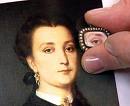


















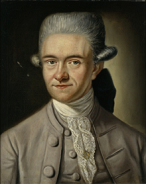

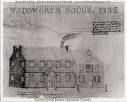

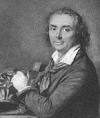


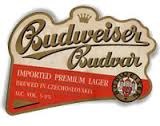
1785 On Jan. 1 John Walter (1739-1812) founds The Daily Universal Register in London, England, concentrating on ads in competition with eight other newspapers; on Jan. 1, 1788 he changes its name to The Times, and branches into scandals and gossip whiile striving to record the views of the London elite, launching a trend of naming newspapers some variant of Times; Times Roman typeface is developed to be legible despite low-tech printing, switching in Nov. 2006 to Times Modern; in 2004 it switches from broadsheet to compact formats, escept The Sunday Times; in Dec. 2016 it has a daily circ. of 446K, 792K for The Sunday Times; on June 6, 2006 it launches a U.S. ed.; it becomes a favorite of libraries, with its detailed index insuring popularity with researchers. On Jan. 7 the English Channel is first crossed (Dover to Calais) in a hot air balloon by Dr. John Jeffries (1745-1819) of Boston, Mass. and Jean-Pierre Francois Blanchard (1753-1809) of France (who made his first successful ascent on Mar. 2, 1784, a few mo. after Rozier on Nov. 21, 1783), entering the 18th cent. space race); Blanchard latter gives the first successful demonstration of a parachute by dropping a dog in a basket hooked to one; they have to ditch their ballast equipment and clothing to keep from landing in the water. On Jan. 21 the U.S. signs the Treaty of Fort McIntosh with the Cherokee, Wyandot, Chippewa (Ojibwe), Delaware (Lenape), and Ottawa (Odawa) at Ft. McIntosh, ceding modern-day Ohio to the U.S. and other Indians in exchange for fair payment (what color baubles do you prefer?); the Continental Congress passes the Land Ordinance of 1785 for the orderly settling of the Northwest Territory (Ohio, Ind., Mich., Ill., Wisc.); it divides all land won during the war into 640-acre (1 sq. mi.) sections and offers it for sale for $1 an acre; 36 sections comprise a township, and within each township one section is set aside to support public schools; Mass. delegate Rufus King (1755-1827) introduces a resolution prohibiting slavery in the Northwest Territory, which is incorporated in the Ordinance of 1787. In Jan. the New York Manumission Society in Long Island, N.Y. is founded by white mainly wealthy Quaker men to promote abolition (until 1849), with John Jay as pres. and Alexander Hamilton as secy. In Jan. U.S. ships Dauphin and Maria are captured by Muslim Algerian pirates, who parade the 21 crewman to their leader the dey, who spits on them and says "Now I have you, you Christian dogs - you shall eat stones"; this action becomes one of the driving reasons for adopting the U.S. Constitution on Mar. 4, 1789, according to Thomas Bailey. In Feb. the Diamond Necklace Affair in Versailles, France causes Cardinal (French Marshal) (Grand Almoner) Charles de Rohan, Prince de Soubise (1715-87) to be arrested for conspiring to steal a 2,842-carat diamond necklace once ordered by Louis XV for Madame du Barry (he dies before its completion); you see, Rohan's mistress Countess de La Motte has a smart hubby, and after Rohan fell into disfavor with the royal court and Queen Marie Antoinette refused to buy the necklace, he put his wife up to telling Rohan that the queen is secretly in love with him and feed him fake letters; after he bites, she dressed Mme. Olivia (a whore who resembles her) up as her and arranged a meeting with him last July in the Versailles Palace garden to make him think they have a thing, and the ho asks him to buy the necklace for her on a promise to pay him later; on Feb. 1 the dope signs a note for 1.6M livres with Parisian jewelers Boehmer and Bassenge, and is then duped into giving it to a man claiming to be the queen's valet, after which Count de la Motte and the necklace disappear, leaving Rohan and the Countess holding the bag and unable to pay the jewelers, who take his note to the police, getting them arrested two weeks later; on May 31, 1786 Rohan is acquitted, the Countess sentenced to be scourged, branded and imprisoned for life, and her hubby sentenced to death in absentia; she later blows, er, escapes from prison and flees to England; even though Marie Antoinette is innocent of any knowledge of the swindle, the numerous porno drawings of her having sex with famous handsome lothario Count Hans Axel von Fersen the Younger (1755-1810) (son of Count Axel von Fersen the Elder), herself and other women that the left has been circulating, combined with her extravagant lifestyle makes everyone think that "Madame Deficit" really did screw the Cardinal to lose his money, and contributes to her becoming "the most hated woman in France". On Mar. 10 Thomas Jefferson is appointed minister to France, succeeding Benjamin Franklin (1706-90), who prepares to return from France, where he has resided since 1776; "I succeed him, but can never replace him"; John Adams becomes U.S. envoy to London (resigns 1788); in Mar. Jefferson and Adams visit Tripoli's ambassador to London Sidi Haji Abdrahaman (Abdul Rahman) Adja, and ask him by what right the Barbary states prey upon American shipping, enslaving both crews and passengers, and next Mar. 28 they write a letter to U.S. foreign affairs minister John Jay, with the soundbyte: "We took the liberty to make some enquiries concerning the ground of their pretensions to make war upon nations who had done them no injury, and observed that we considered all mankind as our friends who had done us no wrong, nor had given us any provocation. The Ambassador answered us that it was founded on the laws of their prophet [Mohammed]; that it was written in their Koran; that all nations who should not have acknowledged their authority were sinners; that it was their right and duty to make war upon them wherever they could be found, and to make slaves of all they could take as prisoners; and that every Mussulman [Muslims] who was slain in battle was sure to go to Paradise." "We took the liberty to make some inquiries concerning the Grounds of their pretensions to make war upon a Nation who had done them no Injury, and observed that we considered all mankind as our Friends who had done us no wrong, nor had given us any provocation. The Ambassador answered us that it was founded on the Laws of their Prophet, that it was written in their Koran, that all nations who should not have acknowledged their authority were sinners, that it was their right and duty to make war upon them wherever they could be found, and to make slaves of all they could take as Prisoners, and that every Musselman who should be slain in Battle was sure to go to Paradise. He said, also, that the man who was the first to board a vessel had one slave over and above his share, and that when they sprang to the deck of an enemy's ship, every sailor held a dagger in each hand and a third in his mouth; which usually struck such terror into the foe that they cried out for quarter at once"; Barbary pirates seize U.S. ships and imprison their crews in Algiers for 11 years while the U.S. negotiates for their release - the Muslim World gave the U.S. fair warning of the treachery of U.S. presidents Obama et al., and they didn't take it? In Mar. commissioners from Va. and Md. meet at the Mount Vernon Conference to settle differences about the navigation of the Potomac River and Chesapeake Bay, which leads to plans for all thirteen states to send delegates to a yearly convention in Annapolis beginning next Sept. On Apr. 14 William Whitehead (b. 1715) dies, and Thomas Wain Warton (1728-90) becomes poet laureate of England. On May 26 former La. gov. Bernardo de Galvez y Madrid arrives in Veracruz, Mexico as new viceroy of Spain to replace his father Matias de Galvez y Gallardo, who died last Nov. 3; too bad, on Aug. 27 a great freeze occurs, leading to a famine, followed by a plague next year, for which he donates 12K pesos from his inheritance and raises 100K more; he goes on to install street lights in Mexico City and build a highway to Acapulco while curbing abuses of Indian labor, then dedicates 16% of income from the Mexican lottery to charity; too bad, the audiencia grows jealous of his popularity, believing that he wants to declare independence of New Spain, but he solves their problems by dying on Nov. 8, 1786 after they get the crown to rebuke him, causing him to grow despondent (poisoned?). On June 1 farmer's son and former hanging list header John Adams meets with George III, telling him how they should now be friends because they share a common language and blood - sugar sugar lip balm? On June 15 Jean Francois Pilatre de Rozier, dying to be elected to the Academie des Sciences attempts to duplicate Blanchard's and Jeffries' feat of flying in a balloon across the English Channel, but unfortunately decides to use two balloons, one containing hot air and the other hydrogen; at 1.7K ft. the hydrogen bag ignites, and Rozier and his assistant drop to their deaths - welcome to now? On June 20 James Madison (1751-1836) delivers the speech Memorial and Remonstrance Against Religious Assessments to the Va. legislature against a bill "establishing a provision of teachers of the Christian religion", giving eight reasons incl. "1. Because we hold it for a fundamental and undeniable truth, that religion or the duty which we owe to our Creator and the manner of discharging it, can be directed only by reason and conviction, not by force or violence"; "5. Because the Bill implies either that the Civil Magistrate is a competent Judge of Religious Truth; or that he may employ Religion as an engine of Civil policy. The first is an arrogant pretension falsified by the contradictory opinions of Rulers in all ages, and throughout the world: the second an unhallowed perversion of the means of salvation"; "15. Because finally, the equal right of every citizen to the free exercise of his religion according to the dictates of conscience is held by the same tenure with all our other rights. If we recur to its origin, it is equally the gift of nature; if we weigh its importance, it cannot be less dear to us; if we consult the Declaration of Rights which pertain to the good people of Virginia, as the basic and foundation of government, it is enumerated with equal solemnity, or rather studied emphasis." On July 4 the first Fourth of July Parade (a prayerful walk) is held in Bristol, R.I. by Am. Rev. War veteran Rev. Henry Wright of the First Congregational Church; by the next cent. festivities begin on June 14 (Flag Day) and end on July 4 with a 2.5-mi. parade; John Adams gets pissed-off when all his work to get the independence movement going is upstaged by a single document written at his request by slaveholding Johnny-come-lately Thomas Jefferson? - you have no idea I'm down here, you can't even hear me can ya, oh I pulled a muscle, it's probably in my neck? On July 6 the Continental (Confederation) Congress adopts the name Dollar for the "money unit of the United States of America", to be divided on the decimal system into smaller units; next year Congress specifies the definition of the cent and the dime (from the French dixieme); the U.S. becomes the 1st country to use decimal currency. On July 12 Benjamin Franklin leaves Passy, then travels to the port of Le Havre, France in Queen Marie Antoinette's personal enclosed litter borne by Spanish mules; leaving Southampton on July 27, he uses his ocean voyage to do scientific experiments, arriving in Philly in Sept. to hunker down in gouty retirement. On July 17 France limits the importation of goods from Britain. On July 23 Frederick II the Great of Prussia forms Die Furstenbund (League of German Princes) against HRE Joseph II. On Aug. 9 the first recorded Chinese on the East Coast of the U.S. are brought by the ship Pallas. On Sept. 10 Prussia and the U.S. sign a Treaty of Amity and Commerce. On Nov. 23 John Hancock is elected pres. #7 of the U.S. Congress under the Articles of Confederation (2nd time); Penn.-born historian David Ramsay (1749-1815) becomes acting pres. (until May 12, 1786). On Dec. 15 Prince George of Wales (later George IV) marries twice-widowed Roman Catholic sweet cheeks Maria Anne Fitzherbert (1756-1837); lucky for him, the marriage is invalid under the 1772 Royal Marriages Act, else he would be disinherited from the crown, so she is officially treated like merde by the snob establishment, and he goes on to marry bluebood Protestant 1st cousin Caroline of Brunswick in 1795, but still hooks up with sweet cheeks now and then; after he gets Caroline to to marry him by presenting her with a miniature painting of his right, er, eye, she gets Richard Coway to paint her right eye for him around Xmas, starting the Lover's Eyes Fad in London, which spreads through Europe, peaking in the 1810s; meanwhile English actress Dorothea "Dorothy" Jordan (1761-1819) hooks up with him, bearing at least 10 illegitimate children by him with the surname FitzClarence; he also hooks up with Mrs. Robinson, an actress who made her name playing Perdita in Shakespeare's "A Winter's Tale", causing him to be called Prince Florizel. Wilhelm I of Kassel becomes King Wilhelm IX. Warren Hastings resigns as gov.-gen. of India and returns to England. HRE Joseph II unsucessfully tries to add Bavaria to his Austrian dominions by diplomacy. The Charter of the Nobility (Cities) is issued in Russia by Catherine II the Great, becoming the Magna Charta of the nobles, guaranteeing the nobles the right to trial by their peers, freedom from corporal punishment, compulsory military duty, poll tax et al. The Russians settle the Aleutian Islands. French naval officer Jean-Francois de Galoup, Comte de La Perouse (Pérouse) (1741-88) leads a royal French expedition to the Pacific in the ships Bustamove and Asshole, er, Astrolabe and Boussole, carrying specialists in the sciences, and visits the Hawaiian islands, Macao, Philippines, Japan, Kamchatka, and Korea, discovering the La Perouse (Soya) Strait between S Sakhalin Island and Yezo (Ezo) (Yesso) (Hokkaido); in Samoa they encounter hostile natives, losing the capt. and 11 crew of the Astrolabe; they then head for the Solomons (ends 1788); in 1786 La Perouse lands near Makena Beach on the S end of the Hawaiian island of Maui and discovers and maps La Perouse Bay, during which time Haleakala erupts for the last time in modern history. Up-and-coming Corsican-born Napoleon Bonaparte (b. 1769) joins the French army. Harvard grad. James Bowdoin II (1726-90), son of rich merchant James Bowdoin I (1676-1747), and pres. #1 of the Am. Academy of Arts and Sciences becomes gov. #2 of Mass. (until 1787), with becoming the U.S. pres. in his sights; too bad, his heavy-handed quashing of Shays' Rebellion causes him to lose his reelection, and his TB soon kills him - I knew Jack Kennedy, senator, and you're no Jack Kennedy? "Hill town" Bristol, Conn., 18 mi. SW of Hartford splits off from Farmington. Thomas Paine receives $3K from Congress and a confiscated royalist farm in New Rochelle from the state of N.Y. in return for his services to the Am. Rev. cause - Congress gives him nada? The Dukhobors (Dukhobortsy) (Russ. "spirit wrestlers") peasant religious sect in Russia is kicked out of the Russian Orthodox Church; named disparagingly by priests to describe them as fighting against the spirit of God, they at first take to the name, then later call themselves Christians of the Universal Brotherhood, teaching that all humans are equal brothers, and refusing to acknowledge any wordly ruler or participate in military service - Russian Jehovah's Witnesses? The pietist Harmony Society is founded in Iptigen, Germany, experiencing persecution by the Lutheran Church and causing them to emigrates to the U.S. in 1804. Greenville County, S.C. is founded in honor of Gen. Nathanael Greene, who goes on to live on his own plantation near Savannah, Ga. until he dies of heat stroke in 1786. Scottish philanthropist Thomas Douglas, 4th Earl of Selkirk (1771-1820) receives a 116K-sq.-mi. grant on the Red River from the Hudson's Bay Co., and goes on to establish posts at Ft. Carlton, Ft. Cumberland, and Edmonton House on the Saskatchewan River. Galveston, Tex. is founded by Spanish explorer Jose Antonio de Evia (1740-?) in honor of La. gov. Bernardo de Galvez y Madrid; the first Euro settlement is begun in 1816 by pirate Louis-Michel Aury (1788-1821) as a base to support the Mexican rebellion against Spain, after which pirate Jean Lafitte takes it over in 1817. The Royal Philippine Co. is established, and required to invest 4% of its earnings in the development of the Philippine economy in return for internat. trading rights that are so extensive that its ships seldom visit the Philippines after 1789, concentrating on Latin Am. trade. Robinson Crusoe translator Joachim Heinrich Campe (1746-1818) launches educational reforms in Brunswick, Germany. Queen Mary U. of London is founded as London Hospital Medical College, renamed after Queen consort Mary of Teck (1867-1953) and admitted to the U. of London in 1915, going on to merge in 1989 with Westfield College, and marge again in 1995 with St. Bartholomew's Hospital Medical College and London Hospital Medical College. Seven immigrant loyalist graduates of Harvard and King's College found the U. of New Brunswick in Saint John, New Brunswick, becoming the oldest English-language univ. in Canada. It is decided to move the stinking Cemetery of the Innocents in Paris to the limestone quarries S of the city, taking two stinking years. In Sweden the first Illis Quorum Meruere Labores (For Those Whose Works Have Deserved It) gold medal is awarded by Gustavus III; Greta Garbo later receives one. French Jansenist-educated mainly porno writer Nicolas-Edme Restif (Rétif) (1734-1806) coins the word "communism" in a review of a book by Joseph-Alexandre Hupay de Fuveau, announcing his Project for a Philosophical Community. The Augusta Chronicle weekly newspaper is founded in Augusta, Ga., becoming known for coverage of the Masters Tournament, reaching a modern-day circ. of 55K daily and 71K Sun.; on Aug. 9, 2017 it is announced that it will be sold to GateHouse Media along with 10 other daily newspapers for $120M. The Poughkeepsie Journal is founded in Dutchess County, Poughkeepsie, N.Y.; in 1788 its ed. becomes the official reporter of the ratification of the U.S. Constitution; during the Franklin D. Roosevelt admin. it serves as the launchpoint for stories by FDR from his estate in nearby Hyde Park; it goes on to become the oldest paper in N.Y. James Watt and Matthew Boulton install a rotary steam engine in a cotton-spinning factory in Papplewick, Nottinghamshire, England. Noah Webster sums up the weakness of the current confederate U.S. govt.: "Our pretended union is but a name, and our confederation is a cobweb." Aging skirt-chaser Jacques (Giacomo) Casanova (1725-98) becomes a semi-retired librarian working for Count Ferdinand Ernst Joseph Gabriel von Waldstein und Wartenberg (1762-1823), (Beethoven's first patron in Bonn) in the Chateau de Dux until death, dying quietly at the job - while doing things in the library stacks? Rev. James Wilmot (1726-1808) of Warwickshire, England claims that well-situated Francis Bacon (1561-1626) was the real author of Shakespeare's plays - the original lone gunman theory? Robert Burns gives his mother's domestic helper Betty (Elizabeth) Paton a daughter, and his mother takes it in; meanwhile he courts and impregnates Jean Armour (1765-1834), daughter of a local building contractor - do you like music, that sweet soul music? Budweiser Budvar Brewery is founded in Ceske Budejovice, S Bohemia, producing a beer that makes the town famous. Architecture: Wadsworth House is built by U.S. Gen. Peleg Wadsworth (1748-1829) with bricks shipped from Philadelphia by his grandfather, becoming the first brick house in Portland, Maine (487 Congress St.); his grandson poet Henry Wadsworth Longfellow later lives there. Inventions: On May 9 Joseph Bramah of England patents the hydraulic beer pump handle (beer engine), allowing kegs to be stored beneath the bar in the cool cool basement. Oliver Evans (1755-1819) of the U.S. invents an automatic grist mill. Dutch scientist Martinus Von Marum (1750-1837) discovers ozone in electrical discharges. David Rittenhouse of Penn. makes the first diffraction grating using 50 hairs at a spacing of 100 lines per in. The first practical sewing machine is invented by Thomas Saint in England. George Washington's dentist (former Am. Rev. scout) John Greenwood (1760-1819) helps raise public awareness about porcelain teeth; George Washington's teeth, which he makes in 1798 are made from hippo tusks, animal, and human teeth, but no wooden teeth, although other people at the time wear them? - I wouldn't want to go to a dentist with bad wooden teeth? English philosopher Jeremy Bentham proposes the Panopticon, a prison designed to allow one guard to see all the prisoners without being seen; after talking Parliament into it, the king refuses to pay for it in 1811, and in 1813 he is awarded £23K in damages. Science: Comte Claude Louis Berthollet (1748-1822), who was appointed supt. of dyeing processes for the French govt. the year before discovers methane and ethylene, and invents chemical bleaching using chlorine, joining the ranks of those backing Antoine Lavoisier's anti-phlogiston theory, although not going for his idea that oxygen is the fundamental acidifying principle. French physicist Charles-Augustin de Coulomb (1736-1806) discovers Coulomb's Law of electrical forces. D. Domenico Salsano of Naples develops a seismograph for detecting earthquakes. English physician William Withering (1741-99) introduces the use of digitalis (obtained from the seeds and leaves of the purple foxglove, Digitalis purpurea) in heart therapy. Nonfiction: James Boswell (1740-95), Journal of a Tour to the Hebrides; his 1773 trip with Dr. Johnson. James Hutton (1726-97), Theory of the Earth; or An Investigation of the Laws Observable in the Composition, Dissolution, and Restoration of Land Upon the Globe; incl. "Theory of Rain"; founds the modern science of geology with its presentation of the Bible-bashing principle of uniformitarianism, an Earth with "no vestige of a beginning - no prospect for an end"; too bad, it's too technical to obtain gen. acceptance until John Playfair popularizes it in 1802 - no end maybe, but it could have been created and had a beginning? Immanuel Kant (1724-1804), Foundations (Groundwork) (First Principles) of the Metaphysics of Morals (Ethics); presents the concept of the Categorical Imperative, which tells us which actions are obligatory and which forbidden, all without mean old Jehovah and his Bible? August von Kotzebue (1761-1819), Die Leiden der Ortenbergischen Familie. White racism starts out as white colorism? Christoph Meiners (1747-1810), Outline of the History of Mankind (Grundriß der Geschichte der Menschheit ); divices humanity according to beauty, from the "beautiful white race" to the "ugly black race", praising the Celts as the noblest race, and Slavs and Native Ams. as inferior races. William Paley (1743-1805), Principles of Moral and Political Philosophy; utilitarian ethical theory. David Ramsay (1749-1815), The History of the Revolution of South Carolina, from a British Province to an Independent State (2 vols.). Thomas Reid (1710-96), Essays on the Intellectual Powers of Man; big hit with Arthur Schopenhauer. Nicolas-Edme Restif (1734-1806), Les Nuits de Paris (1786-92); reports of events in Paris incl. the September Massacres of 1792. Sir Charles Wilkins (1749-1836) (tr.), The Bhagavat-Geeta, or Dialogues of Kreeshna and Arjoon; first English trans., wowing Westerners and spreading Orientalism Fever. Music: Franz Joseph Haydn (1732-1809), Quartet No. 35 in D minor, Op. 42. Wolfgang Amadeus Mozart (1756-91), Piano Concerto No. 21 in C major, K.467 (Mar. 9); the 2nd movement is featured in the 1967 Swedish film Elvira Madigan, and gains that name; Six Haydn String Quartets, Op. 10; incl. String Quartet in G major, K.387, String Quartet in D minor, K421, String Quartet in E flat major, K.428, String Quartet in B flat major ("Hunt"), K.458, String Quartet in A major, K.464, String Quartet in C major ("Dissonances"), K.465; composed after hearing Franz Josef Haydn's quartets for the first time and getting turned on, then spending two years figuring out how to do it, causing Haydn to tell Mozart's daddy Leopold "I tell you before God as an honest man that your son is the greatest composer known to man either in person or by reputation. He has taste and, what is more, the most profound knowledge of composition." Art: Jacques-Louis David (1748-1825), The Oath of the Horatii. Thomas Gainsborough (1727-88), Mrs. Sarah Siddons. Jean-Antoine Houdon (1741-1828), George Washington (sculpture) (1785-8); made after being invited to visit Mount Vernon by Benjamin Franklin; his clay life models and plaster life mask are reused for years by Am. artists; his family thinks it's his best likeness - looks like Hollywood actor Karl Malden (1912-)? Charles Wilsson Peale (1741-1827), Benjamin Franklin; shows him wearing his new "double spectacles". Sir Joshua Reynolds (1723-92), The Infant Hercules. Poetry: William Blake (1757-1827), An Island in the Moon (unpub.). William Cowper (1731-1800), The Task. George Crabbe (1754-1832), The Newspaper. Rev. Timothy Dwight (1752-1817), The Conquest of Canaan; first Am. epic poem. Christian Friedrich Daniel Schubart (1739-91), Complete Poems (2 vols.) (1785-6); Sturm und Drang; incl. "Die Forelle", set to music by Franz Schubert in 1817; composed while imprisoned in Hohenasperg Fortress near Stuttgart (1777-87). Ann Yearsley (1753-1806), Poems on Several Occasions; pub. under the name Lactilia after Hannah More raises money for her, earning her £600, but More tries to put it in a trust for her to keep it from Ann's husband, causing her to accuse her of stealing, after which she releases the money and leaves London and its nutcase lit. set, settling in Cowslip Green in Somerset and going into Puritanical religious writing, enjoying a big readership of women who let her get away with her anything-goes style. Novels: Willem Leevend and Rhyijnvis Feith (1753-1824), Ferdinand en Constantia; another Werther novel. August von Kotzebue (1761-1819), Die Leiden der Ortenbergischen Familie. Nicolas-Edme Restif (1734-1806), Ingenue Saxancour. Marquis de Sade (1740-1814), The 120 Days of Sodom; or, The School of Libertinism; four wealthy male libertines are into orgies in an inaccessible castle in Saint-Martin-de-Belleville with a harem of male and female victims along with four female brother keepers, who tell X-rates stories while they sexually abuse and torture the victims, ending with their murders; not pub. until the 20th cent. Births: German "Grimm's Fairy Tales" philologist-folklorist Jacob Ludwig Carl Grimm (d. 1863) on Jan. 4 in Hanau, Hesse-Kassel; brother of Wilhelm Grimm (1786-1859); educated at the U. of Marburg. German electrolysis chemist Christian Johann Dietrich Theodor von Grotthuss (d. 1822) on Jan. 20 in Leipzig. English physician-chemist William Prout (d. 1850) on Jan. 15 in Horton, Gloucestershire; educated at Edinburgh U.; coiner of the term "convection"; author of Prout's Hypothesis that all atoms are made of hydrogen and their weights are exact multiples of its weight; namesake of the proton and the Prout unit of nuclear binding energy - close but no seegar? French Law of Dulong and Petit chemist-physicist Pierre Louis Dulong (d. 1838) on Feb. 12 in Rouen. Italian "The Betrothed" Romantic poet-dramatist-novelist Alessandro Francesco Tommaso Antonio Manzoni (d. 1873) (whose portrait bears a striking resemblance to Hollywood actor Sylvester Stallone (1946-)?) on Mar. 7 in Milan; starts out as a rationalist skeptic then in 1809-10 flops into a devout Roman Catholic patriot along with his Calvinist wife. U.S. Supreme Court Justice #21 (1829-61) (Methodist) John McLean (d. 1861) on Mar. 11 in Morris County, N.J.; grows up in Ridgeville, Warren County, Ohio; educated at Harvard U. English geologist Adam Sedgwick (d. 1873) on Mar. 22. French king (1793-5) (in title only) Louis XVII (Charles de Bourbon) (d. 1795) on Mar. 27 in Versailles; 2nd son of Louis XVI (1754-93) and Marie Antoinette (1755-93). Am. naturalist, bird watcher and artist ("the American Woodsman") John James Audubon (d. 1851) on Apr. 26 in Les Cayes (Santo Domingo), Haiti; illegitimate son of a French sea captain and a Creole servant girl, his mother dies shortly after giving birth, and he is taken to France and raised by his stepmother, where he tryies to hide his swarthy origins by claiming to be born on May 4, 1780 in New Orleans; at 18 he is sent to a family-owned estate in Penn. German Draisienne inventor Karl Freiherr von Drais (Karl Friedrich Christian Ludwig Freiherr Drais von Sauerbronn) (d. 1851) on Apr. 29 in Karlsruhe. Scottish poet-writer-critic John Wilson (d. 1854) (AKA Christopher North) on May 18 in Paisley; lives in an estate on Lake Windermere, associating with the Lake Poets. English botanist Sir William Jackson Hooker (d. 1865) on July 6 in Norwich; knighted in 1836. Am. writer-diplomat-activist (Jewish) Mordecai Manuel Noah (d. 1851) on July 14 in Philadelphia, Penn. Scottish "Journal of a Residence in India" writer Maria Graham (nee Dundas) (Maria, Lady Callcott) (d. 1842) on July 19 near Cockermouth, Cumberland; daughter of Adm. George Dundas (1756-1814). Ottoman sultan #30 (1808-39) Mahmud (Mahmoud) II (d. 1839) on July 20; son of Abdul Hamid I (1725-89); father of Abdul Mecid I (1823-61). English opium-eating writer Thomas de Quincey (d. 1859) on Aug. 15 in Manchester, Lancashire; educated at Worcester College, Oxford U., where he picks up the habit. Am. clock manufacturer Seth Thomas (d. 1859) on Aug. 19 in Wolcott, Conn. Am. surgeon Valentine Mott (d. 1865) on Aug. 20 in Glen Cove, N.Y.; educated at Columbia U.; founder of New York U. Medical College. Am. "We have met the enemy and they are ours" naval commodore Oliver Hazard Perry (d. 1819) on Aug. 23; son of Capt. Christopher Raymond Perry (1760-1818); brother of Matthew Calbraith Perry (1794-1858). Peruvian pres #10 (1829-33) and #14 (1838-41) Agustin (Agustín) Gamarra Messia (d. 1841) on Aug. 27 in Cusco; mixed Spanish-Quechua ancestry. Italian Romantic painter Giovanni Migliari (d. 1837) on Oct. 5 in Alessandria. Swedish writer-pastor Arvid August Afzelius (d. 1871) on Oct. 8 in Enkoping (Enköping). English "Nightmare Abbey" novelist-poet Thomas Love Peacock (d. 1866) on Oct. 18 in Weymouth, Dorset; collaborator of Erik Gustaf Geijer (1783-1847); friend of Percy Bysshe Shelley. German Biedermeier painter Georg Friedrich Kersting (d. 1847) on Oct. 31 in Gustrow, Mecklenburg-Schwerin. English novelist Lady Caroline Lamb (nee Ponsonby) (d. 1828) on Nov. 13; wife of William Lamb, 2nd viscount Melbourne (1779-1848); has famous love affair with Lord Byron in 1812. Scottish genre painter Sir David Wilkie (d. 1841) on Nov. 18 in Fifeshire; godfather of Wilkie Collins (1824-89). German classical scholar-antiquarian Philipp August Bockh (d. 1867) on Nov. 24 in Karlsruhe. Irish "History of the War in the Peninsula" historian Gen. Sir William Francis Patrick Napier (d. 1860) on Dec. 7 in Celbridge (near Dublin); 3rd son of Col. George Napier (1751-1804); brother of Sir Charles Napier (1782-1853), Sir George Napier (1784-1855), and Capt. Henry Napier (1789-1855); grandfather of Philip Napier Miles (1865-1935); knighted in 1848. Zulu chief (1816-28) (black) Shaka Zulu (d. 1828); son of chief Senzangakona (-1816) and Nandi of the Langeni (-1827); half-brother of Singukana. French-Canadian fur trapper Etienne (Étienne) Provost (Provot) (Proveau) (d. 1850) in Chambly, Quebec, Canada. English chemist Edmund Davy (d. 1857). English civil engineer Sir William Cubitt (d. 1861) in Norfolk. Deaths: English Georgia founder Gen. James Oglethorpe (b. 1696) on June 30 in Cranham, Essex. Viennese painter Pietro Longhi (b. 1701) on May 8. Viennese composer Baldassare Galuppi (b. 1706) on Jan. 3. Am. Rev. leader (DOI signer) Stephen Hopkins (b. 1707) on July 13 in Providence, R.I. Am. Rev. patriot "Brother" Jonathan Trumbull Sr. (b. 1710) on Aug. 17 in Lebanon, Conn. French philosopher-historian-diplomat Abbe de Mably (b. 1709) on Apr. 2 in Paris; leaves Des Droits et des Devoirs du Citoyen (The Rights and Duties of a Citizen) (1789) (written in 1758); advocates the abolition of private property, and argues for the equality of needs not just legal rights, criticizing idless and claiming that virtue is more important than acquisition of wealth, helping launch Socialism and Communism. English actress Kitty Clive (b. 1711) on Dec. 6 in Twickenham; dies in a villa donated by her friend Horace Walpole. French statesman Cesar Gabriel de Choiseul, duc de Praslin (b. 1712) on Nov. 15. French mathematician Jean Paul de Gua de Malves (b. 1713) on June 2. French sculptor Jean Baptiste Pigalle (b. 1714) on Aug. 28. English aristocrat Margaret Cavendish Bentinck, duchess of Portland (b. 1715) on July 17 in Bulstrode Park, Buckinghamshire; leaves the largest natural history collection in Britain. English poet laureate (1757-85) William Whitehead (b. 1715) on Apr. 14; "In short, 'twas that provoking charm/ Of Caelia altogether". English politician-soldier George Germain, 1st Viscount Sackville (b. 1716) on Aug. 26. French statesman Etienne Francois, Duke of Choiseul (b. 1719) on May 8 in Paris. Dutch novelist Willem Leevend (b. 1724). French duke Louis Philippe I of Orleans (b. 1725) on Nov. 18. Italian artist Giovanni Battista Cipriani (b. 1727). Swiss-born English Methodist leader John Fletcher (b. 1729) on Aug. 14; dies before he can succeed John Wesley (d. 1791), who delivers a sermon on his death: "The error of rigid Calvinists centers in the denial of that ecclesiastical liberty, whereby all men, under various dispensations of grace, may without necessity choose life... The error of rigid Arminians consists in not paying a cheerful homage to redeeming grace, for all the liberty and power which we have to choose life, and to work righteousness since the fall.... To avoid these two extremes, we need only follow the Scripture-doctrine of free-will restored and assisted by free-grace." Am. DOI signer William Whipple Jr. (b. 1730) on Nov. 28 in Portsmouth, N.H. Jamaican-born British traveller-writer Elizabeth Marsh (b. 1735) in India (breast cancer). Polish-born Am. Rev. War financier Haym Salomon (b. 1740) in Philadelphia, Penn. Am. statesman Joseph Reed (b. 1741) on Mar. 5. Corsican atty.-politician Carlo Maria Buonaparte (b. 1746) on Feb. 24 in Montpellier, France (stomach cancer); father of Napoleon I, whom he leaves penniless. French balloonist Jean Francois Pilatre de Rozier (b. 1754) on June 15 near Wimereux, Pas-de-Calais (balloon crash).





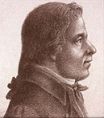

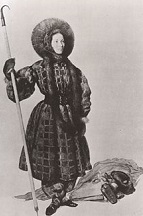









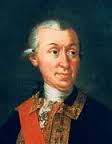



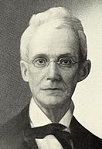
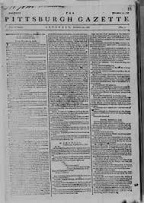




1786 On Jan. 16 the Religious Freedom Act of Thomas Jefferson and James Madison becomes law in Va., abolishing the state church and all religious tests; too bad, most other states keep their state churches, tests and all. On Jan. 3 the U.S. signs a treaty with the Chocktaw, on Jan. 10 with the Chickasaw, and on Jan. 31 with the Shawnee - who can say no to Great White Father Washington? On June 6 Mass.-born Nathaniel Gorham (1738-96) becomes pres. #8 of the United States under the Articles of Confederation (until Nov. 13, 1786). On June 8 Mr. Hall runs the first ads for commercially made ice cream in the U.S. in New York City. On July 4 Vermont (Vt.) adopts a constitution. On July 11 Morocco agrees to stop attacking U.S. ships in the Mediterranean for a jizya payment of $10K; on Aug. 18 after a debate about whether the U.S. should have a permanent navy to fight Muslim piracy instead of paying tribute, Thomas Jefferson writes to James Monroe: "The states must see the rod; perhaps it must be felt by some one of them... Every national citizen must wish to see an effective instrument of coercion, and should fear to see it on any other element than the water. A naval force can never endanger our liberties, nor occasion bloodshed; a land force would do both"; on Dec. 26 Jefferson writes to Ezra Stiles: "It will be more easy to raise ships and men to fight these pirates into reason, than money to bribe them." On July 29 the Pittsburgh Post-Gazette (originally the "Pittsburgh Gazette") is founded in Pittsburgh, Penn. by Joseph Hall and John Scull (1765-1828), becoming the first U.S. newspaper pub. W of the Allegheny Mts., starting out by pub. the new U.S. Constitution; in 1829-41 Neville Burgoyne Craig (1787-1863) becomes ed., backing the Anti-Masonic movement, turning it into an afternoon daily on July 30, 1833, then switching to morning in 1844 ater merging with the "Pittsburgh Post" (founded Sept. 10, 1842), backing the Whig Party before switching in the 1850s to the new Repub. Party., becoming one of the first papers to suggest that a civil war is coming; it goes on to win four Pulitzer Prizes, reaching a modern-day circ. of 173K daily and 317K on Sun. On Aug. 8 after a reward is offered by Swiss mountaineer Horace-Benedict de Saussure, 4,808m (15,774 ft.) Mont Blanc ("white mountain") near the French-Italian border, highest mountain in the Alps and W Europe is first ascended by Savoyards Jacques Balmat (1762-1834) and 3-time loser Michel-Gabriel Paccard (1757-1827), causing the king of Sardinia to give Balmat the title "le Mount Blanc", and the nearby town of Chamonix in E France to boom, launching modern mountaineering; on July 14, 1808 Marie Paradis (1778-1839) of Chamonix becomes the first female to reach the summit, along with Balmat, getting so sick that she begs to be thrown into a crevasse, but later becoming rich and famous, known as Mmaria de Mont Blanc; in 1838 Henriette d'Angeville (1794-1871) of Geneva becomes the 2nd woman to reach the summit, receiving congratulations from Paradis; by modern times it is ascended by 20K people/year. On Aug. 17 Prussian king (since 1740) Frederick II the Great (b. 1712) dies after uttering the famous last words: "I am tired of ruling over slaves"; he is succeeded by his handsome unmilitaristic artsy-fartsy nephew Frederick William II (1744-97), who ends his uncle's oppressive French system of taxation, lowers custom duties, removes his uncle's ban on the German language, admits German writers to the Prussian Academy, and other things that make him popular, but then appoints Rosicrucian Freemason mystic Johann Christof von Wollner (Wöllner) (1732-1800) (a professed orthodox Roman Catholic) as finance minister and de facto PM on Aug. 26, who gets kingy to begin a war against "enlighteners" and modernists. On Aug. 29 Capt. Daniel Shays (1747-1825) starts Shays' Rebellion in Mass. (ends June 1787) among disgruntled farmers, many of them Am. Rev. War vets, who were getting shafted economically by the merchant class when they had to pay a war tax in cash, and want to force the debtors' courts to close; as Thomas Jefferson puts it, "A little rebellion now and then is a good thing". In Aug. Thomas Jefferson (1743-1826), lonely since his wife (since 1772) Martha Wayles Skelton Jefferson (b. 1748) died in Sept. 1782 meets gorgeous married-to-a-twerp Italian-English artist-musician Maria Luisa Caterina Cecilia Cosway (nee Hadfield) (1760-1838), and they fall in love; one day he tries to impress her by jumping over a fence or a pool, and fractures his right wrist so badly that he has to learn to write with his left hand; too bad, he has to part with her on Oct. 4 as she leaves with her twerp hubby for Antwerp, after which he writes her a string of weird Jeffersonian love letters until he returns to Va. on Nov. 23, 1789 aboard the Clermont from Norfolk, Va. - all she can say is, he's not her kind? On Sept. 6 the Daily Hampshire Gazette is founded in Northampton, Mass. starting out with coverage of Shays' Rebellion. On Sept. 11-14 the Annapolis Convention in Md. at Mann's Tavern, called to develop uniform commercial regs among the states starts out limping when only five states send a total of 12 delegates, but Alexander Hamilton turns it into a success by getting a resolution passed to hold a constitutional convention in Philly next May to rewrite the Articles of Confederation "to render the constitution of the Federal Government adequate to the exigencies of the Union"; George Washington puts in his two cents regarding the confederate form of govt.: "We have, probably, had too good an opinion of human nature in forming our confederation." On Sept. 9 George Washington calls for the abolition of slavery. On Sept. 12 Lord Cornwallis is appointed gov.-gen. of India. On Sept. 24 he delivers his Am. black slave Jupiter Hammon (1711-1805) delivers Hammon's Address to the Negroes in the State of New York to the inaugural meeting of the African Society of New Yoork City, arguing for black slaves to be good Christians, with the soundbyte: "If we should ever get to Heaven, we shall find nobody to reproach us for being black, or for being slaves", and hoping for gradual emancipation, wishing that "the young negroes were free." On Sept. 26 France and Britain sign the Eden Treaty (a trade agreement) in London, negotiated by Pierre Samuel du Pont de Nemours, based on the principles of Adam Smith's "Wealth of Nations", ending the cent.-long economic war between the countries and substituting a system to reduce tariffs on both sides; too bad, it is so lopsided on the British side that it hurts the French economy, fomenting the French Rev.? Prussia recognizes the U.S. 300 former slaves are finally defeated at their fortified settlement in the Savannah River marshes. British Gen. Sir Guy Carleton (created 1st Baron Dorchester for his Am. Rev. War services) becomes gov. of Quebec (1786-91, 1793-96). Shogun (since 1760) Tokugawa Iyeharu (b. 1744) dies, and Tokugawa Iyenari (Ienari) (1773-1841) becomes shogun #11 of Japan (until 1837). The Tay Son army of Vietnam finally defeats the pesky Trinh army of N Vietnam, which flees to China, causing emperor Le Hien Tong to flee to China also, seeking aid to stage a comeback against the romantic never-slow-down-never-grow-old Tay Son brothers. The British East India Co. acquires Penang Island in the Malay Peninsula from the Rajah of Kedah; too bad it proves useless as a base. Sail away, sail away, sail away? The U.S. no longer welcoming British undesirables, the British govt. announces its plans to make Australia a penal colony. The King of England's Soldiers, The capital of Ga. is moved from Savannah to Augusta. The city of Dearborn, Mich. (modern-day pop. 98K) is settled by Europeans, named after U.S. Am. Rev. War. gen. Henry Dearborn (1751-1829); it becomes Dearborn Township in 1833, and Dearbornville village in 1836; in 1893 it is incorporated as a village, and in 1927 as a city, becoming the world HQ of the Ford Motor Co. The city of Knoxville, Tenn. (modern-day pop. 179K/868K) in the Tennessee Valley is settled by Rowan County, N.C.-born Am. Rev. War brig. gen. James White and James Connor, who build White's Fort; the city is incorporated in 1815; the arrival of the railroad in 1855 causes an economic boom. Mennonites from C Europe settle in Canada. Wool workers in Leeds complain about automation taking away their jobs. Marie-Augustin Marquis de Pelier of Brittany is arrested for whistling at Queen Marie Antoinette as she enters a theater, and spends the next 50 years in prison? Mohawk Chief Joseph Brant visits England, meeting prominent people and collecting funds which he uses to build the first Episcopal church in Upper Canada. Young Va. atty. John Marshall (b. 1755) distinguishes himself in the case of Hite v. Fairfax, in which he gets the claim of Lord Fairfax to the N neck of Va. upheld. James Wilkinson (1757-1825) purchases a 260-acre tract of land at Frank's Ford on the N side of the Kentucky River, which becomes Frankfort, Ky. Va. politician James Monroe (b. 1758) marries Elizabeth (Eliza) Kortright (1768-1830); they have no children. Francisco de Goya becomes a court painter for Charles III, working his way up to head painter by 1799, producing tapestry cartoons with candid views of everyday Spanish life, revolutionizing the tapestry industry, which up till then cloned Flemish scenes created by 17th cent. artist David Teniers. After outgrowing the Sturm und Drang stuff, Johann Wolfgang von Goethe (1749-1832) begins a journey of Italy in a search for new principles, visiting several cities in N Italy then settling in Rome, remaining until 1788 while visiting Naples and Sicily on the side, discovering the classic spirit of balance and perfection which trumps emotion, and changing his style. Future U.S. presidents Thomas Jefferson and John Adams visit Stratford-upon-Avon, England, and chip off a piece of Shakespeare's chair as a souvenir. Internal gas lighting is attempted in Germany and England. Molson Brewery is founded outside Montreal, Canada by English-born Unitarian Freemason John Molson (1763-1836), going on to become the oldest brewery in North Am., and the 7th largest brewery in the world by 2005, when it merges with Coors to become the Molson Coors Brewing Co. Sports: The First Golf Club in Am. is founded in Charleston, S.C. Architecture: The Berlin Court Theater opens. The Paris Catacombs underneath Paris (created in 1738 when limestone is quarried) have their roofs strengthened after some parts of Paris begin to sink, and begin to be filled with bodies removed from other burial grounds incl. recently closed (1780) Saints-Innocents in nightly processions, eventually housing 6M, the bones arranged in varied designs along the sides of the galleries. Am. Renaissance man Charles Willson [two ls] Peale (1741-1827) founds the American Museum, the first museum of nat. history open to the gen. public in the U.S. in Philadelphia, Penn. next door to Independence Hall, opening on July 18. The rebuilt neoclassical Somerset House in The Strand, London overlooking the Thames River (begun 1776) is completed after 20 years by Scottish-born Chinese-traveled Sir William Chambers (1723-96) and his pupil Thomas Hardwick Jr. (1752-1825) - who will get a rose and who will leave broken-hearted, find out when The Bachelor continues? Inventions: Am. inventor John Fitch (1743-98) develops the first Screw-Propeller Steamboat, which he launches on the Delaware River next Aug. 22 for delegates of the Continental Congress. Am. inventor Ezekiel Reed of Bridgewater, Mass. invents a nail-making machine, but it doesn't lower nail costs enough to replace wooden pegs. Am. inventor James Rumsey (1743-92) invents the first mechanically-driven boat. Science: On Feb. 2 Westminster, London-born Anglo-Welsh hyperpolyglot linguist Sir William Jones (1746-94) delivers a famous speech in Calcutta to the Asiatic Society, claiming a common source for the Sanskrit, Persian, Greek, Latin, Celtic, and German languages, with the soundbyte: "The Sanskrit language, whatever be its antiquity, is of a wonderful structure; more perfect than the Greek, more copious than the Latin, and more exquisitely refined than either, yet bearing to both of them a stronger affinity, both in the roots of verbs and the forms of grammar, than could possibly have been produced by accident; so strong indeed, that no philologer could examine them all three, without believing them to have sprung from a common source, which, perhaps, no longer exists; there is a similar reason, though not quite so forcible, for supposing that both the Gothic and the Celtic, though blended with a very different idiom, had the same origin with the Sanskrit; and the old Persian might be added to the same family." Italian scientist Luigi Galvani (1737-98) discovers that nerves transmit electricity, and goes on in 1789 to experiment on the muscular contraction of dead frogs. Swiss mountaineer and French lt. gen. Franz Ludwig Pfyffer (1716-1802) constructs the first Relief Map, a 3-D model of the Lake Lucerne area after working on it for 24 years. German scientist Karl Wilhelm Scheele (1742-86) discovers hydrocyanic acid; he dies on May 21, and it's no surprise, since he tasted or sniffed all his chemical discoveries, most of which others get credit for, causing Isaac Asimov to call him "hard-luck Scheele"; he actually dies from long-term mercury poisoning? Nonfiction: Georges Louis Leclerc, Comte de Buffon (1707-88), Histoire Naturelle des Oiseaux. Johann Wolfgang von Goethe (1749-1832), Italian Journeys; "See Naples and die!" William Herschel (1738-1822), Catalogue of Nebulae. John Hunter (1728-93), A Treatise on Venereal Disease; describes chancre and lymphogranuloma venereum. William Playfair, Commercial and Political Atlas (London); contains the first Bar Chart. Henry Thrale (1724-81), Anecdotes of the Late Samuel Johnson (Mar. 26); based on the diary "Thraliana" of his wife Hester (1741-1821). Adam Weishaupt (1748-1830), Apologie der Illuminaten. Music: Charles Dibdin (1745-1814), Liberty Hall (opera) (Feb. 8) (Drury Lane Theatre, London); incl. "Jock Ratlin'", "The Highmettled Racer", "The Bells of Aberdovey". Ditters von Dittersdorf (1739-99), Doctor und Apotheker (comic opera) (Vienna). Franz Joseph Haydn (1732-1809), The "Bear" Symphony in C major, Op. 82. Sir William Jones (1746-94), The Sanscrit Language; Greek, Latin, and Sanskrit have a common root, and that goes ditto for Gothic, Celtic, and Persian. Vicente Martin y Soler (1754-1806), Una Cosa Rara (comic opera); libretto by Lorrenzo Da Ponte; based on Luis Velez de Guevara's play "La Luna de la Sierra"; introduces the waltz to Vienna; Il Burbero di Buon Cuore (comic opera); based on a play by Carlo Goldoni. Wolfgang Amadeus Mozart (1756-91), The Marriage of Figaro (K492) (opera) (Vienna) (May 1); teams with Jew-turned-Catholic librettist Abbe Lorenzo Da Ponte (1749-1838) for this, plus Don Giovanni and Cosi Fan Tutte; Cherubino sings "Non So Piu" to explain why he goes for maidens, although it is a "breeches" role, played by women. Christian Friedrich Daniel Schubart (1739-91), Musikalische Rhapsodien (3 vols.). Art: Henry Fuseli (1741-1825), Titania and Bottom. Francisco de Goya (1746-1828), The Seasons (tapestries). John Hoppner (1758-1810), A Lady. Sir Joshua Reynolds (1723-92), The Duchess of Devonshire. Plays: John Burgoyne (1722-92), The Heiress; his greatest hit. Catherine II the Great (1729-96)), This It Is to Have Linen and Buck-Baskets; (Hermitage Theater, St. Petersburg); an adaptation of Shakespeare's "The Merry Wives of Windsor", written after reading Eschenburg's German translations of Shakespeare, becoming the first Russian play to credit Shakespeare's influence; she ends up writing four plays "in imitation of Shakespeare", incl. "Timon of Athens". George Colman the Younger (1762-1836) and Samuel Arnold (1740-1802), Turk and No Turk (musical comedy) (Little Theatre, Haymarket, London). Jean-Francois de La Harpe (1739-1803), Virginie. August von Kotzebue (1761-1819), Adelheid von Wulfingen. Poetry: Anon., The Anarchiad: A New England Poem (1786-7); by the Connecticut Wits. Gottfried Burger, Gedichte. Now I'm gonna love ya till the stars fall from the what? Robert Burns (1759-96) gives Jean Armour a marriage contract along with twins, but her father won't approve it, and Robert's mother takes in the babies; burdened with debt he resolves to emigrate to Jamaica as a bookkeeper, and to pay for his passage he pub. Poems Chiefly in the Scottish Dialect in Kilmarnock, Ayrshire on July 31, and its 612 copies sell out within a month, giving him instant fame, Edinburgh literati calling him the "Heavens-taught Ploughman", which pisses him off since he's not an untutored bard but just as good as them?; incl. To a Louse, To a Mouse ("The best laid schemes o'Mice an'Men/ Gang aft agley/ An' lea'e us nought but grief an' pain,/ For promis'd joy!"), To a Mountain Daisy, Hallowe'en, The Cotter's Saturday Night ("From scenes like these old Scotia's grandeur springs"), Holy Willie's Prayer; he adds 22 pieces for a new 1787 Edinburgh ed. by William Creech, which earns him £600, and he goes back to hooking up with with Jean Amour, who gives him another set of twins in the spring of 1787; he also fathers a couple more illegitimate children in Edinburgh. Hannah Cowley (1743-1809), The Scottish Village, or Pitcairne Green. Philip Morin Freneau (1752-1832), The Wild Honey Suckle; forerunner of the Transcendentalist movement. Hannah More (1745-1833), Bas-Bleu; Florio. Novels: William Thomas Beckford (1760-1844), Vathek; claims to write it in French in 3 days and 2 nights. Johann Musaus, Volksmarchen der Deutschen (fairy tales). John Trumbull (1750-1831), The Anarchiad (1786-7). Christoph Martin Wieland (1733-1813), Dschinnistan (1786-9); fairy tales, showing the triumph of rationalism over mysticism. Births: U.S. Supreme Court justice #26 (1837-65) John Catron (d. 1865) on Jan. 7 in Wythe County, Va. Am. financier (Quaker?) Nicholas Biddle (d. 1844) on Jan. 8 in Philadelphia, Penn.; ancestors immigrated with William Penn. French explorer rear adm. Louis Francois Marie Nicolas Le Goarant de Tromelin (d. 1867) on Jan. 11 in Morbihan, Gavrin. English historical painter-writer Benjamin Robert Haydon (d. 1846) on Jan. 26 in Plymouth. French mathematician-physicist-astronomer Jacques Philippe Marie Binet (d. 1856) on Feb. 2 in Rennes. German "Grimm's Fairy Tales" folklorist Wilhelm Carl Grimm (d. 1859) on Feb. 24 in Hanau, Hesse-Kassel; brother of Jakob Grimm (1785-1863); educated at the U. of Marburg. French physicist-astronomer and politician Francois Jean Dominique Arago (d. 1853) on Feb. 26 near Perpignan, Catalan. Polish nationalist historian Joachim Lelewel (d. 1861) on Mar. 22 in Warsaw; of Prussian descent. Italian astronomer-botanist-inventor Giovanni Battista Amici (d. 1863) on Mar. 25 in Modena; inventor of the direct vision prism. British brewer and MP (1818-37) (abolitionist) Sir Thomas Foxwell Buxton, 1st Baronet (d. 1845) on Apr. 1 in Castle Hedingham, Essex; Quaker mother; created baronet in 1840. U.S. Dem. vice-pres. #13 (1853) and U.S. Sen. (D-Ala.) (1819-44, 1848-52) William Rufus de Vane King (d. 1853) on Apr. 7 in Sampson County, N.C.; U.S. Sen. 1819-44, 1848-53; educated at the U. of N.C. English naturalist-explorer Rear Adm. Sir John Franklin (d. 1847) on Apr. 16 in Spilsby, Lincolnshire; knighted in 1829. Am. Pabst Brewing Co. founder Jacob Best Sr. (d. 1861) on May 1 in Mettenheim, Hesse-Darmstadt, Germany. German "Briefe aus Paris" Young Germany writer (Jewish-turned-Lutheran) Karl Ludwig Borne (Börne) (Loeb Baruch) (d. 1837) on May 6 in Frankfort-am-Main. Am. vulcanization and masticator inventor Thomas Hancock (d. 1865) on May 8 in Marlborough; brother of Walter Hancock (1799-1852). English actor-mgr. William Farren (d. 1861) on May 13 in London; son of William Farren (1725-). French liberal utilitarian economist Cahrles Dunoyer Barthelemy Charles Pierre Joseph Dunoyer de Segonzac (d. 1862) on May 20 in Carennac, Quercy (Lot); colleague of Auguste Comte. Am. abolitionist Arthur Tappan (d. 1865) on May 22 in Northampton, Mass.; brother of Lewis Tappan (1788-1873) and Benjamin Tappan (1773-1857). Am. statesman-diplomat Louis McLane (d. 1857) on May 28 in Smyrna, Del.; educated at the U. of Del. Am. gen. (Freemason) ("Fuss and Feathers") Winfield Scott (d. 1866) on June 13 near Petersburg, Va.; educated at the College of William and Mary. British Whig MP John Cam Hobhouse, 1st Baron Broughton (d. 1869) on June 27 in Redland (near Bristol); son of Sir Benjamin Hobhouse; educated at Westminster School and Cambridge U.; friend of Lord Byron (1788-1824); coiner of the phrase "His Majesty's Loyal Opposition" (1826). Am. frontiersman-politician David "Davy" Crockett (d. 1836) on Aug. 17 in Limestone, Greene County, N.C.; of French Huguenot (de Crocketagne) and Irish descent. Bavarian king (1825-48) Ludwig I (d. 1868) on Aug. 25 in Strasbourg; named after his godfather Louis XVI of France; son of Maximilian I (1756-1825) and Wilhelmine of Hesse-Darmstadt (1765-96); father of Maximilian II (1811-64). French fatty acid chemist Michel Eugene (Eugène) Chevreul (d. 1889) on Aug. 31 in Angers. Danish Classical-Romantic Danish Golden Age composer Friedrich Daniel Rudolf Kuhlau (d. 1832) on Sept. 11 S of Luneburg, Lower Saxony, Gerany; loses right ice at age 7 from a slip on ice; emigrates to Denmark in 1810. French embryologist Antoine Etienne (Étienne) Renaud Augustin Serres (d. 1868) on Sept. 12 in Clairac. Danish king (1839-48) and Norwegian king (1814) Christian VIII (d. 1848) on Sept. 18 in Copenhagen; son of Prince Frederick of Denmark (1753-1805) and Sophia Frederica of Mecklenburg-Schwerin (1758-94). French-Canadian leader Louis Joseph Papineau (d. 1871) on Oct. 7 in Montreal, Quebec; son of Joseph Papineau (1752-1841); grandfather of Hneri Bourassa (1868-1952). Austrian Hapsburg gen. ("the Hapsburg Tiger") ("the Hyena of Brescia") ("the Hangman of Arad") Julius Jacob von Haynau (d. 1853) on Oct. 14 in Kassel; illegitimate son of elector William I of Hesse-Kassel (1743-1821) and Rosa Dorothea Ritter. English adventurer (blind) ("the Blind traveller") James Holman (d. 1857) on Oct. 15 in Exeter; becomes blind at age 25. Am. gunsmith Henry Deringer (d. 1868) on Oct. 26 in Easton, Penn.; invents John Wilkes Booth's weapon of choice. Am. "To the victor belong the spoils" statesman William Learned Marcy (d. 1857) on Dec. 12 in Sturbridge (Southbridge), Mass.; educated at Brown U. German Romantic composer-pianist Carl (Karl) Maria Friedrich Ernst von Weber (d. 1826) on Nov. 18/19 in Eutin, Holstein; brother of Fridolin Weber, father of Josepha Weber, Aloysia Weber, Constanze Weber, and Sophie Weber. Russian "Orthodoxy, Autocracy and Nationality" statesman-writer (atheist) Count Serge Sergeyevich Uvarov (d. 1855); a total hypocrite? Japanese #1 woodblock artist Utagawa Kunisada (d. 1865). Am. Suquamish-Duwamish chief Seattle (Sealth) (Si'ahi) (d. 1866) in Blake Island, Wash. English adm. Sir Fairfax Moresby (d. 1877) in Calcutta, India; father of John Moresby (1830-1922). Am. "Life of a Slave" ex-slave writer (black) Moses Grandy (d. ?) in Camden County, N.C. Deaths: English-born Am. Rev. leader William Peters (b. 1702) in Philadelphia, Penn. French explorer Jean-Baptiste Charles Bouvet de Lozier (b. 1705). Portuguese architect Mateus Vicente de Oliveira (b. 1706). Prussian king (1740-86) Frederick II the Great (b. 1712) on Aug. 17 in Potsdam: "God is always with the strongest battalions"; "He who tries to defend everything, defends nothing." English composer John Stanley (b. 1712) on May 19. English astronomer Thomas Wright (b. 1712) on Feb. 25. Spanish gov. #1 of Alta Calif. (1767-70) Gaspar de Portola (b. 1716) in Lleida. Portuguese king (1777-86) Pedro III (b. 1717) on May 25 in Queluz. British adm. Augustus Keppel, 1st viscount Keppel (b. 1725) on Oct. 2. Am. Rev. War brig. gen. John Alexander Lillington (b. 1725) in N.C. English cabinetmaker George Hepplewhite (b. 1727) on June 21; his wife pub. a book with 300 of his designs in 1788, making him famous, even though until then he's a bum and none of his furniture survives to modern times? English writer-clergyman John Duncombe (b. 1729) on Jan. 19. German Jewish philosopher Moses Mendelssohn (b. 1729) on Jan. 4. Am. Rev. War Gen. Alexander McDougall (b. 1731). Am. Rev. War Gen. Nathanael Greene (b. 1742) on June 19 near Savannah, Ga. (heat stroke); Greenville, S.C. and Greensoboro, N.C. are named after him; his Mulberry Cove plantation near Savannah, Ga. (given to him in appreciation for his Rev. War service) later becomes the site of Eli Whitney's cotton gin invention. Swedish chemist Karl Wilhelm Scheele (b. 1742) on May 21 (chemical poisoning). Spanish military leader Bernardo de Galvez y Madrid (b. 1746) on Nov. 30 in Tacubaya, Mexico City, Mexico (poisoned?). Dutch-born English astronomer John Goodricke (b. 1764) on Apr. 20 (pneumonia) - the good die young?




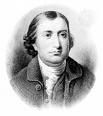











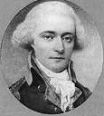


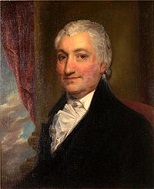

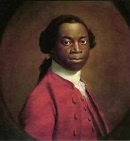






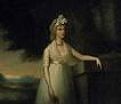

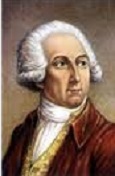


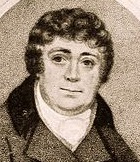

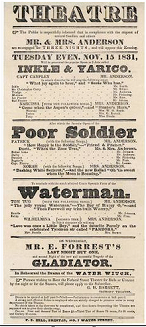







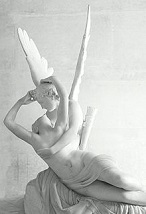

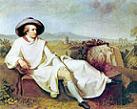

1787 Pop. of the U.S.: 3.894M. There is a famine in Md. this year, and another in Russia. On Jan. 25 Shays' Rebellion (begun Aug. 1786) is quashed after Capt. Daniel Shays and his ragtag army of 1.2K debt-ridden farmers try to seize a federal weapons arsenal in Springfield, Mass., and a small militia scatters them with a single volley that kills four, followed by Gen. Benjamin Lincoln mopping them up with reinforcements from Boston on Feb. 4 at Petersham, Mass.; the reactionaries in several state govts. suddenly become convinced federalists, seeing commie mobs under every bush, although the state legislature makes concessions to Shayites next year that pacify them; on Nov. 13 from Paris Jefferson writes a Letter to William S. Smith (son-in-law of John Adams), containing the soundbyte: "The tree of liberty must be refreshed from time to time with the blood of patriots and tyrants"; this attitude causes Abigail Adams to snub him for months? On Feb. 2 Scottish-born George Washington lookalike Arthur St. Clair (1736-1818) becomes pres. #9 of the United States under the Articles of Confederation (until Nov. 4, 1787). On Feb. 21 Congress approves a Constitutional Convention to meet on May 25 in Philadelphia, Penn. "for the sole and express purpose of revising the Articles of Confederation". On Feb. 28 (10 weeks before the Constitutional Convention in Philly opens) the U. of Pittsburgh (originally the Pittsburgh Academy until 1819, then Western U. of Penn. until 1908) in Pittsburgh, Penn. is founded in a log cabin by lawyer Hugh Henry Brackenridge (1748-1816), 1786 founder of the Pittsburgh Gazette, first newspaper W of the Appalachian Mts., becoming the oldest higher ed. inst. in the U.S. W of the Allegheny Mts. to survive to modern times; in 1966 it goes public. In Feb. after the Spanish Franciscans in Rome try in vain to stop him, French priest Pigneau de Behaine reaches Versailles, France, and talks Louis XVI into how he can "dominate the seas of China and the archipelago" by backing Nguyen Anh's comeback to the Vietnamese throne, and in Nov. a treaty of alliance is concluded in which France promises four frigates and 1.65K soldiers plus 250 Indian sepoys in return for concessions; too bad, the French gov. of Pondicherry refuses to carry out the deal, forcing Pigneau to get backing from French mechants, who equip two ships for him, and he's soon on the sea highway - seven rivers to cross, sometimes you get lost? In Mar. up-and-coming British Navy capt. Horatio Nelson (b. 1758) marries physician's widow Frances Nisbet (1761-1831) in Nevis, West Indies; she already has a 5-y.-o. son Josiah. In Apr. a Vice Admiralty Court is created in New South Wales, Australia, which continues till 1911; on May 13 the First Fleet leaves Portsmouth, England with 750 convicts bound for Australia's Botany Bay. On May 15 a group of "Black Poor" from London (incl. some African-Am. slaves freed by the British for fighting for their side in the Am. Rev.) accompanied by some English tradesmen financed by the St. George's Bay Co. arrive off the coast of Sierra Leone ("Lion Mountains") in Africa, and in Aug. found Freetown on the coast after British Anti-Slavery Society leader Granville Sharp (1735-1813) leases some land from a local tribal chief; too bad, disease and hostile natives virtually wipe the group out, causing former African-Am. N.C. slave Thomas Peters (Potters) (1738-92) to found the Sierre Leone Co. to recruit another group to try it again in 1792, after which the 1807 abolition of the slave trade by Britain causes British ships to start delivering thousands of African "recaptives" to Freetown after liberating them from illegal slave ships. The Constitution Solution at long last shows how white men with big blue eyes and a heart of gold can think about us? On May 25 the U.S. Constitutional Convention opens in Independence Hall in Philadelphia, Penn. with 29 delegates from nine states (average age 42) (swells to 55 from 12 states by the end, avg. age 44 - all except R.I.) (27 college grads) (34 lawyers) (over half Am. Rev. War vets), originally intending to rewrite the Articles of Confederation but deciding to write a new constitution instead; John Adams and Thomas Jefferson are absent because they are serving abroad; George Washington (nominated by Robert Morris and unanimously chosen pres.) stays in Philly as a guest of delegate Robert Morris, and doesn't take part in debates, although he consults in private; Alexander Hamilton, a prime mover in getting the convention called, attends irregularly and makes unpersuasive arguments?; James Madison's voice is so weak that no one can hear him?; Ben Franklin is too weak to stand and make a speech, asking other delegates to read for him?; Patrick Henry of Va. "smelt a rat" and refuses to attend (along with three other delegates), gets James Monroe to make several lengthy arguments against ratification, and later demands that it be investigated as a conspiracy, but then changes his mind and supports both the Constitution and the Bill of Rights; the windows are kept shut allegedly to keep out horseflies but actually to preserve secrecy?; Ben Franklin (81) is the oldest delegate, and he travels in a sedan chair brought from Paris?; the youngest delegate is Jonathan Dayton (1760-1824) of N.J.; the convention delgates are divided between federalists (strong "energetic" central govt.), inc. George Washington and James Madison of Va., Alexander Hamilton and Gouverneur Morris of N.Y., James Wilson (1742-98) of Penn., Rufus King (1755-1827) of Mass., and indigo grower Charles Cotesworth Pinckney (1746-1825) of S.C., and states' rightsers, incl. William Paterson (1745-1806) of N.J., John Dickinson (1732-1808) of Del. (the dude who refused to sign the DOI but came around late after being appointed brig.-gen. in the Continental Army as a joke, resigning, then moping around for two years), Luther Martin (1748-1826) of Md., and John Ten Eyck Lansing Jr. (1754-1829) and Robert Yates (1738-1801) of N.Y. (who pull N.Y. out of the convention and never sign the constitution); on May 29 big-state men Edmund Jennings Randolph (1753-1813) and James Madison (1751-1836) of Va. introduce the Virginia Plan of proportional representation in Congress; on June 15 small-state man William Paterson (1745-1806) of N.J. counters with the New Jersey Plan of equal numbers of members for each state; Hugh Williamson (1735-1819) of N.C. plays a key role in the large vs. small state debate; on June 18 Alexander Hamilton introduces a plan for a strong executive elected for life, but it is rejected, and he walks out with the New York delegation because of their states' rights principles; on June 28 Benjamin Franklin rises to his feet and leads a prayer, which causes the members to quit stonewalling and begin making progress, causing Washington to call it a miracle (if it weren't for the Christian faith, there would have been no U.S. Constitution?); too bad for blacks, on July 12 very Christian James Madison introduces the Three-Fifths Compromise, counting three-fifths of a state's slave pop. in apportioning representation; on July 16 self-taught lawyer Roger Sherman (1721-93) and state superior court judge Oliver Ellsworth (1745-1807) of medium-state Conn. introduce the Great (Connecticut) Compromise, setting up the House of Representatives and the Senate based on the Va. and N.J. plans, respectively, and incorporating the three-fifths plan; Randolph acts like the big man and stubbornly opposes a compromise; Madison's Notes of the Debates in the Federal Convention cause him to become known as the Father of the Constitution, and he observes that the decision to make the chief executive a single person causes "considerable pause", with Va. planter ("the gentleman revolutionary") ("the reluctant statesman") George Mason (1725-92), who worries about it becoming a "fetus of monarchy". Angels with dirty faces, English style? On June 1 King George III issues a Proclamation for the Encouragement of Piety and Virtue and for the Preventing of Vice, Profaneness, and Immorality, drafted by William Wilberforce (1759-1833), decrying "every kind of vice which, to the scandal of our holy religion, and to the evil example of our loving subjects, have broken upon this nation"; Whig Lord FitzWilliam scoffs at it, saying "The only way to reform morals is to ruin purses." On June 6 Franklin College in Lancaster, Penn. is founded by four members of the German Lutheran and Reformed Churches after Benjamin Franklin donates £200; in 1836 Marshall College in Mercersburg, Penn. is founded, named after U.S. Chief Justice John Marshall; on June 7, 1853 they merge as Franklin and Marshall College, with future U.S. pres. James Buchanan as pres. #1. On June 20 Conn. atty. Oliver Ellsworth (1745-1807) moves the Federal Convention to strike the word "National" from "National Government of the United States" and substitute "United States Government". In June English Unitarian MP William Smith (1756-1835) (grandfather of Florence Nightingale) becomes one of the first to advocate an end to the slave trade, becoming friends with 4'11" William Wilberforce (1759-1833), MP since 1780 (a shrimp who becomes a whale when giving speeches, according to James Boswell), who is converted to Christianity by "evangelical Dr. Johnson" abolitionist mathematician (7th Lucasian prof. of mathematics and pres. of Queens' College, Cambridge U.) Isaac Milner (1750-1820), then meets former slave trader and clergyman John Newton (1725-1807), author of "Amazing Grace", and makes a tour of England reading the Bible regularly, becoming convinced that slavery is wrong and devoting his life to ending it, even though virtually every businessman in England makes some income from it; his cause of "the abolition of the slave trade and the reformation of manners" attracts Grenville Sharp, Zachary Macaulay, Thomas Clarkson, Sir William Dolben et al., and they research the necessary legislation; each year Wilberforce makes a motion to abolish slavery, which is handily defeated despite his eloquent and moving speeches, and he decides to go directly to the people with his case, causing Josiah Wedgewood to design the black-yellow Jasper Wedgewood Slave Medallion, a cameo depicting a slave kneeling and crying "Am I not a man and a brother?", and poet William Cowper next year to write The Negro's Complaint; a boycott of slave-produced sugar gains a following of 300K across England; 519 petitions are brought to Congress, and in 1792 it finally relents and passes Wilberforce's motion, after adding the word "gradually"; too bad, the French Rev. and the West Indies slave revolts turn Parliament against him, and they flip-flop, and final victory takes until 1807 - may the force be with you? Angels with dirty faces, American style? On July 13 the U.S. Northwest Ordinance of 1787 creates the Northwest Territory (Ohio River Valley) (future U.S. states of Ohio, Ind., Ill., Mich. and Wisc.) as an area free of slavery; on Aug. 23 Congress forbids itself from ending the Atlantic slave trade until 1808, and requires fugitive slaves to be returned to their owners; it is approved in Federal Hall in 1789. On July 23 delegates from New Hampshire finally arrive at the Constitutional Convention after the action's all but over, but get to sign it first as they are the most northern? On July 30 the French parliament refuses to approve a more equitable land tax and demands that the king summon the Estates-General; on Sept. 4 Louis XVI recalls Parliament and declares that the Estates-General will be summoned in July 1792. On Aug. 6 the first draft of the U.S. Constitution is submitted to the Constitutional Convention in Philly after 87 days of drafting. On Aug. 10 the Seventh Russo-Turkish War (ends 1792) begins after Turkey declares war on Russia; Austria joins Russia next year, while Sweden and Prussia side with Turkey but provide no assistance. On Aug. 11 George III of England creates the diocese of Nova Scotia, with loyalist Charles Inglis (1734-1816), former rector of Trinity Church in New York City as its first bishop, becoming the first Church of England bishop in North Am. The most momentous event in human history since Eden, and the genius of compromise is enshrined in a monarchy (president), oligarchy (Senate), and democracy (House of Reps.) wedded into a menage a trois? On Sept. 15 after Gouverneur Morris makes the final revision of the draft and writes the Preamble, the U.S. Constitution is approved by the Constitutional Convention in Philly; that evening the 55 delegates party at a tavern, drinking 54 bottles of Madeira, 60 bottles of claret, eight bottles of whiskey, 22 bottles of porter, eight bottles of hard cider, 12 bottles of berr,and seven bowls of alcoholic punch"; on Sept. 17 "an assembly of demi-gods" (Jefferson), presided over by George Washington assembles, and 12 of 13 states (R.I.) sign it (a total of 39 signers, not incl. John Hancock, who only signed the DOI), with Washington going first, followed by the states going from N to S; George Reed signs for John Dickinson of Del., who is sick; Maj. William Jackson (1759-1828) of S.C., secy. of the convention (later Pres. Washington's 1st term private secy.) is the 40th signer; George Mason of Va. refuses to sign because it doesn't have a bill of rights, like he drafted for Va. in 1776, and which he later becomes the father of; Edmund Randolph of Va. refuses because it gives the pres. too much power; Elbridge Gerry of Mass. refuses because it gives the federal govt. too much power and has insufficient protection for the liberties of the people (to gerrymander?); Howard Chandler Christy (1873-1952) paints a famous Portrait of the Signing of the U.S. Constitution; in 1936 Barry Faulkner (1881-1966) paints a 14 ft. x 35 ft. Mural of the Signers of the U.S. Constitution for the rotunda of the Nat. Archives in Washington, D.C.; Ben Franklin weeps after he signs it, then delivers a moving address, saying, "I have happiness to know that it is a rising and not a setting sun"; the delegates celebrate at the City Tavern; it is pub. on Sept. 19, delivered to the Congress in New York City on Sept. 20 as part of a 6-page report along with a letter from Washington, and submitted to the states for ratification on Sept. 28 after efforts to censure the convention for exceeding its authority are defeated; after the convention adjourns, Washington predicts that the Constitution won't last for more than twenty years; the words "federal" and "democracy" are not mentioned in the final version, as the govt. is assumed to be a republic with qualified electors appointing officials, and everybody knows that the new constitution's aim is to correct the defects of the old one by strengthening the federal govt.?; the federal govt. is given 20 different powers, not jillions like it comes to believe by the 20th cent.?; Penn. State Assembly asst. clerk and calligrapher Jacob Shallus (1750-96) is hired for $30 to "engross" (write out in large letters on a parchment with ink using a turkey feather quill) the actual document, four pages measuring 29" x 24" (check out that cool "We the People") (page two has 1,054 words); the U.S. Constitution has seven articles and a total of 24 sections, and doesn't mention God, Christ or the Bible, although it is dated "In the year of our Lord"; I: the Congress (10 sections) (a rep. must be 25-y.-o. and a U.S. citizen for 7 years, a senator must be 30-y.-o. and a citizen for 9 years); II: the President (4); III: the Courts (3); IV: Interrelation between state and federal govt., Full Faith and Credit (Sect. 1), "Privileges and Immunities" (Sect. 2), Admission of New States (Sect. 3), "Republican form of govt." guaranteed for each state (Sect. 4); V: Amendment Process (1), VI: Supreme Law of the Land et al. (1), VII: Manner of Establishment (ratification by 9 of the 13 original states) (1); the Preamble uses eight key verbs (form, establish, insure, provide, promote, secure, ordain, establish) and six key goals (Union, Justice, Tranquility, Defence, Welfare, Liberty); originally it listed the states ("We the People of the United States of New Hampshire, Massachusetts, Rhode Island and Providence Plantations, etc."): "We the People of the United States, in Order to form a more perfect Union, establish Justice, insure domestic Tranquility, provide for the common defence, promote the general Welfare, and secure the Blessings of Liberty to ourselves and our Posterity, do ordain and establish this Constitution for the United States of America"; the Am. Founding Founders score a 5K Year Leap, making possible more human progress in the next 200 years than in the last 5K? - feel a little bit dance schooley? On Sept. 30 Am. fur-trading ship Lady Washington, captained by Robert Gray (1755-1806), and fur-trading ship Columbia Rediviva, captained by John Kendrick (Kenrick) (1740-94) are sent by a group of Boston merchants incl. Charles Bulfinch from Boston, Mass. to trade pelts on the Pacific Northwest coast and take them to China, based on Capt. Cook's success in selling otter pelts in Canton; on Aug. 9, 1790 Gray arrives in Canton, trading his cargo for tea, continuing on a round-the-world voyage and arriving in Boston on Aug. 9, 1790 with a Hawaiian islander he parades through Boston, becoming the first Am. vessel to circumnavigate the globe. On Oct. 1 an Ottoman fleet lands troops on the Kinburn Spit in the Crimea, but after heroic actions by wounded gen. Count Alexander Vasilievich Suvorov (1729-1800) (who is rescued by Russian grenadier Novikov then stays on the battlefield commanding the troops), they are finally thrown back into the sea; on Dec. 17 the Russians take Ochakov in S Ukraine and ochakov, er, massacre the pop. On Oct. 5 Arthur St. Clair is voted gov. of the new Northwest Territory. On Oct. 27 The Federalist Papers, a series of 85 2K-word political essays promoting the proposed new Constitution begin to be pub. in New York City newspapers under the alias Publius over the next two years (last in July 1788); the authors are Alexander Hamilton (51 of 85: 1, 6-9, 11-13, 15-17, 21-36, 59-61, 65-85), James Madison (26: 10, 14, 37-58, 62-3), and John Jay (5: 2-5, 64) (nos. 18-20 are written jointly by Madison and Hamilton); Jay would have written more but he takes sick in the fall, and Madison likewise but he has to leave the Congress in New York and return to Virginia in Mar. 1788; No. 10 (Madison) features the argument that republics work better in large inhomogeneous nations because no single faction can succeed in dominating; No. 51 (Madison) contains the quote, "Ambition must be made to counteract ambition"; No. 70 (Hamilton) argues that a single energetic executive unhampered by a council is needed; No. 78 (Hamilton) is a brilliant defense of judicial review; No. 85 (Hamilton) brings the series to a close with an appeal to get the Constitution passed now and let amendments be made later, saying, "A nation without a national govt. is, in my view, an awful spectacle. The establishment of a Constitution, in time of profound peace, by the voluntary consent of a whole people, is a prodigy, to the completion of which I look forward with trembling anxiety." On Nov. 29 Louis XVI promulgates an edict of tolerance giving civil status to Protestants. On Dec. 7 after letters and speeches by John Dickinson, "Blue Hen State" Delaware (Del.) becomes the first state to ratify the U.S. Constitution and be admitted, followed by #2 "Keystone State", "Coal State", "Birthplace of the U.S. State" Pennsylvania (Penn.) on Dec. 12, and #3 "Garden State" New Jersey (N.J.) on Dec. 18 - quick, hand me dela pen? I don't wanna be thoid? On Dec. 20 a revival breaks out among the Shakers of New Lebanon, Ind., spreading to Ky. and other frontier regions; the first Shaker song is written by Father James Whittaker, titled "In Yonder Valley". The New York Assembly imposes duties on foreign goods. Amar Singh (1774-98) becomes ruler of S India; during his reign Three Brahmin musicians, Thyagaraja (1767-1847), Muthuswami Dikshitar (1775-1835), and Syama Sastri (1762-1827) begin reforming the art of Carnatic (Karnatic) music. Catherine II the Great visits the Crimea and tours Potemkin's artificial villages - see the adult video? Nguyen Angh signs a treaty with the French giving them the city of Da Nang (Tourane). Lord Dunmore, former colonial gov. of Va. becomes gov. of the Bahamas (until 1796). Louis XVI revokes a 1752 edict of Louis XV and declares Protestant marriages legal. Victor Marie du Pont de Nemours (1767-1827), son of economist Pierre Samuel enters the French diplomatic service as attache to the French legation in the U.S., going on to become first secy. of the legation in 1795 and French consul in Charleston, S.C., where he talks his daddy into emigrating. Alexander Hamilton forms the Federalist Party, backed by urban bankers and businessmen (ends 1816); John Adams becomes the only Federalist U.S. pres. Thomas Paine returns via Paris to England, where he nourishes ambitions of rabble-rousing on the Continent? Horace-Benedict de Saussure (1740-99) reaches the summit of Mont Blanc, where he makes scientific weather observations - it's colder than a witch's teat? The city of Dnepropetrovsk (Ekaterinoslav until 1925, Dnipro since May 2016) is founded on the Dnieper River 243 mi. SE of Kiev in SC Ukraine by the Cossacks (modern-day pop. 980K/1.4M)). The Society for the Abolition of the Slave Trade is founded in Britain; Benjamin Franklin becomes pres. of the Penn. Society for Promoting the Abolition of Slavery, saying, "When you're finished changing, you're finished." William Samuel Johnson (1727-1819) of Conn. becomes pres. #1 (until 1800) of Columbia College (formerly King's College) in New York City. The term "Americanism" is coined for the emerging new vocabulary of American English (lot, caucus, bluff, swamp, et al.), as well as the American habit of speaking with a twang or nasal drawl; Thomas Jefferson coins the word "belittle" in a work pub. this year. I love making Tylenol, I put love into this product? French king Louis XVI has a nervous breakdown; meanwhile his queen Marie Antoinette begins to wake up and smell the bread baking, and sits for a portrait with her children while wearing single earrings and no necklace as a desperate attempt to counter all the propaganda about her being a spendthrift self-absorbed sexually aggressive slut with a voracious uterus. Benjamin Franklin allegedly delivers the Franklin Prophecy to the Constitutional Convention, warning that the pesky Jews are going to infiltrate and take over the U.S. within a cent.; it actually never appears until 1934 in the pro-Nazi weekly Liberation, ed. by William Dudley Pelley? The Fugio Cent becomes the first official U.S. coin, meant to displace coins struck by individual states in the 1780s; the Brasher Doubloon becomes the rarest and most valuable U.S. coin by the 20th cent. The Merovingian Order of the Holy Grail is founded. Violoncello-loving Luigi Boccherini (1743-1805) becomes court composer in Berlin. Thomas Jefferson sends a letter from Paris, noting that he can't find any corn (maize) in Europe, mentioning his corn garden in Va. and how likes it boiled on the cob and eaten with salt. Sports: The Marylebone Cricket Club in Dorset Square, London is founded by Thomas Lord (1755-1832), who plays his first game on May 31 for Middlesex against Essex, and moves to Lord's cricket ground; co-founders incl. Charles Lennox, 4th Duke of Richmond (1764-1819); the club pub. the 42 Laws of Cricket next May 30, and copyrights them - changing them laws ain't cricket? Inventions: On Aug. 22 John Fitch (1743-98) demonstrates his steamboat for delegates of the Continental Congress on the Delaware River. William Blake's brother Robert dies, causing him to slip into a deep sleep for three days and nights, awakening to tell of seeing Robert's soul rising from his body "clapping his hands for joy"; he then claims that his bro' gave him the idea for Relief Etching (Illumined Printing), using an engraved copper plate for printing both text and illustrations, thus bypassing a commercial printer, although limiting the number of copies since each has to be hand-painted with watercolors? Edmund Cartwright (1743-1823) of England invents the Power Loom, featuring driving shafts driven by water; too bad, pissed-off weavers burn down a cotton mill using it, and it works poorly, taking until 1813 for William Horrocks to perfect it, adapting it to steam by 1822; in 1813 there are 2.4K power looms in use, followed by 12,150 in 1820, 45.5K in 1829, 85K in 1833, and 250K in 1850; British cotton exports zoom from £355K in 1781 to £7M in 1801, and £23.4M in 1841; meanwhile, the woolen industry lags behind in automation, with many hand looms still in use in 1850. Tribologist John Garnett invents the first roller bearings. At the Constitutional Convention, George Washington sees a Fan Chair (worked by pedals) and orders one, using it until his death; Ben Franklin and artist Charles Willson Peale also use them. Science: French physicist Jacques Alexandre Cesar (César) Charles (1746-1823) discovers Charles' Law, describing the relationship between gas volume and temperature. Ernst Chladni (1756-1827) experiments with sound patterns on vibrating plates. On Jan. 11 William Herschel discovers Uranus' moons Titania and Oberon, naming them after Shakespeare's "A Midsummer Night's Dream". Nonfiction: John Adams (1735-1826), A Defence of the Constitutions of Government of the United States. Jean-Sylvain Bailly (1736-93), A Treatise on Indian and Oriental Astronomy. Jeremy Bentham (1748-1832), Defense of Usury. Jonathan Edwards Jr. (1745-1801), A Study of the Mohegan Language; claims that Algonquin is distinct from Iroquoian. Carlo Goldoni (1707-93), Memoirs (Paris). Imperial Russian Dictionary (initiated by Catherine II the Great); 285 words in 200 languages. Antoine Lavoisier (1743-94), Methode de Nomenclature Chimique; his brainy wife Mariane is the real head of the team, and helps him devise the modern system of nomenclature in collaboration with Claude Louis Berthollet, Louis B. Guyton de Morveau, and Anton de Fourcroy. James Madison (1751-1836), Vices of the Political System of the United States. Comte de Mirabeau (1749-91), Sur la Monarchie Prussienne sous Frederic le Grand (4 vols.); based on materials given to him by Maj. Mauvillon on a secret 1786 French govt. mission to Berlin. Count de Volney (1757-1820), Voyage en Egypte et en Syrie; his trip to Egypt and Syria (incl. Lebanon and Palestine) in 1782-5; "Palestine is a ruined and desolate land"; "The peasants are incessantly making inroads on each other's lands, destroying their corn, durra, sesame and olive-trees, and carrying off their sheep, goats and camels. The Turks, who are everywhere negligent in repressing similar disorders, are attentive to them here, since their authority is very precarious. The Bedouin, whose camps occupy the level country, are continually at open hostility." Music: Franz Joseph Haydn (1732-1809), The Prussian Quartets, Nos. 36-41, Op. 50; The Seven Last Words of Christ, Op. 51. Vicente Martin y Soler (1754-1806), L'Arbore di Diana (comic opera). Wolfgang Amadeus Mozart (1756-91), Don Giovanni, Il Dissoluto Punito (opera) (greatest ever?) (Estates Theatre, Prague) (Oct. 29) (conducted personally); starts with serial rapist Don Giovanni pursuing Donna Anna, and ends with a Statue from Hell taking him down; incl. Vedrai Carino; A Little Night Music (Eine Kleine Nachtmusik) (Serenade No. 13 for strings in G major) (K.525). Art: Thomas Barker of Bath (1769-1847), Woodman and His Dog in a Storm. William Blake (1757-1827), The Approach of Doom; his first attempts at relief etchings sans text. Antonio Canova (1757-1822), Pope Clement XIV (sculpture); makes him a star; Psyche Revived by Love's Kiss. Jacques-Louis David (1748-1825), The Death of Socrates. Alexander Nasmyth (1758-1840), Robert Burns. Henry Raeburn (1756-1823), Portrait of the Second Lord President Dundas (Edinburg). Sir Joshua Reynolds (1723-92), Lady Heathfield. Johann Heinrich Wilhelm Tischbein (1751-1829), Goethe on the Roman Ruins in Campagna. Plays: Samuel Arnold (1740-1802) and George Colman the Younger (1762-1836), Inkle and Yarico (opera) (London) (Aug.); London-bred Inkle and his servant Trudge are left on a cannibal island, and he falls in love with Yarico, then must choose between her and his betrothed Narcissa in Barbados. Pierre-Augustin Caron de Beaumarchais (1732-99), Tarare (comedy). Johann Wolfgang von Goethe (1749-1832), Egmont (poetic drama); Flemish martyr Lamoral, Count of Egmont (1522-68); in 1810 an overture based on it by Beethoven debuts. Johann Christoph Friedrich von Schiller (1759-1805), Don Carlos (Mannheim); unlucky Spanish prince Don Carlos de Austria (1545-68). Novels: Aagje Deken (1741-1804) and Betje Wolff (1738-1804), Abraham Blankaart. Wilhelm Heinse (1749-1803), Ardinghello und die Gluckseligen Inseln; his biggest hit; set in 16th cent. Italy. Births: U.S. Mass. gov. #14 and #17 (1834-5) and U.S. Sen. (Whig-Mass.) (1835-41) John Davis (d. 1854) on Jan. 13 in Northborough, Mass.; educated at Yale U.; husband (1822-) of Eliza Bancroft, sister of George Bancroft; father of John Chandler Bancroft Davis, Hasbrouck Davis, and Horace Davis; ancestor of Gherardi Davis (1858-1941), Henry Cabot Lodge Jr., and John Davis Long. French archeologist Jean Antoine Letronne (d. 1848) on Jan. 25 in Paris. English "Elements of Logic" logician-economist-theologian and Anglican archbishop of Dublin (1831-) Richard Whately (d. 1863) on Feb. 1 in London; educated at Oriel College, Oxford U. Am. DeWitt Colony founder Green DeWitt (d. 1835) on Feb. 12 in Lincoln County, Kan.; grows up in Mo. Am. educator and women's rights activist Emma Hart Willard (d. 1870) on Feb. 23 in Berlin, Conn. James Davis (d. 1862) on Mar. 6; first black Am. born in the state of Ohio. German physicist Joseph (Josef) Ritter von Fraunhofer (d. 1826) on Mar. 6 in Straubing (near Munich), Bavaria; father is a glazier, and the large family is too poor to pay for his education, so he ends up apprenticed at age 11 to a mirror maker in Munich, rising to foreman at 20 and dir. at 22. German surgeon Karl Ferdinand von Grafe (Gräfe) on Mar. 8 in Warsaw. English artist William Etty (d. 1849) on Mar. 10 in York; student of Sir Thomas Lawrence (1769-1830); first significant British painter of nudes and still lifes. English #1 stage actor Edmund Kean (d. 1833) on Mar. 17 in London; son of actress Anne Carey. English traveller-scholar Claudius James Rich (d. 1821) on Mar. 28 near Dijon, France; grows up in Bristol. Am. journalist-politician Neville Burgoyne Craig (d. 1863) on Mar. 29 in Pittsburgh, Penn.; educated at Princeton U. Am. frontiersman Erastus "Deaf" (pr. DEEF) Smith (d. 1837) on Apr. 19 in Dutchess County, N.Y.; grows up in Port Gibson (near Natchez), Miss.; one of Sam Houston's most reliable scouts. English clergyman (of carriage fame) FitzRoy Henry Richard Stanhope (d. 1864) on Apr. 24. Austrian field marshal Alfred I (Alfred Candidus Ferdinand), Prince of Windisch-Graetz (Windisch-Grätz) (d. 1862) on May 11 in Brussels. Swedish chemist Nils Gabriel Sefstrom (Sefström) (d. 1845) on June 2 in Ilsbo, Halsingland; student of Jakob Berzelius. English geologist Rev. William Daniel Conybeare (d. 1857) on June 7 in London; educated at Westminster School, and Christ Church, Oxford U. U.S. Navy secy. #7 (1823-9) Samuel Lewis Southard (d. 1842) on June 9 in Basking Ridge, N.J. Am. naturalist (Quaker) Thomas Say (d. 1834) on June 27 in Philadelphia, Penn. English lt. gen. Sir Harry Smith (Henry George Wakelyn Smith), 1st Baronet of Aliwal (d. 1860) on June 28 in Whittlesey, Cambridgeshire. Italian statesman and utilitarian philosopher Pellegrino Rossi (Luigi Edoardo Pellegrino, Count Rossi) (d. 1848) on July 13 in Carrara, Tuscany; educated at the U. of Pisa, and U. of Bologna. German ironmaster Friedrich Krupp (d. 1826) on July 17 in Essen; founder of the Krupp family of munitions makers. U.S. Sen. (R-Conn.) (1843-9) and U.S. postmaster gen. #9 (1840-1) John Milton Niles (d. 1856) on Aug. 20 in Windsor, Conn. English Weddell Sea seal hunter-explorer James Weddell (d. 1834) on Aug. 24 in Ostend. Russian statesman-gen.-adm. prince Alexander Sergeyevich Menshikov (d. 1869) on Aug. 26. German "Das Schloss am Meer", "Der Gute Kamerad" Romntic poet Johann Ludwig Uhland (d. 1862) on Aug. 26 in Tubingen. U.S. atty. gen. #15, #22 (1841, 1850-3) and Ky. gov. #17 (1848-50) John Jordan Crittenden (d. 1863) on Sept. 10 near Versailles, Ky.; educated at the College of William and Mary. English Buckingham Palace, Lambeth Palace architect Edward Blore (d. 1879) on Sept. 13 in Derby; son of Thomas Blore (1754-1818). French historian and liberal PM #22 (1847-8) Francois Pierre Guillaume Guizot (d. 1874) on Oct. 4 in Nimes; Protestant parents. English "Home Sweet Home" composer Sir Henry Rowley Bishop (d. 1856) on Nov. 18 in London. French photography pioneer Louis Jacques Mande (Mandé) Daguerre (d. 1851) on Nov. 18 in Cormeilles-en-Parisis, Val-d'Oise. British shipping magnate Sir Samuel Cunard, 1st Baronet (d. 1865) on Nov. 21 in Nova Scotia, Canada. Danish philologist Rasmus Christian Rask (d. 1832) on Nov. 22 in Braendekilde, Funen Island; co-founder of the science of comparative linguistics. Austrian schoolteacher and "Silent Night" lyricist Franz Xaver Gruber (d. 1863) on Nov. 25 in Hochburg-Ach, Upper Austria. Am. maj. gen. Bennet C. Riley (d. 1853) on Nov. 27 in St. Mary's County, Md.; 6th and last military gov. of Calif. (1849). Am. Am. School for the Deaf founder Rev. Thomas Hopkins Gallaudet (d. 1851) on Dec. 10 in Philadelphia, Penn.; son of Peter Wallace Gallaudet (1756-1843); grows up in Hartford, Conn.; educated at Yale U., and Andover Theological Seminary; father of Thomas H. Gallaudet (1922-1902) and Edward Miner Gallaudet (1837-1917). English Socialist political economist Thomas Hodgskin (d. 1869) on Dec. 12 in Chatham, Kent; educated at Edinburgh U. English "Our Village" writer Mary Russell Mitford (d. 1855) on Dec. 16. Czech Purkinje Effect physiologist Jan Evangelista Purkinje (Purkyne) (d. 1869) on Dec. 17 in Libochovice, Bohemia. Russian explorer Capt. Otto von Kotzebue (d. 1846) on Dec. 30 in Reval (Tallinn), Estonia. Am. politician-atty. Barnard Elliot Bee Sr. (d. 1853) in Charleston, S.C.; son of Thomas Bee (1739-1812); father of Barnard E. Bee Jr. (1824-61) and Hamilton Prioleau Bee (1822-97); grandfather of Carlos Bee (1867-1932). Serbian rebel Toma Vucic-Perisic (d. 1859) in Baric. Am. Santa Fe Trail pioneer trader William Becknell (d. 1865) in Amherst County, Va. Belgian Neoclassical painter Francois Joseph Navez (d. 1869) in Cherleroi; pupil of Jacques-Louis David; teacher of Jean-Francois Portaels. Deaths: Italian Catholic theologian St. Alphonsus di (Alfonso de) Liguori (b. 1696) on Aug. 1 in Nocera de' Pagani; canonized in 1839; created Doctor of the Church in 1871. Italian painter Pompeo Batoni (b. 1708) on Feb. 4 in Rome; bequeaths his palette and brushes to Jacques-Louis David. English bishop Robert Lowth (b. 1710) on Nov. 3. Croatian scientist Roger Boscovich (b. 1711) on Feb. 13 in Milan, Italy. German-born Am. Lutheran clergyman Henry Melchior Muhlenberg (b. 1711) on Oct. 7 in Trappe, Penn. English portraitist Arthur Devis (b. 1712) on July 25 in Brighton. German organist Christoph Gluck (b. 1714) on Nov. 15 in Vienna. French Marshal Charles de Rohan, prince de Soubise (b. 1715). English brewer William Bass Jr. (b. 1717) on Mar. 2 in Burton-on-Trent. French diplomat-statesman Charles Gravier, comte de Vergennes (b. 1717) on Feb. 13. French marshal Francois-Gaston de Levis (b. 1719) on Nov. 26 in Arras. Austrian violinist-composer (Wolfy's dad) Leopold Mozart (b. 1719) on May 28. Spanish miniser Jose de Galvez (b. 1720) on June 17 in Aranjuez. English type-founder and chocolatier Joseph Fry (b. 1728) on Mar. 27 in Bristol.















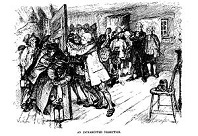
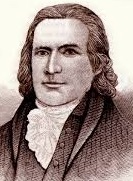
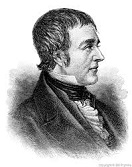

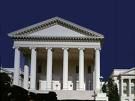

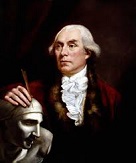
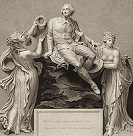

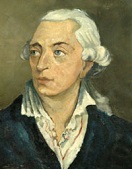
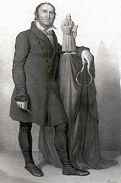

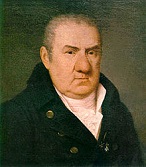
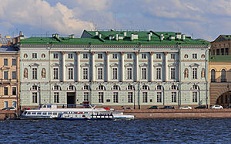
1788 France begins sinking into an economic depression just as the independent U.S. is taking off, and George III's hereditary metabolic disorder of porphyria is causing him to begin periodically losing his mind; this year he is spotted having a conversation with an oak tree - he was in good mental condition when he lost the American colonies? 11 of the original 13 states join the U.S. in seven months, but it's a tough fight (D-P-NJ-G-C-MA-MD-SC-NH-VA-NY-R-NC)? On Jan. 2 "Peach State" Georgia is admitted as the 4th U.S. (slave) state; "Nutmeg State" Conn. on Jan. 9 as the 5th (free); "Bay State" "Old Colony State" Mass. on Feb. 7 as the 6th (free) by a 187-168 vote; "Old Line State" "Free State" Maryland on Apr. 28 as the 7th (slave); "Palmetto State" S.C. on May 23 as the 8th (slave); "Granite State" New Hampshire on June 21 as the 9th (free); on July 2 the Constitution is legally ratified in Augusta, Ga., but without the approval of Va. (the largest state) and New York (3rd largest), it won't fly; luckily, after Edmund Randolph flip-flops when he hears about a proposed Bill of Rights (17 amendments) by James Madison (1751-1836), Patrick Henry can't hold the state back, and on June 25 "Old Dominion" (later "Birthplace of Seven Presidents") Va. votes 89-79 to ratify, being admitted as the 10th (slave) state; on July 26 after DeWitt Clinton composes the opposition prayer: "From the insolence of great men - from the tyranny of the rich - from the unfeeling rapacity of the excise-men and tax-gatherers - from the misery of despotism - from the expense of supporting standing armies, navies, placemen, sinecures, federal cities, senators, presidents, and a long train of etceteras, Good Lord deliver us" "Empire State" New York ratifies by a 30-27 vote after Alexander Hamilton and his Federalists tell them that the caravan will leave with or without them, and comes in as the 11th (free) state; "Ocean State" "Little Rhody" Rhode Island rejects ratification on Mar. 24 (until May 29, 1790); "Tar Heel State" N.C. votes to postpone ratification on Aug. 2 until a Bill of Rights is submitted to Congress (Nov. 21, 1789); "Green Mountain State" Vermont proves to be a slow as molasses in January and takes until Mar. 4, 1791 (gotcha, it wasn't one of the original 13). Is there any continent on Earth not being taken over by whitey? On Jan. 18 (8 mo. after setting sail on May 13, 1787) the 11-ship First Fleet containing the first white English (European) settlers (732 convicts), led by British Navy Capt. (later Adm.) Arthur Phillip (1738-1814) of the Sirius arrive in Botany Bay in SE Australia (New Holland), and on Jan. 26 after realizing there's no water or secure anchorage they move to Port Jackson, and land the marines and convicts at Sydney Cove, which Phillip names in honor of British home secy. (1783-9) catch-the-mystery-of-white (well-meaning angel or devil?) Thomas Townshend, 1st Viscount Sydney (1732-1800), who appointed him gov. #1 of New South Wales (until 1792), which he rules from Port Jackson, while his marines guard the farmer-prisoners, who become Australia's first settlers; the first horses in Australia arrive with the First Fleet from Cape Town, South Africa; on Feb. 15 Capt. Phillip sends men to establish a 2nd colony in Norfolk Island, and claims Australia E of 135 E longitude for Britain, establishing Botany Bay Penal Colony as a place to dump English undesirables a good safe 13K mi. from London; Sydney (modern-day pop. 5M) becomes the first British settlement in Australia, with Sydney Hospital established on George St. on The Rocks as a tent hospital before being moved to Macquarie St. in 1811; the newcomers (who are watched by the indigenous Eora Tribe, which Phillip makes a hanging offense for his men to kill) have virtually no clothes or equipment, are covered with vermin and riddled with disease, are not farmers, and the seed brought on the journey is spoiled by sea-damp and fails to germinate; they do bring along 100 Bibles and 100 copies of the bestseller "Exhortation to Chastity", but who can read, and since there aren't enough women for the men, Capt. Phillip writes back to England to send women of childbearing age, and of course they send whores; finding the marines also undisciplined slackers, Phillip, uttering the soundbyte "In a new country there will be no slavery and hence no slaves" sets some convicts up as overseers, and also sets up two civil courts where prisoners can get around the usual laws against felons being able to sue, beginning the gradual process of emancipation, which is helped by the little fact that after the convicts serve their sentences they find it too expensive to leave, causing Australia to become known as "the country where people got stuck", and their usually illegimate children to become known as cornstalks. On Jan. 22 Va.-born Cyrus Griffin (1749-1810) becomes the 10th and last pres. of the United States under the Articles of Confederation (till Nov. 2). On Jan. 31 "Young Pretender" Bonnie Prince Charlie (b. 1720) dies in Rome, leaving his brother Cardinal (since 1747) Henry Benedict Stuart (1725-1807), bishop of Frascati as the sole surviving heir to the Jacobite claim, and he begins calling himself Henry IX of England and Henry I of Scotland; when he dies he leaves the crown Jewels to the Church, and George IV (still prince regent) is sent a few. Win some, laperouse some? In Jan. La Perouse's ships reach Botany Bay, and he writes a letter dated Feb. 7; his ships are both wrecked at Alpha Ceti 6, er, Alpha Ceti 5, er, Vanikoro Island in the Solomon Islands N of the New Hebrides, and he is never seen again; the wreckage is discovered in 1826. On Feb. 15 one of the biggest assemblies in English history in the House of Commons is addressed by Edward Burke, who gives the opening speech in the impeachment of Warren Hastings (1732-1818), England's first gov.-gen. of India on charges of corruption and abuse of office; the speech lasts through four sittings, and Hastings is acquitted after an 8-year trial, where Charles James Fox backs impeachment; Gen. John Burgoyne participates in the proceedings. On Feb. 19 after being imprisoned in the Bastille for 4 mo. for anti-govt. propaganda and fleeing to England, French rev. journalist Jacques Pierre Brissot (alias de Warville) (1754-93) founds the Societe des Amis des Noirs (Society of the Friends of the Blacks) to promote abolition. On Mar. 4 the first U.S. land patent is issued to John Martin (1789-1854), reserving one-third of all gold, silver, lead and copper. On Apr. 13 the 1788 Doctors' Riot sees a mob storm Columbia College medical school in New York City to protest the practice of grave robbing for human dissection practice, and 6-20 die in the ensuing riot, while the medical students are locked in jail to protect them; next year New York passes a strict statute against grave robbing. In Apr. ailing Benjamin Franklin donates £5 to the Congregation Mikveh Israel (founded 1740) for its new synagogue in Philadelphia; during the July 4 celebrations as per arrangements made by Franklin, "the clergy of different Christian denominations, with the rabbi of the Jews, walked arm in arm" in the parade past his window. In June John Adams finally returns to the U.S. and his Abigail for good, and they settle on Richmond Hill (modern Greenwich Village), with a nice view of the Hudson River, along with sons Charles, John Quincy and Thomas, and daughter Nabby. In June after several MPs visit a slave ship in London to see the terrible conditions, and Richard Pennant, Baron Penrhyn, representing the West Indian lobby (an owner of 8K acres in Jamaica, with 600 slaves) gives a speech about how happy Africans are to be shipped away as slaves, causing angry PM William Pitt to threaten to resign, Parliament passes a bill sponsored by Sir William Dolben (1726-1814) regulating the number of slaves that can be transported per ship for one year, which only mobilizes the pro-slave lobby more, causing them to gain the upper hand until 1792; "Things have come to a pretty pass when religion is allowed to invade public life" (Lord Melbourne); the slave trade employs 3.5K sailors and 160+ ships, with a human cargo worth £800K a year. In June Robert Burns, after finally collecting his fee from printer William Creech, the only money he makes from his poems, leases a farm in Ellisland, which is a loser, forcing him to take up tax collecting next year as his health deteriorates; in Nov. 1791 he is assigned to service in Dumfries, and gives up the farm. On July 2 the United States (U.S.) Constitution is ratified (per Article VII) by the required nine states after New Hampshire takes it over the top and becomes the 9th state to ratify it on June 21. On July 6 10K troops are called out in Paris to control unruly crowds protesting poverty and lack of food; on July 15 Louis XVI jails 12 deputies who protest new judicial reforms; on Sept. 23 Louis XVI declares the Parliament restored, and it meets in triumph the next day. On July 9 Frederick William II of Prussia issues the Wollner (Wöllner) Edict, proclaiming the need to protect Christianity from modernists, and prohibiting ministers from preaching anything not contained in their official pubs.; on Dec. 18 a censorship law is enacted. On Aug. 25 after Riverhead, N.J.-born John Cleves Symmes (1742-1814) of N.J. (father-in-law of Pres. William Henry Harrison) negotiates the 330K-acre Symmes (Miami) Purchase (Ohio River to Great Miami River to Little Miami River) from Congress for $225K, and Morristown, N.J.-born surveyor Israel Ludlow (1765-1804) surveys the 1.5M-acre Ludlow Survey (Scioto River to Little Miami River) for the Ohio Co. of Associates, separated from the Symmes Purchase by the disputed Ludlow Line, the city of Cincinnati, Ohio at the N side of the confluence of the Licking and Ohio Rivers (modern pop. 296K/2.1M) is founded by Col. Robert Patterson (1753-1827), surveyor John Filson (1747-88), and Mathias Denman, settled on Dec. 28 by 26 more people, and named Losantville ("city opposite the mouth of the Licking River") by Filson, then renamed in 1790 by Arthur St. Clair after the 1783 Society of the Cincinnati, becoming the first U.S. boomtown; it is incorporated as a village in 1802, and as a city in in 1819; as settlers from N.J. and other mideastern U.S. states purchase 1M acres along the Ohio River and establish several settlements, Cincinnati becomes the Gateway to the South for steamboats on the Ohio, which are introduced in 1811, with its pop. zooming from 9,642 in 1910 to 24,831 in 1830 and 115K in 1850; in 1827 the Miami and Erie Canal opens, connecting Cincinnati with Middletown and Toledo. On Sept. 13 the Congress of the Confederation authorizes the first U.S. nat. election, and declares New York City the temporary nat. capital after Kingston, N.Y. (90 mi. to the N) is considered and rejected; on Oct. 10 the Confederation Congress holds its last session; on Nov. 2 the position of Cyrus Griffin as pres. of the U.S. "in Congress assembled" is eliminated, and next year he is appointed commissioner of the Creek nation, the judge of the U.S. Court for the district of Va. in Dec. 1789 until his death on Dec. 14, 1810. On Sept. 17 the Battle of Karansebes (Karánsebes) (Caransebes) in Romania sees an Austrian army of 100K go crazy after soldiers buy schnapps from some gypsies, causing a fight which ends up being mistaken for a Turkish attack by multi-nat. troops unable to understand each other's speech, causing the whole army to flee and HRE Joseph II to be pushed off his horse into a creek; the real Turks arrive on Sept. 19, finding 10K dead or wounded, winning without firing a shot. On Dec. 14 Spanish king (since 1759) Charles III (b. 1716) dies, and his 2nd son Charles IV (1748-1819) becomes Bourbon king #4 of Spain (until Mar. 19, 1808). On Dec. 23 the state of Md. cedes an area "not exceeding ten miles square" for the seat of the federal govt.; about two-thirds becomes the District of Columbia. HRE Joseph II enters the Sixth Russo-Turkish War on Catherine II's side; Sweden declares war on Russia. George III has his 2nd bout of madness (1765) when he gets out of a coach in Windsor Park and addresses an oak tree as his talented cousin Frederick II the Great of Prussia; he then begins to talk ever faster, once talking for 24 straight hours; when his wastrel son the Prince of Wales tries to console him, he tries to throttle him, and is put in a straightjacket, causing Prinny to dress up in expectation of becoming king for two days and nights, but the old fart doesn't die, even though he is never quite sane again, and drives through the streets to a service of Thanksgiving amid a loud cheering parade? Yussef Chehab abdicates, and Bashir Chehab (Shihab) II (1767-1850) is elected as emir #6 of Lebanon and wali of Mt. Lebanon, the Beqaa Valley, and Jabal Amel under Ottoman suzerainty (until 1840); he and his family convert from Sunni Muslim to Marionite Christianity at the end of the cent. The Qajar Dynasty rulers of Iran make Tehran their capital; they rule Iran until the 1920s. Ohio ("good river") and Iowa ("beautiful land") are settled; Marietta, Ohio, the first settlement in Ohio is named for Marie Antoinette. After the pesky Iroquois are forced into Canada, where Britain gives them a large land grant on the Grand River, the city of Rochester, N.Y. (modern-day pop. 210K/1.1M) is first settled by English Puritans from New England, it is incorporated as a village on Mar. 21, 1817, and as a city on Apr. 28, 1834 after reaching a pop. of 9.2K, becoming the largest flour-producing city in the U.S. by 1838, known as "the Flour City", and "the Young Lion of the West" for doubling its pop. in 10 years, becoming the first U.S. boomtown; by 1850 it becomes known as "the Flower City" for its nurseries; it goes on to become the home of revivalist Charles Finney, Frederick Douglass, Susan B. Anthony, John Jacob Bausch and Henry Lomb, George Eastman, and Emma Goldman. Mass. rep. Rufus King helps procure ratification of the U.S. Constitution by the Mass. Convention, then moves to New York City, and in 1789 is elected to the U.S. Senate as a Federalist. The 1788 Mass. Immigration Law requires foreigners to register, and prohibits those likely to seek public relief; in 1794 it is amended to authorize forcible removal of poor people. The Chimney Sweepers Act of Britain is passed in Britain, limiting child workers to age eight, with parental consent required, suitable clothing and living conditions supplied by the master sweep, and time off for church services on Sundays. The Marshall Islands in the W Pacific, E of the Caroline Islands are discovered by British explorer Capt. John William Marshall. John Paul Jones enters the Russian navy to fight the Turks (until 1790). The city of Charleston, W. Va. at the confluence of the Elk and Kanawha Rivers (modern-day pop. 51K/222K) is founded as Ft. Lee, becoming the seat of Kanawha County, and the state capital of W. Va.; members of the Kanawha County Assembly incl. Daniel Boone. After settling in 1785 on the Mississippi River opposite the modern-day Wisc.-Ill. boundary on the site of modern-day Dubuque, Iowa (modern-day pop. 57K/96K), French-Canadian Quebecois pioneer Julien Dubuque (1762-1810) receives permission from the local Meskwaki tribe and the Spanish govt. to mine lead; after the Meskwaki are forced out of the region in 1830, the first permanent settlement is founded in 1833. After the N.C. assembly chooses it as the site of the new capital to replace New Bern (1743), the city of Raleigh, N.C. (modern-day pop. 403K/2.2M), located on land owned by Wakefield mansion owner Joel Lane is named in honor of Sir Walter Raleigh; it is chartered on Dec. 31, 1792. British explorer Capt. Thomas Gilbert discovers the atoll of Tarawa, capital of the 33-island C Pacific Ocean nation of Kiribati (pr. "KEE-REE-bahs"). Daniel Boone settles near Point Pleasant, Va. (W. Va.) (until 1798). The flowering plants Hortensia (Hydrangea) and Fuchsia are imported to Europe from Peru. The Linnean Society, named after Swedish naturalist Carl Linnaeus (1707-78) is founded in England to pub. works on botany and zoology. After Floyer Sydenham, translator of Plato's Dialogues dies in a debtors' prison, Welsh philosopher David Williams (1738-1816) founds the Royal Lit. Fund to help published British writers out of financial difficulties. Goethe returns to Weimar and inaugurates the classical period of German lit. despite some initial opposition, dumping stale Frau von Stein for voluptuous young Christiane Vulpius (1765-1816), who bears him a son in 1789, and whom he marries in 1806 after the brat grows up, apparently because she lets him have affairs with novelist Bettina Brentano von Arnim (1785-1859) (daughter of a former mistress), publisher Christiane Friederike Wilhelmine "Minna" "Minchen" Herzlieb (1789-1865) (foster daughter of Jena publisher Karl Ernst Friedrich Frommann) et al. After King (1760-1820) George III begins suffering from bouts of insanity, Shakespeare's "King Lear" is banned from the British stage (until 1820). The first German cigar factory opens in Hamburg. Joel Barlow of Conn. travels to France as agent for the Scioto Land Co., and induces French settlers to settle Gallipolis, Ohio (Fr. "city of the Gauls"), and they arrive next Oct. 17; too bad, his exposure to France makes him a Freethinking Rationalist, later becoming a friend of Thomas Paine. Spanish composer Vicente Martin y Soler (d. 1806), in Vienna since 1785 is invited to become the Russian court composer at St. Petersburg, where he stays for the rest of his life, turning on Catherine the Great. Architecture: Prussian architect Carl (Karl) Gotthard Langhans (1732-1808) begins the Neoclassical Brandenburg Gate (Brandenburger Tor) (originally the Friedenstor or Peace Gate, dedicated to Eirene, goddess of peace) in Berlin (finished 1791), commissioned by Friedrich Wilhelm II to represent peace, based on the Propylaea in Athens, becoming the first structure in Langhans' "Athens on the River Spree"; it features six Doric columns and five passageways on each side, of which the public is only allowed to use the outermost two; a Quadriga (chariot pulled by four horses) sits atop the gate, sculpted by Berlin-born sculptor Johann Gottfried Schadow (1764-1850); it is built on the site of a a former city gate that marked the start of the road from Berlin to Brandenburg an der Havel, capital of the margaviate of Brandenburg; after the fall of Hitler in 1945, it ends up incorporated into the Berlin Wall by the Commies. Giacomo Quarenghi (1744-1817), Hermitage Theatre (1783-7); built on the Palace Embankment of the Neva River in St. Petersburg in place of the Third Winter Palace of Peter II the Great to replace the Russian Imperial Theatre; inspired by Andrea Palladio's Teatro Olimpico in Vicenza. The Richmond, Va. State Capitol, designed by Thomas Jefferson is finished, modeled on the ancient Maison Caree Roman temple in Nimes, France, becoming the first example of Neoclassical architecture in the U.S. Inventions: James Watt invents the centrifugal governor for steam engines. Nonfiction: William Blake (1757-1827), There Is No Natural Religion; All Religions Are One; his first experiments with combining text with relief etchings to create cool illuminated mss. George Hepplewhite (1727-86), The Cabinet Maker and Upholsterer's Guide; or Repository of Designs for Every Article of Household Furniture, in the Newest and Most Approved Taste (posth.); his 300 best designs, incl. shield-back chairs, making him a star. Immanuel Kant (1724-1804), Critique of Practical Reason; claims that pure practical reason must not be restrained like pure theoretical reason, but cultivated, founding deontological moral philosophy, making a fan of Johann Gottlieb Fichte. Thomas a Kempis (1380-1471), Imitatio Christi (folio ed.) (posth.); pub. by Pierre Francois Didot (1732-93). Baron Adolph Knigge (1752-96), On Human Relations (Uber den Umgang mit Menschen); the philosophical basis of good manners, causing the term "Knigge" to be coined for good manners. Bernard Germain de Lacepede (1756-1825), Histoire des Quadrupedes, Ovipares et des Serpents (2 vols.) (1788-9). Pierre Simon de Laplace (1749-1827), Laws of the Planetary System; tries to prove that the Solar System is stable, but leaves some terms out to make the equations manageable, which later turn out to prove that it isn't? John Lempriere (1765-1824), Bibliotheca Classica (Classical Dictionary Containing a Full Account of All the Proper Names Mentioned in Ancient Authors) (Nov.); becomes a std. work for dramatists, poets, teachers, and journalists for the next 200 years; makes a fan of John Keats. Gaspard Monge (1746-1818), Traite Elementaire de la Statique. Hannah More (1745-1833), Thoughts on the Importance of the Manners of the Great to General Society. Rev. Dr. John Trusler, The Honours of The Table or Rules For Behavior During Meals; with the Whole Art of Carving Illustrated by a Variety of Cuts. Thomas Reid (1710-96), Essays on the Active Powers of Man. Mercy Otis Warren (1728-1814), Observations on the New Constitution; pub. under the alias "A Columbian Patriot"; claims that a powerful central govt. will trample the rights of the states and people and argues for pure republicanism, later backing anti-Federalist Thomas Jefferson. Music: Luigi Cherubini (1760-1842), Demophoon (Démophoon) (opera) (Grand Opera, Paris); libretto by Jean-Francois Marmontel; his first tragedy; a success, getting him a job as dir. of the Theatre de Monsieur in the Tuileries next year, followed by the Theatre Feydeau in Paris in 1792; incl. Dirce Duet. Wolfgang Amadeus Mozart (1756-91), Symphony No. 39 in E flat major, K.543 (June 26); "Great" Symphony No. 40 in G minor, K.550 (July 25) (his 2nd and last minor key symphony); Piano Sonato No. 16 in C major, K.545; Symphony No. 41 in C major ("Jupiter"), K.551 (Aug. 10) (his last symphony, by Jove?); his three great symphonies, all composed in the summer of 1788, none ever performed under his direction; Divertimento for String Trio in E flat major, K.563; and The Trios, K.496, K.548, K.564. Giovanni Paisiello (1740-1816), La Molinara (opera) (Naples); incl. Nel Cor Piu Non Mi Sento. Art: Thomas Banks (1735-1805), Shakespeare Attended by Painting and Poetry; commissioned by John Boydell for 500 guineas for his Shakespeare Gallery in Pall Mall, which opens in May 1789; the pedestal reads: "He was a Man, take him for all in all, I shall not look upon his like again"; moved in 1871 to the garden in Shakespeare's home of New Place, Stratford-upon-Avon. Jacques-Louis David (1748-1825), Love of Paris and Helena. Francisco de Goya (1746-1828), The Duke and Duchess of Osuna with Their Children. Sir Joshua Reynolds (1723-92), Death of Cardinal Beaufort in 1447; based on Shakespeare's "Henry VI, Pt. II". Plays: George Colman the Younger (1762-1836), Ways and Means. Poetry: William Collins (1721-59), Ode on the Popular Superstitions of the Highlands of Scotland (posth.). William Cowper (1731-1800), The Negro's Complaint; "Still in thought as free as ever,/ What are England's rights, I ask,/ Me from my delights to sever,/ Me to torture, me to task?/ Fleecy locks and black complexion/ Cannot forfeit nature's claim;/ Skins may differ, but affection/ Dwells in white and black the same." Hannah More (1745-1833), Slavery; a Bluestocking who is friends with William Wilberforce and Zachary Macaulay lets slavers have it; "If heaven has into being deign'd to call/ Thy light, O LIBERTY! to shine on all;/ Bright intellectual Sun! why does thy ray/ To earth distribute only partial day?"; "While the chill North with thy bright ray is blest,/ Why should fell darkness half the South invest?/ Was it decreed, fair Freedom! at thy birth,/ That thou shou'd'st ne'er irradiate all the earth?/ While Britain basks in thy full blaze of light,/ Why lies sad Africa quench'd in total night?" Novels: Thomas Day (1748-89), History of Little Jack, a Foundling; another children's book. August von Kotzebue (1761-1819), Geschichte Meines Vaters. Bernardin de Saint-Pierre (1737-1814), Jacques-Henri Bernardin de Saint-Pierre (1737-1814), Paul and Virginia (Paul et Virginie); about young friends-since-birth lovers on Mauritius who live harmoniously with Nature on the eve of the French Rev., becoming a popular children's novel; "She had read Paul et Virginie, and she had fantasized about the little bamboo cottage, the Negro Domingo, the dog Fidèle, but even more the sweet friendship of some good little brother who would go and gather ripe fruits for you from great trees taller than spires, or who would run barefoot in the sand, bringing you a bird's nest." Births: French utopian Socialist writer (founder of the Icarian Movement) Etienne (Étienne) Cabet (d. 1856) on Jan. 1 in Dijon. U.S. war secy. #17 (1841-3) and treasury secy. #16 (1843-4) John Canfield Spencer (d. 1855) on Jan. 8 in Hudson, N.Y.; son of Ambrose Spencer (1765-1848); educated at Union College. British hydrographer-astronomer-numismatist Adm. William Henry Smyth (d. 1865) on Jan. 21 in Westminter, London. English "Don Juan", "She Walks in Beauty" high-living free-loving water-loving flamboyant Romantic poet (first modern celeb, launching Byromania) George Gordon Byron (Noel), 6th Baron Byron (OE "cow barn") (d. 1824) on Jan. 22 in London; son of army Capt. "Mad Jack" Byron (a notorious libertine) and Catherine Gordon (half-mad); grandson of adm. "Foulweather Jack"; grandnewphew of William, Lord Byron (1788-1824), from whom he inherits title and estates; educated at Harrow College (1801-5) and Trinity College, Cambridge U. (1805-18); husband (1815-16) of Anne Isabelle Noel Byron (nee Milbanke) (1792-1860); father of Augusta Ada King, Countess of Lovelace (1815-52); born with a malformed (club) foot, which doesn't keep him out of sports, and ends up as his trademark, getting copied by would-be poets; spends his young (pre-30) adulthood in an alcoholic fog; wears curlers in bed. British Conservative PM (1834-5, 1841-6) Sir Robert Peel, 2nd Baronet (d. 1850) on Feb. 5 in Chamber Hall, Bury, Lancashire; son of Sir Robert Peel, 1st baronet (1750-1830); father of the English Bobbies. German Odic Force naturalist-industrialist Baron Karl (Carl) Ludwig von Reichenbach (d. 1869) on Feb. 12 in Stuttgart; educated at the U. of Tubingen; discoverer of paraffin, phenol, eupione, pittacal, etc., all from tar; coins the term "od" for the force in Nature that manifests itself in hypnotism, magnetism, and light. erman "The World as Will and Representation" pessimistic The-Universe-Isn't-Rational philosopher (atheist) Arthur Schopenhauer (d. 1860) on Feb. 22 in Danzig (Gdansk); educated at the U. of Gottingen - he didn't need to see the U.S. Civil War or the World Wars to know he was right? South Am. rev. liberator Jose Francisco San Martin y Matorras (d. 1850) on Feb. 25 in Yapeyu, Corrientes. French physicist Antoine Cesar (César) Becquerel (d. 1878) on Mar. 7 in Chatillon sur Le Crea (Chatillon-Coligny); father of physicist Alexandre Edmond Becquerel (1820-91); grandfather of physicist Antoine Henri Becquerel (1852-1908). German "Life of a Good-for-Nothing" poet-novelist Baron Joseph Karl Benedikt von Eichendorff (d. 1857) on Mar. 10 near Ratibor, Upper Silesia. French chemist Pierre Joseph Pelletier (d. 1842) on Mar. 22; discoverer of caffeine, quinine, and strychine - the ultimate cocktail? Spanish pretender Don Carlos Maria Isidro de Borbon (Borbón), Conde de Molina (d. 1855) on Mar. 29 in Madrid; son of Charles IV of Spain (1748-1819); brother of Ferdinand VII (1784-1833). Thai Chakri king #3 (1824-51) Rama III (Nangklao) (Jessadabodindra) (d. 1824) on Mar. 31 in Bangkok; son of Rama II (1767-1824) and Chao Chom Riem; brother of Rama IV (1804-68); known for keeping his money in big red bags beside his bed. German Nazarene painter Franz Pforr (d. 1812) on Apr. 5 in Frankfurt am Main. French-German painter Baron Charles (Carl) Auguste Guillaume de Steuben (d. 1856) on Apr. 18 in Bauerbach, Thuringia; teacher of Gustave Courbet. French mathematician-physicist Augustin Jean Fresnel (d. 1827) on May 10; inventor of Fresnel mirrors. Am. Gadsden Purchase diplomat-soldier James Gadsden (d. 1858) on May 15 in Charleston, S.C.; grandson of Am. Founding Father Christopher Gadsden (1724-1805). Scottish explorer Bain Hugh Clapperton (d. 1827) on May 18 in Annan, Dumfriesshire. Am. Quaker abolitionist James Mott (d. 1868) on June 20 in North Hempstead, Long Island, N.Y.; husband of Lucretia Mott (1793-1880). French projective geometry mathematician Jean-Victor Poncelet (d. 1867) on July 1 in Metz; educated at Ecole Polytechnique. Swiss Nazarene painter Georg Ludwig Vogel (d. 1879) on July 10 in Zurich. English ornithologist Prideaux John Selby (d. 1867) on July 23 in Alnwick, Northumberland; educated at Univ. College, Oxford U. English historian (Jewish) Sir Francis Palgrave (Francis Ephraim Cohen) (d. 1861) in July in London; son of Jewish stockbroker Meyer Cohen; in 1823 marries Elizabeth Turner, daughter of banker Dawson Turner (1775-1858) and converts to Anglicanism, adopting his wife's mother's maiden name; father of Francis Turner Palgrave (1824-97), William Gifford Palgrave (1826-88), Sir Inglis Palgrave (1827-1919), and Sir Reginald Palgrave (1828-1904); knighted in 1832. Italian cardinal Luigi Ciacchi (d. 1865) on Aug. 16 in Pesaro. Am. clergyman (Disciples of Christ co-founder) Alexander Campbell (d. 1866) (AKA Clarinda) on Sept. 12 in Ballymena, County Antrim, Ireland; son of Thomas Campbell (1763-1854); educated at the U. of Glasgow; founder of Bethany College (1840); emigrates to the U.S. in Aug. 1809. U.S. First Lady (1849-50) Margaret Mackall Smith "Peggy" Taylor (d. 1852) on Sept. 21 in Calvert County, Md.; wife (1810-) of Pres. Zachary Taylor. English "Peregrine Bunce" novelist-humorist Theodore Edward Hook (d. 1841) on Sept. 22 in London; son of James Hook (1746-1827); educated at Harrow School and Oxford U. British gen. (Crimean War CIC) Fitzroy James Henry Somerset, 1st Baron Raglan (d. 1855) on Sept. 30 in Badminton; educated at Westminster School; created baron in 1852; known for his no-seams-at-the-shoulder raglan coat. Scottish theologian Thomas Erskine (d. 1870) on Oct. 13 in Linlathen; educated at the U. of Edinburgh. Scottish "The Constitution of Man" phrenology leader George Combe (d. 1858) on Oct. 21 in Edinburgh; educated at the U. of Edinburgh. Am. "Mary Had a Little Lamb" writer Sarah Josepha Hale (d. 1879) on Oct. 24 in Newport, N.H.; ed. of "Godey's Lady's Book" (1837-77). Venezuelan gen. Rafael Jose Urdaneta y Faria (d. 1845) on Oct. 24 in Maracaibo; husband (1822-) of Dolores Vargas Paris (1800-78). Russian Adm. Mikhail Petrovich Lazarev (d. 1851) on Nov. 3 in Vladivostok. El Salvadorian pres. (1829-30, 1830-2) Jose Maria Cornejo Merino y Guevara (d. 1864) on Nov. 10 in San Vicente. Am. patent leather inventor Seth Boyden (d. 1870) on Nov. 17 in Foxboro, Mass.; moves to Newark, N.J. in 1815; "One of America's greatest inventors" (Thomas Edison); too bad, he doesn't believe in patents, and dies broke? English "Ingoldsby Legends" humorist novelist-poet clergyman Richard Harris Barham (AKA Thomas Ingoldsby) (d. 1845) on Dec. 6 in Canterbury; canon at St. Paul's Cathedral; educated at Brasenose College, Oxford U. Am. Pres. Lincoln's stepmother Sarah Bush lincoln (d. 1869) on Dec. 13 in Elizabethtown, Ky.; 2nd wife (1819-) of Thomas Lincoln. English sanitary reformer-physician Thomas Southwood Smith (d. 1861) on Dec. 21 in Martock, Somersetshire; grandfather of Octavia Hill (1838-1912). Spanish Basque Carlist Gen. Tomas de Zumalacarregui e Imaz (Tomás de Zumalacárregui e Imaz) (Tomas Zumalakarregi Imatz) (d. 1835) on Dec. 29 in Ormaiztegi, Gipuzkoa. Am. Lemhi Shoshone interpreter-guide Sacagawea (Sacajawea) (Sakakawea) (Hidatsa "tsagaaga" + "mia"= bird + woman) (d. 1812) in the Lemhi River Valley near modern-day Salmon, Idaho; sister of Shoshone Chief Cameahwait. French pirate Louis-Michel Aury (d. 1821) in Paris. English landscape painter William Collins (d. 1847); father of Wilkie Collins (1824-89); student of George Morland. Am. white supremacist writer Josiah Priest (d. 1861) in Unadilla, N.Y. Scottish brewer (maltster) Patrick Stead (d. 1868) in Leith Walk, Edinburgh; educated at Perth Academy. English inventor ("Father of Diving") Augustus Siebe (d. 1872) in Saxony, Germany; emigrates to the U.S. in 1815; inventor of the closed diving suit (1830). Am. abolitionist Lewis Tappan (d. 1873) in Northampton, Mass.; brother of Benjamin Tappan (1773-1857) and Arthur Tappan (1786-1865). Deaths: French marshal Louis Francois Armand de Vignerot du Plessis, duc de Richelieu (b. 1696) on Aug. 8. French painter Maurice Quentin de Latour (b. 1704) on Feb. 17 in Saint-Quentin; had a nervous breakdown in 1773. French scientist George-Louis LeClerc, Comte de Buffon (b. 1707) on Apr. 16. English hymn writer Charles Wesley (b. 1707) on Mar. 29. German harpsichordist C.P.E. Bach (b. 1714). English surgeon Percivall Pott (b. 1714) on Dec. 22. Spanish Bourbon king #3 (1759-88) Charles III (b. 1716) on Dec. 14 in Madrid. French chemist Francois de Lassone (b. 1717) on Dec. 10. Irish actor-lexicographer Thomas Sheridan (b. 1719). English "Young Pretender" Bonnie Prince Charlie (b. 1720) on Jan. 31 in Rome. English bigamist courtesan Elizabeth Chudleigh (b. 1720) on Aug. 26 in Paris. French adm. Francois de Grasse (b. 1722) on Jan. 14. German astronomer Johann Georg Palitzsch (b. 1723) on Feb. 21 in Prohlis. English "Blue Boy" painter Thomas Gainsborough (b. 1727) on Aug. 2 (cancer). German composer-organist Johann Gottfried Muthel (b. 1728) on July 14 in Bienenhof. British colonial gov. William Tryon (b. 1729). Swiss painter-poet Salomon Gessner (b. 1730) on Mar. 2 in Zurich. Scottish poet William Julius Mickle (b. 1734) on Oct. 28 in Forest Hill. English adm. Samuel Greig (b. 1735) on Oct. 26. Spanish (Mexican) explorer Juan Bautista de Anza (b. 1736) on Dec. 19 in Sonora. French explorer Jean Francois de la Perouse (b. 1741) in the Solomons. Am. statesman (DOI signer) John Penn (b. 1741) on Sept. 14. Am. surveyor John Filson (b. 1747) on Oct. 1 near the Great Miami River in Ohio (captured by the Shawnees).













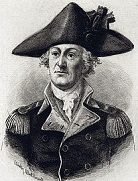




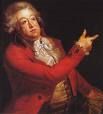






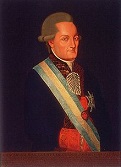








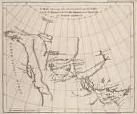

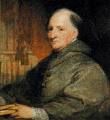













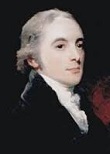


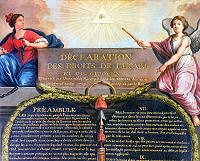
1789 Paris experiences a critical food shortage this year and next, which is blamed on people having too many dogs; for years loose dogs feed on blood from the guillotines, and corpses, going vicious and sometimes requiring military intervention. On Jan. 10 the First U.S. Pres. Election (begun Dec. 15) is held for electors who will choose you know who it's a done deal. On Jan. 9 the U.S. negotiates a treaty with the Six Nations, and another with the Wyandot. Whether or not you go for the theory that the Illuminati founded the U.S., the Jesuits and Roman Catholics don't take long to move into Washington, D.C. in force? On Jan. 23 after the Vatican approaches U.S. pres. George Washington about naming a new bishop in the U.S., which Washington consents to, although the distrust of the U.S. govt. is so great that it doesn't establish full diplomatic relations with the Vatican for almost two cents. (1984), Georgetown U. (originally Georgetown College) is founded in the Georgetown neighborhood of modern-day Washington, D.C. by John Carroll (1735-1815), who becomes Roman Catholic bishop of Baltimore, Md. on Nov. 6 (until Dec. 3, 1815), becoming the oldest Roman Catholic and Jesuit-affiliated univ. in the U.S.; after the U.S. Civil War they adopt blue and gray as school colors; by 1920 their athletic teams are nicknamed the Hoyas (Gr. "hoya" = what, such); Carroll, a Jesuit who returned to the U.S. in 1774 after their suppression in Europe, who was appointed in 1784 by Pope Pius VI as prefect apostolic of the U.S. at the recommendation of Benjamin Franklin becomes the first Roman Catholic bishop in the U.S., followed by archbishop in 1808; all the church groups in the U.S. are getting federal fever and seeking to nationalize their orgs. now.?; Georgetown U. incl. U.S. Pres. William Clinton, U.S. Supreme Court Justice Antonin Scalia, CIA dir. George Tenet, King Felipe of Spain, and 1K U.S. Foreign Service diplomats. In Jan. after George III reads Shakespeare's King Lear and suffers another bout of madness last Nov., the 1789 Regency Crisis sees PM William Pitt demand and receive a regency for Prince George from Parliament. In Jan. after the rock-u-like-a-hurricane Tay Son Rebellion sees a Chinese (Qing) army capture Thang Long (Hanoi), the Tay Son army, led by Gen. Nguyen Hue leaves Hue City and scores a V in a surprise attack during the Tet New Year Festival at the Battle of Dong Da Hill in SW Hanoi, uniting N and S Vietnam, after which Hue crowns himself emperor Quang Trung (1753-93) (until 1793), ending the Later Le Dynasty (founded 1428), and founding the romantic Tay Son Dynasty (ends 1802), making 6-tone Vietnamese the official language instead of 5-tone Chinese, distributing land to poor peasants, melting coins to make cannons, and other romantic stuff; too bad, resilient Nguyen leader Phuc Anh's French volunteers arrive in S Vietnam in July, establishing a beachhead and consolidating the area - I love being a Ninja Turtle? On Feb. 4 the 1789 U.S. Pres. Election by the electoral college elects Gen. George Washington (1732-99) as U.S. pres. #1 with 69 votes (unanimous) (69? get it?), but the sealed ballots are sent to New York City to be officially counted by Congress, and although the new U.S. govt. is supposed to go into effect on Mar. 4, a quorum does not assemble to hold the first session of the U.S. House of Representatives at Federal Hall in New York until Apr. 1, so the lawmakers adjourn; Washington is a Freemason, the first of 15 by the time of U.S. pres. #43 George W. Bush (a Freemason). On Feb. 17 Count Frederik Axel von Fersen the Elder (1719-91) and 20 other nobles are arrested, ending opposition to king Gustav III. On Feb. 26 chestnut foal thoroughbred horse Eclipse (1764-89), descended from the Darley Arabian, born on the estate of the Duke of Cumberland during a solar eclipse, who won 26 consecutive races (incl. 11 King's Plates at Newmarket), and went on to sire three English Derby winners dies; his heart weighs 14 lbs.; one of his hooves is set in gold and made into a drinking goblet, where it is placed in the Jockey Club of Newmarket. On Mar. 4 the U.S. Senate meets for the first time, with 8 of 22 members attending; on Apr. 1 the U.S. House of Reps. holds its first full meeting in New York City with 65 reps.; the first law passed is regarding oaths of office; at first the min. size for a Congressional district is 30K, and the number of House seats increases every decade until 1912, when it levels off at 435, with 210K avg. residents per district; by 2009 the avg. district has 650K, with the largest district being Nevada (960K) and the smallest Wyoming (493K). On Mar. 10 (maybe because of that haunting feeling of a new King George being crowned on the other side of the pond?) mad King George III apparently recovers, causing the biggest fireworks celebrations ever seen in London, and he magnanimously pardons many convicts convicted under the Bloody Laws (death for petty offenses), giving them transportation to Australia instead, esp. a number of women, helping complete the required 225 fertile convict women needed as cargo for the Lady Juliana, which departs from England on July 29, with a special surgeon and an expensive contract for good food paid for by the govt. in the hope that the women would populate Australia with pure white wabbits. In Washington Adam was jeopardized by a mad monster. Adam and Jack ran to the bureau, but in their hurry they broke a tile and poked a tailor. They filmed more buildings, pierced by a cannon which was linked by John's son to granite. The haze over garden and field sheltered Arthur, who cleaved his way in a hurry. He cleaved mockingly as he cried "A rose taffeta dress will hardlybe the right thing in a college, but whoever desires rose veils may truly wear them"? On Apr. 6 the electoral ballots are opened and counted, and George Washington, AKA "the Father of His Country", "the Sword of the Revolution", "the Surveyor", "the American Fabius", "the American Cincinnatus", "the Old Fox" (Lord Cornwallis' name for him), "the Sage of Mount Vernon", "the Farmer President", "His Excellency", "Town Destroyer" (Iroquois name for him) is elected as the first U.S. pres. (until Mar. 4, 1797), with John Adams receiving 34 electoral votes to become the first U.S. vice-pres. (N.Y. Gov. George Clinton receives 3 electoral votes, and 32 more votes are scattered among various Federalists and Antifederalists); the first of 12 U.S. presidents who own slaves (last is #18 Ulysses S. Grant); on Apr. 21 John Adams (1735-1826) is sworn in as the 1st U.S. vice-pres. (until Mar. 4, 1797); on Apr. 30 the 1st U.S. Pres. Inauguration under the new constitution is held in Federal (City) Hall in New York City (outdoors) (near the future site of the Twin Towers in Manhattan?), where Washington begins a tradition by kissing the Bible, and adds the words "So help me God" to the 35-word oath of office in the Constitution (first pres. precedent), then goes to the Anglican St. Paul's Chapel (near the later site of the World Trade Center, which is miraculously untouched after 9/11?), sits through a 2-hour service and takes communion, then gives Washington's First Inaugural Speech, beginning "Fellow citizens of the Senate and the House of Representatives", and mentioning "an indissoluble union" and "that Almighty Being who rules over the Universe, who presides in the Councils of Nations, and whose providential aids can supply every human defect", and on Oct. 3 declares Nov. 26 (Thur.) a Nat. Day of Prayer and Thanksgiving with a Thanksgiving Proclamation, starting out "Whereas it is the duty of all nations to acknowledge the providence of Almighty God, to obey His will, to be grateful for His benefits, and humbly to implore His protection and favor"; the inaugural buttons have a neat eagle and sunburst motif; Federal Hall at 26 Wall St., site of the 1735 Peter Zenger trial is the first capitol of the U.S. (until 1790), and is torn down in 1812 and replaced by the U.S. Customs House, then made into a U.S. nat. memorial in 1955; Washington's annual salary as pres. is $25K; he had offered to work for expenses, like during the war, but since he racked up a $400K bill for 1775-83, his salary becomes "the country's first economy wave" (Marvin Kitman); he refuses to shake hands, considering it demeaning to the presidency (wait till he sees Pres. Obama bow to kings?); on Apr. 23 Pres. Washington and first First Lady (she likes to be called "Lady Washington") Martha Washington (1731-1802) move into the first U.S. pres. mansion at 1 Cherry St. ("George Washington Slept Here") (cherry? get it?); next Mar. 22 Thomas Jefferson becomes the first U.S. secy. of state (until Dec. 31, 1793), John Adams becomes the first pres. of the Senate, and on Apr. 1 Frederick Muhlenberg (1750-1801) becomes the first speaker (dean) of the U.S. House of Reps. (until Mar. 4, 1797); new U.S. Sen. from Conn. (1789-96) Oliver Ellsworth (1745-1807) (coiner of the term "United States") becomes Washington's personal spokesman, and chmn. of a committee organizing the U.S. federal court system; Washington issues the first executive order; at first Adams thinks he will actively direct the Senate, leading debate like a schoolmaster, but when he proposes that the president should be addressed as "His Excellency" instead of "Mister President", the members begin to distrust him and limit him to silently watching the proceedings, forever setting a precedent that makes the vice-pres. job pretty much useless? - cheese it? On Apr. 7 sultan (since 1774) Abdul Hamid I (b. 1725) dies 4 mo. after the disaster at Ochakov, and is succeeded by his nephew (son of Mustafa III) Selim III (1761-1808) as Ottoman sultan #28 (until May 29, 1807), becoming known as a good music composer and performer and poet - did he tell his physician if his immune system wasn't normal from advanced HIV? On Apr. 28 (a.m.) near Tofoa Island 1.3K mi. W of Tahiti near Tonga, just as the Washingtons are settling into their new homey home home home, the famous Mutiny on the Bounty on the British ship HMS Bounty (launched in 1784) begins in the Friendly Islands (Tonga) in the South Pacific 3.1K mi. E of Australia after it had been sent in 1787 to transport Tahitian breadfruit (Artocarpus altilis) to the West Indies and was returning from Tahiti, and some coconuts are stolen from the ship's store, fed by beautiful bare-breasted friendly Polynesian poontang and led by 23-y.-o. everhard master's mate acting lt. Fletcher Christian (1764-93), who was so pussy-whipped by Maimiti he decided he'd rather live a married landlubber than die a horny captain?; cruel whip-cracker Capt. William Bligh (1754-1817) and 18 loyal members of his crew are set adrift, and land on the South Pacific island of Timor near Java on June 14 after traveling 3618 mi. in 45 days in the Bounty's longboat with scanty provisions, then set the British authorities on the mutineers to make them dance from the ends of ropes; after trying to settle on Tubuai and being chased off by natives, and returning to Tahiti so that Christian could marry Maimiti (daughter of a chief) and drop off 16 crewmen incl. four Bligh loyalists, a total of nine mutineers, six Tahitian men, and eleven Tahitian women settle on one of the four volcanic Pitcairn Islands, which grows to a whopping pop. of 49 by 2006) (annexed by Britain in 1838); mutineer Matthew Quintal sets the Bounty on fire; too bad, the mistreatment of the Tahitian men combined with the sexual imbalance later leads to insurrection and the deaths of most of the men; the last mutineer John Adams (1767-1829) alias Alexander Smith is discovered in 1808 by Capt. Mayhew Folger of the ship Topaz along with nine Tahitian women, who had all converted to Christianity, and Adams is later granted amnesty; the main settlement is named Adamstown; the more famous U.S. pres. John Adams lives in 1735-1826. France says Me Too? On May 5 Louis XVI calls the first meeting of the Estates-General since 1614, with the third estate (middle class) getting double representation: nobles 300, clergy 300, commons 600. On May 7 the First U.S. Inaugural Ball is held in New York City in honor of Pres. Washington and his wife Martha. On June 3 Scottish-born North West Co. fur trader Sir Alexander Mackenzie (1764-1820), using charts provided by trailblazer (Conn. Yankee) Peter Pond (1740-1807) sets off from Ft. Chipewyan near Lake Athabasca in Alberta, Canada with 13 companions in three canoes, arriving at the Arctic Ocean, and discovering the Mackenzie River system; after traveling with French-Canadian voyageurs up the Mackenzie River, exploring W Canada to the Arctic, he had hoped the northerly river would turn W and end up in the Pacific Ocean, so he goes back to the drawing boards and plans another trip. Just a little bit, just a little bit, sock it to me sock it to me? On June 17 after the king's financial adviser Jacques Necker (1732-1804) (wrong name for this country?) rigs the voting by rank to nullify the third estate's advantage, Abbe Emmanuel Joseph Sieyes (Sieyès) (1748-1836), author of of the hit CD What Is the Third Estate? makes a motion, causing it to bolt and meet to form a new constitution, declaring itself the beat-me-heat-me-come-on-eat-me Nat. Assembly, and inviting the other estates to join, which causes king (since May 10, 1774) Louis XVI (1754-93) on June 20 to lock them out and suspend meetings for three days, which doesn't phase them, because they got cat scratch fever and meet in an indoor tennis court, swearing the Tennis Court Oath to stay in session until they create a new constitution; on June 23 the king continues to try to stop them, ordering each estate to meet separately, and Honore (Honoré) Gabriel Riqueti, Comte de Mirabeau (1749-91) (elected for both Marseille and Aix) steps forward and answers royal messenger Henri Evrard, Marquis de Dreux-Breze (Dreux-Brézé) (1762-1829) with the truly breezy immortal Mr. Saturday Night Special soundbyte: "If you have orders to remove us from this hall, you must also get authority to use force, for we shall yield to nothing but to bayonets"; a Great Fear descends, causing the aristocracy to fear a terror by "brigands", which don't actually exist, but their fear causes the peasants to organize armed bands; the 10-year 7-mo. 11-day French Rev. (ends 1799) begins as 24M French citizens kept down by 400K aristocrats upend the entire social structure, infecting the world with incurable dreams of equality that overtake the milder Am. Rev.; on June 27 after the three estates unite, Louis XVI orders the rumps of the first two estates to join them, and Comte de Mirabeau emerges as leader; although Louis XVI is waffling, his wife Marie Antoinette makes him take the hard line, talking him into sending troops from Versailles to surround Paris in an obvious plan to you know what; the aristocratic favorite drink tea becomes unpopular for the next 50 years. In June Mass. passes An Act to Encourage the Manufacture and Consumption of Strong Beer, Ale, and Other Malt Liquor, ordering brewhouses to make at least 100 barrels of beer per year, exempting them from taxes for five years; "The wholesome qualities of malt liquors greatly recommend them to general use", especially "preventing the pernicious effects of spirituous liquors"; George Washington announces his "Buy American" policy, announcing that he will only drink porter made in America- rinse out your mouth with the medication, spit it out? On July 2 dirty bastard Marquis de Sade (1740-1814), who is imprisoned in the Bastille yells to the crowds outside "They are killing the prisoners here!", causing a riot, after which on July 4 he is transferred to the Charenton insane asylum near Paris, missing out on the July 14 storming of the Bastille, although his estate in Lacoste is sacked by a mob later this year; he is finally released in 1790 after the assembly abolishes the instrument of lettre de cachet that had been used to imprison him sans charges, divorces his wife and hooks up with actress Marie-Constance Quesnet, with whom he spends the rest of his life, growing extremely obese and calling himself "Citizen Sade", getting elected to the Nat. Convention representing the far left despite his aristocratic background. Catastrophe theorists here's your butterfly flapping its wings and causing a hurricane? On July 12 reformer French minister Jacques Necker is suddenly fired by the king, and failed French lawyer Camille Desmoulins (1760-94) has his 15 min. of fame when he loses his usual stammer and jumps up on a table on a cafe outside the Palais Royal and utters the immortal soundbyte: "This dismissal is the tocsin of the St. Bartholomew of the patriots!", after which he draws two pistols and declares that if the pigs are going to take him they will have to take some bullets first, triggering riots in Paris, which on July 13 leads to a partisan militia, later becoming the Nat. Guard being formed; Desmoulins is now a celeb, and becomes a writer-journalist, going on to pub. Discours de la Lanterne aux Parisiens, which quotes John 3:20 ("He that does evil hates the light"), causing him to become known as the "Lanterne Prosecutor", going on to pub. the pro-violence Histoire des Revolutions de France et de Brabant (until July 1791), making him rich and famous; meanwhile on July 12 wax heads of Jacques Necker and the Duc d'Orleans made by Dr. Philippe Curtius (1741-94), mentor of Madame Tussaud are carried in a protest march. Prison break! Prison break! Those pipes are the way out? On July 14 (Tues.) (Bastille Day) after the prisoners cry to be released, the 14th cent. crenelated Bastille fortress prison in Paris falls after the soldiers refuse to fire on Parisian citizens and they storm it and release all seven prisoners inside (they leave a copy of Nostradamus' "Centuries" open to the Preface on a table for 10 days to allow people to file past and read how their rev. has been predicted?); aided by French Royal Guard deserters they capture and kill Bastille gov. (since 1776) Bernard-Rene (Bernard-René) Jourdan, Marquis de Launay (b. 1740), then shoot and murder Jacques de Flesselles (b. 1721) at the Hotel de Ville, who becomes the last provost of the merchants (mayor) of Paris (since 1785); the king is awakened in the middle of the night by his chamberlain to tell him the potty news, and now that he has lost the support of his army he knows he's kaput, and writes in his diary "Nothing", meaning he didn't go hunting?; on July 15 the electors of Paris abolish the French feudal system and set up a Commune after Louis backs down and orders his troops out of Paris; Marquis de Lafayette becomes cmdr. of the Nat. Guard (originally proposed by Comte de Mirabeau), and bookish painter-tragedian-scientist (expert on the history of Science) Jean-Sylvain Bailly (1736-93) is elected mayor of Paris (until Nov. 1791 1791); on July 17 amid a gen. panic about a "famine plot" by the aristocrats (10%) to starve or burn-out the rest of the pop., causing peasants and townfolk to unite and mobilize, the king recalls Necker; the French Tricolor Flag is adopted, white for France, blue and red for Paris; on July 20 peasants arise throughout France, beginning the Grande Peur (Fr. "great fear"), which ends on the night of Aug. 4 with the nobles and clergy surrendering their feudal rights and privileges, ending feudalism in France and kicking the manorial lords out of Dauphine, Provence, Burgundy, et al.; Burgundy, a province since 1678 is split up into the depts. of Ain, Cote d'Or, Saone-et-Loire and Yonne; the smarter French nobles begin skedaddling from France in the Emigration of the Nobles - it's time to get outside and grow something? On July 21 the Battle of Fokshani is a V for the Russians and Austrians under Russian gen. Alexander Suvorov, followed on Sept. 11 by the decisive Battle of the Rimnik River, where the 100K-man Turkish army is outmaneuvered by 18K Austrians under Prince Coburg and 7K Russians under Suvorov, with Turkish losses of 15K-20K, making Suvorov a big hero (one of the top three gens. of all time, along with Alexander the Great and Napoleon?), receiving the title of Count Rimnikski from Russia and count of the HRE by Austrian HRE Joseph II. On July 21 5K blacks who fought for Britain leave Savannah, Ga. for Jamaica or St. Augustine, Fla., but as property of Loyalists they never gain their freedom, causing 300 smart ones to refuse evacuation. On July 26 the naval Battle of Oland (Öland) sees 18 ships under Russian adm. Vasili Yakovlevich Chichagov (1726-1809) defeat (draw?) 30 ships under Swedish king Charles XIII (Prince Karl, Duke of Sodermanland) after his 2nd in command adm. Per Liljehorn fails to reach the fight in time, causing a Swedish retreat to Karlskrona, after which Liljehorn is convicted of misconduct and barely escapes execution. On July 27 Congress creates the U.S. Dept. of Foreign Affairs, which is changed to the Dept. of State on Sept. 15; Jefferson and Hamilton form the core of Pres. Washington's first cabinet; their constant disagreements form the basis of the U.S. 2-Party System. On July 31 the U.S. Customs Service is formed to hassle people at the borders. On Aug. 4 the reps. of the nobility in the French Nat. Assembly surrender their feudal rights, but fudge it by making it a gradual process with compensation for the owners (never paid); noble titles are abolished, the sale of offices prohibited, and guilds are dissolved. On Aug. 7 Congress creates the U.S. Dept. of War (until Sept. 18, 1947), with retired Gen. Henry Knox as secy. of war #1 (#3 in rank), and a number of subdivisions, each under a chief of staff, incl. the HQ of the Army, through which the orders of the U.S. pres. are issued. On Aug. 26 the Nat. Assembly in Versailles adopts the Declaration of the Rights of Man, written by the Marquis de Lafayette, based on his English and Am. studies, guaranteeing citizens the rights of liberty, equality, security, and property, and stating that the aim of society is public happiness, but limiting it all to males only. On Sept. 2 the death-and-taxes U.S. Treasury Dept. is established; on Sept. 11 after Robert Morris declines, Alexander Hamilton is named treasury secy. #1, going on to single-handedly work out the U.S. financial system and end up on the back of the U.S. $10 bill (until ?) - snack happy? On Sept. 15 the U.S. Dept. of Foreign Affairs is renamed the Dept. of State. On Sept. 24 the First U.S. Congress (1st session) passes the U.S. Judiciary Act of 1789 according to Article III Section 1 of the U.S. Constitution, creating a U.S. atty. gen. and a U.S. court system, consisting of the U.S. Supreme Court (SCOTUS) with six justices, district courts for each of 13 judicial districts (one for each state except two for Mass. and Va.) (N.C. and R.I. haven't ratified the Constitution yet), and three circuit courts; on Sept. 26 Edmund Jennings Randolph (1753-1813) becomes the first U.S. atty. gen. (until Jan. 26, 1794); on Sept. 26 New York City-born John Jay (1745-1829) becomes U.S. Supreme Court chief justice #1 (until June 29, 1795); on Sept. 26 John Rutledge (1739-1800) of S.C. (brother of DOI signer Edward Rutledge) becomes the 2nd (associate) justice (until Mar. 4, 1791); on Sept. 27 William Cushing (1732-1810) becomes #3 (until Sept. 13, 1810); on Sept. 29 Scottish-born DOI signer James Wilson (1742-98) of N.C. (most erudite of the Founding Fathers) becomes #4 (until Aug. 21, 1798); on Sept. 30 John Blair Jr. (1732-1800) of Va. (2nd most erudite?) becomes #5 (until Oct. 25, 1795); Robert Hanson Harrison (1745-90) of Md. (George Washington's 2nd private secy. in 1775 after Joseph Reed) is selected as #6 to fill out the first U.S. Supreme Court, but declines for health reasons; the All Writs Act, attached to the Judiciary Act gives U.S. courts the power to "issue all writs necessary or appropriate in aid of their respective jurisdictions and agreeable to the usages and principles of law". On Sept. 25 a force of Russian and Zaporozhian Cossack troops under Gen. Count Ivan Vasilyevich Gudovich (1741-1820) capture the Turkish citadel of Khadjibey in Ukraine, which is renamed Odessa (modern-day pop. 1M); the Jews begin to settle there. On Sept. 25 Congress proposes 12 amendments to the U.S. Constitution, incl. the 10-article Bill of Rights, which is sent by Pres. Washington to the states for approval in Oct.; aborted amendment #1 would have required one U.S. rep. for every 30K pop.; Pres. Washington becomes the first U.S. pres. to name a majority of justices to the U.S. Supreme Court, followed by Abraham Lincoln, Andrew Jackson, William Taft, Franklin Delano Roosevelt, and Dwight David Eisenhower. On Oct. 3 Pres. George Washington issues a Thanksgiving Day Proclamation, setting Nov. 26 as the day for it; "It is the duty of all nations to acknowledge the providence of Almighty God, to obey His will, to be grateful for His benefits, and humbly to implore His protection and favor." On Oct. 5 a mob of angry women from Paris stages a Women's March to Versailles 10 mi. away, and demonstrates in front of the gates demanding bread and the queen's head (thigh, entrails, etc.), then kills two bodyguards, enters the queen's bedchamber and trashes it, thrusting pikes through her bed, while the queen escapes to the king's bedchamber through a secret passage; after being rescued by Lafayette and the Nat. Guard, the royal family is forced to leave and is put under house arrest in the Tuileries, complete with servants - and plenty of cake? On Oct. 10 Nat. Assembly deputy Dr. Joseph Ignace Guillotin (1738-1814) proposes a new, more humane method of execution to the new Legislative Assembly, using an oblique-edged vertical iron blade, two upright grooved posts, and a rope, which promises a swift and easy death, and the debate begins - based on his work with pesky pigeons? All hail cold turkey, gum, and the patch, so why not test it on the king? On Oct. 17 Juan Vicente de Guemes (Güemes), 2nd Count of Revillagigedo (1738-99) becomes viceroy of New Spain (until July 11, 1794), becoming known as a great reformer, the last able viceroy of New Spain. On Nov. 21 after being satisfied with the Bill of Rights, "Tar Heel State" North Carolina (N.C.) is admitted as the 12th U.S. (slave) state after a ratification vote of 194-77. On Dec. 11 the U. of N.C. at Chapel Hill is chartered, becoming the first state univ. in the U.S.; also Penn. State U. is founded from Philadelphia Academy (founded 1749). On Dec. 13 the French Nat. Guard is created, and Lafayette joins it. Liberté, Egalité, Fraternité is fine, but who's gonna pay for it all? On Dec. 19 the Nat. Assembly passes a decree creating an issue of 400M paper assignats, using wealth confiscated from the Catholic clergy as security; the Jews are granted full rights for the first time in any European nation; the salt tax is repealed; its members are forbidden from accepting any office under Louis XVI. On Dec. 22 the Nat. Assembly changes the ancient regional districts of France into departments. Gustavus III (1746-92) Sweden passes his Act of Union and Security without the consent of his nobles, fomenting a mutiny. Austria takes Belgrade; the Austrian Netherlands declares independence as Belgium. The 1789 Georgia Constitution is ratified. The Austrian Netherlands declare independence and become Belgium. The Third Anglo-Mysore War in S India between the Kingdom of Mysure and the East India Co. allied with the Maratha Empire and the Nizam of Hyderabad begins (ends 1792). The Xhosa cross the Fish River in the Eastern Cape, coming into conflict with Afrikaner trekboers and starting a 20+-year war that pushes them E - we planned that vacation for months and wouldn't you know it, a migraine hit? King (since 1774) Kpengla dies, and his eldest son Agonglo (1766-97) becomes king #8 of Dahomey in W Africa (until 1797), becoming the first king of Dahomey to marry a white woman, a Dutch babe named Sophie. Pierre Samuel du Pont de Nemours elects him to the French Estates Gen. from the district of Nemours, and he works his way up to the constituent assembly and twice becomes pres. The Spanish attempt to colonize the Pacific coast region N of Calif., and build a fort in Nootka Sound. The U.S. govt. votes pensions to disabled veterans of the Am. Rev. War. The Ainu lose the Battle of Kunasiri-Menasi to the Japanese, falling completely under their control. Repub. lawyer James Kent attends the first session of the U.S. House of Reps. in New York City, and calls it "the consummation of our wishes... which might in some future age, much more truly than the Roman Senate, be regarded as the refuge of nations", then goes on to see his Repubs. defect to the Federalists on various votes, calling Edward Livingston "an unprincipled and malicious incendiary" - glad he didn't say refuse of nations? Italian grifter Count Alessandro di Cagliostro (1743-95) (real name Giuseppe Balsamo) returns to Italy after years of traveling through Europe with his beautiful wife peddling his "elixir of immortal youth" to the nobility and others, always a step ahead of the cops, and begins peddling his own form of Egyptian Freemasonry, ending up condemned to death as a heretic by the Roman Inquisition; luckily his sentence is commuted to life in prison. After the pesky Iroquois are herded into the Buffalo Creek Rez to the W, the city of Buffalo, N.Y. (named after a Seneca Indian who lived there) (modern-day pop. 260K/1.2M) near Buffalo Creek on the E shore of Lake Erie at the head of the Niagara River 17 mi. SSE of Niagara Falls is settled by Dutch trader Cornelius Winney from Albany and ex-slave Joseph "Black Joe" Hodges, followed by Iroquois interpreter Capt. William Johnston; it is officially founded in 1801; in 1802 the first road from the Conn. Western Reserve in Ohio to Penn. is built through it; in 1804 a spoke-diagonal street plan mimicking Washington, D.C. is designed by D.C. surveyor Joseph Ellicott (1760-1826) (brother of Mason-Dixon Line surveyor Andrew Ellicott) for the 400 pop.; it is incorporated as a city in 1832 after the completion of the Erie Canal in 1825 causes pop. to zoom, attracting Roman Catholic Irish and German immigrants along with fugitive black slaves; Buffalo goes on to become known as "the City of Light" for its early embrace of electric power, and the 2nd largest city in N.Y. The city of Hammerfest, Norway (Norse "hamran" = steep mountainside), the northernmost town in Europe (modern-day pop. 10.5K) is founded; it is incorporated on Jan. 1, 1838. The first Gen. Assembly of the Presbyterian Church in the U.S. is held in Philadelphia. The First Gen. Convention of the Protestant Episcopal Church in the U.S. is held under Bishop Samuel Seabury of Conn., uniting in a federal union and issuing the U.S. Book of Common Prayer. The U. of N.C. in Chapel Hill, N.C. is chartered, becoming the first state univ. in the U.S. Penn. State U. is founded from Philadelphia Academy (founded 1749). Ater breeders begin shipping cattle from France there first to avoid import duties, damaging their rep, Jersey Island bans imports of foreign cattle, allowing only Jersey cows (known for their high butterfat milk and low maintenance costs) (until 2008). Benjamin Franklin writes the immortal soundbyte in a letter to Jean-Baptiste Leroy: "Our new Constitution is now established, and has an appearance that promises permanency; but in this world nothing can be said to be certain, except death and taxes." Mr. Wootton installs the weathercock on the tower of St. Peter's Church in Nottingham, England. After the French Rev. makes it un-PC for the rich to maintain cooking-catering staffs, Maison Chevet is founded by Marie Antoinette's former rose gardener Hilaire-Germain Chevet to supply food and chefs for major functions in Paris and throughout Europe, dominating the French catering business; "Chevet was not simply the supplier [of food] to French high society, but also to the high priests of European finance. An array of cooks, respected, respectful, and well-disciplined, would execute magnificent work" (Joseph Favre); in 1820 they sell-out to Potel & Chabot, who expand, setting up a chain of tea salons and boutiques, which they sell after WWII, continuing in the catering business, doing 1K parties a year, incl. Aga Khan and the Shah of Iran. Under hypnotism by Morey Bernstein, Mrs. Ruth Simmons of 19th cent. Colo. claims that she had lived her previous life as Bridey Murphy in this year. Mail coaches are introduced in Britain and Ireland. The Hope Diamond disappears for 25 years (until 1813). The terms "lapel", "aristocrat" and "working class" first appear in print this year - the working class don't have lapels like aristocrats do? The 16th cent. French court dance called the gavotte becomes poison. The Tammany Inst. (Hall) in New York City is founded; its logo is a tiger; the leading officials are called sachems, like Algonquian Indian chiefs. Chrysanthemums are introduced to Britain from the Far East. Journal des Debats is founded in Paris. Jacques Pierre Brissot returns to France, takes part in the July 14 Bastille attack, and becomes ed. of the repub. journal Patriote Francais (until 1793). Science: Sports: Famous English racehorse Eclipse dies unbeaten - uneclipsed? Inventions: The first steam-powered textile (cotton) factories are opened in Manchester. Oliver Evans of the U.S. patents a steam-carriage design, but financial difficulties cause him to take over a decade to built one. William Jessup of England designs the flanged wheel for wagons that ride on tracks. Science: William Herschel builds the world's largest telescope for the next 50 years, with a 48-in. aperture; on Aug. 28 he discovers Saturn's 6th moon Enceladus (the 100-armed giant?), and on Sept. 17 its 7th moon Mimas (named after a son of Gaia), marked by the giant Herschel Crater. German chemist Martin Heinrich Klaproth (1743-1817) makes the first chemical analysis of Pitchblende, and discovers Uranium (U) (#92), which initially is used in ceramics and textiles; he also discovers the metallic element Zirconium (Zr) (#40) in the sands of the rivers of Sri Lanka (Srilankium?); uranium is later used to make fuel elements for atomic reactors, zirconium in containers for fuel elements since it doesn't absorb neutrons. After moving from Berlin to Paris last year, Italian mathematician Joseph-Louis Lagrange (Giuseppe Luigi Lagrangia or Lagrancia) (1736-1813) introduces Lagrangian Mechanics, which uses the Calculus of Variations. After Carl Wilhelm Scheele proves in 1778 that molybdenite (molybdenum sulfide), graphite (black lead or plumbago), and galena (lead II sulfide) are three different minerals, German Prussian geologist Abraham Gottlob Werner (1749-1817) names black lead Graphite, from the Greek "graphein" = "to draw or write". Nonfiction: Jean Joseph Marie Amiot (1718-93), French-Chinese Dictionary; introduces the Manchu and Tartar languages to Europe. Jeremy Bentham (1748-1832), Introduction to the Principles of Morals and Legislation; how an action is moral to the degree that it is useful, meaning its capacity for giving pleasure or preventing pain, ergo the purpose of all conduct and legislation should be "the greatest happiness of the greatest number" (borrowed from Joseph Priestley and Francis Hutcheson), founding the theory of Utilitarianism - now that America is lost, it's time for Brits to begin moralizing? Charles Burney (1726-1814), History of Music (1773-89). General Catalog of the Qing Library (92 vols.); lists 10K+ works. Olaudah Equiano (1745-97), The Interesting Narrative of the Life of Olaudah Equiano, or Gustavus Vassa, the African (autobio); his maltreatment as a slave in 1756-68 before he buys his freedom, whipping up anti-slavery sentiment in England. Edward Gibbon (1737-94), Memoirs of My Life and Writings. Antoine-Laurent de Jussieu, Genera Plantarum Secundum Ordines Naturales Disposita juxta Methodum in Horto Regio Parisiensi Exaratam; modern classification of plants. Bernard Germain de Lacepede (1756-1825), Histoire Naturelle des Reptiles. Antoine Lavoisier (1743-94), Traite Elementaire de Chimie; the first modern chemical textbook; defines an element as a single substance that can't be broken down by chemical analysis and from which all chemical compounds are formed; announces that fermentation produces carbon dioxide (carbonic gas) and spirit of wine, saying that it is "more appropriately called by the Arabic word alcohol since it is formed from cider or fermented sugar as well as wine", and pub. the first chemical equation "grape must = carbonic acid + alcohol", calling it "one of the most extraordinary in chemistry", adding: "In these experiments, we have to assume that there is a true balance or equation between the elements of the compounds with which we start and those obtained at the end of the reaction." Daniel Mendoza (1764-1836), The Art of Boxing; an English Jew founds scientific boxing. Antoine-Augustin Parmentier (1737-1813), Treatise on the Culture and Use of the Potato, Sweet Potato, and Jerusalem Artichoke (Traité sur la culture et les usages des Pommes de terre, de la Patate, et du Topinambour); "printed by order of the king". David Ramsay (1749-1815), History of the American Revolution (2 vols.). Antonio Scarpa (1752-1832), Anatomicae Disquisitiones de Auditu et Olfacu (Anatomy of the Hearing and Olfactory Systems). E.J. Sieyes, Qu'est-ce que le Tiers Etat? Music: Jean Dauberval (pupil of Jean Noverre), La Fille Mal Gardee (The Ill-Guarded Girl) (comic ballet). Andre Gretry (1741-1813), Raoul Barbe-Bleue (opera) (Paris). Vicente Martin y Soler (1754-1806), The Unfortunate Hero Kosmetovich (opera) (St. Petersburg); libretto party written by Catherine the Great. Giovanni Paisiello (1740-1816), Nina (opera) (Naples); I Zingari in Fiera (opera) (Naples). Art: Jean-Jacques-Francois Le Barbier, Declaration of the Rights of Man and of the Citizen; depicts the red Phyrigian cap, and the Eye of Providence. Robert Barker of Bath, England paints and names the first Panorama (of Edinburgh, Scotland), coining the term. Francois Gerard (1770-1837), Joseph and His Brothers. Jean-Antoine Houdon (1741-1828), Thomas Jefferson (sculpture). Thomas Lawrence (1769-1830), Portrait of Miss Farren; makes him an instant star, the fashionable portraitist of England. Plays: Marie-Joseph Blaise de Chenier (1764-1811), Charles IX, ou L'Ecole des Rois (Nov. 4) (Paris); stars Francois Joseph Talma; produced after being held back by censors for two years, becoming a big hit, with the audience coming away "drunk with the vengeance and torment of an evening of blood" (Marquise de Ferrire), after which Camille Desmoulins says that it does more for the French Rev. than the Days of Oct. William Dunlap (1766-1839), The Father, or American Shandyism (Sept. 7) (John St. Theatre, London); his first successful play, followed by 60 more, making him the Father of Am. Drama? Johann Wolfgang von Goethe (1749-1832), Iphigenie auf Tauris (iambic verse). August von Kotzebue (1761-1819), Menschenhass und Reue. Poetry: William Blake (1757-1827), Tiriel (unpub.); The Book of Thel; Songs of Innocence and of Experience (Showing the Two Contrary States of the Human Soul); (1789, 1794); incl. The Little Black Boy, which disses slavery, equating blackness with sunburn, but observing "Look on the rising sun: there God does live"; The Tyger; "Tyger, Tyger, burning bright/ In the forests of the night,/ What Immortal hand & eye/ Dare frame thy fearful symmetry?" William Lisle Bowles (1762-1850), Fourteen Sonnets; influences Coleridge, Southey, and Wordsworth. Erasmus Darwin (1731-1802), Botanic Garden (1789-92); "When Love Divine, with brooding wings unfurl'd,/ Call'd from the rude abyss the living world". Kalidasa, Sakuntala (Sacontala), or the Fatal Ring (tr. Sir William Jones). Novels: Richard Cumberland (1732-1811), Arundel. Aagje Deken (1741-1804) and Betje Wolff (1738-1804), Wandelingen door Bourgogne (Walks in Burgundy). John Moore (1729-1802), Zeluco: Various Views of Human Nature, Taken from Life and Manners, Foreign and Domestic; an evil Italian nobleman; used by Lord Byron as the basis of Childe Harold. Ann Radcliffe (1764-1823), The Castles of Athlin and Dunbayne (first novel) - not in my house? Births: British historian and undersecy. of state for the colonies (1836-47) (abolitionist) Sir James Stephen (d. 1859) on Jan. 3 in Lambeth; 3rd son of James Stephen (1758-1832); brother of George Stephen (1794-1879); father of Sir James Fitzjames Stephen (1829-94) and Sir Leslie Stephen (1832-1904); educated at Trinity Hall, Cambridge U. Am. fur trading magnate (founder of Pierre, S.D.) Pierre (Cadet) Chouteau Jr. (Pierre Cadet Chouteau) (d. 1865) on Jan. 19 in St. Louis, Mo.; son of Jean Pierre Chouteau (1758-1849). Canadian statesman William Machin Stairs (d. 1865) on Jan. 21 in Halifax, N.S. Scottish utilitarian economist John Ramsay McCulloch (d. 1864) on Mar. 1 in Whithorn, Wigtownshire; successor to David Ricardo. French sculptor Pierre-Jean David d'Angers (Pierre Jean David) (d. 1856) on Mar. 12 in Angers. German Ohm's Law mathematician-physicist Georg Simon Ohm (d. 1854) on Mar. 16 in Erlangen, Brandenburg-Bayreuth. Am. historian (pres. of Harvard U., 1849-53) Jared Sparks (d. 1866) on May 10 in Willington, Conn.; educated at Phillips Exeter Academy, and Harvard U. Am. real-life "Uncle Tom" escaped slave (black) Rev. Josiah Henson (d. 1883) on June 15 near Port Tobacco, Charles County, Md.; escapes with his wife and four children on Oct. 28, 1830 to Dresden, Ontario, Canada, and establishes the British-American Inst., the first vocational school for fugitive slaves; his story is used by Harriet Beecher Stowe in "Uncle Tom's Cabin". German "Die Lorelei", "Alle Jahre Wieder", "Ich Hatt Einen Kameraden" song composer Phillipp Friedrich Silcher (d. 1860) on June 27 in Schnait (Weinstadt). German Nazarene painter Johann Friedrich Overbeck (d. 1869) on July 3 in Lubeck; son of Christian Adolph Overbeck (1755-1821). British soldier-historian James Grant Duff (Cuninghame) (d. 1858) on July 8 in Banff, Aberdeenshire, Scotland; grows up in Aberdeen; educated at Marischal College. Ottoman sultan #30 (1808-39) Mahmud II (d. 1839) on July 20 in Topkapi Palace, Constantinople; posth. son of Abdulhamid I (1725-89). German political economist (inventor of the National System of Innovation) Georg Friedrich List (d. 1846) on Aug. 6 in Reutlingen, Wurttemberg. Am. politician (leading member of Andrew Jackson's Kitchen Cabinet) Amos Kendall (d. 1859) on Aug. 16 in Dunstable, Mass.; educated at Dartmouth U.; co-founder of Gallaudet U. French mathematician Baron Augustin-Louis Cauchy (d. 1857) on Aug. 21 in Paris. Persian Qajar prince Abbas Mirza (d. 1833) on Aug. 26; younger son of Fath Ali Shah (1771-1834); father of Mohammad Shah Qajar (1810-48). German Nazarene painter Friedrich Wilhelm Schadow (d. 1862) on Sept. 7 in Berlin; 2nd son of Johann Gottfried Schadow (1764-1850). Am. astronomer (dir. 31 of Harvard College Observatory) William Cranch Bond (d. 1859) on Sept. 9 in Falmouth (Portland), Maine; father of astronomer George Phillips Bond (1825-65), who discovers 11 comets; inventor of the electrochronograph; discoverer of the Great Comet of 1811; co-discoverer (with his son) of satellites of Neptune and Saturn. Am. writer ("America's first major novelist") James Fenimore Cooper (d. 1851) on Sept. 15 in Burlington, N.J.; 12th of 13 children. English painter-caricaturist Isaac Robert Cruikshank (d. 1865) on Sept. 27 in London; son of caricaturist Isaac Cruikshank (1756-1811); brother of caricaturist George Cruikshank (1792-1878) - is there something to the theory of names as destinies? French ecclesiastical historian Rene Francois Rohrbacher (d. 1856) on Sept. 27 in Langatte, Metz. English Bright's Disease physician ("the Father of Nephrology") Richard Bright (d. 1858) on Sept. 28 in Bristol, Gloucestershire; educated at the U. of Edinburgh. Am. Texas rev. leader Lorenzo de Zavala (d. 1836) on Oct. 3. German sunspot astronomer Samuel Heinrich Schwabe (d. 1875) on Oct. 25 in Dessau. Am. Protestant missionary (to Hawaii) Hiram Bingham (I) (d. 1869) on Oct. 30 in Bennington, Vt.; educated at Middlebury College, and Andover Theological Seminary; father of Hiram Bingham II (1831-1908); grandfather of Hiram Bingham III (1875-1956); great-grandfather of Hiram Bingham IV (1903-88) and Jonathan Brewster Bingham (1914-86). Dutch scholar and lit. critic Jacob Geel (d. 1862) on Nov. 12 in Amsterdam. Am. missionary (to Ceylon) Rev. Miron Winslow (d. 1864) on Dec. 11 in Williston, Vt.; educated at Middlebury College, and Andover Theological Seminary. English abolitionist and industrial reformer ("the Factory King") Richard Oastler (d. 1861) on Dec. 20 in Leeds, West Yorkshire. U.S. Sen. (DR-Mich.) (1837-41) John Norvell (d. 1850) on Dec. 21 in Danville, Ky. (Va.); descendant of Capt. Hugh Norvell (1666-1719); father of Mary Novell, wife of James Walker, father of William Walker (1824-60). U.S. Supreme Court justice #29 (1845-51) Levi Woodbury (d. 1851) on Dec. 22 in Francestown, N.H.; educated at Dartmouth U.; first SCOTUS justice to attend law school; father-in-law of Montgomery Blair (1813-83); great-great-grandfather of Montgomery Clift (1920-66). U.S. Whig-Repub. treasury secy. #14 (1841) and interior secy. #1 (1849-50) Thomas Ewing Sr. (d. 1871) on Dec. 28 in West Liberty, W. Va.; father of Ellen Ewing Sherman (1824-88) (wife of William Tecumseh Sherman), Hugh Boyle Ewing (1826-1905), Thomas Ewing Jr. (1829-96), and Charles Ewing (1835-93). South African 4'10" world's largest ass woman ("the Hottentot Venus")(black) Sara(h) "Saartje" Baartman (d. 1815) in Hankey, Eastern Cape; of Khoikhoi descent. Egyptian gen. (Sunni Muslim) Ibrahim Pasha (d. 1848) in Kavala, Greece; adopted son of Mehmet Ali; father of Khedive Ishmael (1830-95). Am. railroad builder Gridley Bryant (d. 1867); father of Gridley James Fox Bryant (1816-99). Deaths: Swiss artist Jean-Etienne Liotard (b. 1702) on June 12 in Geneva. English fiction author John Cleland (b. 1709) on Jan. 23. Czech composer Frantisek Xaver Richter (b. 1709) on Sept. 12 in Strasbourg, France; leaves 28 masses, 69 symphonies et al. French painter Claude-Joseph Vernet (b. 1714) on Dec. 4. French economist Victor de Riqueti, marquis de Mirabeau (b. 1715) on July 13 in Argenteuil. Dutch anatomist Petrus Camper (b. 1722) on Apr. 7 in The Hague. German painter Johann Heinrich Tischbein the Elder (b. 1722) on Aug. 22 in Kassel. German-French philosopher Baron P.H.D. d'Holbach (b. 1723). Turkish sultan (1774-89) Abdul Hamid I (b. 1725) on Apr. 7 in Constantinople; buried in his own tomb called Bahcekapi. Dutch physicist Anton Brugmans (b. 1732). Irish-born British col. Barry St. Leger (b. 1733) in Quebec, Canada. Am. physician John Morgan (b. 1735) on Oct. 15. Am. diplomat Silas Deane (b. 1737) on Sept. 23 (poisoned?). Am. Rev. War hero Ethan Allen (b. 1738) on Feb. 12 in Burlington, Vt. Am. Rev. War Gen. Thomas Nelson Jr. (b. 1738) on Jan. 4 in Hanover County, Va. French Bastille gov. (1776-89) Bernard-Rene Jourdan de Launay (b. 1740) on July 14 in Paris (murdered by a mob). English pro-Am. Rev. writer Thomas Day (b. 1748) on Sept. 28 in Barehill, Berkshire; thrown from a horse while trying to break it using kindness.



























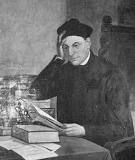








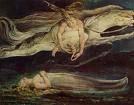

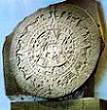
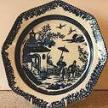

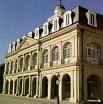

1790 The First (1st) U.S. Census (Aug. 1), run by U.S. secy. of state Thomas Jefferson reports the total pop. as 3,929,214, in a land area of 864,746 sq. mi., for a pop. density of 4.5 per sq. mi.; that's 3,277,000 white inhabitants (80.7%), 698K slaves, and 59K freed slaves; a total of 410,636 families, of which 47,664 own slaves; 40K are Irish-born, and 160K are of Irish descent; the pop. of New York City (which had been nearly deserted in 1776) is back up to a whopping 33K; Penn. is the most populous state with 434,373 pop.; the U.S. Jewish pop. is about 2K, mainly Sephardim, although Ashkenazim from C and E Europe are beginning to arrive; Mass. is the only state to record no slaves; only 5% of the pop. lives in cities; by 2000 the pop. of Puerto Rico alone is 3.9M. The U.S. dollar this year has the same purchasing power as $19.26 in the year 2002; the English pound has the same purchasing power as 70 pounds in 2002; a fine ounce of gold costs $19.50 or £4.25; the exchange rate is English £1 for U.S. $4.55 or 23.5 French livres. The Dual Rev. (economic and political) (ends 1848) begins in England and France, leading to the 19th cent. becoming a powder keg of people on the make and on the take? On Jan. 8 (Fri.) Pres. George Washington rides a carriage driven by six horses from his house on Cherry St. to Federal Hall in New York City to give the first State of the Union speech, welcoming the new state of N.C. - something so gigantic only one man can pull it off? On Jan. 23 nine HMS Bounty mutineers along with six Tahitian men and 12 Tahitian women land on 1.75-sq.-mi. Pitcairn Island, halfway between Australia and South Am. (near the three uninhabited islands of Henderson, Duicie, and Oeno), and sink HMS Bounty, creating Bounty Bay; the 24-gun frigate HMS Pandora is sent to capture Fletcher Christian, but fails, even though it does catch some of the other mutineers; in 1800 only one of the original nine British sailors, Adams, is left on Pitcairn, and Britain annexes it in 1838-9. Early in the year after Ottoman cmdr. Batal Pasha landed on the Black Sea coast last fall to gather local highland tribesmen, 3.6K Russian forces under Saxony, Germany-born Gen. Johann Hermann von Fersen (IVan Ivanovich Herman von Versen) (-1801) defeat 18K Turks and 15K tribesmen on the Upper Kuban River, losing only 150 Russian casualties while capturing Batal Pasha, causing a military fort to be built there in 1804 named Batalpashinsk, which later becomes Cherkessk, Russia. On Feb. 2 the U.S. Supreme Court (chief justice and four associate justices) holds its first session in the Royal Exchange Bldg. on Broad Street in New York City near Federal Hall before an eager crowd, but it adjourns on Feb. 10 because it has no cases to hear; the first members are John Jay (1745-1820) of N.Y. (#1) (Sept. 26, 1789-June 29, 1795), John Rutledge (1739-1800) of S.C. (#2) (Sept. 26, 1789-Mar. 4, 1791), who becomes U.S. Supreme Court justice #2 on June 30, 1795 (until Dec. 28, 1795), William Cushing (1732-1810) of Mass. (#3) (Sept. 27, 1789 to Sept. 13, 1810), James Wilson (1742-98) of Penn. (#4) (Sept. 29, 1789 to Aug. 21, 1798), John Blair Jr. (1732-1800) (#5) (Sept. 30, 1789 to Oct. 25, 1795), and James Iredell (1751-99) of N.C. (#6) (May 12, 1790 to Oct. 20, 1799) (youngest). On Feb. 20 Mozart-snubbing HRE Joseph II (b. 1741) dies, leaving a legacy of Josephinism (state control of the Church), and his brother Leopold II (1747-92) succeeds as ardchduke of Austria, and king of Bohemia, Hungary, and Croatia, followed on Sept. 30 by HRE and king of Germany (until Mar. 1, 1792); on July 22 Leopold's son Ferdinand III (1769-1824) succeeds him as grand duke of Tuscany (until Aug. 3, 1801, and 1814-24). On Mar. 4 the French nat. assembly replaces the old system of provinces and provincial parlements by 83 departments, which grows to 96 depts. in France and five overseas depts. (French Guiana, Guadeloupe, Martinique, Reunion, and Mayotte) by 1975; the depts. are subdivided into 342 arrondissements, which are divided into cantons. The Great American White-Is-Right Dream begins with the Father of the Country? On Mar. 26 Pres. Washington signs the U.S. Naturalization Act of 1790, barring anyone not a "free white person" from becoming a U.S. citizen; when Puerto Rico's citizens are allowed to become U.S. citizens in 1917, the govt. looks the other way and classifies them all as white. In Mar. Maximilien François Marie Isidore Robespierre (1758-94), member of the Estates-Gen. since 1789 becomes pres. of the Jacobin Club; meanwhile the more radical Cordeliers, led by Georges Jacques Danton (1759-94), Jean-Paul Marat, and radical journalists Camille Desmoulins and Jacques Rene Hebert (1757-94) (AKA Pere Duchesne) take the extreme left, while the moderate Feuillants (pr. foo-ya) (Fr. "leaves"), incl. Marquis de Lafayette and Jean-Sylvain Bailly break from the Jacobins and take the right (of the left); Hebert lived in poverty in Paris from 1780-90, until he became ed. of Le Journal du Soir, followed by Le Pere Duchesne, which makes him famous for its violent imagine-what-it-tastes-like republican tirades; meanwhile in the spring Comte de Mirabeau begins secret negotiations with the king, who gives him 100 louis a month to pay his lousy debts, with another 300 livres for his copyist De Comps, causing Mirabeau to begin living extravagantly again; too bad, the king never trusts him because of his attacks on the Church and his advocacy of the civil constitution of the clergy, plus his health is failing. On Apr. 10 after a dispute between steamboat inventors John Fitch and James Ramsey, the first U.S. Patent Act is passed; the first patent is issued to Samuel Hopkins (1743-1818) of Vt. for an apparatus for making potash, and is signed by Washington and Jefferson? On Apr. 12 the U.S. House votes down the U.S. Assumption Bill, proposed by U.S. treasury secy. Alexander Hamilton (1757-1804), then passes it by one vote on July 26, causing the U.S. govt. to assume the $25M war debt of the states (adding to its $54M nat. debt) while assuming a superior position to the states with regard to taxation, starting the unstoppable trend towards centralization of power in Washington, D.C. On Apr. 17 (a rainy spring) (11:00 p.m.) Benjamin Franklin (b. 1706) dies in his bed in Philly while drafting a memo to Jefferson about U.S.-Canadian relations; his funeral procession to Christ Church, led by all the clergymen of the city is watched by 20K mourners (the largest peacetime gathering in early U.S. history); despite a long life weasling about the propriety of slavery, "Dr. Doubleface" finally makes unambiguous antislavery remarks on Nov. 9, 1789, weeks before his death, and his position in history in a new country needing heroes is secure, although he never became U.S. pres. On May 13 the naval Battle of Reval (modern-day Talinn) in Estonia sees a 14-ship Russian fleet under Anglophile Adm. Vasily Yakovlevich Chichagov (1726-1809) defeat a 26-ship Swedish fleet under Prince Karl, Duke of Sodermanland, which retreats E of Hogland Island. On May 21 Thomas Warton Jr. (b. 1728) dies, and Henry James Pye (1744-1813) becomes poet laureate of England (until Aug. 11, 1813). On May 29 "Little Rhody", "Ocean State", "Littlest State" Rhode Island (R.I.), the first colony to renounce allegiance to King George III becomes the last of the original 13 states to ratify the U.S. Constitution, and by the closest vote of all (34-32), and it is admitted as the 13th U.S. (free) state; the "beauteous dome" (Mass. Centinel) is complete. On June 3 the Lady Juliana (Julian) (departed 1789) arrives in Sydney, Australia with 220 convict women ages 18-25, followed by three more ships on June 21 with provisions, saving the dying colony; en route the women fathered eight babies by the crew and others, as the women turned the ship into a floating brothel in ports such as Santa Cruz and Tenerife; Mary Wade (1778-1859) spawns 300 descendants in five generations before her death. On June 3-4 the naval Battle of Kronstadt in the Gulf of Finland sees Swedish naval forces unsuccessfully engage the Russian Kronstadt Squadron in an attempt to open a sea route to Kronstadt and St. Petersburg. On June 22 8K Russian troops under Gen. Count Ivan Vasilyevich Gudovich (1741-1820) siege Anapa, Russia, annihilating the 15K-man garrison while losing 4K Russians, capturing Sheikh Mansour; too bad, Anapa is returned by the 1792 Treaty of Jassy. On July 9 the U.S. House passes the U.S. Residence Act, ending a nat. quarrel in the spring about the location of the U.S. nat. capital, with Alexander Hamilton backing New York City (branded by his enemies as Hamiltonopolis), others backing Philadelphia, and Southerners backing the Potomac River area; Philadelphia is designated as the temporary nat. capital; Pres. George Washington selects the District of Columbia (Washington, D.C.) on the Potomac River in the swamp called Foggy Bottom (the closest commute to Mount Vernon) (on land originally inhabited by the Algonquian-speaking Nacotchtanks) as the new U.S. capital, to be readied for govt. use by June 1800; the site incl. an additional 30.75 sq. mi. on the Va. side of the Potomac River, which are returned to Va. in 1846; after a contest, Irish-born architect James Hoban (1755-1831) is selected as architect for the President's House and the U.S. Capitol. On July 12 the French Nat. Assembly approves the Civil Constitution of the Clergy, putting Roman Catholic bishops and priests as well as Church income under govt. control, and providing for the election of priests and bishops, pissing Pope Pius VI, who denounces it next year, while less than half of French priests declare loyalty to the govt.; on July 14 the king accepts the constitution, and the French clergy is disestablished, and all ecclesiastical orders dissolved, causing many to become beggars, and others to cross the Alps and take refuge in the Vatican. On July 17 Pres. Washington signs the U.S. Copyright Act of 1790, with the stated object of the "encouragement of learning" by securing to authors the "sole right and liberty of printing, reprinting, publishing and vending" copies of their "maps, charts, and books" for a term of 14 years, with the right to renew one time for an additional 14 years; too bad, it only applies to works of U.S. citizens until 1891, retaining the country's status as a pirate haven for works of foreign authors - we are a beacon of light around the world, at least that's what we can be again, should be again? On July 22 the U.S. (Indian) Intercourse (Nonintercourse) Act is passed, set to expire after four years, seting the boundaries of Native Am. reservations (Rezes), and prohibiting the purchase of Native Am. lands without the approval of the federal govt.; new ones are passed in 1793, 1796, 1799, 1802, and 1834, creating the ever-shrinking Indian Territory. On July 26 an attempted French counter-rev is put down by the Nat. Guard in in Lyons. On July 27 HRE Leopold II of Austria signs the Reichenbach Treaty in an attempt to be conciliatory toward Prussia regarding its gains (along with Russia) against the Ottoman Empire. In July the first settled portion of Illinois is organized into a county of the Ohio Territory; Pres. Washington appoints William Blount (1749-1800) of N.C. (member of the 1787 Constitutional Convention) as gov. of the "Territory of the United States South of the Ohio", and he soon founds the town of Knoxville in modern-day Tenn. On Aug. 4 the U.S. Coast Guard is established as the Revenue Cutter Service. On Aug. 9-10 the Columbia, captained by Robert Gray (1755-1806) returns to Boston Harbor after a 3-year voyage E via China (begun Sept. 30, 1787), becoming the first ship to carry the U.S. flag around the world; he then begins a 2nd voyage to the NW Am. coast - wasn't that the name of the shuttle that went kaboom? In Aug. Rama Varma VIII dies, and his nephew Rama Varma IX (Skhakthan Thampuran) (1751-1805) becomes Perumal king of Cochin (until 1805), signing a pact with the British. On Sept. 4 French finance minister (since Oct. 1776) Jacques Necker resigns, and Comte de Mirabeau makes a last ditch attempt to save the monarchy with a limited constitutional role of having the right to declare peace and war along with a royal veto. On Oct. 28 after Spain begins seizing British ships at Nootka Sound, and under threat of war backs down, the Nootka Sound Convention is negotiated. On Dec. 6 Congress moves from New York City to Philadelphia (until 1800). On Dec. 13 U.S. treasury secy. Alexander Hamilton jolts Congress with a call for an excise tax on liquor, followed on Dec. 14 by a call to charter America's first central bank. On Dec. 17 after Spanish viceroy (Oct. 17, 1789 to July 11, 1794) Juan Vicente de Guemes (Güemes) Padilla Horcasitas y Aguayo, 2nd Count of Revillagigedo (1738-99) orders work done on the Plaza de Armas (modern-day Zocalo) in Mexico City's main square, the 12-ft.-diam., 24 metric ton Aztec Calendar Stone (Stone of the Fifth and Last Sun or Era or Creation) is discovered, along with a statue of Aztec mother goddess Coatlicue (kwahTLEEkway); the calendar stone is embedded for viewing in the base of the city's main cathedral; the first four suns (creation of the world) were destroyed by jaguars, then wind, then fiery rain, and finally water; the 5th and last sun (of the Aztecs) was created in 1011 (13-Reed in the Aztec calendar), and would be destroyed on 4-Movement, which recurs every 52 years, but can be forstalled by sacrifices? On Dec. 20 the first cotton mill in the U.S. opens in Rhode Island. On Dec. 22 the Russians under Gen. Count Alexander Vasiliyevich Suvorov (1729-1800) sack the Turkish fort of Ismail in Bessaria, staging a bloody massacre that stinks Suvorov's name up enough to be placed in charge of an army to do ditto to the Poles and get a promotion to field marshal next year, staying in stinkin' Poland until 1795. The Alsace Province of NE France since 1648 gains its independence; the women are known for their giant black bow hats. The Creeks, who supported the British during the Am. Rev. make a peace treaty with the U.S. After learning that Maui king Kahekili II is on Oahu, Kamehameha I leads his 1.2K men to Maui against an equal size force led by Kalanikupule (b. 1760) in the bitter 3-day Battle of Kepaniwai (the Clawed Cliffs) (the Dammed Waters of Iao/Ka'uwa'upali) near modern-day Wailuku in the Iao Valley, which is a push until day three, when Kamehameha I uses two cannons named Lopaka and Kalola, causing the many corpses floating in the water to cause it to run red and dam the river; after killing his half-brother Keawemauhili in Hilo, Keoua Kuahu'ula ambushes Kamehameha I as he returns from Maui in the thick Pa'auhau Forest, resulting in a push, after which Keoua's retreating forces are caught by a volcanic eruption of Halemaumau Crater, the pit of 14K-ft. Kilauea below Mauna Loa on Hawaii Island (home of Pele, daughter of Hina) that kills two of three parties, allegedly leaving the 1790 Footprints, causing Kamehameha I to build the Pu'ukohola Heiau (Hawaiian "temple on the hill of the whale") in summer 1791, after which he invites Keoua to sign a peace treaty than ambushes and massacres his party, using the bodies to dedicate the new temple. British PM William Pitt refuses to recognize Belgian independence as the Austrians suppress the Belgian rev. in Brussels. The British make an alliance with the Nizam of Hyderabad. After returning from France bringing a goose-handled waffle iron that starts a craze, U.S. secy. of state Thomas Jefferson recommends that Congress declare war on the Muslim Barbary pirates, but after John Adams convinces them that it's just the cost of doing business in the Mediterranean, they whimp out and decide to earmark $140K for ransom (jizya) payments; Jefferson, James Madison, and Alexander Hamilton make a deal to make Washington, D.C. the U.S. capital at Jefferson's house. Taking advantage of Russia's preoccupation with the Ottoman Empire, Sweden negotiates the Treaty of Varala with Russia. Cluj-Napoca (pr. kluz na poka) in NW Romania (equidistant approx. 275 mi. from Bucharest, Budapest, and Belgrade) becomes the capital of the Grand Principality of Transylvania (until 1848, then 1861-7). After living for generations in Morocco and building the cities of Meknes and Fez, a change in rulers causes the Jews to be expelled, and 60 jump to their deaths by fire rather than convert to Islam on the orders of Moulay Yazid. The U.S. Congress forbids "benefit of clergy", which had been recognized in Va. and the Carolina colonies. The Roman Catholic archiepiscopal see in Arles, France, which goes back to the late 1st or early 2nd cent. is suppressed. The Society of Friends (Quakers) petitions the U.S. Congress to abolish slavery. Late in the cent. the town of Camborne (Gael. "crooked hill") at the S tip of Wales sees a boom in tin and cooper mining, becoming the richest mining area on Earth. Late in the cent. several thousand persecuted mainly rich merchant Jews from Arab countries, incl. Iraq (esp. Baghdad), Syria, Yemen. and Persia begin immigrating to India, becoming known as the Yehudi or Baghdadi Jews, settling in commercial cities incl. Surat, Bombay, and Calcutta, as well as Rangoon, Burma, later adopting the English language and migrating to England by the end of the 19th cent. About this time the Second Great Awakening begins in the U.S., ramping up about 1800 and peaking in the 1820s, increasing membership in Baptist and Methodist congregations by millions before fizzling by 1840; the Holiness movement, that a second work of grace leads to Christian perfection, whose roots are in Methodism gets a big boost; in 1817-25 the burned-over district of W. N.Y. between the Erie Canal and the Finger Lakes incl. the Palmyra, N.Y. area hosts several camp revival meetings, and 12-y.-o. Joseph Smith Jr. (1805-44) gets religion, attending church classes and reading the King James Bible, getting interested in Methodism and engaging in religious folk magic with family members incl. parents and maternal grandfather, who report visions and dreams from God; Smith's education never incl. history, philosophy, lit., or science, just the Bible and popular historical moose hockey?; the burned-over district goes on to spawn religious nonconformist sects. incl. Latter Day Saints, Millerites, Adventists, Internat. Bible Students (Jehovah's Witnesses), the table-rapping Fox Sisters, Shakers, and Oneida Society, and social radicals incl. Elizabeth Cady Stanton, the Fourierist utopian Socialist movement, the Skaneateles Community, and Walter Rauschenbusch, leader of the Social Gospel. In this decade the Romantic Movement (ends 1850s), rejecting the cold mechanistic view that people are just cogs in a machine, and stressing individuals with all their passions and mood swings as the only real deal; take Napoleon for instance? In this decade Thomas Jefferson discovers vanilla in France, and has 50 pods sent to him in Philly. James Monroe is elected to the U.S. Senate from Va. (until 1794), working for the Anti-Federalists against Washington's admin. Russian fur trader Alexander Baranov (1747-1819) explores Alaska, establishing trading posts in Kodiak Island and becoming dir. of the Russian Am. Co. in 1799. The British Vancouver Expedition (ends 1793) led by English naval Capt. George Vancouver (1758-98) and 2nd Lt. Peter Puget (1765-1822) begins exploring the NW Am. coast; in 1792 they explore 100-mi.-long Puget Sound, names 14,408-ft. Mt. Rainier after British Adm. Peter Rainier (1741-1808), circumnavigates Vancouver Island, then heads for Hawaii, discovering the yummy Chatham Islands (10 islands 800 km E of New Zealand) (later the first inhabited land on Earth to greet the first dawn of each year) along the way; in 1793 Vancouver brings a gift of one bull and five cows to Hawaiian king Kamehameha I on the Big Island of Hawaii, who escape and multiply, damaging the ecosystem until Newton, Mass.-born John Palmer Parker (1790-1868) establishes Parker Ranch on the N slope of Mauna Kea in 1847; in 1794 Vancouver claims the Hawaiian Indians, er, Islands as a protectorate of Great Britain. John Paul Jones resigns from the Russian navy grumbling about not receiving proper credit for his Vs, and goes to Paris, where he awaits an appointment as U.S. consul to Algiers, which arrives after he dies in 1792. The Marquis de Lafayette gives Pres. George Washington the key to the Bastille. In this decade the French Rev. causes French hairstyles for men and women to go decidedly simple and unaristocratic - if you want to keep your head? Late in this decade after being excommunicated by his local Congregationalist church in 1789, Nathaniel Wood Sr. founds the New Israelites sect in Middletown, Rutland County, Vt., which practices polygamy (spiritual wifery) and divination, believes in perfectionist immortalism, and believes they are descendants of the Ten Lost Tribes of Israel and possess power of revelation through dowsing (divining) rods (a cover for counterfeiting?), going on to get into the Wood Scrape on Jan. 14, 1802 when he predicts the imminent arrival of a Destroying Angel, causing the militia to be called out, after which he flees to Ellisburg, Jefferson County, N.Y.; Joseph Smith Sr., father of Mormonism founder Joseph Smith Jr. becomes a member, along with Mormon Church co-founder Oliver Cowdery, who may be a co-author of the Book of Mormon because the original ms. is in his handwriting? The Hasty Pudding Social Club undergrad theatrical society is formed at Harvard U., named after the tasty dish they ate at their first meeting, becoming known for staging burlesque cross-dressing musicals beginning with "Bombastes Furioso" on Dec. 13, 1844; members incl. Theodore Roosevelt, Franklin D. Roosevelt, J.P. Morgan, Oliver Wendell Holmes, William Randolph Hearst, Alan Jay Lerner, and Jack Lemmon, and Harvard pres. (1849-53) Jared Sparks, who grants them their first club rooms at Stroughton Hall. Welsh Enlightenment philosopher David Williams (1738-1816) founds the Royal Literary Fund to help authors, distributing £1,738 to 105 authors in the next 12 years - every night is ladies' night? The soft red-pointed Phrygian Cap, worn by freed slaves in the ancient Roman Empire, and used during the Am. Rev. to top a Liberty Pole makes its appearance at Cafe Procope in Paris, becoming the symbol of the French Rev., and later of many freedom movements, ending up on the official seals of the U.S. Army and Senate, plus the coats of arms of Argentina, Cuba, Nicaragua, Colombia, Haiti, and other C and S Am. countries. In this decade English begins to replace Gaelic in Irish lit.; it takes a cent. for a Gaelic revival to take place. Wojciech Boguslawski (1757-1829) becomes dir. of the Royal Theater in Warsaw, and goes on to become the father of Polish theater. Annalen der Physik (Annals of Physics), later Albert Einstein's favorite periodical begins pub. in Germany. Dunderdale & Co. of Castleford, Yorkshire begins producing Castleford Ware, smooth white stoneware teapots with four concave or convex corner panels and blue enamel relief decoration (until 1821). Architecture: The Church of St. Genevieve in Paris (begun 1758) is finished and turned into the Pantheon (Panthéon) (Gr. "Temple of All the Gods"), enshrining tombs of famous Frenchmen, starting with Mirabeau on Apr. 4, followed by Voltaire on July 11. The land that later becomes the South Lawn of the White House is sold in this decade by planter Davy Burns - when do the Easter egg hunts begin? The Oxford-Birmingham Canal is begun. The Forth and Clyde Canal (begun 1768) is completed. In this decade a classic revival movement begins in Euro-Am. architecture, along with a Romantic literary-driven Gothic revival, which reaches it peak in the mid 19th cent.; France already has so many Gothic bldgs. that the Gothic revival is limited to restoring them. In this decade the Cabildo is built as the seat of govt. for Spanish New Orleans. Sports: The Turf Club in Ireland is formed to oversee Irish horseracing and run the Curragh Racecourse. Inventions: Pierre Jacquet-Droz (1721-90) and his able apprentice Jean Frederic Leschot (1746-1824) of Geneva make the first Wristwatch. Am. dentist Josiah Flagg (1763-1816) invents the Dental Chair. The first Ocean Wave Electrical Generator is invented by ?. The Blue Willow Pattern for China (river, pagoda, willows, etc., in blue on a white background) is invented in Stoke-on-Trent, Staffordshire, England by Thomas Minton (1765-1836) - how many years to Bluetooth? In 1790 William Nicholson of England patents the Rotary Press, but fails to build a prototype. William Pollard receives the first U.S. patent for a cotton spinning and weaving machine. London cabinetmaker Thomas Saint is issued the first patent for a sewing machine, which uses an awl to create a hole through which a needle passes when stitching leather; modern attempts to replicate it fail to make it work? The Shoestring is invented in England to replace buckles by ?. Science: French chemist Antoine-Laurent Lavoisier (1743-94) becomes a member of a commission to establish a uniform system of weights and measures, coming up with the Metric System. French surgeon-chemist Nicolas Leblanc (1742-1806) develops a process for producing sodium carbonate (alkali) (used to make lye) from common table salt using sulfuric acid, carbon, and calcium carbonate, paving the way for industrial soap manufacture, but it takes until the end of the 19th cent. for manufactured soap to become popular and have a global market. Nonfiction: The Grimoire Decade? Anon., The Black Pullet (La Pule Noire); a grimoire (magician's handbook) written by a French officer in Napoleon's army who allegedly was taken by an old Turkish man into a pyramid and shown Ptolemy's ancient library. Anon., The Sixth and Seventh Books of Moses; a grimoire probably written in this decade or earlier, which becomes popular in Germany after an 1849 printing. Alibek the Egyptian, Grimorium Verum (The True Grimoire) (Grimoire of Truth) (Grimorium Verum); claims to be written in Memphis in 1517. Anon., The Grand Grimoire; another grimore claiming to be written in 1522 by "the Red Dragon"; both probably written in this decade or earlier. Johann Friedrich Blumenbach (1752-1840), Collectionis suae Craniorium Diversarum Gentium (1790-1828); his observations of skulls of different races: Caucasian, Mongolian, Malay, American, Ethiopian - soft on illegal aliens? James Bruce (1730-94), Travels to Discover the Sources of the Nile, 1768-1773; his credibility is questioned at the time, but later confirmed. Edmund Burke (1729-97), Reflections on the Revolution in France (Nov. 1); alt. title: Feudalism Rocks?; founds the philosophy of modern conservatism; written in response to radical Protestant dissenter Richard Price and other French Rev. supporters, questioning it from a reactionary POV, supporting religious institutions as moral stabilizers of society; predicts that the French Rev. will go corrupt and violent, ending in a military dictatorship, becoming a favorite of George III and Joseph de Maistre; condemns the French Rev. persecution of the Roman Catholic Church, causing accusations of being a secret Catholic; when Charles James Fox becomes practically the only MP to support the French Rev., he loses Burke's friendship, becoming leader of the New Whigs, while Burke leads the Old Whigs; replies incl. "A Vindication of the Rights of Men" (1790) by Mary Wollstonecraft, and "Rights of Man" (1791) by Thomas Paine; "As literature, as political theory, as anything but history, his Reflections is magnificent" (Alfred Cobban); "All circumstances taken together, the French revolution is the most astonishing that has hitherto happened in the world. The most wonderful things are brought about in many instances by means the most absurd and ridiculous; in the most ridiculous modes; and apparently, by the most contemptible instruments. Every thing seems out of nature in this strange chaos of levity and ferocity, and of all sorts of crimes jumbled together with all sorts of follies"; "The age of chivalry is dead, that of sophisters, economists and calculators has succeeded, and the glory of Europe is extinguished forever." Jean-Antoine Chaptal (1756-1832), Elements of Chemistry (3 vols.) (Montpellier); coins the term "nitrogen", from Fr. "nitre" (potassium nitrate AKA saltpeter) + "gene" (producing). Andre Marie Chenier (1762-94), Avis au Peuple Francais (Aug. 24); Jeu de Paume ; moral ode addressed to Jacques David. Dobson's Encyclopedia (18 vols.); a U.S. ed. of the Encyclopedia Britannica. Johann Wolfgang von Goethe (1749-1832), Versuch, die Metamorphose der Pflanzen zu Erklaren; develops ideas on comparative morphology and anticipates Darwinian evolution. Gustav von Hugo (1764-1844), Civilistisches Magazin (6 vols.) (1790-1837). Samuel Ireland (1744-1800), A Picturesque Tour through Holland, Brabant, and Part of France Made in the Autumn of 1789 (2 vols.). Immanuel Kant (1724-1804), Critique of Judgment (Kritik der Urteilskraft); founds modern aesthetics; divided into Critique of Aesthetic Judgment and Critique of Teleological Judgment. Nikolai Karamzin (1766-1826), Letters of a Russian Traveller (1790-2); pub. in the Moscow Journal; earns him a rep and gets him appointed as imperial historiographer in 1803. Manuel De Lacunza (1731-1801); The Coming of the Messiah in Glory and Majesty (La venida del Mesias en gloria y majestad); his magnum opus; printed secretly in Cadiz in 1810-11 under the alias Rabbi Juan Josafat Ben-Ezra, backing Francisco Ribera's Biblical doctrine of Futurism; too bad, on Jan. 15, 1819 the Spanish Inquisition orders it suppressed, and in Sept. 1824 Pope Leo XII places it on the Index of Prohibited Books, which only makes it more popular, causing eds. to be pub. in Paris in 1825 and London in 1826? Antoine Lavoisier (1743-94), Table of 31 Chemical Elements; founds modern chemistry with the first quantitive chemical experiments, rejecting the phlogiston theory after meticulously burning things and measuring all the byproducts and proving that matter is conserved, considering heat (caloric) and light to be elements and counting the role of oxygen and hydrogen, the components of water, naming both; "Nothing is lost, nothing is created, everything is transformed"; too bad, he pisses-off aspiring scientist Jean-Paul Marat, who later pays him back by circulating a denouncement that gets him a free French close shave. William Paley, Horae Paulinae; why the New Testament isn't a fable because of its "undesigned coincidences". America and France go one way, Russia the other? Alexander Radishchev (Raditcheff) (1749-1802), Journey from St. Petersburg to Moscow; the first book describing the horrors of serfdom and pleading for their emancipation; Catherine II the Great gets pissed, has him arrested and exiled to Siberia until 1801; upon release he commits suicide. David Ramsay (1749-1815), The History of the American Revolution (2 vols.). Thomas Taylor (1758-1835), The Eleusinian and Bacchic Mysteries. Music: Carl Michael Bellman (1740-95), Epistles of Fredman; more Swedish hits. Vicente Martin y Soler (1754-1806), Melomania (opera) (St. Petersburg). Wolfgang Amadeus Mozart (1756-91), Cosi Fan Tutte (opera) (Vienna) (Jan. 2); 1st time since 1787 that he receives a commission? Art: Francesco Guardi (1712-93), Gondola on the Lagoon (Venice). Jean-Antoine Houdon (1741-1828), Louis XVI (sculpture). Sir Henry Raeburn (1756-1823), The Skating Minister (Rev. Robert Walker on Duddingston Loch); relatively unknown until 1949, when it becomes a Scottish icon. Edward Savage (1761-1817), Portrait of George Washington; gift to Harvard U. Plays: Johann Wolfgang von Goethe (1749-1832), Torquato Tasso (poetic drama); "The day of fortune is like a harvest day,/ We must be busy when the corn is ripe" (4.4.63); Fragment (work on Faust). August von Kotzebue (1761-1819), Menschenhass und Reue; Die Indianer in England; Doktor Bahrdt Mit der Eisernen Stim (satire); links to political opponents of J.G. Zimmermann to sexual perversions, backfiring on him and hurting his rep. Leandro Fernandez de Moratin (1760-1828), The Old Man and the Young Girl (El Viejo y la Nina) (comedy) (first play). Poetry: Mercy Otis Warren (1728-1814), Poems, Dramatic and Miscellaneous; her first pub. with her name; incl. the plays "The Sack of Rome" and "The Ladies of Castille". Novels: William Blake (1757-1827), The Marriage of Heaven and Hell (1790-3); disses Emanuel Swedenborg's 1759 "Heaven and Hell", arguing that the material world and sexual desire are equally part of the divine order; "If the doors of perception were cleansed, everything would appear to man as it is, infinite." Ann Radcliffe (1764-1823), A Sicilian Romance. Charlotte Ramsay Lennox (1729-1804), Euphemia. Births: Irish archeologist George Petrie (d. 1866) on Jan. 1 in Dublin; son of James Petrie. English paleontologist Gideon Algernon Mantell (d. 1852) on Feb. 3 in Lewes, Sussex. English physician-physiologist ("Father of Modern Neurology") Marshall Hall (d. 1857) on Feb. 18 in Basford (near Nottingham); educated at Edinburgh U. English chemist-physicist John Frederic Daniell (d. 1845) on Mar. 12 in London; educated at King's College, London. Am. philanthropist William Johnson Walker (d. 1865) on Mar. 15 in Charlestown, Mass. U.S. Dem. pres. #10 (1841-5) and vice-pres. #10 (1841) ("His Accidency") John Tyler IV (d. 1862) on Mar. 29 in Greenway, Charles City County, Va.; of English descent; educated at William and Mary College; first pres. born after the adoption of the U.S. Constitution, and first to not be elected - Tyler too? French surgeon Jacques Lisfranc de St. Martin (d. 1847) on Apr. 2; the Lisfranc joint in the foot is named after him. Hawaiian rancher John Palmer Parker (d. 1868) on May 1 in Newton, Mass.; immigrates to Hawaii in 1809. French sculptor James (Jean-Jacques) Pradier (d. 1852) on May 23 in Geneva, Switzerland. French naval officer and explorer (1820 discoverer of the Venus de Milo) rear adm. Jules Sebastien Cesar Dumont d'Urville (d. 1842) on May 23 in Conde-sur-Noireau, Normandy. U.S. Sen. (D-Ark.) (1844-8) (co-founder of Rose Law Firm) Chester Ashley (d. 1848) on June 1 in Amherst, Mass.; educated at Williams College; namesake of Ashley County, Ark. Venezuelan rev. leader Gen. Jose Antonio Paez (Paéz) Herrera (d. 1873) on June 13 in Curpa. Welsh sculptor John Gibson (d. 1866) on June 19 near Conwy; student of Antonio Canova. Breakin' my back just to know your name? British (Welsh) surveyor-gen. of India (1830-43) Col. Sir George Everest (d. 1866) on July 4 in Crickhowell, Wales; first Euro to discover (not climb) Mt. Everest. Am. "Young America", "Marco Bozzaris" Knickerbocker Group poet (gay?) ("the American Byron") Fitz-Greene Halleck (d. 1867) on July 8 in Guilford, Conn. Hungarian "Himnusz" poet Ferenc (Francis) Kolcsey (Kölcsey) (d. 1838) on Aug. 8 in Szodemeter (Sauca, Romania). English Big Ben watchmaker Edward John Dent (d. 1853) on Aug. 19 in London. English atty.-economist (utilitarian) Nassau William Senior (d. 1864) on Sept. 26 in Compton, Berkshire; educated at Eton School, and Magdalene College, Oxford U. English "Combination" novelist Charlotte Elizabeth Tonna (d. 1846) on Oct. 1. Am. Cherokee chief (1828-66) John Ross (Coowescoowe) (Kooweskoowe) (Guwisguwi) ("the Heron") (d. 1866) on Oct. 3 in Turkeytown, Ala.; part-Cherokee father, Scottish mother. French Romantic "Le Lac" writer-poet-politician Alphonse Marie Louise de Prat de Lamartine, Knight of Pratz (d. 1869) on Oct. 21 in Macon, Burgundy; first French Romantic poet. Scottish Stirling Engine engineer Rev. Robert Stirling (d. 1878) on Oct. 25 in Cloag Farm, Perthshire - the real Scotty? Paraguayan pres. (1844-62) Carlos Antonio Lopez (d. 1862) on Nov. 4 in Asuncion. U.S. First Lady (1841-2) Letitia Christian Tyler (d. 1842) on Nov. 12 in Tidewater Va.; ballsy Pres. Tyler's first of two fecund wives. German mathematician August Ferdinand Mobius (d. 1868) in Saxony on Nov. 17. English freethinker-reformer Richard Carlile (d. 1843) on Dec. 9 in Ashburton, Devonshire. Corsican adventurer Giuseppe Marco Fieschi (d. 1836) on Dec. 13 in Bocognano. English Artic explorer rear Adm. Sir William Edward Parry (d. 1855) on Dec. 19 in Bath; knighted in 1829. Belgian king #1 (1831-65) Leopold I (Georges Chretien Frederic) (d. 1865) (Prince Leopold of Saxe-Coburg) on Dec. 16 in Coburg; father of Leopold II (1835-1909). French polyglot philologist (Rosetta Stone decipherer) Jean-Francois Champollion (d. 1832) on Dec. 23 in Figeac, Lot. Canadian explorer Peter Skene Ogden (d. 1854) in Quebec City, Quebec. Uruguayan poet Francisco Acuna (Acuña) de Figueroa (d. 1862) in Montevideo. Am. Sioux Indian chief Lone (One) Horn (d. 1875) on Nov. 16 in S.D.; son of Black Buffalo, whom he commemorates by wearing a single shell (horn) around his neck; father of Big Foot (1824-90) and Touch the Clouds (1836-1905); uncle of Crazy Horse (1842-77). Scottish physician-explorer Walter Oudney (d. 1824); educated at the U. of Edinburgh. English merchant John Owens (d. 1846) in Manchester. U.S. Supreme Court justice #23 (1835-67) James Moore Wayne (d. 1867) in Savannah, Ga.; educated at Princeton U. Deaths: Am. demigod Benjamin Franklin (b. 1706) on Apr. 17 in Philadelphia, Penn.: "One today is worth two tomorrows"; "We get old too soon and wise too late"; "Nothing is certain except death and taxes"; "My face is now almost as well known as that of the Moon"; "They that can give up essential liberty to obtain a little temporary safety deserve neither liberty nor safety"; "There never was a good war or a bad peace"; "Whoever would overthrow the liberty of a nation must begin by subduing the freeness of speech"; "Our new Constitution is now established, everything seems to promise it will be durable; but, in this world, nothing is certain except death and taxes"; "He that is of the opinion money will do everything may well be suspected of doing everything for money"; "When the people find they can vote themselves money, that will herald the end of the republic"; "If you would not be forgotten, as soon as you are dead and rotten, either write things worth reading, or do things worth the writing"; "Life is a kind of chess"; "In wine there is wisdom, in beer there is Freedom, in water there is bacteria." French adm. Luc Urbain de Bouexic, comte de Guichen (b. 1712) on Jan. 13 in Morlaix. French artist Charles-Nicolas Cochin the Younger (b. 1715) on Apr. 29 in Paris. Spanish sign language inventor Giacobbo Rodriguez Pereire (b. 1715) on Sept. 1 in Paris. Austrian field marshal Baron Ernst Gideon von Laudon (b. 1717) on July 14 in Novy Jicin, Czech. Am. Rev. War. Gen. Israel "Old Put" Putnam (b. 1718) on May 29 in Brooklyn, Conn. Am. Congregationalist minister Joseph Bellamy (b. 1719) on Mar. 6 in Bethlehem, Conn. Scottish "Wealth of Nations" political economist Adam Smith (b. 1723) on July 17 in Edinburgh. Am. statesman William Livingston (b. 1723) on July 25 in Elizabeth, N.J. German pedagogue J.B. Basedow (b. 1724) on July 25 in Magdeburg. Am. Rev. leader (DOI signer) Lyman Hall (b. 1724) on Oct. 19 in Ga. Am. politician James Bowdoin II (b. 1726) on Nov. 6 in Boston, Mass. (TB); namesake of Bowdoin College. German deaf educator Samuel Heinicke (b. 1727) on Apr. 30 in Leipzig. English poet laureate Thomas Warton Jr. (1728) on May 21. Austrian HRE Joseph II (b. 1741) on Feb. 20 in Vienna. Am. jurist Robert Hanson Harrison (b. 1745) on Apr. 2 in Charles County, Md.






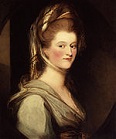





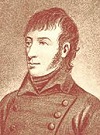
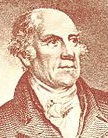









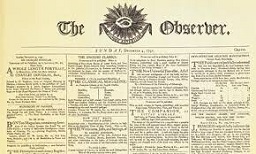
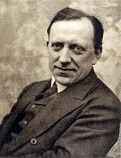

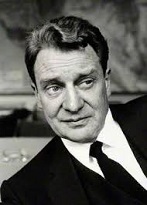
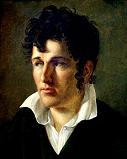

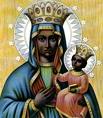




1791 On Jan. 3 the Methodist Episcopal (Old) New York Hospital (planned since 1769) opens, becoming the first public hospital in Brooklyn, N.Y. (40 years after Philly), and the first Methodist hospital. On Jan. 16 margrave (since Aug. 3, 1757) Charles Alexander sells his margraviate of Brandenburg-Ansbach to Prussia in return for 300K guilders/year, and abdicates in Bordeaux, France on Dec. 2 after marrying Lady Elizabeth Craven (1750-1828), daughter of the 4th earl of Berkeley in England on Oct. 13 (31?), moving to England, buying the Benharm Park estate in Speen (near Newbury) in West Berkshire, breeding horses. On Feb. 13 Pomare II (1782-1821) is installed as king #2 of Tahiti by his father Pomare I, and rules under regents until 1803. On Feb. 25 the First Bank of the U.S., proposed by U.S. treasury secy. Alexander Hamilton is chartered for 20 years by the U.S. Congress, becoming the first central bank of the U.S. (until 1811); it is housed in Carpenter's Hall in New York City until 1795, when a new $110K neo-classical bldg. is built to house it at Third St. between Chestnut and Walnut Sts. (finished 1797), becoming the first bldg. in the U.S. with a classical facade; Hamilton is a secret agent of German Jewish banker Mayer Amschel Rothschild (1744-1812)? In Feb. the U.S. Supreme (Jay) Court accepts its first docketed case, Van Staphorst v. Md., regarding an Am. Rev. War loan that Md. reneged on; it is settled before oral arguments. Tres Amigos? In Feb.-Mar. in England Thomas 'Tom' Paine (1737-1809) pub. the bestseller The Rights of Man, Pt. 1, a refutation of Edmund Burke's 1790 Reflections on the Revolution in France, defending the French Rev. and opposing monarchy, selling 1.5M copies and getting him into trouble with the govt., which assesses heavy penalties; British dramatist Thomas Holcroft (1745-1809) assists Paine in the publication, and in fall 1794 after joining the Society for Constitutional Information, he is indicted for high treason and held in Newgate Prison, then released in Dec. 1794 without a trial, causing secy. of war William Windham to call him an "acquitted felon", ruining his career, which doesn't stop him from cranking out 31 plays - heads will roll? On Feb. 28 Marquis de Lafayette stops a riot and plot against the royal family. On Mar. 4 9.25K-sq.-mi. "Green Mountain State" Vermont (Vt.) is admitted as the 14th U.S. state (free). On Apr. 2 Comte de Mirabeau (b. 1749) dies of pericarditis after being elected pres. of the French nat. assembly, declaring "I carry with me the ruin of the monarchy; after my death factions will dispute about the fragments", and the moderate republican Girondist party takes power in France (until 1793), eager for war. On May 3 Poland proclaims the U.S.-style Third of May Constitution, pissing off greedy Russia, Austria, and Prussia, who declare war on it and kick its butt by 1793. On June 14 the Le Chapelier Law outlaws all worker assocs. incl. cooperatives in an attempt to destroy the last remnants of the guild system and demonstrate the govt.'s commitment to recognize only one type of property, land; on July 20 it is extended to agricultural workers and servants. On June 20 after a year and a half of living without her fairy tale Petit Trianon world, Marie Antoinette finally quits being a bubble-headed blonde, gets smart, and plans and executes the secret Flight to Varennes, with her beau Count Hans Axel von Fersen the Younger (1755-1810) as driver, but since the king and queen are unable to get over the royal protocol bit and insist on traveling in a fancy new carriage which sticks out like a sore cake (and Louis' face is on the money?) on June 20 they are spotted and stopped at Varennes, 40 mi. from Austrian troops on the NE frontier waiting to protect them and lead an invasion to quash the rev., and turned back to Paris, driven slowly through angry crowds, who spit on "the most hated woman in France" Marie Antoinette while crying "we love you alone" to cypher-brained peasant-faced Louis, arriving on June 25; after this caper, their heads are as good as in the basket? On July 2 the Treaty of (the) Holston settles Tenn. territorial boundaries with the Cherokees, also establishing that the Cherokee tribes fall under the protection of the U.S., which will manage all their foreign affairs. On July 4 the First Bank of the United States puts its stock up for sale, and all $2M of it sells out within a few hours. On July 16 the king is suspended from office until he agrees to ratify the constitution (Sept. 14). On July 17 Marquis de Lafayette, cmdr. of the French Nat. Guard makes his last effort to control the sacred right of insurrection on the Champ de Mars in Paris, where a crowd attempts to draft a petition demanding the removal of Louis XVI, but after they fire on his soldiers, they fire back, causing the Massacre of the Champ de Mars, which discombobulates Europe; French astronomer (mayor since 1789) Jean-Sylvain Bailly (1736-93), who ordered it, becomes unpopular and retires to Nantes, and ends up getting guillotined 1793 after trying to visit his scientific colleague Pierre Simon Laplace at Melun and getting arrested - like a Three Stooges moron? In July Irish sympathy for the French Rev. results in 6K in "Athens of the North" Belfast voting a congratulatory message to the French nation; meanwhile on Oct. 18 after pub. "Argument on Behalf of the Catholics of Ireland", Dublin-born ("Father of Irish Republicans") Theobald Wolfe Tone (1763-98), along with Dublin-born James Napper Tandy (1740-1803), County Cork-born Thomas Paliser Russell (1767-1803), and London-born Archibald Hamilton Rowan (1751-1834) found the Society of the United Irishmen in Dublin (until 1804), with the aims of union among the Irish people, constitutional reform, and removal of all religious disqualifications; it is soon outlawed. In July the unpopular 28% federal excise tax on whiskey and domestic spirits takes effect, becoming the first federal excise tax on a U.S. product; it doubles the fun by imposing a higher rate on small producers, most of whom are in the west, and is doubled again by Alexander Hamilton's explanation that the tax is needed to pay off the nat. debt, which the western victims of the tax believe is due to wealthy easterners?; soon federal collectors are shunned, tarred, feathered, blindfolded and whipped as popular sentiment equates them with the hated former British tax collectors of the Stamp Act era, and mock guillotines are set up, stirring fears of a French-style rev. on Am. soil?; Washington decides to set a precedent by using a federalized militia against them, while Hamilton sees it as his big chance, supervising the mobilization and serves as chief of staff? On Aug. 3 the U.S. Supreme (Jay) Court rules unanimously in West v. Barnes that a writ of error (appeal) must be issued within 10 days by the clerk of the Supreme Court, not by a circuit court, causing Congress to pass section 9 of the U.S. Judicial Act of 1793 to permit it, becoming the first U.S. Supreme Court decision and the first calling for oral argument, which are all pub. by Philly lawyer Alexander James Dallas (1759-1817), the first (unofficial) Supreme Court Reporter in the U.S. Reports starting with vol. 2 (vol. 1 contains Penn. court decisions); in 1817 Congress makes the Reporter of Decisions an official salaried position; they are printed privately until 1874, when the govt. starts funding them. On Aug. 22-23 Black August in N Haiti (the French colony of Santo Domingo) (home of large-scale Indian genocide and African slavery) sees 400K-500K African slaves begin the Haitian Rev. (ends Jan. 1, 1804), an emeute (émeute) (uprising) against 30K white French slavemasters over the brutal conditions that have killed nearly 25K each year for the past cent., which later turns into the Haitian Rev. (ends 1804) becoming the first successful slave rebellion in history; before they start the uprising they dance a Voodoo Dance in Bwa Kayiman (Cayman) (Bois Caiman) (Caiman Forest), led by Haitian voodoo priestess Cecile Fatiman, who channels the spirit of warrior-love goddess black madonna with child Ezili Dantor, and crowns the African warrior Boukman with her royal red Petwo scepter to declare war, after which those present drink the blood of a black pig and swear that they will drive out the white French slavemasters or die trying, causing Euros to claim they made a pact with the Devil and that therefore Haiti is forever cursed by God. On Aug. 27 the Declaration of Pillnitz (Pilnite) is signed at Pillnitz Castle near Dresden by Frederick William II of Prussia and HRE Leopold II of Austria (brother of Marie Antoinette), promising to intervene in French affairs to restore Louis XVI, but only with the unanimous consent of the other powers incl. Britain; instead of stopping the French Rev., it helps trigger it a few weeks after Leopold II's death? On Aug. 30 after finding out about self-educated free black almanac maker Benjamin Banneker (1731-1806), who could do math and knew astronomy, Thomas Jefferson writes a letter him, expressing his delight in being proved wrong about their supposed incurable inferiority, with the soundbyte: "No body wishes more than I do to see such proofs as you exhibit, that nature has given to our black brethren, talents equal to those of the other colors of men, & that the appearance of a want of them is owing merely to the degraded condition of their existence both in Africa & America. I can add with truth that no body wishes more ardently to see a good system commenced for raising the condition both of their body & mind to what it ought to be, as fast as the imbecility of their present existence, and other circumstance which cannot be neglected, will admit." In Aug. after running off together from the frontier town of Memphis, Tenn., aspiring politician Andrew Jackson (b. 1767) marries Mrs. Rachel Donelson Robards (1767-1828) despite legal uncertainties about the status of her divorce to jealous hubby Capt. Lewis Robards of Ky., who obtains the first divorce in the history of Tenn. after suing the legislature for the right on the grounds of adultery; too bad, their marriage is later declared invalid because the divorce was not yet final, and they remarry on Jan. 17, 1794, becoming plagued with allegations of adultery forever, causing Andy to fight 13 duels, killing one; they have no children, but adopt her nephew and name him Andrew Jackson Jr.; when he runs for U.S. pres. in 1828, the press digs it up and causes her to freak and die of a heart attack, embittering him. Let's get started now, 1-800-1791-ZAPEM? On Sept. 3 the first-ever French Constitution of 1791 is promulgated in France, and ratified by the king on Sept. 13, followed by swearing an oath of alliegiance to the assembly while being made to wear a Red Cap of Liberty (Phrygian Cap) and drink to its health; the king retains only the right to delay legislative measures through a veto; only males are given citizenship, and must be born in France or of French parents, and are considered passive (nonvoting) until they take a civic oath, reach 25 years of age, be non-Jewish (waved on Sept. 27, although Jewish synagogues are closed, and Hebrew is prohibited), be on the rolls of the Nat. Guard, and pay a tax equivalent to three days' wages; after all that they get to choose electors who elect reps for a 2-year term in the legislature and are eligible to become officers of the depts., while as active citizens they can become municipal officers and judges; all ecclesiastical orders except those having to do with care of the sick or education are abolished, and clerics are once again required to take a civic oath; incorruptible humanitarian atty. Maximilien Robespierre, who gets every member of the Jacobin Club to take a theatrical oath to defend his life, opposes the death penalty when it is brought up in the Nat. Assembly, and is crowned with chaplets (along with Petion) is carried home in triumph by the mob at the close of the Nat. Assembly on Sept. 30 after it votes that none of its members are eligible for election to the next assembly then dissolves itself, and on Oct. 1 the 745-member Nat. Legislative Assembly (Parlementeront) convenes (ends Sept. 21, 1791) as the mobs threaten to get out of control; leftist-dominated from the get-go, the right steadily slides to zero, leaving three main parties on the left, the Plain Party (moderate republicans and monarchists), Girondists (Guadet, Vergniaud, Brissot et al., who advocate a U.S.-style federal repub.), and the Mountain Party, composed of Jacobins and Cordeliers, and led by Robespierre; as the legislature meets, the Mountain and Girondists begin a split as Robespierre (elected as first deputy for Paris) joins Danton and Marat in urging the king's execution. On Sept. 22 the city of Paterson, N.J. (modern-day pop. 147K) is founded by the Society for the Establishment of Useful Manufactures (SUM), founded by U.S. treasury secy. Alexander Hamilton, and named for N.J. gov. William Paterson, becoming the cradle of the Industrial Rev. in the U.S.; it is incorporated as a town on Apr. 11, 1831, and as a city on Apr. 14, 1851. In the fall there is a poor harvest in France, causing rising grain prices, which, compounded by the war, abolition of religious orders and elimination of the church tithe causes problems in administering relief to the poor, sparking unrest and riots in Paris. On Nov. 4 after a surprise dawn attack, the Battle of the Wabash River (Battle of a Thousand Slain) (St. Clair's Defeat) near modern-day Ft. Recovery, Ohio is a decisive V by 1.1K Native Ams. led by Little Turtle of the Miamis, Blue Jacket of the Shawnees, and Buckongahelas of the Delawares (Lenapes) over 1.1K U.S. troops led by Scottish-born George Washington-lookalike Gen. Arthur St. Clair (1737-1818), who lose 632 KIA or taken POW and 264 wounded, with only 24 escaping unharmed, becoming the largest Native Am. V and one of the worst U.S. Army defeats in percentage of casualties, causing Pres. Washington to force St. Clair to resign and Congress to launch its first investigation of the executive branch; Osage chief White Hair (Paw-Hiu-Skah) (1763-1809) gains his name when he attempts to scalp an officer and his powdered wig comes off in his hand as he escapes, causing him to keep it for the rest of his life. On Nov. 7 after John Rutledge resigns on Mar. 4 and he is nominated by Pres. Washington on Oct. 31, Thomas Johnson Jr. (1732-1819) is confirmed by the U.S. Senate as U.S. Supreme Court justice #7, and on Aug. 5, 1792 he is sworn-in, resigning on Jan. 16, 1793 after 163 days due to the difficulties of circuit-riding, becoming the shortest tenure (until ?) after becoming the first member to author a written opinion; he later becomes a member of the commission which lays out the city of Washington, D.C. On Dec. 4 The Observer Sun. broadsheet newspaper is founded in London, England by W.S. Bourne, becoming the world's first Sun. newspaper; too bad, he goes bankrupt and sells it to his brother, who gets govt. backing in return for influence over ed. content, going on to preach against Thomas Paine, Francis Burdett, Joseph Priestley et al.; in 1901 it is acquired by Lord Northcliffe, who sells it in 1911 to William Waldorf Astor, who gives it to his son Waldorf Astor, 2nd Viscount Astor (1879-1952) in 1915, with Conservative ed. (since 1908) James Louis Garvin boosting circ. to 200K by 1942 when he is forced out by Waldorf's liberal son Francis David Langhorne Astor (1912-2001), who becomes ed. in 1948-75, going on to oppose the 1956 govt. invasion of Suez, which causes circ. to tank, after which the Astors sell it to Atlantic Richfield (ARC), who sells it to Lonrho plc in 1981, who sells it to Guardian Media Group in June 1993. On Dec. 5 U.S. treasury secy. #1 (1789-95) Alexander Hamilton (1755-1804) presents his magnum opus Report on the Subject of Manufactures to Congress, proposing that the U.S. govt. vigorously encourage the growth of manufacturing in order to end all dependence on the Continent, incl. promotion of science, technology, and agriculture, along with immigration and moderate tariffs to subsidize manufacturing; U.S. Sen. Henry Clay (1777-1852) uses it to found the American (Nat.) System, consisting of high tarrifs, govt. investment in infrastructure, and a nat. bank that promotes productive enterprises rather than speculation. On Dec. 15 while godless revolutionists grab unlimited power in France, the really revolutionary power-limiting U.S. Bill of Rights (Amendments 1-10) (proposed and sent to the states by the first session of the First Congress in Federal Hall in New York City) is ratified after Va. becomes the 11th state to approve it; in 1941 Dec. 15 is declared U.S. Nat. Bill of Rights Day; by the year 2000 it is amended an average of once every 12 years; 1: freedom of religion, speech, press, assembly and petition; 2: right to bear arms; 3: quartering of soldiers limited; 4: searches and seizures; 5: due process; 6: right to an atty.; 7: right to trial by jury; 8: unfair punishment forbidden; 9: reservation of rights by citizens; 10: reservations of rights to states or people; 11: rules for lawsuits against states (1795); 12: new way of selecting pres. and vice-pres. (1804); 13: slavery abolished (1865); 14: equal protection under law (1868); 15: black voting rights (1870); 16: federal income tax (1913); 17: U.S. senators directly elected (1913); 18: sale of alcohol banned (1919); 19: voting rights for women (1920); 20: date of pres. and congressional terms set (1933); 21: 18th amendment repealed 1933); 22: pres. limited to two terms (1951); 23: people in D.C. given right to vote for pres. (1961); 24: no poll taxes in federal elections (1964); 25: pres. succession and disability (1967); 26: voting age lowered to 18 (1971); 27: congressional salaries regulated (1992). On Dec. 17 the first one-way street in the U.S. opens in New York City - a good test for the Bill of Rights? The Catholic Relief Act finally permits Mass, travel, and schools for Roman Catholics in England - check my vital signs now? The Constitutional (Clergy Endowments) (Canada) Act is passed by the British Parliament, helping loyalists fleeing unloyal America to feel at home; Canada is divided into two provinces, Upper and Lower; Quebec City is the capital of Lower Canada; meanwhile Prince Edward, Duke of Kent and Strathearn (1767-1820) becomes the first member of the British royal family to live in North Am. for any length of time (until 1800), and in 1794 the first prince to enter the U.S. when he travels by foot from Lower Canada to Boston, Mass.; on June 27, 1792 in an attempt to quell a riot at a polling station in Charlesbourg, Lower, Canada he becomes the first to use the term "Canadian" to mean both French and English settlers in Upper and Lower Canada, becoming known as "Father of the Canadian Crown"; in May 1799 he is appointed CIC of British forces in North Am. (until 1802), then gov. of gibraltar on Mar. 23, 1802. Avignon is ceded by the Vatican to France. The first gen. workers' strike is held in Hamburg, Germany. After being put up to it by his evangelical minister Johann Christof Wollner, Frederick William II of Prussia sets up an Inquisition-like commission in Berlin to watch over Protestant appointments and weed out "enlighteners" (modernists). Antonie-Laurent Lavoisier becomes commissary of the French treasury, and attempts to reform the monetary and taxation system as well as farming methods. The city of Jacksonville, Fla. (modern-day pop. 880K/1.6M) on the St. Johns River 25 mi. S of Ga. and 340 mi. N of modern-day Miami, Fla. is founded as Cow Ford on the King's Road to Ga.; on Feb. 9, 1832 it is chartered as a town and named after Andrew Jackson. The town of Watkins Glen, N.Y. (modern-day pop. 1.8K) at the S end of Seneca Lake 20 mi. N of Elmira is settled, originally called Salubria for its springs, incorporated in 1842, then renamed in 1852 in honor of resident Dr. Samuel Watkins. Paris-born French engineer (Valley Forge veteran) Maj. Pierre Charles L'Enfant (1754-1825) draws up the original plan for the District of Columbia (Washington, D.C.); a gridwork of parallel streets are overlaid with diagonal "grand avenues" which radiate from Jenkins' Hill (Capitol Hill) (site of the U.S. Capitol) and the Executive Mansion, which face each other along Pennsylvania Ave., with the President's Park to be located N of the President's House, later becoming Lafayette Square, and the President's Park South to be located S of the President's House, with the 1km circumference street in it called the Ellipse; a third focus is planned for the Supreme Court, but it ends up being put in the basement of the Capitol instead; there were a lot of Freemasons among the the Am. Founding Fathers, and they even laid out Washington, D.C. in a Masonic configuration? - the Satanic hexagram design is an Illuminati symbol in disguise? Alexandria, Va. (founded in 1749; incorporated as a town in 1779) (modern-day pop. 150K) 7 mi. S of Washington, D.C becomes part of the District of Columbia (until 1846), making big money trading slaves; it is incorporated as a city in 1852, and becomes independent in 1870. Aaron Burr defeats Alexander Hamilton's father-in-law for N.Y. Sen.; Thomas Jefferson later utters the soundbyte: "I never indeed thought him an honest, frank-dealing man, but considered him as a crooked gun, or other perverted machine, whose aim or stroke you could never be sure of." After leaving his native Brittany to join the French army in Navarre as a 2nd lt. and rise to the rank of capt., visiting Paris in 1788 and meeting French writers Andre Chenier, Jean-Francois de La Harpe, Louis-Marcelin de Fontanes et al., then initially backing the French Rev. only to have its violence turn him against it, future founder of French Romanticism Francois-Rene de Chateaubriand (François-René de Chateaubriand) (1768-1848) travels to the U.S. Deep South, claiming to visit the Natchez Indians of La. and meet George Washington, returning in 1792 and joining an army of royalist emigres in Coblenz under the Prince of Conde, after which he is wounded during the siege of Thionville and flees to exile in England, abandoning his wife Celeste and spending the rest of his life in poverty in London studying Milton et al. and cheating on his wife, reconverting to Roman Catholicism in 1798. Mission Santa Cruz is founded on the N edge of Monterey Bay in Calif. 75 mi. S of modern-day San Francisco by missionary priest Juan Crespi; in 1797 Villa de Branciforte is founded by the Spanish colonial govt. of Alta Calif. on the E bluff of the San Lorenzo River facing the mission on the other side; in 1866 the city of Santa Cruz, Calif. (modern-day pop. 64K/262K) is incorporated, and chartered in Apr. 1876; in 1905 Branciforte is annexed; in the 20th cent. it calls itself "Surf City", becoming a center of progressive liberal activism. Dmitry Bocharov (Becharof) explores the NW shore of the Alaska Peninsula, discovering 37-mi.-long Becharof Lake, 2nd largest lake in Alaska after Iliamna Lake. The word "whopper"> is first used to mean a big lie; its meaning of impressively big dates back to the 1620s. An English court case blames a cat for stealing a baby's breath and killing it. The U.S. issues a pre-Mint Washington Cent. Comte de Rochambeau is appointed gov. of Picardy and Artois and made a marshal. The first Irish prisoners, often country folk given life sentences by the British for political crimes arrive in Botany Bay after a 6-mo. slave ship horror voyage. The U.S. Supreme Court moves from Independence Hall in Philly to the Federal style Old City Hall in Philly at 5th and Chestnut St. until 1800, after which it has no permanent meeting location until 1810. Goethe becomes dir. of the ducal theater in Weimar (until 1813), which keeps him in the burg that still sticks to lame Sturm und Drang and doesn't appreciate his classical mind? The Albany Inst. of History and Art is founded in Albany, N.Y. Wilhelm von Goethe is named dir. of the Weimar Court Theater (until 1817). Benares College is founded in Benares, India, becoming a center of Sanskrit study. The U. of Vt. is founded in Burlington, Vt. by Ira Allen (1751-1814), brother of Ethan Allen and the Marquis de Lafayette, who visits it in 1825, becoming its main claim to fame. The Royal Veterinary College in London is founded. Architecture: The Brandenburg Gate (Brandenburger Tor) in Berlin (begun 1788) is finished - lots of fun to goose-step under? Inventions: Wolfgang Ritter von Kempelen (1734-1804) pub a book detailing the design for a human voice speaking machine capable of reproducing short phrases. Science: The horrors of future wars are seen in a twitching frog leg in Italy? Italian scientist Luigi Galvani (1737-98) accidentally discovers that electric current makes a frog's leg muscles twitch, and that twitching can be produced by connecting a nerve ending and the end of the leg with a metal strip, calling it "animal electricity", believing that only living tissues can generate it; he also discovers that electricity and magnetism are linked, and develops an experimental electrical motor. Am. dentist John Greenwood invents a foot drill, along with a method for mounting natural or artificial (prosthetic) teeth, and about this time constructs two partial and three full dentures for Pres. Washington; about this time silversmith Paul Revere sidelines as a dentist. English Anglican minister and mineralogist William Gregor (1761-1817) of Cornwall, England discovers the metallic element Titanium (Ti) (#22) (melting point 3,272 F) in (ilmenite) (FeTiO3) from the Manaccan Valley, and names it manaccanite; in 1795 Martin Klaproth of Germany rediscovers it in rutile from Hungary, and names it for the Greek Titans. Nonfiction: William Bartram (1739-1823), Travels through North and South Carolina. Jeremy Bentham (1748-1832), Panopticon; his idea of a prison where one guard can observe all the prisoners without being seen, keeping them on their toes. Johann Friedrich Blumenbach (1752-1840), Uber den Bildungstrieb und das Zeugungsgeschaft. James Boswell (1740-95), Life of Samuel Johnson [1709-84]; the ultimate masterpiece of biography? Jacques Pierre Brissot (1754-93), Theorie des Lois Criminelles; the philosophy of criminal law. Isaac Disraeli (1766-1848), Curiosities of Literature (6 vols.) (1791-1834). Rev. William Gilpin (1724-1804), Remarks on Forest Scenery and Other Woodland Views. Johann Wolfgang von Goethe (1749-1832), Beitrage zur Optiks (1791-2). Olympe de Gouges, (1748-93) Declaration of the Rights of Women and the Female Citizen; "Male and female citizens, being equal in the eyes of the law, must be equally admitted to all honors, positions, and public employment according to their capacity and without other distinctions besides those of their virtues and talents" - laugh this one off, Laffy? Johann von Herder (1744-1803), Ideen zur Philosophie der Geschichte der Menschheit. August von Kotzebue (1761-1819), Meine Flucht nach Paris im Winter 1790 (autobio.). Philippe Pinel (1745-1826), Traite Medico-Philosophique sur l'Alienation Mentale. William Robertson (1721-93), An Historical Disquisition Concerning the Knowledge Which the Ancients Had of India. Christian Friedrich Daniel Schubart (1739-91), Schubart's Life and Thought (autobio.) (2 vols.) (1791-3). Thomas Sheraton (1751-1806), The Cabinet Maker's and Upholsterer's Drawing Books (4 vols.); his designs are widely copied although he never actually builds any furniture of his own? John Sinclair, The Statistical Account of Scotland. Count de Volney (1757-1820), Les Ruines, ou Meditations sur les Revolutions des Empires (The Ruins, or Meditations on the Revolutions of Empires); questions the historicity of Jesus Christ along with all revealed religions, calling for absolute separation of church and state in a govt. that allows enlightened self-interest to flourish, after which all religions will recognize their common underlying truth and unite; after which all religions will recognize their common underlying truth and unite; "From this we conclude, that, to live in harmony and peace... we must trace a line of distinction between those (assertions) that are capable of verification, and those that are not; (we must) separate by an inviolable barrier the world of fantastical beings from the world of realities"; Volney visits Thomas Jefferson at Monticello in June 1796, getting Jefferson to agree to trans. his book into English, giving up after 20 chapters and handing the work to Paris-based Joel Barlow. John Walker (1732-1807), Critical Pronouncing Dictionary and Expositor of the English Language. James Weatherby, The General Stud Book; pub. in England, with 387 mares tracing to one of the three foundation Arabian horses, becoming the official registry for the English Thoroughbred. Juan Yuan (1764-1849), Verse of Astronomer Zhang Hang (-78 to 139); claims that all Western science originated in China. Art: Angelica Kauffmann (1741-1807), Self-Portrait Hesitating Between the Arts of Music and Painting. George Morland (1763-1804), Inside of a Stable. Augustin Pajou (1730-1809), Psyche Abandoned (sculpture). Music: Carl Michael Bellman (1740-95), Songs of Fredman; more hits. Luigi Cherubini (1760-1842), Lodoiska (Lodoïska) (opera) (Theatre Feydeau, Paris) (July 18); libretto by Claude-Francois Fillette-Loraux, from the novel "Les Amours du Chevalier de Faublas" by Jean-Baptiste Louvet de Couvrai, about the Princess of Altanno and Count Floreski; his first big hit (200 perf.), praised for realistic heroism, although later it is mistaken as an early Romantic opera. Nicholas Dalayrac, Camille (opera); introduces the innovation of bells - who cares if they're unwieldy they're crowd-pleasers? Franz Joseph Haydn (1732-1809), The Surprise Symphony; "This will make the ladies jump" (a sudden loud symbol crash). Vicente Martin y Soler and Vasili Pashkevich, Fedul and His Children (opera) (St. Petersburg). Wolfgang Amadeus Mozart (1756-91), La Clemenza di Tito (opera) (Sept.); The Magic Flute (Die Zauberflote) (about Sarastro) (Vienna) (Sept. 30); (he conducts the debut 10 weeks before his death); German libretto by Emanuel Schikaneder; the #1 Zauberopera; filled with Masonic symbolism, incl. 3-part harmony, three raps on the door, etc.; Quintet for the Glass Armonica; Requiem Aeternam (unfinished); composed on his deathbed after being commissioned by Count Franz von Walsegg (1763-1827), an amateur musician living in Stuppach Castle near Gloggnitz, who likes to pass off others' works as his own; to get the rest of the money Mozart's wife Constanze arranges for his pupil Franz Xaver Sussmayr (1766-1803) to complete it; Clarinet Concerto in A major (K.622); written for fellow Freemason clarinetist friend Anton Stadler. Plays: Marie-Joseph Blaise de Chenier (1764-1811), Henry VIII (Palais Royal, Paris); inaugurates the theater; his best work?; Jean Calas, ou l'Ecole des Juges (Jean Calas, or The Judges' School)(Paris); both star Francois Joseph Talma. Rhyijnvis Feith (1753-1824), Lady Jane Grey (tragedy). Poetry: William Blake (1757-1827), The French Revolution; calls for the destruction of the Bastille in the name of freedom. Robert Burns (1759-96), Tam O'Shanter; a drunken farmer of Ayr stumbles on a witches' sabbath in the kirkyard of Alloway, and is pursued by wanton Cutty Sark ("short skir") to the River Doon, with his horse Meg's tail pulled off just as he reaches the Brig O'Doon; the name is adopted for a Scottish cap with a wide round flat top and center pompon. Andre Marie Chenier (1762-94), Jeu de Paume. Births: Austrian "The Golden Fleece" #1 dramatist Franz Seraphicus Grillparzer (d. 1872) on Jan. 15 in Vienna; educated at the U. of Vienna. Italian "The Kiss" Romantic painter Francesco Hayez (d. 1882) on Feb. 10 Venice; French descent Father, Italian mother. Am. industrialist-politician (designer of the Tom Thumb locomotive and inventor of Jell-O) Peter Cooper (d. 1883) on Feb. 12 in New York City; of Dutch descent; father of Edward Cooper (1824-1905). Austrian pianist-composer Karl (Carl) Czerny (d. 1857) on Feb. 21 in Vienna; pupil of Beethoven; teacher of Franz Liszt. Spanish Romantic dramatist-poet Angel de Saavedra, Duke of Rivas (d. 1865) on Mar. 10 in Cordoba. Am. journalist-politician (member of Pres. Andrew Jackson's Kitchen Cabinet, and co-founder of the Repub. Party) Francis Preston Blair (d. 1876) on Apr. 21 in Abingdon, Va.; educated at Transylvania U. U.S. Doughface Dem. pres. #15 (1857-61) and U.S. secy. of state #17 (1845-9) James Buchanan Jr. (d. 1868) on Apr. 23 in Mercersburg (Cove Gap) (Lancaster County), Penn.; 3rd U.S. pres. born in a log cabin, although his daddy is a well-to-do storekeeper-farmer?; first pres. from Penn. (until ?); first lifelong bachelor pres. (until ?); educated at Dickinson College. Am. "The Dying Hercules" artist and electric telegraph inventor ("the American Leonardo") Samuel Finley Breese Morse (d. 1872) on Apr. 27 in Charlestown, Mass.; educated at Yale U.; studies painting in England under Washington Allston (1779-1843); co-inventor of the electric telegraph with Alfred Lewis Vail (1807-59). English Worcestershire sauce king John Wheeley Lea (d. 1874) on May 8 in Feckenham, Worcestershire; partner of William Henry Perrins (1793-1867). English botanist-explorer Allan Cunningham (d. 1839) on July 13 in London. Swedish poet-writer Adolf Ivar Arwidsson (d. 1858) on Aug. 7 in Padasjoki, Finland. German operatic composer (Jewish) Giacomo Meyerbeer (Jakob Liebmann Beer) (d. 1864) on Sept. 5 near Berlin; rich parents; brother of Wilhelm Beer (1797-1850) and Michael Beer. English businessman (founder of the Manchester Guardian) John Edward Taylor (d. 1844) on Sept. 11 in Ilminster, Somerset; son of Unitarian minister-turned Quaker John Taylor and poet Mary Scott (1751-93); grows up in Manchester; father of John Edward Taylor Jr. (1830-1905). German linguist Franz Bopp (d. 1867) on Sept. 14 in Mainz; grows up in Aschaffenburg. Hungarian statesman-writer Count Istvan Szechenyi (István Széchenyi) (d. 1860) on Sept. 21 in Vienna. English physicist (strict evangelical Protestant who parts his hair in the middle) Michael Faraday (d. 1867) on Sept. 22 in Newington Butts, South London; son of a failed Sandermanian blacksmith; apprentices to a London bookbinder, attends public lectures on science, switches to asst. demonstrator at London's Royal Inst., and begins a climb to the top, never seeking financial gain? - gets a physical unit named after him, oh boy? German poet-soldier Carl Theodor Korner (Körner) (d. 1813) on Sept. 23 in Dresden. French Romantic "The Raft of the Medusa", "Decapitated Heads" painter-lithographer Jean-Louis Andre Theodore Gericault (Jean-Louis André Théodore Géricault) (d. 1824) on Sept. 26 in Rouen, Normandy. French Dulong and Petit Law physicist Alexis Therese (Thérèse) Petit (d. 1820) on Oct. 2 in Vesoul, Haute-Saone. Am. brewer Peter Ballantine (d. 1883) on Nov. 16 in Dundee, Scotland; emigrates to the U.S. in 1820. Scottish engineer George Rennie (d. 1866) on Dec. 3 in London; son of John Rennie the Elder (1761-1821); brother of John Rennie the Younger (1794-1874). Austrian archduchess and French empress (1810-4) Marie Louise (d. 1847) on Dec. 12 in Vienna; daughter of HRE Francis (Franz) II (Emperor Francis I of Austria); 2nd wife of Napoleon I, and empress of France (1810-15). French "Night of the National Guard" well-made play (piece bien faite) dramatist-librettist Augustine Eugene (Eugène) Scribe (d. 1861) on Dec. 24 in Paris. English mathematician-philosopher (inventor of the programmable computer) Charles Babbage (d. 1871) on Dec. 26 in London; educated at Trinity College and Peterhouse College, Cambridge U. French technocrat (disciple of Comte de Saint-Simon) Saint-Amand Bazard (d. 1832). Omani sultan (1806-56) Sa'id ibn Sultan (d. 1856). Danish dramatist Johan Ludvig Heiberg (d. 1860) in Copenhagen; educated at the U. of Copenhagen. Deaths: English divine (Methodist Church founder) John Wesley (b. 1703) on Mar. 2: "Cleanliness is next to godliness" (Sermons, no. 93, "On Dress"); "Ever since the religion of Islam appeared in the world, the espousers of it have been as wolves and tigers to all that fell into their merciless paws, and grinding them with their iron teeth; that numberless cities are raised from the foundation, and only their name remaining; that many countries, which were once as the garden of God, are now a desolate wilderness; and that so many once numerous and powerful nations are vanished from the earth! Such was, and is at this day, the rage, the fury, the revenge, of these destroyers of human kind." French sculptor Etienne Maurice Falconet (b. 1716) on Jan. 24. Welsh hymn writer William Panycelyn (b. 1717). French Adm. Count Toussaint-Gillaume Picquet de la Motte (b. 1720) on June 10 in Brest. Am. printer William Bradford (Jr.) (b. 1722); official printer of the Continental Congress. Welsh Congregationalist minister Richard Price (b. 1723). Polish Jewish religious leader Jacob Frank (b. 1726) on Dec. 10 in Offenbach am Main, Isenburg-Birstein, Germany; dies using the title of Baron of Offenbach, leaving his daughter Eve Frank (-1816) as leader of his sect. Am. statesman Benjamin Harrison V (b. 1726) on Apr. 24 in Charles County, Va. English writer Hester Chapone (b. 1727). British rear adm. Charles Inglis (b. 1731) on Oct. 10. English historian Catharine Macaulay (b. 1731) on June 22 in Binfield. Am. Rev. leader and poet-jurist (DOI signer) Francis Hopkinson (b. 1737). British lt. col. Archibald Campbell (b. 1739) on Mar. 31 in London; buried in Westminster Abbey. Russian field marshal Prince Grigori Potemkin (b. 1739) on Oct. 16 (Oct. 5 Old Style) between Nikolayev and Jassy; dies after eating a whole goose while in a high fever - talk about the English Stud Book? German poet-musician Christian Schubart (b. 1739) on Oct. 10. English explorer Samuel Hearne (b. 1745) in Nov. French Rev. statesman Comte de Mirabeau (b. 1749) on Apr. 2 in Paris (pericarditis); last word (written): "dormir" (sleep); the Paris Pantheon is created for him, until his secret double-dealings with the king are revealed in 1792, causing his remains to be removed in 1794. Spanish poet Tomas de Iriarte y Oropesa (b. 1750) on Sept. 17 in Madrid (gout). Austrian classical master wunderkind composer Wolfgang Amadeus Mozart (b. 1756) on Dec. 5 in Vienna (typhoid fever) (caused by lack of sunshine and Vitamin D?); dies at the tender age of 35, leaving his "Requiem" unfinished, along with 625 other works, incl. 22 operas, 10 string quartets, 'and 27 piano concertos (most ever for a classical composer), the first at age 11 (the best are a series of 12 written in 1784-6?); he was hot in Prague but only lukewarm in Salzburg; funeral services are held at St. Stephen's Cathedral (Stephansdom) only 1 block away from where he lived, and few attend; he is buried in an unmarked mass grave.


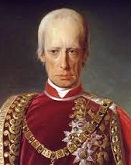

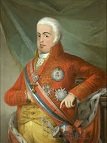


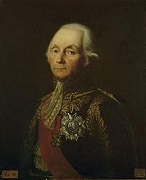









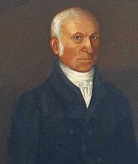



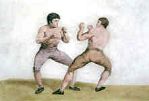





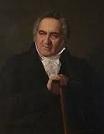

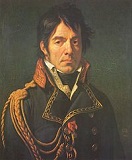
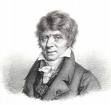












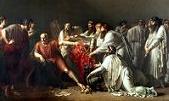
1792 On Jan. 15 after they don't fare any better than before the Am. Rev., 1,193 freed blacks leave Halifax, N.S., Canada for Sierra Leone; the Book of Negroes of escaped Am. slaves that fought for the British in the Am. Rev. War and were resettled in Novia Scotia contains the names of 1,336 men, 914 women, and 750 children; meanwhile the U.S. Congress excludes blacks from military service, allowing only "free able-bodied white male citizens". In Jan. Requiem Aeternam, the last composition of the late Wolfgang Amadeus Mozart (1756-91) (whose portrait bears a striking resemblance to English actor Tim Roth (1961-)?), completed by his pupil Franz Xaver Sussmayr (Süssmayr) (1766-1803) debuts, attended by respectful colleague Antonio Salieri (1750-1825) to benefit his ne'er-do-well family - what to do if your squeeze is way better looking than you are? On Feb. 7 Frederick William II of Prussia and HRE Leopold II sign an alliance against the French repub. govt. in favor of Louis XVI; too bad, Leopold dies within 1 mo., and Frederick William II is more interested in stealing Poland than helping bolster monarchism in France, so he does a half-job, which ultimately boomerangs at the 1806 Battle of Jena? On Feb. 10 Portuguese queen (since Feb. 24, 1777) Maria I (b. 1734) is declared insane by 17 physicians, and her son Joao VI "the Clement" (1767-1826) begins to rule in her name, being officially declared regent in 1799 until her death on Mar. 20, 1816 - nothing takes care of you like state farm? On Feb. 20 Pres. Washington signs an act creating the U.S. Post Office - in the good old days before automatic weapons? On Feb. 23 Sir Joshua Reynolds (b. 1723) dies, and U.S. immigrant Benjamin West becomes pres. #2 of the Royal Academy of Arts in London; George III makes Sir Thomas Lawrence (1769-1830) (knighted in 1815) his royal portraitist, joining Thomas Gainsborough and Sir Joshua Reynolds as the big three in English portrait painting. On Mar. 1 Leopold II (b. 1747) dies, and his son Francis II (1768-1835) becomes the last Holy Roman emperor (HRE) (until 1806), becoming known for his diplomatic and admin. abilities. On Mar. 8 a large Chinese army reaches Lhasa to help Tibet fight landlocked Nepal (home of Mt. Everest), and the combined army invades Nepal; after a flood of the Betrawoti River washes away many of the Chinese troops, on Oct. 5 the Treaty of Betrawoti ends the war; Nepal signs a commercial treaty with Britain. On Mar. 9 British Christian evangelical abolitionist naval officer Lt. John Clarkson (1764-1828) arrives in Sierra Leone with 1.2K unwelcome freed Am. black slaves from the Am. Rev. War from Nova Scotia in 15 ships led by Thomas Peters (Potter) (1738-92), who found the utopian settlement of Freetown, with Clarkson as gov. #1 (until Dec. 1792); Big Peter gets into a political struggle with Clarkson then dies of malaria in Freetown during the rainy season, leaving descendants who become the Krio (Creole) people of Sierra Leone; too bad, these whitened-up Africans end up creating a race-based class society that keeps the indigenous African pop. down, causing resentment and hostility? On Mar. 16 Gustavus (Gustav) (Gustaf) III of Sweden is shot at a masquerade party at the Stockholm Opera House by Jacob Johan Anckarstrom (Anckarström) (b. 1762), one of his nobles (former member of his regiment) (executed Apr. 27), with the soundbyte "Bonjour, beau masque" (Good day, fine mask), and dies on Mar. 29 from infection, his last words being "I feel sleepy, a few moments rest will do me good"; famous medium Ulrica Anna Arfvidsson (1734-1801), who predicted his assassination in 1786 is questioned by the police; his 14-y.-o. son Gustavus (Gustav) (Gustaf) IV Adolf (1778-1837) succeeds him (until 1809). On Mar. 16 Denmark becomes the first country to abolish the slave trade (takes effect in 1803). Welcome to the next round? A classic case of what goes around comes around? The pen is mightiless against the sword? On Mar. 20-25 the Legislative Assembly in Paris sticks its neck out and approves the use of the centuries-old "painless" Guillotine, named after physician (Freemason) Joseph-Ignace Guillotin (1738-1814), who recommends it as a humane form of execution, as well as a way of eliminating the class distinction of hanging commoners while beheading nobles, who are expected to go to their deaths without displaying emotions unless they're women; on Apr. 4 the first guillotine is installed in the Place de Greve in Paris; on Apr. 25 highwayman Jacques Nicolas Pelletier becomes the first person executed by the new "feminine" form of execution; in Aug. a giant guillotine is erected in the Place de Carrousel in the center of Paris, whose blade makes a noise like thunder when it falls, designed by German harpsichord maker Tobias Schmidt, who was working with Metz-born king's surgeon Antoine Louis (1723-92) (secy. of the surgical academy), and main executioner (since 1754) Charles Henri Sanson (1739-1806) (4th hereditary executioner in the family since 1688); Schmidt turns the blade o a 45-deg. angle and changes it from round to you know what, and it is weighted by a pulley system as it travels down two 14-ft. upright greased wooden planks, all of which are reached by a 24-step platform; in 1890 asst. executioner Leon Burger adds refinements; the machine is set up also at the Place de la Revolution, Place St. Antoine, and Barriere (Barrière) Ranverse; it is originally called "La Veuve" (window), and after Louis XVI's execution "La Louison", then after Marie Antoinett'e execution "La Louisette", and not called guillotine until after 1800; 15K heads roll by 1799, out of 40K total killed during the Terror, 70%-80% of them commoners; tricoteuses sometimes sit near the base of the scaffold knitting stockings for soldiers - well, shiver me carotids? On Apr. 2 the first U.S. Mint in Philly is established by the U.S. Mint (Coinage) Act, which specifies coinage of silver and gold in the ratio of 15:1; dir. #1 is Penn.-born self-taught scientist David Rittenhouse (1732-96) (until 1795). On Apr. 5 the first U.S. pres. veto is cast as Pres. Washington rejects a congressional measure for apportioning reps among the states. On Apr. 18 the Nat. Guard orders Louis XVI, Marie Antoinette and their family to not leave Paris; Maximilien Robespierre is appointed public accuser. On Apr. 20 after getting pissed-off by the 1791 Declaration of Pillnitz and issuing ultimatums against HRE Leopold II and Francis II, France declares war on the HRE (Austria), which lasts 23 years (until 1815) and results in 1.5M French KIA; the First Coalition against France is formed. On Apr. 25 French army officer (capt. of engineers at Strasbourg) Claude Joseph Rouget de Lisle (1760-1836) composes the French nat. anthem (adopted in 1795) La Marseillaise (Song of Marseille) (originally "War Song of the Army of the Rhine") (Chant de guerre pour l'Armée du Rhin) (dedicated to Bavarian-born French marshal Nicolas Luckner), which is sung at a patriotic meeting in Marseille by Francois Mireur (1770-98) and catches on, being sung in the streets of Paris upon arrival by volunteers from Marseille then spreading to the rest of the French army; it is adopted as the French nat. anthem on July 14, 1795; after they occupy the town of Carmagnola in Piedmont, Italy, French revolutionaries begin wearing their costume, the Carmagnole, a short jacket with wide lapels, worn with black trousers instead of knee breeches, earning them the name "sans-culottes", meaning without breeches, along with a red cap and tricolored girdle; "La Marseillaise" is first sung on July 30 in Paris. On May 5 the first U.S. Militia Acts of 1792 is passed by Congress, providing for the U.S. pres. to take command of state militas in times of insurrection or imminent invasion; it is first used to suppress the 1794 Whiskey Rebellion; the 2nd act is passed on May 8. On May 11 New England ship capt. Robert Gray (1755-1806) enters the estuary of the Columbia River (which he names after his ship) in NW Am., which event is later cited by the U.S. when claiming the region. Back it up, hook it up, and don't look back? Don't just stand there, say something? Breathtaking? On May 17 after a meeting by 24 traders under a buttonwood tree at 68 Wall Street in New York City, the Buttonwood Agreement creates the New York Stock and Exchange Board, the precursor of the New York Stock Exchange (1817); in 1863 it shortens the name to New York Stock Exchange (NYSE). In May the U.S. tax rates on whiskey are lowered to no avail, and the Whiskey Rebellion ferments to nearly 200 proof? In May Alexander Mackenzie leaves with nine companions and 1.5 tons of supplies in a 25-ft. birch bark canoe to find a westerly route to the Pacific Ocean from Peace River near Lake Athabasca in Alberta, Canada; they reach the Continental Divide on June 12 after deciding to take the Parsnip River south rather than the Finlay River north at Willaston Lake. In May an aide-de-camp to Col. Marquis de Toulengeon deserts, and his daddy the Marquis de Sade, who was elected to the Nat. Convention in 1790 representing the far left, where he wrote a pamphlet calling for the direct vote is forced to disavow him to save his neck; next year he writes a eulogy of Jean-Paul Marat to save his job, but is accused of moderatism, forced to resign, and imprisoned, after which he is released after the July 28, 1794 execution of Maximilian Robespierre, and becomes a penniless bum, selling his ruined castle in Lacoste in 1796, which in the 1990s is purchased by French fashion designer Pierre Cardin for theater festivals. On June 1 "Bluegrass State" Kentucky (Ky.) ("Land of Tomorrow") ("Meadow Lands") ("Cane and Turkey Lands") is separated from Va. and admitted as the 15th U.S. state (slave), becoming the 4th commonwealth in the Union (Va., Penn., Mass.), with Isaac Shelby (1750-1826) (ancestor of historian Shelby Foote) as gov. #1 (until 1796); not too fond of U.S. whiskey taxes, the state slogan is "Spirits Unbridled" - the future of bourbon is secure? In July France declares war on Sardinia. In July Comte de Rochambeau, cmdr. of the French Rev. Northern Army freaks at the excesses and retires in disgust, and ends up imprisoned during the Reign of Terror, escaping the guillotine by the fall of Robespierre in 1794, being released and restored by Napoleon to his rank and estates. Beyond the Yellow Brick Road? On Aug. 10 popular demonstrations lead to the storming of the Tuileries Palace, the royal residence on the right bank of the Seine River in Paris, and the royal Swiss Guard (created 1616) shows their loyalty by defending it, losing 800 KIA; all functions of the monarchy are suspended, and not only is the king's veto power quashed, but the Nat. Legislature votes to enact all legislation he previously vetoed, and calls for a convention elected by universal male suffrage to enact a new constitution; the poor royal family is confined to tower of the the gloomy Square du Temple (old Knights Templar house) in Paris; La Carmagnole, a song written after the storming of the Tuileries, consisting of 13 2-line stanzas ridiculing the king and queen becomes popular until the end of the Terror in 1794; "Dansons la carmagnole,/ Vive le son, vive le son;/ Dansons la carmagnole,/ Vive le son du canon". On Aug. 11 as the allies score big Vs against the French revolutionaries, the 9 (later 12) man Jacobin Provisional Executive Council (Committee of Public Safety) under Danton, Robespierre, Saint-Just, et al., and the male suffrage-based Paris Commune under Jacques Rene Hebert (René Hébert) (1757-94) (founder of the ultra-radical newspaper "La Pere Duchesne"), Pierre Gaspard Chaumette (1763-94) and Jean Baptiste du Val-de-Grace, Baron de Cloots (1755-94) (AKA Anacharsis Cloots) seize power. On Aug. 11 the U..S. Supreme Court rules in Georgia v. Brailsford that "a State may sue in the Supreme Court to enjoin payment of a judgment in behalf of a British creditor taken on a debt, which was confiscated by the State, until it can be a scertained to whom the money belongs", becoming the first U.S. Supreme Court case in which a state appears as a party, and the first written option by a justice, Thomas Johnson Jr. On Aug. 20 the Battle of Verdun is a V for the Prussians over French Rev. forces, after which the 12 Virgins of Verdun carry a basket of sugared almonds to the Prussian king's tent (they are later guillotined); on Sept. 2-7 news of it causes the September Massacres to take place in Paris, in which 1.2K-1.4K suspects taken from prisons are tried in improvised tribunals and then executed; the riots spread to Versailles, Lyons, Rheims, Meaux, and Orleans, and anarchy threatens, while cries for the king's head increase. On Sept. 9-16 free trade on grain is suspended in France, with army and civil authorities empowered to requisition it; amnesty is granted to people arrested for agitation over grain. On Sept. 20 a French Repub. army under Lt. Gen. Francois Christophe Kellermann (1735-1820) (gen. of the army of Alsace since 1791) finally defeats the Prussians under the Duke of Brunswick, the Prince of Hohenlohe, and the Count of Clerfayt at the Battle of Valmy in N France, giving them their first V, which Goethe claims "opened a new era in the history of the world", making Kellermann a star, with Napoleon uttering the soundbyte: "I think I'm the boldest general that ever lived, but I daren't take post on that ridge with windmill at Valmy"; too bad, after being transferred to the army of the Moselle River, Kellermann is accused of Gen. Adam Custine of incompetence, but is acquitted at the Nat. Convention in Paris and given the army of the Alps and Italy, until he is ordered to stop a revolt in Lyons, and is accused again and imprisoned for 13 mo. before being acquitted and assigned to the SE border until his army is merged with Napoleon's in Italy, with big fan Napoleon getting him named senator in 1800, pres. of the senate in 1801, marshal of France on May 19, 1804, and created duke of Valmy in 1808; in 1814 he votes to depose Napoleon, and becomes a liberal member of the Chamber of Peers until Louis XVIII. Louis Philippe Joseph, Duc de Chartres (Valois) (1773-1850) (later Duc de Orleans), who joined the Jacobins in 1790 fights at Valmy as a lt. gen., and later at Jemappes. On Sept. 20 the French Nat. Legislature orders the state to take over the recording of marriages, births and deaths from the Church, and legalizes divorce. On Sept. 21 the French Nat. Convention convenes (until Aug. 22, 1795), elected by universal male suffrage and composed of 749 members (486 new), with the Plain Party in the majority, the Girondists on the right, and the Mountain Party (Danton, Robespierre et al.) on the left; it immediately votes to abolish the monarchy (making the king and queen ordinary citizens) and suspend the legislative assembly; the hated gabelle (salt tax) (begun 1341) is abolished (until 1804); nobles kiss their titles goodbye, and become "ci-devant" (heretofore) nobles. On Sept. 22 the First French Repub. is declared, with the calendar reset to Year 1 (ends 1804); on Sept. 25 the repub. is declared "one and indivisible". On Oct. 2 the Committee of Gen. Security is formed in France, with undefined police powers - Halloween 1-999 music here? On Oct. 12 the U.S. celebrates its first Columbus Day to commemorate the 300th anniv. of the big landing; on Oct. 13 the cornerstone of the President's House, the U.S. executive mansion is laid during a ceremony in the District of Columbia (finished in 1800); Irish-born Am. architect James Hoban (1762-1831) models it after Leinster House, home of the duke of Leinster in Ireland (later seat of the Irish parliament); African-Am. slaves are used in the construction, along with Scottish immigrants; too bad, the British torch it in 1814, causing it to need whitewashing and end up with the name you know what. On Nov. 2-Dec. 5 the 1792 U.S. pres. election sees George Washington and John Adams are reelected unanimously; too bad, the unanimous stuff ends as Thomas Jefferson founds the Democratic-Republican Party (later the Democratic Party) as a congressional caucus to fight against the Federalist Party, formed in 1789 by Alexander Hamilton, launching the First Party System (ends 1824), with the Federalists becoming dominant until 1800; on Feb. 12, 1798 Thomas Jefferson writes the soundbyte: "Two political Sects have arisen within the U. S. the one believing that the executive is the branch of our government which the most needs support; the other that like the analogous branch in the English Government, it is already too strong for the republican parts of the Constitution; and therefore in equivocal cases they incline to the legislative powers: the former of these are called federalists, sometimes aristocrats or monocrats, and sometimes Tories, after the corresponding sect in the English Government of exactly the same definition: the latter are stiled republicans, Whigs, jacobins, anarchists, dis-organizers, etc. these terms are in familiar use with most persons." On Nov. 6 45K French under Gen. Charles Francois du Perier (Périer) Dumouriez (1739-1823) defeat 13K Austrians in their winter HQ in the Battle of Jemappes in SW Belgium, causing them to retreat, after which the French capture Brussels. On Nov. 19 the Decree of Fraternity offers French aid to people wishing to overthrow their govts., causing the English govt. to get antsy, while Irish nationalists take them up on their offer. On Dec. 4 the French Nat. Convention declares the death penalty for advocating monarchy; on Dec. 8 it repeals its suspension on free trade in grain but outlaws exports; in the Beauce region prices are fixed, causing peasant demonstrations. On Dec. 10 Louis XVI goes before the Nat. Convention to face neckable charges of treason, and on Dec. 11 is presented with incriminating letters from his iron cupboard, claiming to have never seen them and denying his own signature, causing the Jacobins to decide he's guilty; on Dec. 27 the Girondists (moderate republicans) propose a referendum of the people to decide - the original American Idol? On Dec. 11 British Capt. Arthur Phillip, first gov. of New South Wales, Australia (since 1788) resigns and leaves for England in the ship Atlantic, bringing plant and animal specimens, leaving a colony of pop. 4,221 pop., of which 3,099 are convicts. On Dec. 16 the Nat. Convention makes threatening the unity and integrity of the republic punishable by death - what are ya gonna do about it, cut off my head? In Dec. Francisco de Goya (1746-1828) visits S Spain and contracts a serious disease that leaves him temporarily blind, permanently deaf, and partially paralyzed (caused by lead, mercury and cadmium poisoning from his paints?), after which he suddenly does an artistic left turn toward ferocious social satire and horrific, pornographic visions from Hell, raising him from mediocrity and ensuring his artistic immortality; liking to paint at night, he devises a big hat with candles - the original Mad Hatter? On Dec. 31 the city of Raleigh, N.C. (modern-day pop. 468K/2.2M), named for Sir Walter Raleigh is incorporated as the capital of N.C., replacing New Bern; a planned city, its location is chosen because it's only 11 mi. from Isaac Hunter's Tavern, a favorite of state legislators; the city plan is based on the 1682 Thomas Holme plan for Philly; on Jan. 21, 1797 it is granted a city charter. In Dec. after touring France and Switzerland by foot the previous year, nature-lover William Wordsworth (b. 1770) hooks up with Marie Ann "Annette" Vallon of Orleans; she bears him a daughter. Ineffectual Spanish king Charles IV virtually surrenders his govt. to his chief minister Manuel de Godoy (1767-1851) (until 1808). After French officers train a navy, the forces of Nguyen Anh destroy the Tay Son fleet at Qui Nhon, then begin sieging the fortress (until 1799). Marquis de Lafayette is given command of the French Rev. Army of the Center, becomes disgusted by the excesses of the French Rev. and bolts for Belgium, where he is captured by the Austrians and imprisoned for five years. The (which number?) Sixth Russo-Turkish War (begun in 1787) ends with the Treaty of Jassy, confirming Russia's annexation of the Crimea; the success against their masters gives the Serbs ideas. The Third Anglo-Mysore War (begun 1789) ends with the Treaty of Srirangapatnam, with Mysore ceding half its territory. The new French govt. seizes Hospitaller property in France; the Sorbonne in Paris is suppressed and its property confiscated (until 1808); the Hope Diamond, owned by Louis XVI vanishes during the turmoil in Paris, and doesn't resurface for almost 40 years - who had to die? PM Pitt the Younger recalls old Gen. Amherst to his post of CIC of the British army (until 1795). The first U.S. legislation establishing consular posts is enacted. Pierre Samuel du Pont de Nemours is imprisoned for his royalist views, and narrowly escapes the guillotine. The British Parliament passes the Libel Act - the original stick it where it hurts well patch, making it easy to be a touchhole and win in court? French military surgeon Dominique Jean Larrey (1766-1842) joins the Army of the Rhine, inventing Flying Ambulances after seeing French Flying Artillery, and combining them with the first MASH units complete with triage; after becoming a favorite of Napoleon and becoming a baron in 1809, he leads the surgical team that performs a mastectomy on English writer Frances "Fanny" Burney in Paris on Sept. 30, 1811; in 1810 he becomes one of the first surgeons to operate on the pericardial sac. French navigator Antoine Raymond Joseph de Bruni d'Entrecasteaux (1739-)93 of France begins a rescue expedition for La Perouse (disappeared 1788), visiting many Pacific islands and exploring New Caledonia (until 1793); he discovers the D'Entrecasteaux Islands SE of New Guinea, incl. Ferguson, Goodenough and Normanby, inhabited by Papuans. London literati throw a dinner party honoring both Am. hero Thomas Paine and celebrated French transsexual/hermaphrodite/cross-dresser Chevalier D'Eon, who volunteers to lead a brigade against outside enemies of rev. France, but he/she is too in debt to be allowed to leave England, and is forced to auction off a huge 6K-vol. library of feminist lit. (largest private collection) through Christie's - could she have become the next Joan of Arc, and prevented the rise of Napoleon? After La Trappe Abbey is confiscated by the French govt., the Trappistines (Order of Cistercian Nuns of the Strict Observance) (originally the Oder of Reformed Cistercians of Our Lady of La Trappe) (founded in 1664) reform in La Sainte Volonte de Dieu (Val-Sainte) near Fribourg, Switzerland, getting even more strict; in 1794 Pope Pius VI raises it to the status of an abbey and motherhouse of the Trappists, with Dom Augustin (Louis-Henri) de Lestrange (1754-1827) as abbot #1; too bad, in 1798 the French invade Switzerland and exile the monks, who roam several countries until they are able to reestablish themselves back in La Trappe. The Baptist Missionary Society is founded in London. Federalist Alexander Hamilton almost gets into a duel with Anti-Federalist James Monroe (1758-1831), but Aaron Burr intervenes and stops it? Gouverneur Morris, who has been in Paris since 1789 and kept a Diary of the French Rev., 1789-93 becomes U.S. minister to France (until 1794). The world's first chemical society is founded in Philadelphia, Penn. Cadwalader, Wickersham & Taft LLP is founded in New York City, becoming the oldest continuously-operated U.S. law firm to survive to modern times (until ?). 22-y.-o. Ludwig van Beethoven (b. 1770) becomes Haydn's pupil in Vienna as the latter finishes his 100th symphony. Devon, England-born religious prophetess Joanna Southcott (Southcote) (1750-1814) announces that she is the Woman Clothed With the Sun in Rev. 12:1-6, and begins charging 12s to 1 guinea to seal followers as one of the 144K elect - the first Jehovah's Witness? The Petticoat Duel sees Lady Almeria Braddock take on Mrs. Elphistone after the latter questions her age, using pistols followed with swords, after which Elphistone writes a letter of apology. N.H. waives taxes on brewing property to stimulate construction. Architecture: The Old State House in Dover, Del. on the E side of Dover Green (begun 1787) is completed in May, becoming the 2nd oldest state house in the U.S to survive to modern times. Sports: In May English 5'7 160 lb. Jew Daniel Mendoza (1764-1836), the first scientific boxer, who defeated his mentor "gentleman boxer" Richard Humphreys in three bouts in 1790-1 (the 3rd bout being the 1st time that spectators are charged to see a sporting event) and became the first boxer to win the patronage of the prince of Wales and the first Jew to speak to George III becomes world heavyweight boxing champ (until 1795) after Ben Brain retires and he defeats Bill Warr in 23 rounds; too bad, on Apr. 15, 1795 he takes on "Gentleman" John Jackson (1769-1845) for the championship in Essex, and Jackson wins after holding Mendoza's long hair with one hand while bitch-slapping him with the other for 10 min., causing boxers to begin wearing their hair short; Jackson sets up a saloon at 13 Bond St. where he gives instruction to Lord Byron et al. Inventions: Claude Chappe (1763-1805) of France invents the mechanical semaphore, the first practical telecomm system? - the guillotine turned into a signalling device? William Murdock (1754-1839) demonstrates coal gas lighting in England on July 29, causing candlemakers to quake in their boots. Science: French mathematician Baron Gaspard Clair Francois Marie Riche de Prony (1755-1839) begins calculating log and trig tables to 14-29 decimal place accuracy - why didn't he invent the computer first? Nonfiction: Joel Barlow (1854-1912), Advice to the Privileged Orders; banned by the British govt., but it gets him made a citizen of France. J.B. Cloots, La Republique Universelle. Morgan Edwards (1722-95), Materials Towards a History of the Baptists in New Jersey. Johann Gottlieb Fichte (1762-1814), Versuch einter Kritic aller Offenbarung. Gustav von Hugo (1764-1844), Lehrbuch Eines Civilistischen Cursus (7 vols.) (1792-1821); separates the Roman from the German elements of the law, founding the German Historical School of Jurisprudence, which regards law as springing from the Volksgeist (popular consciousness), and which splits into the Romanists (von Hugo, Friedrich Carl von Savigny) and the Germanists (Karl Friedrich Eichhorn, Jakob Grimm, Georg Beseler, Otto von Gierke). Mary Wollstonecraft Shelley (1759-97), A Vindication of the Rights of Woman (Jan.); the first feminist treatise, arguing for a woman's right to education et al.; "It is time to effect a revolution in female manners... and make them, as a part of the human species" - she had to spoil it all by giving birth to Frankenstein's mother? Thomas Paine (1737-1809), The Rights of Man, Pt. 2. Thomas Taylor (1758-1835), A Vindication of the Rights of Brutes; satire in response to Thomas Paine's "Rights of Man" and Mary Wollstonecraft's "A Vindication of the Rights of Woman". Robert Bailey Thomas (1766-1846), The (Old) Farmer's Almanac (fall); first (1793) ed.; by the late 1860s circ. zooms from 3K to 200K. Arthur Young, Travels in France. Music: Domenico Cimarosa (1749-1801), Il Matrimonio Segreto (comic opera) (Venice). Vicente Martin y Soler (1754-1806), Didon Abandonee (ballet). Claude Joseph Rouget de Lisle (1760-1836), La Marseillaise; original title "Chant de guerre por l'Armée du Rhin" (War Song of the Rhine Army); composed in Strasbourg after France's declaration of war against Austria; becomes the nat. anthem of France. Art: Jean Duplessi-Bertaux, The Taking of the Tuileries. Antonio Canova (1757-1822), Self-Portrait; Pope Clement XIII (sculpture). Leon-Maxine Faivre, Corpse of the Princess de Lamballe. Anne-Louis Girodet (1767-1824), Hippocrates Refusing the Gifts of Artaxerxes; the incorruptible Greek philosopher tells the rich Persian king to stuff his bling; very PC in Paris at this time - seriously, what's up with the money suit? Plays: Joseph-Marie Blaise Chenier, Caius Gracchus. Thomas Holcroft (1745-1809), The Road to Ruin (comedy); his biggest hit; a revival runs for 118 nights in 1873. Poetry: Andre Marie Chenier (1762-94), Hymne sur les Suisses. Leandro Fernandez de Moratin (1760-1820), The New Comedy (La Neva Comedia); attack the extravagant plots of other playwrights. Rhyijnvis Feith (1753-1824), The Grave Novels: Thomas Holcroft (1745-1809), Anna St. Ives; first British Jacobin novel. Hannah More (1745-1833), Village Politics, by Will Chip; disses Tom Paine and the godless French Rev.; a big hit, causing her to begin producing 30-40 Cheap Repository Tracts along with her sisters for the next three years, teaching reverence for religion, the British constitution and the gentry, and hatred for the French, with 2M copies circulated in 1 year, the most famous being The Shepherd of Salisbury Plain; the farmers get pissed-off at her for trying to teach their laborers to read? Ann Radcliffe (1764-1823), The Romance of the Forest. Marquis de Sade (1740-1814), Justine; or, The Misfortunes of Virtue; pub. anon.; Therese tells her story to Madame de Lorsagne before being executed. Christoph Martin Wieland (1733-1813), Geheime Geschichte des Philosophen Peregrinus Proteus. Births: Am. hymnodist Lowell Mason (d. 1872) on Jan. 8 in Medfield, Mass. U.S. Second Lady #7 (1825-31) Floride Bonneau Calhoun (nee Colhoun) (d. 1866) on Feb. 15 in Charleston, S.C.; first cousin once removed (father's first cousin) of hubby John C. Calhoun (1782-1850). German (Prussian-Estonian) biologist (founder of Embryology) Karl Ernst von Baer (d. 1876) (AKA Karl Maksimovich Ber) on Feb. 28 (Feb. 17 Old Style) in Piep, Estonia; educated at the Imperial U. of Dorpat. Am. Mormon leader and hymnodist William Wines Phelps (d. 1872) on Feb. 17 in Hanover Township, N.J. Mexican pres. #14 (1844-5, 1848-51) Gen. Jose Joaquin (José Joaquín) Antonio de Herrera (d. 1854) on Feb. 23 in Xalapa, Veracruz; gorws up in Perote. Italian "The Barber of Seville", "William Tell", "La Cenerentola" composer ("the Italian Mozart") Gioacchino Antonio Rossini (d. 1868) on Feb. 29 in Pesaro; covers himself with blankets when composing. English astronomer-chemist-physicist Sir John Frederick William Herschel (1738-1822), 1st Baronet (d. 1871) on Mar. 7 in Slough, Buckinghamshire (Berkshire); son of Sir William Herschel (1738-1822); educated at Eton College, and St. John's College, Cambridge U.; coiner of the term "photography", and inventor of blueprints. U.S. Rep. (R-Penn.) (1859-68) (Radical Repub. leader) ("Father of Reconstruction") Thaddeus Stevens (d. 1868) on Apr. 4 in Danville, Vt.; common law husband of Lydia Hamilton Smith (1815-84). English Whig statesman and Canadian gov.-gen. #1 (1838-47) John George "Radical Jack" Lambton, 1st Earl of Durham (d. 1840) on Apr. 12 in London. Salvadoran rebel leader Anastasio Martir Aquino (d. 1833) on Apr. 15 in Santiago Nonualco. English Anglican clergyman and poet founder of the Oxford Movement (1833-45) John Keble (d. 1866) on Apr. 25 in Fairford, Gloucestershire; educated at Corpus Christi College, Oxford U. Am. brewer-philanthropist (founder of Vassar College) Matthew Vassar (d. 1868) on Apr. 29 in East Dereham, Norfolk, England; emigrates to the U.S. in 1796 Italian pope (1846-78) (longest-reigning) Pius IX (Giovanni Maria Mastai-Ferretti) (d. 1878) on May 13 in Senigallia. English celeb Anne Isabella "Annabella" Noel Byron, 11th Baroness Wentworth and Baroness Byron (nee Milbanke) (d. 1860) on May 17 in Elmore Hall, County Durham; wife (1815-16) of George Gordon, Lord Byron (1788-1824); mother of Augusta Ada King, countess of Lovelace (1815-52). French physicist (discoverer of the Coriolis Effect in 1835) Gustave Gaspard de Coriolis (d. 1843) on May 21 in Paris; first to coin the term "work" for force times distance, along with the equation 1/2 * m * v^2 for kinetic energy (1829). German theologian Ferdinand Christian Baur (d. 1860) on June 21 in Schmiden (near Cannstadd); educated at the U. of Tubingen. Scots-Irish "Stories from Waterloo", "O'Hara" novelist William Hamilton Maxwell (d. 1850) on June 30 in Newry, County Down, Ireland; educated at Trinity College, Dublin. U.S. Dem. vice-pres. #11 (1845-9) George Mifflin Dallas (d. 1864) on July 10 in Philadelphia, Penn.; son of Alexander James Dallas (1759-1817); educated at the College of N.J. (Princeton U.). English "Mr. Midshipman Easy" novelist Capt. Frederick Marryat (d. 1848) on July 10 in Westminster, London. Scottish Presbyterian minister Edward Irving (d. 1834) on Aug. 4 in Annan, Dumfriesshire; forerunner of the Pentecostal and Charismatic movements. English "Ozymandias", "To a Skylark" ("Hail to thee, blithe spirit") poet Percy Bysshe Shelley (d. 1822) on Aug. 4 in Field Place (near Horsham), Sussex, England; husband (1811-6) of Harriet Westbrook (1795-1816), and (1816-22) Mary Wollstonecraft Godwin (1797-1851). English Whig-Liberal "Reform Act of 1832" PM (1846-52, 1865-66) John "Languid Johnny" Russell, 1st Earl Russell of Kingston Russell (d. 1878) on Aug. 18 in London; a son of the 6th duke of Bedford who does not inherit his vast estates; educated at Westminster School, and Edinburgh U.; grandfather of philosopher Bertrand Russell (1872-1970). Irish clergyman-archeologist Edward Hincks (d. 1866) on Aug. 19 in Cork; educated at Trinity College, Dublin. Am. Presbyterian abolitionist anti-Mason revivalist ("America's foremost revivalist") Charles Grandison Finney (d. 1875) on Aug. 29 in Warren, Conn. Am politician-atty. Frederick Augustus Tallmadge (d. 1869) on Aug. 29 in Litchfield, Conn.; educated at Yale U. German "Conversations with Goethe" poet-writer Johann Peter Eckermann (d. 1854) on Sept. 21 in Winsen, Hanover; educated at the U. of Gottingen; buddy of Johann Wolfgang von Goethe from 1822, becoming his lit. asst. and posth. editor of writings. Am. businessman William Backhouse Astor Sr. (d. 1875) on Sept. 19 in New York City; 2nd son of John Jacob Astor (1763-1848) and Sarah Todd Astor; husband (1818-) of Margaret Rebecca Armstrong (1800-72); father of John Jacob Astor III (1822-90) and William Backhouse Astor Jr. (1829-92); educated at Gottingen U., and Heidelberg U.; becomes richest man in the U.S. in 1848. English "Oliver Twist" illustrator-caricaturist George Cruikshank (d. 1878) on Sept. 27 in London; son of caricaturist Isaac Cruikshank (1756-1811); brother of caricaturist Isaac Robert Cruikshank (1789-1865). Kashmiri prince (maharaja) #1 (1846-57) Gulab Singh (d. 1857) on Oct. 18. British field marshal Sir Colin Campbell, 1st Baron Clyde (d. 1863) on Oct. 20 in Glasgow; son of carpenter Colin Macliver; nephew of Col. John Campbell, whom the Duke of York mistakes for him, causing him to assume the name; created baron in 1858. French sculptor Jean-Baptiste Roman (d. 1835) on Oct. 31 in Paris. Am. mayor #1 of San Antonio, Tex. (1837-8, 1840-1, 1842-4) (redhead) John William (William John) Smith (d. 1845) on Nov. 4 in Va.; grows up in Ralls County, Mo. Am. Mormon leader William Marks (d. 1872) on Nov. 15 in Rutland, Vt. Czech playwright Vaclav Kliment Klicpera (d. 1859) on Nov. 23 in Chlumec nad Cidlinou, Bohemia. Am. abolitionist-suffragist Sarah Moore Grimke (Grimké) (d. 1873) on Nov. 26 in Charleston, S.C.; daughter of a plantation owner; sister of Angelina Grimke (1805-79). French eclectic philosopher Victor Cousin (d. 1867) on Nov. 28 in Paris. U.S. postmaster-gen. #10 (1841) Francis Granger (d. 1868) on Dec. 1 in Suffield, Conn.; son of Gideon Granger (1767-1822); educated at Yale U. Russian mathematician (co-founder of Non-Euclidean Geometry) Nikolai Ivanovich Lobachevsky (Lobachevski) (d. 1856) on Dec. 1 (Nov. 20 Old Style) in Nizhnii Novgorod (Gorki); Polish parents; educated at the U. of Kazan. Spanish Bolivian pres. #7 (1829-39) and Peruvian pres. #7 (1827, 1836-8) Marshal Andres de Santa Cruz y Calahumana (d. 1865) on Dec. 5 in Huarina (near La Paz), Bolivia. Dutch king #2 and grand duke of Luxembourg (1840-9) William II (d. 1849) on Dec. 6 in The Hague; son of William I (1772-1843) and Wilhelmine of Prussia (1774-1837). Austrian "Silent Night" lyricist-composer and priest Josef Mohr (d. 1848) on Dec. 11 in Salzburg. Greek rev. leader Alexander Ypsilanti (Ypsilantis) (d. 1828) on Dec. 12 in Istanbul; son of Constantine Ypsilanti (-1816); brother of Demetrios Ypsilanti (1793-1832). Am. politician-statesman-businessman Abbott Lawrence (d. 1855) on Dec. 16 in Groton, Mass.; founds the city of Lawrence, Mass. English clergyman-writer-historian Samuel Roffey Maitland (d. 1866) in London. English "Christmas Carols Ancient and Modern" atty.-antiquarian William Sandys (d. 1874). Deaths: Arab Muslim leader Muhammad ibn Abd al-Wahhab (b. 1703). German theologian Bishop August Gottlieb Spangenberg (b. 1704) on Sept. 18 in Berthelsdorf. British Adm. Sir George Pocock (b. 1706) on Apr. 3; buried in Westminster Abbey. French adm. Comte d'Orvilliers (b. 1708). French dramatist Charles Simon Favart (b. 1710). British statesman John Stuart, 3rd Earl of Bute (b. 1713). French novelist Marie-Jeanne Riccoboni (b. 1714) on Dec. 7 in Paris; dies in poverty. British lord of the admiralty John Montagu, 4th Earl of Sandwich (b. 1718) on Apr. 30 - rolled up in a sliced loaf of whole wheat and rye bagels, what a pita? British Adm. George Rodney (b. 1718) on May 24 in Hanover Square, London. Scottish architect John Adam (b. 1721) on June 25 British dramatist-gen. John Burgoyne (b. 1722). English painter Sir Joshua Reynolds (b. 1723) on Feb. 23. English civil engineer John Smeaton (b. 1724) on Oct. 28 in Austhorpe, Leeds. Am. statesman George Mason (b. 1725) on Oct. 7 in Guston Hall, Va. Scottish architect Robert Adam (b. 1728) on Mar. 3 in London. German piano maker Johann Andreas Stein (b. 1728) on Feb. 29 in Augsburg. French economist Nicolas Baudeau (b. 1730) in Paris. English type designer Joseph Jackson (b. 1733). British U.S.-losing PM (1770-82) Frederick North, 2nd earl of Guilford (b. 1732) on Aug. 5 in Grosvenor Square, London. English explorer Samuel Hearne (b. 1745) in Nov. in London. Am. naval hero John Paul Jones (b. 1747) on July 18 in Paris; buried in St. Louis Cemetery, Paris; his remains are moved to the U.S. in 1905 and buried in 1913 in the U.S. Naval Academy. Austrian HRE (1790-2) Leopold II (b. 1747) on Mar. 1 in Vienna. French princess Marie Theresa Louise of Savoy, princess of Lamballe (b. 1749) on Sept. 3 in Paris (killed by a mob). German writer Jakob Michael Reinhold Lenz (b. 1751) on June 4 in Moscow, Russia; found dead in the street. Persian Shiite Usuli scholar Vahid Bihbahani (b. ?); defined the Usuli Shiite School of Law, which defeated the Akhbari School and established the authority of mujtahids for Shiites into modern times.















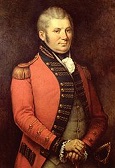


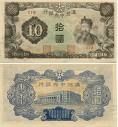
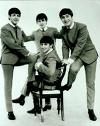



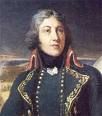
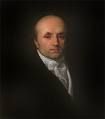









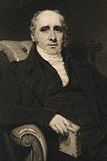





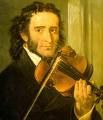


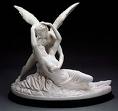


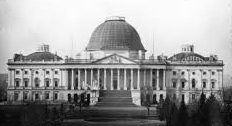
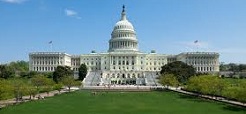
1793 The first wave of state-sponsored German immigrants from the Bohemian Forest arrives in the U.S. (ends 1817). There is an influenza epidemic in Vt., Va., and Penn.; America's first local health dept. with a permanent board of health is formed in Baltimore, Md., followed by New York City, formed to stave off a a yellow fever epidemic in Philadelphia in Aug.-Nov. that kills 5K of 50K and nearly destroys the city after 20K flee by Sept., causing Philly surgeon Philip Syng Physick (1768-1837) to step up, coming up with new surgical methods and tools, becoming known as the "Father of Am. Surgery"; too bad, yellow fever reaches New York City, killing hundreds and causing more to flee. On Jan. 9 Jean Pierre Blanchard makes the first balloon flight in North Am. (his 45th), from the prison yard of Wall Street Penitentiary in Philadelphia, Penn. in front of a crowd that incl. Pres. George Washington, Vice-pres. John Adams, Thomas Jefferson, James Madison, and James Monroe, crossing the Delaware River and making a safe landing after 45 min. in Deptford, N.J.. On Jan. 14 the French Nat. Convention decides against a referendum and finds Louis XVI guilty of treason, then on Jan. 20 sentences him to death by a margin of one, with the leading Girondists voting against the death penalty, pissing off the Jacobins; on Jan. 21 (Mon.) (10:30 a.m.) French king (May 10, 1774 - Sept. 4, 1791) Louis XVI (b. 1754) is guillotined; an unknown man allegedly leaps onto the scaffold, dips his hand in the king's blood, flings it over the crowd,and cries "Jacques de Molay, thou art avenged", referring to the Mar. 18, 1314 Templar Curse on French kings pronounced by Knights Templar grandmaster Jacques de Molay (1244-1314); Thomas "Tom" Paine (1737-1809), now a deputy to the Nat. Convention from Pas-de-Calais, who votes with the Girondists is imprisoned in 1794 for 11 mo. for opposing the execution; he went to France after giving up on getting citizens of Philly to fund an iron bridge over the Schuykill River; the king is dragged from the Temple on a tumbril with his feet tied to face his execution, while reciting the Third Psalm ("exaltus caput meum"); his wife Marie Antoinette, and children, dauphin Louis Charles (Louis XVII) (1785-95) and Marie-Therese Charlotte (1778-1851) are imprisoned in the Tower in Paris, and 5 mo. later the dauphin is separated from his mommy, kept in the dark like a wild beast, and mistreated while she is forced to listen; 1 mo. after that she is taken to the Conciergerie (part of the Palais de Justice) on Ile de la Cite on the Seine River (home of previous prisoners Georges Dandon, Camille Desmoulins, Chretien Malesherbes, Madame Roland, and Maximilien Robespierre) and put in a small squalid cell, which after her death is changed into a chapel - no more cakey? On Feb. 1 repub. rev. France declares war on Britain, Holland, and Spain, causing them to form an alliance against it; France annexes Belgium, causing the emigres to proclaim Louis XVI's imprisoned son as king Louis XVII (d. 1795), the 6th and last Bourbon king (nominal ruler only); France and Britain keep at it for the next 22 years, presenting the U.S. with a problem, since the Treaty of 1778 makes it the perpetual ally of France, obligated to defend its possessions in the West Indies, while it wants no part of this war. On Feb. 3 sections of Paris demonstrate against price increases, followed by more consumer protests on Feb. 24-27, and off on and in Mar.-Apr. On Feb. 12 the Second U.S. Congress passes the U.S. Fugitive Slave Act, permitting slave owners to send their agents across state lines to recapture escaped slaves ("fugitives from justice") - poor Liza? On Feb. 18 the U.S. Supreme Court rules 4-1 in Chisholm v. Georgia that federal courts have power to hear disputes between private citizens and states, becoming the first significant case they decide, and leading to the 11th Amendment of 1795. On Feb. 25 the dept. heads of the U.S. govt. meet with Pres. Washington at his home in the first cabinet meeting on record. On Mar. 1 the French prohibit trade with Britain, causing foreign trade to slump. On Mar. 2 after Pres. Washington calls for changes in his annual address to Congress in Nov. at the urging of U.S. atty. gen. Edmund Randolph, the U.S. Judiciary Act of 1793 is passed by the 2nd U.S. Congress (2nd session), authorizing circuit courts to function with only one U.S. Supreme Court justice, modifying regs on who can take bail payments, making rules for writs of ne exeat and injunction, authorizing inter-district subpoenas and limiting witnesses in civil cases to traveling 100 mi., authorizing courts to make their own rules et al. On Mar. 4 U.S. pres. #1 George Washington is inaugurated for his 2nd term in the 2nd U.S. Pres. Inauguration in Philly, with John Adams continuing as the 1st vice-pres.; Washington's Second Inaugural Speech is only 30-sec. long (135 words) due to his bad teeth, becoming the shortest (until ?). On Mar. 4 after Pres. Washington nominates him on Feb. 27 for the seat vacated by Thomas Johnson Jr., County Antrim, withdraws it on Feb. 28 to satisfy the Ineligibility Clause of the U.S. Constitution (Art. 1, Sect. 6), and renominates him after his term as U.S. Sen. expires, Ireland-born William Paterson (1745-1806) of N.J. becomes U.S. Supreme Court justice #8 (until Sept. 9, 1806), going on to preside over trials of people indicted for treason in the Whiskey Rebellion. On Mar. 18 the Austrians under Prince Frederick of Saxe-Coburg defeat 40K French under Gen. Charles Francois Dumouriez at the Second Battle of Neerwinden (first in 1693) in Belgium, after which Dumouriez is accused of treason and defects to the Allies on Apr. 4, along with Gen. Louis Philippe (later Louise-Philippe I), ending up in exile in Switzerland; Louis' father Louis Philippe Joseph, duc d'Orleans (b. 1474) is executed by the Rev. Tribunal, causing the new duc d'Orleans to become the central figure for the monarchist Orleanist party, staying out of France until 1814, traveling in Scandinavia, the U.S. (four years in Philly), England and Sicily. On Mar. 19 the French Nat. Convention passes a law of public assistance providing work for the able-bodied, and home relief for other needy persons; on June 28 they pass another one giving aid to children, aged, unmarried mothers (1st time in French history), and free state hospitals for abandoned children until age 12, after which they are to be apprenticed out. On Mar. 29 freedom of the press in France is restricted. The Rape of France, starring itself? In Mar. the War in La Vendee (Vendée) sees the Vendee region of W France stage a royalist revolt (ends 1796), capturing several towns, followed by defeats on Aug. 14 at the Battle of Lucon, on Oct. 17 at the Battle of Cholet, and on Dec. 12-13 at the Battle of Le Mans; federalist moderates in Lyons (Lyon) overthrow the municipal govt., then execute Jacobin ex-mayor Chalier on July 17, causing Kellerman to siege it on Aug. 9-Oct. 9, and sentence the current (since 1790) mayor Barthelemy Regis Dervieu du Villars (1750-1837) to five death sentences; Committee of Public Safety member Georges Auguste Couthon (1755-94) is sent to punish the rebels at Lyons, but refuses to follow orders to destroy it, letting Villars go free, causing them to send Jean Marie Collot d'Herbois (1749-96) and Fouche, who do it with zeal, crushing them by next year; French Rev. Gen. Armand Louis de Gontaut Lauzun, Duc de Biron (b. 1747), who fought on the winning side in the Am. Rev. War, and has impeccable credentials to lead the French Rev. forces (since his great-uncle Charles de Gontaut tried to overthrow the king in 1602) is sacked and guillotined on Dec. 31 after being accused of being too lenient toward the counterrevolutionists; other atrocities are perpetrated by Tallien at Bordeaux and Lebon in Arras, with the blue ribbon going to priest-hating Jean Baptiste Carrier (1756-94) (of Cantal) in Nantes, whose tribunal orders 16K shot or drowned in a single month, the drownings done by the boatload in the Loire River using a trapdoor in the boat, causing the word "noyade" (mass drowning) to be coined (the model for modern common carriers?); meanwhile Robespierre the Younger spares the E and S, and Lakanal spares the SW. On Apr. 1 Mount Asama in Japan erupts, killing 53K. On Apr. 7 Toulouse lawyer Bertrand Barere (Barère) de Vieuzac (1755-1841) is appointed to the Committee of Public Safety, joining the Jacobin Club and becoming known as a mediator between the Mountain et al., once calling Robespierre "a pygmy who should not be set on a pedestal"; too bad, after siding with the winning side on Louis XVI's execution, and beginning to preach the "religion of the fatherland" (substituting the state for the church), he is imprisoned in 1795 for being part of the Reign of Terror, then escapes after two years, becoming a secret agent for Napoleon until the restoration of the Bourbons, who get him exiled for life as a regicide. The Citizen Genet Affair, starring Charles Boyer? On Apr. 8 "Citizen" Edmond Charles Edouard Genet (1763-1834), the first minister to the U.S. from the new French Repub. (appointed 1792) (son of an old friend of John Adams) arrives in Charleston, S.C. to the acclaim of enthusiastic crowds sympathetic to the French Rev.; after organizing a Jacobin Club, he journeys triumphantly to Philly, meeting with Pres. Washington on May 18; too bad, his raising of troops for military operations against Spanish possession in Am., and his arming and commissioning of privateers to attack British ships in U.S. waters finally gets him in trouble with U.S. notions of sovereignty, and when he threatens to trump Washington by appealing over his head to the American peuple, Big W in Aug. demands his recall; meanwhile the Girondist govt. falls to the radical Jacobins, who send their own minister, Citizen Jean Antoine Joseph Fauchet (1761-1834) with a warrant for Genet's arrest, who presents his credentials next Feb. 22, causing Genet to seek asylum and Washington to refuse his extradition; no problemo, he settles on Long Island, N.Y., marries the daughter of N.Y. Gov. George Clinton, and spends his remaining 40 years as a farmer in Dutchess County in the Hudson River Valley, giving apple cuttings to Thomas Jefferson (1743-1826), who passes them to Va. nurseryman M. Caleb Ralls, who creates the late-blooming Ralls Genet (Rawls Jennet) Apple (AKA Neverfail, Rock Rimmon, Rockremain), which becomes a favorite in the Ohio River Valley. On Apr. 14-July 23 the Prussians siege and recover Mainz from the French, who had set up the Repub. of Mainz in Mar.; French Gen. Alexandre Francois Marie de Beauharnais, Vicomte de Beauharnais (1760-94) is blamed for the D, and arrested next Mar. 2. On Apr. 22 Pres. George Washington signs the U.S. Neutrality Proclamation, announcing America's official neutrality in the Franco-British war, without even using the word "neutrality"; the U.S., it declares, is "friendly and impartial toward the belligerent powers", and any American citizens "aiding or abetting hostilities" are threatened with prosecution; at the same time Washington accepts Jefferson's advice and recognizes the new French govt. (the first country to do so). In Apr. the first 9-member Committee of Public Safety, a permanent cabinet of the French Rev. is decreed by the Nat. Convention; Robespierre is elected on July 27 - we have miles and miles of unused neck in Paris? In Apr.-July 10 the overly-cautious Austrians under Gen. Francois of Saxony-Coburg-Saalfeld take Conde (their first V in France), followed on July 28 by Valenciennes in NE France near the Belgian border, allowing the French to regroup from their spring disasters. On May 4 a grain price ceiling is established in frightened France. On May 18 shah (since 1773) Timur Shah Durrani (b. 1748) dies, and his 5th son Zaman Shah Durrani (1770-1844) becomes shah of Afghanistan (until 1800) with the help of the chief of the Barakzay tribe. On June 13-July 28 the army of Prince Josias of Saxe-Coburg-Saalfeld, commanded by George III's 2nd son Frederick, Duke of York and Albany (1763-1827) sieges successfully Valenciennes, France. On June 24 the Constitution of 1793 (Montagnard Constitution), which incl. universal male suffrage is passed by the French Nat. Convention, and is sent to the primary assemblies for ratification but never put into effect. In June the Jacobins get Jacques Pierre Brissot and 30 other prominent Girondists arrested; on Oct. 31 he and 20 of them are guillotined. On July 9 the legislature of Upper Canada passes the Act Against Slavery, banning the importation of slaves and mandating that children born to female slaves will be freed upon reaching the age of 25; meanwhile on July 29 after visiting it in May and choosing it over London and Kingston, the name of Ft. Rouille (Rouillé) (modern-day Toronto) by the Don River in Ontario (founded 1750) is changed to Ft. York by British lt. gov. of Upper Canada #1 (1791-6) Gen. John Graves Simcoe (1752-1806), who makes it the capital of Upper Canada in 1796. Have a very corday? On July 13 (Bastille Day minus one?) "L'Ami du Peuple" ed. Jean-Paul Marat (b. 1743) is stabbed to death (in the back) in his bath by convent-educated Girondist sympathizer Marie-Anne Charlotte Corday d'Armont (b. 1768) as he tries to soak the hideous boils covering his gross bod; at her execution on July 17, Corday utters the immortal soundbyte: "I killed one man to save one hundred thousand" - is this like Prince's Purple Rain, or the female stars of School for Scandals? Insert William Wallace Erin Go Bragh Joke Here? On July 22 Alexander Mackenzie (1764-1820) of Scotland becomes the first white Euro to cross the North Am. continent from coast to coast and find a pass through the Rocky Mts. as he and nine companions paddle in two canoes provided by friendly Indians into Dean Channel N of Vancouver Island (they had left in May, 1792); he leaves a memorial on a rock using vermilion pigment mixed with grease, which survives to modern times; he then returns, reaching Ft. Chipewyan on Aug. 24 (33 days) with no fatalities. On July 28 English novelist Frances "Fanny" Burney (1752-1840) marries French royalist refugee Gen. Alexandre d'Arblay (-1818). In July dept. admins. in France are authorized to purchase grain forcibly; on Aug. 9 the death penalty is enacted for grain hoarders; on Aug. 19 public granaries are established, and depts. authorized to set prices for coal and firewood. In July Robert Gray arrives in Boston after his second round-the-world trip in the Columbia. On Aug. 14 French engineer Lazare Carnot (1753-1823) is elected to the Committee of Public Safety, going on to become a war minister and invent the idea of levee en masse, the recruitment of untrained soldiers who are placed under experienced soldiers; he starts out favoring a fortress-based defensive strategy, but later switches to an offensive strategy, splitting the army into smaller units that quickly move around the enemy and flank it. On Aug. 23 the "levee en mass" mobilizes the entire male pop. capable of bearing arms in France, and 14 armies are hastily organized and put in the field; Caen, Bordeaux and Marseille are conquered. On Aug. 28 after the Prussians force him to evacuate Frankfurt, recross the Rhine River and fall back to Landau, and he is saved from treason charges by Robespierre and sent back, then idles while the Austrians take Conde, French Gen. Adam Philippe, Comte de Custine (b. 1740) is guillotined for negligence, and his son is guillotined for trying to defend him. On Aug. 29 British-Spanish forces under British rear Adm. Samuel Hood, assisted by Capt. Horatio Nelson (1758-1805) occupy the key port of Toulon in S France, and the rev. French are driven back on virtually every front, causing revolts in the interior inspired by the Girondists, while the Committee of Public Safety attempts to counter them; the royalists turn Toulon to the British, and the rev. French lose their Mediterranean fleet; while visiting Naples to convoy British troops to Toulon, frisky Horatio Nelson meets Lady Emma Hamilton, wife of the British ambassador there, and hooks up with her, her advice and help aiding his career - be one with the dance, that's how I roll? On Aug. 29-Dec. 19 the Siege of Toulon is the first V for young 5'6" (5'2" in pieds de roi, the old French measurement system) Corsican artillery capt. Napoleon Bonaparte (1769-1821), (connected to the Jacobins and Robespierre), (who suffers from neurodermatitis, i.e., chronic nervous itching, hence the hand tucking) who reclaims the French fleet lost to the English and rises to the rank of brig. gen. In Aug. French physician Philippe Pinel (1745-1826) was appointed physician in charge of Bicetre Hospital in S Paris, ordering chains removed from mental patients, and founding the Moral Treatment (Mgt.) Theory of Psychiatry. That's why they call me bad company? On Sept. 5 the Jacobins seize on the Marat incident to begin the Reign of Terror (La Terreur) (ends July 28, 1794), un by the 12-man Committee of Public Safety, whose leader is up-and-coming basket case Robespierre and his able left wingnut Saint-Just, resulting in 16,594 executions across France by the Nat. Razor (guillotine) (incl. 2,639 in Paris), plus another 25K summary executions across France. On Sept. 6-8 the Battle of Hondschoote in Nord, France is a French V for Gen. Jean Nicolas Houchard and Gen. Jean-Baptiste Jourdan against Anglo-Hanoverian troops under Marshal Heinrich Wilhelm von Freytag (1720-98). On Sept. 29 price lids are established in France for wages and commodities, effective next Feb. 26. In the fall Gen. "Mad Anthony" Wayne, picked by Washington, leads an expedition into the Northwest Territory with 2.6K men, and builds Ft. Greenville 100 mi. SW of Lake Erie in Ohio, named for Am. Rev. hero Nathaniel Greene. I've been waiting all my life for somebody to throw me a surprise party, or, Stop this game, it's ruining me?, or, Decollate me in a decollete dress please? On Oct. 14 royal French cake head ("the most hated woman in France") Marie Antoinette (b. 1755) is put on trial in a kangaroo court for treason for passing documents to her brother HRE Leopold II, which fails to produce evidence that she is guilty of treason (although later letters are found detailing French troop dispositions), and her son Louis XVII is forced into a false confession that his mommy "whore" had incest with him, and she is framed on all the political porno that had been circulating for years showing her having sex with everybody and everything except Jesus, then on Oct. 15 found guilty at 4 a.m. and guillotined at noon, acting with dignity and not whimpering, although she accidentally steps on the executioner's foot and asks his pardon; her last words are "Farewell, my children, I go to rejoin your father"; she is then buried in an unmarked grave - her head falls into a big cake box? On Oct. 30 all political societies and women's clubs in France are closed. On Oct. 31 Girondists begin to be executed at the rate of 60 per mo., incl. Paris mayor Jean-Sylvain Bailly (b. 1736) and French Rev. supporter Duke Louis Philippe II Joseph of Orleans (AKA Philippe Egalite) (b. 1747), while others prefer hari kari; on Nov. 8 on the way to the slicer, Madame Marie-Jeanne Roland de la Platiere (b. 1754) utters the immortal soundbyte: "Liberty, Liberty, what crimes are committed in thy name!" On Nov. 6 Britain informs the U.S. govt. that they intend to occupy their northwest Am. posts indefinitely, and decrees that their ships will intercept neutral vessels hauling produce to or from the French West Indies; the British fleet then captures 250 U.S. merchant ships, impounding over half of them as war prizes; it also boards U.S. vessels at sea and drags away sailors who they claim are British deserters; war looms as the U.S. public is polarized, torn between Republicans sympathetic to liberty, reason, and France, and Federalists wanting order, faith, and Britain; Boston, home of the Am. Rev. goes Federalist because of its profits from the British trade; Southern planters join New England protests gainst British seizures of their ships, and go Federalist when they see Jacobin radicals dispossessing French aristocrats; meanwhile, Jefferson leads the died-in-the-wool Francophiles. On Nov. 8 the Louvre in Paris (the new French nat. art gallery) opens to the head-wearing public. On Nov. 24 the secularist French Rev. (Repub.) Calendar, passed by the Convention on Oct. 5 is forced, er, introduced to a confused, er, grateful public (until 1805), backdated to Sept. 22, 1792, the first day of the French Repub. (first day of Year 1); there are 12 mo. of 30 days, divided into three 10-day decades, with the last day of each decade set aside as a day of rest kills it right there?); Sept. 17-21 (Gregorian) are designated as nat. holidays to celebrate Virtue, Genius, Labgor, Opinion, and Rewards; the months, named by poet Philippe Francois Nazaire Fabre d'Eglantine (1750-94) are Germinal ("budding"), Floreal ("flowers"), Prairial ("meadows"), Messidor ("reaping"), Thermidor ("heat"), Fructidor ("fruit), Vendemiaire ("vintage"), Brumaire ("fog"), Frimaire ("frost"), Nivose ("snowy"), Pluviose ("rainy"), Ventose ("windy") - was that Luchidor or Nacho Libre? On Dec. 19 the Bouquier Law establishes mandatory free public primary schooling in France, teaching reading, writing, arithmetic, and rev. civics. On Dec. 31 Jefferson resigns as secy. of state and withdraws to Monticello. In Dec. Georges Couthon becomes pres. of the French Nat. Convention, and forms a triumvirate with Robespierre and Saint-Just which carries on the Terror against the Dantonists and the Hebertists, who become so radical that they become known as "les enrages" (the madmen), causing the Nat. Convention to have Hebert arrested, only to have the loud people cause his release. In Dec. after Gen. Louis Lazare Hoche (1768-97) is placed in command of the French Rev. Army of the Rhine, the Allies begin retreating across the Rhine River as rev. troops pursue them shouting French epithets - bomb bomb bomb, bomb bomb Iran? On Nov. 10 the French assembly establishes the atheistic Cult of Reason and bans Roman Catholicism, causing the Holy Roman Empire to declare war on France. The Flanders (Low Countries) Campaign is launched by the First Coalition (ends 1795), trying to invade France but getting stopped at the French border and being forced to withdraw. Japanese shogun Iyenari (b. 1773) assumes personal rule, sinking into lush living while military discipline begins to break down. Saarbrucken is ceded from the counts of Nassau-Saarbrucken to France (until 1815). The Ottoman sultan responds to Serb entreaties by removing the hated Janissaries from Serbia and allowing taxes to be collected by local Serbian knights (knezes), and granting more freedom of religion (until 1799). After work by Arthur Young in demonstrating new farm mgt. methods in Norfolk (who becomes its first secy.), Britain establishes a Board of Agriculture, which evolves into the Ministry of Agriculture, Fisheries and Food, surveying the country and diffusing knowledge of modern methods - to inspect heads of cabbage for human eyes? Catherine II the Great's envoy, Finnish-Swedish military officer Lt. Adam Kirillovich Laxman (1776-1806) arrives in Hakodate, Japan. but fails to establish friendly relations - did his insurance company give him the runaround? Siam and Burma end their long conflict; Siam and Annam split a large part of Cambodian territory. In 1793 King George III of Britain sends the Macartney Embassy (Mission) to China, led by first-ever British envoy Paul, er, George Macartney, 1st Earl Macartney (1737-1806) of Ireland on a 64-gun man-of-war to negotiate a more open trading system and a permanent British embassy, but he is treated with such disdain by Emperor (1736-96) Qin Qian Long (Ch'ien Lung) (1711-99) that it hardens the British to them; imagine, making him kowtow (Chin. "head knock"), and then handing him a worthless rock (jade) as a gift?; on Oct. 7 he leaves after French Jesuit missionary in Peking (since 1750) Jean Joseph Marie Amiot (1718-93) sends him two letters, one of which contains the soundbyte: "This world is the reverse of our own", after which he dies on Oct. 9 - as hard as a Beetle? Don't you know we're more popular than Christ? The Second Partition of Poland (first in 1772) ends the existence of Poland as an independent state, with Russia grabbing the E provinces from Livonia to Moldavia, and Prussia grabbing Great Poland, Kujavia, Torun, and Danzig (Gdansk), reducing Poland by two-thirds; Austria is ignored in the land grab. Upper Canada abolishes slavery. France introduces compulsory public education from age six; meanwhile the hos of Paris wear red, white, and blue bonnets and offer a special price to top members of the Nat. Assembly? The French begin to stir up Indian natives against the British, who had gained more and more control of India from the west since 1784. Capt. George Vancouver's expedition reaches Hawaii and becomes embroiled in islander politics; he brings several head of longhorn cattle as a gift to Kamehameha the Great as a change from the local goat and boar, and the king likes them so much that he orders death to anyone who harms them, causing wild cattle to run rampant trampling and terrorizing within a few years; the king lifts the decree after 10 years, causing a Wild West-style cattle roundup? The city of Abu Dhabi (Arab. "father of the gazelle/deer") (modern-day pop. 1.5M) is founded by Bani Yas bedouins from the Liwa Owasis; the Al Nahyan family goes on to become the rulers of the Emirate of Abu Dhabi; the city goes on to become the 2nd most populous city of the United Arab Emirates (UAE) after Dubai. The Kermadec Islands NE of New Zealand are discovered. Bourbon Island is renamed Reunion (Réunion) to commemorate the union of the Paris Nat. Guard with revolutionaries from Marseille. The fortified swamp-surrounded town of Ekaterinodar (modern-day Krasnodar) (named after Catherine II the Great) in N Caucasia, Russia on the right bank of the Kuban River at its confluence with the Karasun River 960 mi. S of Moscow and 160 mii. S of Rostov on the Don is founded by Dnieper Cossacks. Norfolk County in Mass. splits off from Suffolk County. The U.S. Mint begins issuing the large clunky Large Cent (until 1857) - would you bend down to pick one up? The South Place Religious Society in London, England is founded to promote Thomas Paine-style Freethought, becoming the oldest Freethought org. to survive to modern times; in 1864-85 Falmouth, Va.-born Unitarian minister Moncure Daniel Conway (Gael. "holy river") (1832-1907) becomes the leader; in 1888 it becomes the South Place Ethical Society under U.S.-born leader Stanton George Coit; in 1969 it becomes the South Place Humanist Society; in Nov. 2012 it becomes the Conway Hall Ethical Society. Genoa, Italy-born violinist Nicolo Paganini (1782-1840) makes his debut as a violin virtuoso in Genoa at age 11. Trinity College in Dublin begins admitting Roman Catholic students, incl. Robert Emmet, Thomas Moore et al. The U. of Douai is confiscated by the French revolutionaries. Williams College in Williamstown, W. Mass. in the foothills of the Berkshire Mts. at the foot of Mt. Greylock is founded by a bequest by Mass. colonist Ephraim Williams Jr. (1715-55) (who was KIA at the Battle of Lake George and is mentioned in "Yankee Doodle" with the line "Brother Ephraim sold his cow"), becoming the traditional rival of Amherst College (founded 1821) and Wesleyan U. (founded 1831), "the Little Three"; its mascot is a Purple Cow; sports teams are nicknamed the Ephs (rhymes with chiefs). Philly on the Delaware River becomes the top producer of beer among U.S. seaports. Inventions: Abraham Louis Breguet (1747-1823) of France invents La Pendule Sympathique to wind and synchronize watches. "Founder of the Am. Industrial Rev." Samuel Slater (1768-1835) builds a cotton yarn mill in Pawtucket, R.I. using Arkwright machinery, becoming the first true factory in the U.S. While visiting from New Haven, Conn., Am. nailmaker Eli Whitney (1765-1825) invents the little ole Cotton Gin (which combs out them pesky seeds) at Nathaniel Greene's Mulberry Cove Plantation near Savannah, Ga., applies for a patent on June 20, and is granted one on Mar. 14, 1794, but it is so easily pirated that he never gets paid much; 800K+ black slaves are imported to the cotton-producing regions in the U.S. South between this year and 1860, and cotton becomes the South's leading crop, with Savannah the chief cotton port. Architecture: On Sept. 18 the U.S. Capitol Bldg., designed by amateur architect William Thornton (1759-1828) and modified by Irish-born architect James Hoban (1755-1831) and French-born architect Stephen (Étienne Sulpice) Hallet (1755-1825) is begun, with Pres. Washington, accompanied by eight other Freemasons in Masonic regalia laying the cornerstone while wearing a Masonic apron embroidered for him by French nuns, saying that Freemasonry is "the cement that binds us together"; the N (Senate) wing is completed and the first session is held on Nov. 17, 1800, shared by the House until their wing is completed in 1811 - don't believe everything you read on the Internet? Science: After it is discovered in 1790 by physician Adair Crawford (1748-95) and surgeon-chemist William Cruickshank (-1811) in the village of Strontian, Scotland, Scottish physician-chemist Thomas Charles Hope (1766-1844) names the highly reactive alkaline earth metallic element Strontium (Sr) (#38), calling it Strontites, after which on June 30, 1808 Sir Humphry Davy isolates it from strontium chloride and renames it. Thomas Young describes visual astigmatism. Nonfiction: William Blake (1757-1827), Prophetic Books (1793-1804); a series of books describing a new system of Christianity revealed to him in visions), starting with Visions of the Daughters of Albion; America: A Prophecy; Urizen is the force of reason, Los is the force of imagination, and Orc is the spirit of rebellion, and the Am. Rev. is the uprising of the spirit of Orc? - shouldn't that be Porc? Fanny Burney (1752-1840), Brief Reflections Relative to the Emigrant French Clergy; calls for financial support for the French rev. cause in the name of tolerance and compassion. Mathew Carey (1760-1839), A Short Account of the Malignant Fever, Lately Prevalent in Philadelphia. J.B. "Anacharsis" Cloots, Base Contitutionelle de la Republique du Genre Humain. Marie-Jean Condorcet (1743-94), Equisse d'Un Tableau Historique des Progres de l'Esprit Humain. John Dalton (1766-1844), Meteorological Observations and Essays (first work) (2nd ed. 1834); based on his habit of M.O., which goes on from 1787-1844, later used to propose the Dalton Minimum of low sunspot counts in 1796-1820 (1790-1830?). William Godwin (1756-1836), Enquiry Concerning the Principles of Political Justice, and Its Influence on General Virtue and Happiness; anarchist treatise which becomes a bestseller (4K copies), claiming the perfectibility of humanity, helping to found the English Romantic movement; political justice is defined as "the adoption of any principle of morality and truth into the practice of a community"; "Speaking of property, he stated that the rights of every one 'to every substance capable of contributing to the benefit of a human being' must be regulated by justice alone: the substance must go 'to him who most wants it'. His conclusion was communism." (Peter Kropotkin) Rev. Samuel Hopkins (1721-1803), System of Doctrines Contained in Divine Revelation, Explained and Defended; how sin is bad but serves God's purpose of promoting greater ultimate good? Immanuel Kant (1724-1804), Religion Within the Limits of Mere Reason (Religion innerhalb der Grenzen der blossen Vernunft). John Moore (1729-1802), Journal During a Residence in France; Scottish physician accompanies Lord Lauderdale to Paris and witnesses the French Rev.; becomes a hit with Thomas Carlyle et al. Hey now, you're an all-star, get your game on? Thomas Paine (1737-1809), The Age of Reason; Being an Investigation of True and Fabulous Theology (1794, 1795, 1807); bestseller in the U.S. written just before being thrown into prison in France, pub. with the help of his friend Joel Barlow; a rabble-rousing Rationalist Deist attacks the divine origin of the Bible, becoming the Infidel's Bible, setting the 19th cent. up for secularism and belief in scientific progress as a replacement religion for Christianity, with pithy soundbytes incl.: "Belief in a cruel God makes a cruel man"; "One good schoolmaster is of more use than a hundred priests"; "I do not believe in the creed professed... by any church that I know of. My own mind is my own church"; "The story of the whale swallowing Jonah... borders greatly on the marvelous, but it would have approached nearer to the idea of a miracle if Jonah had swallowed the whale"; "It is wrong to say that God made rich and poor; he made only male and female, and gave them the whole earth for their inheritance"; he gets widely accused of being an atheist, when actually he attacks atheism in the book and supports Deism, but the bigoted religious reaction (which incl. most of his old Am. friends, incl. Washington) causes his place in the pantheon of Am. Founding Fathers to get tainted, and later the infidels strike back by attempting to paint all the U.S. Founding Fathers (incl. Bible-thumping Washington) as Deists and overdo separation of church and state? - was Paine their "rabbit", writing what they all believed but couldn't openly express, or was he just out on a limb, too extreme but holding onto the Founding Father main trunk for support? Nicolas-Edme Restif (1734-1806), Anti-Justine; reply to his bitter enemy the Marquis de Sade's "Justine". John Woolman (1720-72), A Word of Remembrance and Caution to the Rich (posth.). Music: Francois-Adrien Boieldieu (1775-1834), La Fille Coupable (comic opera) (Rouen). Vicente Martin y Soler (1754-1806), Amour et Psyche (ballet); based on the play "Psyche" by Moliere et al. Daniel Steibelt (1765-1823), Romeo et Juliette (opera) (Theatre Feydeau). Art: Jose de Alcibar (of Mexico), Portrait of Sor M. Maria Ana Josefa de San Ignacio; a Frida Kahlo self-portrait before its time? Antonio Canova (1757-1822), Cupid and Psyche (sculpture); his masterpiece? Jacques-Louis David (1748-1825), The Death (Murder) of Marat. Plays: Marie-Joseph Blaise de Chenier (1764-1811), Fenelon. George Colman the Younger (1762-1836), The Battle of Hexham. Poetry: Carl Bellmann (1740-95), Fredmans Sanger (Sänger). William Blake (1757-1827), Visions of the Daughters of Albion; Oothon, the "soft soul of America, who lusts for chaste Theotormon (Gr. "theos" + "tormentum" = God + torment) (based on John Stedman?) until she is raped by Bromonion (Gr. "roarer"), causing no man to want her, after which the Daughters of Albon look to America for an end to all forms of discrimination incl. racial and sexual. Rhyijnvis Feith (1753-1824), Inez de Castro. Vincenzo Monti (1754-1828), La Basvilliana; contra the French Rev. William Wordsworth (1770-1850), An Evening Walk; Descriptive Sketches in Verse. Novels: Aagje Deken (1741-1804) and Betje Wolff (1738-1804), Cornelie Wildschut (1793-6). Jean Paul (1763-1825), The Invisible Lodge (Die Unsichtbare Loge); Life of the Cheerful Schoolmaster Maria Wuz. Marquis de Sade (1740-1814), La Philosophie dans le Boudoir. Heinrich Daniel Zschokke (1771-1848), Aballino (Abällino), der Grosse Bandit; modeled on Schiller's "Die Rauber". Births: Am. Quaker abolitionist, pacifist and women's rights advocate Lucretia Coffin Mott (d. 1880) on Jan. 3 in Nantucket, Mass.; wife of James Mott (1788-1868), sheriff of Carleton County (1832-). Am. politician (atty. in the Amistad Case) Roger Sherman Baldwin (d. 1863) on Jan. 4 in New Haven, Conn.; educated at Yale U.; son of Simeon Baldwin (1761-1851); grandson of Roger Sherman (1721-93); father of Simeon Eben Baldwin (1840-1937); grandfather of Edward Baldwin Whitney (1857-1911); great-grandfather of Hassler Whitney (1907-89). German Nazarene painter Philipp Veit (d. 1877) on Feb. 13 in Berlin; son of Simon Veit and Dorothea Mendelssohn, daughter of Moses Mendelssohn; revives the last art of fresco painting. Austrian Biedermeir painter Ferdinand Georg Waldmuller (d. 1865) on Jan. 15 in Vienna. Am. Mormon Church co-founder Sidney Rigdon (d. 1876) on Feb. 19 in St. Clair, Alleghenty County, Penn.; starts out as a Campbellite-Baptist minister, then sees the light in 1830 and becomes #2 after Joseph Smith, only to be passed-over for his successor by Brigham Young, causing his followers to split. Am. soldier-politician (founder and pres. #1 of the Repub. of Texas, 1841-4), Tenn. gov. #7 (1827-9), and Tex. gov. #7 (1859-61) (only person to become gov. of two states, Tenn. and Tex.) Samuel "Sam" Houston (d. 1863) on Mar. 2 in Rockbridge County, Va. near Lexington; born in a log cabin; son of Maj. Sam and Elizabeth Paxton Houston (5th of 9 children); in 1806 his father dies, and his family moves to a 419-acre farm in Blount County, Tenn. (with a view of Chilhowee Mt); at age 15 he runs away to avoid working as a clerk in a trader's store, living with the Cherokees of E Tenn. for 3 years. English stage actor William Charles Macready (d. 1873) on Mar. 3 in London; educated at Rugby School. Am. geographer-geologist-ethnologist Henry Rowe Schoolcraft (d. 1864) on Mar. 28 in Guilderland (near Albany), N.Y.; educated at Union College, and Middlebury College. Argentine gen. ("Restorer of the Laws") Juan Manuel Jose Domingo Ortiz de Rosas (d. 1877) on Mar. 30 in Buenos Aires. French "Messiniennes" poet-playwright Jean Francois Casimir Delavigne (d. 1843) on Apr. 4 in Le Havre. Austrian emperor (1835-48) (epilepsy) Ferdinand I (d. 1875) on Apr. 10 in Vienna; eldest son of Francis II and Maria Theresa; husband of Maria Anna of Savoy, daughter of Victor Emmanuel I. Am. Dem. politician-diplomat William Cabell Rives (d. 1868) on May 4 in Amherst County, Va.; educated at the College of William and Mary. Am. judge (co-founder of Baylor U.) Robet Emmett Bledsoe Baylor (d. 1874) on May 5 in Ky. Scottish "Abide with Me" Anglican minister-hymnodist-poet Henry Francis Lyte (d. 1847) on June 1 in Ednam (near Kelso); educated at Trinity College, Dublin. German Bohemian ship propeller inventor Joseph Ludwig Franz (Josef Ludvik Frantisek) Ressel (d. 1857) on June 29 in Chudrim. German Biblical scholar Friedrich Bleek (d. 1859) on July 4 in Ahrensbok (ner Lubeck), Holstein; prof. of theology at the U. of Bonn in 1829-59. Irish poet-journalist William Maginn (d. 1842) on July 10 in Cork. Slovak scholar-poet Jan Kollar (Kollár) (d. 1852) on July 29 in Mosovce (Mossoc), Hungary; founder of Slovak as a lit. language. French Adm. Abel Aubert Dupetit Thouars (d. 1864) on Aug. 3 near Saumur; nephew of Aristide Aubert Du Petit Thouars (1760-98). French-Canadian fur trader (founder of Milwaukee, Wisc.) Solomon Laurent Juneau (Laurent-Solomon Juneau) (d. 1856) on Aug. 9 in Repentigny; cousin of Joseph Juneau (1836-99). Am. Protestant missionary (in Hawaii) William Richards (d. 1847) on Aug. 22 in Plainfield, Mass.; educated at Williams College, and Andover Seminary. English poet Mrs. Felicia Dorothea Browne Hemans (d. 1835) on Sept. 25 in Liverpool. Japanese painter Watanabe Kazan (Sadayasu) (d. 1841) on Oct. 20 in Edo; born to a poor samurai famiy. Am. riflemaker Eliphalet Remington Jr. (d. 1861) on Oct. 28 in Suffield, Conn.; father Eliphalet Remington Sr. (-1828) emigrated from Suffolk, England; father of Philo Remington (1816-89). Am. soldier-politician ("Father of Texas") Stephen Fuller Austin (d. 1836) on Nov. 3 in Wythe County, Va.; 2nd child of Moses Austin (1761-1821) and Mary Brown Austin (1768-1824); grows up in Potosi, Mo. Englsh "Christ Lamenting Over Jerusalem" painter Sir Charles Lock Eastlake (d. 1865) on Nov. 17 in Plymouth, Devon; knighted in 1850; not to be confused with English architect Charles Locke Eastlake (1836-1906). Am. Am. School economist (adviser to Pres. Abraham Lincoln) Henry Charles Carey (d. 1879) on Dec. 15 in Philadelphia, Penn.; son of Mathew Carey (17600-1839). Afghani emir (1836-) Dost Mohammad (Mohammed) Khan (d. 1863) on Dec. 23. Malagasy king #1 (1810-28) Radama I (the Great) (d. 1828) in Ambohimanga, Madagascar; son of Andrianampoinimerina. Greek rev. leader Demetrios Ypsilanti (d. 1832); brother of Alexander Ypsilanti (1792-1828). Canadian sheriff John Francis Wentworth Winslow (d. 1859) in New Brunswick; son of a loyalist; named after Nova Scotia gov. John Wentworth and his wife Frances. Am. Black Hawk War army maj. Isaiah Stillman (d. 1861) in Mass. Am. 6'6" Apache chief Mangas Coloradas (Colorado) ("Kan-da-zis Tishishen" = Red Shirt/Sleeves) (Dasoda-hae = "he just sits there") (d. 1863); father-in-law of Cochise, Victorio, and Kutu-hala (Kutbhalla). Swedish writer Karl Jonas Ludvig Almqvist (d. 1866) in Stockholm; educated at the U. of Uppsala. Greek Adm. Constantine Canaris (Kanaris) (d. 1877) on Psara Island. Deaths: Scottish-born British chief justice Lord Mansfield (b. 1705) on Mar. 20. Italian dramatist Carlo Goldoni (b. 1707) on Feb. 6; dies in poverty in Versailles after his royal pension is cancelled by the French Rev.: "He who talks much cannot always talk well." Italian painter Francesco Guardi (b. 1712) on Jan. 1 in Venice. Polish Jewish scholar rabbi Yechezkel ben Yehuda Landau (b. 1713) on Apr. 29; leaves Nodah bi-Yehuda (Heb. "Known in Judah"), a bunch of decisions on Jewish law, incl. the limiting of autopsy to cases which prevent a clear and present danger in other known people, causing him to become known by the name Nodah Biyehuda. German banker Johann Philipp Bethmann (b. 1715) on Nov. 27 in Frankfurt am Main. French Oriental scholar Jean Joseph Marie Amiot (b. 1718) on Oct. 9 in Peking. Swiss entomologist Charles Bonnet (b. 1720) on May 20. Scottish historian William Robertson (b. 1721) on June 11. Am. Rev. leader (DOI signer) Roger Sherman (b. 1721) on July 23. Am. indigo planter Eliza Lucas Pinckney (b. 1722) in S.C. French statesman Clement Charles Francois de Laverdy (b. 1723) (guillotined). English natural philosopher John Michell (b. 1724) on Apr. 29 in Thornhill, Yorkshire. Am. Rev. War loyalist jurist William Smith (b. 1728) on Nov. 3 in Quebec, Canada. Scottish-born British #1 surgeon John Hunter (b. 1728) on Oct. 16 in London. French publisher Pierre Francois Didot (b. 1732). French astronomer-politician Jean-Sylvain Bailly (b. 1736) on Nov. 12 in Paris (guillotined); "He met his death with patient dignity; having, indeed, disastrously shared the enthusiasms of his age, but taken no share in its crimes" (Encyclopedia Britannica). Am. statesman (DOI signer) John Hancock (b. 1737) on Oct. 8. English mathematician John Wilson (b. 1741) on Oct. 18. French Louis XV's mistress Comtess du Barry (b. 1743) on Dec. 8 in Place de la Concorde, Paris; beheaded after she returns to France from England like a dumb comtesse and is accused of aiding French emigres, acting like a whimp at the execution and uttering the famous last words: "Encore un moment, monsieur le bourreau, un petit moment" ("One moment more, mister executioner, one little moment"). Swiss-born French rev. leader Jean-Paul Marat (b. 1743) on July 13 in Paris (murdered by Charlotte Corday while bathing). French Gen. Armand Louis de Gontaut, duc de Biron (b. 1747) on Dec. 31 in Paris (guillotined); his Memoirs are pub. in 1822 (fake?). French duke Louis Philippe II Joseph (Philippe Egalite), duke of Orleans (b. 1747) on Nov. 6 in Paris (guillotined). Afghani shah (1773-93) Timur Shah Durrani (b. 1748) on May 18. French journalist Olympe de Gouges (b. 1748) on Nov. 3 in Paris (guillotined). French journalist Jacques Pierre Brissot (b. 1754) on Oct. 31 in Paris (guillotined with 20 Girondist colleagues). French king (1774-93) Louis XVI (b. 1754) on Jan. 27 in Paris (guillotined). French queen (1774-93) Marie Antoinette (b. 1755) on Oct. 16 in Paris (guillotined). English Mutiny on the Bounty leader Fletcher Christian (b. 1764) on Sept. 20 in Pitcairn Island. French assassin Charlotte Corday (b. 1768) on July 17 in Paris (guillotined).






















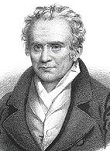


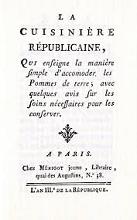




1794 On Jan. 3 James Madison (1751-1836), backed by Thomas Jefferson introduces seven congressional resolutions calling for commercial reprisals against Britain for its unfair dominance of transatlantic shipping and its banning of American boats from the British West Indies; it also calls for expanded trade relations with France; the Hamiltonians work to ridicule and defeat the resolutions; America fortifies its ports for a possible British invasion; at the suggestion of Oliver Ellsworth, Washington appoints John Jay, the first U.S. Supreme Court chief justice as a special envoy to England, and after Senate approval he sails for England on May 12 from New York as a thousand New Yorkers cheer from the docks; his position of chief justice is thrown up for grabs, and guess who's jockeying for it? On Jan. 13 Pres. Washington approves a measure of Congress to add two stars and two stripes to the U.S. flag in recognition of Vermont and Kentucky; by 1818 the additional stripes cause the flag to become unwieldy, and they go back to the original lucky 13. In Jan. Charles-Maurice de Talleyrand is informed that he has five days to leave England or face deportation, and he emigrates to Philadelphia in Apr., staying in the U.S. for two years. On Feb. 5 the French Nat. Convention decrees freedom for all slaves in French colonies; on Feb. 22 it passes a law providing free primary education to children ages 6-13; on Nov. 17 it declares that primary schooling is not compulsory, requires teaching to be done in French, and incl. manual labor teaching; too bad it's not widely implemented. On Feb. 25 Kamehameha and the other chiefs place the island of Hawaii under the protection of the British Crown. On Mar. 5 the XI (11th) amendment to the U.S. Constitution is sent by the Third Congress to the states for ratification (ratified 1795). On Mar. 7 poet Andre Marie Chenier (b. 1762), whose famous playwright brother Joseph-Marie is a member of the Convention is arrested at the house of Mme. Piscatory in Passy on suspicion of being some fleeing marquise, then imprisoned for 140 days in Saint-Lazare, where he writes the poem Jeune Captive, has his portrait painted by Joseph-Benoit Suvee, then is guillotined on July 25 three days before the end of the Reign of Terror after his father makes a pest of himself. I want you to want me, I need you to need me? On Mar. 24 Tadeusz Kosciuszko (1752-1817), hero of the Am. Rev. begins a copycat rev. in what's left of Poland. On Mar. 24 Paris Commune leaders Hebert, Chaumette and Cloots are guillotined after a summary trial, and Robespierre consolidates his power; Danton and his associates (school chum) Camille Desmoulins, Herault de Sechelles et al. are guillotined on Apr. 5, and Robespierre reigns as supreme head for the next 3 mo. On Mar. 27 after Repubs. oppose the Federalist suggestion for a U.S. Navy, James Madison even suggesting that the U.S. hire the Portuguese navy instead, the need to build up naval strength in case of a war with Britain causes the U.S. Navy to be established, with six new frigates ordered built "adequate for the protection of the commerce of the United States against Algerian corsairs", with Pres. Washington signing a bill authorizing $688,888.82 for the purpose, incl. the "Old Ironsides" USS Constitution, whose armor plates are furnished by silversmith Paul Revere. In Mar. 15-y.-o. Elizabeth Marsh is executed in England for murdering her grandfather in bed. On Apr. 19 the Subsidy Treaty, negotiated by Prussian minister Count Christian von Haugwitz (1752-1832) is signed in The Hague between Britain and Prussia, and Britain and Holland; too bad, Prussia's failure to use the money fighting Napoleon causes PM Pitt to denounce the treaty in Oct., breaking the last tie between Prussia and the Coalition. On Apr. 21 Josephine de Beauharnais (1763-1814) is arrested after her hubby Gen. Alexandre, Vicomte de Beauharnais (b. 1760) who is guillotined on July 23 for his poor defense of Mainz in 1793; she lucks out and survives until Robespierre's death and is freed on July 28; meanwhile fellow prisoner Madame Marie (Anne-Marie) Tussaud (nee Grosholtz) (1761-1850), who lived in Versailles since 1780 teaching art to Louis XVI's sister and was arrested for royalist sympathies and has her head shaved talks her way out of the guillotine by offering to make wax death masks of guillotine victims, going on to do Robespierre, Marie Antionette and Jean-Paul Marat, then lucks out again when her Swiss-born teacher Dr. Philippe Curtius (1737-94) courteously dies and leaves her his waxworks, then next year marries Francois Tussaud, and ends up in England in 1802, traveling with her collection throughout the British Isles, finally settling down and setting up Madame Tussauds in London in 1835, followed by New York City in 2000, and Washington, D.C. in 2007. On May 1 (May Day) the Federal Society of Journeymen Cordwainers is founded in Philadelphia, Penn., becoming the first U.S. labor union. I know I'll never be this way again, but I just keep holding on? On May 7 Robespierre declares a new religion for the state, and on June 8 the Festival of the Supreme Being (Reason) is held in St. Eustache Church in Paris, with Robespierre as high priest, attempting to replace the Church with the atheistic Cult of the Supreme Being, adding a sense of humor to the senseless slaughter and awful smell? On May 8 big brain chemist Antoine Lavoisier (b. 1743) goes to the guillotine in Paris after being arrested and tried by the Rev. tribunal as one of the farmers-general - did he rinse with Lavoris first? On May 10 Louis XVI's sister Elizabeth is beheaded - wanna pick up where she left off? On May 17-18 the Battle of Tourcoing N of Lille in NE France is a V for 70K French under Gen. Joseph Souham (1760-1837) and Gen. Jean Victor Moreau (1763-1813) against a combined army of 74K allied troops, the British under the Duke of York, and the Austrians under the prince of Saxe-Coburg, with 3K French vs. 4K Allied casualties, after which Gen. Jean-Baptiste, Comte Jourdan (1762-1833) is given command of the Army of the Ardennes. You know you make me want to what? On June 10 the Law of 22 Prairial (Law of the Great Terror) frees the Rev. Tribunal from the convention with the power to convict at will, after which executions increase to 354 per mo., although Robespierre at first intended it all to end after his personal enemies Tallien, Fouche, Vadier et al. were offed? On June 19 the married couple guarding jailed 9-y.-o. French dauphin Louis Charles quits, and when in July Gen. Paul Barras (future dictator of France) visits him and confirms that he is gravely ill, a new jailer is hired, and claims that the sick boy is an imposter, causing a nationwide search to be launched; later the woman jailer claims that she and her husband had switched another boy for him; he dies on June 8, 1795, and when prominent banker Petitval denounces the death certificate as a forgery he and his whole family are murdered within a year; in 1846 an examination of the boy's bones reveals a boy aged 15-18; 27 men later claim to be the real dauphin after Napoleon's fall in 1815. On June 26 after a difficult crossing of the Sambre River, 80K French under Gen. Jean-Baptiste, Comte Jourdan defeat 80K Austrians under Prince Frederick (Friedrich) Josias of Saxe-Coburg-Saalfeld (Gotha) (1737-1815) in the decisive Battle of Fleurus (flew 'oer us?), causing the evacuation of Belgium and the breakdown of allied resistance to France with the spread of rev. laws to adjacent territories to the Rhine; Jean Marie Joseph Coutelle (1748-1835) makes two 4-hour observation ascents in the French Army balloon l'Entreprenant at the Battle of Fleurus in order to damage the enemy's morale, becoming the first military use of a balloon. Never forget that what goes around comes around, or, Didn't I didn't I didn't I see ya crying? By July the blood in France is running in rivers, and executions in Paris at the Place de la Concorde reach a peak of 1,300 rolling heads in one mo. (two an hour); the refugees flood to the "French Noah's Ark" of Philadelphia so fast that soon one in every 10 Philadelphians are French. Blow it out your ass, or, If you really love me won't you tell me? On July 26 (8 Thermidor) after the govt. tanks and Saint-Just demands a dictatorship in the person of his hero Robespierre, speak of the devil appears after a month's absence and complains that he is being unjustly accused of crimes; on July 27 Robespierre and Saint-Just are drowned out as some unknown deputy named Louchet proposes RP's arrest, and he is barred from the Nat. Convention, where he flees to the Common Hall, whereupon the Convention declares him an outlaw, and he is hunted by special troops sent to capture him, along with his brother and Saint-Just, while the Nat. Guard under Gen. Barras protects the Convention; they are released by friends, and surprised at the Hotel de Ville; Robespierre tries to avoid arrest by shooting himself (is shot by a gendarme named Merda?), but only shatters his jaw; on July 28 he is brought back to the Convention, laid on a table, and his smashed jaw bound with a crude bandage while the convention debates his fate for 6 hours; later that same day he is sent to the guillotine, crying in pain as the executioner rips the bandage off, and is guillotined along with 21 of his associates, incl. triumvirate members Saint-Just and Couthon, and the next day 81 of his followers are executed; within five days 478 political prisoners are released, the Paris Commune is abolished, and the Reign of Terror bleeds itself out; common carrier pioneer Jean Baptiste Carrier (b. 1756) gets the Big Razor Blade. In July Maui king Kahekili II (b. 1737) dies in Waikiki, causing his son Kalanikupule (b. 1760) to war with his brother Kaeokulani over succession to the kingdom of Maui, which Kalanikupule wins on Dec. 16; meanwhile after British Capt. William Brown (1764-1814) of the sloop Jackal discovers it and names it Fair Haven, he, Capt. Robert Gordon of the sloop Prince Lee Boo, and Capt. John Hendrick (Kenrick) (b. 1740) of the Am. ship Lady Washington become the first haoles (foreigners) to sail into the harbor of Honolulu (Hawaiian "sheltered harbor", "calm port") on Oahu, after which a stream of foreign ships make the the focal point for merchant ships traveling between North Am. and Asia; Maui-Oahu king Kalanikupule (b. 1760) asks for and receives their assistance to win the Battle of Kalauao on Dec. 12, killing chief Ka'eo after his ahuula'ahu'ula (scarlet-yellow feather cloak) makes it impossible to hide in a ravine, after which Capt. Brown fires a victory salute that accidentally hits the Lady Washington and kills Capt. Kendrick and several of his crew, causing Kalanikupule to see his chance and kill Capt. Brown and Capt. Gordon and steal their ships and crew and launch an attack on the Big Island of Hawaii; too bad, the English crews mutiny and take their ships back, then send the king and queen out on a canoe, causing his rival Kamehameha I to see his chance and attack and conquer Maui, Lanai, and Molokai and head for Oahu. It's just a recreational beverage, or, America's first sin tax? On Aug. 1 after whiskey tax protesters in W Penn. terrorize Ft. Fayette Capt. William Faulkner after he rents his house to whiskey-tax inspector Capt. John Neville, 6K whiskey rebels converge on Braddock's field army fort outside Pittsburgh, and their leader Bradford touts Robespierre as an ideal model to follow, causing the crowd to erect guillotines for tax inspectors; Washington (the only Am. Founding Father to commercially operate a whiskey distillery) orders the rebels to disband by Sept. 1; after they fail to do so, in Sept. Washington (a whiskey distiller himself, becoming the biggest in the country in 1798, at 11K gal./year) leads a federalized militia army into Penn. to suppress the Whiskey (Whisky) Rebellion (Insurrection), arriving on Oct. 4 at Carlisle, Penn., home of Molly Pitcher and DOI signers George Ross, James Smith, and James Wilson, and setting up HQ with an army of 3K men that grows to 13K; the rebellion then fizzles, and at the end of Oct. Washington returns to Philly, leaving Alexander Hamilton in charge of the army, which under maj. Gen. (since 1793) Daniel Morgan mops up the resistance and arrests a dozen leaders; two are convicted of treason, but Washington pardons them, and Jefferson pledges to repeal the tax, calling the whole affair "Hamilton's insurrection"; the tradition of moonshiners making untaxed whiskey and foiling revenuers in the backwoods U.S.A. begins; some distillers move to Bourbon County, Ky., where they begin making Bourbon (corn whiskey). On Aug. 4-20 Gen. Anthony Wayne defeats a force of Wyandot, Delaware, Shawnee, and other Indians backed by Canadian militia at the Battle of Fallen Timbers in the Northwest Territory on the Maumee River off Lake Erie 50 mi. below Detroit, then lays their fields and villages waste until they are crying uncle and want to smoke the peace pipe. On Sept. 2 the port city of Odessa, Russia (modern-day pop. 1M) is founded on the shores of the Black Sea by a bunch of mostly Jews from Italy (Genoa, Naples, Venice, Palermo) - wearing the perfect shade of lipstick? On Sept. 3 radical Socialist (the first Communist?) Francois-Noel Babeuf (1760-97), who had just beaten a phony fraud charge, and now calls himself "Gracchus" begins pub. Le Tribun du Peuple (People's Tribune) (originally "Journal de la Liberte de la Presse"), defending the leaders of the Terror, attacking the leaders of the Thermidorian Reaction, and preaching Socialism, getting him imprisoned in Arras in Oct., which only fuels his engine, so that issue #33 calls for his big idea of restoration of the 1793 constitution. On Sept. 14 after being introduced by Aaron Burr, 5'4" 100 lb. James Madison (b. 1751) marries attractive 17-years-younger Quaker widow Mrs. Dorothy "Dolley" Payne Todd (1768-1849) (married in 1790 to Quaker atty. John Todd, who died of yellow fever in 1793, leaving one son, John Payne); they have no children. On Oct. 10 6.2K Poles under Tadeusz Kosciuszko are defeated at the Battle of Maciejowice while trying to prevent the 12K-man Russian army of Iwan Jewstafiejewicz Fersen (1739-99) and the 12.5K-man army of Gen. Alexander Suvorov after the 4K-man Polish army of never-loses field marshal Count Adam Poninski (1758-1816) arrives too late; Kosciuszko is wounded and taken POW by the Russians, and Poland's rev. is crushed. In Oct. French Gen. Lazare Hoche, accused of treason is released from prison and reinstated to lead an army against the royalists in La Vendee. On Nov. 12 the moderates in the Nat. Convention get the Jacobin Club in Paris closed, and on Dec. 8 the remaining Girondists are readmitted. On Nov. 19 Jay's Treaty (Treaty of Amity, Commerce, and Navigation Between His Britannic Majesty and the United States of America, negotiated by John Jay averts war between the U.S. and Britain, even though it grants British imports most-favored nation status, and is resented by Jeffersonians as a capitulation to British hegemony and a betrayal of their precious France. On Dec. 24 the French wage-price controls are repealed, and new currency is issued, increasing inflation. In Dec. William Wentworth FitzWilliam, 2nd Earl FitzWilliam, who joined William Pitt the Younger's cabinet this year along with the Duke of Portland, William Wyndham Grenville and other "Old Whigs", is sent to Ireland as British viceroy, but after he sides with Roman Catholics against Protestants, he is unceremoniously recalled next Mar., causing a simmering feud until he and Pitt kiss and make up in 1798, although he is never sent back to Ireland. By the end of Dec. the French capture the Rhineland, incl. Dusseldorf and Cologne, kicking out Cologne archbishop (since 1784) Maximilian Franz, making the archbishopric a French thang. In the winter Archibald Menzies (1754-1842), a surgeon in the Vancouver expedition, along with Lt. Joseph Baker (1767-1817) and two others make the first recorded ascent of 13,679-ft. Mauna Loa in Hawaii. Turco-Persian eunuch Agha Mohammad Khan Qajar (1742-97) has Lutf Ali Khan (b. 1769) the last Zand ruler of W Persia executed, ending the Zand Dynasty (founded 1751), and founding the Qajar (Ghajar) (Kadjar) Dynasty (ends 1925); in 1796 he is formally crowned as shah; since he is a eunuch, his reign is called the Era of Castration. Edmund Randolph succeeds Thomas Jefferson as U.S. secy. of state, but a series of dispatches he sent to France via French minister Joseph Fauchet are intercepted by a British man-of-war and given to Pres. Washington, causing him to accuse Randolph of seeking money from the French govt. to be used in influencing his cabinet and Congress against Britain, causing Randolph to resign, although he later gets Fauchet to help clear him. The U.S. Congress passes the first federal excise tax on tobacco products, an 8-cent tax on snuff. The Ga. legislature authorizes the Yazoo Land Fraud, the sale of 35M acres around the Yazoo River in modern-day Ala. and Miss. to four land cos. in which some of the legislators are involved at the low low price of 1.5 cents an acre, causing outcries of corruption, but it goes through next year, after which in 1796 Ga. passes the Rescinding Act to take it back, which is ruled unconstitutional by the U.S. Supreme Court in 1810; too bad, by then Ga. already sold the land to the federal govt., which keeps it - running down a dream, ooh ooh, ooh ooh, ooh ooh? The Habeas Corpus Act is suspended in Britain (until 1804). Edward Burke retires from Parliament with great ceremony and is rewarded by the govt. with pensions of several thousand pounds. Scottish poet Robert Burns (1759-96), who had alienated his public with his support of the French Rev. suddenly cools it and joins the Dumsfriesshire Volunteers, despite his deteriorating health, and kicks off within two years. To get even for Spanish intrigues with them and other Indian tribes, Tennesseans from around Nashville attack the Cherokees, burning and leveling their villages - another episode of Daniel Boone? Napoleon drives the allies from Toulon, after which the British navy under Adm. Samuel Hood captures the towns of Bastia and Calvi in Corsica; Horatio Nelson is wounded in the right eye at Calvi, losing his sight; the English fleet attacks the Mortello in Corsica (a circular fort of masonry guarding the coast), causing the Italian word mortella (tower) to be changed to mortello (hammer) when applied to such forts. After gaining fame for a series of articles supporting Washington's decision to keep the U.S. of the growing hostilities surrounding the French Revolution, Washington appoints John Quincy Adams (1767-1848), son of Pres. John Adams as U.S. minister to the Netherlands; on his way he delivers a set of documents to John Jay, who is negotiating the Jay Treaty, and after spending some time with him, he writes home to his father in support of the treaty, claiming that the U.S. should stay out of Euro affairs, which is read by Washington, who uses parts of it in his Farewell Address; meanwhile Gouverneur Morris resigns as U.S. minister to France after his royalist sympathies piss-off the French repub. govt., and James Monroe of Va. is appointed as the new minister (until 1796) despite his anti-Washington politics because of his pro-France stance and Washington's desire to balance the appointment of Federalist John Jay as U.S. minister to England; too bad Monroe can't keep his mouth shut about his disapproval of Jay's treaty with England, getting him recalled. Goethe befriends dramatist Johann Christoph Friedrich von Schiller (1759-1805), reviving his interest in producing lit., writing articles for Schiller's periodical (1795-7) Die Horen. The Ecole Normale Superieure is founded by the French Nat. Convention led by Robespierre as the core of the French nat. education system; the Ecole Polytechnique (world's first technical college) is founded in Paris by French mathematician Gaspard Monge (1746-1818), minister of the marine; in the U.S. the term "normal school" arrives in fractured form later. Freed slave Richard Allen (1760-1831) founds the Mother Bethel African Methodist Episcopal Church for blacks in Philadelphia, Penn. (now at 419 Richard Allen Ave.) as its first bishop, becoming the oldest African Methodist Episcopal church in the U.S. English scientific giant Joseph Priestley (1733-1804) moves to Northumberland, Penn. - now U.S. science is cooking? English poet Robert Southey (1774-1843) meets fellow poet Samuel Taylor Coleridge (1772-1834), and together with poet Robert Lovell (1771-96) they formulate the Pantisocracy Plan to marry three sisters and move to the banks of the Susquehanna River in the NE US. to start a socialist experiment; the marriages go off, incl. Southey's to Edith Fricker in 1795 in Bristol, but Southey gets cold feet and changes the location to Wales, which they can't agree on, causing the plan to be abandoned, after which Southey's chickens come home to roost and he takes off to Lisbon instead to visit an uncle; Bowdoin College (pr. BOH-din) in Brunswick, Maine on the shores of Casco Bay and the Androscoggin River 12 mi. N of Freeport is founded, named after rich Mass. gov. (1785-7) James Bowdoin II (1726-90); his rich son James Bowdoin III (1752-1811) donates $5.5K and 6K acres to get it started; students are first enrolled in 1802; later made famous by Nathaniel Hawthorne, Henry Wadsworth Longfellow, Franklin Pierce, and Joshua Chamberlain. The grave of William Shakespeare in Holy Trinity Church in Stratford-upon-Avon, England is looted?; first pub. in The Argosy mag. in 1879. Architecture: The (Boston) Federal Street Theater in Boston, Mass., designed by Charles Bulfinch (1763-1844) is built, becoming the first theater in New England - the Puritans finally give up? Inventions: Robert Fulton (1765-1815) of the U.S. obtains an English patent for an inclined plane to replace canal locks. Josiah Spode Sr. (1733-97) of Stoke-on-Trent, England introduces the hybrid-paste bone china formula to porcelain manufacture, and it soon becomes the most popular type of English porcelain. Philip Vaughan invents ball bearings. The first telegraph (semaphore) is set up between Paris and Lille. Science: English weather watcher John Dalton (1766-1844) presents a paper on color blindness, which he suffers from, to the Manchester Literary and Philosophical Society, causing it to become known as Daltonism. 17-y.-o. Johann Carl Friedrich Gauss (1777-1855), a language student at Caroline College in Brunswick, Germany gets interested in math and takes up the classical problem of constructing regular n-gons, proving that it can't be done when n is a prime number except for 17, 65, 257 and 65,537, causing him to switch next year to the U. of Gottingen, submitting a doctoral thesis in 1798 proving the Fundamental Theorem of Algebra (every possible algebraic equation has a solution), and going on to become the Princeps Mathematicorum, the #1 mathematician in da whole wide world - I can win that race? Nonfiction: Joseph Bellamy (1719-90) and Jonathan Edwards Jr. (1745-1801), The Millennium, or the Thousand Years of Prosperity; timed to promote Millennium Fever. Erasmus Darwin (1731-1802), Zoonomia, or the Laws of Organic Life; anticipates Lamarck but not his grandson Charles. Johann Gottlieb Fichte (1762-1814), Grundlagen der Gesamten Wissenschaftslehre. Johann Gottfried von Herder (1744-1803), Christian Writings (5 vols.) (1794-8). John Hunter (1728-93), A Treatise on Blood, Inflammation and Gun-Shot Wounds (posth.); disproves the belief that gunpowder is poisonous, and questions the need to surgically enlarge gunshot wounds. Sir William Jones (1746-94) (tr.), The Ordinances of Manu. Adrien-Marie Legendre (1752-1833), Elements de Geometrie; becomes a std. textbook for the next 100 years. Madame Merigot, La Cuisiniere Republicaine (La Cuisinière Républicaine), (The Female Republican Cook) (1794/5) (French Republican Year III); describes ways to prepare and preserve potatoes, becoming the first potato cookbook, bragging about omitting "patisseries and ragouts recherches" (pastries and exquisite ragouts) (aristocratic cuisine) - you have to know when to hold 'em, know when to fold 'em? William Paley (1743-1805), A View of the Evidences of Christianity; required reading at Cambridge U. until the 20th cent. Nicolas-Edme Restif (1734-1806), Monsieur Nicolas (autobio.) (16 vols.) (1794-7); a tell-all incl. his sexual awakening in 1738; the last two vols. stand alone? Antonio Scarpa (1752-1832), Tabulae Neurologicae; first work with an accurate description of the cardiac nerves and to state that the inner ear is filled with fluid (endolymph). Music: Robert Burns (1759-96), Select Collection of Original Scottish Airs; he receives five lousy pounds, a painting and a shawl for his work, causing him to get bitter and never again accept payment for his works; incl. Auld Lang Syne (Old Long Since) (Times of Long Ago) (pr. syne not zyne) (written in 1781, based on an old Scottish tune) ("Should auld acquaintance be forgot/ And never brought to mind"), Comin' thro' the Rye, Scots Wha Hae, A Red, Red Rose, The Banks o' Doon, It Was Our Richtu' King, John Anderson, My Jo. Luigi Cherubini (1760-1842), Eliza (Elisa), or The Journey to the Glaciers of Mt. St. Bernard (opera) (Dec. 13) (Theatre Feydeau, Paris); set in the Swiss Alps; follows Nicholas Dalayrac by featuring bells; features a Ranz des Vaches (Kuhreihen) played by Swiss herdsmen; Carl Maria von Weber becomes a fan. James Hewitt (1770-1827), Tammany, or The Indian Chief; one of the earliest Am. operas (New York). Art: William Blake (1757-1827), The Ancient of Days. Francisco de Goya (1746-1828), Procession of the Flagellants. Sir Thomas Lawrence (1769-1830), Pinkie; 11-y.-o. Sarah Goodin Barrett Moulton (1783-95), who dies next year of TB; the last painting purchased by Henry E. Huntington (1850-1927), who has it displayed facing Thomas Gainsborough's "The Blue Boy". John Trumbull (1756-1843), The Signing of the Declaration of Independence; hangs in the U.S. Capitol. Plays: Marie-Joseph Blaise de Chenier (1764-1811), Timoleon (opera); music by Etienne Mehul; shut down like all his others by Montagnard deputy Albitte; after the Reign of Terror its portrayal of Timoleon is used to accuse him of murdering his brother Andre, causing him to be called Abel. William Dunlap (1766-1839), Leicester. Jean Paul (1763-1825), Hesperus. Richard Brinsley Sheridan (1751-1816), The Glorious First of June (July 2). Robert Southey (1774-1843), The Fall of Robespierre; a 3-act poem-play. Poetry: William Blake (1757-1827), The (First) Book of Urizen; a parody of the Book of Genesis; how Urizen, the "primaeval priest", who represents alienated reason as he source of oppression became separated from the Eternals to create his enslaving realm of religious dogma, after which Los and Enitharmon create a new world and give birth to their son Orc, the spirit of revolution and freedom; Urizon's sons are Thiriel (Air), Utha (Water), Grodna (Earth), and Fuzon (Fire); Europe, A Prophecy; the coming of Christ and the French Rev. are part of the same manifestation of the spirit of Orc?; incl. the etching Ancient of Days. Andre Marie Chenier (1762-94), Ode a Versailles; Jeune Captive (pub. 1795) (written in prison); La Jeune Tarentine (pub. 1801). William Gifford (1756-1826), The Baviad; satire of the Della Cruscan School of English poets. Johann Wolfgang von Goethe (1749-1832), Reinecke Fuchs (Reynard the Fox). Johann Kaspar Lavater (1741-1801), Joseph of Arimathea (epic). Novels: William Godwin (1756-1836), Things as They Are; or, The Adventures of Caleb Williams (3 vols.); based on "Political Justice" (1793); the first thriller and mystery novel; a servant finds out the secret of his master Falkland and is forced to flee, getting run over by the criminal justice system; first novel to develop the plot backwards, making fans of Charles Dickens and Edgar Allan Poe. Thomas Holcroft (1745-1809), The Adventures of Hugh Trevor (1794-7). Xavier De Maistre (1763-1852), Voyage Autour de ma Chambre (Journey Around My Room); written in Turin while under arrest for a duel. Ann Radcliffe (1764-1823), The Mysteries of Udolpho (Gothic romance). Births: Am. Va. planter and Confed. soldier Edmund Ruffin (d. 1865) on Jan. 5 in Prince George County, Va.; descendant of William Randolph (1650-1711); discovers that marl can save soil exhausted by excessive tobacco planting; known for his long white hair; fires the first shell on Ft. Sumter. German chemist Eilhard Mitscherlich (d. 1863) on Jan. 7 in Neuende (near Jever), Oldenburg. Am. Mormon leader Oliver Granger (d. 1841) on Feb. 7 in Phelps, N.Y.; starts out as a Methodist preacher and sheriff. British (Cornish) scientist-inventor Sir Goldsworthy Gurney (d. 1875) on Feb. 14 in Treater (near Padstow), Cornwall; knighted in 1863. Mexican pres. #8 (1833-55) (Alamo winner) Gen. Antonio Lopez de Santa Anna (Antonio de Padua María Severino López de Santa Anna y Pérez de Lebrón) (d. 1876) on Feb. 21 in Xalapa, Veracruz; a criollo. Spanish countess Maria Manuela Enriqueta Kirkpatrick de Grevignee (Grevigné), Countess of Montijo (d. 1879) on Feb. 24 in Malaga; Scottish-born father, Flemish mother; mother of French empress Eugenie de Montijo (1826-1920). Am. maj. Gen. (Quaker) William Jenkins Worth (d. 1849) on Mar. 1 in Hudson, N.Y.; namesake of Ft. Worth, Tex. French mountaineer Henriette d'Angeville (d. 1871) on Mar. 10 in Semur-en-Brionnais. Polish Gen. ("Hero of Two Countries") Jozef Zachariasz Bem (d. 1850) on Mar. 14 in Tarnow, Galicia. German Nazarene painter Julius Schnorr von Carolsfeld (d. 1872) on Mar. 26 in Leipzig. Am. Biblical archeologist ("the Father of Biblical Geography") ("the Founder of Modern Palestinology") Edward Robinson (d. 1863) on Apr. 10 in Southington, Conn.; Congregationalist minister father; educated at Hamilton College. Am. Unitarian clergyman-orator-diplomat-politician (U.S. Whig rep., 1825-35) (Mass. gov. #15, 1836-40) Edward Everett (d. 1865) on Apr. 11 in Dorchester, Mass.; educated at Harvard U.; father of William Everett (1839-1910); teacher of Ralph Waldo Emerson (1803-82) and Charles Francis Adams Sr. (1807-86). U.S. Navy commodore Matthew Calbraith Perry (d. 1858) on Apr. 10 in Newport (South Kingstown), R.I.; brother of Oliver Hazard Perry (1785-1819). French physiologist (discoverer of the anesthetic properties of chloroform and founder of experimental brain science) Jean Pierre Marie Flourens (d. 1867) on Apr. 15 in Maureilhan (near Beziers), Herault; father of Gustave Flourens (1838-71). Swiss "Gerontacracy" statesman-journalist James (Jean Jacques) Fazy (d. 1878) on May 12 in Geneva; educated at the U. of Paris. Am. railroad-steamship tycoon ("Founding Father of Am. Business") "Commodore" Cornelius Vanderbilt (d. 1877) on May 27 in Port Richmond (Staten Island), N.Y.; descended from Dutch farmers from De Bilt village, Utrecht; starts by setting up the Staten Island Ferry at age 17, goes into railroads, and ends up richer than Bill Gates (net wealth 3x as great). French chemist Antoine Alexandre Brutus Bussy (d. 1882) on May 29 in Marseille. Am. New England temperance minister (vegetarian) Sylvester Graham (d. 1851) on July 5 in Suffield, Conn.; educated at Amerst College; inventor of the Graham cracker (1829). Czech pianist-composer Josef (Joseph) Proksch (d. 1864) on Aug. 4 in Liberec; of German descent; becomes blind at age 13; pupil of Jan Antonin Kozeluh. French zoologist Achille Valenciennes (d. 1865) on Aug. 9 in Paris; pupil of Georges Cuvier. French Neoclassical and Romantic painter Leon Cogniet (d. 1880) on Aug. 29 in Paris. English Protestant (Congregationalist) missionary (in Hawaii) William Ellis (d. 1872) on Aug. 29 in London. U.S. Brig. Gen. Stephen Watts Kearny (Kearney) (d. 1948) on Aug. 30 in Newark, N.J.; husband of Mary Radford, stepdaughter of William Clark of Lewis and Clark fame. Scottish London Bridge engineer Sir John Rennie the Younger (d. 1874) on Aug. 30 in London; son of John Rennie the Elder (1761-1821); brother of George Rennie (1791-1866); knighted in 1831, becoming the first engineer to be knighted since Hugh Myddleton in 1622. English poet-playwright-critic John Hamilton Reynolds (d. 1852) on Sept. 9 in Shrewsbury; friend of John Keats. English "Bentley's Miscellany", "Standard Novels" publisher Richard Bentley (d. 1871) on Oct. 24 in London; educated at St. Paul's School; collaborator of Henry Colburn (1784-1855). Am. "Thanatopsis" Nature poet, journalist and New York Evening Post ed. (1828-78) ("Father of American Poetry") William Cullen (Gael. "handsome") Bryant (d. 1878) on Nov. 3 in Cummington, Mass.; grows up on a farm with Puritan parents; attends Williams College for two years; leaves the law for journalism. Russian sour cream gourmet Gen. CountSergei Grigorievich Stroganoff (Stroganov) (d. 1882) on Nov. 8 in St. Petersburg; his chef invents beef stroganoff for him in his Baroque Stroganoff Palace (1738-43) on Nevsky Prospect in St. Petersburg. English "History of Greece" historian George Grote (d. 1871) on Nov. 17 in Clay Hill (near Beckenham), Kent; educated at Charterhouse School. U.S. Civil War Union Brig. Gen. James Wolfe Riple8y (d. 1870) on Dec. 10 in Windham County, Md.; uncle of Roswell Sabine Ripley (1823-87). Am. Dem. mayor of Albany, N.Y. (1834-7) (founder of the New York Central Railroad) Erastus Corning Sr. (d. 1872) on Dec. 14 in Norwich, Conn.; grows up in Troy, N.Y.; grandfather of Parker Corning (1874-1943) and Edwin Corning (1883-1934); great-grandfather of Erastus Corning 2nd (1909-83). German historical painter Karl (Carl Joseph) Begas (the Elder) (d. 1854) in Heinsberg (near Aix-la-Chapelle); father of Reinhold Begas (1831-1911). British-Am. actor-mgr. James William Wallack (d. 1864) in London; father of John Lester Wallack (1820-88). English surgeon Walter Cooper Dendy (d. 1871) in Horsham, Sussex. Deaths: English military physician Sir Clifton Wintringham (b. 1710); a memorial to him by Thomas Banks is erected in Westminster Abbey. Scottish poet Alison Cockburn (b. 1712) on Nov. 22 in Edinburgh. English lord Charles Pratt, Earl of Camden (b. 1714). French explorer Francois de la Verendrye (b. 1715) on July 31 in Montreal, Canada. Scottish scurvy-busting physician James Lind (b. 1716) in Gosport. French road engineer P.M.J. Tresaguet (b. 1716). Swedish statesman-gen. Count Fredrik Axel von Fersen the Elder (b. 1719) on Apr. 24. German jurist Justus Moser (b. 120) on Jan. 8 in Osnabruck. Scottish-born Am. Rev. leader (DOI signer) Rev. John Witherspoon (b. 1723). Am. Rev. leader (DOI signer) Abraham Clark (b. 1725) on Sept. 15. Am. Rev. Tory leader Capt. John Butler (d. 1728) in Canada. Scottish explorer James Bruce (b. 1730) on Apr. 27. German-born Am. Rev. War Gen. Friedrich Wilhelm von Steuben (b. 1730) on Nov. 28 near Utica, N.Y.; dies where he was given 16K acres and a $2.5K yearly pension in 1790 for his services. Am. Rev. leader (DOI signer) William Whipple (b. 1730) in Portsmouth, N.H. Spanish dramatist Ramon de la Cruz (b. 1731) on Mar. 5. Italian Jesuit writer Girolamo Tiraboschi (b. 1731) on June 3. English playwright-mgr. George Colman the Elder (b. 1732) on Aug. 14 in London. Am. statesman (DOI signer) Richard Henry Lee (b. 1732) on June 19 in Westmoreland County, Va.: "To preserve liberty, it is essential that the whole body of the people always possess arms, and be taught alike, especially when young, how to use them." German "Wolffian body" embryologist Caspar Friedrich Wolff (b. 1733). English lord Henry Herbert, 10th earl of Pembroke (b. 1734). English #1 historian Edward Gibbon (b. 1737) on Jan. 16: "History is little more than the register of the crimes, follies, and misfortunes of mankind"; "So natural to man is the practice of violence that our indulgence allows the slightest provocation, the most disputable right, as a sufficient ground of national hostility"; "The voice of history is often little more than the organ of hatred or flattery." French hostess Madame Necker (b. 1737) on May 6 in Vaud, Switzerland: "People do not care to play chess on the edge of a precipice." German writer Rudolf Erich Raspe (b. 1737). Italian criminologist Cesare Beccaria (b. 1738) on Nov. 28 in Milan. English civil engineer Elias Durnford (b. 1739) on June 21 in Tobago (yellow fever). French encyclopedist Marie Condorcet (b. 1743) on Mar. 29 (poisoned during the French Rev.); close friend of Benjamin Franklin. French scientist and gunpowder mill supt. Antoine Lavoisier (b. 1743) on May 8 in Paris (guillotined). English Orientalist Sir William Jones (b. 1746) on Apr. 27. German poet Gottfried August Burger (b. 1748) on June 8 in Gottingen (TB). French Rev. poet Fabre d'Eglantine (b. 1750) on Apr. 5 in Paris (guillotined). English politician Lord George Gordon (b. 1751) on Nov. 12 in Newgate Prison, London (typhoid). Scottish-born U.S. marshal Robert Forsyth (b. 1754) on Jan. 11 in augusta, Ga. (KIA); first U.S. marshal killed in the line of duty. French Rev. leader Georges Couthon (b. 1755) in June in Paris (guillotined). French Rev. leader Jean Baptiste du Valde-Grace, Baron de Cloots (b. 1755) on Mar. 24 in Paris (guillotined). French Rev. leader Jean Baptiste Carrier (b. 1756) on Nov. 16 in Paris (guillotined). French Rev. leader Jacques Rene Hebert (b. 1757) on Mar. 24 in Paris (guillotined). French Rev. leader and WMD (weapons of mass decapitation) terrorist Maximilien Robespierre (b. 1758) on July 28 in Paris (guillotined). French Rev. leader Georges-Jacques Danton (b. 1759) on Apr. 5 in Paris (guillotined). French Rev. leader Marie Jean Herault de Sechelles (b. 1759) on Apr. 5 in Paris (guillotined). French Gen. Alexandre Francois Marie de Beauharnais, vicomte de Beauharnais (b. 1760) on July 23 in Paris (guillotined). French rev. leader Camille Desmoulins (b. 1760) on Apr. 5 in Paris (guillotined after comparing his age to Christ's and tearing up his clothes). French #1 poet Andre Marie Chenier (b. 1762) on July 25 in Paris (guillotined 3 days before the end of the Reign of Terror). French rev. leader Pierre Gaspard Chaumette (b. 1763) on Apr. 13 in Paris (guillotined). French rev. leader Lucile Duplessis (b. 1770) on Apr. 13 in Paris (guillotined); arrested after running in the street and shouting "Vive le roy", then getting accused of trying to free her hubby Camille Desmoulins, who had been executed almost two weeks earlier.


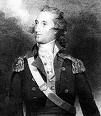




















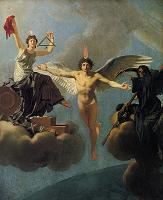



1795 In Jan. intellectual giant Alexander Hamilton resigns as U.S. treasury secy., and submits a report to the House on Jan. 19 laying out a plan for extinguishing the federal debt within 30 years; he leaves Philly in mid-Feb. and returns to his home in Albany, N.Y.; on Feb. 3 Oliver Wolcott Jr. (1760-1833) becomes U.S. treasury secy. #2 (until Dec. 31, 1800); George Washington asks him to get the customs collector for Portsmouth, N.H. to ship a runaway slave woman back to Mount Vernon, but when he can't do it without publicity she is allowed to remain. On Feb. 7 the Eleventh (11th) (XI) Amendment to the U.S. Constitution is ratified, blocking the judicial power of the U.S. from extending to suits against a state or a foreign state. On Feb. 13 the U. of N.C. in Chapel Hill becomes the first state univ. in the U.S., admitting its first student Hinton James, who is the only student on campus for two weeks - how's it going, good, good? On Feb. 18 George III promotes his 2nd son Prince Frederick, Duke of York and Albany to field marshal, followed on Apr. 3 by CIC of the British army (until Mar. 25, 1809), succeeding Lord Amherst, going on to carry out a massive reform, doing "more for the army than any one man has done for it in the whole of its history" (Sir John Fortescue). On Feb. 25 France passes a law providing secondary education for boys, providing scholarships for the poor. On Feb. 25 Union College is founded in Schenectady, N.Y., becoming the first higher ed. institution chartered by the New York Board of Regents, and the 2nd college in N.Y. after Columbia U., going to graduate U.S. pres. Chester A. Arthur and a ton of U.S. govt. bigwigs, and become known as the Mother of Fraternies, spawning the first three Greek letter societies in the U.S., Kappa Alpha (1825), Sigma Phi (1827), and Delta Phi (1827); on Nov. 26, 1825 the social fraternal org. Kappa Alpha is founded there, followed by Sigma Phi (Mar. 4, 1827), and Delta Phi (Nov. 17, 1827), known as the Union Triad, followed by Psi Upsilon (Nov. 24, 1833), Chi Psi (May 20, 1841), and Theta Delta Chi (Oct. 31, 1847). On Mar. 7 the official version of John Jay's Treaty arrives in Philly, and the Senate takes until June 24 to approve it because it makes so many concessions to the Brits, who want to continue their lucrative Northwest fur trade while banning the U.S. from exporting goods to the West Indies; Article XII, a provision legalizing trade with the British West Indies but choked with restrictions is stricken; it is not publicized until July 1, and the public outcry is "like an electric velocity" (Madison), with John Jay burned in effigy in cities across America on the Fourth of July; on July 14 the citizens of Charleston celebrate Bastille Day by dragging the Union Jack through the streets and setting it on fire in front of the British consulate; the U.S. is on the verge of another rev., with the public calling for war with Britain in alliance with France; Washington holds off signing the treaty until Alexander Hamilton lobbies him into it, causing the Jeffersonians to totally split with them, causing Washingto to utter the soundbyte that "the voice of malignancy" is attemping "to wound my character and deceive the people"; on July 18 5K people meet across from the New York City Hall to protest the treaty, with Hamilton speaking for it to a hissing crowd, who stone him; the following week there are more protest rallies in major cities; Washington finally signs it in mid-Aug., and when the U.S. economy booms from British trade while French trade drops, opposition slowly dies out, and the move to mollify them allows the U.S. to build its resources in time to defeat the British in 1812. On Apr. 1 bread riots in Paris are accompanied by monarchist agitation and the arrival of some emigres. On Apr. 5 the first of the Three Treaties (Peace) of Basel between France and Prussia, negotiated by Count von Haugwitz is followed by similar treaties on July 22 between France and Spain and on Aug. 28 between France and Hasse-Cassel, causing Prussia, Saxony, Hanover, and Hesse-Cassel to bug out of the war, pissing-off the other monarchies of Europe and causing Prussia to become morally isolated while marking Rev. France's emergence as a major Euro power; the British army is evacuated through Bremen in Apr.; Prussia recognizes French control of the W bank of the Rhine River, while France returns all captured lands E of the Rhine River; Spain cedes the E two-thirds of Hispaniola Island to France; Prussia now tries to save the provinces on the left bank of the Rhine River from being lost to the HRE despite no language in the treaty by establishing the armed neutrality of N Germany and seeking its recognition by France; too bad, Nappy's Vs in S Germany kill the plan. On Apr. 7 Big Bad Revolutionary France adopts the Metric System, developed by 12 scientists from the French Academy of Sciences appointed by the French Nat. Assembly; a meter (from Greek metron=measure) is one-forty-millionth of the circumference of the Earth through the poles; a 10-day week is also introduced, but Napoleon later abolishes it. Every single one of us is the Devil inside? On Apr. 8 after his daddy George III offers to cover his debts, the Princely Slob of Wales (AKA Prinny) marries German 1st cousin Caroline of Brunswick-Luneburg (Brunswick-Wolfenbuttel) (1768-1821); not being able to stand each other (he calls her "the vilest wretch this this world was ever cursed with"), in 1796 after the birth of a daughter they live apart as much as possible, each with their own lovers; in 1814 she moves to Italy until returning to England in 1820 to become queen, getting a big surprise? On May 1 Congress votes to redesign the U.S. flag to have 15 stars and stripes (the first redesign since 1777), which now incl. Vermont and Kentucky; there are no more changes in 23 years as the U.S. marches into the new cent. with 15 states, 15 stars and 15 stripes. On May 20 the White Terror in France causes the Mountain Party to be exterminated. On May 23 women in France are forbidden to attend political assemblies. In May using purchased European firearms, after chief Kaiana turns on him and joins the enemy, Kamehameha I the Great (1736-1819) defeats Maui-Oahu king Kalanikupule (b. 1760) at the cliffhanger Battle of Nu'uanu Pali (Hawaiian "Kaleleka'anae" = leaping mullet) in S Oahu, pushing a bunch of Oahu warriors off the cliff at the summit to win it, then after several months spent chasing him in the mountains captures and sacrifices Kalanikupule to the war god Ku and unites the Hawaiian Islands, becoming sole king of the Hawaiian Islands in 1810 (until May 8/14, 1819) after the alii of Kaua'i become his vassal in 1810 and recognize him as moi nui (overall king), ending a cent. of warfare in the islands and becoming known as the Napoleon of the Pacific; the Pomares of Tahiti and the Cakobau of Fiji attempt to emulate him, with less success. On June 8 the death of mistreated prisoner (dauphin) Louis XVII (b. 1785) is announced after he is declared to be seriously ill in May; he is buried at the Church of St. Marguerite on June 10, but over the next 40 years several pretenders come forward. On June 30 DOI signer Edward Rutledge's brother John Rutledge (1739-1800) of S.C. (justice #5 in 1789-91) takes office as U.S. chief justice #2 (until Dec. 28, 1795) as a recess appointee (first ever by a U.S. pres., and it's George Washington?), but later in the year the Senate rejects his appointment, and he only serves one term; Pres. Eisenhower later makes three recess appointments: Earl Warren (1953), William Brennan (1956), and Potter Stewart (1958). On Aug. 3 after Gen. Anthony Wayne's big 1794 V at the Battle of Fallen Timbers, the Treaty of Greenville, signed at Fort Greenville in Ohio opens all of Ohio and Indiana to white settlers after the U.S. buys from 12 Indian tribes the rights to the SE quarter of the Northwest Territory for an annual fee of $10K, incl. areas around Vincennes (on the Wabash River), Detroit (on Lake Erie), and Chicago (on Lake Michigan). On Aug. 9 the Mass. state church (Congregational) in Middletown passes a law that any member renouncing infant baptism and joining the Baptist faith shall be disfellowshiped. On Aug. 22 the Constitution of 1795 (Year III) is ratified by the French Nat. Convention, providing for universal male suffrage (age 21 and up), freedom of the press and worship, and a bicameral legislature (Council of Five Hundred and Council of the Ancients), with deputies serving 3-year terms, and a 5-member Directory (exec. branch) (ends 1799) chosen by the legislature, which can restrict freedom of the press for a year; two-thirds of the next legislature is to be drawn from the convention's ranks; on Aug. 23 political clubs, collective petitioning, and popular socities are suppressed; the Directory supersedes the Nat. Convention on Oct. 27. On Sept. 16 British forces capture Capetown, South Africa. The original Orange Crush? On Sept. 21 the Battle of the Diamond between the Roman Catholic Defenders and the Protestants in Northern Ireland leads to the formation of the Orange Order (Loyal Orange Inst.) (Orangemen), named after William III, Prince of Orange to support Protestantism. In the fall the French harvest is poor after a bad winter, causing famine in many parts. On Oct. 5 (Vendemiaire 13) (Mon.) the Day of the Sections sees a royalist uprising in Paris stopped by an army unit led by Napoleon Bonaparte (1769-1821) and his "whiff of grapeshot", a cannonade from the Church of St. Roch, which kills 200; the Convention votes that relatives of emigres are barred from holding office and then dissolves. On Oct. 25 the French govt. establishes the Institut de France in Paris to replace the abolished academies, which goes on to incl. five learned academies starting with the Academie francaise (founded 1635) (which was suppressed in 1693 but is restored in 1803), Academie des inscriptions et belles-lettres (1663), Academie des sciences (1666), Academie de peinture et de sculpture (1648), academie de musique (1669), Academie d'architecture (1671), and Academie des sciences morales et politiques (1795), going on to manage 1K+ foundations by modern times. On Oct. 27 after rhe Spanish want to make peace with the French and switch sides in the European war, U.S. minister to Britain (1792-5) Thomas Pinckney (1750-1828) parleys with the Spanish govt., and on Oct. 27 the U.S. and Spain sign the Treaty of San Lorenzo (Pinckney's Treaty), lowering the U.S. border to the 31st parallel, giving the U.S. free navigation of the Mississippi River, a promise to refrain from inciting Indian attacks, and other goodies, all in favor of the U.S, making Pinckney a big man with the Federalist Party. On Nov. 9 Russian field marshal Alexander Suvorov captures Warsaw, then really stinks himself up by massacring 20K Poles, after which the city is ceded to Prussia (until 1806). On Nov. 22 Polish king (since 1765) Stanislaus II Augustus Poniatowski (1732-98) abdicates, and Poland is partitioned for a 3rd time on Oct. 24 in a secret treaty between Russia, Prussia, and Austria in the "vast national crime" of Poland's extinction; Poland is wiped from the map for more than a cent. until the Peace of Versailles after WWI; Vilnyus (Vilnius), Lithuania is taken by Russia; duke (since 1769) Peter von Biron (1724-1800), last duke of the Grand Duchy of Courland (founded in 1561) in Latvia on the Baltic Sea bordering Polish Livonia and the W Dvina River to the E and Lithuania to the S cedes his duchy to Russia, giving them the rest of the Gulf of Riga, and making for an interesting situation since most of the landowners are Germans, which gives Sweden ideas. On Nov. 22 William Henry Harrison (b. 1773) marries Anna Tuthill Symmes (1775-1864); they have 6 sons and 4 daughters, incl. John Scott Harrison (1804-78), father of U.S. pres. Benjamin Harrison. In Nov.-Dec. Parisian workers, esp. in the printing trades strike. Britain captures Ceylon from the Dutch, plants clove trees in Panang, and occupies the Cape of Good Hope. The British take Malacca to hold for the Dutch while they are under French domination (until 1802). The Persians under Mohammad Khan Qajar ravage Georgia, reduce Tbilisi to ashes, and capture Khorasan, torturing Shah Rukh to death to get him to reveal where his grandfather Nadir Shah's legendary treasures are. The British Speenhamland Act (named for the Pelican Inn in Speenhamland, Berkshire) for poor relief is passed, supplementing wages with a public dole. A branch of Daniel Boone's Wilderness Road (Trail) terminating at Harrodsburg is extended to Louisville and Frankfort, and widened to accommodate wagons, becoming a principal avenue of western migration until 1840. Warren Hastings is acquitted of high treason. Timothy Pickering (1745-1829), U.S. postmaster gen. since 1791 becomes U.S. secy. of war (until ?), supervising the conversion of the army post of West Point into a military academy; he also serves as U.S. secy. of state (until 1800) after Patrick Henry turns it down. Karachi, Pakistan comes under the rule of the Iranian-speaking Balochi Talpur tribe in Balochistan. Dutch East India Co. official Isaac Titsingh (1745-1812) (a surgeon and merchant trader) is received with great propriety at the court of Chinese emperor Qin Qian Long just before the celebration of his 60th year of reign, showing up mophead Paul, er, George Macartney of England - tits singing jokes here? Spanish attempts to settle Vancouver Island and Cape Flattery are abandoned. The French seize Arnhem on the Rhine River (until 1813). The Persians invade and devastate the E Georgian kingdom of Kakheti and Kartli. Irish-born Don Ambrosio Bernardo O'Higgins, 1st Marquis of Osorno (1720-1801), founder of the cities of San Ambrosio and Osorno, Peru and the highway from Santiago to Valparaiso is appointed viceroy of Peru (until 1801), becoming the only working class man to make it to that rank; his son is Bernardo O'Higgins (1778-1842), who goes on to become the liberator of Chile - what's up, dog, where your ship at, my ship's over here? Thomas Paine is released from prison in France after 11 mo., and restored to his seat in the Nat. Convention, but is now disgusted with French politics and mainly studies finance (until 1802). Paul Revere and Sam Adams bury a time capsule in the cornerstone of the Mass. State House in Boston; it is unearthed on Dec. 11, 2014. The U.S. Mint begins minting $5 Half Eagle coins (until 1929); up to 1807 they carry no indication of their denomination; only 8,707 1795 $5 U.S. Half Eagle coins are minted, making it a coin collector's holy grail; in 1941 an 1822 Half Eagle sells for $11,575, the highest price for a U.S. coin to that time. Empress Catherine II the Great founds the Imperial Library in St. Petersburg on Nevsky Prospekt, becoming Russia's first public library; currently the Nat. Library of Russia, its name changes 7x in two cents. (State Saltykov-Shchedrin Public Library, etc.). The city of Arak in WC Iran (modern-day pop. 609K) is founded by pro-Iranian Georgian warlord Yusef Khan Gorji, who was given refuge by Agha Mohammad Khan after a territorial dispute with Catherine II the Great. The borough of Braddock in Allegheny County, SW Penn. on the Monongahela River E of Pittsburg (modern-day pop. 2K) is settled on the site of Edward Braddock's 1755 ambush, becoming the site of the Carnegie steel mills, the first Bessemer steel process, and the first Carnegie free public library. Edmonton (modern pop. 600K) in Alberta, Canada on the North Saskatechewan River is founded as a Hudson Bay trading post. The city of Milk, er, Milwaukee, Wisc. (Algonq. "millioke" = pleasant land") (modern-day pop. 595K/2M) is settled by French-Canadian fur trader Jacques Vieau (Vieaux) (1757-1852), becoming known for beer brewing. ddThe city of Williamsport, Penn. (modern-day pop. 29K) is founded, becoming an incorporated borough on Mar. 1, 1806 and a city on Jan. 15, 1866, then hosting Little League Baseball in 1939. The Money Pit? A 13-ft.-wide circular pit is found by 16-y.-o. Daniel McGinnis from the Nova Scotian town of Chester on uninhabited Oak Island, and he gets help from John Smith and Anthony Vaughn and they begin digging, uncovering oak platforms every 10 ft., but finally give up in 1804, when wealthy Simeon Lynds expends his fortune in a fruitless effort to find fabled treasure only to see the pit flood, but in 1849 the original diggers, backed by a syndicate in Truro, N.S. resume their dig, discovering a tunnel to nearby Smith's Cove at 111 ft; after it is blocked in 1893, another tunnel at 150 ft. is discovered, and they give up after spending $1.5M and recovering only a 3-link gold chain, a scrap of parchment with the letters V and I, and a cipher stone with undecipherable symbols, which true believers claim says "10 feet below $10 million are buried". British explorer Capt. William Robert Broughton (1762-1821) visits Hokkaido, Japan ("circuit of the northern seas") and partially charts the Japanese coast. The French livre is abolished and replaced by the 5-gram silver franc, comprising 100 centimes. Am. Rev. War army chaplain and Greenfield, Conn. Congregationalist minister Timothy Dwight IV (1752-1817) (grandson of the elder Jonathan Edwards) succeeds Ezra Stiles, becoming pres. #8 of Yale College (until 1817). Cambridge U. divinity student Charles Jerram wins a prize for his thesis that the Bible prophesies the restoration of the Jews to the Holy Land. Franz Josef Haydn returns from his 2nd tour of London, well aware that he's the #1 Euro composer now. The first "sharp-built" (V-shaped hull) Baltimore Clipper is built in Fells Point shipyards in Baltimore, Md., going on to gain a rep for speed and ability to outrun British naval vessels; they become obsolete after 1815. Architecture: Oxfordshire-born English neoclassical architect Sir John Soane (1753-1837) begins the new Bank of England on Threadneedle St. in London (finished 1827). Mass. engineer "Father of Am. Civil Engineering Col. Loammi Baldwin (1744-1807) (who fought in the 1775 Battle of Lexington-Concord and crossed the Delaware River on Xmas 1776 with George Washington) begins the 27-mi. Middlesex Canal in Mass. (finished 1803) connecting the port of Boston with the Merrimack River for barge traffic, opening the interior of New England to commerce and bankrupting the Merrimack River port of Newburyport, Mass.; the canal is used until 1851. Pres. George Washington lays the cornerstone of the North Wing of the U.S. Capitol in Washington, D.C. (finished 1805). English architect James Wyatt builds eccentric throwback Broadway Tower in Worcestershire. Inventions: The first horse-drawn railroad is built in England. In order to win a prize offered by Napoleon, French chef Nicolas (Francois) Appert invents food canning, using glass jars sealed with pitch. Joseph Bramah invents the hydraulic press. After the war with England curtails the supply of English plumbago, French balloonist and army officer Nicolas-Jacques Conte (Conté) (1755-1805) of Paris invents a process for making lead for pencils by mixing powdered black lead (graphite) with clay and water, squeezing it into strips, then cutting and baking in a kiln, producing different shades by varying the composition ratio. Lord George Murray invents a signaling system using shuttered apertures that links London with Deal, Plymouth, Portsmouth, and Yarmouth. Science: Nonfiction: Anon., Muye Dobo Tongji (Korean "Comprehensive Illustrated Manual of Martial Arts") (4 vols.); earliest Korean martial arts (Tae Kwon do) manual, commissioned by King Jeongjo. Charles Francois Dupuis (1742-1809), Origine de Tous les Cultes, ou la Religion Universelle (The Origin of All Religious Worship, or the Universal Religion) (12 vols.); questions the historicity of Jesus. Maria Edgeworth (1767-1849), Letters for Literary Ladies. Samuel Hearne (1745-92), A Journey from Prince of Wales's Fort in Hudson Bay to the Northern Ocean (posth.). James Hutton (1726-97), Theory of the Earth, with Proofs and Illustrations; enlarged ed. of his 1785 paper. William Henry Ireland (1775-1835), Newly Discovered Documents by William Shakespeare; pub. by his daddy Samuel Ireland (1744-1800); soon exposed as forgeries, causing the supposedly new Shakespeare play "Vortigern and Rowena" to flop next Apr. 2, after which he comes clean in Authentic Account (1796), causing his daddy to be accused of being in with it, causing him to pub. A Vindication of His Conduct (Nov. 1796). Immanuel Kant (1724-1804), Zum Ewigen Frieden (Perpetual Peace); advocates the abolition of nation-states in favor of an internat. govt. Gaspard Monge (1746-1818), Une Application d'Analyse a la Geometrie. Thomas Paine (1737-1809), The Age of Reason, Part 2. Friedrich von Schelling (1775-1854), On the Possibility of any Form of Philosophy - too intelligent to be categorized? Alexander Suvorov (1729-1800), The Science of Victory (1795-6); his military aphorisms, incl. "The bullet is a fool, the bayonet is a good chap." Friedrich August Wolf (1759-1824), Prolegomena ad Homerum; suggests that Homer's "Iliad" and "Odyssey" are really the work of several authors, starting a big debate for much of the 19th cent. - time to regift? Music: Anon., Tom the Piper's Son (London). Ludwig van Beethoven (1770-1827), Rondo a Capriccio (Rondo alla Ingharese quasi un Capriccio) ("Rage over a Lost Penny"), Op. 129 (left incomplete, finished and titled by Anton Diabelli, and pub. posth.); Three Piano Concertos, Op. 1: No. 1 in E flat major, No. 1 in G major, No. 2 in C minor; his first public appearance in Vienna; he wrote his first piano concerto in E-flat (unpub.) at age 14 - the original Doowahdiddydiddydumdiddydoo one hit wonder not? Francois-Adrien Boieldieu (1775-1834), Rosalie et Myrza (comic opera) (Rouen). Franz Josef Haydn (1732-1809), Twelve London Symphonies; the last is No. 104 in D major ("The London Symphony), his last symphony. Vicente Martin y Soler (1754-1806), La Capricciosa Corretta (opera); libretto by Lorenzo Da Ponte, based on Shakespeare's "Taming of the Shrew". Art: A.J. Carstens, Night with Her Children. Jacques-Edme Dumont (1761-1844), Statuette of the Mythological Paris (terracotta). John Hoppner (1758-1810), Portrait of the Frankland Sisters. Rembrandt Peale (1778-1860), Portrait of George Washington; son of Charles Willson Peale carries on daddy's work. Jean-Baptiste Regnault (1754-1829), La Liberte ou la Mort; the red Phyrigian cap again. Poetry: William Blake (1757-1827), The Book of Los; incl. The Book of Ahania. William Dunlap (1766-1839), Fontainville Abbey. William Gifford (1756-1826), Maeviad; satire on contemporary English drama. Johann Wolfgang von Goethe (1749-1832), Romische Elegien. Robert Southey (1774-1843), Poems. Johann Heinrich Voss (1751-1826), Luise (epic idyll). Novels: William Blake (1757-1827), Continental Prophecies (1793-5); incl. America: A Prophecy, The Song of Los. Richard Cumberland (1732-1811), Henry. Johann Wolfgang von Goethe (1749-1832), Wilhelm Meister's Apprenticeship (Wilhelm Meisters Lehrjahre) (1795-6); a Bildungsroman (educational novel) which becomes the model for German fiction for 30 years; Wilhelm attempts to escape bourgeous life, tries the theater, then joins the mysterious Tower Society. Rudolf Erich Raspe (1737-94), Baron Munchausen's Narrative of His Marvellous Travels and Campaigns in Russia (posth.); by a friend of Baron von Munchausen (1720-97), the Andy Warhol of the 18th cent.? Jean Paul (1763-1825), Hesperus; or Forty-Five Dog-Post Days; a big hit, making him an instant German star. Marquis de Sade (1740-1814), Philosophy in the Bedroom; two chars. argue about adopting the philosophy of libertinism. Births: Russian "The Woes of Wit" dramatist-composer-diplomat Alexander Sergeyevich Griboedov (d. 1829) on Jan. 15 in Moscow; educated at Moscow U. Dutch queen (1840-9) Anna Pavlovna of Russia (d. 1865) on Jan. 18 in St. Petersburg; 8th child (6th daughter) of Paul I (1754-1801) and Maria Feodorovna (Sophia Dorothea of Wurtemberg) (1759-1828); sister of Alexander I (1777-1825). South Am. liberator and pres. #1 of Bolivia (1825-8), and pres. #4 of Peru (1823) Antonio Jose de Sucre (d. 1830) on Feb. 3 in Cumana; Jewish (Zucker) descent? German chemist (coiner of the word "caffeine") Friedrich (Friedlieb) (Friedlob) Ferdinand Runge (d. 1867) on Feb. 8 near Hamburg. Canadian political leader William Lyon Mackenzie (d. 1861) on Mar. 12 in Dundee, Scotland; emigrates to Canada in 1820. English Gen. Sir ("Hero of the Sepoy Mutiny") Henry Havelock (d. 1857) on Apr. 5 in Bishop-Wearmouth, Sunderland, Durham; father of Sir Henry Havelock-Allan (1830-97). Spanish composer-pianist Pedro Albeniz (Albéniz) y Basanta (d. 1855) on Apr. 14 in Logrono. English explorer Capt. Charles Napier Sturt (d. 1869) on Apr. 28 in Bengal, India; great-great granduncle of Rod Taylor (1930-). French atty.-statesman (Jewish) Adolph Cremieux (Crémieux) (Isaac Moise) (d. 1880) on Apr. 30 in Nimes. English Addison's Disease physician Thomas Addison (d. 1860) in Apr. in Longbenton, Northumberland; educated at the U. of Edinburgh. French historian Jacques Nicolas Augustin Thierry (d. 1856) on May 10 in Blois; brother of Amedee Thierry (1797-1873). Czech historian-philologist-poet Pavel Josef (Pavol Jozef) Safarik (Šafárik) (d. 1861) on May 13 in Kobeliarovo. Am. financier-philanthropist Johns Hopkins (d. 1873) on May 19 in Anne Arundel County, Md. English Houses of Parliament architect Sir Charles Barry (d. 1860) on May 23 in London. English clergyman-educator (headmaster of Rugby School, 1828-41) Thomas Arnold (d. 1842) on June 13 in West Cowes, Isle of Wight; father of Matthew Arnold (1822-88) and Thomas Arnold II (1823-1900); educated at Corpus Christi College, Oxford U.; inspires Baron Coubertin to found the modern Olympics. Scottish surgeon ("Father of Modern Hypnosis") (coiner of the term "hypnosis") James Braid (d. 1860) on June 19 in Portmoak, Kinross. English surgeon (The Lancer co-founder0 Thomas Wakley (d. 1862) on July 11 in Membury, Devon. French Lame Curves mathematician Gabriel Lame (Lamé) (d. 1870) on July 22 in Tours. German "Der Vampyr", "Hans Heiling" Romantic opera composer Heinrich August Marschner (d. 1861) on Aug. 16 in Zittau; one of the big #3 along with Carl Maria von Weber (1786-1826) and Richard Wagner (1813-83). U.S. naval commodore Robert Field Stockton (d. 1866) on Aug. 20 in Princeton, N.J.; grandson of DOI signer Richard Stockton (1730-81). Peruvian pres. (1833-6) marshal Luis Jose Orbegoso y Moncada Galindo (d. 1847) on Aug. 25 in Chuquisongo, Huamachuco. English "Endymion" Romantic poet John Keats (d. 1821) on Oct. 31 in Moorgate, London; son of a stable-keeper; teen apprentice to a surgeon-apothecary; gets his license in 1816, then gets turned on by Spenser's "Faerie Queene" and turns to poetry, going on to almost become the 2nd Shakespeare, if not for nasty TB, which also killed his mother and brother. Am. publisher (founder of the New York Herald) James Gordon Bennett Sr. (d. 1872) on Sept. 1 in Newmill, Banffshire, Scotland; educated for the Roman Catholic priesthood; emigrates to Halifax, N.S. in 1819, then Boston, then New York City in 1826; father of James Gordon Bennett Jr. (1841-1918). Am. women's rights activist (freethinker) (abolitionist) Frances "Fanny" Wright (d. 1852) on Sept. 6 in Dundee, Scotland; emigrates to the U.S. in 1818. French politician and field marshal Louis-Achille Baraguey d'Hilliers, 1st Comte Baraguey d'Hilliers (d. 1878) on Sept. 6 in Paris; son of Louis Baraguey d'Hilliers (1764-1813). Am. celeb (black) Alexander Lucius Twilight (d. 1857) on Sept. 26 in Corinth, Vt.; first African-Am. to earn a bachelor's degree from a U.S. college or univ. Am. abolitionist statesman Joshua Reed Giddings (d. 1864) on Oct. 7 in Tioga Point (Athens), Penn.; uses the alias Pacificus. Prussian king (1840-61) Frederick William (Friedrich Wilhelm) IV (d. 1861) on Oct. 15 in Berlin; eldest son of Frederick William III (1770-1840) and Louise of Mecklenburg-Strelitz (1776-1810). Am. politician-novelist John Pendleton Kennedy (d. 1870) on Oct. 25 in Baltimore, Md.; educated at Harvard U.; writes chap. 4, vol. 2 of William Makepeace Thackeray's "The Virginians". U.S. pres. #11 (1845-9) James Knox Polk (d. 1849) on Nov. 2 in Mecklenburg County, N.C.; grandson of Am. Rev. War Gen. Henry Knox (1750-1806); 2d U.S. pres. born in a log cabin (#1=Jackson); reared in Maury County, Tenn. from 1806; his Presbyterian mother Jane Polk is a great grand-niece of John Knox; his Scots-Irish Deist father Samuel Polk refuses to let him be baptized. English reformer (penny postage inventor) Sir Rowland Hill (d. 1879) on Dec. 3 in Kidderminster, Worcestershire; son of Thomas Wright Hill (1763-1851); knighted in 1860. Scottish "Sartor Resartus" essayist-historian (Calvinist-turned-agnostic) Thomas Carlyle (d. 1881) on Dec. 5 in Ecclefechan, Dumfries and Galloway; educated at the U. of Edinburgh, where he loses his Christian faith and develops a chronic stomach ailment, which his critics attribute to his loss of faith; coiner of the term "the dismal science". U.S. atty. Gen. #12 (1833-7) Benjamin Franklin Butler (d. 1858) on Dec. 17 in Kinderhook Landing, N.Y. German historian Leopold von Ranke (d. 1886) on Dec. 21 in Wiehe (near Merseburg), Thuringia, Saxony; educated at the U. of Leipzig; student of Johann Gottfried Jakob Hermann (1772-1848); knighted in 1865. Am. journalist-politician William Edward Woodruff (d. 1885) on Dec. 24 in Long Island, N.Y. Irish "The Convict of Clonmala" poet Jeremiah Joseph Callanan (d. 1829) in County Cork; educated at Trinity College, Dublin. English economist William Forster Lloyd (d. 1852) ;educated at Westminster School, and Christ Church, Oxford U. Welsh poet Jeuan Glan Geirionydd (d. 1855). British military surgeon (female?) (transexual?) James Miranda Steuart Barry (Margaret Ann Bulkley) (d. 1865) (b. 1789?) in Ireland; son of Jeremiah and Mary-Ann Bulkley, sister of James Barry (1741-1806); educated at the U. of Edinburgh; cross-dresses to pass as a man? Am. mesmerist John Bovee Dods (d. 1872) in New York City. Spanish hero Don Diego de la Vega ("Zorro") (b. ?) in Alta, Calif.; his father is Spanish Capt. Alejandro de la Vega, and his half-American Indian mother is Regina, nee Toypurnia, who was captured after leading a united tribe army on the San Gabriel mission wearing a wolf getup, and is sent to a Spanish colonial leader's home to learn how to act like a proper European lady while her hubby-to-be fathers "milk brother" Bernardo :) Deaths: German-born English composer John Christopher Smith (b. 1712) in Bath. French writer Jean-Jacques Barthelemy (b. 1716) on Apr. 30. Spanish naval officer Antonio de Ulloa (b. 1716) on July 3 in Leon Island. Am. Rev. War maj. Gen. John Armstrong Sr. (b. 1717) on Mar. 9 in Carlisle, Penn. Am. educator Dr. John Phillips (b. 1719). Welsh-born Am. Baptist minister Morgan Edwards (b. 1722) on Jan. 28 in Pencador, Del. English stock breeder Robert Bakewell (b. 1725). French chess player-composer Francois-Andre Danican Philidor (b. 1726) on Aug. 31. Am. scholar (pres. of Yale) Ezra Stiles (b. 1727) on May 12. British navigator Samuel Wallis (b. 1728) on Jan. 21 in London; namesake of Wallis and Futuna. British Gen. Sir Henry Clinton (b. 1730) on Dec. 23 in London. English pottery maker Josiah Wedgwood (b. 1730) in Stoke-on-Trent. British Ranger Maj. Robert Rogers (b. 1731) in London. German composer Johann Christoph Friedrich Bach (b. 1732) on Jan. 26; much of his work is lost in WWII when the Staatliches Institut fur Musikforschung in Berlin is destroyed. Am. Rev. War Gen. ("the Swamp Fox") Francis Marion (b. 1732) on Feb. 27 in Georgetown, S.C. Japanese painter Maruyama Okyo (b. 1733). Spanish painter Francisco Bayeu y Subias (b. 1734) on Aug. 4 in Madrid. Am. diplomat William Lee (b. 1739). Swedish poet Carl Michael Bellmann (b. 1740) on Feb. 11. Scottish diarist and biographer James Boswell (b. 1740) on May 19; leaves the Auchinleck (pr. like Affleck) family state in Ayrshire. Scottish encyclopedist William Smellie (b. 1740) on June 24 in Edinburgh. Am. Rev. War Gen. and jurist John Sullivan (b. 1740) on Jan. 23 in Durham, N.H. Italian adventurer Cagliostro (b. 1743) in prison; Napoleon has a drinking cup made from his skull - one bean salad for table 11? French dauphin Louis Charles (Louis XVII) (b. 1785) on June 8.







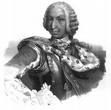













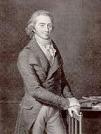


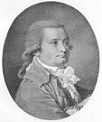

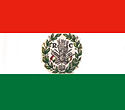
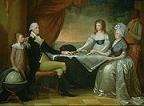


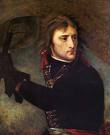
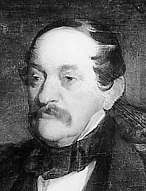
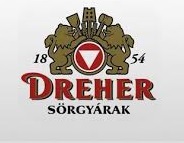
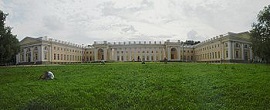
1796 Early in the year after the fall of Robespierre in France lightens things up in that-wasn't-funny England, the slavery abolition bill long pushed by MP William Wilberforce seems to finally be about to pass, but the 3rd reading of the bill takes place on the night that a comic opera debuts in London, causing four supporters to skip the vote to see it - it was that funny? A Triple Alliance is formed by Britain, Austria, and Russia against France (different from the ones in 1668 and 1717), while Spain and France sign an alliance against England; France conquers Mannheim and Belgium; Luxembourg capitulates to France; after the Army of the Rhine under Gen. Lazare Hoche kicks their butts, Austria signs an armistice with France, and the Netherlands passes under French domination with a French army backed by returning Patriots, and on Jan. 19 the Batavian Repub. is proclaimed (until June 5, 1906), wih Louis I as king. On Jan. 27 Philly physician (Scots-Irish immigrant in 1771, who signed the Constitution) James McHenry (1753-1816) becomes U.S. war secy. #3 (until May 13, 1800), going on to build Ft. McHenry to defend the port of Baltimore, Md. On Feb. 4 Samuel Chase (1741-1811) of Md. becomes U.S. Supreme Court justice #9 (until June 19, 1811) to replace John Blair (1789-96); on Mar. 8 Oliver Ellsworth (1745-1807) of Conn., who coined the term "United States" becomes U.S. Supreme Court chief justice #3 and the 10th justice (until Dec. 15, 1800). On Feb. 9 Emperor (since 1736) Qin Qian Long (Ch'ien Lung) (b. 1711) retires, and his son Yongyan (Kia-King) becomes Qing (Manchu) emperor #5 of China Qin Jia Qing (Qing Ren Zong) (1760-1820), issuing the Edict of Peking, forbidding import of opium into China and making opium smoking a capital offense. On Feb. 20 the French govt. cancels the planned end of the distribution of meat and bread at nominal prices in Paris after a near revolt, which gives agitator Francois-Noel "Gracchus" Babeuf (1760-97) his cue, and he forms the Society of Equals (Societe des Egaux), which meets at the Pantheon until it is closed on Feb. 27, after which he pick up more steam and begins calling for the annihilation of the govt. On Feb. 16 the official observance of George Washington's birthday in the U.S. begins. On Mar. 8 the U.S. Supreme (Ellsworth) Court rules in Hylton v. U.S. that a tax on the possession of goods is not a direct tax that must be apportioned under Article I of the Constitution, as a tax on land would be, becoming the first time the court exercises judicial review, challenging the constitutionality of an act of Congress; the same year the court rules in Ware v. Hylton that an article in the 1783 Treaty of Paris supersedes Va. law under the Supremacy Clause, becoming the first court nullification of a state law; John Marshall gives an eloquent argument to the court that helps make him a star. One is the loneliest number? On Mar. 9 27-y.-o. up-and-coming Gen. Napoleon Bonaparte marries 33-y.-o. Martinique-born Josephine de Beauharnais (the Creole) (1763-1814), widow of guillotined Martinique-born French army Gen. Alexandre, Vicomte de Beauharnais (until 1809); she likes to bring her pet orangutan to dinner parties. On Mar. 18 the French govt. attempts to stabilize currency by replacing assignats with mandats territoriaux, but they depreciate overnight, causing the govt. to withdraw them and attempt to get a forced loan from the rich in vain, causing near bankruptcy; on Apr. 4 the govt. finds that 500K Parisians need relief; meanwhile pesky rabble-rouser Francois-Noel Babeuf recruits tons of new followers, and beginning on Apr. 11 Paris is placarded with his soundbyte "Nature has given to every man the right to the enjoyment of an equal share in all property", while cafe goers sing his song "Mourant de Faim, Mourant de Froid" (Dying of Hunger, Dying of Cold, tra-la); after finding out about an armed uprising planned for May 11, the authorities arrest Babeuf and his assocs. on May 10, and his "Tribune du peuple" is shut down - look at that steak, isn't it gorgeous? In Mar. Gen. Louis Lazare Hoche ends the revolt in French Vendee (begun 1793). In Mar. James Madison breaks with his old ally Pres. Washington by supporting a congressional demand that he turn over his private instructions given to John Jay to guide his negotiations with Britain; Washington, backed by Hamilton, spurns the request, creating a precedent for Executive Privilege; Washington never takes Madison back into the fold. On Apr. 1 the city of Dayton, Ohio on the Great Miami River in SW Ohio (modern-day pop. 141K/799K) is founded by the 12-person Thompson Party from Cincinnati, Ohio, becoming the birthplace of aviation pioneer Orville Wright. On Apr. 13 the first known elephant arrives in the U.S. Rape me, rape me my friend? On Apr. 13-14 after his honeymoon and being appointed CIC of Italy and sent on a campaign against the Austrians in N Italy, Napoleon pyrhhically defeats the Austrians at the Battle of Millesimo, followed on Apr. 21 by a real V over the Piedmontese (Sardinians) at the Battle of Mondovi (Montenotte) in Piedmnt, causing Victor Amadeus to conclude a separate peace with France; on May 10 Nappy defeats the Austrians at the Battle of Lodi (Nappy falls into the Adda River as the French are storming the bridge, but is pulled out before he can drown), and again on May 11 at the Battle of Arcol; he then occupies Milan and Venice on May 12, and decides to form two new repubs., one to the N of the Po River (Transpadane), and the other to the S of the Po River (Cispadane). On Apr. 14 the Battle of Millesimo (Millefimo) (Dego) is a D for 4K Austrians and Savoyards and a V for the 10K-man French army of Napoleon, causing the first of five Napoleonic Medals to be awarded. On June 1 "Volunteer State" Tennessee (Tenn.) (named after Tanasi, the Cherokee villages on the Little Tennessee River) is admitted as the 16th U.S. state (slave), becoming the first U.S. state to (eventually) border eight other states; there are now 7 free and 9 slave states, with N.J. practically in the free camp (since it's not economically important), and the balance see-saws, being roughly preserved for the next 50 years as new states are added; William Blount is elected as U.S. Sen. from Tenn. On July 6 crotchety Lord Amherst (b. 1717) receives a field marshal's baton 11 mo. before his death - anus in baton jokes here? Reverse the charges? In June French Gens. Jean Victor Moreau and Jean Baptiste Jourdan separately invade S Germany, creating a German Front; Moreau forces Baden, Wurttemberg and Bavaria to conclude truces in Aug.; Jourdan is defeated by epileptic but Austrian troops led by archduke Charles of Teschen (1771-1847) (brother of HRE Francis I) at Amberg on Aug. 24 and Wurzburg on Sept. 3, preventing the two French armies from linking up on German soil; Jourdan resigns his command, and Moreau retreats across the Rhine, but the Germans don't follow up conclusively. On July 8 the U.S. State Dept. issues its first U.S. passport. On July 12 French Rev. troops under Gen. Jean Baptiste Kleber siege Frankfurt am Main, which is garrisoned with Austrian troops; on July 13-14 (night) they shell the Jewish ghetto (Judengasse), destroying one-third of the houses, causing its de facto abolishment. On July 21 after leaving Portsmouth, England last May 22 on the Endeavor, and reaching the Gambia River on June 21, disembarking on Dec. 2 to explore the interior with two native guides, getting captured and imprisoned by a Moorish chief for 4 mo. and escaping on July 1 with only a horse and pocket compass, Scottish surgeon-explorer Mungo Park (1771-1806) becomes the first European to discover the Niger River near Segou in modern-day Mali, following the river 300 mi. to Bamako and returning to Scotland via Antigua on Dec. 22, causing a sensation with the big news. On July 22 the city of Cleveland, Ohio (modern-day pop. 397K/3.5M) on the Cuyahoga River is founded by land surveyor Moses Cleaveland (OE "hilly area") (1754-1806) of the Conn. Land Co.; the first settler is Lorenzo Carter; the village of Cleaveland is incorporated on Dec. 23, 1814, and incorporated as a city on Mar. 6, 1836 after the completion of the Ohio and Erie Canal in 1832 allows shipping down the Mississippi River to the Gulf of Mexico, and iron ore begins to be shipped in from Minn. - Levon calls his child Jesus? On Aug. 5 Napoleon Bonaparte and his 26K French troops win a V against 16K Ahnulds, er, Austrians under field marshal Dagobert Sigmund von Wurmser (1724-97) at the Second Battle of Castiglione (Solferino), opening their way to Mantua - I think you're crazy, yes I do? On Aug. 19 the secret Second Treaty of Ildefonso (first 1777, next 1800) between Spain and France allies them against the British. On Aug. 27-28 (night) Francois-Noel Babeuf and his assocs. are secretly removed from Paris to Vendome for trial, but his followers find out and attempt to break him out via a riot, which doesn't materialize; on Sept. 7 500-600 of his followers attempt to incite a military revolt in Grenelle, again in vain. On Sept. 2 the Am. brig Sally from Boston, Mass. accidentally grounds on a shoal near Johnston (Kalama) Island (Atoll) and Sand Island 860 mi. SW of Honolulu, Hawaii, after which Capt. Joseph Pierpont pub. his discovery but doesn't claim or name them, which happens when British Capt. Charles J. Johnston of the HMS Cornwallis sights them on Dec. 14, 1807. On Sept. 6 the First Battle of Bassano in Venetia, Italy sees Austrian troops under Field Marshal Count Dagobert Sigmund von Wurmser defeated by French troops under Napoleon. On Sept. 19 Pres. Washington's Farewell Address (dated Sept. 17) is pub. in the Philadelphia Daily American Advertiser (never delivered); it is based on a draft prepared by Madison four years earlier; in it he declines to accept a 3rd term, and disses the spirit of sectionalism as well as the spirit of party and partisan excess,,with the soundbyte: "Let me now... warn you in the most solemn manner against the baneful effects of the Spirit of Party generally... A fire not to be quenched, it demands a uniform vigilance to prevent its bursting into a flame, lest, instead of warming, it should consume"; his speech contains the following oft-quoted advice: "Observe good faith and justice toward all nations. Cultivate peace and harmony with all... The Nation which indulges toward another an habitual hatred or an habitual fondness is in some degree a slave. It is a slave to its animosity or to its affection, either of which is sufficient to lead it astray from its duty and its interest... Tis our true policy to steer clear of permanent alliances with any portion of the foreign world"; the phrase "entangling alliances" is first used by Jefferson in his first inaug. address; the 2-term precedent wows all succeeding presidents, who observe it out of respect for him until cocky FDR. Washington out of the way, the U.S. descends from Mount Olympus with its first partisan election for president? The Federalists choose John Adams as their candidate for pres., and Thomas Pinckney of S.C. for vice-pres.; Adams utters the soundbyte "I dread... a division of the republic into two great parties"; the Repubs. choose Thomas Jefferson for pres. and Aaron Burr of New York for vice-pres.; Federalist leader Alexander Hamilton tries to rig the election against his hated foe Adams by encouraging electors to vote for Pinckney while refraining from voting for Adams, thus making Pinckney pres.; too bad, it backfires, and results in Adams on Nov. 2 receiving 71 electoral votes, Jefferson 68, Pinckney 59, and Burr 30; Adams becomes pres. and Jefferson vice-pres., a dreaded mixed marriage. On Oct. 14 Sardinian king (since 1773) Victor Amadeus III (b. 1726) dies, and his son Charles Emmanuel IV (1751-1819) becomes king of Sardinia-Piedmont (until 1802); by 1798 he loses Piedmont to France. On Oct. 16 the Modena Congress, attended by reps from the provinces of Modena, Bologna, Ferrara and Reggio Emilia, and organized by Napoleon proclaims the Cispadane Repub. in N Italy (ends July 9, 1797), and invites other Italian provinces to join, forming an army of mounted hunters with artillery; next Jan. 7 in Reggio Emilia the congress picks a flag consisting of the Italian tricolor (red, white, green), with a quiver, accolade and four arrows, crowned with bay leaves. In Oct. Jean Jacques Regis (Régis) de Cambaceres (Cambacérès) (1753-1824), former member of the Nat. Convention (who favored leniency toward the king) is elected pres. of the Council of Five Hundred, and formulates the Projet de Code Civil, the basis of the Code Napoleon. On Nov. 6 the Austrians under Field Marshal Baron Joseph (Jozsef) Alvinczi von Borberek (1735-1810) defeat Napoleon at the Second Battle of Bassano, and again on Nov. 12 at the Battle of Caldiero; on Nov. 15-17 Napoleon defeats the Austrians at the Battle of the Bridge of Arcole (Arcola), using a bold maneuver to outflank the Austrian army underand cut its line of retreat, foiling the 3rd Austrian attempt to lift the Siege of Mantua, beginning Napoleon's meteoric rise; after withdrawing toward Vicenza, the Austrians gamely reoccupy the field of battle on Nov. 22, then after some troops under Lt. Paul Davidovich (1737-1814) begin their own retreat, Alvinczi admits defeat and falls back to Bassano. On Nov. 17 (Nov. 5 Old Style) horse-loving tsar (since 1762) Catherine II the Great (b. 1729) dies on a straw mat three days after suffering a stroke on her way to the water closet, leaving the Diary of Catherine the Great and a huge art collection housed in the Hermitage next to the Winter Palace in St. Petersburg on the Neva River; she dropped her big plans to break up the Ottoman Empire and partition the Balkans with Austria after the outbreak of the French Rev.; despite declaring on Nov. 5 that he's unfit, and that she prefers her other son Alexander, her son (the Walrus is Paul?) Paul I Petrovich Romanov (1754-1801) becomes Russian tsar (until Mar. 23, 1801), proceeding to undo all her work, starting by firing massacre-loving field marshal Alexander Suvorov, limiting the work of serfs, and undermining the nobility, all leading to his murder in a matter of a few years; meanwhile Suvorov retires in style in his Konchauskoy Estate near Moscow, waiting in the wings, while Savoyard Xavier de Maistre (1763-1852), who joined Suvorov after the annexation of Savoy to France in 1792 flees to St. Petersburg, getting his ultra-conservative brother Joseph-Marie, Comte de Maistre (1753-1821) a job as Sardinian ambassador to Russia in 1803 (until 1817) - hello, welcome to reactionary dot com, how can I hurt you? In Dec. the Expédition d'Irlande (French expedition to Ireland) sees the French Dir. of the First French Repub. send 15K soldiers from Brest under Gen. Lazare Hoche to attempt a landing in Bantry Bay, Ireland to support the outlawed Society of United Irishmen; too bad, winter storms cause the fleet to break up and return to Brest through British-infested waters; a 2nd landing is attempted in Aug. 1798 with 2K men, but it also becomes a dud. Sawai Madhavrao commits suicide, leaving no heir, and Baji Rao II (1775-1851) becomes the last peshwa of the Maratha Confederacy (until 1818), going on to become a cruel bum who squanders his wealth and turns the pop. against him. The royalist revolt in Vendee, France (begun 1793) is quashed. Agha Mohammad Khan (d. 1797) executes Shahrukh Shah, Afshar ruler of Khurasan in N Persia, consolidating control of Persia, then crowns himself shah, founding the Qajar Dynasty in Persia (Iran), with Tehran as his capital instead of Sari, unifying the country for the first time since the Safavids. Ang Eng dies, and Pok becomes regent of Cambodia (until 1806). Pres. Washington recommends to Congress the establishment of a U.S. Dept. of Agriculture; Congress doesn't get around to it until 1862 - to keep up with the Brits? The U.S. Public Land Act of 1796 doubles the price of newly-opened lands to $2 per acre, and generally prices it out of the market because of Federalist fears of losing political influence for the E states, as well as the need for govt. revenue; by 1800 only 50K acres have been sold, and there is a clamor for a reduction in prices; a declaration that Indians now live within U.S. borders causes Seneca chief Red Jacket (1750-1830) to give him a piece of his mind: "You are a cunning People without Sincerity, and not to be trusted... for we had thought our Lands were our own, not within your Boundaries, but joining the British, and between you and them." 38-y.-o. Horatio Nelson is promoted to commodore - who did Lady Hamilton do? James Monroe becomes gov. of Va. (until 1802). N.Y. Federalist U.S. Sen. (from 1789) Rufus King (originally from Mass.) is appointed U.S. minister to England (until 1803); meanwhile Pres. Washington appoints John Quincy Adams as minister to Portugal, soon getting promoted to the Berlin Legation, deciding to devote his life to public service after Washington calls him "the most valuable of America's officials abroad"; meanwhile France appoints new foreign minister Charles Maurice de Talleyrand-Perigord (1754-1838), and the U.S appoints Charles Cotesworth Pinckney (1746-1825) of S.C. (brother of Thomas Pinckney, sons of famous indigo planter Eliza Lucas Pinckney, who died in 1793) as minister to France; as the French-British war of 1793 continues, both sides seize netural ships that allegedly violate their blockades; despite the pro-French stance of the Jeffersonian Repubs., France regards the U.S. as a virtual ally of Britain as a result of Jay's Treaty (1794), and refuses to receive Pinckney, causing him to retire to Amsterdam, and Pres. Adams to send two other negotiators, John Marshall and Elbridge Gerry to join him; meanwhile Talleryrand ("a pile of shit in a silk stocking" - Napoleon) delays their reception by the Directory for many weeks in an attempt to embarrass the Federalist admin. to the advantage of the pro-French Jeffersonian Repubs. A new Ga. legislature rescinds the 1794 Yazoo land grant, causing Fletcher, one of the purchasers, to sue Peck, one of the sellers for breach of warranty of title; he wins and the case starts its way up to the U.S. Supreme Court (1810) to victory and ultimate fat cat heaven. The British occupy Able-Was-I-Ere-I-Saw Elba, and drive the Dutch out of Sri Lanka; Britain gains control of all Dutch East Indian possessions except Java. His over-ardent pro-French Rev. sympathies and criticism of John Jay get James Monroe recalled as U.S. minister to France, ending his diplomatic career for years. Uninhabited Wake Island, a 3-sq.-mi. atoll about halfway between Midway and Guam comprising the three islets of Wilkes, Peale, and Wake is discovered by the British. Zane's Trace is built by Ebenezer Zane (1747-1811) from Wheeling, Va. to Maysville, Ky., becoming the only major road in Ohio until the War of 1812. The Boston Dispensary in Mass. becomes the first organized medical care service in New England. There is a devastating fire in cotton port Savannah, Ga. The French Opera House in New Orleans, La. opens, becoming the first in the U.S. The word "ideology" is coined by Destutt du Tracy of France. 26-y.-o. Ludwig van Beethoven's progressive hearing loss begins this year. George Washington loses his last tooth, after which his dentist John Greenwood wraps it in wire and puts it on Washington's watch chain. Am. playwright William Dunlap (b. 1766) becomes a mgr. of the John Street Theatre in New York City, followed in 1798 by dir. of the New Park Theatre there; too bad he goes bankrupt in 1805, and in 1816 goes back to painting, finding better bucks in religious subjects. Students are first divided into classes (Freshman, Junior and Senior). Daniel Webster enters Phillips Exeter Academy in N.H.; the debate team is later named after him. English immigrant John Boston (-1804) founds the first brewery in Australia in Sydney, manufacturing beer from malted maize flavored with Cape gooseberry (Lycopersicum). Dr. Cornelius Cunningham and James Greenleaf open Washington Brewery at 21st, 22nd, and B Sts. in Washington, D.C.; the federal govt. doesn't convene in the city until 1800. The York Retreat in Lamel Hill, York for the mentally ill is founded by Quakers, becoming known for humane treatment and serving as a model. The silver Lady Liberty Dollar begins to be minted by the U.S. Mint, with 15 stars around her head; in 1932 George Washington's head begins appearing instead; by 2000 a 1796 original is worth $3M. The U. of Strathcylde (originally Royal Technical College) in Glasgow, Scotland is founded. James Watt wins his patent battle in court, establishing the principle that improvements on an existing patent can be patented. Comedic actor and playwright August Wilhelm Iffland (1759-1814) becomes dir. of the Berlin Nat. Theater. Austrian brewer Franz Anton Dreher Jr. (1736-1820), son of innkeeper Franz Anton Dreher (1689-1743) founds Dreher (Schwechat) Brewery in Klein Schwechat near Viennam becoming a success producing lager beer; in 1841 his son Anton Dreher (1810-63), friend of Gabriel Sedlmayer Jr. of Spaten Brewery introduces Schwechater Lagerbier, pioneering Pale Lager, which combines the crispness of lager with the pale hues of English ale, becoming known as Vienna Style Beer, causing him to become known as "the King of Brewers". In 1854 Kobanya Brewery is founded in Kobanya, Budapest, Hungary, producing brands incl Arany Aszok and Dreher Bak; in 1862 Dreher acquires it; the combined co. becomes independent in 1907 until the Communist takeover in 1949, which nationalizes it; in 1993 it joins the South African Breweries (SAB), which in May 2002 merges with the Miller Brewing Co. to create SABMiller. Architecture: English sculptor John Bacon Sr. (1740-99) designs the Dr. Samuel Johnson Memorial in St. Paul's Cathedral in London. Giacomo Quarenghi (1744-1817), Alexander Palace (1792-6); built in Alexander Park near Catherine Palace in Tsarskoye Selo, commissioned as a gift for her favorite grandson Grand Duke Alexander Pavlovich, who later (1801-25) becomes Tsar Alexander I, and which later becomes the favorite residence of the last Tsar Nicholas II. Inventions: On May 14 English physician Edward Jenner (1749-1823) introduces smallpox vaccination to a needy world, inoculating 8-y.-o. James Phipps (1788-1853) with material from a cowpox pustule from the hands of milkmaid Sarah Nelmes, who caught cowpox from the cow Blossom, whose hide is preserved at the St. George Medical School; Jenner goes on to save more people than Jesus? Lithography, a technique of printing based on the fact that oil and water do not mix is invented by German playwright Alois (Aloys) Senefelder (1771-1834) in Prague; the age of colored printing and colorful magazines is around the corner. Science: German mathematician Carl Friedrich Gauss pub. the first proof of the Quadratic Reciprocity Theorem (Golden Theorem of Arithmetic), which allows the solvability of a quadratic equation in modular arithmetic to be determined without giving a method for finding it. French brain man Pierre-Simon Laplace (1749-1827) pub. his Nebular Hypothesis. Pierre-Simon Laplace (1749-1827), Mecanique Celeste ( Mécanique Céleste) (5 vols.) (1799-1825); incl. his Nebular Process. Johann Tobias Lowitz (1757-1804) of Germany prepares pure (absolute) ethyl alcohol using charcoal filtering - how dry I am? Nonfiction: Louis Gabriel Ambroise, Vicomte de Bonald (1754-1840), Theorie du Pouvoir Politique et Religieux (3 vols.); a counter-rev. work by a French emigrant to Heidelberg, which causes him to be viewed with suspicion when he returns. Robert Fulton (1765-1815), Treatise on the Improvement of Canal Navigation. Albert Gallatin (1761-1849), Sketch of the Finances of the United States. Elizabeth Hamilton (1756-1816), Essays on the Human Mind. Christoph Wilhelm Hufeland (1762-1836), Macrobiotics, or The Art to Prolong One's Life; coins the term "macrobiotic". William Henry Ireland (1775-1835), An Authentic Account of the Shakesperean Manuscripts; comes clean, but backfires when critics don't want to admit they were fooled and claim he couldn't be capable of such magnificent forgeries? Samuel Ireland, A Vindication of His Conduct (Nov.); claims innocence, and attacks the character of Edmond Malone with help from Thomas Caldecott. Joseph de Maistre (1753-1821), Considerations sur la France. Edmond Malone (1741-1812), An Inquiry into the Authenticity of Certain Miscellaneous Papers and Legal Instruments (Mar. 31); proves by close reasoning that the Vortigern play et al. are forgeries. Pierre Samuel du Pont de Nemours (1739-1817), Philosophie de l'Univers. Amelia Simmons, American Cookery; first cookbook written in the U.S.; advises using pearl ash for leavening cakes. Rev. Richard Watson (1737-1816), An Apology for the Bible, in a Series of Letters Addressed to Thomas Paine - Tom Paine is his royal pain? Friedrich von Schelling (1775-1854), Letters on Dogmatism and Criticism (1796-8). Brockhaus Konversations Lexikon (first ed.) (Leipzig). Music: Francois-Adrien Boieldieu (1775-1834), Les Deux Lettres (comic opera) (Paris). Benjamin Carr (1740-99), The Archers of Switzerland (opera) (New York); about William Tell. Art: Antoine-Jean Gros (1771-1835), Napoleon at Arcola (1796-7). Edward Savage (1761-1817), George Washington and His Family (The Washington Family); 7' x 9'4"; shows the head of the nation in military uniform to make him look more like Cincinnatus, with a plan of Washington, D.C. on the table, and the Potomac River in the background; Martha Washington is pointing wth her fan to the "grand avenue" (Nat. Mall). Gilbert Stuart (1755-1828), The Athenaeum (Portrait of George Washington); 8'x5'; part of a larger unfinished painting; used on U.S. $1 bills; GW wears a black velvet suit and a shirt with a white ruffed collar; new false teeth give Washington a bulge around his mouth; he ends up making 75 versions of the Athenaeum Portrait, and a total of 100 Washington portraits - fold one in half lengthwise and you can see George's limp ding dong hanging out of his lacy white unmentionables? Plays: George Colman the Younger (1762-1836), The Iron Chest; based on William Godwin's 1794 "Adventures of Caleb Williams". Hannah Cowley (1743-1809), The Town Before You (last play). Thomas Dibdin (1771-1841), Something New (comic operetta) (burletta) (Liverpool); The Mad Guardian (Liverpool). Jean-Francois Ducis (1733-1816), Abufas, ou la Famille Arabe; vivid picture of desert life. Louis-Jean Nepomucene Lemercier (1771-1840), Agamemnon (Paris); "the last great antique tragedy in French literature" (Charles Lafitte). Thomas Morton (1764-1838), The Way to Get Married (comedy). Jean Paul (1763-1825), Siebenkas. William Shakespeare not, Vortigern and Rowena (Apr. 2) (Drury Theatre, London); despite doubts raised by actor John Philip Kemble, Richard Brinsley Sheridan pays 300 pounds for this forgery, which flops on the first night after Kemble repeats the line "and when this solemn mockery is o'er" with emphasis in Act 4, causing the followers of critic Edmond Malone to begin catcalls, killing it. William Wordsworth (1770-1850), The Borderers (tragedy); first pub. 1842. Heinrich Daniel Zschokke (1771-1848), Julius von Sassen (tragedy). Poetry: Joel Barlow (1854-1912), The Hasty Pudding; his love for New England corn meal mush. Willem Bilderdijk (1756-1831), Gebed. Rhyijnvis Feith (1753-1824), Odes and Miscellaneous Poems (5 vols.) (1796-1814). Claude Joseph Rouget de Lisle, Essais en Verse et en Prose - no catchy tunes here? Robert Southey (1774-1843), Joan of Arc. (2 vols.); repub. in 1798 with additions by Samuel Taylor Coleridge. Novels: Fanny Burney (1752-1840), Camilla, or A Picture of Youth. Denis Diderot (1713-84), Jacques le Fataliste et Son Maitre (Jacques the Fatalist and His Master) (posth.); Le Religieuse (The Nun) (posth.); only lesbian novel of the 18th cent. Elizabeth Hamilton (1756-1816), Letters of a Hindoo Rajah; anti-Jacobin novel. Wilhelm Heinse (1749-1803), Hildegard von Hohenthal. Matthew Gregory Lewis, Ambrosio, or the Monk (Gothic romance). Jean Paul (1763-1825), Biographical Recreations under the Brainpan of a Giantess; Life of Quintus Fixlein. Ludwig Tieck (1773-1853), William Lowell (Weltschmerz novel). Births: German chemist-naturalist Karl Ernst Claus (Carl Ernst Klaus) (d. 1864) on Jan 23 in Dorpat (Tartu), Livonia. Am. guitar maker Christian Frederick Martin Sr. (d. 1873) on Jan. 31 in Markneukirchen, Germany. English botanist-geologist John Stevens Henslow (d. 1861) on Feb. 6 in Rochester, Kent; educated at St. John's College, Cambridge U.; teacher of Charles Darwin, who introduces him to Capt. Fitzroy of HMS Beagle. French technocrat (disciple of Comte de Saint-Simon) Barthelemy (Barthélemy) Prosper Enfantin (d. 1864) on Feb. 8 in Paris; educated at the Ecole Polytechnique. Belgian statistician-astronomer-sociologist Lambert Adolphe Jacques Quetelet (d. 1874) on Feb. 22 in Ghent. Swiss mathematician Jakob Steiner (d. 1897) on Mar. 18 in Utzenstorf, Bern. Irish Graves' Disease physician Robert James Graves (d. 1853) on Mar. 27 in Dublin; educated at the U. of Dublin. Am. frontiersman-soldier Col. James "Jim" Bowie (d. 1836) on Apr. 10 in Logan County, Ky.; known with his brother Rezin P. Bowie for their 9-to-16-in. long Bowie knives. Am. soldier-explorer Benjamin Louis Eulalie de Bonneville (d. 1878) on Apr. 14 in Paris, France; emigrates to the U.S. in 1803, with passage paid by Thomas Paine (1737-1809), who leaves his estate to his mother Marguerite for the education of her sons Benjamin and Thomas. German poet-dramatist Karl Leberecht Immermann (d. 1840) on Apr. 24 in Magdeburg; educated at the U. of Halle. Am. actor Junius Brutus Booth (d. 1852) on May 1 in St. Pancras, London, England; descended through his mother from English statesman John Wilkes (1727-97); father of actors Junius Brutus Booth Jr. (1821-83), Edwin Thomas Booth (1833-93), and John Wilkes Booth (1838-65), also Asia Booth Clarke (1835-88). Am. educational reformer and U.S. Rep. (R-Mass.) (1848-53) Horace Mann (d. 1859) on May 4 in Franklin, Mass.; educated at Brown U.; brother-in-law of Nathaniel Hawthorne. Am. Hispanist historian (blind) (first scientific historian in the U.S.) William Hickling Prescott (d. 1859) on May 4 in Salem, Mass; educated at Harvard U. German religious historian (Roman Catholic) Johann Adam Mohler (Möhler) (d. 1838) on May 6 in Igersheim, Wurttemberg; educated at the U. of Tubingen. French sculptor Etienne-Jules (Étienne-Jules) Ramey (fils) (d. 1852) on May 24 in Paris; son of Claude Ramey (1754-1838); pupil of Pierre Cartellier (1757-1831); teacher of Guillaume Geefs and Jean-Joseph Perraud. French physicist Nicolas Leonard Sadi Carnot (d. 1832) on June 1 in Paris; son of Lazare Carnot (1753-1823); educated at the Ecole Polytechnique. Am. Presbyterian Bible scholar George Bush (d. 1859) on June 12 in Norwich, Vt.; ancestor of U.S. pres. George H.W. Bush and U.S. pres. George W. Bush; educated at Dartmouth College, and Princeton U. French statesman Gen. Charles Guillaume Marie appollinaire Antoine Cousin Montauban, Comte de Palikao (d. 1878) on June 24 in Paris. Russian Romanov tsar #15 (1825-55) Nicholas I (Nikolai Pavlovich) (d. 1855) on July 6 (June 25 Old Style) in Gatchina; 3rd son of Paul I (1754-1801); brother of Alexander I (1777-1825); father of Alexander II (1818-81). Am. "The Age of Fable" mythologist Thomas Bulfinch (d. 1867) on July 15 in Newton, Mass.; son of Charles Bulfinch (1761-1844); educated at Boston Latin School, Phillips Exeter Academy, and Harvard U. French landscape painter Jean-Baptiste-Camille Corot (d. 1875) on July 17 in Paris; educated at the Rouen Lycee; pupil of Victor Bertin; known for his generosity to less fortunate artists ("le pere Corot"). Irish Chartist leader (Protestant) Feargus Edward O'Connor (d. 1855) on July 18 near Castletown-Kinneigh, County Cork; son of Roger O'Connor (1762-1834), brother of Arthur O'Connor (1763-1852); brother of Francisco Burdett O'Connor (1791-1871). Am. Western painter-writer-explorer George Catlin (d. 1872) on July 26 in Wilkes-Barre, Penn.; explores South and Central Am. and Europe in 1852-7. Am. inventor Walter Hunt (d. 1859) on July 29 in Martinsburg, N.Y.; eldest of 13 children. Irish "Father Connell" novelist Michael Banim (d. 1874) on Aug. 5 in Kilkenny; brother of John Banim (1798-1842). Am. "Kindred Spirits" painter-engraver Asher Brown Durand (d. 1886) on Aug. 21 in Maplewood, N.J.; co-founder with Thomas Cole of the Hudson River School of Painting. Am. philanthropist (founder of Smith College) Sophie Smith (d. 1870) on Aug. 27 in Hatfield, Mass. French Romantic animal sculptor ("the Michelangelo of the Menagerie") Antoine-Louis Barye (d. 1875) on Sept. 24 in Paris; father of Alfred Barye (1839-82). Am. anti-slavery activist (black) David Walker (d. 1830) on Sept. 28 in Wilmington, N.C.; slave father, free mother; born free. German novelist Karl Spindler (d. 1855) on Oct. 16 in Breslau. German "Polenlieder" poet-dramatist (bi?) Count August von Platen (Platen-Hallermunde) (d. 1835) on Oct. 24 in Ansbach. German composer-conductor-singer ("the Schubert of North Germany") Johann Carl (Karl) Gottfried Loewe (d. 1869) on Nov. 30 in Lobejun; known for his long narrative musical poems. Am. Dem. Mo. gov. #6 (1836-40) Lilburn Williams Boggs (d. 1860) on Dec. 14 in Lexington, Ky.; husband (1817-20) of Julia Ann Bent (1801-20) (sister of the Bent brothers) and (1823-) Panthea Grant Boone (1801-80) (granddaughter of Daniel Bone). Am. Mimbres Apache chief Cuchillo Negro (Sp. "black knife") (Baishan) (d. 1857); son of chief Fuerte (Soldato Fiero); brother-in-law of Mangas Coloradas?; father of Mangus Coloradas. English Radical MP (1826-32, 1834-61) (Chartist supporter) ("the Radical Dandy") ("the Dandy Demagogue") Thomas Slingsby "Honest Tom" Dunscombe (d. 1861) in Yorkshire; educated at Harrow School. Russian naval officer-explorer Baron Ferdinand Petrovich von Wrangell (d. 1870). Deaths: Spanish Capt. Tomas Sanchez de la Barrera (b. 1709) on Jan. 21 in Laredo, Tamaulipas, New Spain. Scottish "common sense" philosopher Thomas Reid (b. 1710); Hume's most famous critic. English divine George Campbell (b. 1719) on Apr. 6. English MP (1768-90) and brewer Samuel Whitbread (b. 1720) on June 11 in London; leaves a £1M estate. Swedish-born Scottish Somerset House architect Sir William Chambers (b. 1723) on Feb. 17 in London. British adm. Sir Hugh Palliser (b. 1723) on Mar. 19 in Chalfont St. Giles, Buckinghamshire. Scottish physicist John Anderson (b. 1726) on Jan. 13. Russian empress (1762-96) Catherine II the Great (b. 1729) on Nov. 6 in St. Petersburg. Am. Episcopal loyalist minister Samuel Seabury (b. 1729) on Feb. 25. German mathematician Johann Daniel Titius (b. 1729). U.S. pres. #1 (under the Articles of Confederation (DOI signer) Samuel Huntington (b. 1731) on Jan. 5 in Norwich, Conn. Am. astronomer David Rittenhouse (b. 1732) on June 26. Swedish scientist Johan Wilcke (b. 1732). English explorer Capt. Philip Carteret (b. 1733) on July 21. French scientist Alexandre-Theophile Vandermonde (b. 1735) on Jan. 1. Scottish "Ossian" poet James Macpherson (b. 1736) on Feb. 17. Bavarian-born French gen. Henri Christian Michel de Stengel (b. 1744) on Apr. 28 in Carcassone (KIA). Am. Rev. Gen. Anthony Wayne (b. 1745). Scottish poet Robert "Rabbie" Burns (b. 1759) on July 21 in Dumfries; buried in St. Michael's churchyard; on July 21 his wife Jean Armour (b. 1830) bears their 9th "wee bairn" (child), Maxwell; "The best laid plans of mice and men/ Gang aft agley"; "But mark the Rustic, haggis-fed/ The trembling earth resounds his tread/ Clap in his walie nieve [big fist] a blade/ He'll make it whissle/ An legs an' arms and heads will sned" - the good gang agley young? German writer Baron Adolph Knigge (b. 1752) on May 6. German philosopher Johann Philipp Siebenkees (b. 1759) (stroke). English poet Robert Lovell (b. 1771) in Italy (disappears without a trace).





















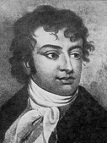





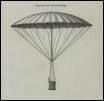




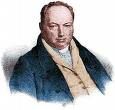

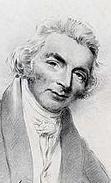

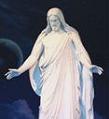

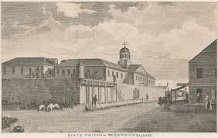
1797 On Jan. 13 the Action of Jan. 1797 sees two British frigates engage the 74-gun French line ship Droits de L'Homme from the Expedition d'Irlande for 15 hours in bad weather off the coast of Brittany until it is swept onto a sandbar and destroyed. On Jan. 14 Napoleon's 22K-man army defeats a 28K-man Austrian force led by Archduke Charles at the Battle of Rivoli, earning him the name "Little Corporal" - his fly was open? On Jan. 15 the first top hat is worn in London by John Etherington, causing him to be arrested for disturbing the peace. It's only a manly man who could? I want a perfect body I want a perfect soul? On Feb. 3 Napoleon Bonaparte (1769-1821) takes Mantua after a seige, and founds the short-lived Lombard (Cispadane) Repub., then advances toward Rome until Pope Pius VI concludes the Treaty of Tolentino with him on Feb. 19; he then crosses the Alps, marches through the Austrian Tirol (Tyrol), and comes within 80 mi. of Vienna, forcing Austria to open negotiations. On Feb. 7 Napoleon occupies the seaport of Ancona in the Marches of C Italy; after seeing that the Jews are forced to wear yellow bonnets and arm bands with the Star of David, Mr. Liberty-Equality-Fraternity gets pissed-off, and orders the practice stopped and the ghetto to be closed, after which he forms a plan to make Jews full citizens of France so that they will flock in and bring their zippety-doo-dah big bucks with them?; on Nov. 19 the Repub. of Ancona is proclaimed with French help (until Mar. 7, 1798). On Feb. 9 Whitestown, N.Y. surveyor John Young (1764-1825) purchases 15,560 acres from the Western Reserve Land Co. for $16,085, founding the city of Youngstown, Ohio in NE Ohio at the confluence of the Mahoning River and Mill Creek 65 mi. SE of Cleveland, Ohio, 61 mi. NW of Pittsburgh, Penn., and 10 mi. W of the Penn. border halfway between Chicago, Ill. and New York City (modern-day pop. 66K/555K), attracting settlers from Conn. along with Scots-Irish from Penn., followed by blacks in the early 20th cent. and Latinos in the 1950s, going on to become one of the top steel producers in the U.S. until the steep decline of the 1970s. On Feb. 10 yesterday's news Francois-Noel Babeuf is put on trial in Vendome, and on Apr. 26 he is convicted along with some of his followers, and executed on Apr. 27 (Prairial 8). On Feb. 14 a British fleet under Adm. John Jervis, 1st Earl of St. Vincent (1735-1823) and Commodore Horatio Nelson defeats a larger Spanish fleet in Portugal under vice-adm. Jose de Cordoba y Ramos de Garay (1732-1815) in the naval Battle of Cape St. Vincent. In Feb. an earthquake in Quito, Ecuador levels the city (founded in 1530), killing 41K. On Mar. 4 Mass.-born John Adams (1735-1826), AKA "the Duke of Braintree", "His Rotundity", "the Atlas of Independence", "the Colossus of Debate", "the Father of the Navy", "Bonny Johnny", "Old Sink or Swim" (from a speech he gave), "Your Superfluous Excellency" (what Ben Franklin called him when vice-pres.) becomes the 2nd U.S. pres. (until 1801) (first 1-term pres.) (first to never own slaves, the next being his son John Quincy Adams) in the 3rd U.S. Pres. Inauguration; Thomas Jefferson becomes the 2nd U.S. vice-pres., first of a string of Repub. veeps (Burr, Clinton, Gerry, Tompkins) ending with John C. Calhoun, who resigns in 1832; Adams keeps the Washington cabinet intact, unaware that three of its members look for their instructions to Federalist leader Alexander Hamilton; First Lady Abigail Smith Adams (1744-1818) likes to be called "Mrs. President"; Adams, unlike Washington doesn't keep his temper private, and throws his wig at his cabinet? On Mar. 5 the Philadelphia Aurora comments: "If ever there was a period for rejoicing, this is the moment. Every heart, in unison with freedom and happiness of the people, ought to beat high with exultation that the name of Washington ceases from this day to give currency to political iniquity and to legalize corruption." On Mar. 6 the nondenominational London Missionary Society arrives in Tahiti on the ship Duff and establishes a major station which sends missionaries to Tonga and the Marquesas. On Mar. 8 Danish-Icelandic sculptor (Albert) Bertel Thorvaldsen (1770-1844) arrives in Rome, and settles there, celebrating the date as his "Roman birthday", going on to sculpt busts of Copernicus and Gutenberg, and a Statue of the Risen Christ that the Mormons later really dig. On Apr. 13 an informer onboard HMS Sovereign at Portsmouth, England informs an officer that a mutiny over appalling working conditions is imminent, and the signal is flashed 70 mi. to London in 3 min. by George Murray's new signaling system; the Royal Navy mutinies at Spithead, and again at the Nore from May 12 to June 13. On Apr. 17 the Preliminary Peace (Treaty) of Leoben is signed in Leoben, Austria, in which Austria takes over Venetia, proclaiming the Venetian Constitution, while on June 29 Napoleon merges the Transpadane and Cispadane Repubs. with the province of Novara to form the Cisalpine Repub. (ends 1802) in Lombardy (NW Italy) (capital Milan) (with a green-white-red Italian flag, but of square shape like the Cispadane flag); on June 14 he creates the Ligurian Repub. (until 1805) in NW Italy based on the defunct Repub. of Genoa (ending the dogeship, begun 1339), with the same red cross on white background Genoese flag; Pope Pius VI is forced to surrender papal territories to the Cisalpine Repub., and when he drags his feet, the French prepare to march on Rome again; in May Napoleon abolishes the Repub. of Venice., turning Venice into a museum-like backwater. In May at her hubby's urging Abigail Adams leaves the farm for Philly to be the brains of his admin.? On June 7 after suffering for years and sending negotiators, the U.S. Senate approves the Treaty of Tripoli, negotiated by Freethinking U.S. envoy (friend of Thomas Paine) Joel Barlow (1754-1812), whose English trans. contains nonexistent Article 11: "As the government of the United States of America is not, in any sense, founded on the Christian religion; as it has in itself no character of enmity against the laws, religion, or tranquility of Musselmen; and, as the said States never entered into any war, or act of hostility against any Mahometan nation, it is declared by the parties, that no pretext arising from religion opinions shall ever produce an interruption of the harmony existing between the two countries"; the first example of Islam history ignoramus Americans bowing to Islamic Sharia, disavowing knowledge of their own Christian foundations to appease madass Muslims?; in his June 4, 2009 speech in Cairo, Pres. Obama cites it to justify calling the U.S. a nation of Muslims, not realizing that the Barbary pirates demanded and got a giant jizya bribe to stop, their emissary quoting the Quran that all nations not acknowledging Sharia were sinners and that it was their right and duty to make war upon them and make slaves of all Yankee infidel prisoners they took, and that George Washington uttered the soundbyte "Would to Heaven we have a navy to reform those enemies to mankind or crush them into nonexistence"; too bad, they consider the bribes an ongoing thing and keep demanding more until the refusal of a $225K bribe causes them to declare war on the U.S. in May 1801. On June 17 after eunuch Agha Mohammad Khan (b. 1742) is assassinated in Shusha by his servants for threatening to behead them for eating a slice of melon, his oversexed nephew Baba Khan (known for having 700 wives) becomes Persian Qajar shah #2 Fath (Fat'h) Ali Shah Qajar (1771-1834) (until Oct. 23, 1834), going on to preside over a resurgence of Persian arts while sporting a cool black beard, reading the entire 18-vol. 3rd ed. of the Encyclopaedia Britannica and titling himself "Most Formidable Lord and Master of the Encyclopaedia Britannica"; he assigns his son Abbas Mirza to fight the pesky Russians for the next 30 years, which proves a losing effort. In the spring the merchant ship Rajah, out of Salem, Mass. returns to New York with a cargo of "wrinkled blackberries" (peppercorns) from Sumatra, pepping-up the Salem-based spice trade (until 1856). On July 8, 1797 U.S. Dem.-Repub. Tenn. Sen. (since Aug. 2, 1796) William Blount (1749-1800), gov. of the Southwest Territory in 1790-6, founder of Knoxville, Tenn. becomes the first U.S. senator impeached by the House after he is caught in Blount's Conspiracy with Britain to wrest New Orleans and the Floridas from Spain without informing his own govt., and charged with a "high misdemeanor entirely inconsistent with his public trust and duty"; after he is expelled from the Senate, his trial is postponed until 1798, and charges dismissed in 1799 because he is no longer a member, and because many argue that the Constitution doesn't allow impeachment of members of Congress, only expulsion, and he becomes the last (until ?); he becomes a state sen. in Tenn. and rides it out until his sudden death on Mar. 21, 1800 in Knoxville. On July 17 Ferdinand von Hompesch zu Bolheim (1744-1805) becomes Knights of Malta grandmaster #71 until July 6, 1799 (first German); he bestows the title of Citta Beland (his mother's surname) on the town of Zejtun (Arab. "olive")(formerly Casal Santa Caterina) in SE Malta (modern-day pop. 11K); too bad, he disregards warnings and fails to take action against an invasion prior to the French invasion next June 6. On July 22-25 British Adm. Horatio Nelson leads a brash attack on Spanish-held Santa Cruz de Tenerife in the Canary Islands, and on July 24 loses his right arm to go with his lost right eye. Living la vida loca? French gets embarrassed? On Sept. 4 the Coup of 18 Fructidor, led by Paul Francois Jean Nicolas, Vicomte de Barras (1755-1829) ousts the more conservative members from the French Directory, and begins the Directorial Terror (ends 1798), with Paris run by the Triumvirs (Barras, La-Revelliere-Lepeaux, Reubell); Carnot and Barthelemy are deported; press freedom is squelched, right-wing newspapers closed on Sept. 30, and a stamp tax on the press instituted on Oct. 4. On Sept. 18 the British occupy Trinidad, changing the name of the main city to Port of Spain. On Sept. 20 the U.S.S. Constitution, a wooden square-rigger, nicknamed "Old Ironsides" is launched in Boston, Mass., becoming one of the first fighting ships built for the new U.S. Navy as ordered by Pres. Adams; it is retired in 1830. On Sept. 30 the Bankruptcy of the Two-Thirds (Consolidated Third) suspends two-thirds of the French nat. debt. - voila? In Sept. exiled Swiss leaders urge the Directory to liberate Switzerland from the aristocratic canton govt. In Sept. Napoleon frees the Marquis de Lafayette from Austrian confinement at Olmutz (Olomouc), Moravia. On Oct. 11 a British fleet under Scottish-born Adm. Adam Duncan, Viscount Duncan of Camperdown (1731-1804) defeats a Dutch fleet under Adm. Jan Willem De Winter (1750-1812) in the service of France off the sandy hillocks of Camperdown in N Holland (N of Haarlem). Napoleon reorganizes Germany in order to control it, backfiring as Germany arises all the stronger and more unified when he falls? On Oct. 18 Count Johann Ludwig Joseph von Cobenzl (1753-1809) of Austria and Gen. Napoleon Bonaparte of France sign the Treaty of Campoformio in the village of Campoformio (Campoformido) in N Italy, giving the duchy of Milan in Lombardy and the Austrian Netherlands (Belgium) to France, in return giving Austria most of the territories of the defunct Repub. of Venice incl. the city of Venice, Venetian Istia, and Dalmatia (which becomes a crownland) (until 1805); it also secretly cedes the left bank of the Rhine River from Basel to Andernach to France, thus advancing its boundary to the Rhine and wiping out 112 German states lying W of it; the larger German states (Prussia, Bavaria, etc.) which lose territories are compensated by cessions of land in other parts of Germany, being encouraged at the same time to absorb the 1.5K "knights of the empire" (petty principalities averaging less than 3 sq. mi. each) within their borders; the 250 petty ecclesiastical states, many less than 12 sq. mi. in area are absorbed and disappear, and the number of states which survive is reduced to about 50; the political geography of Germany is simplified, and German nat. feeling begins to rise; Napoleon returns to Paris and is appointed to command forces invading England. The first human parachute jump? On Oct. 22 after experimenting with animals, Andre (André) Jacques Garnerin (1769-1823) parachutes from 3.2K ft. over Monceau Park in Paris in a 23-ft. diam. parachute made of white canvas with 36 ribs in an umbrella configuration, and a basket at the bottom; in 1799 his wife Jeanne Genevieve Garnerin becomes the first woman to try a parachute jump. On Nov. 16 Prussian king (since 1786) Frederick William II (b. 1744) dies, leaving the country bankrupt, and his semi-enlightened son Frederick William III (1770-1840) (whose portrait bears a striking resemblance to Hollywood actor Vincent Price (1911-93)?) becomes king of Prussia (until June 7, 1840), while his wet-dream wife becomes Queen Louise of Mecklenburg-Strelitz (1776-1810); the new king goes on to reform the abuses his father, cut expenses, and steer a neutrality policy in the Napoleonic Wars until 1806. In Nov. Big Man Napoleon returns to France, and begins planning a bold attack to dismantle Britain's colonial empire starting with Egypt - so he can find the Lost Ark and gain its power? Franco-American relations tank this year over a pile of shit in a silk stocking and the XYZ Affair? Talleyrand sends three French agents to Charles Cotesworth Pinckney to demand a bribe and a loan to France as conditions for meeting the Directory, who will only deal with Gerry (a Republican), causing the other two to return to the U.S. and spill the beans, masking the real names and releasing the XYZ orrespondence, sparking outrage; the slogan, "Millions for defense but not one cent for tribute", a toast in honor of John Marshall offered by S.C. Rep. Robert Goodloe Harper (1765-1825) becomes popular, and Marshall rides the popularity into the U.S. House of Reps. in 1799; Federalist majorities are elected to Congress, eager for an undeclared naval war with France; meanwhile John Adams grimly struggles to keep the U.S. out of war with big bad Napoleon, while his supposed friend Jefferson plays party politics and refuses to compromise, hoping to bring down both him and his Federalist Party. King (since 1789) Agonglo dies, and his son Adandozan (-1818) becomes king of Dahomey in W Africa (until 1818), with a regent ruling until 1804, going power-mad and throwing subjects to pet hyenas and slitting women's wombs and other nasty jazz. Denmark begins a policy of armed neutrality to protect its convoys from privateers, pissing-off Britain and France. The Ionian Islands are taken over from Venice by the French (until 1809). York (later Toronto), Ontario succeeds Niagara-on-the-Lake as capital of Upper Canada. Starting this year U.S. ships begin trading with Japan on behalf of the Dutch (until 1809). Andreas Hofer (1767-1810), an innkeeper near Meran becomes the leader of the peasant resistance in the Austrian Tyrol against Napoleon. French historian-politician Constantin Francois Chasseboeuf, Comte de Volney (1757-1820), famous for questioning the historicity of Jesus visits the U.S., and is accused by the Adams admin. of being a French spy trying to get La. reoccupied by France, forcing him to return to France next year. Italian hyperpolyglot priest Giuseppe Caspar Mezzofanti (1774-1849) is appointed prof. of Arabic at the U. of Bologna, but is fired after refusing to take an oath of allegiance to the Cisalpine Repub. The city of Baltimore, Md. (founded 1729) (modern-day pop. 620K/2.2M 1M) on Chesapeake Bay is incorporated, becoming the 2nd largest seaport in the Mid-Atlantic; its Inner Harbor becomes the #2 part for immigrants to the U.S.; in 1876 Johns Hopkins U. is founded there, followed in 1889 by Johns Hopkins Hospital; it goes on to have more public statues and monuments per capita than any U.S. City. famous residents incl. Edgar Allan Poe, Frederick Douglass, W.E.B. Du Bois, Ogden Nash, Gertrude Stein, F. Scott Fitzgerald, Dashiell Hammett, Upton Sinclair, H.L. Mencken, Edith Hamilton, Eubie Blake, Billie Holliday, Cab Calloway, Frank Zappa, John Waters, Barry Levinson, Babe Ruth, Michael Phelps, Thurgood Marshall, Nancy Pelosi, and Ben Carson. The city of Urbana, Ohio, 45 mi. W of Columbus is first settled. The bronze horses that once adorned the trimphal arch of Nero at Rome are carried by Napoleon from Venice to Paris; they are returned in 1815. Ludovico Manin becomes the last doge of Venice, Italy. John Quincy Adams (b. 1767) marries Louisa Catherine Johnson (1775-1852); they have 3 sons and 1 daughter. German adventurer Friedrich Konrad Hornemann (1772-1801) explores the caravan routes of the Sahara. England begins to export iron. The first copper pennies are minted in England, and the first 1-pound notes issued. The manufacture of window glass begins in Pittsburgh, Penn., spurring industrial growth. The Reynolds Affair sees Alexander Hamilton accused by James Monroe et al. of bribing James Reynolds to coverup financial misconduct during his tenure as U.S. treasury secy., causing Hamilton to admit that he paid blackmail payments over Reynolds' wife Maria; a duel between Monroe and Hamilton is stopped by Aaron Burr - save him for me, Jim? Retired pres. George Washington establishes one of the largest whiskey distilleries in the U.S., producing 11K gal. a year. William Gifford (1756-1826) and George Canning (under-secy. for foreign affairs) found the weekly Anti-Jacobin, supporting William Pitt the Younger's govt. English poet William Wordsworth and his sister Dorothy Wordsworth move from Racedown, Dorsetshire to Alfoxden, Somersetshire to be near poet Samuel Taylor Coleridge in Nether Stowey. Child prodigy artist Jean Auguste Dominique Ingres (1780-1867) goes to Paris to study at the Academy with Jacques-Louis David. German Romantic poet August Wilhelm von Schlegel (1767-1845) begins translating Shakespeare into German - like translating a silk purse into a sow's ear? British army officer (pioneer of the Australian wool industry) John Macarthur (1767-1834) introduces Merino sheep from Spain to Australia, where they go on to pass the Spanish breed in the quality of their wool - for those long lonely nights? Thomas Jefferson gives a scientific lecture on a "sloth" which later turns out to be a feline; sloths are cold-blooded, see... Napoleon orders a lavish meal at the Krone Inn in Soleure, Switzerland, then drinks a glass of water and skips out, later receiving a bill for 1,417 Swiss francs. Architecture: Newgate Prison opens in Greenwich Village, N.Y. at West 10th St. on the Hudson River near the Chistopher St. Pier, designed by French-born architect Joseph-Francois Mangin (1758-?), who later helps design New York City Hall; warden #1 (until 1801) is Quaker prison reformer Thomas Eddy (1758-1827), who starts out trying provide a humanitarian place for rehabiliation and watches it degenerate into an overcrowded disease-filled violent hellhole, with 817 inmates by 1821 in a bldg. designed for 432; since it's N of New York City, sentencing to it is called being "sent up the river", which carries over to Sing Sing; it closes in 1829. Inventions: On Mar. 8 Nathaniel Briggs of N.H. patents the first clothes washing machine, a washboard - named George? Janet Keiller of Dundee, Scotland invents orange marmalade after a Spanish ship carrying Seville oranges takes refuge in the harbor and they get a little unfresh and have to be unloaded quick, causing Dundee to become known as the city of jute, jam, and journalism. Henry Maudslay (1771-1831), an apprentice of Joseph Braham of England invents the carriage lathe, going on to become the father of machine tool technology. Charles Newbold of Burlington, N.J. patents the cast-iron plow. Etienne-Gaspard Robert of France invents the Phantasmagoria (Gr. "fantasma" + "agora" = ghost + public meeting place), a machine for projecting moving images; too bad, after he begins showing victims of the Reign of Terror, the police shut him down. Science: German astronomer Heinrich Wilhelm Matthias Olbers (1758-1840) pub. his method for calculating comet orbits. French chemist Louis Nicolas Vauquelin (1763-1829) discovers the metallic element chromium (Cr) (#24), named after the colorful flames made by its compounds. The duck-billed platypus is discovered near Sydney, Australia. Nonfiction: Thomas Bewick (1753-1828), British Birds (1797-1804). George Chalmers (1742-1825), Apology for the Believers in the Shakespearean Papers; Supplemental Apology; vain attempt to rescue Samuel Ireland's rep. Francois Rene de Chateaubriand (1768-1848), Essai Historique, Politique, et Moral sur les Revolutions; his analysis of the causes of the French Rev.; a dud. Johann Gottlieb Fichte (1762-1814), Foundations of Natural Right (Grundlagen des Naturrechts nach Prinzipien der Wissenschaftslehre); argues that self-consciousness is a social phenomenon, requiring the existence of other rational subjects, who summon the self out of its unconsciousness into an awareness of itself as a free individual, creating a "relation of right", meaning that each conscious agent should retain their own "sphere of freedom" in which they are free from outside forces. Arnold Heeren (1760-1842), Geschichte des Studiums der Klassizschen Litteratur seit dem Wideraufleben der Wissenschaften (2 vols.) (1797, 1802). Samuel Ireland, A Picturesque Tour on the Wye; flops because of his notoriety over the Vortigern affair. Immanuel Kant (1724-1804), The Metaphysics of Morals (Die Metaphysik der Sitten); divided into the Doctrine (Science) of Right (Metaphysical Elements of Justice) and the Doctrine of Virtue, promoting classical republicanism in political philosophy. Joseph-Louis Lagrange (1736-1813), Theorie des Fonctions Analytiques. John Robison (1739-1805), Proofs of a Conspiracy Against All the Religions and Governments of Europe, Carried On in the Secret Meetings of Free Masons, Illuminati, and Reading Societies, Collected from Good Authorities; prof. of natural philosophy at Edinburgh U. blames the French Rev. on the secret Masonic cell known as the Illuminati, run by Adam Weishaupt, which infiltrated the Freemasons; an internat. bestseller ramping up Illuminati conspiracy theorists till modern times. Asher Benjamin (1773-1845), The Country Builder's Assistant (first Am. architectural handbook); first of a series of handbooks for house builders, combining drawings and advice with historical insight, seducing Am. taste from Federal style to Greek Revival, with graceful proportions, fluted pilasters, fanlights over doorways, and decorative fretwork and guilloches, becoming a hit in New England until the U.S. Civil War, and spreading to the Am. Midwest and South, creating the Late Colonial Architectural Style; followed by "The American Builder's Companion" (w/Daniel Raynerd) (1806), "The Rudiments of Architecture" (1814), "The Architect; or, Practical House Carpenter" (1830), "The Practice of Architecture" (1833), "The Builder's Guide" (1838), and "The Elements of Architecture" (1843). Thomas Paine (1737-1809), Agrarian Justice; claims that all people have an equal right to land, pissing-off the propertied class, forcing him to return to the U.S. in 1802. Nicolas de Saussure (1767-1845), Recherches Chimiques sur la Vegetation; shows that the increase in weight of a plant as it grows is due to water as well as CO2 uptake. Friedrich von Schelling (1775-1854), Ideen zu einer Philosophie der Natur; The World Soul (1797-99). Robert Southey (1774-1843), Letters Written During a Short Residence in Spain and Portugal. Wilhelm Heinrich Wackenroder (1773-98)(1773-98), Outpourings of a Monk (Herzensergiessungen eines Kunstliebenden Klosterbruders) - the original Run, Girl? William Wilberforce (1759-1833), Practical View of the Religious System. Juan Yuan, Dictionary of Old Literature. Music: Francois-Adrien Boieldieu (1775-1834), La Famille Suisse (comic opera) (Paris). Luigi Cherubini (1760-1842), Medea (Médée) (opera comique) (Mar. 13) (Theatre Feydeau, Paris); libretto by Francois-Benoit Hoffmann (Nicolas Etienne Framery); based on Euripides' tragedy, and Pierre Corneille's play; his masterpiece, although it gets a lukewarm reception until it is revived in Florence in 1953 by Maria Callas. Franz Joseph Haydn (1732-1809), The Emperor Quartet. Art: Francisco de Goya (1746-1828), The Caprices (Los Caprichos) (1797-9); mock the social mores and superstitions of his day. J.M.W. Turner (1775-1851), Millbank, Moon Light. Plays: George Colman the Younger (1762-1836)), The Heir at Law (comedy) (Little Theatre, Haymarket, London) (July 15) (27 perf.); pompous Dr. Pangloss, L.L.D. and A.S.S. (John Fawcett) (borrowed from Voltaire's 1759 "Candide") is hired at 300 pounds/year to tutor merchant Daniel Dowlas, Lord Duberly (Richard Suett); "Lend me your ears. Shakespeare. Hem!"; "Verbum sat. Horace. Hem!"; debuts at the Park Theatre in New York in Apr. 1799; becomes a favorite role of comedian Joseph Jefferson. Ugo Foscolo (1778-1827), Tieste (tragedy). August von Kotzebue (1761-1819), Complete Plays (28 vols.) (1797-1823); 98 of his 200+ plays; 2nd ed. (44 vols.), 1827-9; 3rd ed. (10 vols.), 1868. Poetry: William Blake (1757-1827), Vala, or The Four Zoas (unfinished). Robert Burns (1759-97), Collected Poems (posth.); pub. by Scottish physician James Currie (1756-1805) to benefit his widow and children, but he zings Robbie by painting him as a drunken reprobate? Samuel Taylor Coleridge (1772-1834), Kubla Khan (pub. in 1816); The Rime of the Ancient Mariner; "He prayeth best who loveth best all things great and small"; "For all averred, I had killed the bird that made the breeze to blow". George Colman the Younger (1762-1836), My Night Gown and Slippers; repub. as "Broad Grins" in 1802. Johann Wolfgang von Goethe (1749-1832), Hermann und Dorothea (pastoral). Friedrich Holderlin (Hölderlin) (1770-1843), Hyperion (2 vols.) (1797-9). William Smyth (1765-1849), English Lyrics; goes through 5 eds. despite Thomas Moore accusing him of plagiarism. Robert Southey (1774-1843), English Ecologues; Poems (1797-9). Novels: Jean Paul (1763-1825), Flower, Fruit and Thorn Pieces; or, the Married Life, Death and Wedding of Siebenkas, Poor Man's Lawyer; The Valley of Campan (Das Kampaner Tal). Marquis de Sade (1740-1814), Juliette; pub. anon.; Justine's nympho murderer sister. The Italian, or the Confessional of the Black Penitents. Robert Southey (1774-1843), Icelandic Poetry; or The Edda of Saemund. Ludwig Tieck (1773-1853), Volksmarchen von Peter Lebrecht (3 vols.). Births: Am. atty. (Rose Law firm co-founder) Robert Crittenden (d. 1834) on Jan. 1 in Versailles, Ky. Am. journalist (founder of the "Richmond Whig") John Hampden Pleasants (d. 1846) on Jan. 4 in Goochland County, Va.; youngest son of James Pleasants Jr. (1769-1836); educated at the College of William and Mary. Austrian Romantic composer Franz Seraph Peter Schubert (d. 1828) on Jan. 31 in the House of the Red Crab (Crayfish) in Vienna; descended from Moravian peasantry; 12th of 14 children of parish schoolmaster Franz Theodor Florian and Elisabet Katherina Vietz, only five of which live beyond infancy. French mathematician Jean-Marie Constant Duhamel (d. 1872) on Feb. 5 in Saint-Malo. Irish "Handy Andy" artist-novelist-song writer Samuel Lover (d. 1868) on Feb. 24 in Dublin. Am. educator Mary Mason Lyon (d. 1849) on Feb. 28 in Buckland, Mass.; founder (1837) of Mount Holyoke College. French mathematician Joseph Alphonse Adhemar (Adhémar) (d. 1862) on Feb. ? in Paris. Am. abolitionist-politician-philanthropist Gerrit Smith (d. 1874) on Mar. 6 in Utica, N.Y.; son of Peter Smith, partner of John Jacob Astor and founder of Petersboro, N.Y.; grandson of John Livingston. German Prussian king (1861-88) and emperor (kaiser) #1 (1871-88) Wilhelm (William) I (the Great) (Wilhelm Friedrich Ludwig) (d. 1888) on Mar. 22 in Berlin; 2nd son of Frederick William III (1770-1840) and Louise Auguste Wilhelmine Amalie of Mecklenburg-Strelitz (1776-1810); father of Frederick III (1831-88); grandfather of Wilhelm II (1859-1941); given a poor education since he wasn't expected to be king. French "Cinq-Mars" Romantic poet-dramatist-novelist ("Founder of the French Historical Novel") Alfred Victor, Comte de Vigny (d. 1863) on Mar. 27 in Loches. Am. Mormon leader Joseph Young (d. 1881) on Apr. 7 in Hopkinton, Mass.; brother of Phineas Young (1799-1879) and Brigham Young (1801-77). French statesman-historian and pres. (1871-3) Louis Adolphe Thiers (d. 1877) on Apr. 16 in Marseille; only French pres. born in the 18th cent. Am. locksmith Linus Yale Sr. (d. 1858) on Apr. 27 in Middletown, Conn.; father of Linus Yale Jr. (1821-68). French painter Hippolyte "Paul" Delaroche (d. 1856) on July 17 in Paris; studies with Baron Antoine Gros, and ends up half-classic and half-Romantic? French journalist-historian Amedee Simon Dominique Thierry (d. 1873) on Aug. 2 in Blois; brother of Augustin Thierry (1795-1856). French Navier-Stokes Equatins mathematician Adhemar (Adhémar) Jean Claude Barre (Barré) de Saint-Venant (d. 1886) on Aug. 23 in Villiers-en-Biere, Siene-et-Marne. Am. botanist Edwin P. James (d. 1861) on Aug. 27 in Weybridge, Vt. Peruvian pres. (1844, 1845-51, 1855-62, 1863) Ramon Castilla y Marquesado (d. 1867) on Aug. 31 in Tarapaca. Am. astronomer James Ferguson (d. 1867) on Aug. 31 in Scotland. English "Frankenstein" writer Mary Wollstonecraft Shelley (nee Godwin) (d. 1851) on Aug. 30 in London; daughter of Mary Wollstonecraft (1759-97) and William Godwin (1756-1836); mother dies on Sept. 10 from puerperal fever. Swedish chemist Carl Gustav Mosander (d. 1858) on Sept. 10 in Kalmar. Italian Tuscan grand duke (last) (1824-59) Leopold II (d. 1870) on Oct. 3 in Florence; son of Ferdinand II; father of Ferdinand IV (1835-1908). Swiss novelist Jeremias Gotthelf (Albert Bitzius) (d. 1854) on Oct. 4 in Murten; educated at the U. of Gottingen. Am. Whale Ship Essex seaman-writer Owen Chase (d. 1869) on Oct. 7 in Nantucket, Mass.; inspiration for Herman Melville's "Moby Dick". German poet-writer Wilhelm Mueller (Müller) (d. 1827) on Oct. 7 in Dessau; educated at the U. of Berlin; father of Max Mueller (1823-1900); grandfather of Wilhelm Max Mueller (1862-1919); Franz Schubert makes him famous by setting his poetry to music. Scottish poet-antiquary-journalist William Motherwell (d. 1835) on Oct. 13 in Glasgow. English lt. Gen. (namesake of the Cardigan sweater) James Thomas Brudenell, 7th Earl of Cardigan (d. 1868) on Oct. 16 in Hambleden, Buckinghamshire; educated at Harrow School, and Christ Church, Oxford U.; leader of the Charge of the Light Brigade in 1854. Italian #1 soprano Giuditta Angiola Maria Constanza Pasta (nee Negri) (d. 1865) on Oct. 26 in Saronno. Scottish uniformitarian (anti-catastrophist) geologist Sir Charles Lyell, 1st Baronet (d. 1875) on Nov. 14 in Kinnordy, Forfarshire; educated at Exeter College, Oxford U. Am. political boss Thurlow Tweed (d. 1882) on Nov. 15 in Cairo, N.Y. - Boss Weed? English banker mayor of London (1855) (first Jew) David Salomons, 1st Baronet 9d. 1873) on Nov. 22 in London; Leyden-born mother; co-founder of the London and Westminster Bank. Italian "Lucia di Lammermoor" composer Domenico Gaetano Maria Donizetti (d. 1848) on Nov. 29 in Bergamo, Lombardy; student of Simon Mary. German handsome (cool hair, eyebrows, mustache and goatee) Romantic-turned-Young-Germany "Du Bust Wie Eine Blume", "Die Zwei Grenadier", "Die Lorelei" poet-critic-essayist (Jewish) Christian Johann Heinrich "Harry" Heine (d. 1856) on Dec. 13 in Dusseldorf; nephew of Hamburg banker Solomon Heine; educated at the U. of Bonn and U. of Gottingen; his whole life is a losing struggle to reconcile a Jewish background with a desire to be German? Am. physicist-inventor ("the Benjamin Franklin of the 19th Cent.") Joseph Henry (d. 1878) on Dec. 17 in Albany, N.Y; educated at the Albany Academy; dir. #1 of the Smithsonian Inst. (1846). Spanish "La Gaviota" novelist (female) Fernan (Fernán) Caballero (Cecilia Francisco Joseia Bohl von Faber) (d. 1877) on Dec. 24 in Morges, Switzerland; educated in Germany; founder of the modern Spanish novel. Am. Calvinish Presbyterian theologian Charles Hodge (d. 1878) on Dec. 27; of Scottish descent; educated at Princeton U. Hawaiian 6'0" king #2 (1819-24) Kamehameha II (Liholiho) (d. 1824) in Hilo; eldest son of Kamehameha I and Keopuolani. Welsh poet John Blackwell (AKA Alun) (d. 1840) near Yr Wyddgrug, Flintshire. German "The Spiritual Year", "The Jew's Beech" novelist-poet Annette von Droste-Hulshoff (Droste-Hülshoff) (d. 1848) in Hulshoff (near Munster). British hydrotherapy promoter Capt. Richard Tappin "R.T." Claridge (d. 1857) in Farnborough, Warwickshire. Japanese woodblock color print (ukiyo-e) artist Ando (Ichiyusai) Hiroshige (d. 1858) in Edo. English scientist Capt. Henry Piddington (d. 1858); coiner of the term "cyclone". Russian Northern Caucausus Islamist leader Imam Shamil (Shamyl) (Shameel) (Schamil) (Schamyl) (d. 1871) in Gimry, Dagestan. Am. abolitionist preacher (black) Sojourner Truth (Isabella Bonfry or Baumfree) (d. 1883) Swartekill, Ulster County, N.Y.; born a slave; ends up with a Dutch accent. Deaths: British field marshal Baron Jeffrey Amherst (b. 1717) on Aug. 3 in Sevenoaks, Kent. English statesman-writer Horace Walpole (b. 1717) on Mar. 2 in Berkeley Square, London; leaves a giant pile of Letters, mainly to Mann, which Lord Byron (1788-1824) calls incomparable, and Croker claims are a "perfect encyclopedia of information from the very best sources": "The whole secret of life is to be interested in one thing profoundly and in a thousand things well." French dramatist Michel-Jean Sedaine (b. 1719) on May 17. German self-inflating anecdotist Baron von Munchausen (b. 1720). Austrian field marshal Dagobert Sigmund von Wurmser (b. 1724) on Aug. 22 in Vienna. English radical political reformer John Wilkes (b. 1725) on Dec. 26. Scottish uniformitarian geologist James Hutton (b. 1726) on Mar. 26. Am. Rev. War brig. gen. (DOI signer) Oliver Wolcott (b. 1726) on Dec. 1 in Conn. Canadian-born French gen. Charles Deschamps de Boishebert et de Raffetot (b. 1727) on Jan. 9 in Raffetot. Russian educator Ivan Shuvalov (b. 1727) on Nov. 14 in St. Petersburg. Swiss physician Samuel Auguste Tissot (b. 1728). Irish-born British statesman-writer Edmund Burke (b. 1729) on July 9 in Beaconsfield: "The only thing necessary for the triumph of evil is for good men to do nothing"; "Nothing is so fatal to religion as indifference, which is, at least, half infidelity"; "A very great part of the mischiefs that vex this world arises from words"; "When bad men combine, the good must associate; else they will fall one by one, an unpitied sacrifice in a contemptible struggle." Am. Rev. leader and judge James Duane (b. 1733) on Feb. 1 in Schenectady, N.Y. English bone china inventor Josiah Spode Sr. (b. 1733). Am. statesman (DOI signer) Francis Lightfoot Lee (b. 1734) on Jan. 11 in Richmond County, Va. French explorer Adm. Yves Joseph de Kerguelen-Tremarec (b. 1734) on Mar. 3 in Brest. English painter Joseph Wright (b. 1734) on Aug. 29 in Derby. Am. Rev. patriot (DOI signer) Carter Braxton (b. 1736) on Oct. 10 in Richmond, Va.; namesake of Braxton County, W. Va. Prussian king (1786-97) Frederick William II (b. 1744) on Nov. 16 in Potsdam. Spanish explorer Juan Manuel de Ayala (b. 1745) on Dec. 30. Nigerian-born British anti-slavery activist Olaudah Equiano (b. 1745) on Mar. 31 in London. English "Hannibal Crossing the Alps" painter John Robert Cozens (b. 1752) on Dec. 14. English author Mary Wollstonecraft Godwin (b. 1759) on Sept. 10 (puerperal fever). French socialist rev. leader Francois-Noel Babeuf (b. 1760) on Apr. 27 in Vendome (executed). French Gen. (Army of the Rhine cmdr.) Lazare Hoche (b. 1768) on Sept. 19 near the Rhine River (TB).
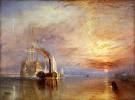
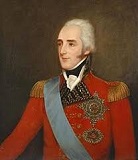









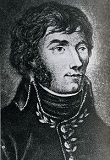



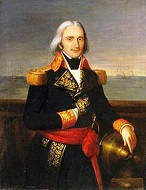
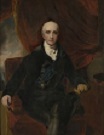
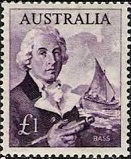



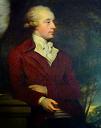







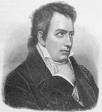



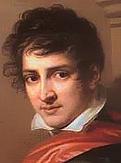
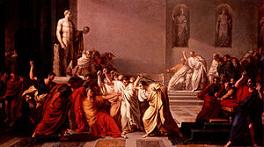


1798 On Jan. 11 king (since 1744) Erekle II (b. 1720) dies, and on Jan. 12 his son George (Georgi) XII (1746-1800) becomes the last Bagrationi king of moribund Kakheti and Kartli in E Georgia, trying in vain to get protection from Persia by appealing to Russia, who wants to gobble it up too. In Jan. France invades Switzerland, and on Mar. 28 proclaims the Helvetic (Helvetian) Repub. (ends 1803) in Bern, followed by the Lemanic Repub. (ends 1803) in Geneva (Vaud) - standing on the rooftops, everybody scream your heart out? On Feb. 10 French troops under Gen. Louis Alexandre Berthier (1753-1815) occupy the Vatican State, and on Feb. 15 declare the Roman (Tiberina) Repub. (until 1800) (with the blue strip in the French flag replaced by a black one), demanding that Pope Pius VI renounce his temporal sovereigny, but he says stuff it and flees, is captured and taken to Siena in Tuscany, and later to Valence, France, pissing off fellow Italian King Ferdinand IV of Naples (Sicily) (1751-1825), who declares war on France. In Jan. the 2K-seat Park (New) Theatre opens at 21-25 Chatham St. (later called Park Row) in Manhattan, N.Y., bringing theater back to Broadway, enjoy a monopoly but failing to make enough profit, causing it to be sold in 1805 to Stephen Price and Edmund Simpson (1784-1848), who create a star system with imported English talent, concentrating on English drama and Italian opera and gaining an upper-class audience until competition from the Chatham Garden and Bowery in the 1820s cause it to switch to Blackface acts and melodrama; it is demolished on Dec. 16, 1848 after a fire. The not so soft goodbye in Fireland? On Feb. 19 the unsuccessful 1798 Irish (United Irishmen) Ruction (Rebellion) (excuse me?), led by the Society of United Irishmen and modeled on the French Rev. starts in Leinster, then spreads, with a rising of poorly-armed peasants in Wexford; British redcoats aided by Hessian mercentaries defeat them on June 21 in the Battle of Vinegar Hill; on May 24 (1:00 a.m.) the Battle of Ballymore-Eustace in Ballymore Eustace in County Kildare, Ireland near the Kildare-Wicklow border starts with a surprise-attack by 500 United Irish rebels on a 50-man loyalist militia led by Capt. Beevor is turned around in two hours, with 100 rebels KIA vs. 12 militia KIA and five wounded; on May 26, 1798 the Dunlavin Green Executions see 36 rebel POWs summarily executed in County Wicklow by the British via firing squad for fear of a possible rebel attack; meanwhile on Aug. 22 a French force of 1,070 under United Irishmen leader Gen. Jean Joseph Amable Humbert (1767-1823) lands in Kilcummin in Killala Bay on the W coast to help them; on Aug. 27 the Battle of Castlebar (Castlebar Races) sees a 2K-man combined French-Irish force under Gen. Humbert defeat a 6K-man British force under Gerard Lake, after which Gen. Humbert proclaims the Repub. of Connacht, with John Moore (1763-99) (descendant of St. Thomas More) as pres. #1; too bad, Humbert arrives too late, and on Sept. 8 26K British forces arrive, decisively defeating the 2,350 rebels at the Battle of Ballinamuck, with 500 rebels KIA, 1,144 captured, and 200 executed vs. 12 British KIA and 16 wounded, and the rebellion is quashed by Sept. 24;Moore is captured in Castlebar by Lt.-Col. Crawford, and after "lenity" by Lord Cornwallis he is sentenced to transportation to New Geneva, dying in Waterford, where he is buried in Ballygunner Temple, his grave rediscovered in 1960, and his remains exhumed and returned to Castlebar on Aug. 12, 1961, where a state funeral is held attended by Pres. Eamon de Valera; the gaseous nature of the revolt causes the word "ruction" to be coined; British secy. for Ireland (since 1797) Robert Stewart, Viscount Castlereagh (1769-1822) (an Ulster Protestant) offers clemency to commoners supporting the ruction, and focuses on punishing the leaders; after the English stop an Irish attempt to seize Dublin, all of Ireland becomes an English garrison run from Dublin Castle, while the Irish pop. is at the mercy of a debauched landlord class with the power of judge, jury, and executioner or transporter of the "tenants", sending hundreds, incl. Presbyterian ministers and professionals without trial or charges to life imprisonment in Australia, where the "rebels of 1798" face inhuman conditions and vicious flogging, all the more because of their intelligence?; the lucky ones begin emigrating to Canada; Irish PM (since 1782) (a liberal Protestant with Catholic sympathies) John Philpot Curran (1750-1817) vigorously defends Society of United Irishmen founder Archibald Hamilton Rowan and other ruction leaders, gaining a good rep., ending with the defense of Napper Tandy in 1800; meanwhile British PM Pitt sees the ruction as proof of the need for a union of the two countries - some sneak to New Orleans to drink Hand Grenades? On Mar. 17 (St. Patrick's Day) a failed slave uprising on Montserrat results in the Caribbean island becoming the only country other than Ireland to celebrate St. Patrick's Day after slavery is abolished in 1834. On May 1 Charles County, Md.-born Benjamin Stoddert (1751-1813) becomes U.S. Navy secy. #1 (until Mar. 31, 1801). On May 11 the bloodless Coup (Law) of 22 Floreal in France challenges the returns of several elections and excludes approx. 25% of the candidates. On May 18 Richard Colley Wellesley, 1st Marquis Wellesley (1760-1842) (brother of the Duke of Wellington) becomes gov.-gen. of India (until July 30, 1805). On May 19-20 the French Invasion of Egypt (ends 1801), Napoleon's most romantic adventure begins after he reconnoiters a British force under Commodore Horatio Nelson that was scattered by a storm, and his dismasted flagship HMS Vanguard secretly sails for Egypt from Toulon with 38K men, incl. a boatload of 167 savants (scientists and mathematicians) (Monge, Berthollet, Fourier), incl. Orientalists from his new Institut d'Egypt (which settles in Cairo on Aug. 22) in a fleet of 300 transport ships, 13 ships of the line and seven frigates (28K men), with vague grandiose plans of conquering all of the East like Alexander the Great, starting with the Ottoman Empire, cutting off British access to India; on June 6 they arrive at Malta, and after being refused entrance of more than two ships at a time and enjoying inside help from the Maltese, take it by June 12, expelling the 322 Knights of Malta (St. John) (Hospitallers) (whose French members wouldn't fight French troops) still defending it under grandmaster Ferdinand von Hompesch, who leaves for Trieste on June 18, and resigns next July 6; Nappy frees 2K Muslim slaves, and abolishes all religious orders on the island, and writes to the Bey of Tunis to boast of his favor to Islam, then reforms their govt. and steals their library and treasures (pissing-off Tsar Paul I, who is also a grandmaster, and was trying to finagle the first Russian warm water port there); on July 1 after slipping by Nelson's clueless fleet on the night of June 22-23, Nappy lands 5K troops in Alexandria, Egypt, capturing it by July 2, then landing the rest of his troops, giving a speech to the Egyptian crowd with the soundbyte "We are the true Muslims", trying to sell them on his being a fan of Muhammad, and hinting he might convert to Islam along with his troops in order to win the clerics of Al-Azhar seminary over, which they don't buy; after kicking the butts of Murad Bey and his best cavalry on July 13 in the Battle of Shubrakhit, Nappy's troops march through the grueling desert and defeat Murad Bey's Mamluks at the Battle of the Pyramids on July 21, capturing Cairo after losing only 30 KIA and 300 wounded vs. 3K Mamluk casualties; back in Britain they finally learn of Nappy's invasion from French newspapers on July 12; meanwhile Nelson's British fleet reaches Alexandria on June 29, then goes W instead of E, and swings back, sailing along the S coast of Crete and back to Syracuse on July 19, never finding Nappy; on July 25 Napoleon defeats 10K Turks supported by the British at the Battle of Aboukir (Abu Qir) (Abukir) Bay (14.5 mi. NE of Alexandria), making him master pharaoh of Egypt; Murad Bey retreats to Upper Egypt, and Ibrahim Bey to Palestine; never fear, after heading for Greece, and receiving news of the French position on July 29, on Aug. 1-2 the British navy under Nelson finally arrives back in Alexandria to save the day, and sinks most of the French fleet (emptied of troops) in Aboukir Bay in the Battle of the Nile (only two of 13 French ships of the line escape, while no British ships are lost), cutting Napoleon off from France, which ends his threat of conquering India and the East, but only pisses him off into invading Palestine and Syria?; the 98-gun line-of-battle ship Fighting Temeraire is captured by the British, later gaining fame in the 1805 Battle of Trafalgar; the USS Constellation, commanded by Commodore Truxton captures the French frigate L'Insurgente; French capt. Aristide Aubert Du Petit Thouars (1760-98) of the Tonnant forces HMS Bellerophon to lower its flag, forces HMS Majestic to break off combat, then dies in a bucket filled with wheat with b oth of his legs and one arm blown off, commanding to the end, his last order being to nail the flag of his ship to the mizzen-mast and never give up the ship, which is later captured; meanwhile in July the suddenly-the-old-world-changes Rosetta Stone is found in Qayitbey Castle in the small Egyptian village of Raschid (Rosette) by French capt. Pierre-Francois Blouchard, who reports it to French Gen. Jacques-Francois de Menou, Baron de Boussay (1750-1810), who, on Nappy's orders to be friendly with the natives feigned conversion to Islam under the name 'Aly Napoleon Bonaparte, and married Egyptian woman Sitta Zoubeida, daughter of a bathhouse keeper whom he mistakenly believed is of the Egyptian aristocracy because she claims to be a descendant of Prophet Muhammad; a 36-in. piece of black basalt containing a decree of the Egyptian priests of Ptolemy V Epiphanes (-205 to -181) in parallel hieroglyphics, demotic and Greek characters, it proves the key to the lost art of reading hieroglyphics. On June 14 Kingman Reef (originally Danger Reef) about 1K mi. S of Hawaii is discovered by U.S. Navy Capt. Edmund Fanning (1769-1841), "Pathfinder of the Pacific" of the ship Betsey; on Nov. 29, 1953 it is described by Capt. W.E. Kingman, who names it. On July 4 George Washington is commissioned lt. gen. and CIC of the new U.S. Army. The U.S. gets pissed-off at France for being too Republican, and the Federalists turn the govt. into a Republican-bashing machine back home? On July 7 (in a particularly hot summer in Philly) the U.S. abrogates its first (1778) treaties with France, suspends commercial relations, and begins an undeclared naval Quasi-War (ends 1800) with its former ally, establishing a Navy Dept. and authorizing an expanded navy, then, over Pres. Adams' objections, also a 10K-man army, to be commanded nominally by Geprge Washington but mainly by Alexander Hamilton; an unprecedented federal tax on land, bldgs., and slaves to pay for it all leads to Fries's Rebellion in 1799; on July 6 and July 14 (in Adams' big mistake in office?), the Federalist-controlled Congress passes the U.S. Alien and Sedition Acts, incl. the Naturalization Act, the Alien Friends Act (expires 1801), the Alien Enemies Act, and the Sedition Act (expires 1800), ostensibly aimed at post-rev. France and French immigrants, but really aimed at Jefferson's Dem.-Repub. Party, giving Adams new powers over recent immigrants, who tend to be Dem.-Repubs., and causing the arrest and conviction of 25 Repubs., incl. Scottish-born James Thompson Callendar (1758-1803) (whom Adams caught Jefferson paying to slander him publicly, causing a 10-year rift between them), and English-born big brain Thomas Cooper (1759-1839), a friend of Jefferson, who later goes to S.C. and whips up secessionist sentiment; the acts are allowed to expire within a couple of years, and by 1802 all of the convictions are repealed or expire, while the Alien Enemies Act remains in effect until ? (as 50 USC 21-24); on Dec. 3 and Dec. 24 the Kentucky and Virginia Resolutions of Thomas Jefferson and James Madison invoke the rights of the states against federal encroachment against individual liberties, which soon becomes the "sword wielded by sectionalism", as various sections of the country feel free to threaten secession when they disagree with federal policies - the Brits look on grinning? On July 11 the U.S. Marine Corps is formally reestablished by Congress, and the U.S. Marine Band is created to play for the U.S. pres., with 32 members, which eventually grows to 160; the usual line-up is drum major in front, then 6 rows of 6 players, with the two 4-valve euphoniums in the middle and four slide trombones at the ends of row 1, 6 clarinets in row 2, 3 17-ft. French horns and 3 clarinets in row 3, 6 3-valve trumpets in row 4, 3 saxophones, 2 piccolos and 1 trumpet in row 5, and 2 sousaphones (on the end), 2 snare drums, 1 cymbals and 1 bass drum in row 6; the drum major wears a tall furry bearskin hat, a sash across his chest with the band's crest, and a staff with a figure of the U.S. Capitol dome on top. On July 16 the U.S. Marine Hospital Service is established for sick and disabled seamen; it will become the Public Health Service in 1912 - they didn't have a word for socialism yet? On Aug. 1-3 the Battle of the Nile (Aboukir Bay) in Egypt is a decisive V for the British under Adm. Horatio Nelson over the French under Adm. Francois-Paul Brueys d'Aigalliers (1753-98), who is KIA, after which his ship Orient explodes, killing 800 crew. On Sept. 5 the Jourdan Law introduces conscription for all able-bodied French males ages 20-25, causing 200K conscriptions. On Sept. 9 the Ottomans declare war on France, forming one army in Damascus to advance through Syria and Palestine toward the Sinai, and another on Rhodes to land near the Nile under British protection; meanwhile a large force of Egyptian troops under Murad Bey control Upper Egypt, disrupting the grain supply to Lower Egypt, and by spring of 1800 the French give up trying to dislodge them. On Sept. 28 Nappy's troops find a 5.2-mi.-long 1K-ft.-wide ridge exposed over the Red Sea and cross it dry-shod like Moses and his Jewish nation, although Nappy is almost drowned as the tide begins to rise? On Oct. 24 George Washington writes a letter containing the soundbyte: "It was not my intention to doubt that, the Doctrines of the Illuminati, and principles of Jacobinism had not spread in the United States. On the contrary, no one is more truly satisfied of this fact than I am. The idea that I meant to convey, was, that I did not believe that the Lodges of Free Masons in this Country had, as Societies, endeavoured to propagate the diabolical tenets of the first, or pernicious principles of the latter (if they are susceptible of seperation) [sic]. That Individuals of them may... actually had a seperation [sic] of the People from their Government in view, is too evident to be questioned." In Oct. an Egyptian revolt in Cairo is suppressed after two days, with 3K Egyptians and 300 French KIA. On Nov. 8 English capt. John Fearn (b. 1768?) of the whaling ship Hunter en route from New Zealand to China discovers 8 sq. mi. Nauru (originally Pleasant Island) in Micronesia,which becomes the 3rd smallest country on Earth after Vatican City and Monaco. In early Dec. a Neapolitan army, commanded by Austrian Gen. Karl Mack von Leiberich (1752-1828) attempts to drive the French out of the Papal States and enters Rome; on Dec. 15 the French under Gen. Jean Etienne Championnet (Vachier) (1762-1800) recapture Rome, and he is named CIC of the "army of Rome", which has only 8K soldiers with 15 cartridges each, which doesn't stop him from going after the pesky kingdom of Naples. On Dec. 7 1.5K French troops under Gen. Louis Andre (André) Bon (1758-99) capture Suez, Egypt. On Dec. 9 Duke Charles Emmanuel IV of Sardinia is forced to flee Turin for Sardinia, first having the Shroud of Christ trotted out for veneration by his royal family. On Dec. 20 after being appointed by Pres. Adams on Sept. 29 after John Marshall declines, 36-y.-o. Mount Holly, Va.-born peachfuzz cheeks Bushrod Washington (1762-1829) of Va. (nephew of George Washington) (one of the first members of Phi Beta Kappa at the College of William and Mary, who inherits Mt. Vernon in 1799 to boot) is confirmed by the U.S. Senate, becoming U.S. Supreme Court justice #11 next Feb. 4 (until Nov. 26, 1829) to replace James Wilson (1789-98). On Dec. 24 Russia and Britain form an alliance. Ex-Quaker Richard Nixon, er, U.S. Sen. (Dem.-Rep. from Penn.) George Logan (1753-1821) (grandson of William Penn's secy. James Logan) travels to France to seek an end to the quasi-war with the U.S.; although he returns with an agreement, he is condemned by the Congress for stepping on their turf, causing them to pass the U.S. Logan Act next Jan. 30, preventing any direct intervention of private citizens in foreign affairs; it remains famous for never being prosecuted, except in Bruce Willis movies? - the reason that only Nixon can go to China? Britain passes a 10% income tax on all incomes over £200 as a wartime measure. Tbilisi, Georgia-born Mamluk Roustam (Rustam) (Roustan) Raza (1783-1845), who was kidnapped as a child and sold as a slave in Cairo is presented to Napoleon, who makes him his bodyguard (until 1814); meanwhile as Napoleon casts his eye on India, the Marquis of Wellesley, elder brother of the Duke of Wellington becomes gov.-gen. of British India (until 1805), and embarks on a vast extension of British territory in India, starting in the S with Hyderabad, signing the Treaty of Hyderabad with the Nizam. The Fourth Anglo-Mysore War begins (ends May 1799). William Henry Harrison becomes U.S. secy. of the Northwest Territory. The British occupy the Dutch-held island of Curacao (Curaçao) off the coast of Venezuela. Charles James Fox, who quit Parliament last year gives a toast at a Whig dinner to "Our Sovereign, the People", which pisses-off the king and causes him to be removed from the Privy Council. George Gordon (b. 1788) inherits the title of Baron Byron from his great-uncle. The U.S. Congress grants Indians belonging to the Moravian sect a tract of land in Ohio, causing missionary David Zeisberger to set up a mission there (until 1808). British Adm. Lord St. Vincent coins the term "sick berth", which becomes sick bay after round bows are introduced in 1811, changing the contour of the bulkhead. British naval surgeon-explorer George Bass (1771-1803) circumnavigates Van Diemen's Land (Tasmania) in the sloop Norfolk, getting Bass Strait named after him. Baron Johann Friedrich Cotta (1764-1832) begins pub. Allgemeine Zeitung on Jan. 1 in Tubingen, later moving to Stuttgart, Ulm, Augsburg, and Munich after the authorities get on his case. William and Dorothy Wordsworth accompany Samuel Taylor Coleridge to Germany (until 1798), where William writes several "Lucy" poems and begins "The Prelude" (finished 1805). August von Kotzebue (1761-1819), who was in the Russian civil service from 1781-90 becomes court dramatist in Vienna (until 1800). Castratos are banned, and women are allowed to appear on the operatic stage in Rome for the first time in 200 years by the new Roman Republic. Numerous mss. are taken from the Vatican Library to France, depleting it; by the 21st cent. it contains 60K mss., 7K incunabula, 100K engravings and maps, and 900K books. Architecture: The Federal-style Mass. (New) State House in Beacon Hill, Boston, Mass. is built, designed by Charles Bullfinch. Sports: The Western India Turf Club is founded on Jan. 10 in Bombay (Mumbai) by the British to conduct horse races; in 1935 George V bestows the title of Royal on it. Inventions: Nicholas Robert of France invents the first paper manufacturing machine. Eli Whitney pioneers the process of mass production and obtains a contract from the U.S. govt. to manufacture 10K rifles, but takes eight years to deliver. Science: English scientist Henry Cavendish (1731-1810) pub. the density of the Earth (5.45) (from which the gravitational constant can be derived), based on the Cavendish Experiment, suggested by English scientist John Michell (1724-93) using a suspended rod with lead balls at its ends. Heytesbury, Wiltshire-born English antiquarian William Cunnington (1754-1810) begins pioneering the science of archeological excavation at Stonehenge, coining a number of terms to categorize and describe Neolthic and Bronze Age barrows; in 1808 he makes the first reference to a trowel in a letter to his antiquarian patron Sir Richard Colt Hoare, 2nd Baronet (1758-1838). French mathematician Adrien-Marie Legendre (1752-1833) conjectures the Prime Number Theorem, which isn't proved by Jacques Hadamard and Charles Jean de la Vallee-Poussin until 1896. Louis Nicolas Vauquelin of France discovers the brittle metallic element beryllium (Be) (#4), sometimes called glucinium (Gl) (Gr. "glykys" = sweet) because its compounds have a sweet taste; when combined in small amounts (2%) with cobalt (0.3%) in copper, it forms an alloy with a tensile strength comparable to steel. Nonfiction: Georges Cuvier (1769-1832), Tableau élémentaire de l'histoire naturelle des animaux; the first attempt at systematic classification of the animal kingdom, founding modern Zoology (Comparative Anatomy), stressing how the parts of an organism are correlated to the functioning whole. William Eaton, Survey of the Turkish Empire. William Godwin (1756-1836), Memoirs of the Author of A Vindiction of the Rights of Women; bio. of his late wife Mary Wollstonecraft (1759-97), digging up dirt about her two suicide attempts and a premarital affair with Gilbert Imlay that resulted in the birth of Fanny Imlay, causing the conservative press to lampoon him. Immanuel Kant (1724-1804), Anthropology from a Pragmatic Point of View; based on lectures delivered in 1772-96, trying to define anthropology as a branch of philosophy, rdividing it into a physiological category ("what nature makes of the human being") and a pragmatic category (what things a human "can and should make of himself"). Bernard Germain de Lacepede (1756-1825), Histoire Naturelle des Poissons (5 vols.) (1798-1803). Thomas Robert Malthus (1766-1834), An Essay on the Principle of Population (June); pub. under the alias Joseph Johnson; 2nd ed. 1803; 6th ed. 1826; a response to William Godwin's view of the "perfectibility of society" in "Political Justice" (1793); hired pen of the British East India Co.'s Haileybury College?; claims that the pop. can double in 25 years, causing the food supply to run out in two generations, and proposes Malthus' Iron Law of Pop. (Wages), that "Food is necessary to the existence of man", "The passion between the sexes is necessary and will remain nearly in its present stage", thus the "power of population is infinitely greater than the power in the Earth to produce subsistence for man"; "The mighty law of self-preservation expels all the softer and more exalted emotions of the soul... In so short a period as withing fifty years, violence, oppression, falsehood, misery, every hateful vice, and every form of distress, which degrade and sadden the present state of society, seem to have been generated by the most imperious circumstances, by laws inherent in the nature of man, and absolutely independent of its human regulations"; "We should facilitate, instead of foolishly and vainly endeavoring to impede, the operations of nature in producing this mortality; and if we dread the too frequent visitation of the horrid form of famine, we should sedulously encourage the other forms of destruction, which we compel nature to use. In our towns we should make the streets narrower, crowd more people into the houses, and court the return of the plague"; "We are bound in justice and honour formally to disdain the right of the poor to support"; "To this end, I should propose a regulation to be made, declaring that no child born from any marriage taking place after the expiration of a year from the date of the law, and no illegitimate child born two years from the same date, should ever be entitled to parish assistance"; "The infant is, comparatively speaking, of little value to society, as others will immediately supply its place"; as a corollary, a rising pop. causes a rising labor supply, leading to lower wages, causing passage of the British Census Act of 1800; despite its uncorked exponential scientific assumptions, it gets used to justify war as a way to keep the non-white (or less-white) pop. down for the common good of whites (or more-whites) everywhere. Motoori Norinaga (1730-1801), Kojiki Den; commentary on the "Kojiki" (Record of Ancient Things); landmark in Shinto lit. Benjamin Thompson, Count Rumford (1753-1814), An Enquiry Concerning the Source of Heat which is Excited by Friction; shows that in the boring of brass cannon there is a direct connection between the heat generated and the mechanical work done, proving that heat is not a material substance; too bad, he calculates a value for the mechanical equivalent of heat that is too high. Music: ?, Hail Columbia! is composed, becoming the first U.S. nat. anthem. Henri Montan Berton (1767-1844), Montano et Stephanie (opera). Franz Josef Haydn (1732-1809), Lord Nelson Mass. Vicente Martin y Soler (1754-1806), La Festa del Villaggio (opera). Daniel Steibelt, Concerto No. 3 in E flat; the Storm Rondo is a hit. Art: Francisco de Goya (1746-1828), Frescos in the Church of San Antonio de la Florida, Madrid; Francisco de Goya (1746-1828), Charles IV and His Family; "It looks as if the corner baker and his wife after they have on the lottery" (Theophile Gautier). Plays: Thomas Dibdin (1771-1841), The Jew and the Doctor (farce) (Theatre Royal, Covent Garden, London). August Wilhelm Iffland (1759-1814), Dramatischen Werke (Dramatic Works) (16 vols.) (1798-1802). August von Kotzebue (1761-1819), The Stranger (Drury Lane, London); adaptation of his 1789 play "Menschenhass und Reue"; big hit, causing theatrical melodrama to become fashionable until the 1870s. Johann Christoph Friedrich von Schiller (1759-1805), Wallenstein's Camp (trilogy) (Mannheim). Poetry: Johann Wolfgang von Goethe (1749-1832), Hermann und Dorothea (epic idyll); young girl flees the French Rev. and finds a beau. Robert Southey (1774-1843), St. Patrick's Purgatory; After Blenheim; an anti-war poem based on the 1704 Battle of Blenheim, with small children asking questions of old man Kaspar about an old skull they found, causing him to tell them about the horrors of war while calling it "a famous victory". William Wordsworth (1770-1850) and Samuel Taylor Coleridge (1772-1834), Lyrical Ballads, with a Few Other Poems; marks a change in style and spirit for English poetry, launching the Romantic movement in England, even though critics at first aren't impressed; incl. Wordy's poem Lines Composed a Few Miles Above Tintern Abbey [in Wales] (July 13) (about pure communion with Nature in childhood), and Coleridge's Rime of the Ancient Mariner; "How a Ship having passed the Line was driven by storms to the cold Country towards the South Pole; and how from thence she made her course to the tropical Latitude of the Great Pacific Ocean; and of the strange things that befell; and in what manner the Ancyent Marinere came back to his own Country"; "It is an ancient Mariner/ And he stoppeth one of three/ 'By thy long beard and glittering eye,/ Now wherefore stopp'st thou me?" (opening line); "He went like one that hath been stunned,/ And is of sense forlorn:/ A sadder and a wiser man,/ He rose the morrow morn." Novels: Charles Brockden Brown (1771-1810), Wieland, or the Transformation; a man goes insane and murders his family; makes him the first major U.S. novelist, influencing James Fenimore Cooper, Edgar Allan Poe, and Nathaniel Hawthorne - no need to equal Goethe in this backwoods country? Ugo Foscolo (1778-1827), The Last Letters of Jacopo Ortis (Le Ultime Lettere di Jacopo Ortis); a patriot commits suicide over Napoleon's giving of Venice to Austria in 1797; patterned after Goethe's "Sorrows of Werther". Jean Paul (1763-1825), The Parson in Jubilee (Der Jubelsenior). Johann Friedrich Rochlitz (1769-1842), Amaliens Freuden und Leiden. Wilhelm Heinrich Wackenroder (1773-98)(1773-98), Herzensergiessungen. Wilhelm Heinrich Wackenroder (1773-98)(1773-98) and Ludwig Tieck (1773-1853), Franz Sternbalds Wanderungen (2 vols.). Births: Dutch Calvinist poet-theologian Isaak da Costa (d. 1860) on Jan. 14 in Amsterdam; disciple of Willem Bilderdijk and his Reveil Movement. French positivist philosopher-sociologist (coiner of the terms "sociology" and "altruism") Auguste (Isidore Marie Auguste Francois Xavier) Comte (d. 1857) on Jan. 17 in Montpellier; secy. of Comte de Saint-Simon; educated at the U. of Montpellier, and the Ecole Polytechnique - positive, now that's a value you can count on? Am. Joseph Smith Jr.'s eldest brother Alvin Smith (d. 1823) in Tunbridge, Vt.; son of Joseph Smith Sr. (1771-1840) and Lucy Mack Smith (1775-1856); eldest brother of Joseph Smith Jr. (1805-44). German empirical philosopher Friedrich Eduard Beneke (d. 1854) on Feb. 17 in Berlin; educated at the U. of Halle, and U. of Berlin. German engineer-mathematician Adolf Ferdinand Wenceslaus Brix (d. 1870) on Feb. 20 in Wesel. U.S. First Lady (1850-3) Abigail Powers Fillmore (d. 1853) on Mar. 13 in Stillwater, Saratoga County, N.Y.; wife (1826-) of Millard Fillmore (1800-74); last U.S. First Lady born in the 18th cent. German "Das Lied der Deutschen" Young German poet August Heinrich Hoffmann von Fallersleben (Hoffmann von Fallersleben) (d. 1874) on Apr. 2 in Fallersleben (Wolfsburg), Brunwick-Luneburg. Irish "Tales of the O'Hara Family" novelist-poet-playwright ("the Sir Walter Scott of Ireland") John Banim (d. 1842) on Apr. 3 in Kilkenny; brother of Michael Banim (1796-1874). U.S. naval capt. and Antarctic explorer Charles Wilkes (d. 1877) on Apr. 3 in New York City; great-nephew of John Wilkes (1725-97); educated at Columbia U. Am. mountain man-explorer (black) James Pierson Beckwourth (Beckwith) (d. 1866) on Apr. 6 in Frederick County, Va.; son of wealthy planter (Am. Rev. War officer) Sir Jennings Beckwith and a mulatto slave; his swarthy complexion allows him to pass as an Indian or Mexican. French #1 Romantic "Liberty Leading the People" painter Ferdinand Victor Eugene (Eugène) Delacroix (d. 1863) on Apr. 26 in Charenton-St.-Maurice, Ile-de-France (near Paris); pupil of Baron Pierre Narcisse Guerin; known for lithographs of William Shakespeare, Sir Walter Scott, and Johann Wolfgang von Goethe. Am. "Mormonism Unvailed" writer-journalist-ed. Eber Dudley Howe (d. 1885) on June 9 in Clifton Park, N.Y.; grows up in Ovid, N.Y. and Niagara Falls. Bohemian #1 historian ("Father of Bohemia") ("Father of the Czech Nation") Frantisek Palacky (Francis Pallacky) (d. 1876) on June 14 in Hodslavice, Moravia; his parents belong to the Bohemian Brotherhood, and he becomes a secret Protestant. Am. frontiersman-explorer Jedediah Strong Smith (d. 1831) on Jan. 6 in Jericho, Tioga County, N.Y. German Young Germany "Der Roland von Berlin" historical novelist Willibald Alexis (Georg Wilhelm Heinrich Haring) (Häring) (d. 1871) on June 29 in Breslau, Silesua; educated at the U. of Berlin, and U. of Breslau. Italian #1 lyrical poet-writer-philosopher Count Giacomo Taldegardo Francesco di Sales Saverio Pietro Leopardi (d. 1837) on June 29 in Recanati; suffers from a spinal problem, causing him to stay at home and become a classical scholar. German "Walladmor" historical novelist Willibald Alexis (Georg Wilhelm Heinrich Haring) (Häring) (d. 1871) on June 29 in Breslau; French immigrant father (Hareng); starts out with the alias Walter Scott. Am. statesman and Civil War Union maj. Gen. John Adams Dix (d. 1879) on July 24 in Boscawen, N.H.; educated at Brown U. German Romantic landscape painter Karl (Carl) Blechen (d. 1840) on July 29 in Cottbus. Am. dietary writer (physician) William Alexander Alcott (OE "old cottage") (d. 1856) on Aug. 6 in Wolcott, Conn.; cousin of Amos Bronson Alcott (1799-1888); educated at Yale U. French marshal Armand-Jacques Leroy de Saint-Arnaud (d. 1854) on Aug. 20 in Paris. French #1 "Histoire de France" historian Jules Michelet (d. 1874) on Aug. 21 in Paris; Huguenot parents; coiner of the term "Renaissance". German mathematician-physicist Franz Ernst Neumann (d. 1895) on Sept. 11 in Joachimsthal (near Berlin), Brandenburg; educated at the U. of Konigsberg; father of Carl Gottfried Neumann (1832-1925). Sardinian king (1831-49) Charles Albert (the Hesitant) (d. 1849) on Oct. 2 in Turin. Brazilian king (1822-31) and Pedro I (d. 1834) on Oct. 12 in Qeluz Palace, Lisbon; son of Joao VI (1767-1826) and Charlotte of Spain (1775-1830). Italian statesman-novelist-painter Massimo Taparelli, Marquis d'Azeglio (d. 1866) on Oct. 24 in Turin. U.S. Rep. (D-Va.) (1837-9) and Sen. (D-Va.) (1847-61) James Murray Mason (d. 1871) on Nov. 3 in Anacostine (Theodore Roosevelt) Island, D.C.; grandson of George Mason (1725-92); educated at the U. of Penn., and College of William and Mary; Confed. rep. to Britian and France, 1861-5. French economist Jerome Adolphe Blanqui (d. 1854) on Nov. 21 in Nice; brother of Louise Auguste Blanqui (1805-81); disciple of Jean-Baptiste Say. Am. "resolute Unionist" judge Hamilton Rowan Gamble (d. 1864) on Nov. 26 in Winchester, Va.; chief justice of the Mo. Supreme Court, who issues a dissenting opinion in the Dred Scott case, then becomes acting gov. of Mo. during the U.S. Civil War. South African Boer leader Andries Pretorius (d. 1853) on Nov. 27 in Graaf-Reinet, Cape Colony; father of Marthinus Pretorius (1819-1901). Am. Presbyterian minister (abolitionist) Albert Barnes (d. 1870) on Dec. 1 in Rome, N.Y.; educated at Hamilton College, and Princeton U. Am. mountain man Joseph Reddeford "Joe" Walker (d. 1876) on Dec. 13 in Roane County, Tenn. Am. Tex. vice-pres. #3 (1841-4) Gen. Edward "the Old Indian Fighter" Burleson (d. 1851) on Dec. 15 Polish "Pan Tadeusz" #1 Romantic poet Adam Bernard Mickiewicz (d. 1855) (pr. mits-kievits) on Dec. 24 in Zaosie (near Novogrodek), Lithuania. Am. Corcoran gallery art collector and banker William Wilson Corcoran (d. 1888) on Dec. 27 in Georgetown, Washington, D.C.; educated at Georgetown U. Am. soldier-statesman Mirabeau Buonaparte Lamar (d. 1859) in Warren County, Ga.; pres. #2 of the Repub. of Texas (1838-41). Am. Muscogee Creek chief Opothleyahola (Hu-pui-hilth Yahola) (Laughing Fox) (d. 1863) in Tuckabatchee, Elmore County, Ala. Am. businessman (in South Am.) William Wheelwright (d. 1873) in Newburyport, Mass. Am. philosophical anarchist Josiah Warren (d. 1874) near Boston, Mass. Am. "The Hope of Liberty" poet (black) George Moses Horton (d. 1880) in Northampton County, N.C.; starts out a slave, then emancipated late during the U.S. Civil War, becoming the first prof. poet in N.C. Japanese Tenrikyo sect founder (female) Nakayama Miki (Maegawa) (d. 1887) in Nara. Am. Eastern Shoshone chief (Protestant) Washakie (d. 1900) (b. 1810?). Deaths: Georgian king (1744-98) Erekle II (b. 1720) on Jan. 11. German marshal Wilhelm von Freytag (b. 1720) on Jan. 2 in Hannover. Italian ready-freddy Jacques Casanova (b. 1725) on June 4 in Dux, Bohemia (urinary tract infection); he ate raw oysters for breakfast every day to maintain his virility?; last words: "I have lived as a philosopher and die as a Christian": "Though I do not repent of my amorous exploits, I am far from wishing that my example should serve for the perversion of the fair sex, who have so many claims on my homage" - did he have a pot to piss in? Polish last king (1764-95) Stanislas II August Pontiatowski (b. 1732) on Feb. 12 in St. Petersburg, Russia - Tuesday afternoon, it just doesn't matter to me? Am. Rev. leader (DOI signer) George Read (b. 1733) on Sept. 21 in Del. English mathematician Edward Waring (b. 1736) on Aug. 15. Italian scientist Luigi Galvani (b. 1737) on Dec. 4. Scottish-born U.S. supreme court justice (1789-98) James Wilson (b. 1742) on Aug. 21 in Edenton, N.C. (stroke); dies broke after losing his shirt in the Panic of 1796-7 and doing time in a debtors prison in Burlington, N.J. Am. steamboat inventor John Fitch (b. 1743) on July 2 in Bardstown, Ky. (suicide with opium OD). Am. New England Morgan horse breeder Justin Morgan (b. 1747). French adm. Francois-Paul Brueys d'Aigalliers (b. 1753) on Aug. 1 in Aboukir Bay (KIA). French naval capt. Aristide Aubert Du Petit Thouars (b. 1760) on Aug. 2 in Aboukir, Egypt (KIA in the Battle of the Nile); loses both legs and an arm and commands from a bucket until he croaks. Irish repub. rebel Wolfe Tone (b. 1763) on Nov. 19 in Dublin; dies in Provost's Prison of a wound after being sentenced to death for his role in the Irish Rebellion of 1798. German Romantic writer Wilhelm Heinrich Wackenroder (1773-98)(b. 1773) on Feb. 13 in Dresden; dies while living with Romanticist Johann Ludwig Tieck - the good die young?














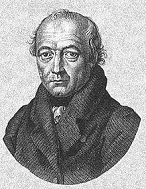
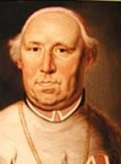





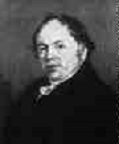




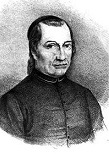
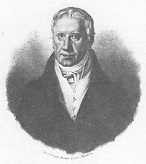



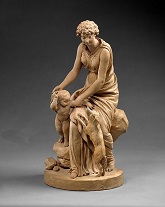

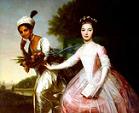


1799 The Time of the End begins this year, according to Jehovah's Witnesses founder Charles Taze Russell (1852-1916), followed in 1874 by the invisible return of Christ, and the End of the World in 1914. On Jan. 23 the French army of Jean Etienne Championnet takes the kingdom of Naples from a numerically superior (10x greater) Austrian army under Gen. Baron Karl Mack von Leiberich and occupies Florence, forcing King Ferdinand IV of Naples and his wife Marie Caroline (Maria Carolina) to flee along with Tuscan grand duke Ferdinand III and British Adm. Sir John Acton, 6th Baronet (1736-1811); the French then set up up the Parthenopean Repub. in the Piedmont (Naples), marking the emergence of the Camorra secret crime syndicate; Leiberich surrenders to the French on the promise of a safe return, but Napoleon reneges and has him sent as a POW to France, after which he escapes from Paris in diguise in 1801; meanwhile the Second Coalition against France is joined by Austria, Russia, Turkey, the Vatican, Naples, and Portugal, going after France on N and S fronts. On Jan. 30 the Turkish sultan reneges on his promises and allows the hated Janissaries to return to Serbia, fomenting revolt; too bad, the Janissaries beat them to it. On Feb. 6 Napoleon and 13K French troops begin a march E from Egypt to Palestine and Syria, and capture Al-Arish after an 11-day siege. On Feb. 22 George Washington's nephew (son of his sister Betty) Lawrence Lewis (1767-1839) of Fredericksburg marries his adopted daughter (Martha Washington's granddaughter) Eleanor (Nelly) Parke Custis (1779-1852), and after the death of Martha Washington in 1802 they move into Woodlawn Plantation, a house designed by U.S. Capitol architect Dr. William Thornton on 2K acres set aside by Washington from his Mount Vernon, Va. estate, which is finished in 1805. On Mar. 3-7 Napoleon captures former Crusader port Jaffa, then stinks himself up by executing all 3K of the garrison, pissing-off the whole Ottoman army to resist to the last man; on Mar. 18 Nappy sieges the seaport of Acre (St. John d'Acre), defended by Ottomans assisted by the British navy under Adm. Sir William Sydney Smith (1764-1840), and gives up after nine assaults, then hears of the 25K-man Damascus army approaching, sending 2K men under Gen. Kleber to scout them, who on Apr. 16 get into the Battle of Mt. Tabor, holding them off until Nappy catches up and decisively defeats them, after which he goes back to the siege of tough acorn Acre, where Lebanese emir #6 (1788-1840) Bashir Chehab (Shihab) II (1767-1850) refuses to assist him even though he and his family converted from Sunni Muslim to Marionite Christianity. Take your doughnut and get your ass outta here? On Mar. 25 after Austria declares war on France, Archduke Charles, commanding 60K Austrian and Russian troops defeats the 40K-man French army of the upper Rhine under Gen. Jourdan at the First Battle of Stockach, driving them back to the Rhine River, then again on Apr. 5 at the Battle of Magnano, causing Jourdan to retreat to France and resign his command, being replaced by Gen. Andre Massena (1758-1817), who goes on to become Napoleon's #1 marshal ("the Great Massena"). On Mar. 28 New York State abolishes slavery, joining R.I., Penn., Mass., N.H., and Conn. In Mar. a large French fleet under Adm. Bruix breaks the British blockade of Brest, cruises around without any significant engagement, then returns; too bad, Nappy's orders from the Directorate (to return to France), which Bruix was delivering are captured by the Brits. On Apr. 25-27 an Austrian-Russian army under reactivated Russian field marshal Count Alexander Suvorov crosses into N Italy and defeats the French at the Battle of Cassano d'Adda, ending the Cisalpine Repub., and the allies enter Milan while Russian troops enter Turin. On May 4 after a traitor in his ranks betray him, the British kill Tipu Sultan (b. 1750) (ruler since 1782) as he defends the walls of the capital of Srirangapatnam, and conquer the state of Mysore in S India, ending the Fourth Anglo-Mysore War (begun 1798), then divide it between themselves and Hyderabad; clever Tipu Sultan used mass rocket attacks on the pesky Brits, which inspires Sir William Congreve (1772-1828) to invent Congreve Rockets in 1804 - was it an eyesore and they had to hide it under the bed? On May 4 Napoleon's artillery finally breaches the walls of Acre, and on May 7 the Ottoman army from Cyprus arrives by sea, causing Nappy to step up efforts on Acre, only to give up on May 20 after two failed assaults on May 8 and 10; meanwhile the French convert the old Carmelite monastery on Mt. Carmel to a hospital, which is destroyed by the Arabs after they withdraw, and later rebuilt; after uttering the immortal soundbyte (about Sir William Sydney Smith) "That man made me miss my destiny", Nappy is forced to return to Egypt, where he hopes to get back into the action; a proclamation dated Apr. 20 making Palestine an independent Jewish state, which Napoleon had hoped to proclaim from Jerusalem after capturing Acre is trash-canned - proving a Zionist conspiracy behind Napoleon, and how for it to prevail the pesky Brits had to be be subverted first, enter Disraeli? On May 10 the Damanhur Massacre 100 mi. NW of Cairo, Egypt sees a revolt against the French viciously crushed by French Gen. Lanusse, killing 1.5K and burning the area down. In May royalist forces under Cardinal Fabrizio Ruffo (1744-1827), with the help of a British fleet commanded by Commodore Horatio Nelson recapture Naples and reinstate Ferdinand IV; the rebels are promised leniency by Ruffo, but Nelson massacres them and kills their leader Francesco Caracciolo (1752-99); the king returns and rules with an iron hand under the guidance of his wife, who proposes a "cleansing" action against French republican sympathizers. On June 4-7 Archduke Charles defeats the French under Gen. Massena at the First Battle of Zurich, causing him to retreat beyond the Limmat River N of Lake Zurich and regroup; the Helvetian Repub. totters, and is propped-up by the French. On June 18-19 Russian hero field marshal Alexander Suvorov defeats Gen. MacDonald at the Battle of the Trebbia River (not to be confused by the V by Hannibal in 218 B.C.E.), foiling his efforts to unite his army with French forces in Italy, then with Gen. Melas defeats the French under Gen. Joubert on Aug. 15 at the Battle of Novi as they advance from Genoa, driving the French from the region; France loses control of the Italian peninsula, and Suvorov gains the surname "Italiski", going on to lead his armies into Switzerland in an effort to join with Russian forces there, but is forced by the French to retreat to Vorarlberg, Austria, pissing-off Tsar Paul I, who dismisses him next year, causing him to soon die (of grief?). On June 22 Britain becomes the last nation to join the Second Coalition. In June Jean Jacques Regis, duc de Cambaceres becomes French minister of justice. On July 12 after the govt. of William Pitt the Younger gets scared of Jacobin activity, the 1799 Combination Act prohibits trade unions and collective bargaining by British workers; followed by the 1800 Combination Act. On July 14 a combined British, Turkish, and Russian fleet under British adm. Sir William Sydney Smith with 15K Turkish troops lands in Aboukir Bay and captures the remaining French fort at the W end under Gen. Marmont, who sends news to Napoleon in Cairo, causing him to head for Alexandria with 10K infantry and 1K cavalry, and defeat the Turks under Mustapha Pasha on July 25 at the First Battle of Aboukir, with 4K-6K Turks KIA, and Mustapha Pasha captured, becoming Nappy's last V in Egypt; on Aug. 24 after Sir William Sydney Smith allows Nappy's orders from the Directorate to return to France to get through, and Nappy hears about the unpopularity of the Directory, and also that the Second Coalition has almost reconquered N Italy, he secretly leaves Cairo for France, leaving his troops behind under the command of Gen. Jean-Baptiste Kleber (1753-1800), slipping through the British fleet in Adm. Ganteaume's flagship Le Muiron and landing in France on Oct. 8-9 at Frejus (Fréjus), home of his friend and Directory member Abbe Sieyes; in Sept. after giving up on a new Suez Canal, Kleber begins negotiations with the Ottomans to evacuate Egypt. On July 20 Joseph Fouché (Fouche) (1763-1820) is appointed French minister of police (Until July 7, 1815), going on to become "the architect of the police state"; Jean Baptiste Say (1767-1832), ed. of the Decade Philosophique Literaire et Politique since 1794 is called to the tribunate by Napoleon and assigned to the Committee of Finance - help me get away from myself? On July 23 an expedition led by Salzburg (Gurk) prince-bishop Count Franz Xaver of Salm (1749-1822), his vicar gen. of Klagenfurt Sigismund Ernst Hohenwart (1745-1825), and scientist Baron Xaver von Wulfen (1728-1805) reaches the summit of the 23,370 ft. (3,770m) Kleinglockner, 3rd highest mountain in Austria; on July 28, 1800 another expedition led by Austrian teacher Franz Michael Vierthaler (1758-1827) and German physician-botanist David Heinrich Hoppe (1760-1846) leaves, climbing the 12,461 ft. (3,798m) Grossglockner, highest mountain in Austria and highest in the Alps E of the Brenner Pass. On Aug. 29 Pope (since 1775) Pius VI (b. 1717) dies a prisoner of the French in Valence, France. In Aug. Prussian polymath scientist Alexander von Humboldt (1768-1859) decides to end cents. of Spanish and Portuguese inaction and begins a scientific expedition to South Am., landing in Caracas, then traveling into the interior and exploring the Orinoco River region; later he proceeds to Cuba, back to Colombia, then S into the Andes, finally leaving Guayaquil and arriving in Acapulco, Mexico in Mar. 1803; this year he travels through Venezuela, noting that Aragua Valley farmers are deforesting the region to grow indigo, causing a nearby lake to dry up, causing him to write a letter in 1804 to U.S. Pres. Thomas Jefferson with the soundbyte: "The wants and restless activity of large communities of men gradually despoil the face of the Earth", becoming the first known Western observation of human-caused climate change?; really just land despoilation? On Sept. 25-26 after unlucky Russian Gen. Alexander Mikhailovich Rimsky-Korsakov (1753-1840) replaces Archduke Charles, and Russian Gen. Alexander Suvorov crosses the Alps to support him but is forced back by the French, the Second Battle of Zurich is a V for 75K French under Gen. Andre Massena over 60K Russians and Austrians under Alexander Korsakov and Friedrich von Hotze, undoing all of Suvarov's Vs and causing the Russkies to withdraw from the Second Coalition after their retreat through the snowy Alps turns into a disaster; meanwhile the French take Constance and threaten Archduke Charles' flank as he prepares to invade France from the Rhine; at least the expedition isn't a total bust, since on his way back to Russia Korsakov brings the 1478-80 Madonna and Child with Flowers (Benois Madonna), Leonardo da Vinci's first work painted independently of his master Verrochio, and it ends up with the Benois family in 1880, who keep it secret until 1909, by which time everyone loves everyone. In Sept. Rome is recaptured by French Bourbon troops. On Oct. 18 after the British and Russians fail to take the Netherlands, the British surrender all POWs taken in return for an unobstructed evacuation. On Oct. 22 the Russians drop out of the Second Coalition. Hurry, this offer ends soon? On Nov. 9 the Coup of 18 Brumaire sees Napoleon overthrow the Directory (founded 1795), getting Sieyes, Roger-Ducos, and Barras to resign, and using his younger brother Lucien Bonaparte (1775-1840) (pres. of the Council of Five Hundred) to bribe its remaining two members to help him put the 3-member French Consulate in power, consisting of Nappy (first member, on Dec. 24), Sieyes, and Roger-Ducos, and convincing the councils to establish a commission to draft a new constitution; the French Rev. ends after 10 years, 7 mo., 11 days; Napoleon enjoys absolute power until Apr. 13, 1814. On Nov. 13 the French Law of Hostages is repealed, and Napoleon goes personally to the Temple to receive them. On Dec. 14 ever-pious sermon-collecting church-going Providence-relying Anglican (Episcopal) (Mason but not a Deist) (daily Bible reading and spoken prayers on his knees from 4-5 a.m. and 9-10 p.m.) father of his country and austere model of virtue George Washington (b. 1732) gets caught in a snowstorm while marking trees to cut for a new gravel path and fish pond, resulting in an acute throat inflammation, then goes to bed; after being drained of two quarts of blood by three eminent doctors he dies in a few hours; as he is about to croak, he crosses his hands neatly over his chest, then says, "Tis well", according to his personal secy. (since 1784) Tobias Lear (1762-1816); later somebody adds "Father, into thy mercy I commend my soul"; a case of covered-up medical malpractice?; on Dec. 26 Henry "Light-Horse Harry" Lee (1756-1818) (future father of Gen. Robert E. Lee) gives the Funeral Oration before both houses of Congress, containing the soundbyte: "First in war, first in peace, first in the hearts of his countrymen". U.S. Pres. Adams ignores his Hamiltonian-influenced cabinet and sends a new mission to France, outraging his fellow Federalists (who want French blood) and insuring his defeat in the election next year. On Dec. 25 the Constitution of Year VIII goes into effect in France before the results of a popular vote are announced, and when they are, the 3,011,107 vs. 1,562 count causes suspicions; there is no bill of rights, except for individual liberty and inviolability of homes; Napoleon becomes First Consul with a 10-year term, and then appoints two other consuls with only consultative powers, moving into the Tuileries (royal palace) and appointing Talleyrand as foreign minister. On Dec. 29 the Ottomans seize the Egyptian border post of Al-Arish from the French, causing the Frogs to get antsy, forcing Gen. Kleber to step-up negotiations. On Dec. 30 Christians in France are permitted to worship on Sundays. U.S. chief justice Oliver Ellsworth resigns after Pres. Adams appoints him U.S. commissioner to France to negotiate with Napoleon. Penn. auctioneer (Am. Rev. War vet) John Fries (1750-1818) arouses resistance among E Penn. Germans to the direct property tax passed the previous year by Congress to finance the war with France, beginning Fries' Rebellion among the Germans of Montgomery, Bucks, Lehigh and Berks Counties, causing Pres. Adams to call out the Penn. militia; Fries is captured, taken to Philly, and convicted of treason and sentenced to death but pardoned next year along with his followers by Pres. Adams, and he becomes a tinware seller - a long time since the days of the Romans and Goths? The Grisons are forced by the French to join the Helvetic Repub. Joao VI is officially recognized as regent of Portugal for his insane mom Maria I. After being driven from Bavaria, German Roman Catholic theologian Martin Boos (1762-1825), whose pietistic beliefs border on Lutheranism settles in Linz, Austria, where he is protected by Bishop Gall until his 1812 death, after which new bishop of Linz (1809-25) Sigismund Ernst Hohenwart (1745-1825) begins persecuting him and his followers. The Abbey of Monte Cassino, famous as the 6th cent. home of St. Benedict of Benedictine Rule fame is sacked by the French. Nguyen Anh's forces finally capture the Tay Son fortress of Qui Nohn; meanwhile French Catholic priest Pigneau de Behaine (b. 1741) dies, and is buried in Saigon with full military honors as a hero, complete with a royal bodyguard of 12K men and 40K mourners; too bad, Anh's son Canh, whom he had tried to convert to Roman Catholicism never buys it, and dies before his daddy, even though the priest had permitted him to continue with ancestor worship the good ole Catholic way, calling it a civil ceremony as long as he becomes a Catholic monarch? In 1799 the 14K Xhosa (Khoi) soldiers in British service on the frontier of the South African Eastern Cape, assigned to control the Bantu farmers rebel, and that great idea goes down the tubes, beginning the nine Xhosa Wars ends 1879). French Gen. Thomas-Alexandre Dumas (1762-1806) (later father of novelist Alexandre Dumas pere) opens his big mouth and calls Napoleon's Egyptian campaign stupid and incompetent, causing Big N to utter the soundbyte: "Your five feet ten inches could not save you from being shot by a firing squad now if I ordered it", after which he resigns from the army; too bad, on his way home he is captured in Taranto and imprisoned by the Sicilians for two years, where his health is broken by attempts at arsenic poisoning; after returning to France, he manages to father you know who in 1802 before croaking in 1806. James Monroe becomes gov. of Va. (ends 1802). Baron Jean Baptiste Antoine Marcellin de Marbot (1782-1854), "Bonaparte's Blessed Fool" joins Napoleon's army. U.S. treasury sec. (1795-1800) Oliver Wolcott Jr. designs the U.S. Customs Service Flag. Rocky Mountain House in WC Alberta, Canada is founded by the Hudson's Bay Co. as a fur trading post; meanwhile the rival North West Co. establishes the nearby Acton House; they merge in 1821. The Alaska-Russian Am. Co. is established by the Russian govt., with a monopoly to exploit Alaskan resources. The Dutch East India Co. goes bankrupt. The U.S. Congress buys West Point, N.Y. for $11,085. France becomes the second country to adopt a decimal currency. The name "Pilgrims" are first applied to the Puritan Separatists of Plymouth Colony way back in the 1620s, and sticks. The Church Missionary Society is founded in London to send hundreds of Christian missionaries to other countries. A 17 lb. gold nugget is discovered in Charlotte, N.C., the first found in the U.S., making it the gold capital of the U.S. until the 1840s Calif. Gold Rush. Daniel Boone settles near St. Louis, Mo. until his death in 1820; the region is controlled by Spain until the 1803 Louisiana Purchase. William and Dorothy Wordsworth move to Dove Cottage in Grasmere in the English Lake District, close to poets Samuel Taylor Coleridge and Robert Southey, where they become known as the Lake Poets. The U. of Cologne and U. of Mainz are closed. Henry Cavendish, Benjamin Thompson, Count Rumford et al. found the Royal Institution of Great Britain to sponsor science lectures. Zurich-born English-Swiss painter Henry Fuseli (1741-1825) begins exhibiting a series of 47 paintings based on topics from John Milton's works, hoping to found a Milton Gallery; too bad, it closes next year. This year marks "the beginning of the time of the end" (of the rule of gentile nations), according to Jehovah's Witnesses leader J.F. Rutherford. Johann Heinrich Pestalozzi (1746-1827) opens a school in Burgdorf, Switzerland. Pierre Samuel du Pont de Nemours emigrates to the U.S. with his sons, hoping to establish a colony in Va., which never happens. Architecture: On Oct. 2 after purchasing the land on July 23, the U.S. Congress establishes the Washington Navy Yard in Washington, D.C., becoming the oldest shore establishment of the U.S. Navy; the S boundary is the Anacostia River, the W side is undeveloped marsh. Gracie Mansion in N.Y. is built, becoming the residence of the N.Y. gov. While Napoleon is off in Egypt, his wife Josephine purchases the rundown mansion of Chateau de Malmaison in Rueil, 7 mi. W of Paris (dating back to the 9th cent.), which comes with 150 acres of woods and meadows, all for an exorbitant 300K francs, which pisses him off until she turns it into a showplace with a heated orangery, greenhouse, rose garden, and zoo, where she remains after her divorce until her 1814 death; Nappy stays there after his 1815 defeat at Waterloo before they ship him off to St. Helena. Inventions: Italian physicist-chemist Alessandro Giuseppe Antonio Anastasio Volta (1745-1827) makes the shocking discovery of the Voltaic Pile, reporting it to the British Royal Society next year; the first one is made of zinc and copper metal plates and wet cardboard soaked in salt solution, and he later substitutes silver for copper and cloth for cardboard to build bigger piles from which he can draw sparks and shocks, amazing the world and causing a sensation; in May W. Nicholson and A. Carlile use a voltaic pile to decompose water, observing oxygen appearing at one pile and hydrogen at the other, adding to the sensationalism with the idea that atoms are held together by electricity - and hence immortality is just around the corner? Science: English scientist Humphry Davy (1778-1829) proves that two pieces of ice rubbed together will melt without the addition of any heat, disproving the Caloric Theory of Heat; on Dec. 26 he becomes the first to describe the mental effects of Laughing Gas (nitrous oxide); "I existed in a world of new-connected and newly modified ideas." French naturalist Etienne Geoffrey St. Hilaire (1772-1844) describes and makes a color plate of a liger, the offspring of a male lion and female tiger, the largest existing feline. Scottish mathematician William Wallace (1768-1843) pub. the concept of the Simpson Line, the line through the three closest points to a point on the circumcircle of a triangle; in 1821 he improves the pantograph, inventing the Eidograph. A preserved woolly mammoth is discovered in Siberia. U.S. agriculturists first describe sweet corn grown by the Iroquois; it takes awhile, but by 1980 it is the #1 canned vegetable in the U.S. Nonfiction: Hannah Adams (1755-1831), History of New England. William Lisle Bowles (1762-1850), The Battle of the Nile. Karl Ditters von Dittersdorf (1739-99), Autobiography; completed two days before his Oct. 24 death. Anselm von Feuerbach (1775-1833), Revision der Grundsatze und Grundbegriffe des Positven Peinlichen Rechts (2 vols.) (1799-1800); opposes vindictive punishment, claiming that law is independent of morality. Johann Gottlieb Fichte (1762-1814), System der Sittenlehre. Arnold Heeren (1760-1842), Geschichte der Staaten des Altertums; begins the new approach of looking at the ancient world via economics and financial systems. Johann von Herder (1744-1803), Metakritik; contra Kant and Fichte. August von Kotzebue (1761-1819), Uber Meinen Aufenthalt in Wien (autobio.). Pierre-Simon de Laplace (1749-1827), Traite de Mecanique Celeste (Traité de Mécanique Céleste) (Treatise on Celestical Mechanics) (1799-1825); all the developments in gravitational astronomy since ooh-ooh-ooh-ooh-ooh-ooh Newton. Gaspard Monge (1746-1818), Geometrie Descriptive; incl. a gen. theory of curvature that is used by Carl Friedrich Gauss, making him the inventor of descriptive geometry (used in technical drawing). Hannah More (1745-1833), Strictures on Female Education. Mungo Park (1771-1806), Travels in the Interior Districts of Africa: Performed under the Direction and Patronage of the African Association in the Years 1795, 1796, and 1797; announces his big discovery of the Niger River, becoming a big hit and increasing interest in Africa, inspiring other explorers; "Whatever difference there is between the negro and European, in the conformation of the nose, and the colour of the skin, there is none in the genuine sympathies and characteristic feelings of our common nature"; "They [Mandinkas] were all very inquisitive, but they viewed me at first with looks of horror, and repeatedly asked if my countrymen were cannibals. They were very desirous to know what became of the slaves after they had crossed the salt water. I told them that they were employed in cultivating the land; but they would not believe me... A deeply-rooted idea that the whites purchase negroes for the purpose of devouring them, or of selling them to others that they may be devoured hereafter, naturally makes the slaves contemplate a journey towards the coast with great terror, insomuch that the slatees are forced to keep them constantly in irons, and watch them very closely, to prevent their escape." Mary Anne Radcliffe, The Female Advocate. J.F. Saint-Lambert, Principe des Moeurs chez Toutes les Nations, ou Catechisme Universal. Antonio Scarpa (1752-1832), Commentarius de Penitiori Ossium Structura; cellular structure and diseases of bone. Friedrich von Schlegel (1772-1829), Geschichte der Poesie der Grichen und Romer (History of the Poetry of Greek and Rome). Friedrich Schleiermacher (1768-1834), Reden Uber die Religion - Romantic dreams not yet all gone? Guess who came up with the White is Right theory and drove white women to bleach their anuses, a man named White? Charles White (1728-1813) An Account of the Regular Gradation in Man, and in Different Animals and Vegetables, and from the Former to the Latter; believer in the Neoplatonic Great Chain of Being theory that "All organisms are arrange in a static chain of being, rising through small gradations from plants to animals to humans" disputes Buffon's claim that only the same species can interbreed by citing the example of hybrids incl. foxes, wolves, and jackals, regarding whites and blacks as different species that had a different origin, with blacks being more primitive thus no doubt coming from monkeys (primates), their skin pigmentation indicating inferiority (primitiveness), adding that white women are inferior to white men because they have darker pigmentation in "the areola round the nipple, the pudenda, and the verge of the anus". Juan Yuan (1764-1849), Biographies of Astronomers and Mathematicians; adds the study of science and math to the classical Chinese curriculum. Music: Ludwig van Beethoven (1770-1827), Symphony No. 1 in C major, Op. 21 (1799-1800); incl. Adagio Molto, Andante Cantabili con Moto, Menuetto, Finale. Franz Joseph Haydn (1732-1809), The Creation (oratorio) (Vienna). Vicente Martin y Soler (1754-1806), Tancrede (ballet); Le Retour de Poliorcete (ballet) (St. Petersburg). Art: William Blake (1757-1827), The Angel Gabriel Appearing to Zacharias (1799-1800). Jacques-Louis David (1748-1825), The Intervention of the Sabine Women; to save Rome from destruction in 753 B.C.E. for their rape. Henry Fuseli (1741-1825), Silence (1799-1801). Francisco de Goya (1746-1828), Los Caprichos (Capricos) (etching series). Augustin Pajou (1730-1809), Fidelity, the Mother of Constant Love (sculpture). Johann Zoffany (1733-1810), Dido and Lady Elizabeth Murray; lily-white lady and her chocolate brown slave woman, showing the latter with uncommon dignity and equality. Plays: Louis-Jean Nepomucene Lemercier (1771-1840), Les Quatre Metamorphoses; written to prove that indecent subjects can be treated without offense? Novalis (1772-1801), Heinrich von Otterdingen. Johann Christoph Friedrich von Schiller (1759-1805), The Piccolomini (Mannheim). August von Schlegel (1767-1845), Lucinde. Richard Brinsley Sheridan (1751-1816), Pizarro (May 24). Ludwick Tieck (1773-1853), Prinz Zerbino (satire). Poetry: Thomas Campbell (1777-1844), The Pleasure of Hope. Thomas Moore (1779-1852), Poetical Works of the Late Thomas Little. Novalis (1772-1801), Geistliche Lieder (Sacred Songs). Ludwick Tieck (1773-1853), Romantische Dichtungen (2 vols.) (1799-1800). Novels: Charles Brockden Brown (1771-1810), Edgar Huntly; a forest full of hostile Indians; Arthur Mervyn; Ormond; a woman stabs to death a wealthy scoundrel trying to rape her. William Godwin (1756-1836), St. Leon; Gothic novel about "earthly immortality"; inspires his daughter Mary Shelley's novel "Frankenstein"? Johann Friedrich Rochlitz, Charaktere Interessanter Menschen (Characters of Interesting Men). Robert Southey (1774-1843), The Old Man's Comforts and How He Gained Them; The Devil's Thoughts; rev. ed. pub. in 1827 as "The Devil's Walk". Wilhelm Heinrich Wackenroder (1773-98)and Johann Ludwick Tieck (1773-1853), Phantasien uber die Kunst; the Romantic movement in Germany gets off to a fantastic start? Births: Am. "Crania Americana" natural scientist-physician (Quaker) ("Father of the Am. School of Ethnography") Samuel George Morton (d. 1851) on Jan. 26 in Philadelphia, Penn.; educated at the U. of Penn., and U. of Edinburgh. Portuguese Romantic poet-dramatist-novelist and Liberal politician Joao Baptista da Silva Leitao, 1st Viscount de Almeida Garrett (d. 1854) on Feb. 4 in Porto; educated at the U. of Coimbra; founder of the Portuguese Romantic lit. movement. Am. Mormon leader Phineas (Phinehas) Howe Young (d. 1879) on Feb. 16 in Hopkinton, Mass.; brother of Joseph Young (1797-1881) and Brigham Young (1801-77). German chemist (colorblind) Ferdinand Reich (d. 1882) on Feb. 19 in Bernburg; collaborator of Theodor Richter (1824-98). English artist-explorer Frederick Catherwood (d. 1854) on Feb. 27. German theologian (Roman Catholic) Johann Joseph Ignaz von Doellinger (Döllinger) (d. 1890) on Feb. 28 in Bamberg, Vavaria; educated at the U. of Wurzburg; rejects the dogma of papal infallibility. Czech "The Hundred-Petaled Rose" poet Frantisek Ladislav Celakovsky (František Ladislav Celakovský) (AKA Marcian Hromotluk) (d. 1852) on Mar. 7 in Strakonice. Am. Repub. politician and U.S. war secy. #26 (1861-2) Simon Cameron (d. 1889) on Mar. 8 in Maytown, Penn.; first "state boss" in the U.S., controlling the Penn. Repub. Party from 1857-77, then passing control to his son James Donald Cameron. German Basedow Disease physician Karl Adolph von Basedow (d. 1854) on Mar. 28 in Dessau; educated at the U. of Halle. English PM (1852, 1858-9, 1866-8) Edward George Geoffrey Smith-Stanley, 14th Earl of Derby (d. 1869) on Mar. 29; educated at Eton School, and Christ Church, Oxford U.; starts out a Whig then breaks with them and forms the Derby Dilly in 1834. English Harrods Dept. Store founder Charles Henry Harrod (d. 1885) on Apr. 16 in Lexdon, Essex; father of Charles Digby Harrod (1841-1905). Am. Dem. diplomat-politician-judge and U.S. atty. gen. #18 (1845-6) John Young Mason (d. 1859) on Apr. 18 in Greensville County, Va. English first Anglican bishop of Jerusalem (1842-5) (Jewish convert) Michael Solomon Alexander (d. 1845) on May 1 in Schonlanke, South Prusia (modern-day Trzcianka, Poland); emigrates to England in 1820. French "La Comedie Humaine" realist novelist-dramatist Honore (Honoré) de Balzac (d. 1850) on May 20 in Tours, Indre-et-Loire; drinks up to 50 cups of coffee a day for inspiration. English #1 fossil hunter Mary Anning (d. 1847) on May 21 in Lyme Regis, Dorset. English "The Bridge of Sighs" humorist poet Thomas Hood (d. 1845) on May 23 in London; father of Tom Hood (1835-74). French "La Juive" composer (Jewish) Jacques Francois Fromental Elias Halevy (Halévy) (d. 1862) on May 27 in Paris; born on the French Rev. day of Fromental; son of Elie Halevy (1760-1826); brother of Leon Halevy (1802-83); father-in-law of Georges Bizet; studies in the Paris Conservatoire with Luigi Cherubini (1760-1842). Russian "Eugene Onegin", "Boris Godunov" #1 Romantic poet-playwright-novelist ("Founder of Modern Russian Literature") ("the Russian Shakespeare") Alexander Sergeyevich Pushkin (d. 1837) (AKA Ivan Belkin) on June 6 (May 26 Old Style) in Moscow; aristocrat parents; great-great-grandson of black Russian Gen. Abram Petrovich Gannibal (1695-1781); educated at Tsarskoe Selo; enters govt. service in 1817, but proves too liberal for Moscow and is transferred to Bessarabia, then ends up as Russian historiographer until his untimely death. English inventor Walter Hancock (d. 1852) on June 16 in Marlborough; brother of Thomas Hancock (1786-1865). English astronomer William Lassell (d. 1880) on June 18 in Bolton. French Meniere's Disease physician Prosper Meniere (Ménière) (d. 1862) on June 18 in Angers. Scottish botanist (in the U.S.) David Douglas (d. 1834) on June 25 in Scone (near Perth); educated at the U. of Glasgow; namesake of the Douglas fir (Pseudotsuga taxifolia) of W North Am. Swedish-Norwegian king (1844-59) Oscar I (Joseph Francois Oscar Bernadotte) (d. 1859) on July 4 in Paris; only son of Marshal Bernadotte (Charles XIV) (1763-1844) and Queen Desideria Clary (1777-1860); father of Oscar II (1829-1907); godson of Napoleon I, who names him, causing the name Oscar (Ansgar) (Norse "God's spear") (Gael. "deer friend") to spread throughout Scandinavia and Germany. Scottish inventor James Bowman Lindsay (d. 1862) on Sept. 8 in Carmylle (near Arbroath), Angus; educated at St. Andrews U. Am. Texian Army co-CIC (1835-6) Francis White "Frank" Johnson (d. 1884) on Oct. 3 in Leesburg, Va. Honduran statesman Francisco Morazan (Morazán) (d. 1842) on Oct. 3 in Tegucigalpa. German hydrotherapy inventor Vincenz Priessnitz (d. 1851) on Oct. 4 in Freiwaldau am Grafenberg, Silesia. Japanese inventor ("the Thomas Edison of Japan") Tanaka Hisashige (d. 1881) on Oct. 16 in Kurume, Fukuoka; son of a tortoise shell craftsman; founder of Toshiba (1875). German-Swiss fuel cell chemist (discoverer of guncotton and ozone) Christian Friedrich Schonbein (Schönbein) (d. 1868) on Oct. 18 in Metzingen, Wurttemberg, Swabia. Am. rancher Robert Livermore (d. 1858) in Oct. in Springfield, Esse, England; emigrtes to the U.S. at age 17. French explorer (Timbuktu) Auguste Rene Caillie (René Caillié) (d. 1838) on Nov. 19 in Mauze-sur-le-Mignon, Deux-Sevres. Am. abolitionist Transcendentalist philosopher and educational reformer (vegan) Amos Bronson Alcott (d. 1888) on Nov. 29 in Wolcott, Conn.; father of writer Louisa May Alcott (1832-88). Am. mountain man and U.S. Indian agent (1854-) Thomas "Tom" "Broken Hand" "White Hair" Fitzpatrick (d. 1854) in Ireland; emigrates to the U.S. at age 17; a rifle explodes in his left hand, and his hair turns white during a harrowing escape from Indians. English sculptor Richard Westmacott III (the Younger) (d. 1872) in London; son of Richard Westmacott Jr. (1775-1856). Deaths: Chinese Manchu emperor #4 (1735-96) Qin Qian Long (b. 1711) on Feb. 7 in Beijing. Italian sculptor Bartolomeo Cavaceppi (b. 1716) on Dec. 9. Italian mathematician-philosopher ("the Witch of Agnesi") Maria Agnesi (b. 1718) on Jan. 9 in Milan. Italian dancer Barberina Campanini (b. 1721). Bavarian-Palatine elector Karl Theodor (b. 1724) on Feb. 16. French mathematics historian Jean Etienne Montucla (b. 1725) on Dec. 18 in Versailles. British Adm. Richard Howe (b. 1726) on Aug. 5. Scottish chemist Joseph Black (b. 1728) on Dec. 6 in Edinburgh. French architect Etienne-Louis Boullee (b. 1728) on Feb. 4. Italian scientist Lazzaro Spallanzani (b. 1729) on Feb. 12 in Pavia (bladder cancer). Dutch biologist-physiologist Jan Ingenhousz (b. 1730) on Sept. 7 in Caine, Wiltshire, England. French dramatist Pierre-Augustin Caron de Beaumarchais (b. 1732). U.S. pres. #1 (1789-97) "His Excellency" George Washington (b. 1732) on Dec. 14 in Mount Vernon, Va. (age 67); last words: "'Tis well"; the first of nine U.S. presidents to own slaves, and the first and only U.S. Founding Father to free his slaves in his will: "My creed is not words but deeds"; "Liberty, when it begins to take root, is a plant of rapid growth"; "It would be impossible to rule the world without God and the Ten Commandments"; "If the freedom of speech is taken away, then dumb and silent we may be led, like sheep to the slaughter"; "The bosom of America is open to receive not only the Opulent and respectable Stranger, but the oppressed and persecuted of all Nations and Religions; whom we shall welcome to a participation of all our rights and privileges, if by decency and propriety of conduct they appear to merit the enjoyment"; "Few men have virtue to withstand the highest bidder"; "It should be the highest ambition of every American to... bear in mind that his conduct will not only affect himself, his country, and his immediate posterity; but that its influence may be co-extensive with the world, and stamp political happiness or misery on ages yet unborn" - goes out owning the century? French scientist Jean-Charles de Borda (b. 1733) on Feb. 19 in Paris. Am. "one life to give for my country" Rev. War orator Patrick Henry (b. 1736) on June 6 in Red Hill (near Brookneal), Va. (stomach cancer); the Red Hill Patrick Henry Nat. Monument is established by Congress on May 13, 1986: "For my part, whatever anguish of spirit it may cost, I am willing to know the whole truth, to know the worst, and to provide for it"; "Is life so dear, or peace so sweet, as to be purchased at the price of chains and slavery? Forbid it, Almighty God! I know not what course others may take, but as for me, give me liberty or give me death!" Italian composer Vincenzo Manfredini (b. 1737) on Aug. 5 (Aug. 16?) in St. Petersburg, Russia. Spanish New Spain viceroy (1789-94) Juan Vicente de Güemes, 2nd Count of Revillagigedo (b. 1738) on May 2 in Madrid. Austrian composer Karl Ditters von Dittersdorf (b. 1739) on Oct. 24. English sculptor John Bacon Sr. (b. 1749) on Aug. 4. Am. Rev. leader (DOI signer) William Paca (b. 1740) on Oct. 23 in Md. Swiss Alpine traveller Horace-Benedict de Saussure (b. 1740) on Jan. 22 in Geneva. French Roman Catholic priest Pigneau de Behain (b. 1741) in Vietnam. German scientist Georg Christoph Lichtenberg (b. 1742) on Feb. 24. French "Black Mozart" conductor Joseph Bologne, Chevalier de Saint-Georges (b. 1745) on June 10 in Paris. Am. Rev. War hero William Dawes Jr. (b. 1745) on Feb. 25 in Marlborough, Mass. French pioneer balloonist Jacques Etienne Montgolfier (b. 1745). Indian sultan (of Mysore) (1782-99) Tippu Sultan (b. 1750) on May 4 in Srirangapattana (KIA). French Gen. Louis Andre Bon (b. 1758) on May 19 in Acre (KIA).